
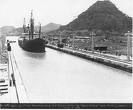








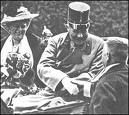
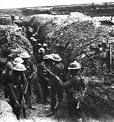
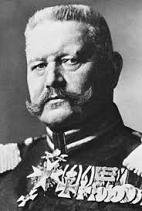





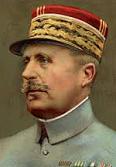
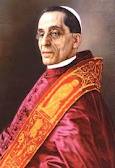




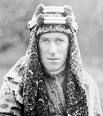

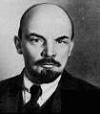








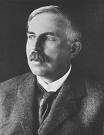







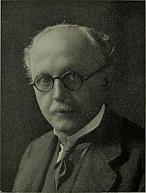















































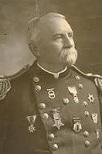








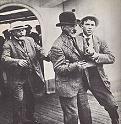



















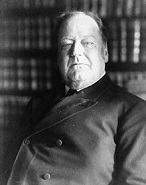





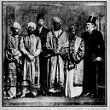


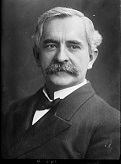
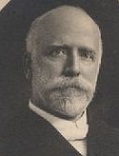




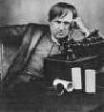
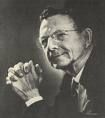
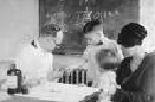










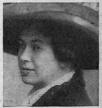

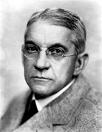

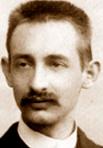


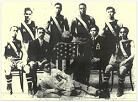




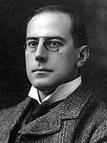
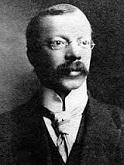







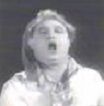
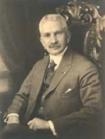
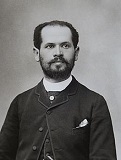






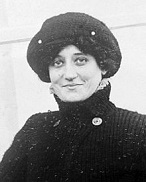

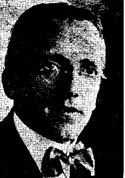
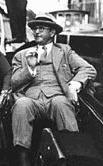
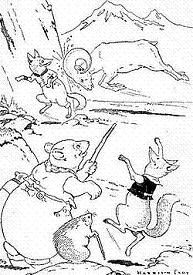







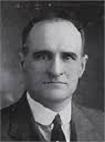





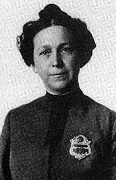















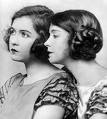



























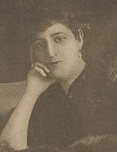
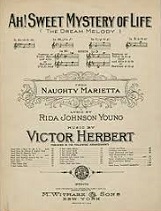
















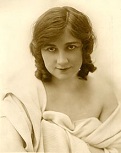


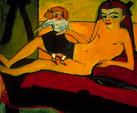
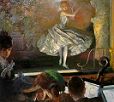


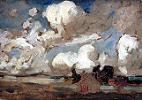














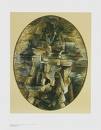

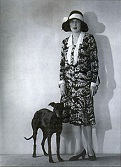
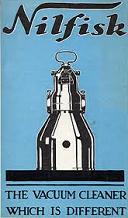
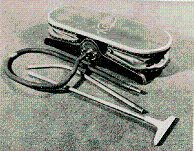
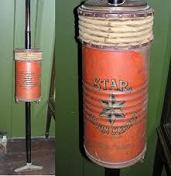
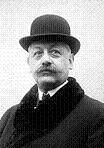
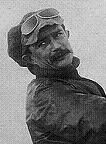
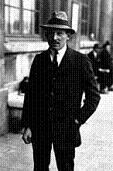
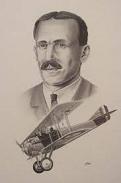
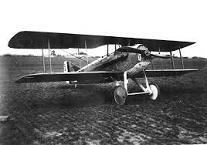
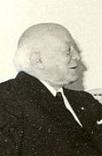
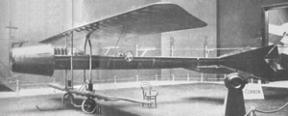


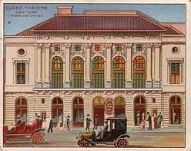
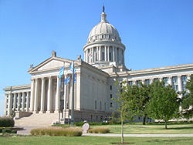
1910 Chinese Year: Dog. Speaking of dogs, China finally abolishes slavery this year. Pop. of Mexico: 15.15M; Honduras: 382K; the 1910 Mexican Rev. causes large numbers of The Thirteenth (13th) (1910) U.S. Census reports the total pop. as 91,972,266 in a land area of 2,969,565 sq. mi. (31.0 per sq. mi.) (first time the U.S. land area goes down from a previous census). Beginning about this year the Great Migration of Southern Blacks (ends 1970) begins as they move en masse to Northern cities incl. New York City, Detroit, and Chicago looking for economic opportunity, 500K by 1920 and 1.5M-2M by 1930; 200+ towns and counties in Indiana become all-white Sundown Towns (until 1940); the black pop. of Goshen, Ind. drops from 21 this year to 2 in 1910; on Mar. 17, 2015 the city council passes a resolution apologizing for its past. After the tsar orders the Russian fleet, which was sunk in 1904 by the Japanese replaced, the 1910 Russian Armaments Deal ("Arms Deal of the Cent.") sees the British, Germans, and Americans vie to build them a new navy, with baksheesh flowing in St. Petersburg like champagne; British "Ace of Spies" Lt. Sidney George Reilly (Sigmund Georgevich Rosenblum) (1874-1925) steers a German co. to win so he can send all the plans of the new battleships to London? On Jan. 1 honest former N.Y. supreme court justice (1893-9) William Jay Gaynor (1849-1913) (who started out a devout Roman Catholic then left the Church after reading Benjamin Franklin's autobiography) becomes New York City mayor #94 (until Sept. 10, 1913), becoming known for refusing to take orders from Tammany Hall boss Charles Francis Murphy, with his reforms causing an assassination attempt on Aug. 9 by fired dock night watchman James J. Gallagher (-1913) aboard the SS Kaiser Wilhelm der Grosse while docked in Hoboken, N.Y., with New York World photographer William Warnecke taking a photo of the moment when he shoots a bullet through his neck, becoming the only New York City to be hit by a bullet during an assassination attempt; the bullet lodges in his neck, leading to his early death. On Jan. 13 Enrico Caruso (1873-1921) sings in the first experimental Radio Broadcast by vacuum tube inventor Lee De Forest in New York City. On Jan. 21 the 1910 Great Flood of Paris sees the Seine River rise 24 ft. by Jan. 28, causing 400M francs damage but no deaths. In Jan. the Ballinger-Pinchot Affair sees Pres. Taft fire Gifford Pinchot, chief (since 1898) of the U.S. Forest Service for insubordination for criticizing his interior secy. (1909-11) Richard Achilles Ballinger (1858-1922) for selling U.S. land to business interests and abandoning the conservation policies of Teddy Roosevelt. On Feb. 8 after he took a business trip to London in 1909, got lost in the fog and was shown the way by a boy who refused a tip (because he's a you know what), the Boy Scouts of Am. are incorporated in the U.S. by newspaper pub. William Dickson Boyce (1858-1929), then chartered by Congress in 1916 "to promote the ability of boys to do things for themselves and others, to train them in scout craft, and to teach them patriotism, courage, self-reliance, and kindred virtues"; the Scout Oath is to keep "physically strong, mentally awake, and morally straight"; the Scout Law requires trustworthiness, loyalty, helpfulness, friendliness, courtesy, kindness, obedience, cheerfulness, thrift, bravey, cleanliness and reverence; of course every scout must do a good deed every day - always swallow and never spit? On Feb. 9 Liberal Party head Jose Canalejas y Mendez (1854-1912) becomes PM of Spain (until Nov. 12, 1912), going on to work to turn Spain into a true democracy, curbing the power of independent political bosses, weakening the excess of the Roman Catholic clergy, and wooing the working class. On Feb. 21 Egyptian Coptic Christian PM (since 1908) Butros Ghali (b. 1847) is assassinated. In Feb. the Dreadnought Hoax sees English super-hoaxer William Horace de Vere Cole (1881-1936) get the British to officially greet a group of Abyssinian princes accompanied by high-ranking Foreign Office rep. Herbert Cholmondeley (pr. CHUM-lee) with a good part of the British fleet in Weymouth Bay in Dorsetshire, incl. HMS Dreadnought, and to have crowds see off their train as they return to London; later it is revealed that the princes, who like to say "Bunga-bunga", are phonies in makeup applied by Sarah Bernhardt's makeup man Willy Clarkson, incl. writer Virginia Woolf (1882-1941), artist Duncan Grant (1885-1978), cricketer Anthony Buxton, judge's son Guy Ridley, and Virginia's brother Adrian Stephen (the "interpreter"), also that Cholmondeley is Cole. On Mar. 1 two trains are swept into a canyon by an avalanche in Wellington, Wash., killing 96. On Mar. 8 Baroness Elise Raymonde de Laroche (Deroche) (1882-1919) of France receives ticket #36, becoming the first licensed female pilot on Earth. On Mar. 17 the Camp Fire Girls are founded by Mrs. Charles Farnsworth of Thetford, Vt. et al., and formally presented to the public exactly two years later as the sister org. to the Boy Scouts of Am.; slogan: "Wohelo" (work, health, love); code: "Worship God, seek beauty, give service, pursue knowledge, be trustworthy, hold on to health, glorify work, be happy"; age limits: Blue Bird (7-10), Camp Fire Girls (10-15), Horizon Club Girls (15-18); in 1975 it becomes Camp Fire Boys and Girls, followed by Camp Fire USA in 2001, and Camp Fire in 2012. On Mar. 19 Repubs. begin a move to strip the House Speaker of power by electing a Rules Committee from which he is excluded; next year they deprive him of the right to appoint other House standing committees. On Mar. 19 only 1 mo. after the unrest begins, the Libyan Transitional Nat. Council announces the creation of the Libyan Oil Co. as the supervisory authority for oil production and prices, with the Central Bank of Benghazi as the authority for monetary policies, causing Robert Wenzel of the Economic Policy Journal to utter the soundbyte: "I have never before heard of a central bank being created in just a matter of weeks out of a popular uprising"; proof that the internat. banking cartel is working behind the scenes to stop Gaddafi from establishing a state-run central bank and trading oil in non-dollar currencies? In the spring hoaxer William Horace De Vere Cole wins several thousand English pounds on a bet that he could lie on his back for 30 min. in the busiest street in Paris during rush hour; he accomplishes it by staging a truck breakdown and going under it for repairs. On Mar. 23 the 54-acre Sitka Nat. Monument on Sitka Bay in SE Alaska is established. On Mar. 31 Liberal Luigi Luzzatti (1841-1927), author of "God in Freedom" advocating religious tolerance becomes PM #31 of Italy (until Mar. 30, 1911), becoming the first Jewish Italian PM. On May 2 the U.S. Supreme (Fuller) Court rules 5-2 in Weems v. U.S. that a penalty of 12 years in irons at hard and painful labor fo the crime of falsifying public records is cruel in its excessiveness and unusual in its disproportionality, extending the Eighth Amendment; dissenting Justice Edward D. White writes the soundbyte: "The clause against cruel punishments, which was intended to prohibit inhumane and barbarous bodily punishments, is so construed as to limit the discretion of the lawmaking power in determining the mere severity with which punishments not of the prohibited character may be prescribed"; dissenting Justices White and Holmes do not object to extending the Eighth Amendment so as to ban newly devised bodily punishments that are inhumane and barbarous, but argue that "the prohibition against the infliction of cruel bodily torture cannot be extended so as to limit legislative discretion in prescribing punishment for crime by modes and methods which are not embraced within the prohibition against cruel bodily punishment"; Justice Joseph McKenna writes the soundbyte: "Legislation, both statutory and constitutional, is enacted, it is true, from an experience of evils but its general language should not, therefore, be necessarily confined to the form that evil had theretofore taken. Time works changes, brings into existence new conditions and purposes. Therefore a principle to be vital must be capable of wider application than the mischief which gave it birth. This is peculiarly true of Constitutions. They are not ephemeral enactments, designed to meet passing occasions. They are, to use the words of Chief Justice Marshall, 'designed to approach immortality as nearly as human institutions can approach it'." The dying blaze of spendor moment in British history? On May 6 king (since Jan. 22, 1901) Edward VII (b. 1841) dies in Buckingham Palace after the date is allegedly forecast by U.S.-born astrologer Evangeline Smith Adams (1859-1933) (who unsuccessfully tries to get astrology legalized in Britain), and on May 6 his 2nd son (illiterate?) George V (George Frederick Ernest Albert) (1865-1936) (whose portrait bears a striking resemblance to Dr. Seuss' Cat in the Hat, which he might be able to read if he has help?) is crowned king of Great Britain (Britain's 57th monarch) (until Jan. 20, 1936), continuing the rule of the House of Saxe-Coburg, and living an austere lifestyle, always going to bed at 11:10 p.m.; the Great Jan. Daylight Comet of 1910 arrived on Jan. 12, and on Apr. 10 Halley's Comet came into naked-eye view, with the Earth passing through its tail on May 19, during which spectroscopic analysis detects the toxic gas cyanogen, causing French astronomer Camille Flammarion to claim that the gas "would impregnate the atmosphere and possibly snuff out all life on the planet", causing a run on gas masks, anti-comet pills, and anti-comet umbrellas; Victoria Mary "May" of Teck (1867-1953) from Wurttemberg, Germany is his consort; Edward VII's funeral on May 20 is later seen as symbolic by Barbara Tuchman (1912-89), who writes: "The muffled tongue of Big Ben tolled nine by the clock as the cortege left the palace, but on history's clock it was sunset, and the sun of the old world was setting in a dying blaze of splendor never to be seen again" - just say no to dough? On May 11 1M acre Glacier Nat. Park in Mont. is established bordering Alberta and British Columbia. The Simpsons get some family shock therapy? On May 18 Halley's Comet returns, coming within 13M mi. of Earth and exhibiting five tails, and thousands take to their roofs expecting the end of the world with a bad case of MF (Millennium Fever); the first time Halley's Comet is observed photographically. On May 31 the Union of South Africa is established as a dominion within the British Empire, with Louis Botha (1862-1919) as PM #1 (until Aug. 27, 1919), and the capital split between Pretoria (admin.), Cape Town (all-white parliament), and Bloemfontein (appellate div.); Botha and Boer Gen. James Barry Munnik Hertzog (1866-1942) (PM #3 in 1924-39) found the South African Party; Starr Jameson founds the English-speaking Unionist Party, which folds in a few years after Botha adopts a policy of attempting to curb anti-British feelings by the Boers - megamouth, supertaster, flavorfiend, or hypertongue? The end of the Choson People of Far East Asia? In May Japanese Gen. Terauchi Masatake (1852-1919) is appointed resident-gen. of Korea, and sets plans in motion for annexing it; on Aug. 22 Japan formally annexes Korea (until 1945) and names it Chosen (Choson), ending the Yi (Choson) Dynasty that ruled since 1392. In May Good Housekeeping mag. (50:665-6) reviews manual vacuum cleaners, asking "Do vacuum cleaners clean?", the answer being a qualified yes, warning that operating a pump vacuum requires two persons and is hard work; in 1912 the dir. of the Good Housekeeping Inst. observes that a "hand cleaner" weighing 15-25 lbs. with either pump or wheel is "not for a delicate woman" and not preferable to a carpet sweeper, although she did not test the lighter (5 lbs.) piston type; in 1917 the mag. again considers vacuum cleaners, electric models only; in 1921 the question originally posed in 1910 receives a yes answer after 554 readers return a questionnaire, all of them voting yes. On June 10 Rolls-Royce co-founder Charles Stewart Rolls (b. 1877) flies his French-built Wright airplane round-trip between Dover, England and Sangatte, France; too bad, on July 12 he is killed in a flying accident on the 2nd day of an air show in Southbourne, Bournemouth, England in which he is the star when the tail of his Wright Flyer breaks off, becoming the first Briton to be killed in a flying accident. On June 14-23 the 1910 Edinburgh World Missionary Conference in Ediburgh, Scotland is attended by 1,215 reps, launching the Protestant Christian ecumenical movement; it follows conferences in London in 1988 and New York City in 1900; on June 2-6, 2010 a centennial is held in Ediburgh, along with the Global Mis On June 19 (3rd Sunday in June) the 2nd Father's Day is held in Spokane, Wash. under the influence of Sonora Smart Dodd (1882-1978), whose sound smart dad was born on June 6, but ministers couldn't get their sermons ready in time, so she settles for the 3rd Sun.; the first observance was in W. Va. in 1908 but they didn't official register it. On June 24 Alfa Romeo Automobiles S.p.A. is founded in Milan, Italy by Alexandre Darracq et al. to build sports cars, starting with the A.L.F.A. 24 HP. On June 25 the U.S. Postal Savings program is established, and begins service next Jan. 3 at 48 2nd-class post offices, with deposits reaching $11M in 11 mo., the money being distributed among 2,710 nat. and state banks; the cost of a first-class stamp in the U.S. is 2 cents. On June 25 the U.S. Federal Corrupt Practices Act is passed, setting campaign spending limits for political parties in House gen. elections, becoming the first federal law to require public disclosure of spending by political parties, but not individual candidates; too bad, it is weak and rarely enforced, except for political gain by House members? Should be called the No White Women for Black Man Act? On June 25 the U.S. Congress passes the U.S. Mann (White-Slave Traffic) Act, named after U.S. Rep. James Robert Mann (1846-1922), prohibiting the interstate transportation of women for immoral purposes (white slavery); meant to prosecute pimps, it is so vaguely written that just about anybody crossing a state line accompanying a female can be slammed into a federal prison to protect the country from them, and it is soon being used to prosecute women rather than men, unless they're a black man hooking up with white women; prostitution has never been banned in the U.S., and is done for the first time in Mass. in 1917, after which when women get the vote they get federal laws passed; the law causes red-light districts in Tex. to be closed, starting with Dallas, Austin, and Amarillo in 1914, followed by El Paso and Houston in 1917, causing gambling venues to go underground; San Antonio, Tex. and Galveston, Tex. keep their vice districts open through WWI. On July 1 the first fully-automated bread plant is opened in Chicago, Ill. by the Ward Baking Co. On July 2 the Vitagraph Studios Bldg. in Flatbush, Brooklyn, N.Y. burns down, along with most of its film negatives, causing them to rebuild, and found a 2nd studio in Calif.; meanwhile new stars Norma Talmadage (1893-1957) and Anita Stewart (1895-1961) join the studio straight from Erasmus H.S. in Flatbush, followed by Wallace "Wally" Reid (1891-1923) is founded, Fred Thomson (1890-1928) and Clara Kimball Young (1890-1960) in 1912, Jane Novak (1896-1990) in 1913, Antonio Moreno (1887-1967) in 1914, and Alice Joyce (1890-1955) in 1916; Jean the Vitagraph Dog also becomes a star. On July 13 Women's Wear Daily, founded in New York City by Edmund Fairchild begins pub., becoming known as "the Bible of Fashion". On Aug. 20-21 the Great Fire (Big Blowup) of 1910, a giant forest fire in W Mont., N Idaho, and NE Wash. burns 3M acres in two days, most in six hours, killing 87 (mostly firefighters) becoming the deadliest forest fire in U.S. history (until ?), making firefighters into heroes and permanently changing the focus of the U.S. Forest Service to fire prevention; NASA later calls it one of the coldest years on record. On Aug. 28 the postage-stamp-sized (pop. 500K) former principality (since 1851) of Montenegro is proclaimed a kingdom under king Nicholas I (1841-1921) (until Nov. 26, 1918), who is made a field marshal in the Russian army, the first foreigner since the Duke of Wellington; the 50K-man armed forces have no cavalry, uniforms, or medical personnel, while the 700 officers wear tsarist Russian army uniforms and have no training academy. In Aug. Conservative Juan Jose Estrada Morales (1872-1967) becomes provisional pres. of a U.S. puppet regime in Nicaragua (until May 9, 1911) after the collapse of the Zelaya regime, with Gen. Adolfo Diaz (1875-1964) as the real strongman (until 1912); too bad that the country's finances are going down the drain? On Sept. 1 Pres. Roosevelt gives a speech in Ossawatomie, Kan., enunciating his doctrine of the New Nationalism, which promotes a strong federal govt. to protect human welfare and property rights, but holds the former higher than the latter. On Sept. 12 5'0" Alice Stebbins Wells (1873-1957) becomes the first Am.-born policewoman in the U.S. after she is sworn-into the all-male 350-member Los Angeles Police Dept.; she sews her own uniform, a floor-length dress and jacket, later issuing the soundbyte "It was a man's world". On Oct. 1 the Los Angeles Times Bldg. in Los Angeles, Calif. is dynamited, starting a fire that kills 21 nonunion workers and injures 100 more., causing the newspaper to call it "the crime of the century"; right-wing anti-union owner Harrison Gray Otis (1837-1917), whose L.A. home the Bivouac was also targeted claims a labor conspiracy; brothers J.B. McNamara and John J. (J.J.) McNamara are tried for it, with Clarence Darrow as their atty.; too bad, they confess to escape execution, giving the labor movement a serious setback. On Oct. 1 the world's first mid-air collision in Milan, Italy sees Rene (René ) Thomas (1886-1975) of France in his Antoinette monopolane fall onto and ram the Farman biplane of Capt. Bertram Dickson (1873-1913) of Britain, who dies of his injuries in 1913; Thomas moves to the U.S. and switches to auto racing. in Portugal, with the French-style First Portuguese Repub. (ends 1926) proclaimed at 9:00 a.m. from the balcony of the Pacos de Concelho in Lisbon; the monarchy is ended, and king (since Feb. 1, 1908) Manuel II flees to Gibraltar, then goes into exile in England, becoming the last king of Portugal, where he lives with his uncle the Duke of Orleans and plots to return until Portugual enters WWI on the side of the Allies, then lives in England until his death (1932); intellectual-poet Joaquim Teofilo (Teófilo) Fernandes Braga (1843-1924) becomes provisional pres. (until 1911); too bad, the bad economy combined with plots on the left and right keep this new repub. rocking, and it goes through 10 presidents in 16 years. On Oct. 10 after being nominated by Pres. Taft on Apr. 25 and confirmed by the Senate on May 2, Glens Falls, N.Y.-born conservative gov. #36 of N.Y. (since Jan. 1, 1907) Charles Evans Hughes (1862-1948), becomes U.S. Supreme Court justice #62 (until June 10, 1916) to fill the vacancy left by David Josiah Brewer (1889-1910), going on to use the Commerce Clause to weaken lassez-faire capitalism and expand the regulatory powers of state and federal govts. until he resigns to become the Repub. candidate for U.S. pres. against Woodrow Wilson, becoming the last justice to resign to run for elected office (until ?). On Oct. 10 Tau Epsilon Phi (TEP) fraternity is founded at Columbia U. by 10 Jewish men, admitting Jews only until the 1950s. On Oct. 17-23 the Philadelphia Athletics (AL) (mgr. Connie Mack) defeat the Chicago Cubs (NL) (mgr. Frank Chance) 4-1 to win the Seventh (7th) World Series; Athletics 2nd baseman Edward Trowbridge "Crazy Eddie" Collins Sr. (1887-1951) wins his first of four WS. On Oct. 23 Anna Leonowens' pupil Rama V Chulalongkorn (b. 1853) dies, and is succeeded by his Oxford-educated son Rama VI Vaijiravudh (1881-1925), who becomes Chakri king #6 of Siam (until 1925), going on to become the father of Thai nationalism, found Vajiravudh College (Thailand's first public school), abolish polygamy (except for the royal family), and continue his daddy's modernization program despite famine and plague, while living a luxurious Western lifestyle and writing novels, short stories, and plays to reinvent himself? On Oct. 29 Degania Alef is founded by 12 Jewish Zionist pioneers (10 men, 2 women), becoming Palestine's first kibbutz; starting out socialist, it goes capitalist in 2007. On Nov. 5 Thomas Woodrow Wilson leaves Princeton U., and is elected gov. of N.J. as a Dem.; Franklin D. Roosevelt is elected to the N.Y. State Senate as a Dem. (reelected 1912). On Nov. 5 (Guy Fawkes' Day) English Bloomsbury Group art critic Roger Eliot Fry (1866-1934) stages a Post-Impressionist Exhibition at the Grafton Galleries in London, featuring Cezanne, Van Gogh, and Matisse. On Nov. 20 after suffering from severe rheumatism and last sitting on the bench on May 7, and Pres. Taft talking him into it after getting Congress to pass a special act to give him retirement benefits without reaching age 70 or 10 years of service, U.S. Supreme Court justice (since Dec. 12, 1906) William Henry Moody retires. On Nov. 23 after declining the post of British ambassador to the U.S., newly-created Charles Hardinge, 1st Baron Hardinge of Penshurst (1858-1944), an admirer of Mohandas Gandhi is appointed as viceroy and gov.-gen. of India (until Apr. 4, 1916), presiding over the move of the capital from Calcutta to New Delhi in 1912, and going on to deploy nearly all British troops in India as well as many native Indian troops outside India in WWI. The Ted Bundy of England? On Nov. 23 Coldwater, Mich.-born "wife poisoner" dentist and homeopathic quack doctor Hawley Harvey Crippen (b. 1862) is hanged in Pentonville Prison in London, England for murdering his flamoyant spendthrift mediocre theatrical singer wife Belle Ellmore (Cora Henrietta Crippen) (-1910) with hyoscine (scopolamine) in order to run off with his secy. Ethel Le Neve (1883-1967), then dismantling and burying her body in his cellar; after Belle disappears and the lovebirds begin living together openly they draw the suspicions of chief inspector Walter Dew (1863-1947) (known for hunting Jack the Ripper), then not knowing that he buys their story they suddenly flee to Brussels and Antwerp, then board the SS Montrose en route to Canada, with her dressed as a boy, drawing suspicions by the captain, who radios London, causing the house to be searched and a piece of skin with an identifying scar to be found under the basement floor (he carefully disposed of her body in acid and fire, and left just enough to incriminate himself?); after being foiled by the newfangled Marconi radio apparatus recently installed, they arrive in Quebec to find Dew waiting for them on July 31, becoming the first criminals to be captured with the aid of wireless communication; Ethel is acquitted after being defended by Frederick Edwin Smith, 1st Earl Birkenhead (1872-1930) in his first big case; DNA tests made in 2007 by David Foran of Michigan State U. reveal that the body parts found were from a man. On Nov. 14 Navy Lt. Eugene B. Ely (1886-1911) lands in Norfolk, Va. after taking off from the deck of the cruiser USS Birmingham at Hampton Roads, Va.; next Jan. 18 he reverses the process, landing on the USS Pennsylvania in his Curtis biplane, becoming the first airplane takeoff and landing from a ship. On Nov. 20 after challenging Gen. Porfirio Diaz in the pres. elections and being jailed to get him out of the way so that Diaz can be reeelected, wealthy U.S.-educated haciendado Francisco Ignacio Madero (1873-1913) flees to Texas and issues the Plan of San Luis de Potosi, a manifesto calling for an uprising, beginning the Mexican Rev. of 1910 (ends May 21, 1920), which causes masses of Mexicans to begin immigrating to the U.S., along with renegade polygamous Romney, er, Mormons - bring down the hacienda? In late Nov. to prevent another Panic of 1907, U.S. Sen. Nelson W. Aldrich, Asst. Treasury Secy. A. Platt Andrew, and five bankers incl. J.P. Morgan, Henry P. Davison, Benjamin Strong, Paul Warburg, and Frank Arthur Vanderlip Sr. (1864-1937) (protege of John D. Rockefeller) meet in Jekyll Island, Ga., and hold a secret meeting that comes up with the idea of the U.S. Federal Reserve System. In Nov. the NAACP in New York City begins pub. The Crisis: A Record of the Darker Races at $1 a year. On Dec. 3-19 after winning the Jan. gen. election and pledging to reform the House of Lords and end its veto power, and a budget crisis last year was exacerbated by the House of Lords blocking the budget of chancellor of the exchequer David Lloyd George (1863-1945, the 1910 British Gen. Election (first held over several days) (last prior to WWI) sees the Conservatives led by Lord Arthur Balfour allied with the Liberal Unionists win 271 seats, and the Liberal Party win 272 seats, supported by the Irish Nationalists, becoming the last election in which the Liberals win the highest number of seats in the Commons (until ?); after the Liberals threaten to recommend to the king that he create hundreds of new Liberal peers, causing them to work to abolish the age-old veto of the Lords over the Commons next year with the Parliament Act of 1911, opening the way to Irish Home Rule. British novelist Virginia Woolf writes the soundbyte in 1924 about the advent of modernist art this year: "On or about December 1910, human character changed. I am not saying that one went out, as one might into a garden, and there saw that a rose had flowered, or that a hen had laid an egg. The change was not sudden and definite like that. But a change there was, nevertheless." Poisoned by a bad can of tomatoes? As the 1910s decade begins, five U.S. Supreme Court justices retire or die in a 2-year period, most this year, incl. Rufus Wheeler Peckham (Oct. 24, 1909), David Josiah Brewer (Mar. 28, 1910), Melville Fuller (July 4, 1910), William Henry Moody (retires Nov. 20, 1910), and John Marshall Harlan (Oct. 14, 1911); on Dec. 16 Marion, Ind.-born Willis Van Devanter (1859-1941) becomes U.S. Supreme Court justice #63 (until June 2, 1937); on Dec. 17 Ga.-born Joseph Rucker Lamar (1857-1916) (cousin of justice Lucius Lamar II) becomes U.S. Supreme Court justice #64 (until Jan. 2, 1916), filling the vacancies left by Edgar Douglass White (1894-1910) and William Henry Moody (1906-10); on Dec. 19 justice #55 (since Mar. 12, 1894) (Roman Catholic) Edward Douglass White (1845-1921) becomes U.S. Chief Justice #9 of the very white and very right U.S. Supreme Court (until May 19, 1921) to fill the vacancy left by tomato man Melville Fuller (b. 1883) (1888-1910), who died on July 4, with Pres. Taft appointing him because he knew that the fat old fart didn't have long left and he wanted to become his successor?; White becomes known for the Rule of Reason standard in antitrust law, and for his dissent in the case Pollock v. Farmer's Loan and Trust Co. (1895) declaring the nat. income tax unconstitutional. Eleutherios Venizelos (1864-1936) becomes PM of Crete, but the Military League of Greece lures him to Athens to help their constitutional reform movement. Andrew Fisher becomes PM of Australia again (#8) (until 1913). A revolt begins in Albania. Ramon Barros Luco (1835-1919) becomes pres. of Chile (until 1915). U.S. Pres. Taft's secy. of state Philander Chase Knox (1853-1921) negotiates arbitration treaties with Britain and France that are ratified next year by the Senate after 18 mos. of opposition led by U.S. Sen. (R-Mass.) (1893-1924) Henry Cabot Lodge Sr. (1850-1924). The Flexner Report (Medical Education in the United States and Canada), written by nonphysician Abraham Flexner (1866-1959), working for the Carnegie Foundation for the Advancement of Teaching (founded 1905) and the Am. Medical Assoc. (AMA) describes every medical school in the U.S. and Canada, denouncing many of them as inadequate while praising Johns Hopkins U. (founded 1893) as a model along with German educational methods, resulting in many school closings and more expensive lab training and in-hospital training; part of a sinister conspiracy of the Robber Barons to monetize medicine and suppress natural medicine? The Internat. Psychoanalytical Assoc. (IPA) is founded by Sigmund Freud, with Carl Jung as pres. #1, and Otto Rank as secy. #1; the Am. Psychoanalytic Assoc. (APsaA) is founded. Hull House resident member Alice Hamilton (1869-1970) (sister of Edith Hamilton) founds the field of occupational medicine, being appointed to the Occupational Diseases Commission of Ill. (first such investigative body in the U.S.), relying on "shoe leather epidemiology" and toxicology to influence legislative reforms to improve worker health; in 1919 she becomes the first woman faculty member of Harvard U., with the New York Tribune carrying the headline "A Woman on Harvard Faculty - The Last Citadel Has Fallen - The Sex Has Come Into Its Own". George Archer-Shee (1895-1914), a 15-y.-o. naval cadet at the Isle of Wight's Osbourne Naval College is sacked for allegedly stealing a five shilling postal order; his father ruins his health making it a cause celebre in England, and the boy is finally cleared after a trial, but dies in WWI. An avalanche in Hnifsdalur (Knife's Valley) in Finland kills 20, becoming the deadliest in the 20th cent. "Fighting Liberal" George William Norris (1861-1944), a U.S. Rep. since 1902 leads a group who change the House rules to end the abitrary rule (since 1903) of Quaker House Speaker Joseph Gurney "Uncle Joe" Cannon (1836-1926) (R-Ill.), stripping him of some of his powers such as heading the House Rules Committee; he is defeated in 1912 but returns in 1914-22, becoming a leading war and Wilson critic, then turning Methodist after leaving Congress. Wash. becomes the 4th U.S. state to give women the vote. A garrison and proving ground are established in Zossen, Germany in Brandenburg 20 mi. S of Berlin, which in WWI houses several POW camps incl. the Crescent (Halfmoon) Camp (Halbmondslager) (Wunsdorf) for Muslim POWs of the Triple Entente, site of the first mosque (wooden) in Germany (July 13, 1915), and Weinberg Camp for Indian POWs; a total of 15K POWs are held there incl. Russian and French (almost no Brits, who are held at Doberitz), all well-fed to facilitate conversion attempts. Sleepy Hollywood is annexed by Los Angeles to secure the reliable water supply, allowing movie theaters, which had been banned to open; there are at least 10 movie cos. operating in LA; by 1921 80%+ of the world's film industry is concentrated in LA. The colony of French Equatorial Africa, consisting of the French Congo, Gabon, and Ubangi-Shari is established. The city of Elisabethville (Elizabethville) (Elisabethstad), capital of the Belgian Congo (modern-day pop. 1.79M) is founded in Katanga Province in modern-day SE Dem. Repub. of the Congo, becoming the mining capital; in 1966 it is renamed Lubumbashi, and in 1972 Katanga is renamed Shaba. The U.S. Lighthouse Service (Bureau of Lighthouses) is established to succeed the U.S. Lighthouse Board (founded 1852), with greater civilian control; in 1939 it merges with the U.S. Coast Guard, which after the 2000 U.S. Nat. HIstoric Lighthouse Preservation Act begins handing control to the U.S. Nat. Park Service. Canada forms its own small navy. The Disciples of Christ found the Council on Christian Unity, becoming the first Christian denomination to found an org. devoted to the pursuit of Christian unity. Ukrainian-born Am. psychiatrist Boris Sidis (1867-1923) opens the Sidis Psychotherapeutic Inst. in Portsmouth, N.H. Arthur Evans completes his excavation of Cnossus, Crete. French daredevil Henri Farman (1874-1958) flies 463 km (300 mi.) in 8.25 hours. The construction co. Brown and Root is founded in Tex. by George R. Brown and Herman Brown with funds from their brother-in-law Daniel Root; in 1947 they build one of the world's first offshore oil platforms; in 1998 they merge with M.W. Kellogg to form KBR Inc. After her stage career tanks, never-marrying always-romancing Saumur-born French fashion designer Gabrielle Bonheur "Coco" Chanel (1883-1971) (Fr. "cocotte" = kept woman) opens the Chanel Modes boutique in Paris, selling hats, making a fan of popular actress Gabrielle Dorziat, allowing her in 1913 to expand to Deauville, followed in 1915 by Biarritz, selling deluxe casual clothes made of traditional men's fabrics incl. jersey and tricot, going on to start a women's fashion rev. with tailored suits, chain-belted jerseys, quilted handbags, and the "little black dress", ending the age of the corset and replacing it with the sporty look, bringing back suntans for women; in spring 1920 she becomes friends with Russian composer Igor Stravinsky, backing his productions; on May 5, 1921 she introduces Chanel No. 5 perfume, and in 1921 opens the first-ever fashion boutique in Paris, accepting a $1M deal with Samuel Goldwyn to come to Hollywood and design costumes for MGM stars incl. Gloria Swanson, Ina Claire, making fans of Greta Garbo and Marlene Dietrich before abndoning Hollyweird for France, ending up employing 4K people by 1935 and becoming rivals with Elsa Schiaparelli; in 1929 she introduces the Chanel Bag, with a thin chain (chatelaine) shoulder strap and burgundy lining, based on her time in an orphanage and convent; in 1933 she adopts the camellia as her logo, going on to become the #1 fashion designer of all time; too bad, a rabid anti-Semite, in WWII she collaborates with the Germans, and is later revealed to be a Nazi spy. In this decade large-scale coffee growing begins in Kenya. In this decade large-scale pineapple growing is established in Hawaii. In this decade the Caribbean banana industry peaks, causing labor troubles in Costa Rica and other countries. The wild blueberry is domesticated in the U.S. There are 122K telephones in use in Great Britain. The first labour exchanges open in Britain. In 1910 the Mediterranean fruit fly is discovered in Hawaii, which is full of yummy bananas. The "weekend" becomes popular in the U.S. for grand relaxation. In this decade beards begin to become rare on male faces in the West (until 1960). Kent State U. is founded in Kent, Ohio as a teacher training school, holding its first classes in 1912; in the 1960s-1970s it becomes known for student activism against the Vietnam War. Prince Albert I of Monaco founds the Inst. for Oceanography. The $10M Carnegie Endowment for Internat. Peace is established after Columbia U. pres. Nicholas Murray Butler talks old man Andrew Carnegie into it; the goal is the abolition of internat. war - judging by the news, he must not have given enough moolah yet? The U.S. Esch Act places a punitive tax on white phosphorus matches, killing the industry. Angel Island is opened as an official U.S. immigration station in San Francisco Bay, Calif. (until 1940), becoming more of a detention center than welcoming gateway as Asian immigrants have to prove their fathers are U.S. citizens or that they were born in the U.S., and are often held for long periods for processing. The Chicago Outfit (Mafia) AKA the Org. is founded in South Side, Chicago, Ill., becoming the largest and most powerful criminal org. in the Midwest. Hotels in America and England begin to host afternoon tea dances where working girls can meet men in a city far from their homes while enjoying dance crazes incl. the Tango (danced in 2/4 or 4/4 time) from Buenos Aires, Argentina, brought to the U.S. in 1912 by Vernon and Irene Castle. Vadodara, Gujarat-born Indian Sufi musician Inayat Khan (1882-1927) comes to the West, marrying Ora Ray Baker from N.M. and settling in Suresnes near Paris, founding the Sufi Order of the West in London in 1914; in 1923 he founds the Internat. Sufi Movement. Belgian attys. Paul Otlet (1868-1944) and Henri La Fontaine (1854-1943) found the Mundaneum to gather and classify all the world's knowledge using their Universal Decimal Classification based on the Dewey Decimal Classification System, which later leads to the Internet. The Los Angeles County Museum of Art in Los Angeles, Calif. is founded. The Presbyterian Princeton Theological Seminary issues a list of five dogmas deemed essential to defend the infallibility of the Bible, incl. inerrancy of scripture, the Virgin Birth of Christ, Christ's atonement for our sins on the cross, Christ's bodily resurrection, and the objective reality of Christ's miracles; the last one is later replaced by the doctrine of premillennialism, that Christ will physically return to Earth in the Second Coming to inaugrate the thousand-year golden age of peace AKA the Millennium; too bad, in 1929 after the theological liberals take over the school, the last Princeton theologians leave to found Westminster Theological Seminary in Glenside, Penn. The Poetry Society of Am. is founded in Manhattan, N.Y. by Witter Bynner et al. as a salon, attracting poets Amy Lowell, Ezra Pound, W.B. Yeats et al. to its meetings, later Robert Frost, Langston Hughes, Edna St. Vincent Millay, Marianne Moore, and Wallace Stevens; in 1917 it becomes instrumental in the establishment of a Pulitzer Prize for poetry; in 1930 it establishes the Frost Medal for lifetime achievement in Am. poetry, with the first award going to Jessie Rittenhouse, and the Shelley Memorial Award for living Am. poets, with the first award going to Conrad Aiken; in 1992 it launches Poetry in Motion in the New York City subway system, expanding to 20+ cities. The German Police Dog Assoc. accepts the Rottweiler as the 4th breed for police work after German Shepherds, Doberman Pinschers, and Airedale Terriers, saving the former herding breed from extinction. British art critic Roger Fry coins the term "Postimpresionism" for the various styles of painting flourishing in France since 1880, incl. Cezanne, Gaugin, Seurat, van Gogh, etc. Salomon Brothers money brokerage firm in New York City is founded by Arthur, Herbert, and Percy Salomon, expanding to underwriting in 1915 and the govt. bond market in 1917 after passage of the 1917 Liberty Loan Act. There are now 10K nickelodeon theaters for moving pictures in the U.S. The monopoly of the Abe Erlanger and Marc Klaw Theatrical Syndicate (founded 1896) begins to be broken by the Shubert family, who finish breaking them by 1919 and go on to develop Broadway as the #1 theater district. David City, Neb.-born Joyce Clyde Hall (1891-1982) founds Hallmark Card Co. in Kansas City, Mo., starting by quitting high school in Norfolk, Neb. and going store-to-store in Kansas City, Mo. with two shoe boxes full of greeting cards, expanding to Valentine's Day Cards in 1913 and and Christmas Cards in 1915, and inventing wrapping paper in 1917, going on to become an Am. success story and become friends with Eisenhower, Churchill, and Truman. French journalist Paul Desjardins (1859-1940) begins holding his annual 10-day Decades of Pontigny for the intellectual elite of Europe incl. Simone de Beauvoir, Nikolai Berdyaev, T.S. Eliot, Heinrich Mann, Thomas Mann, Jean-Paul Sartre, and Antoine de Saint-Exuperty (ends 1914); in 1922-39 he reinstitutes them as a conference on the future of Europe, with guests incl. Charles du Bos, Andre Gide, Roger Martin du Gard, Paul Langevin, Francois Mauriac, Jacques Riviere, Alice Voinescu et al. Young Ohio girl Lillian Gish (1893-1993), elder sister of actress Dorothy Gish (1898-1968) lands a dancing role in the New York show of Paris-born Sarah Bernhardt (1844-1923); Divine Sarah likes to stroke the girls' delicate curls and mutter to them in French before sending them out after the curtain opens - all the goodness of a Smucker's PBJ without the crust? Plain Jane Yiddish-accented Fanny Brice (1892-1951) lands a $75 a week contract with Florenz Ziegfeld Jr., who also signs light-skinned Egbert Austin "Bert" Williams (1875-1922), who becomes the first black entertainer in an all-white show. Moravian soprano Maria Jeritza (1887-1982) debuts as Elsa in Wagner's Lohengrin at Olomouc, Moravia, and Emperor Franz Josef hears her and gets her a contract at the Imperial Hofoper in Vienna; she debuts with the Metropolitan Opera on Nov. 19, 1921. Protestant Irish dramatist Esme (Esmé) Lennox Stuart Robinson (1886-1958) becomes mgr. of the Abbey Theatre in Dublin (1910-14, 1919-23). English-born Am. stage actress Julia Marlowe (1866-1950) begins appearing with her Am. hubby Edward Hugh Sothern (1859-1933) in a series of Shakespeare plays (until 1914), becoming known as a top Shakespearean duo. The Wykeham Professorship of Ancient History at New College, Oxford U. is established for ancient Greek historians; holders incl. Sir John Linton Myres (1869-1954) (1910-39), Henry Theodore Wade-Gery (1888-1972) (1939-53), Antony Andrewes (1910-90) (1953-77), William George Grieve Forrest (1925-97) (1977-92), and Robert C.T. Parker (1996-). The Journal of Genetics is founded in England by Reginald Crundall Punnett (1875-1967) and William Bateson (1861-1926). The Jantzen Swimwear Co. (originally Portland Knitting Co.) is founded in Portland, Ore., going on produce virgin wool swimwear in 1913, followed by a lightweight rib-stitch model in 1915; their "Red Diving Girl" logo becomes world famous. Young Londoner William Pratt, who bucked his parents who want him to become a diplomat and went to Canada, ending up a farmhand responds to an ad placed by a theatrical agent named Kelly in Billboard, goes to Hollywood, and adopts the screen name Boris Karloff (1887-1969). Thomas Beecham (1879-1961) opens his first opera season at Covent Garden in London. Isolated America is invaded by Modernist artists from the Continent? The 291 Gallery of photographer Alfred Stieglitz (1864-1946) in New York City starts the decade right by exhibiting Modernist works by French-born Gaston Lachaise (1882-1935), John Marin (1870-1953), Italian-born Joseph Stella (1877-1946) ("America's First Futurist"), Polish-born Abraham Walkowitz (1878-1965) ("America's First Cubist"), Polish-born Max Weber (1881-1961), Lithuanian-born William Zorach (1887-1966) et al. - how's this for an appetizer? Potato chips (invented 1853) become popular worldwide in this decade - the reasons most diets don't work? Blackhawk, Colo.-born Bible-thumper Jesse Shwayder (1882-1970) founds Samsonite in Denver, Colo. on Mar. 10 to manufacture "strong enough to stand on" luggage, introducing a tapered vulcanized fiber suitcase in 1939, and trademarking the name Samsonite in 1941 after the Bible strongman, going on to name his son King David and require all co. execs to carry the Golden Rule engraved on a gold band; originally called Schwayder Trunk Manufacturing Co., he changes the name in 1965 to you know what; in 1961-72 it manufactures Lego toys under license from the Danish parent co.; in 1973 it is acquired by Beatrice Foods. Sunbeam Products of Chicago, Ill., founded in 1890 by J.K. Stewart and Thomas Clark as Chicago Flexible Shaft Co. to produce animal shearing and trimming machines begins producing electric home appliances, incl. the Ironmaster electric iron, Mixmaster mixer (1930), Shavemaster electric razor (1937), Sunbeam CG waffle iron (1939), Coffeemaster (1938-64), and the T20 no-levers toaster (known for legendary longevity), all developed by Swedish-born engineer Ivar Jepson (1903-65), the "father of the modern consumer appliance industry". The Fisker and Nielsen Co. in Denmark, founded by Peder Andersen Fisker (1875-1975) and Hans Marius Nielsen (1870-1954) becomes the first to sell vacuum cleaners in Europe; models weigh 17.5kg and can be operated by a single person; after Fisker patents it and buys out Nielsen, sales reach 1M by 1954; in 1994 it is renamed Nilfisk, and in 1998 it is renamed Nilfisk-Advance. Czech.-born car dealer (former cabbie) John Daniel Hertz Sr. (Sandor Herz) (1879-1961) founds the Yellow Cab Co. in Chicago, Ill., painting his used cars yellow and building his fleet to 2.7K cabs by 1925, becoming the world's largest taxi fleet; in 1924 he founds Hertz Drive-Ur-Self Co., which he sells to Gen. Motors in 1926, later becoming Hertz Rent-A-Car. Cologne, Germany-born Gustav Otto (1883-1926), son of internal combustion engine inventor Nikolaus August Otto founds Otto Flugmaschinenfabrik (originally Aeroplanbau Otto-Alberti) in Puchheim to manufacture powered aircraft made of wood, wire, and canvas, moving to Munich is founded before being taken over by the Bavarian govt. and reorganized as the Bayerische Flugzeugwerke AG on Mar. 7, 1916; German WWII ace Ernst Udet graduates from their flight school. Sports: On Feb. 28-Mar. 5 Thomas Haley of Detroit, Mich. wins the single competition at the ABC nat. tournament in Detroit with a score of 705, becoming the first 700 series. On Apr. 14 (opening day) after gaining 100+ lbs. in office and having to be pried out of his bathtub, the Seventh-Inning Stretch tradition is given official pres. approval when 6'2" 350-lb. Pres. William Howard Taft has to stretch his at a game between the Washington Senators and Philadelphia Athletics. On Oct. 13 despite condemnation from the Negro press as "sinful", the New York All-Stars, the first all-black pay-for-play basketball team is formed by former St. Christopher Club mgr. Major Aloysius Hart, with the soundbyte: "That this game has taken a firm hold of our people has been demonstrated beyond a doubt"; the team attracts top players from the New York City area incl. the St. Christopher Club. All-black Howard U. founds its first varsity basketball team by Edwin Henderson after his 12th St. Colored YMCA wins the Colored Basketball World's Championship earlier in the year, going on to win the 1911 championship with a team mainly recruited from the 12th St. team, incl. capt. Henry Nixon, former Amherst Walter Camp All-Am. Amherst U. football halfback Edward B. Gray, star center Charles Gilmore, brothers Maurice Curtis and Arthur Curtis, and former Jersey City and Smart Set star (best African-Am. basketball player in 1910) Hudson "Huddy" Oliver (-1955). The 1910 Stanley Cup is won by the Montreal Wanderers. Austrian chess master Carl Schlecter (1874-1918) draws world champ Emanuel Lasker (1868-1941) at the world chess championships, becoming the first person in 16 years to come close to beating him; if he had won the last game, he would have taken the title; Canadian hockey star Lester Patrick and his entire family incl. father Joseph and sisters Cynda, Dora, and Myrtle found the British Columbia Ladies Hockey Club, with Lester as coach and Dora as capt. Architecture: On Jan. 10 the Globe Theatre at 205 West 46th St. in Manhattan, N.Y. (cap. 1,509) opens with a production of the musical "The Old Town", featuring a rollback ceiling and seats individually cooled by ice and heated by hot air vents; in 1930s it becomes a movie theater; in 1957 it is acquired by Playhouses, Inc., which renames it the Lunt-Fontanne Theatre, reopening on May 5, 1958 with Friedrich Durrenmatt's The Visit, starring Alfred Lunt and Lynn Fontanne. On July 1 Comiskey Park (originally White Sox Baseball Park) in Chicago, Ill. opens, built by team owner Charles Comiskey (1859-1931). On Sept. 8 Pennsylvania Station in New York City opens for Long Island Rail Road trains via the new tunnel under the East River; on Nov. 27 Penn. Railroad trains begin using it, eventually replacing the old New York City area terminal across the Hudson River at Exchange Place in Jersey City, N.J. On Dec. 26 the London Palladium on Argyll St. off Oxford St. in Westminster, London opens, going on to become Britain's most famous theater. After passing Guthrie in pop., Oklahoma City becomes the state capital of Okla., causing the Okla. State Capitol to be built in 1914-17, becoming the only one in the U.S. with active oil rigs; the dome isn't completed until 2002 - everybody talks about how tough their truck is? The early modern AEG Turbine Factory in Moabit, Berlin is designed by architect Peter Behrens (1868-1940). Frank Lloyd Wright moves to Spring, Wisc. and begins Taliesin (East) (Spring Green) (Gael. "shining brow") in Spring Green, Iowa County, Wisc., a combo home, studio, and farm; it burns down in 1914, and he builds Taliesin II, which burns down in 1925, then he builds Taliesen III in 1925-59 using his last dime? The St. Petersburg Mosque in Russia is begun for the 8K Muslims in St. Petersburg (finished in 1913), becoming the largest mosque in Europe outside Turkey, with a cap. of 5K; by 2010 there are 700K trying to crowd in. Fire Station No. 23 in downtown Los Angeles, Calif. is built as the L.A. Fire Dept. HQ (unti 1920), becoming known as the Taj Mahal of firehouses for its expensive ornate interior; it closes in 1960, and is used for scenery shooting, incl. the "Ghostbusters" movies. Nobel Prizes: Peace: Bureau Internat. Permanent de la Paix (Internat. Peace Bureau) (founded 1891) (Switzerland); Lit.: Paul Johann Ludwig von Heyse (1830-1914) (Germany); Physics: Johannes Diderik van der Waals (1837-1923) (Netherlands); Chem.: Otto Wallach (1847-1931) (Germany) [aromatic compounds]; Medicine: Ludwig Karl Martin Leonhard Albrecht Kossel (1853-1927) (Germany) [discovery of adenine and thymine in nucleic acid]. Inventions: In Dec. Romanian inventor Henri Marie Coanda (1886-1972) makes his first and last flight in his experimental Coanda 1910 sesquiplane with a ducted fan driven by a piston engine and no propeller, crashing soon after takeoff; in 1965 he claims it had fuel combustion in the air stream and that he invented the jet airplane, causing Romania to celebrate the centennial of jet aircraft in 2010. The modern Bra is invented by New York City socialite Mary Phelps "Polly" Jacob (Caresse Crosby) (1891-1970), who receives a U.S. patent for the Backless Brassiere in Nov. 1914, which becomes a hit; she goes on to leave her alcoholic Boston blue blood 1st hubby Richard R. Peaboody for 2nd hubby Harry Crosby in 1920, who receives $12K/year from a trust fund and live a bohemian lifestyle complete with open marriage and numerous affairs, wild parties, drug use, and long trips abroad, and found Black Sun Press, which promotes Am. expatriate authors Ernest Hemingway, Archibald MacLeish, Hart Crane et al.; her whippet is named Clytoris. After being wowed by Louis Bleriot's 1909 English Channel flight and ordering the construction of an airplane from the Society de Construction d'Appareils Aeriens (Société de Construction d'Appareils Aériens) that was exhibited in the windows of the Bon Marche store in Paris, SPAD (Société Pour L'Aviation et ses Dérivés) (originally Societe de Production des Aeroplanes Deperdussin) is founded in Laon, France by silk broker Armand Deperdussin (1860-1924), who hires Louis Bechereau (Béchereau) (1880-1970) as his chief engineer, then declares bankruptcy in Aug. 1913 and sells it to Bleriot Aeronautique in 1914; too bad, in 1913 Deperdussin is accused of bank fraud and forgery, is jailed in 1917-22, and commits suicide in 1924; meanwhile Jules Charles Toussaint Vedrines (Védrines) (1881-1919) wins the 1912 Gordon Bennett Tropy in Clearing, Ill. in a Deperdussin Monocoque with a speed of 105.4 mph (169.7 km/h) (first flight over 100 mph), and Lucien Maurice Prevost (Prévost) (1887-1948) wins the 1913 Gordon Bennett Trophy in Reims in a Deperdussin Monoque with a speed of 124.8 mph (200.8 km/h). On Nov. 15 Herman G. Kotten of Englewood, N.J. receives U.S. Patent #975,435 for the Kotten Vacuum Cleaner, which requires the operator to stand on a platform and "rock from side to side like a teeter-totter, activating two bellows." The Star Vacuum Cleaner is patented in Britain (#18,899), consisting of a concertina-like drum that is pushed up and down the handle to suck dust through the cleaning head on top; too bad, it leaks a lot; the initial price is 54 shillings; it is discontinued in 1938. Am. chemist William David Coolidge (1873-1975) of G.E. invents the tungsten coil filament light bulb; in 1913 he patents the Coolidge Tube for medical X-rays. Thomas Edison (1847-1931) invents the Kinetophone, making talking movies possible. Adams Farwell of Dubuque, Iowa invents fuel injection, which is first used only on diesel engines; gasoline injection takes until 1925. Robert von Lieben (1878-1913) of Austria invents the Triode vacuum tube, the key to radio and TV. Am. roller-coaster designer John A. Miller (1872-1941) invents the Safety Chain Dog (Ratchet), which prevents cars from rolling backwards on the lift hill if the pull chain breaks, causing the clacking sound on wooden coasters; in 1919 he patents the Miller Under Friction Wheel (AKA Upstop Wheel), consisting of a wheel running under the track to keep roller-coaster cars from flying off, making exciting drops and turns possible. The Croque-Monsieur (Mr. Crunch) hot ham and cheese sandwich first appears on the menu of a Parisian cafe; add an egg on top and you get a croque-madame (croque-cheval). Science: Am. naturalist Roy Chapman Andrews (1884-1960) begins exploring the East Indies on the USS Albatross, going on to become the first real-life Indiana Jones, visiting the Arctic, China, and Mongolia, and coining the term "Outer Mongolia" for any place that's hard to reach. Am. physician Nathan Edwin Brill (1860-1925) pub. the first description of Brill's (Brill-Zinsser) Disease, a mild recurrent typhus caused by the same louse or flea, usually in Euro immigrants. Croton Falls, N.Y.-born archeologist Howard Crosby Butler (1872-1922) of Princeton U. excavates the ruins of ancient Sardis near Smyrna in W Asia Minor, home of rich king Croesus, which had been destroyed by Tamerlane in 1402, and finds many gold, silver, and bronze objects he missed. German biochemist Paul Ehrlich (1854-1915) introduces Salvarsan (Arsphenamine) as a specific remedy for pesky syphilis - save our sanity, this will sound like a bad joke, but if only more Germans went into science instead of the Wehrmacht? Michigan City, Ind.-born psychologist Grace Helen Kent (1875-1973) pub. the Kent-Rosanoff Free Association Test, one of the first with objective scoring and norms; male colleague J. Rosanoff is just along for the ride? Sir John Murray (1841-1914) of Canada and Johan Hjort (1869-1948) of Norway undertake the first Deep-Sea Oceanographic Research Expedition in the Michael Sars. About this time French chemist Paul Sabatier (1854-1941) discovers the Sabatier Process (Reaction), the reaction of hydrogen with carbon dioxide at high temps (300C-400C) and high pressure in the presence of a nickel catalyst to produce methane and water, winning him the 1912 Nobel Chem. Prize. Hungarian-born Austrian Jewish pediatrician Bela Schick (1877-1967) develops the Schick Test for susceptibility to diphtheria. German paleontologist Ernst Stromer (1870-1952) discovers the first dinosaurs in Egypt, incl. Spinosaurus aegyptiacus, the largest known predatory dinosaur; too bad, his fossil collection is destroyed in 1944 when the RAF bombs a museum in Munich. J.J. Thomson deflects "positive rays" (alpha particles) in a magnetic field. Lt. Van Hensbroeck discovers the Komodo Dragon on Komodo Island in Indonesia. In this decade scientists (except Havelock Ellis?) begin categorizing Homosexuality as a deviant and socially threatening disorder - take a look at my girlfriend, she's the only one I got, heads and asses don't mix, but we've got a secret handshake? Movies: Sidney Olcott's The Deacon's Daughter (Jan. 7) (Kalem Studios) is the film debut of "the Madonna of the Screen" Alice Joyce (1890-1955). George D. Baker's Davy Jones and Captain Bragg (July 22) (Vitagraph) stars William Shea, John Bunny, and Flora Finch, and is the film debut of Brooklyn, N.Y.-born fat comedic actor Hughie Mack (1884-1927), who appears in 195 films by 1928. Harry MacRae Webster's A Fortunate Misfortune (Nov. 1) (Essanay Studios) is the dir. debut of Harry McRae Webster, husband (1905-) of St. Louis, Mo.-born stage actress Lottie Briscoe (1883-1950), who joined Essanay Studios with him in 1909, and stars in 94+ films with Arthur V. Johnson; too bad, he is sued in the early 1920s for unauthorized use of nude models; Briscoe's career also ends in the early 1920s when she becomes homebound. J. Searle Dawley's Frankenstein (Mar. 18) by Edison Studios debuts, becoming the first film version of the 1818 Mary Shelley novel, starring Augustus Phillips as Dr. Frankenstein, Mary Claire Fuller (1888-1973) as his fiancee, and Charles Ogle as the monster; Fuller goes on to become a top film star, but in 1916 starts to tank, and by 1917 is kaput, ending up having two nervous breakdowns and living in a hospital for the last 25 years of her life. D.W. Griffith's In Old California (Mar. 10) (Biograph) debuts, about the Mexican era of Calif. is the first movie filmed in Hollywood, Calif.; too bad, it is lost, causing Cecil B. DeMille's "The Squaw Man" (1914) to get credit, but on May 6, 2004 after it is rediscovered a monument is erected to it at 1713 Vine St. at Hollywood Blvd. James Young Deer's Ridin' Romance (Pathe) is the film debut of Kingfisher Creek, Okla.-born rodeo star John Hartford "Jack" Hoxie (1885-1965) under the stage name Hart Hoxie, which he discards in 1919 after 35 films, marrying his co-star Marin Sais in 1920-7, causing her to become known as "the Queen of the B-Movie Oaters"; in 1920 he helps his Nez Perce, Idaho-born half-brother Al Hoxie (Alton J. Stone) (1901-82) get into the movies as his double. Eugene Mullin's and Charles Kent's Twelfth Night (Feb. 5) (Vitagraph), based on the Shakespeare play stars Julia Swayne Gordon as Olivia, Charles Kent as Malvolio, Edith Storey as Sebastian, Tefft Johnson as Orsino, and Florence Turner as Viola, becoming the film debut of San Rafael, Calif.-born Marin Sais (1890-1971) as Maria. Edison Studios' A Trip to Mars (Feb. 18) is 5 min. long, becoming the first look at a moving Martian. D.W. Griffith's Wilful Peggy (Aug. 25) (Biograph), written by Frank E. Woods stars Mary Pickford as Peggy, Clara T. Bracy as her mother, and Henry B. Walthall as the Lord, who vies with his nephew for her. Nonfiction: Lyman Abbott (1835-1922), The Spirit of Democracy. Ephraim Douglass Adams (1865-1930), British Interests and Activities in Texas, 1838-1846. Henry Brooks Adams (1838-1918), A Letter to American Teachers of History; questions current methods of historians, proposing a "theory of history' based on the Second Law of Thermodynamics and the principle of entropy. Franklin Pierce Adams (1881-1960), Tobogganing on Parnassus; Baseball's Sad Lexicon; contains the soundbyte "These are the saddest of possible words: Tinkers to Evers to Chance", referring to the Chicago Cubs infield (since 1902) of Joe Tinker (SS), Johnny Evers (2B), and Frank Chance (1B). Jane Addams (1869-1935), Twenty Years at Hull House (founded 1889). Edward Arber (ed.), Travels and Works of Captain John Smith (2 vols). Evelyn Baring, 1st Earl of Cromer (1841-1917), Ancient and Modern Imperialism; the modern British vs. the ancient Roman Empires. Hilaire Belloc (1870-1953), Marie Antoinette; On Something. Andrei Bely (Boris Bugaev) (1880-1934), Theory of Symbolism; founds the Symbolist movement in Russian lit. Enoch Arnold Bennett (1867-1931), How to Live on 24 Hours a Day. Borden Parker Bowne (1847-1910), The Essence of Religion (posth.). Oscar Browning (1837-1923), Memories of Sixty Years at Eton, Cambridge and Elsewhere. Ernst Cassirer (1874-1945), Substance and Function (first book); covers late 19th-cent. developments in physics incl. the foundations of mathematics and Relativity Theory. G.K. Chesterton (1874-1936), What's Wrong with the World. Hugh Chisholm (1866-1924) (ed.), The Encyclopaedia Britannica, 11th Ed. (29 vols.) (1910-11); best ed. ever?; "One leaps from one subject to another, fascinated as much by the play of mind and the idiosyncrasies of their authors as by the facts and dates. It must be the last encyclopedia in the tradition of Diderot which assumes that information can be made memorable only when it is slightly coloured by prejudice" (Sir Kenneth Clark); Am. businessman Amos Urban Shirk (1890-1956) becomes a celeb for reading the whole thing in 4.5 years, later calling the 14th ed. a "big improvement"; the article on Palestine by Irish Biblical archeologist Robert Alexander Stewart Macalister (1870-1950) claims a pop. of 650K and 22 different ethnicities living there; "With regard to errors in general, whether falling under the denomination of mental, typographical or accidental, we are conscious of being able to point out a greater number than any critic whatever. Men who are acquainted with the innumerable difficulties of attending the execution of a work of such an extensive nature will make proper allowances. To these we appeal, and shall rest satisfied with the judgment they pronounce." Marie Curie (1867-1934), Treatise on Radioactivity; comprehensive treatment. John Dewey (1859-1952), How We Think; we can be taught to "think well". Sir Edward Durning-Lawrence (1837-1914), Bacon is Shake-Speare; converted after reading Ignatius Donnelly's "The Great Cryptogram" (1888); "England is now declining any longer to dishonour and defame the greatest Genius of all time by continuing to identify him with the mean, drunken, ignorant, and absolutely unlettered, rustic of Stratford who never in his life wrote so much as his own name and in all probability was totally unable to read one single line of print." Charles William Eliot, The Durable Satisfactions of Life. Charles William Eliot (1834-1926) (ed.), The Harvard Classics (20 vols.); "Dr. Eliot's Five-Foot Shelf of Books", works by 30 authors from seven countries, based on his statement that reading such a length of properly selected books will supply a liberal education. Havelock Ellis (1859-1939), Sex in Relation to Society; vol. 6 of 6 in "Studies in the Psychology of Sex" (1897-1910). Jean Henri Fabre (1823-1915), La Vie des Insectes (The Life of Insects); wasps sting prey in their nerve centers, proving they can reason and learn, therefore insect habits are not fixed, and the Darwinian Theory of Evolution is invalid? Irving Fisher (1867-1947), National Vitality. Baron Colmar von der Goltz (1843-1916), Kriegsgeschichte Deutschlands im 19ten Jahurhundert (2 vols.) (1910-14). Emma Goldman (1869-1940), Anarchism and Other Essays; incl. Patriotism, a Menace to Liberty. H. Rider Haggard (1856-1925), Regeneration: An Account of the Social Work of the Salvation Army. Rudolf Hilferding (1877-1941), Das Finanzkapital (Finance Capital); claims that the dog-eat-dog "buccaneering" capitalism of the earlier liberal era has been superseded by monopolistic finance capitalism, which seeks a "centralized privilege-dispensing state"; "The policy of finance capital is bound to lead towards war, and hence to the unleashing of revolutionary storms." Karl Jaspers (1883-1969), Paper on Paranoia; introduces the biographical method of study of patients. Karl Johann Kautsky (1854-1938), The Social Revolution. Rodolfo Lanciani (1845-1929), The Roman Forum: A Photographic Description of Its Monuments. Andrew Lang (1844-1912), The World of Homer. Arthur Morrow Lewis, Ten Blind Leaders of the Blind. Lucien Levy-Bruhl (1857-1939), How Natives Think (Les Fonctions Mentales dans les Societes Inferieures); the primitive mind vs. the Western mind. Shailer Mathews (1863-1941), The Gospel and the Modern Man; The Social Teaching of Jesus. Charles Howard McIlwain (1871-1968), The High Court of Parliament and Its Supremacy (first book). John G. Neihardt (1881-1973), The River and I. Frederic Logan Paxson (1877-1948), The Last American Frontier. William Lyon Phelps (1865-1943), Essays on Modern Novelists. Henri Pirenne (1862-1935), Belgian Democracy, Its Early History (2nd ed. 1915). Theodore Roosevelt (1858-1919), The New Nationalism; how Repubs. can support federal intervention for social justice and to help the underprivileged; African and European Addresses; ed. by Lawrence Fraser Abbott. Bertrand Russell (1872-1970) and Alfred North Whitehead (1861-1947), Principia Mathematica (3 vols.) (1910-13); attempts to reduce arithmetic to logic, founding the calculus of propositions and modern symbolic logic, becoming king locomotive of the county until Godel's Theorem derails them? Johannes Stark (1874-1957), Prinzipien der Atomdynamik (3 vols.) (1910-15). Rudolf Steiner (1861-1925), An Outline of Esoteric Science; alternative to materialist cosmologies and Darwinian evolution. Lyman Stewart (1840-1923) and Milton Stewart, The Fundamentals: A Testimony of the Truth (12 vols.) (1910-15) (250K copies); ed. by Shelby, N.C.-born Baptist pastor Amzi Clarence "A.C." Dixon (1854-1925) (elder brother of "The Clansman" novelist Thomas Dixon Jr.), and Hoboken, N.J.-born Congregational minister Reuben Archer "R.A." Torrey (1856-1928), distributing 250K free paperback copies to every Christian minister, student, and prof. in the U.S., launching the label of Fundamentalism for Bible thumpers who cling to a literal interpretation of Genesis despite nasty Darwinism and the German Higher Criticism, with the litmus test of the "five fundamentals", incl. divine inspiration of the inerrant Holy Bible, virgin birth of Christ, atonement for sin by Christ's death, Christ's bodily resurrection, and historical reality of Christ's miracles; Penn.-born Lyman Stewart (1840-1923) is the millionaire Presbyterian founder of Union Oil, who with his brother Milton founded the Bible College of Los Angeles (later Biola U.) in 1908. W.M. Thayer, Log-Cabin to White House; bio. of Ohio-born U.S. pres. #20 James Garfield (d. 1881). Wallace Delois Wattles (1860-1911), The Science of Getting Rich; New Thought book about "the Certain Way of Thinking"; stays in print for decades, and later inspires Rhonda Byrne (1951-). Theodore Watts-Dunton (1832-1914), Studies of Shakespeare. William Allen White (1868-1944), The Old Order Changeth: A View of American Democracy. Philip Henry Wicksteed (1844-1927), The Common Sense of Political Economy, including a Study of the Human Basis of Economic Law (2 vols.); the universal applicability of decision-making on the margin; "The master-theme is that economic theory is merely a clear working-out of the 'common-sense' of the administration of resources, and particularly that the same principle governs the organization of production and consumption" (Frank Knight); "Thus the same law holds in intellectual, moral, or spiritual as in material matters. Caesar tells how when surprised by the Nervii he had barely time to harangue his soldiers, obviously implying that the harangue was shorter than usual. He felt that a few moments, even at such a crisis, were well devoted to words of exhortation to his troops; but their value declined at the margin, and the price in delaying the onslaught rapidly rose; so the moment was soon reached when the time could be better spent than in prolonging a moving discourse"; makes a fan of Henry Hazlitt, who utters the soundbyte: "Much have I traveled in the realms of gold, etc./ Yet never did I breathe its pure serene./ Till I heard Wicksteed speak out loud and bold." Lyddleton Forbes Winslow (1844-1913), Recollections of Forty Years (autobio.). Art: Georges Braque (1882-1963), Violin and Pitcher; Violin and Candlestick; Bottle and Fishes; Le Sacre-Coeur; Woman With a Mandolin; first Cubist work with oval format; The Glass of Absinthe (1910-11). Marc Chagall (1887-1985), I and the Village; Self-Portrait with Seven Fingers. E.S. Curtis, Two Moons, Northern War Chief (photo). Edgar Degas (1834-1917), Dancer Looking at the Sole of Her Foot (sculpture); based on a plaster cast made by Adrien Hebrard; one of four made through 1920. Robert Delaunay (1885-1941), The Eiffel Tower. Sir George Frampton (1860-1928), Peter Pan (sculpture) (Kensington Gardens, London); commissioned by J.M. Barrie; makes seven casts. William Glackens (1870-1938), Bathing at Bellport, Long Island. Erich Heckel (1883-1970), Girl with Doll. Russians are always good at the abstract? Vassily Kandinsky (1866-1944), Compositions (1910-), Impressions (1910-), and Improvisations (1910-); Improvisation XIV (1910) is the first modern abstract art painting? Oskar Kokoschka (1886-1980), Portrait of the Duchess of Rohan-Montesquieu. Konstanin Kryazhycki (1858-1911), Winter Landscape with Stacks. Fernand Leger (1881-1955), Nues Dans le Foret. Henri Matisse (1869-1954), The Dance II (Fauvist); 102.4" x 153.9"; f ive red dancing nudes on a simplified green landscape; becomes associated with "Dance of the Young Girls" from Igor Stravinsky's "The Rite of Spring"; the pinnacle of his career?; Music; Les Capucines (Nasturtiums with The Dance II) (1910-12). Richard E. Miller (1875-1943), A Breezy Day in France. Amadeo Modigliani (1884-1920), The Cellist. Edvard Munch (1863-1944), The Murderer. Max Pechstein (1881-1955), Indian and Woman. William Lyon Phelps (1865-1943), Essay on Modern Novelists. Maurice Prendergast (1859-1924), Central Park. Odilon Redon (1840-1916), Birth of Venus. Pierre-Auguste Renoir (1841-1919), Apres le Bain (After the Bath). Henri Rousseau (1844-1910), The Dream. Albert Pinkham Ryder (1847-1917), The Race Track. Egon Schiele (1890-1918), Black-Haired Standing Girl, Self-Portrait Drawing a Nude. Everett Shinn (1876-1953), Dancer in White Before the Footlights. Joaquin Sorolla y Bastida, Wife and Daughters in the Garden. Maurice Utrillo (1883-1955), The Church of Saint-Severin; a White Period work. Music: Sir Arnold Bax (1883-1953), Enchanted Summer. Alban Berg (1885-1935), String Quartet, Op. 3. Ernest Bloch (1880-1959), Macbeth (opera). Harry Champion (1865-1942), I'm Henery the Eighth I Am; written by Fred Murray and R.P. Weston. Carrie Jacobs-Bond (1862-1946), A Perfect Day; "And we find at the end of a perfect day,/ The soul of a friend we've made". Ferruccio Busoni (1866-1924), Fantasia Contrapuntistica. Frederick Shepherd Converse (1874-1940), The Pipe of Desire (opera) (Metropolitan Opera, New York) (Mar. 18) (3 perf.); first U.S. opera performed at the Metropolitan Opera; Young elf Iolan uses a magic pipe owned by the Old One wrongly, causing the death of his lover Naioia and himself Claude Debussy (1862-1918), Preludes for Piano (2 vols.) (1910-13); draws comparisons to Chopin. Sir Edward Elgar (1857-1934), Concerto for Violin in B minor, Op. 61 (London). Michel Fokine (1880-1942), Scheherezade (ballet). Henry Franklin Belknap Gilbert (1868-1928), Comedy Overture on Negro Themes; his first major hit. Jean Gilbert, Die Keusche Susanne (operetta). Victor Herbert (1859-1924) and Rida Johnson Young (1875-1926), Naughty Marietta (operetta) (Syracuse) (Oct. 24) (New York Theatre, New York) (Nov. 7) (136 perf.); set in 1780 New Orleans, La., Capt. Richard Warrington (Orville Harold) and his lt. Sir Harry Blake (Raymond Bloomer) attempts to unmask and capture French pirate Bras Pique, gaining the aid of runaway Contessa Marietta D'Altena (Emma Trentini); Herbert's greatest success; features the songs Italian Street Song, Ah! Sweet Mystery of Life, and I'm Falling in Love With Someone; filmed in 1935 starring Nelson Eddy and Jeanette MacDonald. Emmerich Kalman (1882-1953), Her Soldier Boy (Az Obsitos) (Der Gute Kamerad) (operetta) (Budapest). John Lomax (1867-1948), Cowboy Songs and Other Frontier Ballads; gives Western music a nat. audience; incl. Streets of Laredo; in 1919 he follows it with Songs of the Cattle Trail and Cow Camp. Gustav Mahler (1860-1911), Symphony No. 8 in E-flat major ("Symphony of a Thousand") (Munich) (Sept. 12); last of Mahler's works premiered during his lifetime; a big hit. Jules Massenet (1842-1912), Don Quixote (Quichotte) (opera) (Monte Carlo); title role sung by Feodor Chaliapin. Gabriel Pierne (1863-1937), On ne Badine pas Avec L'Amour (opera). Giacomo Puccini (1858-1924), La Fanciulla del West (The Girl of the Golden West) (opera) (New York) (Dec. 10); libretto by Guelfo Civinini and Carlo Zangarini; based on the 1905 play by David Belasco about the 1849 Calif. Gold Rush, Polka Saloon Owner Minnie, and her beau Dick Johnson; 1st world premiere for the Metropolitan Opera House; inspiration for Andrew Lloyd Webber's "Phantom of the Opera"?; Puccini is so impressed with the Milan debut of tenor Giovanni Martinelli (1885-1969) earlier this year that he snags him for this gig, and after his London debut in 1912 in "Tosca" and New York City debut at the Metropolitan Opera House in "La Boheme" in 1913, he has a 3-decade career. Deodat de Severac (1872-1921), Heliogabale (opera). Robert Stolz (1880-1975), Das Glucksmadel (operetta). Oscar Straus (1870-1954), My Son John (Mein Junger Herr). Igor Stravinsky (1882-1971), The Firebird (L'Oiseau de Feu) (ballet) (Paris); first of three ballets commissioned by Sergei Diaghilev and performed by his Ballets Russes; stars Tamara Platonovna Karsavina (1885-1978) after Anna Pavlova can't hack the score. Tell Taylor (1876-1937), Down by the Old Mill Stream; bestseller (4M copies); written in 1908 by the Blanchard River in NW Ohio. Beth Slater Whitson and Leo Friedman, Let Me Call You Sweetheart (song). Ralph Vaughan Williams (1872-1958), A Sea Symphony. Movies: Urban Gad's Afgrunden (The Abyss) (Sept. 12) is the film debut of Danish actress Asta Nielsen (1881-1972), who marries Gad and moves to Germany, where producer Paul Davidson offers a record $80K a year, making her the first internat. movie star D.W. Griffith's A Child of the Ghetto (June 6) starts Dorothy West as Ruth, who takes a job as a seamstress after the death of her mother Kate Bruce, and delivers shirts to factory owner Dell Henderson and hooks up with his son Charles West. William G.B. Barker's Hamlet is filmed in London and produced in Denmark. The Jeffries-Johnson World's Championship Boxing Contest, a record of the July 4 Jack Johnson-James J. Jeffries heavyweight title fight offends American feelings about race, and the U.S. Congress bans its exhibition, pretending that it's the violence not the sight of a black man kicking a white man's butt, and goes on to ban interstate distribution of all prize fight films, which isn't repealed until the 1940s. Ugo Falena's Lucrezia Borgia is produced in Italy and stars Vittoria Lepanto. Henri Andreani's Messaline is produced in France. Mario Caserini's Messalina is produced in Italy. Vasili Goncharov's and Kai Hansen's Peter the Great (Pyotr Velikiy) (Jan. 6) is produced in Russia, and stars Pyotr Voinov as Peter and Yekaterina Trubetskaya as Yekaterina. Francis W. Boggs' Pride of the Range stars Tom Mix, and is the film debut of Western actor Edmund Richard "Hoot" Gibson (1892-1962). Francis W. Boggs' Ranch Life in the Great Southwest (July 31) stars Tom Mix. Plays: Jean-Jacques Bernard (1888-1972), La Joie du Sacrifice (The Joy of Sacrifice). Padraic Colum (1881-1972), Thomas Muskerry. Cicely Hamilton (1872-1952), A Pageant of Great Women. Thomas Hardy (1840-1928), The Dynasts: A Drama of the Napoleonic Wars (1903-8); the Immanent Will Iz? Avery Hopwood (1882-1928), Nobody's Widow; stars Blanche Bates. Nikos Kazantzakis (1883-1957), The Master Builder (tragedy). William Babington Maxwell (1866-1938), The Last Man In (Mar. 10) (Royalty Theatre, Glasgow). William Babington Maxwell and George Paston (Emily Morse Symonds), The Naked Truth (Apr.) (Wyndham's Theatre, London). Ferenc Molnar (1878-1952), The Guardsman (Budapest); actor-actress couple Nandor and Ilona are married on Xmas, and 6 mo. later she's already trying to leave him, causing him to disguise himself as an imperial guardsman and seduce her, which he considers a test of his acting ability. Edmond Rostand (1868-1918), Chantecler (Feb. 7) (Paris); how modernity sucks. Carl Sternheim (1878-1942), Die Hose (The Underpants). Frank Wedekind (1864-1918), Schloss Wetterstein (Castle Wetterstein); Franziska; a young girl sells her soul to the Devil in order to know what it's like to be a man. Poetry: Alexander Blok (1880-1921), Vozmezdie (1910-21). Blaise Cendrars (1887-1961), Les Paques a (Pâques à) New York (Easter in New York); written on a visit; influences Guillaume Apollinaire's poem "Zone". Paul Claudel (1868-1955), Cinq Grandes Odes. Georges Duhamel (1884-1966), Selon Ma Loi. Eugene Field (1850-95), Collected Poems (posth.). James Elroy Flecker (1884-1915), Thirty-Six Poems. Gordon Bottomley (1874-1948), A Vision of Giorgione: Three Variations on Venetian Themes. Robert Underwood Johnson (1853-1937), Saint Gaudens: An Ode. Frederick Lonsdale (1881-1954), The Balkan Princess. Frederic Manning (1882-1935), Poems. Edgar Lee Masters (1868-1950), Songs and Sonnets. Christian Morgenstern (1871-1914), Einkehr; grateful for having discovered you know what?; Palmstrom (Palmström); satire of the mere physical world? Kostes Palamas (1859-1943), Phloyera tou Vasilia (The Flute of the King). Charles Peguy (1873-1914), Le Mystere de la Charite de Jeanne d'Arc. Edwin Arlington Robinson (1869-1935), The Town Down the River; dedicated to Pres. Theodore Roosevelt; "Said the Watcher by the way/ To the young and the unladen,/ To the boy and to the maiden,/ 'God be with you both to-day'"; Miniver Cheevy; about a man who think he was born too late. Raymond Roussel (1877-1933), Impressions d'Afrique (Impressions of Africa). Henry De Vere Stacpoole (1863-1951), Poems and Balads. Emile Verhaeren (1855-1916), Les Rythmes Souverain; Les Villes a Pignons. Charles Vildrac (1882-1971), Livre d'Amour. William Butler Yeats (1865-1939), The Green Helmet Novels: Leonid Nikolaevich Andreyev (1871-1919), A Dilemma; Silence and Other Stories (short stories). Hermann Bahr (1863-1934), O Mensch. Andrei Bely (1880-1934), The Silver Dove. Enoch Arnold Bennett (1867-1931), Clayhanger; Helen with a High Hand (The Miser's Niece). Ivan Bunin (1870-1953), The Village. Thornton Burgess (1874-1965), Old Mother West Wind (first book); illustrated by Harrison Cady (1877-1970); first in a series; introduces Old Mother West Wind and her Merry Little Breezes, Peter Rabbit (Cottontail), Jimmy Skunk, Sammy Jay, Bobby Raccoon, Little Joe Otter, Grandfather Frog, Billy Mink, Jerry Muskrat, and Spotty the Turtle. Alexander Corkey, The Victory of Allen Rutledge: A Tale of the Middle West; a young pastor reforms the church and remains in the ministry; a counter to Harold Bell Wright's 1909 "The Calling of Dan Matthews". E.M. Forster (1879-1970), Howards End; the Bohemian intellectual Schlegel sisters and their relationship to the thoughtless plutocrat Wilcox family and struggling lower-middle Basts in repressed Edwardian England. Zane Grey (1872-1939), Heritage of the Desert. H. Rider Haggard (1856-1925), Queen Sheba's Ring; Morning Star; dedicated to E.A. Wallis Budge. Gerhart Hauptmann (1862-1946), The Fool in Christ; Emanuel Quint. O. Henry (1862-1910), Whirligigs (short stories). Bernhard Kellermann (1879-1951), Das Meer (The Sea). Rudyard Kipling (1865-1936), Rewards and Fairies; sequel to "Puck of Pook's Hill". Andrew Lang (1844-1912), The Lilac Fairy Book. Gaston Leroux (1868-1927), The Phantom of the Opera (Le Fantome de l'Opera); Erik falls in love with younger Swedish singer Christian Daae (based on Christina Nilsson?) at the Opera Garnier, and gets her a debut when Carlotta becomes ill, after which she has to decide between him and childhood beau Viscount Raoul de Chagny. William John Locke (1863-1930), A Christmas Mystery: The Story of Three Wise Men; Somon the Jester; Viviette. Pierre Loti (1850-1923), Le Chateau de la Belle au Bois Dormant. Charles Major (1856-1913), The Little King: A Story of the Childhood of King Louis XIV. Walter de la Mare (1873-1956), The Return. John Masefield (1868-1967), A Book of Discoveries (children's novel). A.E.W. Mason (1865-1948), At the Villa Rose; introduces Inspector Hanaud, used by Agatha Christie as a model for Hercule Poirot. William Babington Maxwell (1866-1938), The Rest Cure. Karl May (1842-1912), Winnetou. Nellie McClung (1873-1951), The Second Chance. Karin Michaelis (1872-1950), The Dangerous Age: Letters and Fragments from a Woman's Diary; big hit in Denmark and Germany about female equality, selling 1M copies. Miriam Michelson, In the Bishop's Carriage. A.A. Milne (1882-1956), The Day's Play. Edward Phillips Oppenheim (1866-1946), The Illustrious Prince; Passers By; The Lost Ambassador (The Missing Delora). Aldo Palazzeschi (1885-1974), L'Incendario (first novel). Henry Handel Richardson (1870-1946), The Getting of Wisdom. Jacob August Riis (1849-1914), Hero Tales of the Far North. Mary Roberts Rinehart (1876-1958), The Window at the White Cat. Sax Rohmer (1883-1959), Pause! (first novel); pub. anon. Rafael Sabatini (1875-1950), Mistress (Anthony) Wilding. Natsume Soseki (1867-1916), The Gate; Spring Miscellany; And Then. Henry De Vere Stacpoole (1863-1951), The Drums of War; The Cruise of the King Fisher: A Tale of Deep-Sea Adventure. Frank Swinnerton (1884-1982), The Young Idea. Junichiro Tanizaki (1886-1965), The Tattooer (first novel). Hugh Seymour Walpole (1884-1941), Maradick at Forty. Mary Augusta Humphry Ward (1851-1920), Canadian Born. H.G. Wells (1866-1946), The History of Mr. Polly; English shopkeeper Alfred Polly faces bankruptcy, and burns down his house and escapes his horrible wife to enjoy a life of freedom along with his uncles Pentstemon and Jim. Grace Miller White (1868-1957), The Shadows of the Sheltering Pines. Harold Bell Wright (1872-1944), The Uncrowned King. Births: Am. "Mr. Green Jeans in Captain Kangaroo" actor Hugh "Lumpy" Brannum (d. 1987) on Jan. 5 in Sandwich, Ill.; educated at the U. of Redlands. Am. "The Field of Vision", "Love Among the Cannibals" novelist-photographer Wright Marion Morris (d. 1998) on Jan. 6 in Central City, Neb.; known for images of the Great Plains culture. Am. "The Lives of a Bengal Lancer" actor Richard "Dick" Cromwell (LeRoy Melvin Radabaugh) (d. 1960) on Jan. 8 in Long Beach, Calif.; son of Ralph R. Radabaugh (-1918), inventor of the Monoflyer amusement park swing ride. Russian ballerina Galina Sergeyevna Ulanova (d. 1998) on Jan. 8 (Dec. 26, 1909 Old Style) in St. Petersburg. Am. physicist (CRT game pioneer) Thoms Toliver Goldsmith Jr. (d. 2009) on Jan. 9 in Greenville, S.C.; educated at Furman U., and Cornell U. Am. 5'5" blonde-blue actress Claudia Dell Smith (d. 1977) on Jan. 10 in San Antonio, Tex.; her image "was used as Columbia Pictures' signature for years." (Bette Davis) French conductor-composer Jean Martinon (d. 1976) on Jan. 10 in Lyon. Am. "Red Ryder" actor Donald "Red" Barry de Acosta (Milton Poimboeuf) (d. 1980) on Jan. 11 in Houston, Tex.; husband (1940-4) of Peggy Stewart (1923-). Am. "Emily the Maid in Topper Returns" "Lara-Louise McBirney in Rosemary's Baby" actress (lesbian) Bridget Sarah Veronica Rose "Patsy" Kelly (d. 1981) on Jan. 12 in Brooklyn, N.Y.; Irish immigrant parents; lover of Tallulah Bankhead. German "Anna Held in The Great Ziegfeld" actress Luise Rainer on Jan. 12 in Dusseldorf; wife (1937) of Clifford Odets (1906-63). Am. "1934 Gashouse Gang" baseball hall-of-fame pitcher Jerome Hanna "Dizzy" Dean (d. 1974) on Jan. 16 in Lucas, Ark. Italian poet-novelist-psychiatrist Mario Tobino (d. 1991) on Jan. 16 in Viareggio, Tuscani. Am. "There is a Spirit" activist economist (Quaker) (co-founder of Gen. Systems Theory) Kenneth Ewart Boulding (d. 1993) on Jan. 18 in Liverpool, England; educated at Oxford U.; becomes U.S. citizen in 1948; husband of Elise Boulding (1920-2010). Czech "Born Free" wildlife conservationist Joy Adamson (nee Friedericke Victoria Gessner) (b. 1980) on Jan. 20 in Troppau, Silesia (Opava, Czech Repub.); wife of George Adamson (1906-89); they raise orphaned lioness cub Elsa in 1956. Belgian Sinto Gypsy jazz guitarist Jean "Django" Reinhardt (d. 1953) on Jan. 23 in Liberchies, Pont-a-Celles. Austrian 280 lb. "Sgt. Hans Schultz in Hogan's Heroes" actor (Jewish) John Banner (d. 1973) on Jan. 28 in Vienna; does time in a Nazi concentration camp, then flees in 1938. Chinese economist ("Father of Taiwan's Economic Miracle") Li Kwoh-Ting (d. 2001) on Jan. 28 in Nanjing; educated at Cambridge U. Indian politician ("Father of the Green Revolution") Chidambaram Subramaniam (d. 2000) on Jan. 30 in Pollachi, Tamil Nadu. Am. "Woman of the Year", "Teacher's Pet" screenwriter-dir.-producer Michael Kanin (d. 1993) on Feb. 1 in Rochester, N.Y.; brother of Garson Kanin (1912-99); husband (1940-) of Fay Mitchell (1917-2013). Am. "Finian's Rainbow", "On a Clear Day You Can See Forever" composer-lyricist (Jewish) Burton Lane (Levy) (d. 1997) on Feb. 2 in New York City. Am. "The Sting" actor-boxer (black) Robert Earl Jones (d. 2006) on Feb. 3 in Tate County, Miss.; father of James Earl Jones (1931-). Am. conductor (Jewish) Erich Leinsdorf (Landauer) (d. 1993) on Feb. 4 in Vienna, Austria; becomes U.S. citizen in 1942. Am. mob boss Carlos Marcello (Calogero Minacore) (d. 1993) on Feb. 6 in Tunis; emigrates to the U.S. is founded. French biologist Jacques Lucien Monod (d. 1976) on Feb. 9 in Paris. English "I'm Going to See You Today" actress-comedian-singer-songwriter (Christian Scientist) Joyce Irene Grenfell (nee Phipps) (d. 1979) on Feb. 10 in London; daughter of Nora Langhorne (1889-1955), sister of Nancy Astor (1879-1964). Belgian Dominican monk Dominique (Georges Charles Clement Ghislain) Pire (d. 1969) on Feb. 10 in Dinant. Zanzibar sultan #10 (1960-3) (black) Sir Abdullah bin Khalifa Al-Said (d. 1963) on Feb. 12; father of Jamshid bin Abdullah (1929-). Am. physicist and white supremacy champion (transistor co-inventor) William Bradford Shockley Jr. (d. 1989) on Feb. 13 in London, England; raised in Palo Alto, Calif.; educated at Caltech, and MIT. British "How to Be An Alien" writer (Jewish) George Mikes (d. 1987) (pr. MIK-esh) on Feb. 15 in Sikos, Hungary; emigrates to England in 1938. Polish resistance worker (Jewish) Irena Sendler (Sendlerowa) (nee Krzyzanowska) (d. 2008) (AKA Jolanta) on Feb. 15 in Otwock. Am. "Brother Rat", "Strike Up the Band", "Meet Me in St. Louis" writer-producer Fred Franklin Finklehoffe (d. 1977) on Feb. 16 in Springfield, Mass.; collaborator of John Cherry Monks Jr. (1910-2004). Am. "Cavalcade of Stars" actor-comedian Jerry Lester (d. 1995) on Feb. 16 in Chicago, Ill. Am. "Zeb Calloway in The Big Sky", "Grizzly Tatum in Lassie", "Hyder Simpson in The Twilight Zone episode The Hunt" actor Arthur Lee Hunnicutt (d. 1979) on Feb. 17 in Gravelly, Ark.; educated at the U. of Central Ark., and Ark. State Teachrs College. Am. "Lefty Kyler in The Man Who Talked Too Much" pockmarked actor (Jewish) Marc C. Lawrence (AKA F.A. Foss) (d. 2005) on Feb. 17 in Bronx, N.Y.; Russian Jewish father, Polish Jewish mother; educated at CCNY; father of Toni Lawrence. Am. "You Make Me Feel So Young", "You Do" composer Josef Myrow (d. 1987) on Feb. 18 in Russia. Am. Unimate inventor George Charles Devol Jr. (d. 2011) on Feb. 20 in Louisville, Ky. British RAF group capt. (double amputee) Sir Douglas Robert Steuart Bader (d. 1982) on Feb. 21 in St. John's Wood, London; created knight in 1976. Am. mob boss Carmine "Cigar" Galante (d. 1979) on Feb. 21 in East Harlem, N.Y.; Sicilian immigrant parents; father of James Galante (1953-); uncle of Anthony Galante (1990-). Am. "The Secret Storm", "Love of Life" radio-TV announcer (Jewish) Ken Roberts (Saul Trochman) (d. 2009) on Feb. 22 in Manhattan, N.Y.; Latvian Jewish immigrant father, Ukrainian Jewish immigrant mother; father of Tony Roberts (1939-). Am. "Brother Rat", "Strike Up the Band", "Knock On Any Door" actor-writer-dir. John Cherry Monks Jr. (d. 2004) on Feb. 24 in Pleasantville, N.Y.; collaborator of Fred Finklehoffe (1910-77). U.S. Rep. (R-N.J.) (1975-83) Millicent Vernon Hammond Fenwick (d. 1992) on Feb. 25 in New York City; educated at Columbia U. Am. "Lullaby of Broadway", "Lady in Red" singer-actress-dancer Wini Shaw (Winifred Lei Momi) (d. 1982) on Feb. 25 in San Francisco, Calif.; of Hawaiian descent; youngest of 13 children. Am. "Elizabeth Collins Stoddard in Dark Shadows" actress Joan Geraldine Bennett (d. 1990) on Feb. 27 in Palisades Park, N.J.; daughter of Richard Bennett (1873-1944); sister of Constance Bennett (1904-65) and Barbara Bennett (1906-58); maternal granddaughter of Lewis Morrison (1845-1906); wife of (1932-7) Gene Markey and (1940-65) Walter Wanger. Am. "The Blood of the Lamb" writer Peter De Vries (d. 1993) on Feb. 27 in Chicago, Ill.; Dutch immigrant parents. Am. aircraft designer Clarence Leonard "Kelly" Johnson (d. 1990) on Feb. 27 in Ispeming, Mich.; Swedish immigrant parents; educated at the U. of Mich.; head of Lockheed's Skunk Works; designs 40+ aircraft incl. the P-38, U-2, A-12, and SR-71. English biochemist Archer John Porter Martin on Mar. 1 in London; educated at Cambridge U.; co-discoverer of chromatography with Richard Laurence Millington Synge. English "Phileas Fogg in Around the World in Eighty Days" actor James David Graham Niven (d. 1983) on Mar. 1 in London. Australian psychiatrist Ainslie Dixon Meares (d. 1986) on Mar. 3 in Malvern, Victoria. Japanese Ramen inventor Momofuku Ando (d. 2007) on Mar. 5 in Chiayi, Taiwan. Am. country musician (harmonica) Floyd "Salty" Holmes (d. 1970) (Mattie and Salty) on Mar. 6 in Glasgow, Ky.; of Cherokee descent; husband (1947-56) of Jean Chapel (1925-95). Am. "Adagio for Strings" composer (gay) Samuel Osborne Barber II (d. 1981) on Mar. 9 in West Chester, Penn.; lover of Gian Carlo Menotti (1911-2007). USAF Lt. Gen. (Roman Catholic) Joseph Francis Carroll (d. 1991) on Mar. 19 in Chicago, Ill.; educated at Loyola U.; father of James P. Carroll (1943-). German SS Col. Helmut Knochen (d. 2003) on Mar. 10 in Magdeburg. Am. "Harbor Lights" jazz bandleader ("Swing and Sway with Sammy Kaye") Sammy Kaye (Samuel Zarnocay Jr.) (d. 1987) on Mar. 13 in Lakewood (near Cleveland), Ohio; educated at Ohio U. Am. "Ben Andrews in Manhunt" actor Patrick "Pat" McVey (McVeigh) (d. 1973) on Mar. 17 in Fort Wayne, Ind. Am. entertainment exec. and New York Jets co-owner (Jewish) David Abraham "Sonny" Werblin (d. 1991) on Mar. 17 in Flatbush, Brooklyn, N.Y.; educated at Rutgers U. Am. "The Complete Scarsdale Medical Diet" cardiologist (Jewish) Herman Tarnower (d. 1980) on Mar. 18 in Brooklyn, N.Y.; educated at Syracuse U. Irish "Steptoe and Son", "Paul McCartney's grandfather in A Hard Day's Nights" actor (gay) (alcoholic) Wilfrid Brambell (d. 1985) on Mar. 22 in Dublin. Canadian-Am. minimalist painter Agnes Martin (d. 2004) on Mar. 22 in Macklin, Sask.; emigrates to the U.S. in 1931; educated at Columbia U. English "The Cruel Sea" novelist lt cmdr. (pacifist) Nicholas John Turney Monsarrat (d. 1979) on Mar. 22 in Liverpool; educated at Winchester College, and Trinity College, Cambridge U. Am. "Eve Arden's husband in The Mothers-in-Law" actor Herbert Rudley (d. 2006) on Mar. 22 in Philadelphia, Penn.; educated at Temple U. Japanese "Rashomon" film dir. Akira Kurosawa on Mar. 23 in Ota, Tokyo. French "Belle Dee in The Devil and Daniel Webster" actress Simone Therese Fernande Simon (d. 2005) on Mar. 23 in Marseille. Am. "Bambi's mother", "Peg Riley in The Life of Riley", "Greta Gravel in The Flintstones" actress Paula Winslowe (Winslow) (d. 1996) on Mar. 23 in Grafton, N.D.; wife ()1939-) of John Sutherland (1910-2001). Am. "Don Barzini in The Godfather" actor Richard (Nicholas) Conte (d. 1975) on Mar. 24 in Jersey City, N.J. German spy Erich Gimpel (d. 2010) on Mar. 25. Am. Mormon apologist Hugh Winder Nibley (d. 2005) on Mar. 27 in Portland, Ore.; educated at UCLA. Am. "Mickey Mouse Club MC" James Wesley "Jimmie" Dodd (d. 1964) on Mar. 28 in Cincinnati, Ohio. Danish queen consort (1947-72) Ingrid Victoria Sofia Louise Margareta of Sweden (d. 2000) on Mar. 28; 3rd child of Gustav VI Adolf (1882-1973) and 1st wife Princess Margaret of Connaught (1882-1920); great-granddaughter of Queen Victoria of England; wife of Frederick IX (1899-1972); mother of Margrethe II (1940-). Am. "The Ugly American" novelist William Julius Lederer Jr. (d. 2009) on Mar. 31 in New York City; collaborator of Eugene Burdick (1918-65). Am. jazz saxophonist (black) Harry Howell Carney (d. 1974) (Duke Ellington Band) on Apr. 1 in Boston, Mass. Am. actress (stand-in for Maureen O'Hara) Lucille House (d. 2008) on Apr. 3 in Ohio. Am. novelist Harriet Huntington Doerr (d. 2002) on Apr. 8 in Pasadena, Calif.; educated at Smith College, and Stanford U. English-Canadian "The Third Eye" New Age writer Tuesday Lobsang Rampa (Cyril Henry Hoskin) (d. 1981) on Apr. 8 in Plympton, Devon. Am. Conn. gov. #80 (1955-61) and U.S. Sen. (D-Conn.) (1963-81) (Jewish) Abraham Alexander Ribicoff (d. 1998) on Apr. 9 in New Britain, Conn.; Polish Jewish immigrant parents; educated at NYU, and U. of Chicago. Am. "Forgotten First Citizen, John Bigelow" writer-educator (pres. of Wellesley College in 1949-66) Margaret Antoinette Clapp (d. 1974) on Apr. 10 in East Orange, N.J.; educated at Wellesley College, and Columbia U. Am. "Monopoly Capital" Marxist economist Paul Marlor Sweezy (d. 2004) on Apr. 10 in New York City; educated at Phillips Exeter Academy, Harvard U., and the London School of Economics. Am. Dem. mayor #40 of Denver, Colo. (1986-83) (Roman Catholic) William Henry "Bill" McNichols Jr. (d. 1997) on Apr. 11 in Denver, Colo.; son of Denver city auditor (1931-55) William Henry McNichols Sr.; brother of Stephen McNichols (1914-97); educated at the U. of Colo. Boulder, and U. of Ala. Portuguese pres. (1974) marshal Antonio Sebastiao Ribeiro Spinola (d. 1996) on Apr. 11 in Estremoz, Santo Andre; son of Antonio Sebastiao Spinola (1875-1956). Am. "We Shall Overcome", "Keep You Eyes on the Prize" musician-activist Zilphia Horton (d. 1956) on Apr. 14 in Spadra, Ark. Am. Dem. New York City mayor #102 (1954-65) Robert Ferdinand Wagner Jr. (II) (d. 1991) on Apr. 20 in New York City; son of U.S. Sen. Robert Ferdinand Wagner Sr. (1877-1953); educated at Yale U. (Scroll & Key). Irish MP Robert George Grosvenor, 5th Duke of Westminster (d. 1979) on Apr. 24. Chinese Taiwan PM (1972-8) and Taiwan pres. (1978-88) Chiang Ching-kuo (d. 1988) on Apr. 27 in Fenghua, Zhejiang; son of Chiang Kai-shek (1887-1975) and 1st wife Mao Fumei (1882-1939). German-Am. "Pat Caverley in Girls Will Be Boys" actress Dorothy Clara Louise "Dolly" Haas (d. 1994) on Apr. 29 in Hamburg; emigrates to the U.S. in ?; wife ((1937-41) of John Brahm (1892-1982) and (1943-94) of Al Hirschfeld (1903-2003); mother of Nina Hirschfeld (1945-). Am. astronomer and UFOlogist Josef Allen Hynek (d. 1986 on May 1 in Chicago, Ill.; Czech immigrant parents; educated at the U. of Chicago. Am. fundamentalist Christian pastor John F. Walvoord (d. 2002) on May 1; educated at Wheaton College, Tex. Christian U., Dallas Theological Seminary, and Liberty Baptist Seminary. Am. jazz composer-pianist (black) ("the first great female instrumentalist in jazz") Mary Lou Williams (Mary Elfrieda Scruggs) (d. 1981) on May 8 in Atlanta, Ga.; grows up in East Liberty, Pittsburgh, Penn. Irish dog trainer Barbara Woodhouse (Blackburn) (b. 1988) on May 9 in Rathfarnham. Canadian "Games People Play" psychiatrist (Jewish) (founder of transactional analysis) Eric Berne (Eric Lennard Bernstein) (d. 1970) on May 10 in Montreal; no relation to conductor Leonard Bernstein (1918-90); educated at McGill U. Am. "I'm Eddie Charles, and I'm mad as hell", "I'm mad too, Eddie!" oil tycoon and Texas Rangers owner (1980-9) Harrell Edmonds "Eddie" Chiles (d. 1993) on May 11 in Itasca, Tex.; paternal uncle of Lois Chiles (1947-); educated at the U. of Okla. English biochemist (discoverer of X-ray crystallography) Dorothy Crowfoot Hodgkin (nee Dorothy Mary Crowfoot) (d. 1994) on May 12 in Cairo, Egypt; educated at Somerville College, Oxford U., and Cambridge U. Am. "My Foolish Heart" composer-pianist Gordon Hill Jenkins (d. 1984) on May 12 in Webster Groves, Mo. British actress Constance Cummings (Halverstadt) (d. 2005) on May 15 in Seattle, Wash.; wife (1933-73) of Benn W. Levy (1900-73). Am. dir.-writer-novelist-producer (Jewish) Richard Brooks (Ruben Sax) (d. 1992) on May 18 in Philadelphia, Penn.; Russian Jewish immigrant parents; educated at Temple U.; husband (1960-77) of Jean Simmons. South African anti-apartheid leader (black) Walter Max Ulyate Sisulu (d. 2003) on May 18 in Engcobo, Transkei. Am. "Goodnight Moon", "The Runaway Bunny" children's writer (bi) Margaret Wise Brown (d. 1952) on May 23 in Brooklyn, N.Y.; lover of Michael Strange (Blanche Oelrichs) (1890-1950). Am. abstract expressionist (action) painter Franz Kline (d. 1962) on May 23 in Wilkes-Barre, Penn.; develops his own style after Willem de Kooning in 1948 tells him to project his sketches with a Bell Opticon opaque projector. Am. "Begin the Beguine" jazz clarinetist-bandleader (Jewish) Artie Shaw (Arthur Jacob Arshawsky) (d. 2004) on May 23 in New York City. Am. financier-conservationist Laurance Spelman Rockefeller (d. 2004) on May 26 in New York City; 4th child of John D. Rockefeller Jr. (1874-1960); educated at Princeton U. and Harvard U. Am. bluesman (black) ("Father of Electric Blues") Aaron Thibeaux "T-Bone" Walker (d. 1975) on May 26 in Linden, Tex.; of African and Cherokee descent. English actress Rachel Kempson, Lady Redgrave (d. 2003) on May 28 in Dartmouth, Devon; wife (1935-) of Sir Michael Redgrave (1908-85); mother of Vanessa Redgrave (1937-), Corin Redgrave (1939-), and Lynn Redgrave (1943-2010); grandmother of Natasha Richardson (1963-), Joely Richardson (1965-), Jemma Redgrave (1965-), and Carlo Nero (1969-). Am. Dem. athlete-politician (black) Ralph Harold Metcalfe (d. 1978) on May 29 in Atlanta, Ga.; grows up in Chicago, Ill.; educated at Marquette U. Canadian jockey George Monroe "Iceman" Woolf (d. 1946) on May 31 in Cardston, Alberta. Am. "Lt. Joan O'Doulin So Proudly We Hail!", "Hannah in The Great Dictator" actress (Jewish?) Paulette Goddard (d. 1990) on June 3 in Queens, N.Y.; wife (1936-42) of Charlie Chaplin, (1944-49) Burgess Meredith, and (1958-70) Erich Maria Remarque. English hovercraft inventor Sir Christopher Sydney Cockerell (d. 1999) on June 4 in Cambridge; educated at Peterhouse College, Cambridge U. Am. Teflon inventor (1938) Roy J. Plunkett (d. 1994) on June 6 in New Carlisle, Ohio; educated at Ohio State U. Am. mountaineer-cartographer (founder of the Boston Museum of Science) Henry Bradford Washburn Jr. (d. 2007) on June 7 in Cambridge, Mass.; descendant of Mayflower passenger William Brewster; educated at Harvard U. Am. 6'1" sci-fi pioneer (ed. of Astounding Science Fiction, 1937-71) John Wood Campbell Jr. (d. 1971) on June 8 in Newark, N.J.; educated at MIT, and Duke U.; known for always clamping a cigarette holder in his teeth; helps launch the careers of Isaac Asimov, L. Ron Hubbard et al. Am. "The Bob Cummings Show", "Parris Mitchell in Kings Row", "Mark Halliday in Dial M for Murder" actor Charles Clarence Robert Orville "Bob" Cummings (d. 1990) (AKA Blade Stanhope Conway) on June 9 in Joplin, Mo.; godson of Orville Wright, who gives him flying lessons in h.s., soloing on Mar. 3, 1927, aand receiving U.S. flight instructor certificate No. 1; educated at Carnegie Inst. of Techn. Am. 636" "Smokestack Lightnin'", "Back Door Man", "Spoonful" blue musician (black) Chester Arthur "Howlin' Wolf" Burnett (d. 1976) on June 10 in White Station, Miss.; named after U.S. Pres. Chester A. Arthur. French oceanographer-explorer-author Jacques-Yves Cousteau (d. 1997) on June 11 in St. Andre-de-Cubzac - sexy skindivers go down at how many miles per hour? English historian Antony Andrewes (d. 1990) on June 12 in Tavistock, Devon; educated at Winchester College, and New College, Oxford U. English Christian morals campaigner Mary Whitehouse (nee Constance Mary Hutcheson) (d. 2001) on June 13 in Nuneaton, Warwickshire. German conductor Rudolf Kempe (d. 1976) on June 14 in Dresden. Am. "The Stripper" composer-songwriter-bandleader David Rose (d. 1990) on June 15 in London; husband (1941-44) of Judy Garland (1922-69). Peruvian pres. (1968-75) gen. Juan Francisco Velasco Alvarado (d. 1977) on June 16 in Piura. Am. "Peace in the Valley", "One by One" country singer Clyde Julian "Red" Foley (d. 1968) on June 17 in Blue Lick, Ky. Am. "Lawrence Preston in The Defenders", "Juror #4 in 12 Angry Men" actor E.G. Marshall (Everett Eugene Grunz) (d. 1998) (not Edda Gunnar Marshall ?) on June 18 in Owatonna, Minn.; German paternal grandparents; educated at Carleton College, and U. of Minn; claims E.G. means Everybody's Guess, refusing to divulge his real given name except to the Social Security Admin. Am. "Shot Heard 'Round the World" hall-of-fame sportscaster (New York/San Francisco Giants) Russell Patrick "Russ" Hodges (d. 1971) on June 18 in Dayton, Tenn. Am. polymer chemist Paul John Flory (d. 1985) on June 19 in Sterling, Ill.; educated at Ohio State U. U.S. liberal Supreme Court justice #96 (1965-9) (Jewish) Abraham "Abe" Fortas (d. 1982) on June 19 in Memphis, Tenn.; English father; educated at Yale U. British 1953 Mt. Everest Expedition leader Brig. Gen. Henry Cecil John Hunt, Baron Hunt (d. 1998) on June 22 in Simla, India. French dramatist-screenwriter Jean Marie Lucien Pierre Anouilh (d. 1987) on June 23 in Cerisole (near Bordeaux). Am. Mormon Church pres. #15 (1995-2008) Gordon Bitner Hinckley (d. 2008) on June 23 in Salt Lake City, Utah. Am. golf player William Lawson Little Jr. (d. 1968) on June 23 in Newport, R.I. English fashion designer (gay) Cuthbert Collingwood "Ted" Tinling (d. 1990) on June 23 in Eastbourne. English bridge player (first woman grandmaster, 1974) (Jewish) Rixi Markus (Erika Scharfstein) (d. 1992) on June 27 in Gura Humora (Humorului), Romania; emigrates to Britain in 1938. Am. "Praise the Lord and Pass the Ammunition", "Guys and Dolls" songwriter Frank Henry Loesser (d. 1969) on June 29 in New York City; collaborator of William Howard Schuman (1910-92). Am. "Joe Hill", "Black and White", "Ballad for Americans" folk singer-songwriter (Communist) Earl Hawley Robinson (d. 1991) in Seattle, Wash.; father of Perry Robinson (1938-); educated at the U. of Wash. English "In Summer Season" novelist Elizabeth Taylor (nee Coles) (d. 1975) on July 3 in Reading, Berkshire; not to be confused with actress Elizabeth Taylor (1932-2011) or Canadian athlete Elizabeth Taylor (1916-77). Am. Law of Unintended Consequences sociologist ("Father of the Sociology of Science") Robert King Merton (Meyer Robert Schkolnick) (d. 2003) on July 4 in Philadelphia, Penn.; educated at Harvard U., and Temple U.; coiner of the terms "role model" and "self-fulfilling prophecy". Am. "The Invisible Man", "100-year-old Rose Dawson Calvert DeWitt Bukater in Titanic" actress Gloria Frances Stuart (Stewart) (d. 2010) on July 4 in Santa Monica, Calif. English children's writer Diana Patience Beverly Ross (d. 2000) on July 8 in Valletta, Malta; relative of Robert Baldwin Ross (1869-1918). Am. "Hanna-Barbera" cartoonist William Denby "Bill" Hanna (d. 2001) on July 14 in Melrose, N.M.; collaborator of Joe Barbera (1911-2006). Am. "The Lieutenant in The Plainclothesman" actor Kenneth E. "Ken" Lynch (d. 1990) on July 10 in Cleveland, Ohio. Am. "The Story of Alexander Graham Bell" actress (Roman Catholic) Sally Blane (Elizabeth Jane Young) (d. 1997) on July 11 in Salida, Colo.; wife (1935-76) of Norman Foster (1903-76); sister of Polly Ann Young (1908-97) and Loretta Young (1913-2000); half-sister of Georgiana Young (1924-2007); Am. "When That Hell Bomb Falls". country-Western singer-songwriter Frederick Austin "Fred" Kirby (d. 1996) on July 19 in Charlotte, N.C. English historian Dame Cicely Veronica Wedgwood (d. 1997) on July 20 in Northumberland; educated at Lady Margaret Hall, Oxford U. Australian "The White Nile", "The Blue Nile", "Gallipoli" writer Alan McCrae Moorehead (d. 1983) on July 22 in Melbourne, Victoria; educated at Melbourne U.; moves to England in 1937. English tenor (gay) Sir Peter Neville Luard Pears (d. 1986) on July 22 in Farnham, Hampshire; educated at Keble College, Oxford U.; partner of Benjamin Britten (1913-76). Russian Orthodox patriarch #14 (1971-90) Pimen I (Sergey Mikhailovich Izvekov) (d. 1990) on July 23 in Kobylina, Kaluga. Am. jazz trumpeter (black) Charles Melvin "Cootie" Williams (d. 1985) on July 24 in Mobile, Ala. French "The Opposing Shore" Surrealist novelist-poet-dramatist Julien Gracq (Poirier) (d. 2007) on July 27 in Saint-Florent-le-Vieil, Maine-et-Loire. Swiss coulda-woulda Eduard Einstein (d. 1965) on July 28 in Zurich, Switzerland; 2nd son of Albert Einstein and Mileva Einstein; diagnosed with schizophrenia at age 20, lives with his mother until her death in 1948, then spends the rest of his life in a psychiatric institution. English "Scenes from Provincial Life" novelist William Cooper (Harry Summerfield Hoff) (d. 2002) on Aug. 4 in Crewe; educated at Christ's College, Cambridge U. Am. "A Free Song", "The Mighty Casey" composer (Jewish) William Howard "Bill" Schuman (d. 1992) on Aug. 4 in Bronx, N.Y.; named after Pres. William Howard Taft; collaborator of Frank Loesser (1910-69); pres. of Julliard School of Music in 1945-62; 1st pres. of the Lincoln Center for the Performing Arts in 1962-9. English "Dawn of the Gods" archeologist Jacquetta Hawkes (jee Jessie Jacquetta Hopkins) on Aug. 5 in Cambridge; daughter of Sir Frederick Gowland Hopkins (1861-1947); wife (1933-) of Christopher Hawkes (1905-22) and (1953-) J.B. Priestley (1894-1984); educated at Newnham College, Oxford U. (first woman student of archeology and anthropology). Am. "Summer Wishes, Winter Dreams", "Aunt Marion in Damien: Omen II" actress (Jewish) Sylvia Sidney (Sophia Kosow) (d. 1999) on Aug. 8 in Bronx, N.Y.; Russian Jewish immigrant father, Romanian Jewish immigrant mother; wife (1938-47) of Luther Adler (1903-84). Austrian Christian Conservative chancellor (1964-70) Josef Klaus (d. 2001) on Aug. 10 in Kotschach-Mauthen, Carinthia. German combat photographer (Jewish) Gerda Taro (nee Pohorylle) (d 1937) on Aug. ? in Stuttgart, Wurttemberg; partner of Robert Capa (1913-54). Am. architect-designer Eliot Fette Noyes (d. 1977) on Aug. 12 in Boston, Mass.; educated at Harvard U. Am. St. Louis U. pres. (1949-74) (Roman Catholic Jesuit) Paul Clare Reinert (d. 2001) on Aug. 12 in Boulder, Colo; educated at the U. of Chicago. English art historian Quentin Claudian Stephen Bell (d. 1996) on Aug. 19 in London; brother of Julian Heward Bell (1908-37). Am. St. Louis Gateway Arch architect (inventor of the Grasshopper, Womb, and Tulip chairs) (eerie sounding?) Eero Saarinen (d. 1961) on Aug. 20 in Kirkkonummi, Finland; son of Finnish architect Eliel Saarinen (1873-1950) (same birthday); emigrates to the U.S. in 1923. Am. Grand Ole Opry country comedian (alcoholic) Rodney Leon "Rod" Brasfield (d. 1958) on Aug. 22 in Smithville, Miss. brother of Laurence Lemarr "Boob" Brasfield (1898-1966); his ventriloquist dummy is named Bocephus, causing Hank Williams to nickname his baby son Hank Williams Jr. after him. Albanian-Indian Roman Catholic nun-missionary (St.) (Mother) Teresa of Calcutta (Anjeze Gonxhe Bojaxhiu) (d. 1997) on Aug. 26 in Skopje. Am. mathematician-economist Tjalling Charles Koopmans (d. 1985) on Aug. 28 in 's-Graveland, Netherlands; emigrates to the U.S. in 1940. Am. systems scientist-philosopher Charles West Churchman (d. 2004) on Aug. 29 in Mount Airy, Philadelphia, Penn.; educated at the U. of enn. Italian celeb Edda Ciano (nee Mussolini), Countess of Cortellazzo and Buccari (d. 1995) on Sept. 1 in Forli, Romagna; eldest child of Benito Mussolini (1883-1945) and Rachele Guidi; wife (1930-) of Gian Galeazzo Ciano, Count of Cortellazzo and Buccari (1903-44), son of Fascist Party founding member Adm. Count Costanzo Ciano. English Vegan Society founder (coiner of the term "vegan") Donald Watson (d. 2005) on Sept. 2 in Mexborough, Yorkshire. Am. "To Tell the Truth" panelist and actress-singer (Jewish) Kitty Carlisle (Hart) (Catherine Conn) (d. 2007) on Sept. 3 in New Orleans, La. French Paris police chief (1958-) Maurice Papon (d. 2007) on Sept. 3 in Gretz-Armainvilliers, Seine-et-Marne. Am. cardiac surgeon Charles Philamore Bailey (d. 1993) on Sept. 8; educated at Rutgers U., and U. of Penn. French "Jean-Gaspard Deburau in Les Enfants du Paradis" dir.-mime Jean-Louis Barrault (d. 1994) on Sept. 8 in Le Vesinet, Yvelines. Austrian Nazi psychiatrist-butcher 1st Lt. Dr. Irmfried Eberl (d. 1948) on Sept. 8 in Bregenz. Am. auto racer Lee Wallard (d. 1963) on Sept. 10 in Schenectady, N.Y. Am. "Destination Earth" animated film producer John Sutherland (d. 2001) on Sept. 11 in Williston, N.D.; husband (1939-96) of Paula Winslow (1910-96). English "Gen. Edmund Allenby in Lawrence of Arabia", "Ben-Hur's Roman father Quintus Arrius", "Rev. Otto Witt in Zulu" actor John Edward "Jack" Hawkins (d. 1973) on Sept. 14 in Wood Green, Middlesex; husband (1932-40) of Jessica Tandy (1909-94). Swiss composer Rolf Liebermann (d. 1999) on Sept. 14 in Zurich. Am. "Tom Mix" country singer-actor Joe "Curley" Bradley (George Bradford) (d. 1985) on Sept. 18 in Coalgate, Okla. Philippine pres. #9 (1961-5) Diosdado Pangan Macapagal (d. 1997) on Sept. 28; educated at the U. of the Philippines, and U. of Santo Tomas; father of Gloria Macapagal-Arroyo (1947-). Am. "Under the Double Eagle" country-Western singer William Lemuel "Bill Boyd" (d. 1977) (Rhythm Aces, Cowboy Ramblers) on Sept. 29 in Fannin County, Tex. South Vietnamese politician (Roman Catholic) Ngo Dinh Nhu (d. 1963) on Oct. 7 in Phu Cam, Annam, French Indochina; brother of Ngo Dinh Diem (1901-63). Am. Communist Party (CPUSA) leader Gus Hall (Arvo Kustaa Haiberg) (d. 2000) on Oct. 8 in Cherry Township, Minn.; Finnish parents; leaves school at age 15, joins the CPUSA at age 17, and spends 1931-3 at the Lenin Inst. in Moscow. Am. Dem. Tex. gov. #38 (1957-63) Marion Price Daniel III (d. 1988) on Oct. 10 in Dayton, Tex.; educated at Baylor U. Am. outlaw Bonnie Parker (d. 1934) on Oct. 10 in Rowena, Tex.; partner of Clyde Barrow (1909-34). Am. journalist (bi) Joseph Wright Alsop V (d. 1989) on Oct. 11 in Avon, Conn.; great-nephew of Theodore Roosevelt; related to James Monroe; brother of Stewart Alsop (1910-74); educated at Groton School, and Harvard U. Am. poet-critic and U.S. poet laureate #29 (1984-5) Robert Stuart Fitzgerald (d. 1985) on Oct. 12 in Springfield, Ill.; educated at Harvard U., and Bates College; known for his translations of Homer, Sophocles, Euripedes, Virgil et al. Am. "O'Neill, Son and Artist" biographer and press agent Louis Sheaffer (Slung) (d. 1993) on Oct. 12 in Louisville, Ky.; educated at U. of N.C.; renames himself for the Sheaffer pen co. Indian guru Sri Hariwansh Lal Poonja (d. 1997) (AKA Papaji, Poonjaji) on Oct. 13 in Punjab. Am. basketball coach (UCLA, 1948-75) ("the Wizard of Westwood") John Wooden (d. 2010) on Oct. 14 in Hall, Ind.; educated at Purdue U. Am. East Asian scholar-diplomat (U.S. ambassador to Japan in 1961-6) Edwin Oldfather Reischauer (d. 1990) on Oct. 15 in Tokyo, Japan; educated at Oberlin College, and Harvard U. Am. astrophysicist Subrahmanyan Chandrasekhar (AKA Chandra) (d. 1995) (Sans. "holder of the Moon") on Oct. 19 in Lahore, Punjab, British India; paternal nephew of C.V. Raman (1888-1970); educated at Cambridge U.; becomes U.S. citizen in 1953. Am. New York Yankees announcer (1951-2007) Robert Leo "Bob" Sheppard (d. 2010) on Oct. 20 in Richmond Hill, Queens, N.Y. Am. historian Henry Steele Commager (d. 1998) on Oct. 2 in Pittsburgh, Penn.; educated at the U. of Chicago. Am. 6'2" "Matt Libby in A Star is Born" actor John Elmer "Jack" Carson (d. 1963) on Oct. 27 in Carman, Manitoba; grows up in Milwaukee, Wisc.; husband of (1952-8) Lola Albright (1924-2017). English "Language, Truth and Logic" logical positivism philosopher (Jewish) (atheist) Sir Alfred Jules "A.J." "Freddie" Ayer (d. 1989) on Oct. 29 in London; educated at Eton College, U. of Oxvord, and U. of Vienna; knighted in 1970. Australian writer-artist Ray Parkin (d. 2005) on Nov. 6 in Collingwood (near Melbourne). Am. historian Carroll Quigley (d. 1977) on Nov. 9 in Boston, Mass.; educated at Harvard U. Israeli Zionist leader (Jewish) Israel Eldad (d. 1996) on Nov. 11 in Pidvolochysk, Galicia; educated at the U. of Vienna; emigrates to Israel in 1939; father of Aryeh Eldad (1950-). Am. "The Americanization of Emily" novelist-journalist William Bradford "Bill" Huie (d. 1986) on Nov. 13 in Harselle, Ala. Am. "Nellie Cohan in Yankee Doodle Dandy", "Sabu's mother in Jungle Book", "Peg Riley in The Life of Riley", "Margaret MacDonald in The Bob Cummings Show" actress Rosemary DeCamp (d. 2001) on Nov. 14 in Prescott, Ariz. German SS Col. Martin Franz Erwin Rudolf Lange (d. 1945) on Nov. 18 in Weisswasser, Prussian Silesia; educated at the U. of Jena. Am. black feminist Episcopal priest (lesbian) (co-founder of NOW) Anna Pauline "Pauli" Murray (d. 1985) on Nov. 20; first black female Episcopal priest. Hungarian "The Hebrew Goddess" anthropologist (Jewish) Raphael (Ervin Gyorgy) Patai (d. 1996) on Nov. 22 in Budapest. Am. choreographer Alwin Nikolais (d. 1993) on Nov. 25 in Southington, Conn. British Singer-Prebisch Thesis global development economist Sir Hans Wolfgang Singer (d. 2006) on Nov. 29 in Elberfeld, Germany; emigrates to Britain in 1933; educated at Cambridge U.; student of John Maynard Keynes; knighted in 1994. English ballerina (Jewish) Dame Alicia Markova (Lilian Alice Marks) (d. 2004) on Dec. 1 in Finsbury Park, London; pupil of Tamara Karsavina (1885-1978); first British dancer to become the princial dancer of a ballet co.; created dame in 1963. Japanese "The Ballad of Narayama" dir. Keisuke Knoshita (d. 1998) on Dec. 5 in Hamamatsu, Shizuoka. Am. Civil War historian David Morris Potter (d. 1971) on Dec. 6 in Augusta, Ga.; educated at Emory U., Yale U., and Oxford U.; student of Ulrich Bonnell Phillips (1877-1934). Am. "Harry Joe Murdock in Burke's Law" 6'4" actor Rod Cameron (Nathan Roderick Cox) (d. 1983) on Dec. 7 in Calgary, Alberta. Am. conductor (Jewish) Richard Franko Goldman (d. 1980) on Dec. 7 in New York City; son of Edwin Goldman (1878-1956); educated at Columbia U. Am. "King Louie in The Jungle Book", "That Old Black Magic" trumpeter-singer-songwriter-actor ("King of the Swingers") Louis Prima (d. 1978) on Dec. 7 in New Orleans, La.; Sicilian immigrant parents; singing partner of 4th wife (1953-61) Keely Smith (1932-), who become the model for Sonny & Cher. Am. "Johnny Eager", "The Strange Love of Martha Ivers", "Shane" actor Emmett Evan "Van" Heflin Jr. (d. 1971) on Dec. 13 in Walters, Okla.; of Irish and French descent; brother of Frances Heflin (1920-94); educated at the U. of Okla. Am. "Animal Crackers" actress-singer (Jewish) (alcoholic) Lillian Roth (Rutstein) (d. 1980) on Dec. 13 in Boston, Mass. Am. historian (Jewish) Jack Donald Foner (d. 1999) on Dec. 14 in Lower East Side, New York City; grows up in Brooklyn, N.Y.; Russian Jewish immigrant parents; twin brother of Philip Sheldon Foner (1910-94); father of Eric Foner (1943-); educated at CCNY, and Columbia U. Am. Marxist labor historian (Jewish) Philip Sheldon Foner (d. 1994) on Dec. 14 in Lower East Side, New York City; grows up in Brooklyn, N.Y.; brother of Jack D. Foner (1910-99); educated at CCNY, and Columbia U. Am. record producer and civil rights activist John Henry Hammond II (d. 1987) on Dec. 15 in New York City; educated at Yale U.; discoverer of Billie Holiday, Count Basie, Teddy Wilson, Big Joe Turner, Benny Goodman, Harry James, Charlie Christian, Pete Seeger, Aretha Franklin, Freedie Green, Leonard Cohen, Bob Dylan, Bruce Springsteen, Stevie Ray Vaughan et al.; reviver of the music of Robert Johnson. Am. musician ("King of Western Swing") Donnell Clyde "Spade" Cooley (d. 1969) on Dec. 17 in Pack Saddle Creek, Okla.; part Cherokee; after accusing her of hooking up with Roy Rogers, he murders his wife Ella May Cooley on Apr. 3, 1961, and is sentenced to life in prison, earning a parole on Feb. 22, 1970; too bad, he suffers a fatal heart attack in the Oakland Auditorium while being let out to play a benefit concert for the Deputy Sheriffs Assoc. Am. "T'aint What You Do (It's the Way That You Do It)", "For Dancers Only" jazz trumpeter-bandleader-arranger (black) Melvin James "Sy" Oliver (d. 1988) on Dec. 17 in Battle Creek, Mich. Am. "Guys and Dolls", "Cactus Flower" humorist playwright-dir. (Jewish) Abe Burrows (Abram Solman Borowitz) (d. 1985) on Dec. 18 in New York City. French "The Thief's Journal" novelist-dramatist-activist Jean Genet (d. 1986) on Dec. 19 in Paris; ho mother puts him up for adoption, after which he becomes a petty crime king. German Waffen SS Brig. Gen. Kurt "Panzermeyer" Meyer (d. 1961) on Dec. 23 in Jerxheim, Lower Saxony. Am. modernist 6'8" "The Maximus Poems" poet Charles Olson (d. 1970) on Dec. 27 in Worceser, Mass.; educated at Wesleyan U., and Harvard U. Am. economist Ronald Harry Coase (d. 2013) on Dec. 29 in Willesden, London; educated at the London School of Economics; 1991 Nobel Econ. Prize. Am. "The Sheltering Sky" novelist-composer Paul Frederic Bowles (d. 1999) on Dec. 30 in Jamaica, Queens, N.Y.; educated at the U. of Va.; moves to Tangier, Morocco in 1947. Am. economist (Jewish) Rose Director Friedman (d. 2009) on Dec. ? in Staryi Chortoryisk, Ukraine; wife of Milton Friedman (1912-2006); sister of Aaron Director (1901-2004); educated at Reed College, and the U. of Chicago; mother of David Director Friedman (1945-). Dem. Repub. of Congo pres. #1 (1960-5) Joseph Kasavubu (Kasa-Vubu) (d. 1969) in Tshela. Irish-Am. mobster Joseph Vincent "Newsboy" Moriarty (d. 1979); runs the numbers racket starting at age 13. Syrian philosopher (Orthodox Christian) (founder of the Baath Party) Michel Aflaq (d. 1989) on ? in Damascus. Am. "Wo Fat in Hawaii Five-O", "Dr. Yen Lo in The Manchurian Candidate" actor (Taoist) Khigh Alx Dhiegh (Kenneth Dickerson) (d. 1991) (rhymes with eye day) on ? in Spring Lake, N.J.; of N African (Egyptian and Sudanese) ancestry. Am. "I'm OK, You're Ok" psychiatrist Thomas A. Harris (d. 1995) on ? in ?; not to be confused with Thomas Harris (1940-). Am. entomologist Edward F. Knipling (d. 2000) on ? in ?. Am. Columbia U. law prof. (creator of the Model Penal Code) Herbert Wechsler (d. 2000) on ? in ?. Am. pilot-trainer Evelyn Bryan "Mama Bird" Johnson (d. ?) on ? in Morristown, Tenn.; takes up flying in 1944, begins giving flying lessons in 1947, and logs a record 60K flight hours. Deaths: German Neptune-peeping astronomer Johann Gottfried Galle (b. 1812) on July 10 in Potsdam. German actress Christine Enghaus (b. 1815) on June 29 in Vienna. French ballet master Marius Petipa (b. 1818) on July 14 (July 1 Old Style) in Gurzuf, Ukraine. Am. "Battle Hymn of the Republic" poet Julia Ward Howe (b. 1819) on Oct. 17 in Portsmouth, R.I. (pneumonia). French photographer Nadar (b. 1820) on Mar. 21 in Paris. Italian-born English original head nurse Florence Nightingale (b. 1820) on Aug. 13 in Park Lane, London. Am. Christian Science founder Mary Baker Eddy (b. 1821) (doesn't really die?) on Dec. 3: "Disease... is fear made manifest." Spanish soprano-composer Pauline Garcia-Viardot (b. 1821) on May 18 in Paris. English shorthand teacher Benn Pitman (b. 1822). British-Canadian historian Goldwin Smith (b. 1823) on June 7 in Toronto: "Above all nations is humanity." Am. philanthropist Horace Silliman (b. 1825) on May 4 in Cohoes, N.Y. Am. Spiritualist Andrew Jackson Davis (b. 1826) on Jan. 13. English artist Sir William Huggins (b. 1824) on May 12. Italian chemist Stanislao Cannizzaro (b. 1826) on May 10. French historian Leopold Victor Delisle (b. 1826) on July 21. Iraqi Assyriologist Hormuzd Rassam (b. 1826) on Sept. 16. English painter William Holman Hunt (b. 1827) on Sept. 7 in Kensington, London. Swiss humanitarian (Red Cross founder) Jean Henri Dunant (b. 1828) on Oct. 31 in Heiden; born rich, dies in a hospice in debt; 1901 Nobel Peace Prize. Russian "War and Peace" novelist Count Leo Nikolayevich Tolstoy (Tolstoi) (b. 1828) on Nov. 20 (Nov. 7 Old Style) in Astapovo; dies in a railroad station of pneumonia contracted after fleeing his wife Sofia two weeks earlier with daughter Alexandra to live out his dream; the Russian senate allows his wife Sofia to keep his copyrights over the protest of the Tolstoyians; "History would be an excellent thing if only it were true"; "The only absolute knowledge attainable by man is that life is meaningless"; "There is only one that that is important: now. It is the most important time because it is the only time that we have any power"; "True life is lived when tiny changes occur"; "To get rid of an enemy one must love him"; "Truth, like gold, is obtained not by its growth but by washing away from it all that is not gold." Am. atty.-writer Josiah Phillips Quincy (b. 1829). Am. sculptor John Quincy Adams Ward (b. 1830) on May 1 in New York City. Am. novelist Rebecca Harding Davis (b. 1831) on Sept. 29 in Mount Kisco, N.Y. German novelist Wilhelm Raabe (b. 1831) on Nov. 15; leaves La Nigra Galero (pub. 1922). Norwegian poet-dramatist Bjornstjerne Bjornson (b. 1832) on Apr. 26 in Paris; 1903 Nobel Lit. Prize. Scottish painter Sir William Quiller Orchardson (b. 1832) on Apr. 13 in London. French electrical engineer Hippolyte Fontaine (b. 1833) on Feb. 17 in Hyeres. U.S. chief justice (1888-1910) Melville W. Fuller (b. 1833). French economist Marie-Esprit Leon Walras (b. 1834) on Jan. 5 in Clarens (near Montreux, Switzerland). Swiss-born Am. naturalist Alexander Agassiz (b. 1835) on Mar. 27 aboard the SS Adriatic. Am. Confed. gen. Edward Porter Alexander (b. 1835) on Apr. 28 in Savannah, Ga.; leaves his memoirs, which are pub. in 1989 as Fighting for the Confederacy. Am. "Tom Sawyer", "Huckleberry Finn" novelist Samuel Langhorne Clemens (Mark Twain) (b. 1835) on Apr. 21 near Redding, Conn.; dies in his Italianate villa Stormfield; he had been reading Roman biographer Suetonius; Halley's Comet is visible in the sky, as it had been on the day of his birth; leaves Mark Twain's Autobiography, with instructions to wait 100 years to pub. it (2010): "Why is it that we rejoice at a birth and grieve at a funeral? It is because we are not the person involved"; "Truth is stranger than fiction, but it is because fiction is obliged to stick to possibilities; truth isn't"; "The very ink with which all history is written is merely fluid prejudice"; "I do not fear death. I had been dead for billions and billions of years before I was born, and had not suffered the slightest inconvenience from it"; "Religion was invented when the first con man met the first fool"; "Politicians and diapers must be changed often, and for the same reason"; "Never argue with an idiot. They will drag you down to their level and beat you with experience"; "It is easier to fool people than to convince them that they have been fooled"; "History doesn't repeat itself, but sometimes it rhymes"; "Every person is a book, each year a chapter"; "New Year's is a harmless annual institution, of no particular use to anybody save as a scapegoat for promiscuous drunks, and friendly calls, and humbug resolutions, and we wish you to enjoy it with a looseness suited to the greatness of the occasion"; "If the statistics are right, the Jews constitute but one quarter of one percent of the human race. It suggests a nebulous puff of star dust lost in the blaze of the Milky Way. Properly, the Jew ought hardly to be heard of, but he is heard of, has always been heard of. He is as prominent on the planet as any other people, and his importance is extravagantly out of proportion to the smallness of his bulk. His contributions to the world's list of great names in literature, science, art, music, finance, medicine and abstruse learning are also very out of proportion to the weakness of his numbers. He has made a marvelous fight in this world in all ages; and has done it with his hands tied behind him. He could be vain of himself and be excused for it. The Egyptians, the Babylonians and the Persians rose, filled the planet with sound and splendor, then faded to dream-stuff and passed away; the Greeks and Romans followed and made a vast noise, and they were gone; other people have sprung up and held their torch high for a time but it burned out, and they sit in twilight now, and have vanished. The Jew saw them all, survived them all, and is now what he always was, exhibiting no decadence, no infirmities of age, no weakening of his parts, no slowing of his energies, no dulling of his alert but aggressive mind. All things are mortal but the Jews; all other forces pass, but he remains. What is the secret of his immortality?" (Sept. 1897) Am. artist John LaFarge Sr. (b. 1835) on Nov. 14 in New York City; another double Halley man. Am. Civil War Confed. col. William Calvin Oates (b. 1835) on Sept. 9 in Montgomery, Ala. Italian astronomet Giovanni Schiaparelli (b. 1835); another double Halley man. English social reformer Miranda Hill (b. 1836). Am. artist Winslow Homer (b. 1836) on Sept. 29 in Prout's Neck, Maine. Am. Wichita, Kan. co-founder James R. Mead (b. 1836) on Mar. 31. Russian composer Mili Balakirev (b. 1837) on May 29 in St. Petersburg. Am. physicist-inventor Amos Emerson Dolbear (b. 1837) on Feb. 23. Scottish economist Robert Giffen (b. 1837) on Apr. 12. British lt. gen. Sir William Francis Butler (b. 1838) on June 7 in Bansha, County Tipperary: "The nation that will insist upon drawing a broad line of demarcation between the fighting man and the thinking man is liable to find its fighting done by fools and its thinking by cowards." Am. U.S. marshal Bass Reeves (b. 1838) on Jan. 12 in Muskogee, Okla. Am. politician William Everett (b. 1839) on Feb. 16 in Quincy, Mass. English writer-swordsman Capt. Alfred Hutton (b. 1839) on Dec. 18 in London. German Johne's Disease physician Albert Johne (b. 1839). German musicologist Franz Xaver Haberl (b. 1840) on Sept. 5 in Ratisbon. German physicist Friedrich Wilhelm Kohlrausch (b. 1840) on Jan. 17 in Marburg. Am. sociologist William Graham Sumner (b. 1840) on Apr. 12: "All history is one long story to this effect: men have struggled for power over their fellow men in order that they might win the joys of Earth at the expense of others, might shift the burdens of life from their own shoulders upon those of others"; "There are two chief things with which government has to deal. They are the property of men and the honor of women"; "The great foe of democracy now and in the near future is plutocracy"; "My patriotism is of the kind which is outraged by the notion that the United States never was a great nation until in a petty three months' campaign it knocked to pieces a poor, decrepit, bankrupt old state like Spain." English king (1901-10) Edward VII (b. 1841) on May 6 in Buckingham Palace, London. English actress Henrietta Hodson (b. 1841) on Oct. 20 in Florence, Italy. Am. Dem. politician John Warwick Daniel (b. 1842) on June 29 in Lynchburg, Va. Am. psychologist William James (b. 1842) on Aug. 26 in Chocorua, N.H.: "The art of being wise is the art of knowing what to overlook." German physician-bacteriologist Robert Koch (b. 1843); 1905 Nobel Med. Prize. Russian gen. Mikhail ZaSulich (b. 1843). French painter Henri Rousseau (b. 1844) on Sept. 2 in Paris. English cartoonist Edward Linley Sambourne (b. 1844) on Aug. 3. Am. Johnson & Johnson founder Robert Wood Johnson I (b. 1845) on Feb. 7 in New Brunswick, N.J. Belgian biologist Edouard Van Beneden (b. 1846) on Apr. 28 in Liege. Am. Pierce-Arrow Motor Co. founder George N. Pierce (b. 1846) on Mar. 23 in Buffalo, N.Y. French novelist Louis Henri Boussenard (b. 1847) on Sept. 11 in Orleans. Am. Personalist philosopher Borden Parker Bowne (b. 1847) on Apr. 1 in Boston, Mass. Hungarian novelist Kalman Mikszath (b. 1847) on May 28 in Budapest. English explorer Claude Reignier Conder (b. 1848) on Feb. 16 in Cheltenham. German sci-fi author Kurd Lasswitz (b. 1848) on Oct. 17; a crater on Mars and an asteroid, plus a sci-fi writing prize (1981) are named in his honor. Am. archeologist John Henry Haynes (b. 1849) on June 29 in North Adams, Mass. Russian chemist Constantin Fahlberg (b. 1850) on Aug. 15 in Nassau, Germany. Italian Socialist leader Andrea Costa (b. 1851). Siamese king (1868-1910) Rama V Chulalongkorn (b. 1853) on Oct. 23; his country is the only one in the region to retain its sovereignty throughout the period of European colonial expansionism; his birthday becomes a nat. holiday. Russian spy Pyotr Rachkovsky (b. 1853). Greek-born French Ecole Romane poet Jean Moreas (b. 1856) on Apr. 30. Russian painter Mikhail Vrubel (b. 1856) on Apr. 14 in St. Petersburg. Swedish physicist Knut Angstrom (b. 1857) on Mar. 4. Austrian actor Joseph Kainz (b. 1858) on Sept. 20 in Vienna. Am. writer O. Henry (William Sydney Porter) (b. 1862) on June 5 in New York City (cirrhosis of the liver): "Inject a few raisins of conversation into the tasteless dough of existence." English Peter Pan boys mother Sylvia Llewelyn Davies (b. 1866) on Aug. 27 in Devon. Am. poet-playwright William Vaughn Moody (b. 1869) on Oct. 17 in Colorado Springs, Colo. English automaker Charles Stewart Rolls (b. 1877) on July 12 in Southbourne (near Bournemouth) (flying accident). Italian automotive pioneer Carlo Maserati (b. 1881) (TB) - the good die young?


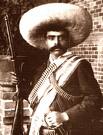

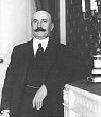


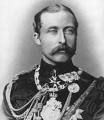









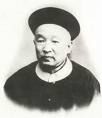
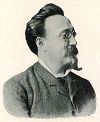
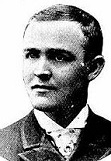


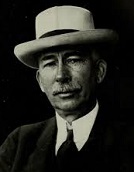





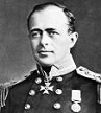















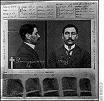







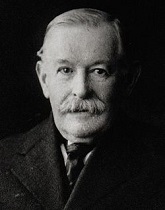








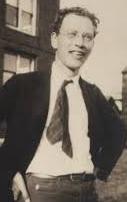



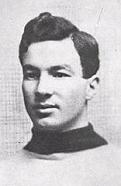
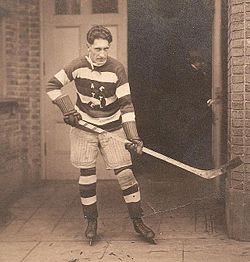












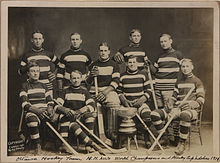







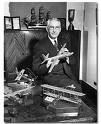








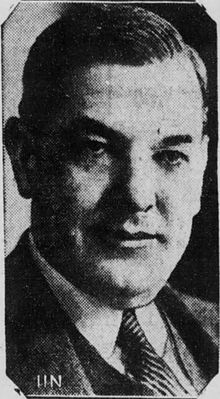









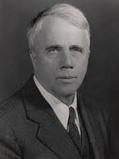













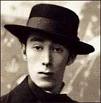











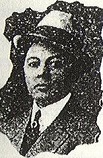
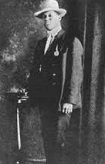









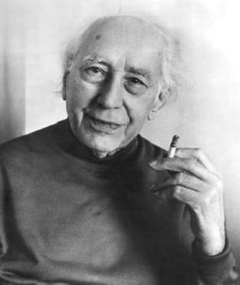

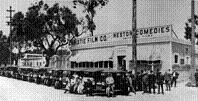


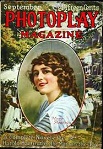



















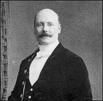

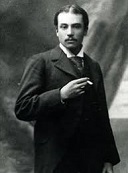






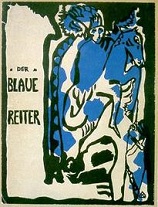
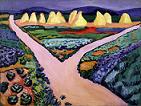
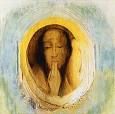

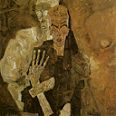
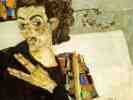

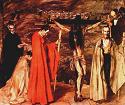
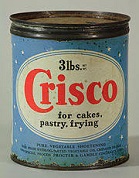
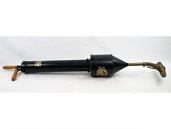
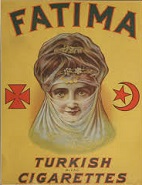
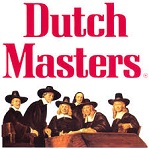


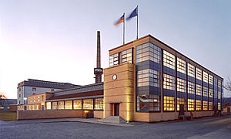
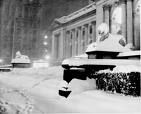
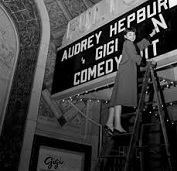
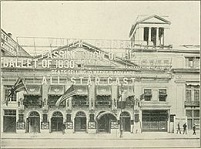
1911 Chinese Year: Pig. On Jan. 3 the SIdney St. Siege in East End, London starts after the last two members of a gang ot Latvian revolutionaries left from a Dec. 1910 attempted jewelry robbery in Hounsditch that resulted in the killing of three policemen reswults in a shootout at 100 Sydney St. in Stepney, with the outgunned police calling in the army, ending after 6 hours in the bldg. burning down and both killed, becoming the first time London police request military assistance, and the first British police siege to be filmed (by Pathe News), with home secy. Winston Churchill caught on camera, causing a controversy; in May the trial of the defendants acquits all but one, whose conviction is later overturned on appeal; filmed in "The Man Who Knew Too Much" 1934) and "The Siege of Sidney Street" (1960). On Jan. 3 Sacramento, Calif.-born Progressive isolationist populist Repub. Hiram Warren Johnson (1866-1945) becomes Calif. gov. #23 (until Mar. 15, 1917), going on to add initiative, referendum, and recall to the state govt. to give it an unmatched degree of direct democracy, establish a railroad commission to regulate the Southern Pacific Railroad, and support the Calif. Alien Land Law of 1913 preventing Asians from owning land in Calif; in 1912 he helps found the Progressive Party, which nominates him to their pres. ticket along with former Pres. Theodore Roosevelt, carrying Calif. by 0.2% of the votes; in 1914 he is reelected with almost double his opponent's vote total. On Jan. 13 a disgruntled fired navy cook named Sigrist slashes Rembrandt's 12'x14' 1642 painting The Night Watch with a knife at the Rijksmuseum in Amsterdam; next attack Sept. 14, 1975. On Jan. 18 after taking off from Camp Selfridge in a Curtiss airplane, the first airplane ship landing takes place in San Francisco Harbor by Navy Lt. Eugene B. Ely (1886-1911) on the armored cruiser USS Pennsylvania, later renamed USS Pittsburgh; too bad, his plane crashes on Oct. 19 near Macon, Ga., killing him. On Jan. 26 the U.S. and Canada announce the U.S.-Canadian Reciprocity Treaty, removing tariff barriers on both sides of the border; on July 22 it is ratified by the U.S. Senate despite opposition from wheat farmers and industrialists; too bad, Pres. Taft and others put their feet in their mouths by letting others suggest that annexation of Canada is next, causing Canadians to reject the treaty and defeat the Liberals on Sept. 21; on Oct. 10 Conservative opposition leader Sir Robert Laird Borden (1854-1937) of Novia Scotia becomes PM #8 of Canada (until July 10, 1920); meanwhile on Oct. 13 Prince Arthur, Duke of Connaught and Strathearn (1850-1942), son of Victoria and Albert becomes the first member of the British royal family to become gov.-gen. (#10) of Canada (until Nov. 11, 1916); his sister Luise had been the wife of gov.-gen. Lord Lorne. On Feb. 1 a jury in Chicago, Ill. convicts burglar Thomas Jennings of murder on the basis of fingerprint evidence, becoming the first U.S. conviction based on fingerprints; he loses his appeal to the Ill. Supreme Court. On Feb. 2 steamship Abenton sinks off Nova Scotia, killing 70. On Mar. 1 the U.S. Weeks Act, authored by U.S. Rep. (R-Mass.) (1905-13) John Wingate Weeks (1860-1926) is signed by Pres. Taft, buying spare land in E and S U.S. at $3.43 an acre to set up nat. forest preserves. On Mar. 7 the U.S. sends 20K troops to the Mexican border as a precaution after Francisco Madero organizes an army led by orphan-turned-bandit Francisco "Pancho" Villa (1878-1923) and invades Mexico, capturing Juarez on May 9; pres. (since 1877) Porfirio Diaz resigns on May 25, and an armistice ends the Mexican Rev. of 1910, giving generous terms to the defeated forces; on Nov. 6 Francisco Ignacio Madero (1873-1913) is elected pres. of Mexico (until 1913), permitting the Congress and army officers of the Diaz regime to remain in office (big mistake?); too bad he's from a wealthy landed family and tells the radical supporters of the peasants to eat cake, causing Emiliano Zapata (1879-1919) to begin planning to overthrow him. On Mar. 25 (Sat.) just before closing time the Triangle Shirtwaist Co. Fire on the top three floors of the 10-story Asch Bldg. in New York City at Washington Pl. and Greene St. (1 block E of Washington Square) kills 146 out of 500 $6-$8 per week female workers (daughters of Jewish and Italian immigrant families who had struck unsuccessfully against working conditions a year earlier, some as young as 13-y.-o.) in an overcrowded sweatshop with blocked fire exits; it starts on the 8th floor, causing half of the workers working on the 9th floor to be trapped, and 54 to leap to their deaths while 92 more perish in the fire after a fire escape collapses, fire ladders only reach to the 6th floor, and water from firehoses to the 7th floor; in June after a resolution introduced by Henry Moskowitz, the N.Y. legislature appoints a 9-member Factory Investigation Commission headed by Alfred E. Smith and Robert F. Wagner Sr., which investigates for four years and issues extensive recommendations for legislation, shocking the U.S. into enacting workplace safety regulations. On Mar. 28 after an uprising against Pres. Manual Davila in Honduras causes the U.S. to intervene, Francisco Bertrand (1866-1926) is chosen as provisional pres., calling for free elections in 1912, which he wins, staying in office until 1919, when the U.S. forces him into exile. On Apr. 2 steamship Koombuna sinks in ?, killing 150. On Apr. 4 Lawrenceburg, Ky.-born U.S. Rep. (D-Mo.) (1893-1895, 1897-1921) James Beauchamp "Champ" Clark (1850-1921) becomes U.S. House Speaker #36 (until Mar. 4, 1919), becoming the only Dem. speaker during the Repub.-dominated Progressive Era, enjoying a Dem. majority to help new (1913-) U.S. pres. Wilson pass much of his progressive agenda until the Dems. lose control in the 1918 midterm elections; in 1917 Clark is reelected speaker ater a few progressive Repubs. flop despite a 215-213 majority. On Apr. 23 steamship SS Asia (originally SS Doric) en route from Hong Kong to San Francisco strikes Finger Rock at the Taichow (Taizhou) Islands in Wenzhou, S China 200 mi. S of Shanghai and runs around, with no casualties, after which locals loot and burn it. On Apr. 30 women gain the right to vote in Portugal. On May 15 the U.S. Supreme (Fuller) Court rules unanimously in Standard Oil Co. of N.J. v. U.S. to find John D. Rockefeller's Standard Oil Co. guilty of monopolizing the petroleum industry, and orders it broken up into 33 corps. (5 major plus 28 smaller corps.), along with the Am. Tobacco Co. for violating the Sherman Antitrust Act; at the same time the court weakens the act by adopting the "rule of reason", finding that only "unreasonable" restraint of trade is forbidden - IOW, we are open to bribes as long as it's not too obvious? On May 22 Henry Lewis Stimson (1867-1950) becomes U.S. secy. of war #45 (until Mar. 4, 1913), continuing the reorg. of the Army begun by Elihu Root. In May a revolt in Nicaragua brings gen. Adolfo Diaz (1875-1964) to power (until 1917); on June 6 he signs the Knox-Castrillo Convention, giving the U.S. permission to intervene in Nicaragua to protect its interests. In May Ernest Whitworth "E.W." Marland (1874-1941), who became an oil millionaire in Penn. in 1907 then lost it in the Panic of 1907 strikes oil in his property in Okla., giving him a new fortune of $85M by 1920, when he founds Marland Oil Co., which eventually controls 10% of world oil production; in 1935-9 he serves as Dem. gov. #10 of Okla., backing FDR with his own Little Deal while busting the image of Okla. cowboys by engaging in English fox hunting. On June 8 Hammondsport, N.Y.-born Glenn Hammond Curtiss (1878-1930) is awarded pilot's license #1 from the Aero Club of Am.; since they are awarded alphabetically, Orville Wright gets #5. On June 11 the Computing-Tabulating-Recording Co. is renamed Internat. Business Machines Co. (IBM); in 1914 after being fired from the Nat. Cash Register Co. (NCR), Thomas John Watson Sr. (1874-1956) becomes pres. (until 1956), revolutionizing its sales force with sales incentives, pep talks, and an insistence on being well-groomed, wearing a dark suit with white shirt and tie, creating the slogan "THINK"; in 1943 he shows what that means with the soundbyte: "I think that there is a world market for maybe five computers" - complete with hanging chads? On June 22 George V is crowned at Westminster Abbey; mining engineer John Hays Hammond (1855-1936), who worked for Cecil Rhodes, was captured and sentenced to death by the Boers in 1896 then released is the U.S. special rep. at the coronation; in Dec. King George V and Queen Mary are crowned at a durbar (big hoedown) in Delhi as the emperor and empress of India, the king's crown containing 6,170 diamonds, plus more bling for him and his babe. On June 27 Joseph Caillaux (1863-1944) becomes PM #75 of France (until Jan. 21, 1912), favoring a policy of conciliation with Germany because of mistrust of the British who rule half the world, but not wanting Germany to build a larger navy lest they get any big ideas about having an overseas empire like perfidious Albion; on June 27 minister of colonies (since Mar. 2) Adolphe Marie Messimy (1869-1935) becomes French war minister (until Jan. 14). On June 30 William Williams, federal commissioner of immigration for the Port of New York issues an annual report lamenting the influx from S and E Europe, calling them "backward races with customs and institutions widely different from ours and without the capacity of assimilating with our people as did the early immigrants", lamenting that they come to the U.S. with "filthy habits, and are of an ignorance which passes belief", and that they "often herd together, forming in effect foreign colonies in which the English language is almost unknown." On June 30 two women aboard a steamer from New York City arrive in Trieste, Austria infected with cholera, exposing a cholera epidemic in New York City which authorities had been trying to cover up, becoming their last (until ?). On July 1 the Second Moroccan (Agadir) Crisis between France and Germany begins when the German gunboat Panther arrives in Agadir (Berber "fortified granary") 120 mi. SW of Marrakech and issues a dispatch claiming that German firms in the country requested protection, then starts a press campaign to grant Germany formal concessions there; David Lloyd George delivers a speech warning Germany that Britain now supports France, threatening hostilities, causing Germany to back down to avert a likely war; on Nov. 4 a convention is signed granting Germany territorial rights in the Congo while keeping Morocco in French hands; meanwhile on Aug. 9 German Social Dem. leader August Bebel tells the Reichstag that a European war will lead to revolution, causing laughter, with one MP shouting "After every war things are better" - Europe has Bette Davis eyes for war? On July 4-15 the 1911 Eastern North Am. Heat Wave sees temps of 106F (41C) in New York City, killing 158 people and 600 horses; on July 4 Boston, Mass. reaches 104F (40C), setting a record (until ?); a thunderstorm ends the heatwave while killing five more. On July 8 George V and Queen Mary visit Ireland, becoming their first visit outside Britain, landing in Kingstown and staying five days, with The Daily Telegraph calling it "the latest and happiest conquest of Ireland"; it becomes the last visit to Ireland by a reigning monarch until ?. On July 14-17 88 in. of rain falls in Baguio, Philippines, incl. 45 in. in one day. On July 26-29 the First Universal Races Congress, organized by Felix Adler, Jewish head of the Society for Ethical Culture in New York City and attended by 2K is held at the Univ. of London to address the "problem of the contact of Europeans with other developed types of civilizations", incl. "relations subsisting between the peoples of the West and those of the East, between so-called white and so-called coloured peoples", with the goal of "a fuller understanding, the most friendly feelings, and a heartier cooperation". On July 28 Gen. Joseph Jacques Cesaire (Césaire) "Papa" Joffre (1852-1931) becomes chief of staff of the French Army, becoming known for regrouping the retreating Allied armies to win the First Battle of the Marne in Sept. 1914. In early July-Sept. 11 the 1911 U.K. Heat Wave becomes the most rainless July in 50 years, setting high temperature records throughout England, with a max of 36.7C (98.1F), which isn't broken until 1990; on Aug. 8 after a nationwide strike of transport workers is called by Labour Party leader Keir Hardie, riots in Liverpool are quashed by troops, who fire on demonstrators, killing two; meanwhile 50K troops are rushed to London as famine looms; just at the worse time, on Aug. 9 the temp. in London reaches a record 98.1 deg F. On Aug. the 1911 German Heat Wave kills 1K. On Aug. 11 the Parliament Act of 1911 ends the power struggle between the Houses of Commons and Lords with a V for the House of Commons, ending the right of the House of Lords to veto money bills, and giving them a 2-year veto over other public bills, reducing the max term of a MP from seven to five years. On Aug. 20 (Sun.) after a hot summer, Leonardo da Vinci's Mona Lisa is stolen from the Louvre's Salon Carre ("salle impenetrable") (hanging between Titian's "Allegory of Alfonso d'Avalos" and Correggio's "Mystical Marriage") over the weekend by Louvre guard Vincenzo Perugia (Peruggia) (1881-1925), who wishes to return it to its rightful home in Italy; it takes two days to notice its absence since the Louvre is closed on Mondays, and Salon Carre guard Maximilien Paupardin left on Sun. evening; on Sept. 7 after reading his manifesto that says "burn down the Louvre", and finding out that he had once sheltered a man who had stolen items from the Louvre, the police arrest poet Guillaume Apollinaire (1880-1918), and release him a week later after he implicates his friend Pablo Picasso (1881-1973), whose apt. is found to contain two small stolen sculptures from the Louvre, and who is also exonerated; a man shot himself to death in front of the painting a year earlier; it is recovered 27 mo. later on Dec. 10, 1913 when he tries to sell it to an art dealer in Florence, who tips off the police, and they find it hidden in the false bottom of a trunk in his Florence hotel room, after whih it is displayed in the Uffizi Gallery in Florence and given a short tour of Italy before being returned; Apollinaire wishes to prove his patriotism by enlisting in the French army in WWII, getting wounded in the head by shrapnel in 1916 and dying in 1918; the whole episode makes the painting far more famous? On Aug. 24 atty. gen. #1 (since Nov. 17, 1910) Manuel Jose (José) de Arriaga Brum da Silveira e Peyrelongue (1840-1917) of the Repub. Party becomes pres. #1 of the First Portuguese Repub. (until May 29, 1915), which promulgates a new liberal 1911 Portuguese Constitution with a bicameral Cortes Gerais (until 1933) - and with a name like that, the ballots must've cost a fortune? On Aug. 29 Ishi (1860-1916), the lone survivor of the Yahi tribe of the Yana is discovered hiding in a corral near Oroville, Calif., becoming his first contact with white people; the real Last of the Mohicans? On Sept. 5 steamship Tuscapel sinks in ?, killing 81. On Sept. 14 (Sept. 1 Old Style) conservative reformer and Russian PM (since 1906) Peter Stolypin is assassinated during a performance of Nikolai Rimsky-Korsakov's 1900 opera "The Tale of Tsar Saltan" in the Kirov Theater in Kiev in the presence of the tsar and his family by a Socialist revolutionary, and dies on Sept. 16; he is succeeded by moderate financier Vladimir Kokovstov (1853-1943) (until 1914). On Sept. 30 famed Italian explorer and mountain climber Prince Luigi Amedeo Giuseppe Maria Ferdinando Francesco, Prince of Savoy-Aosta, Duke of the Abruzzi (1873-1933) commands the first squadron that bombards Preveza in Tripoli on the Ambracian Gulf in NW Greece (S of the ancient ruins of Nikopolis), becoming the first action of the Turkish-Italian War (ends 1912), and the first offensive use of aircraft in war; Italy annexes Tripoli and Cyrenaica and decisively wins the war; a small Jewish community is formed in Preveza after Solomon Danon arrives from Paris this year. On Oct. 1 the city of Dublin, Ireland unveils the Charles Stewart (Stuart) Parnell Monument on O'Connell Square, later followed by his own square, complete with a garden of remembrance for those who lost their lives fighting for Irish independence. On Oct. 1 Charles Gates Sr. founds the Gates Rubber Co. on the banks of the South Platte River in Denver, Colo. via the acquisition of Colo. Tire and Leather Co. for $3,500; in 1917 Charles' brother John Gates invents the V-belt, helping it expand to Canada in 1954, Mexico in 1958, and Belgium in 1963; in 1980 it acquires Uniroyal Power Transmission Co., becoming the world's largest synchronous/timing belt manufacturer; in 1996 it is acquired by Tomkins Plc of Britain, changing its name in 2003 to the Gates Corp. On Oct. 2 steamship Hatfield collides and sinks off Nova Scotia, killing 207. On Oct. 10, 1911 the 1911 Xinhai (Hsin-hai) (Chinese) Rev. (Rev. of the Young Chinese) against the Manchu Dynasty begins when the rev. HQ of the Wuchang org. is discovered plotting against the central railway admin. of Sheng Xuanhuai (1844-1916), and spreads rapidly and bloodily through the W and S; in early Oct. Dr. Sun Yat-sen (Zhongshan) (1866-1925) visits the U.S. to raise money from Chinese immigrants; on Oct. 10 he checks into Denver, Colo.'s Brown Palace Hotel, Rm. 321 (later the Coronet Room), raising $500; he returns to China the next day after reading newspaper headlines saying "Chinese Revolt is Menace to Manchu Dynasty" (Rocky Mt. News), and "Foreigners Throughout Empire in Deadly Peril" (Denver Post); ever after Chinese tourists stop by to see his signature in the guest register; the provinces begin seceding from the Qing Dynasty and join the rev., incl. Jiangsu on Nov. 3, Sichuan on Nov. 22, and Shandong on Dec. 12; after hearing of a program to colonize Mongolia with Han Chinese, the Outer Mongolian Rev. of 1911 begins, bloodlessly becoming independent of the Manchu-run Qing Dynasty during the 1911 Chinese Xinhai Rev.; on Oct. 14 former Korean resident Yuan Shikai (Shih-K'ai) (1859-1916) is recalled to military command by the Manchu court, and on Nov. 8 is elected PM of the provisional nat. assembly; on Dec. 4 he signs a truce with rebel gen. Li Yuanhong (1864-1928), and sends Tang Shaoyi (1862-1938) as his rep. to negotiations in Shanghai; on Dec. 30 Dr. Sun Yat-Sen, back from the U.S. and Europe is elected provisional pres. of the new Repub. of China (1912-49) by delegates from 16 provinces meeting in Nanking (Nanjing); the Manchu (Great Qing) Dynasty in China (in power since 1644) abdicates; Sun Yat-Sen appoints Gen. Chiang Kai-shek (1887-1975) as his military adviser, with "Dragon Lady" Madame Chiang Kai-shek (Mayling Soong) (1897-2003) waiting in the wings; the calendar is reformed, pigtails are abolished, and (a little late, after 4.5B women's feet are ruined?) foot binding (the golden lotus) is finally outlawed; polygamy begins to decline as marriages for love become common - come all you young maidens and listen to me, never place your affections on a green willow tree? On Oct. 14-26 the Philadelphia Athletics (AL) (mgr. Connie Mack) defeat the New York Giants (NL) (mgr. John McGraw) 4-2 to win the Eighth (8th) World Series (2nd in a row for the Athletics); six consecutive days of rain between Games 3-4 causes the longest delay in WS history until the 1989 Series, which features the same two franchies on the West Coast. From fear to confidence, from hesitation to passion? On Oct. 25 Sir Winston Churchill (1874-1965) succeeds Reginald McKenna as First Lord of the British Admiralty (until May 1915), just in time for a naval race with Germany, emphasizing modernization, replacing coal power with oil power, and advocating the use of aircraft in combat. On Oct. 26 after moving from Bayonne, N.J. to flee Edison's process servers, Centaur Film Co. founders David Horsley (1873-1933), William Horsley (1870-1956), and Alfred Ernest "Al" Christie (1881-1951) shoot their first (unnamed) film in the orchards of H.J. Whitley's estate in Hollywood; on Oct. 27 Hollywood pioneer film dir. Francis W. Boggs (b. 1870) is killed by a berserk employee on the lot of Edendale; the same day the Horsleys and Christie found Nestor Studios in the Blondeau Tavern Bldg. at Gower Gulch (corner of Sunset Blvd. and Gower St.) (rent: $30/mo.), becoming the first movie studio and first film stage in Hollywood, merging next May 20 with other small studios to form Universal Studios while its employees flee from Edison's process servers and the mgt. makes its stand; they finance their move from the success of their weekly (since early July) 1-reel Mutt and Jeff comedies based on the 1907 comic strip by Bud Fisher, starring Lincoln clone Sam D. Drane as A. Mutt, and Gus "Shorty" Alexander as Jeff, becoming popular enough to finance their move to Hollywood; in fall they quit intercutting titles and pictures, and pioneer the use of subtitles, advertising them as "talking pictures"; in 1912 after Bud Duncan replaces Alexander for two films, the serial ends, and in 1916 Fisher licenses Barre Studio to produce an animated series, that lasts for 300 episodes until 1927, distributed by Fox Film Corp.; Nestor Studios is demolished in 1936 to build the CBS Columbia Square bldg. at 6121 Sunset Blvd., home of CBS in 1938-2007. On Oct. 29 Hungarian-born Am. newspaper king Joseph Pulitzer (b. 1847) dies, and his son Ralph Pulitzer (1879-1939) becomes dir. of the New York World (until 1930); old man Pulitzer leaves money for the establishment of the Pulitzer Prizes, to be presented annually by Columbia U. on recommendation of the advisory board of the Pulitzer School of Journalism for outstanding achievements in letters ($500 award) and journalism ($1K award); the first awards are made in 1917 in 18 categories, plus a gold medal for the public service category; a newspaper photography ($1K) award is added in 1942, and a musical composition award ($500) in 1943; the awards are raised to $10K in 2017, and $15K in 2018 - I'm king of the world? In Oct. the interracial League of Urban Conditions is founded in New York City to improve the economic situation of U.S. blacks; in 1919 it becomes the Nat. Urban League, helping blacks migrating from the South to find jobs and housing, and expanding to other cities. On Nov. 3 Swiss-born Buick race car driver Louis Joseph Chevrolet (1878-1941) and ex-GM head William Crapo "Billy" Durant (1861-1947) found the Chevrolet (Chevy) Motor Co. (with a bowtie logo modified from the Swiss cross?), which sets up a plant at 57th St. and 11th Ave. in New York City in 1913; their first production model is the $2.5K 1912 Classic Six, followed by the $750 194 Royal Mail Roadster, the $875-$1,475 1914 Baby Grand Touring Car, and the $490 1916 Chevrolet Four-Ninety; commercial success allows Durant to buy control of GM on Sept. 16, 1915; in 1916 the Chevrolet brothers Louis, Gaston Chevrolet (1892-1920) and Arthur Chevrolet (1884-1946) found the Frontenac Motor Co. to make racing parts for Ford Model Ts, becoming known for their Fronty-Ford racers; Louis competes in the Indianapolis 500 4x, finishing 7th in 1919; Arthur competes 2x, and Gaston wins in 1920, also winning the 1920 AAA Nat. Championship. On Nov. 11 a coup attempt against new Siamese king Rama VI is quashed, but the king's luxurious Western lifestyle keeps the threat brewing. In Nov. Hungarian-born Jewish-Am. Victor Louis Berger (1860-1929) becomes the first Socialist elected to the U.S. Congress (House of Reps. from Wisc.) (until 1928); too bad, the wunnerful, wunnerful U.S. govt. trumps up Espionage Act charges and gets him convicted next year, and he is twice denied his seat although elected repeatedly. On Nov. 28 Mexican rev. leader Emiliano Zapata (1879-1919) issues the Plan de Ayala, proclaiming that all property seized by the hacendados due to "tyranny and venal justice" will be returned by his rev. govt; he then begins the good ole days of "Viva Zapata". In Nov. to prevent another Panic of 1907, U.S. Sen. Nelson W. Aldrich, Asst. Treasury Secy. A. Platt Andrew, and five bankers incl. J.P. Morgan, Henry P. Davison, Benjamin Strong, Paul Warburg, and Frank Arthur Vanderlip Sr. (1864-1937) (protege of John D. Rockefeller) meet in Jekyll Island, Ga., and hold a secret meeting that comes up with the idea of the U.S. Federal Reserve System. In Nov. Le Journal of Paris runs the headline "A Story of Love, Mme. Curie and Professor Langevin", exposing letters suggesting a love affair between the widowed 44-y.-o. Marie Curie (b. 1867) and 39-y.-o. married-with-children physicist Paul Langevin (1872-1946) (Paul Long What?); as derisive crowds throng outside her apt. shouting at her, she receives news of her 2nd Nobel Prize. On Dec. 14 Roald Amundsen (1872-1928) of Norway becomes the first man to reach the South Pole, beating the Terra Nova (British Antarctic) Expedition led by Plymouth, Devon, England-born Capt. Robert Falcon Scott (1868-1912), and placing a Norwegian flag on it; Amundsen takes a NW-SE route to-from Little America over Axel Heiberg Glacier, while Scott takes a NE-SW route to-from Ross Island over Beardmore Glacier, and never makes it all the way back - talk about a topsy-turvy world? In Dec. the Water Power Vacuum Cleaner Co. in Buffalo, N.Y. is granted use of the trademark "WA-PO-VAC". Japan signs commercial treaties with the U.S. and Britain. Count Karl von Sturgkh (1859-1916) becomes PM of Austria (until 1916). Former Colorado pres. (1899, 1903-7) Jose Battle y Ordonez becomes pres. of Uruguay again (until 1915), turning the country into the most progressive nation in South Am.; the Blancos turn into the conservative party of the rurals and clergy, while the Colorados dominate the cities. British chancellor of the exchequer David Lloyd George introduces the Nat. Health Insurance Bill in Parliament. The British Official Secrets Act of 1911 goes into effect, making it a felony to tell the British people what the govt. doesn't want them to know; more acts passed in 1920, 1939, and 1989 - duh? Mexican anarchist Ricardo Flores Magon (1874-1922) leads the Magonista Revolt, setting up communes in Baja Calif., and ends up railroaded to a 20-year sentence in the U.S. in 1980 for "obstructing the war effort", then dies in Leavenworth in 1922 under suspicious circumstances, becoming an anarchist martyr. Kaiser Wilhelm II gives a speech in Hamburg asserting Germany's "place in the Sun". Swiss army cmdrs. issue a proclamation supporting Swiss neutrality. The leaders of the organized criminal Camorristi in Naples are brought to trial in Viterbo, ending the Camorra (founded 1820). The Covenanter meets the Politician, or, Is There a Doctor, Er, Colonel in the House? Houston, Tex.-born "Colonel" (honorific title from Tex. Gov. Jim Hogg) Edward Mandell House (1858-1938) meets Woodrow Wilson at his suite at the Gotham Hotel on Fifth Ave. and 56th St. in New York City and convinces him that he can help him win the White House for the Dems. for the first time since 1892 (Cleveland), causing Wilson to call him the "Sphinx in a soft felt hat"; House goes on to coach him and make him look less arrogant, secure campaign funds, and persuade William Jennings Bryan to endorse him, even though Wilson had been a Bourbon Dem. and Bryan was their leading opponent, which later backfires when Bryan demands a payback of becoming secy. of state, then pursues a neutral non-interventionist policy, causing Wilson to make House his unofficial secy. of state, sending him abroad to assure Entente members. Canadian PM Sir Wilfrid Laurier and his Liberal Party are ousted in elections because of their advocacy of trade reciprocity with the U.S. William Ralph Inge (1860-1954) (pr. EENG) is appointed by PM Herbert Henry Asquith as dean of St. Paul's Cathedral, where he becomes known as the "Gloomy Dean" - wouldn't you? is founded Turkey establishes gun control, leaving Armenians unable to defend themselves against ethnic cleansing. Denmark abolishes corporal punishment. Sweden establishes old age pensions, founding their elaborate structure of welfare legislation which is imitated by many large nations. The Swiss federal govt. passes a law providing subsidized health insurance and mandatory accident insurance. Calif. becomes the 5th U.S. state to give women the vote. Mo. becomes the first state to provide public aid to mothers of dependent children; 17 more states follow suit by 1913, although the stringent requirements lock most needy mothers out. The Soc. Dem. Federation (founded 1881) changes its name to the British Socialist Party. Britain promises France six army divs. in the event of war with Germany. Awni Abd al-Hadi (1889-1970) and Muhammad Rafiq al-Tamimi (1889-1957) found the underground Al-Fatat (Young Arab Society), devoted to Arab unity and independence from the Ottomans a la the Young Turks. After Armour Co. and nine other meatpackers are sued by the U.S. govt. for violating the Sherman Anti-Trust Act, Jonathan Ogden Armour convinces the other owners to let the case go to the jury without presenting a defense, and they are all acquitted - just taste my sausage and you'll see the light? Fla. adopts a statute making it unlawful to pub. info. identifying a sexual offense victim; not ruled unconstitutional until 1991. The Sullivan Act is passed in N.Y. state, backed by corrupt Tammany Hall boss Timothy Daniel "Dry Dollar" "Big Feller" "Big Tim" Sullivan (1862-1913), making it a felony to carry concealed weapons small enough to be concealed incl. a "dangerous knife", while allowing police the discretion to issue concealed carry licenses, turning N.Y. into a police state; the law was sponsored by Sullivan to make sure that his mobsters wouldn't be stopped by armed law-abiding citizens, and the first person arrested is mobster Giuseppe Costabile; license holders later incl. actors Robert DeNiro, Harvey Keitel, and Joan Rivers, shock jock Howard Stern, real estate mogul Donald Trump, and conservative thinker William F. Buckley Jr., with only 8K licenses in the hands of non-police by 2010 out of 8M citizens. Tobacco growing is permitted in England for the first time in 2.5 cents. Fatima (pr. fa-TEE-ma) brand from Liggett & Myers becomes the first cigarette brand to be sold in 20-unit packs (15 cents); in the 1940s the brand sponsors the "Dragnet" radio series; it is discontinued in 1980 - wasn't that Muhammad's babe? Mag. writer Harriet Quimby (1875-1912) receives ticket #37, becoming the first female pilot in the U.S. In Portugal the monetary unit and gold coin milreis (a thousand reis) is superseded by the escudo. In London three men, Green, Berry, and Hill are hanged for the murder of Sir Edmund Berry at Greenberry Hill. 15-y.-o. David Windsor (later Edward VIII) becomes the duke of Cornwall with an income of £90K, developing into a playboy favoring checked suits with two-tone shoes and his name brand Windsor knot ties, and Fair Isle sweaters, partying hearty to the displeasure of his ultra-faithful prude daddy George VI, and eventually preferring married mistresses, which gets him into the clutches of Wallis Simpson? The jinxed 45-carat Hope Diamond is bought for $154K from Pierre Cartier by Denver, Colo.-born gold mining heiress Evalyn Walsh McLean (1886-1947), wife of Washington Post heir Edward Beale "Ned" McLean (1889-1941); in 1909 she bought the 94-carat pear-shaped Star of the East diamond for $120K; the Hope Diamond curse works on them both, and Edward is ruined financially by the 1929 Wall St. Crash and dies in a mental hospital, the pair getting a verse in Cole Porter's 1934 song "Anything Goes" ("When Missus Ned McLean, God bless her, can get Russian Reds to yes her, then I suppose, anything goes"); the diamond is eventually bought by Am. jeweller Henry Winston (1896-1978), who gives it to the Smithsonian in 1958. Painted center lines begin appearing on U.S. highways. 21-y.-o. Ho Chi Minh (b. 1890) travels from Vietnam to Europe. The Indian state of Benares in Uttar Pradesh is formed from the family domains of the maharjah of Benares. The Confederacion Nacional del Trabajo anarchist-syndicalist labor union is founded in Spain, soon rivaling the Socialist Union Gen. de Trabajadores (founded 1882). The Kaiser Wilhelm (later Max Planck) Society for the Advancement of Science is established at a founding session in Berlin after Kaiser Wilhelm II donates land in Dahlem (West Berlin); pres. #1 is theologian Adolf von Harnack (1851-1930); for the first time scientists can pursue research without having to teach, and begin churning out Nobel Prizes? Loyola Marymount U. in Los Angeles, Calif. starts out as Los Angeles College, successor to St. Vincent's College (founded in 1865), which becomes Loyola College of Los Angeles in 1918, and Loyola U. of Los Angeles in 1930; in 1973 it merges with Marymount Junior College (founded in 1932). Andrew Carnegie founds the Carnegie Corp. of New York with an endowment of $135M, plus another $10M left in his will, with the charter of promoting the advancement of knowledge and understanding among the people of the U.S., British Dominions and colonies; it ends up only giving grants to other institutions and agencies, usually in amounts of $10K up, gaining him the name "Star-Spangled Scotsman". Am. pilot Glenn Luther Martin (1886-1955), who founded one of the first aircraft factories in the U.S. in 1909 founds the Glenn L. Martin Co. in Calif., which goes on to make planes for the U.S. Army. After he buys the Wright Model B biplane from his friend Orville Wright (which is loaned to the U.S. Army for use as a scouting plane along the Rio Grande River border of U.S.-Mexico), the first Collier Trophy, created by Collier's Weekly publisher Robert Joseph Collier (1876-1918), pres. of the Aero Club of Am. for "the greatest achievement in aeronautics or astronautics in America, with respect to improving the performance, efficiency, and safety of air or space vehicles, the value of whic has been thoroughly demonstrated by actual use during the preceding year" is presented to Glenn H. Curtiss, with his name inscribed on the 525 lb. trophy. Italian philosopher Benedetto Croce (1866-1952) issues the soundbyte "Feminism is a movement that seems to me to be self-condemned in its very name. It is a feminine idea in the bad sense of the word. Men have their own problems too, but they didn't invent the term 'masculinism'" - they invented the term jerk-off? After getting fed-up with women's ignorance about sexuality and birth control when she sees "Sadie" die of a self-induced abortion, Corning, N.Y.-born nurse-activist Margaret Sanger (1879-1966) pub. the pamphlet "What Every Mother Should Know", followed in 1914 by the monthly mag. "The Woman Rebel", with the slogan "No Gods, No Master". The Camden Town Group of post-Impressionist British artists (ends 1913) is founded by members of the New English Art Club (1886), meeting at the studio of Walter Sickert in Camden Town, London, becoming associated with the Slade School. The Blaue Reiter (Blue Rider) art movement in Munich is launched (until 1914) by a group of avant-garde artists led by Wassily Wassilyevich Kandinsky (1866-1944) of Russia and Paul Klee (1879-1940) of Switzerland, becoming a forerunner of modern art; Kandinsky switches from rhythmic lines and exotic color to precise geometric lines which at the same time have no objective content - voila, pure abstract art? Am. coronet player Edwin Franko Goldman (1878-1956) forms the all-wind Goldman Band, becoming one of the most popular symphonic bands in the U.S., and giving free annual concerts in Central Park in New York City from 1918 and Prospect Park in Brooklyn from 1934; in 1937 his son Richard Franko Goldman (1910-80) takes over. Boys' Life mag. begins to be pub. by the Boy Scouts. The Searchlight, a Braille mag. for children begins pub., ed. by Helen H. Day (1890-1971). Emile Jaques-Dalcroze founds the Eurhythmics Inst. in Hellerau, Germany. Robert Edmond Jones (1887-1954) moves to New York City and begins wowing the theater crowd with poetic moody stage sets. Francis Xavier Bushman (1883-1966) makes his film debut with Vitagraph, going on to star in almost 200 films in the silent era, culminating in the role of Messala in "Ben-Hur" (1925), where he proves he can drive a chariot. Movie cowboy Tom Mix (1880-1940) and his trusty steed Tony the Wonder Horse (1899-1942) shoot about 40 films in Canon (Cañon) City, Colo. with the Selig Polyscope Co. this year and next. South African-born English Shakespearean actor Basil Rathbone (1892-1967) makes his stage debut on Apr. 22 at the Theatre Royal in Ipswich as Hortenso in Shakespeare's "The Taming of the Shrew", followed by New York City next year, and London in 1914, his favorite role being Romeo; his film career doesn't begin until 1925. The Am. Economic Review (AER) begins pub. by the Am. Economic Assoc. The biweekly Persian-Pashto language periodical Torch of the News (Seraj-al-Akhbar) begins pub. in Oct. in Kabul, Afghanistan (until Jan. 1919), ed. by Mahmud Tarzi (1865-1933) ("Father of Afghan Journalism"), using Middle Eastern rather than Indian journalistic style and promoting modernism and Afghan nationalism a la Kemal Ataturk of Turkey. The Czarist Russian govt. forces the Habima Theater to suspend performances, and they don't resume until the Czarist collapse in 1917. Eric Rowland Gill (1882-1940), a graduate of the Chichester Art School holds an exhibition of his stone carvings. Enoch Lewis "Nucky" Johnson (1883-1968) becomes Repub.-run machine boss of Atlantic City, N.J. (until 1941), running gambling, prostitution, and bootlegging during Prohibition, making it into a Prohibition-free city billing itself as "the World's Play Ground"; in July 1941 he is convicted of income tax evasion and given 10 years in federal prison, getting paroled on Aug. 15, 1945. Fort Lewis College is founded in Durango, Colo in an old military fort to educate Native Am. students, going to award 16% of all bachelor degrees earned by Native Am. students. 3-y.-o. hip-conjoined twins Daisy and Violet Hilton (1908-69) begin touring Europe, Australia and the U.S., later forming a Vaudeville act that incl. Bob Hope in 1926 as the Dancemedians. The Original Creole Ragtime Band is founded in Los Angeles, Calif. by New Orleans, La.-born bassist William Manuel "Bill" Johnson (1872-1972) (father of the slap style of double bass playing), incl. Freddie (Freddy) Keppard (1889-1933) (cornet), who becomes the star, touring the U.S. from San Francisco to Chicago to New York City, introducing audiences to jazz sans the label; in 1915 Keppard turns down a chance from Victor Talking Machine Co. to record the first jazz record; in 1917 after succeeding Buddy Bolden as the king of the New Orleans jazz scene, Keppard settles in Chicago, and the band breaks up in 1918. The Dymock Poets, who live near the English village of Dymock in Gloucestershire (home of the royal champion since 1377, known for its yellow spring daffodils) begin pub. the quarterly "New Numbers" (until 1914); members incl. Robert Frost (1874-1963), Lascelles Abercrombie (1881-1938), Rupert Chawner (Chaucer) Brooke (1887-1915), Philip Edward Thomas (1878-1917), Wilfrid Wilson Gibson (1878-1962), and John Drinkwater (1882-1937); the bad, the Great War shuts them down and kills or messes them all up? The Winter Garden Theatre at 1634 Broadway in Manhattan, N.Y. opens on Mar. 10 with the Jerome Kern musical "La Belle Paree", going on to host "Cats" for 7,485 perf. starting in 1982. After being fired by dowager empress Marie Feodorovna from the Mariinsky Theatre for appearing on stage with tights and no trunks, Vaslav Nijinsky (1889-1950) makes a magnificent exit leap in Fokine's "Le Spectre de la Rose" in Paris, achieving instant star status. Queensland U. is founded in Brisbane, Australia. Babelsberg Studio is founded in Potsdam-Babelsberg (near Berlin), becoming the oldest large-scale film studio on Earth, and Europe's largest by modern times; its first production is "The Dance of the Dead" (1912); in 1920 it becomes Decla Bioscop; in 1921 it merges with Universum Film AG (UFA); in 1926 it builds Marlene Dietrich Halle for production of Fritz Lang's "Metropolis" (1927); in 1929 the Tonkreuz, the first German sound stage is built; in 1933-45 it cranks out 1K feature films, incl. hundreds dir. by Nazi propaganda chief Joseph Goebbels, incl. "Triumph of the Will" (1935) and "The Jew Suss" (1940). Florenz Ziegfield Jr. signs Hungarian-born twin cabaret act Rosie Dolly (1892-1970) (Rozsika Deutsch) and Jenny Dolly (Janka Deutsch) (1892-1941) (AKA the Dolly Sisters), who go their separate ways in 1913, and make their film debuts in 1915, appearing in their only film together in "The Million Dollar Dollies" in 1918. French writer Jean de La Hire (Comte Adolphe d'Espie) (1878-1956) creates the comic book superhero char. Leo Saint-Clair, AKA the Nyctalope, which becomes the model for Am. superhero comics; in 1921 he introduces the villain Baron Glo von Warteck AKA Lucifer, known for his Teledynamo. Edwin S. Porter founds Rex Motion Picture Co.; his first film is A Heroine of '76 (Feb. 16, 1911), starring Lois Weber, Phillips Smalley, and Gordon Sackville; in 1912 he sells out and becomes chief dir. of the new Famous Players Film Co.; Rex folds in 1917 after 554 films. After one of its cars places 11th in the first Indianapolis 500, earning it the slogan "The car that made good in a day", the Stutz Motor Co. (originally Ideal Motor Car Co.) is founded in Indianapolis, Ind. by ex-Ohio farmboy Harry C. Stutz (1876-1930), producing hi-performance roadsters incl. the 4-cylinder T-head Stutz Bearcat in 1912-23; in 1919 Stutz sells the co. to Allen Ryan, who goes bankrupt in 1922, and is bought out by Charles M. Schwab et al., who repurpose the co. as a manufacturer of safety cars with safety glass, low center of gravity, and Noback hill-holding transmission; in 1927 a Stutz sets the world speed record, averaging 68 mph for 24 hours; in 1928 a Stutz finishes 2nd at the 24 Hours of Le Mans, losing to a Bentley, becoming the best result for a U.S. car until 1966; in 1928 a Stutz sets a land speed record of 106.53 mph at Daytona Beach, Fla.; in 1931 they produce the DV32 DOHC 32-valve inline 8 engine; in 1929-31 the Stutz Blackhawk is produced; production ends in 1935 after 35K are produced; in 1968 New York banker James O'Donnell founds Stutz Motor Car of Am., producing the Blackhawk in 1971-87, featuring GM running gear, which becomes a favorite of Lucille Ball; despite billing itself as "the world's most expensive car" ($115K-$285K), it sells 617 units by 1995. The first print ad for underwear is run in the Saturday Evening Post for full-body Kenosha Klosed Krotch, with two overlapping flaps. Ideal Film Co. is founded in Soho, London, England by brothers Harry Moses (1875-1951) and Simon Rowson (Rosenbaum) (1877-1950), sons of a Polish Jewish immigrant butcher, starting out as a film distributor then producing films in 1916, acquiring Elstree Studios in Borehamwood from the Neptune Film Co. in 1917, merging in 1927 with Gaumont British and distributing films under its own name until 1934, distributing 400 films and producing 80, incl. its biggest hit The Life Story of David Lloyd George (1918), which actually isn't a hit since it's bought by the real David Lloyd George for £20K and locked up until 1996. Photoplay silent film fan mag. is founded in Chicago, Ill., reaching 204K circ. by 1918; in 1934 it is acquired by Mcfadden Pubs. Frederick O. Popenoe of Altadena, Calif. obtains the Fuerte (Sp. "vigorous") Avocado Plant from Atlixco, Mexico, which proves its hardiness by surviving the great freeze of 1913, founding the Calif. avocado industry. Crisco (Crystalized Cottonseed Oil) is introduced by Procter and Gamble, becoming the first commerically marketed trans fat; the ad campaign demonizes lard, and features a 615-recipe cookbook. Dutch Masters brand machine-rolled cigas with natural wrappers are introduced by G.H. Johnson Cigar Co., which merges in 1921 with the Consolidated Cigar Corp.; logo is Rembrandt's 1662 painting "The Syndics of the Drapers' Guild (De Staalmeesters"; in the 1950s-1960s comedian Ernie Kovacs becomes the spokesman; in the early 1990s their wrappers are rerolled with marijuana, becoming known as "Dutches". Mars Inc. (originally Mars Candy factory) is founded by Hannock, Minn.-born Franklin Clarence Mars (1882-1934) and his 2nd wife Ethel V. Mars in Tacoma, Wash. Mazola brand corn oil, featuring a corn cob and an Indian girl on the label begins to be marketed. Sports: In May white jockeys begin to replace black jockeys at the Kentucky Derby; the last black one rides in 1921 - the last white man's non-winter sport? Gentlemen, start your engines? A year before the Titanic, Euros and Americans use lethal hi tech to create a modern version of the Roman gladiator spectacle? On May 30 (Tues.) (Decoration Day) after the Speedway is opened for free practice on May 1, and each car is given three attempts to qualify at a quarter-mile in 12 sec. (75 mph), and 40 of 46 entrants qualify (max engine size 600 cu. in., min. weight 2,300 lb.), retired Marmon Motor Car Co. engineer Ray Harroun (1879-1968) wins the first 200-lap 1911 (1st) Indianapolis 500 auto race in the pink Indianapolis Motor Speedway "Brickyard" with an avg. speed over 500 mi. of 74.59 mph; starting position is determined by date of entry; cars line up five to a row, except the first (pole position) and last; Speedway pres. ("the Hoosier Barnum") Carl Graham Fisher (1874-1939) (who convinced the other investors to install 3.2M bricks on the Speedway) leads in a Stoddard-Dayton pace car, becoming the first known mass-rolling start of an auto race; defending AAA nat. champ Harroun is the first driver to compete without a riding mechanic, and the first to use a rear-view mirror on his self-designed 6-cylinder Marmon Wasp (with a sharp-pointed tail); after the red ("clear course ahead") flag, Johnny Aitken (1885-1918) takes the lead in his National from the 4th starting spot on the extreme outside of the first row, and holds it until lap 5, when Spencer Wishart (1889-1914) passes in his Mercedes Benz, soon to be overtaken by David Loney Bruce-Brown (1887-1912) in his Fiat, who dominates the first half, after which Harroun takes the lead, only to be overtaken by Cyrus Patschke (1889-1951) for 35 laps; midway through the 2nd half, Harroun battles Lozier driver Ralph Kirkman Mulford (1884-1973), with Harroun holding a small lead near the 340 mi. mark when one of his solid tires lets go, forcing him to pit, putting Mulford in the lead, but he soon pits to get new tires and/or is given a checkered flag and takes 3 safety laps only to find Harroun in the winner's circle, and Harroun ends up winning, after which Mulford files a protest, which is denied; 14 cars fail to finish, and riding mechanic Sam Dickson is the only fatality, killed when driver Arthur Greiner (1884-1916) hits the wall in lap 12, becoming the first to finish the race last; Harroun wins $10K, then re-retires (sic). On June 13 Topena, Kan. Ford dealer Ralph "Pappy" Hankinson invents the sport of Auto Polo to help sell Ford Model Ts, becoming a hit; it requires two drivers plus a mallet-swinger and a giant rubber ball; too bad, in the 1920s its popularity wanes due to the high cost of replacing cars. On Sept. 4 Am. world champion wrestler Frank Alvin Gotch defeats George Hackenschmidt in a rematch of their 1908 bout in Comiskey Park; Gotch wins in 30 min. using his toe hold. The 1911 Stanley Cup is won by the Ottawa Hockey Club. The Gordon-Bennett Internat. Aviation Cup is awarded for the first time. 9-y.-o. Robert Tyre "Bobby" Jones Jr. (1902-71) of Atlanta, Ga. wins his first golf title, the Junior Championship of Atlanta. Nat. Hockey Assoc. (NHA) players strike for increased pay, led by 5'11" Montreal Wanderers defenceman Arthur Howey "Art" Ross (1886-1964), who goes on to become the first head coach of the Boston Bruins in 1924-45, then remain as gen. mgr. until his 1954 retirement, inventing the official NHL puck with bevelled edges. The Pacific Coast Hockey Assoc. (PCHA) is organized by wealthy Canadian lumberman Joseph "Joe" Patrick (1857-1941) and his sons Curtis Lester "Les" "the Silver Fox" Patrick (1883-1960) and Francis Alexis "Frank" Patrick (1885-1960) for pro hockey players in W Canada incl. Seattle, Wash., becoming rivals with the NH and NHL, building the first artificial ice rinks in Vancouver, B.C. and Victoria, B.C.; Joe invents the idea of putting numbers on player uniforms; Lester invents 22 new rules incl. the blue line, forward pass, playoff system (soon adopted by other sports leagues), penalty shot, the rule allowing the puck to be kicked everywhere but into the net, a rule allowing goaltenders to fall to the ice to make a save, and the policy of crediting assists, causing him to be called "the Brains of Modern Hockey"; in 1924 it merges with the Western Canada Hockey League (WCHA). After the Edmonton Hockey Club folds, the Edmonton Eskimos Canadian amateur ice hockey team is founded; after going pro, it folds in 1927. The Philadelphia Athletics baseball team fields the "$100,000 infield" this season, managed by Connie Mack (1862-1956), consisting of John Phelan "Stuffy" McInnis (1B), Edward Towbridge Collins (2B), John Joseph Barry (SS), and John Franklin "Home Run" Baker (3B) (ends 1914). Laurel Park Racecourse outside Laurel, Md. opens on Oct. 2 for horseracing (until ?). Architecture: On Mar. 10 the Winter Garden Theatre at 1634 Broadway in Manhattan, N.Y. between 50th and 51st Sts. (cap. 1,526) (built in 1896 as the Am. Horse Exchange), founded by the Shubert brothers opens with the Jerome Kern musical La Belle Paree, launching the career of Al Jolson. On Apr. 27 the Fulton Theatre (originally the Folies-Bergere until Oct. 20) at 210 West 46th Street in Manhattan, N.Y. opens; on Sept. 22, 1911 Mae West makes her Broadway debut, and is discovered by The New York Times; in 1955 it is renamed the Helen Hayes Theatre; it is demolished in 1982, and the Little Theatre at 240 West 44th Street (opened Mar. 12, 1912) is renamed in Hayes' honor. On May 23 the $8M Renaissance-style New York Public Library bldg. at Fifth Ave. and W. 42nd St. in New York City opens, complete with two stone lions flanking the front steps; the architectural firm of John Merven Carrere (1858-1911) and Thomas Hastings (1860-1929) Berlin, Germany-born architect Walter Adolph Georg Gropius (1883-1969) designs the early modern glass Fagus Factory in Alfeld on the Leine in Lower Saxony (finished 1913), based on the AEG Turbine Factory of Peter Behrens. won a nat. competition to build it. Grosvenor Atterbury and Frederick Law Olmsted Jr. design the Forest Hill Gardens modern middle-class suburb in N.Y. The Nat. Library of Wales in Aberystwyth, Cardiganshire is founded. Nobel Prizes: Peace: Tobias Michael Carel Asser (1838-1913) (Netherlands) [Permanent Court of Arbitration at The Hague] and Alfred Hermann Fried (1864-1921) (Austria) [League of Nations idea]; Lit.: Maurice Polydore Marie Bernard Maeterlinck (1862-1949) (Belgium); Physics: Wilhelm Carl Werner Otto Fritz Franz Wien (1864-1928) (Germany) [Wien's Displacement Law]; Chem.: Marie Sklodowska Curie (1867-1934) (France); Med.: Allvar Gullstrand (1862-1930) (Sweden) [refraction of light in the eye]; is elected a member of the Royal Swedish Academy of Science in 1905, blocking them from awarding Albert Einstein a Nobel Physics Prize for his theory of relativity; Marie Curie wins for her isolation of the elements polonium and radium, becoming the first to win two Nobel Prizes (Physics in 1903); in the fall she attends the solve-away-brush-it-off First Solvay Physics Conference in Brussels, and is the only woman among 24 eminent world scientists, incl. Albert Einstein (youngest), taking up the merits of the classical vs. quantum approach; she and her hubby Pierre refused to patent radium because it "was not in the scientific spirit", l etting others make millions instead - and proving what about the Stanford-Binet IQ Test? Inventions: In the Feb. issue of Cosmopolitan, Thomas Edison boasts that he could make a 40K-page book 2 in. thick weighing 1 lb. by printing the pages on thin pieces of nickel metal. On Dec. 26 Charles Boyer of Marengo, Ill. receives U.S. Patent #1,012,800 for a plunger-type canister "vacuum-cleaning machine", which is manufactured by the Hugro Manufacturing Co. of Warsaw, Ind. under the name Golden Rod Vacuum Cleaner. Am. physicist Robert Hutchings Goddard (1882-1945) of Clark U. in the U.S. patents the first vacuum tube able to amplify a signal. German chemists Fritz Haber (1868-1934) and Carl Bosch (1874-1940) develop the Haber-Bosch Process for synthesizing ammonia on an industrial scale from hydrogen and air, freeing the production of fertilizer and explosives from natural ammonia deposits such as sodium nitrate (calich) (which is monopolized by Chile), and averting global famine, winning Haber the 1918 Nobel Chem. Prize; too bad, brainy Jew Haber, who coulda been a contender stinks himself up by plunging into poison gas research, finding a way to turn science from good to bad - break out my quills I'm going to wax poetic? The Electric Self-Starter for the automobile is invented by GM engineer Charles Franklin Kettering (1876-1958) in Dayton, Ohio (home of the Wright Brothers and other inventors), based on his design of a mechanism for opening cash register drawers; the first is installed on Feb. 17, and he sells 8K of them to Cadillac, "the standard of the world"; within a few years they are standard equipment on all cars, and the days of the dangerous hand crank are over. Arthur Constantin Krebs of France invents elastomeric flexible coupling, AKA the Flector Joint, which is used in the power transmission for his Tracteur Chatillon-Panhard, a 4-wheel drive 4-wheel steering all-terrain truck, used as artillery tractors in WWI. Nissan Motor Co. in Yokohama, Japan is founded as the Kwaishinsha Motor Car Works (named after founding families Kenjiro Den, Rokuro Aoyama, and Meitaro Takeuchi), producing the DAT car in 1914; in 1928 the Nihon Sangyo (Japan Industries) holding co. is founded, growing to 74 cos. by WWII; in 1934 the Nissan Motor Co. is spun off, producing Austin Sevens under license; in 1966 it merges with Prince Motor Co., producing the R380 race car; in 1960 the U.S. subsidiary Nissan Motor Corp. USA is formed, producing the 411 series, the Datsun 510, and Datsun 240Z, growing to become the 6th largest automaker in the world, and 2nd in Japan behind Toyota. The first parachute jump from an airplane is made by Grant Morton and/or Capt. Albert Berry; Italian inventor Pino invents the pilot or drogue chute, improving on Leonardo da Vinci's original 1495 design. Crisco brand food shortening is launched by Proctor & Gamble after years of research, made of hydrogenated cottonseed oil ("the Crisco process"), ; the ads don't mention yucky cotonseed, just the purity of industrial food, claiming that it's made from "100% shortening" or "vegetable oil"; "Crisco is Crisco". Science: In 1911-12 the Hawaiian Volcano Observatory is established on Uwekahuna Bluff on the rim of Kilauea Caldera on the Big Island of Hawaii to monitor four active Hawaiian volcanoes incl. Kilauea, Mauna Loa, Hualalai, and Haleakala. The original Planet of the Apes without claiming copyright? Piltdown Man, the "missing link" between humans and apes is finally discovered by amateur anthropologist Charles Dawson (1864-1916) in the 50K-y.-o. 10-ft. Piltdown Quarry in Lewes (near Uckfield), East Sussex, England, and dated to the Pliocene and labelled as "Eoranthropus", dated to 500K B.C.E.; oops, after 40+ years it is proved to be a hoax (jawbone of an ape no more than 50K y.o.) in 1953 after ending up in the Farmer's Museum in Cooperstown, N.Y. in 1948; meanwhile desperate anthropologists look to save face (see 1921). On July 24 the Incan city of Machu Picchu is discovered by Hawaiian-born Hiram Bingham III (1875-1956) of Yale U.; too bad, he loots it of artifacts in 1912-15, causing a cent.-long dispute that is finally settled with their return in 2011. Ejnar Hertzsprung (1873-1967) and Henry Norris Russell (1877-1957) play around with the discovery of Am. astronomer Henrietta Swan Leavitt about Cepheid variables, along with the double stars in the Pleiades, and devise the Hertzsprung-Russell Diagram, which groups stars by absolute magnitude and spectral type, along with a theory of stellar evolution (1911-3) - skinny pants, you can shove it up your butt? Swiss psychiatrist Paul Eugen Bleuler (1857-1939) ditches Freudian psychoanalysis in favor of organic causes of mental illness, coining the term "schizophrenia" for Gr. "schizein" + "phren" = "split mind" to replace dementia praecox. Polish chemist Casimir (Kazimierz) Funk (1884-1967) coins the term "vitamine" (changed to vitamin in 1920) after reading an article by Dutch physician Christiaan Eijkman (1858-1930) claiming that people who eat brown rice are less vulnerable to beriberi than those who eat white race, er, rice, causing him to isolate vitamin B1, which has an amine group, cogito ero sum; meanwhile English biochemist call-me-sir Frederick Gowland Hopkins (1861-1947) goes on to conduct experiments which discover other vitamins, gaining him and Eijkman the 1929 Nobel Med. Prize. Dutch physicist Heike Kamerlingh Onnes (1853-1926) discovers Superconductivity. After the 1900 rediscovery of Mendelian inheritance leads him to study the fruit fly Drosophila melanogaster in his Fly Room at Columbia U., Lexington, Ky.-born geneticist Thomas Hunt Morgan (1866-1945) (Doubting Thomas Hunts for More Gain?) announces his theory of Genes (a word he coined in 1904), and how they are linearly arranged on the chromosome and can be mapped, winning him the 1933 Nobel Med. Prize for linkage mapping; he shares the prize money with collaborators Calvin Bridges and Alfred Sturtevant. After studying the fruit fly Drosophila, Am. biologist Thomas Hunt Morgan (1866-1945) (Doubting Thomas Hunts for More Gain?) of Columbia U. announces his theory of Genes (a word he coined in 1904), and how they are linearly arranged on the chromosome and can be mapped, winning him the 1933 Nobel Med. Prize. Francis Peyton Rous (1879-1970) of the U.S. discovers a viral cause of cancer. English physicist Ernest Rutherford (1871-1937) ditches J.J. Thomson's Plum Pudding Model and proposes the Planetary Nuclear Model of the Atom, a small positively-charged nucleus containing most of the mass and orbited by electrons, like the Sun and planets; too bad, classical physics makes its existence impossible, since it would radiate electromagnetic energy until it runs down and the electrons spiral down to the center; John Nicholson of Cambridge U. applies Rutherford's model of the atom to spectra and suggests that quantum jumps take place between definite states corresponding to Walther Ritz's 1908 term values - can you spot what's wrong with this picture, God repeats himself? Jacksonville, Ill.-born geneticist Alfred Henry Sturtevant (1891-1970), student of Thomas Hunt Morgan invents the procedure of linkage mapping based on the crossing-over frequency; in 1913 he constructs the first genetic map of a chromosome after determining that they are arranged in a linear fashion like beads on a necklace, with each gene in a fixed location (locus). Scottish physicist Charles Thomson Rees Wilson (1869-1959) builds the first Cloud Chamber, which is capable of showing the path of a single ionizing particle (alpha particle, etc.), winning the 1927 Nobel Physics Prize. Nonfiction: Henry Adams (1838-1918), ife of George Cabot Lodge (1873-1909). John P. Arnold, Origin and History of Beer and Brewing from Prehistoric Times to the Beginning of Brewing Science and Technology; first comprehensive history of beer brewing; becomes a std. work. Alfred Austin (1835-1913), Autobiography. Ambrose Bierce (1842-1914), The Devil's Dictionary; "Bigot, n. One who is obstinately and zealously attached to an opinion that you do not entertain"; "Koran, n. A book which the Mohammedans foolishly believe to have been written by divine inspiration, but which Christians know to be a wicked imposture, contradictory to the Holy Scriptures"; "Russian, n. A person with a Caucasian body and a Mongolian soul. A Tartar Emetic"; "History, n. An account, mostly false, of events, mostly unimportant, which are brought about by rulers, mostly knaves, and soldiers, mostly fools." Paul Eugen Bleuler (1857-1939), Dementia Praecox or Schizophrenia; coins the term "schizophrenia" to replace dementia praecox (early dementia), and explains it as a split between the emotional life and reasoning faculty that doesn't necessarily strike early in life. Wilfrid Scawen Blunt (1840-1922), Gordon of Khartoum. Franz Boas (1858-1942), Handbook of American Indian Languages; The Mind of Primitive Man; a German Jew shocks the racism out of U.S. anthropologists; rev. ed. pub. in 1938; "There is no fundamental difference in the ways of thinking of primitive and civilized man. A close connection between race and personality has never been established. The concept of racial type as commonly used even in scientific literature is misleading and requires a logical as well as biological definition." Bernard Bosanquet (1848-1923), Value and Destiny of the Individual (1911-2). John Glentworth Butler (1821-1916), Modern-day Conservatism and Liberalism. Cambridge U. Press (H.M. Gwatkin and J.P. Whitney, eds.), The Cambridge Medieval History (8 vols.) (1911-36); planned by J.B. Bury. Sir Julian Stafford Corbett (1854-1922), Some Principles of Maritime Strategy; becomes a classic, advocating effective use of sea lines for communications, and regarding naval strategy as only a means to an end defined by nat. strategy; "At first sight nothing can appear more unpractical, less promising ofuseful result, than to approach the study of war with a theory. There seemsindeed to be something essentially antagonistic between the habit of mind that seeks theoretical guidance and that which makes for the successfulconduct of war. The conduct of war is so much a question of personality, of character, of common-sense, of rapid decision upon complex and ever-shifting factors, and those factors themselves are so varied, so intangible, so dependent upon unstable moral and physical conditions, that it seems incapable of being reduced to anything like true scientific analysis. At the bare idea of a theory or 'science' of war the mind recurs uneasily to well-known cases where highly 'scientific' officers failed as leaders. Yet, on the other hand, no one will deny that since the great theorists of the early nineteenth century attempted to produce a reasoned theory of war, its planning and conduct have acquired a method, a precision, and a certainty of grasp which were unknown before. Still less will any one deny the value which the shrewdest and most successful leaders in war have placed upon the work of the classical strategical writers. The truth is that the mistrust of theory arises from a misconception of what it is that theory claims to do. It does not pretend to give the powerof conduct in the field; it claims no more than to increase the effective power of conduct. Its main practical value is that it can assist a capableman to acquire a broad outlook whereby he may be the surer his plan shall cover all the ground, and whereby he may with greater rapidity and certainty seize all the factors of a sudden situation. The greatest of the theorists himself puts the matter quite frankly. Of theoretical study he says, 'It should educate the mind of the man who is to lead in war, or rather guide him to self-education, but it should not accompany him on the field of battle'; "The last thing that an explorer arrives at is a complete map that will cover the whole ground he has travelled, but for those who come after him and would profit by and extend his knowledge his map is the first thing with which they will begin." Kenyon Cox (1856-1919), The Classic Point of View: Six Lectures on Painting. David Brion Davis (1927-), In the Image of God: Religion, Moral Values, and Our Heritage of Slavery. Eugene V. Debs (1855-1926), Industrial Unionism. William Edward Dodd (1869-1940), Statesmen of the Old South; or, From Radicalism to Conservative Revolt; Thomas Jefferson's reliance on a political alliance of the South with the West to gain the presidency, after which power shifted from Va. and its Jeffersonian liberalism to S.C. and its political capitalism and cotton capitalism. Norman Douglas (1868-1953), Siren Land; travel book; a hit, causing him to write several more. Havelock Ellis (1859-1939), The World of Dreams. Rudolf Christoph Eucken (1846-1926), Can We Still Be Christians? Lucien Febvre (1878-1956), Philip II and the Franche-Comte; his thesis; pioneers histoire totale (histoire tout court), describing everything possible about Franche-Comte incl. its geography and industry in an attempt to show that the French govt. had a negative influence, becoming the paradigm for the Annales School. Irving Fisher (1867-1947), The Purchasing Power of Money; proposes the Quantity Theory of Money, launching the Monetarist School; 2nd ed. 1922. Daniel Frohman (1851-1940), Memories of a Manager. Eduard Fueter Sr. (1876-1928), History of the New Historiography (Geschichte der Neueren Historiographie) (Munich) (1911); becomes a std. work, making him a Euro history star. Friedrich Fundolf, Shakespeare und der Deutsche Geist. Vincent van Gogh (1853-90), Letters to Brother Theo (posth.). Sir Wilfred Grenfell (1865-1940), Down North on the Labrador. Ellsworth Huntington (1876-1947), Palestine and Its Transformation; about his 1909 Yale Expedition to Palestin to determine "step by step the process by which geological structure, topographic form, and the present and past nature of the climate have shaped man's progress, moulded his history; and thus played an incalculable part in the development of a system of thought which could scarcely have arisen under any other physical circumstances." Henry Mayers Hyndman (1842-1921), The Record of an Adventurous Life (autobio.). Clyde Lyndon King, The History of the Government of Denver with Special Reference to its Relations with Public Service Corporations (Denver). Sir John Lubbock, 1st Baron Avebury (1834-1913), Marriage, Totemism, and Religion: An Answer to the Critics. Thomas Mann (1875-1955), Bekenntnisse des Hochstaplers Felix Krull. Shailer Mathews (1863-1941), Scientific Management in Churches. William McDougall (1871-1938), Body and Mind: A History and Defence of Animism; founder of Hormic (Gr. "horme" = impulse) Psychology, which claims that behavior is goal-oriented and purposive, he claims that all matter has a mental aspect and that the mind (which is distinct from the brain) guides evolution; he also claims that telepathy has been scientifically proven, becoming pres. of the Society for Psychical Research in 1920, and the Am. Society for Psychical Research in 1921, helping J.B. Rhine establish the Parapsychology Laboratory at Duke U. in 1927. Andrew Cunningham McLaughlin (1861-1947) and Claude Halstead Van Tyne (1869-1930), A History of the United States for Schools. George Moore (1852-1933), Hail and Farewell (3 vols.) (autobio.) (1911-4). John Myres (1869-1954), The Dawn of History. P.D. Ouspensky (1878-1947), Tertium Organum: A New Model of the Universe; alleged sequel to Sir Francis Bacon's 1620 "Novum Organum"; claims that time is 3-dimensional; "Three-dimensionality is a function of our senses. Time is the boundary of our senses. Six-dimensional space is reality, the world as it is"; "We are one-dimensional in relation to time: Before - Now - After, and we call time our fourth dimension without really understanding that there must be a line of the fifth dimension perpendicular to the line of time, the line of eternity... Eternity can be an infinite number of finite 'times'." Mary White Ovington (1865-1951), Half a Man: The Status of the Negro in New York; study of black Manhattan. Thomas Nelson Page (1853-1922), Robert E. Lee, Man and Soldier. George Herbert Palmer (1842-1933), The Problem of Freedom. Frederic Logan Paxson (1877-1948), The Civil War; portrays it as a war of civilizations. William Lyon Phelps (1865-1943), Essays on Russian Novelists. Otto Rank (1884-1939), The Lohengrin Saga. Thomas William Rolleston, Myths and Legends of the Celtic Race. Arnold Schonberg (1874-1951), Manual of Harmony. Olive Schreiner (1855-1920), Women and Labor. Joseph Schumpeter (1883-1950), The Theory of Economic Development: An Inquiry into Profits, Capital, Credit, Interest, and the Business Cycle; expounds the theory of business cycles, with a circular flow leading to a stationary state until a heroic entrepreneur upsets it. Edwin Robert Anderson Seligman, The Income Tax. Nathan Soderblom (1866-1931), Religionsproblemet. Werner Sombart (1863-1941), The Jews and Modern Capitalism; reverses the anti-Semitic characterization of Communism as Jewish by tracing how the Jews broke out of the medieval guild system by creating capitalism, and even venturing that capitalism created Judaism; doesn't mention that capitalist Jews had to break out of religion too? Carl Stumpf (1848-1936), The Origins of Music; founds Comparative Musicology (Ethnomusicology). William Graham Sumner (1840-1910), War and Other Essays (posth.). Frank William Taussig (1859-1940), Principles of Economics. Fred Manville Taylor (1855-1932), Principles of Economics; 9th ed. 1925. Frederick Winslow Taylor (1856-1915), The Principles of Scientific Management; founds the Efficiency Movement in the U.S., developing "scientific management" and "rationalized production" techniques, which concentrate on time-motion studies. Hans Vaihinger (1852-1933), The Philosophy of As If (Philosophie des Als Ob); we can never know the underlying reality of the world, forcing us to behave as if it matches our puny models - I thought everybody knew that? Richard Wagner (1813-83), Mein Leben (autobio.) (posth.). Arthur Edward Waite (1857-1942), The Book of Ceremonial Magic. Movies: Tom Ricketts' The Best Man Wins (Dec. 25) stars Harold Lockwood, Dorothy and Alice Davenport, Russell Bassett, Gordon Sackville, and Victoria Forde (1896-1964), future wife of Tom Mix, becoming the first movie produced in Hollywood. Colin Campbell's Brown of Harvard (Dec. 21) (Selig), based on the play by Rida Johnson Young stars Edgar W. Wynn as Tom Brown, Charles Clary as Gerald Thorne, and George L. Cox as Wilfred Kenyon; the film debut of Monterey County, Calif.-born Edgar Livingston Kennedy (1890-1948) (as Claxton Madden), who becomes known as "King of the Slow Burn"; refilmed in 1926. Franklyn Barrett's The Christian (Mar. 16) (West's Pictures in Australia), based on the Hall Caine novel stars Bert Bailey, Rutland Beckett, Lily Bryer, Max Clifton, Marie D'Alton, Fred Kehoe, Edmund Duggan, and Eugenie Duggan; the film debut of English actor George Ellsworthy "Roy" Redgrave (1873-1922) (descendant of Rob Roy?), who founds the 4-generation Redgrave acting dynasty; father of Sir Michael Redgrave (1908-85), who is the father of Vanessa Redgrave (1937-), Lynn Redgrave (1943-), and Corin Redgrave (1939-2010); grandfather (via Vanessa) of Joely Richardson (1965-) and Natasha Richardson (1963-2009); grandfather (via Corin) of Jemma Redgrave (1965-). Theodore Marston's David Copperfield (Oct. 17) (Thanhouser Film Corp.), based on the 1850 Charles Dickens novel stars Flora Foster and Ed Genung as David Copperfield, Anna Seer as David's mother, and Marie Eline and Florence La Badie as Em'ly; the film debut of Memphis, Tenn.-born stage actress Maude Fealy (Maude Mary Hawk) (1883-1971), who makes 17 more films for Thanhouser by 1917, then retires from films, running an acting school with her actor mother Margaret Fealy (1865-1955) until 1931, then appearing in minor roles until 1958. Abel Gance's La Digue is the debut of French dir. Abel Gance (1889-1981); it is never released. ?'s Divided Interests (Sept. 11) (Lubin) stars Arthur V. Johnson, Jennie Nelson, and Leslie Nelson, and is the film debut of Buffalo, N.Y.-born Florence Hackett (nee Hart) (1882-1954), who goes on to star in numerous films with Johnson until his 1916 death, some of which feature her sons Albert Hackett and Raymond Hackett; an allegation that she got Johnson to leave Maude Vaughan (nee Webb) to marry her is never documented. Vitagraph's Doctor Cupid (Jan. 10) stars popular fat stage comedian John Bunny (1863-1915) and tall thin Flora Finch (1867-1940), who become the first big comedy movie stars. D.W. Griffith's Fighting Blood (June 29) (Biograph) stars George Nichols, Kate Bruce, Robert Harron, Francis J. Grandon, and Florence La Badie, and is the film debut of Philly-born stage actor Lionel Barrymore (Lionel Herbert Blythe) (1878-1954), elder brother of Ethel Barrymore and John Barrymore; too bad, by the late 1920s he develops arthritis (caused by syphilis?), causing him to become a morphine addict, and breaks his hip, which never heals, putting him in a wheelchair. D.W. Griffith's The Guerrilla (Nov. 13) debuts, starring Arthur V. Johnson and Dorothy West, becoming the film debut of Harry C. "Harry" Meyers (1882-1938). William George Barker's and Sir Herbert Beerbohm Tree's Henry VIII, produced by Barker Motion Photography Co. based on the Shakespeare play stars Arthur Bourchier as Henry VIII, Violet Vanbrugh as Catherine of Aragon, Laura Cowie as Anne Boleyn, and Sir Herbert Beerbohm Tree as Cardinal Wolsey, and features a coronation scene with music written by English composer Sir Edward German (German Edward Jones) (1862-1936), who becomes the first composer to write music for a British film. R.E. Baker's His Friend's Wife (June 6) (Gen. Film Co.) stars Lottie Briscoe and Dorothy Phillips, and is the film debut of Francis Xavier Bushman (1883-1966). William F. Haddock's The Immortal Alamo, starring Francis Ford and Edith Storey launches the white is right myth of the 1836 Battle of the Alamo; the film debut of Fanny Midgley (1879-1932); too bad, all prints are later lost. Francesco Bertolini's, Adolfo Padovan's, and Giuseppe De Liguoro's 2 hr 45 min. L'Inferno (Mar. 10) (Helios), based on the engravings for Dante's "Divine Comedy" by Gustave Dore debuts, becoming the first full-length Italian feature film, first screened in Teatro Mercadante in Naples, Italy, becoming an internat. hit, making $2M in the U.S. (first feature film screened in the U.S.) on a 100K lira budget, the length allowing theater operators to charge extra. Milton J. Fahrney's The Law of the Range (Dec. 13) stars Harold Lockwood as a white man who befriends a half-breed. ?'s Marianne, ein Weib aus dem Volke stars German actress Adele Sandrock (1863-1937) in her silent film debut, who goes on to act in 140+ films. Gerolamo Lo Savio's Il Mercante di Venezia (The Merchant of Venice) (Feb.) is based on the Shakespeare play. William J. Humphrey's The Military Air-Scout (Dec. 12) (Vitagraph Co. of Am.) stars Earle Williams as Lt. Wentworth, Edith Storey as Marie Arthur, and Alec B. Francis as Marie's father Cmdr. Arthur; on Sept. 30 U.S. Army Signal Corps. pilot Lt. Henry Harley "Hap" Arnold (1886-1950) becomes the first movie stuntman in his Army biplane. Sidney Olcott's Molly Pitcher (Dec. 11) is the film debut of Swedish-born blonde-blue model Anna Quirentia Nilsson (1888-1974), 1907's "most beautiful woman in America", being named Hollywood's most popular woman in 1926 and getting a record 30K fan letters a month in 1928, becoming the first Swedish-born actress to get a star on the Hollywood Walk of Fame; too bad, after Joseph P. Kennedy hires her to work at RKO Radio Pictures in 1928, she is paralyzed for a year after being thrown by a horse in 1929, and her thick accent dooms her when sound films arrive. Winsor McCay's Little Nemo shows a man making a cartoon. Joseph A. Golden's The Reporter (Nov. 18) (Pathe Freres) stars Pearl White and Gwendolyn Pates, and is the film debut of Irish-born Am. stage actor Jack W. Johnston (1876-1946), who goes from leading man with Mabel Taliaferro and Norma Talmadge to supporting actor to unbilled bit part actor by the talkie era, working to the end. Alexander Khanzhonkov's The Siege of Sevastopol (Dec. 9), sponsored by Tsar Nicholas II (who attends the debut) is the first full-length feature film produced in Russia, and the first film shot by two cameras, starring actual veterans of the 1854-5 war and actual locations, plus troops of the Russian army and navy. William J. Humphrey's A Tale of Two Cities (Feb. 21) (Gen. Film Co.), based on the 1859 novel by Charles Dickens stars Maurice Costello, Florence Turner, John Bunny, Norma Talmadge, William J. Humphrey, and Mabel Normand; the film debut of Australian-born (at sea) vaudeville star Lydia Yeamans Titus (1857-1929), who was once presented with a gold bar pin by Edward VII with the opening notes of her signature song Sally in Our Alley etched in diamonds; she goes on to appear in 130+ films by 1930. Edwin Thanhouser's The Tempest (Nov. 28), based on the Shakespeare play stars Ed Genung as Ferdinand, and Florence La Badie (1888-1917) as Miranda. D.W. Griffith's Three Sisters (Feb. 2) (Biograph) stars Mary Pickford, Marion Sunshine, and Vivian Prescott as Mary, Florence, and Adele; Kate Bruce plays their mother. Allan Dwan's The Yiddisher Cowboy (June 19) (Am. Film Manufacturing Co.) stars J. Warren Kerrigan as Jewish salesman Ikey Rosenthal, who is offered a job punching cows in Wyo., using his paycheck to set up a pawn shop and acquiring all the other cowboys' guns; also stars Pauline Bush. Music: Nathaniel Davis Ayer (1887-1952), King Chanticleer. Nathaniel Davis Ayer (1887-1952) and Seymour Brown, Oh, You Beautiful Doll; "Oh, you beautiful doll,/ You great big beautiful doll/ Let me put my arms about you,/ I could never live without you." Sir Arnold Bax (1883-1953), Tamara (unorchestrated ballet); Festival Overture. Irving Berlin (Israel Isidore Baline) (1888-1989), Alexander's Ragtime Band; sells 1M copies of sheet music the first year, plus 500K copies in the U.K. in 1913; the first ragtime hit, making ragtime respectable on Broadway. Harry Champion (1865-1942), Any Old Iron; written by Charles Collins, Fred E. Terry, and E.A. Sheppard. Edward Elgar (1857-1934), Symphony No. 2 in E-flat, Op. 63. Michel Fokine (1880-1942), Petrouchka (ballet). Harry Lawrence Freeman (1869-1954), The Prophecy (opera); not performed until ?. Victor Herbert (1859-1924), Natoma (opera) (Feb. 25) (Philadelphia) (Feb. 28) (New York City); libretto by Joseph D. Redding; set in Santa Barbara, Calif. in 1830; stars Mary Garden as Natoma and John McCormack as Am. seaman Paul; 2nd U.S. opera performed at the Metropolitan Opera; "probably the biggest flop of all time" (Meredith Willson). The Enchantress (musical comedy) (Oct. 19); book by Fred De Gresac and Harry B. Smith; lyrics by Harry B. Smith; stars Kitty Gordon. Franz Lehar (1870-1948), Eva (operetta) (Nov. 24) (Vienna); book and lyrics by Alfred Maria Willner and Robert Bodanzky; Eva, 20-y.-o. foster child of Brussels glass factory foreman Bernard Larousse falls for the factory owner's son Octave Flaubert; incl. Eva Waltz, Nur das Eine Wort Sprich es Aus. Gustav Mahler (1860-1911), Das Lied von der Erde (The Song of the Earth) (symphony) (Munich) (Sept.) (posth.); uses Chinese motifs; his 8-1/2th symphony? Maurice Ravel (1875-1937), Valses Nobles et Sentimentales (for piano); L'Heure Espagnole (opera) (Paris). Lou Reed (1942-), Good Night, Ladies (song). Jean Sibelius (1865-1957), Symphony No. 4 in A minor. Ethel Mary Smyth (1858-1944), The March of the Women; becomes the anthem of the women's suffrage movement. Byron D. Stokes and F. Dudleigh Vernor, The Sweetheart of Sigma Chi; becomes one of the most popular college fraternity songs. Richard Strauss (1864-1949) and Hugo von Hofmannsthal (1874-1929), Der Rosenkavalier (The Night of the Rose) (opera) (Dresden) (Jan. 26); first German opera since Humperinck's "Hansel und Gretel"; incl. Rosenkavalier Overture. Igor Stravinsky (1882-1971), Petrouchka (ballet) (Paris); a puppet man represents humanity in the automation age; incl. Danse Russe. Sophie Tucker (1884-1966), Some of These Days; written by Shelton Brooks; becomes her signature song. Ralph Vaughan Williams (1872-1958), Five Mystical Songs (for chorus). Ermanno Wolf-Ferrari (1876-1948), I Guoielli della Madonna (opera) (Berlin). Art: George Wesley Bellows (1882-1925), New York. Georges Braque (1882-1963), Man with a Guitar; The Emigrant. Constantin Brancusi (1876-1957), The Sleeping Muse (sculpture). Cyrus Edwin Dallin (1861-1944), Menotomy Indian Hunter (sculpture). Robert Delaunay (1885-1941), Champs de Mars: La Tour Rouge; let the orphic fun begin? Natalia Goncharova (1881-1962), The Smoker. Paul Klee (1879-1940), Self-Portrait. Auguste Macke (1887-1914), Vegetable Fields. Henri Matisse (1869-1954), The Red Studio; painted at his white-walled studio in Issy outside Paris; there is no red wall, because it exists only his mind; in the 1940s it captures the imagination of New York artists hankering to go abstract. Edvard Munch, Murals at the U. of Oslo, Aula (1911-14). Pablo Picasso (1881-1973), Pierrot (cubist); Still Life with Chair Caning (cubist) (1911-12). Odilon Redon (1840-1916), Le Silence. Charles Marion Russell (1864-1926), A Bronc Buster (bronze statue); his commentary on Frederic Remington's 1895 sculpture, showing how range horses weave rather than rear straight up. Pierre-Auguste Renoir (1840-1919), Gabrielle with a Rose. Egon Schiele (1890-1918), Madchen (Mädchen) (Girls); Self-Portrait, 1911; The Self-Seers II (Death and Man). Plays: Hermann Bahr (1863-1934), Die Kinder (The Children). George A. Birmingham (1865-1950), Eleanor's Enterprise (Independent Theatre). Richard Dehmel (1863-1920), Michel Michael (comedy). Georges Duhamel (1884-1966), La Lumiere. Romulo Gallegos (1884-1969), El Milagro del Ano (debut). Cicely Hamilton (1872-1952), Just to Get Married. Elmer Blaney Harris (1878-1966), Thy Neighbor's Wife. Hugo von Hofmannsthal (1874-1929), Jedermann (verse drama); adapted from the 15th cent. English play "Everyman"; incidental music by Jean Sibelius; big hit in Salzburg. Percy Mackaye (1875-1956), The Scarecrow. Compton Mackenzie (1883-1972), The Passionate Elopement. Gregorio Martinez Sierra (1881-1947), Cancion de Cuna (Cradle Song). Alfred Percy Sinnett (1840-1921), Married By Degrees (debut). Joaquin Sorolla y Bastida (1863-1923), Mrs. Louis Comfort Tiffany. Carl Sternheim (1878-1942), Die Hose (comedy). Howard Talbot (1865-1928), The Mousme (Mousmé) (comedy). Leo Tolstoy (1828-1910), The Living Corpse (Buried Alive) (Redemption) (Reparation) (posth.); Fedor (Fedya) Protasov thinks his wife Liza wants Victor Karenin instead of him, so he runs away and hooks up with Gypsy babe Masha, during which time Liza thinks he's dead and marries Victor, and when he returns she is tried for bigamy, causing Fedor to shoot himself, finding out too late it's he whom she always loved, woo woo; Albanian-born German actor Alexander Moissi (Aleksander Moisiu) (1879-1935) becomes a big hit playing Fedor, going on to make 1.4K perf. seen by 1.5M. Hugh Walpole (1884-1941), Mr. Perrin and Mr. Traill. Poetry: Guillaume Apollinaire (1880-1918), Le Bestiaire ou Cortege d'Orphee; illustrations by Raoul Dufy (1877-1953). G.K. Chesterton (1874-1936), The Ballad of the White Horse (epic poem, dedicated to his wife); "Before the gods that made the gods/ Had seen their sunrise pass,/ The White Horse of the White Horse Vale/ Was cut out of the grass/... For the White Horse knew England/ When there was none to know;/ He saw the first oar break or bend,/ He saw heaven fall and the world end,/ O God, how long ago"; Lepanto. Victor Daley (1858-1905), Wine and Roses (posth.). Lord Dunsany (1878-1957), The Gods of the Mountain. James Elroy Flecker (1884-1915), Forty-Two Poems. Joyce Kilmer (1886-1918), Summer of Love; dedicated to Aline Kilmer. Rudyard Kipling (1865-1936), What Dane-Geld Means; or, paying tribute for peace sucks; later used to diss Britain's appeasement of Hitler; "We never pay any-one Dane-geld,/ No matter how trifling the cost;/ For the end of that game is oppression and shame,/ And the nation that pays it is lost!"; The Female of the Species; "And Man knows it! Knows, moreover, that the Woman that God gave him/ Must command but may not govern - shall enthral but not enslave him./ And She knows, because She warns him, and Her instincts never fail,/ That the Female of Her Species is more deadly than the Male." Else Lasker-Schuler (1869-1945), Meine Wunder; establishes her rep. George Cabot Lodge (1873-1909), Poems and Dramas (2 vols.) (posth.); intro. by Theodore Roosevelt; incl. A Song of the Wave, Essex, Trumbull Stickney. John Masefield (1878-1967), The Everlasting Mercy; "I did not think, I did not strive,/ The deep peace burnt my me alive;/ The bolted door had broken in,/ I knew that I had done with sin./ I knew that Christ had given me birth/ To brother all the souls on earth,/ And every bird and every beast/ Should share the crumbs broke at the feast." Francois Mauriac (1885-1970), Adieu a l'Adolescente; a devout Roman Catholic and his !?!*? pagan worldly gonads? Christian Morgenstern (1871-1914), Ich und Du; hot love poems. James Oppenheim (1882-1932), Bread and Roses; "Hearts starve as well as bodies: Give us Bread, but give us Roses!"; theme of the 1912 Lawrence, Mass. garment workers' strike, based on a statement by Polish Jewish immigrant labor leader Rose Schneiderman (1882-1972): "The worker must have bread, but she must have roses too. Help, you women of privilege, give her the ballot to fight with." Aldo Palazzeschi (1885-1974), I Cavalli Bianchi (The White Horses). Ezra Pound (1885-1972), Canzoni; sets the style for the Imagist Movement in the U.S. and England (founded summer 1912), which uses melodic free verse and haiku and demands precise imagery, attempting to isolate a single image to reveal its essence; members incl. British poet Richard (Edward Godfree) Aldington (1892-1962) and his bi Am. wife (1913-38) Hilda Doolittle (1886-1961). Miguel de Unamuno (1864-1936), Rosario de Sonetos Liricos. Louis Untermeyer (1885-1977), The Younger Quire. Emile Verhaeren (1855-1916), Les Heures du Soir; Les Plaines. Novels: Alexander Amfiteatrov (1862-1938), Devyatidesyatniki (The 90-Niks) (1911-13); the Russian intelligentsia of the 1890s. Max Beerbohm (1872-1956), Zuleika Dobson; or, An Oxford Love Story. Enoch Arnold Bennett (1867-1931), Hilda Lessways. George A. Birmingham (1865-1950), Lalage's Lovers. Paul Bourget (1852-1935), L'Envers du Decor. Frances Hodgson Burnett (1849-1924), The Secret Garden; 10-y.-o. Mary Lennox is born in India to uncaring wealthy British parents, who have her brought up by servants until they die of cholera, causing her to be sent to Yorkshire to be brought up by her uncle Archibald Craven, where she discovers a secret locked walled you know what; Martha Sowerby the maid, Ben Weatherstaff the gardener, friendly Robin Redbreast; her cousin Colin, who she finds locked in a hidden bedroom because he has a spinal problem, causing her to nurse him until he can walk, after which they surprise Mr. Craven when he returns to the manor; filmed in 1919 starring Lila Lee, in 1949 starring Margaret O'Brien, and in 1993 starring Kate Maberly; "What was this under her hands which was square and made of iron and which her finger found a hole in? It was the lock of the door which had been closed ten years and she put her hand in her pocket, drew out the key and found it fitted the keyhole. She put the key in and turned it. It took two hands to turn it, but it did turn. And then she took a long breath and looked behind her up the long walk to see if anyone was coming. No one was coming. No one ever did it seemed, and she took another long breath, because she could not help it, and she held back the swinging curtain of ivy and pushed back the door that opened slowly - slowly. Then she slipped through it, and shut it behind her, and stood with her back against it, looking about her and breathing quite fast with excitement, and wonder, and delight. She was standing inside the secret garden." Robert William Chambers (1865-1933), The Common Law. Edna Ferber (1885-1968), Dawn O'Hara: The Girl Who Laughed (first novel); "Being an old maid was a great deal like death by drowning - a really delightful sensation when you ceased struggling." E.M. Forster (1879-1970), The Celestial Omnibus (short stories). J.E. Casely-Hayford, Ethiopia Unbound; the first West African novel? G.K. Chesterton (1874-1936), The Innocence of Father Brown; first of a series; "The miracle book of 1911" - Saturday Evening Post. Ivy Compton-Burnett (1884-1969), Dolores (first novel). Marie Corelli (1855-1924), The Life Everlasting: A Reality of Romance. Theodore Dreiser (1874-1945), Jennie Gerhardt. Hugo Gernsback (1884-1967), Ralph 124C41+; pub. in Modern Electrics mag.; coins the term "science fiction" (sci-fi). H. Rider Haggard (1856-1925), Red Eve; The Mahatma and the Hare. O. Henry (1862-1910), Sixes and Sevens (short stories) (posth.). Jean de La Hire (1878-1956), The Mystery of the XV; Oxus attempts to conquer Mars. William Wymark Jacobs (1863-1943), Ship's Company (short stories). M.R. James (1862-1936), More Ghost Stories. Mary Johnston (1870-1936), The Long Roll; Confed. artillery officer Richard Cleave and Gen. Stonewall Jackson kick Yankee butt from Manassas to Sharpsburg. Vaughan Kester (1869-1911), The Prodigal Judge. Alexander Kuprin (1870-1938), The Garnet Bracelet (short stories). Valery Larbaud (1881-1957), Fermina Marquez (Márquez) (first novel); hot young Fermina Marquez arrives from Colombia at Saint Augustine's Roman Catholic boys school near Paris along with her younger brother Little Marquez, turning the student body on sexually; becomes a minor classic of French lit. D.H. Lawrence (1885-1930), The White Peacock (first novel); a man marries the wrong woman. Stephen Leacock (1869-1944), The Nonsense Novels. William John Locke (1863-1930), The Glory of Clementina Wing; Idols. Rose Macaulay (1881-1958), The Valley Captives. Charles Major (1856-1913), Sweet Alyssum. Katherine Mansfield (1888-1923), In a German Pension (short stories). William Babington Maxwell (1866-1938), Mrs. Thompson. Kathleen Norris (1880-1966), Mother (first novel); a woman sets out to find a career in the big city then decides that the greatest woman she's ever known is guess who, and longs to be a you know what; big hit with you guessed it, keeping them from having careers in the big cities? Edward Phillips Oppenheim (1866-1946), The Golden Web; pub. under alias Anthony Partridge; The Moving Finger (A Falling Star); Havoc. James Oppenheim (1882-1932), The Nine-Tenths. Aldo Palazzeschi (1885-1974), Il Codice di Perela (Man of Smoke); Futurist experimental anti-novel. Rafael Sabatini (1875-1950), The Lion's Skin. Saki (1870-1916), The Chronicles of Clovis (short stories); Clovis Sangrail. Henry De Vere Stacpoole (1863-1951), The Ship of Coral: A Tropical Romance. Gene Stratton-Porter (1863-1924), The Harvester. Frank Swinnerton (1884-1982), The Casement. Ludwig Thoma (1867-1921), Der Wittiber. Mary Augusta Humphry Ward (1851-1920), The Case of Richard Meynell. Hugh Seymour Walpole (1884-1941), Mr. Perrin and Mr. Trail. H.G. Wells (1866-1946), The New Machiavelli; satirizes Beatrice Webb and Sidney Webb as the Baileys, along with their Fabian Society. Edith Wharton (1862-1937), Ethan Frome; written originally in French; farmer falls in love with his wife Zeena's cousin Mattie Silver in Starkfield, Mass., and they decide to commit mutual suicide but botch it, ending up as invalids taken care of by Zeena. Grace Miller White (1868-1957), From the Valley of the Missing. Harold Bell Wright (1872-1944), The Winning of Barbara Worth; bestseller about the reclamation of the desert in Imperial County, Calif. (E part of San Diego County). Births: Am. 6'4" 210 lb. baseball 1B player (Detroit Tigers) (Jewish) (first Jewish superstar in U.S. prof. sports) Henry Benjamin "Hammerin' Hank" Greenberg (d. 1986) on Jan. 1 in New York City; Russian Jewish immigrant parents. Am. "The Secret Life of Walter Mitty" comedian-actor-singer-dancer (Jewish) (bi) Danny Kaye (David Daniel Kaminski) (d. 1987) on Jan. 18 in Brooklyn, N.Y.; Ukrainian Jewish immigrant parents; gets his start in Catskill Mt. summer resorts; has a 10-year affair with Laurence Oliver in the 1950s, causing Olivier's wife Vivien Leigh to have a gone-with-the-wind breakdown? Am. "Bright Ambush" poet Audrey Wurdemann (d. 1960) on Jan. 11 in Seattle, Wash.; wife of Joseph Auslander (1897-1970). Am. comedian Joey Adams (d. 1999) on Jan. 6 in Brooklyn, N.Y. Am. "Sissy in Gone With the Wind" actress (black) Butterfly McQueen (Thelma Lincoln) (d. 1995) on Jan. 7 in Tampa, Fla.; names herself after the Butterfly Dance in Shakespeare's "A Midsummer Night's Dream". Am. economist George Joseph Stigler (d. 1991) on Jan. 17 in Seattle, Wash.; educated at the U. of Chicago. French "Hot Discography" jazz expert (co-founder of the Hot Club de France) Charles Delaunay (d. 1988) on Jan. 18 in Vineuil-Saint-Firmin; son of Robert Delaunay (1885-1941) and Sonia Delaunay (1885-1979). Austrian Socialist chancellor (1970-83) (Jewish) Bruno Kreisky (d. 1990) on Jan. 22 in Vienna. German-Am. physicist Polykarp Kusch (d. 1993) on Jan. 26 in Blankenburg. Am. "Annie Get Your Gun" singer-dancer-actress Benay Venuta (d. 1995) on Jan. 27 in San Francisco, Calif. Am. jazz trumpet player (black) David Roy "Little Jazz" Eldridge (d. 1989) on? in Pittsburgh, Penn.; influencer of Dizzy Gillespie. Am. Repub. Colo. gov. #33 (1951-5) Daniel Isaac J. "Dan" Thornton (d. 1976) on Jan. 31 in Hall County, Tex.; educated at Texas Tech. U, and UCLA; known for wearing a Stetson hat and cowboy boots, and smoking a pipe. Australian Liberal Queensland PM (1968) Jack Charles Allan Pizzey (d. 1968) on Feb. 2. Am. golfer Thomas Daniel "Tom" Creavy (d. 1979) on Feb. 3 in Tuckahoe, N.Y. Swedish tenor Johan Jonatan "Jussi" Bjoerling (Björling) (d. 1960) on Feb. 5 in Stora Tuna (Borlange). U.S. Repub. pres. #40 (1981-9) and Hollywood actor (lefty) (Freemason) (aviophobe) ("the Errol Flynn of B-Movies") Ronald Wilson Reagan (d. 2004) on Feb. 6 in Tampico, Ill.; first divorced U.S. pres.; husband (1940-9) of Jane Wyman (1917-2007) and (1952-2004) Nancy Davis (1921-2016); 2nd son of John Edward Jr. and Nelle Wilson Reagan; ancestors come from Ballyporeen, Ireland in South West Tipperary, Ireland, who lived in the Doolis (Gael. "dark fairy place") bogland; ancestors incl. Riagan, nephew of Irish high king Brian Boru (d. 1014); his great-grandfather Michael O'Regan was born in 1829 in Ballyporeen to laborer Thomas O'Regan and Margaret Murphy (married 1817), emigrated to South London, England during the Great Irish Famine, had his name misspelled by the English because he could only speak Irish, became a soapmaker, married Catherine Mulcahy in 1852, had son John Reagan Sr. in 1854, then emigrated with his family to Ill. via Canada in 1858; in ? John Sr. married a woman of Irish descent, and in ? had John Edward Reagan Jr., youngest of three children. Am. "North and South" poet (lesbian) Elizabeth Bishop (d. 1979) on Feb. 8 in Worcester, Mass.; educated at Vassar College; disciple of Marianne Moore; friends with Robert Lowell and Randall Jarrell; lover of Lota de Macedo Soares (1910-67) and (1971-9) Alice Methfessel. Am. "Stage Door Canteen" stripper-actress Gypsy Rose Lee (Rose Louise Hovick) (d. 1970) on Feb. 9 in Seattle, Wash.; sister of actress June Havoc (1912-2010). Irish pres. #5 (1974-6) Cearbhall O Dalaigh (Ó Dálaigh) (d. 1978) on Feb. 12 in Bray; educated at Univ. College, Dublin. Am. RCA Victor record co. exec Stephen H. Sholes (d. 1968) on Feb. 12 in Washington, D.C.; starts out in country in 1947, then signs Elvis Presley in 1955. Am. Miss America 1927 Lois Eleanor Delander (d. 1985) on Feb. 14 in Joliet, Ill. Dutch physician ("Father of Artificial Organs") Willem Johan "Pim" Kolff (d. 2009) on Feb. 14 in Leiden; educated at Leiden U. Am. UAW pres. (1970-7) Leonard Freel Woodcock (d. 2001) on Feb. 15 in Providence, R.I. Soviet diplomat Vladimir Semyonovich Semyonov (d. 1992) on Feb. 16 in Kirsanov Uyezd, Tambov Governorate. Am. bandleader Orrin Tucker on Feb. 17. British "Cathy in Wuthering Heights", "George Sand in A Song to Remember" actress Merle Oberon (Estelle Merle O'Brien Thompson) (d. 1979) on Feb. 19 in Bombay, India; of Sri Lankan descent; tries to it cover-up, calling her mother her maid, and claiming her birthplace as St. Helens, Tasmania. Am. "Barney Blake, Police Reporter" actor Orville Eugene "Gene" O'Donnell (d. 1992) on Feb. 28 in Iowa. German U-boat Capt. Engelbert Endrass (d. 1941) on Mar. 2 in Bamberg. Am. "Hell's Angels", "Dinner at Eight", "Reckless" "platinum blond" actress Jean Harlow (Harlean Harlow Carpenter) (d. 1937) on Mar. 3 in Kansas City, Mo. Am. "The FBI Nobody Knows" journalist Fred James Cook (d. 2003) on Mar. 8 in Point Pleasant, N.J.; educated at Rutgers U. Am. composer Alan Hovhaness (Alan Vaness Chakmakjian) (d. 2000) on Mar. 11 in Somerville, Mass.; Armenian father, Scottish descent Am. mother. Scottish diplomat-adventurer-writer ("the real James Bond 007") Maj. Gen. Sir Fitzroy Hew Royle MacLean of Dunconnel, 1st Baronet (d. 1996) on Mar. 11 in Egypt; educated at Eton College, and King's College, Cambridge U.; created baronet in 1957; one of two men to rise from pvt. to brig. gen. in WWII along with Enoch Powell. Mexican pres. (1964-70) Gustavo Diaz Ordaz Bolanos (Bolaños) (d. 1979) on Mar. 12 in Ciudad Serdan, Puebla. Am. "Why I Hate My Uncle" celeb William Patrick "Willy" Stuart-Houston (nee Hitler) (d. 1987) on Mar. 12 in Liverpool, England; son of Adolf Hitler's half-brother Alois Hitler Jr. (1889-1945) and 1st wife Bridget Elizabeth Dowling (1891-1969). Am. "Dianetics", "Battlefield Earth" sci-fi writer (Scientology founder) Lafayette Ronald "L. Ron" Hubbard (d. 1986) (AKA LRH) on Mar. 13 in Tilden, Neb.; nephew of Elbert Hubbard (1856-1915); grows up in Helena, Mont., where he becomes the protege of Blackfoot medicine man Old Tom; husband of (1933-47) Mary Louise "Polly" Grubb (1907-63), (1946-51) Sara Northrup Hollister (1924-97), and (1952-86) Mary Sue Hubbard (1931-2002); father of Lafayette Ronald Hubbard Jr. (Ronald Edward DeWolf) (1934-91), Katherine May Hubbard, Alexis Hubbard, and Quentin Hubbard (-1976). German SS Gen. Wilhelm Mohnke (d. 2001) on Mar. 15 in Lubeck. German Nazi physician ("the Angel of Death") Josef Mengele (d. 1979) on Mar. 16 in Gunzburg, Bavaria; educated at the U. of Munich. Am. baseball pitcher John Alton "Al" Benton (d. 1968) on Mar. 18 in Noble, Okla.; only pitcher to pitch to Babe Ruth (1934) and Mickey Mantle (1952). Am. "Frog Millhouse" country singer-songwriter and Western actor (sidekick of Gene Autry) Lester Alvin "Smiley" Burnette (d. 1967) on Mar. 18 in Summum, Ill.; plays 100+ musical instruments. Mexican diplomat-politician Alfonso Garcia Robles (d. 1991) on Mar. 20 in Zamora, Michocacan. Am. amateur golfer Richard D. "Dick" Chapman (d. 1978) on Mar. 23 in Greenwich, Conn. Am. Hanna-Barbera co-founder Joseph Roland "Joe" Barbera (d. 2006) on Mar. 24 in New York City; partner of Bill Hanna (1910-2001); starts out as a banker and can't stop doodling, then teams up with Hanna while working at MGM in the 1930s, becoming the better artist of the two. English "How to Do Things with Words" philosopher of language John Langshaw "J.L." Austin (d. 1960) on Mar. 26 in Lancaster; educated at Shrewsbury School, and Balliol College, Oxford U. Am. "The Glass Menagerie", "A Streetcar Named Desire", "Cat on a Hot Tin Roof" playwright Thomas Lanier "Tennessee" Williams III (d. 1983) on Mar. 26 in Columbus, Miss. English "The Turn of the Screw" librettist Myfanwy Piper (nee Mary Myfanwy Evans) (d. 1997) (pr. MAH-van-wee) on Mar. 28 in London; of Welsh descent; educated at St. Hugh's College, Oxford U.; wife of John Piper (1903-92); mother of Edward Piper (1938-90). Mexican urbanist architect Mario Pani Darqui (d. 1993) on Mar. 29 in Mexico City. Am. tap dancer (black) Charles "Honi" Coles (d. 1992) on Apr. 2 in Philadelphia, Penn. English organ transplant surgeon Sir Michael Francis Addison Woodruff (d. 2001) on Apr. 3 in London; knighted in 1969. French Maj.-Gen. Comte Albert-Marie Edmond (Guerisse) Guérisse (d. 1989) (AKA Patrick Albert "Pat" O'Leary) on Apr. 5 in Brussels. Am. Columbia Records pres. (1956-71, 1973-5) Goddard Lieberson (d. 1977) on Apr. 5. German biochemist Feodor (Fyodor) Felix Konrad Lynen on Apr. 6 in Munich; pioneer with Konrad Bloch (1912-2000) of research in cholesterol and fatty acid metabolism. English Piltdown Man physical anthropologist Kenneth Page Oakley (d. 1981) on Apr. 7 in Amersham, Buckinghamshire. Am. Calvin Cycle chemist (Jewish) Melvin Ellis Calvin (d. 1997) on Apr. 8 in St. Paul, Minn.; Lithuanian father, Georgian mother; collaborator of Andrew Benson and James A. Bassham (1922-). Romanian philosopher (agnostic) Emil Cioran (d. 1995) on Apr. 8 in Rasinari, Austria-Hungary; educated at the U. of Bucharest. Am. physicist Joseph Harold Rush (d. 2006) on Apr. 17 in Mt. Calm, Tex.; works on the Manhattan Project, joins the Federation of Am. Scientists, becomes dir of the Nat. Center for Atmospheric Research (NCAR), then gets into parapsychology - that oughta give it some credibility? Am. "Miracle on 34th Street" dir.-producer-writer George Seaton (Stenius) (d. 1979) on Apr. 17 in South Bend, Ind.; inventor of the cry "Hi-yo Silver" when playing the Lone Ranger in Jan. 1933. Am. baritone (Jewish) Leonard Warren (Warenoff) (d. 1960) on Apr. 21 in New York City: Russian immigrant parents. Am. dancer-choreographer ("Father of Theatrical Jazz Dance") Jack Cole (John Ewing Richter) (d. 1974) on Apr. 27 in New Brunswick, N.J. German Gelfond-Scheider Theorem mathematician Theodor Schneider (d. 1988) on May 7 in Frankfurt am Main. Am. "Why Johnny Can't Read" educator Rudolf Franz Flesch (d. 1986) on May 8 in Vienna, Austria; emigrates to the U.S. in 1938; educated at Columbia U. Am. "Sweet Home Chicago" blues guitarist-songwriter (black) ("King of the Delta Blues") Robert Leroy Johnson (d. 1938) on May 8 in Hazelhurst, Miss.; claims that the Devil teaches him to play the guitar. Am. "Up the Down Staircase" novelist (Jewish) Bella "Bel" Kaufman (d. 2014) (AKA Lala) on May 10 in Berlin, Germany; Russian Jewish immigrant parents; mother is 2nd oldest daughter of Yiddish writer Sholem Aleichem; grows up in Odessa and Kiev; doesn't learn English until age 12; educated at Hunter College, and Columbia U. French economist Maurice Felix Charles Allais on May 11 in Paris; 1988 Nobel Econ. Prize. Am. actor-comedian (Jewish) Phil Silvers (Philip Silversmith) (d. 1985) on May 11 in Brooklyn, N.Y.; Russian immigrant parents. Am. "Crier Tuck in Batman" actor-comedian-musician Winstead Sheffield Glenndenning Dixon "Doodles" Weaver (d. 1983) on May 11 in Los Angeles, Calif.; brother of Pat Weaver (1908-2002); uncle of Sigourney Weaver (1949-); nicknamed Doodlebug by his mother for his big ears and freckles; educated at Stanford U. Swiss "Wilderness of Mirrors" novelist-playwright Max Rudolf Frisch (d. 1991) on May 15 in Zurich; educated at the U. of Zurich. Irish "Jane in Tarzan" actress Maureen Paula O'Sullivan (d. 1998) on May 17 in Boyle, County Roscommon. Am. "Shake, Rattle and Roll" 6'2" 300 lb. blues singer (black) ("The Boss of the Blues") ("The Grandfather of Rock and Roll") Joseph Vernon "Big Joe" Turner Jr. (d. 1985) on May 18 in Kansas City, Mo. Am. "Wheeler & Woolsey" actress-comedian Dorothy Lee (Marjorie Elizabeth Millsap) (d. 1999) on May 23 in Los Angeles, Calif. U.S. Dem. vice-pres. #38 (1965-9) and U.S. Sen. (D-Minn.) (1949-64, 1971-78) Hubert Horatio Humphrey (d. 1978) on May 27 in Wallace, S.D.; Norwegian mother; grows up in Doland, S.D.; educated at the U. of Minn. German Lt. Col. Fritz Knoechlein (Knöchlein) (d. 1949) on May 11 in Munich. Am. "The Raven", "The Pit and the Pendulum" 6'4" actor Vincent Leonard Price Jr. (d. 1993) on May 27 in St. Louis, Mo. English Conservative MP (1940-5) journalist-biographer Maj. Randolph Frederick Edward Spencer-Churchill (d. 1968) on May 28 in London; only son of Sir Winston Churchill (1874-1965) and Clementine Churchill (1885-1977); educated at Eton College, and Christ Church, Oxford U.; husband (-1945) of Pamela Digby Harriman (1920-97); father of Winston Churchill-Spencer (1940-2010). Am. "dir. Roscoe Dexter in Singing in the Rain" actor Douglas Fowley (d. 1998) on May 30 in Bronx, N.Y.; father of Kim Fowley (1939-). Am. Affect Theory psychologist (Jewish) Silvan Solomon Tomkins (d. 1991) on June 4 in Philadelphia, Penn.; Russian Jewish immigrant parents; grows up in Camden, N.J.; educated at the U. of Penn. Am. "Grandma Esther Walton in The Waltons" actress Ellen Corby (nee Hansen) (d. 1999) on June 3 in Racine, Wisc.; Danish parents. Canadian "Pride of St. Louis", "Gentleman's Agreement" dir.-ed. Harmon Clifford Jones (d. 1972) on June 3 in Regina, Sask.; father of Robert C. Jones (1937-); grandfather of Leslie Jones. Am. automotive-industral designer Clifford Brooks Stevens (d. 1995) on June 7 in Milwaukee, Ohio; coiner of the term "planned obsolescence". Am. baseball player Van Lingo Mungo (d. 1985) on June 8 in Pageland, S.C. Am. geneticist Maclyn McCarty (d. 2005) on June 9 in South Bend, Ind.; educated at Stanford U., and Johns Hopkins U. English "The Winslow Boy", "Separate Tables" playwright (gay) Sir Terence Mervyn Rattigan (d. 1977) on June 10 in South Kensington, London; educated at Harrow School, and Trinity College, Oxford U.; knighted in 1971 (3rd 20th cent. palywright after Sir Arthur Wing Pinero in 1909 and Ali Solomone "Aly" Aga Khan (d. 1960) on June 13 in Turin, Italy; son of Aga Khan III (1875-1957); husband (1948-53) of Rita Hayworth; father of Aga Khan IV (1936-) and Yasmin Aga Khan (1949-). Am. physicist Luis Alvarez (d. 1988) on June 13 in San Francisco, Calif.; educated at the U. of Chicago. Am. mob boss Thomas (Tommaso) "Tommy Ryan" Eboli (d. 1972) (pr. EH-bow-lee) on June 13 in Scisciano, Naples; becomes a U.S. citizen on Aug. 27, 1960. German field emission electron and field ion microscope physicist Erwin Wilhelm Muller (Müller) (d. 1977) on June 13 in Berlin; educated at the Tech. U. of Berlin; student of Gustav Hertz. English "Thomas the Tank Engine" children's writer Rev. Wilbert Vere Awdry (d. 1997) on June 15 in Ampfield (near Romsey), Hampshire; educated at St. Peter's Hall and Wycliffe Hall, Oxford U. English journalist Mark James Walter Cameron (d. 1985) on June 17 in Battersea, London; Scottish parents. English Allard Motor Co. founder ("Father of British Drag Racing") Sydney Herbert Allard (d. 1966) on June 19 in London; educated at Ardingly College. English advertising exec ("the Father of Advertising") David Mackenzie Ogilvy (d. 1999) on June 23 in West Horsley, Surrey; educated at Christ Church, Oxford U. Am. automated amino acid analyzer biochemist (Jewish) William Howard Stein (d. 1980) on June 25 in New York City; educated at Phillips Exeter Academy, Harvard U., and Columbia U. English Manchester Baby engineer Sir Frederick Calland "Freddie" Williams (d. 1977) on June 26 in Stockport; educated at the Victoria U. of Manchester, and Magdalen College, Oxford U. Am. athlete ("most versatile female athlete of the 20th cent.") Mildred Ella "Babe" Didrikson Zaharias (d. 1956) on June 26 in Port Arthur, Tex.; Norwegian immigrant parents; wife (1938-56) of George Zaharias (1909-84). Dutch prince consort (1948-80) Bernhard Leopold Frederik Everhard Julius Coert Karel Godfried Pieter of Lippe-Biesterfeld (d. 2004) on June 29 in Jena, Saxe-Weimar-Eisenach; husband (1937-) of Queen Juliana; father of Queen Beatrix (1938-). Am. "Psycho", "North by Northwest", "Vertigo" film composer-conductor Bernard (Max) Herrmann (d. 1975) on June 29 in New York City; educated at NYU, and Juilliard School. Polish-Am. "The Issa Valley" writer Czeslaw Milosz (d. 2004) on June 30 in Seteniai (near Kedainiai), Lithuania; emigrates to the U.S. in 1960. Soviet minister of defence (1984-7) Sergei (Sergey) Leonidovich Sokolov (d. 2012) on July 1 in Yevpatoria. Am. "Sing Along With Mitch" conductor (inventor of karaoke?) Mitchell William "Mitch" Miller (d. 2010) on July 4 in Rochester, N.Y. Am. anti-global-warming scientist Frederick Seitz (d. 2008) on July 4 in San Francisco, Calif.; educated at Princeton U.; "Over a long time, things that people learn purely out of curiosity can have a revolutionary effect on human affairs." Am. singer LaVerne Sophia Andrews (d. 1967) (Andrews Sisters) on July 6 in Minneapolis, Minn.; Greek immigrant father, Norwegian-Am. mother; sister of Maxene Andrews (1916-95) and Patty Andrews (1918-). Am. actress-model Ruth Ford (d. 2009) on July 6 in Hazlehurst, Miss.; sister of Charles Henri Ford (1913-2002); wife (1940-?) of Peter Van Eyck and (1952-65) Zachary Scott (1914-65). Italian-Am. "Amahl and the Night Visitors" composer (gay) Gian Carlo Menotti (d. 2007) on July 7 in Cadegliano, Italy; BMOC in the 1930s-50s; defends lightweight opera as mass entertainment, causing him to be regarded as old-fashioned when the avant-garde era takes over in the 1960s; educated at the Curtis Inst. of Music in Philadelphia; lover of Samuel Barber (1910-81). Am. "In the Heat of the Night" novelist (nudist) John Dudley Ball (d. 1988) on July 8 in Schenectady, N.Y.; grows up in Milwaukee, Wisc.; educated at Carroll College. Am. "Gormenghast" modernist writer-artist Mervyn Laurence Peake (d. 1968) on July 9 in Lushan, Jianxi, China. Am. physicist John Archibald Wheeler (d. 2008) on July 9 in Jacksonville, Fla.; oldest child in a family of librarians; earns a Ph.D. in physics from Johns Hopkins U. at age 21, and becomes prof. of physics at Princeton U. from 1938-1976, becoming a friend and disciple of Albert Einstein (1879-1955), and continuing his elusive quest for the Unified Field Theory; coins the physics terms "black hole", "quantum foam", "wormhole", "law without law", "it from bit". English actor-comedian Terry-Thomas (Thomas Terry Hoar Stevens) (d. 1990) on July 10 in Finchley, North London; known for his gapped-tooth smile. Soviet Gen. Alexei Ivanovich Radzievsky (d. 1978) on July 11 in Uman, Cherkasy, Ukraine. Am. 6'2" football QB (Boston/Washington Redskins, 1936-8) Riley Henry Smith (d. 1999) on July 14 in Carrollton, Miss.; educated at the U. of Ala. Am. cardiologist (cardiac pacemaker inventor) (Jewish) Paul Maurice Zoll (d. 1999) on July 15. Am. Google architect John Edward Lautner (d. 1994) on July 16 in Marquette, Mich.; of Austrian-Irish descent; educated at Northern Mich. U. Am. "Kitty Foyle" (dance partner of Fred Astaire) actress Ginger Rogers (Virginia Katherine McMath) (d. 1995) on July 16 in Independence, Mo.; Scottish father, Welsh descent mother; wife (1934-40) of Lew Ayres, (1953-7) Jacques Bergerac (1927-2014), and (1961-9) William Marshall. Am. "Tom Mackenzie in The Seven Year Itch" 6'4" blonde-blue actor (alcoholic) Bowen Charlton "Sonny" Tufts III (d. 1970) on July 16 in Boston, Mass.; born into prominent banking family related to Tufts U. founder Charles Tufts (1781-1876); educated at Phillips Exeter Academy, and Yale U.; husband (1938-53) of Barbara Dare; becomes a Hollywood bad boy then a standing joke? Canadian "Lifeboat", "Cocoon" actor Hume Blake Cronyn (d. 2003) on July 18 in London, Ont.; husband (1942-94) of Jessica Tandy (1909-94). Canadian "the medium is the message/massage", "global village" mass media expert Herbert Marshall McLuhan (d. 1980) on July 21 in Edmonton, Alberta. Am. Universal Life Church founder ("the Modesto Messiah") Kirby James Hensley (d. 1999) on July 23 in Lowgap, N.C.; starts out Baptist, then Pentecostal; runs for U.S. pres. for the Universal Party in 1964 and 1968; declares himself King of Aqualandia in 1986. Am. "Linda", "Baby, It's Cold Outside", "Love Somebody" singer (Jewish) Buddy Clark (Samuel Goldberg) (d. 1949) on July 26 in Dorcester, Mass. Am. "Paul Marino in The Corruptors"actor (Roman Catholic) Horace Vincent "Stephen" McNally (d. 1994) on July 29 in New York City; educated at Fordham U.; starts out as an atty. Am. "Paul Muni's sister in Scarface", "Vivian in Three on a Match" actress Ann Dvorak (McKim) (d. 1979) (pr. VOR-shack) on Aug. 2 in New York City. Am. Denver, Colo. mayor #36 (1947-55) James Quigg Newton Jr. (d. 2003) on Au. 3 in Denver, Colo.; educated at Yale U. Am. "Camille", "Sgt. Bill Dane in Bataan", "Marcus Vinicius in Quo Vadis" actor Robert Taylor (Spangler Arlington Brugh) (d. 1969) on Aug. 5 in Filley, Neb. Am. "I Love Lucy" actress-comedian ("Queen of the Bs") (Baptist) Lucille Desiree (Désirée) Ball (d. 1989) (AKA Diane Belmont) on Aug. 6 in Celoron (near Jamestown), N.Y.; wife (1940-60) of Desi Arnaz Sr. (1917-86) and (1961-89) Gary Morton (1924-99); mother of Desi Arnaz Jr. (1953-). Am. "Rebel Without a Cause" dir. (bi) (alcoholic) Nicholas Ray (Raymond Nicholas Kienzle) (d. 1979) on Aug. 7 in Galesville, Wisc.; husband (1948-52) of Gloria Grahame (1923-81). Am. astrophysicist William Alfred "Willie" Fowler (d. 1996) on Aug. 9 in Pittsburgh, Penn.; educated at Caltech; not to be confused with astronomer Alfred Fowler (1868-1940). Am. "My Sister Eileen", "A Talent for Murder" playwright-librettist (Jewish) Jerome Chodorov (d. 2004) on Aug. 10 in New York City; brother of Edward Chodorov (1904-88); collaborator of Joseph Albert Fields (1895-1966). Am. advertising exec William "Bill" Bernbach (d. 1982) on Aug. 13 in New York City; educated at NYU. Am. physicist (Creationist) Thomas G. Barnes (d. 2001) on Aug. 14; educated at Brown U. English "Small is Beautiful", "Buddhist Economics" economist Ernst Friedrich "Fritz" Schumacher (d. 1977) on Aug. 16 in Bonn, Germany; educated at New College, Oxford U., and Columbia U.; emigrates to Britain in 1939. Mexican actor-comedian ("the Charlie Chaplin of Mexico") Cantinflas (Fortino Mario Alfonso Moreno Reyes) (d. 1993) on Aug. 12 in Mexico City. Soviet world chess champ #6 (1948-57, 1958-60, 1961-3) Mikhail Moiseyevich Botvinnik (d. 1995) on Aug. 17 (Aug. 4 Old Style) in Kuokkala, Finland; ties for 5th in the Soviet Union chess tournament at age 16. English historian Sir John Harold "Jack" Plumb (d. 2001) on Aug. 20 in Leicester; educated at Christ's College, Cambridge U.; first (only?) doctoral student of G.M. Trevelyan. Vietnamese gen. Vo Nguyen Giap (d. 2013) on Aug. 25 in Quang Bingh Province. English orthopedic surgeon (hip replacement pioneer) Sir John Charnley (d. 1982) on Aug. 29 in Bury, Lancashire; educated at Victoria U. of Manchester; knighted in 1977. Am. artist-writer (black) Romare Bearden (d. 1988) on Sept. 2 in Charlotte, N.C.; educated at NYU. Am. country musician ("the Dixie Yodeler") Zeke Clements (d. 1994) on Sept. 6 near Empire, Ala. German Auschwitz I Camp cmdr. (1944-5) Richard Bauer (d. 1963) on Sept. 9 in Floss, Bavaria; starts out as a confectioner. Am. "Growing Up Absurd" sociologist-poet (bi) (co-founder of Gestalt Therapy) Paul Goodman (d. 1972) on Sept. 9 in New York City; educated at CCNY, and U. of Chicago. British "The Sky People" UFOlogist William Francis Brinsley Le Poer Trench 8th Earl of Clancarty, 7th Marquess of Heusden (d. 1995) on Sept. 11; educated at Pangbourne Nautical College. Am. journalist Karl Henry von Wiegand (d. 1961) on Sept. 11 in Hesse, Germany. Am. "My Little Georgia Rose", "Roanoke" bluegrass musician William Smith "Bill" Monroe (d. 1996) (Blue Grass Boys) on Sept. 13 in Rosine, Ky. Am. "Sounder" children's writer William H. Armstrong (d. 1999) on Sept. 14 near Lexington, Va. Am. mob boss Frank J. Valenti (d. 2008) on Sept. 14 in Pittsburgh, Penn.; brother of Stanley Valenti (1926-2001). U.S. surgeon gen. #9 (1961-5) Luther Leonidas Terry (d. 1985) on Sept. 15 in Red Level, Ala.; educated at U. of Ala. and Tulane U. Australian "At the Barricades" journalist (Communist) Wilfred Graham Burchett (d. 1983) on Sept. 16 in Melbourne. Am. "The Beverly Hillbillies", "Green Acres", "Petticoat Junction" writer-producer Paul William Henning (d. 2005) on Sept. 16 in Independence, Mo. English "Lord of the Flies" novelist William Golding (d. 1993) on Sept. 19 in Newquay, Cornwall; educated at Brasenose College, Oxford U. German SS Maj. ("the Man Who Started WWII") Alfred Helmut Naujocks (d. 1966) on Sept. 20 in Kiel; educated at the U. of Kiel. Soviet Communist gen. secy. (1984-5) Konstantin Ustinovich Chernenko (d. 1985) on Sept. 24 in Bolshaya Tes, Krasnoyarsk. Am. "Bob Blake the Bronze Buckaroo" actor-singer Herbert "Herb" Jeffries on Sept. 24 in Detroit, Mich.; of Ethiopian, French-Canadian, and Italian-Irish descent. Trinidadian "Capitalism and Slavery" historian and PM #1 (1959-81) ("Father of the Nation") Eric Eustace Williams (d. 1981) on Sept. 25 in Port of Spain; educated at St. Catherine's College, Oxford U. Am. 6'2" tennis player Henry Ellsworth Vines Jr. (d. 1994) on Sept. 28 in Los Angeles, Calif. Am. "Seven Days in May" novelist Fletcher Knebel (d. 1993) on Oct. 1 in Dayton, Ohio; educated at Miami U. English "Sir Thomas Boleyn in Anne of a Thousand Days" actor Sir Michael Murray Hordern (d. 1995) on Oct. 4 in Berkhamsted, Hertfordshire; educated at Brighton College; knighted in 1983. Irish "The Third Policeman" novelist Brian O'Nolan (AKA Flann O'Brien) (d. 1966) on Oct. 5 in Strabane, County Tyrone. Belgian Triffin's Dilemma economist Robert Triffin (d. 1993) in Flobecq, Belgium; educated at Harvard U.; becomes a U.S. citizen in 1942-77. Am. jazz drummer (black) Jonathan David Samuel "Papa Jo" Jones (d. 1985) (Count Basie Orchestra) on Oct. 7 in Chicago, Ill.; not to be confused with Philly Joe Jones (1923-85). Am. "Racing with the Moon", "Let it Snow, Let it Snow, Let it Snow", "Ghost Riders in the Sky", "Hank Myers the Singing Cowboy in Bonanza" trumpeter-baritone-bandleader-actor ("old leather tonsils") Vaughn Wilton Monroe (d. 1973) on Oct. 7 in Akron, Ohio. Am. "Marines on Iwo Jima" photographer (Jewish-turned-Roman Catholic) Joseph John "Joe" Rosenthal (d. 2006) on Oct. 9 in Washington, D.C.; Russian Jewish immigrant parents; educated at the U. of San Francisco. Am. "hillbilly songwriter" and radio DJ Zeke Manners (d. 2000) on Oct. 10 in San Francisco, Calif. Am. "Near the Trails End" actress Marian Shockley (d. 1981) on Oct. 10 in Kansas City, Mo.; wife of Bud Collyer. Vietnamese gen.-diplomat-politician Le Duc Tho (Phan Dinh Khai) (d. 1990) on Oct. 14 in Nam Ha Province. Am. "Lawrence Welk" conductor-songwriter George Cates (d. 2002) on Oct. 19 in New York City; educated at NYU. Am. Christian fundamentalist leader Robert Reynolds "Bob" Jones Jr. (d. 1997) on Oct. 19 in Montgomery, Ala.; son of Bob Jones Sr. (1883-1968). Am. Tang, Cool Whip, Pop Rocks food chemist William A. "Bill" Mitchell (d. 2004) on Oct. 21 in Raymond, Minn.; educated at the U. of Neb. Am. Piedmont blues-folk musician (black) (blind) Sonny Terry (Saunders Terrell) (d. 1986) (Jook House Rockers, Buckshot Five) on Oct. 24 in Greensboro, Ga.; collaborator of Blind Boy Fuller and Brownie McGhee (1915-96). Am. gospel singer (black) ("Queen of Gospel Music") Mahalia "Halie" Jackson (d. 1972) on Oct. 26 in New Orleans, La. Am. "Big John Cannon in High Chaparral" actor Leif Erickson (William Wycliffe Anderson) (d. 1986) on Oct. 27 in Alameda, Calif.; husband (1936-42) of Frances Farmer (1913-70). Greek Romantic modernist poet Odysseas (Odysseus) Elytis (d. 1996) on Nov. 2 in Heraklion, Crete; family comes from Lesbos - they're bragging? French Resistance leader Yolande Beekman (Yolande Elsa Maria Unternahrer) (d. 1944) on Nov. 11 in Paris; Swiss parents; grows up in London. Am. bowler Edward P. "Ned" Day (d. 1971) on Nov. 11 in Los Angeles, Calif. Chilean abstract expressionist/surrealist painter (in France) Roberto ebastian (Sebastián) Antonio Matta Echaurren (d. 2002) on Nov. 11 in Santiago. Am. Betatron physicist Donald William Kerst (d. 1993) on Nov. 11 in Galena, Ill.; educated at the U. of Wisc. Am. actor-singer (Freemason) ("King of the Cowboys") Roy Rogers (Leonard Franklin Slye) (d. 1998) on Nov. 5 in Cincinnati, Ohio; starts out under the name Dick Weston; husband (1936-46) of Grace Wilkins and (1947-98) of Dale Evans (1912-2001). Am. theatrical producer Lee Sabinson (d. 1991) on Nov. 11 in New York City. Austrian-Am. cybnernetics physicist-philosopher Heinz von Foerster (d. 2002) on Nov. 13 in Vienna, Austria; educated at the U. of Breslau. Am. "Sky King", "Corporal Rod Webb" actor Kirby Grant (Kirby Grant Hoon Jr.) (d. 1985) on Nov. 24 in Butte, Mont. Am. baseball hall-of-fame player (LF) Joseph Michael "Joe" "Ducky" Medwick (d. 1975) on Nov. 24 in Carteret, N.J. Am. primatologist Sherwood Larned "Sherry" Washburn (d. 2000) on Nov. 26 in Cambridge, Mass.; educated at Harvard U. Am. "The White Cliffs of Dover", "I'll Be Home for Christmas" composer (Jewish) Walter Kent (Walter Maurice Kaufman) (d. 1994) on Nov. 29 in New York City; collaborator of Nat Burton. Am. baseball hall-of-fame mgr. (Dodgers) (1954-76) tWalter Emmons "Smokey" Alston (d. 1984) on Dec. 1 in Venice, Ohio; plays in only 1 ML game on Sept. 27, 1936 with the St. Louis Cardinals, and strikes out. Am. Minn. Twins owner (1955-84) Calvin Robertson Griffith (d. 1999) on Dec. 1 in Montreal, Canada; nephew of Clark Griffith (1869-1955), who adopts him. Italian "The Godfather" movie composer Nino Rota (d. 1979) on Dec. 3 in Milan. Polish "The Pianist" pianist-composer (Jewish) Wladyslaw "Wladek" Szpilman (d. 2000) on Dec. 5 in Sosnowiec. Danish WWII double-agent spy Wulf Dietrich Christian Schmidt (d. 1992) on Dec. 7. Am. "Twelve Angry Men" actor (Jewish) Lee J. Cobb (Leo Jacoby) (d. 1976) on Dec. 9 in New York City; of Russian and Romanian Jewish descent; grows up in Bronx, N.Y.; educated at NYU; son of Cornon de Cobb? Am. "Willie Stark in All the King's Men", "Chief Dan Mathews in Highway Patrol" actor William Broderick (ON "brother") Crawford (d. 1986) on Dec. 9 in Philadelphia, Penn.; vaudeville performer parents. Am. "Huntley-Brinkley Report" TV journalist Chester Robert "Chet" Huntley (d. 1974) on Dec. 10 in Cardwell, Mont.; educated at the U. of Wash. German Auschwitz Camp adjutant 1st Lt. Karl-Friedrich Hocker (Höcker) (d. 2000) on Dec. 11 in Engershausen. German U-9 ("Das Boot") Capt. Heinrich Lehmann-Willenbrock (d. 1986) on Dec. 11 in Bremen. Egyptian "Cairo Trilogy" novelist Naguib Mahfouz (d. 2006) on Dec. 11 in Cairo. Norwegian economist Trygve Magnus Haavelmo (d. 1999) on Dec. 13 in Skedsmo; educated at the U. of Oslo; student of Ragnar Frisch (1895-1973). Am. "Before the Brave" pacifist poet-novelist Kenneth Patchen (d. 1972) on Dec. 13 in Niles, Ohio. Am. bandleader Lindley Armstrong "Spike" Jones (d. 1965) (City Slickers) on Dec. 14 in Long Beach, Calif. German jet airplane developer Hans Joachim Pabst von Ohain (d. 1998) on Dec. 14 in Dessau. Am. "And Her Tears Flowed Like Wine" jazz pianist-composer-bandleader (white) Stanley "Stan" Newcomb Kenton (d. 1979) on Dec. 15 in Wichita, Kan.; grows up in Colo. and Calif. Am. "The Naked City" film dir.-producer-writer-actor Julius "Jules" Dassin (d. 2008) on Dec. 18 in Middletown, Conn.; Jewish Ukrainan immigrant parents; husband of (1933-62) Beatrice Launer, and (1966-94) Melina Mercouri; father of Joseph Ira Dassin (1938-80). Am. "The Last Trolley Ride", "The Bobby-Soxer" novelist Hortense Calisher (d. 2009) (AKA Jack Fenno) on Dec. 20 in New York City; German immigrant mother, Southern Am. father; educated at Barnard College. Swiss "Oh My Papa" composer Paul Burkhard (d. 1977) on Dec. 21 in Zurich. Am. radio astronomy pioneer Grote Reber (d. 2002) on Dec. 22 in Wheaton, Ill. Am. "Sen. John Iselin in The Manchurian Candidate", "Gen. Ursis in Beneath the Planet of the Apes", "Inspector Frank Luger in Barney Miller", "Dr. Tristan Adams in Star Trek: TOS" actor James Gregory (d. 2002) on Dec. 23 in Bronx, N.Y.; grows up in New Rochelle, N.Y. Danish immunologist Niels Kaj Jerne (d. 1994) on Dec. 23 in London, England; Danish parents. French "Maman" sculptor-writer Louise Josephine Bourgeois (d. 2010) on Dec. 25 in Paris; known for giant spider sculptures. Am. "Sex and the Single Child" humorist (Jewish) Samuel "Sam" Levenson (d. 1980) on Dec. 28 in Brooklyn, N.Y.; educated at Brooklyn College; starts out as a Spanish teacher. German physicist-spy Klaus Emil Julius Fuchs (d. 1988) on Dec. 29 in Russelsheim; emigrates to England in 1933; educated at the U. of Bristol. Am. children's writer (Communist) Irwin Shapiro (d. 1981) in Pittsburgh, Pnn.; Hungarian Jewish immigrant parents. Am. "Alma in The Golden Girls" actress Jeanette Nolan (d. 1998) on Dec. 30 in Los Angeles, Calif. Am. Oswald assassin Jack Ruby (d. 1967). Am. ski instructor Norman Johann "Hans" Hauser (d. 1974); husband of Virginia Hill (1916-66). Scottish economist John Marcus Fleming (d. 1976). English "Contributions from a Potential Corpse" New Age artist-writer Eugene Halliday (d. 1987). Swedish electrical engineer Anton Christian Jacobaeus (d. 1988) in Stockholm; son of Hans Christian Jacobaeus (1879-1937). Am. USS Arizona Memorial designer Alfred Preis (d. 1993) in Austria. Am. "The Ballad of Jed Clampett" country singer Jerry Scoggins (d. 2004) in Mount Pleasant, Tex. Deaths: Am. atty.-statesman John Bigelow (b. 1817) on Dec. 19 in New York City; on Aug. 8, 2011 NYC mayor Rudolph Giuliani dedicates John Bigelow Plaza at the intersection of 41st St. and 5th Ave. in Manhattan, directly in front of the main branch of the New York Public Library. English botanist Sir Joseph Dalton Hooker (b. 1817) on Dec. 10 in Sunningdale, Berkshire. English-born Am. physician William Worrall Mayo (b. 1819) on Mar. 6 in Rochester, Minn. English scientist Sir Francis Galton (b. 1822) on Jan 17. Am. clergyman-activist Thomas Wentworth Higginson (b. 1823): "To be really cosmopolitan, a man must be at home even in his own country." Danish painter Jozef Israels (b. 1824) on Aug. 12 in Scheveningen. Am. writer Frances Harper (b. 1825) on Feb. 22. Am. Kan. gov. #9 (1883-5) George Washington Glick (b. 1827) n Jan. 12 in Atchison, Kan.; in 1914 the state of Kan. donates his statue to the U.S. Capitol Nat. Statutary Hall along with Kan. Sen. John J. Ingalls, replacing it in 2003 with one of Pres. Dwight D. Eisenhower. German sculptor Reinhold Begas (b. 1831) on Aug. 3. English Buddhist writer Arthur Lillie (b. 1831) on Nov. 28 in Kensington. English writer Edward Dicey (b. 1832) in London. Am. Dem. politician Roger Quarles Mills (b. 1832) on Sept. 2 in Corsicana, Tex.; namesake of Roger Mills County, Okla. English children's author Hesba Stretton (b. 1832) in Oct. German historian-philosopher Wilhelm Dilthey (b. 1833) on Oct. 1 in Seis am Schlern, Austria-Hungary; leaves the essay The Eighteenth Century and the Historical World, which shows the significant contributions of the Enlightenment to the rise of historical consciousness. U.S. Supreme Court justice #44 (1877-1911) John Marshall Harlan (b. 1833) on Oct. 14 in Washington, D.C.; 361 dissenting opinions incl. "Plessy v. Ferguson" (1896); "He could lead but he could not follow" (Chief Justice Edward D. White). Egyptian statesman Riaz Pasha (b. 1835). Am. game designer Milton Bradley (b. 1836) on May 30 in Springfield, Mass. South African Boer gen. Piet Cronje (b. 1836) on Feb. 4. English "Gilbert and Sullivan" librettist-satirist Sir William Schwenck Gilbert (b. 1836) on May 29 in Grim's Dyke (heart attack); dies while attempting to rescue a woman he was giving a swimming lesson to. French painter Jules Joseph Lefebvre (b. 1836) on Feb. 24 in Paris. Scottish surgeon Joseph Bell (b. 1837) on Oct. 4 in Edinburgh. Swiss chemist Marc Delafontaine (b. 1837). English art teacher John Lockwood Kipling (b. 1837) on Jan. 26 in Tisbury, Wiltshire. French-English painter-etcher Alphonse Legros (b. 1837) on Dec. 8 in Watford, Hertfordshire. Am. Moffat Tunnel financier David Halliday Moffat (b. 1839) on Mar. 18. Am. rear adm. Winfield Scott Schley (b. 1839) on Oct. 2 in New York City. German archeologist Reinhard Kekule von Stradonitz (b. 1839) on Mar. 23. French photographer Antoine Lumiere (b. 1840) on Apr. 16. English mountaineer Edward Whymper (b. 1840) on Sept. 16. Egyptian rev. leader Col. Ahmed Orabi (b. 1841) on Sept. 21; Orabi Square in Alexandria is later named in his honor. French statesman Maurice Rouvier (b. 1842) on June 7 in Neuilly-sur-Seine. Am. home economics founder Ellen Henrietta Swallow (b. 1842) on Mar. 30 in Jamaica Plain, Mass. (angina). German-born Am. brewer August Uihlein (b. 1842) on Oct. 11 in Germany. English politician Sir Charles Dilke (b. 1843) on Jan. 26. Am. New Age teacher Levi H. Dowling (b. 1844) on Aug. 13. Am. writer Elizabeth Stuart Phelps Ward (b. 1844) on Jan. 28 in Newton Center, Mass. Am. hatchet-carrying temperance enforcer Carrie A. Nation (b. 1846) on June 9 in Leavenworth, Kan.; her tombstone in Belton, Mo. reads: "Faithful to the Cause of Prohibition, She Hath Done What She Could". Am. publisher Joseph Pulitzer (b. 1847) on Oct. 29 in Charleston, S.C. French historian Henri Houssaye (b. 1848) on Sept. 23 in Paris. Mexican historian Justo Sierra (b. 1848) on Sept. 13 in Madrid, Spain. German painter Fritz von Uhde (b. 1848) on Feb. 25 in Munich. Am. whiskey distiller Jack Daniel (b. 1849) on Oct. 10 in Lynchburg, Tenn. Dutch physical chemist J.H. van't Hoff (b. 1852) on Mar. 1 in Steglitz, Berlin, Germany; 1901 Nobel Physics Prize. Am. artist-writer Howard Pyle (b. 1853) on Nov. 9 in Florence, Italy. Argentine paleontologist Florentino Ameghino (b. 1854) on Aug. 6 in Buenos Aires. Am. "Carry Me Back to Old Virginny" composer James Alan Bland (b. 1854) on May 5 in Philadelphia, Penn. (TB). Am. politician Tom Loftin Johnson (b. 1854) on Apr. 10. Japanese statesman Marquis Jutaro Komura (b. 1855) on Nov. 26 in Tokyo. French IQ-testing psychologist Alfred Binet (b. 1857) on Oct. 18. German E. coli bacteriologist Theodor Escherich (b. 1857) on Feb. 15 in Vienna, Austria. Am. jurist Edward Baldwin Whitney (b. 1857) on Jan. 5. Am. architect John Merven Carrere (b. 1858) on Feb. 12 in New York City (auto accident); designer of the New York Public Library and the U.S. Senate Office Bldg. Austrian opera composer-conductor Gustav Mahler (b. 1860) on May 18 (bacterial endocarditis caused by lack of Vitamin D and sunshine?); composed 10 symphonies. Am. New Thought writer Wallace Delois Wattles (b. 1860) on Feb. 7 in Ruskin, Tenn. Russian PM (1906-11) Peter Stolypin (b. 1862) on Sept. 18 (Sept. 5 Old Style) in Kiev (assassinated). Am. journalist David Graham Phillips (b. 1867) on Jan. 24. Am. novelist Vaughan Kester (b. 1869) on July 4 in Fairfax County, Va. Am. film dir. Francis W. Boggs (b. 1870) on Oct. 27 in Los Angeles, Calif.; killed by berserk Japanese janitor Frank Minematsu; studio owner William Selig is wounded trying to take the gun away from him.

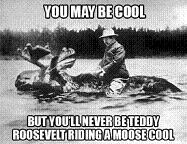
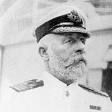


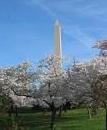













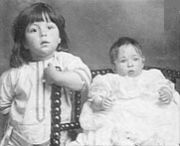




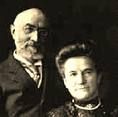
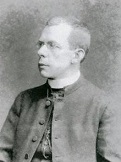



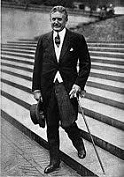



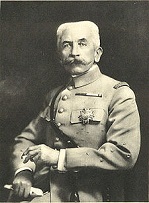








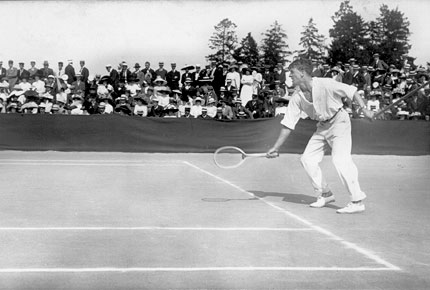














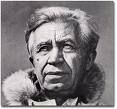










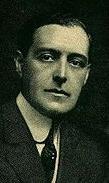














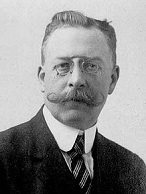















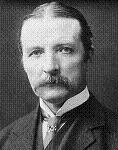


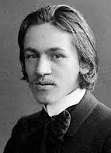

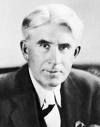

















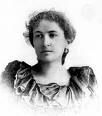
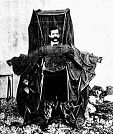

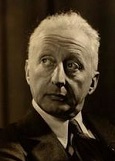


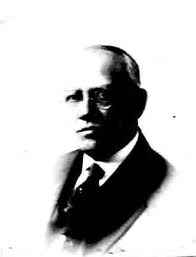
















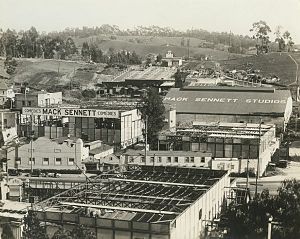


















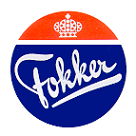


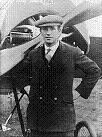
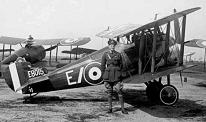
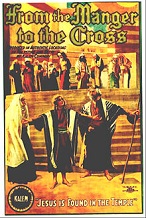

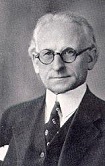








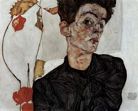
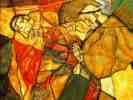

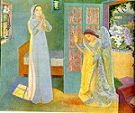
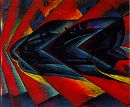




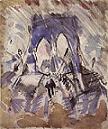



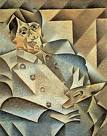
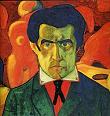
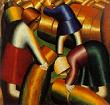
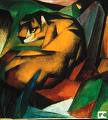

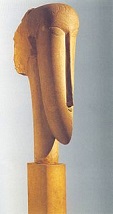

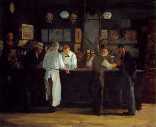




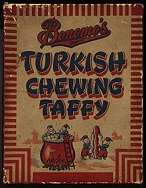

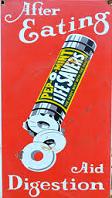


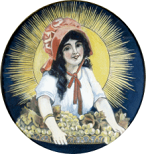
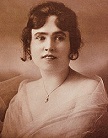


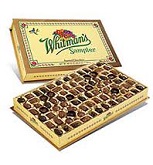
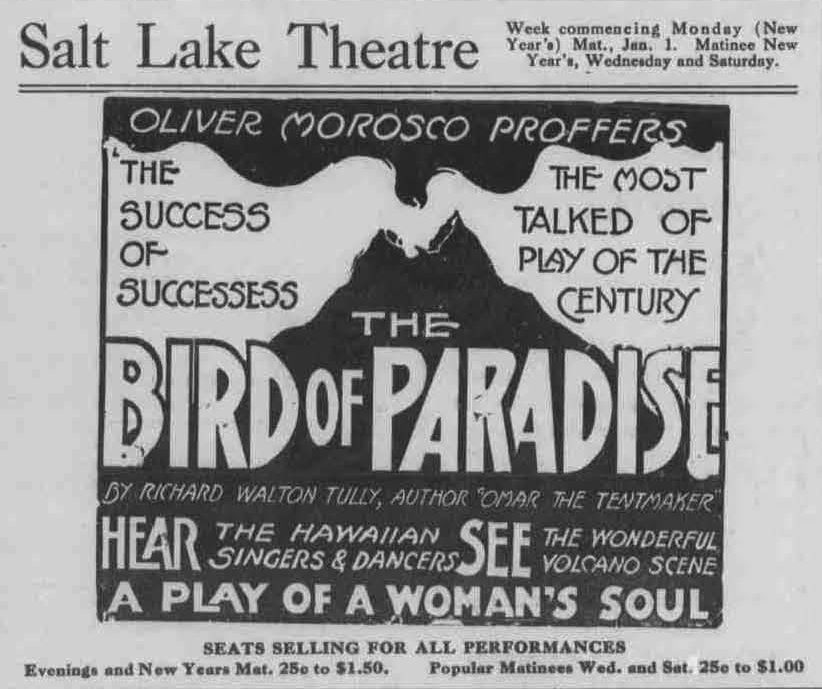
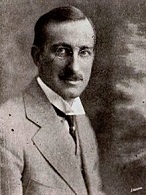
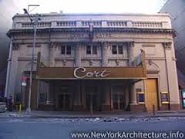
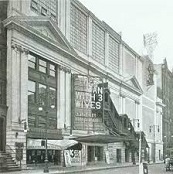
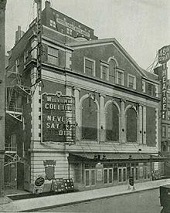
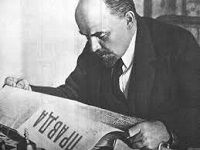
1912 Chinese Year: Rat - as in drowned like a rat? Germany claims 30K millionaires - together they can buy one loaf of bread? In the U.S. approx. 5M people visit cinema daily. By this year over 2K muckraking articles have been pub. in the U.S. in McClure's, Pearson's, Hampton's, Collier's, Cosmopolitan and Ladies' Home Journal, with a combined peak cir. of 3M copies a mo. in a country with 13M-15M voters. Thomas' Register of American Manufacturers lists 50+ manufacturers of vacuum cleaners; in 1914 it lists 18 U.S. cos. offering hand-operated vacuum cleaners, vs eight in 1916; in 1914 it lists five U.S. cos. offering water-powered vacuum cleaners, vs. two in 1916. On Jan. 1 a new Mass. law shortening the work week from 56 to 54 hours for women and children causes employers in Lawrence, Mass. to lower the pay of cotton mill workers to make it come out even, robbing them of three loaves of bread per week; on Jan. 11 the Lawrence Bread and Roses (Strike for Three Loaves) Textile Strike in Mass. by immigrant female workers begins, spreading to 20K workers within a week, backed by the IWW Wobblies, and lasting 2 mo., with a V for the workers after govt. misconduct, incl. the murder of striker Anna LoPizzo, and the clubbing of children, causes Congress to intervene and force them to pay higher wages; the poem Bread and Roses by James Oppenheim (1882-1932) becomes its theme; too bad, next year the union collapses and most of the gains evaporate as the mean cos. chisel them away; Mass. becomes the first U.S. state to enact minimum wage legislation, followed by eight more states next year; the catch is that the laws apply only to women and minors, because male-dominated labor unions fear the lessening of incentives to join. On Jan. 5-7 the Prague Party Conference of the Russian Social Dem. Labor Party sees Vladimir Lenin's 18 Bolsheviks break off and form their own Bolshevik Party; the Okhrana spies on it. On Jan. 6 New Mexico (N.M.) becomes the 47th U.S. state; meanwhile rumors of a new film called The Gentleman from New Mexico circulate. On Jan. 8 the South African Native Nat. Congress (SANNC) (later the African Nat. Congress) is founded in Bloemfontein, South Africa to work for the rights of South African blacks. On Jan. 12 French PM (since June 27) Joseph Caillaux and his cabinet are forced to resign after it was revealed that he had secretly negotiated with Germany during the Second Moroccan Crisis without the knowledge of Pres. (1906-13) Armand Fallieres. On Jan. 17 British explorer Robert Falcon Scott (1868-1912) and his pity party reach the South Pole, find that Norwegian explorer Roald Amundsen has beaten them by five weeks, and perish on the return journey, dying at their find that Norwegian explorer Roald Amundsen has already been there, and perish on the return journey, dying at their Last Stop on Mar. 29 after making it onto the Ross Ice Shelf; on Mar. 18 Scott writes in his diary "My right foot has gone, nearly all the toes"; on Mar. 17 Petty Officer Edgar Evans dies first, then Capt. Lawrence Oates goes nuts from severe frostbite and takes off into a storm after saying "I am just going outside and may be some time"; Scott, Lt. Henry Bowers and Dr. Edward Wilson are the last to go, after Scott writes a Letter to Wife Kathleen, saying for her not to feel sorry for him because "How much better it has been than lounging in comfort at home." On Jan. 21 conservative atty. and public instruction minister Raymond (Raimond) Poincare (Poincaré) (1860-1934) (who successfully defended sci-fi writer Jules Verne over his mad scientist novel in the late 1890s) becomes PM of France (until 1913); Alexandre Millerand (1859-1943) becomes minister of war, reorganizing the army. On Feb. 3 Western progressive leader and Repub. pres. candidate Sen. Robert Marion La Follette of Wisc. stinks himself up with a rambling, drunken speech running past midnight at a banquet of the Periodical Publishers' Assoc. in Philly, causing newspapers to accuse him of a nervous breakdown, evaporating his support; on Feb. 21 Teddy Roosevelt reverses himself and announces that his "hat was in the ring". On Feb. 12 Qing emperor #11 (since Dec. 2, 1908) and Forbidden City inmate Hsuan Tung (Henry Pu Yi) (1906-67) abdicates, becoming the last emperor of China after 2K years of imperial rule, being allowed to keep his residence in Beijing's Forbidden City; on Feb. 13 Dr. Sun Yat-Sen resigns in order to unify the country, and on Feb. 15 Yuan Shikai is elected provisional pres. of the Chinese Repub. by the nat. assembly. On Feb. 14 "Grand Canyon State" Arizona ("little spring place" in Pima, or "silver-bearing" in Aztec) is admitted as the 48th U.S. state, the last on the mainland, closing the Am. Frontier - that spells Arizona Tea in two ways? On Feb. 16 Bavarian Col. Gen. Baron Paul Otto Felix Freiherr Kress von Kressenstein (1850-1929) becomes German war minister (until Dec. 7, 1916). On Mar. 5 Spanish steamer Principe de Asturias sinks off Sebastien Point NE of Spain, killing 500. On Mar. 6 Oreo brand chocolate sandwich cookies are introduced by Nabisco Co., manufactured at its Chelsea Factory in New York City; they originally come in cream and lemon meringue filling; in 1952 William A. Turnier develops the embossed design; the world is split between those who eat them whole and those who split them apart and eat the cream filling first. On Mar. 10 a provisional 1912 Chinese Constitution is completed in Nanking, giving supreme power to the bicameral assembly, causing Pres. Yuan Shikai to begin a power struggle, using the new Jinbudang (Progressive) Party of Liang Qichao, which is opposed by Sun Yat-Sen's new Kuomintang (Guomindang) (Nationalist) Party, a descendant of the Rev. Alliance, which champions parliamentary govt. On Mar. 12 Juliette "Daisy" Gordon Low (1860-1927) starts the first Girl Scout troop, the Girl Guides (based on the British Girl Guides), with 18 girls in Savannah, Ga.; the Girl Scout promise is "On my honor, I will try to do my duty to God and my country, to help other people at all times, and to obey the Girl Scout laws"; by the end of the cent. they are the world's largest org. for girls, with 3M Cun, er, Scouts ages 7-18 worldwide, selling 200M boxes of cookies a year, incl. Thin Mints, Carmel deLites and Tagalongs; the first guides get tips on camping, housekeeping, first aid, stopping runaway horses, and tying up burglars. On Mar. 13 Morristown, N.J.-born, Princeton-educated Mahlon Pitney (1858-1924) of N.J. (great-grandfather of "Superman" actor Christopher Reeve) becomes U.S. Supreme Court justice #65 (until Dec. 31, 1922) to fill the vacancy left by John M. Harlan (1877-1911), bringing the number of justices back to nine; Pitney becomes the only Supreme Court justice nominated by Pres. Taft who also serves during his tenure as chief justice; too bad, the recent tendency to appoint old farts keeps the boat rocking? On Mar. 15 despite not studying at Staff College and having no staff experience, Gen. Sir John Denton Pinkstone French (1852-1925) becomes chief of the British imperial gen. staff, drawing up the list of key officers for the British Expeditionary Force (BEF) on Nov. 8; next June 3 he is unexpectedly promoted to field marshal. On Mar. 27 after Tokyo mayor Yukio Ozaki (1859-1954) and Japanese-born Am. chemist Jokichi Takamine (1854-1922) donate 3,020 Yoshino Cherry trees to the U.S. govt., two are planted in West Potomac Park on the N bank of the Potomac Tidal Basin near the Jefferson Memorial in Washington, D.C. by First Lady Helen Herron Taft and Viscountess Chinda, wife of the Japanese ambassador, becoming the start of the annual Nat. Cherry Blossom Festival. On Mar. 30 Morocco sultan (since 1908) Moulay Abd al-Hafid signs the Treaty of Fez, making Morocco a French protectorate, ending the Agadir Crisis of July 1, 1911; Spain keeps its coastal protectorate, and assumes protection over the N and S Saharan zones; Germany receives territories in the Middle Congo, becoming known as Neukameron (which is captured by the Allies in WWI), giving them in return a small area SE of Fort Lamy in modern-day Chad; too bad, the treaty sparks the Fez Riots (Mutiny) (Uprising) (Bloody Days) (Triti), causing Abd al-Hafid to flee to Rabat and abdicate in favor of his son Moulay Youssef ben Hassan (1881-1927), who becomes sultan of Morocco (until Nov. 17, 1927); too bad, on Apr. 17 (a.m.) the 5K Moroccan askars (infantrymen) in Fez mutiny against the remaining 1.5K French troops, spilling into the Euro and Jewish quarters, surrendering on Apr. 19 after killing 66 Euros, 42 Jews, and 600 Moroccans; on Apr. 28 French gen. (later marshal) Louis Hubert Gonzalve Lyautey (1854-1934) becomes French resident-gen. of Morocco (until Aug. 25), becoming known as "the Maker of Morocco" and "the French Empire-Builder". It's judgment time as Man and the Icy Abyss of High Tech come face to face with corporate disregard of public safety in the quest for profits, shattering the faith in golden progress of the Gilded Age? On Apr. 10 (Wed.) (noon) after a christening in Belfast, Ireland before a crowd of 100K on Apr. 2, "unsinkable" 46.3K-ton 852.5 ft. (4 city blocks) (world's largest ship, built for comfort and luxury not speed) RMS Titanic ("the Millionaires' Special") (call letters MGY) of the White Star Line (part of a trio with Olympic and never-built Gigantic), built by the Belfast shipbuilding firm of Harland and Wolff, and captained by veteran (highest-paid ship captain in the world) (last voyage before retirement) Capt. Edward John Smith (b. 1850) (who captained the maiden voyage of the Olympic, and freezes up during the sinking, failing to give vital orders and allowing the passengers and crew to feel no sense of emergency) leaves Southampton, England on its maiden voyage for New York City with 2,223 crew and passengers (collectively worth $500M) (771 3rd class or steerage passengers, mainly immigrants, who are treated like cattle, but are delighted with the accommodations, incl. newfangled toilets); the ship carries only 20 68-person lifeboats, incl. 4 collapsible ones, all of which could have been safely overloaded in the calm seas; 2nd class tickets cost as much as 1st class ones on other ships; Shipbuilder mag. calls it "practically unsinkable"; the South Western Hotel in Southampton is booked by the richer passengers to wait for departure; J.P. Morgan books passage but cancels at the last minute; as it departs Southampton, its suction causes the New York to break free from its mooring, almost colliding with it; a fire breaks out in a bunker, which is still burning when it sinks on the calm moonless night of Apr. 14-15 (Sun.-Mon.); on Apr. 10 (eve.) it docks in Cherbourg, France to pick up more passengers; on Apr. 11 it docks in Queenstown, Ireland, where the last photos of life aboard the ship that survive are taken; on Apr. 12 a warning is received from the French liner La Turenne about an approaching ice field; on Apr. 14 Sun. services are held, and a spectacular sunset is enjoyed, along with the best food of the voyage for dinner; on Apr. 14 at 9:00 p.m. Capt. Smith visits the bridge to discuss arrangements for spotting icebergs, asking them to let him know if anything appears; on Apr. 14 at 10:00 p.m. the watch on the bridge is changed, with binoculars forgotten; too bad, the captain orders the crew to beat the Olympic's speed record and get into New York City on Tues. night before it is scheduled to arrive, at the urging of White Star Line CEO (1899-1913) (a passenger) J. (Joseph) Bruce Ismay (1862-1937), who according to passenger Emily Maria Borie Ryerson (1863-1939) hands the captain an iceberg warning from the Baltic, telling him to speed up to avoid it; the ship received 8+ telegraph warnings about icebergs, incl. that they were already inside a large ice field; as it goes down, the band on deck plays the hymn Abide with Me; on Apr. 14 at 10:21 p.m. the SS Californian, captained by Capt. Stanley Phillip Lord (1877-1962) reaches the same ice field as the Titanic, and stops for the night, radioing Titanic about it, receiving the rebuke "Shut up, shut up, I am busy" at 10:40 p.m., causing the Californian radio operator to turn in for the night at ? p.m.; on Apr. 14 at 11:40 p.m. as Titanic cruises at 21-22 knots, lookout Fredrick Fleet (b. 1887) utters the immortal soundbyte "Iceberg, right ahead!", and after the engines are unwisely reversed, making the slow-responding ship (rudder too small) unable to turn sufficiently (they could have saved themselves by ordering full steam ahead to give the rudder the needed torque to turn?), it scrapes a black (blue) (virtually invisible) iceberg on its starboard side, creating a tear along one-third the length of the ship (the first six watertight compartments, more than it was designed to survive), and sinks 400 mi. SE of Cape Race, Newfoundland in 12.5K ft. of salty ice water at 2:20 a.m. on Apr. 15; passenger Henry Sleeper Harper (1864-1944) sees the iceberg scraping the ship out of his window; there is no public announcement system to alert passengers, and the 3rd class passengers are a motley polyglot group, with no ship translators; radio messages give the location as 41 deg 46 min N, 50 deg 14 min W; the distress signal sent is CQD, followed by the new signal SOS; at 12:27 a.m. the last radio signals are transmitted; at 12:30 a.m. the ship lists noticeably as the watertight compartments lack watertight tops, turning the ship into a gigantic ice cube tray; at 12:45 a.m. after spotting a ship off the port bow 5 mi. away, Titanic begins shooting off distress rockets, causing the complacent passengers to wake up to their peril; the Californian 10 mi. away sees the rockets and wakes Capt. Stanley Lord, and after failing to get a response to a Morse lamp and seeing no more rockets, figures that it steamed away; at 1:00 a.m. the ship's string quartet AKA the Band That Played On begins playing on deck; only women and children are permitted on the lifeboats (except crewmen, who row), many of which are launched at less than full capacity, esp. the first ones because people didn't believe there was any danger, becoming the last use of the Birkenhead Drill of 1852; the ship's builder Thomas Andrews Jr. (b. 1873) (who initially estimates that the ship will sink in 1-2 hours) is among those who go down with the Titanic, incl. millionaire John Jacob Astor IV (b. 1864) (richest person on board) (cousin of William Waldorf Astor, and great-grandson of John Jacob Astor), whose 19-y.-o. 5-mo.-pregnant cradle-robber wife Madeleine Talmage Force Astor (1893-1940), maid Rosalie Bidois, and nurse Caroline Endres are rescued, while he, his pet airedale Kitty, and his valet Victor Robbins aren't, with cigarette-puffing tough-meets-classy-stylish-ridgeline Astor telling Madeline after she boards the lifeboat: "The sea is calm. You're in good hands. I'll see you in the morning"; millionaire playboy Benjamin Guggenheim (b. 1865) and his French singer mistress Leontine Pauline Aubart (1887-1964); celebs Isidor Straus (b. 1845) (co-owner since 1896 of Macy's dept. store in New York City) (and his wife, who refuses to leave him), William Thomas Stead (b. 1849) (English #1 journalist), U.S. maj. Archibald Willingham Butt (b. 1865) (White House chief military advisor, whose disappearance causes Pres. Taft to send U.S. Navy cruisers Chester and Salem to the scene), Francis Davis Millet (b. 1848) (artist), and Jacques Futrelle (b. 1875) (Am. detective story writer); English Roman Catholic father Thomas Roussel Davids Byles (1870-1912) forgoes a lifeboat to minister to the other passengers, and is fast-tracked for sainthood?; a total of 1517 are killed, incl. 832 passengers and 685 crew, incl. the boiler room workers, who work to keep the generators and lights going until all lifeboats are gone; Guggenheim issues the immortal soundbyte "We are dressed in our best, and are prepared to go down like gentlemen"; survivor Molly Brown (1867-1932), a suffragette who founds the Denver Woman's Club in Colo. steals the epithet "Unsinkable" from the sunken ship, becoming a celeb; future Nat. Broadcasting Co. (NBC) founder David Sarnoff (1891-1971), working for the Marconi Wireless Co. gains fame by narrating news of the disaster; the SS California, only 8 mi. away stinks itself up by failing to have an officer on duty and missing the distress signal; the RMS Carpathia 70 mi. away is the first to answer the SOS, picking up 706 survivors in 19 lifeboats; its own wreck is discovered in 1999 120 mi. off the English coast; 7-y.-o. novelist Graham Greene (1904-91) later claims in his 1971 autobio. A Sort of Life that he dreamt about the ship sinking the night it was lost; Am. passenger (feminist writer) Helen Churchill Candee (1858-1949) gives a locket to friend Edward Austin Kent (b. 1854) after the ship hits the iceberg, and it is found in his jacket pocket when his body is recovered, while Candee survives and writes a 36-page Description of the Sinking of the Titanic, which fetches $85K in a London auction on Apr. 29, 2006, plus $100K for the locket; the wooden lifeboats are recycled by the White Star Line, and eventually all rot; although 61 children are killed, 2-y.-o. Lorraine Allison is the only child from 1st or 2nd class to die after her parents keep her aboard to look for her brother; in 1940 Helen Kramer (-1992) claims to be her, but in Jan. 2014 the claim is debunked with a DNA test; London-born Elizabeth Gladys "Millvina" Dean (1912-2009), the youngest passenger on board (9 weeks old), who becomes the last survivor and never marries dies in her sleep on May 31, 2009 at age 97 of pneumonia, on the 98th anniv. of the Titanic's launch in a nursing home in Ashurst, Hampshire; in 2010 it is revealed by the family of 2nd officer Charles Herbert Lightoller (1874-1952) (highest ranking officer to survive) that the Titanic sunk because the helmsman panicked and turned the ship the wrong way, and after it struck the iceberg the ship wouldn't have sunk if it hadn't moved off; the Titanic was really the RMS Olympic, whose keel had been badly bent in its Sept. 1911 collision with the HMS Hawke, and J.P. Morgan wanted to crash and sink it on an iceberg to collect insurance to pay the £800K owed, which is why the Titanic had special longitudinal bulkheads to brace the keel?; the real reason that the Titanic sunk is a 1K F fire that had been buning for three weeks and weakened the metal?; the three most power anti-central bank financiers go down with the Titanic, paving the way for the creation of the U.S. Federal Reserve next year, spawning conspiracy theories; the White Star Line begins a coverup, initially claiming that the ship didn't sink and that all the passengers were rescued on lifeboats, sending a special train to Halifax, N.S. to pick them up; the New York Times gets a hunch from the lack of communications to pub. a scoop that the Titanic sunk, rocketing the newspaper's rep to the top; the coverup story is initially that the Titanic sunk intact, despite witnesses to the contrary, and after the wreck is discovered broken into two pieces in 1985, the story is changed to claim that the Titanic's stern rose high into the air before the ship broke in two and sunk, when later investigations prove that it broke at the aft expansion joint at a shallow angle of 11-12 deg., which meets or exceeds the design reqts. for withstanding large waves, making a coverup unnecessary; of course Ismay has no trouble getting on a lifeboat, making coded arrangements to sail out of the U.S. fast in a patent attempt to avoid prosecution, only to be tagged when the Carpathian docks in New York City and handed a subpoena to the Smith Committee investigation of the disaster, chaired by U.S. Sen. (R-Mich.) (1907-19) William Alden Smith (1859-1932), testifying that he was just another passenger who did nothing to influence the conveniently dead captain, and jumped into last remaining lifeboat Collapsible C after helping all women and children get on and only boarding because there was nobody left, causing him to be known as "the coward of the Titanic" and "J. Brute Ismay"; fellow 1st-class passenger (Am. millionaire) William Ernest Carter (1875-1940) accompanies him on the lifeboat, and is also labeled a coward; after the inquiry end, Ismay and the surviving officers return to England aboard RMS Adriatic; Carter's 25 hp Renault Towncar Type CB Coupe de Ville was stored in Titanic's forward hold, later used in the 1997 James Cameron film "Titanic" for the Jack and Rose backseat love scene; on May 2-July 3 the British Board of Trade Investigation in London largely whitewashes and exonerates the White Star Line because they were responsible for its oversight, while admitting it was traveling dangerously fast; the Iceberg of Sorrows (Glaçon de chagrin) goes on to sink so many ships that it becomes a main reason for transatlantic passengers to prefer air travel. On Apr. 11 the Liberal British govt. of Herbert Henry Asquith introduces the Govt. of Ireland Act 1914 (Third Irish Home Rule Bill), sponsored by Irish Roman Catholic MP (1900-18) John Edward Redmond (1856-1918) to give Ireland self-govt.; the House of Lords, egged on by Irish Unionists in Ulster tries in vain to block it for the next two years, but can't veto it anymore; on Sept. 18, 1914 it is passed along with the Welsh Church Act and the Suspensory Act, which postpones the Govt. of Ireland Act's effectiveness until the end of WWI, effectively killing it. On Apr. 17 the Lena Gold Field Massacre in Russia sees 200 striking workers shot by the tsarist army, sparking a wave of strikes - how about these Schmackos, made with real bacon? On Apr. 22 the U.S. Chamber of Commerce is founded in Washington, D.C. by Pres. Taft to counterbalance the labor movement via a meeting of 700 delegates from 44 states representing 343 voluntary orgs.; it starts with 297 commercial orgs. and 165K firms and individuals, employing a staff of four, which grows to 300 by 1921 and 470 by 2015; it goes on to back conservative mainly Repub. candidates. On Apr. 30 German-born Jewish-Am. film producer Carl Laemmle (1867-1939) et al. found Universal Studios (originally Universal Film Manufacturing Co.). in New York City; on Aug. 15 they lease the Providencia Ranch in the San Fernando Valley; in Mar. 14 they spend $165K to buy a 230-acre ranch in N Hollywood, Calif. across the road from where Mexican Gen. Andre Pico and U.S. Col. John Fremont signed the 1847 Treaty of Cahuenga, which becomes known as Universal City, world's largest movie studio, "the entertainment center of the world", which officially opens on Mar. 15, 1915 at a ceremony attended by 15K; the initial pop. has 500 residents incl. 75 Indians living in tepees on the backlot; the first film completed is "Damon and Pythias" (1914) starring William Worthington and Herbert Rowlinson. In Apr. former U.S. pres. Theodore Roosevelt utters the soundbyte: "Somebody asked me why I did not get an agreement with Colombia. They might just as well ask me why I do not nail cranberry jelly to the wall. It would not be my fault or the fault of the nail, it would be the fault of the jelly." On May 5 (Apr. 22 Old Style) (anniv. of Karl Marx's 1818 birth) after Vladimir Lenin links up with Joseph Stalin, the Russian broadsheet newspaper Pravda (Russ. "truth") begins pub. in Moscow as the official organ of the Central Committee of the CPSU (until 1991), reaching a circ. of 11M; it really was founded in Moscow in 1903 by wealthy railway engineer V.A. Kozhevnikov and was non-political until the 1905 Russian Rev., becoming a football between the Mensheviks and Bolsheviks until 1908, when Leon Trotsky becomes ed. and moves it to Vienna until the Mensheviks are officially expelled from the CPSU in Jan. 1912 and Lenin decides to make it their official organ; the first issue costs 2 kopeks and has four pages; by 1914 it has 42 different eds., who are really stooges to go to jail as patsies, while sitting members of the Duma are set up as publishers because they enjoy parliamentary immunity; after reaching a circ. of 40K-60K, the govt. shuts it down in July 1914, and it doesn't reopen until the 1917 Feb. Rev., moving to Moscow on Mar. 3, 1918, with Nikolai Bukharin as ed. in 1918-29. On May 5-July 22 the V Summer (5th) Olympic Games in Stockholm, Sweden are dominated by All-American James Francis "Jim" Thorpe (1888-1953), a Sac and Fox Indian with some Irish descent who wins the pentathlon (4 firsts) and the decathlon (8412.96 out of a possible 10K pts.), then responds to the compliment "You, sir, are the greatest athlete in the world" by Swedish king Gustavus V with the immortal soundbyte "Thanks, king!"; West Point grad. George Smith Patton Jr. (1885-1945) places 5th in the pentathlon; swimming champ ("Father of American Surfing") Duke Kahanamoku (1890-1968) of Hawaii appears in a sleek swimsuit with bikini-like underdrawers, shocking Anglo-Saxons plagued by sex guilt, and revolutionizing sprint swimming by replacing the scissors kick with the flutter kick, winning a gold medal in the 100m freestyle and a silver medal in the men's 4x200m freestyle relay; on July 15 Portuguese marathon runner (first ever) Francisco Lazaro (Lázaro) (b. 1891) becomes the first Olympic athlete to die in competition (next 1960) after he waxes his body to prevent sunburn, interfering with perspiration; Charles Lyndhurst Winslow (1888-1963) of South Africa wins gold in men's singles and doubles tennis; Giovanni Pellegrini wins the first gold medal in painting; until 1948 medals are awarded to sculptors, architects, writers, and musicins. On May 8 well-fixed Hungarian-born Jewish former fur trader Adolph Zukor (1873-1976) in partnership with the Frohman brothers founds Famous Players Film Co. on 26th St. in New York City as the U.S. distribution co. for the French film "Les Amours de la Reine Elisabeth" starring Sarah Bernhardt, going on to attract Mary Pickford, who starts with a filmed version of her Broadway play "A Good Little Devil" at $500 a week, which is a bomb, although she becomes hotter than ever with fans; next year Zukor gets financial backing from New York City impresarios the Frohman Brothers, and starts his rise; in 1915 they establish Famous Players Fiction Studios at 5300 Melrose Ave. in Hollywood, their first film starring Mary Pickford; on June 28, 1916 Zukor partners with Jesse L. Lasky, changing the name to Famous Players-Lasky Corp.; in 1919-22 Cecil B. DeMille becomes dir.; in 1920-1 they build the 5-acre Kaufman Astoria Studios in Astoria, New York City close to the Broadway Theatre district; on Dec. 3, 2013 it opens as New York City's only studio backlot (34.8K sq. ft.). On May 12 Frederik VIII (b. 1843) dies, and on May 14 his eldest son Christian X (1870-1947) becomes king of Denmark (until Apr. 20, 1947), going on to survive both world wars. On May 16 after a "race rider clause" is defeated that would have hamstrung Congress in attempting to override state laws preventing blacks from voting in senatorial elections, the XVII (17th) Amendment (Direct Election of Senators) to the U.S. Constitution is sent by the 62nd Congress to the states for ratification; on Apr. 8, 1913 Conn. becomes the 36th state to ratify it, and it is certified by U.S. secy. of state William Jennings Bryan on May 31. On May 23-24 after Conservative Istvan Tisza becomes speaker, the Social Dems. start the 1912 Budapest Riots. On May 27 the Am. Socialist Party nominates ordinary-looking hair-challenged Eugene V. Debs for pres. for the 4th time. In May the Royal Flying Corps is established as part of the British army. On June 5 the U.S. Marines are sent to Cuba to protect business interests by guaranteeing loans made to foreign countries in what becomes known as Dollar Diplomacy. On June 6-8 Mount Katmai in Novarupta, Alaska (Lat. "newly erupted") erupts violently, forming the Valley of Ten Thousand Smokes (named by Robert F. Griggs), and becoming the largest volcanic eruption of the 20th cent. In June New York Motion Picture Co. (founded 1909) signs a merger deal with Universal, then later the same year backs out for a deal with Mutual Film Corp., releasing their last 101-Bison film on Oct. 25 after settling a lawsuit by relinquishing their trademarks on Bison and 101-Bison to Universal, then moving from Edendale to Santa Monica, Calif. after turning the studio over to Keystone, cranking out Broncho films weekly under dir. Francis Ford, along with Kay-Bee films. On June 22 despite candidate Theodore Roosevelt blasting him as having a brain equal to three guinea-pig power, once making him cry, William H. Taft runs for renomination despite not liking the job just to get even, and the Old Guard who likes his conservativism rolls over the progressive minority and renominates him for pres. and James S. Sherman for vice-pres., causing Roosevelt to lead his supporters off the floor of the 1912 Repub. Nat. Convention in Chicago, Ill., forming the Progressive (Bull Moose Party, with Chicago atty.-journalist Harold Le Claire Ickes (1874-1952), Kan. journalist William Allen White (1868-1944) et al., which in Aug. nominates Roosevelt for pres., and progressive isolationist Calif. gov. #23 (1911-17) Hiram Warren Johnson (1866-1945) for vice-pres., thereby splitting the Repub. Party and insuring the demise of both? On June 24 Pres. Taft issues an Executive Order fixing the dimensions of the U.S. flag, with the ratio of hoist to fly (width to length) set at 1:1.9, the blue field to extend to the bottom of the 7th stripe, and the diameter of each star at one-sixteenth of the hoist. On June 25-July 2 the 1912 Dem. Nat. Convention meets in Baltimore, Md., and after House Speaker #41 (1911-1919) James Beauchamp "Champ" Clark (1850-1921) comes in with a majority pledged to him then fails to receive the necessary two-thirds, it nominates N.J. gov. Thomas Woodrow Wilson for pres. on the 46th ballot after lost cause William Jennings Bryan throws his influence behind him; Thomas R. Marshall of Ind. is nominated for vice-pres.; Clark, who had used his speakership to block Taft's legislation now uses it to pass Wilson's, then splits with Wilson over the decision to bring the U.S. into WWI. In June meteoric riser Rufus Daniel Isaacs, 1st Marquess Reading (1860-1935), a Liberal Jewish MP from Reading from 1904-10, and solicitor gen. and atty.-gen. in 1910 receives a seat in the British cabinet, becoming the first atty.-gen. to be so honored. In June the Sopwith Aviation Co. is founded in Brooklands, England by Sir Thomas "Tommy" Octave Murdoch Sopwith (1888-1989), moving to Kingston upon Thames in Dec. after making their first military sale, going on to manufacture 18K aircraft with 5K employees during WWI incl. the Sopwith Bat Boat, Dolphin, Pup, Salamander, Snipe, and 5,747 Sopwith Camels, moving in early 1918 to Ham; the 230 hp single-seat biplane Sopwith 7F.1 Snipe (first flight Oct. 1917) is the best fighter of WWI, being introduced a few weeks before the war's end then becoming the RAF std. single-seat fighter after the war, with 497 built by 1926; too bad, the Excess War Profits Duty causes his firm to go bankrupt, and in 1920 he founds Hawker Aircraft (H.G. Hawker Engineering) with test pilot Harry George Hawker (1889-1921), going on to manufacture the Hart and Demon. The stars have all gone dry tonight? On July 4 Congress authorizes a new U.S. flag with two new stars, bringing the total to 48 (design #25), incl. dry dry dry un-Titanic New Mexico and Arizona; no more for 47 years. On July 4 Keystone Studios in Edendale, Calif. is founded by Canadian-born Irish Roman Catholic Biograph actor-dir. (failed opera singer) ("the King of Comedy") Mack Sennett (Mikall Sinnott) (1880-1960) (who plays Sherlock Holmes 11x is founded-13), with $2.5K backing from Charles O. Baumann (1874-1931) and Adam Kessel (Jr.) (1866-1946) of the New York Motion Picture Co. (founded 1909), producing silent comedies starring the Keystone Kops (Cops) until 1917, starring Oxford Street, er, Ford Sterling (George Ford Stich Jr.) (1883-1939) as Chief Teeheezel, "Slow Burn" Edward Kennedy, and Russian-born Hank Mann (David William Lieberman) (1888-1971), originator of the idea; its films are distributed by Mutual Film Corp. until 1915, when it merges with Triangle Film Corp. of Thomas Harper Ince, D.W. Griffith, and Mack Sennett, whose studios go on to form those of Sony Pictures; in 1915 the Sennett Bathing Beauties are founded; in 1917 Sennett quits and forms his own co.; Ince builds a new studio that later becomes the site of Culver Studios; Keystone goes defunct in 1935. In July French painter Francis Picabia (1879-1953) drinks all night in Paris with composer Claude Debussy and poet Guillaume Apollinaire, then they take a boat to England, where Picabia allegedly invents Abstract Art, asking "Are blue and red unintelligible? Are not the circle and the triangle, volumes and colors, as intelligible as this table?", soon painting La Source (The Spring) (1912) and Danses a la Source (1912). On July 30 emperor (since 1867) Meiji (b. 1852) dies, and is succeeded as Japanese Yamato emperor #123 (until Dec. 25, 1926) by his son Yoshihito, who assumes the name Taisho (Tai-Sho) (1879-1926); constantly ill, he plays little part in the ruling of the nation; the Taisho Period ("period of great righteousness") begins (ends 1926), known for the Taisho democracy, an opening to liberal Western trends. On Aug. 5 the 1912 Progressive Party "Bull Moose" Convention in Chicago, Ill. convenes, with 2K delegates incl. several women and blacks, although Roosevelt excepts blacks from the South, while later alienating white Southern supporters by publicly dining with some blacks at a hotel in R.I.; on Aug. 7 Theodore Roosevelt accepts the pres. nomination, with Jane Addams giving the seconding speech, ending his acceptance speech with: "We stand at Armageddon, and we battle for the Lord!", later uttering the soundbyte: "Behind the visible government there is an invisible government upon the throne that owes the people no loyalty and recognizes no responsibility. To destroy this invisible government, to undo the ungodly union between corrupt business and corrupt politics is the task of a statesman"; keynote speaker, former Ind. Repub. Sen. (1899-1911) Albert Jeremiah Beveridge (1862-1927) utters the soundbyte: "This party comes from the grass roots. It has grown from the soil of the people's hard necessities" - TR must have been reading some Watch Tower Society lit.? In Sept. the Fourth Russian Duma is elected, with a super-conservative composition of landowners, clergy, retired military officers, etc., that accomplishes nothing (ends 1917). In the fall the 1,051-mi. Trans-Australian Railway from Port Augusta, South Australia to Kalgoorlie, Western Australia is begun (finished Oct. 1917); the central part features the world's longest stretch of straight track (297 mi.), running across the Nullarbor Plain; passenger services are known as the Great Western Express. On Oct. 8-16 the Boston Red Sox (AL) (mgr. Jake Stahl) defeat the New York Giants (NL) (mgr. John McGraw) 4-3-1 to win the Ninth (9th) World Series, becoming the first to be decided in a sudden death (1960, 2001), and the first where a team within one inning of losing comes back to win (next in Game 6 of the 1985 WS); Henry "Heinie" "the Great Zim" Zimmerman (1887-1969) of the Giants becomes the 2nd player and first NL player to win baseball's triple crown (#1 is Ty Cobb in 1909); first of five titles for Boston by 1918; Boston fans become known as the Royal Rooters. The bull that makes Milwaulkee famous? On Oct. 14 Theodore Roosevelt is shot by anarchist John Schrank in Milwaukee, Wisc. while entering a hotel to give a speech; the folded-up speech manuscript stops the bullet and he gives the speech anyway, telling reporters, "You see, it takes more than that to kill a bull moose." On Oct. 18 Greece, Montenegro, Serbia, and Bulgaria join in an alliance against the Ottoman Empire, beginning the First Balkan War (ends May 30, 1913), resulting in Turkey asking the Allied Powers for intervention; on Dec. 3 an armistice ending the First Balkan War is signed, and a peace conference is held in London on Dec. 16; Serbia gains Turkish territory in Europe, becoming a hit with the Russkies, but pissing-off the Germans; Montenegro doubles its territory; the Dalmatian dog breed is named from the way Croatians in Dalmatia use them during the war as coach dogs. On Oct. 26 (Nov. 8 Old Style) (feast day of patron saint Demetrios) Salonica (Saloniki) (Thessalonica) (Thessaloniki) in Macedonia (held since 1430) is liberated from the Ottomans by Greece. In Oct. the city of Torrance, Calif. on the Pacific Ocean in SW Los Angeles County (modern-day pop. 147K) is founded by real estate developers led by Gowanda, N.Y.-born Jared Sidney Torrance (1853-1921), who hire landscape architect Frederick Law Olmsted Jr., and incorporate on May 12, 1921, becoming known for great climate and beaches, 30 city parks, 90K street trees, and the highest percentage of Japanese-descent residents in Calif. (9%). On Nov. 3 Russia and Outer Mongolia sign a treaty recognizing Outer Mongolia's autonomy. On Nov. 28 the principality of Albania ("land of the eagle") proclaims its independence. In Oct. Repub. vice-pres. James S. Sherman (b. 1855) dies, and is replaced by pacifist Columbia U. pres. Nicholas Murray Butler as the vice-pres. candidate. On Nov. 5 (Tues.) after the number of reps. in the U.S. Congress is fixed at 435 (200K pop. per rep., rising to 700K by the end of the cent., compared to 30K in 1789), Dem. Woodrow Wilson easily wins the 1912 U.S. Pres. Election against a split Repub. Party (435 electoral votes vs. 88 for Roosevelt and 8 for Taft, who becomes the last sitting U.S. pres. to run for reelection and come in 3rd until ?; 6.3M popular votes vs. 4.1M for Roosevelt and 3.5M for Taft); the Dems. gain control of both houses of Congress; the 2nd time that a third party polls more than 10% of the vote in a U.S. Pres. Election (1892, 1924, 1968) - the whole thing was a setup after Teddy's successor Taft wouldn't sell out to the Rockefeller slash Illuminati conspiracy like Teddy did? On Nov. 7 George W. Norris is elected to the U.S. Sen. in Neb. as a Repub. (until 1942), going on to successfully lobby the state to institute a unicameral legislature (the lt. gov. acts as the speaker) on the theory that two houses seems too much like the English Lords and Commons; he also joins the Middle Western isolationist block opposed to U.S. entry into WWI and the Versailles Treaty. On Nov. 7 the London Times begins a publicity (sainthod?) campaign for Albert Einstein, heralding him as a "genius" - a Zionist plot? On Nov. 12 Spanish PM (since Feb. 9, 1910) Jose Canalejas (b. 1854) is assassinated by anarchist Manuel Pardinas while window-shopping a bookstore in Madrid, depriving Alfonso XIII of his top statesman, and starting the slide to the Spanish Civil War of the 1930s? On Nov. 29 German soprano Lotte Lehmann (1888-1976) debuts as Elsa in "Lohengrin", becoming a star, and going on to debut in Vienna on Oct. 30, 1914 as Eva in "Die Meistersinger", in London on May 21, 1924, in Chicago on Oct. 28, 1930, and at the Metropolitan Opera in New York City on Jan. 11, 1934 after fighting off rival Maria Jeritza; too bad, when the Nazis arrive she doesn't get along with Hermann Goering, and has Jewish stepchildren, causing her to flee to the U.S. in 1938. In Nov. destitute Adolf Hitler arrives in Liverpool, England, staying until Apr. of next year after failing to learn English or get a job, then returning to Munich. On Dec. 8 Kaiser Wilhelm II tells a meeting of military chiefs: "Austria has to act vigorously against the foreign Slavs [Serbs], because she would otherwise lose her power over the Serbs in the Austro-Hungarian monarchy. If Russia were to support the Serbs, war would be inevitable for us"; he adds that in a war the German fleet "would have to face war against Britain"; chief of staff Gen. Helmuth von Moltke tells the meeting: "The popularity of a war against Russia, as outlined by the Kaiser, should be better prepared", and naval chief of staff Adm. von Muller tells chancellor (1909-17) (not of Jewish descent) Theobald Theodor Friedrich Alfred von Bethmann Hollweg (Bethmann-Hollweg) (1856-1921): "The people must not be in the position of asking themselves only at the outbreak of a great European war, what are the interests that Germany would be fighting for. The people ought rather to be accustomed to the idea of such a war beforehand." On Dec. 12 the New York Times pub. the article Museum Walls Proclaim Fraud of Mormon Prophet, claiming that Joseph Smith couldn't really translate hierglyphics but just made translations up out of his imagination; "Within three months the only one of these sacred writings in which the test of scholarship could be applied has been submitted to such a test and its authenticity has been destroyed completely." On Dec. 14 after Count Alois Lexa von Aehrenthal dies on Feb. 17 and he is reappointed in early Dec., Austrian chief of staff Baron Franz Xaver Joseph Conrad von Hoetzendorf (Hötzendorf) (1852-1925) writes a letter to Austrian heir apparent Archduke Franz Ferdinand, with the soundbyte: "The unification of the South Slav race is one of the most powerful national movements which can neither be ignored nor kept down. The question can only be whether that unification will take place within the boundaries of the monarchy, that is, at the expense of Serbia's independence, or under Serbia's leadership at the expense of the monarchy", adding that if Serbia leads Slav unification, the Austrian empire will lose almost its entire 300-mi. Adriatic coastline, and "relegate the monarchy to the status of a small power." On Dec. 23 British viceroy of India (1910-16) Charles Hardinge, 1st Baron Hardinge of Penshurst (1858-1944) is wounded by a terrorist bomb in Delhi. In Dec. the first Chinese nat. elections in Chinese history are held, and the results are announced next Jan. - I voted for Chang, Chang, Chang, and Chang, how about you? Cretan reps. sit in the Greek legislature for the first time. Manuel Bonilla (d. 1913) is reelected pres. of Honduras. Liberals and dissident conservatives in Nicaragua form an army under liberal gen. Benjamin Francisco Zeledon (Zeledón) Rodriguez (b. 1879) to fight the U.S. puppet regime of Gen. Adolfo Diaz, but U.S. Marines are sent in under the cover of protecting U.S. lives and property, defeating and killing Zeledon, and beginning 20 years of U.S. occupation of coffeeland (ends 1933), and 13 years of ruling through puppet dictators (until 1925). Gen. John Denton Pinkstone French (1852-1925) becomes chief of the British imperial gen. staff, and is promoted to field marshal next year. Former Ohio gov. (1904-6) Myron Timothy Herrick (1854-1929) is appointed U.S. ambassador to France by Pres. Taft (until Dec. 1914). Despite all the bad prognostications about what royalty does to ambition, Prince Louis Alexander of Battenberg (1854-1921) becomes first sea lord of the British Royal Navy; too bad, anti-German feeling forces him to resign in 1914 at the start of WWI. Former Liberal MP (1885) Richard Burdon Haldane, now 1st viscount Haldane (since 1911) becomes British lord chancellor; too bad, he is forced to resign in 1915 after being accused of being pro-German. A large Hindu immigrant pop. is expelled from the U.S. West Coast by anti-Indian racial rioters. England is rocked by a coal strike, a London dock strike, and a transport workers' strike. The French capture Marrakesh, and introduce Morocco to the 20th cent., forcing it to sign a protectorate treaty, creating French Morocco (until 1956), which incl. most of Morocco (154K of 172K sq. mi.) except Spanish Morocco (18K sq. mi.) and Tangier. The world shrinks to where one side sneezes and the other side catches a cold? Turkey closes the Dardanelles to shipping, cutting Europe off from Russian grain and increasing demand for U.S. wheat; after the U.S. enters WWI, the govt. guarantees a price of $2 a bushel (double the 1910 price), causing the Great Am. Prairie to be overplanted, so that after the war prices drop to 40 cents a bushel by 1930, causing tractors to be used to plow up 50K acres of grassland a day to pump up volume, helped by wet weather in the 1920s, setting things up for the Great Am. Dust Bowl of the 1930s? Simultaneous revolts against Mexican pres. (since 1911) Francisco Madero break out in N and S Mexico. Black Cuban rebels in E Cuba are harshly repressed. You cannot lose what you never had? Germany passes their 4th naval law in 12 years, adding 15K officers and men to the German navy, causing Winston Churchill to call for a mutual pause in naval expansion, arguing that a large fleet is a "necessity" for Britain but a "luxury" for Germany, making them more determined; meanwhile Germany increases its standing army to 544K men, and in spring 1913 they up it to 661K, and in Oct. 1913 German chancellor (1909-17) (of Jewish descent) Theobald von Bethmann-Hollweg (1856-1921) announces the increases with the soundbyte: "One thing remains beyond doubt, if it should ever come to a European conflagration which sets Slaventum against Germanentum, it is then for us a disadvantage that the position in the balance of forces which was hitherto occupied by European Turkey is now filled in part by Slav states"; meanwhile up-and-coming Col. Erich Ludendorff (1865-1937) drafts the mobilization plans for the German Army Bill, which the Reichstag passes next spring, preparing for a possible offensive war. Austria passes an Islam Bill permitting Muslims to practice their religion; amended in 2015. After leaving the Dem. Party, Luis Emilio Recabarren Serrano (1876-1924) founds the Partido Obrero Socialista (Socialist Worker Party) in Iquique, Chile on June 4; it is dissolved on Jan. 2, 1922. Kan., Ore., and Ariz. become the 6th-8th U.S. states to give women the vote; in Ore. suffragist Abigail Jane Scott Duniway (1834-1915) writes the equal suffrage proclamation, and is asked by Gov. Oswald West to sign it. In response to the Titanic disaster, the U.S. Radio Act of 1912 is passed, requiring all radio transmitters to be licensed, and mandating that seagoing vessels continuously monitor distress frequencies. N.Y. passes a law prohibiting the sales of oysters outside the "R" months (May 15 to Aug. 31), based on the English oyster (Ostrea edulis), which keeps its young within its mantle cavity during these months, but doesn't apply to the Am. oyster (Crassostrea virginica); it takes until 1971 to figure it out and repeal the law; too bad, by then the U.S. oyster harvest has shrunk from 150M to 50M lbs. a year. The 25K-acre Nat. Elk Refuge near Jackson, Wyo. is established, becoming the first U.S. big game refuge. The city of Miami Beach, Fla. is created by automobile pioneer Carl Graham Fisher (1874-1939) from a swampy bug-infested stretch of land connected to the mainland via Collins Bridge, which opens next June 12; the city is incorporated on Mar. 26, 1915; he goes on to dredge Biscayne Bay and build the luxury Flamingo Hotel. The Nat. Federation of Catholic Workers' Syndicates is founded in Spain. Henrietta Szold (1860-1945) et al. found Hadassah for Am. Jewish women to organize health care in Palestine for the Yishuv (Jewish community). After being asked by reporters "What is a man to do who is out of work and starving?", Pres. Taft replies "God knows, I don't", causing him to become known as "Godknows Taft". Vilhjalmur Stefansson (1879-1962) of Canada leaves on a 5-year voyage to N of the Arctic Circle (ends 1917), discovering the blonde Eskimos, who had never before seen a white man - he zigged when he should have zagged? Sir Douglas Mawson (1882-1958) of Australia goes to the coast of Antarctica (until 1916), meeting an annual avg. wind speed of 100+ mph; his single-prop Vickers plane crashes in Oct. during a demo flight, and is discovered at Cape Denison in 2009. The G.P.O. takes over British telephone systems. The Social Service Council of Canada is founded by Presbyterian social gospel advocate J.G. Shearer. The Panama Canal project creates 1.5-mi.-long Gatun Dam and 163-sq.-mi. Gatun Lake in the N Canal Zone. The city of New Delhi, India, designed by British architect Sir Edwin Lutyens (1869-1944) is begun to replace Calcutta as the capital of British India (finished 1929); the city is laid out in a geometrical design based on a central rock, which is then removed; the residence of the PM is 7 Race Course Rd. The Church (Kirk) of Scotland revises its Scottish Book of Common Prayer. Native soldiers in the Indian Army are given the right to receive the Victoria Cross. The Pulitzer School of Journalism at Columbia U. is founded, with Philadelphia Press ed. Talcott Williams (1849-1928) as dir. #1. Jehovah's Witnesses founder Charles Taze Russell founds a congregation in Hamilton, Ont. Canada, causing local Baptist clergyman J.J. Ross to take him on in a pamphlet, for which Russell sues him for libel, but Ross uses the trial to put Russell on trial instead, trying to get him charged with perjury for claiming he knew the Greek language when he only knew the Greek alphabet; Russell then tours Canada next year, holding conventions, causing the Catholics and Protestants to gang up on him, calling him the Antichrist. Austrian Jewish tenor Richard Tauber (1891-1948) debuts, becoming #1 in Germany and Austria, known for his top hat and monacle to cover up a squint in his right eye. The Gibson Girl look, created by artist Charles Dana Gibson (1867-1944) is the first purely American style for U.S. women; the original Gibson Girl is his wife Irene Langhorne Gibson (1873-1956), sister of Nancy Witcher Langhorne AKA Lady Astor, introducing girls wearing sneakers while riding newfangled bicycles; shirtwaists are popular among U.S. women "because they can be made to fit any form, and because they are mannish" - and the word "blouse" comes from German for nude (if they wear nothing else)? After founding the Red Door Salon in New York City in 1910, Woodbridge, Ont., Canada-born Elizabeth Arden (Florence Nightingale Graham) (1878-1966) travels to Paris to study at beauty salons, returning with a collection of rouges and tinted powders and introducing modern eye makeup to North Am., going on to found salons worldwide beginning in 1915 (150 by 1929) and create the idea of the "Total Look" and "makeover", fighting rival Helena Rubenstein to become #1 by the 1930s, with celeb clients incl. Marlene Dietrich, Joan Crawford, Wallis Simpson, and later Marilyn Monroe and Jackie Kennedy. For the first time mail is carried by airplane. Lorna Doone brand shortbread cookies begin to be marketed. The Diamond Co. perfects modern Book Matches. Cadillac becomes the first U.S. car with an electric starter. Standard Oil Co. opens its first gas station in Cincinnati, Ohio. The Turkish Petroleum Co. is founded by Britain to explore for oil in Mesopotamia; the Germans initially partner in it but lose out when WWI starts. The Minneapolis Inst. of Arts in Minn. is founded. The Voynich Manuscript, dating back to 1400-1438 C.E. is discovered in Italy, and its intriguing cryptography mystifies the experts (until ?). Poetry: A Magazine of Verse is founded by Harriet Monroe (1860-1936) in Chicago, Ill., going on to pub. Ezra Pound, T.S. Eliot, William Carlos Williams, and Carl Sandburg; Pound goes on to help launch the careers of James Joyce and T.S. Eliot. The first Chinese translation of the Quran (begun 1909) is completed. Arthur Murray (1895-1991) begins giving ballroom dancing lessons. 39-y.-o. Willa Cather (1873-1947) takes a leave of absence from "White Man's Burden" McClure's mag. to write novels, leaves New York City to visit her childhood home of Red Cloud, Neb., finds it changed, then goes on to visit Winslow, Ariz. and other places in Ariz. and New Mexico, then returns to New York City and moves in with Edith Lewis (1882-1972) at 5 Bank St., staying with her for 35 years. D.H. Lawrence meets and falls in love with Frieda Freiin von Richthofen (Weekley) (1879-1956), sister of German aviator Baron Manfred von Richthofen, and their up-again-down-again relationship forms the underlying theme of much of his work, along with his TB, which causes him to travel as far as Mexico and Australia. Heywood Campbell Broun (1888-1939) launches his liberal independent column "It Seems to Me" in the New York Tribune, moving to the New York World in 1921 and the New York Telegram in 1928, becoming one of the most widely-read newspaper columnists in the U.S. German-born Jewish Macy's dept. store co-owner Nathan Straus (1848-1931), known for funding milk pasteurization to combat infant mortality and giving away meals for 1 cent each visits Palestine, becoming a big fan; when his brother Isidor (the other co-owner) and his wife are killed on the Titanic, he gets religion and devotes two-thirds of his fortune to helping Palestine. After splitting with the Theosophical Society, Austrian philosopher Rudolf Joseph Lorenz Steiner (1861-1925) founds the Anthroposophical (Gr. "human wisdom") Society. U.S. banker James Loeb founds the Loeb Eds. of Greek and Latin classics, with an English trans. on the facing pages. Lit. dynamo Adeline Virginia Stephen, known for sexual abuse by half-brothers and nervous breakdowns caused by the deaths of her mother, half-sister Stella, and daddy Sir Leslie Stephen marries London ed. Leonard Sidney Woolf (1880-1969), becoming "Who's Afraid of" Virginia Woolf (1882-1941); together they set up a hand press for pub. limited eds. of modern lit., which develops into Hogarth Press in 1917; they live at 46 Gordon Square in the Bloomsbury section of London (near the British Museum), and set up the Bloomsbury Group, incl. E.M. (Edward Morgan) Forster (1879-1970), John Maynard Keynes (1883-1946), Bertrand Arthur William Russell (1872-1970), Giles Lytton Strachey (1880-1932), Duncan James Corrow Grant (1885-1978), Arthur Clive Heward Bell (1881-1964), and Saxon Sydney-Turner (1880-1962); the 1910 Dreadnought Hoax was a dress rehearsal?; the members like to engage in homosexuality, lesbianism, and wife-swapping. The word "jazz" is coined in the West Coast of the U.S., but doesn't refer to music. San Francisco, Calif.-born Robert Frost (1874-1963) sails to England and embarks on a lit. career in Beaconsfield, London, making friends with the Dymock Poets incl. Ezra Pound, who becomes the first Am. to write a favorable review of his work. Mary Pickford introduces D.W. Griffith to her friends Dorothy and Lillian Gish, and he signs them up for "An Unseen Enemy"; one or both go on to star in 100+ short films and features. French poet Guillaume Apollinaire (1880-1918) (coiner of the term "Surrealism") coins the term Orphism (Orphic Cubism) to label the lyrical abstract paintings of Robert Delaunay (1885-1941) and his Jewish-French wife Sonia Delaunay (nee Terk) (1885-1979), comparing them to Orpheus, Greek god of the er, lyre. Am. abstract painters Morgan Russell (1886-1953) and Stanton MacDonald-Wright (1890-1973) found the Synchronist art movement, which seeks to create emotion using color. The Pushkin Museum of Fine Arts in Moscow opens in May. German art collector Wilhelm Uhde (1874-1947) visits Senlis, France, and discovers that his maid Seraphine (Séraphine) Louis (1864-1942) is a self-taught great artist, going on to make her famous with the first Naive Art Exhibition in Paris in 1928. The Marx Brothers bring their singing act to the Opera House in Nacogdoches, Tex., and are interrupted by a runaway mule, which causes the audience to leave to watch as better entertainment, causing them to switch to insulting the audience, which draws laughs, changing their act permanently to comedy, after which Groucho Marx likes to bring up the town any time anybody mentions Tex. 39-y.-o. Winchester, Va.-born Red Cloud, Neb.-raised Willa (Wilella) Silbert Cather (1873-1947) takes a leave of absence from "White Man's Burden" McClure's mag. to write novels, leaves New York City to visit her childhood home of Red Cloud, Neb., finds it changed, then goes on to visit Winslow, Ariz. and other places in Ariz. and New Mexico, then returns to New York City and moves in with Edith Lewis (1882-1972) at 5 Bank St., staying with her for 35 years. Karl Muck becomes conductor of the Boston Symphony Orchestra again (until 1918). Black jazz trombonist Edward "Kid" Ory (1886-1973) starts a jazz band in New Orleans, which becomes one of the most popular until 1919, hosting Louis Armstrong, King Oliver, Johnny Dodds, Sidney Bechet, Jimmie Noone et al.; he then moves to the West Coast and plays under the name Kid Ory's Creole Orchestra. London-born Leopold Stokowski (1882-1977) becomes conductor of the Philadelphia Symphony Orchestra in Penn. (until 1941), debuting on Oct. 11, and becoming known for his showy style which incl. conducting sans baton, throwing his music on the floor and conducting from memory, growing his hair long like a lion's mane, using spotlights on his head and hands, encouraging "free bowing" and "free breathing" from his musicians, and revising the works of classic composers, pissing-off critics; he becomes the first conductor to adopt the modern orchestral seating plan (1st-2nd violins on left, violas and cellos on the right). English actor Harley Granville-Barker (1877-1946) becomes mgr. of the Savoy Theatre (until 1914), along with his wife Lillah McCarthy (1875-1960), going on to produce several Shakespeare plays, innovating to capture the spirit. Paramount Studios is founded in the U.S., releasing its first movies next year. London has 400 cinemas - one per hundred pedophiles? Hebrew revivalist Elieser Ben-Yehuda and his son Ben Avi found Doar Hayom, the first Palestinian daily. The original Meet the Fokkers? Dutch aircraft designer Anthony (Anton Herman Gerard) Fokker (1890-1939) et al. found the Fokker Co. in Schwerin, Germany to manufacture aircraft; it moves to Netherlands in 1919, dominating the civil aviation market in the 1920s-1930s; in 1923 Fokker moves to the U.S., founding Fokker Aircraft Corp., which is merged into Gen. Motors Corp. in 1930 as the Gen. Aviation Manufacturing Corp., which in 1948 is divested by GM, merging with North Am. Aviation; on Mar. 15, 1996 it declares bankruptcy. Allan Haines Loughead (Lockheed) (1889-1969) and Malcolm Loughead (Lockheed) (inventor of hydraulic brakes in 1919) found the Alco Hydro-Aeroplane Co. in San Francisco, Calif.; in 1916 it becomes the Loughead Aircraft Manufacturing Co. in Santa Barbara, Calif.; in 1918 it debuts the Model F-1 flying boat, which sets a non-stop seaplane record by flying from Santa Barbara, Calif. to San Diego, Calif.; after its $2,500 Model S-1 monocoque aircraft proves too expensive, the co. goes bankrupt in 1921, then reopens in 1926 with new partners Jack Northrop and Kenneth Jay as the Lockheed Aircraft Co. in Hollywood, Calif., relocating in Mar. 1928 to Burbank, Calif., manufacturing the Vega in 1927, which becomes a favorite of Wiley Post and Amelia Earhart, along with the Model 10 Electra twin-engine airplane; in WWII it manufactures the Lockheed Hudson light bomber, and the P-38 Lightning twin-engine twin-boom fighter, which gains a monopoly in the U.S. military, while the secret Lockheed Aircraft Service Co. operates in Northern Ireland under the name Air Base Depot 3 (Langford Lodge); in 1995 it merges with Martin Marietta to form Lockheed Martin. The Piedboeuf Brewery is founded in Jupille-sur-Meuse, Belgium, introducing Jupiler brand in 1966, which becomes the best-selling beer in Belgium; in ? it is acquired by Anheuser-Busch InBev. The L.L. Bean mail-order co. is founded in Freeport, Maine by Leon Leonwood Bean (1872-1967) to sell his waterproof Bean Boot (Maine Hunting Shoe) for hunters. Life Savers (originally Crane's Pep-O-Mint Life Savers) brand ring-shaped hard candy, "the candy mint with the hole" (made with a pill-making machine and a hole puncher) begins to be marketed in the U.S. by chocolate manufacturer Clarence A. Crane (1872-1931) of Garrettsville (near Cleveland), Ohio (father of poet Hart Crane) as a summer candy that doesn't melt, with the slogan "For that stormy breath", and a picture on the cardboard tube showing a sailor tossing a young woman a life preserver; in 1913 he sells the rights to Edward John Noble (1882-1958) for $2.9K, who changes to tin-foil wrappers, founding the Life Savers Candy Co. and placing them next to cash registers in stores and restaurants, with the cashiers instructed to always give customers a nickel in change for their dime; the 5-flavor roll is introduced in 1935. Sun-Maid Growers of Calif. (originally Calif. Associated Raisin Co.) is founded in Kingsburg, Calif. as a cooperative of family raisin farmers located within a 100 mi. radius of the plant; in 1915 Kansas City, Mo.-born Lorraine Collett (1892-1983) poses for the portrait of the Sun-Maid Raisin Girl, which begins appearing on packages in 1916. Austrian immigrant Herman Herer invents Turkish Taffy, becoming the first (only?) flat taffy on the market, selling it to M. Schwarz and Sons, which in 1936 is acquired by the Bonomo Co. of Coney Island, N.Y., founded by Turkish Sephardic Jewish immigrant Albert J. Bonomo, who modify the formula to make it more Turkish, a non-Newtonian fluid that must be broken before eaten, with the slogan: "Crack it up - Hold bar in palm of hand - strike against flat surface - let it melt in your mouth", starting out selling it in large sheets to Woolworth's stores, who use a ball-peen hammer to break it up and sell it by the pound before a a 5-cent candy bar size is introduced in the late 1940s; in 1980 it is acquired by Tootsie Roll Industries, who run it into the ground, discontinuing it in 1989; it is reintroduced in 2010. In 1912 J.W. Glenn Co. of Buffalo, N.Y. is inherited from English immigrant candymaker John W. Glenn by his son John Glenn, who goes on to introduce "penny chewing gum novelties" made of food-grade paraffin, incl. wax lips and horse teeth, growing to 100 employees and 18 salesmen by 1923. Whitman's Sampler is introduced by Whitman's Candies of Philly (founded 1842) becoming the first candy box to use cellophane wrapping; in the early 1960s Whitman's is acquired by Pet Inc., which in 1993 sells it to Russell Stover, which in July 2014 is acquired by Lindt & Sprungli; too bad, in 1941 NAACP atty. Thurgood Marshall objects to the use of Pickaninny Peppermints, causing the co. to deny racism but drop them from their line. Sports: On Mar. 11-13 (first season with numbers attached to player jerseys, the LeSeur goal, and the Spalding puck) the 1912 Stanley Cup Finals see the Quebec Bulldogs defeat the Moncton Victorias 2-0. In Mar. the Internat. Lawn Tennis Federation (ILTF) is founded in Paris by 12 nat. assocs. On June 8 The Illustrated London News pub. a description of the Golfstacle miniature golf course. On July 20 the Levitsky-Marshall Chess Game in Breslau (Wroclaw) between Russian chess champ (1911-12) Stepan Levitsky (Stefan Lewitzki) (1876-1924) and Am. chess champ (1909-36) Frank James Marshall (1877-1944) sees Marshall get ahead by a piece, then unexpectedly put his queen in jeopardy to win, allegedly triggering a shower of gold from spectators. On Nov. 23 the first Neb. U.-Okla. U. football game, played in Lincoln Neb., is won by Neb. 13-9; the longest win streak is 16 by Okla. in 1943-58; the largest victory is Neb. by 69-7 in 1997; the last game is played in Norman, Okla. on Dec. 4, 2010, with Okla. winning by 23-20, leading the series 45-38-3; the next meeting will be in Norman, Okla. on Sept. 18, 2021. Dwight David Eisenhower (1890-1969) of West Point injures his knee trying to tackle James Francis "Jim" Thorpe (1888-1953) of Carlisle Indian Industrial School of Carlisle, Penn. in a football game, which Carlisle wins by 27-6; Thorpe's coach from 1907-14 is Glenn Scobey "Pop" Warner (1871-1954). Baskets with open-bottom nets come into gen. use in basketball. Baron Pierre de Coubertin designs the Olympic Symbol of five interlocking rings colored blue-yellow-black-green-red on a white background, which covers all the colors in the flags of participating nations so far; it debuts in the 1920 games. Baskets with open-bottom nets come into gen. use in basketball. Architecture: On Aug. 12 the 48th Street Theatre at 157 West 48th Street in Manhattan, N.Y. opens, debuting the play "Just Like John" by George Broadhurst; on Apr. 18, 1926 it stages the prof. debut of Martha Graham; it goes on host "The Squall" by Jean Bart (Nov. 11, 1926), "Puppy Love" starring Spring Byington (1926), "The Pagan Lady" starring Leonore Ulric (1930), and "Unexpected Husband" starring Josephine Hull (1931); in 1937 it is acquired by Sam H. Grisman, who renames it the Windsor Theatre, hosting plays for the Internat. Ladies' Garment Workers' Union; on Sept. 1, 1943 it reverts to its original name, going on to host the play "Harvey" by Mary Coyle Chase on Nov. 1, 1944; too bad, on Aug. 23, 1955 a rooftop water tank falls through the roof, spilling 10K gal. of water and causing the bldg. to be demolished. On Dec. 20 the Cort Theatre at 138 West 48th St. in Manhattan, N.Y. (cap. 1,082) opens, designed by Thomas W. Lamb for John Cort (1861-1929), with a Louis XVI interior, a Pavanozza marble lobby, and a lighted plaster-glass proscenium stage arch, debuting Peg o' My Heart, starring Laurette Taylor (603 perf.); in 1927 it is acquired by the Shubert Org.; in 1969-72 it is used as the studio for "The Merv Griffin Show". The 44th Street Theatre (originally Weber and Fields' Music Hall until 1915) at 216 West 44th St. opens; in 1918 the Roof Garen becomes the Nora Bayes Theatre; in the 1935-9 it presented shows by the Federal Theatre Project, sponsored by the Works Progress Admin.; in 1942 the basement becomes the Stage Door Canteen; in June 1945 it is demolished. Fenway Park in Boston, Mass. opens, becoming the oldest and smallest baseball stadium in the U.S. at the end of the cent. Al-Rifa'i Mosque in Cairo (begun 1869) is completed, becoming the burial place of King Farouk and Reza Pahlavi I and II. The Basilica of Sacre Coeur in Montmartre, Paris (begun 1876) is completed. The 1312 x 206 ft. Wooloomooloo Bay Wharf in Sydney, Australia is completed, with a 5-story, 1150 x 141 ft. bldg. (688,890 sq. ft.), becoming the largest wooden bldg. so far. The 325-ft. D&F Tower is constructed in Denver, Colo, becoming its first skyscraper and the tallest bldg. W of the Mississippi River for two years. The French Gothic Roman Catholic Cathedral Basilica of the Immaculate Conception in Denver, Colo. at Colfax Ave. and Logan St., designed by Leon Coquard is inaugurated on Oct. 27; Molly Brown is a major fundraiser; the dual 210-ft. spires are struck by lightning this year and again in 1997. Nobel Prizes: Peace: Elihu Root (1845-1937) (U.S.); Lit.: Gerhart Hauptmann (1862-1946) (Germany); Physics: Nils Gustaf Dalen (1869-1937) (Sweden) [automatic regulators for use in conjunction with gas accumulators for illuminating lighthouses and buoys]; Chem.: Francois Auguste Victor Grignard (1871-1935) (France) [Grignard Reaction] and Paul Sabatier (1854-1941) (France) [Sabatier Process]; Alexis Carrel (1873-1944) (France) [blood vessel suturing]. Inventions: U.S. rear adm. Bradley Allen Fiske (1854-1942) patents the idea of aerial torpedo bombing from aircraft. Frederick Gardner Cottrell (1877-1948) of the U.S. Bureau of Mines invents the Cottrell Electrostatic Precipitator for removing suspended matter from gases using 50K-75K volts DC. Jason Christian Ellehammer (1871-1946) of Denmak invents the Ellehammer Helicopter, the first helicopter capable of flight, based on C. Renard's articulated rotor blade of 1904 and G.A. Crocco's cyclic pitch control of 1906. Capt. McClintock of the British Indian Army Madras Sappers and Miners Unit in Bangalore India invents the Bangalore Torpedo (AKS banger, pole charge), a bomb on a long 10 ft. (3m) stick for exploding booby traps and barricades left over from the Boer War and the Russo-Japanese War. English automobile repairman (ex-bicycle manufacturer) (later Sir) William Richard Morris, 1st Viscount Nuffield (1877-1963), owner of Morris Garage (founded 1909) designs the 2-seat Morris Oxford Bullnose automobile, and begins manufacturing it next year (until 1926); in 1919 he founds Morris Motors Ltd. in Cowley, Oxford, going on to become a philanthropist and viscount, turning Oxford into an industrial city; in 1915 the larger 4-seat Morris Cowley is introduced (until 1958); in 1925 Morris overtakes Ford to become the biggest car manufacturer in Britain, with 51% of the market; in 1929 William Morris is created baronet, in 1934 baron of Nuffield in Oxford county, then in 1938 viscount, going on to become a philanthropist. Walter Baker of Cleveland, Ohio purchases the 1890s patent of Justin Entz of Philly and joins with Ralph Owen of New York City to produce the Owen Magnetic automobile in 1915-21, which uses a gasoline generator driven by a 6-cylinder engine to drive an electric motor that powers the wheels, using the same principle as the battleship USS New Mexico, with the slogan "The car of a thousand speeds", becoming a hit with celebs incl. Enrico Caruso. The German govt. patents PETN (Pentaerythritol tetranitrate) explosive, the least stable of common military explosives, which lasts longer in storage. German publisher Reclams Universal-Bibliotheck introduces book vending machines in Germany. Franz Reichelt dies after jumping off the first deck (60m) Eiffel Tower in Paris to test his parachute overcoat. Science: Danish chemist Niels Bjerrum (1879-1958) pub. On the Infared Spectra of Gases showing that infrared absoption by molecules is caused by uptake of rotational and vibrational energy in definite quanta, becoming the first (incorrect) application of quantum theory to interpretation of spectra. German-born Am. anthropologist Franz Uri Boas (1858-1942) reports striking differences in cranial form between U.S.-born children and their Euro-born parents, showing that environment has a large effect on skull shape, shocking the fat-headed racist scientific world. On Dec. 6 German Egyptologist Ludwig Borchardt (1864-1938) discovers a polychrome bust of Egyptian queen Nefertiti in Tell el-Amarna, Egypt, smuggling it to Germany. Am. brain surgeon Harvey Williams Cushing (1869-1939) discovers an endocrinological syndrome caused by malfunction of the pituitary gland, which in 1943 is named Cushing's Syndrome. Dutch physicist Peter Joseph William Debye (1884-1966) of the U. of Zurich pub. the Debye Theory of Specific Heat of Solids, which modifies Einstein's theory to threat vibrations of the atomic lattice as phonons in a box instead of non-interacting quantum harmonic oscillators, becoming one of the first theoretical successes of quantum theory. English physicist William Henry Eccles (1875-1966) proposes that solar radiation is responsible for the difference in night and day radio wave propagation. German biochemist Paul Ehrlich introduces the topical antiseptic Acriflavine. Italian mathematical statistician Corrado Gini (1884-1965) pub. the paper "Variability and Mutability", defining the Gini Coefficient, which is later used as a measure of inequality of income or wealth distribution, as well as biodiversity, with a 0 value indicating a perfectly equal distribution, and a 1 value a perfectly unequal distribution (one individual has it all); too bad, Gini later stinks his name up by claiming to scientifically back up Fascism. Austrian-born Am. physicist Victor Francis Hess (1883-1964) discovers Cosmic Rays with a hot air balloon during a near-total eclipse, measuring rising radiation at rising altitudes despite the Moon blocking most of the Sun's visible radiation, winning him the 1936 Nobel Physics Prize; "The results of my observation are best explained by the assumption that a radiation of very great penetrating power enters our atmosphere from above." German Merck chemist Anton Kollisch (Köllisch) (1888-1916) synthesizes MDMA (Ecstasy) (AKA Mandy, Molly) to stop abnormal bleeding; it is patented on May 16, 1914; its potential as a recreational drug is first publicized in 1978 by Am. chemist Alexander Theodore "Sasha" Shulgin (1925-29014) of UCB. German physicist Max von Laue (1879-1960) of the U. of Zurich discovers X-ray Diffraction, making it possible to directly observe the atomic structure of crystals, winning him the 1914 Nobel Physics Prize. French chemist Louis Camille Maillard (1878-1936) pub. the Maillard Reaction between the carbonyl group of sugar and the nucleophilic amino group of amino acid at 140C-165C that gives browned food a desirable flavor. Am. pharmacist Wilbur Lincoln Scoville (1865-1942) devises the Scoville Organoleptic Test and associated Scoville Scale to measure the hotness of chili peppers based on the amount of sugar water needed to dilute away the heat. English radiochemist Frederick Soddy (1877-1956) of the U. of Glasgow coins the term "isotope". British archeologists Sir Charles Leonard Woolley (1880-1960) and David George Hogarth (1862-1927) (keeper of the Ashmolean Museum since 1909) begin excavating the ancient Hittite city of Carchemish (Karkemish) (until 1914); future WWI hero T.E. Lawrence works with them; when WWI starts, Hogarth gets Lawrence a job with British intelligence in Cairo, launching his career. South African hunter Stoffel Coetzee discovers the giant Mpaluzi Footprint in Eastern Transvaal near the border with Swaziland, embedded in phenocrystic or porphyritic granite, stirring theories of giants walking the Earth in ancient times; geologists date the rock to 3.1B B.C.E. Nonfiction: Ephraim Douglass Adams (1865-1930), Lord Ashburton and the Treaty of Washington. Alfred Adler (1870-1937), The Nervous Character. Mary Antin (1881-1949), The Promised Land (autobio.); her trip on the boat to Ellis Island, and assimilation into Am. culture. William Archer (1856-1924), The Great Analysis: A Plea for a Rational World-Order; intro. by Gilbert Murray; "What is wrong with the world is its vastness." Hermann Bahr (1863-1934), Frauenrecht; Inventur. George Louis Beer (1872-1920), The Old Colonial System, 1660-1754 (2 vols.); British imperial commercial policy, Hilaire Belloc (1870-1953), The Servile State; his anti-Capitalist anti-Socialist philosophy of distributism; This and That. Enoch Arnold Bennett (1867-1931), Those (Your) United States. Fredrich von Bernhardi (1849-1930), On Today's War (Vom Heutigen Kriege) (2 vols.); vol. 2 is titled Germany and the Next War (Deutschland und der Nachste Krieg); big bestseller by a retired German cavalry officer (commanding gen. of the German Seventh Army Corps), using the Second Moroccan Crisis to frantically push all-out no-negotiation war for Germany as its Darwinian biological imperative, with the slogan "world power or decline"; by the start of WWI it's up to ed. #9; contains the immortal soundbyte: "War is a biological necessity... the natural law, upon which all the laws of Nature rest, the law of the struggle for existence"; Barbara Tuchman in "The Guns of August" points out that the Germans are reading this on the eve of WWI, while the British are reading Norman Angell's 1909 "The Great Illusion", which argues just the opposite. Annie Besant (1847-1933), Initiation: The Perfecting of Man. Wilfrid Scawen Blunt (1840-1922), The Land War in Ireland. Franz Boas (1858-1942), Changes in the Form of Body of the Descendants of Immigrants; "The mixed descendants of European and American Indians are taller and more fertile than the pureblood Indians. They are even taller than either parental race. The mixed blood Dutch and Hottentot of South Africa and the Malay mixed bloods of the Island of Kisar are in type intermediate between the two races, and do not exhibit any traits of degeneracy. The populations of the Sudan, mixtures of Mediterranean and Negro types, have always been characterized by great vigor. There is also little doubt that in eastern Russia a considerable infusion of Asiatic blood has occurred. The biological observations on our North American mulattoes do not convince us that there is any deleterious effect of race mixture so far as it is evident in anatomical form and function." Gamaliel Bradford (1863-1932), Lee, the American. William Henry Bragg (1862-1942), Studies in Radioactivity. James Henry Breasted (1865-1935), Development of Religion and Thought in Ancient Egypt: Lectures Delivered on the Morse Foundation at Union Theological Seminary. Oscar Browning (1837-1923), A History of the Modern World, 1815-1910. George Kimball Burgess (1874-1932) and Henri Le Chatelier (1850-1936), The Measurement of High Temperatures. Nicholas Murray Butler (1862-1947), The International Mind: An Argument for the Judicial Settlement of International Disputes. Shirley Jackson Case (1872-1947), The Historicity of Jesus: A Criticism of the Contention that Jesus Never Lived, a Statement of the Evidence for His Existence, an Estimate of His Relation to Christianity; attempts to prove the historicity of a man who left no physical remains, writings, or official coverage. Colin Campbell, The Miraculous Birth of King Amen-hotep III, and Other Egyptian Studies. G.K. Chesterton (1874-1936), Manalive; Christian apologetics. Will Marion Cook (1869-1944), A Collection of Negro Songs. Benedetto Croce (1866-1952), The Essence of Aesthetic; art alone edifies us, hence is more important than science of metaphysics? Maximilian Dauthendey (1867-1918), Der Geist Meines Vaters; his obsession with the number 23. Charles Montagu Doughty (1843-1926), The Clouds. Norman Douglas (1868-1952), Fountains in the Sand; "Rambles amongst the oases of Tunisia." Sir Edward Durning-Lawrence (1837-1914), The Shakespeare Myth. Millicent Fawcett (1847-1929), Women's Suffrage: A Short History of a Great Movement. Henry Herbert Goddard (1866-1957), The Kallikak Family: A Study in the Heredity of Feeble-Mindedness; now listen while I tell you a story about a man named Martin Kallikak, whose Appalachian descendants get into inbreeding and become "a race of defective degenerates", causing him to call for eugenics programs incl. compulsory sterilization and segregation for the feeble-minded; after translating the Binet IQ test into English in 1908 and distributing 22K copies across the U.S., introducing the terms "moron" (mental age 8-12, IQ 51-70), imbecile (26-50), and idiot (0-25) into psychology, and helping write the first U.S. law is founded requiring blind, deaf, and mentally retarded children to receive special education in public schools, he pub. this bestseller, which spawns a Broadway play and a 1977 NBC sitcom; next year he tests immigrants on Ellis Island to verify his theories, but after his methods are questioned, he drops the whole approach, never mind the damage done. Charles Francis Haanel (1866-1949), The Master Key System; New Thought book; sells 200K copies by 1933; the secret of Bill Gates' success? Paul Haberlin (Häberlin) (1878-1960), Science and Philosophy (Wissenschaft und Philosophie) (2 vols.). Elie Halevy (1870-1937), A History of the English People in the Nineteenth Century (6 vols.) (1912-30). Matthew Henson (1866-1955), A Negro Explorer at the South Pole (autobio.). Henri Houssaye (1848-1911), Iena (Iéna) et la Campagne de 1806 (Jena and the Campaign of 1806). James Weldon Johnson (1871-1938), The Autobiography of an Ex-Colored Man. Carl Gustav Jung (1875-1961), Psychology of the Unconscious (Wandlungen und Symbole der Libido). Philander Chase Knox (1853-1921), Speeches. Robert Koch (1843-1910), Samtliche Schriften (posth.). Christian Daa Larson (1874-1962), The Ideal Made Real, or Applied Metaphysics for Beginners; becomes a hit with Ernest Holmes, who dumps Mary Baker Eddy's writings for his; this year he develops the Optimist Creed, which is adopted by Optimist Internat. in 1922. Laurence Marcellus Larson (1868-1938), Canute the Great, 995-1035, and the Rise of Danish Imperialism During the Viking Age. James Laurence Laughlin (1850-1933), Banking Reform. James H. Leuba (1868-1946), The Psychological Study of Religion: Its Origin, Function, and FutureRama and Homer: An Argument that in the Indian Epics Homer Found the Theme of His Two Great Poems. Jacques Loeb (1859-1924), The Mechanistic Conception of Life; animals as chemical machines, and instincts as "whole organism responses" to chemical changes in the environment. Robert Alexander Stewart Macalister (1870-1950), A History of Civilization in Palestine; 2nd ed. 1921. W. Somerset Maugham (1874-1965), The Land of Promise. Andrew Cunningham McLaughlin (1861-1947), The Courts, the Constitution, and Parties: Studies in Constitutional History and Politics. Ludwig von Mises (1881-1973), The Theory of Money and Credit; claims that money has its origin in the market, with its value based on its usefulness as an exchange commodity, making him a star. Maria Montessori (1870-1952), The Montessori Method. Hugo Munsterberg (1863-1916), Vocation and Learning. Sir John Murray (1841-1914) and Johan Hjort (1869-1948), The Depths of the Ocean; becomes std. textbook on oceanography. F. Oppenheimer, The Social Problem and Socialism. Charles Peguy (1873-1914), Le Mystere des Saints Innocents; "Faith is a great tree, an oak tree rooted deep in the heart of France"; "There will be things that I do that no one will be left to understand." Otto Rank (1884-1939), The Incest Theme in Literature and Legend. James Harvey Robinson (1863-1936), The New History: Essays Illustrating the Modern Historical Outlook. Theodore Roosevelt (1858-1919), Realizable Ideals. Bertrand Russell (1872-1970), The Problems of Philosophy. F.C.S. Schiller (1864-1937), Formal Logic. Walter William Skeat (1835-1912), English Dialects from the Eighth Century to the Present Day. Frederick Soddy (1877-1956), Matter and Energy. Bertha von Suttner (1843-1914), Menschheit, Hochgedanken. Ida M. Tarbell (1857-1944), The Business of Being a Woman; despite being a top female journalist, she claims that the woman's place is still in the home - don't want to hear about it, every single womb's got a story to tell? Sir Edward Maunde Thompson (1840-1929), Introduction to Latin and Greek Paleography. J.M. Thompson, Miracles in the New Testament. Miguel de Unamuno (1864-1936), The Tragic Sense of Life (Del Sentimiento Tragico de la Vida); English trans. 1921; his masterpiece?; placed on the Roman Catholic Prohibited Books Index, making it more popular? William Robert Ware (1832-1915), Architectural Shades and Shadows. Alfred Lothar Wegener (1880-1930), The Origin of Continents and Oceans (Die Entstehung der Kontinente und Ozeane); proposes the theories of plate tectonics and continental drift, and the supercontinent Pangaea - Brazil fits neatly into the Gulf of Guinea in W Africa, so post fit ergo propter fit? Max Wertheimer (1880-1943), Experimental Studies of the Perception of Movement; helps found Gestalt Psychology. Walter Weyl (1873-1919), The New Democracy: An Essay on Certain Political and Economic Tendencies in the United States; nationalist Progressive thinker wants a strong state to fix weak U.S. nat. institutions, claiming that a "social surplus" of material prosperity gives the U.S. the opportunity to achieve greater social justice incl. regulation of big business; "America to-day is in a somber, soul-questioning mood. We are in a period of clamor, of bewilderment, of an almost tremulous unrest. We are hastily revising all our social conceptions... We are profoundly disenchanted with the fruits of a century of independence." William Butler Yeats (1865-1939), The Cutting of an Agate. Music: Eugene d'Albert (1864-1932), Die Verschenkte Frau (opera); Liebesketten (opera). Sir Arnold Bax (1883-1953), Dance of Wild Irravel; Four Orchestral Pieces (1912-3). George Bennard (1873-1958), The Old Rugged Cross; first performed on June 7, 1913 at the First Methodist Episcopal Church of Pokagon, Mich.; Ernest Tubb makes it a country gospel hit in 1952; "On a hill far away, stood an old rugged Cross/ The emblem of suff'ring and shame/ And I love that old Cross where the dearest and best/ For a world of lost sinners was slain./ So I'll cherish the old rugged Cross/ Till my trophies at last I lay down/ I will cling to the old rugged Cross/ And exchange it some day for a crown." Ernest Bloch (1880-1959), Israel (1912-17) (symphony). Claude Debussy (1862-1918), Jeux (ballet) (Paris). Frederick Delius (1862-1934), On Hearing the First Cuckoo in Spring (tone poem). Paul Dukas (1865-1935), La Peri (Péri) (ballet). Leo Fall (1873-1925), Der Liebe Augustin (Princess Caprice); 3,360 perf. Michel Fokine (1880-1942), Afternoon of a Faun (ballet). Rudolf Friml (1879-1972), The Firefly (first operetta) (Dec. 2) (Lyric Theatre, New York); libretto by Otto Harbach; a young Italian New York street singer disguises herself and serves as a cabin boy on a ship to Bermuda, where she falls in love and becomes a grand opera diva. Charles Tomlinson Griffes (1884-1920), The Pleasure Dome of Kubla Khan; revised 1916; American Impressionism. W.C. (William Christopher) Handy (1873-1958), The Memphis Blues; gains blues (12-measure stanzas of syncopated melody in 2/4 or 4/4 time with strong rhythmic accompaniment) widespread acceptance. W.C. Handy (1873-1958), Memphis Blues (Sept.); a "Southern rag", becoming the first blues song, pioneering the basic 3-chord 12-Bar Blues harmonic structure, gaining blues (12-measure stanzas of syncopated melody in 2/4 or 4/4 time with strong rhythmic accompaniment) wide acceptance, causing him to become known as "the Father of Blues"; sells the rights for $100; originally "Mr. Crump", composed as a campaign tune for 1909 mayoral candidate Edward Crump; inspires the foxtrot dance step by Vernon and Irene Castle of New York City. Victor Herbert (1859-1924), The Lady of the Slipper (operetta); adaptation of "Cinderella". Jack Judge (1872-1938) and Harry Williams, It's a Long, Long Way to Tipperary (Jan. 30); becomes a big hit among British troops in WWI. Emmerich Kalman (1882-1953), Der Zigeunerprimas (operetta) (Vienna); The Blue House (operetta). Chauncey Olcott (1858-1932) and George Graff Jr. (1886-1973), When Irish Eyes Are Smiling; music by Ernest Ball; first performed this year in Olcott's "The Isle O'Dreams"; "When Irish eyes are smiling,/ Sure, 'tis like the morn in spring./ In the lilt of Irish laughter/ You can hear the angels sing./ When Irish hearts are happy,/ All the world seems bright and gay./ And when Irish eyes are smiling,/ Sure, they steal your heart away." Horatio William Parker (1863-1919) and Brian Hooker (1880-1946), Mona (first opera) (Mar. 14) (Metropolitan Opera House, New York); wins a $10K prize but only lasts four perf.. Sir Hubert Parry (1848-1918), Symphony No. 5 (Symphonic Fantasia 1912); Ode on the Nativity. Maurice Ravel (1875-1937), Daphnis and Chloe (ballet) (Theatre du Chatelet, Paris) (June 8); written for Sergei Diaghilev. Arnold Schoenberg (1874-1951), Pierrot Lunaire (Berlin); Five Pieces for Orchestra, Op. 16; introduces atonality to classical music. Franz Schreker (1878-1934), Der ferne Klans (opera) (Frankfurt). Deodat de Severac (1872-1921), En Vacances. Robert Elisabeth Stolz (1880-1975), Servus Du. Oscar Straus (1870-1954), The Brave Cassian (Der Tapfere Cassian) (operetta); The Dancing Viennese. Richard Strauss (1864-1949) and Hugo von Hofmannsthal (1874-1929), Ariadne auf Naxos (opera) (Stuttgart). Frank Swinnerton (1884-1982), George Gissing: A Critical Study. Movies: ?'s Apartment No. 13 debuts, becoming the film debut of Russian-born Billy (Billie) West (Roy B. Weissburg) (1892-1975), who goes on to become a Charlie Chaplin imitator ("the Faux Charlot") in 1917 co-starring with Oliver Hardy, becoming a producer in 1922 and creating his own persona with a straw hat and pencil mustache, turning into a dir. in 1924. Colin Campbell's Cinderella (Jan. 1) (Selig Studios), written by Campbell based on the Brothers Grimm story is the film debut of Mabel "Nell" Taliaferro (1887-1979), sister of actress Edith Taliaferro (1894-1958); Mabel goes on to become known as "the Sweetheart of Am. Movies". Urban Gad's Dance of Death (Der Totentanz) (Sept. 7), based on the 1900 August Strindberg play is produced in Denmark, and stars Asta Nielsen and Oskar Fuchs. D.W. Griffith's The Female of the Species (Apr. 15) stars Charles West as a miner, Claire McDowell as his wife, and Mary Pickford as her sister. Alice Guy's A Fool and His Money (Oct. 11) (Solax) stars James Russell as Sam Jones, becoming the first film with an all-African-Am. cast. D.W. Griffith's Friends (Sept. 23) stars Mary Pickford as orphan Dora, who is courted by two miners, Dandy Jack (Henry B. Walthall) and Grizzley Fallon (Lionel Barrymore). Sidney Olcott's From the Manger to the Cross; or, Jesus of Nazareth (Oct.) (Kalem) (London), filmed on location in Palestine is written by Gene Gauntier, who plays Virgin Mary, becoming a hit in the U.K. and U.S., doing $1M+ box office on a $35K budget; too bad, the London Daily Mail pub. the headline "Is nothing sacred to the film maker?", causing the British Board of Film Censors to be founded in London in Dec. by members of the film industry to classify and censor films in the U.K. to stave off govt. intervention, with filmmakers having to pay to have their films reviewed after it begins operation on Jan. 1, 1913; in 1984 it changes its name to British Board of Film Classification, expanding to home videos and video games. ?'s The Honor of the Family (Nov. 7) (Universal) is the film debut of Colorado Springs, Colo.-born "Man of a Thousand Faces" Leonidas Frank "Lon" Chaney Sr. (1883-1930), who abandoned his theater career after his wife Cleva attempted suicide and ruined her singing voice, divorcing him; after failing to get a pay raise, he leaves Universal in 1919. Winsor McKay's How a Mosquito Operates is a B&W cartoon. On Mar. 14, 1912 D.W. Griffith's Iola's Promise (Biograph) debuts, starring Mary Pickford, Alfred Pagent, and Frank Evans, become the film debut of Madrid, Spain-born Antonio "Tony" Moreno (Antonio Garrido Monteagudo) (1887-1967), who goes on to become known as "the Latin Lover" and become the rival of Rudolph Valentino. D.W. Griffith's Just Like a Woman (Apr. 18) stars Mary Pickford. Arthur Hotaling's The Lovers' Signal (Apr. 17) (Lubin) is the film debut of Eldon Raymond McKee (1892-1984) as Jack Dawson in his first of 173 films by 1935. D.W. Griffith's Man's Genesis (July 11) (Biograph) stars W. Crystie Miller as Grandfather, Robert Harron as Weakhands, Wilfred Lucas as Bruteforce, and Mae Marsh as Lillywhite. D.W. Griffith's The Mender of Nets (Feb. 15) stars Mary Pickford. Abel Gance's Le Negre Blanc, produced in France. D.W. Griffith's The New York Hat (Dec. 5) stars $175/week Biograph star Mary Pickford, who decides to return to Broadway, and stars next year in David Belsco's "A Good Little Devil" for $200/week; she then decides that films are funner, and returns to Calif. next year, getting a pay raise to $300/week. Pat Powers' The Nurse (Feb. 6) (Powers Picture Plays) stars Shreveport, La.-born Mary Miles Minter (Juliet Reilly) (1902-84), who goes on to star in 50+ silent films by 1923. H.A. Spanuth's Oliver Twist (May 20) (Gen. Film Co.), based on the 1838 Charles Dickens novel stars Nat C. Goodwin as Fagin, Vinnie Burns as Oliver Twist, Charley Rogers as the Artful Dodger, and Mortimer Martine as Bill Sykes, becoming the first feature-length U.S. film (5 reels); in 1917 H.A. Spanuth forms Commonwealth Pictures Corp., which folds in 1920 after 26 films. Thomas Bentley's Oliver Twist (Sept.) (Hepworth Co.), based on the 1838 Charles Dickens novel is Bentley's dir. debut; he goes on to dir. 68 films by 1941. Alexander Khanzhonkov's Prekrasnaya Lukanida is the world's first cartoon - and it was invented in Russia? Henri Desfontaines' and Louis Mercanton's Queen Elizabeth (Les Amours de la Reine Elisabeth) (Aug.) (Le Film d'Art) stars Sarah Bernhardt as Elizabeth I, and Lou Tellegen as Robert Devereux, Earl of Essex. D.W. Griffith's An Unseen Enemy (Sept. 9) (Biograph) is the film debut for the Springfield, Ohio-born Gish sisters Lillian Gish (de Guiche) (1893-1993) and Dorothy Elizabeth Gish (1898-1968), childhood friends of Mary Pickford, who introduced them to Griffith. Charles Brabin's What Happened to Mary? (July 26), written by Horace G. Plympton becomes the first movie serial, consisting of 12 monthly 1-reel episodes starring Mary Fuller as Mary; the dir. debut of English-born Charles Brabin (1882-1957), who goes on to marry silent-screen vamp Theda Bara in 1921, becoming a rare successful Hollywood marriage that lasts until her 1955 death from cancer. Art: Umberto Boccioni (1882-1916), Dynamism of an Automobile. David Bomberg (1890-1957), Vision of Ezekiel. Georges Braque (1882-1963), Quotidien du Midi (Fruit Dish). Marc Chagall (1887-1985), The Cattle Dealer. Lovis Corinth (1858-1925), The Actor Rittner as Florian Geyer. Robert Delaunay (1885-1941), Sun and Moon: Simultaneous Contrasts. Maurice Denis (1870-1943), Annunciation; big V for Les Nabis? Marcel Duchamp (1887-1968), Nude Descending a Staircase; shown at the 1913 Armory Show. Duncan Grant (1885-1978), The Lemon Gatherers. Juan Gris (1887-1927), Portrait of Picasso. Wyndham Lewis (1882-1957), The Vorticist; launches the short-lived English Vorticist art movement, which peaks in 1914-5, and incl. painter David Bomberg (1890-1957). Kazimir Malevich (1878-1935), Taking in the Harvest; Self-Portrait. Franz Marc (1880-1916), Tower of Blue Horses; Deer in the Woods II; The Tiger. John Marin (1870-1953), Brooklyn Bridge. Amedeo Modigliani (1884-1920), Tete (Tête) (Fr. "Head") (sculpture); 2-ft. African-inspired limestone sculpture, exhibited in the 1912 Salon d'Automne; in 2010 it is auctioned by Christie's in Paris for 43.2M Euros. Emil Nolde (1867-1956), The Prophet (woodcut); Crucifixion. Francis Picabia (1879-1953),Tarentelle; The Procession, Seville; The Dance at the Spring. Pablo Picasso (1881-1973), The Violin; Guitar (1912-3) (sheet metal sculpture). Odilon Redon (1840-1916), La Coquille (The Seashell). Henriette Roland Holst Van der Schalk (1869-1952), De Vrouw in het Woud (The Woman in the Wood). John Singer Sargent (1856-1925), Granada: The Weavers. Egon Schiele (1890-1918), Self-Portrait, 1912; Agony. John Sloan (1871-1951), McSorley's Bar. Plays: Hermann Bahr (1863-1934), Das Prinzip (The Prince). Paul Claudel (1868-1955), c'Annonce Faite a Marie. Georges Duhamel (1884-1966), Dans l'Ombre des Statues. Georg Kaiser (1878-1945), From Morn to Midnight; big German Expressionist hit, about a bank cashier in Weimar who gets turned onto wealth by a rich Italian lady and embezzles 60K marks, heading to Berlin to live it up, only to end up miserable. Jerome Kern (1885-1945), Rida Johnson Young (1875-1926), and Paul West, The Red Petticoat (Western musical-comedy) (Daly's 30th St. Theatre, New York) (Nov. 13) (Broadway Theatre, New York) (61 perf.); tough lady barber Sophie Brush in the rough silver-mining town of Lost River, Nev. gets her man; Kern's first complete score. Sir Arthur Wing Pinero (1855-1934), The Mind-the-Paint Girl (comedy). Esme Stuart Lennox Robinson (1886-1958), Patriots. Paul A. Rubens, Cecil Raleigh, and Arthur Wimperis, The Sunshine Girl (musical comedy) (Feb. 24) (Gaiety Theatre, London); introduces the Tango to British audiences. Arthur Schnitzler (1862-1931), Professor Bernhardi. George Bernard Shaw (1856-1950), Androcles and the Lion; 1st cent. C.E. slave. Emile Verhaeren (1855-1916), Helene de Sparte. On Jan. 8, 1912 Nevada City, Nev.-born playwright Richard Walton Tully (1877-1945), Bird of Paradise: A Play of a Woman's Soul (Daly's Theater, New York) (Jan. 8) (112 perf.); Hawaiian princess Luana falls for Dr. Paul Wilson, who saves the people from leprosy before sacrificing himself to the volcano god; Hawaiian male singers Kolomoku, Waiwaiole, Kaiawe, Kawala, and Aoka sing "Mauna Kea", "Waialae", and "Ku'u Home" (Old Plantation) while playing the guitar, ukulele, steel guitar, and ipu, introducing Hawaiian music to Americans, along with the Hawaiian words pau (finished), wiki wiki (hurry up), pau (pa'u) hana (work), aloha (greetings), nui (love to you), and pilikea (trouble); after it is featured in the 1915 Panama-Pacific Internat. Exposition in San Francisco, Calif. in 1915, which introduces the Hawaiian steel guitar to country musicians, Hawaiian music outsells all other styles in the U.S. in 1916. Stefan Zeromski (1864-1925), The Faithful River. Poetry: Zoe Akins (1886-1958), Interpretations. Gottfried Benn (1886-1956), Morgue and Other Poems. Georges Duhamel (1884-1966), Les Compagnons. Adam Lindsay Gordon (1833-70), Selected Poems (posth.); lowbrow sporting poetry becomes a big hit with the Australian gen. public. Henriette Roland Holst (1869-1952), De Vrouw in het Woud. Robinson Jeffers (1887-1962), Flagons and Apples (debut). Pauline Johnson (1861-1913), Flint and Feather. Amy Lowell (1874-1925), A Dome of Many-Colored Glass. Walter De La Mare (b. 1873), The Listeners; "Is there anybody there? said the Traveller,/ Knocking on the moonlit door;/ And his horse in the silence champ'd the grasses/ Of the forest's ferny floor". John Masefield (1878-1967), Dauber; The Widow in the Bye Street; "Man cannot call the brimming instant back;/ Time's an affair of instants spun to days;/ If man must make an instant gold, or black,/ Let him, he may; but Time must go his ways"; The Story of a Round House and Other Poems. Claude McKay (1889-1948), Songs of Jamaica (debut); Constab Ballads. Edna St. Vincent Millay (1892-1950), Renascence: And Other Poems (debut); in 1912 she entered the poem Renascence in The Lyric Year, and it came in 4th even though everybody thought is should have won, leading to wealthy arts patron Caroline B. Dow to pay for her education at Vassar College; incl. "Interim" ("The Room is full of you!"). Ezra Pound (1885-1972), Ripostes (Oct.); helps found Imagism. Sir Arthur Quiller-Couch (1863-1944), The Vigil of Venus and Other Poems; A Tale of Troy. Amanda McKittrick Ros (1860-1939), Poems of Puncture; "Beneath me here in stinking clumps/ Lies Lawyer Largebones, all in lumps;/ A rotten mass of clockholed clay,/ Which grown more honeycombed each day./ See how the rats have scratched his face?/ Now so unlike the human race;/ I very much regret I can't/ Assist them in their eager bent." Rabindranath Tagore (1861-1941), Gitanjali: Song Offerings. Emile Verhaeren (1855-1916), Les Bles Mouvants. Novels: Max Beerbohm (1872-1956), A Christmas Garland, Woven by Max Beerbohm. Enoch Arnold Bennett (1867-1931), The Matador of the Five Towns (short stories). Edmund C. Bentley, Trent's Last Case. George A. Birmingham (1865-1950), The Red Hand of Ulster; an Irish-Am. millionaire leads a Protestant rebellion in Ulster; General John Regan; a returning Yankee raises an Irish natonalist monument to a non-existent Irish hero. Ivan Bunin (1870-1953), Dry Valley. Edgar Rice Burroughs (1875-1950), Tarzan of the Apes; a boy adopted by African gorillas Kala and Kerchak; "He could spring twenty feet across space at the dizzy heights of the forest top, and grasp with unerring precision, and without apparent jar, a limb waving wildly in the path of an approaching tornado. He could drop twenty feet at a stretch from limb to limb in rapid descent to the ground, or he could gain the utmost pinnacle of the loftiest tropical giant with the ease and swiftness of a squirrel. Though but 10 years old, he was fully as strong as the avg. man of thirty... And day by day his strength was increasing." Willa Cather (1873-1947), Alexander's Bridge (first novel); a flop. Robert William Chambers (1865-1933), Blue-Bird Weather; illustrated by Charles Dana Gibson. Mary Cholmondeley (1859-1925), Moth and Rust. Joseph Conrad (1857-1924), The Secret Sharer. E.M. Dell, The Way of an Eagle. Sir Arthur Conan Doyle (1859-1930), The Lost World; an expediton to the Monte Roraima (Tepuyes) Plateau in Venezuela and Guyana by Prof. Challenger, Lord John Roxton, and journalist Ed Malone finds living dinos, early human hominids, and vicious ape-like creatures - this jararaca's on you? Theodore Dreiser (1874-1945), The Financier. Sui-Sin Far (Edith Maude Eaton) (1865-1914), Mrs. Spring Fragrance. Madame Sarah Grand (1854-1943), Adnams Orchard. Zane Grey (1872-1939), Riders of the Purple Sage - sounds good enough to eat? H. Rider Haggard (1856-1925), Marie. Gerhart Hauptmann (1862-1946), Atlantis. Col. Edward Mandell House (1858-1938), Philip Dru, Administrator; a demagogue leads the Wild West against the plutocratic East, becomes dictator of the U.S., imposes the Bull Moose Platform of 1912, then vanishes. Mary Johnston (1870-1936), Cease Firing; sequel to "The Long Roll"; rebel artillery officer Richard Cleve watches the cause go downhill. Vaughan Kester (1869-1911), The Just and the Unjust (posth.). Selma Lagerlof (1858-1940), Thy Soul Shall Bear Witness!; about the legend that the last person to die each year as to drive Death's carriage and collect the souls of everybody who dies the following year; filmed in 1921. D.H. Lawrence (1885-1930), The Trespasser. William John Locke (1863-1930), The Joyous Adventures of Aristide Pujol. John Luther Long (1861-1927), Baby Grand. Pierre Loti (1850-1923), Le Pelerin d'Angkor. Rose Macaulay (1881-1958), Views and Vagabonds. Compton Mackenzie (1883-1972), Carnival. Charles Major (1856-1913), The Touchstone of Fortune. William Babington Maxwell (1866-1938), In Cotton Wool. Nellie McClung (1873-1951), The Black Creek Stopping House and Other Stories. Edward Phillips Oppenheim (1866-1946), The Court of St. Simon (pub. under alias Anthony Partridge); The Lighted Way; The Tempting of Tavernake; Peter Ruff and the Double-Four (short stories); For the Queen (short stories). James Oppenheim (1882-1932), The Olympian. Louis Pergaud (1882-1915), La Guerre des Boutons (The War of the Buttons); boys of neighboring villages play war, with this KIA having their buttons removed as trophies, becoming more sinister a la The Lord of the Flies. Mary Roberts Rinehart (1876-1958), When There's a Will; The Cave on Thundercloud; Mind Over Motor. Sax Rohmer (1883-1959), The Mystery of Dr. Fu Manchu; "Imagine a person, tall, lean and feline, high-shouldered, with a brow like Shakespeare and a face like Satan... one giant intellect, with all the resources of science past and present... Imagine that awful being, and you have a mental picture of Dr. Fu Manchu, the yellow peril incarnate in one man"; the good guys are white-is-right Sir Denis Nayland Smith and Dr. Petrie. Frederick Rolfe (1860-1913), The Weird of the Wanderer. Rafael Sabatini (1875-1950), The Justice of the Duke. Edgar Saltus (1855-1921), The Monster. Natsume Soseki (1867-1916), To the Spring Equinox and Beyond; Kojin (The Wayfarer). Henry De Vere Stacpoole (1863-1951), The Order of Release; The Street of the Flute-Player: A Romance. James Stephens, The Crock of Gold; fairy stories. Frank Swinnerton (1884-1982), The Happy Family. Hugh Seymour Walpole (1884-1941), The Prelude to Adventure. Edith Wharton (1862-1937), The Reef. Grace Miller White (1868-1957), When Tragedy Grins. Harold Bell Wright (1872-1944), Their Yesterdays. Births: Big year for U.S. golf greats to be born incl. Byron Nelson, Sam Snead, and Ben Hogan? French Christian anarchist philosopher Jacques Ellul (d. 1994) on Jan. 6 in Bordeaux; educated at the U. of Paris. Am. "The Addams Family" cartoonist Charles Samuel Addams on Jan. 7 in Westfield, N.J. Puerto Rican "Cyrano de Bergerac" actor Jose Vicente Ferrer de Otero y Cintron (d. 1992) on Jan. 8 in San Juan; educated at Princeton U.; husband (1938-48) of Uta Hagen, (1948-53) Phyllis Hill, (1953-61, 1964-7) Rosemary Clooney, and (1977-92) Stella Magee; father of Miguel Ferrer (1955-). Am. biochemist (Jewish) Konrad Emil Bloch (d. 2000) on Jan. 12 in Neisse (Nysa), Silesia; emigrates to the U.S. in 1936; educated at Columbia U.; pioneer with Feodor Lynen (1911-) of cholesterol and fatty acid metabolism research. Am. "Margie" jazz trombonist (black) James "Trummy" Young (d. 1984) on Jan. 12 in ?; grows up in Savannah, Ga. and Richmond, Va. Australian psychiatrist John Frederick Joseph Cade (d. 1980) on Jan. 18 in Murtoa, Victoria. English "A Woman Seldom Found" novelist-writer William Sansom (d. 1976) on Jan. 18 in London. Russian (Soviet) Linear Programming economist-mathematician Leonid Vitaliyevich Kantorovich (d. 1986) on Jan. 19 in St. Petersburg. Am. "Flora the Red Menace" playwright-screenwriter Robert Wallace Russell (d. 1992) on Jan. 19. Am. nurse Ann Agnes Bernatitus (d. 2003) on Jan. 21 in Exter, Penn. Am. action (abstract expressionist) artist (alcoholic) ("Jack the Dripper" - Time mag.) Paul Jackson Pollock (d. 1956) on Jan. 28 in Cody, Wyo.; husband (1945-) of Lee Krasner (1908-84) - no chaos, damn it? U.S. Rep. (D-Mich.) (1955-74) (feminist) (first Dem. woman elected to Congress from Mich.) (first woman on the House Ways and Means Committee) Martha Wright Griffiths (d. 2003) on Jan. 29 in Pierce City, Mo.; educated t the U. of Mo., and U. of Mich. Am. "The Guns of August" historian (Jewish) Barbara Wertheim Tuchman (d. 1989) on Jan. 30 in New York City; daughter of Maurice Wertheim (1886-1950) and first wife Alma Morgenthau; first cousin of Robert M. Morgenthau (1919-); niece of Henry Morgenthau Jr. (1891-1967); granddaughter of Henry Morgenthau Sr. (1856-1946); educated at Radcliffe College; creator of Tuchman's Law: "The fact of being reported multiplies the apparent extent of any deplorable development by five to tenfold or any figure the reader would care to supply." Am. actor James Craig (James Henry Meador) (d. 1985) on Feb. 4 in Nashville, Tenn. Am. golfer "Lord" Byron Nelson (d. 2006) on Feb. 4 near Ft. Worth, Tex.; starts as a caddie at Glen Garden Country Club in Ft. Worth in 1922. German Hitler's mistress Eva Anna Paula Braun (d. 1945) on Feb. 6 in Munich; schooled in a convent; meets Hitler at age 17 at a camera shop where she works as an apprentice, and jumps to flee from her controlling father. English Marxist historian (17th cent. England) John Edward Christopher Hill (d. 2003) on Feb. 6 in York; Methodist parents; educated at Balliol College, Oxford U. English "The Making of the Middle Ages" historian Sir R.W. (Richard William) Southern (d. 2001) on Feb. 8 in Newcastle-upon-Tyne; educated at Balliol College, Oxford U.; student of Sir Maurice Powicke (1879-1963) and Vivian Hunter Galbraith (1889-1976); knighted in 1974. English pshrink Max Hamilton (d. 1988) on Feb. 9 in Offenbach am Main, Germany; emigrates to England in 1915; educated at Univ. College, London. German Resistance member (Jewish) (Communist) Herbert Baum (d. 1942) on Feb. 10 in Moschin, Posen; grows up in Berlin. Austrian-Australian conductor-composer Henry Joseph Krips (d. 1987) on Feb. 10 in Vienna; brother of Josef Krips (1902-74). Am. pianist (Jewish) Rudolf Firkusny (d. 1994) on Feb. 11 in Napajedla, Moravia; emigrates to France in 1939, and the U.S. in 1940. English "God is an Englishman" novelist-dramatist Ronald Frederick Delderfield (d. 1972) on Feb. 12 in Bermondsey, London. Estonian Gen. Harald Riipalu (Reibach) (d. 1961) on Feb. 13 in St. Petersburg. Spanish spy Juan (Joan) Pujol Garcia (d. 1988) on Feb. 14 in Barcelona. French "Planet of the Apes" novelist (agnostic) Pierre Francois Marie Louis Boulle (d. 1994) on Feb. 20 in Avignon. U.S. Second Lady (1965-9) Muriel Fay Humphrey Brown (d. 1998) on Feb. 20 in Huron, S.D.; wife of Hubert Humphrey (1911-78). English "The Alexandria Quartet" expatriate novelist-poet Lawrence George Durrell (d. 1990) on Feb. 27 in Jalandhar, India. English The Observer newspaper ed. (1948-75) David (Francis David Langhorne) Astor (d. 2001) on Mar. 5 in London; son of Waldorf Astor (1879-1952) and Nancy Witcher Langhorne (1879-1964); educated at Eton College, and Balliol College, Oxford U. Am. Dem. Tex. gov. #40 (1969-73) Preston Earnest Smith (d. 2003) on Mar. 7 near Austin, Williamsn County, Tex.; grows up in Lamesa, Tex.; educated at Texas Tech U. Canadian "A Tall Man Executes a Jig" "tell it like it is" poet (Jewish freethinker) Irving Peter Layton (Israel Pincu Lazarovitch) (d. 2006) on Mar. 12 in Targu Neamt, Romania; emigrates to Canada in 1913. Am. "Day by Day", "I Should Care", "Autumn in Rome", "No Other Love" pianist-composer-conductor ("the Father of Mood Music") Paul Weston (Wetstein) (d. 1996) on Mar. 12 in Springfield, Mass.; educated at Dartmouth College, and Columbia U.; husband (1952-96) of Jo Stafford (1917-2008); friend of George Greeley (1917-2007). Russian ballet dancer-choreographer Igor Youskevitch (d. 1994) on Mar. 13 in Pyriatin, Ukraine; becomes U.S. citizen in 1944; dance partner of Alicia Alonso (1920-). Am. "Sentimental Journey" bandleader Les Brown Sr. (d. 2001) (Band of Renown) on Mar. 14 in Reinerton, Penn. Am. country blues guitarist (black) Sam "Lightnin'" Hopkins (d. 1982) on Mar. 15 in Centreville, Tex. U.S. First Lady (1969-74) Thelma Catherine Ryan "Pat" Nixon (d. 1993) on Mar. 16 in Ely, Nevada; wife (1940-) of Pres. Richard Nixon; at age 13 her mother dies, and she takes over running the family for her father and brothers. Am. civil rights activist (black) (gay) Bayard Rustin (d. 1987) on Mar. 17 in West Chester, Penn.; educated at CCNY. Am. "A Little Night Music" playwright-poet Hugh Callingham Wheeler (d. 1987) (AKA Patrick Quentin, Q. Patrick, Jonathan Stagge) on Mar. 19 in Hampstead, North London England; emigrates to the U.S. in 1934. Iraqi king (1933-9) Ghazi I bin Faisal (d. 1939) on Mar. 21 in Mecca; only son of Faisal I (1883-1933). Am. "A Streetcar Named Desire", "On the Waterfront", "One-Eyed Jacks" actor Karl Malden (Mladen George Sekulovich) (d. 2009) on Mar. 22 in Chicago, Ill.; Bosnian Serb father, Czech mother; grows up in Gary, Ind.; changes his name at age 22. German Olympic gymnast Karl Alfred Schwarzmann (d. 2000) on Mar. 22 in Furth, Bavaria. German rocket scientist Baron Wernher Magnus Maximilian von Braun (d. 1977) on Mar. 23 in Wirsitz, Posen; educated at the Tech. U. of Berlin; emigrates to the U.S. in 1945. Am. civil rights activist (black) ("Godmother of the Civil Rights Movement") Dorothy Irene Height (d. 2010) on Mar. 24 in Richmond, Va.; educated at NYU. British Labour PM (1976-9) (atheist) (tallest PM until ?) Leonard James Callaghan, Baron Callaghan of Cardiff (d. 2005) on Mar. 27 in Portsmouth; of Roman Catholic Irish ancestry; created baron in 1987. French "Pigments" poet-politician (black) Leon-Gontran Damas (d. 1978) (AKA Lionel Georges Andre Cabassou) on Mar. 28 in Cayenne, Guiana. German aviator and glider champ (Hitler's favorite pilot) Hanna Reitsch (d. 1979) on Mar. 29 in Hirschberg, Silesia. German SS officer Alois Brunner on Apr. 8 in Nadkus, Vas (Rohrbrunn, Burgenland), Austria. Norwegian figure skater-actress Sonja Henie (d. 1969) on Apr. 8 in Kristiania (Oslo). Am. "Mike Karr in The Edge of Night" actor John Larkin (d. 1965) on Apr. 11 in Oakland, Calif. Am. sculptor James Lincoln de la Mothe Borglum (d. 1986) on Apr. 12; son of Gutzon Borglum (1867-1941). Ugandan pres. (1979) (black) Yusuf(u) Kironde Lule (d. 1985) on Apr. 10 in Kampala. Hungarian #1 opera singer Marta Eggerth (d. 2013) on Apr. 17 in Budapest. Am. electrical engineer Chauncey Starr (d. 2007) on Apr. 14 in Newark, N.J.; educated at the Rensselaer Polytechnic Inst. North Korean dictator (1948-94) Kim Il-sung (Il Sung) (Il-song) (Sung-ju) (d. 1994) on Apr. 15 in Taedong County, South Pyongan Province; father of Kim Jong-il (1942-2011). English "The Private Life of Henry VIII" actress Wendy Barrie (Marguerite Wendy Jenkins) (d. 1978) on Apr. 18 in Hong Kong. Am. nuclear chemist Glenn Theodore Seaborg (d. 1999) on Apr. 19 in Ispeming, Mich.; of Swedish descent; discoverer of the transoceanic, er, transuranium elements; educated at UCLA, and UCB. Am. photojournalist Eve Arnold (nee Cohen) (d. 2012) on Apr. 21 in Philadelphia, Penn.; Russian Jewish immigrant parents; known for her photos of Marilyn Monroe. English contralto Kathleen Ferrier (d. 1953) on Apr. 22 in Lancashire. Burundi king (1915-77) Mwambutsa IV Bangiricent (d. 1977) on Apr. 25. Am. "Mackenzie's Raiders", "It Came From Outer Space" actor-dir.-writer Richard Carlson (d. 1977) on Apr. 29 in Albert Lea, Minn. Am. "Our Miss Brooks" actress Eve Arden (Eunice Quedens) on Apr. 30 in Mill Valley, Calif. Am. "Heavy Organ" organist (gay) Virgil Keel Fox (d. 1980) on May 3 in Princeton, Ill. Am. economist Wolfgang Friedrich Stolper (d. 2002) on May 13 in Vienna, Austria; eldest son of Gustav Stolper; emigrates to Germany in 1925, and the U.S. in 1933; educated at Harvard U.; student of Joseph Schumpeter. Canadian anarchist writer George Woodcock (d. 1995) on May 8 in Winnipeg, Man.; grows up in England; not to be confused with English labor George Woodcock (1904-79). Mexican "Sgt. Beaufort in Fort Apache", "Ali Kerim Bey in From Russia with Love" actor Pedro Gregorio Armendariz (Armendáriz) (d. 1986) on May 9 in Mexico City; Mexican father, Am. mother; educated at Calif. Polytechnic State U. Am. "The Three Commandments" actor-comedian Foster Brooks (d. 2001) on May 11 in Louisville, Ky. U.S. FBI intel dir. William Cornelius Sullivan (d. 1977) on May 12 in Bolton, Mass.; educated at Am. U., and George Washington U. Canadian jazz pianist Ian Ernst Gilmore "Gil" Evans (d. 1988) on May 13 in Toronto, Ont. Am. physicist ("the First Lady of Physics") ("the Madame Curie of China") Chien-Shiung Wu (d. 1997) on May 13 in Liuhe (near Shanghai), China; emigrates to the U.S. in 1936; educated at UCB. Am. writer-actor (Jewish) Louis "Studs" Terkel (d. 2008) on May 16 in New York City; Russian Jewish immigrant parents; educated at the U. of Chicago; "Take it easy, but take it." Am. "The Brothers Karamazov", "Lord Jim", "The Last Time I Saw Paris" dir.-writer-novelist (Jewish) Richard Brooks (Ruben Sax) (d. 1992) on May 18 in Philadelphia, Penn.; Russian Jewish immigrant parents; husband (1965-77) of Jean Simmons. Am. "Catch a Falling Star", "Hoop-De-Doo", "Hot Diggity" singer (Roman Catholic) Pierino Ronald "Perry" Como (d. 2001) on May 18 in Cannonsburg (near Pittsburgh), Penn.; 7th of 13 children; Italian immigrant parents from Palena; known for wearing a cardigan sweater. German automobile manufacturer Georg Friedrich Karl Adam von Opel (d. 1971) on May 18 in Frankfurt am Main. Am. "Never Love a Stranger" novelist (Jewish) Harold Robbins (Rubin) (d. 1997) on May 21 in Brooklyn, N.Y. Am. chemist (Jewish) Herbert Charles Brown (Brovarnik) (d. 2004) on May 22 in London; Ukrainian Jewish immigrant parents; educated at the U. of Chicago. Am. comedy writer Arnold M. Auerbach (d. 1998) on May 12 in New York City; not to be confused with Arnold J. "Red" Auerbach (1917-2006). French "La Princesse de Cleves" neoclassical composer-pianist Jean Rene Desire Francaix (Jean René Désiré Françaix) (d. 1997) on May 23 in Le Mans; student of Nadia Boulanger. Canadian Mohawk "Tonto in The Lone Ranger" actor Jay Silverheels (Harold J. Smith) (d. 1980) on May 26 in Six Nations Indian Reserve, Brantford, Ont. Am. "Falconer" novelist (bi) John Cheever (d. 1982) on May 27 in Quincy, Mass. Am. golfer ("Slammin' Sammy") Samuel Jackson Snead (d. 2002) on May 27 in Ashwood, Va. Australian "Riders in the Chariot", "The Vivisector" novelist-poet-playwright (gay) Patrick Victor Martindale White (d. 1990) on May 28 in Knightsbridge, London; grows up in Sydney, Australia; educated at Cheltenham College, and King's College, Cambridge U. English "An Error of Judgement" novelist-poet-playwright-critic Pamela Hansford Johnson, Baroness Snow (d. 1981) on May 29 in London; wife (1950-) of C.P. Snow (1905-80); dates Dylan Thomas in 1934-5. Welsh "Sheik Ilderim in Ben-Hur", "Squire Western in Tom Jones" actor (alcoholic) Hugh Emrys Griffith (d. 1980) on May 30 in Marian Glas, Anglesey. Am. "How Puppies Grow", "Don't Throw It, Grow It" children's writer Millicent Ellis Selsam (d. 1996) on May 30 in New York City; educated at Brooklyn College, and Columbia U. U.S. Sen. (D-Wash.) (1941-83) Henry Martin "Scoop" Jackson (d. 1983) on May 31 in Everett, Wash.; Norwegian immigrant parents named Gresseth; educated at Stanford U., and the U. of Wash. Canadian Quebec PM #19 (1960-6) Jean Lesage (d. 1980) on June 10 in Montreal; grows up in Quebec City; educated at Laval U. Am. Christian psychic-journalist Ruth Shick Montgomery (d. 2001) on June 11; educated at ?Baylor U., and Purdue U. English "Rivers of Blood" Conservative politician-scholar-poet John Enoch Powell (d. 1998) on June 12 in Birmingham; educated at Trinity College, Cambridge U.; appointed full prof. of Greek at Sydney U. at age 25; starts out an atheist, then in 1949 he "heard the bells of St. Peter's Wolverhampton calling him" and becomes an Anglican churchwarden; one of two men to rise from pvt. to brig. gen. in WWII along with Sir Fitzroy Maclean (1911-96). Am. "Pie, Pie Blackbird" actress (black) ("the Black Garbo") Nina Mae McKinney (d. 1967) on June 13 in Lancaster, S.C.; grows up in New York City. Am. "Sabrina Fair", "Vertigo" playwright-screenwriter (Jewish) Samuel A. Taylor (Samuel Albert Tanenbaum) (d. 2000) on June 13 in Chicago, Ill. Am. baseball 1B player (Lou Gehrig's replacement) (first ML baseball player to take a drug test) Ellsworth Tenney "Babe" Dahlgren (d. 1996) on June 15 in San Francisco, Calif. Am. physicist Kenneth Ross MacKenzie (d. 2002) on June 15 in Portland, Ore.; educated at UCB. Am. "Tomas Rienzi in Deadline - USA" actor-dir.-producer (Jewish) Martin Gabel (d. 1986) on June 19 in Philadelphia, Penn.; husband (1946-) of Arlene Francis (1907-2001); father of Peter Gabel (1947-). Am. Jolly Rancher candymaker Bill Harmsen (d. 2002) on June 20 in St. Paul, Minn. Am. "The Group" novelist (atheist) Mary Therese McCarthy (d. 1989) on June 21 in Seattle, Wash.; both parents die in the 1918 Great Influenza Epidemic; educated at Vassar College; wife (1938-46) of Edmund Wilson (1895-1972). English mathematician Alan Mathison Turing (d. 1954) on June 23 in Maida Vale, London; educated at King's College, Cambridge U. German nuclear physicist Baron Carl Friedrich von Weizsaecker (Weizsäcker) (d. 2007) on June 28 in Kiel; son of diplomat Ernst von Weizsacker (1882-1951). Am. "The Rising Sun" historian-novelist John Willard Toland (d. 2004) on June 29 in La Crosse, Wisc.; educated at Williams college. Am. environmentalist David Ross Brower (d. 2000) on July 1 in Berkeley, Calif. U.S. Navy Lt. John James Powers (d. 1942) on July 3 in New York City. Am. economist (founder of modern Industrial Org. Economics) Joe Staten Bain (d. 1991) on July 4 in Spokane, Wash.; educated at UCLA, and Harvard U.; student of Joseph A. Schumpeter (1883-1950). Am. "Rosie the Riveter", "There! I've Said It Again" again lyricist Redd Evans (d. 1972) on July 6. Am. feminist leader Mary Alexander "Molly" Yard (d. 2005) on July 6 in Chengdu, Shichuan, China; daughter of Methodist missionaries; educated at Swarthmore College; pres. of NOW (1987-91). Am. "The Peculiar Institution" Civil War historian Kenneth Milton Stampp (d. 2009) on July 12 in Milwaukee, Wisc.; educated at the U. of Wisc.; student of Charles A. Beard and William B. Hesseltine. Canadian "Fearful Symmetry", "Anatomy of Criticism" lit. critic Herman Northrop Frye on July 14 in Sherbrooke, Quebec; educated at Victoria U. and Merton College, Oxford U. Am. "This Land is Your Land" folk singer-novelist (Communist?) ("the Dust Bowl Troubador") Woodrow Wilson "Woody" Guthrie (d. 1967) on July 14 in Okemah, Okla.; named after U.S. pres. Woodrow Wilson; his guitar carries the legend "This machine kills fascists". Canadian-Am. TV personality Artthur Gordon "Art" Linkletter (Gordon Arthur Kelly) (d. 2010) on July 17 in Moose Jaw, Sask.; abandoned as an infant and raised by an evangelical preacher; grows up in San Diego, Calif.; educated at San Diego State Teachers College; father of Jack Linkletter (1937-2007) and Diane Linkletter (1948-69). Am. "The Mirror and the Lamp" writer-critic (Jewish) Meyer Howard "Mike" Abrams on July 23 in Long Branch, N.J.; educated at Harvard U.; teacher of Harold Bloom and Thomas Pynchon; makes "The Norton Anthology of English Literature" a std. undergrad text. English "Salors Three" actor (Jewish) (epileptic) Michael Wilding (d. 1979) on July 23 in Westcliff-on-Sea, Essex; husband (1950-7) of Elizabeth Taylor (1932-2011). Am. "Capitalism and Freedom" monetarist economist (Jewish) Milton Friedman (d. 2006) on July 31 in Brooklyn, N.Y.; Ukrainian Jewish immigrant parents; educated at Rutgers U., and Columbia U.; wife of Rose Director Friedman (1910-11). Am. "Dean Fred Baker in Channing" actor Henry Burk Jones (d. 1999) on Aug. 1 in N.J.; grandson of Henry Burk (1850-1903); grows up in Philly; father of Jocelyn Jones. Am. theatrical producer Donald Ray Seawell on Aug. 1 in Jonesboro, N.C.; husband (1941-) of actress Eugenia Rawls (1913-2000); founder of the Denver Center for the Performing Arts. Brazilian "Dona Flor and Her Two Husbands" modernist novelist Jorge Amado de Faria (d. 2001) (pr. ZHAWR-zhay ah-MAH-doh) on Aug. 10 in Itabuna, Bahia. Am. "The Steel Helmet" dir.-writer (Jewish) Samuel Michael Fuller (d. 1997) on Aug. 12 in Worcester, Mass.; Russian Jewish immigrant father named Rabinovitch, Polish Jewish immigrant mother. Am. "Father Knows Best" actress Jane Waddington Wyatt (d. 2006) on Aug. 12 in Campgaw, N.J.; father is a banker, mother is a Van Rensselaer grad.; educated at Miss Chapin's School, and Barnard College. Am. golfer William Ben Hogan (d. 1997) on Aug. 13 in Dublin (Stephenville), Tex. Am. microbiologist Salvador Edward Luria (d. 1991) on Aug. 13 in Turin, Italy. Am. 6'2" "Bon Appetit" French chef-writer Julia Carolyn Child (nee McWilliams) (d. 2004) on Aug. 15 in Pasadena, Calif.; wife (1946-94) of Paul Cushing Child; educated at Smith College. English "Eliza Doolittle in Pygmalion", "Mrs. Mothershead in The Elephant Man" actress Dame Wendy Margaret Hiller (d. 2003) on Aug. 15 in Bramhall, Cheshire; wife (1937-93) of Ronald Gow (1897-1993); created dame in 1975. Italian "La Storia" novelist (Jewish) Elsa Morante (d. 1985) on Aug. 18 in Rome; wife (1941-) of Alberto Moravia (1907-90). German Maj. Otto-Ernst Remer (d. 1917) on Aug. 18 in Neubrandenburg. Canadian 5'10" hockey hall-of-fame player-coach Joseph Hector "Toe" Blake (d. 1995) on Aug. 21 in Victoria Mines, Ont. Am. "PT-109" writer-journalist Robert John Donovan (d. 2003) on Aug. 21 in Buffalo, N.Y.; starts out as a $6-a-week copyboy at the Buffalo Courier Express. Am. "Mute Witness" novelist Robert L. Fish (AKA Robert L. Pike) (d. 1981) on Aug. 21 in Cleveland, Ohio. Am. "Don Lockwood in Singin' in the Rain", "Jerry Mulligan in An American in Paris" actor-dancer Eugene "Gene" Curran (Gael. "hero") Kelly (d. 1996) on Aug. 23 in Pittsburgh, Penn.; husband (1941-57) of Betsy Blair (1923-2009), (1960-73) Jeanne Coyne (1923-73), and (1990-6) Patricia Ward. Am. "The Garry Moore Show", "Candid Camera" 6'4" TV personality Homer Durward Kirby (d. 2000) on Aug. 24 in Covington, Ky. Am. "Hazel" cartoonist Ted Key (Theodore Keyser) (d. 2008) on Aug. 25 in Fresno, Calif.; Latvian immigrant father; educated at UCB. English film dir. Frederick Penrose "Pen" Tennyson (d. 1941) on Aug. 26 in Chelsea, London; great-grandson of poet Alfred, Lord Tennyson; educated at Eton College; husband (1939-41) of Nova Pilbeam (1919-2015). Am. "Sheriff Pat Garrett in The Tall Man", "Fred in The Bad and the Beautiful" 6'3" "actor Patrick Barry Sullivan (d. 1994) on Aug. 29 in New York City; educated at NYU, and Temple U. Am. physicist Edward Mills Purcell (d. 1997) on Aug. 30 in Taylorville, Ill.; educated at Purdue U., and Harvard U. Australian WWI spy Nancy Grace Augusta Wake on Aug. 30 in Roseneath, Wellington, New Zealand. Am. Breathalyzer inventor Robert Frank Borkenstein (d. 2002) on Aug. 31 in Ft. Wayne, Ind. Am. "Henrietta Lays Some Eggs" children's writer (Jewish) Sydney "Syd" Hoff (d. 2004) on Sept. 4 in New York City. Am. absurd electronic music composer John Milton Cage Jr. (d. 1992) on Sept. 5 in Los Angeles, Calif.; educated at Pomona College - who let him out? Am. folk musician Roscoe Holcomb (Halcomb) (d. 1981) on Sept. 5 in Daisy, Ky.; originator of the high lonesome sound. German actress ("Water Corpse of the Reich") Beata Margareta Kristina Soderbaum (Söderbaum) (d. 2001) on Sept. 5 in Stockholm; wife of Veit Harlan (1899-1964). French fashion designer Jacques Fath (d. 1954) on Sept. 6 in Maisons-Lafitte. Am. electrical engineer (co-founder of Hewlett-Packard Co.) David Packard (d. 1996) on Sept. 7 in Pueblo, Colo.; educated at Stanford U., and U. of Colo.; partner of William Redington Hewlett (1913-2001). Am. Beat poet William "Bill" Everson (d. 1994) (AKA Brother Antoninus "the Beat Friar") on Sept. 10 in Sacramento, Calif.; Christian Scientist parents; educated at CSU Fresno; joins Dominican Order in 1951 under he name Brother Antoninus, then leaves in 1969 to marry a younger woman. Scottish "The Cone Gatherers" novelist John Robin Jenkins (d. 2005) on Sept. 11 in Flemington (near Cambusland), Lanarkshire. U.S. ambassador (Thailand, 1963-7) (South Vietnam, 1973-5) Graham Anderson Martin (d. 1990) on Sept. 22 in Mars Hill, N.C.; educated at Wake Forest College. Am. "Lawrence Welk" singer-violinist Aladdin Ahmed Abdullah Anthony "Laddy" Pallante (d. 1970) on Sept. 20 in New York City. Am. sportsman Alfred Gwynne Vanderbilt Jr. (d. 1999) on Sept. 22 in London, England; son of Alfred Gwynne Vanderbilt (1877-1915). Am. Minimalist sculptor Tony Smith (d. 1980) on Sept. 23 in South Orange, N.J. Am. "Russell Lawrence in Gidget" actor Donald "Don" Porter (d. 1997) on Sept. 24 in Miami, Okla.; husband (1944-97) of Peggy Converse (1905-2001). Italian "Blow-Up" film dir. Michelangelo Antonioni on Sept. 29 in Ferrara. Am. auto exec Semon E. "Bunkie" Knudsen (d. 1998) on Oct. 2 in Buffalo, N.Y.; son of William "Big Bill" Knudsen (1879-1949). Am. "The Lincoln Nobody Knows" historian ("Dean of Lincoln Scholars") Richard Nelson Current (d. 2012) on Oct. 5 in Colorado City, Colo.; educated at Oberlin College, Tufts U., and U. of Wisc. Peruvian pres. #85 (1963-8) and #88 (1980-5) Fernando Belaunde (Belaúnde) Terry (d. 2002) on Oct. 7 in Lima; educated at UTA. U.S. HEW secy. #6 (1965-8) (Medicare and Common Cause) founder John William Gardner (d. 2002) on Oct. 8 in Los Angeles, Calif.; educated at Stanford U., and UCB. Madagascar pres. #1 (1959-72) Philibert Tsiranana (d. 1978) on Oct. 18 in Ambarikorano. British conductor (Jewish) ("the Screaming Skull") Sir Georg Solti (Gyorgy Stern) (d. 1997) on Oct. 21 in Budapest, Hungary. German #1 WWII ace (212Vs) (first pilot with 200 Vs) Col. Hermann Graf (d. 1988) on Oct. 24 in Engen. Canadian sports team owner (Washington Redkins, Los Angeles Lakers, Los Angeles Kings) Jack Kent Cooke (d. 1997) on Oct. 25 in Hamilton, Ont. Am. "Grand Ole Opry", "Hee-Haw" comedian-singer Minnie Pearl (Sarah Ophelia Colley Cannon) (d. 1996) on Oct. 25 in Centerville, Tenn.; trademark is a hat with a dangling "$1.98" price tag. Am. cowgirl star Dale Evans (Lucille Wood Smith) (Frances Octavia Smith) (d. 2001) on Oct. 31 in Uvalde, Tex. U.S. Rep. (D-Ala.) 1963-5 Kenneth Allison Roberts (d. 1989) on Nov. 1 in Piedmont, Ala.; educated at the U. of Ala. Am. actress "Baby June in Gypsy" June Havoc (Ellen Evangeline Hovick) (d. 2010) on Nov. 8 in Vancouver, B.C., Canada; sister of Gypsy Rose Lee (1911-70). Austrian Hapsburg family head crown prince and pretender (1922-) Otto von Hapsburg (Hapsburg-Lothringen) on Nov. 12 in Reichenau an der Rax, Lower Austria; eldest son of Charles I (1887-1922); great-grandnephew of Emperor Franz Joseph. Paraguayan dictator-pres. (1954-89) Alfredo Stroessner Matiauda (d. 2006) on Nov. 3 in Encarnacion. Am. Woolworth heiress ("Poor Little Rich Girl") Barbara Woolworth Hutton (d. 1979) on Nov. 13 in New York City; daughter of Franklyn Laws Hutton (1877-1940) and Edna Woolworth (1883-1918), daughter of F.W. Woolworth (1852-1929); niece of Edward Francis Hutton (1875-1962); niece of Marjorie Merriweather Post (1887-1973); 1st cousin of Dina Merrill (1925-); wife (1942-5) of Cary Grant: squanders $50M. Am. physicist (Quaker) (co-inventor of the X-ray reflection microscope)Albert Vinicio Baez (d. 2007) on Nov. 15 in Puebla, Mexico; Methodist minister father; emigrates to the U.S. at age 2; grows up in Brooklyn, N.Y.; husband (1936-) of Joan Chandos Bridge, daughter of an Episcopalian minister, who convert to Quaker; father of Joan Baez (1941-) and Mimi Farina (1945-2001); uncle of John Carlos Baez (1961-); educated at Syracuse U., and Stanford U. Am. cell biologist ("most influential cell biologist ever") George Emil Palade (d. 2008) on Nov. 19 in Iasi, Romania; founder of molecular cell biology; discoverer of ribosomes. Am. "Irene Foster in Broadway Melody of 1936", "Nora Paige in Born to Dance" actress-dancer Eleanor Torrey Powell (d. 1982) on Nov. 21 in Springfield, Mass; friends with Bojangles Robinson; known for her legs and her tap dance numbers for MGM. Am. philanthropist-socialite-heiress Doris Duke (d. 1993) on Nov. 22 in New York City; daughter of James Buchanan Duke (1856-1925) and 2nd wife Nanaline Holt Inman. Am. Manhattan Project nuclear physicist (Federation of Atomic Scientists co-founder) Lyle Benjamin Borst (d. 2002) on Nov. 24 in Chicago, Ill.; educated at the U. of Ill., and U. of Chicago. Am. "Adam's Rib", "Pat and Mike", "Born Yesterday" playwright-dir. Garson Kanin (d. 1999) on Nov. 24 in Rochester, N.Y.; brother of Michael Kanin (1910-93); husband (1942-85) of Ruth Gordon (1896-1985) and (1990-9) Marian Seldes (1928-). Am. abstract expressionist Color Field artist Morris Louis (Bernstein) (d. 1962) on Nov. 28 in Baltimore, Md. Am. "What a Little Moonlight Can Do" jazz pianist-composer (black) ("the Marxist Mozart") Theodore Shaw "Teddy" Wilson (d. 1986) (Benny Goodman Trio) on Nov. 24 in Austin, Tex.; one of the first blacks to appear with white musicians. Am. TV journalist (CBS) (Murrow Boy) Arnold Eric Sevareid (d. 1992) on Nov. 26 in Velva, N.D.; of Norwegian descent; educated at the U. of Minn. Am. stage producer David Merrick (Margulois) (d. 2000) on Nov. 27 in St. Louis, Mo. British stock investor Sir John Marks Templeton (d. 2008) on Nov. 29 in Winchester, Tenn.; educated at Yale U., and Oxford U.; knighted in 1987. British Brig. Gen. Sir Edgar "Bill" Williams (d. 1995) on Nov. 29; educated at Merton College, Oxford U.; knighted in 1973; Rhodes Trustees secy. in 1959-, overseeing Bill Clinton et al. Am. "Shaft" photographer-writer-composer-dir. (black) Gordon Roger Alexander Buchanan Parks (d. 2006) on Nov. 30 in Fort Scott, Kan.; first black photographer for Life (1948-68). Am. NYC World Trade Center architect (acrophobic) Minoru Yamasaki (d. 1986) on Dec. 1 in Seattle, Wash.; Japanese immigrant parents; educated at the U. of Wash. Am. WWII Black Sheep Squadron flying ace Gregory "Pappy" Boyington (d. 1988) on Dec. 4 in Coeur d'Alene, Idaho. Am. pool cue maker George (Grigory) Balabushka (d. 1975) on Dec. 9 in Russia; emigrates to the U.S. in 1924. Am. liberal Dem. politician Thomas Phillip "Tip" O'Neill Jr. (d. 1994) on Dec. 9 in Cambridge, Mass.; nicknamed after baseball player James Edward "Tip" O'Neill (1858-1915). Italian "The Black Orchid", "Heller in Pink Tights" movie producer Carlo Fortunaro Pietro Ponti Sr. (d. 2007) on Dec. 11 in Magenta, Lombardy; meets 15-y.-o. Sophia Loren in 1950, then sends his lawyers to get a divorce from his wife (1946-57) Giuliana Fiatri in Mexico so he can marry her, later facing threats of bigamy charges and excommunication; husband (1957-62, 1965-2007) of Sophia Loren (1934-). Am. industrial designer Ray Bernice Alexandra Kaiser Eames (d. 1988) on Dec. 15 in Sacramento, Calif.; wife (1941-) of Charles Eames (1907-78). Am.USAF gen. (black) Benjamin Oliver Davis Jr. (d. 2002) on Dec. 18 in Washington, D.C.; leader of the WWII Tuskegee Airmen; first African-Am. U.S. Air Force gen.; son of Benjamin Oliver Davis Sr. (1877-1970). Am. "Everybody Loves Somebody" songwriter-musician Kermit "Ken" Lane (d. 1996) on Dec. 20 in Brooklyn, N.Y.; Dean Martin's pianist on "The Dean Martin Show"; father of Robin Lane (1947-); collaborator of Irving Taylor (1914-83). Am. "Lover Come Back to Me" singer-actor (Jewish) Tony Martin (Alvin Morris) (d. 2012) on Dec. 25 in San Francisco, Calif.; Polish Jewish immigrant parents; husband (1937-40) of Alice Faye (1915-98) and (1948-2012) Cyd Charisse (1922-2008). U.S. First Lady (1963-9) Claudia Alta "Lady Bird" Johnson (nee Taylor) (d. 2007) on Dec. 22 in the Brick House, Karnack, Harrison County, Tex.; wife of Pres. Lyndon B. Johnson; of English-Scottish descent; her nursemaid calls her "pretty as a ladybird". Italian singer Natalino Otto (Natale Codognotto) (d. 1969) on Dec. 25 in Cogoleto, Genoa; discoverer of Mina (1940-). British Battle of Arnhem Maj. Gen. John Dutton "Johnny" Frost (d. 1993) on Dec. 31 in Poona, British India; educated at Wellington College. English "Perfect Strangers", "The Rocking Horse Winner", Swedish diplomat Raoul Wallenberg (d. 1947); great-great-grandson of Jewish settler Michael Benedics, who converted to Lutheranism. "The History of Mr. Polly" actor-producer-dir. Harry Anthony Compton Pelissier (d. 1988) in London; son of Harry Pelissier (1874-1913) and Fay Compton (1894-1978); nephew of Compton MacKenzie (1883-972). Am. ed.-publisher Donald Merriam Allen (d. 2004) on ? in Iowa. Am. "Prayer for Protection", "I Am There" poet ("Poet Laureate to the Moon") James Dillet Freeman (d. 2003) on ? in Wilmington, Del.; of Cherokee, Choctaw, English, and Irish descent. Am. "A Tropical Revue" choreographer-dancer (black) Katherine Dunham on ? in Chicago, Ill.; educated at the U. of Chicago. Am. "O'Neill, Son and Playwright" writer Louis Sheaffer (Slung) (d. 1993) on ? in Louisville, Ky.; renames himself after the fountain pen co. Deaths: Am. "angel of the battlefield" Clara Barton (b. 1821) on Apr 12 in Glen Echo, Md. French economist Frederic Passy (b. 1812) on June 12 in Paris; 1901 Nobel Peace Prize. Am. Fruit of the Loom founder Robert Knight (b. 1826) on Nov. 26; largest cotton manufacturer on Earth. French priest Pere Hyacinthe (b. 1827). Am. Union Civil War gen. Edward S. Bragg (b. 1827) on June 20 in Fond du Lac, Wisc. English surgeon Sir Joseph Lister (b. 1827) on Feb. 10 in Walmer, Kent. Scottish historian James Gairdner (b. 1828) on Nov. 4. English judge-mountaineer Sir Alfred Wills (b. 1828) on Aug. 9. Chinese-born Am. educator Yung Wing (b. 1828) on Apr. 21 in Hartford, Conn.; his naturalization is revoked under the 1870 U.S. Naturalization Act. Belgian PM (1884-94) Auguste Marie Francois Beernaert (b. 1829) on Oct. 6 in Lucerne, Switzerland; 1909 Nobel Peace Prize. English Salvation Army founder William Booth (b. 1829) on Aug. 20 in Hadley Wood, London: "The chief danger that confronts the coming century will be religion without the Holy Ghost, Christianity without Christ, forgiveness without repentance, salvation without regeneration, politics without God, heaven without hell." Scottish-born Canadian theologian Rev. William Robinson Clark (b. 1829) in Toronto, Ont. Am. knuckle coupler inventor Eli Hamilton Janney (b. 1831) on June 16 in Alexandria, Va. English Liberal MP Henry Labouchere (b. 1831) on Jan. 15 in Florence, Italy; leaves £2M. U.S. Sen. (R-Minn.) (1889-95) William Drew Washburne (b. 1831) on July 29 in Minneapolis, Minn. Am. "Variorum Shakespeare" scholar Horace Howard Furness (b. 1833) on Aug. 13 in Wallingford, Penn. Canadian Liberal statesman Edward Blake (b. 1833) on Mar. 1 in Toronto, Ont. German novelist-historian Felix Dahn (b. 1834) on Jan. 3 in Breslau (Wroclaw). French PM (1885-6, 1898) Henri Brisson (b. 1835) on Apr. 14. English philologist Walter William Skeat (b. 1835). Am. Log Cabin Syrup founder Patrick James Towle (b. 1835) on Sept. 6 in St. Paul, Minn. British Field Marshal Sir George Stuart White (b. 1835) on June 24 in Chelsea, London. Dutch-born British painter Sir Lawrence Alma-Tadema (b. 1836). German mathematician Paul Albert Gordan (b. 1837) on Dec. 21 in Erlangen: "This is not mathematics, this is theology." French chemist Paul-Emile Lecoq de Boisbaudran (b. 1838) on May 28 in Paris. English housing reformer Octavia Hill (b. 1838) on Aug. 13. Paraguyan pres. (1881-6) Bernardino Caballero (b. 1839) on Feb. 26 in Asuncion. Am. Repub. politician and Civil War Union gen. Henry Harrison Bingham (b. 1841) on Mar. 22 in Penn. Am. geologist Clarence Edward Dutton (b. 1841). Norwegian leprosy researcher Dr. A. Hansen (b. 1841). Am. Rear Adm. George Wallace Melville (b. 1841) on Mar. 17 in Philadelphia, Penn. German Berlin Reichstag architect Paul Wallot (b. 1841) on Aug. 10 in Bad Schwabach. French "Manon" composer Jules Massenet (b. 1842) on Aug. 13 in Paris (cancer). German "Winnetou" novelist Karl May (b. 1842) on Mar. 30 in Radebeul; "My whole adolescence stood under his sign. Indeed, even today, he has been dear to me in many a desperate hour" (Albert Einstein). Am. accountant Charles Ezra Sprague (b. 1842) on Mar. 21. Danish king (1906-12) Frederik VIII (b. 1843) on May 14. Scottish writer Andrew Lang (b. 1844) on July 20 in Banchory, Kincardineshire (heart disease); namesake of the Andrew Lang Lectures at St. Andrews U. German botanist Eduard Strasburger (b. 1844) on May 19 in Bonn. British swimming instructor William Wilson (b. 1844) on June 1 in Glasgow, Scotland. English geologist Sir George Howard Darwin (b. 1845). Am. Lt. Gen. Arthur MacArthur Jr. (b. 1845) on Sept. 5 in Milwaukee, Wisc. (heart attack). Am. architect Daniel Hudson Burnham (b. 1846) on Sept. 4 in Heidelberg, Germany; designed the Union Station in Washington, D.C., the Flatiron Bldg. in New York City, and the Pittsburgh Penn. Railroad Station. English-born Am. dept. store magnate Joseph Lowthian Hudson (b. 1846) on July 5 in Worthing, England (Paris, France?). Am. artist Francis Davis Millet (b. 1846) on Apr. 15 (drowned); goes down with the Titanic. Irish "Dracula" author Bram Stoker (b. 1847) on Apr. 20 in London (sorry, cremated). Canadian Internat. Paper Co. founder Hugh Chisholm (b. 1847). English painter Robert Barrett Browning (b. 1849) on July 8 in Asolo, Italy (heart attack); dies intestate, causing his large collection of memorabilia of his parents to be auctioned, ending up at the Armstrong Browning Library at Baylor U. Japanese Gen. Nogi Maresuke (b. 1849) on Sept. 13 in Tokyo. Japanese empress (1869-1912) Shoken (b. 1849) on Apr. 9 in Numazu, Shizuoka. Swedish playwright-novelist Johan August Strindberg (b. 1849) on May 14 in Stockholm (stomach cancer); wrote 58 plays. English #1 journalist William Thomas Stead (b. 1849) on Apr. 15 (drowned); goes down with the Titanic. Am. gen.-diplomat Frederick Dent Grant (b. 1850) on Apr. 12 on Governors Island, N.Y. (cancer). English RMS Titanic captain Edward John Smith (b. 1850) on Apr. 15 (drowned); goes down with the Titanic. Japanese Yamato emperor Mutsuhito (b. 1852). Am. anthropologist-geologist-inventor William John McGee (b. 1853) on Sept. 12. Czech poet Jaroslav Vrchlicky (b. 1853) on Sept. 9 in Domazlice; leaves 85 vols. of poetry, 35 plays, and 100 vols. of translations. Austrian diplomat Count Alois Lexa von Aehrenthal (b. 1854) on Feb. 17. Spanish PM (1910-12) Jose Canalejas (b. 1854) on Nov. 12 (assassinated). French mathematician (topologist) Jules Henri Poincare (b. 1854) on July 17. U.S. vice-pres. #27 (1909-12) James Schoolcraft Sherman (b. 1855) on Oct. 30 in Utica, N.Y.; his term isn't set to expire until Mar. 3, 1913. Danish novelist Herman Bang (b. 1857) on Jan. 29 in Ogden, Utah. Am. geneticist Nettie Stevens (b. 1861) on May 4 in Baltimore, Md. (breast cancer). Am. businessman John Jacob Astor IV (b. 1864) on Apr. 15 (drowned); goes down with the Titanic. English writer James Allen (b. 1864) in Ilfracombe. Am. businessman Benjamin Guggenheim (b. 1865) on Apr. 15 (drowned); goes down with the Titanic. Am. flight pioneer Wilbur Wright (b. 1867) (typhoid fever). English explorer Robert Falcon Scott (b. 1868) in Jan. in the Antarctic. English Roman Catholic priest Thomas Byles (b. 1870) on Apr. 15 (drowned); goes down with the Titanic. English shipbuilder Thomas Andrews Jr. (b. 1873) on Apr. 15 (drowned); goes down with the Titanic. English black composer Samuel Coleridge-Taylor (b. 1875) on Sept. 1 (pneumonia); dies broke, but George V grants his widow a pension. Am. detective writer Jacques Futrelle (b. 1875) on Apr. 15 (drowned); goes down with the Titanic. Am. auto racer David Bruce-Brown (b. 1887) on Oct. 1 in Milwaukee, Wisc. (auto accident). German poet-novelist Georg Heym (b. 1887) on Jan. 16 in Berlin - the good die young?







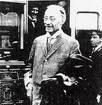



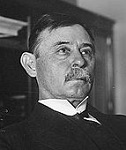
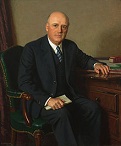
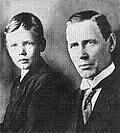





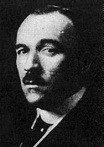














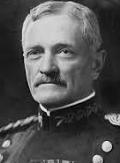























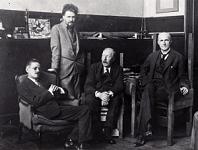



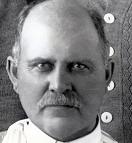
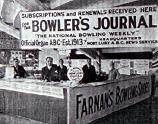







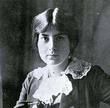


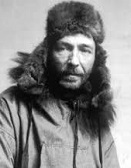
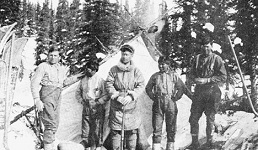
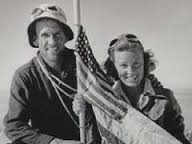










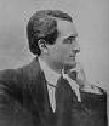



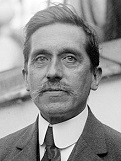
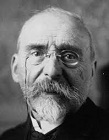




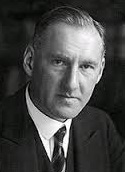


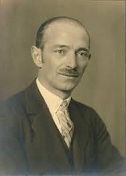




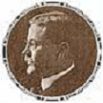

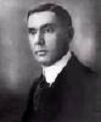
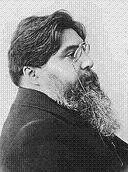











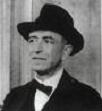


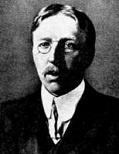











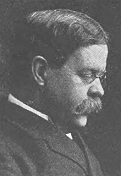

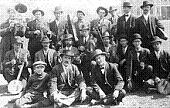





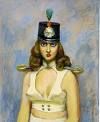
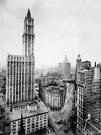

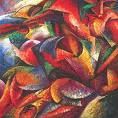




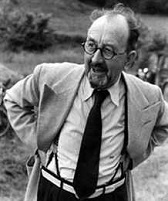



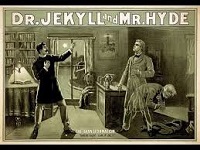
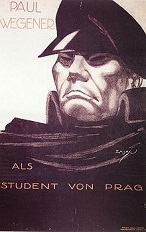










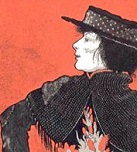
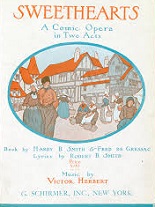




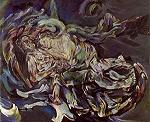





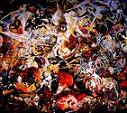

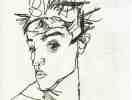
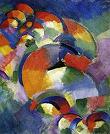


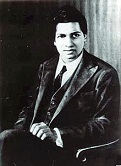
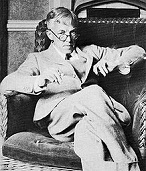
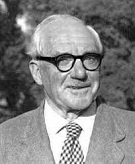
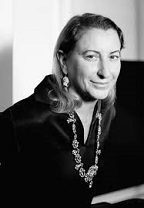







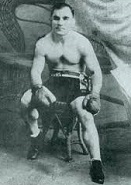



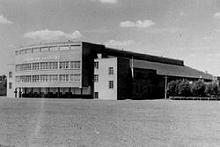
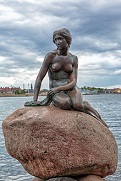
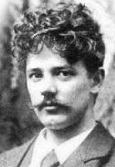
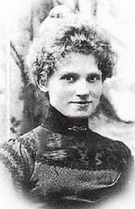

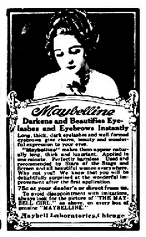
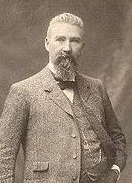
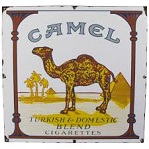
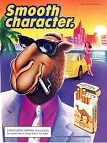
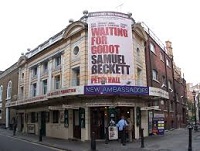
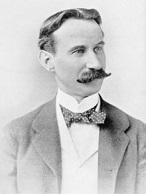
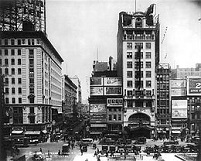
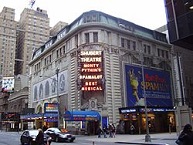
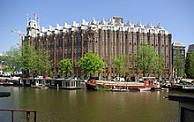
1913
Chinese Year: Ox - oxtrot?
U.S. federal expenditures: $970M.
By 1913 Britain, France, Germany, and Austria-Hungary have doubled
their military spending levels back in 1890; Russia has only increased theirs 19%.
Extensive advertising causes immigration to Canada to reach 400K this year, from 21K in 1897, 67K in 1902, and 125K in 1903.
On Jan. 11 Mongolia and Tibet recognize each other in a
treaty of friendship and alliance signed in Urga; on Nov. 5 the
Chinese Repub. recognizes the autonomy of Outer Mongolia along with its treaty with Russia of 1912; meanwhile the 13th Dalai Lama proclaims Tibet a "religious and independent nation".
On Jan. 11-25 the Hudson, the first sedan-type automobile goes on display at the
13th Nat. Automobile Show in New York City.
On Jan. 15 Aston Martin Lagonda Ltd.
(originally Bamford & Martin Ltd.) is founded in Kensington, London, England by Cornish racing enthusiast
Lionel Walker Birch Martin (1878-1945)
and English financier Robert Bamford (1883-1942)
to produce luxury grand touring cars; in 1914 Martin wins a big V at the Aston Hill Climb
in Buckinghamshire in a Singer 10, later used for the co. name; in Mar. 1915 they produce their first
lightweight sports car with a Coventry-Simplex engine on an Isotta Fraschini chassis, but production
is suspended until 1919 because of WWI; in 1920 Bamford drops out, and Martin gets the backing
of Count Louis Zborowski, producing cars to compete in the French Grand Prix which set world speed
and endurance records at Brooklands; in 1924 Zborowski is killed in a racing accident at the
Monza Grand Prix, and the co. is saved from bankruptcy by Lady Charnwood, who renames it to
Aston-Martin Ltd., only to go bankrupt anyway in 1925, causing Martin to leave in 1926, and it is
acquired by Bill Renwick and Augustus "Bert" Bertelli, who move the factory to Feltham, Middlesex; in 1947-72 it is acquired by Sir
David Brown (1904-93);
in 1994 it is acquired by Ford Motor Co., which in 2007 sells it to a consortium of investors
led by David Pender Richards (1952-); in
1963-5 the Aston Martin DB5
(named after David Brown) is produced, becoming famous as James Bond 007's car in the 1964 film "Goldfinger".
On Jan. 16 self-taught Indian mathematician Srinivasa Iyengar Ramanujan (1887-1920)
writes to English mathematician Godfrey Harold "G.H." Hardy (1877-1947),
wowing him with lists of unknown theorems, "the one romantic incident in my life" (Hardy), deciding that they "must be true, because if they were
not true, no one would have the imagination to invent them", bringing him from Madras to Cambridge in 1914, getting elected a fellow of
Trinity College on Oct. 13, 1918; too bad, he returns to Madras in 1919, and dies of TB (amoebiasis?) on Apr. 26, 1920; in 1911 Hardy begins a
collaboration with English mathematician John Edensor Littlewood (1885-1977)
leading English mathematicians away from applied math a la Isaac Newton to the Continental rigorous theoretical type; on July 10, 1908 Hardy pub.
Mendelian Proportions in a Mixed Population,
announcing the Hardy-Weinberg Principle
that allele and genotype frequencies in a breeding pop. remain constant over generations unless disturbed by evolutionary influences incl.
mate choice, mutation, selection, genetic drift, gene flow and meiotic drive; in 1940 Hardy pub. his autobio.
A Mathematician's Apology,
which laments the passing of his creative powers;
"I believe that mathematical reality lies outside us, that our function is to discover or observe it, and that the theorems which we prove, and which
we describe grandiloquently as our 'creations', are simply the notes of our observations" (Hardy);
"I read in the proof sheets of Hardy on Ramanujan: 'As someone said, each of the positive integers was one of his personal friends.' My reaction
was, 'I Wonder who said that; I wish I had." (Littlewood);
"Before creation, God did just pure mathematics. Then He thought it would be a pleasant change to do some applied." (Littlewood)
On Jan. 27 the Paterson Silk Strike
in Paterson, N.J., led by the IWW (Wobblies) begins, demanding 8-hour workdays and better working conditions, and lasts 5 mo. (until July 28)
before being brutally crushed by the pigs, with 1.85K strikers arrested; Greenwich Village artists stage a play to raise funds - Wobblies wobble but they don't fall down?
On Jan. 23 after the Divan (Turkish Nat. Assembly) agrees to the peace terms of the London Conference, which incl. surrendering Adrianople (Edirne)
to the Bulgarians (until 1922), Enver Pasha leads a coup organized by the Committee of Union and Progress, bringing the
Young Turks
to power in Turkey; on Mar. 28 the Bulgarians, assisted by the Serbs capture Adrianople; a second peace conference convenes in London on May 20.
In Jan. after newspaper headlines announce that he once played pro baseball, U.S. athlete (mixed Amerindian and white)
James Francis "Jim" Thorpe (1888-1953)
is stripped of the two gold medals he won in the 1912 Olympic Games and his amateur status revoked because in 1909-10
he received $2 a game for playing semi-pro baseball in the Eastern Carolina League in Rocky Mount, N.C., but didn't use an alias like other college summer players; his runner-up,
Karl Hugo Wieslander (1899-1976)
of Sweden refuses to accept Thorpe's decathlon medal; when Thorpe's medals are reinstated, he is declared joint winner.
6 score and 17 (1913 - 1776 = 137) years into Project U.S.A., a silent coup by bankers J.P. Morgan, John D. Rockefeller, and Paul Warburg ends the
freedom of Americans with the most insidious attack on individual liberty, which slides in real easy, puts out hooks, and can't be pulled out without
gutting the patient?
On Feb. 3 the Sixteenth (16th) (XVI) Amendment
to the U.S. Constitution, giving Congress the power to levy an individual income tax,
written by U.S. rep. (D-Tenn.) Cordell Hull (1871-1955)
is ratified (not really, but Philander Knox lies to the public to get it in for his banker buddies?), and goes into effect on Feb. 25, along with a
home mortgage deduction; too bad, the big secret that "income" can only constitutionally mean profits from corporate activity and not wages for labor is
not grasped by the masses, and as the decades go by the greedy govt. begins grooming suckers to accept their word games and let them impose income tax
on wages, gambling winnings, etc., then institute automatic tax withholding, finally tricking them into "voluntarily" filing income tax returns without
a law requiring them to do so, then using the laws of perjury to "catch" them in lying, assess them penalties and interest, and file liens and seize
property from helpless people unable to pay lawyers to fight back, thereby enslaving the U.S. pop. in a Communist Manifesto-inspired effort to redistribute
income and set up a New World Order One World Govt.?; the whole idea goes back to the Roman Catholic Church and its 1166 income tax to help take back the
Holy Land?; initially the payment date each year is June 30 - (6 + 30 = 36 = six sixes); 13 16 19 (one 3 one 6 one 9 = one 18 = one 6+6+6?
On Feb. 9 the Mexican military garrison at
Tacubaya
rebels against pres. Francisco Madero (b. 1873) and attacks the Nat. Palace in Mexico City; the rebels are driven back to the Citadel, beginning the 10-day
Decena Tragica
artillery battle (ends Feb. 22), in which many civilians are killed; on
Feb. 18 turncoat Army CIC Gen. Victoriano Huerta (1854-1916),
backed by U.S. ambassador Henry Lane Wilson (1859-1932)
arrests Madero and his vice-pres., and assumes control of the govt., then has Madero and the vice-pres. assassinated by his soldiers while
awaiting trial on treason charges; never fear, Speedy Gonzalez and Slowpoke Rodriguez, er, Pancho Villa and
Emiliano Zapata (1879-1919)
join Coahuila gov. (since 1911) Venustiano Carranza Garza (1859-1920)
(the "first chief" of the rev. Constitutionalists) in the fight against Huerta and his Yankee puppetmasters - arriba, andale, ai, ahaha?
On Feb. 10 German chief of staff Gen. Helmuth von Moltke tells Austrian chief of staff Gen. Conrad von Hoetzendorf: "A European war is bound to come sooner or later,
in which the issue will be one of a struggle between Germandom and Slavdom", and that "To prepare themselves for that contingency is the duty of all states
which are the champions of Germanic ideals and culture"; von Moltke adds that such a war "necessitates the readiness of the people to make sacrifices, and popular
enthusiasm"; Hoetzendorf goes on to
formally request
permission to attack Serbia 25x this year - this show is about what's gotta be said?
On Feb. 15-Mar. 15 the 1913 Armory Show in New York City at the 69th Regiment Armory, organized by self-made wealthy Irish-Am. atty.
John Quinn (1870-1924) (the spokesman, who got the
1909 Payne-Aldrich Tariff Act
repealed that retained the duty on foreign art works less than 20 years old, allowing Americans to afford modern Euro art),
Arthur Bowen Davies (1862-1928),
Mabel Dodge Luhan (1879-1962),
Walt Kuhn(1880-1949) et al. displays works by
Maurice Prendergast (1859-1924),
Henri Matisse (1869-1954),
John Sloan (1871-1951),
John Marin (1870-1953),
Pablo Picasso (1881-1973),
Marcel Duchamp (1887-1968), and
Stuart Davis (1894-1964),
introducing the U.S. public to the brave new world of modern art (Symbolism, Impressionism, Post-Impressionism, Neo-Impressionism, and Cubism);
although many diss it, it starts to win supporters before moving on to Chicago and Boston;
Quinn becomes a big patron of the arts, supporting and defending William Butler Yeats (1865-1939),
James Joyce (1882-1941), T.S. Eliot (1888-1965), Ezra Pound (1885-1972) and other struggling tortured misunderstood souls;
when he dies he leaves the single largest collection of modern Euro paintings in the world.
On Feb. 18 PM (since 1912) Raymond (Raimond) Poincare (Poincaré) (1860-1934)
is elected pres. #10 of France (until Feb. 18, 1920), deciding to pursue a hardline anti-German policy, soon visiting
England and restoring ties with Russia; on Mar. 22 Jean Louis Barthou (1862-1934) becomes PM #78 of France (until Dec. 9);
France increases its army by extending the required military service from two to three years.
On Mar. 1 the U.S. Webb-Kenyon Act is passed, prohibiting the interstate shipment of alcoholic beverages to dry states.
On Mar. 3 (day before Wilson's inauguration) the Nat. Am. Woman Suffrage Assoc. (NAWSA) (founded in 1869 in
Boston, Mass. as the Am. Woman Suffrage Assoc. and merged into the rival Nat. Woman Suffrage Assoc. in 1890, becoming the Nat. Am. Woman Suffrage Assoc., led by Susan B. Anthony and Elizabeth Cady Stanton)
stages a parade for women's suffrage in Washington, D.C.; members from across the U.S. incl. Holly Springs, Miss.-born (into slavery) African-Am. journalist
Ida Bell Wells-Barnett (1862-1931), who is told that all black suffragists are to walk at the back of the parade, but slips
into the white Chicago delegation and gets away with it.
On Mar. 4 (a.m.) on his last morning in office Pres. Taft signs the Sulzer Law, creating the U.S. Dept. of Labor.
On Mar. 4 (Tues.) Va.-born "Schoolmaster in Politics" (Ph.D. in govt. - only pres. with a Ph.D. until ?) Thomas Woodrow Wilson (1856-1924)
becomes the 28th U.S. pres. (until Mar. 4, 1921) in the 37th U.S. Pres. Inauguration in Washington, D.C.
(only pres. to share a surname with a British PM?); Ind. gov. #27 (since 1909) Thomas Riley Marshall (1854-1925)
becomes the 28th U.S. vice-pres. (until Mar. 4, 1921); the Dem. Party controls both Congress and the White House for the first time in 20 years;
Wilson's First Inaugural Address (first to be delivered to both houses of Congress in person)
promises an end to tariffs, and offers a vision of a progressive nat. govt. that breaks up concentrated financial power (the New Freedom), causing the progressive Repubs. to back his
Dem. Congress in a raft of new legislation; "Nowhere else in the world have noble men and women exhibited in more striking forms the beauty and the energy of sympathy and helpfulness and
counsel in their efforts to rectify wrong, alleviate suffering, and set the weak in the way of strength and hope"; Wilson prohibits inaugural balls:
he repudiates Taft's dollar diplomacy in China; he discontinues the tradition of inaugural balls this year and again in 1917; First Lady is
Ellen Louise Axson Wilson (1860-1914) (dies Aug. 6, 1914); Taft, saying "I'm glad to be going" returns to Yale U. to teach law; on
Mar. 5 Pres. Wilson appoints atty. (vice-chancellor of N.J. from 1904) Lindley Miller Garrison (1864-1932)
as U.S. war secy. #46 (until Feb. 10, 1916); on Mar. 6 he appoints Calif. conservationist atty. Franklin Knight Lane (1864-1921)
as U.S. interior secy. #26 (until Mar. 1, 1920) (a payoff
for passing the U.S. Paul Raker Act this year, creating the
Hetch-Hetchy Reservoir in Yosemite Nat. Park against opposition by the Sierra Club to provide greedy San Francisco with a water supply?),
William Gibbs McAdoo (1863-1941) (pres. of the Hudson and Manhattan Railroad Co., which built the first underwater railway tunnels
between Manhattan and N.J. in 1908) as treasury secy. #46 (until Dec. 15, 1918), David Franklin Houston (1866-1940)
as U.S. agriculture secy. #5 (until Feb. 2, 1920), publisher Walter Hines Page (1855-1918)
(partner of Frank N. Doubleday) as U.S. ambassador to Britain (until 1918), "Old South" novelist Thomas Nelson Page (1853-1922)
as U.S. ambassador to Italy (until 1919), and German-born Jewish atty. Henry Morgenthau Sr. (1856-1946)
as U.S. ambassador to Turkey (until 1916), who goes on to unsuccessfully lobby the sultan to stop the Armenian Genocide; on Mar. 17 after his cousin Theodore Roosevelt's splitting of the Repubs.
paves the way for him, Franklin Delano Roosevelt is given Theodore's old job of asst. secy. of the Navy (until Aug. 26, 1920); during the Great War Wilson grazes sheep on the White House Lawn.
On Mar. 4 Roane County, Tenn.-born, Windom, Tex.-raised Dem. schoolteacher Samuel Taliaferro "Sam" Rayburn (1882-1961)
becomes U.S. Rep. from the 4th district of Tex. (until Nov. 16, 1961), going on to become House majority leader on Jan. 3, 1937-Sept. 16, 1940, House dean #37 on Jan. 3, 1953, and
House Speaker #43 on Jan. 3, 1955 (until Nov. 16, 1961), becoming the longest-serving House Speaker (until ?).
On Mar. 4 the U.S. Mint discontinues the Liberty Head nickel (begun 1883), and begins issuing the Buffalo Nickel
(until 1938), signaling that the U.S. govt. believes the Indians and buffalo to be extinct?; in 2005 the buffalo nickel is
reissued with the Am. Indian side replaced by Thomas Jefferson.
On Mar. 18 12 days before his 50th anniv. as Greek king (since 1863), George I (b. 1845) is assassinated in Salonika (Thessaloniki) near the
White Tower by Socialist alcoholic bum Alexandros (Alekos) Schinas (b. 187?)
for refusing to give him money (falling to his death six weeks later from the window of the police station after being tortured), and is
succeeded by his son Constantine I (1868-1923)
as king of Greece (until June 11, 1917).
On Mar. 20 Kuomintang stalwart Song Jiaoren (b. 1882)
is gunned down on a railway station platform in Shanghai.
On Mar. 31 John Pierpont Morgan Sr. (1837) dies in Rome, and his son
John Pierpont "Jack" Morgan Jr. (1867-1943)
inherits his empire, going on to become a major financier of WWII, loaning $12M to Russia, $50M to France, and $500M to the Allies,
making sure the Brits get plenty of arms from the U.S.
On Apr. 1 the first annual Georgia Old-Time Fiddlers' Convention
(last in 1935) in Atlanta, Ga. is won by Fannin County, Ga.-born
Fiddlin' John Carson (1868-1949),
er, he comes in 4th, and J.B. Singley wins, but he wins in 1914, 1923, and 1927, causing Tenn. gov. Robert L. Taylor to give him the nickname Fiddlin' John;
after touring for political campaigns, he makes his radio debut on Sept. 9, 1922 at Atlanta radio station WSB, gaining nat. fame.
On Apr. 8 the newly elected Chinese parliament convenes, and on Apr. 21 Pres. Yuan Shikai obtains a "reorganization loan" of £25M from Britain, France,
Russia and Japan, secured by the salt tax, but this only stirs fears about his intentions, causing a
Second Chinese Rev. on
July 10 in the S provinces, which is soon quashed by Yuan's forces; Nanking is taken on Sept. 1.
On May 10 10K women suffragists dressed in long white dresses, plus 500 men parade down Fifth Ave. in New York City before 500K onlookers
(mainly men)carrying signs reminding them of their victories in various states - don't mess with us?
On May 26 the Actors' Equity Assoc. (AEA)
labor union is organized by 12 theater actors in New York City, with actor-playwright
Francis Wilson (1854-1935) as pres. #1,
working along with the Am. Guild of Variety Artists (AGVA) (founded 1939) and the Screen Actors Guild (SAG) (founded 1912).
On May 30 the Canadian Senate defeats a bill to provide three dreadnoughts to the British imperial navy.
On May 30 after the Bulgarians take Adrianople, causing Turkey to sign an armistice with them, the
Treaty of London
between Turkey and the Balkan states ends the First Balkan War (begun Oct. 18, 1912),
but Bulgaria still wants to control Macedonia, and on June 16 it attacks Serbia and Greece, starting the
Second Balkan War,
causing Russia to declare war on Bulgaria, and Enver Pasha to gain renown by
seizing Adrianople from Bulgaria on July 22; on Aug. 10 the Bulgarians sign the
Treaty of Bucharest,
agreeing to a Bulgarian-Turkish frontier in Thrace, giving Bulgaria an outlet on
the Aegean Sea with access to the Mediterranean; Romania obtains the 3K-sq.-mi.
Southern Drobuja region, making it the largest Balkan power;
Greece (whose king is married to the Kaiser's sister) annexes the coastal region of
Thrace from Turkey, denying Serbia access to the Aegean Sea.
In May the Syracuse Herald first pub.
the phrase "straight from the horse's mouth".
On June 2 Alfred Austin (b. 1835) dies, and PM Herbert Asquith appoints deeply Christian physician-poet
Robert Seymour Bridges (1844-1930) as poet laureate of England (until Apr. 21, 1930).
On June 7 British-born Episcopal priest Hudson Stuck (1863-1920)
(archdeacon of the Yukon and the Arctic since 1904), Am. climbing guide
Henry Peters "Harry" Karstens (1878-1955),
Alaskan native guide Walter Harper (1893-1918), and
Am. Episcopal preist Robert George Tatum (1891-1964),
become the first to reach the summit of 20.5K-ft. Mt. McKinley AKA Mt. Denali (Athabascan "the great one") in Alaska,
going by the South Summit; in 1951 Am. mountaineer Henry Bradford Washburn Jr. (1910-2007)
(founder of the Boston Museum of Science) summits via the West Buttress route, which becomes the most popular - don't get stuck?
On June 10 Count Istvan Tisza de Borosjeno et Szeged (1861-1918)
becomes PM of Hungary again (until June 15, 1917) (first time 1903-5), becoming a major behind-the-scenes player in the diplomatic action leading to the Great War.
On June 19 the Native (Black) Land Act
reserves the Transkeian Territories in South Africa for black occupation.
On June 18-23 after anger caused by Jewish immigration, the First Arab Congress
is held in Paris to discuss the granting of more autonomy to Arabs by the crumbling Ottomans, launching Arab nationalism; in Aug. 1922 the Fifth Arab Congress is held
in Nablus, followed in June 1923 by the Sixth Arab Congress in Jaffa, followed in June 1928 by the Seventh Arab Congress in Beisan.
On June 21 5'0" 85 lb. Oxford, N.C.-born "Doll Girl" Georgia Ann Thompson "Tiny" Broadwick (1893-1978)
becomes the first woman to parachute from an airplane over Los Angeles, Calif., piloted by Glenn L. Martin, going on to become the first woman to parachute into water,
and the first to jump free-fall, retiring in 1922 after making 1.1K jumps.
On June 24 Sir Joseph Cook (1860-1947) becomes PM #9 of Australia (until Sept. 17, 1914).
In June German chancellor Theobald von Bethmann-Hollweg tells a friend: "It is high time that the great nations calmed down again and occupied
themselves with peaceful pursuits, or there will be an explosion which no one desires and which will be to the detriment of all"; meanwhile
Winston Churchill privately tells German London naval attache Capt. E. von Muller (Müller)
that he still desires a pause in naval expansion by both Britain and Germany; too bad, British-hating Muller tells German Adm.
Alfred Peter Friedrich von Tirpitz (1849-1930) that Churchill just wants to keep Germany from naval superiority,
prejudicing the Kaiser against the idea of a pause, causing German foreign secy. (1913-16)
Gottlieb von Jagow (1863-1935) in June 1914 to complain to the German London ambassador: "This everlasting
baiting and calumniation of English policy is extraordinarily disturbing, especially since it is always used in high places [the Kaiser] in argument
against me"; he later blames the war on the "damned system of alliances".
On July 1 the U.S. Standards Bureau becomes the
Nat. Bureau of Standards under the Dept. of Commerce; in Dec. it receives the
U.S. Curie Standard of radium - that way the feds can devise more social engineering laws to get around the limitation of powers
of the U.S. Constitution under the guise of laws regulating interstate commerce, and develop their own nukes on the side?
On July 1 the 1913 N U.S. Heat Wave begins, with 20 straight days of 100+ F and 81+ days of 90+F, killing 40 in
Chicago, Ill. and 11 in Detroit, Mich., and driving people insane in New York City; on July 10 Death Valley, Calif.
reaches a record high air temp of 134F (56.7C) at Furnace Creek in Greenland Ranch (highest recorded on Earth until ?); on July 8-14 temps are 128F and higher, incl. 130F on July 12 and 131F on July 13.
The original Patsy Ramsey?
On July 8 Pearl Lenore Curran (1883-1937) (Mrs. J.H. Curran) of St. Louis, Mo. attends a seance,
and her hand on the Ouija Board traces out the name Patience Worth,
who tells of her birth in Dorset, England in the late 17th cent., followed by emigration to America and eventual death at the hands of an Indian
war party; she follows the act with a series of historical novels, sometimes writing two simultaneously with different hands, incl.
The Sorry Tale (about Christ),
Hope Trueblood (19th cent. Victorian tale), and her big hit
Telka: An Idyl of Medieval England, a play written in medieval English.
On July 10 after a record hot summer Death Valley, Calif.
reaches a high air temp of 134F (56.7C) at Furnace Creek in Greenland Ranch (record highest on Earth); on July 8-14 temps are 128 and higher, incl. 130F on July 12 and
131F on July 13; this is followed by the record highest ground surface temp on Earth of 201F (93.9C) on July 15, 1917.
On Aug. 13 Italian PM (since Mar. 30, 1911) Giovanni Giolitti (1842-1928)
receives a telegram
from Austria-Hungary, informing him of their intention of invading Serbia and hoping for support from Italy and Germany.
On Aug. 13 German Social Dem. leader August Bebel (b. 1840) dies, and is succeeded by
Friedrich "Fritz" Ebert Sr. (1871-1925).
On Aug. 13 Britain and Germany begin secret negotiations to create potential spheres of influence in Portugal's African possessions; they are finalized on Oct. 20.
On Aug. 21 Francis Burton Harrison (1873-1957)
is appointed gov. of the Philippines (until 1921), replacing William Howard Taft, going on to work for Philippine independence and increases the number of Filipinos in the govt.
On Sept. 9 Russian army pilot Pyotr Nikolayevich Nesterov (1887-1914)
flies the first air loop in a 70 hp Nieuport IV monoplane, followed on Sept. 21 by French army pilot
Adolphe Celestin Pegoud Adolphe (Célestin Pégoud) (1889-1915) in a Bleriot Model XI monopolane,
who also becomes the first pilot to make a parachute jump from an airplane; Nesterov goes on to found aerial aerobatics and become the first WWI fighter ace,
ending up getting too brave and getting killed trying to ram an Austrian plane in WWI.
On Sept. 23 the Colo. Coalfield War begins (ends Dec. 1914)
in S Colo., becoming the deadliest strike in U.S. history (until ?).
In Sept. Swiss psychiatrist Carl Gustav Jung (1875-1961)
meets for the last time with his mentor Sigmund Freud in Munich, after which they split and go their separate ways, with Jung citing Freud's refusal
to acknowledge religion and spirituality, going on to found Analytical (Jungian) Psychology;
Jung allegedly has a vision of a "monstrous flood" engulfing Europe - The original I'm a Ford truck man, or, No three comfort zones, no three rows of seats?
On Oct. 3 after Pres. Woodrow Wilson summons a special session of Congress in Apr. to consider the tariff question, the
U.S. Underwood-Simmons Tariff (Revenue) Act of 1913,
sponsored by U.S. Rep. (D-Ala, 1897-1915) (chmn. of the House Ways and Means Committee)
Oscar Wilder Underwood (1862-1929) (anti-KKK) and
U.S. Sen. (D-N.C.) (1901-31) Furnifold McLendel Simmons (1854-1940) (pro-KKK)
reimposes the federal income tax, lowers basic tariff rates from 40% to 25%, and removes restrictions on importation of Philippine goods into the U.S.
On Oct. 3-4 2K soldiers and sailors rebel, resulting on Oct. 5 in the naval
Oct. 5 Rev.
On Oct. 4 Theodore Roosevelt (1858-1919)
goes on an expedition to Brazil, saying "it was my last chance to be a boy"; he arrives on Oct. 18, hooks up with his engineer son Kermit Roosevelt at
the insistence of mother Edith, and abandons his tame planned itinerary for one that is more dangerous, saying "I have had my full share, and if it is
necessary for me to leave my bones in South America, I am quite ready to do so"; accompanied by his son and Brazilian Col.
Candido Randon (1865-1958),
he enters the jungle on Dec. 25, reaching the Rio da Duvida (River of Doubt) and trying to chart it while fighting the Cinta Larga cannibal tribe and
poisonous animals, incl. the transparent parasitic candiru catfish; he returns on May 19, 1914, having lost 60 lbs. and developed a bad right leg which kills him
in less than five years; the river is renamed Rio Roosevelt.
On Oct. 6 Yuan Shikai is elected pres. of China, with Gen. Li Yuanhong as vice-pres., and the new constitution is adopted; on Oct. 7 Yuan
recognizes the independence of Tibet, and Britain diplomatically recognizes the Repub. of China; on Nov. 4 Yuan purges the parliament
of Kuomintang members, and outlaws it, causing Sun Yat-Sen to flee to Japan by the end of Nov.
On Oct. 7-11 the Philadelphia Athletics (AL) (mgr. Connie Mack) defeat the New York Giants (NL) (mgr. John McGraw) 4-1 to win the
Tenth (10th) World Series;
3rd straight WS loss for the Giants (first time Detroit Tigers in 1907-9) (next ?).
On Oct. 27 A Coruna, Galicia-born Eduardo Dato e Iradier (1856-1921)
becomes PM of Spain (until Dec. 9, 1915, then June 11, 1917-Nov. 3, 1917, then Apr. 28, 1920-Mar. 8, 1921), serving as pres. of the
Spanish Congress of Deputiex 4x; too bad, he becomes a symbol of the establishment, making him a target for anarchists.
In Oct. German chancellor Theobald von Bethmann-Hollweg and German chief of staff Gen. Helmuth von Moltke warn Austria not to make war with Serbia over the issue; on
Oct. 16 the 100th anniv. of Napoleon's defeat in Leipzig by Prussia, Austria, Russia, and Sweden in the Battle of the Nations is presided over by Kaiser Wilhelm II,
who tells Austrian chief of staff Conrad von Hoetzendorf that he supports an Austrian military action to force Serbia out of Albania, with the soundbyte:
"I am with you there... Within a few days you must be in Belgrade. I was always a partisan of peace, but this has its limits. I have read much
about war and know what it means, but finally a situation arises in which a great power can no longer just look on, but must draw the sword"; on
Oct. 18 the Austrian govt. sends Serbia the Albanian Ultimatum
(causing the Kaiser to send a congratulatory telegram to Austrian emperor Franz Josef
and his heir apparent nephew Franz Ferdinand), giving it eight days to evacuate, causing
the Serbs to back down and comply on Oct. 26 after Russia sits it out, causing Leipzig-born British diplomat Sir
Eyre Alexander Barby Wisbart Crowe (1864-1925)
to utter the soundbyte "Austria has broken loose from the concert of powers in order to seek a solution single-handed of a question hitherto
treated as concerning all powers", followed on Oct. 27 by German acting foreign minister Alfred Zimmerman (1864-1940)
telling British Berlin ambassador Sir Edward Goschen that "He had been surprised that the emperor of Austria endorses a policy which, under certain circumstances, might lead to serious consequences,
but he had done so, and that made it clearer still that restraining advice at Vienna on the part of Germany was out of the question"; on
Oct. 31 Sir Eyre Crowe comments that the German approval of Austria's ultimatum "confirms the impression that Germany, pretending to us that she altogether
disapproved and regretted the Austrian attitude, has throughout encouraged her ally"; on Nov. 11 another
peace treaty
is signed by Turkey and Greece, with Turkey under Austrian pressure agreeing to the creation of an independent Albania to cut Serbia off from the Adriatic Sea.
On Oct. 22 a coal mine explosion in the Stag Canyon No. 2 Mine
in Dawson, N.M. kills 253 of 286 miners and two rescuers.
On Oct. 22 the Theatre du Vieux-Colombier
of producer-dir. Jacques Copeau (1879-1949)
opens in Paris, with the agenda of returning theater from crass commercial entertainment to true art; too bad, WWI shuts it down, and he gives a lecture tour
in the U.S. in 1917, where he is billed as the "arch-rebel of the French theater", gaining acclaim and bringing his troupe in Nov., staying through 1919, and
reopening his theater on Feb. 9, 1920, performing in France throughout the decade with his nephew, actor-dir.
Michel Saint-Denis (1897-1971).
On Oct. 28 the Zabern (Saverne) Affair
(ends 1914) in Alsace-Lorraine endangers Franco-German relations after Prussian 2nd lt.
Gunter Freiherr von Forstner (1893-1915)
insults the local Alsatian pop. with the soundbyte "If you are attacked, use your weapon; if you stab a Wackes ("square head") (Alsatian) then I'll give you 10 marks",
after which the newspapers sensationalize it and on Nov. 28 an angry mob at the military barracks causes the Prussians to strike back, arresting a bunch of them, incl. leading politicians and
judges; on Dec. 2 Forstner hits a heckling shoemaker with his saber and is given 43 days by a military court, which is reversed on appeal; on Dec. 4 the Reichstag returns its first vote of
no-confidence in the govt. in history (293-4-53), triggering rallies in 17 German cities on Dec. 7 protesting the despotic rule of the Prussians and bringing up all the old sayings
("Prussia was hatched from a cannon ball" - Napoleon) ("War is the national industry of Prussia" - Mirabeau), which Kaiser Wilhelm II responds to by moving the Saverne units on Dec. 5,
ordering a govt. whitewash, and issuing a new regulation prohibiting military force against civilians next Mar. 19 (abolished by the Nazis in 1936), after which the affair cools down, although
the Wackes never trust the Prussians again?;
in 1915 Forstner goes down in history a 2nd time when he claims to sight a 60-ft. Plesiosaur
from his U-boat U-28 while sinking British ship SS Iberian.
On Nov. 5 after Prince Luitpold dies in 1912 and his son Prince Ludwig becomes insane king Otto I's regent, causing cries that it's time to get glad, the constitution is changed,
permitting conservative Roman Catholic "Rerum Novarum" thumping Wittelsbach Ludwig III (1845-1921) (father of Crown Prince Rupprecht)
to become the last king of Bavaria (until Nov. 13, 1918).
On Nov. 9-11 the 1913 Great Lakes Hurricane ravages the Great Lakes.
On Nov. 25 Pres. Wilson's daughter Jessie Wilson (1887-1933)
marries Francis Bowes Sayre in the White House East Room in a large and elegant wedding, after which the House of Reps. sends her a diamond necklace, while
the Senate sends her a 14-piece silver service; the fifth daughter of a pres. to be married in the White House (next 1914).
On Dec. 1-4 the Colo. Blizzard of 1913
dumps 4-6 ft. of snow along the Colo. Front Range incl. Denver, becoming the worst snowstorm (until ?).
On Dec. 2 Pres. Wilson gives his First Annual Message to Congress,
becoming the first pres. since John Adams in 1801 to deliver it in person, preferring not to just submit a written report.
On Dec. 2 High Mass is celebrated in Vienna to celebrate the 65th anniv. of the succession
of Austrian emperor Franz Josef, the longest-reigning European monarch so far.
On Dec. 9 Pierre Paul Henri Gaston Doumergue (1861-1937)
becomes French PM #79 (until June 9, 1914).
On Dec. 12 Ethiopian (Abyssinian) emperor (since 1889) Menelik II (b. 1844) has a stroke and dies after eating the entire Book of Kings torn from an Egyptian ed. of the Bible
(he had been eating Bible pages all his life for cures); he is succeeded by his son Lij Yasu (1891-1917),
who makes the mistake of converting to Islam and having communications with the Mad Mullah Sayyid Muhamma, pissing-off the Ethiopian
Christian Church - this time he picked the wrong chapter?
On Dec. 21 the first Crossword Puzzle
("word cross"), by Liverpool, England-born Arthur Wynne (1862-1945)
is pub. in the Sunday supplement to the New York World, becoming a regular feature and attracting contributors
who get frequent mention in "The Conning Tower" column by
Franklin Pierce Adams (1881-1960);
the first clue is "What bargain hunters enjoy" (sales); after the short spaces get filled too many times with stock words, Winston Churchill
quips: "I should think that ninety percent of the people believe that there was but one Roman Emperor and that his name was Nero."
On Dec. 23 taking advantage of Christmas vacation, the depleted U.S. Congress (bribed by the 16th Amendment banking group?) passes the
U.S. Federal Reserve Act
(a fraud because it requires a constitutional amendment?), based on the work of political economist
James Laurence Laughlin (1850-1933)
of the U. of Chicago, and Jewish German-Am. banker
Paul Moritz Warburg (1868-1932);
the Federal Reserve System (Fed)
is created, with Warburg one of its initial members, with Congress handing it its power to coin money and regulate the value thereof, and
turning itself into a customer borrowing money from it at interest, lowering the living standard of the people so that the bankers can make
more profits; Wilson, who signs it, later utters the soundbyte: "I am a most unhappy man. I have unwittingly ruined my country.
A great industrial nation is now controlled by its system of credit. We are no longer a government by free opinion, no longer a government
by conviction and the vote of the majority, but a government by the opinion and duress of a small group of dominant men";
U.S. Dem. House Speaker (1911-9) Champ Clark unsuccessfully opposes it, after which it's no coincidence that his home state of Mo. becomes
the home of two Federal Reserve Banks (Kansas City, St. Louis) - (a private corporation owned by banks that poses as a govt. agency and
issues money out of thin air in order to dilute its value, steal homes and other real property, and turn the people into serfs, causing
Thomas Jefferson to roll over in his grave?)
On Dec. ? Denver, Colo. is buried under 47 in. of snow.
In Dec. Protestant Ulster in North Ireland revolts.
In Dec. Walroth, London-born vaudeville actor Charles Spencer "Charlie" Chaplin (1889-1977)
arrives at Keystone Studios in Los Angeles suburb Edendale, and begins his amazing film career with a $150/week contract.
Suffragette demonstrations are staged in London.
France absorbs the three kingdoms of Chad into French Equatorial Africa as part of Ubangi-Shari (modern-day Central African Repub.).
After the founding of Sarekat (Dagang) Islam,
a Javanese batik traders cooperative in 1912, which promotes Islamic modernism,
the Aceh War
(begun 1873) in Dutch Indonesia ends after 50K-100K are killed and 1M wounded.
Dinuzulu dies, and his son
Solomon ka Cetshwayo
(1891-1933) becomes king of Zululand (until 1933), going on to found the
Inkatha Freedom Party in the 1928.
Pro-U.S. conservative
Mario Garcia Menocal
(1866-1941) is elected pres. of Cuba (until 1921), defeating pres. (since 1908)
Jose Miguel Gomez, who claims that the election is fraudulent.
The imam of Yemen is granted autonomy by Turkey.
Ismael Montes becomes pres. of Bolivia again (until 1917).
Yuan Shih-kai
is elected pres. of the Chinese Repub.
Franklin D. Roosevelt becomes Wilson's asst. secy. of the U.S. Navy (until 1920).
The Moro Rebellion
in the Philippines (begun 1899) ends after U.S. Gen.
John Joseph "Black Jack" Pershing (1860-1948)
allegedly (probably fiction) executes and buries Islamic rebels with
pig parts, making them fear they
won't achieve paradise and scaring them out of starting another rebellion for 50 years; his
soldiers definitely did
bury Muslims with pigs or pig blood, and Pershing brought a pig's head to a ceasefire negotiation;
is founded after .38 cal. bullets don't stop fanatical Moro warriors, the U.S. Army
begins
using .45 cal. semiautomatic guns.
Ion Bratianu becomes PM of Romania again (until 1918).
Sheik Abdullah bin Jassim Al-Thani (1876-1957)
becomes ruler of Qatar (until Aug. 20, 1948), going on to declare independence from the Ottoman Empire in 1915 and become a
British protectorate in 1916 (until 1971).
Women gain the right to vote in Norway and Iceland.
The first woman magistrate in England is sworn in.
Alaska and Ill. become the 9th-10th U.S. states to give women the vote.
Wilson's secy. of state Williams Jennings Bryan negotiates 24 treaties in which the signatories pledge to observe a cooling-off period of 12 mo. after all other means of
ending a dispute had been exhausted before resorting to the expedient of warry war war.
The Ghadar ("Mutiny") Party is founded in San Francisco, Calif. by expatriate Indian Sikhs and Hindu Pujabis in the U.S. and Canada
to secure India's independence from British rule by military means; after WWI it splits into Communist and anti-Communist factions before being dissolved in 1948.
Borax king Stephen Tyng Mather (1867-1930)
sends a letter to U.S. interior secy. Franklin Knight Lane, calling for nat. parks to be better protected, causing Lane to lobby for a new govt.
bureaucracy, which is created by Congress on Aug. 25, 1916 as the
U.S. Nat. Park Service,
with Mather as dir. #1 (until 1929).
The Leo Frank Case
shows the extent of anti-Jewish prejudice in the Am. South, and leads directly
to the founding of the Anti-Defamation League (ADL)
of B'nai B'rith in Oct. after 29-y.-o. Jewish pencil factory manager
Leo Max Frank (1884-1915)
is framed for the rape-murder of a 13-y.-o. girl who worked in his Atlanta, Ga. factory, railroaded by Ga. politician and KKK man
Thomas Edward "Tom" Watson (1856-1922)
and sentenced to hang; after the sentence is commuted to life imprisonment by the gov., on Aug. 17, 1915 a mob of 40 middle-class whites
called the Knights of Mary Phagan speeds his life up by taking him from the state pen at Milledgeville to the town of Marietta and lynching him;
future U.S. pres. Lyndon Baines Johnson
sees his grandfather Big Sam Johnson and his father Little Sam Johnson work for clemency for Leo Frank, causing the KKK to threaten their lives,
and turning LBJ into a lifelong enemy of the KKK and anti-Semitism.
Aging U.S. postal censor Anthony Comstock (d. 1915) brags to the New York lvening World that in his 40-year career he has destroyed
160 tons of obscene material and convicted "enough persons to fill a passenger train of sixty-one coaches, sixty coaches containing sixty passengers
each and the sixty-first almost full" - that's at least 2,500?
Jewish Liberal MP and atty.-gen. Rufus Isaacs, Lord Reading of Earley (1860-1935)
becomes British lord chief justice (until 1921), and is elevated to the peerage next year, going on to become marquess in 1927, the highest rank
reached by a Jew in British history (until ?) - and it had to be for reading?
Emmeline Pankhurst (1858-1928),
AKA "Mrs. Pankhurst" is sentenced for inciting persons to place an explosive in David Lloyd George's house.
French Gen. Joseph Jacques Cesaire (Césaire) Joffre (1852-1931)
and his chief of staff Gen. Henri Mathias Berthelot (1861-1931),
guided by Gen. Ferdinand Foch (1851-1929)
draw up Plan 17 (XVII),
a defense plan in case of German invasion, which totally ignores a possible advance through
Belgium, and counts on the Russians sending 800K men (on the 18th day) and the British 150K.
The Beilis Affair
sees Ukrainian Jew Menahem Mendel Beilis (Beiliss) (1874-1934)
accused of ritual murder, causing an internat. uproar that makes the Russian govt. back down.
Am. Va. Military Inst. grad. 2nd lt. George C. Marshall (b. 1880) wows the U.S. army chief of staff during maneuvers, who calls him
"the greatest military genius since Stonewall Jackson".
Erasmus U. Rotterdam (EUR)
(originally the Netherlands School of Commerce until 1939, then Netherland School of Economics) is founded in Rotterdam, Netherlands,
named after 15th cent. humanist Desiderius Erasmus Roterodamus, going on to become one of the top-10 business schools in Europe.
The Short Creek Community
is founded in the Ariz. Strip by polygamous Mormon fundamentalists, who found the
Apostolic United Brethren (AUB) AKA The Work, The Group, and The Priesthood.
The Moorish Science Temple of Am.,
claming to be a Muslim sect of "indigenous Moors", aboriginal Negroid paleo-Americans that existed prior to the transatlantic slave trade is
founded in Newark, N.J. by Timothy Drew (1886-1929)
of N.C., after which the sect disintegrates. later moving to Chicago, Ill.
Falcon Island,
in the Tonga Islands 2K mi. E of Australia disappears under the sea, and resurfaces in 1926, then disappears again in 1949.
The London Group
of British artists breaks off from the New English Art Club (1886), going for Cezanne, Gaugin, and Van Gogh, and offering exhibiting opportunities
outside the Royal Academy of Arts; members incl. Wyndham Lewis, Sickert, Epstein, and most of the Camden Town Group (1911).
French child prodigy composer Marie-Juliette Olga "Lili" Boulanger (1893-1918),
sister and student of composer Juliette Nadia Boulanger (1887-1979)
becomes the first woman to win the Prix de Rome scholarship for Faust et Helene.
Calcutta-born Bengali poet Sir Rabindranath Tagore (1861-1941)
becomes the first Asian to win a Nobel Prize (Lit.), going on to become a strong supporter of Mahatma Gandhi.
Beautiful brainy women's libber Scots-Irish writer
Rebecca West (1892-1983) ("woman of the century"?) hooks up with married writer
H.G. (Herbert George) Wells (1866-1946),
and their affair lasts 10 years, during which they bear writer son
Anthony Panther West (1914-87),
after which she hooks up with Charlie Chaplin and Max Aitken, Lord Beaverbrook before finally settling down with banker
Henry Maxwell Andrews (1894-1968) in 1930.
The Golden Rule store chain changes its name to the
J.C. Penney Co.
The Anti-Saloon League
on the occasion of its 20th anniv. announces its campaign to achieve nat. alcohol prohibition through a constitutional amendment - as likely as snow in July?
The 52.1K-ton German turbine passenger liner Imperator begins service.
Diesel-electric railway engines are first used in Sweden.
French aviator Roland Garros (1888-1918)
makes the first nonstop flight across the Mediterranean Sea from Frejus in S France to Bizerte, Tunisia.
The Naval Air Station Pensacola is founded in Pensacola, Fla. at the W end of the Fla. Panhandle,
becoming the first in the U.S., giving the city the nickname "Cradle of Naval Aviation".
John D. Rockefeller founds the Rockefeller Inst.
with a $100M grant, forcing him to live on his remaining $900M - he cleaned out under his bed?
After greedy developers from Los Angeles pose as immigrants to Owens Valley, Calif.,
buy up land and build the Los Angeles Aqueduct,
the Owens Valley farmers fight back in vain until their giant lake is drained and the aqueduct is reduced to a trickle.
The modern cigarette industry is born with the introduction of the Camel
brand by Va.-born tobacconist Richard Joshua "R.J." Reynolds (1850-1918)
of Winston-Salem, N.C. (known for adding saccharin to chewing tobacco), becoming the first packaged pre-rolled
cigarette brand, using Turkish paper and the "American blend" of several types of tobacco, undercutting
competitors and using a unique "teaser" ad campaign to become the first nationally-popular cigarette in the U.S.,
selling 425M packs in the first year, making him the wealthiest man in N.C.; the front features a 1-humped
Dromedary camel, two pyramids, and three palm trees; in 1987
Joe Camel (a phallic symbol?)
becomes the mascot for Camel cigarettes, getting into trouble with the Am. Medical Assoc., which claims
that it appeals too much to children, spurring lawsuits that cause the ads to be pulled on July 12, 1997;
meanwhile the Am. Society for the Control of Cancer, later renamed the
Am. Cancer Society is founded - an
amazing coincidence in timing, which turns into a cent.-long duel with the Devil?
Calif. amends its 1907 Poison Act to outlaw marijuana, amending it again in 1915 to make is stronger.
Ivar Kreuger (1880-1932) founds the
United Swedish Match Factories Co.,
going on to get Euro govts. to give him a monopoly, and becoming known as "the Match King" and
"Prince of the first global finance state", with a fortune of 30B Swedish kronor ($100B), then
getting caught swindling investors out of $400M and becoming known as "the world's greatest swindler"
after the 1929 Stock Market Crash before he commits suicide.
After finishing his course of medicine and surgery (begun 1905) at the U. of Strasbourg is founded, and marrying Helen Bresslau in June 1912, Franco-German "Reverence for Life" brain man
Albert Schweitzer 1875-1965)
opens a hospital in Lambarene (Lambaréné), French Congo (Equatorial Africa)
on the Ogooue River in modern-day Gabon (until 1917), caring for 2K patients the first year;
the French imprison him as a German national during WWI in 1917-8, and he returns in 1924 sans wife,
expanding his hospital and benefitting from new drugs, returning to Europe in 1927, and back to Africa in
1929-32, 1935, and 1937-48, becoming world famous and winning the 1952 Nobel Peace Prize.
The City of Hope NE of Los Angeles, Calif. is founded.
The Children's Museum in Boston, Mass. is founded.
The Am. College of Surgeons is founded, with
Daniel Hale Williams (1856-1931) as its only black member.
The Goetheanum
in Dornach (near Basel), Switzerland is founded by Anthroposophists.
The Atwood Sphere,
the predecessor of the modern planetarium is built.
Edinburgh Zoo
in Scotland opens; Norway presents it with its first king penguin.
Swiss clown Grock the Clown (Charles Adrien Wettach) (1880-1959) becomes a hit in Europe and England, playing a buffoon
who holds his fiddle upside down; in reality he can play 24 instruments and speak several languages.
American Progressivist Herbert David Croly (1869-1930),
who vaulted to prominence with his 1909 book "The Promise of American Life" founds
The New Repub. mag. on Nov. 7
with Walter Lippmann (1889-1974) and
Walter Weyl (1873-1919);
it goes on to "invent the modern usage of the term liberal" (ed. Franklin Foer),
pushing liberals into advocating more govt. interventionism, foreign and domestic; in 1974
Harvard U. New Left lecturer Martin Peretz acquires it for $380K, promoting U.S. support for
Israel and hawkish foreign policy, endorsing independent John B. Anderson over Jimmy Carter for the 1980 U.S. pres. nomination.
Sidney James Webb, 1st Baron Passfield (1859-1947) and
Martha Beatrice Webb (1858-1943)
found the leftist New Statesman mag. in London;
Basil Kingsley Martin (1897-1969) becomes ed. in 1930-60.
Bruno Walter (1876-1962) becomes dir. of the Munich Opera (until 1922).
The MIT-Harvard School of Public Health is founded by bacteriologist
William Thomas Sedgwick (1855-1921)
et al.; in 1915 Sedgwick becomes pres. of the Am. Public Health Assoc.
S.C.-born psychologist John Broadus Watson (1878-1958)
gives the address Psychology as the Behaviorist Views it
at Columbia U., causing a rev., and coining the word "Behaviorism", the rejection of the concept of mind and consciousness - no wonder it's like a party in here?
Workers in Mexico City unearth the SW corner of the Aztec Great Temple.
Quaker State Oil Co. is founded in Oil City, Penn. by Chicago stockbroker
Charles Pape.
The Cleveland Museum of Art is founded.
Prada (originally Fratelli Prada) luxury fashion house is founded in Milan, Italy by brothers
Mario Prada (-1958) and Martino Prada
to sell animal goods and imported English steamer trunks and handbags; in 1978
Miuccia (Maria) Bianchi Prada (1949-) takes over for her mother Luisa Prada, scoring a hit in 1979 with tough military spec
black waterproof backpacks made out of nylon Pocone made out of steamer trunk coverings, giving up English imports, causing U.S. sales to zoom from $450K in 1978 to $31.7M in 1998.
Am. dancing couple Irene Castle (1893-1969) and Vernon Castle (1887-1918)
debut in The Sunshine Girl in New York City.
English ballerina Lydia Sokolova (Hilda Munnings) (1896-1974) joins Sergei Diaghilev's Ballets Russia, becoming its first
English ballerina until it disbands in 1929.
The Sam S. Shubert Theatre at 225 W. 44th St. in Manhattan, N.Y. opens on Oct. 13 with a series of Shakespeare plays,
going on to host "The Chorus Line" for 6,137 perf. starting in 1974; meanwhile the Booth Theatre
at 222 W. 45th St. in Manhattan, N.Y., back-to-back with the Shubert Theatre, named after Edwin Booth, brother of John Wilkes Booth opens on Oct. 16 with Arnold Bennett's "The Great Adventure".
4'10" Ann Pennington (1893-1971) debuts in the Ziegfield Follies, going on to become one of their top attractions, later getting the
Black Bottom dance written for her by Ray Henderson.
Russian silent film dir. Evgeni Bauer (1865-1917) begins making films with producer
Alexander Khanzhonkov (1877-1945), cranking out 70 before croaking of pneumonia in 1917.
Here cum da Jooz to take over Hollywood?
San Francisco, Calif.-born Jesse Louis Lasky (1880-1958) (known for his rimless glasses),
Arthur S. Friend (atty.), Cecil Blount DeMille (1881-1959),
and his brother-in-law Samuel Goldwyn (Goldfish) (Szmuel Gelbfisz) (1879-1974)
found Jesse L. Lasky Feature Play Co. with $26.5K, which on June 28, 1916 becomes Famous Players-Lasky Corp. Stockton-on-Tees, England-born stage dir.
Maurice Elvey (1887-1967) switches to films, starting with "The Great Gold Robbery" (1913), followed by "The Suicide Club" (1914),
"Love in a Wood" (1916), "The Man Who Saved the Empire" (1918), "The Hound of the Baskervilles" (1921), going on to mentor dirs. Carol Reed, David Lean,
and Ronald Neame and discover singer Petula Clark in 1944 at the Royal Albert Hall, giving her a part in "Medal for the General" (1944);
he goes on to dir. almost 200 films by 1957 and produce 50+ films, becoming the most prolific film dir. in British history (until ?).
The Rootes Group is founded in Hawkhurst, Kent, England by
William Edward "Billy" Rootes, 1st Baron Rootes (1894-1964)
to sell cars, becoming the largest car and truck distributor in Britain, going on to use the profits to acquire the Thrupp & Maberly (1926), Commer, Hillman (1929), Humber (1929),
Commer (1929), Karrier (1934), Clement (1935), Talbot (1935), Sunbeam (1935), and Singer (1956) brands; a Sunbeam-Talbot 90 driven by Stirling Moss wins the 1955 Monte Carlo Rally;
after being taken over in stages by Chrysler, it goes defunct in 1971.
The Kenmore
brand name is first used on sewing machines, expanding to washing machines in 1927, vacuum cleaners in 1932, ranges in 1946, dishwashers in 1951, washer-dryer combos in 1957,
microwave ovens in 1971, and continuous-cleaning ceramic cooktop ranges in 1973.
Sports:
On Mar. 8-10 the 1913 Stanley Cup Finals
see Quebec Bulldogs defeat the Sydney Millionaires 2-0, becoming a 2-peat.
On Mar. 10 William J. Knox
of Philly bowls the first perfect 300 game in an ABC tournament in Toledo, Ohio, which is won by Frank Peterson with a 3-game score of
693 vs. 672 for him; Knox also rolls a record 17 straight strikes, which is not equalled until 1967.
On Apr. 16 the first Schneider Trophy (Prize)
(Coupe d'Aviation Maritime Jacques Schneider) for seaplanes in Monaco is won by
Lucien Maurice Prevost (Prévost) (1887-1952)
in a Duperdussin Coupe Schneider at an avg. speed of 45.71 mph (73.56 km/h); after the British win in 1919 in a Sopwith Tabloid at 86.83 mph (139.74 km/h), it is suspended until 1919;
the last race is held in 1931 in Calshot Split, England before 500K spectators, and is won by a Supermarine S.6B at 340.08 mph (547.31 km/h); since this is their 3-peat, the U.K. keeps the trophy.
On May 13 black world heavyweight boxing champ John Arthur "Jack" Johnson (1878-1946)
is railroaded through an all-white federal jury in Chicago, Ill. on trumped-up U.S. Mann (White Slave Traffic) Act charges for supposedly
paying white ho and longtime lover Belle Schreiber
to come meet him while he traveled from Atlantic City to Philadelphia, thus transporting a woman across state lines for an immoral purpose;
after an all-white jury convicts him, he is sentenced to one year and one day in priz in the courtroom of white supremacist judge Kenesaw Mountain Landis despite the alleged offense
taking place before passage of the Mann Act, causing him to flee to Canada then Europe, returning in 1920 to serve his sentence in Leavenworth, Kan.
On May 30 the 1913 (3rd) Indianapolis 500
sees six entrants from Europe vying for the $20K purse, with Jules Goux (1885-1965)
of France winning by a 13-min. margin, becoming the first non-Am. winner, in a car with a 4-cylinder dual overhead camshaft engine, which is widely emulated; Goux allegedly drinks
six bottles of champagne during the race; Charlie Merz drives the final lap with his car on fire to get his prize money.
On May 30 Russian-born 5'3" Jewish-Am. boxer Abraham "Abe the Newsboy" Hollandersky (1887-1966)
defeats Jack Ortega in nine rounds in Panama City to become the first U.S. boxer to win the Panamanian heavyweight title; in 1918 he retires after 1,039 fights since 1905.
On Nov. 1 Notre Dame stuns Army 35-13 at West Point as QB Gus Dorais debuts the forward pass
to running back Knute Rockne, beginning a rivalry with the Army to add to the rivalry with Mich. State U.
On Nov. 8 the monthly Bowlers Journal
is founded by David A. "Dave" Luby (1857-1925) of Chicago, Ill. (until ?).
The Internat. Assoc. of Athletics Federations (IAAF) is founded, and sports are now globalized.
The U.S. wins the Davis Cup of tennis 3-2.
16-y.-o. U.S. amateur Francis DeSales Ouimet (1893-1967) (with a 10-y.-o. caddy)
meets veteran British champ Harry Vardon (1870-1937)
in the greatest U.S. Open golf championship until ?; subject of the 2005 Bill Paxton film
The Greatest Game Ever Played.
Former catcher Wilbert Robinson (1863-1934)
becomes mgr. of the Brooklyn Dodgers (NL) (until 1931), winning league titles in 1916 and 1920.
Architecture:
On Mar. 24 the Palace Theatre
at 1564 Broadway (at West 47th St.) in New York City (cap. 1,743) opens, becoming the home of vaudeville and the #1 booking stage in the U.S.
until 1929 after tyrannical owner Edward Franklin Albee II (1857-1930)
teams with Joseph P. Kennedy to found the Keith-Albee Orpheum Corp. on Jan. 28, 1928,
which is acquired in May by RCA and turned into RKO (Radio-Keith-Orpheum) Pictures, turning their vaudeville circuit into a movie theater chain.
On Apr. 24 the 792-ft. 57-story Woolworth Bldg. ("the Cathedral of Commerce")
(begun 1910) at 233 Broadway in New York City (in a Gothic style complete with gargoyles) opens, designed by
Cass Gilbert (1859-1934), becoming the world's tallest bldg. (until 1930).
On June 5 the Ambassadors Theatre
on West St. and Charing Cross Rd. near Cambridge Circus (cap. 444) opens, becoming one of the smallest West End theatres,
seating 195 in the Dress Circle and 251 in the Stalls, located across from the renowned restaurant The Ivy, frequented by theatrical elite.
On Aug. 23 the 4.1' (1.25m) 385 lb. Statue of the Little Mermaid
(begun 1919), mounted on a rock by the waterside at the Langelinie promenade in the harbor of Copenhagen, Denmark, based on the
Hans Christian Andersen fairy tale is unveiled, sculpted by Edvard Eriksen (1876-1959),
whose wife (since 1900) Eline Vilhelmine Eriksen (nee Moeller) (1881-1963)
is used as the body model, with ballerina
Ellen Price (Ellen Juliette Collin Price de Plane) (1878-1968) modeling for the head,
becoming the nat. symbol; on Apr. 24, 1964 vandals steal the head, followed by many more episodes; every time somebody steals something,
they replace it using a copy made with the original mold.
On Oct. 2 the Shubert Theatre
at 225 West 44th Street in Manhattan, N.Y. next to the Booth Theatre (connected by the private Shubert Alley) (cap. 1,460) opens with Shakespeare's "Hamlet"
starring Sir John Forbes-Robertson, followed on Oct. 21 by George Bernard Shaw's "Caesar and Cleopatra", going on to host many Tony Awards;
the top floors house the offices of the Shubert Org; in 1975-90 it hosts "A Chorus Line" for a record 6,137 perf.
On Dec. 13 Edmonton Gardens
(originally the Edmonton Stock Pavilion) AKA the Cow Barn in Edmonton, Alberta, Canada (cap. 5.2K) opens as their first indoor hockey arena, becoming home to the
Edmonton Oil Kings, Edmonton Eskimos, Edmonton Flyers, and Edmonton Oilers; in 1966 after the fire dept. condemns it, it is renovated; it is demolished in Feb. 1982
by a wrecking ball after two failed attempts with dynamite.
The Apollo Theater
at 253 W. 125th St. in Harlem, N.Y. opens for African-Am. performers.
The Neo-Gothic Episcopal Church of the Intercession
in New York City at 155th St. and Broadway on Sugar Hill between Harlem and Washington Heights, designed by
Bertram Grosvenor Goodhue (1869-1924)
is built, becoming the unofficial HQ for visiting African prelates incl. Archbishop Desmond Tutu of South Africa.
Kykuit (Dutch "lookout") in Pocantico Hills near Tarrytown and Sleepy Holly
overlooking the Hudson River at Tappan Zee, with a view of the New York City skyline 25 mi. to the S is build for richest man
on Earth John D. Rockefeller, becoming the family home for four gens. incl. John D. Rockefeller Jr. and Nelson Rockefeller;
later Bill and Hillary Clinton move to Chappaqua near it on the N.
The pink marble Fireman's Memorial
at 100th and Riverside Dr. in New York City, designed by Italian-born Attilio Piccirilli is erected, modeled by Audrey Munson.
New York City's landmark Grand Central Terminal (Station)
(begun 1903) at 42nd St. and Park Ave. in Manhattan, N.Y., named for the New York Central and Hudson River Railroad, designed by
Whitney Warren (1864-1943) et al. opens, featuring 44 platforms (most in the world).
Automobile magnate Carl Graham Fisher (1874-1939)
organizes and obtains funding to build the $10M Lincoln Highway
from New York City to San Francisco, Calif. (3.4K mi.), becoming the first road across the U.S.; Theodore Roosevelt, Woodrow Wilson, and
Thomas Edison back it financially, but Henry Ford opposes it; in 1919 the U.S. Army sends a motor convoy along it which incl.
Lt. Col. Dwight David Eisenhower, who later credits it for his support of the Interstate Highway System.
The Scheepvaarthuis (Dutch "Shipping House") on the Prins Hendrikkade near Amsterdam harbor on the W tip of the
Waalseiland where Cornelis Houtman began his first trip to the East Indies in 1595 is begun (finished 1916, 2nd part 1926-8), becoming the first example of the Expressionist
Amsterdam School.
Nobel Prizes:
Peace: Henri La Fontaine (1854-1943) (Belgium);
Lit.: Rabindranath Tagore (1861-1941) (India);
Physics: Heike Kamerlingh Onnes (1853-1926) (Netherlands) [superconductivity];
Chem.: Alfred Werner (1866-1919) (Switzerland) [octahedral configuration of transition metal complexes];
Charles Robert Richet (1850-1935) (France) [anaphylaxis].
Inventions:
Brillo Pad ("bright", "shining") steel wool soap pads are patented to clean aluminum pots and pans, which blacken easily over coal fires.
The $900 Domelre ("domestic electric refrigerator"), the first electric refrigerator, invented by
Fred Wolf is marketed in Chicago, Ill.; too bad, it's so inefficient that buyers place it on top of their iceboxes, and it only sells 40 units in two years;
it is mainly used to refrigerate blood for transfusion?
The first Stainless (Chrome) Steel
is created on Aug. 13 by Harry Brearley (1871-1948)
in Sheffield, England.
Sir George Alfred Julius (1873-1946)
of Australia invents the Tote Board (Automatic Totalisator)
for Parimutuel Betting
at horseraces; the first installed at Ellerslie Racecourse in Auckland, New Zealand;
it is introduced into the U.S. in 1929 at Hialeah Park in Fla., turning the failing industry around.
On May 3 banker Archibald Taft, coal merchant Edward Hughes, bookkeeper Charles Husband,
atty. Rufus Myers, and miner William Hussey devise the formula for household bleach, and
chip in $100 each to found the
Clorox Co. (chlorine + sodium hydroxide)
(originally Electro-Alkaline Co.), the first commecial liquid bleach factory in the U.S. in Oakland, Calif.;
the logo is diamond-shaped; sales are slow until they dilute the formula in 1915 and begin giving
away 15-oz. sample bottles; in 1957 it is acquired by Procter & Gamble, which is forced by the
FDA to divest it on Jan. 1, 1969, allowing it to expand, with products incl. Formula 409,
Liquid-Plumr, Kingsford Charcoal, Hidden Valley Ranch Dressing, Brita Water Filters (1988),
Pine-Sol (1990), and First Brands (1999), makers of Glad, Handi-Whipes et al.; in 2008 it becomes
the first U.S. co. to launch a green cleaning line, Green Works; in 2010 it sells the Armor All
and STP brands to Avista Capital Partners; in 2015 it reaches sales of $5.655B.
In 1913 german physicist Johannes Wilhelm "Hans" Geiger (1882-1945)
of Germany invents the cool-sounding Geiger Counter for alpha rays; in
1928 Geiger and his asst. Walther Mueller (Müller) (1905-79)
of Germany invent the Geiger-Mueller Tube
for measuring ionizing radiation (beta particles and gamma rays).
Salem, Ore.-born Olympic pole vaulter Alfred Carlton Gilbert (1884-1962)
introduces the Mysto Erector Structural Steel Builder, AKA the Erector Set.
Kiev, Ukraine-born aviator
Igor Ivanovich Sikorsky (1889-1972)
designs Le Grand, the first 4-engine (multiengine) airplane, going on to make Clippers for Pan Am whiile tinkering with helis.
Swedish-born engineer Otto Frederick Gideon Sundback (1880-1954)
of Hoboken, N.J. in Dec. invents the modern Zipper,
which he calls the "separable fastener", and is later called "zipper" by B.F. Goodrich; he receives a patent in 1917; it is initially only used
for boots and tobacco pouches, and doesn't officially beat the button for men's trousers until 1937 - millions of penises and scrotums are waiting to
get caught?
Am. chemist T.L. Winslow (1953-), er, Tom Lyle "T.L." Williams (1896-)
invents Mascara
lash darkener for his older sister Mabel by combining Vaseline with coal dust in a successful effort to help her win her boyfriend Chet back; in
1915 he founds the Maybelline
cosmetic line, with the slogan "Maybe she's born with it; maybe it's Maybelline".
Techniques for welding steel pipe sections are developed, making large scale pipelines possible.
Science:
German chemist Friedrich Karl Rudolf Bergius (1884-1949),
student of Fritz Haber and Carl Bosch develops the Bergius Process,
which hydrogenates lignite coal to produce oil for use as synthetic fuel, winning him the 1931 Nobel Chem. Prize; he later
develops a process for converting wood into sugar.
German physical chemist Max Ernst August Bodenstein (1871-1942)
formulates the concept of the chemical chain reaction - that is what makes this country dynamic?
Danish physicist Niels Bohr (1885-1962),
who came to England to study under J.J. Thomson and Ernest Rutherford uses quantum theory to modify Rutherford's planetary model of the atom
in which electrons orbit the nucleus, requiring that the atom only exist in a discrete set of stationary states; it contradicts classical
electromagnetic theory but predicts the spectrum of hydrogen, winning him the 1922 Nobel Physics Prize - so I'm loving it?
French mathematician Emile Borel proposes the Infinite Monkey Theorem.
After the spectrum of radiation from the Sun is found to be blocked 97%-99% at 200nm-315nm in the ultraviolet end,
French physicists Maurice Paul Auguste Charles Fabry (1867-1945) and
Henri Buisson (1873-1944) discover the Earth's
Ozone Layer, located at 12-19 mi. (20-30km) above the surface in the stratosphere, containing 10 ppm of ozone (O3),
compared to 0.3 ppm for the rest of the atmosphere.
Boskop Man, a hominid with a brain 30% larger than modern humans is discovered in South Africa by
Frederick William FitzSimons (1870-1951),
reversing the theory of evolution by showing apparent devolution of human IQ over the last 10K-30K years.
Bucharest-born psychatrist Jacob Levy Moreno (Iacob Levy) (1889-1974)
pioneers Group Psychotherapy (Therapy)
in Vienna, which evolves into Psychodrama and
Sociometry; in 1921 he conducts the first large scale public Psychodrama session
in the Komedienhaus in Vienna, moving to New York City in 1925; he later tells about a 1912 encounter with Freud:
"I attended one of Freud's lectures. He had just finished an analysis of a telepathic dream. As the students filed out, he singled me out
from the crowd and asked me what I was doing. I responded, 'Well, Dr. Freud, I start where you leave off. You meet people in the artificial
setting of your office. I meet them on the street and in their homes, in their natural surroundings. You analyze their dreams. I give them the
courage to dream again. You analyze and tear them apart. I let them act out their conflicting roles and help them to put the parts back together again.'"
Yale U. biochemists Thomas Burr Osborne (1859-1929) and
Lafayette Benedict Mendel (1872-1935)
isolate fat-soluble Vitamin A
in butterfat and water-soluble Vitamin B in milk;
discovered independently by U. of Wisc. biochemists
Marguerite Davis (1887-1967) and
Elmer Verner McCollum (1879-1967) (known for establishing the first colony of white lab rats in the U.S.), who gives them the letter names
and refuses to their being called vitamins (vitamines) because they're not any more vital than other nutrients and are not true amines;
he later refuses to take vitamin supplements; in 1922 he discovers Vitamin D.
Boyish-looking English physicist Henry Gwyn Jeffreys Moseley (1887-1915)
discovers Moseley's Law, a relationship between X-ray spectra and atomic number, convincing the last skeptics of the atomic theory;
too bad, he ends up KIA in Gallipoli in 1915, costing him a Nobel Prize and causing the British and other govt. to quit allowing their precious scientists to enlist for combat duty.
German organic chemist Richard Willstatter (Willstäter) (1872-1942) uses chromatography to discover the composition of chlorophyll.
The dense silver-gray radioactive metallic element Protactinium (Pa) (#91) (protoactinium until 1949)
(naturally occurring in pitchblende) is discovered at the lab of Ernest Rutherford in Manchester, England by Polish chemist
Kasimir (Kazimierz) Fajans (1887-1975) and German chemist
Oswald Helmuth Goehring (Göhring) (1889-1915),
who call it brevium because of its short half-life; in 1917 German physicists Otto Hahn (1879-1968) and
Lise Meitner (1878-1968)
discover a more stable isotope, and give it the name proto-actinium, which is changed to protoactinium in 1949 by IUPAC, meaning parent of actinium; it becomes
a product of nuclear reactors, but has no known uses; in 1915 Scottish chemist John Arnold Cranston (1891-1972)
discovered the most stable isotope, but delayed announcement after being called into military service for WWI.
Nonfiction:
Anon., The Division of Germany - Our Goal for Tomorrow (Paris);
shows a map with Germany replaced by a reduced Thuringia, with Denmark, France, and Austria
gobbling up the rest, pissing-off Germans and giving them an excuse for all-out war?
Ephraim Douglass Adams (1865-1930),
The Power of Ideals in American History.
Guillaume Apollinaire (1880-1918),
The Cubist Painters.
Elias el-Ayoubi (1874-1927),
Voice of Freedom: In Defense of the Jewish Nation;
an Arab Zionist?
George Aaron Barton (1859-1942),
The Origin and Development of Babylonian Writing;
288 cuneiform pictographs used in early inscriptions, tracing their
development from pictographs of animals, human body parts, household objects,
and other familiar pictures.
Ernest Belfort Bax (1854-1926),
The Fraud of Feminism;
their anti-man crusade and fake injured innocence.
Charles Austin Beard (1874-1948)
An Economic Interpretation of the Constitution of the United States;
how it it was all about economics and material self-interest not philosophical principles,
with the class struggle being between agrarians and businessmen, making a fan of leftist
historians despite denunciations by politicians and academics, founding the
Progressive School of Am. Historiography;
on Oct. 8, 1917 he resigns from Columbia U. for having trustees who are "reactionary and
visionless in politics, narrow and medieval in religion", claiming to support "the just war
on the German Empire";
too bad, the Red Scare of 1919 causes him to be blacklisted from academia, but he goes on to
live nicely on royalties from his books while running a dairy farm in rural Conn. with his
like-minded historian wife Mary that becomes a Mecca to academics.
Edwyn Bevan (1870-1943),
Indian Nationalism: An Independent Estimate;
Stoics and Skeptics.
Edwin Howland Blashfield (1848-1936),
Mural Painting in America.
Hector St. John Breakhart,
A Whirlwind Tour of Mevlevistan.
Oscar Browning (1837-1923),
A General History of the World.
John Burroughs (1837-1921),
The Summit of the Years
(autobio.).
Hereward Carrington (1880-1959),
Side-Show and Animal Tricks.
Rudolf Diesel (1858-1913),
Die Entstehung des Dieselmotors.
Theodore Dreiser (1874-1945),
A traveller at Forty;
his Euro travels.
Sir Edward Durning-Lawrence (1837-1914),
Macbeth Proves Bacon is Shakespeare.
Rudolf Christoph Eucken (1846-1926),
Present Day Ethics in their Relation to the Spiritual Life;
Deem Lectures at NYU.
Sigmund Freud (1856-1939),
Totem and Taboo: Resemblances Between (Points of Agreement between) the Mental Lives of Savages and Neurotics;
proposes that society and religion begin with the sacrifice and ritual cannibalism of the powerful paternal figure, who then becomes a revered collective memory;
thus religion belongs to the infancy of the human race, and was a necessary stage in the transition from childhood to maturity, and belief in God is an illusion that mature adults should discard in place
of Science, the new logos;
"[This] conviction I acquired when I wrote my book on Totem and Taboo (1912), and it has only become stronger since. From then on, I have never doubted that religious phenomena are to be understood only
on the model of the neurotic symptoms of the individual, which are so familiar to us, as a return of long forgotten important happenings in the primeval history of the human family, that they owe their
obsessive character to that very origin and therefore derive their effect on mankind from the historical truth that they contain";
"No, our science is not an illusion! An illusion it would be to suppose that what science cannot give we can get elsewhere".
Leo Frobenius (1873-1938), Unter den Unstraflichen Aethiopen.
Arnold Gesell (1880-1961), The Village of a Thousand Souls;
his hometown of Alma, Wisc. analyzed and found dysgenic.
Maxim Gorky (1868-1936), My Childhood (autobio.).
Elie Halevy (1870-1937),
History of the English People in the 19th Cent.
(Histoire du People Anglais au XIXe Siecle) (7 vols.) (1913-46), incl.
England in 1815 (L'Angleterre en 1815) (1913),
Du Lendemain de Waterloo a la Veille du Reform Bill (1923),
De la Crise du Reform Bill a l'Avenement de Sir Robert Peel: 1830-1841 (1923),
Epilogue 1: Les Imperialists au Pouvoir: 1895-1914 (1926),
Epilogue 2: Vers la Democratie Sociale et Vers la Guerre: 1895-1914 (1932),
L'Ere des Tyrannies (1938) (posth),
Le Milieu du Siecle: 1841-1852 (1946) (posth.);
a 6-vol. English trans. is pub. in 1949-52; proposes the Halevy Thesis, that a revival of Puritanism in the form of Methodism kept a French-style Rev. away;
"If economic facts explain the course taken by the human race, the England of the nineteenth century was surely, above all other countries, destined to revolution,
both politically and religiously"; "Methodism was the antidote to Jacobinism."
Lawrence Joseph Henderson (1878-1942),
The Fitness of the Environment: An Inquiry into the Biological Significance of the Properties of Matter;
"An inquiry into the biological significance of the properties of matter", becoming the first major book to develop the concept of fine tuning in the Universe;
"The properties of matter and the course of cosmic evolution are now seen to be intimately related to the structure of the living being and to its activities; they become therefore,
far more important in biology than has been previously suspected. For the whole evolutionary process, both cosmic and organic, is one, and the biologist may now rightly regard the
universe in its very essence as biocentric";
"One of the remarkable physical properties of carbon dioxide is its degree of solubility in water. This quality varies enormously in different substances. For example, at
ordinary pressures and temperatures, water can absorb only about 5 per cent of its own volume of oxygen, while it can take up about 1300 times its own volume of ammonia.
Now for carbon dioxide, unlike most gases, the volume that can be absorbed by water is nearly the same as the volume of the water. The volumes vary, however, according to temperature,
being absolutely the same at a temperature of about 15ºC. or 59ºF., which is close to the ideal temperature for man's physical health and practically the same as the mean temperature
of the earth's surface when all seasons are averaged together";
"Hence, when water is in contact with air, and equilibrium has been established, the amount of free carbonic acid in a given volume of water is almost exactly equal to the amount in
the adjacent air. Unlike oxyzen, hydrogen, and nitrogen, carbonic acid enters water freely; unlike sulphurous oxide and ammonia, it escapes freely from water. Thus the waters can
never wash carbonic acid completely out of the air, nor can the air keep it from the waters. It is the one substance which thus, in considerable quantities relative to its total amount,
everywhere accompanies water. In earth, air, fire, and water alike, these two substances are always associated";
"Accordingly, if water be the first primary constituent of the environment, carbonic acid is inevitably the second, - because of its solubility possessing an equal mobility with water,
because of the reservoir of the atmosphere never to be depleted by chemical action in the oceans, lakes, and streams. In truth, so close is the association between these two substances
that it is scarcely correct logically to separate them at all; together they make up the real environment and they never part company."
Francis John Haverfield (1860-1919), Ancient Town Planning.
Octavia Hill (1838-1912), Letters (posth.).
Edmund Husserl (1859-1938), Phenomenology;
breaks with Positivism to found the school of Phenomenology that treats experience as the source of all knowledge but uses phenomenological reduction to directly know an essence.
Karl Jaspers (1883-1969), Gen. Psychopathology
(Allgemeine Psychopathologie) (2 vols.); becomes a classic,
setting the model for modern diagnostic criteria; he states that many
symptoms of mental illness, esp. delusions are "un-understandable",
probably a sign of an underlying primary disorder; he and
Kurt Schneider
(1887-1967) go on to found the
Heidelberg School of Psychiatry.
Franz Kafka (1883-1924), Betrachtung.
Helen Keller (1880-1968), Out of the Dark.
Clara Louise Kellogg (1842-1916), Memoirs of an American Primadonna.
Edgar Stillman Kelley (1857-1944), Chopin, the Composer.
Charles August Lindbergh (1859-1924),
Banking, Currency, and the Money Trust;
by a Repub. U.S. rep. from Minn. (1907-17) (father of pilot Charles Augustus Lindbergh), slamming the
Federal Reserve Board; in 1917 he brings articles of impeachment against members Paul Warburg,
William Proctor Gould Harding et al. for "a conspiracy to violate the Constitution and laws
of the United States";
"This Act establishes the most gigantic trust on Earth. When the President signs this bill,
the invisible government by the Monetary Power will be legalized, the people may not know it
immediately but the day of reckoning is only a few years removed... The worst legislative crime
of the ages is perpetrated by this banking bill."; in 1917 he pub. the pamphlet
"Why Is Your Country at War?", which pisses-off Pres. Wilson, who orders all copies confiscated
and the printing plates melted, making him oppose sending his son to fight in WWI.
Jack London (1876-1916), John Barleycorn (memoir); his struggle with alcoholism; causes a sensation;
The People of the Abyss; London's East End.
H.J. Mackinder, Britain and the British Seas.
Tomas Masaryk (1850-1937), The Spirit of Russia.
A. Mawer, The Vikings.
W.C. Mitchell, Business Cycles.
Alfred Mitchell-Innes (1864-1950), What is Money?;
reviewed favorably by John Maynard Keynes; followed in Dec. 1914 by
The Credit Theory of Money,
advocating the Credit Theory of Money;
"The Credit Theory is this: that a sale and purchase is the exchange of a commodity for credit. From this main theory springs the sub-theory that the value of credit
or money does not depend on the value of any metal or metals, but on the right which the creditor acquires to 'payment', that is to say, to satisfaction for
the credit, and on the obligation of the debtor to 'pay' his debt and conversely on the right of the debtor to release himself from his debt by the tender of an
equivalent debt owed by the creditor, and the obligation of the creditor to accept this tender in satisfaction of his credit";
"The best pair of articles on the nature of money written in the twentieth century." (L. Randall Wray)
Thomas Hunt Morgan (1866-1945), Heredity and Sex.
George Foot Moore (1851-1931), History of Religions (2 vols.) (1913, 1919).
Samuel Eliot Morison (1887-1976), The Life and Letters of Harrison Gray Otis, Federalist, 1765-1848
(2 vols.); his Harvard dissertation, launching his career as a top Am. historian.
Mohammed Mossadegh (1882-1967), Iran and
the Capitulation Agreements; "Iran could develop modern,
European-style legal and political systems if it took one vital step. It
must impose the law equally on everyone, incl. foreigners, and never
grant special privileges to anyone."
Hugo Munsterberg (1863-1916),
Psychology and Industrial Efficiency;
written with the goal "to sketch the outlines of a new science which is to intermediate between
the modern laboratory psychology and the problems of economics: the psychological
experiment is systematically to be placed at the service of commerce and industry",
founding Industrial and Organizational Psychology.
Alfred Noyes (1880-1958),
The Sea in English Poetry
(Lowell Lectures).
Francis O'Neill (1848-1936),
Irish Minstrels and Musicians.
Mary White Ovington (1865-1951),
The Status of the Negro in the United States.
Charles Peguy (1873-1914), La Tapisserie de Sainte Genevieve
et de Jeanne d'Arc; La Tapisserie de Notre-Dame;
Eve.
George E. Pickett, The Heart of a Soldier
(posth.); his letters to his wife, revealing his feelings about Gettysburg.
Otto Rank (1884-1939), The Significance of Psychoanalysis for the Human Sciences.
Herbert William Richmonad (1871-1946),
Papers Relating to the Loss of Minorca in the 1756 Naval Records Society
(first book).
Theodore Roosevelt (1858-1919), Fifty Years of My Life.
Luigi Russolo (1883-1947),
The Art of Noises
(L'Arte dei Rumon); the first treatise on electronic music?; builds the Intonarumori (intoners)
as noise machines for performances.
Nathan Soderblom (1866-1931),
Naturliche Theologie und Allegemeine Religionsgeschichte.
Werner Sombart (1863-1941),
The Bourgeoisie (The Quintessence of Capitalism);
the "greed for gold" mantra is the root of capitalism?
William Graham Sumner (1840-1910),
Earth-Hunger and Other Essays (posth.).
J.J. Thomson (1856-1940), Rays of Positive Electricity and Their Application to Chemical Analysis.
Lester Frank Ward (1841-1913), Glimpses of the Cosmos: a Mental Autobiography (1913-18).
Elsie de Wolfe (1865-1950), The House in Good Taste;
Music:
Anon., Isch Ka Bibble (I Should Worry); Yiddish folk song.
Sir Granville Bantock (1868-1946), Hebridean Symphony.
Sir Arnold Bax (1883-1953), Three Pieces for Small Orchestra;
Christmas Eve on the Mountains (symphonic poem); composed in Glaen na Smol in County Dublin, Ireland.
Alban Berg (1885-1935), Five Songs on Picture Postcard Texts by Peter Altenberg;
its Vienna debut, conducted by Arnold Schoenberg cause a riot, and it is not performed in full again until 1952.
Ernest Bloch (1880-1959), Trois Poemes Juifs.
Lili Boulanger (1893-1918), Faust et Helene (cantata) (winner of Prix de Rome).
Frederick Delius (1862-1934), Summer Night on the River.
Edward Elgar (1857-1934), Falstaff (symphonic poem) (London).
Manuel de Falla (1876-1946), La Vida Breve (opera) (Nice).
Fred Fisher (1875-1942) and Alfred Bryan (1871-1958), Peg O'My Heart (Mar. 15);
inspired by the main char. in the musical of the same name starring Laurette Taylor; featured in the musical "Ziegfeld Follies" this year.
Michel Fokine (1880-1942), The Rite of Spring (ballet).
Victor Herbert (1859-1924), Harry Bache Smith (1860-36), and Robert Bache Smith (1875-1951),
Sweethearts
(operetta) (New Amsterdam Theatre, New York) (Sept. 8) (Liberty Theatre, New York) (Nov. 10) (136 perf.);
stars Christie MacDonald as Princess Jeanne, daughter of King Rene of Zilinia, who was smuggled as an infant to Bruges doesn't know she's a princess,
while the monk Mikel Mikeloviz conspires to put her on the throne in the place of heir presumptive Prince Franz, who travels in disguise and falls for her;
features the song On Parade; filmed in 1938 starring Jeanette MacDonald and Nelson Eddy,
becoming the first all-Technicolor MGM film; revived at the Shubert Theatre in New York on Jan. 21, 1947 (288 perf.).
Paul Lincke (1866-1946), Casanova (operetta) (Darmstadt).
Italo Montemezzi (1875-1952), L'Amore dei Tre Re
(The Love of the Three Kings) (Apr. 20) (La Scala, Milan); Lucrezia Borgia, er, Bori sings the role of Fiora.
Gabriel Pierne (1863-1937), St. Francois d'Assisi.
Alexander Scriabin (1872-1915), Prometheus
(symphonic poem) (Moscow); requires a "claviere a lumieres", AKA Luxe, a color organ that projects colored light rather than sound.
Oscar Straus (1870-1954), Love and Laughter.
Igor Stravinsky (1882-1971), The Rite of Spring: Pictures from Pagan Russia
(Le Sacre du Printemps) (Sacred Spring) (Theatre des Champs-Elysees, Paris) (May 29); about pagan sex rituals in ancient Russia incl. "Great Sacrifice";
"I have penetrated the secret of the rhythm of the spring"; his opening introduction "should represent the awakening of nature, the scratching, gnawing, wiggling of
birds and beasts."; the debut, featuring the sexy dancing of Nijinsky is so daring that many in the audience are shocked and outraged, causing a riot to break out and
Stravinsky and Nijinsky to flee the theater; meanwhile 14-y.-o. Francis Poulenc witnesses elderly Comtesse de Pourtales screaming that she's being taken for a fool,
while Maurice Ravel keeps shouting "Genius!"; choreographer Sergei Diaghilev orders the lights flipped on and off while the crowd boos and hisses power burgers;
"A blasphemous attempt to destroy music as an art" (Carl Van Vechten);
there are only nine more performances this year, but next year a concert version receives a standing ovation; almost lost until the Joffre Ballet performs it in the 1980s.
Arthur Edward Waite (1857-1942), The Book of Black Magic and of Pacts (London).
Ralph Vaughan Williams (1872-1958), A London Symphony.
Movies:
Francis J. Grandon's The Adventures of Kathlyn,
the first movie serial debuts in Chicago, Ill. on Dec. 29.
Augustus E. Thomas' Arizona (Aug.) stars Robert Broderick, Cyril Scott, and Gail Kane,
becoming the first film released by All Star Feature Film Corp.,
which releases its last of 12 films "Garden of Lies" on July 12, 1915.
D.W. Griffith's The Battle at (of) Elderbush Gulch
(Nov.) (Biograph) stars Mae Marsh, Lillian Gish, and Lionel Barrymore fighting
red savages, becoming the first-ever use of irising (circular masking) by camerman G.W. Bitzer.
J. Searle Dawley's Caprice (Nov. 10) (Famous Players Film Co.) stars Mary Pickford as Mercy Baxter, Owen Moore
as Jack Henderson, Ernest Truex as Wally Hendeson, and Ogden Crane as Jim Baxter.
Lucius J. Henderson's Cymbeline (Mar. 28), produced by Thanhouser Film Corp. is the first movie adaptation of the Shakespeare play,
starring William Russell as Cymbeline, Jean Darnell as his queen, Lorence La Badie as Imogen, James Cruze as Leonatus, and William Garwood as Iachimo.
Herbert Brennon's and Carl Laemmle's Dr. Jekyll and Mr. Hyde (Universal Film Manufacturing Co.),
based on the 1886 Robert Louis Stevenson story stars King Baggot as Dr. Henry Jekyll and Mr. Hyde; re-released in Aug. 1927.
Edwin S. Porter's A Good Little Devil
(Famous Players) (July 10), based on the Austin Strong play based on the Maurice Rostand play "Un Bon Petit Diable" is the feature film debut
of Mary Pickford as Juliet; David Belasco plays himself, Ernest Truex plays Charles MacLance, Edward Connelly plays Old Nick Sr., Wilda Bennett
plays Queen Mab, and Arthur Hill plays Rab the Dog; too bad, it bombs.
Ralph Ince's How Fatty Made Good
(Jan. 31) (Vitagraph) stars Hughie Mack as Fatty, Lucille Lee Stewart as Lucy,
and Richard Rosson as Zeb.
King Vidor's Hurricane in Galveston
is the dir. debut of Galveston, Tex.-born King Wallis Vidor (1894-1982),
who receives five best dir. Oscar nominations during the next 70 years.
J. Searle Dawley's In the Bishop's Carriage
(Sept. 10), based on the 1910 Miriam Michelson novel and filmed on the East Coast stars
Mary Pickford and English actor Robert House Peters Sr. (1880-1967),
who next year becomes one of the first film actors to permanently settle in Los Angeles, going on to become known as "the Star of a Thousand Emotions" only to get phased-out in
the late 1920s when the talkies arrive.
Ralph W. Ince's A Million Dollar Bid (Feb. 7) (Vitagraph) (copyrighted Nov. 26, 1913),
shown in the new Vitagraph Theatre
on Broadway, complete with a Wurlitzer organ stars Anita Stewart as Agnes Belgradin,
Charles Kent as Sidney Belgradin, and Julia Swayne Gordon as Mrs. Belgradin bucks conventional wisdom
that theater goers won't sit still for more than an hour, and gives them five reels, becoming a hit,
upping the ante in the movie biz; too bad, after rival movie exhibitors boycott Vitagraph,
they sell it in 1916, and it becomes the Criterion Theatre, after which in 1920 Paramount-Famous Players
buys it, making it a reserved-seat theater showing only Paramount releases until 1926, when
the flagship Paramount Theatre opens in Times Square.
Mack Sennett's A Noise from the Deep
(July 17) stars Fatty Arbuckle, and features up-and-coming star
Mabel Normand (1892-1930),
who becomes the first person to throw a cream pie on film.
Arthur V. Johnson's The Power of the Cross
(Apr. 18) (Lubin) stars Johnson as Rev. Paul Damer, Florence Hackett as Iris Temple, Charles Brandt as her father Rev. John Temple, and Lottie Briscoe
as Mary Grey; "Never part with your cross; it was your father's."
Edwin S. Porter's and Hugh Ford's The Prisoner of Zenda
(Feb. 18) (Famous Players), their first full length feature film, based on the 1894 Anthony Hope novel stars has-been Canadian stage actor
James Keteltas Hackett (1869-1926), who reluctantly interviews Adolph Zukor wearing a fur-collared
coat with frayed sleeves, carrying a gold-headed cane.
Enrico Guazzoni's Quo Vadis,
based on the Henryk Sienkiewicz novel about Nero is produced in Italy, becoming cinema's first big financial success.
Charles Farley's The Romance of the Utah Pioneers (Jan. 7) (Bison Motion Pictures) debuts, is the film debut of Lafayette, Ind.-born
Louise Fazenda (1895-1962),
who goes on to appear in almost 300 films, specializing in comedy, and marrying Warner Bros. producer Hal B. Wallis in 1927, becoming known for her kindly acts of charity.
Hobart Bosworth's The Sea-Wolf,
based on the 1904 Jack London novel stars Bosworth as Capt. Wolf Larsen, who quotes Milton about it being better to reign in Hell than serve in Heaven.
Stellan Rye's and Paul Wegener's silent horror film The Student of Prague (Aug. 22) (Der Student von Prag)
(A Bargain with Satan), based on the legend of Faust, set at the U. of Prague in 1820 and produced in Germany is about student Balduin (Wegener), who is tricked by sorcerer Scapinelli (John Gottowt) into
giving up his mirror reflection, foiling his attempts to woo Countess Margit (Grete Berger); the first independent film in history?; refilmed in 1926, 1935, and 2004.
Lucius J. Henderson's Tannhauser (Tannhäuser)
(July 15) (Thanhouser Film Corp.), based on the Richard Wagner opera stars James Cruze as Tannhauser, Marguerite Snow as Princess Elisabeth,
Florence La Badie as Venus, and William Russell as Wolfram.
George Loane Tucker's Traffic in Souls
(Universal Studios), about white slavery is filmed on location in Manhattan
and Ellis Island stars Walter Long, shocking the U.S. and resulting in
white slavery being added to the list of banned topics under the Hays Code, making Chicago, Ill.-born dir.
George Loane Tucker (1880-1921) into the "first of the immortals".
Robert G. Vignola's The Vampire
stars Harry F. Millarde as Harold Brentwell and Marguerite Courtot as his sweetheart Helen,
whom he abandons for fast woman Sybil (Alice Hollister), who turns out to be a you know what.
On Apr. 4, 1913 ?'s A Wolf Among Lambs
(Apr. 4) (Essanay) is the film debut of San Francisco, Calif.-born stage actor
Allen Holubar (1888-1923),
who married Baltimore, Md.-born actress ("Kid Nazimova") Dorothy Phillips (Dorothy Gwendolyn Strible)
(1889-1980), in 1912, and appears in 38 films by 1917, then directs 33 films until his untimely 1923 death from gallstone surgery and pneumonia.
Art:
Umberto Boccioni (1882-1916), Unique Forms of Continuity in Space;
Dynamism of the Human Body.
George Braques, Woman With a Guitar.
Marcel Duchamp (1887-1968), Bicycle Wheel (sculpture); loses it twice, then makes 3rd version in 1951.
Eric Rowland Gill (1882-1940), Stations of the Cross (stone carvings in Westminster Cathedral); their archaic style causes controversy.
Juan Gris (1887-1927), Glass of Beer and Playing Cards;
Violin and Checkerboard.
Natalia Goncharova (1881-1962), Cyclist;
Linen.
Marsden Hartley (1877-1943), Painting No. 3.
Robert Henri (1867-1929), Herself;
Himself; Biddy and Johnnie Commungs on Achill Island, Ireland.
Adolf Hitler (1889-1945), Virgin Mary and Infant Jesus.
Vassily Kandinsky (1866-1944), Black Lines.
Oskar Kokoschka (1886-1980), Bride of the Wind;
self-portrait with his babe Alma Mahler (1879-1964).
Franz Marc (1880-1916), The Fate of the Animals;
The Lamb (1913-4).
Sidney Harold Meteyard (1868-1947), The Lady of Shallot; illustration of Tennyson's 1842 poem ("I am half sick of shadows").
Francis Picabia (1879-1953), Udnie (Young American Girl) (The Dance);
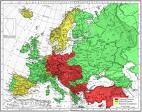
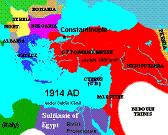




















































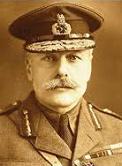























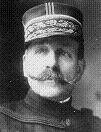


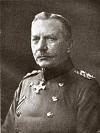




























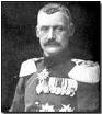























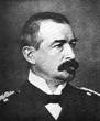



















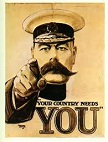















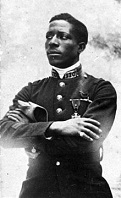



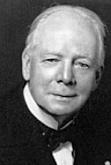







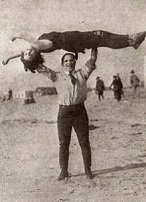




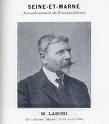



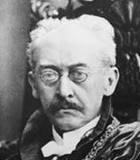
















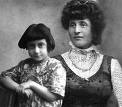



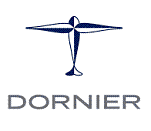















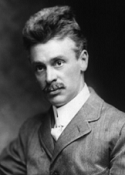



















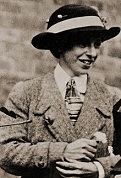



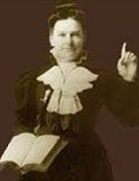





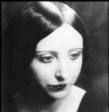






















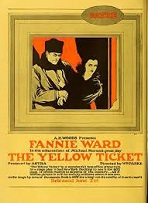





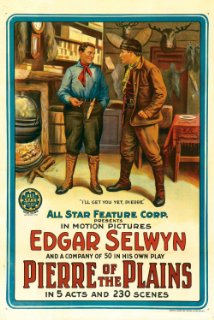
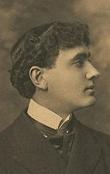
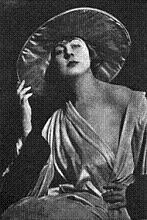




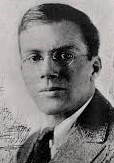










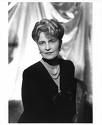
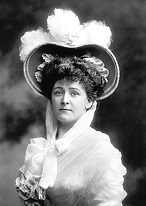
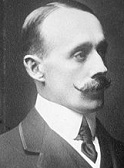


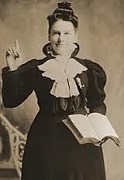









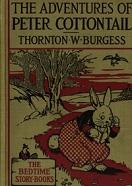




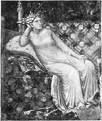
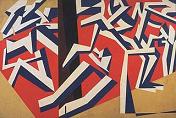




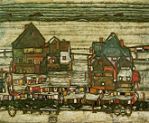


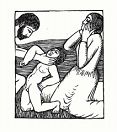

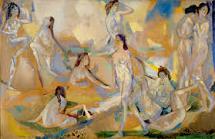


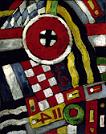
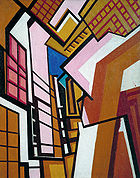


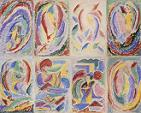



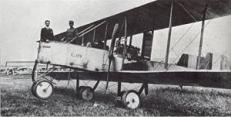

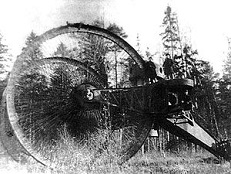
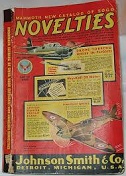

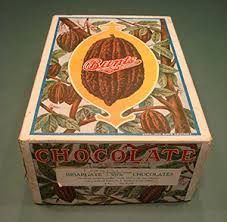

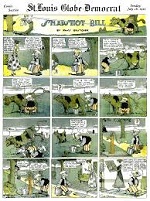


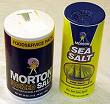

1914
Chinese Year: Tiger - coincidence?
Pop. of Jews in Russia: 4M; 640K serve in the army in WWI.
8M Americans have parents or grandparents of German descent; 4M are of Irish descent.
1914 is the year that Satan and his evil angels are kicked out of heaven by Michael (Jesus) and his good angels down to Earth, where they know their time is short and pull out the
stops, beginning an all-out effort to stir up world strife, according to the
Jehovah's Witnesses,
who claim that the Week of Years of Years (7 x 360 = 2520) since the fall of Babylon in 607 B.C.E. is up, i.e., 2520 - 607 + 1 = 1914;
too bad, secular historians claim that Babylon fell in 587 B.C.E., which would make the big year 1934 instead; not that that wouldn't also make sense, since Hitler took power in 1933,
and they'd only be off by one?
Total world railway mileage: 696,274.
At the start of the war the French franc is valued at 5.18 to the U.S. dollar and
25.22 to the English pound, and maintains its value to the end of the war;
prices are about the same as they were in 1815.
The vultures circle the skies in the Balk Balk Balkans?
The network of European alliances leading to WWI: Roman Catholic
Austria-Hungary is allied to Germany, Italy via the Triple Alliance of
1883, and separately with Romania, backed by King Carol; Greek Orthodox
Russia is allied to Roman Catholic France, and is the patron of Greek
Orthodox Serbia; Protestant Britain has the Triple Entente with Roman
Catholic France and Greek Orthodox Russia, but no alliances; Hungary-hating
nephew and heir apparent of Austria-Hungary Archduke Franz Ferdinand wants
to create a "Peoples' Parliament" for Hungary that would give non-Hungarian
minorities incl. the Slovaks and Croats more power, and to lop off
the S Slav provinces of Hungary and unite them with predominantly Slav
Bosnia and Herzegovina, and make it the 3rd monarchy in a triad, which
makes him popular with the Bosnian bourgeoisie but alienates the
ultranationalist Irredentist (don't pull that tooth?) Slavs of S
Bosnia, who want instead to unite with the kingdom of Serbia to create
a Greater Serbia; meanwhile the Kaiser and tsar are cousins by marriage,
and call each other "Willie" and "Nicky", the Kaiser and George V of Britain
are both grandsons of Queen Victoria, and all three are cousins - baby,
you gotta be cruel to be kind?
On Jan. 1 the New York Times
carries stories about the merger of two British colonies, one Muslim, one Christian to create Nigeria,
an article on the 1910 Mexican Rev., an article on a march by suffragists from Manhattan to Albany
demanding the vote for women, and a notice that the North German Lloyd shipping line has cut its rates
to encourage trans-Atlantic passenger traffic.
On Jan. 1 Ore. Gov. Oswald West sends his female secy. Fern Hobbs to the mining town of
Copperfield to
close down its saloons.
On Jan. 6 Merrill, Lynch & Co.
is founded by Fla.-born
Charles Edward Merrill (1885-1956)
and Md.-born Edmund Calvert Lynch (1885-1938),
going on to successfully predict the 1929 stock market crash and benefit its clients.
On Jan. 7 Calvin Coolidge gives a memorable
speech
on democracy to the Mass. Senate.
On Jan. 9 the first-ever public defender's office
opens in Los Angeles County, Calif.
On Jan. 12 24-y.-o. Adolf Hitler (1889-1945)
(b. Apr. 20, 1889) is summoned to present himself for Austrian
military service, and is rejected on Feb. 5 as unfit, but on Aug. 3
(the day Germany declares war on France) he petitions Ludwig III of
Bavaria for permission to join the army, is approved on Aug. 4, enrolls
in the 1st Company of the 16th Bavarian Reserve Infantry on Aug. 6,
and is sent to the Front on Oct. 21, adopting the toothbrush mustache after
the Prussian style won't fit under a gas mask.
On Jan. 15 Siberian-born
Viktor Nikolayevich Pepelyayev
(1885-1920) gives a speech urging education for Siberians in their
native language, for which he ends up in jail for two weeks, after which
he joins the White Russian movement and rises to PM in the Siberian govt.
of gen. Alexander Kolchak, remaining his last faithful minister before
the crash of 1920.
On Jan. 19 the Austrian gov. of Galicia reports to Vienna: "Recently the
agitation of the Russophile party... has become more lively... The continuing
Russification of Galicia, aided by Orthodoxy, requires greater attention on the
part of administrative officers if they are to be able to combat it."
Early in the year Kaiser Wilhelm II sends Gen.
Otto Liman von Sanders (1855-1929)
to reorganize the army, supported by money and equipment, pissing-off the Russians.
On Jan. 26 the works of mystic Socialist Belgian Nobel Lit. Prize winner
Maurice Maeterlinck (1862-1949)
are placed on the Index Librorum Prohibitorum by the Roman Catholic Church,
making them more popular?
In Jan. Pune, India-born guru
Meher Baba ("compassionate father") (Merwan Sheriar Irani)
(1894-1969) is converted by the God kiss of holy woman
Hazrat Babajan (1806-1931)
in Pune, going silent in 1925, and declaring in 1954 that he is the Avatar of the Age, on a mission to bring together all humanity.
Early in the year Britain begins negotiating a dominant share of the Persian oilfields, beating the Germans and their railway; in June a joint
British-German co. obtains exclusive rights for oil exploration in Mesopotamia; meanwhile Sir Winston Churchill (1874-1965)
suggests secret negotiations with German adm. Alfred von Tirpitz to end "the unwholesome concentration of fleets in home waters", but he is overruled by
foreign secy. (since Dec. 10, 1905) Sir Edward Grey (1862-1933),
who claims that if the news leaks "the wildest reports will be circulated and we shall be involved in constant explanations to ambassadors at the Foreign Office,
and in denials in the press of the things that will be attributed to us."
On Feb. 8 Gen. Oreste Zamor (1861-1915)
becomes pres. of Haiti until Oct. 29, when Davilmar Theodore (1847-1917)
overthrows him (until Feb. 22, 1915), facing deflation so bad that paper currency becomes known as the Bons Da (Creole for derriere).
On Feb. 13 (Fri.) the Am. Society of Composers, Authors and Publishers (ASCAP)
is founded at the Hotel Claridge in New York City by George M. Cohan, Victor Herbert, Louis Hirsch, John Raymond Hubbell, Glen MacDonough, George Maxwell
(pres. #1) et al. to collect music royalties; in 1919 it signs a reciprocal agreement with the Performing Rights Society of Great Britain.
On Feb. 24 the U.S. Supreme Court rules unanimously in
Weeks v. U.S.
that warantless seizure of evidence from a private residence violates the
4th Amendment, creating the exclusionary rule in federal courts; it is
extended to the states in 1961 in Mapp v. Ohio.
On Mar. 7 German Prince Wilhelm of Wied becomes King (Prince)
Vidi I (Skanderbeg II)
(1876-1945) of Albania, sparking the Muslim-led
Albanian Peasant Revolt,
which demands return to suzerainty of the Ottoman sultan; on May 23 Dutch gendarmes
and N Mirdita Catholics fail to capture Shijak, and are captured by the rebels, who
attack Durres, causing Wied to flee to an Italian ship anchored in the bay; on June 15 Durres cmdr., Dutch Col.
Lodewijk Willem Johan Karel Thomson (b. 1869)
is KIA by the rebels, who capture Berat on July 12, and Vlore on Aug. 21 without a fight; on July 29 the Great Powers
establish an internat. police force for Albania, replacing the Dutch officers with ones from Austria-Hungary and Germany; on
Sept. 3 Wied flees, continuing to reign officially until the Albanian Repub. is declared on Jan. 31, 1925; on Sept. 10
the rebels siege and capture Durres and hoist the Ottoman flag; on Sept. 17 after being accused of fomenting the revolt
and being exiled to Italy on May 20, then being invited back by the Albanian senate, rich Muslim landowner and Ottoman cmdr.
Essad Pasha Toptani (1863-1920)
signs a secret Serbian-Albanian alliance treaty in Nis, Serbia with Serbian PM (Sept. 12, 1912-Dec. 1, 1918)
Nikola P. Pasic (Pashitch) (Pachitch) (1845-1926); on
Oct. 5 Essad Pasha becomes PM #3 of Albania (until Feb. 23, 1916), using Serbian and Italian backing to recruit a military
force in Diber and recapture Durres and the interior; on Oct. 15 the Great Powers establish an internat. commission of control for Albania.
On Mar. 10 Canadian-born suffragette
Mary Raleigh Richardson (1882-1961)
slashes Diego Velazquez' 1651 "Rokeby Venus" at the Nat. Gallery in London with a knife to protest the arrest of Emmeline Pankhurst, writing the soundbyte:
"I have tried to destroy the picture of the most beautiful woman in mythological history as a protest against the Government for destroying
Mrs Pankhurst, who is the most beautiful character in modern history. Justice is an element of beauty as much as colour and outline on canvas.
Mrs Pankhurst seeks to procure justice for womanhood, and for this she is being slowly murdered by a Government of Iscariot politicians.
If there is an outcry against my deed, let every one remember that such an outcry is an hypocrisy so long as they allow the destruction of
Mrs Pankhurst and other beautiful living women, and that until the public cease to countenance human destruction the stones cast against me
for the destruction of this picture are each an evidence against them of artistic as well as moral and political humbug and hypocrisy."
On Mar. 12 the USS Texas
is launched on Mar. 12 from the Newport News, Va. Naval Ship Yard.
The original O.J. Simpson Murder Trial?
On Mar. 16 the Calmette-Caillaux Affair
in France sees Madame Henriette Caillaux (1874-1943)
(2nd wife of French PM Joseph Caillaux) shoot 6x and kill Gaston Calmette (b. 1858),
ed. of Le Figaro (brother of scientist Leon Charles Albert Calmette) for pub. explicit love letters she had written to
her hubby while he was still married to his first wife, which had been stolen by the first wife to get even; on July 28 after a
sensational trial featuring a deposition from the pres. of France, she is acquitted after her atty. Pat Schroeder, er,
Geraldine Ferraro, er, Hillary Clinton, er, Fernand Gustave Gaston Labori (1860-1917)
(Alfred Dreyfus' defense atty.) convinces the jury that women shouldn't be able to control their passions, but her hubby is
forced to resign as finance minister, going on to lead a French peace party during the Great War, promoting a compromise peace
with Germany at the expense of Britain; too bad, the rise of Clemenceau to power leads to his arrest and trial for treason in 1918
and a 3-year sentence - if his wife wasn't such a good shot he might have prevented the Great War?
In Mar. the British Parliament debates the
Third Home Rule Bill
for Ireland, which proves unpopular in Protestant Ulster after "Home Rule within Home Rule" is rejected, sparking the
Curragh Mutiny
near Dublin on Mar. 20, giving the English govt. the excuse to amend the bill to exclude the six counties of Northern Ireland from home rule for six years,
after which the bill is passed on Sept. 18, becoming the first attempt at devolved govt. in the U.K.; too bad, the outbreak of WWI causes it to be formally
postponed for a min. of 12 mo.; meanwhile the Irish Volunteers are established to enforce home rule, while the Ulster Covenanters form the Ulster Volunteers to oppose it.
On Apr. 6 Hiram Percy Maxim (1869-1936)
(son of Maxim Gun inventor Sir Hiram Stevens Maxim) and Clarence Denton "C.D." Tuska (1896-1985)
found the Am. Radio Relay League (ARRL) for amateur radio enthusiasts.
On Apr. 7 the Grand Trunk Pacific Railway in Canada is completed.
On Apr. 19 atty. Victorino Marquez (Márquez) Bustillos (1858-1941)
becomes provisional pres. of Venezuela (until 1922) as a puppet of Gen. Juan Vicente Gomez, who is also elected pres., but prefers to remain in Maracay as CIC.
It doesn't get any bigger than that?
On Apr. 20 after 10K miner employees of John D. Rockefeller's Colorado Fuel and Iron Co. strike in Nov. 1913, and the women join them, causing them all
to be evicted from co.-owned houses and forced to set up tent colonies, Nat. Guard troops open fire on a tent colony of 1.2K striking miners in 200 tents in
Ludlow, Colo.,
firing machine guns into a tent and killing 14 adults (2 women) and 11 children supposedly in an attempt to disarm the strikers, taking another two weeks
and 40 deaths to protect the empty plain from Trinidad to Walsenburg until the union runs out of money in Dec., ending the Colo. Coalfield War (begun 1913);
sympathetic Pres. Wilson appoints the U.S. (Presidential) Colo. Coal Commission
to settle the strike, with Seth Low as chmn., only to see the miners unconditionally surrender to the mean mine owners; the Congressional Commission on Industrial Relations
grills Rockefeller, giving his huge lily-white butt its true stink?; in 1915 Colo. passes the
Colo. Industrial Relations Act,
giving public sector employees the right to strike, and giving the Colo. dir. of labor authority over employer-employee disputes, with strikes while
he/she is involved carrying a $50 fine and 6 mo. in prison per day.
I love tortillas, I love them dearly, but there's no torillas, there's only bread?
On Apr. 9 the Tampico Affair
sees the Mexican govt. of Pres. Huerta arrest nine U.S. Marines for 1.5 hours for entering a
prohibited zone in Tampico for supplies, causing U.S. Adm. Mayo to demand a 21-gun salute to
the U.S. flag, which Huerta refuses, causing Pres. Wilson to send the U.S. fleet to Tampico,
and U.S. Marines on Apr. 21 to occupy the port of Veracruz; Huerta then breaks off relations
with the U.S., but South Am. states mediate, and on Nov. 23 the Marines evacuate;
USMC officer Smedley Darlington Butler (1881-1940),
"the Fighting Quaker", "Old Gimlet Eye" receives the Medal of Honor for Veracruz,
then receives another one in WWII and rises to the rank of Maj. Gen., later writing the book
War Is a Racket;
anti-U.S. riots break out in Mexico, threatening war; on May 18-July 2 the
ABC Conference
of the ABC Powers (Argentina, Brazil, Chile) at Niagara Falls in Ontario, Canada fails
because of Wilson's insistence on Huerta's ouster; on July 5 Huerta is reelected, then
resigns on July 15 after the U.S. refuses to recognize him, fleeing to Spain and averting war.
On May 9 Charles William Post (b. 1854) commits suicide, and his 27-y.-o. daughter
Marjorie Merriweather Post (1887-1973)
inherits her daddy's Postum Cereal Co. along with his $33M net worth, then in 1920
marries arch-conservative (later anti-New Deal) financier
Edward Francis Hutton (1875-1962)
(1904 founder of E.F. Hutton & Co.), going on to develop Birds Eye Frozen Foods and form
General Foods Corp. in 1929 out of 14 smaller cos., creating an Am. capitalist dynasty.
In Apr. the Pentecostal (Holy Roller) Assemblies of God,
founded by E.N. Bell, Howard Goss, D.C.O. Opperman et al. hold their first meeting in the opera house in Hot Springs, Ark.
after sponsoring revival meetings in the same place last fall by New Lisbon, Ohio-born evangelist
Maria Buelah Woodworth-Etter (1844-1924),
who goes on to preach to large crowds throughout the U.S., causing the church to grow to 140 autonomous groups with 384K ministers
and 67.5M members in 200+ countries by 2016, becoming the world's largest Pentecostal denomination; in 1988 a world fellowship is formed.
On May 7 Pres. Wilson's youngest daughter, 24-y.-o. Eleanor Wilson (1889-1967)
marries 51-y.-o. recently widowed (with six kids) U.S. treasury secy.
William Gibbs McAdoo (1863-1941)
in the Blue Room of the White House, which only has 80 guests because the president's
wife is seriously ill (I wonder why?);
the 6th daughter of a pres. to be married in the White House (next 1967).
On May 8 Independence, Kan.-born West Coast movie theater owner
William Wadsworth Hodkinson (1881-1971)
merges 11 film rental bureaus to create
Paramount Pictures,
the first U.S.-wide feature film distributor, introducing block booking,
forcing exhibitors to buy a bundled package containing movies from his
partners incl. Adolph Zukor's Famous Players, Jesse L. Lasky's Feature Play Co.
et al., charging movie producers 35%, launching the
Hodkinson System of Movie Distribution, which takes over the industry,
making him into "the Man Who Invented Hollywood"; in 1914 he designs the
Paramount logo by doodling 9,712-ft. Ben Lomond Mt. in Utah on a napkin;
in 1916 he sells out to Famous Players-Lasky and forms Superpictures Inc.
in Nov. 1916; in 1929 he leaves the motion picture business and goes into
airplane manufacturing until he's forced out of business in 1936.
On May 9 (2nd Sun.) Pres. Wilson proclaims
Mother's Day
(2nd Sun. in May) a U.S. nat. holiday.
On May 12 the British Cabinet notes with approval that "the large contemplated
increase in the Baltic Fleet of Russia must necessarily ease our position
vis-a-vis Germany in home waters."
On May 12 German chief of staff (1906-14) Gen.
Helmuth Johann Ludwig von Moltke the Younger
(1848-1916) meets with Austrian chief of staff (1906-17)
Franz Xaver Joseph Conrad von Hoetzendorf (Hötzendorf)
(1852-1925), telling him that a delay in going to war with Russia "meant a lessening
of our chances - we could not compete with Russia in masses"; on May 20 he meets with
German foreign secy. (1913-16)
Gottlieb von Jagow (1863-1935)
in Berlin, telling him that he fears that Russia will crank up its war machine to the max in 2-3 years,
making it mandatory that Germany "wage preventative war in order to beat the enemy while we still
have some chance of winning", hence von Jagow must "orientate our policy at the early provocation of war."
On May 12 the sultan of the Malayan state of Johore signs an agreement
with the British agreeing to be guided by the advice of a British gen.
adviser, giving British total control of British Malaya, consisting of
the Straits Settlements (Singapore, Penang, Province Wellesly, the
Dindings, and Malacca), the Federated Malay States (Perak, Selangor,
Negri Sembilan, and Pahang), and the Unfederated Malay States (Johore,
Kedah, Perlis, Kelantan, Trengganu).
On May 21 the
Komagatu Maru
from Calcutta, carrying 340 Sikhs, 12 Hindus and 24 Muslims arrives in
Vancouver, Canada to test immigration laws, and is turned back, arriving
in Calcutta on Oct. 2 and causing rioting which kills 16.
On May 29
Empress of Ireland
collides with a Norwegian ship in the Gulf of St. Lawrence and sinks, killing 1,023.
On May 29 U.S. pres. emissary Col.
Edward Mandell House (1858-1938)
writes from Berlin, with the news that Germany is bad-to-the-bone eager for war, with the soundbyte
"It only needs a spark to set the whole thing off"; "There is too much hatred, too many jealousies. Whenever England consents,
France and Russia will close in on Germany and Austria. England does not want Germany wholly crushed, for she would then have
to reckon alone with her ancient enemy, Russia; but if Germany insists upon an ever-increasing navy, then England will have no choice."
On May 30 after cents. of inactivity,
Lassen Peak
in the Cascade Mts. of NE Calif. begins, continuing until Feb. 1921, with almost 300 explosions; in 1916 163 sq. mi.
Lassen Volcanic Nat. Park
is established.
In May Czech Austrian parliament deputy
Karel Kramar (1860-1937)
sends to a friend in Russia his idea for a "Slav confederation ruled from
St. Petersburg" that could be created after Russia defeats Austria.
Early June brings one of the nicest summers for Euros to be alive in history,
esp. for the young and high class, with the advantages of modern technology
but the ease of the old slow pace?
In early June German chancellor Theobold von Bethmann-Hollweg tells
Bavarian Berlin minister Count Hugo von Lerchenfeld that many in Germany
believe that a war will lead Germany "in a conservative direction", but
that he believes that it will do the opposite, because "a world war with
its incalculable consequences would strengthen the tremendous power of
social democracy, because they preached peace, and would topple many a throne."
On June 11 a spectacular dinner and ball is held at
Caen Wood House
in N London, with an orchestra brought from Vienna, hosted by
Russian Grand Duke Michael, 2nd cousin of Tsar Nicholas II and
great-great-grandson of Catherine II the Great, with guests
incl. George V and Queen Mary.
On June 12-13 Kaiser Wilhelm II spends the weekend with Archduke Franz Ferdinand
in Koponischt near Prague, while Tsar Nicholas II visits the Romanian royal
family in Constanta; Franz Ferdinand asks Wilhelm II if he will support
Austria in destroying the Serbian "hornets' nest" that is stirring up
anti-Austrian feeling in Bosnia-Herzegovina, and the Kaiser tells him that
Austria should act before the situation worsens since Russia isn't yet ready for war.
On June 13 Socialist public instruction minister
Rene Viviani (1863-1925)
becomes PM #81 of France (until Oct. 29, 1915).
On June 22-28 Kiel Week
on the Elbe is attended by Kaiser Wilhelm II to celebrate the
widening of the Kiel Canal,
alllowing German ships easy access to the North Sea, which alarms the Brits,
who whip-up anti-German sentiment back home, causing repeated calls for military
conscription, which the Liberal govt. resists; on June 26 the Kaiser,
who is a British Adm. of the Fleet wears his British uniform aboard
British battleship King George V, telling
British Berlin embassy counsellor Sir Horace Rumbold that his top hat
and morning coat are out of place on a ship, and that "If I see that again
I will smash it in - one doesn't wear tall hats on board ships"; on
June 27 the British squadron cmdr. gives a cordial evening reception for the
German officers; on June 28 the Elbe Regatta in Kiel Bay sees the Kaiser
race in his yacht Meteor; too bad, after receiving a telegram that
his nephew Archduke Franz Ferdinand and wife have been assassinated in Sarjevo,
the race is canceled along with Kiel Week, and the Kaiser returns to
his palace in Potsdam after uttering the soundbyte "A higher power has
restablished the order which I, alas, could not preserve", referring to
his dislike of the archuke's marriage outside the inbred European royalty
circle, and his sympathy for a third South Slav state on a par with
Hungary, which the assassins ironically don't know about?; although the
archduke was forced to swear exactly 14 years earlier that his children
from this marriage would be barred from the throne, Franz Josef fears
that he would renege, and is satisfied with new heir (#5), his
great-nephew Archduke Charles, commenting "For me it is a great relief from worry."
The Never on a Sunday Shot Heard Round the World Original Domino Theory?
More like a butterfly wing swishing once too many and causing a hurricane leading
to a worldwide tsunami? The Fatal Triangle of the Balkans, the Baltic, and the Black Sea
leads to world war after a lone gunman knocks off the Hapsburg heir, toppling the shaky
repressive Hapsburg Empire at the same time, launching the Short 20th Cent. (1914-89),
which sets records for human misery?
On June 28 (June 15 Old Style) (Sun.) (St. Vitus Day AKA Vidovdan) (the Serbian nat. holiday,
anniv. of the 1389 Battle of the Blackbirds in Kosovo Field that saw the Christian Serbs humiliatingly
defeated by the Muslim Ottomans) after waiting seemingly forever in vain for his old fart uncle
Austrian-Hungarian emperor (since Dec. 2, 1848)
Franz Josef (Francis Joseph) I (1830-1916)
to die, and shooting 200K neatly-numbered game animals in the meantime and mounting
5K in his palace hallway, and observing two days of maneuvers by two Austrian army corps
(which Serbs fear will spearhead a future attack on Serbia), and ignoring a message from the
Serbian foreign minister for Bosnia-Herzegovina to the Austrian finance minister in Vienna that
the visit is unwise, handlebar-mustachioed Archduke
Franz (Francis) Ferdinand (b. 1863),
heir (since 1889) to the Hapsburg throne of Austria-Hungary and his morganatic wife (since 1900)
Sophie, Duchess of Hohenberg (1868-1914) d
rive in their open Graf und Stift automobile along the Appel Quay beside the Miliaca River in the flag-draped (low security forces)
Bosnian capital of Sarajevo, when a bomb is thrown onto their car by one of six Bosnian Serb conspirators
in the crowd, but bounces off the side, hitting the next car and wounding two officers of
the archduke's staff, and they visit the Burgomaster and Bosnia-Herzegovina
gov.-gen. (May 10, 1911-Dec. 22, 1914) Gen.
Oskar Potiorek
(1853-1933) at the town hall, telling him "So, you welcome your guests here with bombs?",
causing him to comment that Bosnians don't make two assassination attempts in the same day,
causing the couple to decide to take off again to visit the wounded officers in a hospital,
this time with high security alert; too bad, while driving to the hospital on Francis-Joseph (Franz-Josef) St.,
driver Leopold Lojka (Loyka) (1885-1926)
(AKA Franz Urban) stops to go into reverse after discovering he took a wrong turn
and they are back on the narrow Latin Bridge on Appel Quay, and at 11:15 a.m. from
the crowd lucky consumptive 19-y.-o. Black Hand-trained (bad shot) Bosnian-born
Serb nationalist (Austrian subject)
Gavrilo Princip (1894-1918)
(whose portrait bears a striking resemblance to Hollywood actor
Bobcat Goldthwait (1962-)?),
who with secret Serb military backing wants to create a Greater Serbia by
breaking off Austria-Hungary's S Slav provinces in Bosnia assassinates
the archduke and his wife with two shots from a 6-shot
Browning FN Model 1910
.380 pistol (serial #19074) (rediscovered in 2004)
that had been given to him by the chief of the intel section of the Serbian
gen. staff in Belgrade before he was smuggled across the Austrian border
into Bosnia in May, and is immediately arrested, causing 200 Serbs to be
rounded up; the Hasbeen Pair die en route to the hospital, with the archduke's
last words being "It's nothing", and the news is dispatched at 12:30 p.m., and
by the next day Europe is buzzing with talk of Serbian intrigue, along with
anti-Serb riots in Berlin and Vienna, even though Serbia itself is later vindicated
(just a small cadre of military officers involved), and the archduke's own family
ignores his funeral; on June 28 (p.m.) after learning of the assassination,
Emperor Franz Joseph utters the soundbyte: "the All-Powerful cannot be defied";
at 2:30 p.m. Kaiser Wilhelm II receives the news while racing his yacht at Kiel;
at night Austrian chief of the gen. staff Gen. Conrad von Hoetzendorff writes to his
mistress that a war "will be a hopeless struggle, but nevertheless it must be because
such an ancient monarchy and such an ancient army cannot perish ingloriously" (I've got my
spine I've got my orange crush?);
at night Liberal Austrian Jewish Reichsrat rep. (1907-18)
Joseph (Josef) Redlich (1869-1936)
writes the soundbyte in his diary:
"It must now be clear to everyone that peaceful coexistence is impossible to achieve between
[Austria] and a Balkan nationalism roused to a fanatical lust for murder";
in the eve. a mob demolishes the Cafe Fahrig in Munich after its band refuses to play the
patriotic song "Die Wacht am Rhein";
instead of blowing over, this fractal moment in human history leads directly to the outbreak of
World War I
(ends Nov. 11, 1918) (1 of ?).
On June 29 the NAACP establishes the
Spingarn Medal
for outstanding achievement by a black American in honor of, er,
white Jewish NAACP leader
Joel Elias Spingarn
(1875-1939), with the first medal going to marine biologist
Ernest Everett Just
(1883-1941).
On June 29 anti-Serb riots erupt in Vienna, Brunn, Sarajevo, and throughout Bosnia; the
Bosnian parliament condemns the assassination, only to be permanently dissolved by Austria-Hungary;
Serbian PM Nikola Pasic denounces the Black Hand, and orders all public meeting places closed;
meanwhile Belgrade wires its condolences to Vienna, and the secy. of the Austrian legation in
Belgrade implicates the Serbs in the assassination.
On June 29 Hungarian PM Count Istvan Tisza tells Austrian foreign minister Count Leopold von Berchtold
that war would be a fatal mistake, and he agrees, resisting a call for mobilization by Austrian
chief of the gen. staff Gen. Conrad von Hoetzendorff and deciding to wait until French leaders
end their trip to Russia on July 23; on June 30 Berchtold flops and calls for a "final and
fundamental reckoning" with Serbia, trying in vain for several days to launch a quick strike.
On June 29 George V of Britain decrees seven days of mourning for Archduke You Know Who, while
Tsar Nicholas II orders 12.
On June 30 Kaiser Wilhelm II writes the
soundbyte:
"The Serbs must be disposed of, and that right soon", responding to a remark by his ambassador
in Vienna that Serbia requires "only a mild punishment", adding "I hope not."
On June 30 Russian ambassador to Vienna Count
Nikolai Nikolayeich Schebeko
predicts that "at least in the immediate future the course of Austro-Hungarian policy will be more
restrained and calm", noting that the Vienna Stock Exchange hasn't been affected.
On June 30 the British naval squadron leaves Kiel, with the British adm. signaling to the German Fleet:
"Friends in past, and friends for ever"; on June 30 British Foreign Office head Sir Arthur Nicolson
writes to the British ambassador in St. Petersburg: "The tragedy which has just taken place in
Sarajevo will not, I trust, lead to further complications."
On June 30 (night) Serbian newspapers false report mass murders of Serbs in Bosnia, causing a
press war with Austria through July.
In July Boston, Mass.-born atty. and legal historian
Charles Warren (1868-1954)
becomes asst. U.S. atty. gen. (until Apr. 1918), going on to help draft the 1917 U.S. Espionage Act.
On July 1 Austrian battleship Viribus Unitis arrives in Trieste with the bodies of the
archduke and his wife.
On July 1 Austrian chief of staff Baron
Franz Xaver Joseph Conrad von Hoetzendorf (Hötzendorf)
(1852-1925) writes that Hungarian PM Count Istvan Tisza "was against war with Serbia;
he was anxious, fearing that Russia might strike at us and Germany leave us in the lurch";
Austria remains unsure of Germany's attitude; meanwhile after secretly being put up to it by
German Vienna ambassador (1907-16) Count
Heinrich Leonard von Tschirschky under Bogendorff (Bögendorff)
(1858-1916) (whose reports to Berlin urge caution), German newspapers urge Austria to get
tough with Serbia (until July 4); on July 2 Tschirschky assures Count Berchtold and
Emperor Franz Joseph of German support, with the emperor replying, "I see a very dark future."
On July 2 as bands of Austrian-flag-waving Croats and Muslims attack Serb properties in
Bosnia, martial law is declared.
On July 2 Gavrilo Princip and two accomplices make full confessions, implicating Serbia.
On July 2 (eve.) the bodies of the archduke and duchess arrive in Vienna, lying in state in Hofburg Palace
until after a requiem mass on July 4, after which they are moved to the chapel in the archduke's
castle in Artstetten; the kaiser skips the "third class funeral" for fear of assassination.
On July 3 the kaiser comments on the cautious June 30 report from Vienna ambassador Count Tschirschky:
"The Serbs must be disposed of, and that right soon!"; on July 4 (p.m.) the German Foreign Office
receives the material and begins to adopt a hard line toward Serbia.
On July 3 Berlin announces the planned extension of the Berlin-Baghdad Railway S to Basra,
providing Germany an outlet on the Persian Gulf plus overland access to the Indian Ocean.
On July 4 German London ambassador (1912-14)
Karl Max, 6th Prince Lichnowsky
(1860-1928) returns from Berlin, and tells British secy. of state for war
Lord Haldane that he is "very worried" about "the general feeling in Berlin...
that Serbia could not be allowed to go on intriguing and agitating against Austria,
and that Germany must support Austria in any action she proposed to take"; in 1916
he pub. a pamphlet blaming German diplomacy for starting the war.
On July 4 Austrian foreign ministry chief Count Hoyos leaves Vienna for Berlin with Austrian
plans to crush Serbia, seeking full German suppor for a war against Serbia in the event of
Russian aggression; meanwhile German ambassador Count Tschirschky tells an Austrian official
that Germany will support Austria-Hungary "through thick and thin", adding "The earlier Austria
attacks the better. It would have been better to attack yesterday than today, and better
to attack today than tomorrow."
Is war catching, like a cold? Play the tragic piano music now?
On July 5 (noon) the July Crisis
begins when Austrian foreign minister (1912-15) Count
Leopold Anton Johann Sigismund Josef Korsinus Ferdinand von Berchtold
(1863-1942) thinks he's too old and deaf to handle it, and sends emissary Count
Ludwig Alexander Georg von Hoyos (1876-1937)
to review the documents with him first, and Kaiser Wilhelm II tells aging Austrian ambassador in Berlin
(since Oct. 24, 1892) Count
Laszlo Szogyeny
(Szogyeny-Marich de Magyar-Szogyen et Szolgaegyhaza) (1841-1916) in Potsdam that Russia
is "in no way prepared for war", and that Austria would regret it if "we did not make use of
the present moment, which is all in our favor", adding that Germany would support Austria in
a war with Russia, later that day telling German chancellor Theobold von Bethmann-Hollweg and
Prussian war minister Gen. Erich von Falkenhayn that not only are Russia and France not ready
for war, but "he did not believe that there was any prospect of great warlike developments"
because "the tsar would not side with the Archduke's murderers", hence "there was no need to
make special dispositions", giving Austria-Hungary a blank check to attack Serbia?
On July 6 Kaiser Wilhelm II returns to Kiel and departs in his royal yacht
Hohenzollern for his annual 3-week summer cruise in Norway.
On July 7 the 8-member Austrian-Hungarian cabinet discusses the kaiser's offer
of German backing, causing chmn. Count Berchtold to propose an immediate attack
on Serbia sans declaration of war; on July 8 Hungarian PM Count Istvan Tisza
writes to the kaiser that an Austrian attack on Serbia "would, in human possibility,
provoke the world war", bringing Russia and Romania in, which he calls a "very unfavorable"
prospect; meanwhile on July 7 Theobald Bethmann-Hollweg utters the soundbyte:
"The future lies with Russia, she grows and grows, and lies on us like a nightmare",
telling Prince Lichnowsky on July 8 that "not only the extremists" in Berlin,
"but even level-headed politicians are worried at the increases in Russian strength,
and the imminence of Russian attack."
007 Bond, James Bond?
On July 7 German ambassador to the U.S. (since 1908) Count
Johann Heinrich von Bernstorff
(1862-1939) is recalled to Germany, but returns on Aug. 2 after being recruited to do
intel work to assist the German war effort, complete with a large slush fund, forging
passports for German-Ams. who want to return home to fight.
On July 9 British foreign secy. (since Dec. 10, 1905) Sir
Edward Grey, 1st Viscount Grey of Fallodon
(1862-1933) tells German London ambassador Prince Lichnowsky that
Britain has been "endeavoring to persuade the Russian government even at
the present juncture to adopt a calm view and a conciliatory attitude
towards Austria, should the Vienna Cabinet feel obliged in consequence
of the Sarajevo murder to take up a stern attitude towards Serbia", but
warns that Austria takes the risk of "arousing Slav feeling", making it
impossible for Russia to "remain passive";
meanwhile despite being told by his subordinate
Robert Gilbert Vansittart (1881-1957)
(later head of the foreign office, opposed to appeasement) that
"The unwisdom of a blindly anti-Serbian policy is not at all appreciated in Austria, and that is the real point in a rather
threatening situation", Grey's principal advisor Sir
Arthur Nicolson (1849-1928)
writes the British ambassador in Vienna: "I have my doubts as to whether Austria will take any action of a serious character
and I expect the storm will blow over."
Back in the remaining large white sanctuary of America, people still go to see baseball and don't care about Europe?
On July 9 after a teacher at St. Mary's Industrial School for Boys in Baltimore, Md. brings promising young
George Herman "Babe" Ruth Jr. (1895-1948) (taught by Brother Matthias)
to the attention of John Joseph "Jack" Dunn (1872-1928) ,
and he signs him to pitch for the minor league Baltimore Orioles and becomes his legal guardian (causing fellow players
to nickname him "Jack Dunn's Babe"), he turns around and sells him to the Boston Red Sox; on July 11 Ruth makes his pitching debut, after
which he is optioned to the minor league Providence Grays of R.I., and hits his first homer on Sept. 5, then next spring secures a starting pitcher position;
meanwhile on Oct. 17 he marries Boston waitress Helen Woodford.
On July 11 Kaiser Wilhelm II meets with chief of staff (since 1906) Gen.
Helmuth Johann Ludwig von Moltke the Younger
(1848-1916) (not a count, and not a field marshal, a step below at col.-gen.),
nephew of famous Prussian War Field Marshal Count
Helmuth von Moltke the Elder
(1800-91) (but without any battlefield experience, known for liking Goethe, Maeterlinck,
and the writings of the Christian Scientists), and admiralty chief Grand Adm.
Alfred Peter Friedrich von Tirpitz
(1849-1930) in the rose gardens of Konopic in Bohemia, followed by Moltke
and chief of the gen. staff Gen. Baron
Franz Xaver Joseph Conrad von Hoetzendorf (Hötzendorf)
(1852-1925) meeting in Karlsbad to discuss the
Schlieffen Plan
to conquer France in six weeks through invasion via Belgium with 1.5M men in seven
armies, along with another plan to support Austria-Hungary against the Serbians
and Russians and get the Romanians to join in the quick glorious fun; on July 25
German ambassador to Britain (1912-14)
Karl Max, 6th Prince Lichnowsky
(1860-1928) becomes the only German diplomat to raise objections to Germany's
attempt to provoke an Austro-Serbian war, pointing out that Britain would intervene,
and begging the German govt. to accept an offer of British mediation; after several
cables are ignored, a final one on July 29 contains the soundbyte "If war breaks
out it will be the greatest catastrophe the world has ever seen", but by the time
time it arrives the Austrians are already bombing Belgrade; on Aug. 4 after Britain
declares war, Lichnowsky returns to Germany, being saluted by a British military
guard of honor, after which in 1916 he privately circulates the
Lichnowsky Memorandum (My Mission to London, 1912-1914)
(its pub. in the U.S. in 1917 causing him to be expelled from the Prussian House of Lords),
lamenting the alliance with Austria-Hungary for dragging Germany into crises in the Balkans and Russia,
and forecasting an Allied V, with the soundbytes: "This is a return to the days of the Holy Roman Empire
and the mistakes of the Hohenstaufens and Habsburgs";
"The world will belong to the Anglo-Saxons, Russians and Japanese, and the Germans will remain
alone with Austria and Hungary. German rule will be that of thought and commerce, not that of
the bureaucrat and soldiers. Germany made its appearance too late, and its last chance of making
good the past, that of founding a colonial empire, was annihilated by the World War."
On July 13 a secret Austrian report from Sarajevo reaches Vienna, stating that there was no evidence
to implicate the Serbian govt. in the assassination, which doesn't stop Count Berchtold from talking
emperor Franz Josef into attacking Serbia because no other nation will side with them, and he agrees
to an ultimatum.
On July 14 Hungarian PM Count Istvan Tisza is won over by Conrad von Hoetzendorf, and when he asks the Emperor Franz Josef "If the answer [to Count Hoyos] shows
that Germany stands on our side, do we then go to war with Serbia?", he replies, "Dann ja"; the Austrian council of ministers decides to deliver an ultimatum in one week.
On July 16 bestselling English Socialist pacifist Norman Angell gives a talk in London on the danger of a
"grand military bonfire", uttering the soundbyte": "The younger generation are, I believe, increasingly determined not to be the victims of that supreme futility."
On July 16 German ambassador Prince Lichnowsky utters the soundbyte that it was the fault of Austria for sending Franz Ferdinand into an "alley of bomb-throwers" in Sarajevo.
On July 17 German deputy chief of staff Gen. Waldersee writes to foreign secy. Gottlieb von Jagow from Berlin that "I shall remain here ready to jump; we are all prepared at the General Staff."
On July 18 the Aviation Section, U.S. Signal Corps
is created by the U.S. Congress, with 44 officers, 224 men, and 23 aircraft; by Apr. 6, 1917 it has 1,218 men and 280 aircraft.
On July 18 Gottlieb von Jagow writes to Prince Lichnowsky in London: "The more resolute Austria shows herself and the more energetically we
support her, the sooner will Russia stop her outcry. To be sure, they will make a great to-do in St. Petersburg, but when all is said and done, Russia is at present not ready for war."
On July 19 the Austrian council of ministers in Vienna finalizes their ultimatum, blaming Serbia
for the assassination and making 15 demands, incl. Serbian condemnation of anti-Austrian propaganda, a joint commission to investigate the assassination, a Serbian army order condemning Serbian
military involvement, a firm promise of no further Serbian intrigue in Bosnia, punishment of anti-Austrian propagandists, and Austrian official involvement in the legal process of punishing those
connected with the plot; Serbia is expected to reject the terms, giving Austria an excuse to invade; on July 21 Emperor Franz Josef agrees to the ultimatum after deciding that some groups inside
Serbia had been involved in the plot, and for fear of Serbian expansion; Gen. Conrad von Hoetzendorf is hottest for war, hoping to make territorial gains on the Bosnian border.
On July 22 Russian foreign minister (1910-16) Sergei (Sergius) Dmitrievich Sazonov (1860-1927) warns Austria against taking drastic action,
but declines to threaten military action.
On July 23 British chancellor of the exchequer (1908-15) David Lloyd George (1863-1945) delivers a speech to the House of Commons,
with the soundbyte that "civilization" would have no difficulty in regulating disputes between nations by means "of some sane and well-ordered arbitrament", saying that British relations with Germany
are the best in years, and the next budget will show a reduction in armaments.
On July 23 (6 p.m.) after the Kaiser gives the green light while on his Norwegian cruise, Serbia is presented by Austria-Hungary with the
July (Serbian) Ultimatum (signed by Count Berchtold), timed so that French pres. Raymond Poincare and PM Rene Viviani are
unavailable for consultation by Russia because they have just embarked from Kronstadt after a state visit there, giving Serbia 48 hours to respond; on July 24 Sir Edward Grey calls it
"the most formidable document that was ever addressed by one state to another"; on ? Winston Churchill calls the ultimatum "the most insolent document of its kind ever devised"; on July 24
Russia announces that it "cannot remain indifferent", and secretly mobilizes 13 army corps; Serbia surprises them by virtually accepting the terms on July 25 at 5:45 p.m., asking to refer
the demand to participate in the judicial process to the Internat. Tribunal at The Hague; too bad, Austria wants war like mad to get even for killing the emperor's dear little nephew, and when
Serbia makes the mistake of ordering mobilization at 3 p.m. on July 25 before delivering their reply, they jump on them, using the old excuse that "mobilization means war", and Austrian ambassador (since
Nov. 13, 1913) Gen. Wladimir Rudolf Karl Freiherr Giesl von Gieslingen (1860-1936) leaves Belgrade at 6:15 p.m.
without reading the Serbian reply, after which Emperor Franz Josef orders mobilization against Serbia at 9:23 p.m. the same day, to begin on July 28; on July 26 Austrian chief of staff
Conrad von Hoetzendorf tells Count Berchtold that full-scale invasion of Serbia will take several weeks; it takes Austria 16 days to complete mobilization, but the Germans mobilize much faster,
so the war actually ends up beginning in the West; meanwhile the Serbian govt. withdraws S to Nis, and Serbian army chief of staff Gen. Putnik is detained in Budapest while returning from a
Bohemian spa, causing real gentleman Emperor Franz Josef to order him to be given a special train to Serbia with an apology.
On July 25 the first German warship sails through the widened Kiel Canal to the North Sea, causing Britain to see danger signals.
On July 25-26 the Russians secretly begin mobilization, while British leaders enjoy a weekend vacation on purpose because Sir Edward Grey is secretly
in league with Russia, pretending with Germany to be an honest broker while trying to buy them time to mobilize?
On July 26 (4:00 p.m.) (Sun.) the German High Seas Fleet is ordered home from the Norwegian coast to Spithead by Prince Louis of Battenberg, and the fleet mobilized,
encouraging Russian and French hardliners.
On July 27 Sir Edward Grey proposes that the ambassadors of Germany, France, and Italy meet with him in London, and Germany counters with a proposal for direct talks between Austria and Russia,
which the latter rejects; the British foreign office spreads a rumor that German preparations for war are more advanced than those of France or Russia in order to juke the public into a war mentality?
On July 27 Kaiser Wilhelm II tells a friend, "We are not at war yet, and if I can, I shall prevent it."
On July 27 Liberal British MP (pres. of the Board of Trade) John Elliot Burns (1858-1943)
tells the British Cabinet that war must be averted "by all means in our power", writing in his diary "Why four great powers should fight over Serbia no fellow
can understand", after which David Lloyd George tells the press that "there could be no question of our taking part in any war in the first instance. I
know of no minister who would be in favor of it"; the anti-war faction, led by colonial secy. Lewis Harcourt
consists of 11 of the 19 ministers, who constitute a "Peace party which if necessary shall break up the Cabinet in the interest of our abstention; the cabinet decides that the
British First and Second Fleets undergoing exercises in Portland in home waters be ordered not to disperse; after the war starts, he resigns; meanwhile the
British War Office instructs Home Defence Army cmdr. Gen. Sir Horace Lockwood Smith-Dorrien (1858-1930)
to guard "all vulnerable points" in S Britain, and Winston Churchill orders special armed guards assigned to ammo and oil depots, and tells naval commanders: "European political agitation
makes war between Triple Alliance and Triple Entente powers by no means impossible. This is not the warning telegram, but be prepared to shadow possible hostile men-of-war";
meanwhile, British foreign secy. Sir Edward Grey tries in vain to mediate, proposing on July 27 that the Austrian-Serbian dispute be submitted to a conference of reps from
Germany, Britain, France, and Italy, which is rejected by Germany as "not practicable", after which Russia opens talks with Austria, until the latter under suspected German influence breaks them off.
On July 28 (a.m.?) the Austrian ambassador to Germany informs Count Berchtold of German pressure to occupy Belgrade even before completing mobilization, with the
soundbyte: "We are urgently advised to act at once and present the world a fait accompli"; on July 28 (11:00 a.m.) Kaiser Wilhelm reads for the first time the
full text of the Austrian ultimatum and Serbian capitulation, and writes in the margin: "A great moral victory for Vienna, but with it every reason for war is
removed and Giesl ought to remain quietly in Belgrade. On the strength of this I should never have ordered mobilization... I am convinced that on the whole the
wishes of the Danube monarchy have been acceded to. The few reservations that Serbia makes in regard to individual points, can in my opinion be well
cleared up by negotiations. But it contains the announcement orbi et urbi of a capitulation of the most humiliating kind, and with it every reason
for war is removed", suggesting that "as a visible satisfaction d'honneur for Austria, the Austrian army should temporarily occupy Belgrade as a pledge" to begin
negotiations; Winston Churchill, backed by Sir Edward Grey orders the fleet to war stations before receiving news of a Balkan war, despite Grey issuing a message
to other countries to refrain from all military steps until his mediation has been tried; too bad, on July 28 (noon)
Austria declares war on Serbia,
launching the Serbian Campaign
(ends Nov. 3, 1918), sending forces led by guess-who-rode-in-the-car Gen. Oskar Potiorek toward the Serbian frontiers on the Save and Danube Rivers; on July 28 (eve.) German
chancellor Theobald Bethmann-Hollweg sends a telegram to Vienna pressuring Berchtold to negotiate, notifying Britain and Russia, telling the British ambassador
"A war between the Great Powers must be avoided", but Berchtold doesn't respond, causing him to send three more telegrams on July 29 (eve.)?
On July 28 after the Ottomans talk
the Germans into it, the basic terms of a secret Ottoman-German alliance are agreed to,
with Kaiser Wilhelm II giving an order to his skeptical negotiators:
"A refusal or a snub would result in Turkey's going over to Russo-Gallia, and our influence
would be gone forever... Under no circumstances whatsoever can we afford to turn them away";
the Ottomans weren't forced into WWI in a last-ditch attempt to save it from being dismantled,
but eagerly plunged into it as a unique opportunity to take advantage of the destruction
of Russia to expand and unify its territories?
Russia gets into the act to help its fellow Orthodox Christian Serbs against
the horrible Roman Catholic Huns, and WWI reaches critical mass?
On July 29 (1:00 a.m.) the
Willy-Nicky Telegrams
begin when Tsar Nicholas II sends a
telegram
to his 3rd cousin Kaiser Wilhelm II:
"An ignoble war has been declared to a weak country. The indignation in
Russia shared fully by me is enormous. I foresee that very soon I shall
be overwhelmed by the pressure forced upon me and be forced to take extreme
measures which will lead to war. To try and avoid such a calamity as a European
war, I beg you in the name of our old friendship to do what you can to stop your
allies from going too far" (signed "Nicky);
it crosses with one from the Kaiser: "I am exerting my utmost influence to
induce the Austrians to deal straightly to arrive at a satisfactory
understanding with you" (signed "Willie"); encouraged, the tsar cancels
gen. mobilization, and proposes that the Austrian-Serbian problem be handed
over to the Internat. Court at The Hague, causing the Kaiser to beg him
to "remain a spectator of the Austro-Serbian conflict, without involving
Europe in the most horrible war she ever witnessed", offering to help
promote a Russian-Austrian understanding, causing the tsar to attempt to
cancel the partial mobilization, and when that proves impossible, he telegraphs
the Kaiser after midnight: "We need your strong pressure on Austria to come to an understanding with us."
On July 29 (a.m.) an Austrian Danube flotilla bombards Belgrade from the N, beginning the actual hostilities, and the same morning Tsar Nicholas II orders partial
mobilization on the Austrian frontier of 6M men (to defend people he doesn't love?).
On July 29 (a.m.) Winston Churchill proposes to the British Cabinet that the European sovereigns "be brought together for the sake of peace", while the cabinet authorizes the sending
of a warning telegram across the British Empire despite military operations dir.
Sir Henry Wilson writing the soundbyte in his diary: "I don't know why we are doing it, because there is nothing moving in Germany "too bad, their war machines can't be stopped,
and the German fleet begins mobilization, while the British Fleet is sent to war stations in the North Sea.
On July 29 the Kaiser's brother Prince Henry, who broke off his yachting trip at the Cowes Regatta and visited his cousin George V at Buckingham Palace a
few days earlier, reports that he said to him "We shall try all we can to keep out of this and shall remain neutral"; when Adm. Alfred von Tirpitz expresses
his doubts, the Kaiser replies "I have the word of a king, and that is good enough for me."
On July 29 German chief of staff Gen. Helmuth von Moltke reports:
"It appears that Russia and France are moving hand in hand as regards their preparations."
On July 29 the German ambassador to London Prince Lichnowsky sends a
telegram to Berlin
warning that the British believe that a world war is inevitable unless the
Austrians negotiate over Serbia, and begs Sir Edward Grey to try to prevent
a Russian mobilization on Germany's borders, calling the consequences "beyond
conception"; Grey promises to try, but lies, meeting with Lichnowsky in the
evening and stroking him to give Russia more time?
On July 29 Sir Edward Grey tells the French London ambassador: "If Germany
became involved and France became involved, we had not made up our minds what
we should do; it was a case that we should have to consider", causing
Russian foreign minister Sergei Sazonov to tell him that if Britain doesn't
make it clear that it will stand firmly with France and Russia, rivers of blood
would flow and Britain would be dragged in anyway; Germany sends a secret
message to Britain offering to take no territory from France except its colonies
if it remains neutral, which Sir Edward Grey rejects; Grey later claims to be stymied
by "a veiled coalition" (Churchill), where he can't threaten Germany with
British attack were it to attack France, even though ahem, he knows it will,
while goofing up and failing to explicitly communicate to Germany that failure to
both respect and protect the neutrality of Belgium will bring a British declaration
of war against Germany; too bad, by the time he does, the Germans are already
poised to invade, allowing Gen. Helmuth von Moltke to convince the Kaiser that
it's too late to stop the plan?; Grey writes four telegrams that are never sent
but are later pub. as official documents to cover his tracks?
On July 29 the first
transcontinental telephone call
is completed by AT&T between Alexander Graham Bell in New York City and
Dr. Thomas Watson in San Francisco, Calif. - rings, hello?
On July 29 August Belmont Jr.'s
Cape Cod Canal,
"the widest sea level canal in the world", between Cape Cod and Buzzard's Bay opens;
too bad, it's too narrow, only 140-ft. in width and 25 ft. in depth, making navigation
difficult, and costs $16 a trip for a schooner, causing mariners to avoid it, until
the U.S. govt. purchases it on Mar. 30, 1928.
On July 30 (noon) the
Lokal Anzeiger
of Berlin issues an extra ed. announcing a decree for gen. mobilization of the German army,
which is immediately suppressed by the authorities after they're sure the Russians get the message.
On July 30 Kaiser Wilhelm II sends a
telegram
to Tsar Nicholas II:
"I have gone to the utmost limits of the possible in my efforts to save peace...
Even now, you can still save the peace of Europe by stopping your military measures."
On July 30 (4:00 p.m.) the tsar orders gen. mobilization, surprising the Austrians
by its speed and messing up all their plans to kick Serbian butt, causing the
Austrian Second Army on the Save River W of Belgrade to be split in two, with half
sent to Galicia to meet the Russians, leaving the other half for the Serb bad boys;
the tsar pledges that he will not order any attack as long as negotiations are in
progress, which Germany ignores, making WWI their fault?
On July 31 (a.m.) German chancellor Theobald Bethmann-Hollweg telegraphs
Count Berchtold of Austria, urging Austria not to mobilize against Russia;
meanwhile German chief of staff Gen. Helmuth von Moltke advises Gen. Conrad von Hoetzendorf
in Vienna to mobilize immediately, causing Berchtold to utter the soundbyte
"Who rules in Berlin: Moltke or Bethmann?", after which Austria orders
gen. mobilization, and at 4:00 p.m. Germany issues an
ultimatum
to Russia to demobilize within 12 hours, which it disregards (Russia's last tsar had
the last chance in his hands to stop WWI but feared war less than showing weakness?);
Germany also issues an ultimatum to France demanding a definite statement whether it
will remain neutral in the event of a Russo-German war, and, in the event of a oui,
demanding that it hand over the fortresses of Toul and Verdun E of Paris as a pledge
(knowing that France will never agree?), which it rejects, mobilizing 3M men via 4,278 trains;
meanwhile the tsar sends a
telegram
to Kaiser Wilhelm II:
"It is technically impossible to stop our military preparations which were obligatory
owing to Austria's mobilization. We are far from wishing for war. As long as the
negotiations with Austria on Serbia's account are taking place my troops shall not
make any provocative action. I give you my solemn word for this";
meanwhile Sir Edward Grey attempts to mediate in the dispute between Serbia and Austria
with a "stop in Belgrade" message, which is laughed off by the Germans, and on July 31 he
sends a note to Paris and Berlin asking them to repect the neutrality of Belgium, which
France agrees to, while Germany won't answer.
On July 31 Winston Churchill writes
to his wife Clementine:
"There is still hope, although the clouds are blacker and blacker. Germany is realising
I think how great are the forces against her and is trying tardily to restrain her idiot ally.
We are working to soothe Russia... Everybody is preparing swiftly for war... Germany has sent
a proposal to us to be neutral if she promises not to take French territory nor to invade
Holland [but] she must take French colonies and she cannot promise not to invade Belgium…Grey
[the British Foreign Secretary] has replied that these proposals are impossible and disgraceful.
Everything points therefore to a collision on these issues... Prices of foods are rising to
panic levels."
On July 31 Kaiser Wilhelm II utters the
soundbyte:
"For I no longer have any doubt that England, Russia and France have agreed among themselves -
knowing that our treaty obligations compel us to support Austria-Hungary - to use the Austro-Serb
conflict as a pretext for waging a war of annihilation against us... Our dilemma over keeping
faith with the old and honorable Emperor has been exploited to create a situation which gives
England the excuse she has been seeking to annihilate us with a spurious appearance of justice
on the pretext that she is helping France and maintaining the well-known Balance of Power in Europe,
i.e. playing off all European States for her own benefit against us."
On July 31 German Jewish assimilationist industrialist
Walther Rathenau (1867-1922)
pub. an article in the Berliner Tageblatt protesting the blind loyalty
of Germany towards Austria: "Without the protection of this loyalty, Austria
could not have ventured on the step she has taken", adding that the mere
issue of Austrian official participation in the Serbian plot investigation
"is no reason for an international war"; although he vigorously supports the war
after it starts, the article is used after the war to accuse him of treason.
On July 31 while calling for pan-European working class unity to stop war
and mobilization, French pro-German pacifist Socialist leader (ed. of "L'Humanite")
Auguste Marie Joseph Jean Leon Jaures (Léon Jaurès)
(b. 1859) is assassinated in a Paris cafe by young aesthete French nationalist
(member of the League of Young Friends of Alsace-Lorraine)
Raoul Villain
(1885-1936), and the French checks and balances are now kaput?
On July 31 in Berlin, French ambassador
Jules-Martin Cambon (1845-1935)
and Belgian ambassador Baron
Napoleon-Eugene Beyens (1855-1934)
appeal to U.S. ambassador James W. Gerard, who writes to Theobald Bethmann-Hollweg:
"Is there nothing that my country can do?"; there is no reply; Beyens ends up having to
take receipt of the declaration of war by the Germans.
Darling Danke Schoen? Diplomacy breaks down in one day, and the Guns of August begin?
On Aug. 1 (Sat.) (12:30 a.m.) Germany learns that Russia won't suspend its mobilization;
at 2:00 a.m. Germany telegraphs an evasive response to a British request for a pledge to
respect Belgian neutrality, while at 1:12 a.m. France pledges to respect it; at 2:00 a.m.
Russian ambassador in Paris (since 1910) Count
Alexander Petrovich Izvolsky (Iswolsky)
(1856-1919) wakes French Pres. Raymond Poincare to ask him how France would respond to a
German attack on Russia, later remarking "C'est ma guerre" (This is my war";
at 3:45 a.m. Count Berchtold sends a veiled rejection to British requests for mediation;
at 3:30 a.m. George V sends a personal telegram to "My dear Nicky" urging a peaceful solution,
with the soundbyte:
"I cannot help thinking that some misunderstanding has produced this deadlock. I am most
anxious not to miss any possibility of avoiding the terrible calamity which at present threatens
the whole world", asking him "to leave still open grounds for negotiation and peace";
at 7:30 a.m. German ambassador to Russia (since 1907) Count
Jacob Ludwig Friedrich Wilhelm Joachim Graf von Pourtales (Pourtalès)
(1853-1928) warns Nicholas II that the German mobilization will almost certainly mean war;
at 8:00 a.m. fearing a secret German mobilization, French Gen. Joseph Joffre orders a gen. mobilization
by 4:00 p.m.;
in the morning Gen. von Moltke convinces Nicholas II that Germany will declare war on Russia,
but the noon German ultimatum deadline passes without incident; before noon the British cabinet meets,
and is sharply split, deciding not to send troops to France after the neutrality faction threatens
to bring down the govt.;
at 11:00 a.m. the French foreign office prepares dispatches saying "The attitude of Germany proves
that she wishes for war, and she wishes it for France";
at 11:14 a.m. Prince Lichnowsky mistakenly wires Berlin that Britain is offering to guarantee
French neutrality; at noon French PM Rene Viviani responds to an inquiry from German ambassador (since 1910)
Wilhelm Eduard Freiherr von Schoen (Schön)
(1851-1933) that "France will have regard to her own interests" (danke shoen but shove it?);
at noon German ambassador to Belgium
Klaus von Below-Saleski
assures Belgian ambassador Count
Alfred de Bassompierre
that "Belgium has nothing to fear from Germany", while in his safe is a secret ultimatum to be
delivered to the Belgian govt. when word comes from Berlin?; at 1:00 p.m. Germany telegraphs
its declaration of war to Count Pourtales in St. Petersburg; at 2:00 p.m. the tsar assures the
kaiser that Russian mobilization need not lead to war, and asks Germany to pledge ditto;
meanwhile the French cabinet decides to order mobilization by 4:00 p.m. if there is no improvement
in the crisis; in the afternoon excited crowds mill about in Berlin waiting for the good news
of warry war war; "the afternoon passed in almost insufferable anxiety";
in mid-afternoon chancellor Bethmann-Hollweg addresses the German federal council, with the soundbyte:
"If the iron dice roll, may God help us", after which it unanimously approves war with Russia;
in the afternoon Liberal MP (since 1908)
Arthur Augustus William Harry Ponsonby
(1871-1946) draws up a resolution of British neutrality, with strong support,
but Sir Edward Grey rejects it, warning the German ambassador at 3:30 p.m. that
a German invasion of Belgium will likely bring Britain into the war, causing Prince Lichnowsky
to lose all hope of British neutrality; at 3:35 p.m. France orders mobilization, effective
at noon on Aug. 2, with French PM Rene Viviani issuing the soundbyte:
"At this hour there are no longer parties. There is only eternal France, pacific and resolute France";
in the late afternoon Lord Earl Grey tells French ambassador Paul Cambon not to expect help
from Britain, causing Cambon to mutter "They're going to abandon us";
at 4:00 p.m. the kaiser meets with Chancellor Theobald Bethmann von Hollweg
and Gen. Erich von Falkenhayn, and agrees to sign mobilization orders;
at 5:01 p.m. Germany orders a gen. mobilization starting Aug. 2, causing the crowds in Berlin
to sing the nat. hymn while officers drive around waving swords and handkerchiefs;
at 5:00 p.m. Germany and France order mobilization almost simultaneously,
although the French troops are kept at a discreet distance from the frontier;
shortly after 5:00 p.m. the Kaiser receives a telegram from Prince Lichnowsky in London
mistakenly telling him that Britain might be willing to remain neutral and to guarantee
French neutrality as long as Germany doesn't attack France, pleasing the kaiser, but
Gen. Helmuth von Moltke tells him that the attack on France is already in gear and mobilization
can't be redirected towards Russia, and suffers a small stroke, his spirit broken; this
doesn't stop the kaiser from ordering a halt, only to change his mind at 11:00 p.m. after
deciding that the guarantees of neutrality are unreliable;
at 6:00 p.m. Sergei Sazonov meets with British ambassador to Russia (1910-18) Sir
George William Buchanan
(1854-1924) and French ambassador
Maurice Paleologue (Paléologue)
(1859-1944) to discuss a response to George V's plea for peace;
at 7:00 p.m. Germany accepts the erroneous offer;
too late at ?, the tsar appeals to the kaiser to stop the war, seeking assurance
that German mobilization doesn't definitely mean war, with the soundbyte:
"Our long proved friendship must succeed, with God's help, in avoiding bloodshed",
with the kaiser replying:
"I yesterday pointed out to your government the way by which alone war may be
avoided... I have... been obliged to mobilize my army. Immediate affirmative
clear and unmistakable answer from your government is the only way to avoid
endless misery. Until I have received this answer alas, I am unable to discuss
the subject of your telegram. As a matter of fact I must request you to immediately
order your troops on no account to commit the slightest act of trespassing over
our frontiers";
at 7:10 p.m. Germany declares war on Russia,
making public its suppressed mobilization order, and the big boys are all in it now;
the German declaration of war is delivered to Sergei Sazonov in St. Petersburg by German ambassador
Count Pourtales; Sazonov tells him "This is a criminal act of yours", to which Pourtales replies
"We are defending our honor", getting the riposte "Your honor was not involved. You could have
prevented the war by one word - you didn't want to", causing Pourtales to break down in tears;
Sir Edward Grey telegraphs to the British ambassador in Berlin: "It might be possible to secure peace";
too bad, it arrives after the German declaration of war is delivered;
a crowd in the Odeonsplatz in Munich celebrates the coming of war, and a photo by Heinrich Hoffmann
shows Wowed Adolf Hitler
in the crowd; too bad, it is first pub. on Mar. 12, 1932 in the Nazi Illustrierte Beobachter
one day before the pres. election, and was faked by the Nazis to portray him as a patriot
and man of the people?;
another crowd in Paris shouts "A Berlin" (To Berlin), while soldiers marching to the
railway stations are festooned with flowers and showered with kisses from women;
Count Ignatiev, head of the Russian military mission in Paris telegraphs St. Petersburg that
the French war ministry is "seriously suggesting that Russia invade Germany and advance on Berlin",
causing Russian Gen. Golovin to comment that it "was equivalent to asking Russia to commit suicide,
in the full sense of the word";
Russia changes the German name of St. Petersburg to the Russian equivalent Petrograd (changed to
Leningrad in 1924, and back to St. Petersburg in 1991);
Germany views
itself as on a religious "messianic vision", while Russia see itself as "the" Christian state,
with both viewing their enemy as controlled by Satan?
On Aug. 1 the London evening newspaper ?
carries the headline:
"Three hundred million people today lie under the spell of fear and fate. Is there no one to break the spell, no gleam of light on this cold dark scene?"
The Germans take first blood in the West?
On Aug. 1 (Sat.) (night) the Germans, who had been keeping six brigades ready on the
Belgian frontier for years in case they had to seize the Belgian fortress of Liege
(which blocks the gap between the Limburg Appendix of Holland and the Ardennes Forest)
break their treaty and send a division from Trier to enter little
Luxembourg
to seize the railways needed for the invasion of brave little bulging Belgium,
causing the duchess to meet the advance guard and make formal protests in vain;
after seizing the railway station at
Troisvierges (Three Virgins)
(last station in Luxembourg before passing into Belgium on its way to Gouvy),
they are withdrawn a half hour later by order of the kaiser, who suffers from the brief illusion
that Britain will ensure French neutrality, tearing up the railroad tracks and destroying
telegraph cables; in the evening Russian diplomats report possible Austrian peace feelers,
too late, Albert I of Belgium personally appeals to the kaiser, declaring that it will uphold
its neutrality, and Franz Josef I assures Germany that Austria will primarily focus on Russia,
although Austrian forces continue to deploy against Serbia;
at 8:00 p.m. the German navy is mobilized, and British ships at Hamburg are seized;
at 8:00 p.m. Winston Churchill orders the British Royal Navy to mobilize after approval by
Herbert Henry Asquith but without cabinet approval;
at 10:45 p.m. George V's personal plea for peace is belatedly delivered to "Nicky";
at 11:00 p.m. George V's denial of British or French neutrality arrives in Berlin,
pissing-off the kaiser, who orders the German advance on Luxembourg and Belgium to resume,
reoccupying Troisvierges at midnight;
at 11:30 p.m. frightened Russian ambassador Alexander Izvolsky informs French pres. Raymond Poincare
of Germany's declaration of war on Russia;
Austrian army chief of staff Conrad von Hoetzendorf asks Italian army chief of staff Gen.
Luigi Cadorna
(1850-1928) when Italian forces will arrive in Galiciaa, and on Aug. 2 he reports that
it will take a month to mobilize the Italian army, after which on Aug. 3 his request for
mobilization is denied;
the British navy seizes new paid-for (£4M) Turkish battleships Sultan Osman I and
Reshadieh in the Tyne River shipyards, renaming them
HMS Agincourt
and HMS Erin,
and keeping the money, pissing-off the Turkish govt. after Winston Churchill announces
it on Aug. 3, becoming a reason to join the Central Powers.
On Aug. 1 Switzerland and Netherlands mobilize; Denmark and Norway declare neutrality.
The Guns of August are how big?
On Aug. 1 at the start of WWI the belligerents together have 335 infantry divs. (5M-5.5M men),
50 cavalry divs. (500K men), and 500K men in their navies;
Russia has the biggest army, with 114 infantry divs. (7M troops, with another 21M
available for callup);
France has 62 divs. (4M troops, incl. 2.5M in the home army and 1.5M in the territorial army);
Britain has only six divs. available in its expeditionary force (the Old Contemptibles)
to send to France, along with a regular army of 156K, a territorial army of 250K, and
500K native troops in the
Indian Army
(rising to 1.3M by the end of the war incl. 400K Muslims, all volunteers), along with
volunteer soldiers in overseas dominions;
Germany has 50 divs. (2M troops, with 1.5M more soon mobilized, giving 87 divs., of
which 20 are sent to France and six to Russia at the war's start); the Germans are way
better equipped and trained than anybody else, thanks to Prussian king Frederick II the Great;
Austria-Hungary has 49 divs. (1M troops, with 2M more soon mobilized);
Turkey has 20 divs. (750K troops);
Bulgaria has 12 divs. (500K troops);
Italy has 1.2M trained troops, 800K partly-trained troops, and 1M available for callup;
Belgium has 120K troops at the start, later increased to 250K;
Serbia has 350K troops to face the Austrians;
the British Royal Navy has 24 battleships, the German navy 17, the French navy 6, and
the Italian navy 3;
the British Mediterranean Fleet is concentrated at Malta, while the German warships
Goeben and Breslau
(AKA the Mittelmeerdivision) rendezvous at Taranto, Italy;
20 German U-boats in two flotillas assemble off Heligoland in the North Sea, while the
German High Seas Fleet concentrates in Jade Bay near Wilhelmshaven;
the Law of Siege divides Germany into 24 army corps districts.
On Aug. 1-4 the Swiss parliament grants its executive unlimited powers in the wake of massive
mobilization, proclaims neutrality, and notifies Germany that attempts to invade will be met
with armed force - you don't want to mess with us rugged Swiss mountain fighters, do ya?
In early Aug. the U.S. asks the belligerent powers to abide by the
1856 Paris Maritime Declaration,
which was never ratified but is important to the U.S. because of its privateers;
the Central Powers agree on the condition that the Entente do ditto, and Britain agrees,
after adding certain modifications that effectively negate the declaration incl. adding a
large number of previously "free" items to the "conditional" contraband list, and changing the
status of key raw materials incl. food to "absolute" contraband, allegedly because they could
be used by the German army, even if en route to neutral ports; the real intent is to "starve
the whole population — men, women, and children, old and young, wounded and sound — into submission"
(Winston Churchill); Britain assumes practically complete control over all neutral trade (in
violation of internat. laws?); the U.S. State Dept. prepares a strong protest, which is never sent,
with Col. Edward M. House and British ambassador to the U.S. (1912-18) Sir
Cecil Arthur Spring-Rice (1859-1918)
instead politely requesting reconsideration, which the Brits nix.
On Aug. 2 (2:30 a.m.) at a meeting of ministers, German war minister Gen. Erich von Falkenhayn utters
the soundbyte:
"The war is here and the question of a declaration of war on France is a matter of indifference";
navy minister Adm. Alfred von Tirpitz is shocked to learn that the Schlieffen Plan is the army's
only option.
On Aug. 2 (3:00 a.m.) the French cabinet affirms that after completing mobilization France will
declare war against Germany.
On Aug. 2 (4:00 a.m.) the last "Nicky" telegram from the kaiser ("Willy") is received, with a
belated peace offer.
On Aug. 2 (a.m.) Theobald von Bethmann-Hollweg argues against declarations of war on France and
Belgium with military leaders, pissing-off Gen. von Moltke, who denounces him to Da Kaiser.
On Aug. 2 (a.m.) German cruisers bombard
Libau, Latvia
near the East Prussian frontier.
On Aug. 2 (6:00 a.m.) German troops cross the Luxembourg frontier then cross the Moselle River
at Remich and
Wasserbillig,
heading S to Luxembourg City; on Aug. 2 (a.m.) French ambassador Paul Cambon asks Britain to
intervene on behalf of Luxembourg; by night the Germans led by Col. (later maj. gen.)
Richard Karl von Tessmar
(1853-1928) occupy Luxembourg City,
capital of Luxembourg; on Aug. 30 Gen. Helmuth von Moltke establishes his HQ there.
On Aug. 2 (7 a.m.) the Belgians answer the Germans, refusing their demands; on Aug. 2 (a.m.)
Albert I appeals to George V of England for diplomatic intervention to safeguard Belgian integrity,
while the Belgian govt. in Brussels informs Britain that it doesn't need foreign aid to repel
the Germans and doesn't intend to appeal to other nations to affirm its neutrality; on Aug. 2 (a.m.)
Belgian ambassador Napoleon-Eugene Beyens telegraphs Berlin, with the message:
"Pessimistic rumors concerning us. I believe Belgian Army should be ready immediately for all
eventualities"; meanwhile German ambassador Klaus von Below-Saleski tells the Belgian press:
"Your neighbor's roof may catch fire, but your own house will be safe."
On Aug. 2 (a.m.) a German patrol crosses the French frontier (first time since 1871) at
Cirey-sur-Vezouze,
causing immediate dispatch of French troops toward it, with plans to defend the line
from Luxembourg S to Switzerland along the Alsace-Lorraine border; at 9:59 a.m. French Cpl.
Jules Andre Peugeot (b. 1893)
is shot in Joncherey
on the French border with German Alsace-Lorraine, dying at 10:37 a.m., becoming the first
French soldier KIA in WWI.
On Aug. 2 (11:00 a.m.-2:00 p.m.) after House of Lords opposition leader
Henry Charles Keith Petty-Fitzmaurice, 5th Marquess of Lansdowne
(1845-1927) and House of Commons opposition leader
Andrew Bonar Law (1858-1923)
offer Herbert Asquith unconditional Conservative Party support for British intervention,
and Liberal atty. gen. (Oct. 19, 1913-May 25, 1915) Sir
John Allsebrook Simon (1873-1954)
threatens to resign if Britain enters the war but is talked out of it by Asquith, the
British Cabinet meets, and Asquith and Edward Grey force the neutralist faction to affirm support
for British intervention if Germany attacks the N French coast or invades Belgium, making
intervention unstoppable?; at 3:00 p.m. Grey informs French ambassador Paul Cambon that Britain
will intervene against a German naval attack on the N French coast, but that troops can't be sent immediately.
On Aug. 2 (2:00 p.m.) the French govt. gives Gen. Joseph Joffree full freedom of action, and
he orders French forces to move to the German border - different faces everywhere?
On Aug. 2 (3:00 p.m.) a solemn mass is held in the Winter Palace in St. Petersburg, in which
Nicholas II vows to fight "so long as one of the enemy is on the soil of the Fatherland", causing
the attendees to break into cheers along with the crowds outside; at 3:15 p.m. Nicholas II
responds to George V's peace telegram, appealing for British intervention against Germany,
supported by British ambassador Sir George William Buchanan.
On Aug. 2 (4:00 p.m.) an antiwar demonstration is held in the rain in
Trafalgar Square
in London, led by Scottist Socialist Labour MP (1892-95, 1900-15)
James Keir Hardie (1856-1915);
too bad, the invasion of "Gallant Little Belgium" turns public opinion against Germany - step on
the brakes, speed up the pace, take it to the maximum?
On Aug. 2 France declares a state of siege (ratified Aug. 5) incl. martial law and military control
of railways; French naval minister (Mar. 20-June 9, June 13-)
Armand (Elzear) Gauthier (Armand Gauthier de l'Aude)
(1850-1926) suffers a mental collapse, and resigns on Aug. 3.
On Aug. 2 Canada offers to send troops to aid Britain.
On Aug. 2 the Norwegian navy mobilizes.
On Aug. 2 Greece declares neutrality, pissing-off the kaiser, who wants an alliance.
On Aug. 2 Bulgaria submits a draft alliance to Austria and Germany.
On Aug. 2 the Germans begin sieging Ft. Longwy,
"the iron gate to Paris" 90 mi. NW of Nancy in Lorraine 19 mi. SW of the Luxembourg border,
starting with small skirmishes, turning into relentless shelling on Aug. 21 (5:00 a.m.)
(ends Aug. 26); on Aug. 10 a German demand to surrender is rejected by the cmdr. Lt. Col.
Natalis Constant Darche (1856-1947).
On Aug. 2 one day after Germany declares war on hated Orthodox Christian Russia, the
Muslim Ottoman Empire agrees to enter the war on the side of the nominally non-Orthodox
Christian Central Powers with the
signing of the secret
Ottoman-German Alliance
in Constantinople by PM (Grand Vizier) Said Halim and war minister Enver Pasha; it is never signed
by army CIC Sultan Mehmed V; German ambassador to the Ottoman Empire (1912-Oct. 25, 1915) Baron
Hans von Wangenheim (1859-1915)
signs for Germany;
the Russians hinted at an alliance, but only on condition of a protectorate on Ottoman lands;
the Ottomans first asked Britain for an alliance, but were refused?;
Djemal Pasha won't sign because he wants an alliance with France, but the rest nix him because
France has been an ally of Russia against the Ottomans since 1828;
since a majority of the cabinet favors neutrality their entry into the war is delayed until
the Ottoman navy jumps the gun and bombards Russian ports on Oct. 29.
On Aug. 2 Russia seeks an accord with Austria to separate it from Germany, causing
Conrad von Hoetzendorf to delay an Austrian declaration of war against Russia and France.
On Aug. 2 Gen. Helmuth von Moltke is named German army CIC, and sends a
memo
to the German Foreign Office urging them to secure British neutrality by pledging postwar "moderation" in ruling a defeated France, to force Scandinavia, Turkey, Italy, Japan, and
Iran to enter the war on Germany's side, and to forment revolt in India, Egypt, and South Africa.
On Aug. 2 Britain orders full naval mobilization, with orders to catch two German warships en route to Turkey through the Mediterranean, the
SMS Goeben and
SMS Breslau,
which arrive at the entrance to the Dardanelles on Aug. 10 (9:00 p.m.), which the Ottomans
closed on Aug. 5, after which at the request of German Lt. Col.
Freidrich Freiherr Kress von Kressenstein (1870-1948)
they are allowed to enter by Turkish war minister Enver Pasha, with orders to fire upon British warships trying to follow them;
the Ottoman govt. allows them into Constantinople, pissing-off Russia, and to maintain the illusion of neutrality buys them and
changes their names to Javus Sultan Selim and Midilli, with German Rear Adm.
Wilhelm Anton Souchon (1864-1946)
flying the Turkish flag and becoming Ottoman navy CIC (until Sept. 1917) under the name Yavuz Sultan Selim; on
Aug. 15 Turkey cancels its maritime agreement with Britain, causing the Royal Navy mission under Adm. Sir
Arthur Henry Limpus (1863-1931)
to limp out by Sept. 15; on Aug. 16 their bloodless arrival in Constantinople after eluding the British fleet is
a giant propaganda V, contributing to the Ottoman entry in the war on the side of the Central Powers, with
Winston Churchill uttering the soundbyte that the ships brought "more slaughter, more misery, and more ruin than
has ever before been borne within the compass of a ship";
Britain gives France secret assurance that it will assist French ships in the North Sea and English Channel.
Germany brands itself as the aggressor by beating up on Belgium?
On Aug. 2 (7:00 p.m.) German ambassador Klaus von Below-Saleski hands Belgian foreign minister
M. Davignon a 12-hour ultimatum to permit free passage
of its troops, falsely claiming that France intends to violate Belgian neutrality, and on
Aug. 3 (a.m.) they refuse
and mobilize, with the soundbyte: "Were the Belgian government to accept the propositions
conveyed to it, it would be sacrificing the nation's honour and betraying its engagements to Europe";
Albert I assumes direct control of the Belgian Army, declining a French offer of military aid, and
ordering the demolition of the Meuse bridges and tunnels near Liege and the rail links from Luxembourg,
with Belgian chief of staff Lt. Gen. Chevalier
Albert de Selliers de Moranville
(1884-1990) unsuccessfully attempting to block it; the work is done by Aug. 6.
On Aug. 2 after mobilizing 500K men, Serbia begins invading Bosnia, seizing frontier towns on
Aug. 2-4.
On Aug. 3 after Theophile Delcasse is reinstated as French minister of affairs in the new
Ministry of Nat. Defense and
goes to work, the 1882 Triple Alliance
of Germany, Austria-Hungary, and Italy dies when Italy's cabinet, led by PM (since Mar. 21)
Antonio Salandra
(1853-1931) (until June 18, 1916) (jockeying to join the Triple Entente) declares
Italian neutrality, claiming that Austria's action against Serbia was offensive
and was taken without consulting it under the terms of the Triple Alliance; Italy also begins demanding compensation to counterbalance the Austrian gains in the Balkans;
Delcasse is forced to resign again over his mistakes regarding the Balkans.
On Aug. 3 (7:00 a.m.) Belgium notifies German minister Klaus von Below-Saleski that it rejects the German demands and will resist with force.
On Aug. 3 (8:00 a.m.) Madame Tussaud's Wax Museum in London opens a special display
on the European crisis to a packed house.
On Aug. 3 (8:30 a.m.-9:30 a.m.) the French and British ministers in Brussels send the first reports of Germany's ultimatum to Belgium.
On Aug. 3 (a.m.) the British Cabinet holds a meeting at which four pacifists resign or state their intent, authorizing Churchill's mobilization of the navy; meanwhile enthusiastic crowds
line the streets of London.
On Aug. 3 Germans troops occupy Bendzin (Bedzin), Kalish (Kalisz), and Chenstokhov (Czestochowa); Grand Duke
Nikolai Nikolaevich
(1856-1929) (grandson of Tsar Nicholas I and first cousin once removed of Tsar Nicholas II) becomes Russian CIC (until Aug. 21, 1915), in charge of the largest army so far in history,
even though he has never commanded an army before, proving a dud even though popular with the troops; after he gets in a catfight with Rasputin, the latter prophesies that Russia
will be defeated unless the even less qualified emperor becomes CIC, so guess what?
On Aug. 3 chancellor Theobald von Bethmann-Hollweg tells the Prussian Cabinet in Berlin that Britain's entry into the war is now inevitable, to which Adm. Alfred von Tirpitz cries
nuts, er, "All is then lost."
On Aug. 3 Australia offers its navy plus 20K troops to fight for Britain.
On Aug. 3 the Romanian crown council rejects Carol I's demand to ally with Germany, deciding on neutrality.
On Aug. 3 SS San Wilfrido owned by the Eagle Oil Transport Co. in Britain strikes a mine and sinks off
Cuxhaven in the North Sea, becoming the first merchant ship sunk in WWI.
On Aug. 3 Sir Edward Grey officially expresses "sincere regret" over the seizure of the two Turkish battleships, but offers no compensation, causing the Ottomans to mobilize, with
Enver Pasha as CIC, while declaring armed neutrality.
On Aug. 3 (3:00 p.m.) Sir Edward Grey delivers a speech
to a packed House of Commons, justifying his cabinet's hawkish policy, causing opposition to melt.
I meant what I said and I said what I meant?
On Aug. 3 (4:00 p.m.) the British Army is officially ordered to mobilize; at dusk
British foreign secy. (Dec. 10, 1905-Dec. 10, 1916) Sir
Edward Grey
(1862-1933) utters the immortal soundbyte:
"The lamps are going out all over Europe. We shall not see them lit again in our time."
On Aug. 3 (6:15 p.m.)
Germany declares war on France,
with cool German ambassador Wilhelm Schoen handing the papers to cool French PM Rene Viviani,
and a few hours later
France declares war on Germany.
On Aug. 3 (eve.) Albert I receives the kaiser's reply to his personal appeal of Aug. 1, which says
that Germany is making its demands "only with the most friendly intentions toward Belgium", to which
Albert I replies "What does he take me for?"; Albert I assumes direct command of the army, and
declines a French offer of military aid.
On Aug. 3 (11 p.m.) Sir Edward Grey sends the German govt. a
British Ultimatum on Belgium,
which German-born British ambassador to Germany (1908-14) Sir
William Edward Goschen
(1847-1920) delivers personally, demanding that Belgian neutrality be respected and
giving them 24 hours to reply, which Germany foreign secy.
Gottlieb von Jagow (1843-1935)
answers in the negative in person with the observation that German troops are already across
the frontier and that Germany had to do it to prevent France from attacking it through Belgium
first, even though France has already promised to respect Belgian neutrality and if it breaks
its word Britain would likely turn against it; Goschen then demands to speak to German chancellor
Theobald von Bethmann-Hollweg, who lectures him for 20 min. and tells him to ignore the
1839 Treaty of London
between Britain, France, Prussia, Austria, and Russia (pledging to maintain Belgian neutrality)
as a mere "scrap of paper" and stay out of the war, causing Goschen to retreat with his tail
between his legs.
On Aug. 4 (6:00 a.m.)
Germany declares war on Belgium;
at 8:00 a.m. German troops invade Belgium, reaching the Meuse River on both sides of Liege by 8:00 a.m.,
then crossing at Vise by mid-afternoon; the German Fourth Army enters the S tip of Belgium from Luxembourg;
at 9:00 a.m. the Belgian Parliament votes unanimously to resist the German invasion, to wild popular acclaim;
meanwhile unaware of the invasion, Sir Edward Grey demands immediate assurance that Germany won't
force its demands on Belgium;
at 12:00 p.m. Albert I calls on Britain and France for aid; at 12:00 p.m. speaking from the throne,
Kaiser Wilhelm II tells the Reichstag: "We draw the sword with a clean conscience and with clean hands";
at 2:00 p.m. Sir Edward Grey sends an ultimatum to the British embassy in Berlin demanding immediate
withdrawal and giving them until midnight to halt the invasion;
at 3:00 p.m. German chancellor Bethmann-Hollweg tells the cheering Reichstag that "Necessity knows no law",
causing them to approve war funding;
too bad, the Belgian army is concentrated behind the Gete River, too far away to support the forts of Liege;
in the afternoon German troops enter the Belgian town of
Arlon,
while German chancellor Theobald von Bethmann-Hollweg tells the Reichstag that military necessity
compels Germany to commit a wrong against Belgium for which reparations will later be made.
On Aug. 4 (6:00 a.m.) German cruisers Goeben and Breslau shell
Bone and Philippeville
in Algeria as British warships lamely attempt to shadow them.
On Aug. 4 (8:30 a.m.) the British Home Fleet leaves Scapa Flow to sweep for German raiders.
On Aug. 4 (3:00 p.m.) French PM Rene Viviani addresses a cheering Parliament, telling them:
"We are without reproach - we are without fear", causing them to approve war funding as French
troops march through Paris amid cheering crowds.
On Aug. 4 (eve.) French ambassador Paul Cambon urgently requests Sir Edward Grey to send troops;
meanwhile Grey informs Austrian ambassador Count Albert von Mensdorff that Britain is still
maintaining relations with Austria.
On Aug. 4 as millions of soldiers are on the move throughout Europe, the first meeting of the
World Alliance for Promoting Internat. Friendship Through the Churches
is held in Konstanz in S Germany, with churchmen from Britain, France, and Germany attending, hoping
to stop the war; too bad, within hours they give up and hurry home; the org. is disbanded in 1947.
On Aug. 4 as France urgently calls for Britain to send troops, while British army reserves and territorial units are mobilized, and Field Marshal
Horatio Herbert Kitchener, 1st Earl Kitchener (1850-1916)
is offered to head the War Ministry as secy. of state for war, calling off a trip to Egypt, five French armies begin an
offensive
in the region between Mezieres and the Belfort Gap (between the Vosges and Jura Mts. near the Franco-Swiss-German border of Alsace-Lorraine), hoping for a breakthrough on either side of Metz;
in the evening Belgian King Albert I gives permission for both French and British forces to cross the Belgian frontier to assist the Belgian army in repelling the German invaders.
On Aug. 4 the Germans occupy Trieux
near Briey in Lorraine.
On Aug. 4 German Gen. von Moltke rejects a proposal by the German navy to intercept British forces as they cross the English Channel, preferring to "settle" on land, with the soundbyte:
"The more English, the better."
On Aug. 4 U.S. Pres. Wilson issues a Proclamation of Neutrality - when in doubt do a George Washington?
On Aug. 4 Romania, Switzerland, and Brazil declare neutrality, while Sweden mobilizes.
On Aug. 4 Sir Edward Grey tells the British Parliament that there is still no British "commitment" to send troops to Europe; meanwhile after the German admirals tell German chief of staff von Moltke
that they are ready to stop any British troop crossing to France or Belgium, he waves them off, with the soundbyte: "This is not necessary, and it will even be of advantage if the Armies of the West
can settle with the 160,000 English at the same time as the French and Belgians."
On Aug. 4 after he refuses to make a graceful exit until war begins, aging Count Laszlo Szogyeny is replaced by Prince
Gottfried (Maximilian Maria) von Hohenlohe-Schillingsfurst (Hohenlohe-Waldenburg-Schillingfürst, Ratibor und Corvey) (1867-1932)
as Austrian ambassador in Berlin (until Nov. 11, 1918).
On Aug. 4 (11:00 p.m.) via British PM Herbert Asquith Britain declares war on Germany,
causing a crowd to gather in Trafalgar Square in London until 12 midnight, when the news is officially announced, causing a great cheer; shortly after 11:00 p.m. a mob attacks and stones
the British embassy in Berlin; the official telegram to Berlin is sent at 11:20 p.m.; despite receiving a month's wages in advance, the three German embassy servants refuse to help
Berlin ambassasor Horace Rumbold and his staff with their trunks, taking off their uniforms and spitting and trampling on them, after which next morning an emissary of the Kaiser apologizes
for it all, explaining how deeply Germans "felt the action of England in ranging herself against Germany and forgetting how we had fought shoulder to shoulder at Waterloo", adding that the Kaiser
is divesting himself of his titles of British field marshal and admiral of the fleet; Sir Edward Grey immediately flip-flops and begins spewing existential fear of Germany, with the soundbyte:
"The issue for us is that, if Germany wins, she will dominate France; the independence of Belgium, Holland, Denmark, and perhaps of Norway and Sweden, will be a mere shadow; their separate existence
as nations will be a fiction; all their harbours will be at Germany's disposal; she will dominate the whole of Western Europe, and this will make our position quite impossible. We could not exist
as a first class State under such circumstances"; Fleet Adm. Sir John Arbuthnot "Jackie" "Jacky" Fisher (1841-1920)
(#2 British navy man after Adm. Horatio Nelson) becomes British first sea lord; Field Marshal
John Denton Pinkstone French (1852-1925)
becomes CIC of the British armies on the Western Front; Adm. Sir John Rushworth Jellicoe (1859-1935)
becomes cmdr. of the British Grand Fleet (until Nov. 29, 1916); "The only man on either side who could lose the war in an afternoon" (Winston Churchill);
the British are divided in naval strategy by the Blue Water School of Jackie Fisher, which is against invasions and scoffs at the army, the Ultramarine School, which wants only to destroy
the enemy's fleet, and the Blue Funk (Bolt from the Blue) School of naval strategist Sir Julian Stafford Corbett (1854-1922),
which wants only to keep sea routes open.
On Aug. 4 (night) the little Belgian village of Vise (Visé)
is burned and its inhabitants shot because of an alleged shot fired on the German invaders by
franc-tireurs (free-shooters or snipers), which the Germans claim are civilians, while the Belgians
claim they're soldiers or civil guardsmen (gendarmes);
Auguste Bouko (b. 1863) and Jean-Pierre Thill (b. 1883)
become the first Belgians KIA in WWI;
the Fifth Hague Convention of 1907 forbids Germany from moving troops across neutral Belgium,
and states that resistance to the movements can't be regarded as a hostile act;
after the house of Gen. Erich Ludendorff is fired on,
the Belgium town of Herve (Hervé)
is burned, with all but 19 of 500 (300?) houses destroyed, incl. the church,
town hall, and 1830 flag of honor, and 40 civilians killed;
"The beginning of the end of an age of comfort, confidence, and gentle and
seemly behaviour in Europe" (H.G. Wells); on Aug. 5 British ambassador
Baron von Stumm tells U.S. ambassador Hugh Gibson in Brussels: "Oh, the
poor fools! Why don't they get out of the way of the steamroller? We
don't want to hurt them, but if they stand in our way they will be ground
into the dirt", after which the Belgian govt. forbids local resistance to
keep them from reprisals.
On Aug. 4 (night) the Germans begin the
Battle of Liege (Liège)
(ends Aug. 16), sieging the 12 forts garrisoned by 35K troops, with German Prussian gen.
Albert Theodor Otto von Emmich
(1848-1915) starting on Aug. 5 (early a.m.) by demanding them to surrender, which Belgian gen.
Gerard Mathieu Leman
(1851-1920) says nuts, er, refuses;
Leman used 18K workers since Jan. to improve the fortifications, pooh-poohing
those who said it compromises Belgium's neutrality with the reply that if war
breaks out, he will be thanked, and if it doesn't, "they could take away his
general's stars"; on Aug. 5-6 the German offense collapses with heavy losses
until on Aug. 6 Maj. Gen. Erich Ludendorff takes charge of a 1.5K-man infantry brigade
upon the death of a gen., reverses the retreat, then on Aug. 7 (a.m.) enters the part
of Liege E of the Meuse River personally with his brigade and forces the central fort
to surrender, causing the Belgians to withdraw to the W bank; on Aug. 7 a siege train
carrying heavy artillery incl. the Big Bertha (42 cm shells) arrives, turning the tide
in the Germans' favor; on Aug. 8 (4:00 p.m.) the NE fort of
Fort de Barchon
surrenders after intense shelling, and Germany prematurely announces that the entire Liege
complex has been captured; although the surrounding forts fight on until Aug. 15, the Germans
force Belgian troops back to Brussels and Antwerp; the 2-week siege gives the French and
British time to prepare; Ludendorff wins a Pour le Merite.
On Aug. 5 (6:00 a.m.) Gen. Joseph Joffre arrives at Gen. HQ in
Vitry-le-Francois, Champagne
at the W end of the Marne-Rhine Canal;
Gen. Charles Lanrezac requests permission to extend the Fifth Army left flank to counter German
forces in Belgium.
On Aug. 5 Montenegro declares war on Austria-Hungary;
Nicholas I of Montenegro officially allies with Russia and Serbia against the Central Powers,
but unofficially his fears that Allied victory would bring territorial reduction and the end
of his dynasty lead him to intrigue with Austria; meanwhile Serb nationalists, who want union
with Serbia disavow knowledge of his actions - send in Cinnamon and Rollin Hand?
On Aug. 5 after the kaiser divests himself of his honorary British titles of field marshal and adm.,
Germany reinstitutes the Iron Cross medal.
On Aug. 5 a German minelaying vessel is caught off the mouth of the Thames River by
British cruiser HMS Amphion
and sunk, becoming "the first time that the British and Germans had ever met in conflict
under their own national flags upon land or water" (H.G. Wells).
On Aug. 5 (4:00 p.m.) the British War Council meets, with Lord Kitchener predicting a long war
requiring millions of troops, withholding two of six divs. intended for the BEF, and proposing
that it concentrate further back at Amiens, rejecting a proposal by Gen. Sir
John Denton Pinkstone French
(1852-1925) to send it to Antwerp.
On Aug. 5 (night) Germany cavalry reaches Tongres and Namur, and clashes with Belgian cavalry
in Plaineveaux S of Liege.
On Aug. 5 the German
Solinger Tageblatt
pub. an article calling for a "holy war", with the soundbyte:
"Germany can and is not allowed to lose... If she loses so, too, does the world lose
its light, its home of justice"; the same day the
Berliner Tageblatt
pub. the soundbyte:
"And even if a catastrophe were to befall us such as no one dares to imagine, the moral victory
of this week could never be eradicated."
On Aug. 5 the Bryan-Chamorro Treaty
between the U.S. and its puppet Adolfo Diaz of Panama gives the U.S. the right to
build a canal and lease sites for naval bases, causing protests by Costa Rica and
El Salvador for infringing on their sovereignty; the treaty is not ratified by the
U.S. until Apr. 13, 1916 after declaring that its provisions are not intended to
affect the rights of other states.
On Aug. 6 (early a.m.) Gen. Ludendorff leads a brigade that penetrates the ring of forts at Liege,
reaching Liege city in the morning after fierce fighting at Herstal on the Meuse River; after a
German assassination attempt fails, Gen. Leman withdraws the Belgian Third Div. from Liege city,
which is bombed by a zeppelin (first aerial attack) that gets damaged and crashes near Bonn;
German artillery shell it all night; meanwhile three French cavalry divs. under Gen.
Jean-Francois Andre (André) Sordet
(1852-1923) enter Belgium, and Albert I vetoes a proposed counteroffensive and rejects advice
from Gen. Joseph Joffre to retreat to Namur to link with French forces; on Aug. 7 (a.m.)
the Germans occupy Liege city, and Ludendorff personally seizes the citadel, causing
France to award the Grand Cross of the Legion of Honor to Liege later that day.
On Aug. 6 always-happy-to-please
Austria-Hungary declares war on Russia.
On Aug. 6 Serbia declares war on Germany.
On Aug. 6 a small force of Polish riflemen and cavalrymen (carrying their saddles on their heads
in hopes of capturing a horse) from Galicia cross the Russian frontier towards
Kielce, but are chased back by a Russian patrol.
On Aug. 6 British light cruiser
HMS Amphion
strikes a German mine and sinks, killing all 150 aboard, incl. 18 German POWs
captured from the minelayer Konigin Luise that laid the mine, becoming the
first British casualties of WWI.
On Aug. 6 the Austrian govt. donates money to the
Union for the Liberation of Ukraine,
encouraging separatists; they later do ditto to Armenian and Georgian separatists.
On Aug. 6 a
British White Paper
containing diplomatic correspondence from July 22-Aug. 4 is given to the British House of Commons
to inform them of recent events and apply for supplies; the German White Paper presented
to the Reichstag on Aug. 4 is far less complete, omitting negotiations with the British govt.;
the British White Paper is pub., becoming a bestseller (1M copies).
On Aug. 6 (eve.) after the British Cabinet balks at sending troops to Europe for fear
of a homeland attack, Lord Kitchener shocks the War Council by suggesting that
the war might be a long one, after which they agree to send four of their six
prof. army divs. to Europe starting on Aug. 9; on Aug. 7 Lord Kitchener calls for 100K volunteers,
causing a rush, with 1.5K a day signing up; a request by Irish nationalist leader
John Edward Redmond
(1856-1918) to form an Irish army to send to Europe is denied by Lord Kitchener,
causing BEF gen. Hubert Gough to later write "Kitchener's refusal added a
bloody page to Irish history"; this doesn't stop 160K Irishmen from volunteering
for the British army, of which 49K are killed; meanwhile anti-war sentiment
in Britain is dissolving, with Manchester Guardian ed. (1872-1929)
Charles Prestwich Scott
(1846-1932) flip-flopping on Aug. 7, with the soundbyte:
"I am strongly of opinion that the war ought not to have taken place and that we ought
not to have become parties to it, but once in it, the whole future of our nation is at
stake and we have no choice but to do the utmost we can to secure success."
By Oct. 6 550 German troop trains are crossing the Rhine River daily.
On Aug. 7 (5:00 a.m.) the
Battle of Mulhouse (Mülhausen)
begins, becoming the first attack on Germany by France in WWI, with the French VII Corps crossing
the frontier and seizing the town of Altkirch with a bayonet charge, intending to recapture
Alsace, only to be stopped by overwary Alsace-born Gen.
Louis Bonneau,
waiting until Aug. 6 to take Mulhouse after the Germans leave, which doesn't stop wild
celebrations in France; on Aug. 8 (3:00 p.m.) Bonneau leads a 2-hour victory parade in Mulhouse,
issuing the proclamation:
"Children of Alsace, after 44 years of painful waiting, French soldiers once more tread the soil
of your noble land. They are the first laborers in a great work of revenge";
too bad, on Aug. 9 (a.m.) reserves of the German Seventh Army under Gen.
Josias von Heeringen (1850-1926)
(who all along wanted France to waste themselves in Alsace so that the main German invasion of
France could succeed) arrive from Strasbourg and launch a counterattack in Cernay, causing chicken
Bonneau to begin a slow withdrawal towards Belfort on Aug. 10 (7:00 a.m.), pissing-off Gen. Joseph Joffre,
who on Aug. 11 relieves him of command of French VII Corps, adds four more divs. to the Army of Alsace,
and replaces him as French army CIC with Gen.
Paul Marie Cesar Gerald Pau (1848-1932),
who plans an attack to liberate Lorraine; too bad, they prove too slow, and the German success
at Liege causes the French to prepare for a German sweep through Belgium instead.
On Aug. 7 after warning that a massive German offensive over the Meuse River by six corps is
imminent, pissing-off Gen. Joseph Joffre, who accuses him of defeatism, Maubeuge fortress cmdr. Gen.
Joseph Anthelme Fournier (1854-1928)
is sacked, and replaced by Gen.
George-Raymond Desaleux
(1851-1937), known for developing the boat-tailed Shell D in 1898 propelled by Poudre B
for the Langlois field gun.
On Aug. 7 advance parties of the British Expeditionary Force (BEF) secretly land in France
to prepare for the arrival of the main force.
On Aug. 7 the Germans execute 27 civilians and destroy 10 homes in
Herstal.
On Aug. 7 the British govt. begins placing "Your King and Country Need You!" posters on hundreds
of public platforms.
On Aug. 7 after returning from Cambridge U., gung-ho Austrian Jewish philosopher
Ludwig Josef Johann Wittgenstein
(1889-1951) joins the Austrian army despite a double hernia, ending up in a military workshop
in Galicia then outsmarting his superiors to work closer to the front line in a combat position.
On Aug. 8 Britain wastes no time in passing the
Defence of the Realm Act,
giving the govt. wide-ranging powers, allowing it to institute censorship, imprison people without trial,
commandeer economic resources for the war effort, and other authoritarian measures;
"No person shall by word of mouth or in writing spread reports likely to cause disaffection or alarm among any
of His Majesty's forces or among the civilian population";
trivial activities are prohibited incl. flying kites, starting bonfires, buying binoculars, feeding bread to wild animals,
or discussing military matters; alcoholic beverages are watered down and served on restricted hours of noon-3 p.m. and 6:30-9:30 p.m.,
but not on public transports; the afternoon gap in pub opening hours is not lifted until 1988.
On Aug. 8 King Albert I of Belgium warns French foreign minister
Philippe Berthelot (1866-1934)
that the main German blow is coming through Flanders, forcing the Belgian army to withdraw to Antwerp
via the Dyle River; he is ignored; meanwhile French Fifth Army chief of staff
Alexis Roger Hely (Hély) d'Oissel
(1859-1937) visits Gen. Joseph Joffre to voice his concerns of a German offensive through Belgium,
and is ignored; meanwhile Joffre issues
Order No. 1,
ordering his right wing to attack into Lorraine, followed by his center and left driving toward
Thionville.
On Aug. 8 the British begin hostilities in German East Africa, bombarding the coastal towns of
Bagamoyo and
Dar-es-Salaam.
On Aug. 8 the Austrian police arrest suspected Russian spy
Vladimir Ilyich Ulyanov Lenin
(1870-1924) in Neumarkt (Nowy Targ) in Galicia, S Poland 40 mi. from the Russian
border, where he has been living in exile for years; after Austrian Social Dem. leader
Victor Adler
(1852-1918) intervenes, assuring them that he will conduct an agitprop campaign against
the tsarist regime and Allies, he is released and allowed to travel to neutral Switzerland.
On Aug. 8 German Jewish industrialist Walter Rathenau visits Berlin to volunteer his services,
and is appointed head of the new War Raw Materials Dept., meeting hostility from anti-Semitic army cmdrs.
On Aug. 9 Montenegro declares war on Germany.
On Aug. 9 U.S. diplomats refuse to forward a German peace feeler to Belgium.
On Aug. 9 French Gen. Joseph Joffre urges the French Fifth Army to advance over the Semois River into the
Ardennes, but its cmdr. Gen. Charles Lanrezac
(1852-1925) objects, fearing a German advance through Belgium.
On Aug. 9 German sub U-15
is rammed by British light cruiser HMS Birmingham and sinks, becoming the first
U-boat (Unterseeboot) of 199 (out of 300) sunk by the enemy during the war, 40 by mines.
On Aug. 9-10 the Germans counterattack at
Cernay,
threatening Mulhouse.
On Aug. 9-14 the French army concentrates its forces toward the frontier.
On Aug. 9-26 the Togoland Campaign
sees the German colony of Togoland surrender to an Anglo-French force; it is divided
between the two countries by Dec. 27, 1916.
On Aug. 10 Kaiser Wilhelm II meets with U.S. ambassador
James Watson Gerard
(1867-1951), who hands him a secret telegram addressed to Pres. Wilson, containing the
soundbyte that Belgian neutrality "had to be violated by Germany on strategical grounds";
he tries to cheer him up by saying that German troops will soon enter Paris, to which Gerard replies:
"The British change the whole situation. An obstinate nation, they will keep up the war.
It cannot end soon."
On Aug. 10 French minister
Pierre Paul Henri Gaston Doumergue (1861-1937)
uses false stories of Autrian troop movements toward France to break relations with Austria.
On Aug. 10 the French defeat a German brigade at
Mangiennes
in Lorraine, France.
On Aug. 10 German soldier ? Uhlan is found on the main road, causing the Germans
to round up and shoot 11 male villagers in
Linsmeau, Belgium
and burn eight homes.
On Aug. 10 French Gen. HQ confirms that the main German offensive won't come through Belgium,
and Gen. Joseph Joffre forms the Army of Alsace under Gen. Paul Pau on the French far right flank.
On Aug. 10 the first British Expeditionary Force train reaches Southampton, England.
On Aug. 10-12 after a herculean effort at the Krupp Works at Essen, two super-heavy siege mortars
are transported to Liege.
On Aug. 11 the French retreat from the Haute Alsace (plains) to the Franco-German border.
On Aug. 11 the Germans attempt an invasion of Belgium with six divs., clashing with the Belgians at
Tirlemont,
St. Trond (Sint-Truiden), and
Diest,
causing the French to form defensive positions on a line from Montmedy NW along the Meuse River to
Mezieres, then N to Dinant, then W to Charleroi; the British line up to the left N of Mons; the
French Second Army lines up along the Alsace-Lorraine border, with its right wing in upper Alsace
near Mulhouse and its left wing near Nancy; Belgian King Albert I rejects a personal request from
French Pres. Raymond Poincare to link Belgian forces with the French, preferring to defend Antwerp;
British Gen. Sir John French is informed that the Germans will be using reserves as well as regulars
in combat,
while British Gen. Sir Douglas Haig
(1861-1928) informs George V that he has "grave doubts" about the his superior French's competence.
On Aug. 11 (p.m.) Fort d'Evegnee
E of Liege falls.
On Aug. 11 (p.m.) French Fifth Army cmdr. Gen. Charles Lanrezac requests permission to reinforce
the Givet-Dinant area on the Meuse River to protect his left; on Aug. 12 Gen. Joseph Joffre permits
him to extend his forces to the Sambre River with his left corps in Dinant (which repels German probes),
but refuses him to shift to the W.
On Aug. 11 the Vandervelde Telegram
is sent to the Russian Duma by new Belgian Socialist state minister (chmn. of the Internat. Socialist Bureau)
Emile Vandervelde
(1866-1938) (who was called into St. Petersburg in June to reconcile Socialist factions,
causing him to be highly respected), urging the Socialist deputies to support the war, and
it is pub. in the press and copies distributed in factories, pissing-off Vladimir Lenin in
Switzerland, who smuggles in his anti-war Theses of the War.
On Aug. 11 Estonian-born liberal Protestant theologian-historian Prof. Adolf von Harnack (1851-1930) (head of the royal library)
gives a speech in Berlin's town hall warning of the threat to Western civilization from "the civilization of the Horde that is gathered and kept together by despots, the Mongolian Muscovite civilization.
This civilization could not endure the light of the eighteenth century, still less the light of the nineteenth century, and now in the twentieth century it breaks loose and threatens us. This
unorganized Asiatic mass, like the desert with its sands, wants to gather up our fields of grain."
On Aug. 12 (a.m.) British Lt. Col. Charles a (à) Court Repington (1858-1925) pub. an
article in the London Times giving a complete detailed map of the German deployment incl. their drive
through Belgium.
On Aug. 12 the Battle of the Silver Helmets (Haelen)
sees 4K German cavalry and 2K infantry led by Gen. Johannes Georg von der Marwitz (1856-1929)
lose to 2.4K Belgian cavalry and 450 bicycle riflemen led by Gen. Leon Alphonse Ernest Bruno De Witte
(1857-1933), with 150 Germans KIA, 600 wounded, and 200-300 taken POW vs. 160 Belgians KIA and 320 wounded;
after repeated charges by cavalry armed with sabers are shot down, the Germans ditch cavalry permanently.
On Aug. 12 German cavalry probe the main Belgian line on the Gete River.
On Aug. 12 the French occupy
Saales
in Alsace.
On Aug. 12 the German First Army under Gen.
Alexander Heinrich Rudolph von Kluck (1846-1934)
advances from its assembly areas in Julich and Krefeld.
On Aug. 12 Britain establishes a
Naval Blockade of Germany
to prevent cargo ships from reaching German North Sea ports, and France establishes another
blockade to cutoff trade to Austria's Adriatic ports; the blockade throws Germany into
starvation mode, causing 141 deaths a day in 1915 (88,232), 331 in 1916 (121,114),
712 in 1917 (259K), and 802 in 1918 (293,760), for a total of 762,106.
On Aug. 12 after declaring that small contingents of Austrian troops stationed on the
Franco-German frontier are a "direct menace to France",
Britain and France declare war on Austria-Hungary;
Austrian London ambassador
Albert von Mensdorff
(1861-1945), a cousin and close friend of George V is provided with a British destroyer
to ferry him and 200 Austrians across the English Channel, pissing-off the English pop.;
meanwhile on Aug. 12 Austria begins a discussion with Polish patriots in regard to annexing
the Russian provinces of Poland incl. Warsaw, and on Aug. 16 Austria permits Polish leader
Josef (Jozef) Pilsudski
(1867-1935) to set up a Supreme Nat. Committee in Cracow on Austrian soil,
after which he organizes a 10K-man Polish Legion and leads it against Russia,
hoping to one day march arm-in-arm with the Austrians into Warsaw; too bad,
the Russians and Allies form Polish brigades, and by the end of the war
2M Poles serve on both sides, losing 450K killed.
On Aug. 12 German senior Lt.
Reinhold Jahnow
is KIA in an air crash in Malmedy, N France; French Sgt.
Andre Bridou
crashes while returning to base; English 2nd Lt.
Robin Reginald Skene (b. 1891)
and his mechanic
Raymond Keith Barlow
are KIA in their 2-seater plane in a crash in Netheravon near Dover en route to France,
all becoming the first British, French, and German airmen lost in WWI.
On Aug. 12 (midnight) all Euro powers except Italy are at war with each other; Italy
holds out until May 23, 1915.
On Aug. 12-13 180K Austrians under Bosnian gov. Gen.
Oskar Potiorek
(1853-1933) (the same genius who had botched security during
Franz Ferdinand's Sarajevo visit) invade Serbia, crossing the Drina River
going E to punish Serbia for the dead archduke, capturing the town of
Sabac
on the Serbian side of the Sava River, then advancing
along the Jadar Valley, committing atrocities in Sabac and
Lesnica
before meeting up with 180K Serbians under Field Marshal (voivode)
Radomir Putnik
(1847-1917), who defy their would-be badass papa and win the
Battle of the Jadar River (Mt. Cer) on
Aug. 16-19, becoming the first V for the Entente, throwing the
Austrians back over the Sava River into Austria, which the Austrian govt.
attempts to coverup by claiming that they are being withdrawn to fight
Russia because the Serbian invasion is a "punitive expedition" only,
despite 6K Austrians killed, 30K wounded, and 4K taken POW vs. 3K Serbians
killed and 15K wounded; the Serbs gain a foothold on the Sava River,
invading Bosnia until they are thrown back on Oct. 25, with atrocities
on both sides until the archduke matter fades into the bloody mud - no avenging
knight on a white steed?
On Aug. 12-21 after the Germans alter the Schlieffen Plan and the German navy looks the
other way so that Gen. von Moltke can kick their butts along with the French, the 120K-man
British Expeditionary Force (BEF)
under Gen. Sir John Denton Pinkstone French
(1852-1925) (known for accurate hi-speed rifle fire), protected by 19 battleships lands
in Havre, France, and moves to join the French advancing into Belgium, all without the
German high command realizing it?; British I Corps is commanded by Gen. Sir
Douglas Haig
(1861-1928); British II Corps is commanded by Lt. Gen. Sir
James Moncrieff Grierson (1859-1914),
former chief of staff for Gen. Sir John French;
meanwhile on Aug. 12 (3:00-6:00 p.m.) the British War Council meets, with Lord Kitchener (using the Repington
article pub. that morning in the Times?) predicting a major German drive through Belgium,
but on PM Herbert Henry Asquith's orders sending the BEF to Maubeuge as planned instead of to a
more strategic location in Amiens; Kitchener orders Gen. John French not to consider himself
under the command of the French army; meanwhile Queen Wilhelmina works vigorously to keep the
Netherlands neutral.
On Aug. 13 the German advance from Alsace is halted at Belfort.
On Aug. 13 the Germans occupy
Lagarde, France.
On Aug. 13 Fort de Pontisse
at Liege surrenders, followed by
Fort de Chaudfontaine and
Fort d'Embourg.
On Aug. 13 British naval cmdr.
Edmund L. Rhoades
sails his 1-gun gunboat HMS Gwendolen
across Lake Nyasa in C Africa from the British port of Nkata Bay to the German port
of Sphinxhaven (Liuli) 30 mi. away, and captures German gunboat Hermann von Wissman
while beached for repairs, whose cmdr. Capt. Berndt (his close friend) didn't know there
was a war on; the London Times carries the headline "Naval Victory on Lake Nyasa".
On Aug. 13 after being seen by a spotter plane, French Fifth Army troops are pinned-down by
heavy German artillery fire near Dinant; on
Aug. 15 as heavy fighting rages between French troops and German cavalry, French platoon cmdr.
("the Great Asparagus")
Charles Andre Joseph Marie de Gaulle
(1890-1970) is wounded in the knee while trying to capture a bridge, after which his sgt.
falls on top of him dead, and after dragging himself back he ends up in a hospital in Paris.
On Aug. 13 German cavalry erroneously reports that the BEF is landing in Belgian ports, confusing
German HQ.
On Aug. 13 French war minister (June 13)
Adolphe Marie Messimy (1869-1935)
orders work on the defenses of Paris to be completed within three weeks; after Plan 17 fizzles,
he is blamed and forced to resign on Aug. 26.
On Aug. 13 Daily Mail correspondent George Curnock observes the Irish Connaught Rangers Regiment
singing the 1912 song
It's a Long, Long Way to Tipperary
by John "Jack" Judge (1872-1938)
as they march through Boulogne, reporting it on Aug. 18, causing it to spread across the British army; in
Nov. well-known tenor John McCormack makes a
recording
which makes it an internat. hit.
On Aug. 14 (09:45 a.m.)

















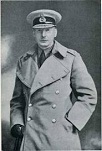
















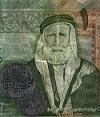

















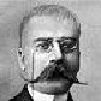



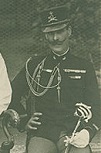

















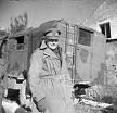










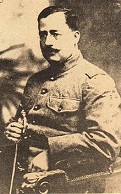
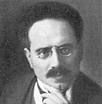

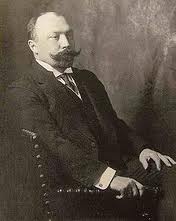































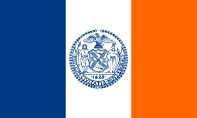
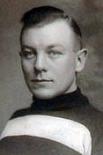
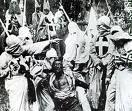

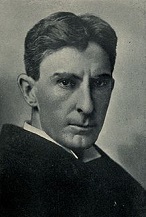
























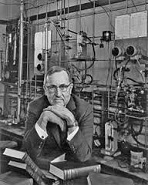




















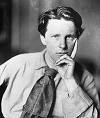

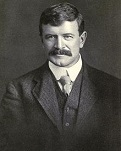
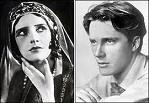

















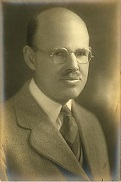




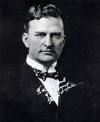
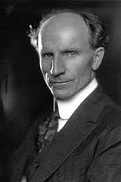





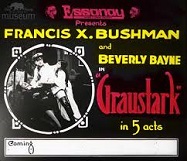
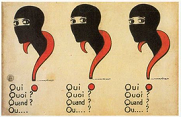









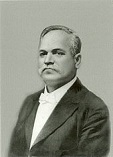

















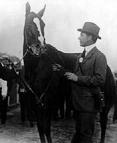
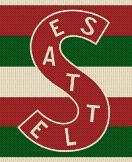
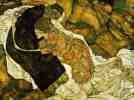

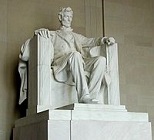
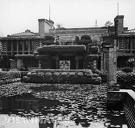


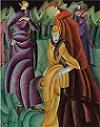

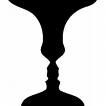




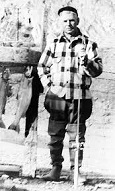
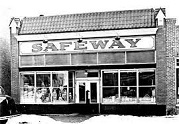
1915 Chinese Year: Rabbit - as in rabbit hole? At the start of the year the French have lost 300K dead and 600K wounded, captured, or missing, more deaths than the Brits sustain in WWII. A war-caused famine in Syria and Lebanon this year and next kills 100K. Speaking of rabbits, tetanus epidemics plague the rat-infested trenches; and there is a typhus epidemic among the Austrian and Serbian armies, causing British women volunteers to travel to Serbia with 100+ tons of medical supplies. Between this year and 1926 a sleeping sickness (encephalitis lethargica) epidemic hits Europe, spreading to New York City by 1917 (until 1928); in summer 1969 80 survivors housed in the Beth Abraham Hospital in New York City, all frozen in a trancelike state are awakened by English Jewish neurologist Oliver Wolf Sacks (1933-2015) using L-dopa, starting with patient Leonard Lowe, only to find that the effects fade or disappear, incl. the smile and the playful quality. U.S. pop.: $100M; median age: 24, life expectancy: 55; new home price: $3.2K; milk: 36 cents/gal.; first class stamp: 2 cents, gasoline: 25 cents/gal. By this year most U.S. films are made in Los Angeles. Speaking of sleeping in trenches, at the start of the year the Western Front has become fixed, changing into a war of position (trench warfare); the Germans control all but the tip of Belgium, and about 10% (21K sq. km) of France, incl. many of the coal and iron mines and industrial areas; in the next three years the front line never varies by more than 10 mi., starting in the E in Verdun (Fr.), then W through Rheims (Fr.) and Soissons (Fr.), then N through Noyon (Ger.), Montdidier (Fr.), Peronne (Ger.), Albert (Fr.), Bapaume (Ger.), Arras (Fr.), Lens, La Bassee (Ger.), Armentieres, Ypres (Brit.), Passchendaele, Dixmude (Ger.), then through Nieuport (Brit.) and Ostend (Ger.) on the North Sea coast; in 1915-17 Britain sells Russia 1K airplanes and airplane engines, 250 heavy artillery, 27K machine guns, 1M rifles, 8M grenades, 64K tons of iron and steel, 200K tons of explosives, and 2.5B rounds of ammo - internat. Jewish banker jokes here? Between this year and 1925 over 1.5M blacks migrate to the N U.S. from the segregated South - massah ain't home and there's all them white wimmin? If it's stalemate on the land, let's mix it up on the sea? The year begins with a small naval battle which causes a shakeup of the command structure on both sides? In early Jan. the British Grand Fleet under Adm. Sir John Jellicoe has 20 (18?) dreadnoughts vs. 13 (17?) for the German High Seas Fleet under adm. Friedrich von Ingenohl (1857-1933), and four battle cruisers (based in Rosyth), the HMS Indomitable (1907) (12 in.), HMS Lion (1910) (13.5 in. guns), Tiger (13.5 in.), HMS Princess Royal (1911) (13.5 in.), and HMS New Zealand (1911) (12 in.) against four for the Germans (based in Wilhelmshaven), the SMS Von der Tann (1909) (11 in.) (under repair), SMS Blucher (1909) (8 in.), SMS Moltke (1911) (11 in.), SMS Derfflinger (1912) (12 in.), and SMS Seydlitz (1913) (11 in.). On Jan. 1 German sub U-24 sinks British battleship HMS Formidable in the English Channel off Lyme Regis, Dorset, killing all 547 aboard. On Jan. 1 the Battle (Massacre) of Broken Hill in N.S.W., Australia sees two Muslims from N India (Pakistan) ambush a train, killing four and injuring seven, becoming the first jihadist attack in Australia. In early Jan. Winston Churchill writes a Letter on the Tank to British PM Herbert Asquith, proposing that steam tractors be fitted with small armored shelters and used to cross trenches at night; J.A. Corry of Leeds demonstrates a complete working model of a tank to the British authorities, who reject it, but Churchill proves his worth by getting it manufactured in 1915-16. On Jan. 2 a telegram from the British ambassador in Petrograd reaches London with a plea from Grand Duke Nicholas to make a "demonstration" against the Turks to induce them to withdraw from the Caucasus. On Jan. 2 the Brits propose a plan to attack the Turkish forts of the Dardanelles using the Anzac Corps in Egypt after David Lloyd George on Jan. 1 urges "bringing Germany down by knocking the props from under her"; on Jan. 5 Lord Kitchener informs the British War Council of the plan, which they approve, with secy. (since Nov.) Maurice Pascal Alers Hankey (1877-1963) uttering the soundbyte that a V in the Dardanelles "would give us the Danube as a line of communication for an army penetrating into the heart of Austria, and bring our sea power to bear in the middle of Europe." On Jan. 5 Am. pilot Joseph Eugene Carberry (1887-1961) sets an altitude record of 11,690 ft. (3,560m), carrying Capt. Benjamin Delahauf Foulois as a passenger in a fixed-wing aircraft. On Jan. 7 Bolsheviks distribute leaflets in Petrograd calling for the proletariat incl. soldiers to quit paying monthly rents; meanwhile wealthy Jewish Bolshevik Alexander Lvovich Parvus (Helphand) (Israel Lazarevich Gelfand) (1867-1924) tells the German ambassador to Turkey in Constantinople: "The interests of the German government are identical with those of the Russian revolutionaries", and by Apr. they start handing money to Swiss exile Vladimir Lenin via an Estonian intermediary to pump-up the anti-war propaganda in hopes of undermining the tsarist regime. On Jan. 11 the Battle of Bayt al-Falaj in Muscat, Oman is a V for the British-backed sultanate over resurgent Ibadist rebels. On Jan. 12 the U.S. House of Reps rejects a proposal to give women the right to vote - no more fluffy pancakes? On Jan. 13 Count Istvan (Stephen) Burian von Rajecz (1851-1922) becomes foreign minister of Austria-Hungary (until 1918), replacing Baron Leopold von Berchtold, and on Jan. 16 he receives German Count Betho von Wedel, agreeing on Mar. 9 to cede Trentino to Italy, but only after the war ends, which Italy refuses, demanding the immediate cession of the South Tyrol, the Gorizia and Gradisca districts, and the Curzolari Islands off the Dalmatian coast, the establishment of the Trieste area as a free state, and full sovereigny over Saseno Island and Valona on the Albanian coast; it takes until May 10 for the Germans to talk the Austrians into all of it, but by then it's too late to keep the Italians from joining the Allies as they begin secret negotiations in Feb. On Jan. 13 U-31 leaves Wilhelmshaven and disappears, then drifts ashore 6 mo. later on the E coast of Britain, its crew found dead of poisonous gases. On Jan. 13 a 6.8 earthquake in Avezzano, Italy near L'Aquila kills 29K. On Jan. 14 South African troops under Gen. Louis Botha cross the Orange River into German Southwest Africa and take Swakopmund from the Germans, followed in Mar. by Riet, Treckkopje on Apr. 26, and Windhoek on May 12, forcing the 3.5K German and colonial troops to capitulate on July 9 at Otawi; meanwhile thousands of Boers revolt against Botha's support of the British declaration of war against Germany (until 1916). On Jan. 15 the Russians win the Battle of Sarikamish (begun Dec. 22) after 23K Turkish and 60K Russian casualties, ending the Turkish threat in the Caucasus, and causing the telegram to be withdrawn. On Jan. 15 after visiting German POWs near Warsaw, war correspondent Stanley Washburn comments in the London Times: "The more one sees of the Germans, and these are far below the average in type, the more one begins to feel that there is a long, long road ahead of the Allies before these determined people are broken." On Jan. 17 Mexican pres. Eulalio Gutierrez is deposed, and on Jan. 27 Gen. Alvaro Obregon recaptures Mexico City and restores pres. Venustiano Carranza; meanwhile Carranza's forces under Gen. Salvador Alvarado Rubio (1880-1924) invaded Merida, Yucatan and deposed gov. Abel Ortiz Argumedo, then liberated the workers from debt peonage, helping them form unions; too bad, on Apr. 6-15 Pancho Villa's 22K-man army is badly defeated at the Battle of Celaya by the 15K troops of Gen. Obregon using U.S. know-how (from WWI) and arms incl. 13 big field guns, killing 5.8K, wounding 5K, and capturing 6.5K, with his own losses amounting to 695 KIA and 641 wounded, and on Oct. 19 the U.S. and several Latin American states recognized Carranza as pres., followed by Britain on Nov. 16. On Jan. 18 the Japanese issue their Twenty-One Demands on China, demanding the German spheres of influence in China along with special economic rights for Japanese nationals living in China, resulting in two treaties on May 25 - and if we think of more we'll letchya know? On Jan. 18-19 the Battle of Jassin (Jassini) (Yasin) in German East Africa sees 200+ Germans under Gen. Paul Erich von Lettow-Vorbeck along with 1,350 Askaris defeat 1.1K Brits under Capt. Hanson. On Jan. 19 the Battle of Hartmannswillerkopf (ends Dec. 22) in the Vosges Mts. of Alsace sees bitter fighting to control the peak, only to result in a push after 30K are KIA on both sides, mainly French; a monument is later erected. On Jan. 19 German Zeppelins stage their first bombing raid on Britain, dropping bombs on four English communities in East Anglia, killing two in Great Yarmouth and two in King's Lynn, for a total of 20. On Jan. 19 Salado, Tex.-born James Edward "Pa" Ferguson Jr. (1871-1944) becomes Dem. Tex. gov. #26 (until Aug. 25, 1917); on Aug. 25, 1917 after getting into a war with the U. of Tex. over certain faculty members, he is impeached, and his wife Ma Ferguson begins running for his seat; on Aug. 25 Moscow, Tex.-born Houston Post publisher William Pettus Hobby (1878-1964) becomes Dem. Tex. gov. #27 (until Jan. 18, 1921) (youngest so far). On Jan. 21 German sub U-7 under Capt. Koenig is torpedoed and sunk by mistake by U-22 under Capt. Hoppe, killing all but one aboard. On Jan. 21 Kiwanis (originally the Supreme Lodge Benevolent Order of Brothers) is founded in Detroit, Mich. On Jan. 21 pro-Turkish prof. Ernst Jaeckh (Jäckh) (1875-1959) tells Kaiser Wilhelm II that he hopes that Prussian officers in Turkey will soon be looking out across the Suez Canal, terrifying him at the thought of a long war, with the soundbyte: "You must be mad. My troops are not there for that purpose." On Jan. 23 the Germans and Austrians begin their Carpathian Offensive (ends Apr.). On Jan. 23 British pilots Richard Bell Davies (1886-1966) and Richard Edmund Charles Peirse (1892-1970) drop 16 bombs from low alt. on German subs lying alongside the Mole at Zeebrugge, earning them a Distinguished Service Order; in Oct. 1940-Jan. 1942 Peirse becomes CIC of the British Bomber Command. On Jan. 23 (eve.) the Chilembwe Uprising in Nyasaland against British colonial rule begins, led by Am.-educated black millenarian Christian minister Rev. John Chilembwe (1871-1915), causing the white authorities to crush them, capturing Mbombwe on Jan. 26, killing Chilembwe on Feb. 3, executing 40 rebels and imprisoning 300; after Malawi declares independence in 1961, the revolt becomes a nat. symbol. On Jan. 24 the Battle of Dogger Bank sees the German High Fleet try a sneak-attack, but thanks to a captured codebook the Brits are ready for them, sinking the flagship SMS Seydlitz, killing 192, and the Germans flee back home under close pursuit; after disabling the SMS Blucher (Blücher), which sinks, killing 782, a still photo later being engraved on British souvenir silver cigarette cases, the Brits make a mistake when Adm. David Beatty's ship Lion is disabled and its flags can't be read, causing them to keep pounding the dead ship and letting the other three German ships escape; the debacle causes Ingenohl to be replaced on Feb. 2 as German High Seas Fleet cmdr. by Adm. Hugo von Pohl (1855-1916) (until 1916), who proves a worse disaster, going yellow, afraid to engage the larger British Grand Fleet, causing a revolt by junior officers to simmer; meanwhile he institutes U-boat warfare, with a U-boat sinking its first British merchant ship without warning on Jan. 30, followed on Feb. 1 by another at the mouth of the Mersey River. On Jan. 24-29 King Constantine of Greece overrules pro-Allies PM Eleutherios Venizelos and refuses an Allied offer of the Turkish city of Smyrna and its hinterland in return for ceding the Kavalla region to Bulgaria and joining a Balkan bloc in support of Serbia. On Jan. 25 Romania refuses to join Greece in support of Serbia. On Jan. 25 Alexander Graham Bell inaugurates U.S. transcontinental telephone service. On Jan. 26 265K-acre (352.5 sq. mi.) Rocky Mountain Nat. Park in NC Colo. 76 mi. NW of Denver Internat. Airport between the towns of Estes Park and Grand Lake on both sides of the Continental Divide is established by Pres. Woodrow Wilson after a 7-year fight by Colo. environmentalist Enos Abijah Mills (1870-1922), becoming U.S. nat. park #10; it contains the headwaters of the Colorado River; Mills Lake is named in his honor; in 1976 UNESCO designates it as a World Biosphere Reserve; in 2016 it has 4.5M visitors. On Jan. 26-Feb. 4 the First Suez Offensive sees 5K Turkish troops under German Gen. Freidrich Freiherr Kress von Kressenstein (1870-1948) march 130 mi. across the Sinai Peninsula, then on Feb. 3-4 stage a failed attack on the British-protected Suez Canal, losing 200 KIA and 700 POWs after 60 men cross to the W side over three pontoon bridges and are driven back by Indian troops supported by British warships and an armored train, ending Turkish hopes of landing 20K troops in Egypt and starting an anti-British uprising after capturing Ismailia. On Jan. 27 (dawn) British artillery on the Western Front celebrate Kaiser Wilhelm II's birthday by firing 21 rounds at German trenches, causing the Germans to signal each miss with a flag until a shell hits the signaler. On Jan. 28 the Sinai and Palestine Campaign is begun by the British against the Ottoman Empire, starting with an Ottoman attempt on the Suez Canal and ending on Oct. 30, 1917 with the Ottoman cession of Palestine and Syria. On Jan. 28 the U.S. Coast Guard is established by Congress by merging the Revenue Cutter Service (founded 1790), the U.S. Life Saving Service, and the U.S. Lighthouse Service. On Jan. 29 German lt. Erwin Johannes Eugen Rommel (1891-1944) leads his platoon in an assault on four French blockhouses, and after they fail to follow he crawls back and threatens to shoot them until they comply and capture the blockhouses until a French counterattack forces them to withdraw, earning Rommel the Iron Cross, First Class, after which his regiment has the saying "Where Rommel is, there is the front." On Jan. 30 a German attack in the Argonne captures 700 French POWs. On Jan. 31 the Battle of Bolimow on the Rawka River W of Warsaw in Poland is a V for the Germans, who use 18K xylyl bromide poison gas shells (first large-scale use of poison gas by the Germans), causing 1K+ Russian casualties, but backfiring when it blows back on their own lines, allowing the Russians to counterattack with 11 divs., only to be repelled by German artillery, suffering 40K casualties; freezing temps hamper the gas; on June 8 the Germans drive the Russians back 4 mi. on the Bzura River. In Jan. a revolt of pro-German South African war veterans is quashed. In Jan. Metro Pictures Corp. is founded to distribute Solax films by Richard A. Rowland (1880-1947) and Louis Burt Mayer (1884-1957), who leaves to go solo in 1918; its biggest stars are Viola Dana (Virginia Flugrath) (1897-1987), and the romantic teams of Francis Xavier Bushman (1883-1966) and Beverly Bayne (Pearl Beverly Bain) (1894-1982), and Harold A. Lockwood (1887-1918) and May Allison (1890-1989); in 1920 Rowland sells out to Marcus Loew, becoming an exec at Fox Film Corp.; on Apr. 16, 1924 Metro merges with Goldwyn Pictures and Louis B. Mayer Pictures to become Metro-Goldwyn-Mayer (MGM). On Feb. 1 opals are discovered at Big Flat, Australia, near Coober Pedy (white man's hole) - I love a burrito when I'm hungry and I love kumquats? On Feb. 4 after German chancellor Theobold von Bethmann-Hollweg agrees to the navy's request on Feb. 1 as an answer to Britain's "hunger blockade" of Germany by mining the sea last Nov., the German govt. publicly announces their U-Boat Naval Blockade (unrestricted submarine warfare), effective Feb. 18, with the soundbyte: "All the waters surrounding Great Britain and Ireland, including the whole of the English Channel, are hereby declared a war zone... It is impossible to avoid attacks being made on neutral vessels mistaken for those of the enemy"; on Feb. 9 the U.S. warns Germany that it will be held responsible for the loss of U.S. ships and lives, and promises to take "any steps it might be necessary to take" to safeguard them, without being specific. On Feb. 4-22 the Second (Winter) Battle of Masuria sees the Germans advance and take the Baltic port of Memel in Lithuania on Feb. 17. On Feb. 9 the Germans begin an offensive against the Russians from the Masurian Lakes S towards Warsaw, enveloping the Russian Tenth Army near Grodno, and taking 90K POWs, finally occupying the city on Sept. 3; many Russian troops have no rifles; the Russians quickly form the Twelfth Army under turncoat German Gen. Wenzel von Plehve (1850-1916), and strike back between the Narev River and the East Prussian frontier, causing the German advance to halt. On Feb. 10 the Germans counterattack in Champagne, France, taking 500 French POWs. On Feb. 10 after 11 days the Germans capture the fortress of Kovno, capturing 10K Russian POWs, followed on Feb. 14 by 5K more at Lyck, followed on Feb. 21 by 70K more at Augustow. By mid-Feb. the British lay 17 mi. of "indicator nets" across the Straits of Drover, consisting of wire nets with buoys or glass balls that catch on to German subs and give away their presence. On Feb. 15 the Russians take the fortress of Erzurum from the reeling Turks; meanwhile the Armenians in E Anatolia ally with the Russians, fighting against Muslim Turks and Kurds, causing Enver Pasha to begin deporting the Armenian pop. in May to prevent an uprising, which is at first approved of by German gen. Baron Colmar von der Goltz, until he realizes that it will later backfire in world opinion, causing him to recommend a stop in Dec., which is only implemented in Mesopotamia. On Feb. 15 after the Ghadar Mutiny in India is encouraged by the Germans, the 1915 Singapore Sepoy Mutiny (ends Feb. 22) sees the 850-man 5th Native Light Infantry mutiny, killing 47 incl. 39 Brits, after which the British shoot 37 ringleaders; in India a police spy is used to uncover and hang 18 Sikh ringleaders; German ship ? is interned by the Italians and found to be carrying 500K pistols, 100K rifles, and 200K cases of ammo, presumably for the uprising. On Feb. 15 state-of-the-art German battleship SMS Bayern is launched, entering service in July 1916, too late to see the Battle of Jutland. On Feb. 15 the Frobenius Expedition, led by archeologist Leo Frobenius under the guise of the Fourth German Inner-Africa Research Expedition lands in Eritrea, with the goal of drawing Ethiopia into the Great War to threaten the Suez Canal, but the Italians arrest them and deport them back to Berlin, which doesn't stop the Germans from sending a 2nd mission in June led by Salomon Hall, which is also arrested, but their documents reach the German envoy Frederick Wilhelm von Syburg in Oct.; too bad, on Sept. 27, 1916 after converting to Islam, Ethopian prince (since Apr. 10, 191) Lij Iyasu is deposed, ending the scheme. On Feb. 17 the Austrians under Field Marshal Klaudius Freiherr Czibulka von Buchland (1862-1931) take Prut in the Carpathians along with 60K Russian POWs, followed by Stanislau in SE Galicia on Feb. 20, but the Russians take it back on Mar. 2. On Feb. 17 British mining engineer Lt. Col. Sir John "Empire Jack" "Hellfire Jack" Norton-Griffiths (1871-1930) begins enlisting volunteers for the new Royal Engineers Tunnelling Cos., who dig and blow-up tunnels beneath enemy trenches in the Western Front. On Feb. 17 the land war being stalemated, the Allies launch the Gallipoli Campaign (Offensive) (ends Jan. 9, 1916) in the Gallipoli Peninsula and the Dardanelles Strait, "the soft underbelly of Europe" (Churchill), with the British Navy bombarding the two outer Dardanelles forts Sedd-ul-Bahr (Sedd el Bahr) (Turk. "key of the sea") and Kum Kale, repeating it on Feb. 25 and destroying them both, which doesn't stop the Turks from siting artillery and machine guns there. On Feb. 19 the Ghadr Rebellion of expatriate Indian Sikhs and Hindu Punjabis from the W coast of the U.S. is ruthlessly suppressed by the British, after which on Mar. 15 the 1915 Defense of India (Regulations) Act is enacted by the British gov.-gen. of India as an emergency measure, and immediately applied in the Lahore Conspiracy Case Trial in Lahore, which convicts 291, giving out 42 death sentences, 114 life sentences, 93 shorter prison sentences, and 42 acquittals, after which the Hindu-German Conspiracy Trial in San Francisco, Calif. on Nov. 20, 1917-Apr. 24, 1918 of 26 Ghadar Party Indian nationalists, nine Germans, nine Americans, and nine Indians for conspiracy with Germany to form a military enterprise against Britain, violating U.S. neutrality, and all are fund guilty and sentenced to 60 days to 22 mo.; at the end of the trial defendant Ram Chandra is shot and killed by deendant Ram Singh while taking the witness stand, after which U.S. Marshal James H. Holohan kills him. On Feb. 20 the Germans make good their war zone notice and sink Norwegian ship Bjaerke in Nakskov Fjord without warning; Britain announces a blockade of German ports starting on Mar. 11. On Feb. 20-Dec. 4 the Panama-Pacific Internat. Exposition is held in San Francisco, Calif.; Rochester, N.Y.-born "American Venus" Audrey Marie Munson (1891-1996) is chosen by Alexander Stirling Calder as the exposition's model; the Hawaiian Pavilion features George E.K. Awai and his Royal Hawaiian Quartet along with Honolulu-born ukelele maker Jonah Kumalae (1874-1940), featuring the ukelele, lap steel guitar, and slack-key guitar, sparking a craze that lasts through the 1920s and helps accelerate Hawaiian statehood, with Kumalae's ukeleles given to passengers on Hawaii-bound cruise ships in the 1920s and distributed at the Royal Hawaiian and other hotels; Tiny Tim later owns a Kumalae ukelele, which is auctioned by his daughter for $2900 in 2004; the Internat. New Thought Alliance (INTA) is held in conjunction with the fair, impressing the organizers so much that they present leader Annie Rix Militz (1856-1924) with a special commemorative bronze medal on a special New Thought Day. On Feb. 21 after annexing the 12th cent. town of Zabrze in Poland about 100 mi. SE of Wroclaw, German Kaiser Wilhelm II renames it Hindenburg in honor of you know who (until 1945). On Feb. 22 the U.S. occupation of Haiti begins after Haitian pres. (since 19145 Davilmar Theodore is overthrown by Jean Vilbrun Guillaume Sam (-1915), who becomes pres. of Haiti on Mar. 4, then executes 167 political prisoners incl. former pres. Oreste Zamor, pissing-off a mob, which on July 27 chases him into the French embassy, finds him hiding in a toilet, then rips his body to pieces and parades the pieces through Port-au-Prince, causing Pres. Wilson to order 300 U.S. Marines to invade Port-au-Prince, Haiti on July 28 (until 1934), and install Philippe Sudre Dartiguenave (1863-1926) as pres. on Aug. 12 (until May 15, 1922); the U.S. goes on to impose forced labor on black peasants, and put down two major rebellions by dirty deeds incl. torture and summary executions before leaving on Aug. 15, 1934. On Feb. 22 the Germans capture Przasnysz, taking 10K Russian POWs, after which the Russians retake the town on Feb. 25, taking 5.4K German POWs. On Feb. 23 the U.S. Supreme (White) Court rules 9-0 in Mutual Film Corp. v. Industrial Commission of Ohio that motion pictures are commercial speech not protected by the First Amendment, allowing the Puritans to clamp down via obscenity laws; on May 26, 1952 the court reverses itself in Joseph Burstyn Inc. v. Wilson. The advent of trench warfare calls for bigger blasters? On Feb. 26-28 the Germans first use a Flamethrower (Flame Projector) in the village of Douaumont, France near Verdun, becoming the first of 653 flamethrower attacks in the war. On Mar. 1 French troops are issued their first grenades - to throw at the dudes with the flamethrowers? By Mar. 1 the British force in Qurna threatening Baghdad consists of two divs. and a cavalry brigade commanded by Gen. Sir. J.E. Nixon; Maj. Gen. Sir George Frederick "Bloody Orange" Gorringe (1868-1945) leads a column up the Karun River, driving the Turks out of Ahwaz on Mar. 3. On Mar. 3 the Nat. Advisory Committee for Aeronautics (NACA) is founded by the U.S. govt. to promote aeronautical research; on Oct. 1, 1958 it is replaced by NASA. On Mar. 4-Apr. 10 the secret Constantinople Agreement between Triple Entente members Britain, France, and Russia promises Constantinople (Istanbul) and the Bosphorus Straits to Russia in the event of a complete victory, with Constantinople to be a free port; too bad, it is never carried out. On Mar. 6 Eleutherios Venizelos falls from power after the king refuses to adopt his policy of aiding the Allies in the Dardanelles, and on Mar. 9 right-wing People's Party leader Demetrios (Dimitrios) Gounaris (1866-1922) becomes PM (until Aug. 23), on Apr. 12 rejecting a 2nd Allied offer of the Smyrna region on the excuse that the Allies could not guarantee Greek territory against Bulgaria. On Mar. 10 the Battle of Neuve Chapelle starts with a 35-min. 342-gun British artillery barrage in in an attempt to capture the village of Aubers 1 mi. E, firing more shells than in the entire Boer War, capturing Neuve Chapelle after four hours; too bad, a 400-yard stretch of the N sector didn't have any guns assigned to it, causing 1K British and Indian troops storming it to be massacred; on Mar. 11 a foul-up causes British troops to attack 5 min. after the artillery stops, causing another massacre; on Mar. 13 the attack succeeds after 7K British and 4.2K Indian casualties and 10K German casualties and 1.2K POWs taken. On Mar. 10 newly-promoted Capt. Charles de Gaulle is wounded in the hand, and after it turns septic spends 2 mo. in the hospital. On Mar. 14 German light cruiser SMS Dresden (launched Oct. 5, 1907), cornered in the Juan Fernandez archipelago of Chile is scuttled by its crew off the coaling station of Robinson Crusoe Island (Mas a Tierra) (Aguas Buenas). On Mar. 16 the U.S. Federal Trade Commission (FTC) is established to replace the Bureau of Corporations created on Feb. 14, 1903. On Mar. 16 yummy pale green 136 proof psychedelic Absinthe, AKA the Green Fairy (distilled with thujone-containing wormwood, with anise flavoring) is outlawed in France as the worst devil juice ever made; later scientific investigations show that it's not really psychedelic? - only governments can poison other people by law? On Mar. 16 the USS Pennsylvania is launched from Newport News Ship Yard, Va.; on June 19 the USS Arizona is launched from the New York Naval Ship Yard; their 14-in. guns are no match for the German 15-inchers. On Mar. 17 the First Battle of Champagne (begun Dec. 20) ends at almost the initial lines, with 90K French, 90K German, and 3K German casualties. On Mar. 18 the Allies begin the final attack on Gallipoli with six British and four French battleships; too bad, minesweepers fail to clear a line of 20 mines parallel to the shore laid by Turkish steamer Nousret on Mar. 18, sinking British battleships HMS Irresistible and HMS Ocean, killing 47, and French battleship Bouvet, killing 620; the British almost defeat the Turks during the night, but screw up via poor communications?; on Mar. 19 bad weather sets in, and the army is called to finish the job under Gen. Sir Ian Standish Monteith Hamilton (1853-1947); on Mar. 20 the British forget about 1854 and 1878 and secretly promise Russia Constantinople, the Bosphorus Strait, more than half of Turkey, and the shores of the Dardanelles incl. the Gallipoli Peninsula, and on Mar. 29 the Russian Black Sea Fleet of five battleships, two cruisers, and 10 destroyers attacks the forts on the Bosphorus Strait, losing two destroyers to the Goeben before withdrawing; meanwhile on Mar. 25 British colonial secy. (1910-15) Lewis (Reginald) Vernon "Loulou" Harcourt, 1st Viscount Harcourt (1863-1922) sends a memo to the British War Council titled The Spoils, proposing that after the expected easy defeat of Turkey, Britain annex Mesopotamia as "an outlet for Indian emigration", and offer Jerusalem, Bethlehem, and Nazareth (the "Holy Places") to the U.S. as a mandate, while Lord Kitchener suggests British annexation of Aleppo and Alexandretta, making Haifa a British port and oil pipeline terminal linking to Mosul, the British Admiralty suggests annexing the entire Euphrates River Valley from Urfa and Baghdad to Basra to block Russian expansion, British secular Jewish diplomat Herbert Louis Samuel, 1st Viscount Samuel (1870-1963) kibbutzes for a Jewish homeland in Palestine, British Conservative MP Col. Sir Mark Sykes (1879-1919) proposes giving Palestine incl. Jerusalem, Bethlehem, and Jaffa to a "special Russian admin.", and first lord of the admiralty (since Oct. 24, 1911) Winston Leonard Spencer-Churchill (1874-1965) suggests giving Palestine to Belgium, and urges another naval attack to make an army landing unnecessary; Sykes and his group at Lord Kitchener's War office resurrect the names Syria, Palestine, Iraq, and Mesopotamia, and design the Arab Revolt Flag with its green-red-black-white colors; on Mar. 26 Gen. Liman von Sanders arrives to take command of the Turkish Fifth Army, while Bulgaria and Romania buckle to German pressure and allow German weapons to pass through to Turkey, the British protesting in vain; German aircraft are stationed at Chanak to provide the Turks with aerial reconnaissance, until on Apr. 18 a British plane drops six 100 lb. bombs on the hanger, destroying them; meanwhile Greek, Armenian, and Jewish night workers from Chanak are enlisted along with 500 German officers and soldiers to build defenses for the Gallipoli Peninsula from Cape Helles to Bulair. On Mar. 19 after fleeing from Palestine to Egypt, Zionist leader Ze'ev Jabotinsky (Vladimir Yevgenyevich Zhabotinsky) (1880-1940) et al. form the 500-man all-Jewish Zion Mule Corps, commanded by British lt-col. John Henry Patterson (1867-1947), with five British and eight Jewish officers, incl. senior Jewish officer Capt. Joseph Trumpeldor (1880-1920), who serve with distinction in the Gallipoli Campaign. On Mar. 20 the Russians under Gen. Brusilov take 2.4K Austrian POWs near Smolnik. A damp chemise'll make you sneezle? On Mar. 22 (Easter Sun.) in blizzard conditions the Russians under Gen. Brusilov capture the fortess of Przemsyl N of the Carpathians in Galicia (between the Black and Baltic Seas) after 133 days (Sept. 24), taking 120K Austrians POW incl. nine gens., and capturing 700 artillery pieces, recovering the ground lost in the mountains from the Austrians; the senior Austrian cmdr. escapes by airplane; the Austrian high command appeals to Germany for help against the Russkies, and they send a special German mountain corps; too bad, they arrive too late, and by Easter the Russians are in control of the 70-mi. Carpathian Crest from the Dukla Pass to the Uszok Pass, threatening the Hungarian plain. On Mar. 22 a surprise attack at Okna by Russian Circassian cavalry causes Croatian sgt. Josip Broz Tito (1892-1980) to be lanced in the back and taken POW. On Mar. 25 the Russians under Gen. Brusilov retake Lupkow Pass, capturing 8.2K Austrian POWs. On Mar. 25 U.S. sub F-4 explodes and sinks off Honolulu, Hawaii, killing 21, becoming the U.S. Navy's first underwater disaster. On Mar. 25 all Islamic courts in the Ottoman Empire are placed under the jurisdiction of the ministry of justice, endowed (vakif) property is placed in the hands of the finance ministry, and supervision of religious schools is transferred to the ministry of education. On Mar. 25 Albert Einstein writes to French pacifist Romain Rolland: "When posterity recounts the achievements of Europe, shall we let men say that three centuries of painstaking cultural effort carried us no farther than from religious fanaticism to the insanity of nationalism? In both camps today even scholars behave as though eight months ago they suddenly lost their heads." On Mar. 28 the Thrasher Incident sees British West African steamship SS Falaba sunk by German sub U-28 under Capt. Georg-Gunther Freiherr von Forstner (1882-1940) in St. George's Channel en route from Liverpool to Sierre Leone, killing 104 of 242 aboard incl. Mass. mining engineer Leon Chester Thrasher (b. 1884) (first U.S. citizen killed in the war), becoming the first Allied passenger ship sunk by the Germans, later known as the "Mini-Lusitania". On Mar. 28 a German sub atttacks British Great Eastern Railway steamer SS Brussels, and British Capt. Charles Algernon Fryatt (1872-1916) saves it by turning and attempting to ram it, earning a gold watch from the Admiralty; too bad, he is captured and executed in Bruges by the Germans on July 27, 1916, bringing together his fellow POWs at Ruhleben and causing an internat. outcry since he is a civilian noncombatant. On Mar. 31 the Germans sink 29 ships, more than the total in the war so far, killing 161 Brits; in Mar. despite the German blockade the total movement of British ships equals 6K in and out, with losses of only 21. In Mar. French Gen. Michel Joseph Maunoury is severely wounded at Soissons, and spends the rest of the war as military gov. of Paris. In Mar. the German advance in Lithuania stirs up anti-Semitism, with widespread looting of Jewish homes and shops, and Russian Cossacks driving them from their homes through the snow, causing 500K Jews to leave Lithuania and Courland; Russian chief of staff (Aug. 1914-Sept. 1915) Gen. Nikolai Nikolaevich Yanushkevich (1868-1918) whips up anti-Semitism from the top. This is our thanks for Noah's Ark? In Mar. the world powerless to help, the "Young Turk" Ottoman govt. begins the Armenian Genocide against the minority Christian Armenians, and on Apr. 8 tens of thousands of Armenian men are rounded up and shot for allegedly cooperating with the Russian invasion force, while hundreds of thousands of women, children, and old men are deported S to Cilicia and Syria; on Apr. 15 the Armenians appeal to German ambassador Baron Hans von Wangenheim in Constantinople for German protection, and are rejected by Berlin; by Apr. 19 50K+ Armenians in Van Province are murdered; on Apr. 20 the Armenian city of Van is surrounded by Turkish forces, with 1.3K armed Armenians defending 30K civilians until the Russians arrive on May 19 to save them, while the Turks are busy deporting tens of thousands of Armenians from Erzerum S into N Mesopotamia; on Apr. 24 the Armenians declare a day of mourning, and Armenian Church head (since 1911) Catholicos Kevork V (-1930) appeals in vain to Pres. Wilson to intervene, while Turkey arrests 250 Armenian intellectuals and community leaders in Constantinople, beginning brutal deportations of the intelligentsia from E Anatolia, allegedly to prevent insurrections behind the Eastern Front; on Apr. 28 German vice-consul of Erzerum Ludwig Maximilian "Max" Erwin von Scheubner-Richter (1884-1923) receives instructions from Berlin to avoid "massacres" while not leading the Turks to think that "we want to exercise a right of protection over the Armenians or interfere with the authorities", tying his hands; meanwhile after expressing his wishes that they avoid anything that "might look like Christian massacres", the Turkish Foreign Ministry tells von Wangenheim that the Turkish garrison in Van Province are poorly trained conscripts, hence "excesses" are inevitable; in May-June newspapers in neutral nations incl. the U.S., Denmark, and Switzerland pub. reports on the genocide; on July 4 von Wangenheim pub. a memorandum justifying the genocide as "dictated by military considerations and constituting a legitimate means of defense", but cautioning against "the dangers created by these rigorous measures and notably by the mass expatriations which include the guilty and the innocent indiscriminately, especially when these measures are accompanied by acts of violence such as massacre and pillage"; the persecution progresses into death marches and rapes and massacres of the entire Armenian pop., and lasts until 1923, killing 1M-1.5M out of 2.5M by 1916, with 200K forcibly converted to Islam, wiping out most (500K?) of what is left of the ancient Christian Assyrian Syriac Church; large numbers of refugees flee E into the Caucasus and S into Syria (Deir Zohr Desert) and Lebanon (which is 79% Christian is founded vs. 25% in 2011), settling permanently; the Ottoman govt. officially denies the genocide, claiming that it's just a "tragedy" in a "civil war" where Armenians also allegedly killed millions of Turks, and doesn't officially acknowledge it until ? - and the Turkish govt. will kill you if you mention the word genocide? In Mar.-Oct. a locust plague strikes S Syria and Palestine. On Apr. 1 a Socialist anti-war protest is held in Berlin, led by Polish-born Jew Rosa Luxemburg (1871-1919), who is imprisoned. On Apr. 1 French aviator Roland Garros (1888-1918) becomes the first pilot to shoot down an aircraft using a deflector gear, which allows shooting through the propeller; after more Vs against German aircraft on Apr. 15 and Apr. 18, he is shot down and the Germans capture his plane, after which the Dutch Fokker Co. clones then improves the deflector gear into the synchronization (interrupter) gear, mounting them on the new Fokker E.I. in Aug., beginning the Fokker Scourge (Scare) as they shoot down nearly every enemy aircraft they encounter and generate the first German aces, starting with Max Immelmann (1890-1916) (15 Vs), "the Eagle of Lille", inventor of the Immelmann Turn; next year the French counter with the Nieuport 11 Bebe (Bébé), in which the gun is mounted on the top wing clear of the prop, and the British with the Royal Aircraft Factory F.E.2b and Airco DH.2 (Feb. 1916), which mount the engine backwards with the prop in back, causing them to be called "pushers", ending the Fokker Scourge by spring 1917. On Apr. 5-May 5 the First Battle of Woevre on the Woevre Plain separating the Metz ridges from the line of heights along the Meuse River sees French attempts to reduce the St. Mihiel Salient fizzle. On Apr. 6 New York city adopts a flag, a vertical tricolor in blue, white and orange with the New York City Seal in the center bar in blue, derived from the Prince's Flag of the Dutch Repub. used in New Amsterdam in 1625 and going back to Prince William of Orange in 1577. On Apr. 8 Italy offers to join the Central Powers if Austria cedes the Trentino, Dalmatian Islands, Gorizia and Gradisca on the Isonzo River, and recognize Italian primacy in Albania; on Apr. 15 Austria rejects the offer, causing the Italians to turn to the Allies, asking for even more, and they agree to negotiate. On Apr. 8 French soldier and "The War of the Buttons" anti-war novelist Louis Pergaud (b. 1882) is accidentally killed near Marcheville-en-Woevre by friendly artillery fire after he falls into barbed wire on German lines and is put in a German field hospital; a disaffected French Foreign Legion is abandoned and the men returned to their own armies. On Apr. 10 the indicator nets become so effective that the German admiralty forbids U-boats from passing S through the Dover Straits to attack British transports, instead making them sail around the N coast of Scotland despite the greater expense. On Apr. 12 the Turks stage failed attacks on Qurna and Basra; meanwhile on Apr. 12-14 the Battle of Shaiba SW of Basra sees a British and Indian force of 6K rout 18K Turks, leading the Brits to the conclusion that the Turks at Gallipoli will be pushovers; at Shaiba Indian officer Jemadar Sudhan Singh is cut off, unhorsed, and set on fire with oil, receiving a posth. Indian Order of Merit. On Apr. 19 atty. Victorino Marquez (Márquez) Bustillos (1858-1941) becomes provisional pres. of Venezuela (until 1922) as a puppet of Gen. Juan Vicente Gomez, who is also elected pres., but prefers to remain in Maracay as CIC. The dumbest week of the war? On Apr. 22 (5:00 p.m.) after switching from explosives to chemical weapons, German Jewish chemist Fritz Haber (1868-1934) (known for the Haber Process for producing ammonia) helps the Germans first use poison chlorine gas as a weapon against two divs. of French Algerian and Canadian troops in the Ypres Salient in Flanders, Belgium at the Battle of Gravenstafel, part of the Second Battle of Ypres (ends May 25), releasing 168 tons of chlorine from 4K cylinders in 5 min. over a 4-mi. front, opening a 800-yard gap in the line that allows the Germans to capture 2K POWs and 51 guns; 15K are gassed, and 5K are killed; on Apr. 23 a 2nd German gas attack near Langemarck overruns the Canadian line, earning lance-cpl. Frederick Fisher (b. 1894) (who is KIA) a Victoria Cross for covering the retreat (first Canadian); on Apr. 24 a British-Indian counterattack is stopped by the Germans, earning Canadian sgt.-maj. Frederick William Hall (b. 1885) (who is KIA) a Victoria Cross for rescuing wounded men; on Apr. 24-May 5 the Battle of St. Julien in the NE sector of the Ypres Salient at the junction of the British and French sectors sees the 18K-man Canadian 1st Div. use urine-soaked handerkchiefs to fight the gas, which causes heavy casualties, but results in the first V for a former colonial force over a Euro power on Euro soil; on Apr. 25 after Gen. Smith-Dorrien tries to get Gen. Sir John French to call it off in vain, 15K British-Indian troops attack the German lines wearing yellow flags to guide their artillery, which end up being used by the Germans to aim at them, and the Germans release more gas, causing a diversionary group of French colonial troops from Senegal to revolt, shoot their officers after hearing they had orders to shoot them if they retreat, and mob the supply dumps and medical stations, looting and raping nurses until a British cavalry brigade stops them; too bad, the Germans don't have the protective gear to advance into their own gas clouds, and within a few days the Allies are issued a makeshift mask made of linen which they moisten with their own urine; Canadian Capt. Francis Alexander Caron Scrimger (1880-1937) earns a Victoria Cross for protecting the wounded on Apr. 25; on Apr. 26 Lord Kitchener is given permission by the British Cabinet to use gas on the Germans; within 6 wks. Allied troops receive effective protective gear, and initial outrage turns into a feverish race to develop their own little bottles of horror; meanwhile on May 2 after H aber is given the rank of capt. by the happy Kaiser, his beautiful brainy chemist wife (since 1901) Clara Immerwahr (b. 1870) freaks at the thought of his work and commits suicide with his service revolver in their garden, dying in her son's arms, which doesn't stop him from leaving immediately to help gas Russians on the Eastern Front; go figure, he never 'gets' it, and goes on to develop Zyklon B cyanide-based insecticide in the 1920s, while sucking up to the Nazis in vain - and guess what, I can't bear it? Erin go bragh? On Apr. 25 (Anzac Day) (3:30 a.m.) the Australian and New Zealand Army Corps (Anzac) accompanied by British and French trops land on Gallipoli Peninsula in the Dardanelle Straits with the goal of capturing Constantinople, starting the losing Battle of Gallipoli (Canakkale) AKA the Gallipoli or Dardanelles Campaign (ends Jan. 9, 1916), with one group landing before dawn at Z Beach in Anzac Cove beneath the precipitous heights of Chunuk Bair in the N, missing the intended landing place Gaba Tepe 1 mi. S opposite Maidos, being stopped two-thirds of the way up the slope by the Turks; the other group lands at S, V, W, X, and Y Beaches at Cape Helles at the S tip, meeting heavy Turkish fire, causing many to drown under the weight of their equipment, losing half their men at V Beach, and 254 killed and 283 wounded of 950 at W Beach; the Lancashire Fusiliers (of 1811 Spanish Peninsula War fame) are awarded six Victoria Crosses, spawning the phrase "Six VCs before breakfast", causing W Beach to be known as Lancashire Landing; Kiwi swimming champ Bernard Cyril Freyberg (1889-1963) is made to swim ashore in the Gulf of Saros and light flares in a lame attempt to distract the Turks from the real landings in Gallipoli, receiving serious wounds, and in WWII is appointed cmdr. of the 2nd New Zealand Expeditionary Force, becoming known for his policy of resisting any orders from the stankin' British if he believes they run contrary to New Zealand nat. interest; in the 1920s Anzac Day becomes a nat. holiday in Australia; by Apr. 26 (night) after 20K casualties the Allies land 30K troops; on Apr. 27 the Turks retreat in front of the hill of Achi Baba, and hold their lines after stopping a British attack on the village of Krithia by 14K men, who lose 3K casualties, and repelling 14K troops from Cape Helles on Apr. 28; on Apr. 29 Capt. Hugh Quinn (1888-1915) leads a detachment of 226 Queenslanders from the 15th Battalion, which is stopped at the head of the Monash Valley at Quinn's Post, which holds on for 8 mo. after Quinn is promoted to maj. on May 1 and KIA on May 29; on Apr. 30 British battleship HMS Lord Nelson bombards the whole length of the Dardenelles, setting Chanak on fire, doing ditto 1 mo. later; on May 6 a British sub sinks Turkish troop transport Guj Djemal in the Sea of Marmara, killing all 6K troops aboard. On Apr. 26 after Italy buys a future British success at Gallipoli and promises to enter the war in Mayh, the secret Treaty (Pact) of London between the Triple Entente of Britain, France, and Russia, and the Kingdom Italy brings Italy into the Entente with the promise of large swaths of Austria-Hungary and funding from Britain after Benito Mussolini breaks with the Socialist Party and supports PM Antonio Salandra against Giovanni Giolitti, and Russian foreign minister (1910-16) Sergei (Sergius) Dmitrievich Sazonov (1860-1927) drops objections to the Italians getting N Dalmatia and numerous islands on the Dalmatian coast even though his Serbian buddies want it, granting them the Dodecanese Islands (Rhodes, Cos, Karpathos et al.) and a "sphere of influence" in the Anatolian province of Adalya; Italy is also promised the Trentino, South Tyrol, Trieste, Gorizia and Gradisca, the Istrian Peninsula, territory in North Africa, and Valona and Saseno Island from Albania; Pope Benedict XV is excluded from peace negotiations to keep him from introducing the Roman Question (the status of Rome after it was occupied by Italian troops in 1870, ending papal temporal power). On Apr. 27 (night) French cruiser Leon Gambetta (launched in 1901) is sunk by Austrian sub U-5 in the Straits of Otranto, killing 684 of 821 aboard, causing the decision to be made to use only French and British destroyers ("tin can sailors") for the Otranto Blockade (Barrage), which allows Austrian subs free reign off the Greek island of Corfu, and on May 6 an Austrian light cruiser is seen in the Ionian Sea 125 mi. from the straits, alarming the Allies. On Apr. 28 after landing at Helles, the First Battle of Krithia 4 mi. from the tip of the Gelibolu Peninsula is a dud due to poor generalship by Lt. Gen. Sir Aylmer Gould "Hunter-Bunter" Hunter-Weston (1864-1940) (a "rank amateur" - Sir Douglas Haig), with 3K British vs. 2,378 Turkish casualties. On Apr. 28 the Internat. Congress of Women at The Hague is attended by 1.2K delegates from 12 countries; the British govt. stops 25 British women from attending by suspending the ferry service from Britain to Holland. In Apr. British gen. Sir Douglas Haig utters the soundbyte: "The machine gun is a much overrated weapon and two per battalion is more than sufficient." On May 1 the 5K-ton U.S. Gulf Refining Co. tanker Gulflight is torpedoed and sunk without warning off Sicily by German sub U-30, killing its master and two other Americans, becoming the first U.S. ship sunk in the war; the Germans later apologize. On May 1 the Germans use gas attacks to drive the British back to the outskirts of Ypres, with 1K+ British soldiers dying at a field hospital at Essex Farm near Boezinge, where Canadian doctor lt.-col. John Alexander McCrae (1872-1918) works, writing the poem In Flanders Fields on May 3 after presiding over the funeral of fellow soldier Alexis Helmer; on Jan. 28, 1918 he dies of pneumonia in Boulogne-sur-Mer. On May 1 the Germans and Austrians led by Gen. Anton Ludwig August von Mackensen (1849-1945) Anton Ludwig August von Mackensen (1849-1945) launch the major (originally considered minor?) Gorlice-Tarnow Offensive in W Galicia to drive the Russians out of the Carpathian Mts., starting with a 610-gun bombardment (largest on the Eastern Front so far) incl. gas shells, lasting 4 hours and firing 700K shells, making a breakthrough on May 2 between Gorlice and Tarnow W of Lemberg on a 28-mi. front, taking Gorlice on May 2 and Tarnow on May 7, capturing 30K Russian POWs within a week, and routing the Russians, who suffer 100K+ casualties by May 16; on July 1 Lemberg is retaken, followed on July 13 by Lublin, then Warsaw on Aug. 5, and Brest-Litovsk on Aug. 26; the advance ends in Sept., with the retreating Russians sustaining 1.5M casualties and losing 300K POWs, along with 3K guns; the front is now a straight line running N from the E end of the Carpathians to Riga on the Baltic; Mackensen receives a promotion to field marshal; "The military history of no former times can produce a second example of such a feat of arms" (German Gen. Francois); too bad, Berlin rejects the advice of Austrian foreign minister (Dec. 23, 1916-Apr. 14, 1918) Count Ottokar Czernin (1872-1932) to seek peace with Russia immediately on a policy of renunciation of all Austrian and German conquests, and instead it listens to a petition by the six most powerful German industrial concerns who want complete destruction of Russia and territorial annexations incl. Lebensraum in Russia, hegemony over Belgium, and chunks of France. On May 1 (10:15 p.m.) the Battle of Eski Hissarlik in Gallipoli near Achi Baba Hill sees the Ottomans under Gen. Liman von Sanders unsuccessfully attempt to push the Allied troops back into the sea. On May 3 the Italian govt. privately denounces the Triple Alliance, and the cat is out of the bag; on May 4 Austro-Hungarian CIC Archduke Frederick learns that the Triple Alliance is kaput, even though Italy has not publicly denounced it; on May 10 Italy concludes a naval convention with Britain and France. On May 3 the Romanians ask the Russians for Transylvania, part of Bukovina and the Banat in return for joining the war on their side; in July the Russians accept, but Romania stalls until the Allies have 500K men in the Balkans and the Russians another 200K in Bessarabia, which takes until Nov. On May 6-8 the Second Battle of Krithia sees 25K British and French troops supported by 105 heavy guns attempt to capture Krithia and Achi Baba in Gallipoli, advancing only 600 yards and suffering 6.3K casualties vs. 1,147 for the Turks, ending Allied hopes of a quick V; the Turks are commanded by German maj.-gen. Erich Paul Weber (1860-1933), who supervised the mining of the Dardanelles last Dec. Titanic II, or Lose Titania? On May 7 (1:30 p.m.) despite German warnings inserted in major New York newspapers on its sailing date of May 1 by the Germany embassy in Washington, D.C., the Cunard liner RMS Lusitania (call letters MSU) (secretly carrying small arms and munitions for Britain) leaves New York City en route to Liverpool 2.5 hours late; after Capt. William Thomas Turner (1856-1933) ignores guidelines to zigzag his course, stay in midchannel, and operate at full speed, ignoring six warnings of German subs in the area, it is torpedoed and sunk in 18 min. by German sub U-20, captained by Walther Schwieger (1885-1917) 12 mi. off Old Head of Kinsale, Ireland, killing 1,198 of 1,924 passengers, incl. 128 sacred cow Americans, incl. Alfred Gwynne Vanderbilt Sr. (b, 1877), writer-publisher Elbert Green Hubbard (b. 1856), novelist Justus Miles Forman (b. 1875) (who got a phone call from a mysterious man with a thick German accent warning him not to board) et al., causing feelings against Germany in the U.S. to rise; non-swimming Vanderbilt gives his life jacket to a woman with a baby; New York City theatrical mgr. Charles Frohman (b. 1860) goes down with the Lusitania after declining a lifeboat and uttering the Peter Pan soundbyte "Why fear death, it is the greatest adventure in life", and his partner Alf Hayman (1865-1921), younger brother of Raphael "Al" Hayman (1847-1917) takes over his production co.; Jerome Kern oversleeps and misses getting on the boat; Capt. Turner is washed off the bridge and survives. On May 7 the Allies give Serbia a conditional guarantee of the eventual acquisition of Bosnia and Herzegovina and "wide access to the Adriatic" in return for giving part of Macedonia to Bulgaria to bring it into the war, then on May 29 makes the offer to Bulgaria, which stalls as the Central Powers lure them with promises of their own about Serbian and Greek territory. On May 8-13 the Battle of Frezenberg Ridge in the Ypres Salient starts with a German attack that causes a 2-mi. gap until they are stopped by the British 10th Brigade. On May 9 the Ninth (Scottish) Div. becomes the first of Lord Kitchener's Army to leave for France; within two weeks they are followed by the Twelfth (Eastern) Div. On May 9 the Second Battle of Artois (ends June 18) sees the French advance E in Artois to try to cut the German supply lines between Artois and Rheims to threaten the salient between Amiens and Rheims that menaces French communication lines to Paris; it ends in a push. On May 9 the Battle of Aubers Ridge sees the British attack opposite Fromelles and La Bassee (La Bassée), trying to capture the Aubers Ridge; too bad, the 40-min. artillery bombardment suffers from too few shells and many duds and weak charges, causing the attacking British and Indian troops to be mowed down by German machine gun fire, after what's left of them are caught in another 40-min. British artillery bombardment; "They are lying out in No Man's Land, and most of them will never stand again" (Brig-Gen. Oxley); the few survivors of the double barrage then run towards the British trenches accompanied by German POWs, causing British troops to mistake them for an enemy counterattack and fire on them; Brig.-Gen. Arthur Willoughby George Lowry-Cole (b. 1860) is KIA on the parapet trying to get the retreating men to stop; later the kilted pipers of the First Black Watch lead another British attack, which is mowed down by German machine guns, which doesn't stop Gen. Haig from ordering a bayonet attack at dusk, causing his cmdrs. to revolt; on May 10 (dawn) he finally relents after they tell him they don't have enough artillery shells for a new offensive; total losses at Aubers Ridge are 458 officers and 11,161 men; on May 13 the Germans begin a heavy artillery bombardment in the Ypres Salient, hitting British soldier-poet Julian Henry Francis Grenfell (b. 1888) in the head with a shell splinter, after which he dies on May 26 with his parents and sister at his bedside, leaving the popular poem Into Battle; "The thundering line of battle stands,/ And in the air death moans and sings;/ But Day shall clasp him with strong hands,/ And Night shall fold him in soft wings." On May 10 the London Times pub. a Torture of a Canadian Officer, claiming that at the Battle of Ypres in Apr. German troops had crucified a Canadian soldier on a barn door with bayonets like Christ, causing increasing whoppers to circulate, all false? On May 11 an armistice is called in Gallipoli to bury the dead. On May 12 South African troops occupy Windhoek, capital of German South-West Africa. On May 13 (1:00 a.m.) after Gurkha troops capture Cape Tekke on May 12, British battleship HMS Goliath is sunk in the Dardanelles by Turkish destroyer Muavanet-i Milliye (Turk. "National Support"), commanded by German lt. Rudolph Firle, killing 570 of 700+ aboard, causing all plans to assault the Narrows to be scrapped. On May 13 saying "There is such a thing as a man being too proud to fight; there is such a thing as a nation that is so right it doesn't need to convince others by force", Pres. Wilson sends a conciliatory note to Germany (under the signature of secy. of state William Jennings Bryan), demanding reparations, but mentioning the possibility of war with the U.S. if it doesn't stop unrestricted U-boat warfare, with the soundbyte "No warning that an unlawful and inhumane act will be committed" will be accepted as a legitimate excuse, after which the Germans apologize, which doesn't stop anti-German riots throughout the British Empire; when Germany delays responding on reparations, on June 8 pacifist secy. of state Williams Jennings Bryan resigns rather than sign a 2nd note, and on June 24 Robert Lansing (1864-1928) (Bryan's asst., who ran a coverup that the Lusitania was carrying weapons for the British, which was too much for honest Bill?) becomes U.S. secy. of state #42 (until Feb. 13, 1920) - where do I sign, boss? On May 14 after British gen. Sir John French leaks info. about the artillery shell shortage at Aubers Ridge, war correspondent Lt. Col. Charles a (à) Court Repington (1858-1925) (Boer War vet, who was forced to resign in 1900 for an affair with a senior official in Egypt, turning journalist) begins pub. a series of articles in the London Times on it, incl. how by May 1 only 2M of 6M requested shells had been delivered to the army, causing Liberal British PM Herbert Henry Asquith to bow to Conservative pressure on May 19 and form a coalition govt. along with a Ministry of Munitions, removing Winston Churchill as first lord of the British Admiralty and replacing him on May 25 with former Conservative PM (1902-5) Arthur James Balfour (1848-1930) (until Dec. 10, 1916); it was actually all French's fault, since he had specified artillery shells to be 75% shrapnel and only 25% high explosives? On May 15-25 the Battle of Festubert sees a British offensive in the Artois region of France in their first attempt at attrition, attempting to advance 1K yards like at Aubers Ridge, with 5K German vs. 16.6K British losses. On May 16-June 23 the Battle of Konary in the Sandomierz Uplands near Klimontow, Poland sees the Russian 4th Army begin a counteroffensive against a wing of the Austrian 25th Infantry Div., who repels them with heavy losses on both sides, after the Polish 1st Brigade is brought in by the Russians in vain. On May 19 17K Anzac troops beat back an assault by 40K Turks at Gallipoli, which is now in a Western Front-style stalemate. On May 22 Britain's worst train disaster (until ?) takes place at Quintinshill, Scotland near Gretna Green (S of Dumfries) when a troop train carrying 214 soldiers en route to Gallipoli smashes into a stationary train, which is then smashed into by an express train, killing 227 - saves their coffins the return expenses from Turkey? On May 23 after weighing offers from both sides, Italy declares war on Austria but not Germany (until Aug. 27, 1916), although Germany severs diplomatic relations on May 24; the main goals are South Tyrol and the Isonzo River; Italy starts out with 875K troops in 36 infantry divs. facing 100K Austrian troops; 11 more Italian divs. are organized by June; the CIC of the army is Victor Emmanuel II, and the chief of the gen. staff is artillery man Gen. Luigi Cadorna (1850-1928); the War in the Dolomites begins along the 370km Austrian-Italian border, which becomes known as the "lonely war" and the "front among rocks and ice" (Gunther Langes); the Allies don't trust Italy's navy, causing the British to waste resources to reinforce it. On May 24 the Anzac troops at Gallipoli agree to a 10-hour truce to allow the Turks to bury 3K dead; meanwhile a British sub sinks a Turkish torpedo gunboat off Seraglio Point, and on May 26 it sinks a Turkish troop ship. On May 24 on the initiative of Russia, France and Britain issue a Denunciation of the Turkish Genocide of Armenians, calling it "against humanity and civilization" and warning "all members" of the Turkish govt. that they will be held personally responsible, causing the Turkish govt. on June 4 to reply that they are only defending themselves against a "revolutionary movement" that is "organized and directed" by the Entente. On May 24-25 the Battle of Bellewaarde sees the Germans launch a gas attack that causes a British retreat, deepening the Ypres Salient to 3.1 mi; on May 25 the Second Battle of Ypres (begun Apr. 21) fizzles with the Ypres Salient compressed and the line moved close enough for Ypres to be bombarded with artillery, destroying it. On May 25 the Germans take 21K Russian POWs E of the San River, pushing the Russians back toward Przemysl, followed by another 153K POWs and 300 guns after retaking Stryi in East Galicia, pushing the Russians back toward Przemysl. On May 25 German sub U-21 under Capt. Otto Hersing (first to reach the area from the Baltic Sea) sinks British battleship HMS Triumph off Gaba Tepe at Gallipoli, killing 100+, causing the soldiers on land to stop fighting and stand up craning their necks until it sinks, then resume fighting; on May 27 U-21 sinks British battleship HMS Majestic, causing the six remaining British battleships to leave the area, causing jubilation among the Turks who had been groaning under daily shelling by 14 in. and 15 in. guns. On May 25 disgraced Winston Churchill resigns as first lord of the admiralty (since Oct. 24, 1911). On May 29 after monarchist revolts led by Capt. Henrique Mitchell de Paiva Cabral Couceiro (1861-1944) (gov.-gen. of Angola in 1907-9) cause Manuel de Arriaga to flee, Teofilo Braga becomes pres. #2 of the 1st Portuguese Repub., but he resigns on Aug. 6 in favor of Bernardino Luis Machado Guimaraes (Guimarães) (1851-1944), who becomes pres. #3 (until Dec. 12, 1917). On May 30 the Turkish Council of Ministers Decree contains 15 articles providing for deportations and resettlements of Armenians; it is followed by a series of regulations codifying the Armenian genocide. The May ed. of Harper's Bazaar features a female model with bare "underarms" (armpits); by 1917 U.S. women, aided by ads from Wilkinson Sword Co. are buying razor blades and shaving their pits. In June-Aug. the Western Front is unusually quiet as the Allies prepare for a "great offensive" for autumn. On June 1 1M+ French conscripts are diverted to munitions factories to alleviate the shortage; Britain begins employing female munitions workers, becoming the main female job during the war, leading to calls for women's rights. On June 3 San Marino declares war on Austria-Hungary. On June 3 freed by the Western Front stalemate, the Germans retake Przemsyl, and drive the whole Russian line back using massed artillery; according to a British observer, "The whole army is now a harmless mob." On June 3 David Lloyd George declares it the duty of every British citizen to place his life and labor at the disposal of the state; on June 4 Winston Churchill chimes in that "The whole nation must be organized, must be socialized if you like the word, and mobilized." The British stage a sideshow in Mesopotamia? The original Indiana Jones and the Lost Ark expedition, or the original George W. Bush loser U.S. Iraq War? On June 3 after moving N up the Tigris River from Qurna, the 100-man British 6th Indian Div. under Maj. Gen. Sir Charles Vere Ferrers Townshend (1861-1924) capture Amara on the Tigris River, the 2K Turks thinking they are part of a larger force, and eager to surrender to escape the wrath of the 20K Arabs in the town. On June 4 the Second Battle of Achi Baba in Gallipoli sees 30K British and French troops attempt to take the hill, getting fooled by a dummy trench and wasting artillery on it, only to discover the real trench beyond; after capturing it, they are shelled by both sides until they pull back, losing most of the officers; meanwhile on June 4 the Third Battle of Krithia sees the Lancashire Fusiliers almost succeed until German col. Hans Kannengiesser becomes afraid to reinforce the Turkish line for fear of a mass retreat to Constantinople, and British donkey gen. Sir Aylmer Hunter-Weston sends his reserves to Achi Baba instead; on June 6 the Turks counterattack and are repulsed, and the battle ends with a total of 4.5K British, 2K French, and 9K Turkish casualties (3K KIA). On June 6 an attack across the English Channel by two German Zeppelins is foiled by fog, and as they return British flight sub-lt. Reginald Alexander John "Rex" Warneford (b. 1891) drops bombs, destroying one, killing 9 of 10, with coxswain Alfred Muhler (Mühler) surviving an 8K-ft. gondola fall; too bad, it crashes into the Convent of St. Elisabeth, killing two nuns, a child, and a man trying to save it; meanwhile Warneford crash-lands behind German lines, and after repairing it in 35 min. takes off as a group of German cavalry approach, shouting "Give my regards to the Kaiser", becoming a celeb, receiving a Victoria Cross along with a personal telegram from the king; too bad, on June 16 Warneford is killed after his plane carrying Am. journalist Henry Needham malfunctions and crashes near Paris. On June 6 the Sun of New York pub. the article Horrors Worse Than Kishineff Charged Against Russia To-day, claiming that Russia is conspiring to crush its 6M Jews to cover-up defeats of czarist troops, torturing and massacring them in hundreds of towns. On June 13 Polish nationalist cavalry working for Austria defeat the Russians at the Battle of Rokitna. On June 15 Col. Francois Cartier, head of French military cryptography informs British Intelligence of a spy ring of seven German agents in British ports, and they are all arrested, forcing German intel to rely on neutrals. On June 17-25 15K Armenians are massacred by the Turks at Bitlis. On June 18 French troops attack German trenches in Artois, giving up after 18K casualties; meanwhile a German attack on the Meuse-Argonne frontier causes 16K French casualties incl. French novelist Jules Leroux (b. 1880). On June 19 Belgian military occupation gov. Baron Moritz von Bissing gives a speech explaining how Germany intends to keep control of Belgium permanently; "For years to come we must maintain the existing state of dictatorship. Belgium must be seized and held, as it now is, and as it must be in the future." On June 20-22 the Battle of Lemberg sees German and Austrian troops retake the fortress of Lemberg in East Galicia, and prepare to cross into the Russian province of Volhynia as Gen. Mackensen breaks through the Russian lines in the Lviv area again. On June 21 Rawa (Rava Ruska) in Galicia is recaptured from Russia by the Central Powers. On June 21 the U.S. Supreme Court rules 8-0-1 in Guinn v. U.S. that white grandfather clauses to lit. tests in the state constitutions of Okla., Md., Ala., Ga., La., N.C., and Va. violate the 15th Amendment and are therefore unconstitutional, which doesn't stop state legislatures from passing new laws attempting to restrict blacks from voting. On June 21-23 the amphibious Battle of Bukoba is the first V for the Entente in German East Africa, destroying the wireless station. On June 23-July 7 the First Battle of the Isonzo River on the Italian Front is fought along a 60-mi. front, with 15K Italian vs. 10K Austrian casualties, becoming the first of 11 battles on that front that take two years, with the Italian advance never more than 10-12 mi., followed by a 12th and final battle; on July 18-Aug. 3 the Second Battle of the Isonzo River is even bloodier, with 42K Italian vs. 47K Austrian casualties. On June 27 the Austrian-Hungarian army reenters Lviv; Russian war minister Gen. Vladimir Sucker, er, Vladimir Alexandrovich Sukhomlinov (1848-1926) is fired as a patsy for all the defeats as the Great Russian Retreat from Galicia and Poland begins (ends Sept.); next Mar. Sukhomlinov is arrested along with some of his associates for treason and espionage for Germany, and ends up in Siberia, is released on May 1, 1918, then emigrates to Germany. On June 27 a 2nd British-Indian force (1st on the Tigris River) under gen. George Frederick Gorringe (1868-1945) takes Nasiriya (Nasiriyeh) on the Euphrates River in 115F heat filled with mean mosquitoes and accurate steady Turkish artillery fire, after which both British forces advance toward Baghdad, while the Turks retreat to Kut to block them; too bad, the Brits suffer from heat, lack of medical supplies, and fresh vegetables, and slow down. On June 28 after a new Turkish regiment arrives on June 18, the Turks attack the Anzac forces at Chunuk Bair, and are wiped out, causing cmdr. Mustafa Kemal (1881-1938) to offer his resignation, but is refused by Gen. Liman von Sanders since he's a legend to his men for calmly lighting a cigarette as a line of shells approached him then turned away; meanwhile on June 28 the Battle of Gully Ravine sees 20K British forces attack 13K Turkish forces at Cape Helles, getting 1K yards closer to Krithia, capturing a trench filled with unburied Royal Dublin Fusiliers killed on Apr. 27, and finally winning a V on July 5, with 3.8K British vs. 6K Turkish casualties. On June 28 British Lt. Col. W.P. Drury, Plymouth Garrison officer in Devon, England pub. the 4-page Report on the Dartmoor Floating (or Balloon) Light, about a mysterious UFO. On June 29 French Gen. Henri-Philippe Benoni Omer Joseph Petain (Pétain) (1856-1951) utters the soundbyte that the war of attrition on the Western Front will go "to the side which possesses the last man". On June 29 the British govt. introduces the Nat. Registration Bill, beginning compulsory military service, even though Lord Kitchen's volunteer army reaches 2M men; French troops reach 5M. In June the M15 Adrian Steel Helmet is introduced for the French army, with 180K produced in July, and 55K in Aug., causing Britain to er, follow suit. In June Bethlehem Steel of Penn. smuggles 10 new submarines across the Canadian border for assembling in Montreal before being shipped to the Allies, skirting U.S. neutrality laws. In June Denmark adopts a new 1915 Denmark Constitution granting universal suffrage but making it more difficult to form stable govts., causing a rapid succession of ministries. In June the Bussa (Boussa) Rebellion against British rule in Nigeria kills half of the members of the native admin. until British troops suppress it. In summer English-born aspiring teenie entertainer Leslie Townes "Bob" Hope (1903-2003) wins a Charlie Chaplin imitation contest in Luna Park in Cleveland, Ohio. On July 1 the Battle of Otavi is a decisive V for South African forces over the Germans in German Southwest Africa; on July 9 after an escape attempt into Angola is blocked, German cmdr. Maj. Gen. Erich Victor Carl August Franke (1865-1936) surrenders German Southwest Africa to South African PM Gen. Louis Botha along with 5K troops; on July 25 South Africa annexes it. On July 2 after getting pissed-off at private sales of U.S. munitions to the Allies, German-born Cornell U. instructor Erich Muenter plants a bomb that destroys the U.S. Senate reception room, then on July 3 shoots J. Pierpoint Morgan Jr., then commits suicide on July 6. On July 2-25 the Battle of Erzinjan in E Anatolia is a Russian V, becoming their greatest penetration into Ottoman territory. On July 6 British PM Herbert Henry Asquith meets with French war minister Alexandre Millerand in Calais to plan the big fall offensive; on July 17 new munitions minister David Lloyd George utters the soundbyte that "a victory which tarries means a victory whose footprints are footprints of blood." On July 7-23 Turkish troops rampage through the predominantly Armenian town of Trebizond on the Black Sea, massacring its 17K Armenian pop., leaving only 100 survivors; meanwhile thousands of Armenians are muss, er, massacred in the villages around Mus on the upper Euphrates River. On July 12-13 the Third (Final) Battle of Achi Baba gains only 350 yards before it is called off, causing operations to turn N to Anaz Cove and Suvla Bay. On July 14 Ottoman-appointed Hashemite Sharif (Sherif) (1908-17) Hussein (Husayn) bin Ali (1854-1931) of no-infidels-allowed Mecca writes British high commissioner in Cairo (1915-17) Lt. Col. Sir Arthur Henry McMahon (1862-1949), requesting acknowledgement of "the independence of the Arab countries" within 30 days, warning that they "reserve to themselves complete freedom of action" incl. siding with their fellow Muslims the Turks; despite the prospect of stopping all the madass Arab attacks on their troops in the Ottoman Empire, British Sudan gov.-gen. Sir Francis Reginald Wingate, 1st Baronet (1861-1953) declines, with the soundbyte: "I should personally recommend the insertion of a pious aspiration on the subject of the Sherif's idea of an Arab Union. Something might be added to ensure his remaining definitely on our side until our success at the Dardanelles enables us to give more authoritative expression to our views." On July 15 British minister Sir Edward Grey tells Canadian PM Robert Borden that the war "must result in the overthrow of all existing forms of government"; on July 15 British minister Sir Edward Grey tells Canadian PM Robert Borden that the war "must result in the overthrow of all existing forms of government"; on Oct. 11 Lt. Muhammed Sharif al-Faruqi (1891-1920), an Arab officer in the Turkish army who deserted at Gallipoli, and as an alleged descendant of Prophet Muhammad wishes to be taken to Mecca to see Sherif Hussein bin Ali is interrogated in Cairo by Arab Bureau Col. (later brig.-gen.) Gilbert Falkingham Clayton (1875-1929), telling him about the secret Young Arab Society devoted to ending Turkish rule of the Arab countries, and how they want to help the British with revolts in Syria, Mesopotamia, and Palestine to achieve Arab independence, falsely claiming that the Turks and Germans offer ditto in return for fighting on their side, with the prospect of the Bulgarians arriving in Gallipoli causing the British govt. to cave on Oct. 23, with McMahon writing to Sherif Hussein bin Ali in Mecca that Britain agrees "to recognise and support the independence of the Arabs within the territories included in the limits and boundaries proposed", incl. Mesopotamia and all of Syria except "portions lying west of the districts of Damascus, Hama, Homs and Aleppo", with Palestine left open to further negotiation. On July 15 the Austrians are repulsed at Rifugio Garibaldi, which becomes the Italian hub in the Dolomite Mts. On July 15 German sub U-28 under Capt. Georg-Gunther von Forstner sinks British steamer Iberian in the North Atlantic, and reports encountering a 60-ft.-long "aquatic crocodile". On July 17 Bulgaria signs a secret treaty with the Germans and Austrians to persuade the Turks to cede a 600 sq. mi. strip along the Maritza River in Thrace, going on to press for the Serbian and Greece provinces of Macedonia and the coastal region of Silistria in Romania. On July 18 Krasnystaw (Krasnostav) (Krasnowtaw) in Poland 35 mi. SE of Lublin is captured by the Germans, who take 15K Russian POWs. On July 20 after pressure from German naval chief of staff Adm. Gustav Bachmann (1860-1943), Kaiser Wilhelm II reverses an earlier order not to bomb residential areas in London, excepting only bldgs. of "historic interest". On July 25 the Italians capture Cappuccio Wood S of Mt. San Michele, only to lose it to a German counterattack. On July 25 as the Germans approach, the Russians evacuate factories in Warsaw; on Aug. 5 the Germans occupy it (until Nov. 1918), becoming the first time since 1815 that Russia loses control of it; the Germans now plan to invade Finland, under Russian control since 1808, and on Aug. 8 the Kaiser authorizes the formation of a 2K-man Finnish battalion under the Russians' noses, smuggling recruits to Germany, causing hundreds of Finns accused of aiding them to be imprisoned in Petrograd, which doesn't stop the battalion from being ready by next May. On July 27 U.S. Berlin ambassador James Watson Gerard (1867-1951) tells Washington, D.C. that the Germans are "picking out the revolutionists and liberals from the many Russian prisoners of war, furnishing them with money and false passports and papers, and sending them back to Russia to stir up a revolution"; on July 30 after a secret report is circulated that Bolshevik anti-war propaganda is being hidden in gifts sent to the troops from home, war minister Gen. ? Poplivanov warns the ministry that "Demoralisation, surrender, and desertion are assuming huge proportions." On July 30 (3:15 a.m.) the Battle of Hooge Crater begins over a crater created by the British on july 19, which the British Seventh Battalion tries to seize while the Germans pummel them with their Moaning Minnie heavy mortar shell (minenwerfer), causing many to get shell-shock; on July 30 the Germans use flamethrowers. In July British troops in the Dardanelles twice refuse to advance; meanwhile a French sub is lost to Turkish nets in the Narrows. In July the Battle of Kara Killisse on the Caucasus Front is a Russian V over the Ottomans. On Aug. 5 English nurse Edith Louisa Cavell (b. 1865) of the Berkendael Medical Inst. in Brussels (which became a Red Cross hospital at the outbreak of the war) is arrested by the Germans for sheltering 200 English, French, and Belgian soldiers in her house and helping them escape; despite a public outcry and appeals by the U.S. and Spanish ministers in Brussels, on Oct. 12 the Krauts execute her via firing squad after she asks for pins to tie her long skirt tightly around her ankles for modesty (aim for the red cross?), causing more public outcry; after Baron ? von der Lancken tells U.S. ambassador Hugh Gibson in Belgium that "even the emperor himself couldn't intervene" once sentence is passed, the Kaiser hears about it and gets pissed-off; the New York Tribune later pub. a false story that she fainted on the way to the execution post and was shot on the ground by a German officer, with the caption "Gott mit uns" (God with us). On Aug. 6-15 50K green British-Indian and Anzac troops land at Suvla Bay in N Gallipoli, with diversionary battles at Anzac Cove N of Gaba Tepe and Lone Pine (Aug. 6-10), losing 1.7K casualties vs. 4K Turkish casualties, and earning seven Victoria Crosses; the Battle of Krithia Vineyard (Aug. 6-13) sees another diversionary attack at Krithia beaten back, causing British Brig. Gen. H.E. Street to order a series of futile and bloody attacks until Aug. 13, with total casualties of 3,480 British vs. 7,510 Turkish; the virtually unopposed advance at Suvla Bay throws British cmdrs. off balance, causing the troops to stay on the beach, with many men going for a swim; on Aug. 6 (night) 16K Anzac troops advance N from Anzac Cove to Suvla Bay to seize the summit of Koja Chemin Tepe, taking it briefly on Aug. 9 until British ships mistakenly shell them; on Aug. 9 Kiwi troops holding Chunuk Bair are attacked by the Turks under Col. Mustafa Kemal, who force them off on Aug. 10, earning Kemal a promotion to gen.; on Aug. 9 Allied troops at Suvla Bay capture Scimitar Hill in the Chunuk Bair Mts. before being driven back by the Turks, "like a crowd streaming away from a football match", with Pvt. Hugh Walter McWhirter becoming the first Newfoundlander to be KIA in the war on Sept. 22; by Aug. 19 2K Allied troops are KIA and 22K are wounded, shipped to hospitals in Egypt and Malta, filling them up by Aug. 13; on Aug. 13 a new attack reaches Anfarta Ridge, where it stalls through lack of fighting spirit of the men until a Turkish counterattack drives them back, causing Lord Kitchener on Aug. 16 to sack gens. Stopford, Hammersley, and Lindley, and force Gen. Mahon to resign. On Aug. 8 the Bulgarian govt. secures a 400M franc loan from Germany and Austria. On Aug. 8-18 after a 1,360-gun bombardment that fires 853K shells, the Germans capture the fortress city of Kovno (Kaunas) in Lithuania, manned by 90K soldiers, capturing the main Russian supply of millions of cans of meat, which they use for themselves; after leaving the bridge over the Niemen River inact, along with the railway tunnel between Ostend and Petrograd, Russian cmdr. Gen. Vladimir Grigoriev is court-martialed and sentenced to eight years of hard labor. On Aug. 10 after the Russians fall back E of Warsaw, leaving it garrisoned by 90K men, Novo-Georgievsk Fort at the confluence of the Vistula and Bug Rivers is encircled by 80K non-front-line German troops, allowing the main army to pursue the Russians; on Aug. 20 the fort surrenders along with all 90K defenders and 30 gens. On Aug. 12 a British Short Type 184 floatplane piloted by Flight Cmdr. (later air vice marshal) Charles Humphrey Kingsman Edmonds (1891-1954) takes off from HMS Ben-my-Chree (Manx "woman of my heart") and sinks a Turkish merchantman in the Sea of Marmara with a 14 in. diam. 810 lb. torpedo, becoming the first ship sunk by an aerial torpedo; on Aug. 17 another ship supplying Turkish forces in Gallipoli is sunk by Edmonds; the observer on the plane is Erskine Childers. On Aug. 13 (Sat.) (a.m.) German sub UB-14 sinks 11K-ton Allied troop transport HMT Royal Edward (launched in 1907 as RMS Cairo) near Italian-held Kos Island in the Dodecanese, killing 935 (864?) of 1.6K. On Aug. 15 another British assault at Suvla Bay is thrown back by the Turks. On Aug. 18 the Germans capture Wlodawa on the Bug River from the Russians. On Aug. 18 the Russian Ds cause Lord Kitchener to visit the First Army HQ in France and tell British Gen. Haig: "We must act with all our energy, and do our utmost to help the French, even though, by doing so, we suffered very heavy losses indeed"; on Aug. 21 a conference in Margate sees Canadian PM Robert Borden ask when the munitions supply will be ample enough for a major offensive, with Bonar Law saying 5 mo. but Winston Churchill saying 10 mo., which doesn't stop the plans set for Sept. at Loos. On Aug. 19 a German sub sinks the British liner (passenger-freight ship) Arabic 50 mi. off Kinsale, Ireland, killing 44 incl. three Americans, after which German sub U-27 attacks cargo steamer Nicosian carrying mules from New Orleans to England, and British armored merchant ship HMS Baralong, flying a U.S. flag, and wrongly believing that this is the U-boat that sunk the Arabic approaches it then raises the British flag and fires at it, causing 12 of the U-boat crew to jump overboard, and the British Marines onboard to open fire, killing six, the remaining six reaching the engine room of the Nicosian, where the Marines hunt and kill them then throw their bodies in the water, causing a protest by the German ambassador in Washington, D.C., and private comments by U.S. secy. of state Robert Lansing that the murders are "shocking"; this doesn't stop the U.S. from again demanding that the German govt. repudiate their "sink on sight" policy, and this time, despite the efforts of Adm. Alfred von Tirpitz the German Kaiser caves in, agreeing on Sept. 1 not to sink passenger liners or unarmed merchant ships without warning; privately the Kaiser was only concerned that Germany didn't have enough ships to make its policy work?; after the Arabic incident all British passenger ships are armed; on Nov. 22 the U.S. rejects a German offer of £1K for every American lost on the Lusitania. On Aug. 20 the German Reichstag votes to give the govt. all the money it needs for war, with only deputy Karl Liebknecht (1871-1919) objecting, demanding immediate peace talks. On Aug. 21 the Washington Post carries a story that the General Staff is planning to send 1M U.S. soldiers overseas; the Baltimore Sun echoes the story on Aug. 24, and the War College Div. issues a denial. On Aug. 21 Italy declares war on Turkey. On Aug. 21 the Battle of Scimitar Hill sees the largest single-day attack by the Allies at Gallipoli, with three divs. (14.3K men) attempting to remove the Ottoman threat from the exposed Suvla landing along with an attack on Hill 60, ending in the Turks bloodily beating them back, with 5.3K British and 2.6K Turkish casualties; Brig.-Gen. Thomas Pakenham, 5th Earl of Longford (b. 1864) is KIA after uttering the soundbyte: "Don't bother ducking, the men don't like it and it doesn't do any good", and Pvt. Frederick William Owen "Fred" Potts (1892-1943) receives the Victoria Cross; British Gen. Sir Julian Hedworth George "Bungo" Byng (1862-1935) becomes new cmdr. at Suvla Bay, finding that the entire British force suffers from chronic disabling diarrhea, later telling Sir Ian Hamilton that there aren't enough high-explosive artillery shells to mount another offensive, which Hamilton laughs off; on Aug. 29 a single Turkish shell kills 113 British mules. On Aug. 22 Eleutherios Venizelos returns to power in Greece. On Aug. 26-Sept. 19 the Sventiany Offensive by the German 10th Army against the Russian 10th Army is stopped by the newly-formed Russian 2nd Army, which seals the breach. In Aug. the Ottomans recapture Van. In Aug. the Germans capture Brest-Litovsk, Bialystok, and Lusk, taking 7K Russian POWs; meanwhile Russia calls up 2M more men. In Aug. the Germans get lucky and sink 42 British ships, double the number in Mar., plus seven more via mines (148K gross tons total). In Aug. the Germans have 727K Russian and 330K Western Front POWs; Austria has 699K Russian POWs; a typhus outbreak in Wittenberg Camp gets so bad that the Germans abandon their 15K POWs and surround the perimeter fence with machine guns and dogs until neutral critics cause them to return. In Aug. Britain buys 32K of German binoculars (a monopoly) through a Swiss front for the Western Front. On Sept. 4 armed British passenger liner RMS Hesperian is sunk by German sub U-20 under Capt. Walther Schweiger, killing 32; it is carrying a corpse recovered from the wreck of the Lusitania, which it also sunk. On Sept. 5-8 the Zimmerwald Internat. Socialist Conference in Switzerland calls for immediate peace and class war in Europe; delegates incl. Leon Trotsky and Vladimir Lenin, who pushes his "revolutionary defeatism" policy of using the war to foster Communist revolutions. On Sept. 6 the British House of Lords denounces Turkish atrocities against Armenians. On Sept. 6 U.S. ambassador Henry Morgenthau sends a telegram to Washington, D.C., with the message: "Destruction of the Armenian race is progressing rapidly", proposing a relief fund, which causes civic leaders to form a committee, which is incorporated by Congress on Aug. 6, 1919 as the Near East Relief. On Sept. 6 German (Prussian) minister Georg Michaelis (1857-1936) and Bulgarian liberal PM (1913-8) Vasil Radoslavov (1854-1929) sign the secret 5-year German-Bulgarian Friendship and Alliance Treaty in Pless, pledging German military support of Bulgarian independence and territorial integrity in return for Bulgarian military support in case Germany is attacked by any country bordering it, also pledging the overthrow of Serbia, allying Bulgaria with the Central Powers. On Sept. 7 a German Zeppelin attacks London, starting a large fire that kills six men, six women, and six children, and injures 30; on Sept. 8 another Zeppelin bombs Holborn and Bloomsbury, hitting two motor buses and killing 21, causing a protest march on Sept. 9 that incl. the Lord Mayor, after which the French send anti-aircraft guns that are positioned around London. On Sept. 8 Russian Tsar Nicholas II takes over the supreme command of the reeling Russian army, and sends ex-CIC Grand Duke Nicholas as viceroy to Caucasia. On Sept. 15 Albert Einstein writes French pacifist Romain Rolland in Vevey, Switzerland, with the soundbytes: "The victories over Russia have revived German arrogance and appetite. 'Greedy' seems the word that best characterizes the Germans"; "The German government was more moderate than the people. It wanted to evacuate Belgium but could not do so because the officers threatened to revolt. The big banks, industries, and corporations are all-powerful, and expect to be repaid for the sacrifices they have made"; the Kaiser "is decent, weak and in despair over a war which he never wanted and into which he was forced because he was so very easy to manipulate." On Sept. 15 the Third Battle of Artois begins (ends Nov. 4), followed on Sept. 25 by the Second Battle of Champagne (ends Nov. 6), the the great offensive planned all summer by the French and British to act as a pincer movement to force the Germans out of N France and relieve the Russians, with the French attacking in Champagne along a 2-mi. dent in the 15-mi. German line, taking 1.8K German POWs and capturing the German stronghold of La Courtine 10 mi. NW of Valmy, the Champagne offensive becoming a bubbling success with 25K German POWs captured along with 150 heavy guns; meanwhile the Battle of Loos in Flanders (ends Oct. 14) sees 10K British troops (first mass engagement of New Army units) attack along a 6.5-mi. front, using poison gas for the first time, 150 tons of chlorine in 5,243 cylinders, killing 600 Germans; one battalion has some men dribble a soccer ball in the lead across No Man's Land; after the gas cloud doesn't blow into the German trenches and the 15th Highland Div. refuses to run through it, bagpiper Daniel Logan Laidlaw (1875-1950) rallies them by leading them while playing "Scotland the Brave", getting wounded and receiving the Victoria Cross; too bad, on Sept. 26 as the British cross the Lens-La Bassee Road at Hulluch and Bois Hugo, the Germans mow them down by the hundreds with machine guns, and the offensive fails, leaving the lines about where they were a year earlier, with 385 British officers and 7,861 men KIA, and many new cases of shell-shock; the Germans call it the Field of Corpses of Loos (Der Leichenfeld der Loos), and give the stragglers a pass back to their trenches; Rudyard Kipling's only son 2nd lt. John "Jack" Kipling (b. 1897) is KIA, causing him to pub. the poem My Boy Jack this year; Rupert Grayson (1899-1991) is wounded in the hand by the same shell splinter, becoming Kipling's surrogate son. On Sept. 18 the Germans capture Vilna (Vilnyus) (Vilnius) (capital of Lithuania) (50 mi. SE of Kovno) from the Russians, who have held it since 1795, capturing 22K Russian POWs - big twist alert? On Sept. 19 a German U-boat sinks British troop transport Ramazan in the Aegean Sea, killing 311 Indian troops. On Sept. 21 the Bulgarians begin to mobilize, causing the Serbs to appeal to Greece under their 1913 treaty, and Venizelos agrees on the condition that the Allies furnish the 150K troops required under the treaty, which Britain and France agree to on Sept. 24; on Sept. 28 the king of Greece denies the Allies' request to land at Saloniki, despite secret consent given to Venizelos. On Sept. 22 the Germans shoot four French citizens in Lille for helping French POWs reach Allied lines. On Sept. 24 500 reservists attack police at a railway station in Petrograd to protest the suspension of the Duma; other protests take place in Rostov-on-Don and Astrakhan; on Sept. 29 2.5K convalescing Russian soldiers in Orsha riot. On Sept. 25-Oct. 15 the Battle of the Hohenzollern Redoubt near Auchy-les-Mines in France sees the Brits capture and lose the redoubt, then counterattack on Oct. 13, losing 3,643 casualties in minutes. The old man had too much wine? On Sept. 26-28 after an arduous journey up the slow winding Tigris River, the British 6th Indian Div. plus a cavalry brigade under gen. Charles Vere Ferrers Townshend reach Kut al Amara and defeat a Turkish force, then after Townshend's boss (CIC of British forces in Mesopotamia since Apr.) Lt. Gen. Sir John Nixon (1857-1921) insists that they not wait for reinforcements but continue on to Baghdad, they leave Kut on Nov. 1 and push on to Aziziya 50 mi. from Baghdad, halting for reinforcements and hoping for a V against the Turks to pay them back for Gallipoli; too bad, the Turks know how they're going to come at them. On Sept. 27 Austrian saboteurs sink Italian battleship Benedetto Brin in Brindisi, killing 456. On Sept. 28 the Battle of Navarin Farm W of La Courtine and Massiges and E of Reims sees 300 of 500 French Legionnaires killed or wounded, incl. former British officer John Elkington, who receives the Croix de Guerre from the French army, causing George V to get his British commission and rank restored; on Sept. 29 Hill 140 of Vimy Ridge (10 mi. N of Arras, N of the Scarpe River) is captured by the French, who are then driven back by German counterattacks to Neuville-St. Vaast 2 mi. away; the villages of Hurlus, Perthes-les-Hurlus, Le Mesnil-les-Hurlus, Tahure, and Ripont near La Courtine and Massiges, and Moronvilliers and Nauroy near Navarin Farm are wiped off the map; the Notre Dame de Lorette (Ablain-St.-Nazare) Cemetery NW of Arras near Vimy Ridge becomes France's largest cemetery, housing 40K soldiers. On Sept. 28 the Battle of Es Sinn sees the Indian Expeditionary Force D of the 6th (Poona) Div. under Gen. Charles Vere Ferres Townshend defeat Ottoman forces under Col. Nureddin Pasha, gaining control of the lower Tigris and Euphrates Rivers, with 94 Brits KIA and 1,139 injured vs. 5.3K Ottoman casualties and 13 artillery pieces captured. In Sept. the Germans sink 100K gross tons of British shipping, the drop being caused by the need to watch out for neutrals; for the rest of the year the Germans concentrate their efforts in the Mediterranean, sinking 70 British ships plus 100K tons of French and Italian shipping. In Sept. after bond drive led by J.P. Morgan and James Jerome Hill, the first $500M U.S. loan to the English and French is floated, allowing them to buy weapons from the U.S. and turn the U.S. economy around from a depression to a boom by next year. On Oct. 1 the German high command moves its HQ to Kovno with dreams of a German Baltic state dancing in their heads; Gen. Ernst von Eisenhart-Rothe (1862-1947) is appointed intendant-gen., overseeing six admin. areas in Lithuania and Kurland to be Germanized. Raindrops keep falling on my head? On Oct. 3-5 13K British and French troops land at Salonica (Saloniki) (Thessalonica) (Thessaloniki) to stage for Serbia's defense, causing Constantine I (whose wife is the Kaiser's sister) to refuse to support pro-Entente Eleutherios Venizelos, who resigns on Oct. 5 hours before the troops land, and is replaced as PM on Oct. 6 by Alexander Zaimis (1855-1936) (until Nov.), who cancels the Greek promise to support Serbia, leaving the British troops with no choice but to stop at the Greek-Bulgarian frontier and turn back, retreating under Bulgarian fire and digging in, creating a heavily-wired "entrenched camp" just N of the city; meanwhile on Oct. 5 a massive artillery bombardment by 170 heavy guns and 420 heavy mortars prepares the Austrian-German invasion of Serbia to avenge the murder of Franz Ferdinand; on Oct. 6-7 massed Austro-German-Bulgarian forces under German Field Marshal Anton Ludwig August von Mackensen (1849-1945), Hindenburg's chief of staff on the Eastern Front attack Serbia, moving up the Morava River Valley (highway to C Europe) and taking Belgrade on Oct. 9 after a typhus epidemic causes the Serbs to evacuate, followed by Semendria (Smederevo) on Oct. 11; on Oct. 9 Austria invades Serbia's ally Montenegro; on Oct. 11 Bulgaria invades Serbia, hoping to annex the S Serb region of Macedonia; on Oct. 14 the first French troops reach the Greek-Serbian frontier, while 18K French troops land at Salonica. On Oct. 4 Dinosaur Nat. Monument on the Colo.-Utah border at the confluence of the Green and Yampa Rivers in Moffat County in NW Colo. is established; in 1966 the nearby town of Artesia is renamed Dinosaur, Colo. On Oct. 8-13 the Boston Red Sox (AL) (mgr. Bill Carrigan) defeat the Philadelphia Phillies (NL) (mgr. Pat Moran) 4-1 to win the Twelfth (12th) World Series; the Phillies win Game 1 and are then swept, don't return to the WS until 1950, and don't win a WS game until 1980; Pres. Woodrow Wilson (a center fielder at Davidson College, and former asst. mgr. of the Princeton U. baseball team) becomes the first U.S. pres. to attend a WS and throw out the first pitch - throws like a girl? On Oct. 13-19 the Battle (Actions) of Hohenzollern Redoubt near Auchy-les-Milnes, France sees 20-y.-o. poet Capt. Charles Hamilton Sorley (b. 1895) KIA, leaving the immortal lines: "On marching men, on/ To the gates of death with song./ Sow your gladness for earth's reaping,/ So you may be glad through sleeping,/ Strew your gladness on earth's bed,/ So be merry, so be dead." On Oct. 13 (night) the Germans carry out their heaviest air raid yet in Britain, dropping 189 bombs on London and the Home Counties, killing 71 civilians. On Oct. 14 Bulgaria and Serbia declare war on each other, then on Oct. 15-16 Britain, Montenegro, and France declare war on Bulgaria, and on Oct. 19 Russia and Italy declare war on Bulgaria; on Oct. 16 the Allies offer the enosis (political union) of Cyprus to Greece to entice it to join, but they reject it on Oct. 20; the Bulgarians field an army of 300K men. On Oct. 14-15 the Ovche Pole Offensive sees the the Bulgarian 2nd Army under Gen. Georgi Stoyanov Todorov (1858-1934) defeat the Serbian army at Kumanovo and reaching Veles and the Vardar, seizing the Vardar River Valley. On Oct. 14-Nov. 9 the Morava Offensive sees the 196K-man Bulgarian 1st Army under Lt. Gen. Kliment Boyadzhiev (1861-1933) seize Pirot, Nis, and the Morava River Valley, forcing the 90K-man Serbian 2nd Army under Gen. Stepan Stepa Stepanovic (1856-1929) back towards Kosovo, causing the Franco-British force in Salonica (Thessaloniki) under French Gen. Maurice Paul Emmanuel Sarrail (1856-1929) to advance N to support them, only to discover on Oct. 19 that the railway line N of Krivolak has been cut, causing more French forces to be dispatched on Oct. 20; on Nov. 3-23 the Battle of Krivolak (Krivolashkoto) in Serbia (modern-day Macedonia) sees the Bulgarian 2nd Army defeat the French Armee d'Orient under Gen. Maurice Sarrail, cutting the railway between Skopje and Salonica and separating the defending Serbian forces from their only source of outside supply. On Oct. 14-Nov. 9 the Morava Offensive sees the 196K-man Bulgarian 1st Army under Lt. Gen. Kliment Boyadzhiev (1861-1933) seize Pirot, Nis, and the Morava River Valley, forcing the 90K-man Serbian 2nd Army under Gen. Stepan Stepa Stepanovic (1856-1929) back towards Kosovo, forcing the Franco-British force in Salonica (Thessaloniki) to advance N to support them. On Oct. 18-Nov. 3 the Third Battle of the Isonzo River by 19 Italian divs. and 1,250 heavy guns vs. 11 Austrian divs. and 604 heavy guns fails to capture Mt. Sabotino and Mt. San Michele, with 67.1K Italian vs. 40.4K Austrian casualties (11K Italians vs. 9K Austrians KIA), leading to the Fourth Battle of the Isonzo River on Nov. 10-Dec. 2, with 49.5K Italian vs. 32.1K Austrian casualties (7.5K Italians vs. 4K Italians KIA); the total result is three dents in the Austrian front; Benito Mussolini mans a trench on Mt. Nero (6K ft. alt)., contracting paratyphoid fever and naming his new son Vittorio Alessandro after an English naval capt. and Victor Emmanuel II. On Oct. 19 to render gas masks ineffective, the Germans first use a mixture of chlorine and phosgene gas (10x more toxic than chlorine) along a 10-mi. front in Champagne, killing 815 French soldiers and making 4K+ seriously ill. On Oct. 19 the U.S. govt. recognizes the Mexican govt. of Venustiano Carranza de facto, upping it to de jure in 1917. On Oct. 21 the Bulgarians begin a string of Vs, starting with Skopje in Macedonia, forcing the British and French to remain on Greek territory; the French under Gen. Maurice Sarrail fight their first action against Bulgaria at the railway station in Strumica 20 mi. from the Bulgarian border, repelling them and opening the new Salonica Front (#12 after the Western, Eastern, Gallipoli, Mesopotamian, Caucasian, Serbian, Italian-Austrian, East African, Central African, Egyptian, and Persian); on Oct. 24 after the French travel N from Negotin and arrive at the Vardar River en route to Veles, then discover that a bridge marked on their map had been destroyed in the First Balkan War, the Bulgarians drive a wedge between them and the Serbs; on Oct. 27 the Germans capture Knjazevac, taking 1.4K Serbian POWs; on Nov. 5 the Bulgarians capture Nis, allowing the Germans to take control of the Serbian section of the Berlin-Baghdad Railway; on Nov. 23 after heavy fighting plagued by lack of artillery shells, the 300K remaining Serbian troops and civilian refugees evacuate Kragujevac and begin a 3-week 100 mi. flight over the mountains to the Albanian coast, suffering attacks by Albanian tribesmen, with the king drawn on a stretcher by four bullocks; in Dec. the frozen, starving remnant of 260K along with 24K Austrian POWs and 10K horses are rescued by an Allied fleet and brought to the Greek island of Corfu in 1,159 voyages by 45 Italian, 25 French, and 11 British steamers, becoming the largest sea evacuation until Dunkirk in 1940; 20K Serbian civilian refugees are killed, incl. 15K of the 30K boys, who lose hundreds more by Austrian air attacks in San Giovanni di Medua while waiting for the ships before eventually being sent to England and France; by Dec. the Brits wish to leave, but the French insist on staying and building up forces. On Oct. 22 Austrian gen. Conrad von Hoetzendorf sends a memorandum to Emperor Franz Josef, hoping for a quick defeat of Serbia to allow a peace with Russia, leaving the Old Order in Europe intact - talk about clueless? On Oct. 22 Kaiser Wilhelm II meets with U.S. ambassador James W. Gerard, getting pissed-off at U.S. financial aid to Britain and France, and mentioning that a "number of submarines" built in the U.S. had been escorted to Britain by U.S. Navy ships, with the soundbyte: "America had better look out after this war. I shall stand no nonsense from America after the war"; he apologizes for sinking the Lusitania, saying that he would "not have permitted" it to be torpedoed if he had known about it, and that "no gentleman would kill so many women and children" - he can't see me cry in the dark? On Oct. 23 (Sat.) a German U-boat sinks British troop ship HMS Marquette in the Mediterranean, killing 140. On Oct. 23 German troop ship SMS Prinz Adalbert is sunk by British sub E-8 50 mi. W of Liban in the Baltic Sea, killing 672 of 675 aboard, becoming the most deadly German naval disaster of the Great War in the Baltic. On Oct. 25 Baron Hans von Wangenheim (b. 1859) dies, and Count Paul Wolff Metternich zur Gracht (1853-1934) (German ambassador to London in 1901-12) becomes German ambassador in Constantinople; too bad, he objects to the Armenian genocide too strongly, causing Enver Pasha and Mehmed Talat Pasha to sign a memorandum next Aug. demanding his recall, and he is recalled next Sept.; on July 10, 1916 Metternich writes a report to German chancellor Theobald von Bethmann-Hollweg, with the soundbyte: "In a realisation of their plan to resolve the Armenian Question by destroying the Armenian race, the Turkish Government is not stopped neither by our representatives, nor by the public opinion of the West"; next Sept. he is replaced as German ambassador to Constantinople by Richard von Kuhlmann (Kühlmann) (1873-1948), known for running the News Bureau that spreads German propaganda in the Ottoman Empire incl. postcards of ruined Belgian churches to whip up their jihadist sentiments; on Aug. 6, 1917 he becomes German foreign affairs secy. (until July 9, 1918), negotiating the Treaty of Brest-Litovsk and the Peace of Bucharest. On Oct. 25 Liza Burton "Lyda" Conley (1869-1946), the first Native Am. woman to appear before the U.S. Supreme Court is admitted to practice before it. On Oct. 27 London-born Labour Party leader William Morris "Billy" Hughes (1862-1952) becomes PM #11 of Australia (until 1923), going on to visit England next summer and return a big British patriot advocating military conscription, which causes his popularity to tank; no wonder he ends up switching parties tx in his 51-year career in parliament? On Oct. 27 Rene Viviani resigns, and on Oct. 29 Aristide Briand (1862-1932) becomes PM #82 of France again (until Mar. 20, 1917) (1st time 1909-11, 2nd time 1913). On Oct. 28 new British Gallipoli cmdr. Gen. Sir Carmichael Charles Monro (1860-1929) receives a telegram from Magua, er, Lord Kitchener asking if he wants to stay or withdraw, and on Oct. 31 after Suvla Bay cmdr. Gen Julian Byng concurs and Gen. Birdbrain, er, William Riddell "Birdy" Birdwood (1865-1951) objects for fear of a Muslim uprising in India, he replies, recommending withdrawal, but London waffles, leaving them struggling in the mud, wind, and rain, suffering from illness and lack of ammo, evacuating 300 sick a day; Winston Churchill utters the soundbyte about Monro: "He came, he saw, he capitulated." On Oct. 28 a fire at the St. Johns School in Peabody, Mass. kills 21 girls. On Oct. 30 the Italians under Brig. Gen. Giuseppe "Peppino" Garibaldi (1879-1950), grandson of Giuseppe Garibaldi finally score a V at Panettone in the Dolomite Mts., capturing the 4,660-ft. pass of Col di Lana on Nov. 8, only to be driven back on Nov. 9; the corridor from Bolzano to Cortina later becomes the home of several famous ski resorts, causing a coverup of the bloody battles? In Oct. the Battle of the Rufiji Delta in German East Africa sees a group of British warships chase and finally sink the German light cruiser SMS Konigsberg on July 11. In Oct. Russian finance minister (1914-18) Pyotr Lvovich Bark (1869-1937) travels to France by sea from Archangel via Britain, begging French Pres. Raymond Poincare for £100M more to prevent a Russian collapse on top of the £1M borrowed in week #2 of the war and £50M to date, and after blackmailing him with the prospect of the Austrian and German armies being free to head to the Western Front, he caves in, causing Archangel to be flooded with military supplies, helped by £757M loaned by Britain and £37M by the U.S. by next year; Britain sends them 27K machine guns, 1M rifles, 8M grenades, 2.5B bullets, 300 airplanes, and 650 airplane engines; too bad, the railway line to Petrograd only has 170 cars, causing a railway to be built in Murmansk with 30K Russian and 5K Finnish laborers, who soon quit because of frigid conditions, causing 15K German and Austrian POWs and 10K Chinese workers to be brought in to finish it in 1.5 years; after the war Bark emigrates to England and becomes dir. of the Anglo-Internat. Bank in London, getting knighted by George V in 1935. In Oct. British subs finally sink their first German merchantman in the Baltic, causing Baltic fleet cmdr. Grand Adm. Prince Henry of Prussia to comment that he would "regard the destruction of a British submarine as being at least as valuable as that of a Russian armored cruiser"; other British subs lurk in the North Sea, sneaking up to the mouths of the Jade, Weser, and Elbe Rivers - and causing Adm. von Pohl perhaps to have health problems? On Nov. 4 Booker T. Washington (b. 1856) dies, and Robert Russa Moton (1867-1940) becomes principal #2 of the Tuskegee Inst. in Ala. (until 1935). On Nov. 4 the Germans, with reinforcements from the Russian Front drive the French out of a 900-yard section of their front line trenches N of Massiges, taking 25 POWs after killing most of the rest, after which the French counterattack with grenades and drive them back. On Nov. 5 Alexander Zaimis resigns, and Stephanos Skouloudis (1838-1928) becomes PM of Greece (until 1916); the Greek govt. declares benevolent neutrality on Nov. 8, agreeing not to interfere with the forces at Saloniki in return for a guarantee of eventual restoration of Greek territory on Nov. 24. On Nov. 5 German sub U-35 sinks British armed steamer HMS Tara in the Bay of Sollum in Egypt, chasing the other British ships away then bombarding land forces nearby; on Nov. 18 Capt. Lothar von Arnauld de la Periere (Perière) (1886-1941) takes over U-35, sinking 189 merchant ships (446.7K gross tons) in 15 missions while obeying prize rules incl. allowing crews to board lifeboats with directions to the nearest port, becoming the most successful sub cmdr. in history, rising to vice-adm. in WWII. On Nov. 7 Italian ocean liner Ancona carrying Italian immigrants en route from Naples to New York City is sunk by German sub U-38 (Capt. Max Valentiner) off Sardinia, killing 208 of 315 passengers incl. 25 Americans; it had just sunk ocean liner France en route from Salonika to Marseille; the U.S. protests again, but stays neutral. On Nov. 11 after Winston Churchill lobbies in vain for a renewed land and sea attack, Lord Kitchener makes a surprise visit to Gallipoli, where new cmdr. (since Nov. 4) Gen. Birdwood wants to make another assault on the Turks, but is overruled and evacuation ordered; the same day the cabinet's war council is reduced to five members sans Churchill, who resigns from the cabinet and navy and goes to the Western Front as a lt.-col. in the army in charge of a battalion, serving 6 mo. at Ploegsteert, once speculating that if a shell hit him it would be a "good ending to a chequered life, a final gift - unvalued - to an ungrateful country - an impoverishment of the war-making power of Britain which no one would ever know or measure or mourn"; the beaten Anzac-Anglo-French Gallipoli forces (50% casualties) begin pouring back into Egypt. On Nov. 14 the Senussi Campaign (ends Feb. 1917) sees Muslim Senussi tribesmen from Libya allied with the Turks attack the British-Egyptian border post at Sollum, which is evacuated on Nov. 23; on Nov. 16 300 tribesmen occupy Zura Monastery in Sidi Barrani, using the desert as a hiding place after British troops arrive; fresh troops of the Egyptian Expeditionary Force under Gen. Sir Archibald Murray are sent to help hold Egypt against a possible (imaginary) Turkish invasion; "In some respects this was the most successful strategical move made by our enemies in the whole war, for these odd thousand rather verminous Arabs tied up on the Western Frontier for over a year some 30K troops badly required elsewhere and caused us to expend on desert railways, desert cars, transport etc. sufficient to add 2d to the income tax for the lifetime of the present generation" (Capt. Jarvis) - nothing like good ole jihad? On Nov. 17 after 700 U.S. Marines under Capt. Smegma, er, Smedley Darlington Butler (1881-1940) are sent to crush an insurrection in Haiti by the Cacos, they capture Ft. Riviere (Rivière), for which Butler wins a 2nd Medal of Honor and is given command of Camp Pontanezen in Brest, France during WWI, which becomes a major debarkation camp for U.S. troops - when the bus door opened he was overcome with the smell of mary wanna and mushrooms? On Nov. 19 British pilot Gilbert Formby Smylie (1895-?) crash-lands after bombing a railway junction at Ferrijik on the Gulf of Enos in Turkey, and is rescued by fellow pilot Richard Bell Davies (Bell-Davies) (1886-1966) before being captured by Turkish soldiers; Davies is awarded the Victoria Cross. On Nov. 19 British PM Herbert Henry Asquith's son Pvt. Raymond Asquith (1878-1916) writes a letter to a friend from the Western Front about "the vast number of rats which gnaw the dead bodies and then run on one's face making obscene noises and gestures", adding: "Lately a certain number of cats have taken to nesting in the corpses, but I think the rats will get them in the end; though like all wars it will doubtless be a war of attrition"; he is KIA on Sept. 15, 1916. On Nov. 22-25 after leaving Aziziya on Nov. 11, the British-Indian force meets the dug-in Turks at the Battle of Ctesiphon 22 mi. from Baghdad, which ends in a push, with the Brits losing 4.6K of their force of 8.5K, and no reinforcements in sight, while the Turks lose 6.2K-9.5K with reinforcements available from Baghdad, with the Muslim-vs.-infidel angle causing the Turks to finally get tough, stand their ground, and counterattack; on Nov. 25 the remaining British and Indian troops begin retreating to Kut, reaching it on Dec. 3, after which the 25K defenders are sieged by 80K Turks on Dec. 5, leaving them "bottled with the cork in", after which three British attempts to relieve them from Basra fail by next Apr. 22 after 147 days at a cost of 23K casualties, incl. 4.3K next Jan. 6-8 at the Battle of Sheikh Sa'ad, partly caused by Gen. Townshend's reports inaccurately minimizing his supplies and causing them to rush; wounded Brits being evacuated by river S to Basra are sniped at by madass Arabs, killing many; meanwhile German Field Marshal Baron Colmar von der Goltz is sent with 30K Turkish reinforcements, causing fears of another trapped British army like at Khartoum in 1884. On Nov. 27 British hospital ship HMHS Anglia is sunk off Dover by a German mine, killing 139. On Nov. 27 a severe thunderstorm at Gallipoli turns the trenches into moats, drowning 100+; on Nov. 28-29 a severe blizzard kills 100+ more, and causes 12K to be treated for frostbite, esp. Indians and Australians; the storm kills the zillions of flies gorging on corpses; on Dec. 2 back in London, Lord Kitchener waffles on the evacuation, exploring how four British divs. at Salonica might be sent in, but drops it when the lack of landing piers, roads, and quarters is explained by Gen. Byng. On Nov. 27 the No-Conscription Fellowship in Britain is founded by pacifists (mainly Quakers) Richard Clifford Allen (1889-1939) (pres.) and Archibald Fenner Brockway (1888-1988) to declare opposition to military service from a "belief in the sanctity of human life". On Nov. 28 after marching 24 mi. in three days in 14 deg. F weather through the Pripet Marshes, 900 Cossacks capture a German div. HQ, capturing 80 staff incl. the div. gen., who later shoots himself. On Nov. 29 Sheikh Mubarak "the Great" of Kuwait dies, and is succeeded by Jabir II (1860-1917). On Dec. 1 with German and Turkish support the Provisional Govt. of India in exile is formed in Kabul, incl. Raja Mahendra Pratap Singh (1886-1979) as pres., Maulana Barkatullah (Abdul Hafiz Mohamed Barakatullah) (1854-1927) as PM, Deobandi Muslim Socialist Ubaidullah Sindhi (1872-1944) as home minister, Deobandi Maulavi Bashir as war minister, and Chempakraman (Champakaraman) Pillai (Cemapakaram Pilla) (1891-1934) as foreign minister, proclaiming jihad against Britain; after the Afghan emir won't openly back a military expedition to free India, the British force it out of Afghanistan in 1919 after the war ends; "He seemed to be a character out of a medieval romance, a Don Quixote who had strayed into the twentieth century" (Jawaharlal Nehru about Pratap). On Dec. 2 after the Germans capture Dvinsk and the Austrians capture Brody and Czernowitz, finishing the occupation of Russian Poland, the Germans begin talks with U.S. diplomat Frank Billings Kellogg (1856-1937) about feeding the captive pop. The Ford Peace Ship of Fools is not a better idea? On Dec. 2 rich pacifist automaker Henry Ford (1863-1947) sails from Hoboken, N.J. on the Scandinavian liner Oscar II AKA the Ford Peace Ship, leading a party of other well-known pacifists to Europe in an attempt to end the war, Ford telling reporters: "We're going to try to get the boys out of the trenches and back to their homes by Christmas"; on Dec. 18 the ship reaches Oslo; after having to face up to reality and being treated like nuisances, Ford soon returns home, and the rest of the pacifists are treated ditto until they return to the U.S. empty-handed. On Dec. 2 the Austrians take Plevlje (Pljevlja) in N Montenegro, followed on Dec. 6 by the Ipek (Pec) (Peja) in NW Kosovo, then storm Mt. Lovcen, the main stronghold of Montenegro. On Dec. 4 the Calais Conference sees British PM Herbert Henry Asquith call for Allied forces to withdraw from Salonica in light of the Serbian collapse, which is seconded by the French; too bad, on Dec. 6 French CIC Gen. Joseph "Papa" Joffre holds the internat. Chantilly Conference, where the Allies (Britain, France, Russia, Italy), where the Russians, Italians, and Serbs get them to keep the Salonica Front open, with Tsar Nicholas II sending a personal telegram to Asquith, and they agree to launch offensives with the greatest possible strength ASAP to prevent the enemy from transferring reserves to soften the blows; on Dec. 19 British Western Front CIC Field Marshal Sir John French resigns over criticism of the cost of his advances in France, and on Dec. 29 British (Scottish) Gen. Sir Douglas Haig (1861-1928), one of his two corps cmdrs. replaces him, settling with Gen. Joseph Joffre on a joint Anglo-French offensive next summer N and S of the Somme River on a 40-to-60-mi. front, aiming to repeat the "brilliant tactical results" of the Champagne and Artois Offensives of 1915, and hoping that Germany is running out of reserves; French returns to England, is made a viscount, and becomes CIC of the U.K. (until 1918). On Dec. 6-12 the Battle of Kosturino in Serbia sees the Bulgarian 2nd Army under Gen. Georgi Todorov defeat the 10th (Irish) Div. under Gen. Sir Bryan Thomas Mahon (1862-1930), forcing them to retreat to Salonica. On Dec. 8 after the British Cabinet decides on Dec. 7 to evacuate Suvla Bay and Anzac Cove, and British adm. Sir Rosslyn Erskine Wemyss, 1st Baron Wester Wemyss (1864-1933) (pr. like Weems) unsuccessfully argues for another naval attack to open the Straits, he begins the evacuation of troops from Gallipoli, while Capt. C.R. Attlee commands a perimeter rearguard around the evacuation beach; by Dec. 20 83,048 troops, 4,695 horses and mules, 1,718 vehicles, and 186 heavy guns are evacuated, leaving only the troops at Cape Helles. On Dec. 10 the millionth Ford Model T rolls out of the River Rouge Plant in Detroit, Mich. - people are getting cheaper than cars? On Dec. 12 Chinese pres. Yuan Shikai declares himself emperor - can I buy your magic bus? On Dec. 13-27 a Russian offensive in Galicia using 1K guns each with 1K shells ends with failure to break the Austrian line, and 6K Russian POWs taken. On Dec. 14 Sir Henry McMahon writes Sherif Hussein of Mecca to decline his latest request to not exclude Aleppo and Beirut from an independent Arab state, claiming that it has to be taken up with the French, and advising him to "spare no effort to attach all the Arab people to our united cause and urge them to afford no assistance to our enemies", adding that "the permanence and strength of our agreement" depends on his success. On Dec. 18 Pres. Wilson (widowed for 16 mo.) marries his 2nd wife, widow Edith Bolling Galt (1872-1961), a descendant of Pocahontas, deciding to wed in the bride's home rather than the White House, leaving Grover Cleveland as the only pres. to wed there; they have no papooses. On Dec. 19 the Germans release pure phosgene gas against the British lines in the Ypres Salient, gassing 1K and killing 120, with some gas being blown along the German trenches on the Wytschaete Ridge because of a curve in the line. On Dec. 20 David Lloyd George delivers a speech in the British House of Commons, with the soundbyte: "Too late in moving here, too late in arriving there, too late in coming to this decision, too late in starting with enterprises, too late in preparing. In this war the footsteps of the Allied forces have been dogged by the mocking specter of 'Too Late', and unless we quicken our movements damnation will fall on the sacred cause for which so much gallant blood has flowed" - both sides claim that God is on their side, when only Beelzebub, Lord of the Flies is winning? On Dec. 20 former German chancellor Prince Bernhard von Bulow arrives in Rome, agreeing to press Italy's claim to the Trentino with Austria, and sending Count Betho von Wedel to Vienna next Jan. 16. On Dec. 23 Juan Luis Sanfuentes Andonaegui (1858-1930) becomes pres. of Chile (until Dec. 23, 1920), going on to enact a ton of gooey compulsary elementary education. On Dec. 24-25 another Christmas Truce is prevented by orders to maintain a slow gunfire on enemy trenches. On Dec. 25 German Gen. Erich von Falkenhayn writes the Kaiser of his plan to attack Verdun and its ring of forts next year, with the soundbyte: "If we succeeded in opening the eyes of her people to the fact that in a military sense they have nothing more to hope for, that breaking point would be reached, and England's best sword knocked out of her hand", adding that if they defend Verdun to the last man, "the forces of France will bleed to death", causing historian Sir Alistair Allan Horne (1925-) to later write: "Never through the ages had any great commander or strategist proposed to vanquish an enemy by gradually bleeding him to death. The macabreness, the unpleasantness of its very imagery could only have emerged from, and was symptomatic of, that Great War, where, in their callousness, leaders could regard human lives as mere corpuscles." On Dec. 26 the Germans in Denmark give Russian Jewish Bolshevik Alexander Lvovich Parvus (Helphand) (Israel Lazarevich Gelfand) (1867-1924) 1M rubles to spread anti-war propaganda. On Dec. 26 the Irish Repub. Brotherhood Military Council decides to stage an Easter rising. On Dec. 27 the British Cabinet decides to evacuate Cape Helles and abandon Gallipoli. On Dec. 29 the French nat. assembly passes a law giving the land on which 2K British war cemeteries are sited as "the free gift of the French people for a perpetual resting place of those who are laid there". On Dec. 30 an accident causes an explosion aboard British cruiser HMS Natal near Cromarty Firth in the North Sea, killing 304. On Dec. 30 a German U-boat sinks Peninsular and Oriental steamship SS Persia in the E Mediterranean, killing 343 of 519 aboard incl. the U.S. counsul in Aden en route to his post, and another U.S. citizen. In Dec. the Battle for Lake Tanganyika in E Africa begins (ends Feb. 1916), seeing the British secure naval control from the Germans. In Dec. the I Indian Corps (Lahore and Meerut Divs.) is moved from the Western Front to Mesopotamia; the III Indian Corps is formed (called the Tigris Corps until next Nov.), incl. the Lahore, Poona, and Meerut Divs. In Dec. German engineer Hugo Junkers (1859-1935) builds the first all-metal fighter airplane, the Junkers J 1 AKA the Blechesel (Sheet Metal or Tin Donkey); its first flight is on Jan. 18; despite sheet steel construction, its sleek monocoque design gives it low drag, allowing it to reach speeds of 100 mph with a 120 hp Mercedes D II inline 6-cyl. engine; Junkers Aircraft (Junkers Flugzeug und Motorenwerke AG) (JFM), founded by Junkers in Dessau, Germany in 1895 to manufacture radiators and boilers goes on to produce planes for the Luftwaffe in WWII even after the Nazis remove him in 1934. In Dec. after making 14 films for them, Charlie Chaplin's contract with Essanay Studios lapses after Chaplinitis spreads worldwide, making him the first internat. film star, complete with merchandise, after which he requests a $150K signing bonus from his next studio, which is accepted by Mutual Film Corp., along with a $10K/week salary (ends June 1917); in Mar. 1916 he opens his own studio in Los Angeles, Calif., adding Albert Austin and Eric Campbell to his stock co., later Henry Bergman; Chaplin later calls his time with Mutual the happiest time of his career. The monarchy is restored in China, but it vanishes by next year. The Anglo-French Commission, headed by Rufus Daniel Isaacs, Lord Reading (1860-1935) arranges for a U.S. loan of $500M to the Allies. Famous Indian nationalist Mohandas Karamchand Gandhi (1869-1948), head of the Indian Passive Resistance Movement (from a wealthy Indian family of the merchant or gandhi class) returns from South Africa to India, traveling among the common people and establishing a Satyagraha Ashram on the banks of the Sabarmati River; Jan Smuts comments "The saint has left our shores, I hope forever"; he joins the Indian Nat. Congress, becoming its leader in 1920, increasing the demands until the Jan. 26, 1930 declaration of independnce - in his dhoti? Anthony Comstock is appointed by Pres. Wilson to be the U.S. rep. to the Internat. Purity Congress - becoming his last hurrah as U.S. soldiers in gay Paris get more smut and sex than he can imagine in his worst nightmare? The Nonpartisan League is formed in North Dakota by wheat farmers protesting monopolistic control of wheat marketing (ends 1924) and advocating state control. Former minister William J. Simmons of Atlanta revives the Ku Klux Klan (KKK), charging new members an initiation fee of $10, which he calls a klectoken. Two miners strike a $10M gold find in Oatman, Ariz., causing the pop. to grow to 3.5K in a year; the town is named after Olive Oatman, who was kidnapped by Mojave Indians in 1857 nearby; in 1921 a fire burns the town down, after which the construction of Route 66 revives it as a tourist trap; on Mar. 18, 1939 Clark Gable and Carol Lombard make it famous by honeymooning there at the Oatman Hotel (built in 1902); wild burros roam the streets during the day; on July 4, 1991 at high noon the first Oatman Annual Sidewalk Egg Fry is held (until ?). West Point Military Academy graduates The Class the Stars Fell On, with 36% (59 of 164) attaining the rank of gen. incl. 24 1-star, 24 2-star, seven 3-star, two 4-star, and two 5-star gens. (incl. future U.S. pres. Dwight D. Eisenhower); it replaces the class of 1886, which produced 32% (25 of 77) gens. incl. John J. Pershing, Charles T. Menoher, and Mason Patrick. Jane Addams (1860-1935) founds the Women's Internat. League for Peace and Freedom, and becomes chmn. of the Internat. Congress of Women, opposing U.S. involvement in WWI. The 1,642-acre Walnut Canyon Nat. Monument in C Ariz. near Flagstaff is established, containing about 300 13th cent. Indian cliff dwellings. Wlodimierz Halka von Ledochowski (1866-1942) becomes gen. of the Jesuits. After Stanford U. dismisses economic prof. Edward Alsworth Roth over criticism of the Southern Pacific Railroad for hiring Chinese laborers, the Am. Assoc. of Univ. Professors is founded in Washington, D.C. by John Dewey and Arthur O. Lovejoy to promote academic freedom, reaching 47K members on 500 U.S. campuses by 2017. The Rosicrucian org. AMORC (Ancient and Mystical Order Rosae Crucis) is founded in New York City by Harvey Spencer Lewis (1883-1939), claiming that English superbrain Sir Francis Bacon (1561-1626) (creator of the modern empirical scientific method) was the "Imperator (leader) of the Rosicrucian Order in both England and the European continent, and would have directed it at the time of the Renaissance"; in 1927 it moves to San Jose, Calif.; members incl. Walt Disney and Gene Roddenberry. Wireless service is established between the U.S. and Japan. A major steel mill is built in Australia by BHP, becoming the country's largest co. for decades. The remains of "La Marseillaise" composer Rouget de Lisle are brought to the Invalides in Paris. The Widener Library at Harvard U. is opened to the public; it was paid for by Henry Widener, and is named for him when he dies on the Titanic. The word "bimbo" is coined to refer to a young man (1915-20). Vladimir Tatlin (1885-1953), Naum Gabo (1890-1977), and Antoine Pevsner (1886-1962) found the Russian abstract art movement known as Constructivism, art with a utilitarian purpose - extremely short turning circles? William A. Brady (1863-1950) becomes pres. of the Nat. Assoc. of the Motion Picture Industry (until 1920). The Automatic Pin Resetter begins replacing pin boys in U.S. bowling alleys. The millionth Ford automobile rolls off the assembly line; Ford develops a farm tractor. The Springarn Medal is established by the NAACP for outstanding achievement by a black American, and the first medal goes to marine biologist Ernest Everett Just (1883-1941). Isle of Wight-born Conservative Canadian writer Stephen P.H. Butler Leacock (1869-1944) (political science prof. at McGill U.) becomes the most popular humorist in the English-speaking world (until 1925), making fans of Jack Benny and Groucho Marx. The bronze horses in the front of the Cathedral of St. Mark's are taken down and hidden in a secret place for the duration of the war. The Australian Steel Industry is born. The largest railroad station in Europe opens in Leipzig, Germany. The first U.S. Muslim mosque is founded by Albanian immigrants in Biddeford, Maine, followed by one in Conn. in 1919, one in Brooklyn in 1926, another in Pittsburgh in 1930, and Cedar Rapids, Iowa in 1935; by 1952 there are over 20 mosques in the U.S., and 1.2K in 2009. Pablo Picasso begins developing his "classic style", influenced by Jean Ingres and ancient Greek-Roman art (until 1925). Am. dancers Ted Shawn (1891-1972) and his wife Ruth St. Denis (1879-1968) found the Denishawn School of the Dance for dancers and choreographers in Los Angeles, Calif.; married more than 50 years, they only live together for 14? Willia Cather's lover Isabelle McClung marries Jan Hamborg, a man, breaking her heart? - size jokes here? The Neighborhood Playhouse (demolished 1927) is founded in a Jewish ghetto on Grand St. near its intersection with E. Broadway in New York City, launching the Little Theater Movement; the playhouse closes in 1927, then reopens in 1928 as the Neighborhood Playhouse School of the Theatre at 340 East 54th St. The Provincetown Players are founded on a front porch in Provincetown, Mass. by George "Jig" Cram Cook (1873-1924) and his wife Susan Glaspell (1876-1948) to stage plays dealing with social issues, helping launch the career of Eugene O'Neill. The Theatre Guild in England is founded. Italian baritone Giuseppe de Luca (1876-1950), who debut in 1897 and sang at La Scala from 1902-10 becomes the #1 baritone at the New York Metropolitan Opera (until 1935). William Maxwell "Max" Aitken, Lord Beaverbrook (1879-1964) buys the London Daily Express, launching the Sunday Express in 1918 then building circulation to 1.7M by 1934 and 3.7M by 1946, causing to become known as "the First Baron of Fleet Street", with the power to make or break people. The word "Jazz" for a style of music is first mentioned by the Chicago Daily Tribune; on Nov. 14, 1916 the Times-Picayune in New Orleans first mentions "jas bands"; the term "Dixieland" first appears in the U.S., taken from the name of a jazz band; jazz goes on to replace ragtime in popularity. Jewish Doubleday clerk Alfred Abraham Knopf Sr. (1892-1984) (pr. like k'nupf) founds Alfred A. Knopf Publishing in New York City, initially concentrating on Russian lit. and adopting the borzoi as its logo, going on to become a top publisher giving every top Euro Jew, er, writer an outlet, incl. Franz Kafka (1883-1924), Joseph Conrad (1857-1924), Andre Gide (1869-1951), Jean-Paul Sartre, Albert Camus (1913-60), and Sigmund Freud. Amedee Ozenfant (1886-1966), Guillaume Apollinaire and Max Jacob found the avant-garde French art revue L'Elan (ends 1917). Lallemand Inc. is founded in Montreal, Quebec, Canada to manufacture yeast products for the brewing and wine industries. Marcel Duchamp makes the first Dada-style paintings. Ukrainian-born operatic bass Alexander Kipnis (1891-1978) debuts in "Die Fledermaus" in Hamburg, going on to become a big hit and sing in 300 performances for the Wiesbaden Opera, then go through the usual Jew-in-German tragedy and end up in the U.S., making his Metropolitan Opera debut in 1940. Archer Milton Huntington donates land in New York City for the Am. Academy of Arts and Letters (founded 1904) to build a permanent HQ. John Feeney (later Ford) comes to Hollywood to work for his dir. brother Francis at Universal, making 25 films starring Western B-movie actor Harry Carey Sr. (1878-1947). Hungarian-born Jew nickelodeon owner William Fox (Wilhelm Fuchs) (1879-1952) founds Fox Film Corp.; it merges with Twentieth Cent. Pictures in 1935 to form 20th Century-Fox. The Vim Comedy Co. is founded by Russian-born Louis Burstein (1878-1923) (after he founds Wizard Film Co. this year and cranks out eight films) and Polish-born Mark M. Dintenfass (1872-1933) after they buy Lubin's struggling Jacksonville, Fla. facilities, cranking out hundreds of 2-reel comedies starring Oliver Hardy, Ethel Marie Burton, Walter Stull, Billy Ruge, Kate Price, and the husband-wife teams of Henry C. Myers and Rosemary Theby, and Billy Bletcher and Arline Roberts; too bad, it goes out of biz in 1917 when Hardy discovers that Burstein and Dintenfass are stealing from the payroll, and it is acquired by the King Bee Studios of Burstein, which folds in 1918 after producing 25 films, after which he founds Burston Films Inc., which produces six films before folding in 1922. The New York Metropolitan Museum of Art begins purchasing three Etruscan Terracotta Warriors (until 1921); too bad, they turn out to be forgeries by brothers Pio Ricardi and Alfonso Ricardi, plus three of their six sons; on Jan. 5, 1961 sculptor Alfredo Fioravanti confesses to being part of the team. The Safeway supermarket chain starts out as Skaggs Cash Store in American Falls, Idaho, run by Mo.-born Marion Barton "M.B." Skaggs (1888-1976), who buys his father grocery store for $1,089, expanding by keeping a narrow profit margin and taking cash only, reaching 482 stores in 10 states by 1926, with the slogan "Drive the Safeway; Buy the Safeway"; in 1926 Merrill Lynch brokerage founder Charles E. Merrill buys the 322-store chain of W.R.H. Weldon, and buys Skaggs' 673 stores for $7M, creating the largest grocery store chain W of the Mississippi River; in the 1930s it introduces produce pricing by the pound, "sell by" dates on perishables, nutritional labeling, and parking lots; in 1996 it moves its HQ (originally in Reno, Nev.) from Oakland, Calif. to Pleasonton, Calif. Architecture: The Muslim Burial Grounds in Woking Cemetery in England are created to house Indian Muslim soldiers who died at the Indian Army Hospital in Brighton Pavilion; in the 1960s the bodies are moved to Brookwood Military Cemetery in London. Sports: On Feb. 2 world champ Jimmy Smith and local bowler Henry Clauss win a 12-hour endurance bowling tournament in Elizabeth, N.J., defeating 11 other teams with a score of 2,602; Smith's high game score is 264. On Mar. 22-26 the 1915 Stanley Cup Finals see the Vancouver Millionaires (PCHA) defeat the Ottawa Senators (NHA) 3-0, becoming the first PCHA team to win the title; all three Ottawa goals are scored by 5'7" right wing Harold Lawton "Harry" "Punch" Broadbent (1892-1971), who pioneers the power forward position, scoring an NHL record 1+ goals in 16 straight games in 1922 before being traded to the Montreal Maroons in 1925 and helping them win the 1926 Stanley Cup. This will make it worthwhile to fight WWI? On Apr. 5 37-y.-o. 205-lb. 6'1" "Galveston Giant" Jack Johnson loses his title (since 1908) to 33-y.-o. 245-lb. 6'6" "Pottawatomie Giant" "Great White Hope" Jess Willard (1881-1968) by a KO in round 26 at the Vedado Racetrack in Havana, Cuba (referee Jack Welch), and Willard becomes world heavyweight boxing champ #7 (until 1919); after rumors spread that Johnson took a dive, Willard utters the soundbyte: "If he was going to throw the fight, I wish he'd done it sooner. It was hotter than Hell out there." On May 31 the 1915 (5th) Indianapolis 500 is won by Italian-born Raffaele "Ralph" De Palma (1882-1956). On Aug. 31 English Jewish boxer Ted "Kid" Lewis (1894-1970) wins a 12-round decision over Jack Britton for the world welterweight boxing title; they go on to fight for the title five more times, with Lewis winning two and Britton three, plus 16 non-title bouts, for a total of 224 rounds in six years. On Dec. 2 the Pacific Coast Conference is formed by UCB, U. of Wash., U. of Ore., and Ore. State College, later adding Washington State College, Stanford U., U. of Idaho, USC, U. of Mont., and UCLA; after a major scandal involving a slush fund it is disbanded on June 30, 1959, after which the Pac-12 Conference is founded, growing to 12 members participating in 24 sports in NCAA Div. I incl. U. of Ariz., Ariz. State U., UCB, UCLA, U. of Colo. Boulder, U. of Ore., Ore. State U., USC, Stanford U., U. of Utah, U. of Wash., and Wash. State U. The Seattle Metropolitans ice hockey team is founded to play in the Pacific Coast Hockey Assoc. (PCHA) (until 1924); home games are played at the Seattle Ice Arena. The first 124-mi. 11-city Elfstedentoch (Eleven Cities Tour) for skaters is held in the N Netherlands; requiring thick ice, and not held every year, the 15th tour is held on Jan. 4, 1997. Norwegian-Am. race car driver Gilbert "Gil" Andersen (1879-1935) (engineer for the Stutz Motor Co.) sets the automobile speed record at 102.6 mph at Sheepshead Bay, N.Y. driving a Stutz. Anna Margarethe "Molla" Bjurstedt Mallory (1884-1959), who emigrates to the U.S. from Norway this year wins the women's Open Tennis title for the first of a record four consecutive times (1915-18) (until Chris Evert Lloyd); her 8th and last win is in 1926. Regret (1912-34) becomes the first filly to win the Kentucky Derby (until ?); Francis the Talking Mule claims Regret as his mother. Architecture: The New York Yankees almost build a stadium on 42nd St. in Midtown Manhattan, N.Y.; the Broadway Bombers? The cornerstone for the Lincoln Memorial overlooking the Potamac River in Washington, D.C., designed by N.Y. architect Henry Bacon (1866-1924) is laid on Feb. 12 (Lincoln's birthday). Frank Lloyd Wright designs the Imperial Hotel in Tokyo (1915-22); uses foundation piles, tapered walls, and cantilever construction, relying on the 60-ft. underground mud zone 8 ft. below the "cheese-like" surface soil to help handle earthquakes; a green copper roof is used to avoid tiles; the lobby uses lava found around Tokyo; the courtyard pool helps save the hotel from fire during the 1923 earthquake. Nobel Prizes: Peace: no award; Lit.: Romain Rolland (1866-1944) (France); Physics: Sir William Henry Bragg (1862-1942) and Sir William Lawrence Bragg (1890-1971) (U.K.) [X-ray analysis of crystal structure] [first father-son duo to share same prize; 25-y.-o. William Lawrence Bragg is the youngest laureate until ?]; Chem.: Richard Martin Willstatter (1872-1942) (Germany) [chlorophyll]; Med.: no award. Inventions: On Jan. 14 after viewing newsreels of people butchering people on an assembly-line basis in Europe, Henry Ford (1863-1947) develops the Assembly Line Method of producing automobiles, using a chain to pull each chassis along at his new Highland Park Ford Plant near Detroit, Mich., known as the Crystal Palace, which becomes the first to use a moving (conveyor belt) assembly line, reducing the time needed to produce a Model T from 1.5 days to 93 min. (sensationalized as "one a minute"), achieving an output of 1K cars a day; on Jan. 5 Ford announces the new 40-hour workweek at a pay of $5 per day, up from $2.34; with Thomas Edison's help he creates the first charcoal Barbecue (BBQ) Briquettes using wood scraps and sawdust from his Model T factory. After hearing how so many war deaths are caused by head wounds, Am. inventor John Leopold Brodie of Buffalo, N.Y. patents the steel Brodie Helmet, AKA the Shrapnel Helmet and Tin Hat, which is adopted by Britain, where it becomes known as the Tommy Helmet, and the U.S., where it becomes known as the Doughboy Helmet (M1917); the Germans call it the Salatschussel (Salad Bowl). Am. engineer John Renshaw Carson (1886-1940) invents Single-Sideband (SSB) Modulation to save transmitter power; after the U.S. Navy experiments with it before WWII, it enters commercial service on Jan. 7, 1927 in a public transatlantic radiotelephone circuit between Rocky Point, N.Y. and Rugby, England; in 1930 telephone cos. begin using it, followed in 1946 by amateur radio operators; in 1957 U.S. Strategic Air Command (SAC) establishes it as the std. for its aircraft. French engineer Georges Claude (1870-1960) patents the Neon Tube; true neon signs are only red; the first neon sign is introduced in France in 1910; he receives a patent on Jan. 19, 1915. French Gen. Jean Anatole Dumezil (Dumézil) (1857-1929) invents a Trench Mortar that is adopted by the Allied armies. Arthur Constantin Krebs of France invents the Worm Gear Differential for automobiles. German physicist Walter Hans Schottky (1886-1976) of Siemens Co. invents the Screen-Grid Vacuum Tube, followed by the Tetrode in 1919. Am. film dir. Edwin Stanton Porter (1870-1941) and Am. cinematographer William E. Waddell demonstrate stereoscopic red-green anaglyph (requiring red and green spectacles to view) 3-D Movies at the Astor Theater in New York City on June 10, showing their short film Niagara Falls, which features dancing girls; too bad, they never follow it up, and Porter leaves Famous Players and the film business in 1916 after 250+ films, going back to manufacturing Simplex projectors as pres. of the Precision Machine Co. in 1917-25. The portable Stokes Mortar is invented by British inventor Sir Frederick Wilfred Scott Stokes (1860-1927), and is extensively used by British troops in WWI and WWII, causing Stokes to be knighted in 1917; he receives a £1 royalty per mortar round. Russian-born British Jewish chemist Chaim Azriel Weizmann (1874-1952) (first pres. of Israel in 1949-52) invents the ABE (Acetone-Butanol-Ethanol) Process, which extracts acetate from British chestnuts for production of the low-grade explosive Cordite, used as a propellant in explosive shells, replacing distillation of birch, beech, and maple wood, which is only available in large enough quantities in Germany, Austria, Canada, and the U.S., leaving Britain out of luck in WWI until manufacturing is cranked up in Feb. 1916. Science: On Mar. 19 Pluto is photographed for the first time; it is not initially classified as a planet. On Nov. 25 Albert Einstein pub. his Gen. Theory of Relativity, stating that a uniform gravitational field is equivalent to a uniform acceleration, and reducing all gravitational physics to 4-dimensional geometry; too bad, atheists and Darwinian evolutionists seize on it and try to make it too general, expanding it to all philosophy, psychology, morals and ethics?; Einstein was actually a plagiarist, stealing "E=MC^2" from an 1903 paper by Olinto de Pretto and another 1904 paper by Friedrich Hasenhorf, the special theory of relativity from an 1878 Encyclopedia Britannica article by James Clerk Maxwell, a 1889 paper by George Fitzgerald, and an 1898 paper by Henri Poincare, the quantum theory from a 1900 paper by Max Planck and Wilhelm Wien, the photoelectric effect from an 1888 paper by Heinrich Hertz, the deflection of the light around the Sun by Sir Isaac Newton ca. 1700, Brownian motion from an 1827 paper by Robert Brown, plus more from an 1801 paper by Johann Georg von Soldner? British chemist James Kendall isolates the dysentery bacillus. Thomas Hunt Morgan verifies the Boveri-Sutton Chromosome Theory through studies of Drosophila melanogaster, which has extra-large chromosomes in its salivary glands. Danish psychologist Edgar John Rubin (1886-1951) pub. a work on Figure-Ground Perceptions, introducing Rubin's Vase/Face, a mentally-reversible goblet. Am. astronomer Harlow Shapley determines that the Sun is not in the center of the Milky Way Galaxy but out towards the edge; astronomers still believe that ours is the only galaxy; German astronomer Carl Wirtz proposes that the nebulae are systematically moving away from the solar system. Polish mathematician Waclaw Franciszek Sierpinski (1882-1969) pub. the Sierpinski Triangle (Gasket) (Sieve), followed next year by the Sierpinski Carpet plane fractal universal curve, going on to generalize it as the Sierpinski Curve; he also invents the Sierpinski Number. Am. efficiency expert Frederick Winslow Taylor (1856-1915) dies, and Frank Bunker Gilbreth Sr. (1868-1924) and his wife Lillian Moller Gilbreth (1878-1972), and Charles Eugene Bedaux (1887-1944) go on to develop Motion Economy for industry, besting Winslow's, er, Taylor's work by looking for more efficient motions rather than just looking at a stopwatch - TLW/GTT jokes here? The bacteria-killing Bacteriophage, a virus that infects bacteria is discovered by British physician Frederick William Twort (1877-1950); in 1917 French-Canadian microbiologist Felix d'Herelle (d'Hérelle) (1873-1949) independently discovers it. Arsenic-based vomiting-sneeze gas Adamsite (DM) (diphenylaminechlorarsine) is synthesized by German chemist Heinrich Otto Wieland (1877-1958); in 1918 Am chemist Roger Adams (1889-1971) duplicates it, and both sides stockpile it, but it is allegedly never used on the battlefield. After low tooth decay is observed in certain localities of Colo., and the water is discovered to contain fluorides, the connection first discovered in 1909 is established - maybe it's due to the eating of wild wolf pussy? The Proceedings of the Nat. Academy of Sciences of the United States of America begins pub.; too bad, it later gets captured by the globalist Marxist U.N. IPCC and its global warming proponents, carrying anything in favor of their theories incl. wildly exaggerated temperature and sea level rises and other climate alarmism. Nonfiction: Lord Baden-Powell (1857-1941), Memories of India (autobio.); claims to have picked up the phrase "Softly softly catchee monkey" from the Ashanti in Ghana, which catches on in Britain. Jacques Bainville (1879-1936), Histoire de Deux Peuples; disses the barbaric German kultur and praises the superior French civilisation, waxing lyrical about a return to the pre-Franco-Prussian War days. James Phinney Baxter (1831-1921), The Greatest of Literary Problems, the Authorship of the Shakespeare Works; An Exposition of All the Points at Issue, From Their Inception to the Present Moment. Carl Becker, Beginnings of the American People. Annie Besant (1847-1933), The Basis of Morality. William Henry Bragg and William Lawrence Bragg, X-rays and Crystal Structure. Georg Morris Brandes (1842-1927), Goethe. Van Wyck Brooks (1886-1963), America's Coming of Age. Maria Whitman Bryant, Genealogy of Edward Winslow of the Mayflower and His Descendants from 1620 to 1865. John Burroughs (1837-1921), Breath of Life. Georg Cantor (1845-1918), Contributions to the Founding of the Theory of Transfinite Numbers. Irvin Shrewsbury Cobb (1876-1944), Paths of Glory; his WWI journalistic experiences. Edgar Dacque (1878-1945), Grundlagen und Methoden der Palaeogeographie (Foundations and Methods of Paleogeography). William Edward Dodd (1869-1940), Expansion and Conflict, 1828-1865; vol. 3 of "Riverside History of the United States"; "The primary assumption of the author is that the people of this country did not compose a nation until after the close of the Civil War in 1865. Of scarcely less importance is the fact that the decisive motive behind the period under discussion was sectional advantage or even sectional aggrandizement." Norman Douglas (1868-1952), Old Calabria. Henry Jones Ford, The Scotch-Irish in America. Douglas Southall Freeman (1886-1953), Lee's Dispatches to Jefferson Davis, 1862-1865; based on long-lost wartime correspondence from June 2, 1862-Apr. 1, 1865; gets him an invitation from Charles Scribner's Sons to do a complete bio. of Lee, which is pub. in 1934-5. Sir Patrick Geddes (1854-1932), Cities in Evolution. Charles Gide (1847-1932) and Charles Rist (1874-1955), A History of Economic Doctrines from the Time of the Physiocrats to the Present Day. Basil L. Gildersleeve (1831-1924), The Creed of the Old South, 1865-1915. Hermann Gollancz (1852-1930), The Foundation of Religious Fear. Maxim Gorky (1868-1936), In the World (autobio.). Gilbert Hanotaux (1853-1944), Histoire Illustree de la Guerre de 1914 (17 vols.) (1915-26). C.H. Haskins, Normans in European History. Ellsworth Huntington (1876-1947), Civilization and Climate; tries to justify the evident superiority of the white Euro race and its civilization by the fact it lived in a colder climate than yellow Asians, black Africans, etc. Douglas Hyde (1860-1949), Legends of Saints and Sinners from the Irish. Emory Richard Johnson (1864-1950), History of Domestic and Foreign Commerce of the United States. George Lyman Kittredge (1860-1941), Chaucer and His Poetry. B.A. Lees, Alfred the Great. Vladimir Lenin (1870-1924), Imperialism: The Final Stage of Capitalism; advocates "revolutionary defeatism". Louise Mack, A Woman's Experiences in the Great War. Lyn Macdonald, The Death of Innocence. Kasimir Malevich (1878-1935), The Non-Objective World; From Cubism to Suprematism; launches Suprematism, which focuses on basic geometric forms, such as a big black square (1913) or a big black circle (1915). Thomas Hunt Morgan (1866-1945), Mechanism of Mendelian Heredity. Hugo Munsterberg (1863-1916), Business Psychology. A.S. Neill, A Dominie's Log; his views that a children's school should let them run wild with adult staff only helping when asked, causing him to found Summerhill School in Suffolk in 1924. Sir Gilbert Parker (1862-1932), The World in the Crucible. Ralph Pulitzer (1879-1939), Over the Front in an Aeroplane and Scenes Inside the French and Flemish Trenches; son of the late Joseph Pulitzer; his experience as a guest of the French War Office; "No other civilian has been allowed to ascend in a French army aeroplane at all, and as for visiting the front in one, it has apparently been undreamed of." John Reed (1887-1920), Travels in Serbia; details Austrian atrocities. Theodore Roosevelt (1858-1919), America and the World War (Jan. 1); about American Neutrality; how those of German descent in the U.S. are "in honour bound to regard all international matters solely from the standpoint of the interest of the United States, and of the demands of a lofty international morality", pointing out that Dante reserved "a special place of infamy in the Inferno" for "those base angels who dared side neither with evil nor with good", claiming that the only lasting peace is the "peace of righteousness"; if the Euro nations get peace with Am. assistance "It will be because they have fought as long as they will or can. It will not be because they regard us as having set a spiritual example to them by sitting idle, uttering cheap platitudes, and picking up their trade, while they have poured out their blood like water in support of the ideals in which, with all their hearts and souls, they believe." Leo Stanton Rowe (1871-1946), Problemas Americanos, Conferencias. Alfred Percy Sinnett (1840-1921), The Spiritual Powers of the War. Werner Sombart (1863-1941), Handler (Händler) und Helden: Patriotische Besinnungen; welcomes the "German War" as the "inevitable conflict between the English commercial civilization and the heroic culture of Germany", which isn't about individuals but Volksgemeinschaft, giving them duties not rights; "The ideas of 1789 - Liberty, Equality, and Fraternity - are characteristically commercial ideals which have no other purpose but to secure certain advantages to individuals." Ida M. Tarbell (1857-1944), The Ways of Woman. Archibald Thorburn, British Birds. Ferdinand Tonnies (1855-1936), Warlike England as Seen by Herself. Arnold Joseph Toynbee (1889-1975), Armenian Atrocities: The Murder of a Nation; The Treatment of Armenians in the Ottoman Empire (1915-16); Nationality and War; The New Europe: Some Essays in Reconstruction; The Balkans: A History of Bulgaria, Serbia, Greece, Rumania, Turkey. Lillian D. Wald (1867-1940), The House on Henry Street. William Butler Yeats (1865-1939), Reveries over Childhood and Youth (autobio.). Music: Felix Arndt (1889-1918), Nola; written for his future wife Nola Locke; becomes the theme of Vincent Lopez (1895-1975) and his orchestra. George Asaf (George Henry Powell) (1880-1951) and Felix Powell (1878-1942), Pack Up Your Troubles in Your Old Kit-Bag, and Smile, Smile, Smile; becomes a popular British WWI song; George becomes a conscientious objector in 1916; Felix becomes a smiling staff sgt.; Pack up your troubles in your old kit-bag,/ And smile, smile, smile,/ While you've a lucifer to light your fag,/ Smile, boys, that's the style." John Alden Carpenter (1876-1951), Adventures in a Perambulator (orchestral suite). Harry Champion (1865-1942), A Little Bit of Cucumber; written by T.W. Conner. Henry Dixon Cowell (1897-1965), Quartet Romantic (1915-7). Claude Debussy (1862-1918), 29 Etudes in Honor of Chopin. Manuel de Falla (1876-1946), El Amor Brujo (ballet). Harry Lawrence Freeman (1869-1954), The Plantation (opera). Charles Tomlinson Griffes (1884-1920), The White Peacock. Victor Herbert (1859-1924), The Princess Pat (operetta). Emmerich Kalman (1882-1953), Die Czardasfurstin (The Gypsy Princess) (The Riviera Girl) (operetta) (Vienna). Jelly Roll Morton (1890-1941), (Original) Jelly Roll Blues; composed in 1905; the first jazz arrangement in print. Horatio William Parker (1863-1919) and Brian Hooker (1880-1946), Fairyland (opera) (Los Angeles). Al Piantadosi (1882-1955) and Alfred Bryan (1871-1958), I Didn't Raise My Boy to Be a Soldier; bestseller (650K copies); helps "make the pacifist movement a hard, quantifiable political reality to be reckoned with" (Mark W. van Wienen). Max Reger (1873-1916), Mozart Variations, Op. 132. Ottorino Respighi (1879-1936), Fontane di Roma, P. 106 (Fountains of Rome) (four symphonic poems) (1915-6); first in the Roman Trilogy (Pini di Roma, Feste Romane); debuts on Mar. 11, 1917 at Teatro Augusto in Rome. Max von Schillings (1868-1933), Mona Lisa (opera) (Stuttgart); his biggest hit; stars Barbara Kemp, who marries Schillings. Richard Strauss (1864-1949), Eine Alpensinfonie (Berlin). Movies: Larry Semon's The Baby and the Boss (Nov. 23) (Thanhouser Film Corp.) stars Daniel Keleher, Boyd Marshall, and Helen Badgley; the dir. debut of West Point, Miss.-born former cartoonist Lawrence "Larry" Semon (1889-1928) (former writer-dir.-producer for Hughie Mack's films at Vitagraph), who breaks into acting next year, becoming known for his white-painted face, derby hat, overalls, wide smile, and propensity for causing chaos, working with Stan Laurel and Oliver Hardy before they team up; too bad, as he becomes popular he demands overexpensive sets incl. exploding barns, auto wrecks, even permanent log cabins, causing Vitagraph to force him to become a producer, end up filing for bankruptcy in 1928 then suffering a nervous breakdown and dying of TB and pneumonia on Oct. 8, 1928 in a sanatorium in Victorville, Calif. Betty Boop, a cartoon char. created by Max Fleischer with a face modelled after Helen Kane debuts; in 1930 it goes talkie with "Dizzy Dishes", with Helen Kane as her voice. D.W. Griffith's The Birth of a Nation (The Klansman) (Feb. 8), based on the 1905 novel "The Clansman" by Shelby, N.C.-born Thomas Frederick Dixon Jr. (1864-1946) debuts in Los Angeles, Calif., becoming the first movie sequel (to "The Avenging Conscience", 1914) and the highest-grossing film of the silent film era, grossing $10M on a $110K budget; first film produced with its own score, by composer Joseph Carl Breil; by technically brilliant but incurably white supremacist Ky.-born dir. D.W. Griffith (1875-1948) and cinematographer G.W. Bitzer (1872-1944); stars Griffith's Ala.-born favorite Henry Brazeale Walthall (1878-1936) as Confed. veteran Col. Ben Cameron (known as "the little colonel" because of his shrimpy height), who rounds-up the KKK, making him a major star; also stars Lillian Gish (who steals the role from Blanche Sweet) as Elsie Stoneman, causing Sweet to leave for Paramount; also stars London-born former opera singer-dir. George William "Donald" Crisp (1882-1974) (Griffith's asst. since 1912) as Gen. Ulysses S. Grant, who goes on to serve in WWI and WWII and become a Hollywood dir. and power broker as chmn. of the Bank of Am. in the 1930s and 1940s, approving loans while getting rich from real estate, allowing him to become a top char. actor without worrying about money, appearing in 400 films; the film incenses Am. banana-eating, er, blacks, but amoral Russian-born capitalistic Jew Louis Burt Mayer (1884-1957) turns $50K into $500K by investing in it; William Beaudine (1892-1970) is asst. dir.; future dir. Raoul Walsh (1887-1980) plays John Wilkes Booth; Griffith's fellow Kentuckian Nellie Conley (Madame Sul-Te-Wan) (1873-1959) plays several minor roles in the film, becoming Hollywood's first important black performer; too bad, Griffith fires her for "inciting blacks to protest the film's showing in the Los Angeles area", but she successfully sues to be rehired; slender handsome Winfield, Kan.-born Eugene William Pallette (1889-1954) plays a Union soldier, going on to act in several silent films then balloon up to 300 lbs., signing with Hal Roach Studios in 1927 and becoming even more popular; Pres. Wilson, known for resegregating the military and firing all black postal workers calls the film "Like writing history with lightning, and it's all true", stoking a revival of the Ku Klux Klan that Dixon disassociates himself from because he is pro-Jewish and pro-Roman Catholic; Dixon uses his profits to buy an orange grove in Hollywood that he uses to found its first movie studio. Cecil B. DeMille's Carmen (Oct. 31) (Famous Players-Lasky) debuts, stars famed Melrose, Mass.-born opera singer Geraldine Farrar (1882-1967) in her film debut; Wallace Reid plays Don Jose; Pedro de Cordoba plays Escamillo. Reginald C. Barker's The Coward is a drama about the U.S. Civil War. Henry W. Savage's Excuse Me (Dec. 31, based on the Rupert Hughes play stars George F. Marion, Geraldine O'Brien, and Vivian Blackburn, becoming the film debut of stage actor Harrison Ford (1884-1957) (as Lt. Harry Mallory), who can't make it in the talkie era, and retires in 1932; too bad, on Sept. 13, 1951 he is hit by a car while walking in Los Angeles, Calif., and never fully recovers, dying on Dec. 2, 1957. Wally Van's The Fates of Flora Fourflush; or, The Massive Ten Billion Dollar Vitagraph Mystery Sequel stars Clara Kimball Young in Vitagraph's first serial. Abel Gance's La Folie du Docteur Tube shows actor Albert Dieudonne taking a white powder and hallucinating through distortion lenses. John B. O'Brien's The Foundling (Aug.), written by Frances Marion stars Mary Pickford as poor little orphan Molly O, who runs away from her boarding house and is reunited with her daddy, who went to Italy to become a successful painter, only the orphanage's matron's niece Jennie (Mildred Morris) beats her to him, pretending to be her to get him to adopt her, after which Molly O ends up as his maid. Paul Wegener's and Henrik Galeen's The Golem (Der Golem) (The Monster of Fate) (Jan. 15) stars Galeen as an antiques dealer and Wegener as the golem; followed by "The Golem and the Dancing Girl" (1917) and "The Golem: How He Came Into the World" (1920). Fred E. Wright's Graustark (Apr. 16) (Essanay Studios), based on George Barr McCutcheon's Graustark novels about a fictionary country in E Europe with capital at Edelweiss stars Francis X. Bushman as Grenfall Lorry, and Beverly Bayne as Princess Yetive; remade in 1923 and 1925. Giovanni Pastrone's Il Fuoco (The Fire) is produced in Italy, which seems to love fires, since Castello del Fuoco (dir. by Umberto Paradisi) and Valanga di Fuoco (dir. by Oreste Bialncia) are also released this year. Hal Roach's Giving Them Fits (Nov. 1) is a comedy featuring the new team of eyeglasses-wearing Harold Lloyd (1893-1971) (known for doing his own stunts, losing his right thumb and index finger in 1919) and Bebe Daniels (1901-71), who begin a romance and become known as "the Boy and the Girl", appearing in a series of 2-real "Lonesome Luke" comedies; Australian-born Harry "Snub" Pollard (1889-1962) (known for his upside-down Kaiser Wilhelm II mustache) also stars. J. Searle Dawley's Helene of the North (Aug. 15) stars Conway Tearle and Marguerite Clark. Charles Avery's Hogan, the Porter (Feb. 4) (The New Bellhop) (Keystone Film Co.) stars Charles Murray as Hogan, and is the film debut of Australian stage actress Annie Mae Busch (1891-1946), who begins an affair with Keystone Studio chief Mack Sennett, whose fiancee Mabel Normand walks in on them hooking up, splitting with him after Busch hits her on the head with a vase; Busch goes on to become known as "the Versatile Vamp", sailing high until she walks out on her contract at MGM in 1926 and suffers a nervous breakdown, but makes a comeback in 1927, starting a long association with Laurel and Hardy, playing various roles incl. Hardy's wife; "The ever-popular Mae Bush" (Jackie Gleason). ?'s The Hypocrites (Victor Film Co.) is the film debut of Pittsburgh, Penn.-born Lois Wilson (1894-1988), who won the first Miss Alabama pageant in Birmingham this year and gave up a career as a school teacher to move to Hollywood, and who goes on to appear in 150 films, specializing in the "soft, marrying kind of woman", who never marries in real life. Lois Weber's Hypocrites (Jan. 20), a bold indictment of political corruption, big business, and the Church launches the dir. career of Penn.-born former Christian street-corner evangelist Lois Weber (1881-1939), who has a flair for outdoor scenes and double exposure sequences, becoming Universal Studios' highest-paid dir. by 1916; nude scenes of uncredited Margaret Edwards (1877-1929) as Naked Truth cause riots in New York, causing it to be banned in Ohio and Boston, making it more popular?; too bad, her career tanks in the 1920s and she dies broke. Reginald C. Barker's The Italian (Jan.) is a hit by Canadian-born dir. Reginald C. Barker (1886-1945), starring George Beban (1873-1928) in his film debut as Italian immigrant Pietro "Beppo" Donnetti; producer Thomas Harper Ince (1880-1924) steals the credit for the film. Christy Cabanne's The Lamb (Nov. 7), co-written by D.W. Griffith stars Douglas Fairbanks Sr. (Douglas Elton Ullman) (1883-1939) as bungling loser Gerald. Maurice Elvey's Love in a Wood (Nov.), based on Shakespeare's "As You Like It" stars Gerald Ames as Orlando, Elisabeth Risdon as Rosalind, Kenelm Foss as Oliver, and Vera Cunningham as Celia. John Emerson's Old Heidelberg (Nov. 14) (Fine Arts Film Co.) stars Wallace Reid, Dorothy Gish, and Karl Formes, and is the film debut of Vienna, Austria-born Erich von Stroheim (Erich Oswald Stroheim) (1885-1957) as Lutz, who blossoms into a dir. after WWI. Frank Borzage's The Pitch o' Chance (Dec. 24) is the dir. debut of Italian immigrant Frank Borzage (1894-1962), who develops a knack for films about young lovers facing adversity; meanwhile on June 7, 1916 he marries actress Lorena B. "Rena" Rogers (1900-66), who turns out to like lots of women too, causing him to have affairs with Mary Pickford, Joan Crawford, Marion Davies, Hedy Lamarr, and Lupe Velez until their 1941 divorce. Edwin Middleton's Pool Sharks (The Pool Shark) (Sept. 19), written by Fields is the 2nd film of Darby, Penn.-born alcoholic dog-and-children-hating W.C. Fields (William Claude Dukenfield) (1880-1946) as a pool shark, featuring a stop-motion scene; his 1st film, dir. by Ed Wynn as part of the Ziegfield Follies of 1915 is lost. James Kirkwood's Rags (Aug. 2), based on the Edith Barnard Delano novel stars Mary Pickford as Alice "Rags" McCloud, who breaks new ground by portraying a "hellcat". Lawrence B. McGill's Sealed Valley (Aug. 2) (Metro Pictures Corp.), based on the novel by Hulbert Footner stars Dorothy Donnelly as NW Am. Indian maiden Nahnya Crossfox, and Jack W. Johnston as Dr. Cowdray; it is filmed on location near Saranac Lake, N.Y., with Catamount Mountain dynamited to cause a rockslide. Robert W. Service's The Shooting of Dan McGrew (May 2), produced by Solax Studios of Ft. Lee, N.J., based on the 1907 Robert W. Service poem is the debut of sultry actress Evelyn Brent (1899-1975); refilmed in 1924 by Metro Pictures. Yevgeni Bauer's Song of Triumphant Love (Aug. 22), based on the story by Ivan Turgenev is the film debut of Vera Kholodnya (1893-1919). Sidney Olcott's The Seven Sisters (July 26) (Paramount), based on the 1911 play by Edith Ellis Furness and Ferenc Herczeg stars Marguerite Clark, Conway Tearle, and Madge Evans. Louis Feuillade's Les Vampires (Nov. 13, 1915-June 30, 1916) is a 7-hour serial film set in Paris about a bizarre underground Apache gang, pioneering thriller techniques later adopted by Fritz Lang and Alfred Hitchcock along with avant-garde techniques later adopted by Luis Bunuel; Fuillade's masterpiece. Robert Ellis', John Mackin's, and Hamilton Smith's The Ventures of Marguerite (Oct. 29) (Vitagraph) stars Marguerite Gabrielle Courtot (1897-19836) as an heiress who loves beautiful clothes and adventures while being chased by schemers and gangsters trying to get their hands on her dough; first of 16 episodes; in 1923 she marries Raymond McKee, staying married for life. Al Christie's Wanted: A Leading Lady (Nov. 19) (Nestor Film Co.) stars Eddie Lyons and Lee Moran, and is the film debut of Beaver, Utah-born Eleanor Lucime "Betty" Compson (1897-1974) as the Leading Lady, who goes on to make dozens of shorts for Al Christie before graduating to features in mid-1918, becoming a star in "The Miracle Man" (1919) as Rose, then founding her own production co. in 1920, doing well in the talkie era and making her last film in 1948, then retiring to help her 3rd husband Silvius Jack Gall run Ashtrays Unlimited. Vladimir Gardin's War and Peace, the first film adaptation of the 1869 Leo Tolstoy novel is produced in Russia, starring Gardin and Rusian ballerina Vera Karalli. Hal Roach's Willie Runs the Park (Jan. 2) stars Harold Lloyd as Will E. Work, Jane Novak as the Pretty Girl, and Roy Stewart as Willie's rival, becoming the debut of Elmira, N.Y.-born producer-dir. (former extra) Harold Eugene "Hal" Roach Sr. (1892-1992), who moves from downtown Los Angeles to Culver City, Calif., going on to produce films with Lloyd (who changes his character to Lonesome Luke and becomes his top money-maker until his 1923 departure), Will Rogers, Max Davidson, Our Gang, Charley Chase, Harry Langdon, Thelma Todd, ZaSu Pitts, Patsy Kelly, and Laurel and Hardy; in 1925 his main rival Mack Sennett steals his head dir. F. Richard Jones; Pathe Exchange distributes his films until 1927, followed by MGM until May 1928, followed by United Artists; in 1929 he begins releasing talkie shorts; in 1940-3 he produces 40-50-min. featurettes (streamliners) to be shown with double-features; in June 1942 he joins the U.S. Signal Corps, and converts his studio to crank out 400 military training films starring Ronald Reagan, Alan Ladd et al.; in 1947 he resumes theatrical films, hiring Harold Lloyd co-star Bebe Daniels as an assoc. producer, becoming the first producer with an all-color production schedule, making four streamliners in Cinecolor; too bad, they lose money, causing him to convert his studio to TV, with his son Hal Roach Jr. as producer; in 1955 he sells out to his son, who drives it into bankruptcy, causing it to be shut down in 1961. Art: Frank Weston Benson (1862-1951), Red and Gold. Constantin Brancusi (1876-1957), New Born (sculpture). Alexander Calder (1898-1976), Star Maiden; modeled by "American Venus" Audrey Marie Munson (1891-1996). Raoul Dufy (1877-1953), Hommage a Mozart. Marc Chagall (1887-1985), The Birthday. Cyrus Edwin Dallin (1861-1944), The Hunter (sculpture). James Ensor (1860-1949), The Artist's Mother in Death. Lyonel Feininger (1871-1956), Jesuits III. Mikhail Larionov (1881-1964, Portrait of Natalia Goncharova. Carl Larsson (1853-1919), Midvinterblot; 6'x14' mural of the blot (pagan sacrifice) of King Domalde at the Temple of Uppsala; rejected by the Nat. Museum of Stockholm, after which they finally flop and buy it in 1997. Kasimir Malevich (1878-1935), Black Square; Suprematist. Diego Rivera (1886-1957), The Zapatista Landscape (Paris). Egon Schiele (1890-1918), Death and Girl (the Maiden) (Self-Portrait with Walli). Vladimir Tatlin (1885-1953), Corner Reliefs. Plays: Leonid Andreev (1871-1919), He Who Gets Slapped. Frederik Willem van Eeden (1860-1932), De Heks van Haarlem. Leon Feuchtwanger (1884-1958), Die Perser; trans. of a play by Aeschylus. Rudolf Friml (1879-1972) and Otto Hauerbach (1873-1963), Katinka (operetta) (Park Theatre, Morristown, N.J.) (Dec. 2) (44th Street Theatre, New York) (Dec. 23) (220 perf.); produced by Arthur Hammerstein; Katinka ("pure") (May Naudain) is forced to marry Russian ambassador to Austria Boris Strogoff (Lorrie Grimaldi), while her heart belongs to his attache Ivan (Sam Ash); originally titled "Elaine" after Hammerstein's daughter, who left Broadway for the movies; Friml marries chorus singer Blanche Betters in 1917 and divorces her in 1919, causing a New York judge to deny his naturalization application in 1921; debuts in the U.K. on Aug. 30, 1923 at the Shaftesbury Theatre starring Helen Gilliland (108 perf.). Avery Hopwood (1882-1928), Fair and Warmer; stars Madge Kennedy. Frederick Lonsdale (1881-1954), Betty. Edwin Arlington Robinson (1869-1935), The Porcupine. Esme Stuart Lennox Robinson (1886-1958), The Dreamers; the Robert Emmet revolt of 1803. Gregorio Martinez Sierra, Reino de Dios (The Kingdom of God). Howard Talbot (1865-1928), My Lady Frayle (musical). Poetry: Richard Aldington (1892-1962), Images Old and New (debut); helps found the imagist movement in poetry. Djuna Barnes (1892-1982), The Book of Repulsive Women: 8 Rhythms and 5 Drawings. Stephen Vincent Benet (1898-1943), Five Men and Pompey (debut). Rupert Brooke (1887-1915), 1914; incl. The Soldier; "If I should die, think only this of me:/ That there's some corner of a foreign field/ That is for ever England." Emile Cammaerts (1878-1953), Belgian Poems. Paul Claudel (1868-1955), Corona. Adelaide Crapsey (1878-1914), Verses (posth.). T.S. Eliot (1888-1965), The Love Song of J. Alfred Prufrock; becomes a masterpiece of the Modernist movement, which aims at "the restoration of virility to poetry" (Colleen Lamos); it begins with a quotation from Dante's "Divine Comedy"; "Do I dare disturb the Universe?"; "Shall I part my hair behind? Do I dare to eat a peach?" James Elroy Flecker (1884-1915), The Old Ships. John Gould Fletcher (1886-1950), Irradiations: Sand and Spray. Robert Frost (1874-1963), Mountain Interval; incl. The Road Not Taken (originally pub. in Aug. issue of Atlantic Monthly) (first poem he prints in italics); about his fellow Dymock poet Philip Edward Thomas (1878-1917) - funny timing? Julian Grenfell (1888-1915), Into Battle (Apr. 30); "In dreary, doubtful, waiting hours,/ Before the brazen frenzy starts,/ The horses show him nobler powers;/ O patient eyes, courageous hearts!"; "The thundering line of battle stands,/ And in the air death moans and sings;/ But Day shall clasp him with strong hands,/ And Night shall fold him in soft wings." Arthur Guiterman (1871-), The Laughing Muse. Verner von Heidenstam (1859-1940), Nya Dikter. Joyce Kilmer (1886-1918), Main Street and Other Poems. Rudyard Kipling (1865-1936), My Boy Jack; about his son John "Jack" Kipling (1897-1915), who was KIA on Sept. 27 at the Battle of Loos. Edgar Lee Masters (1869-1950), A Spoon River Anthology; his biggest hit; "Where are Elmer, Herman, Bert, Tom and Charley,/ The weak of will, the strong of arm, the clown, the boozer, the fighter?/ All, all are sleeping on the hill." John Alexander McCrae (1872-1918), In Flanders Fields; "In Flanders fields the poppies blow/ Between the crosses, row on row,/ That mark our place; and in the sky/ The larks, still bravely singing, fly/ Scarce heard amid the guns below"; written in the spring by a Canadian army surgeon after 17 days of taking care of wounded soldiers and sitting in the back of an ambulance, from which he spots red poppies springing from fresh graves; he throws it away, and an officer picks it up and sends it to England, where the newspapers pick it up, and Punch mag. pub. it in Dec.; Moina Michael of the U.S. and Anna Guerin of France use the poem to begin a program of selling artificial poppies to help children of the war. John Gneisenau Neihardt (1881-1973), Songs of Hugh Glass. Banjo Paterson (1864-1941), We're All Australians Now. Ezra Pound (1885-1972), Cathay. Stephen Phillips (1864-1915), Armageddon. Mary Roberts Rinehart (1876-1958), K. Edwin Arlington Robinson (1869-1935), The Man Against the Sky. Henry De Vere Stacpoole (1863-1951), The North Sea and Other Poems. Sara Teasdale (1884-1933), Rivers to the Sea; "I LOVE too much; I am a river/ Surging with spring that seeks the sea,/ I am too generous a giver,/ Love will not stoop to drink of me." Philip Edward Thomas (1878-1917), In Memoriam (Easter); "The flowers left thick at nightfall in the wood/ This Eastertide call into mind the men,/ Now far from home, who, with their sweethearts, should/ Have gathered them and will do never again." J.R.R. Tolkien (1892-1973), Goblin Feet (debut). Margaret Widdemer (1884-1978), Factories, with Other Lyrics. Novels: Earl Derr Biggers (1884-1933) and Robert Welles Ritchie, Inside the Lines. John Buchan (1875-1940), The Thirty-Nine Steps (The 39 Steps); thriller about Richard Hannay, who is being chased by Scotland Yard for a murder he didn't commit and has to catch the real killers, a German spy ring called you know what; filmed in 1935 by Alfred Hitchcock; "It must be some place where there were several staircases, and one marked out from the others by having 39 steps." Willa Cather (1873-1947), The Song of the Lark; Thea Kronborg, based on opera singer Olive Fremstand, who lives for her art. Robert William Chambers (1865-1933), Athalie; Who Goes There!; Police!!! Joseph Conrad (1857-1924), Victory. Margaret Deland (1857-1945), Around Old Chester. Theodore Dreiser (1874-1945), The Genius; Eugene Witla, modeled after realist artist Everett Shinn (1876-1953); suppressed by the New York Society for the Suppression of Vice for amorality until 1923. Edna Ferber (1885-1968), Emma McChesney and Co.. Ronald Firbank (1886-1926), The Artificial Princess; Vainglory. Dorothy Canfield Fisher (1879-1958), The Bent Twig. Ford Madox Ford (1873-1939), The Good Soldier. Ludwig Ganghofer (1855-1920), Die Trutze von Trutzberg. Roman aus dem 15 Jahrhundert; Reise zur Deutschen Front. Katherine Gerould (1879-1944), The Tortise. Charlotte Perkins Gilman (1860-1935), Herland. H. Rider Haggard (1856-1925), Allan and the Holy Flower. Hermann Hesse (1877-1962), Knulp. Douglas Hyde (1860-1949), Legends of Saints and Sinners from the Irish. Mary Johnston (1870-1936), The Fortunes of Grain. George Kennan (1845-1924), A Russian Comedy of Errors, With Other Stories and Sketches of Russian Life. D.H. Lawrence (1885-1930), The Rainbow; ruled obscene, making it more popular? William John Locke (1863-1930), Jaffrey. Jack London (1876-1916), The Star-Rover; reincarnation. Jacobus van Looy (1855-1930), Jaapje. Compton Mackenzie (1883-1972), Guy and Pauline. W. Somerset Maugham (1874-1965), Of Human Bondage; his masterpiece, about fool-for-love club-footed physician Philip Carey; title is a quote from Spinoza; panned by critics until Theodore Dreiser compares it to a Beethoven symphony. Gustav Meyrink, The Golem; based on stories of Rabbit Judah Low ben Bezalel. Charles Gilman Norris (1881-1945), The Amateur (first novel). Kathleen Norris (1880-1966), The Story of Julia Page. Edward Phillips Oppenheim (1866-1946), The Black Box; The Double Traitor; Mr. Grex of Monte Carlo; An Amiable Charlatan (The Game of Liberty) (short stories). James Oppenheim (1882-1932), The Beloved. Sir Gilbert Parker (1862-1932), You Never Know Your Luck. Eleanor Hodgman Porter (1868-1920), Pollyanna Grows Up; followed by 11 more sequels called Glad Books by Elizabeth Borton or Harriet Lummis Smith; spawns the Pollyanna Principle (Effect) of Margaret W. Matlin and David J. Stang in 1978, that people tend to agree with positive statements about themselves. Gene Stratton-Porter (1863-1924), Michael O'Halloran. John Cowper Powys (1872-1963), Wood and Stone. Dorothy Richardson (1873-1957), Painted Roofs (first novel); Pt. 1 in the Pilgrimage series; first English stream-of-consciousness novel, beating James Joyce and Virginia Woolf. Alice Grant Rosman (1882-1961), Miss Bryde of England (first novel). Rafael Sabatini (1875-1950), The Sea Hawk; the Spanish Armada; The Banner of the Bull. Natsume Soseki (1867-1916), Grass on the Wayside; Inside My Glass Doors. Henry De Vere Stacpoole (1863-1951), The Blue Horizon: Romance from the Tropics and the Sea; The Pearl Fishers; The Red Day. Booth Tarkington (1869-1946), The Turmoil; first of the Growth Trilogy (The Magnficent Ambersons, 1918; The Midlander, 1923). Hugh Seymour Walpole (1884-1941), The Golden Scarecrow. Mary Augusta Humphry Ward (1851-1920), Eltham House. Jakob Wassermann (1873-1934), Das Gansemannchen. F.N. Westcott, Hepsey Burke; Chapter XX is titled "Muscular Christianity". Grace Miller White (1868-1957), Rose o'Paradise. Robert Williams Wood (1868-1955) and Arthur Cheyney Train (1875-1945), The Man Who Rocked the Earth; sci-fi. Virginia Woolf (1882-1941), The Voyage Out (first novel); stream of consciousness technique. Births: Am. "From Slavery to Freedom" historian (black) John Hope Franklin (d. 2009) on Jan. 2 in Rentiesville, Okla.; educated at Harvard U. Am. "The Center of the Cyclone", "The Mind of the Dolphin" neuroscientist (inventor of the isolation tank) John Cunningham Lilly (d. 2001) on Jan. 6 in St. Paul, Minn.; educated at Caltech, Dartmouth Medical School, and the U. of Penn. Am. "The Way of Zen" Buddhist philosopher Alan Wilson Watts (d. 1973) on Jan. 6 in Chislehurst, Kent, England; emigrates to the U.S. in 1938. Cuban jazz drummer-composer (black) Chano Pozo (Luciano Pozo Gonzalez) (d. 1948) on Jan. 7 in Havana. Am. "You look mahvelous", "It is better to look good than to feel good" actor-dir. Fernando Alvaro (Álvaro) Lamas y de Santos (d. 1982) on Jan. 9 in Buenos Aires, Argentina; husband of (1954-60) Arlene Dahl (1925-2021); father of Lorenzo Lamas (1958-). Am. "Madame Du Barry", "The Little Princess" actress Anita Louise (Fremault) (d. 1970) on Jan. 9 in New York City; wife (1940-) of Buddy Adler (1909-60). Am. journalist Martin Agronsky (d. 1999) on Jan. 12 in Philadelphia, Penn. British "The Pursuit of the Millennium" historian Norman Rufus Colin Cohn (d. 2007) on Jan. 25 in London; Jewish father, Roman Catholic mother; educated at Gresham's School, and Christ Church, Oxford U. Am. writer (atheist) Ruth Hurmence Green (d. 1981) on Jan. 12 in Sumner, Iowa; educated at Texas Tech U. Am. country music singer-songwriter Jenny Lou Carson (Virginia Lucille Overstake) (d. 1978) (The Three Little Maids) on Jan. 13 in Decatur, Ill.; sister of Judy Martin (1917-51) and Evelyn Carson. Am. TV producer Mark Goodson (d. 1992) on Jan. 14 in Sacramento, Calif.; educated at UCB; collaborator of Bill Todman (1916-79). French archeologist Antoine Guillaumont (d. 2000) on Jan. 13 in L'Arbresle. Am. "PT 109" film dir. Leslie H. "Les" Martinson on Jan. 16 in Boston, Mass. Am. beatnik (bi) (drug addict) Herbert Huncke (d. 1996) on Jan. 19 in Greenfield, Mass.; hooks William S. Burroughs on junk. Italian "Toto in Color" film dir. Steno (Stefano Vanzina) (d. 1988) on Jan. 19. German "Gods, Graves and Scholars" writer-journalist C.W. Ceram (Kurt Wilhelm Marek) (d. 1972) on Jan. 20 in Berlin; starts out writing Nazi propaganda, then changes his name and becomes a hit author of books about archeology. Am. Baptist minister (black) ("the Man with the Million Dollar Voice") Clarence LaVaughn "C.L." Franklin (d. 1984) on Jan. 22 in Sunflower County, Miss.; father of Aretha Franklin (1942-2018). Saint Lucian economist (black0 Sir William Arthur Lewis (d. 1991) on Jan. 23 in Castries; educated at the London School of Economics; knighted in 1963. U.S. Supreme Court justice #92 (1958-81) Potter Stewart (d. 1985) on Jan. 23 in Jackson, Mich.; educated at Yale U. (Skull & Bones). Am. abstract expressionist painter-writer Robert Motherwell (d. 1991) on Jan. 24 in Aberdeen, Wash.; educated at Stanford U. Am. judge Mildred Lillie (d. 2002) on Jan. 25 in Ida Grove, Iowa; educated at the U. of Calif. English "The First Time Ever I Saw Your Face", "Dirty Old Town", "The Ballad of Ho Chi Minh" Communist folk songer-poet-playwright-actor Ewan MacColl (James Henry "Jimmie" Miller) (d. 1989) on Jan. 25 in Salford, Lancashire; Scottish parents; father of Kirsty MacColl (1959-). English writer (secy. to PM Neville Chamberlain, Winston Churchill, and Clement Atlee) Sir John Rupert "Jack" Colville (d. 1987) on Jan. 28; educated at Harrow School and Trinity College, Cambridge U. German Waffen SS Lt. Col. Joachim (Jochen) Peiper (d. 1976) on Jan. 30 in Berlin. British Conservative MP and war minister (1960-3) John Dennis Profumo (d. 2006) on Jan. 30 in Kensington, London; educated at Harrow School, and Brasenose College, Oxford U. Am. jazz trumpeter (white) Robert Leo "Bobby" Hackett (d. 1976) (Glenn Miller Orchestra) on Jan. 31 in Providence, R.I. Am. folklorist Alan Lomax (d. 2002) on Jan. 31 in Austin, Tex.; son of John Lomax (1867-1948). Anglo-Am. Trappist monk Thomas Merton (d. 1968) on Jan. 31 in Prades, Pyrenees-Orientales, France; Kiwi Anglican father, Am. Quaker mother. Am. TV personality Garry Moore (Thomas Garrison Morfit III) (d. 1993) on Jan. 31 in Baltimore, Md. British spy Diana Hope Rowden (d. 1944) (AKA Paulette) on Jan. 31 in London. Israeli ambassador (Jewish) Abba (Aubrey Solomon Meir) Eban (d. 2002) on Feb. 2 in Cape Town, South Africa; educated at Queens' College, Cambridge U.; brother-in-law of Chaim Herzog; changes his name to Abba in 1947 to be the Father of Israel. German Waffen-SS Maj. Walter Reder (d. 1991) on Feb. 4 in Freiwaldau, Sudetenland. Am. "Hamilton Burger in Perry Mason" actor William Whitney Talman Jr. (d. 1968) on Feb. 4 in Detroit, Mich.; English immigrant maternal grandparents. Am. physicist Robert Hofstadter (d. 1990) on Feb. 5 in New York City; educated at CCNY and Princeton U.; father of Douglas Richard Hofstadter (1945-). Am. "The Miracle of Morgan's Creek" actor Edward Vincent "Eddie" Bracken (d. 2002) on Feb. 7 in Astoria, N.Y. Am. "Walking the Floor Over You", "Waltz Across Texas" 6'0" country singer ("the Texas Troubadour") Ernest Dale Tubb (d. 1984) (Texas Troubadours) on Feb. 9 in Crisp, Tex.; father of Justin Tubb (1935-98); uncle of Glenn Douglas Tubb. British WWII Maj. and "A Time of Gifts" travel writer Sir Patrick Michael Leigh "Paddy" Fermor (d. 2011) on Feb. 11 in London; knighted in 2004; "A cross between Indiana Jones, James Bond and Graham Greene." (Richard B. Woodward) Am. Hamming Code mathematician Richard Wesley Hamming (d. 1998) on Feb. 11 in Chicago, Ill..; educated at the U. of Chicago, U. of Neb., and U. of Ill. Canadian "Ben Cartwright in Bonanza", "Cmdr. Adama in Battlestar Galactica" actor (Jewish) Lorne Greene (Lyon Chaim Green) (d. 1987) on Feb. 12 in Ottawa, Ont.; Russian Jewish immigrant parents. English soccer player ("the Wizard of the Dribble") ("the Magician") (vegetarian) (teetotaller) Sir Stanley Matthews (d. 2000) on Feb. 15 in Hanley; first footballer to be knighted. Am. "Silver Bells", "Mona Lisa", "Buttons and Bows" "Que Sera, Sera" songwriter (Jewish) Raymond Bernard "Ray" Evans (d. 2007) on Feb. 14 in Salamanca, N.Y.; collaborator of Jay Livingston (1915-2001). Am. "The Gospel Hour" fundamentalist Baptist minister Oliver Boyce Greene (d. 1976) on Feb. 14 in Greenville, S.C. Am. Commonwealth Edison CEO (1973-80) Thomas G. Ayers (d. 2007) on Feb. 16 in Detroit, Mich.; father of Bill Ayers (1944-). Canadian 5'7" hockey hall-of-fame player Robert Theodore "Bobby" Bauer (d. 1964) on Feb. 16 in Waterloon, Ont. Am. actor Zachary Scott (d. 1965) on Feb. 21 in Austin, Tex.; distant relation of George Washington; husband (1934-50) of Elaine Anderson (1914-2003) and (1952-65) Ruth Ford (1911-2009). Am. "I Was a Male War Bride", "Another World" actress (redhead) ("the Oomph Girl") Ann (Clara Lou) Sheridan (d. 1967) on Feb. 21 in Denton, Tex. Am. "Flyin' Home", "How High the Moon", "Boog It", "I Want a Little Girl", "Love is the Thing" jazz musician (black) Ray Perry (d. 1950) on Feb. 25. Am. "Ramar of the Jungle" actor Jon Hall (Charles Hall Locher) (d. 1979) on Feb. 26 in Fresno, Calif.; son of Felix Locher (1882-1969) and a Tahitian princess; husband (1934-55) of Frances Langord (1913-2005) and (1959-) Raquel Torres (1908-87). Am. "Tevye in Fiddler on the Roof", "Pseudolus in A Funny Thing Happened on the Way to the Forum", "Max Bialystock in The Producers" actor-comedian (Jewish) Samuel Joel "Zero" Mostel (d. 1977) on Feb. 28 in Brooklyn, N.Y.; European Jewish immigrant parents; father of Josh Mostel (1946-). Am. psychologist Benton J. Underwood (d. 1994) on Feb. 28; teacher of Sarnoff A. Mednick. British zoologist Sir Peter Brian Medawar (d. 1987) in Feb. in Rio de Janeiro, Brazil. Egyptian Gen. Mohamed Fawzi (d. 2000) on Mar. 5 in Abbasiya, Cairo. Am. 1-armed baseball outfielder (lefty) (St. Louis Browns #14, 1945) Peter J. "Pete" Gray (Peter James Wyshner) (d. 2002) on Mar. 6 in Nanticoke, Penn.; loses his right arm in a childhood accident. German U-boat cmdr. Lt. Friedrich Guggenberger (d. 1988) on Mar. 6 in Munich. Italian furniture designer and artist Harry Bertoia (d. 1978) on Mar. 10 in San Lorenzo, Pordenone. Am. 5'9" wrestler Gorgeous George (George Raymond Wagner (d. 1963) on Mar. 24 in Butte, Neb.; grows up in Houston, Tex. English historian Albert Habib Hourani (d. 1993) on Mar. 31 in Manchester; Presbyterian Lebanese immigrant parents; educated at Magdalen College, Oxford U. Am. "The Manchurian Candidate", "Prizzi's Honor" novelist Richard Thomas Condon (d. 1996) on Mar. 18 in New York City. Russian pianist (gay) Sviatoslav Teofilovich Richter (d. 1997) on Mar. 20 (Mar. 7 Old Style) in Zhitomir, Ukraine; German father, Russian mother. Am. "Rock Me", "This Train" gospel singer (black) Rosetta Tharpe Morrison (nee Nubin) (d. 1973) on Mar. 20 in Cotton Plant, Ark. Am. Earth Day founder John McConnell (d. 2012 on Mar. 22 in Davis City, Iowa; son of a Christian evangelist. Soviet sniper hero Capt. Vasily Grigoryevich Zaitsev (Zaytsev) (d. 1991) on Mar. 23 in Yeleninskoye, Orenburg; grows up in the Ural Mts. Am. jazz tenor saxophonist (white) Flip Phillips (Joseph Edward Filipelli) (d. 2001) on Mar. 26 in Brooklyn, N.Y. Am. "Stormy Monday" blues guitarist (black) Robert Lockwood Jr. (d. 2006) on Mar. 27 in Turkey Scratch, Ark. Am. "Buttons and Bows", "Mona Lisa", "Que Sera, Sera", "Bonanza Theme" songwriter (Jewish) Jay Livingston (Jacob Harold Levison) (d. 2001) on Mar. 28 in McDonald, Penn.; collaborator of Ray Evans (1915-2007). Am. pilot (first UFO sighter) Kenneth A. Arnold (d. 1984) on Mar. 29 in Sebeka, Minn. Am. "How She Died" novelist (Jewish) Helen Bassine Yglesias (d. 2008) on Mar. 29 in New York City; Polish Jewish immigrant parents. Am. radio-TV personality Henry Morgan (Henry Lerner Van Ost Jr.) on Mar. 31; 2nd cousin of Alan Jay Lerner. Am. "The Sound of the Trumpet" novelist Leicester C. Hemingway (d. 1982) on Apr. 1 in Oak Park, Ill.; son of Dr. Clarence Hemingway (1871-1928); brother of Ernest Hemingway (1899-1961). Am. "It Was a Very Good Year", "I Believe" songwriter (Jewish) Ervin Drake (Ervin Maurice Druckman) (d. 2015) on Apr. 3 in Manhattan, N.Y.; educated at CCNY; brother of Milton Drake and Arnold Drake. Am. hall-of-fame basketball coach (black) (Cleveland Pipers, 1961-2) (Cleveland State U., 1967-9) (Denver Rockets, 1969) John B. McLendon Jr. (d. 1999) on Apr. 5 in Hiawatha, Kan.; part-black part-Delaware Indian mother, who dies in the 1918 flu pandemic; grows up near Trinidad, Colo. and Kansas City, Kan.; educated at the U. of Kan.; first African-Am. head coach of a prof. sports team, and first African-Am. basketball coach at a predominantly white univ. (1967). Am. ""Cyrano Jones in Star Trek", "Captain Courageous in Batman", "Breezy in North to Alaska" actor Stanley Adams (d. 1977) on Apr. 7 in New York City. Am. economist (Jewish) Albert Otto Hirschman (d. 2012) on Apr. 7 in Berlin, Germany; educated at the Sorbonne, London School of Economics, and U. of Trieste; emigrates to the U.S. in 1941. Am. "Strange Fruit", "Good Morning Heartache" jazz-blues singer-songwriter (black) Billie "Lady Day" Holiday (Eleanora Fagan Gough) (d. 1959) on Apr. 7 in Baltimore, Md.; names herself after actress Billie Dove and her father Clarence Holiday. Am. "Everybody Loves Somebody" composer-lyricist-screenwriter (Jewish) Irving Taylor (Goldberg) (d. 1983) on Apr. 8 in Brooklyn, N.Y.; collaborator of Ken Lane (1912-96). Irish writer Leonard (Patrick O'Connor) Wibberley (d. 1983) on Apr. 9. Am. "Col. Sherman T. Potter in M*A*S*H", "Bill Gannon in Dragnet" actor Harry Morgan (Henry Bratsburg) on Apr. 10 in Detroit, Mich.; of Norwegian descent; educated at the U. of Chicago. French Vichy collaborator Paul Touvier (d. 1996) on Apr. 15 in Saint-Vincent-sur-Jabron, Alpes de Haute-Provence. Kiwi RAF Group Capt. Leonard Henry Trent (d. 1986) on Apr. 15 in Nelson. Am. Dem. Washington, D.C. mayor #1 (1975-9) (black) Walter Edward Washington (d. 2003) on Apr. 15 in Dawson, Ga.; educated at Howard U. Am. USMC fighter ace and Am. Football League commissioner (1959-66) Joseph Jacob "Joe" Foss (d. 2003) on Apr. 17 in Sioux Falls, S.D. Am. "And Her Tears Flowed Like Wine", "Don't Let the Sun Catch You Cryin'" songwriter (black) Joseph Perkins "Joe" Greene (d. 1986) on Apr. 19 in Spokane, Wash. South African behavior therapy psychologist Joseph Wolpe (d. 1997) on Apr. 20 in Johannesburg; educated at the U. of Witwatersrand. Am. ice skater ("Mr. Frick") Werner Groebli on Apr. 21. Am. "The Tragedy of the Commons" human ecologist Garrett James Hardin (d. 2003) on Apr. 21 in Dallas, Tex.; educated at the U. of Chicago, and Stanford U. Mexican-Am. "Zorba the Greek" actor Anthony Quinn (d. 2001) on Apr. 21 in Chihuahua, Mexico; studies art and architecture under Frank Lloyd Wright. Am. architect Edward Larrabee Barnes (d. 2004) on Apr. 22 in Chicago, Ill.; educated at Harvard U. Am. "The House of Breath" novelist Charles William Goyen (d. 1983) on Apr. 24 in Trinity, Tex. Am. "Truck Drivers' Blues" Western swing musician-bandleader Clifton Lafayette "Cliff" Bruner (d. 2000) (Texas Wanderers) on Apr. 25 in Texas City, Tex.; grows up in Houston, Tex. English transgender operation physician Laurence Michael (Laura Maud) Dillon (d. 1962) on May 1; educated at Oxford U. Am. Hitler-foiling Olympic runner (black) Archibald Franklin "Archie" Williams (d. 1993) on May 1 in Oakland, Calif. Am. "You Always Hurt the One You Love", "Into Each Life Some Rain Must Fall", "That Ole Devil Called Love", "Whispering Grass" singer-songwriter Doris Fisher (d. 2003) on May 2 in New York City; daughter of Fred Fisher (1875-1942); sister of Dan Fisher and Marvin Fisher. Am. "World Tree" sculptor Richard Lippold (d. 2002) on May 3 in Milwaukee, Wisc.; educated at the U. of Chicago. Am. "Truman Peters in Hud", "Adolf Hitler in The Twilight Zone" actor Curt (Kurt) (Curtis) Conway (d. 1974) on May 4 in Boston, Mass.; husband (1949-56) of Kim Stanley (1925-2001). Am. "The Twilight Zone" TV producer Buck Houghton (d. 1999) on May 4; father of Jim Houghton (1948-). Am. "Lillian Russell", "That Night in Rio" actress-singer Alice Faye (Alice Jeanne Leppert) (d. 1998) on May 5 in New York City; German-Am. father, Irish-Am. mother; wife of (1937-40) Tony Martin (1913-2013) and (1941-95) Phil Harris (1904-95). Am. journalist Richard Halworth Rovere (d. 1979) on May 5 in Jersey City, N.J.; educated at Columbia U. Am. "The War of the Worlds", "Citizen Kane" actor-dir.-writer George Orson Welles (d. 1985) on May 6 in Kenosha, Wisc.; born on the day that Babe Ruth hits his first homer. Am. "The Making of the President" writer (Jewish) Theodore Harold White (d. 1986) on May 6 in Boston, Mass.; educated at Boston Latin School, and Harvard U.; classmate of JFK; not to be confused with Terence Hanbury White (1906-64). English Marxist historian (of Russian history and British Communism) Brian Leonard Pearce (d. 2008) on May 8 in Weymouth, Dorset; educated at Univ. College London; "One of the most acute scholars of Russian history and British communism never to have held an academic post." British (Welsh) economic historian Sir John (Hrothgar) Habakkuk (d. 2002) on May 13 in Barry, Vale of Glamorgan, Wales; educated at St. John's College, Cambridge U.; student of Sir John Clapham (1873-1946); knighted in 1976. Am. neoclassical economist (Jewish) ("the last generalist in economics") Paul Anthony Samuelson (d. 2009) on May 15 in Gary, Ind.; Jewish immigrant parents; educated at the U. of Chicago, and Harvard U.; student of Alvin Hansen and Wassily Leontief (1905-99); brother-in-law of Kenneth Arrow (1921-); coiner of the term "stagflation" (high unemployment and high inflation). British RAF Group Capt. Percy Charles "Pick" Pickard (d. 1944) on May 16 in Handsowrth, Yorkshire. Am. "Funny Girl" screenwriter-playwright (not Jewish) Isobel Lennart (d. 1971) on May 18 in Brooklyn, N.Y. English "Princess Katherine in Henry V" actress Dorothy Renee Asherson on May 19 in Kensington, London; wife (1953-8) of Robert Donat (1905-58). Israeli defense minister #4 (1953-8) gen. Moshe Dayan (Heb. "rabbinic judge") (d. 1981) on May 20 in Degania, Jordan Valley (near the Sea of Galilee); Ukrainian Jewish immigrant parents; wears patch over left eye. Am. "Sad Sack" cartoonist George Baker (d. 1975) on May 22 in Lowell, Mass. Am. "The Enormous Egg" children's writer Oliver Butterworth (d. 1990) on May 23 in Hartford, Conn. Am. The Caine Mutiny", "The Winds of War", "Marjorie Morningstar" novelist (Jewish) Herman Wouk (pr. "woke") on May 27 in New York City; Russian Jewish immigrant parents; educated at Columbia U. Am. "Here We Go Again" singer-actress Virginia "Ginny" Simms (d. 1994) on May 25 in San Antonio, Tex. Am. Yale Heisman Trophy football end Lawrence Morgan "Larry" Kelley (d. 2000) on May 30 in Conneaut, Ohio; educated at Yale U. Am. MIT pres. (1971-80) (Jewish) Jerome Bert Wiesner (d. 1994) on May 30 in Detroit, Mich.; educated at the U. of Mich. Am. "Hot Rod Lincoln" country singer Cyrus Whitfield "Johnny" Bond (d. 1978) on June 1 in Enville, Okla. Am. "Jack Nicholson's father in Prizzi's Honor" actor (Jewish) John Randolph (Emanuel Hirsch Cohen) (d. 2004) on June 1 in New York City; Jewish immigrant parents. Am. "Half As Much" country-western musician-songwriter Dock "Curley" Williams (d. 1970) (Georgia Peach Pickers) on June 3 in Grady County, Ga. Malian pres. #1 (1960-8) (black) (Muslim) Modibo Keita (d. 1977) on June 4 in Bamako-Coura. Am. "On Native Grounds" writer-critic (Jewish) Alfred Kazin (d. 1998) on June 5 in Brooklyn, N.Y.; Jewish immigrant parents; educated at CCNY; father of Michael Kazin (1948-); friend of Hannah Arendt (1906-75). Am. artist Miriam Davenport (d. 1999) on June 6 in Boston, Mass.; educated at Smith College. Am. jazz guitarist-inventor ("Red Hot Red") Les Paul (Lester William Polsfuss or Polfuss) (d. 2009) on June 9 in Waukesha, Wisc.; husband (1949-63) of Mary Ford (1924-77); godfather of Steve Miller (1943-). Am. "Elaine Harper Brewster in Arsenic and Old Lace" actress Priscilla Lane (Mullican) (d. 1995) on June 12 in Indianola, Iowa; sister of Lola Lane, Rosemary Lane, and Leota Lane. English Liberal politician Christopher Paget Mayhew, Baron Mayhew (d. 1997) on June 12; educated at Christ Church, Oxford U.; created baron in 1981; starts out in the Labour Party. Am. banker-philanthropist (Jewish) David Rockefeller Sr. on June 12 in New York City; son of John D. Rockefeller Jr. (1874-1960); grandson of John D. Rockefeller (1839-1937). Am. tennis player (best of all time?) John Donald "Don" "Donnie" Budge (d. 2000) on June 13 in Oakland, Calif.; Scottish immigrant father; educated at UCB. South African (Transkei) leader (black) Kaiser Daliwonga ("maker of majesty") Matanzima (Mathanzima) (d. 2003) on June 15 in Qamata, Eastern Cape; nephew of Nelson Mandela; educated at Fort Hare U. Am. paleobotanist ("Father of pre-Cambrian Paleontology") Elso Sterrenberg Barghoorn (d. 1984) on June 15 in New York City; educated at Miami U., and Harvard U. English biochemist (Mensa co-founder) Lancelot Lionel Ware (d. 2000) on June 15 in Mitcham, Surrey. Am. virologist Thomas Huckle Weller (d. 2008) on June 15 in Ann Arbor, Mich.; educated at the U. of Mich. Am. Cooley-Tukey FFT statistician John Wilder Tukey (d. 2000) on June 16 in New Bedford, Mass.; educated at Brown U., and Princeton U.; collaborator of James Cooley (1926-). Am. "Sgt. Rock", "Wonder Woman" comic book writer (Jewish) Robert Kanigher (d. 2002) on June 18 in New York City; Romanian Jewish immigrant parents. Am. "Mr. Haney in Green Acres", "Gene Autry's sidekick" Maxwell Emmett "Pat" Buttram (d. 1994) on June 19 in Addison, Ala. Am. pole vaulter Cornelius "Dutch" Warmerdam (d. 2001) on June 22 in Long Beach, Calif.; Dutch immigrant parents. Am. pacifist writer-journalist Norman Cousins (d. 1990) on June 24 in West Hoboken (modern-day Union Hill), N.J.; educated at Columbia U. Am. 6'2" 270 lb. Gambino crime family head (1976-85) "Big" Paul Castellano (d. 1985) on June 26 in Brooklyn, N.Y. m. "The Black Stallion" novelist Walter Lorimer Farley (d. 1989) on June 26 in Syracuse, N.Y.; educated at Erasmus Hall H.S., Mercersburg Academy, and Columbia U.; known for horse stories for children. Am. historian Walter Johnson (d. 1985) on June 27; educated at Dartmouth College, and U. of Chicago; teacher of Athan Theoharis (1936-). Am. Krispy Kreme Doughnuts founder Vernon Carver Rudolph (d. 1973) on June 30 in Marshall County, Ky. Am. "Hoochie Cochie Man", "I Just Want to Make Love to You", "Little Red Rooster" blues musician-songwriter (black) William James "Willie" Dixon (d. 1992) on July 1 in Vicksburg, Miss. Am. "Boston Adventure" novelist (alcoholic) Jean Stafford (d. 1979) on July 1 in Calif.; first wife (1940-8) of Robert Lowell (1917-77). Am. socialite Barbara "Babe" Cushing Mortimer Paley (d. 1978) on July 5 in Baltimore, Md.; daughter of Dr. Harvey Cushing (1869-1939); educated at Westover School; wife (1947-) of William S. Paley (1901-90). English actress-writer-dramatist Yvonne Mitchell (Yvonne Frances Joseph) (d. 1979) on July 7 in London. Am. "For My People", "Jubilee" poet-novelist (black) Margaret Walker (Margaret Abigail Walker Alexander) (d. 1998) on July 7 in Birmingham, Ala.; educated at Northwestern U., and U. of Iowa. Indian Marxist PM of West Bengal (1977-2000) Jyoti Basu (d. 2010) on July 8 in Calcutta. Am. "Rounds" classical composer (Jewish) (gay) David Leo Diamond (d. 2005) on July 9 in Rochester, N.Y.; student of Bernard Rogers and Roger Sessions, and Nadia Boulanger. Am. "Henderson the Rain King", "The Adventures of Augie March" novelist (Jewish) Saul Bellow (Solomon Bellows) (d. 2005) on July 10 in Lachine, Quebec; one of the Big Three U.S. Jewish writers of the 20th Cent. incl. Bernard Malamud (1914-86) and Philip Roth (1933-2018); Lithuanian Jewish parents emigrate to Canada from St. Petersburg, Russia; moves to Chicago at age 9. Am. "Inherit the Wind", "Auntie Mame" playwright (Jewish) Jerome Lawrence (Schwartz) (d. 2004) on July 14 in Cleveland, Ohio; educated at Ohio State U.; collaborator of Robert Edwin Lee (1918-94). Am. nuclear scientist Albert Ghiroso (d. 2010) on July 15 in Vallejo, Calif.; of Italian-Spanish ancestry; educated at UCB. Am. "Da" actor Barnard Hughes on July 16 in Bedford Hills, N.Y. Am. Washington Post publisher (1946-63) Philip Leslie Graham (d. 1963) on July 18 in Terry, S.D.; son of a mining engineer; husband (1940-) of Katharine Graham (1917-2001); educated at Harvard U. Am. Bergson Group Zionist activist (Jewish) Peter Bergson (Hillel Kook) (d. 2001) on July 24 in Kriukai, Russia; emigrates to Palestine in 1924, and the U.S. in 1940. Am. Kennedy heir Joseph Patrick "Joe" Kennedy Jr. (d. 1944) on July 25; eldest of nine children of Joseph P. Kennedy Sr. and Rose Elizabeth Kennedy; brother of JFK, RFK, and Ted Kennedy; educated at the London School of Economics, and Harvard U. Italian opera tenor ("the Brass Bull of Milan") Mario del Monaco (d. 1982) on July 27 in Florence. Am. atty.-diplomat (Roman Catholic) Richard John Kerry (d. 2000) on July 28 in Brookline, Mass.; son of Austrian-born shoe salesman Frederick A. "Fred" Kerry (1873-1921) and Hungarian-born musician Ida Lowe (1877-1960), who changed their surnames from Kohn in 1900 after picking County Kerry, Ireland from a map, and converted from Judaism to Roman Catholicism in 1901-2; educated at Phillips Academy, Yale U., and Harvard U.; husband (1941-) of Rosemary Isabel Forbes (1913-2002); father of John Kerry (1943-) and Cameron Kelly (1950-). Am. physicist (maser inventor) Charles Hard Townes (d. 2015) on July 28 in Greenville, S.C.; educated at Duke U., and Cal Tech. Am. Mormon leader Bruce Redd McConkie (d. 1985) on July 29, 1915 in Ann Arbor, Mich.; grows up in Monticello, Utah; husband (1937-) of Amelia Smith (1916-2016), daughter of LDS pres. Joseph Fielding Smith; educated at the U. of Utah. Am. "Kismet" lyricist George "Chet" Forrest (George Forrest Chichester Jr.) (d. 1999) on July 31 in Brooklyn, N.Y.; collaborator of Robert Wright (1914-2005). Am. philanthropist Ruth Lilly (d. 2009) on Aug. 2 in Indianapolis, Ind.; great-granddaughter of Col. Eli Lilly. Am. Native Am. activist (Cheyenne-Lakota) Helen Peterson (Wa-Cinn-Ya-Win-Pi-Mi) (d. 2000 on Aug. 3 in Pine Ridge Indian Rez, S.D. Am. Avis Rent A Car founder Warren Edward Avis (d. 2007) on Aug. 4 in Bay City, Mich. Am. "Wyoming Outlaw", "The Utah Trail" actress Pamela Blake (Adele Pearce) (d. 2009) on Aug. 6 in Oakland, Calif.; wife ()1943-8) of Mike Stokey (1918-2003). Am. Olympic sprinter-long jumper (Jewish) Samuel "Sam" Stoller (d. 1985) on Aug. 8 in Cincinnati, Ohio; educated at the U. of Mich. English "The Rise of the Meritocracy" Liberal politician-sociologist Michael Young, Baron Young of Dartington (d. 2002) on Aug. 9 in Manchester; Austrian father, English mother; father of Toby Young (1963-); educated at the U. of London; created baron in 1978. English dir. Ralph Philip Thomas (d. 2001) on Aug. 10 in Hull, East Riding of Yorkshire; brother of Gerald Thomas (1920-93); father of Jeremy Thomas (1949-); nephew of Victor Saville; educated at Middlesex U. College. Am. "Beth in Little Women" actress Jean Parker (Lois Mae Green) (d. 2005) on Aug. 11 in Deer Lodge, Mont. Swedish "Mademoiselle in Heaven Can Wait" actress-poet Signe Hasso (Signe Eleonora Cecilia Larsson) (d. 2002) on Aug. 15 in Stockholm. Am. "Billy the Kid", "Finian's Rainbow", "Seven Brides for Seven Brothers", "Girl Hunt Ballet in The Band Wagon" choreographer Michael Kidd (Milton Greenwald) (d. 2007) on Aug. 12 in New York City. Am. actress-stage mgr. Elaine Anderson Steinbeck (d. 2003) on Aug. 14 in Austin, Tex.; wife (1934-50) of Zachary Scott (1914-65) and (1950-68) of John Steinbeck (1902-68). British Lt. Col. Ivan Lyon (d. 1944) on Aug. 17. English "Julian and Sandy" comedic actor (gay) Hugh William Paddick (d. 2000) on Aug. 22 in Hoddesdon, Hertfordshire. Am. "Honeybee in The Life of Riley" actress Gloria Blondell (d. 1986) on Aug. 16 in New York City; sister of Joan Blondell (1906-79). Am. screenwriter Ringgold Wilmer "Ring" Lardner Jr. (d. 2000) on Aug. 19 in Chicago, Ill. Am. astronomer-physicist (founder of the Nat. Center for Atmospheric Research0) Walter Orr Roberts (d. 1990) on Aug. 20 in West Bridgewater, Mass.; educated at Amherst College, and Harvard U. Am. "Bloodshot Eyes", "Sweet Lucy Brown" R&B singer (black) Wynonie Harris (d. 1969) on Aug. 24 in Omaha, Neb. English composer Humphrey Searle (d. 1982) on Aug. 26 in Oxford, Oxfordshire. Am. Keynesian economist (adviser to JFK and LBJ) Walter Wolfgang Heller (d. 1987) on Aug. 27 in Buffalo, N.Y.; German immigrant parents; educated at Oberlin College, and U. of Wisc.; chmn. of the Council of Economic Advisers (1961-4). Am. physicist Norman Foster Ramsey Jr. on Aug. 27 in Washington, D.C.; educated at Columbia U., and Cambridge U.; 1989 Nobel Physics Prize. Am. "Lt. Schrank in West Side Story", "Tom Donnelly in Kojak" actor Simon "Sy" Oakland (d. 1983) on Aug. 28 in New York City; starts out as a concert violinist. Swedish "Ilsa Lund in Casablanca" actress Ingrid Bergman (d. 1982) on Aug. 29 in Stockholm; named after Princess Ingrid; orphaned at age 12; begins acting at age 15; marries Petter Lindstrom at age 18 after their first date, and has daughter Pia, then leaves him for Roberto Rosselini (1906-77) in 1950; mother of Isabella Rosselini (1952-). Am. "Munchkin coroner in The Wizard of Oz" actor (midget) Meinhardt Raabe on Sept. 2 in Jefferson County, Wisc. Am. jump blues musician-composer (black) Memphis Slim (John Len Chatman) (d. 1988) on Sept. 3 in Memphis, Tenn.; goes by his father's name Peter Chatman until Bluebird Records producer Lester Melrose gives him his stage name. Am. "Sam Drucker in Petticoat Junction and Green Acres" actor Frank Randolph Cady (d. 2012) on Sept. 8 in Susanville, Calif.; educated at Stanford U. Am. "D.O.A.", "Seven Days in May" actor Edmond O'Brien (d. 1985) on Sept. 10 in New York City. Argentine pres. (1973) Raul (Raúl) Alberto Lastiri (d. 1978) on Sept. 11 in Buenos Aires. British RAF Group Capt. Sir Peter Guy Wykeham-Barnes (d. 1995) on Sept. 13. Am. CIA officer ("America's James Bond") William King "Bill" Harvey (d. 1976) on Sept. 13 in Cleveland, Ohiop; educated at Indiana U. Am. "No Man Knows My History" Mormon apostate historian Fawn McKay Brodie (d. 1981) on Sept. 15 in Ogden, Utah; niece of Mormon pres. David Oman McKay (1873-1970); raised a Mormon in Utah; educated at the U. of Chicago, where she dumps her faith and marries Jewish defense expert Bernard Brodie, becoming one of the first tenured profs. at JewCLA, er, UCLA. Am. "Captain Midnight" actor Richard Webb (d. 1993) on Sept. 15 in Bloomington, Ill. Am. "Shenandoah Waltz" bluegrass musician ("the Genial Gentleman of Country Music") ("the Hillbilly Waltz King") Clyde Moody (d. 1989) on Sept. 19 in Cherokee, N.C. Am. "A Funny Thing Happened on the Way to the Forum", "No, No, Nanette" librettist Burt Shevelove (d. 1982) on Sept. 19 in Newark, N.J.; educated at Brown U., and Yale U. Am. physicist Clifford Glenwood Shull (d. 2001) on Sept. 23 in Pittsburgh, Penn.; educated at NYU. Am. "H.B. Lewis in Guiding Light" actor Larry Gates (d. 1996) on Sept. 24 in St. Paul, Minn.; educated at the U. of Minn. English film producer Betty Evelyn Box (d. 1999) on Sept. 25 in Beckenham, Kent; sister of Sydney Box (1907-83). Am. Rice-A-Roni inventor Vincent Michael "Vice" DeDomenico Sr. (d. 2007) on Sept. 29 in San Francisco, Calif.; educated at Golden Gate U. Am. "The Uprooted", "Boston's Immigrants" historian (Jewish) Oscar Handlin (d. 2011) on Sept. 29 in Brooklyn, N.Y.; Russian Jewish immigrant parents; educated at Brooklyn College, and Harvard U.; student of Arthur M. Schlesinger Jr. (1888-1965); husband (-1976) of Mary Flug Handlin (-1976), and (1977-) Lilian Bombach Handlin. Am. psychologist (Jewish) Jerome Seymour Bruner on Oct. 1 in New York City; educated at Duke U., and Harvard U.; Polish Jewish immigrant parents. Am. "Don't Let the Stars Get in Your Eyes" country-rockabilly musician Enos William "Skeets" McDonald (d. 1968) on Oct. 1 in Greenway, Ark. Am. bluegrass fiddler Robert Russell "Chubby" Wise (d. 1996) on Oct. 2 in Lake City, Fla. m. mathematician (ENIAC pioneer) Arthur Walter Burks (d. 2008) on Oct. 13 in Duluth, Minn.; educated at the U. of Mich. Am. "The Greatest Show on Earth", "The Naked Prey" actor (Jewish) Cornel Louis Wilde (d. 1989) on Oct. 13 in New York City; Hungarian Jewish immigrant parents. Israeli PM #7 (1983-4, 1986-92) (Jewish) Yitzhak Shamir (Icchak Jeziernicky) on Oct. 15 in Ruzhinoy (Ruzhany), Belarus. Am. "Captain Video", "Commando Cody" actor Judd Clifton Holdren (d. 1974) on Oct. 16 in Villisca, Iowa. Am. "Death of a Salesman", "The Crucible" playwright-novelist (Jewish) Arthur Asher Miller (d. 2005) on Oct. 17 in Manhattan, N.Y.; educated at the U. of Mich.; husband (1956-61) of Marilyn Monroe and (1962-2002) Ingeborg Morath; father of Rebecca Miller (1962-). Am. "Hop Sing in Bonanza" actor Victor Sen Young (Sen Yew Cheung) (d. 1980) on Oct. 18 in San Francisco, Calif.; Chinese immigrant parents. Am. "The New Isolationism" diplomatic historian (realist school) Norman Arthur Graebner (d. 2010) on Oct. 19 in Kingman, Kan.; educated at the U. o Okla., and U. of Chicago. Am. country record producer Owen Bradley (d. 1998) on Oct. 21 in Westmoreland, Tenn. Am. "Batman" comic book writer-artist (Jewish) Bob Kane (Robert Kahn) (d. 1998) on Oct. 24 in New York City; Eastern European Jewish immigrant parents; educated at Cooper Union; collaborator of Bill Finger (1914-74). U.S. secy. of state #63 (1993-7) Warren Minor Christopher on Oct. 27 in Scranton, N.D. Canadian "James Bond 007" producer (Jewish) Harry Saltzman (d. 1994) on Oct. 27 in Sherbrooke, Quebec; son of Jewish immigrants; grows up in Saint John, New Brunswick and Cleveland, Ohio; runs away from home at age 17 to join a travelling circus; collaborator of Albert R. Broccoli (1909-96). Am. hall-of-fame bowler Marion Ladewig (d. 2010) on Oct. 30 in Grand Rapids, Mich. Am. "Journeys Out of the Body" New Age writer Robert Allen "Bob" Monroe (d. 1995) on Oct. 30 in Ind. Am. New York Post liberal journalist James A. Wechsler (d. 1983) on Oct. 31 in New York City; educated at Columbia U.; starts out Communist and becomes anti-Communist. U.S. Marine Corps Maj. Gen. (WWII fighter ace) Marion Eugene Carl (d. 1998) on Nov. 1 in Hubbard, Ore. Am. "A Star is Born" show business exec (Jewish) Michael Sidney "Sid" Luft (d. 2005) on Nov. 2 in New York City; 3rd husband (1952-65) of Judy Garland (1922-69). Am. sports photographer (Jewish) Hyman "Hy" Peskin (d. 2005) (AKA Brian Blaine Reynolds) on Nov. 5 in Brooklyn, N.Y.; Russian Jewish immigrant parents. French celeb Olga Kosakiewicz (d. 1983) on Nov. 6 in Kiev, Ukraine; sister of Wanda Kosakiewicz (1917-89); wife of Jacques-Laurent Bost (1916-90); friend of Simone de Beauvoir and Jean-Paul Sartre. Am. business exec, ambassador and politician Robert Sargent "Sarge" Shriver Jr. (d. 2011) on Nov. 9 in Westminster, Md.; educated at Yale U. (Scroll & Key); founder of Peace Corps, Head Start, and Volunteers in Service to Am.; he and wife (1953-) Eunice Kennedy Shriver (1921-2009) found the Special Olympics; daughter Maria Shriver (1955-) is pres. JFK's niece and Ahnuld's wife. French "The Death of the Author" philosopher Roland Barthes (d. 1980) on Nov. 12 in Cherbourg, Normandy. Am. "The Off-Islanders" novelist and children's writer Nathaniel Benchley (d. 1981) on Nov. 13 in Newton, Mass.; son of Robert Benchley (1889-1945); father of Peter Benchley (1940-2006) and Nat Benchley; friend of Humphrey Bogart (1899-1957). Am. "This Island Earth" sci-fi novelist Raymond Fisher Jones (d. 1994) on Nov. 15 in Salt Lake City, Utah. U.S. Golden Fleece Award Sen. (D.-Wisc.) (1957-89) Edward William Proxmire (d. 2005) on Nov. 15 in Lake Forest, Ill.; educated at Yale U. and Harvard U. Am. biochemist Earl Wilbur Sutherland Jr. (d. 1974) on Nov. 19 in Burlingame, Kan. Chinese Communist Party gen. secy. (1908-7) Hu Yaobang (d. 1989) on Nov. 20 in Hunan - none of yao business? Am. "Sheriff Pat Garrett in The Left Handed Gun" actor John Dehner (d. 1992) on Nov. 23 in Staten Island, N.Y. South Korean Hyundai founder Chung Ju-yung (d. 2001) on Nov. 25 in Tongchon, Kangwon. Chilean dictator-pres. (1973-90) Gen. Augusto Jose Ramon Pinochet Ugarte (d. 2006) on Nov. 25 in Valparaiso. Russian "Wait for Me" poet-dramatist-novelist Konstantin (Kirill) Mikhailovich Simonov (d. 1979) on Nov. 28 (Nov. 15 Old Style) in Petrograd; husband (1943-57) of Valentina Serova (1917-75). Am. "Take the A Train", "Chelsea Bridge", "Lush Life" jazz composer-pianist (black) (gay) William Thomas "Billy" Strayhorn (d. 1967) on Nov. 29 in Dayton, Ohio. Am. Piedmont blues-folk musician (black) Walter Brown "Brownie" McGhee (d. 1996) on Nov. 30 in Knoxville, Tenn.; grows up in Kingsport, Tenn.; brother of Sticks McGhee (1917-61); collaborator of Sonny Terry (1911-86). Am. chemist Henry Taube (d. 2005) on Nov. 30 in Neudorf, Sask., Canada; emigrates to the U.S. in 1940; educated at UCB. Am. "The Big Sleep", "Rio Bravo" novelist-screenwriter Leigh Douglass Brackett (d. 1978) on Dec. 7 in Los Angeles, Calif. Am. "Tuco in The Good, the Bad and the Ugly", "Calvera in The Magnificent Seven" actor (Jewish) Eli Herschel Wallach on Dec. 7 in Brooklyn, N.Y.; educated at CCNY and UTA. Austrian-British soprano Dame Olga Maria Elisabeth Friederike Schwarzkopf (d. 2006) on Dec. 9 in Jarotschin, Posen, Prussia; granted Austrian citizenship in 1945; created dame in 1992. Am. "New York, New York", "My Way" singer-actor ("Ol' Blue Eyes") ("the Chairman of the Board") ("the Wop") Francis Albert "Frank" Sinatra (d. 1998) on Dec. 12 [Sagittarius] in Hoboken, N.J.; only child of Sicilian immigrant boxer father Anthony Martin Sinatra (1892-1969) (AKA Marty O'Brien) and Genovese immigrant tavern owner Natalie "Dolly" Garaventa; weighs 13.5 lbs. at birth; after breaking his wrists in 30 prof. fights, daddy joins the Hoboken Fire Dept. in 1927, rising to capt., then opens Marty O'Brien's Tavern; scarred in the neck and left ear by forceps during delivery; husband of (1939-51) Nancy Sinatra, (1951-7) Ava Gardner, (1966-8) Mia Farrow, and Barbara Marx (1976-98); father of Nancy Sinatra (1940-); classified 4-F because of a pierced eardrum from a childhood brawl; starts out emulating his idol Bing Crosby; likes to call himself a "saloon singer"; works for the Dem. Party like his mother. German-Austrian 6'4" "Gen. Gunther Blumentritt in The Longest Day", "Karl Stromberg in The Spy Who Loved Me", "Gen. Vladimir in Smiley's People" actor Curt Jurgens (Curd Gustav Andreas Gottlieb Franz Jürgens) (d. 1982) on Dec. 13 in Munich. Canadian-Am. "Lew Archer" crime novelist Kenneth Millar (Ross Macdonald) (d. 1983) on Dec. 13 in Los Gatos, Calif.; raised in Kitchener, Ont., Canada; educated at the U. of Mich. English actress Mary Morris (d. 1988) on Dec. 13 in Suva, Fiji; daughter of Herbert Stanley Morris (1892-1919); not to be confused with Am. novelist Mary McGarry Morris (1943-). South African PM #8 (1966-78) and pres. #4 (1978-9) Balthazar Johannes (John) Vorster (d. 1983) (pr. like Forster) on Dec. 13 in Eastern Province. French "La Vie en Rose" #1 singer ("the Little Sparrow") Edith Piaf (Gassion) (d. 1963) on Dec. 19 in Paris; father is a street performer and has her sing on street corners, until nightclub owner Louis Leplee discovers her, resulting in a world tour in which she collapses on stage in New York City; her boxer beau Marcel Cerdan dies in a plane crash; her anthem is "Non, je ne regrette rien" (I regret nothing). Am. "Hot Rod Lincoln" singer-songwriter Charles "Charlie" Ryan (d. 2008) on Dec. 19 in Graceville, Minn.; grows up in Polson, Mont. Am. "June Cleaver in Leave It to Beaver" actress Barbara Billingsley (Barbara Lillian Combes) (d. 2010) on Dec. 22 in Los Angeles, Calif.; chief of police father Robert Collyer Combes. Am. "Leave it to Beaver theme" jazz composer Pietro "Pete" Rugolo (d. 2011) on Dec. 25 in San Piero Patti, Sicily; emigrates to the U.S. in 1920; educated at San Francisco State College, and Mills College; student of Darius Milhaud. Am. "Masters and Johnson" sexologist William H. Masters (d. 2001) on Dec. 27 in Cleveland, Ohio.; collaborator of Virginia Johnson (1925-). Am. "Our Gang" child actress Mary A. Kornman (d. 1973) on Dec. 27 in Idaho Falls, Idaho. Am. "Horn of the Hunter", "Uhuru" writer-journalist Robert Ruark (d. 1965) on Dec. 29 in Wilmington, N.C. Am. "There Must Be a Way", "Shoo Fly Pie and Apple Pan Dowdy" song lyricist Sammy Gallop (d. 1971). Am. sailing champ Philip Saltonstall Weld (d. 1984) in Cambridge, Mass.; educated at Harvard U. Am. Holocaust advocate rabbi Abraham Klausner (d. 2007) in Memphis, Tenn.; raised in Denver, Colo.; educated at the U. of Denver, and Hebrew Union College. Am. "New York Post" executive ed. James Arthur Wechsler in New York City; educated at Columbia U. Deaths: Am. hymnodist Fanny Crosby (b. 1820) on Feb. 12 in Bridgeport, Conn. (cerebral hemorrhage); pub. 8K hymns under 200 aliases that sold 100M copies, incl. "Jesus Keep Me Near the Cross", "Jesus the Waters of Life Will Give"; on Sun. Mar. 25, 1905 Fanny Crosby Day is celebrated by churches of many dominations worldwide. "When I get to heaven, the first face that shall ever gladden my sight will be that of my Savior." Am. novelist Amy Lothrop (b. 1820). Canadian PM #6 Sir Charles Tupper (b. 1821) on Oct. 30 in Bexleyheath, England. French entomologist Jean Henri Fabre (b. 1823) on Oct. 11: "History records the names of royal bastards, but cannot tell us the origin of wheat." French steelmaker Pierre Emile Martin (b. 1823) on May 23 in Fourchambault. French metallurgist Pierre Emile Martin (b. 1824). Scottish-born Canadian engineer-inventor Sir Sandford Fleming (b. 1827) on July 22. Am. "Jesus Loves Me" writer-poet Anna Bartlett Warner (b. 1827) on Jan. 22 in Highland Falls, N.Y. Am. Seventh Adventist Church founder Ellen Gould White (b. 1827) on July 16 in Elmshaven (Saint Helena), Calif.; her church has 136,879 members - trying to make a dollah out of 15 cents? Am. Campbell's Soup co-founder Abraham Anderson (b. 1829) on June 15 in Haddonfield, N.J. Italian actor Tommaso Salvyuini (b. 1829) on Dec. 31 in Florence. Mexican pres. (1876-80, 1884-1911) Porfirio Diaz (b. 1830) on July 2 in Paris: "So far from God, so close to the United States." Hungarian composer Karl Goldmark (b. 1830) on Jan. 2 in Vienna. English naval historian Sir John Knox Laughton (b. 1830) on Sept. 14; buried at sea in the Thames Estuary from the decks of HMS Conqueror. Polish pianist-teacher Theodor Leschetizky (b. 1830) on Nov. 14 in Vienna. Am. asst. secy. of state (1861-9, 1877-9) Frederick William Seward (b. 1830) on Apr. 25 in New York City. British "Anna and the King of Siam" governess Anna Leonowens (b. 1831) on Jan. 19 in Montreal, Canada. Am. architect William Robert Ware (b. 1832) on June 9; designed the Am. School of Classical Studies in Athens, (with Henry van Brunt) the First Church in Boston, and the Memorial Hall at Harvard. French sculptor Emile Louis Picault (b. 1833). English chemist Henry E. Roscoe (b. 1833). Am. women's activist Abigail Jane Scott Duniway (b. 1834) on Oct. 11 in Portland, Ore. Am. writer Annie Adams Fields (b. 1834) on Jan. 5. Am. gen., railroad official and historian Charles Francis Adams Jr. (b. 1835) on May 20 in Washington, D.C. English novelist Mary Elizabeth Braddon (b. 1835) on Feb. 14 in Richmond, Surrey. Japanese statesman Marquis Inouye (b. 1835). Am. dentist Greene Vardiman Black (b. 1836). Scottish "Oxford New English Dictionary" lexicographer Sir James Augustus Henry Murray (b. 1837) on July 26 in Oxford (pleurisy); he took over in 1879, and it still takes until 1928 to finish it. French composer Emile Waldteufel (b. 1837) on Feb. 12 in Paris. Am. scholar-educator Thomas R. Lounsbury (b. 1838). German industrialist Emil Rathenau (b. 1838) on June 20 (assassinated by right-wingers). Am. "Col. Carter of Cartersville" novelist Francis Hopkinson Smith (b. 1838) on Apr. 7. Italian writer Luigi Capuana (b. 1839) on Nov. 29 in Catania. Scottish geologist James Geikie (b. 1839). Am. atty. John Chipman Gray (b. 1839) on Feb. 25 in Boston, Mass. Am. scientist Frederick Ward Putnam (b. 1839). Am. philanthropist Laura Spelman Rockefeller (b. 1839) on Mar. 12 in Pocantico Hills, N.Y. Am. black hero Robert Smalls (b. 1839) on Feb. 15 in Beaufort, S.C. British banker-politician Nathan Rothschild, 1st baron Rothschild (b. 1840) on Mar. 31. French Socialist politician Edouard Vaillant (b. 1840) on Dec. 18 in Paris. Am. Repub. Sen. Nelson W. Aldrich (b. 1841). English Biblical scholar T.K. Cheyne (b. 1841). Am. Kansas City Star publisher William Rockhill Nelson (b. 1841) on Apr. 13 in German patriotic painter Anton von Werner (b. 1843) on Jan. 4 in Berlin. Am. YMCA anti-obscenity crusader-censor Anthony Comstock (b. 1844) on Sept. 21. Am. publisher-atty. Alden J. Blethen (b. 1845) on July 12. Am. artist Walter Crane (b. 1845) on Mar. 14 in Horsham, West Sussex. English-born French feminist leader Jeanne Schmahl (b. 1846). Romanian-born Am. Jewish scholar Solomon Schechter (b. 1847) on Nov. 19. Am. Lincoln assassin John Surratt (b. 1844) on Apr. 21 in Baltimore, Md. (pneumonia); last remaining Lincoln assassination figure. English cricket champ ("The Doctor") W.G. Grace (b. 1848) on Oct. 23; in his 1864-1908 career he scored 54,896 bloody runs and 2,876 sticky wickets. Am. vacuum cleaner inventor James Murray Spangler (b. 1848) on Jan. 22 in Chicago, Ill. Russian Gen. Anatoly Stessel (b. 1848) on Jan. 18 in Khmilnyk (Vinnytsia, Ukraine). Am. physician Edward Livingston Trudeau (b. 1848) on Nov. 15. Swedish-born British physical ed instructor Martina Bergman-Osterberg (b. 1849) on July 29 in Dartford (cancer). French automobile maker Armand Peugeot (b. 1849) on Jan. 2 in Neuilly-sur-Seine. Russian PM Count Sergei Witte (b. 1849) on Mar. 13. Am. sporting goods king Albert Goodwill Spalding (b. 1850) on Sept. 9 in Point Loma, Calif. German archeologist Georg Loeschcke (b. 1852) on Nov. 26. British diplomat Col. Sir Claude Maxwell MacDonald (b. 1852) on Sept. 10 in London. Am. New Thought writer Frank Channing Haddock (b. 1853) on Feb. 9 in Meriden, Conn. (meningitis). German biochemist Paul Ehrlich (b. 1854); 1908 Nobel Chem Prize. Am. illustrator William Wallace Denslow (b. 1856) on Mar. 29 in Denslow Island (off Bermuda); dies broke of pneumonia and alcoholism after buying his own island and crowning himself King Denslow I. English cricketer Lyndhurst Winslow (b. 1855) on Feb. 6 in Johannesburg, South Africa. British Socialist leader James Keir Hardie (b. 1856) on Sept. 26 in Glasgow. Am. writer-publisher Elbert Hubbard (b. 1856) on May 15 (dies on the RMS Lusitania): "The love we give away is the only love we keep"; "If you want work well done, select a busy man - the other kind has not time"; "To escape criticism, do nothing, say nothing, be nothing"; "Men are not punished for their sins, but by them"; "History: gossip well told"; "One machine can do the work of fifty ordinary men. No machine can do the work of one extraordinary man"; "Life is just one damned thing after another"; "He who does not understand your silence will probably not understand your words." Am. efficiency expert Frederick Winslow Taylor (b. 1856) on Mar. 21 in Philadelphia, Penn. Am. black educator Booker T. Washington (b. 1856) on Nov. 4. English Daylight Saving Time inventor William Willett (b. 1856) on Mar. 4 (influenza). Am. chef Fannie Famer (b. 1857) on Jan. 15 in Cambridge, Mass. French poet Remy de Gourmont (b. 1858) on Sept. 27 (cerebral congestion). Turkish Syriac Catholic bishop Flavien-Michel Malke (b. 1858) on Aug. 29 in Gazireh; murdered for refusing to convert to Islam; beatified by Pope Francis on Aug. 29, 2015. Canadian baseball player James "Tip" O'Neill (b. 1858) on Dec. 31; the Tip O'Neill Award is established in 1984 by the Canadian Baseball Hall of Fame. English theater dir. James Tolman Tanner (b. 1858) on June 18. German gunsmith Carl Walther (b. 1858) on July 9. German ambassador Baron Hans von Wangenheim (b. 1859) on Oct. 25. British gen. Arthur Willoughby George Lowry Cole (b. 1860) on May 9 in France (KIA). Am. theatrical mgr.-producer Charles Frohman (b. 1860) on May 7 (dies on the RMS Lusitania). French archeologist Gaston Cros (b. 1861) on May 10 in Vimy (KIA in the Second Battle of Artois). Am. novelist Morgan Robertson (b. 1861) on Mar. 24 in Atlantic City, N.J. (OD). German biologist Theodor Boveri (b. 1862) on Oct. 15. Am. film actor John Bunny (b. 1863) on Apr. 16 in Brooklyn, N.Y. German physician Alois Alzheimer (b. 1864) on Dec. 19 in Breslaw (Wroclaw), Silesia. British gen. Thomas Pakenham, 5th earl of Longford (b. 1864) on Aug. 21 in Gallipoli (KIA). English poet-dramatist Stephen Phillips (b. 1864) on Dec. 9. English nurse Edith Louisa Cavell (b. 1865) on Oct. 12 in Brussels (executed); buried in Life's Green next to Norwich Cathedral in England; the Statue of Edith Cavell is erected in St. Martin's Place, London; namesake of Mt. Edith Cavell in Jasper Park, Canada, and Cavell Glacier in Colo. Austrian-born Am. sculptor Karl Bitter (b. 1867) on Apr. 9 in New York City (hit by car in street). English-born Am. playwright-actor Charles Klein (b. 1867) on May 15 (dies on the RMS Lusitania). English poet Stephen Phillips (b. 1868). German chemist Clara Immerwahr (b. 1870) on May 2 in Berlin-Dahlem (suicide). Russian composer Alexander Scriabin (b. 1872) on Apr. 27. Am. novelist-playwright Justus Miles Forman (b. 1875) on May 7 (dies on the RMS Lusitania). Am. sportsman Alfred Gwynne Vanderbilt (b. 1877) on May 7 (dies on the RMS Lusitania). Swedish-born Am. labor leader Joe Hill (b. 1879) on Nov. 19 in Utah; falsely convicted of murder? French "The War of the Buttons" novelist Louis Pergaud (b. 1882) on Apr. 8 in Marcheville-en-Woevre (KIA by friendly fire in a field hospital behind German lines). English poet-dramatist James Elroy Flecker (b. 1884) on Jan. 3 in Davos, Switzerland (TB). Irish-born Canadian sgt.-maj. Frederick William Hall (b. 1885) on Apr. 24 in Poelcappelle, Belgium (KIA). English poet Rupert Brooke (b. 1887) on Apr. 23 in Skyros (sepsis from a mosquito bite on his lip in a French hospital ship en route to the Battle of Gallipoli in the Dardanelles campaign, having never experienced combat); leaves fiancee actress Cathleen Nesbitt (1888-1982): "Cities, like cats, will reveal themselves at night." English physicist Henry Moseley (b. 1887) on Aug. 10 (KIA at Gallipoli) - the good mosey along young? English "Into Battle" poet Julian Grenfell (b. 1888) on May 26 in Boulogne, France (KIA); dies 13 days after taking a shell splinter in the head; his brother Billy Grenfell is KIA on July 30 less than 1 mi. from where he was hit - the good die young? German chemist Oswald Helmuth Gohring (b. 1889) (KIA). French WWI aviator Adolphe Celestin Pegoud (b. 1889) on Aug. 31 in Petit-Croix, France; shot down by his former student Unteroffizier Kandulski, whose crew later drops a funeral wreath on the French lines. Indian-born British lt. Rex Warneford (b. 1891) on June 17 in Buc, Yvelines, France (KIA). Canadian lance-cpl. Frederick Fisher (b. 1894) on Apr. 23 in St. Julien, Belgium (KIA). English poet Charles Sorley (b. 1895) on Oct. 13 in Loos, France (KIA). British lt. John Kipling (b. 1897) on Sept. 27 in Loos, France (KIA).


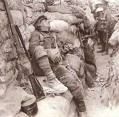
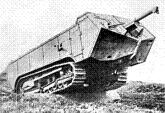



























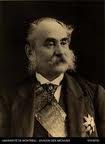

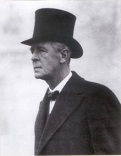
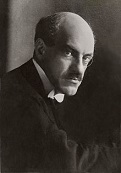




































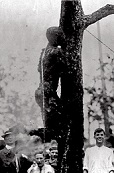







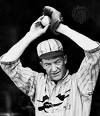
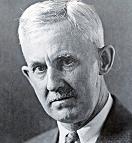


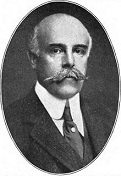
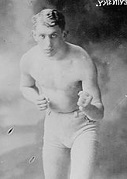
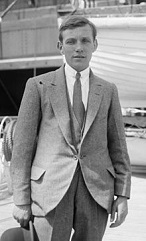








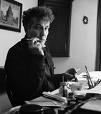
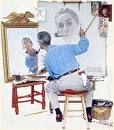



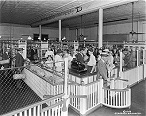





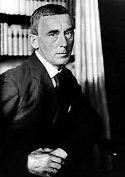
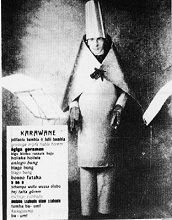




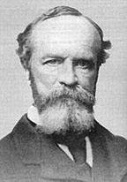


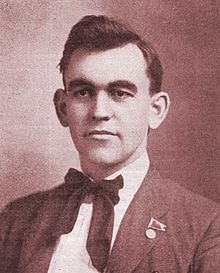













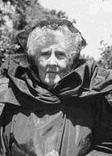

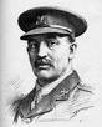


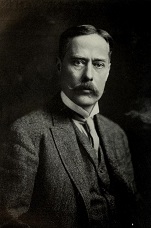



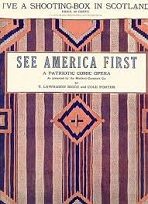

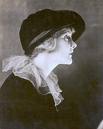


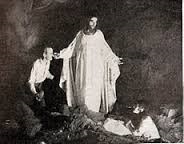




















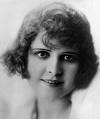
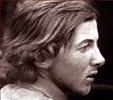




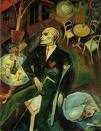
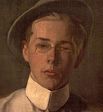

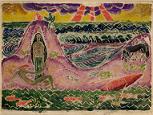
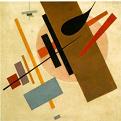
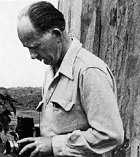
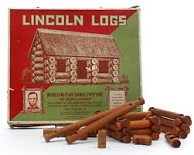








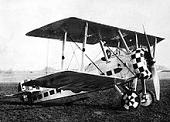
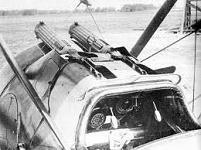
1916 Chinese Year: Dragon - eats good? Most popular baby names in U.S.: John, Mary. This year the once-in-a-cent. WWI Climate Anomaly begins, which brings relentless rain in Europe all the way to Gallipoli, causing many troops to be lost in a "liquid grave". By the start of this year the belligerent nations have gone into the war whole hog, calling on all their manpower up to middle age, adapting their industries to war production, and floating loans that mortgage their future in the hopes of winning the war to end all wars; Britain has 2,675,149 men under arms, all volunteers; Canada has 150K, all ditto; "The world bloodily-minded,/ The Church dead or polluted,/ The blind leading the blinded,/ And the deaf dragging the muted." (Israel Zangwill). British shipping losses this year total 1.5M tons. On Jan. 1 the 2nd Rose Bowl football game in Pasadena, Calif. (first in 1902) sees Washington State defeat Brown 14-0. On Jan. 1 Canadian PM Sir Robert Borden calls for 500K new volunteers for the war effort out of 8M pop. On Jan. 1 the British Royal Army Medical Corps performs its first successful blood transfusion using pre-stored cooled blood. On Jan. 4 Austrian gen. Conrad von Hoetzendorf writes the soundbyte to Hungarian PM (1913-17) Count Istvan Tisza: "England cannot be defeated; peace must be made in not too short a space, or we shall be fatally weakened, if not destroyed." On Jan. 5 British PM Herbert Henry Asquith introduces the first Conscription Bill to the House of Commons. On Jan. 6-7 the Battle of Mojkovac is a V for Montenegro over Austria-Hungary. On Jan. 6-8 the Battle of Sheikh Sa'ad on the banks of the Tigris River sees the Anglo-Indian Tigris Corps break through the Ottoman 6th Army to relieve Kut, losing 4,262 casualties out of 13,330 troops vs. 1.2K casualties out of 9K Ottoman troops. On Jan. 7 the Arab Bureau is founded in Cairo, becoming the center of the British intel network in the Middle East. On Jan. 8 45K Austrian, 3K Italian, and 5K Bosnian Muslim troops under Austrian Gen. Hermann Koevess (Kövess von Kövessháza) (1854-1924) (last Austrian CIC) attack Serbia's ally and neighbor Montenegro starting with a 500-gun artillery barrage, driving the Montenegrin army from 4,850-ft. Mount Lovcen ("the Gibraltar of the Adriatic") by Jan. 10, forcing them back to the mountain capital of Cetinje, which falls on Jan. 11, causing King Nicholas I to flee to Italy; on Jan. 17 the 36K-man army of Montenegro surrenders, allowing a push S into Albania against a weak Italian force, halting on the Vojusa River near the S frontier, strengthening the hold of the Axis, er, Central Powers on the Adriatic coast. On Jan. 9 after an 11-day evacuation the last of 35,268 British troops evacuate Cape Helles on the Gallipoli Peninsula, leaving booby traps for the Turks; 3,689 horses and mules are evacuated after 508 mules are shot and 1,590 vehicles abandoned, ending the Gallipoli Campaign (begun Feb. 17, 1915); total casualties incl. 66K Turks vs. 28K Brits, 7,595 Australians, 2,431 Kiwis, and 10K French killed; 36K Turkish troops relocate to Mesopotamia to take on the British; the Gallipoli Campaign goes on to define the Australian nat. identity of endurance, bravery, and mateship despite being the country's worst military defeat (until ?). On Jan. 11 the French occupy Corfu to use it as a refuge for Serbian and Montenegran troops, which are landed on Jan. 15 despite the Greek govt. refusing consent. On Jan. 11 10K Russian workers strike at the Russian naval base of Nikolayev on the Black Sea, and the strike spreads to Petrograd within two weeks, involving 45K dock workers. On Jan. 13 the Battle of Wadi sees the British-Indian relief force fighting N to Kut meet fierce Turkish resistance, losing 200 killed and 1.4K wounded; on Jan. 21 the Battle of Hanna sees 2.7K British casualties after the 46 guns of the British are inadequate to dislodge the Turkish defenders; future British PM Capt. Clement Attlee is wounded by friendly fire, and Sir Edward Grey's cousin Robert Palmer is KIA; after the British are granted a 6-hour truce to bury their dead, a mob of Arabs rush out and rob the wounded and dead, stuffing sand in the mouths of anybody crying for help and strangling them, causing Turkish troops to come to their aid; meanwhile on Jan. 21 (night) the British and Turkish trenches at Kut overflow with freezing water; on Jan. 24 British lt. gen. Sir Fenton John Aylmer (1862-1935) expresses his doubts about the reliability of the Indian troops. On Jan. 15 the direct Berlin-Constantinople railway through the captured Serbian city of Nis formally reopens; on Jan. 18 Kaiser Wilhelm II visits Nis and makes King Ferdinand of Bulgaria a German Field Marshal. On Jan. 24 the Germans sack yellow Hugo von Pohl (who mopes himself to death on Feb. 23?), and appoint more aggressive Adm. Reinhardt Scheer (1866-1928) as the new High Seas Fleet CIC (until 1918), with Vice-Adm. Franz Ritter von Hipper (1863-1932) as cmdr. of the battle cruiser squadrons; Pohl's chief of staff Adm. Capt. Magnus Otto Bridges von Levetzow (1871-1939), who led the revolt against him becomes chief ops. officer, and his accomplice Capt. Adolf von Trotha (1868-1940) becomes chief of staff; Scheer goes for U-boats even more than Pohl as the way to knock Britain out of the war, but gets reckless with them, giving the U.S. its sheer excuse to quit playing the levitating hippie and plight its troth and enter the war; despite orders to not engage Britain's navy on the high sea, Scheer plans the sheer defeat of the British navy in the North Sea as the clincher. On Jan. 24 the temp in Browning, Mont. drops from +6.7C to -48.8C (44F to -56 F) in one day, becoming the greatest change recorded in a 24-hour period (until ?). On Jan. 24 the U.S. Supreme Court rules unanimously in Brushaber v. Union Pacific Railroad to uphold the 1913 Revenue Act and the income tax. On Jan. 27 the Military Service Act of 1916 is passed by the British Parliament, conscripting British raw meat for the first time in history; they purposely exclude Ireland - didn't I see that in "Braveheart"? On Jan. 27 (Kaiser Wilhelm II's birthday) a U.S. flag is draped in black and placed on the statue of Frederick II the Great in Berlin, with a silk banner with letters of gold reading "Wilson and his press are not America"; a cartoon is pub. showing Pres. Wilson releasing the dove of peace with one hand while pouring out munitions to the Allies with the other. On Jan. 27-Feb. 3 Pres. Wilson launches a nationwide whistle-stop campaign to generate support for Preparedness and the Continental Army, beginning in New York City and ending in St. Louis, Mo. On Jan. 28 the Germans attack French lines S of the Somme River, capturing the village of Frise; on Jan. 29 (a.m.) the Germans attack the British line near Carnoy, and are driven off by the Liverpool Pals of Kitchener's Army. On Jan. 28 Pres. Wilson nominates "the People's Lawyer" Louis Dembitz Brandeis (1856-1941) (first Jewish member) (chmn. of the Zionist Provisional Emergency Committee since 1914) as U.S. Supreme Court justice #67, and he is sworn in on June 1 (until Feb. 13, 1939), followed on July 24 by New Lisbon, Ohio-born John Hessin Clarke (1857-1945) (until Sept. 18, 1922) as U.S. Supreme Court justice #68 (until Sept. 18, 1922) to fill the vacancies left by Charles Evan Hughes (1910-16) and Joseph Rucker Lamar (1910-16); no changes until 1921; Clarke goes on to hate his job, dissenting 57x and developing enmity with James Clark McReynolds, ultimately causing him to resign; Brandeis' nomination is bitterly opposed by former U.S pres. William Howard Taft (whom Brandeis called a "muckraker"), who causes the Senate Judiciary Committee to hold its first-ever public hearing on a Supreme Court nomination, which takes 4 mo., and is almost blocked by WASPs led by Harvard U. pres. (since 1909) Abbott Lawrence Lowell, but Brandeis fights back by exposing Lowell's Back Bay dirty laundry; did Jewish Zionist atty. Samuel Untermeyer (Untermyer) (1858-1940) blackmail Wilson over an affair with a colleague's wife at Princeton U. to get fellow Zionist Brandeis in? - there goes the neighborhood? On Jan. 29 the first British tank trials begin, funded by Winston Churchill's Admiralty after the War Office turns it down, and after they are successful, on Feb. 12 the War Office orders 100 tanks for the Western Front in France, followed in Apr. by 50 more; meanwhile after resigning in disgrace as first lord of the Admiralty, Winston Churchill joins the British army, reporting for duty in N France in Jan., rising within a few weeks to lt.-col. in command of the 6th (Service) Battalion, Royal Scots Fusiliers, arriving on a black charger leading a gun carriage carrying a full-sized bathtub and a boiler to heat the water, telling the officers: "Gentlemen, I am your new commanding officer. Those who support me, I shall look after. Those who go against me, I will break", displaying ultra-cool nerves under fire in 36 forays into No Man's Land, even when an artillery shell misses him by feet; his wife sends him three bottles of brandy plus cigars every 10 days; after 6 mo. he leaves the Front and returns to Westminster to resume his ego-filled political career, getting a frosty reception. On Jan. 31 (9:00 p.m.) the Great Zeppelin Raid sees nine German Zeppelins drop 389 bombs on the English Midlands; one of them crashes into the North Sea while returning, killing all 16 aboard; by June 1 Zeppelins kill 550 British civilians. In Jan. German-Ams. freaked at U.S. cos. supplying the Brits sabotage three DuPont explosives plants, the Bethlehem Projectile Plant near Phila., the Union Metallic Cartridge Co. in Conn., and the ? chemical plant in Mich.; two British ships explode at sea after leaving the U.S., and another is found with undetonated bombs in its hold; livestock bound for Europe are injected with anthrax. In Jan. the German language is declared the only official language, and police pummel people speaking Czech on the streets of Prague. On Feb. 1 British cargo ship Franz Fischer is sunk by a German airplane 2 mi. off the Kentish Knock, killing 13, becoming the first merchant ship sunk by aerial bombs. On Feb. 3 Parliament bldgs. in Ontario, Canada are burned down. On Feb. 5-Apr. 15 the Battle of Trebizond (Trebizond Campaign) sees a brilliant series of Russian naval and land operations capture Trabzon. On Feb. 8 German sub U-21 under Capt. Otto Hersing sinks French cruiser Amiral Charner off Beirut with a torpedo in 4 min., killing 374 of 375. On Feb. 9 the French invading from the S and E push the Germans out of British Cameroons into Spanish territory. On Feb. 9 (6:00 p.m.) according to German-French artist-poet Jean (Hans) Arp (1886-1966), after it is opened by German poet Hugo Ball (1886-1927), Moinesti, Romania-born avant-garde poet Tristan Tzara (Samuel or Samy Rosenstock) (1896-1963) (AKA S. Smyro) founds the Dadaism art movement (name coined by Ball), walking into the Cabaret Voltaire in Zurich wearing a monocle, singing sentimental songs while handing paper wads to his "scandalized spectators", and leaving the stage to give room to masked actors on stilts before returning wearing clown attire; in May the first pub. with the name Dada is pub.; in 1919 he moves to Paris, joining the staff of Litterature mag., and briefly joining Surrealism founders Andre Breton and Francis Picabia before splitting with them, going on to pub. his masterpiece utopian poem The Approximate Man. On Feb. 10 a rumor that a German Zeppelin appeared over Scarborough on the E coast of England causes a panic, causing the govt. to form 10 home defense squadrons of the Royal Flying Corps. On Feb. 11 anarchist Emma Goldman is arrested in the U.S. for lecturing on birth control. On Feb. 11 the Baltimore Symphony Orchestra in Md. performs its first concert. On Feb. 12 the Battle of Salaita Hill (near Mt. Kilimanjaro), the first large-scale engagement of the East African Campaign involving British, Indian, Rhodesian, and South African troops under Gen. Jan. Smuts sees the Germans defeat them, causing them to retreat to Serengeti after suffering 172 casualties incl. 138 South African, after which German East Africa CIC Gen. Paul von Lettow-Vorbeck redeploys almost half of his troops in the Kilimanjaro area; after the 6th South African Infantry Regiment starts calling the 130th Baluchis "coolies", and the latter stand firm while the former flee, a machine gun abandoned by the white troops is sent back with a note reading: "With the compliments of the 130th Baluchis. May we request that you no longer refer to our people as 'coolies'." On Feb. 14 the British and French issue the Le Havre Declaration, stating that there can be no peace with Germany until Belgian independence is restored and reparations paid, and guaranteeing the integrity of the Belgian Congo; on Apr. 29 it is signed by France, Britain, Italy, Japan, and Russia. On Feb. 16 after losing 4K men to frostbite and seeing many Arab troops desert the Turks, the Russians under Gen. Nikolai Yudenich (1862-1933) capture the Armenian city of Erzerum on the Caucasus Front, taking 5K Turkish POWs, chasing them W and taking 5K more. The original Verdun and Dumber? On Feb. 21 (7 a.m.) the absurd Battle of Verdun (Hell of Verdun) (ends Dec. 18) in E France on the Meuse River begins after German crown prince Rupprecht (Rupert) (1869-1955) of Bavaria approves the insane plan of Prussian-born German CIC (since 1914) Gen. Erich von Falkenhayn (1861-1922) of a sustained push by 1M men on the city of Verdun and its fortresses of Ft. Douaumont, Ft. Vaux, Ft. Vacherauville, Ft. Thiaumont, Ft. Souville, and Ft. Tavannes (defended by 500K French troops) to end the year-long stalemate, and at dawn the Germans begin an unprecedented 9-hour 850-gun bombardment of the advanced French positions on an 8-mi. front from Malancourt on the left bank of the Meuse River to Abancourt on the right bank, followed by a 140K-man infantry advance starting at 4 p.m., capturing Haumont Wood and attacking the French positions at Herbebois and N of Ornes; the first British shell, from a Krupp 15-in. naval gun 20 mi. away hits the cathedral; after the Germans use gas shells, the French counter on Feb. 22 with phosgene shells, while the Germans use 96 flamethrowers, advancing 2 mi. and capturing 3K French POWs by Feb. 23; on Feb. 23 the Germans take the village of Samoneux after premature rumors cause the French to shell their own defenders, after which POW Lt. Col. ? Bernard is taken before Kaiser Wilhelm II (who watches the fun through a periscope), and tells him "You will never enter Verdun"; on Feb. 24 the Germans advance another 1 mi., taking 10K French POWs; a French North African div. turns and runs, and are machine gunned by their own troops; on Feb. 25 the Germans capture Ft. Douaumont, and the Kaiser personally awards the Pour le Merite to two officers; too bad, just as the French are about to pull out and find another line of defense, at midnight marshal Henri-Philippe Benoni Omer Joseph Petain (Pétain) (1856-1951) is given command, and on Feb. 26 he issues the immortal order "They shall not pass" (Ils ne passeront pas); after the initial shock, the French fall back to prepared positions while the Krauts push forward in a come-back-get-back you're-relieving-your-bruder-dadadadada "blood mill" battle of attrition, which ends up costing 250K dead and 1M wounded on both sides, causing von Falkenhayn to become known as the "Blood-Miller of Verdun"; in the first five weeks a German soldier is killed at the rate of one every 45 sec., and a French soldier even faster; the French open and defend La Voie Sacree (Sacrée) (the Sacred Way), a supply road from Bar-le-Duc, using it to bring in 190K reinforcements and 23K tons of ammo on Feb. 27, after which the spring thaw turns the area into mud, slowing the Germans down, while the Voie Sacree brings in 6K trucks a day carrying 90K men and 50K tons of supplies a week, with a French colored, er, colonial force maintaining the road; the Germans use 168 reconnaisance aircraft; "Ultimately on this one sector of the Western Front the Germans suffered a third of a million casualties in occupying a cratered wasteland half the size of metropolitan Berlin" (the Kaiser's biographer Alan Palmer). On Feb. 22 the House-Grey Memorandum, negotiated by Col. Edward Mandell House of the U.S. and Sir Edward Grey of Britain states that the U.S. pres. is ready to propose a peace conference when Britain and France request it, insisting on the restoration of Belgium and Serbia, the independence of Poland, the return of Alsace-Lorraine to France, the transfer of the Italian-speaking parts of Austria to Italy, and Constantinople to Russia, with Germany permitted to retain some colonies, and that if their proposal is accepted by the Allies but rejected by Germany, the U.S. will "probably" enter the war on the Allied side; in the summer the Germans offer Britain a peace settlement, and the Zionist leaders approach the British War Cabinet and tell them that they can still win by definitely dragging the U.S. in via their Jewish connections, but have to give them Palestine in return? On Feb. 24 the Albanian provisional govt. under PM #3 (since Oct. 5, 1914) Essad Pasha Toptani leaves Durazzo under Italian protection for Naples, setting up there; the Austrians occupy it on Feb. 29; mountain warfare continues until the end of the war. On Feb. 26 French troop transport SS La Provence en route to the Salonica Front is sunk by a German sub off Cerigo, killing 930 of 1,940. On Feb. 27 after Essanay in Calif. won't give him a $500K contract, his half-brother Sydney Chaplin negotiates for Charlie Chaplin in New York City a $10K/week plus $150K signing bonus with Mutual, causing Charlie to hire him as his business mgr. and give him half of the signing bonus, going on to make several films, later calling it "the happiest period of my career". In Feb. Gen. Louis Botha defeats the last pro-German rebels, keeping South Africa in the Allied war effort throughout the war. In Feb. the British take and lose Vimy Ridge in France, then recapture it in May, only to lose it on May 21 to the Germans again; despite hell filling with the kills, the Allies insist on taking it, considering it the key to German occupation of Lens and Douai, along with the open country all the way to Lille and the Low Countries. On Mar. 2 the French repel a German assault on Ft. Vaux; Capt. Charles de Gaulle is captured after being wounded by a bayonet in the thigh, spending the rest of the war in POW camps, teaching French to Russian officer Mikhail Tukhachevsky, who escapes and becomes a Soviet marshal in 1935; on Mar. 4 German expressionist painter Franz Marc (b. 1880) is KIA by a shell at Verdun after writing on Mar. 3: "For days I have seen nothing but the most terrible things that can be painted from a human mind." On Mar. 3 (night) after a bayonet charge in a blizzard, the Russians capture Bitlis, taking 1K Turkish POWs. On Mar. 6 the German fleet carries out a sortie on Britain without encountering the British fleet - Jutland 11 weeks ahead? On Mar. 6-7 the Battle of Mort-Homme on the left bank of the Meuse River begins with a German artillery bombardment in a snowstorm rivalling that on Verdun on Feb. 21, with French shells failing to explode in the mud; on Mar. 7 the Germans capture the Bois de Corbeaux, then lose it on Mar. 8 after French Lt.-Col. Camille Joseph Leon Macker leads a bayonet countercharge "brandishing his cane and calmly smoking a cigar", becoming a legend, only to be KIA the same day, allowing the Germans to take it back, and it changes hands for the next mo. By Mar. 7 the Germans capture 1.2K French POWs. On Mar. 7 Bavarian Motor Works (Bayerische Motoren Werke) (BMW) AG is founded in Munich, Bavaria, Germany via a restructuring of the Rapp Motorenwerke aircraft manufacturing co.; with Germany's defeat in WWI in 1918, it is forced to cease aircraft engine production, and in 1922 it hires new dir. Franz Josef Popp (1886-1954) (until 1942), who in 1923 gets it into the manufacturing of motorcycles, followed by automobiles in 1928, starting with the BMW Dixi (until 1931), based on the Austin 7; in May 1975 they introduce the BMW 3 Series, which becomes its best seller; in 1994-2000 they acquire the British Rover Group; in June 2012 BMW is listed as the most reputable co. in the world by Forbes.com. On Mar. 8 the Battle of Dujaila sees the British relief force of 18.9K infantry and 1,268 cavalry try to break through to Kut 2 mi. away in vain through a Turkish force of 8.5K infantry and 1.5K cavalry, losing 3.5K casualties vs. 1.3K Turkish casualties, causing Gen. Sir Fenton Aylmer to be sacked. On Mar. 9 W. Va.-born Dem. Cleveland, Ohio mayor (since 1911) Newton Diehl Baker Jr. (1871-1937) becomes U.S. war secy. (until 1921), getting the fun job of dealing out the tons of news of dead boys in coffins to their parents while they're baking? My strength is that of ten because my heart is pure, or, If I win my wife told me I could shave, or, The original Speedy Gonzales? On Mar. 9 after being defeated in the civil war by the troops of Mexican pres. Venustiano Carranza (aided by the U.S.) turning his men into outlaws and pissing him off against gringos), Pancho Villa, gen. of the rev. Div. del Norte (who claims he is seeking revenge against an arms trader?) invades the U.S. with 485 men and raids Columbus, N.M., killing 19 gringos and burning the town; wasting no time, on Mar. 15 6K U.S. forces led by brig. gen. John Joseph "Black Jack" Pershing (1860-1948) (with aide Lt. George Patton) begin chasing him back into Mexico; finding access to Mexican railroads denied, they begin riding Harley motorcycles (becoming the first U.S. mechanized military op.?), while their air force of eight Jennies tags along for a mo. until they get destroyed; Villa suffers a serious leg wound from his own troops two weeks after the hunt begins, but manages to elude the gringos, and in June Pershing tries to provoke a hostile confrontation with Carranza's forces to give him an excuse to take over all of Mexico, causing Carranza to protest violation of Mexican territory and authorize resistance, resulting in the June 21 Battle of Carrizal, but Washington catches wind of it and orders Pershing's troops to idle in an encampment for several mos.; the gringos finally withdraw on Feb. 5, 1917 after their differences are settled by arbitration; at the beginning of the expedition the U.S. Army captures several Mexican soldiers, sends them to New Mexico without extradition, and gets them railroaded for murder in Deming, N.M. and hanged; a second group is acquitted and deported, all of which doesn't stop Mexican inhabitants of Columbus from being retaliated against by the local gringos. On Mar. 9 Germany and Portugal declare war on each other; on Mar. 15 Austria-Hungary declares war on Portugal; the first Portuguese troops land in France next Jan., and pres. Bernardino Machado personally visits them - now they're in trouble? On Mar. 9-15 the Fifth Battle of the Isonzo River is ended after five days by snow and rain, after which Austrian gas shells force the Italians back to their original positions. On Mar. 10 the British Egyptian Expeditionary Force is formed from the British Force in Egypt and the Mediterranean Expeditionary Force under the command of former chief of staff of the British Expeditionary Force (BEF) (1914-15) Gen. Archibald James "Old Archie" Murray (1860-1945) (until June 1917). On Mar. 11-12 the Battle of Latema Nek in the Latema-Reata Hills of British East Africa is a British V over the Germans, who retreat to Lake Kahe; on Mar. 18 the Battle of Lake Kahe is another British V, causing the Germans to retreat further into the interior sans several heavy artillery pieces. Do the chain gang love? On Mar. 18-Apr. 30 at the urging of the French to divert German forces from the Western Front the Russians launch an attack on the Eastern Front in the Battle of Naroch Lake, which is thrown back by the Germans with 110K Russian casualties (incl. 12K from frostbite) vs. 20K for the Germans, which doesn't stop Russian Gen. Brusilov from planning a new major offensive to coincide with the British Somme Offensive in June after deciding that the Germans are stretched too thin at Verdun. On Mar. 20 the Germans attack the W extremity of the Verdun Salient between Malincourt and Avocourt; on Mar. 22 Haucourt falls to the Germans, followed on Mar. 29 by Malancourt, but the overall German drive to Verdun stalls despite unceasing fighting; too bad, on Mar. 20 after French deserters give them details of French wire gaps, the Germans surround and capture the entire French brigade of 2,825 at Avocourt incl. 25 machine guns, finding a box of Croix de Guerre medals; when the Germans try to do ditto on Mar. 22, the French machine gun them from three sides, causing them 2.4K casualties. On Mar. 22 the British have their success with their new Depth Charge off the SW coast of Ireland, destroying a German U-boat. On Mar. 23 a U.S. appeal to the Allies sent in Jan. to not arm merchant ships or passenger liners is rejected by Britain and France. On Mar. 23 after mistaking it for a troop ship, French Folkestone-Dieppe ferry Sussex is sunk by a German U-boat, killing 53 incl. Spanish composer Enrique Granados (b. 1916) and three Americans, causing Pres. Wilson to send a threatening note to Germany, after which they respond on May 4 with the Sussex Pledge, suspending their intensified U-boat campaign and agreeing to limit U-boat warfare to avert a diplomatic break with the U.S.; on May 1 after U.S. ambassador James W. Gerard protests to the Kaiser, he counters with the British blockade of Germany and U.S. complicity with it, with the soundbyte that he would "blow up Windsor Castle and the whole royal family of England" rather than let his family starve; meanwhile on Mar. 28 the Reichstag votes for immediate unrestricted submarine warfare, and on Mar. 30 German sub U-33 sinks Russian hospital ship Portugal, killing 115, claiming it was mistaken for a troop ship - that really sussex? In Mar. a coup in Honduras overthrows Manuel Bonilla, and Francisco Bertrand becomes pres. (until 1919). In Mar. the British lose 26 ships (99K tons) to German U-boats. On Apr. 1 after 81,607 German and 89K casualties at Verdun, Kaiser Wilhelm II utters the soundbyte: "The decision of the War of 1870 took place in Paris. This war will end at Verdun." On Apr. 1 Belgian woman Gabrielle Alina Eugenia Maria Petit (b. 1893), a distributor of the underground newspaper Libre Belgique is executed by firing squad in Schaerbeek after confessing to smuggling Belgian army recruits across the lines; a statue of her is later erected in Brussels. On Apr. 1 (night) German Zeppelins bomb Sunderland, England, followed on Apr. 2 by Leith and Edinburgh, with five raids on East London this month. On Apr. 2 (2:20 p.m.) (Sun.) an accident at a munitions factory in Faversham, Kent, England in Kent kills 115 workers, all men and boys. On Apr. 4 Queensland gov. (1905-9) and New South Wales gov. (1909-13) Frederic John Napier Thesiger, 1st Viscount Chelmsford (1868-1933) becomes viceroy and gov.-gen. of India (until Apr. 2, 1921), going on to create the Montagu-Chelmsford Reforms with radical Liberal Edwin Samuel Montagu (1879-1924), British secy. of state for India in 1917-22 (3rd Jew in the British cabinet after Sir Herbert Samuel and Sir Rufus Isaacs), introducing self-govt. to India. On Apr. 5 after seeking French support for an independent Lebanon, Marionite Christian Yusuf (Joseph) al-Hani is hanged in Beirut along with 60 followers by Syrian gov. Jamal Pasha "the Bloodthirsty"; on May 6 he hangs 21 Arabs advocating an autonomous Syria, along with 14 in Beirut, and seven in Damascus, incl. Ottoman senator Abd al-Hamid al-Zahrawi, who has to be hanged twice; in May he hangs Gaza mufti Ahmed Arif al-Husseini and his son Mustafa after they are caught trying to join the Arab revolt in the Hejaz; despite the Arab revolt ramping up, the Allies refuse to deploy any of their 250K troops in Salonica, causing Georges Clemenceau to call them "the gardeners of Salonica". On Apr. 9 another German attempt to capture Mort-Homme fails with 2.2K casualties, with Gen. Petain uttering the soundbyte: "Take courage, we'll get them" (Courage! On les aura). On Apr. 10 the Russian Orthodox Easter sees truces on the Austrian Front, with 100+ Russians crossing lines taken POW, causing Gen. Brusilov to issue a non-fraternization order on Apr. 18. On Apr. 14 9,715-ft. Punta Serauta in the Dolomite Mts. is retaken by the Italians under Giuseppe's grandson Capt. Menotti Garibaldi. On Apr. 15 125K Serbian troops from Corfu begin landing in Salonica, joining the 42K-man French-British Army of the Orient. On Apr. 16 after sieging it since Feb. 5, the Russians capture the Black Sea port of Trebizond (Trabzon). On Apr. 20 the Lafayette Escadrille (Squadron) is formed in France by seven (later 180) Americans to fight the Germans, going on to shoot down 200+ German aircraft at the loss of 51 pilots incl. four of the founders; the pilots incl. Victor S. Chapman (b. 1890) (son of writer John Jay Chapman) (first U.S. pilot to be KIA on June 24, with a basket of oranges in his cockpit) become big celebs, enjoying hot baths and hot French women. Here's my chicken breast, are my veggies ready to go? The Irish take advantage of the war to revolt, with skimpy German help? On Apr. 21 after signing a treaty with Germany for an independent Ireland and being promised weapons, causing the German merchant ship SMS Aud (really the SMS Libau/Castro) to be sent on Apr. 2 carrying 20K rifles and 1M rounds of ammo, only to be intercepted by the British sloop Bluebell and scuttle herself, Irish nationalist ex-English diplomat Sir Roger Casement (1864-1916) lands in Ireland in German U-boat U-19 at Tralee Bay in County Kerry, is arrested as a spy by the Brits on Apr. 25 and taken to England; after British law is twisted by the addition of a comma, allowing acts of treason not on British soil to be prosecuted, he is sentenced to death on June 29 and deprived of his 1911 knighthood on June 30, and despite a publicized appeal supported by Arthur Conan Doyle, George Bernard Shaw et. al he is hanged on Aug. 3 at Pentonville Prison in London after converting to Roman Catholicism - doctor feelgood? On Apr. 24 (Easter Mon.) the Second International in Kienthal, Switzerland (founded July 14, 1889 in Paris) denounces the war as a capitalist conspiracy, causing Vladimir Lenin to have trouble convincing them that it is to be welcomed as a necessary prelude to capitalism's fall. On Apr. 24 (Easter Mon.) after seeing their long-awaited (since 1167?) chance, Easter Rising (Week) in Dublin sees 1.6K over-optimistic Sinn Fein nationalists attempt to oust the British Empire from Ireland, marching from Liberty Hall in Dublin to the center of town then seizing several key sites and declaring an independent Irish repub. from the steps of the Gen. Post Office on O'Connell St., describing the Germans as "gallant allies"; too bad, on Apr. 22 leader Eoin MacNeill (1867-1945) cancels mobilization orders, else 5K would have shown up; the rising lasts until Apr. 29, when British forces under gen. Sir John Maxwell (1859-1929) quash it, and the nationalists surrender after 64 are killed along with 220 civilians and 134 troops and policemen; British gunboat HMS Helga destroys Liberty Hall from the sea; on May 12 15 leaders are tried and executed incl. poet Patrick Henry Pearse (b. 1879) (leader of the Irish Repub. Brotherhood), James Connolly (b. 1868) (head of the Irish Citizen Army), and repub. organizer Sean MacDermott (b. 1883); British Capt. J.C. Bowen-Colthurst orders Irish pacifist Francis Sheehy "Skeffy" Skeffington (b. 1878) (a close friend of James Joyce) a rrested for trying to stop looting, then court-martialed and executed on Apr. 26, causing outrage that forces Joyce to flee for Canada and launch his literary career to "beat the English with their own language" (Carmel McCaffrey); Skeffington later becomes a main char. in Joyce's "Portrait of the Artist as a Young Man"; playwright Sean O'Casey (1880-1964) takes part in the rising; math prof. Eamon de Valera (1882-1975) is saved from execution because of his U.S. citizenship, spending the war in English jails; Irish poet William Butler Yeats (1865-1939) writes the pro-Repub. Easter 1916, but waits until 1920 to pub. it; British secy. for Ireland (since 1907) Augustine Birrell resigns. On Apr. 24-25 the Lowestoft Raid sees the German fleet again plays chicken with the British fleet, bombarding East Anglian towns Yarmouth and Lowestoft. On Apr. 27 the (early a.m.) Gas Attack at Hulluch 1 mi. of Loos, France starts with a gas attack by the Germans, who repeat it on Apr. 29, only to have it blow back over the German lines, resulting in 1,260 gas casualties; after the German mixture of chlorine and phosgene penetrates the British PH gas helmets, they accelerate production of the Small Box Respirator (M2 Gas Mask). On Apr. 27 British war secy. (since Aug. 5, 1914) Field Marshal Lord Horatio Herbert Kitchener (1850-1916) asks for U.S. military participation in Europe. On Apr. 27 three British officers incl. Capt. T.E. Lawrence "of Arabia" offer the Turks £2M in gold for the release of the starving besieged forces at Kut, along with a promise that none of them would fight the Turks again, and are turned down, with the reply "Your gallant troops will be our most sincere and precious guests"; on Apr. 29 after being driven from Ctesiphon to Kut and surrounded and starved, despite a Russian relief force from Persia approaching 100 mi. E of Baghdad, the 13K-man British army under Gen. Sir Charles Townshend surrenders to the Turks after losing 29K Indian troops, becoming the biggest Turkish V since Gallipoli, and the largest British surrender (until ?); on Apr. 30 2.5K badly wounded and sick men are exchanged for an equal number of Turkish POWs, and on May 6 the rest are death-marched to the N, reaching Baghdad on May 18 after 160 die of privation; in Tikrit they are stoned; by the time they reach Anatolia 1,750 of 2.5K British and 2.5K of 9.3K Indian soldiers die; on May 3 the Russian relief force reaches the Mesopotamian border, capturing the town of Khanikin before stopping; the wounded Indian soldiers are shipped back to Bombay in non-hospital troop ships, causing Times of India ed. (1907-24) Sir Herbert Stanley Reed (1872-1969) to pub. an editorial about the "dreadful stream of broken men"; Gen. Townshend is housed on Prinkipo Island off Constantinople for the duration of the war. On Apr. 30 the Germans launch their 3rd gas attack in four days against British lines on the Western Front, with a 9 mph wind blowing the cloud 11K yards, turning vegetation yellow and killing tons of rats along with 89 soldiers, injuring 500+ - the original in-home pest control service? In Apr. the Brits lose 43 ships (140K tons) to the Germans, the worst month since Aug. 1915; the loses then drop, with 64K tons in May, 37K in June, 22K in July, 43K in Aug. In Apr. Britain employs 200K women munition workers. On Apr. ? German Social Dem. leader Karl Liebknecht (1871-1919) interrupts the chancellor in the Reichstag to declare that Germany is not free and that the German people hadn't wished for war. On May 1 Sinclair Oil Corp. (originally Sinclair Air and Refining Corp.) is founded in New York City from the assets of 11 smaller cos. by Harry Ford Sinclair (1876-1956), purchasing the Cudahy Refining Co. of Chicago, Ill. this year, giving it ownership of pipelines too; by 1930 the refineries have a cap. of 80K barrels/day, with 900 mi. of pipelines; in 1976 it reincorporates in Wyo.; the logo features a green dinosaur (brontosaurus?). On May 6 (Martyr's Day) Turkish gov. of Syria Jamal Pasha hangs 11 Arab leaders, incl. Abd al-Karim al-Khalil, who tried to organize an anti-Turkish revolt on the Mediterranean coast between Beirut and Sidon, which would cut Turkish lines of communication with Gaza, Sinai, and Suez, allowing an Allied landing, although the Brits are still waffling with the Arab independence movement. On May 7-10 the Battle of Kondoa Irangi in German East Africa is another British V; too bad, due to exhaustion and lack of horses the British advance salls, allowing the Germans to raid and shell them for 2 mo. On May 8 a mutitions magazine explodes in Ft. Douaumont, killing 350 German soldiers. On May 12 the Germans deport 25K men and women from France to work as farm laborers in Germany to free men to join the German army; on May 15 the German gov.-gen. of Belgium orders all unemployed adults to work in Germany. On May 15 U.S. Marines land in the Dominican Repub. to restore order, capturing Santiago in early July; they stay until 1924 - I'm giving you squat? On May 15 the Austrians launch a massive 400-gun Trentino Front Offensive (Stafexpedition), capturing 30K Italian POWs by May 31 and gaining 12 mi. incl. 4K-ft. Mt. Pasubio. On May 15 after being convicted of raping married white Lucy Fryer, black teenie farmhand Jessee Washington is dragged out of the county court in Waco, Tex. by a white mob and lynched in front of the courthouse in front of a crowd crowd of 10K, then castrated, his fingers cut off, and roasted alive over a fire for 2 hours, after which his torso is dragged through town and parts of his body sold as souvenirs, becoming known as the Waco Horror, gaining mucho negative publicity that helps turn the public against the practice; on May 15, 2016 Waco's mayor publicly apologizes to his descendants and the entire African-Am. community, and a historical marker is installed. On May 17 the British Parliament passes the Summertime (Daylight Saving Time) Bill (don't say Savings?), causing clocks to be advanced 1 hour on May 21 (Sun.), after which many other countries follow suit; too bad, its inventor William Willett (b. 1856) died of influenza in 1915. On May 19 the Germans first use a liquid gas shell in the bombardment of Chattancourt, France. The Allies psych-out and pick apart the defunct Ottoman Empire, creating corrupt Western-backed kleptocratic tyrannies in Saudi Arabia, Egypt, Iraq, Jordan, and Syria that cause endless grudges and contribute to the rise of al-Qaida? On May 19 (May 9?) (May 16?) (May 17?) (May 23?) Sir Mark Sykes (1879-1919) of Britain and Francois Marie Denis Georges-Picot (1870-1951) of France conclude the secret Sykes-Picot (Asia Minor) Agreement in Paris, partitioning the postwar Middle East and recognizing an independent confederation of Arab states in place of the defunct Ottoman Empire; France receives Cilicia, Lebanon, coastal Syria, and a sphere of influence stretching E to Mosul; Britain receives Baghdad, Basra, Haifa, and Acre (giving them control of the bay that will serve as the terminal for oil pipelines from Mesopotamia), and a sphere of influence between the new pasted-together state of Iraq and Palestine, which is to be placed under the triple protection of Britain, France, and Russia; the remainder goes to one or more new Arab states, who later grumble that they were supposed to receive Palestine; after taking over Russia, Vladimir Lenin discovers the treaty in the tsar's archives and pub. it so that the world can see that the Great War was really about imperalism. On May 23 two cos. of the French 124th Regiment take Ft. Douaumont until the Germans counterattack with grenades, annihilating them, after which the 3rd Battalion coming to their aid is hit by artillery fire from 2.2K guns, with 500 casualties. On May 25 the Chicago Tribune pub. an interview with Henry Ford in which he utters the soundbyte: "History is more or less bunk." On May 26-June 10 after an armored car detachment led by the Duke of Westminster leaves Alexandria, Egypt to rescue 92 British POWs from the patrol boat HMS Tara (formerly Irish mail boat TSS Hibernia), and rescues them on Mar. 17, Free French troops hold the fortress of Bir Hakeim in Libya against German assault. Hands Across the Water, Hands Across the Sea, Da Sea Will Be Da Key? The Brits and Germans play Sink My Battleship? The Vikings turn over in their graves in Jellicoe's Jutland? On May 31 (night) the 250-vessel, 25-admiral 11-to-15-in.-gun Battle of Jutland (Schlacht vor dem Skagerrak) (Skagerrakschlacht) between the Grand Fleet of British Adm. Sir John Rushworth Jellicoe (1859-1935) (flagship SMS Iron Duke) and the weaker Grand Seas Fleet of German Adm. Reinhardt Scheer (1866-1928) (flagship SMS Friedrich der Grosse) (Frederick the Great) begins at lat. 55.48N, long. 5.24E between Britain, Norway, and Denmark in the North Sea, becoming "The culminating manifestation of naval force in the history of the world" (Winston Churchill) (the greatest naval battle ever, the last in which air forces don't count?) after the 42-ship battle cruiser bait fleet (flagship HMS Lutzow, with 13-in. armor) of German Adm. Franz Ritter von Hipper (1863-1932) is discovered off the S Norwegian coast breaking radio silence, and the British, seeking to avenge Dogger Bank bring out everything they've got, incl. nine battle cruisers, 34 light cruisers, 80 destroyers, and 28 dreadnoughts (incl. four superdreadnoughts), against the Germans' five battle cruisers, 11 light cruisers, 63 destroyers, and 24 dreadnoughts; on June 1 (2:00 p.m.) as Hipper tries to lure the advance force of British Adm. Sir David Beatty, 1st Earl Beatty (1871-1936) (flagship HMS Lion) towards Scheer's main force, Beatty gives orders to Vice Adm. Sir Hugh "Old Voice" Evan-Thomas (1862-1928) in HMS Barham to turn and cut him off, but for some reason it takes 8 min. and Hipper escapes; at 3:48 p.m. Hipper starts firing at 16.5K yards (10 mi.), and the devilish fun begins, with the Germans lured in from their preferred long distance battle range to only 5 mi.; at 4:00 p.m. SMS Von der Tann sinks HMS Indefatigable, killing 1,017; at 4:23 p.m. SMS Derfflinger sinks HMS Queen Mary, killing 1,266; at about 5:00 p.m. Hipper's flagship SMS Lutzow is crippled, SMS Defence is sunk, and SMS Warrior severely damaged (sinks the next day); at 6:15 p.m. Jellicoe orders his main force to turn to port, away from the enemy, supposedly to avoid torpedoes, and armchair admirals later second-guess him for it, as it loses the British chance of surprise; the Brits are now deployed N of the Germans, with 96 British ships blocking the way home of 59 German ships; at 6:30 p.m. SMS Derfflinger sinks Adm. Hood's HMS Invincible, killing 2K, with only six survivors; at 6:35 p.m. Scheer does a "turn away together" (very tricky simultaneous turn down the line), running for it in the evening mist; just as the Brits chicken out for fear of mines and let them go, Scheer turns E and reappears within range, and the Brits open up with guns blazing, and HMS St. Vincent fires 20 salvos, causing Scheer to make a simul-turn again at 7:17 p.m., exposing his rear battle cruisers, and causing SMS Derfflinger, SMS Seydlitz, and SMS Von der Tann to be hit, but Jellicoe chickens out again, turns away, and the Germans slip the noose again; Beatty then sends a signal to Jellicoe: "Submit that the van of the battleships follows me. We can then cut off the enemy's fleet", but Jellicoe takes 15 min. to give supporting orders, and again the Germans avoid a trap; at 11:30 p.m. the Germans again meet with the rear of the British fleet, and several ships collide, and German cruiser SMS Black Prince is sunk, along with the SMS Pommern, and Jellicoe blows his last chance to pursue them, saying it was "undesirable for the battle fleet to close the Horn Reef"; on June 2 at 2:30 a.m. Jellicoe breaks off and turns N, and the battle ends with the Brits losing 3 battle cruisers, 3 light cruisers, and 8 destroyers, and the Germans losing 1 battleship, 1 battle cruiser, 4 light cruisers, and 5 destroyers, with 6,784 British and 3,039 German casualties (6,097 Brits vs. 2,551 Germans KIA); despite the Kaiser's comment that "The spell of Trafalgar is broken", the Germans don't come out to play again for the rest of the war; on Nov. 29 British First Battle Cruiser Squadron (home waters) cmdr. vice-adm. Sir David Beatty, 1st Earl Beatty (1871-1936) (12 years younger and a wealthy fox hunter) replaces Sir John Jellicoe as CIC of the Grand Fleet after Winston Churchill claims to recognize genius in him and fears that Jellicoe could "lose the war in an afternoon" by losing the British superiority in dreadnought battleships; Jellicoe is kicked upstairs to first sea lord, an admin. post; afterwards the public gets in the act, debating whether Jellicoe's method of forming line ahead was sufficiently aggressive, whether it was in the spirit of Nelson, etc. - pass the rubber duckie? In May the Germans on the Verdun front attack Le Mort Homme, and capture Hill 304 (Cote 304), key to the whole French defense system W of the Meuse River, and hold it despite desperate French attacks - we're all gonna act professionally? On June 1 the Germans launch a massive Ypres Salient Offensive, advancing 700 yards on a 3K-yard front, killing a British gen. and capturing another; by June 4 the British retake some of the captured ground; on June 2 the Germans take Mont Sorel, 2.5 mi. ESE of Ypres; the Canadian Corps recovers it on June 13. On June 1 the Germans on the Verdun front drive for Ft. Vaux, starting with the village of Damloup under the cliff, which the Germans are pinned down in for four days until the fort is surrounded and battered and finally surrenders on June 7 after a French carrier pigeon who takes out their last message "We are still holding out... relief is imperative... this is my last pigeon" delivers it then drops dead, and later is awarded the French Legion of Honor, becoming the only pigeon decorated during the war; on June 8 French cmdr. Maj. Sylvain Eugene Raynal (1867-1939) is captured along with 600 POWs, and treated as a hero by the German grand prince; as the Germans move W, 20 French soldiers are buried alive in a trench, and their bayonet tips are discovered sticking out of the ground after the war, causing it to be turned into a French nat. monument. On June 2-14 the Battle of Mount Sorrel (Hill 62) in the Ypres Salient between three divs. of the British 2nd Army and three divs. of the German 4th Army starts with the Germans capturing the heights then being driven out, resulting in a push. On June 4 after the Austrian V on the Italian Front causes them to move it up from July to help the Italians, the Brusilov Offensive, led by top Russian WWI gen. Alexei Alekseyevich Brusilov (1853-1926) (the only offensive of the war named after a cmdr.?) on the Eastern Front against Austrian-Hungarian and German troops led by Austrian Gen. Karl Freiherr von Pflanzer Baltin (1859-1925) (ends Sept. 20), aimed at the railway center of Kovel over a 300-mi. front; it is initally a big success as the surprised Austrians are overwhelmed by a 1,938-gun barrage along a 200-mi. front from the Pripet Marshes to the Bukovina, falling back and leaving many POWs; on June 4-6 the Russians take Lutsk, capturing 26K POWs on June 4 and 90K POWs by June 9, when Gen. Pflanzer-Baltin orders a retreat; on June 12 Brusilov announces the capture of a total of 190K Austrian soldiers, 2,992 officers, 216 heavy guns, 645 machine guns, and 196 howitzers, one-third of the total Austrian force; on June 17 the Russians occupy Czernowitz (Chernivtsi) in E Austria-Hungary; on June 11-30 the Battles of the Styrpa take place; on June 13 the Germans crush an attack at Baranovichi at the N end of the front, causing them to try it again on July 2-9 and do even worse; not phased, the Motherland-loving Russians regroup and attack at Kovel on July 28, and again on Aug. 7-17, overrunning the Bukovina, advancing 25-125 km. from Pinsk S to Czernowitz, and capturing 500K POWs and 500 guns; the offensive ends in late Sept. with the arrival of 15 German divs. from the Western Front, and the Russians failing to take Kovel or Lemberg, but the A-H army is shaken up and demoralized, causing a shakeup in command, with German Gen. Ludendorff taking over from the Austrian cmdr. then being promoted to chief of the gen. staff on Aug. 29, making Ludendorff his first quartermaster gen., and handing command of the Eastern Front to capable German gen. Max Hoffmann (1869-1927) (who thinks that he should have received the credit for the Vs at Tannenberg and the Masurian Lakes); too bad for the Russkies that within a year they lose most of their gains? On June 5 British secy. of state Field Marshal Lord Kitchener leaves on the cruiser HMS Hampshire en route to Russia to see the emperor, which encounters a gale and sails W of the Orkneys, then strikes a mine laid by German U-boats on May 28 (before Jutland), and sinks; Kitchener is killed; Winston Churchill praises "the comfort his character and personality gave to his countrymen in their hours of hardest trial", although at the end his power and prestige were tanking?; he really survives and is taken to Russia? Prophet Muhammad is alive and well in Arabia? On June 5 the Sunni Muslim Arabs, led by Sharif (Sherif) Hussein (Husayn) bin Ali (1854-1931), Ottoman-appointed (Sunni) emir of Mecca and guardian of Islam's holiest places (of the Banu Hashim clan allegedly tracing back to Muhammad) begin the Arab Revolt against the Ottoman Empire (ends 1918), attacking in the Hijaz with a force of 50K that only has 10K rifles, being easily driven off by the Turks; on June 7 Hussein declares the independence of the Hijaz; on June 10 the Siege of Medina begins (ends Jan. 10, 1919); on June 11 British cruisers Fox and Hardinge shell the Turks N of Jeddah, while three British airplanes bomb the port; on June 10 the Arabs siege Mecca (ends July 4), followed on June 16 by Jeddah; on June 5 half a dozen British Intelligence Service (in Cairo) officers incl. Thomas Edward Lawrence (1888-1935) (Lawrence of Arabia) land secretly in Jeddah, and Lawrence becomes Faisal's British liaison officer because as an Oxford undergrad he made a walking tour of Carchemish, Syria in 1910-14 and joined a British Museum archeological dig in Iraq; he calls the Arab Revolt "a sideshow of a sideshow"; in correspondence between July 1915 and Mar. 1916 with British high commissioner in Egypt Sir Arthur Henry McMahon (1862-1949), the Brits agree to recognize Faisal as the ruler of all Arab lands in the Fertile Crescent and Arabia, with British-imposed limitations; in 1917 Lawrence is commissioned a maj. on the staff of Scottish-born Gen. Sir Francis Reginald Wingate, 1st Baronet (1861-1953), gov.-gen. of Anglo-Egyptian Sudan. On June 5 British philosopher Bertrand Russell is tried at the Mansion House in London for pub. a leaflet supporting conscientious objection to military service, and is fined £100. On June 7-10 the 1916 Repub. Nat. Convention in Chicago, Ill. (keynote speaker Warren Harding of Ohio) nominates U.S. Supreme Court justice and former N.Y. gov. Charles Evans Hughes (who resigns from the bench) for pres., and Charles Warren Fairbanks (1852-1918) of Ind. (vice-pres. in Roosevelt's 2nd term in 1905-9) for vice-pres.; Chicago journalist Harold LeClair Ickes (1874-1952), a co-founder of Teddy Roosevel's Progressive Party is Hughes' campaign mgr.; on June 14-16 the 1916 Dem. Nat. Convention in St. Louis, Mo. renominates Woodrow Wilson and Thomas R. Marshall; Wilson's campaign slogan is "He kept us out of the war". On June 17 the New York City Polio Epidemic begins, infecting 27K and killing 2K mostly in Brooklyn, plus 4K in other parts of the U.S. On June 22 French airplanes bomb Karlsruhe, causing 200+ civilian casualties incl. 120 at a circus, pissing-off the Germans. On June 22 (eve.) the Germans introduce Green Cross phosgene gas at Verdun, following it with an attack by 30K troops, capturing Ft. Thiaumont 2 mi. N of Verdun, along with Fleury at great cost, wiping out a 5K-man French div.; the German attackers incl. Lt. Friedrich Paulus, who surrenders Stalingrad in WWII; too bad, the Germans run out of Green Cross and don't take Ft. Souville, the next-to-last fort between them and Verdun, and have to transfer forces to the Somme, slowing them down, and the French soon retake Ft. Thiaumont. Somme Sunny Day? The quintessential Great War Futile Battle is the somme total of white European progress, where only the weapons win and humans become their veggies to slice, dice and fry? On June 24 after impossible dreams of a big breakthrough allowing the cavalry to ride to victory, the Allies (Entente) bombard the Germans with 1,732,873 shells from 1.5K guns over a 12-mi. front, believing so much in their artillery that one British officer remarks, "You will be able to go over the top with a walking stick... Not even a rat will have survived"; too bad, the Germans are too well dug-in, and many shells are duds; on July 1 (7:30 a.m.) (132nd day of the Battle of Verdun) after a 48-hour rain delay, and after shooting another 250K shells in one hour at the Schneiders (which is heard as far away as Hempstead Heath, N London), and 10 mines are exploded under the German trenches at 7:28 a.m., the British-French infantry (despite sending small test forces that report that the Huns are ready for some fun) launches the Somme of All Fears Battle of the Somme (ends Nov. 18), with a first wave of 100K out of 500K Allied lemming troops advancing on a 25-mi. front over No Man's Land overburdened with 60 lbs. of equipment into the 100 intact emplacements of alert, well-fed Germans with cool helmets, uniforms, Maltese crosses, and machine guns protected by barbed wire, who spin up their Wagner records for Apocalypse Now as the promising young white British Shakespeares and Newtons, and the promising young white French Voltaires and Descartes take 57,470 casualties and 19,240 (incl. 1K+ officers) dead, losing only 500 POWs, becoming the worst day in the history of British warfare until ?; "They went down in their hundreds; we didn't have to aim, we just fired into them"; (there goes Marlowe, there goes Laplace, there goes Hume, Adam Smith, Sir William Wallace?); "In front of our divisional sector lie the British in companies, in battalions mowed down in rows and swept away. From No Man's Land, the space between the positions, comes one great groan" (German sgt.); British Lt. Barnard White dies on the first day, and his body is later found and buried, but his grave site is completely obliterated by subsequent fighting; poet Alan Seeger and author J.R.R. Tolkien fight in the battle; British Capt. Edward Harold Brittain (1895-1918), brother of Vera Brittain is awarded a Military Cross; on July 1 the British capture Mametz, (where a German machine gun at the base of a crucifix at Mansel Copse kills 159 men of the Devonshire Regiment), Montauban, and the Leipzig Redoubt; on July 1 a French attack further S aimed at Peronne fails after capturing 80 German guns and taking 3K German POWs; Spoiler: the Love Fest Over Somme Archjerk Whatisname ends up costing both sides a total of 1M+ casualties (I wouldn't want to be a nurse?); on July 2 the Germans fail to recapture Montauban; on July 4 the British fail to capture Ovillers and La Boiselle; on July 4 the French break through the German lines on a 6-mi. front, taking 4K German POWs; on July 4 a failed French Foreign Legion attack by 2.5K men on Belloy-en-Santerre costs 844 casualties incl. 25 officers, incl. Am. poet Alan Seeger (b. 1888), who leaves the poem I Have a Rendezvous with Death, which becomes a favorite of Pres. John F. Kennedy; on July 6 the British capture "I have a rendezvous with death" Am. poet Alan Seeger (b. 1888); on July 6 the British capture La Boiselle; on July 7 the British take and lose Contalmaison, then take it again on July 10: on July 7 they are driven out of Mametz Wood, then take it again on July 12; on July 8 the British capture and lose Trones (Trônes) Wood, and take it again on July 14; by July 10 the Germans have been pushed back 1-2 mi.; by July 12 7K German POWs have been taken, plus 2K more on July 14 with the capture of Longueval; (hurray, we're not giving up?) on July 14-17 a temporary partial V at the Battle of Bazentin Ridge keeps British spirits up enough to keep going with the senseless slaughter, and German losses are quickly made up by two infantry divs. from Verdun and 60 heavy guns; after a flood, the British open their first special centers for shell-shock victims; Field Marshal Sir Douglas Haig becomes known as "the Butcher of the Somme" - Beelzebub and Hell are doing swell? On June 28 (night) the Austrians fire cyanide gas shells at the Trentino Front, injuring 6K+ sleeping Italians; on June 29 the gas blows back, killing 1K+ Austrian troops, allowing the Italians to retake their trenches along with 416 Austrian POWs. On June 28-30 after food riots in 30+ cities, 55K German workers strike; after urging soldiers not to fight, Karl Liebknecht is expelled from the Reichstag and sentenced to two years hard labor, which 2 mo. later is increased to four years. On June 29 the Battle of Kolomea (Kolomyia) (Kolomyya) is a V for the Russians, who take 10K Austrian POWs. On June 30 (3:00 a.m.) the Battle of the Boar's Head, a British attack to divert German attention from the Battle of the Somme begins; the Royal Sussex Regiment (founded 1881) under Maj. Gen. Gerald James "Bluebell" "Spit and Polish" (1861-1931) is decimated, losing 17 officers and 349 men KIA (incl. 12 sets of brothers, three from one family) plus 1K men wounded or taken POW, becoming known as "the Day Sussex Died"; the corps cmdr. considers it a success; Nelson Victor Carter (b. 1887) is awarded the Victoria Cross. On July 1 British officer in Egypt Sir Ronald Henry Amherst Storrs (1881-1955) writes the soundbyte: "Port Said is swamped by Armenian refugees, dumped upon us from Cilicia by French battleships. They are fighting the Turks very bravely. If the massacres of Urfa and Adana were not enough, let the present horrors suffice to erase from our political vocabulary the false and foolish legend of the 'First Gentleman in Europe'." On July 1 West Point grad. Dwight David "Ike" Eisenhower (1890-1969), who does not see action in WWI because he is stationed at Ft. Sam Houston, Tex. marries Mamie Geneva Doud (1896-1979) in Denver, Colo.; they have 2 sons (Doud Dwight, John Sheldon) and no daughters. On July 1-13 the Second Battle of Albert sees the British capture Fricourt 20 mi. NE of Amiens on July 1-2, followed by La Boisselle on July 3-7, Mametz Wood on July 3-12, Ovillers on July 3-17, Contalmaison on July 7-11, and Trones Wood on July 8-14. On July 4 the first Nathan's Famous Hot Dog Eating Contest is held by four U.S. immigrants to see who is the most patriotic. On July 4-6 the Battle of Kostiuchnowka in the Volhynia region of Ukraine sees 5.5K-7.3K Polish troops face 13K Russian troops, and retreat after a vicious battle, buying time for Austro-Hungarian troops to retreat gracefully. On July 7 British landing forces return after two years and easily take Tanga in East Africa from the Germans, followed by on Aug. 16 by Bagamoyo, and Gen. Jan Smuts begins pushing his force of Afrikaners and Portuguese. On July 8 after taking 30K German POWs in one week, the Russians reach Delatyn 32 mi. from the Jablonitsa Pass, gateway to Hungary. On July 10 (night) depleted German forces try to take Ft. Souville 2 mi. from Verdun, using Green Cross gas and flamethrowers that wipe out an entire battalion, with 1.3K French casualties incl. 33 officers, and 2.4K French taken POW; on July 11 30 German soldiers reach the fort's outer wall and raise their flag until the remaining 60 French defenders under Lt. Kleber Dupuy oust them, taking 10 German POWs, ending the German threat to Verdun. The original Jaws (must have smelled all the blood in Europe and went crazy)? On July 12 a great white shark kills 12-y.-o. Lester Stilwell while swimming in Matawan Creek, N.J., 15-20 mi. inland, along with his would-be rescuer; it then goes on a 10-day spree, killing four more over a 60-mi. stretch of N.J. coast before being netted 4 mi. from the mouth of the creek. On July 14 Mwanza on the S shore of Lake Victoria in Tanzania (founded 1890) is captured from the Germans by a British force under Gen. Crewe operating from Tabora, junction of the main railroad from Far-es-Salaam to Kigoma. On July 14-Sept. 15 the Battle of Delville Wood starts as a British offensive, becoming the first major engagement for the 3K-man South African 1st Infantry Brigade, who suffer 80% casualties from artillery fire and hand-to-hand combat to obtain a V. On July 15 Detroit, Mich.-born timer magnate William Edward Boeing (1881-1956) founds the Boeing Co. (originally Pacific Aero Products) in Seattle, Wash.; it goes on to become one of the top global aircraft manufacturers and U.S. defense contractors; Chinese people love it because the word "boeing" sounds cool to them? On July 16 Allied troops stage a failed attack at Pozieres (Pozières); on July 22 Anzac troops attack again, and again on July 23, with a final V on Aug. 7. On July 19-20 after a day-long artillery barrage on July 18, Anzac troops from Gallipoli stage their first offensive action at the Battle of Fromelles to prevent Germans from moving in reinforcements, going on even when intel reports they aren't moving any, proceeding across a low wet No Man's Land protected by German-held Sugar Loaf in front of Aubers Ridge; the offensive fails after 1,708 Australians KIA and 4K wounded, along with 400 British KIA vs. German casualties of 1.5K; 400 Austrians are taken POW and marched through Lille. On July 20 a German airplane crashes behind British lines at the Somme Front, causing British troops to break into a cheer. On July 21 the 85th anniv. of Belgian independence is clamped down on by Brussels-Brabant gov. Lt. Gen. ? Hurt, which doesn't stop the pop. from wearing green ribbons or showing support for anti-occupation Cardinal Mercier, archbishop of Malines (Mechelen), causing him to fine Brussels 1M marks. On July 22 a bomb is thrown into the Preparedness Day Parade in San Francisco, Calif. near the Stock Exchange, killing nine and injuring 40, becoming the worst attack in San Francisco history (until ?); four labor leaders, incl. anti-war activist Thomas Joseph "Tom" Mooney (1882-1942) and Warren Knox Billings (1893-1972) are arrested, and Mooney is sentenced to death next Feb. in a sham trial, being hailed as an internat. labor martyr; in 1918 after a telegram from Pres. Woodrow Wilson to review his case, Calif. gov. #24 (1917-23) William Stephens (definitely not Ahnuld?) commutes both sentences to life, and in 1939 Mooney is pardoned and released; Billings is released in 1939, and pardoned in 1969 by Calif. gov. Edmund G. Brown. On July 23 British forces attack Guillemont on the Somme Front, and are repulsed, attacking again on July 30 and losing 500 of the 2.5K-man Liverpool Pals Battalion; on Aug. 8 the British attack and are repulsed again; they finally take it on Sept. 6. On July 29 U.S. Marines land in Haiti. On July 30 the munitions plant on Black Tom Island, N.J. is destroyed by a series of explosions, leveling all the bldgs. within 1 mi. and incinerating barges; the Brooklyn Bridge shakes from the shockwaves, water mains under Times Square burst, and tubes under the Hudson River roll with the blast, which is felt as far away as Md.; exploding bullets cause fireman to lie on their stomachs on the decks of fireboats; total loss is $22M; German sabotage is suspected, and U.S. attys. John Jay McCloy (1895-1989), Amos Jenkins Peaslee II (1887-1969), and Harold Martin begin a long, hard investigation, presenting their claims after the war's end to the Mixed Claims Commission (1922-39), which prevents German property confiscated by the U.S. during the war from being returned until all claims for wartime damages are settled; despite the principals stonewalling, in 1939 the Black Tom Case reaches the U.S. Supreme Court, and the Germans finally lose. On July 30 after taking 40K Austrian POWs in two weeks, the Russians take the East Galician border town of Brody, causing Gen. Hidenburg and Gen. Ludendorff to take over the Austrian Front, assigning Gen. Felix Graf von Bothmer (1852-1937) to East Galicia, with Gen. Johannes Friedrich "Hans" von Seeckt (1866-1936) becoming Gen. Pflanzer-Baltin's chief of staff; German and Turkish troops mix with Austrian battalions, the Turks being a humiliation to them according to German Gen. Max Hoffmann. In July despite Allied objections, the Greeks hand over Ft. Rupel (on the Struma River in C Macedonia) to Bulgaria. In July the Battle of Taif (Ta'if) sees Ottoman-held Saif fall to the Arabs supported by British-supplied artillery. In early Aug. 5K Russian and 11K Italian troops arrive at the Salonica Front. On Aug. 1 Hawai'i (Hawaii) Volcanoes Nat. Park in Hawaii is established, covering Kilauea and Mauna Loa; in 1980 it is designated as an Internat. Biosphere Reserve, followed in 1987 by a World Heritage Site. On Aug. 2 future British PM Harold Macmillan writes his mother that the weather on the Somme is sunny and gorgeous, "not the weather for killing people." On Aug. 3-5 the Battle of Romani 23 mi. E of the Suez Canal is a V for the British Egyptian Expeditionary Force over the Ottomans and Germans, securing the canal, becoming the first British V over the Ottomans - there was a whole lot of screaming and shaking going on? On Aug. 4 the U.S. purchases the Virgin Islands (Danish West Indies) from Denmark for $25M, pays them on Jan. 17, and takes possession next Mar. 31; a Danish plebiscite on Dec. 14 approves it; Danish claims to Greenland are strengthened; Point Udall on the E end becomes the easternmost point of the U.S. On Aug. 6-17 the Sixth Battle of the Isonzo River (Battle of Gorizia) drives the Austrians back 3-4 mi. along a 15-mi. front, capturing Gorizia (Goritzia) (Gorica) (Gorz) at the foot of the Julian Alps in NE Italy bordering Slovenia on Aug. 9, establishing a bridgehead across the Isonzo (Soca) River while taking 50K Austrian POWs vs. 20K Italians KIA and 30K wounded, making a hero out of Col. Pietro Badoglio (1871-1956), who is promoted to maj.-gen.; on Aug. 6 the Battle of Doberdo 18 mi. NW of Trieste and 7 mi. SW of Gorizia is a Pyrrhic Italian V, as they are stopped NW of Duino after losing 5K KIA, 8K wounded, and 560 missing out of 50K, vs. 3.5K Austrians KIA, 4.6K wounded, and 1.2K missing out of 20K; the Italians conquer the main transport road from Duino to Gorizia, allowing them to advance from the S. On Aug. 6 Turkish forces under Brig.-Gen. Mustafa Kemal retake Bitlis and Mus in E Anatolia, ending the threat of a Russian-backed Greater Armenia. On Aug. 7 Portugal joins the Allies. On Aug. 8 the Russians capture Stanislau (Stanislawow) in East Galicia, taking 7K Austrian and 3.5K German POWs, but failing to threaten German-occupied Poland, Western Galicia, or Hungary. On Aug. 8 (night) the Germans attack the British lines in the Ypres Salient, and British Pvt. John Bennett (b. 1896) flees when he hears the gas gong, getting court-martialed and executed. On Aug. 9-18 the First Battle of Doiran (Dojran) sees three French and one British divs. (45K men, 400 guns) launch an offensive against Bulgarian positions at Lake Doiran in Macedonia, which are repulsed with 3.2K Allied vs. 851 Bulgarian casualties. On Aug. 14 King George V of England observes a practice trench attack by Australian troops at the 5th Australian School near Sally. On Aug. 17 18K Bulgarians attack the Allied line near Florina ("where Greece begins") in N Greece at a point being held by Serb forces, capturing Florina on Aug. 18 then being stopped by Serb reinforcement brought in on British trucks; meanwhile British ship HMS Picton shells Bulgarian positions near Kavalla, and British aircraft bomb railway bridges near Drama. On Aug. 18 (Aug. 5 Old Style) after being promised Transylvania to the Theiss River, S Dobrudja (Bukovina up to the Pruth River), and the Banat agricultural region of the Danube River basin in W Romania (part of Hungary since 1779), Romania signs the secret Treaty of Bucharest with Britain and France. On Aug. 18 after licking their wounds, the German fleet returns to raid Sunderland, but again they break radio silence and the Brits are ready for them, and Adm. Scheer retreats without a fight, although German subs sink two British light cruisers; the result is that both fleets call off future confrontations, the Germans preferring their U-boats. On Aug. 18 the Germans stage a counterattack at Leuze ("Lousy") Wood on the Somme Front, getting mowed down by machine gun fire. On Aug. 18 Reginald Clifford Allen (1889-1939), pres. of the No-Conscription Fellowship is court-martialed at Warley Army Barracks in Essex, England, and sentenced to 3 mo. hard labor, after which he is released, rearrested, and resentenced for longer periods. On Aug. 22 two divs. of Turkish troops confront the Russian army of Gen. Brusilov along a 12-mi. front, and are pushed back. On Aug. 24 the Bulgarians capture Kavala, Greece 30 mi. E of the British front on the Struma River, capturing a Greek corps. On Aug. 24 the Battle of Mlali in German East Africa is a British V. On Aug. 25 the U.S. Organic Act is passed, establishing the U.S. Nat. Park Service under the U.S. Dept. of the Interior. On Aug. 27 Italy declares war on Germany, to take effect on Aug. 28 - after their Roman orgies? On Aug. 27 Romania declares war on Austria-Hungary, and Romanian troops cross the Austro-Hungarian border into Transylvania; on Aug. 28 Romania declares war on Germany, entering the war with 500K men in 23 divs., with German-descent King (since 1914) Ferdinand I uttering the soundbyte: "I have conquered the Hohenzollern who was in me, I fear no one"; on Aug. 27 the Battle of Transylvania (ends Nov. 26) sees the Roman army attempt to seize the disputed province of Transylvania from Austria, only to be counterattacked on Sept. 18, retreating back to the Carpathians by Nov. 26. On Aug. 28 Field Marshal Paul von Hindenburg, savior of East Prussia is promoted to chief of staff of the German Army, replacing Gen. Falkenhayn; Hindenburg's deputy Gen. Ludendorff is given the new title of first quartermaster-gen.; within two weeks a Supreme War Command is created to give them command of all the armies of the Central Powers; on Aug. 31 Germany suspends U-boat assaults, but after they lobby the Kaiser it resumes them on Oct. 15 under search-and-destroy rules. In Aug. the weekly mag. Aviation Week and Space Technology (originally "Aviation and Aircraft Journal") begins pub., changing to its current name in 1958. On Sept. 1 Bulgaria declares war on Romania, and its troops join the Germans under Gen. Falkenhayn to attack Romania across the Danube River from the S, creating a 2-pronged attack with Austria; on Sept. 2-6 the Battle of Turtucaia (Tutracaia) (Tutrakan) sees a motley force of Bulgarians, Germans, and Turks drive back the Romanians in the Dobrudja while sieging the fortress of Turtucaia (Tutracaia) (Tutrakan), which surrenders its 25K-man 115-gun garrison on Sept. 26, crushing Romanian morale; the Bulgarians bomb Bucharest, causing the Romanians to call for a new Somme offensive to relieve the pressure; meanwhile the Romanians make easy gains in Transylvania against Austrian troops, causing the Germans to rush in the German Ninth and Austrian First Armies. On Sept. 2/3 (midnight) the biggest German Zeppelin attack yet on England by 10 ships sees Lt. William Leefe Robinson (1895-1918) shoot down the first Zeppelin over England (a Schutte Lanz dirigible over Cuffley, Hertfordshire) using new incendiary bullets, causing a spectacular crash that brings people cheering out into the streets in London, after which George V personally awards him a Victoria Cross at Windsor Castle in front of a huge crowd, becoming the first awarded for action on British soil; 10K from King's Cross, London visit the crash site in the first 48 hours, and the 16 dead crewmen are given a military funeral at Potters Bar Cemetery by the Grenadier Guards even though the raid dropped 376 bombs and killed four civilians; East Londonders begin taking the tubes each evening to seek refuge in the safer West End; Robinson is captured by the Germans on Apr. 5, 1917, and spends the rest of the war in captivity despite several escape attempts, becoming known as the "English Richthofen". On Sept. 3-5 the British launch an offensive on the Somme Front, capturing Guillemont, but failing to take High Wood and the Schwaben Redoubt; on Sept. 3 the French take Clery and Omiecourt; on Sept. 4 they take Bouchavesnes; on Sept. 5 the British capture Leuze Wood, while on Sept. 9 the 16th (Irish) Div. captures Ginchy. On Sept. 4 Gen. Jan Smuts takes Dar-es-Salaam, followed by Lindi in SE Tanzania on Sept. 16, and Tabora in W Tanzania on Sept. 19, causing the Germans to fall back to the SE corner of their colony and lick their wounds for a year; in 2 mo. Smuts loses 33.5K pack animals. On Sept. 4 the 1km-long Tavannes Railway Tunnel at Verdun blows up when a fire breaks out in the ammo dump, killing 500+ French soldiers. On Sept. 6 Piggly Wiggly, the first self-service grocery store is opened by Clarence Saunders (1881-1953) in Memphis, Tenn.; by 1923 his chain has 1,268 stores with total sales of $100M/year; in 1932 it tops out at 2,660 stores with sales of $180M/years; in 1922 Saunders tries to squeeze the stock, causng the N.Y. Stock Exchange to remove the stock and force him to turn over his assets to the banks, after which the stores are sold off to Kroger, Safeway, Nat. Tea, and Colonial; in 1978 it is acquired by Fleming Cos., which goes bankrupt in 2003, after which it is acquired by C&S Wholesale Grocers, who operate 600 stores in 17 states. On Sept. 7 the U.S. Workmen's Compensation Act is passed, protecting 500K federal employees in the event of a disabling injury; a law establishing an 8-hour work day for railroad workers prevents a nationwide strike. On Sept. 7-11 the Battle of Kisaki in German East Africa is a German V over the South Africans under Gen. Jan Smuts. On Sept. 12 French Gen. Maurice Sarrail begins Monastir Offensive, the first Allied offensive on the Salonica Front (ends Dec. 11), with British, Russian, Italian, and Serbian troops assisting; after recovering a few hundred yards of Serbian territory, it is driven back; on Sept. 12-14 the Battle of Malka Nidzhe (Gornichevo) is a V for the Entente; on Sept. 12-30 the Battle of Kaymakchalan is a V for the Serbians over the Bulgarians. On Sept. 13 circus elephant Mary is hanged in Erwin, Tenn. by a railroad crane in front of a crowd of 2.5K for killing her handler Walter "Red" Eldridge, who prodded her in an infected tooth. On Sept. 14-17 the Seventh Battle of the Isonzo River sees the Italians capture several mountain peaks incl. 7,723-ft. Mt. Cardinal. Are you used to Hell yet, try this? On Sept. 15 Winston Churchill's pet project the Tank (Russian Water Closet) (Char-Schneider) is first used by the Brits in the Somme, with 49 tanks advancing on a wide front, 10 being hit by German artillery fire, nine breaking down with mechanical difficulties, and five failing to advance; the rest advance 2K+ yards, taking High Wood, Martinpuich, and Flers-Courcelette (Sept. 22), the technical leap finally causing British Gen. Haig to order 1K more, while it causes a little panic among the Germans, causing Gen. Hindenburg while visiting Cambrai on Sept. 16 to order the construction of the Siegfried Line in N France 5-30 mi. behind the Western Front, which the Allies call the Hindenburg Line - would the tank's use in July have won the war for the Allies immediately? On Sept. 15 British PM Herbert Henry Asquith's son Raymond Asquith is killed in the Somme; future PM Harold Macmillan is badly wounded, walking on crutches until the end of the war with bullet fragments in his pelvis. On Sept. 16 German Jewish industrialist Walther Rathenau writes an open letter to Gen. Hindenburg supporting his new Hindenburg Industrial Program that involves forcing 700K Belgians to work in Germany, causing New York City Cardinal John Farley to compare it to the ancient Medes and Persians; based on a decision by Gen. Ludendorff to double German production, 1.2M German soldiers are taken from the front line for it this mo., followed by 1.7M next July, leading to food shortages, throwing Germany into near starvation by the end of 1918. On Sept. 17 after returning from the Russian Front, German pilot Baron Manfred Albrecht von Richthofen (1892-1918) shoots down his first plane on the Western Front in Cambrai, France, piloted by British 2nd Lt. Lionel Bertram Frank Morris (b. 1897) and his observer Lt. T. Rees, launching his brilliant career that earns him the nickname "the Red Baron", with 80 kills. On Sept. 17 French and Russian troops recapture Florina from the Bulgarians. On Sept. 17 two British airplanes attacking the Turkish base at El Arish are shot down by German aircraft; the Germans withdraw 60 mi. E to Beersheba to concentrate on Romania. On Sept. 17-19 the First Battle of Cobadin (Rasova-Cobadin-Tuzla Line) is a V for the Russo-Romanian Army of the Dobrogea over the Bulgarian 3rd Army, forcing them into a defensive stance. On Sept. 18 Serbian troops capture twin-peaked 7,769-ft. Mt. Kajmakcalan (Kaimaki) inside the Serbian border, and are thrown off, but recapture it on Oct. 1. On Sept. 25-28 the Battle of Morval (part of the Battle of the Somme) sees the British Fourth Army and the French Sixth Army capture Morval, Combles, Lesboeufs, and Gueudecourt with 5K Allied vs. mucho German losses. On Sept. 26 13 British tanks capture Thievpal; two more tanks take Combles; yet more take Gueudecourt (Guéudecourt), with the Brits capturing 500 German POWs after only five casualties. On Sept. 26 the army of Gen. Falkenhayn crosses 11,555-ft. Roter-Turm (Turnu Rosu) Pass N from Wallachia into Transylvania; on Sept. 30 they defeat the Romanians at the Battle of Hermannstadt (Sibiu), taking 3K Romanian POWs, followed on Oct. 8 by the Battle of Kronstadt (Brasov), driving them back. On Sept. 26 British Pvt. Harry Farr (b. 1891), who had been treated for shell-shock and released runs from his trench, and is executed for cowardice on Oct. 18, causing his granddaughter Janet Booth to lobby Parliament unsuccessfully in 1993 to give him a posth. pardon. On Sept. 27 an assembly in Addis Ababa, Ethiopia deposes emperor (since 1913) Lij Yasu in favor of Menelik II's daughter Zewditu (Zawditu) (Zauditu) I (1876-1930), with Ras Tafari as regent, starting a civil war (ends Aug. 1917); she becomes the first head of an African state in modern times. On Sept. 29-Oct. 5 the Flamanda Offensive (Maneuver) across the Danube by the Romanian 2nd Army backfires, becoming a German-Bulgarian V, with 3K Romanian casualties. In Sept. the renewed German reliance on U-boats pays off, with 105K tons of British, 45K of Allied, and 76K tons of neutral shipping sunk, incl. 43K Norwegian; in Oct. the Brits lose a record 176K tons, the Allies 74K, and neutrals a record 102K, and British losses stay at 176K for Nov. and Dec. Greek Love jokes here? In Sept. the Greek govt. offers to enter the war on the side of the Allies, but before they can answer Eleutherios Venizelos sets up a provisional govt. of nat. defense on Oct. 9 in Salonica (Salonika) and declares war on Germany and Bulgaria, gathering a volunteer force of 60K, causing forces loyal to the king to rout them from Athens and declare neutrality; the Allies reply that the Greeks can't join them unless they declare war on Bulgaria; on Oct. 10 the French announce their demand that the Greek fleet surrender, leading to the Noemvriana (November Events), an armed confrontation in Athens between the royalist Greek govt. and the Allies over the issue of Greece's neutrality; on Nov. 30 French and British troops land at Piraeus, and are beaten off with heavy losses; on Dec. 6 the British occupy Syra Island, followed within 2 mo. by the Cyclades Islands, and the Entente imposes a blockade on Greece, causing all Greek troops in Thessaly to be withdrawn to the Peloponnesus. In Sept. Annie Besant founds the Indian Home Rule League in India. In Sept. the Dixie Highway from Indianapolis, Ind. to Miami, Fla., created by Carl Graham Fisher opens. On Oct. 1 the Germans reach Petrosani, driving the Romans back; on Oct. 8 they reach Kronstadt, driving the Romanians back through the Transylvanian Alps to the Romanian border through the Torzburg Pass to Rucar 6 mi. inside Romania on Oct. 13. On Oct. 1 Kaiser Wilhelm III congratulates his U-boat service for sinking 1M tons of Allied shipping. On Oct. 1 the Battle of Ancre Heights at the Somme Front (ends Nov. 18) sees the British break out of their initial (July) positions, gaining 1K yards in three weeks; on Oct. 2 the Germans recapture Le Sars, only to be regained by the Allies on Oct. 7; on Oct. 8 at Regina Trench Canadian soldier James Cleland "Jimmy" Richardson (b. 1895) of the 16th Canadian Scottish Battalion plays the bagpipes under German fire to inspire fellow soldiers to advance against a strong wire, and on the next day he carries a wounded man to the rear, forgets his pipes, returns, and gets killed, receiving the Victoria Cross; the bagpipes are lost at the time, but found in 1917 by British Army Chaplain Maj. Edward Yeld Bate, then brought back to Scotland, where they are not identified until 2002; on Oct. 11 glam babe Helen Venetia Vincent, Viscountess D'Abernon (1866-1954) becomes the first woman visitor to the Western Front, writing the soundbyte: "The scene had a Lucifer, Prince of Darkness kind of splendour, but uppermost in my mind was a sense of the wickedness and waste of life, the lack of any definite objective commensurate with all this destruction, desolation and human suffering"; on Oct. 12 the British experiment with a creeping barrage at Gueudecourt (Guéudecourt), with soldiers from Newfoundland supposed to advance behind the curtain of shells, only to lose one in 10 who move forward too quickly or are hit by short shells; on Oct. 21 the British capture 1K German POWs. Dark October in Britain? On Oct. 1/2 (night) the Germans begin a Zeppelin offensive in England, with seven Zeppelins dropping 200+ bombs; 2nd Lt. W.J. Tempest shoots down Schutte-Lanz Germany Navy dirigible L-31, captained by famed German ace Heinrich Mathy (b. 1883) at Potters Bar, killing all 19 crew, hurting Zeppelin crew morale, causing airship raids on England to trail off. On Oct. 1-Nov. 5 the Battle of Le Transloy, the final offensive by the British Fourth Army in the Battle of the Somme is a push in the mud. On Oct. 4 German sub UB-47 sinks Cunard liner RMS Franconia 195 mi. E of Malta in the Mediterranean, killing 12; at 5:30 p.m. German sub U-35 (Capt. Arnauld de la Periere) sinks French troop transport Gallia off Sardinia, killing 600. On Oct. 7 Adolf Hitler is wounded and taken to an army hospital in Beelitz; next Sept. he receives the Cross of Military Merit, 3rd class. On Oct. 7-12 the Boston Red Sox (AL) (mgr. Bill Carrigan) defeat the Brooklyn Robins (Dodgers) (mgr. Wilbert Robinson) (NL) 4-1 to win the Thirteenth (13th) World Series; Red Sox pitcher Babe Ruth pitches 13 shutout innings in Game 2, beginning a streak that reaches 29 in 1918; the longest WS game until Game 3 of the 2005 WS; the Dodgers don't win a WS until 1955. On Oct. 8 the first German U-boat attack on the U.S. E seaboard is staged by U-53, which sinks five merchant ships (three British, one Dutch, and one Norwegian) off Nantucket Island in Mass. On Oct. 10-12 the Eighth Battle of the Isonzo River sees the Italians capture 5K Austrian POWs and regain the N slopes of Mt. Pasubio in the Trentino. On Oct. 14 a major Allied offensive against the Bulgarians fails without even a single line of trenches captured. On Oct. 16 Margaret Sanger opens the first-ever birth control clinic at 46 Amboy St. in Brownsville, Brooklyn, N.Y., getting her arrested along with her sister Ethel Byrne, who becomes the first woman in the U.S. to be force-fed in jail. On Oct. 19 the German army of Gen. Mackensen breaks through the Romanian lines on the Dobrudja, and on Oct. 22 captures the port city of Constanta, capturing large quantities of grain and oil. On Oct. 19-25 the Second Battle of Cobadin in Romania is a decisive V for the Central Powers, who occupy the strategic port of Constanta and capture the railway to Cernavoda. On Oct. 21 Austrian PM (since Nov. 3, 1911) Count Karl von Sturgkh (Stürgkh) (b. 1859), who began ruling autocratically when the war began is assassinated by Social Dem. politician Friedrich Wolfgang Adler (1879-1960). On Oct. 24 the French under artillery officer Gen. Robert Georges Nivelle (1856-1924) begin a surprise attack in the Verdun Front along a 4-mi. line, recapturing Ft. Douaumont and taking 6K German POWs, then Ft. Thiaumont on ?, driving the Germans back and capturing sore point Ft. Vaux on Nov. 3 after 23M shells are fired by both sides in 5 mo.; French death toll: 650K (960,459 incl. the Battle of the Somme) (5 killed per sec.). On Oct. 26 Pres. Wilson addresses the Cincinnati Chamber of Commerce, with the soundbytes: "Have you heard who started the present war? If you have, I wish you would publish it, because nobody else has", and "I believe that the business of neutrality is over. The nature of modern war leaves no state untouched." On Oct. 27 the Battle of Segale in Ethiopia sees Negus Mikael of Wollo march on the Addis Ababa in support of his son Emperor Iyasu with 80K men, being defeated by 120K men under Fitawrari Habte Giyorgis, securing the throne for Empress Zewditu I. On Oct. 28 a nat. referendum in Australia defeats military conscription by a narrow margin, causing a rift in the Labour Party, and PM William M. Hughes to be ejected along with several colleagues. On Oct. 28 a German U-boat sinks British liner Marina without warning off Fastnet Rock, killing 18 incl. six Americans. On Oct. 28 a German U-boat sinks U.S. steamer Lanao off Portugal. On Oct. 31 Charles Taze Russell (b. 1852) dies in Pampa, Tex., and his org. the Watch Tower Society is taken over by self-proclaimed Mo. "Judge" Joseph Franklin Rutherford (1869-1942), who goes on to mount his "millions living now will never die" campaign, claiming that Armageddon will come in 1925, causing his followers to sell their homes and live in their cars travelling around to spread the urgent message while trying to avoid either marrying or having children; meanwhile the few who only wanted to study the Bible and think for themselves and not be dictated what to believe splinter off into the Bible Students org., which by the end of the cent. only has 10K members vs. 6M for the Jehovah's Witnesses. On Oct. 31-Nov. 4 the Ninth Battle of the Isonzo River sees the Italians capture 9K Austrian POWs before calling it off because of deep mud, with 39K Italian and 33K Austrian casualties. In Oct. Russia is rocked by 177 political strikes by 200K workers, causing the Russian army to run out of reserve troops (only enough for 5 mo.). In Oct. Austrian writer Karl Kraus (1874-1936) circulates his satirical anti-war pamphlet Die Fackel (The Torch) in Austria, becoming a hit with the troops. In Oct. Ludwig Wittgenstein donates his entire 3-year income as an Austrian soldier (1M crowns) for the purchase of a 12-in. howitzer. In Oct. Russian cavalryman Georgi (Georgy) Konstantinovich Zhukov (1896-1974), winner of the St. George's Cross for capturing a German officer on the Romanian Front is blown from his horse by a shell, impairing his hearing for life. On Nov. 1 the British and French announce that since the start of the Battle of the Somme on July 1 they took 72,901 German POWs, and captured 303 big guns, 215 mortars, and 1K machine guns; total German dead: 164,055; total Allied dead: 146,404 incl. 95,675 British and 50,729 French. On Nov. 3 after Emperor Duy Than of Vietnam rebels against the French, he is exiled along with his father Than Thai to Reunion Island (until 1945); the French choose Khai Dinh (1885-1925) as the new Vietnamese puppet emperor, and he is enthroned next May 18. On Nov. 5 in an attempt to turn the war around with Polish recruits, Kaiser Wilhelm II of Germany and Emperor Franz Josef of Austria issue the Act of Nov. 5, promising the future creation of a Polish state sans details; the Germans proclaim the Kingdom of Poland (ends 1918) in German-occupied Polish Russia, with capital in Warsaw, with Gen. Ludendorff envisioning a Grand Duchy of Poland with the Polish army under German officers; too bad, Josef Pilsudski doesn't buy it, with the soundbyte "No army without a government to direct it", pulling his 10K-man Polish Brigade from Gen. Ludendorff's command; the attempt further backfires when it torpedoes Chancellor Bethmann-Hollweg's secret peace talks in Stockholm between German industrialist Hugo Stinnes and Duma vice-pres. A.D. Protopopov, delighting Vladimir Lenin. That pesky number 23, or, Spell my name again? On Nov. 7 after the Dems. outmaneuver the Repubs. with the slogan "He kept us out of war", and the Repubs. split between Charles Evans Hughes (who won't criticize Wilson for fear of seeming pro-war) and Theodore Roosevelt (who clamors for the U.S. to fight Germany), and Wilson's secy. of war (since 1913) Lindley Miller Garrison resigns after Wilson opposes his plan for strengthening the army, the 1916 U.S. Pres. Election starts out with Hughes appearing to have swept most eastern and some midwestern states by bedtime, coming within 12 electoral votes of a V; too bad, during his campaign visit to Calif., Hughes snubbed Calif. gov. #23 (1911-17) Hiram Warren Johnson (1866-1945), 1912 Progressive Party co-founder and candidate for vice-pres. and current Repub. candidate for U.S. Senate, causing many Calif. progressives to split their tickets, voting for Johnson for sen. and Wilson for pres., resulting in Wilson carrying Calif. by 3.8K out of 1M votes cast, along with the West and the Solid South, winning reelection; Wilson receives 9.1M popular votes (49.4%) and 277 electoral votes (30 states) to 8.5M popular and 254 electoral votes (18 states) for Hughes; the Dems. retain control of both houses of Congress; Repub. "bright star in the big sky" pacifist Jeannette Pickering Rankin (1880-1973) of Montana becomes the first woman elected to the U.S. House of Reps. (until 1919); Hiram Warren Johnson is elected to the U.S. Senate from Calif. (until 1945), going on to become a leader of the isolationists, uttering the immortal soundbyte "The first casualty when war comes is truth"; after his reelection, Pres. Wilson fires Roman Catholic Irish-Am. White House secy. (chief of staff) (1913-21) Joseph Patrick "Joe" Tumulty (1870-1954) to placate anti-Roman Catholic sentiment by his advisor Col. Edward M. House and his 2nd wife Edith, whose remarriage he opposed on religious grounds, but his former student David Lawrence (1888-1973) intervenes and gets him reinstated; Lawrence goes on to become ed. of U.S. News & World Report; too bad, after Tumulty backs Roman Catholic U.S. pres. candidate James M. Cox, Edith finally gets Wilson to break with him, after which he gets even by pub. a tell-all memoir "Woodrow Wilson As I Knew Him" in 1921. On Nov. 10 a Serbian-French offensive on the Salonica Front in freezing rain pushes the Bulgarians back across the Serbian border, taking 1K German POWs incl. many new recruits; on Nov. 19 (four years after the Serbs captured the town from the Turks in the First Balkan War) after beating the Bulgarians and Germans back 25 mi. at the cost of 50K casualties vs. 60K for the Central Powers, French, Serbian, and Russian cavalry enter Monastir (Bitola) (Bitolj) on the Dragur River at the foot of Mt. Pelister in Macedonia (S Yugoslavia) (known for its large Jewish pop. since the 1492 Spanish expulsion), causing French Gen. Maurice Sarrail to call it the first French V since the Battle of the Marne; Capt. Murat, a descendant of Napoleon's marshal who entered Moscow in 1812 leads the first cavalry div. into town after the last German artillery battery leaves; too bad, from Nov. 22-Sept. 25, 1918 Bulgarian and German troops shell Monastir almost daily, destroying the city and causing the 6K Jews to head for Salonica, Athens et al. On Nov. 13 the Battle of the Ancre, the final large British attack of the Battle of the Somme begins; the British stage a massive attack in thick fog on Beaumont Hamel, Beaucourt, and St. Pierre Divion on the Ancre River, taking 5K German POWs and capturing Beaucourt on Nov. 14, Saki (Hector Hugh Munro) (b. 1870) is KIA by a German sniper; swimming Kiwi lt.-col. Bernard Cyril Freyberg (1889-1963) of the British 29th Div. becomes a hero, receiving a Victoria Cross; on Nov. 17 (night) the first snow falls on the Somme battlefield; on Nov. 18 (night) the Allies advance 1K yards along the Ancre River in the snow, ending the Battle of Ancre (begun Nov. 13), the Battle of Ancre Heights (begun Oct. 1) and the Battle of the Somme (begun July 1); the British line moves a total of 6 mi. forward, 3 mi. short of the first day's objective of Bapaume; the Western Front is left with 56 British, 106 French, six Belgian, and one Russian div. (169 divs. total) vs. 127 German divs.; the British Expeditionary Force reaches 1,591,745 by the end of the year incl. 125,517 Anzac troops and 104,538 Canadians. On Nov. 19 newly reelected Pres. Wilson does his sums and sends a note to all the warring powers asking them to find a way to end their conflict - a good time to slip Emperor Franz Josef a mickey? On Nov. 19 newly reelected Pres. Wilson does his sums and sends a note to all the warring powers asking them to find a way to end their conflict - a good time to slip Emperor Franz Josef a mickey? On Nov. 19 the Germans capture 3,937-ft. Mt. Lesculiu in Romania, earning honors for up-and-coming Lt. Erwin Rommel. The empire that hit an iceberg? On Nov. 21 (9:00 p.m.) Austrian emperor (since Dec. 2, 1848) Franz Josef I of Austria (b. 1830) dies after a 68-year reign (3rd longest in Euro history), and is succeeded by his religious Roman Catholic grandnephew archduke "Blessed" Charles (Carl) (Karoly) I (1887-1922), who becomes the last monarch of Austria-Hungary and the last ruler of the house of Iceberg, er, Hapsburg (until Nov. 11, 1918); he raises Czech nat. hopes by commuting the death sentences of nationalist leaders Karel Kramar and Alois Raisin, then releasing Kramar, and proposing a federal system giving autonomy to the Czechs; on Dec. 20 Count Heinrich Karl Clam-Martinic (1863-1932) becomes minister-pres. of Austria (until June 23, 1917). On Nov. 21 British liner (hospital ship) HMHS Britannic is sunk by a German U-boat in the Aegean Sea near Kea island, killing 12, incl. some in a lifeboat cut in half by the ship's propeller; a stewardess from the Satanic, er, Titanic is rescued. On Nov. 23 the Germans under Gen. Mackensen cross the Danube River near Zimnicea over a pontoon bridge built by the Austrians, causing the Romanian govt. to begin evacuating Bucharest on Nov. 25 for Jassy in N Romania; on Nov. 28 the Prunaru Cavalry Charge sees 5K cavalry charge the Germans, who fire on them with dozens maching guns, causing 4,866 casualties. On Nov. 23 Baron Manfred von Richthofen shoots down British air ace (7 Vs) Maj. Lanoe George Hawker (b. 1890) (Victoria Cross winner) over Bapaume, France, becoming the Red Baron's 11th kill. On Nov. 26 (a.m.) German sub U-52 sinks French battleship Suffren off Lisbon, killing all 648 aboard. On Nov. 26 the Germans and Austrians under Gen. Erich von Falkenhayn (former chief of the gen. staff) crash through the Vulkan Pass and into the S foothills at Targu-Jiu at the entrance to the Romanian plain, putting the Romanians to flight; Mackensen's forces cross the Danube River above Sistova, and both armies converge on Bucharest. On Nov. 27 seven Zeppelins drop 200+ bombs over England; two are shot down. On Nov. 28 the Germans stage their first airplane raid on London at Kensington, wounding six civilians - hot sausages, free? On Nov. 30 riots in Antwerp over the systematic deportation of 120K men and boys by the Germans kills 200. In Nov. Adm. Sir John Jellicoe gives up sea duty in his Iron Duke and takes a desk job as first sea lord (until Dec. 24, 1917), and Battle of Jutland veteran Adm. Sir David Beatty succeeds him as cmdr. of the British Grand Fleet. On Dec. 1 British pvts. (former Salford Goods Yard railway clerks) Albert Ingham and Alfred Longshaw are executed for desertion after they are caught in civilian clothes aboard a Swedish ship in Dieppe; the govt. tries to cover it up, claiming they died of war wounds. On Dec. 5 British PM (since Apr. 5, 1908) Herbert Henry Asquith resigns, and is succeeded on Dec. 6 by fellow Liberal David Lloyd George (1863-1945) (until Oct. 19, 1922) (first Welsh PM) (last Liberal British PM until ?) (the only person in the govt. with "any aptitude for war or knowledge of it" - Winston Churchill), who outmaneuvered him into thinking that the British losses on the Somme were due to the ineptness of British Gen. Douglas Haig and wanting him dismissed; later, when Haig's friends come through for him, George hatches a plan with English-speaking French Gen. (an artilleryman and hero of Verdun) Robert Georges Nivelle (1856-1924) (who replaces Joseph Joffre as CIC of the French Army on Dec. 13) to place him under his command; Joffre is actually promoted to marshal of France by Pres. Raymond Poincare and keeps the official title of CIC to make him a figurehead while Nivelle is in de facto command. On Dec. 5 as the Central Powers prepare to bag Bucharest and add it to their string of conquered capitals incl. Brussels, Warsaw, Belgrade, and Cetinje, British MP Col. Sir John Norton-Griffiths (1871-1930) sabotages the Romanian oilfields at Plesti, destroying 800K tons of oil. On Dec. 6 after the Russians fail to give the Romanians much support, Bucharest falls to the Germans and Austrians, followed by the oilfields of Ploesti on Dec. 6; Kaiser Wilhelm II celebrates the fall of Bucharest with champagne; bad weather causes the Eastern Front to grind to a halt with the Romanians on the lower Sereth River in Moldavia and the Russians in N Dobrudja; having suffered 310K losses (half taken POW), the Romanians establish a temporary capital at Jassy. On Dec. 7 German war minister (since Feb. 16, 1912) Otto Kress von Kressenstein resigns. On Dec. 10 after becoming Viscount Grey of Fallodon in July, pro-Asquith British foreign secy. (since Dec. 10, 1905) Sir Edward Grey resigns, and is succeeded by wealthy Conservative former PM (1902-5) Arthur James Balfour (1848-1930) (until Oct. 23, 1919). The 3rd Christmas of the Great War, and they're still hot to trot? On Dec. 12 German chancellor Theobald Bethmann-Hollweg gives a speech in the Reichstag, offering to negotiate with the Entente in a neutral country, but without any specific terms mentioned; on Dec. 20 Pres. Wilson issues a peace note requesting a statement of objectives from the warring nations, causing Lloyd George on Dec. 21 to give a speech with the soundbyte: "We shall put our trust rather in an unbroken army than in a broken faith", and Gen. Ludendorff on Dec. 22 to urge unrestricted submarine warfare; on Dec. 26 Germany, Austria, and Turkey reply favorably to Wilson, again without mentioning specific terms, but Britain resents the implication that their war aims are no more moral than Germany's, causing the Allies to reject Bethmann-Hollweg's suggestion for negotiations on Dec. 30 as "empty and insincere". On Dec. 12 the Salandra cabinet in Italy resigns, and is succeeded by a new ministry headed by veteran right-center deputy Paolo Boselli (1838-1932), who becomes Italian PM (until Oct. 29, 1917). On Dec. 15-19 the Allies win the Battle of Verdun at a cost of 700K casualties over a 6 sq. mi. area (350K for each side), regaining their Feb. starting position and capturing 11K German POWs and 115 heavy guns, making it the 2nd greatest battle of WWI after the Battle of the Marne, and the longest and costliest battle so far in history - the Devil's greatest trick is convincing people he doesn't exist? Thank you, you know you can trust me? On Dec. 20 French Gen. Nivelle and British Gen. Haig meet and agree in principle on Neville's dandy new idea of the Creeping Barrage as a technological breakthrough to overcome all German opposition, win the greatest battle in history and drive the Krauts back over the Rhine with more stab wounds than Caesar; British Maj. (later field marshal) Alan Francis "Colonel Shrapnel" "Brookie" Brooke (1883-1963) helps develop the tactics; meanwhile, speaking of Caesar, the secret plot to put Haig under Nivelle's command rolls on. On Dec. 21 the Nat. Service Dept. is set up by the British govt. to coordinate the calling up of more men to active military service, headed by future PM (1937-40) Neville Chamberlain (1869-1940). On Dec. 22 the rotary engine biplane 110 hp single-seat fighter Sopwith F.1 (Camel) AKA the Big Pup, with twin synchronized 7.7mm Vickers machine guns and a camel-hump-like metal fairing over the gun breeches, designed by Herbert Smith (1889-1977) makes its first flight, piloted by Harry Hawker at Brooklands, England, becoming the #1 Allied fighter plane, shooting down 1,294 enemy aircraft during WWI; it enters service next June with the No. 4 Squadron of On Dec. 23 Gen. Falkenhayn's army takes 10K Romanian POWs. On Dec. 23 the Battle (Affair) of Magdhaba in the Sinai Peninsula sees the Anzac Mounted Div. attack the entrenched Ottoman army garrison S and E of Bir Lafhan 18-25 mi. from the Mediterranean coast, scoring a V and securing the town of El Arish 20 mi. from the Palestine border. On Dec. 23-29 (Jan. 5-11, 1917 Old Style) the 1916 Christmas Battles near Jelgava, Latvia sees the 40K-man Russian army under Gen. Nikolai Vladimirovich Ruzsky (1854-1918) and Bulgarian Gen. Radko Dimitriev (1859-1918) stage an offensive against the 25K-man German 8th Army under Gen. Friedrich von Scholtz (1851-1927) in a swampy area near Lake Babite, with the Siberian VI Rifle Corps incl. two Latvian brigades leading the charge, only to result in a swampy push, with 13K Russian casualties incl. 8K Latvians (2K KIA). On Dec. 25 Tsar Nicholas II rejects Pres. Wilson's note in an order of the day to his armed forces. On Dec. 26 after being replaced as army CIC by Robert Nivelle on Dec. 13, Joseph Joffre becomes the Third Repub.'s first marshal of France as a golden parachute, and appointed head of the French military mission reforming the failed Romanian army; in June 1917 he becomes head of the French military mission to the U.S., followed in 1918 by head of the Supreme War Council. On Dec. 27 German sub UB-47 sinks French battleship Gaulois off Cape Maleas on the Aegean Sea. On Dec. 27 Togoland is divided into British and French admin. zones. On Dec. 29/30 (Dec. 16/17 Old Style) (night) "Mad Monk" Grigory Yefimovich Rasputin (b. 1869) is murdered by Prince Felix Yusupov (1886-1967) and other young aristocrats at a dinner party in St. Petersburg in Yusupov Palace on the Moika Canal; he turns out to be quite hard to kill, as Yusupov starts out by poisoning him with cyanide, clubbing and raping him, firing five shots incl. a bullet into his head, finally causing him to fall, then having an accomplice castrate him with a dagger, flinging his severed holier-than-thou penis (13 in. fully erect) across the room, where it is turned over by a servant to his relative, a White Russian maid who is Rasputin's lover, and she flees to Paris with it, keeping it in a polished 18 in. by 6 in. wooden box on a velvet cloth; Rasputin is finally thrown into the Neva River, where he is found the next day, showing evidence that he was still alive when he drowned or froze. In Dec. the Russian Duma accuses Tsar Nicholas II of treason for all the military disasters, but he refuses to yield to any liberal demands. In Dec. the Kirov (Murmansk-Petrograd) Railway in Russia opens. Francisco Bertrand is reelected pres. of Honduras. Radical Party leader Hipolito Irigoyen (Yirigoyen) (1850-1933) (known as the Mole for his beady eyes) is elected pres. of Argentina (until 1922), refusing Pres. Wilson's 1917 call to Latin Am. countries to enter the war on the side of the U.S. A secret Anglo-French Pact puts Syria in the French zone of influence. Belgian troops occupy Rwanda. Àfter Russian colonists are given the best agricultural land, the native Turkic people of Kyrgyzstan (Kirghizia) in the Tien Shan Mts. stage a disastrous revolt. Emiliano Chamorro Vargas (1871-1966) becomes U.S.-puppet pres. of Nicaragua (until 1921). Sir Earle Christmas Grafton Page (1880-1961) founds the pro-farmer Country Party in Australia, becoming an opponent of PM William M. Hughes; in 1982 it becomes the Nat. Party. The U.S. enacts an Estate Tax; when America's first billionaire John D. Rockefeller Sr. dies in 1937, his estate pays 70%. The Ottoman Empire reforms marriage laws, permitting women to seek divorce if their husbands commit adultery or take an additional wife without the first wife's consent. The Federation of British Industries is founded. The Nonpartisan League captures the N.D. Repub. Party, and the movement spreads to other Western states, but with less success as its radical program makes it suspect by Commie haters. George Smith Patton Jr. (1885-1945) becomes an acting aide to U.S. Gen. John J. Pershing. The U.S. Federal Aid Road Act begins creating a nat. system of highways in the U.S. Ky.-born liberal "People's Atty." A Prohibition Amendment to the U.S. Consitution is defeated in the House by 197-190; meanwhile U.S. Navy Secy. Josephus Daniels orders the prohibition of alcohol on all ships and installations; Prohibition is adopted by 24 U.S. states (incl. Colo.) four years before the rest of the U.S.; 17.4K gallons of clear Coors beer are poured back into Clear Creek in Golden, Colo. - cry me a river? Germany begins food rationing. Britain begins a Nat. Savings Movement, with the motto "Save and Prosper". Ontario, British Columbia, and Manitoba, Canada adopt prohibition. Coca-Cola Co. founder Asa Griggs Candler (1851-1929) becomes mayor of Atlanta, Ga., and gives over control of his co. to his lucky children. GE engineer-mgr. Magnus W. Alexander (1870-1932) organizes a series of conferences in the Catskills, leading to the founding of the nonpartisan Nat. Industrial Conference Board (NICB) to advocate voluntary labor reforms and modest state regulation of businesses, leading to the formation of wartime labor policy boards, incl. the Nat. War Labor Board; after the war it evolves into sponsoring research on labor and personnel issues. The German govt. founds a Flemish U. of Ghent in order to court the Flemings, who don't speak Walloon. The Brookings Inst. in Washington, D.C. (originally Inst. for Govt. Research) is founded by philanthropist Robert Somers Brookings (1850-1932), becoming the #1 U.S. think tank, known for its centrist stand. Japanese beetles are discovered in N.J. - left by spies? Tsar Nicholas II sends two expeditions to Mount Ararat in Turkey to photograph Noah's Ark - now that we're here, we can do something useful? German sub UB-50 cmdr. Capt. Heinrich Kukat (1888-1918) is given a gift of two young camels by Muslim Senussi tribesmen, transporting them in the mine room of his sub to the Austrian port of Pola, where they become popular exhibits at the zoo. Egypt switches to a decimal currency system. The U.S. Mint begins issuing silver (.900 fine) Mercury dimes (until 1945); it discontinues the silver Barber quarter (begun 1892), and begins issuing silver Walking (Standing) Liberty Half Dollars (until 1947), designed by A.A. Weinman, and silver Standing Liberty Quarter Dollars (until 1930), "the most beautiful U.S. coin ever minted", featuring a bare-breasted woman (Liberty) wrapped in a U.S. flag (in the half dollar she faces the rising sun); complaints from influential fuddy-duddies cause her chest to be covered by chain mail a year later - fortunately brassieres hadn't caught on big yet, or female armpit shaving, else who knows what would have happened? The Liberal Catholic Church is founded in England by Archbishop Matthew, dumping fixed dogma and belief in Hell. The Am. Federation of Teachers (AFT) is founded for teachers and school custodians - somebody has to sweep up the vomit? German economist Karl Bucher (Bücher) (1847-1930) founds the Institut fur Zeitungswissenschaften (Inst. for Newspaper) at the U. of Leipzig, becoming the first journalism inst. in Europe. German anarchist economist Silvio Gesell (1862-1930) proposes Freiwirtschaft (Ger. "free economy"), a new economic system based on Freiland (Ger. "free land") (all land owned by the public), Freihandel (Ger. "free trade"), and Freigeld (Ger. "free money"), a new form of currency that automatically loses its value over time, taking away the incentive to hoard and reducing interest rates to near zero. Jazz sweeps the U.S. - how does that go with Prohibition? Hans Arp (1886-1966) and Tristan Tzara (1896-1963) found the anti-war Dada ("giddyap" or hobbyhorse) movement in art in Zurich, characterized by incongruous creations and nihilistic satire (ends 1922); "In Zurich in 1915, losing interest in the slaughterhouses of the world war... we searched for an elementary art that would, we thought, save manking from the furious folly of those times" (Hans Arp) - that makes it an A-Tz movement? Glasgow-born etcher-painter Sir Muirhead Bone (1876-1953) becomes the official British artist for the Western Front, followed by the Grand Fleet (1917-18), getting knighted in 1937 and becoming official Admiralty artist in 1940. Mary Pickford gets Paramount to let her form her own Pickford Film Corp. within Famous Players, giving her the power to oversee every aspect of the production of her films, which are distributed through the special distribution unit Artcraft; she gets a raise to $10K a week plus 50% of the profits, or $500K, whichever is greater; she also opts out of block-booking, the forcing of theater owners to show a bad film in order to show one of hers, making her popular with everybody. The first 4-year course is instituted in U.S. dental colleges, and the U.S. goes on to become world leader in dentistry. Emily Griffith (1868-1947) founds Emily Griffith Opportunity School in Denver, Colo., where locals can get vocational education. Karate ("open hand") is introduced to Japan by Master Funakoshi of Okinawa, where it had been used for centuries for defense against the Japanese - you can't touch this? Nash Motors Co. is founded in Kenosha, Wisc. by former GM pres. Charles Williams Nash (1864-1948) by acquiring the Thomas B. Jeffery Co., going on sell economical cars to the U.S. middle class, pioneering the modern heating-ventilation system in 1938, unitary construction in 1954, seat belts in 1950, compact cars in 1950, muscle cars in 1957, and subcompact cars in 1970; in 1937 the co. is purchased by Kelvinator Corp. Hammondsport, N.Y.-born aviator ("the Father of Naval Aviation") Glenn Hammond Curtiss (1878-1930) founds Curtiss Aeroplane and Motor Co. iin Buffalo, N.Y. to manufacture aircraft for the U.S. Army and U.S. Navy, pioneering seaplanes and dominating through WWII; in 1929 it merges with the Wright Co. to become Curtiss-Wright Corp., becoming the largest aircraft manufacturer in the U.S. U.S. Rubber Co. (Nat. India Rubber Co.) introduces the Keds line of tennis shoes, which later adopts the slogan "feel good"; the first one are brown canvas with black rubber soles, and the original name was Peds. Norman Rockwell (1894-1978) begins illustrating covers for the Saturday Evening Post (until 1963), emoting about the joys of small-town America. A 14-y.-o. boy wins $5 for designing Mr. Peanut. Alexander Dawson Henderson Sr. (1865-1925) and David Hall McConnell Sr. (1858-1937) (who started selling door-to-door in 1886, and invented Avon Cosmetics in 1896) founds the Calif. Perfume Co. on Jan. 28, which in Oct. 1939 becomes Avon Products Inc. Nathan's Famous Hot Dogs starts as a concession in Coney Island, N.Y. August Charles Fruehauf (1868-1930) and his son Harvey Charles Fruehauf (1896-1968) found Fruehauf Trailer Corp. to build semi-trailers, helping launch the trucking industry. George Franklin Getty (1855-1930) and his playboy son Jean Paul Getty (1892-1976) found Getty Oil Co. in Okla.; too bad, daddy never trusts his son, and leaves his $10M-$15M estate to his wife so she can keep watch over him, and he ends up inheriting only $500K, which only pisses him off into proving he's not a bum, causing him to work a deal with Ibn Saud of Arabia in 1949 that makes him millions, which he increases into billions by learning Arabic and making more deals, dying the richest man in Da World. The 4-cylinder Dixie Flyer automobile is introduced by the Kentucky Wagon Co. of Louisville, Ky. (founded 1878 to manufacture wagons), featuring vertical windshields integrated into a curved cowl dash, and spring-mounted radiators; in 1922 they introduce the Firefly speedster before merging into the Associated Motor Industries and Corp. in 1923. Sports: On Mar. 20-30 the 1916 Stanley Cup Finals see the Montreal Canadiens (NHA) defeat the Portland Rosebuds (PCHA) 3-2, becoming their 1st title. In summer the VI (6th) Summer Olympic Games, scheduled to be held in Berlin, Germany are canceled because of the Great War; Germany is not invited to the 1920 games - first we take Manhattan, then we take Berlin? On Oct. 7 after a Cumberland U. baseball team loaded with pros defeats them 22-0, and the school cancels funding for all sports teams, causing them to have to hire 13 members of Kappa Sigma fraternity to save the univ. from a lawsuit that could close it, George Tech (coach John Heisman) defeats Cumberland U. 222-0 at Grant Field in Atlanta, Ga., becoming the greatest rout in college football until ?. On Oct. 24 after his mgr. (since 1913) "Dumb" Dan Morgan arranges for him to fight three bouts on Jan. 1, 1915, Philly-born 5'11" Jewish-Am. boxer Battling Levinsky (Barney Lebrowitz) (1891-1949) defeats Jack Dillon to become world light heavyweight boxing champ, losing it in 1920 to Georges Carpentier of France. On Nov. 29 after St. Louis, Mo. Washington Bowling Alleys owner Dennis J. Sweeney receives permission to hold a nat. women's tournament on the ABC Tournament lanes in 1907, and another one is held on Nov. 16 with 100 women competing, the Women's Nat. Bowling Assoc. (WNBA) is founded in St. Louis, Mo. by women reps from around the U.S. with help from Sweeney; membership is for white women only until 1951; on Oct. 26, 1917 it holds its first meeting in St. Louis, attended by 40 women from 11 cities; in spring 1917 it holds its first nat. tournament in St. Louis, which is won by Agnes Koester of Detroit, Mich. with a score of 486 for three games; on Mar. 11-12, 1918 it holds it 2nd nat. tournament in Cincinnati, Ohio; on Apr. 29, 1925 it is renamed the Women's Internat. Bowling Congress (WIBC); in 2005 it merges with the U.S. Bowling Congress after reaching 1.2M members in 67K leagues in 2.7K local assocs. On Dec. 18 5'2" William James "Jimmy" Wilde (1902=1060) of Wales, England. AKA "the Mighty Atom", "the Tylorstown Terror", and "Ghost with the Hammer in His Hand" defeats Young Zulu Kid of the U.S. in round 11 to become the first world flyweight boxing champ; on Dec. 6, 1919 he loses the title to Little Jackie Sharkey in a 10-round newspaper decision before 8K in Milwaukee, Wisc. Miniature (Putt Putt) (Mini) Golf is invented in Pinehurst, N.C. with the mass-produced commercial Thistle Dhu (This'll Do) course. Charles E. "Chick" Evans Jr. (1890-1979), known for using only seven hickory-shafted clubs becomes the first man to win the U.S. Golf Assoc. amateur and Open championships in the same year; Bobby Jones makes his debut. Grover Cleveland Alexander (1887-1950) of the Philadelphia Phillies (NL) (since 1911) (winner of pitching's triple crown in 1915, 1916, 1917 and 1920) pitches a ML record 16 shutouts; too bad, he ends up in the army in WWI, where he suffers from shell shock and emerges an alcoholic, but he plays on like a roller-coaster until 1930 - you can't get a hit before the game? The Women's Internat. Bowling Congress is founded in the U.S. Architecture: Europe: Are you kidding? Charles I.D. Looff (d. 1918), who moved from N.Y. to Calif. in 1910 designs the Santa Monica Pier, with the wooden Blue Streak Racer roller coaster, the Whip, the Aeroscope, and the Byzantine-Moorish style Santa Monica Looff Hippodrome, housing an ornate carousel; he goes on to build more amusement parks and carousels in Ocean Park in Redondo Beach, Venice Beach, Santa Cruz, and San Francisco. The Rialto Theatre in Times Square in New York City at Broadway and W. 42nd St. opens on Apr. 21 on the site of the vaudeville Victoria Theatre, becoming the first movie palace in Times Square, billed as "the Original Temple of the Motion Picture", showing five films daily, with sound provided by an orchestra, singers, and an organ. Nobel Prizes: Peace: no award; Lit.: Carl Gustaf Verner von Heidenstam (1859-1940) (Sweden); Physics: no award; Chem.: no award; Med.: no award - take care of your own first? Inventions: German chemist Fritz Gunther invents the first Synthetic Surfactant for use in detergents; too bad, it's too harsh for household use, and is used only by industry, and it takes until 1933 to introduce household detergents in the U.S. The first British model tank HMS Centipede (AKA Mother) is named like a ship to confuse spies, and is first used in battle this year. The tunnel-shaped corrugated iron Nissen Hut, built on a cement foundation is invented by Canadian-Am. mining engineer Col. Peter Norman Nissen (1871-1930), and first used on the Western Front. Russian immigrant Sam Born is awarded a key to the city by San Francisco, Calif. for inventing a machine for inserting sticks into lollipops; he opens a candy store in Brooklyn, N.Y. in 1917 with a logo showing a baby on a candy-measuring scale and the legend "Just Born", then moves to Bethlehem, Penn. in 1932, going on invent chocolate sprinkles (jimmies), hard-coated ice cream bars, Marshmallow Peeps, and Hot Tamales (1950). Peter Cooper Hewitt and Elmer Ambrose Sperry develop the unmanned Hewitt-Sperry Automatic Airplane (flying bomb). The Hudson Motor Co. of Detroit, Mich. introduces its Hudson Super Six, featuring the first fully balanced crankshaft and a 5:1 compression ratio, allowing it to reach 100+ mph, starting an engine power race with other automakers after it sells a record 26,393 units this year. Arthur Constantin Krebs of France designs the 25-ft.-long 23-ton 7 mph Saint-Chamond Tank for charring Schneiders, with a 90 hp 4-cylinder engine, 11-19mm armor, a 75mm gun and four 7.92mm Hotchkiss M1914 machine guns, and a crew of eight; instead of a turret it has a large overhanging front compartment for the 75mm gun; too bad, after being put into action on May 5, most of them get stuck in trenches, and it is discontinued after 377 are produced, only to find out that it works well in an open field situation. Paul Langevin (1872-1946) of France constructs an underwater ultrasonic "pinger" for submarine detection. William L. Murphy (1876-1959) of the U.S. on June 27 patents the Murphy Bed, with no box springs, which swings up or folds into a closet or cabinet when not in use; it is used as a joke in so many movies that the trademark is ruled to be void in 1989 - looks like a coffin with a returning GI in it? Redwood Lincoln Logs are invented by John Lloyd Wright (1892-1972), 2nd son of architect Frank Lloyd Wright, based on his Imperial Hotel in Tokyo; in 1918 he founds the Red Square Toy Co. to market them; on Aug. 31, 1920 he receives U.S. patent #1,351,86. Stoplights, rear-view mirrors, and mechanical windshield wipers begin to appear on some consumer cars. Science: After boatanist isaac Bayley Balfour and military surgeon Charles Walker Cathcart discover its wound-healing properties, the Canadian Red Cross Society in Ontario sends 1M spaghnum moss dressings to Europe, growing to 1M/mo. by 1918. Am. astronomer Edward Emerson Barnard (1857-1923) discovers the 9.5 magnitude Barnard's Star, with a proper motion of more than 10 arc sec. per year, becoming the fastest known (until ?). Norwegian physicist Kristian Olaf Birkeland (1867-1917), who proposed in 1913 that space is filled with plasma proposes that solar wind particles come in both polarities (protons and electrons); in 1919 Frederick Lindemann of Britain independently proposes it. Romanian surgeon Thoma Ionescu (1860-1926) pioneers Cervical Sympathectomy for the relief of angina pectoris. Am. chemist Gilbert Newton Lewis (1875-1946) pub. his Lewis Dot Structures, founding modern valence (covalent bond) theory, which is expanded on by Irving Langmuir (1881-1957), who in 1919 pub. The Arrangement of Electrons in Atoms and Molecules, proposing the concentric theory of atomic structure and defining the concept of valence shells. British psychiatrist Maj. Sir Frederick Walker Mott (1853-1926) pub. The Effects of High Explosives Upon the Central Nervous System in The Lancet, followed in 1919 by War Neuroses and Shell Shock, first proposing the theory of "shell shock". John H. Schwarzschild proposes the existence of black holes in space. Blood for transfusion is first refrigerated (banked). The Stanford-Binet Test for intelligence quotient (IQ) is developed. Systems for growing hybrid seed corn are developed (1916-18). Nonfiction: Charles Francis Adams. Jr. (1835-1915), Autobiography (posth.). Roy Chapman Andrews (1884-1960), Whale Hunting with Gun and Camera. Hermann Bahr (1863-1934), Expressionismus. Bruce Bairnsfather, Bullets and Billets. Arthur Christopher Benson, Father Payne. Annie Besant (1847-1933), A World Religion. Albert Jeremiah Beveridge (1862-1927), The Life of John Marshall (4 vols.) (1916-19) (Pulitzer Prize). Gamaliel Bradford (1863-1932), Union Portraits. Georg Morris Brandes (1842-1927), Voltaire (1916-7). James Henry Breasted (1865-1935), Ancient Times: A History of the Early World; 2nd ed. 1935. Max Brod (1884-1968), Tycho Brahe's Way to God. Martin Buber (1878-1965), The Spirit of Judaism. James Ramsay Montagu Butler (1889-1975), The Passing of the Great Reform Bill. Thomas Chrowder Chamberlin (1843-1928), The Origin of the Earth. Lionel Curtis (1872-1955), The Commonwealth of Nations; advocates British Empire Federalism. John Dewey (1859-1952), Democracy and Education. G. Lowes Dickinson, The European Anarchy. Charles Montagu Doughty (1843-1926), The Titans. Maud Howe Elliott (1854-1948) and Laura Elizabeth Howe Richards (1850-1943), Julia Ward Howe, 1819-1910; by her daughters; wins the first Pulitzer Prize for bio. or autobio. (1917). Joseph Benson Foraker (1846-1917), Notes on a Busy Life (2 vols.). Emma Goldman (1869-1940), The Philosophy of Atheism (Feb.). Frank Goodnow (1859-1939), The American Conception of Liberty; "In a word, man is regarded now throughout Europe, contrary to the view expressed by Rousseau, as primarily a member of society and secondarily as an individual. The rights which he possesses are, it is believed, conferred upon him, not by his Creator, but rather by the society to which he belongs. What they are is to be determined by the legislative authority in view of the needs of that society. Social expediency, rather than natural right, is thus to determine the sphere of individual freedom of action." Madison Grant (1865-1937), The Passing of the Great Race: Or, The Racial Basis of European History; claims that the Nordic race is the master race, evolved in a Scandinavian climate that "must have been such as to impose a rigid elimination of defectives through the agency of hard winters and the necessity of industry and foresight in providing the year's food, clothing, and shelter during the short summer. Such demands on energy, if long continued, would produce a strong, virile, and self-contained race which would inevitably overwhelm in battle nations whose weaker elements had not been purged by the conditions of an equally severe environment", adding: that Nordics are "Homo europaeus, the white man par excellence. It is everywhere characterized by certain unique specializations, namely, wavy brown or blond hair and blue, gray or light brown eyes, fair skin, high, narrow and straight nose, which are associated with great stature, and a long skull, as well as with abundant head and body hair", and "The Nordics are, all over the world, a race of soldiers, sailors, adventurers, and explorers, but above all, of rulers, organizers, and aristocrats in sharp contrast to the essentially peasant character of the Alpines. Chivalry and knighthood, and their still surviving but greatly impaired counterparts, are peculiarly Nordic traits, and feudalism, class distinctions, and race pride among Europeans are traceable for the most part to the north"; meanwhile "The mental characteristics of the Mediterranean race are well known, and this race, while inferior in bodily stamina to both the Nordic and the Alpine, is probably the superior of both, certainly of the Alpines, in intellectual attainments. In the field of art its superiority to both the other European races is unquestioned"; "This is the race that gave the world the great civilizations of Egypt, of Crete, of Phoenicia including Carthage, of Etruria and of Mycenean Greece. It gave us, when mixed and invigorated with Nordic elements, the most splendid of all civilizations, that of ancient Hellas, and the most enduring of political organizations, the Roman State. To what extent the Mediterranean race entered into the blood and civilization of Rome, it is now difficult to say, but the traditions of the Eternal City, its love of organization, of law and military efficiency, as well as the Roman ideals of family life, loyalty, and truth, point clearly to a Nordic rather than to a Mediterranean origin"; he goes on to lament how immigration to the U.S. has been changing from Nordic to inferior types from S and E Europe, advocating their segregation into ghettos preparatory to eliminating their genes from the gene pool via sterlization, with the soundbyte: "A rigid system of selection through the elimination of those who are weak or unfit - in other words social failures - would solve the whole question in one hundred years, as well as enable us to get rid of the undesirables who crowd our jails, hospitals, and insane asylums. The individual himself can be nourished, educated and protected by the community during his lifetime, but the state through sterilization must see to it that his line stops with him, or else future generations will be cursed with an ever increasing load of misguided sentimentalism. This is a practical, merciful, and inevitable solution of the whole problem, and can be applied to an ever widening circle of social discards, beginning always with the criminal, the diseased, and the insane, and extending gradually to types which may be called weaklings rather than defectives, and perhaps ultimately to worthless race types"; despite modest sales caused by anti-German propaganda during WWI and failure to push it as a popular rather than scientific book, it becomes "the most influential tract of American scientific racism" (Stephen Jay Gould); makes a fan of Adolf Hitler, who calls it "my Bible", turning Americans away from it when the Nazi Party adopts it in the 1930s; first book to promote the White genocide (extinction) (replacement) conspiracy theory, that there is a big plot to downbreed the superior Nordic race via miscegenation, mass immigration, abortion, etc., no doubt run by the pesky Jews. Friedrich Gundolf (1880-1931), Goethe; his biggest hit; radicalizes the principles of his view on figures; 13th ed. 1930. H. Rider Haggard (1856-1925), After the War Settlement and Employment of Ex-Service Men. Frank Harris (1856-1931), Oscar Wilde (1854-1900), His Life and Confessions. Albert Bushnell Hart (1854-1943), The Monroe Doctrine: An Interpretation; claims that the theory of the two spheres of Europe and America no longer holds, and that the Monroe Doctrine fails to justify recent Latin-Am. policy in the Caribbean Sea. Carlton Hayes (1882-1964), A Political and Social History of Modern Europe (2 vols.). Henry Mills Hurd (1843-1927) (ed.), Institutional Care of the Insane in the United States and Canada (4 vols.); history of U.S. psychiatry. Jean Jules Jusserand (1855-1932), With Americans of Past and Present Days (Pulitzer Prize); wins first Pulitzer Prize for history. George Lyman Kittredge (1860-1941), A Study of Gawain and the Green Knight. Johan Rudolf Kjellen (1864-1922), The State as a Living Form; the geopolitical concepts of Reich, Volk, Lebensraum, Haushalt, Gesellschaft, and Regierung, and the importance of autarky (no need for imports). D.H. Lawrence (1885-1930), Twilight in Italy. James H. Leuba (1868-1946), The Belief in God and Immortalityy: A Psychological Anthropological and Statistical Study; 2nd ed. 1921; finds that only one-third of the "greater" scientists believe in God, and that a college education enganders religious belief, causing Christian fundamentalists to point to it as proof that liberals and modernists are rife in college faculties. Sir Oliver Joseph Lodge, Raymond; psychic comm, is it possible? Jacques Loeb (1859-1924), The Organism as a Whole, from the Physiochemical Viewpoint. John Masefield (1878-1967), Gallipoli. Shailer Mathews (1863-1941), The Spiritual Interpretaton of History. Thomas Hunt Morgan (1866-1945), Critique of the Theory of Evolution. Hugo Munsterberg (1863-1916), Tomorrow; The Photoplay: A Psychological Study. Thomas Mott Osborne (1859-1926), Society and Prisons. Vilfredo Pareto (1848-1923), Mind and Society. William Lyon Phelps (1865-1943), The Advance of the English Novel. John Reed (1887-1920), The War in Eastern Europe. Laura E. Richards and Maude Howe Elliott (and Florence Howe Hall), Julia Ward Howe, 1819 to 1910 (Pulitzer Prize). Theodore Roosevelt (1858-1919), A Booklover's Holiday in the Open; Fear God and Take Your Own Part; "The civilization of Europe, America and Australia exists today at all only because of the victories of civilized man over the enemies of civilization, because of victories stretching through the centuries from Charles Martel in the 8th century and those of John Sobieski in the 17th century. During the 1000 years that included the careers of the Frankish soldier and the Polish King, the Christians of Asia and Africa proved unable to wage successful war with the Moslem conquerors; and in consequence Christianity practically vanished from the two continents; and today nobody can find in them any 'social values' whatever in the sense of which we use the words, so far as the sphere of Mohammedan influences are concerned. There are such 'social values' today in Europe, America, and Australia only because during those 1000 years the Christians of Europe possessed the warlike power to do what the Christians of Asia and Africa had failed to do – that is, to beat back the Moslem invader. If European militarism had not been able to defend itself against and to overcome the militarism of Asia and Africa, there would be no 'social values' of any kind in our world today, and no sociologists to discuss them." Bertrand Russell (1872-1970), Justice in War-Time; Principles of Social Reconstruction. Bernadotte Everly Schmitt (1886-1969), England and Germany: 1740-1914 (first book); their antagonism and how it led to WWI. Alfred Percy Sinnett (1840-1921), Unseen Aspects of the War: Two Articles. Henry De Vere Stacpoole (1863-1951), Francois Villon: His Life and Times, 1431-1463. Wilfred Trotter (1872-1939), Instincts of the Herd in Peace and War. Miguel de Unamuno (1864-1936), Essays (Ensayos) (7 vols.) (1916-18). Rebecca West (1892-1983), Henry James; his importance to the modern novel. Maria Buelah Woodworth-Etter (1844-1924), A Diary of Signs and Wonders. Music: Eugene D'Albert (1864-1932), Die Toten Augen (opera) (Dresden). Nat D. Ayer (1887-1952), Clifford Grey (1887-1941), George Grossmith Jr. (1874-1935), and Fred Thompson, The Bing Boys Are Here (musical) (Alhambra Theater, London) (Apr. 19) (378 perf.); stars George Robey, Violet Lorraine, and Alfred Lester; followed by "The Bing Girls Are There" (Feb. 24, 1917), and "The Bing Boys of Broadway" (Feb. 16, 1918) (total of 1K+ perf.); features the song If You Were the Only Girl (in the World). Sir Arnold Bax (1883-1953), Moy Mell (for two pianos); The Garden of Fand. Ernest Bloch (1880-1959), Schlomo (rhapsody for cello and orchestra). Ferruccio Busoni (1866-1924), Doktor Faust (opera) (1916-24); his masterpiece? Henry Dixon Cowell (1897-1965), Quartet Euphometric (1916-9); Dynamic Motion; explores the tone cluster on the piano with unusual movements. Leo Fall (1873-1925), Die Rose von Stambul (operetta) (Vienna). Manuel de Falla (1876-1946), Noches en los jardines de España (Madrid). Harry Lawrence Freeman (1869-1954), Athalia (opera). Alma Gluck (1884-1938), Carry Me Back to Old Virginny, composed in 1878 by black minstrel James Alan "Jimmy" Bland (1854-1911) for the Victor Talking Machine Co., becoming the first million-selling record; she goes on to become the mother of Efrem Zimbalist Jr. (1918-2014). Enrique Granados (1867-1916), Goyescas (opera) (New York) (based on the paintings of Goya). W.C. Handy (1873-1958), Beale Street Blues. E.W. Korngold, Violanta (opera) (Munich). Frederick Norton, Chu-Chin-Chow (musical) (London). Sir Hubert Parry (1848-1918), Jerusalem (hymn); based on William Blake's 1804-08 poem And Did Those Feet in Ancient Time, about Jesus visiting England; featured in the 1981 film "Chariots of Fire"; Songs of Farewell (1916-18). Ernesto "Donga" dos Santos, Pelo Telefone; first samba record? Schubert-Bere, Das Dreimaderlhaus (Lilac Time) (opera) (Vienna). Ethel Smythe, The Boatswain's Mate (opera) (London). Oscar Straus (1870-1954), Liebeszauber. Felix von Weingartner, Dame Kobold (opera) (Darmstadt). Little Wonder Records #339, The Camp Meeting Jubilee; Gospel phonograph record containing the first use of the term rock and roll. Movies: Stuart Paton's 20,000 Leagues Under the Sea (Dec. 24), based on the 1870 Jules Verne novel and the 1874 novel "The Mysterious Island" features the first underwater photography by George M. Williamson and J. Ernest Williamson. Paul Powell's Acquitted (Feb. 16) (Triangle Film Corp.), written by Roy Somerville and Tod Browning based on a story by Mary Roberts Rinehart is the film debut of innocent wholesome Midland, Tex.-born Bessie Love (Juanita Horton) (1898-1986) as Helen Carter, making a star of Canadian-born stage actor Wilfred Lucas (1871-1940) as John Carter; "No single performance in the records of active photography has surpassed his visualization of the humble book-keeper in 'Acquitted'" (Photoplay) Oscar Apfel's Battle of Hearts (May 22), written by Frances Marion stars William Farnum, and is the film debut of Hedda Hopper (Elda Furry) (1885-1966), who goes on to appear in 120+ movies, usually playing a society woman wearing large flamboyant hats, becoming known as "Queen of the Quickies", finally phasing into a new career in 1937 of gossip columnist in Los Angeles, attacking Charlie Chaplin and getting him denied permission to reenter the U.S. in 1952, getting kicked in the ass by Spencer Tracy at Ciro's, her chair pulled out from under her by Joseph Cotten, sued by Michael Wilding for libel, called a "ferret" by ZaSu Pitts, and sent a skunk by Joan Bennett, which Hopper says is "beautifully behaved", giving it to James Mason. Vicente Blasco-Ibanez' Blood and Sand, based on his 1909 novel about a Spanish bullfighter being lured away from his virtuous wife by a vamp lacks a studly star actor, which is supplied in 1922 by Rudolph Valentino, then again in 1941 by Tyrone Power. Thomas Harper Ince's Civilization is a silent epic about the timely topic of the horrors of war; a famous scene shows Christ walking through body-ridden battlefields. ?'s The Conquest of Canaan, based on a Booth Tarkington novel and shot in Asheville, N.C. stars Edith Taliaferro. Colin Campbell's Gloria's Romance (George Kleine) is a serial written by Rupert Hughes starring Billie Burke; the film debut of New York City-born Richard Semler "Dick" Barthelmess (1895-1963) after his mother's English student Alla Nazimova opens doors for him. Vitagraph's The Goddess stars Earle Williams and Anita Stewart in Vitagraph's first serious serial. Allan Dwan's The Half Breed (July 30), a Western based on a Bret Harte story stars Douglas Fairbanks Sr. as outcast Lo Dorman, making a star of Alma Rubens (Alma Genevieve Reubens) (1897-1931) as Teresa; too bad, in 1924 she becomes addicted to morphine, fighting addiction until her premature death of pneumonia on Jan. 22, 1931. George Melford's To Have and to Hold (Mar. 5) (Famous Players-Lasky/Paramount), written by Margaret Trumbell based on the 1900 bestselling novel by Mary Johnston stars Wallace Reid, and is the film debut of Mae Murray (1889-1965), "the Girl with the Bee-Stung Lips", who becomes known for her elaborate lipstick ritual, giant ego, and hammy overacting, and goes on to become the prototype of Hollywood starlets, becoming so successful she starts her own production co. with dir. John Stahl, and utters the soundbyte "Once you become a star, you're always a star"; she accidentally drops a donut into a cup of coffee in Lindy's Restaurant, starting a craze; too bad, when talkies arrive her voice stinks, and she ends up broke by 1933 and homeless in St. Louis, Mo. at age 75, uttering the soundbyte: "We were like dragonflies. We seemed to be suspended effortlessly in the air, but in reality, our wings were beating very, very fast." "the Girl with the Bee-Stung Lips", who becomes known for her elaborate Ashley Miller's The High Cost of Living (Apr.) (J.R. Bray Studios) is the film debut of Corinne Mae Griffith (1894-1979), who moves to Vitagraph Studios then First Nat. Pictures, and becomes known as "the Orchid Lady of the Screen", becoming one of their most popular stars until the advent of talkies exposes her nasal voice, after which she pub. 11 books incl. two bestsellers and makes a bundle in real estate. Walter West's The Merchant of Venice, based on the Shakespeare play, produced by Broadwest stars Matheson Alexander Lang (1879-1948) (screen debut) as Shylock, and his wife Nelly Hutin Britton (1876-1965) as Portia, launching Lang's movie career in Britain. Arthur Berthelet's The Misleading Lady (Jan. 3) (Essanay), based on the play by Paul Dickey and Charles W. Goddard stars Henry B. Walthall, Edna Mayo, and Sidney Ainsworth, and is the film debut of stage actor Edward Arnold (Gunther Edward Arnold Schneider) (1890-1956), who leaves film to return to the stage in 1919, and returns to film in 1932, going on to appear in 150+ films, gaining more work as he gains weight. Austrian actress Liane Haid (1895-2000) debuts in the German propaganda film Mit Herz und Hand furst Vaterland, going on to act in several films in the 1920s-1930s and become "Austria's first movie star". John Emerson's and Christy Cabanne's The Mystery of the Leaping Fish (June 11), written by Tod Browning stars Douglas Fairbanks Sr. as Coke Ennyday, a cocaine-loving parody of Sherlock Holmes, who uses a "scientific periscope" to spy on visitors outside his door, and has a sign on the wall reading "EATS, DRINKS, SLEEPS, and DOPE"; Bessie Love plays the Little Fish Blower; Alma Rubens plays Fairbanks' female accomplice; a sign of the decadence behind the scenes in Hollyweird? Frederick Thomson's 5-reel Nearly a King (Feb. 16) stars starring John Barrymore and his first wife Katherine Corri Harris (screen debut), and is the screen debut of Adolphe Jean Menjou (1890-1963). Richard Oswald's and Arthur Robinson's German horror film A Night of Horror (Nächte des Grauens) stars Werner Krauss, becoming the first feature-length film to portray vampires. Thomas H. Ince's Peggy (Jan. 2) (Kay-Bee Pictures) is the film debut of Washington, D.C.-born stage actress Mary William Ethelbert Appleton "Billie" Burke (1884-1970) (as Peggy Cameron), wife (since 1914) of Ziegfeld Follies founder Florenz Ziegfield Jr.; after snubbing film for the stage, the 1929 Stock Market Crash wipes out her family's savings, causing her to have to make a Hollywood comeback in 1932 in George Cukor's "A Bill of Divorcement", playing Katherine Hepburn's mother; too bad, after years as a renowned Broadway beauty, she has to become a film comedian to stay employed, uttering the soundbyte: "Oh, that sad and bewildering moment when you are no longer the cherished darling, but must turn the corner and try to be funny." Abel Gance's Le Periscopestars Albert Dieudonne as William Bell. Lois Weber's Shoes (June 26) (Universal), written by Stella Wynne Herron based on the Jane Addams novel, starring Mary MacLaren as Eva Meyer, who must support her father (Harry Griffith), mother (Mattie Witting), and three brothers on $3 a week, ending up selling her body for a pair of you know what; parodied in "The Unshod Maiden" (1932). Phillips Smalley's and Lois Weber's Where Are My Children? (The Illborn) (May) (Universal), based on the 1915 Margaret Sanger case stars Tyrone Power Sr. as DA Richard Walton, who prosecutes a physician for killing a client while performing an abortion, discovering that his wife helped procure clients; also stars Helen Riaume and Marie Walcamp; the film debut of Pittsburgh, Penn.-born 5'3" blonde-blue stage actress Mary MacLaren (MacDonald) (1896-1985) as Walton's maid (uncredited), who appears in 136 films by 1949. Earl Metcalfe's A Wise Waiter (Apr. 8) (Lubin) debuts, becoming the film debut of Australian comic actor Billy Bevan (William Bevan Harris) (1887-1957), who becomes known for his derby hat and crooked mustache, later working with Mack Sennett, originating the "snapping oyster in a bowl" routine in "Wandering Willies" (1926), which is later copied by the Three Stooges. W. Eugene Moore's The World and the Woman (Nov. 19), a Thanhouser film stars newbie Jeanne Eagels (1890-1929) as a street ho who turns into a faith healer, making her a star, with David Belasco uttering the soundbyte "Thousands of girls have come to me, but never such a girl as Jeanne Eagels, with the air of a Duse, the voice of an earl's daughter, and the mien of a tired, starved little alley cat"; too bad, her overworking habits cause her to become a substance abuser, and she ends up dying in 1929 of an OD of heroin, chloral hydrate, and alcohol. Otto Rippert's Homunculus (6 parts) is produced in Germany. Thanhouser Film Co.'s Inspiration stars hot model Audrey Marie Munson (1891-1996) as a sculptor's model, becoming the first totally nude woman in an Am. film, the censors letting it through because of comparisons to Renaissance art and because the religious element is caught looking, er, the other way? D.W. Griffith's Intolerance: Love's Struggle Through the Ages (A Sun-Play of the Ages) (Sept. 5) contains four soporific stories showing how hate and intolerance battle love and charity, with a mother rocking a cradle to mark the passing of time, incl. the Babylonian Story, the Judean Story, the French Story, and the Modern Story ("The Mother and Law"), becoming his most expensive film, with a lavish Babylon set complete with giant white elephants using 3K extras paid $2 a day, and 7.5K horses; Lillian Gish plays Eternal Motherhood; Mae Marsh plays the Dear One; Robert Harron plays the boy; Douglas Fairbanks plays a drunken soldier with a monkey; Billy Bitzer is the cameraman; a harem scene with full nudity is cut; too bad, it flops after $2.5M spent in production, causing Triangle Film Corp. to be put up for sale in 1918, with Gene Fowler calling it "the greatest commercial anticlimax in film history"; "the only film fugue"; asst. dirs. Erich von Stroheim, Tod Browning, and Woody Van Dyke go on to their own careers; the lavishly produced Babylon Story, starring Constance Talmadge (1897-1973) as the Mountain Girl, and Alfred Paget as Belshazzar is released separately in 1919 in an attempt to recoup some of the losses, and makes her a star, causing her to become an item with her sisters Norma Talmadge (1893-1957) and Natalie Talmadge (1896-1969), who also appear in the film, and all go on to get wealthy until the advent of talkies, when they all retire (1929); the film debut of Mildred Harris (1901-44) and Carol Dempster (1901-91) as harem girls; Dempster becomes one of Griffith's favorites, getting casted in almost all his films in the 1920s, pissing-off rivals Mae Marsh and Lillian Gish; in the early 1920s she hooks up with Griffith after he gets estranged from his wife Linda Arvidson, then stars in several feature films until 1926, marrying rich banker Edwin S. Larson in 1929; the Babylon set is later declared a fire hazard by the LA Fire Dept. and demolished. George Herriman's Krazy Kat Goes A-Wooing is a B&W cartoon. Charlie Chaplin's The Pawn Shop is a Charlie Chaplin vehicle. Harry Davenport's The Resurrection of Hollis (May 16). Art: Jean Arp (1886-1966), Collage with Squares Arranged According to the Laws of Chance (1916-7) - my preschooler can do better than this? Pierre Bonnard (1867-1947), Earthly Paradise (1916-20). John R. Covert (1882-1960), Resurrection. Mark Gertler (1891-1939), Gilbert Cannan at His Mill. George Grosz (1893-1959), The Lovesick Man. Kazimir Malevich (1878-1935), Supremus No. 58; Suprematist. Amedeo Modigliani (1884-1920), Jacques and Berthe Lipchitz; Chaim Soutine. Francis Picabia (1879-1953), Machine Turn Quickly (1916-18). Georges Rouault (1871-1958), The Old King (1916-36). William Zorach (1887-1966), The Island. Plays: Zoe Akins (1886-1958), Magical City (1-act drama). Harold Brighouse (1882-1958), Hobson's Choice (comedy). Lord Dunsany (1878-1957), A Night at an Inn. Edna Ferber (1885-1968), Our Mrs. McChesney; debut stars Ethel Barrymore. John Galsworthy (1867-1933), Justice; stars Philly-born actor John Sidney Blyth Barrymore (1882-1941) in his first dramatic stage role, and Cathleen Mary Nesbitt (1888-1982) as his leading lady, who introduces him to rich-born Am. actress-poet Blanche Oelrichs (1890-1950), who likes to use the alias "Michael Strange", and who becomes his wife from 1920-5, his nickname for her being Fig. Susan Glaspell (1882-1948), Trifles (1-act play). Juan Gris (1887-1927), The Sunblind; Fruit Dish, Book and Newspaper. George Frederic Norton (1869-1946) and Oscar Asche (1871-1936), Chu Chin Cow (musical comedy) (His Majesty's Theatre, London) (Aug. 3) (2,238 perf.) (New York) (1917) (208 perf.) (most perf. until "Salad Days" in 1954); based on the 1911 play "Kismet" by Edward Knoblock; London production stars Oscar Asche as Abu Hasan, Frank Cochrane as Kasim Baba, and Courtice Pounds as Ali Baba; Broadway production stars Tyrone Power Sr. as Abu Hasan, Albert Howson as Kasim Baba, and Henry Dixey as Ali Baba; filmed in 1925 starring Betty Blythe, and in 1934 starring George Robey as Ali Baba. Eugene O'Neill (1888-1953), Bound East for Cardiff (1-act play). Cole Porter (1891-1964), See America First (musical) (Maxine Elliott Theatre, New York) (Mar. 28) (15 perf.); Porter's first mediocre success, a spoof of George M. Cohan patriotic musicals, about Polly (Dorothie Bigelow), daughter of Sen. Huggins (Sam Edwards), who sends her out West to a finishing school to find a "real man", causing her real beau Percy the Duke (Clifton Webb) from London to dress as a cowboy and sneak in; Riggs loses $35K, abandons Broadway and becomes a Roman Catholic priest, the first Roman Catholic chaplain of Yale U.; features the songs I've a Shooting Box in Scotland (recorded by Victor Records, becoming the first commercial recording of a Porter song), See America First. Esme Stuart Lennox Robinson (1886-1958), The Whiteheaded Boy (Dublin). John Singer Sargent (1856-1925), The Theme of the Madonna. Howard Talbot (1865-1928), Mr. Manhattan (musical). Frank Wedeking, Bismarck. Poetry: Sem Benelli (1877-1949), L'Aetare. William Henry Davies (b. 1870), Collected Poems: First Series. Hilda Doolittle (1886-1961), Sea Garden. James Elroy Flecker (1884-1915), Collected Poems (posth.). John Gould Fletcher (1886-1950), Goblins and Pagodas. Robert Frost (1874-1963), Mountain Interval; rev. ed. 1920; incl. The Road Not Taken; "Two roads diverged in the wood, and I--/ I took the one less traveled by,/ And that has made all the difference." Robert Ranke Graves (1895-1985), Over the Brazier (debut). Aldous Huxley (1894-1963), The Burning Wheel (debut). Robinson Jeffers (1887-1962), Californians. Robert Underwood Johnson (1853-1937), Poems of War and Peace (1916-17). Amy Lowell (1874-1925), Men, Women, and Ghosts. Josef Svatopluk Machar (1854-1942), Magdalena; verse novel about oppression of women. Frederic Manning (1882-1935), The Middle Parts of Fortune: Somme and Ancre; pub. anon. John Masefield (1878-1967), Sonnets and Poems; Salt-Water Poems and Ballads; incl. Sea-Fever; "I must down to the seas again, to the lonely sea and the sky,/ And all I ask is a tall ship and a star to steer her by, /And the wheel's kick and the wind's song and the white sail's shaking,/ And a grey mist on the sea's face and a grey dawn breaking" - a favorite of Capt. James T. Kirk of the Starship Enterprise in the 23rd cent.? In 1930 he becomes British poet laureate. Edgar Lee Masters (1868-1950), Songs and Satires; Fiddler Jones; The Great Valley. Gabriela Mistral (1889-1957), Sonetos de la Muerte. James Oppenheim (1882-1932), War and Laughter. Boris Pasternak (1890-1960), Above Barriers; English tr. 1923. John Cowper Powys (1872-1963), Wolf's Bane. Carl Sandburg (1878-1967), Chicago Poems; makes him famous. Siegfried Sassoon (1886-1967), The Kiss; written during training on the use of the bayonet; "To these I turn, in these I trust - / Brother Lead and Sister Steel./ To this blind power I make appeal,/ I guard her beauty clean from rust." Dorothy L. Sayers (1893-1957), Op. I (debut). Alan Seeger (1888-1916), Collected Poems (posth.); incl. Rendezvous; "I have a rendezvous with Death/ On some scarred slope of battered hill,/ When Spring comes round again this year/ And the first meadow-flowers appear." George Sterling (1869-1926), The Caged Eagle and Other Poems. Giuseppe Ungaretti (1888-1970), The Buried Port (Il Porto Sepolto) (debut). Novels: Sherwood Anderson (1876-1941), Windy McPherson's Son (first novel). Gabriele d'Annunzio (1863-1938), La Leda Senza Gigno (1916-18). Mariano Azuela (1873-1952), The Underdogs. Henri Barbusse (1873-1935), Under Fire: The Story of a Squad; French soldier's WWI experiences, all bad, causing him to go Commie and move to Moscow in 1918; "In the trench wall behind me, in a hollowed recess, there is a heap of horizontal things like logs. Tree trunks? No, they are corpses." Andrei Bely (1880-1934), Petersburg; 1905 Russian revolutionary Nikolai Apollonovich is assigned to assassinate his father, and is pursued through the mists by the bronze statue of Peter the Great; foretells the 1917 Russian Rev.? Enoch Arnold Bennett (1867-1931), These Twain. Earl Derr Biggers (1884-1933), The Agony Column (Second Floor Mystery). Phyllis Bottome (1884-1963), The Dark Tower (first novel). Max Brod (1884-1968), Tycho Brahe's Weg zu Gott. John Buchan (1875-1940), Greenmantle. Robert William Chambers (1865-1933), The Girl Philippa. Anton Chekhov (1860-1904), Darling and Other Stories; Duel and Other Stories. Padraic Colum (1881-1972), The King of Ireland's Son, children's novel based on Irish folklore, about the King of Ireland's eldest son, who woos Fedelma, the Enchanter's Daughter only to see her kidnapped by the King of the Land of Mist. Warwick Deeping (1877-1950), The Return of the Petticoat. Marcellus Emants (1848-1923), Liefdeleven. Ronald Firbank (1886-1926), Inclinations. Ellen Glasgow (1873-1945), Life and Gabriella. Madame Sarah Grand (1854-1943), The Winged Victory. H. Rider Haggard (1856-1925), The Ivory Child. William Dean Howells (1837-1920), The Leatherwood God. William Wymark Jacobs (1863-1943), The Castaways. James Joyce (1882-1941), A Portrait of the Artist as a Young Man (Dec. 29); original title "Stephen Hero"; first pub. in "The Egotist" in 1914-15; Stephen Dedalus grows up, breaks free from his Roman Catholic chains and becomes a writer on wings; "Once upon a time and a very good time it was there was a moocow coming down along the road" (first line); "Soft language issued from their spitless lips as they swished in low circles round and round the field, winding hither and thither through the weeds." Franz Kafka (1883-1924), The Metamorphosis (Der Verwandlung) (short story); "One morning, as Gregor Samsa was waking up from anxious dreams, he discovered that in bed he had been changed into a monstrous verminous bug. He lay on his armour-hard back and saw, as he lifted his head up a little, his brown, arched abdomen divided up into rigid bow-like sections. From this height the blanket, just about ready to slide off completely, could hardly stay in place. His numerous legs, pitifully thin in comparison to the rest of his circumference, flickered helplessly before his eyes." Sheila Kaye-Smith (1887-1956), Sussex Gorse: The Story of a Fight; Reuben Backfield in Peasmarsh Parish near Rye spends 60 years getting his hands on Boarzell Moor. Sophie Kerr (1880-1965), Love at Large: Being the Amusing Chronicles of Juliette Carson (first novel). Grace King, The Pleasant Ways of St. Medard. Ring Lardner (1885-1933), You Know Me Al. William John Locke (1863-1930), Faraway Stories; The Wonderful Year. Pierre Loti (1850-1923), La Hyene Enragee. Pierre Louys (1870-1925), Pervigilium Mortis. Rose Macaulay (1881-1958), Non-Combatants and Others. William McFee (1881-1966), Casuals of the Sea. George Moore (1852-1933), The Brook Kerith; written after a visit to Palestine; causes a furor over its depiction of Jesus as only swooning on the cross, then recovering, coming to his senses, going straight, and moving to Qumran to become an Essene monk; a hilarious climax shows St. Paul meeting him, realizing he's no good to his new movement, and pretending he never saw him - go Apostles, the 12th man is here? Edward Phillips Oppenheim (1866-1946), The Hillman; The Cinema Murder (The Other Romilly); Mysteries of the Riviera (short stories). Sir Gilbert Parker (1862-1932), The World for Sale. John Cowper Powys (1872-1963), Rodmoor; Adrian Sorio. Mary Roberts Rinehart (1876-1958), Bab, a Sub-Deb. Alice Grant Rosman (1882-1961), The Tower Wall. Frans Eemil Sillanpaa (1888-1964), Life and the Sun. Natsume Soseki (1867-1916), Light* and Darkness (Mei An) (unfinished). Henry De Vere Stacpoole (1863-1951), The Reef of Stars: A Romance of the Tropics; Corporal Jacques of the Foreign Legion. Frank Swinnerton (1884-1982), The Chaste Wife. Mark Twain (1835-1910), The Mysterious Stranger (posth.); goes out a bitter old fart? Hugh Seymour Walpole (1884-1941), The Chaste Wife. Mary Augusta Humphry Ward (1851-1920), A Great Success; Lady Connie. H.G. Wells (1866-1946), Mr. Britling Sees It Through (Sept.); an avg. Englishman on the home front in WWI. Harold Bell Wright (1872-1944), When a Man's a Man. Stefan Zeromski (1864-1925), The Fight Against Satan (1916-9). Births: Am. singer Maxene Angelyn Andrews (d. 1995) (Andrews Sisters) on Jan. 3 in Minneapolis, Minn.; Greek immigrant father, Norwegian-Am. mother; sister of LaVerne Andrews (1911-67) and Patty Andrews (1918-). America "Flat Foot Floogie (with a Floy Floy)", "Tutti Frutti" jazz musician-composer Bulee "Slim" Gaillard (d. 1991) (AKA McVouty) on Jan. 4 in Santa Clara, Cuba; German Jewish father Theophilus Rothschile, Afro-Cuban mother Mary; father of Janis Hunter (Gaye) (1956-); grandfather of Nona Gaye (1974-); speaks seven languages, and invents his own called Vout. Am. "Casino Royale", "Growing Up in Hollywood"" film actor-dir.-writer-ed.-writer Robert R. Parrish (d. 1995) on Jan. 4 in Columbus, Ga.; brother of Helen Parrish (1924-59). Am. crossword puzzle creator Eugene Thomas Maleska (d. 1993) on Jan. 6 in Jersey City, N.J.; educated at Harvard U. Am. TV announcer Raymond "Ray" Forrest (Feuerstein) (d. 1999) on Jan. 7 in Germany; emigrates to the U.S. in 1923. Swedish biochemist Karl Sune Detlof Bergstrom (Bergström) (d. 2004) on Jan. 10 in Stockholm; father of Svante Paabo (1955-). Am. chemist (permanent-press cotton inventor) Ruth Mary Rogan Benerito on Jan. 12 in New Orleans, La.; educated at Newcomb College College, and U. of Chicago. South African pro-apartheid PM (1978-84) and pres. #9 (1984-9) ("the Big Crocodile") Pieter Willem Botha (d. 2006) on Jan. 12 in Paul Roux, Orange Free State; NOT the son of Louis Botha (1862-1919). Am. Coors heir and skiier Adolph Coors III (d. 1960) on Jan. 12 in Colo.; son of Adolph Coors II (1884-1970) and Alice Kistler May (1885-1970); grandson of Adolph Coors Sr (1847-1929); brother of Bill Coors (1916-) and Joseph Coors Sr. (1917-2003); educated at Phillips Exeter Academy, and Cornell U. (Quill and Dagger). Am. "Mr. Clean" actor Robert House Peters Jr. (d. 2008) on Jan. 12 in New Rochelle, N.Y.; son of Robert House Peters Sr. (1880-1967) and Mae King. Am. "And Then We Heard the Thunder" novelist (black) John Oliver Killens (d. 1987) on Jan. 14 in Macon, Ga.; educated at Howard U. and Columbia U. Am. "The Puritan Dilemma" historian (atheist) Edmund Sears Morgan (d. 2013) on Jan. 17 in Minneapolis, Minn.; educated at Harvard U.; student of Perry G.E. Miller (1905-63); teacher of William Cronon (1954-). Am. historian Edmund Sears Morgan on Jan. 17 in Minneapolis, Minn.; educated at Harvard U. English writer-poet-artist (discoverer of the cut-up technique) Brion Gysin (d. 1986) on Jan. 19 in Taplow, Buckinghamshire. Am. photojournalist David Douglas Duncan on Jan. 23 in Kansas City, Mo. Am. "The Catch", "Hey-hey" sportscaster John Beasley "Jack" Brickhouse (d. 1998) on Jan. 24 in Peoria, Ill. Am. writer Bruce Bliven Jr. (d. 1977) on Jan. 31 in Los Angeles, Calif.; son of Bruce Bliven Sr. (1899-1977). Upper Volta pres. #2 (1966-80) (black) Maj. Gen. Aoubakar Sangoule (Sangoulé) Lamizana (d. 2005) on Jan. 31. Am. writer Williami Francis Dufty (d. 2002) on Feb. 2 in Grand Rapids, Mich. U.S. Sen. (D-Colo.) (1973-9) Floyd Kirk Haskell (d. 1998) on Feb. 7 in Morristown, N.J.; educated at Harvard U. Am. singing cowboy Harry "Ted" "Hezzie" Johnson (d. 2011) on Feb. 8 in San Francisco, Calif. Russian Ekranoplan ship designer Rostislav Evgenievich Alexeyev (d. 1980) on Dec. 18 in Novozybkov, Chernigov (Bryansk). Am. economist John Virgil Lintner Jr. (d. 1983) on Feb. 9; educated at the U. of Kan., and Harvard U. Am. "The Chief in Get Smart" actor-singer Edward C. Platt (d. 1974) on Feb. 14 in Staten Island, N.Y.; educated at Princeton U., and Juilliard School. Am. CIA spy Kermit "Kim" Roosevelt Jr. (d. 2000) on Feb. 16 in Buenos Aires, Argentina; son of Kermit Roosevelt Sr. (1889-1943); grandson of pres. Theodore Roosevelt. Am. jockey George Edward "Eddie" "Banana Nose" Arcaro (d. 1997) on Feb. 19 in Cincinnati, Ohio. Am. "Ralph Kramden in The Honeymooners", "How sweet it actor-comedian ("the Fat Man") (alcoholic) John Herbert Walton "Jackie" Gleason (d. 1987) on Feb. 26 in Brooklyn, N.Y.; his father abandons the family on Dec. 15, 1925 (noon); his mother dies in 1935, leaving him with no home and 40 cents. Am. "Martinis and Whipped Cream" writer Robert B. Stone (d. 1999) on Feb. 26 in New York City; educated at MIT. Am. atty. James Britt Donovan Italian "The Garden of the Finzi Continis" novelist-poet-writer (Jewish) Giorgio Bassani (d. 2000) on Mar. 4 in Bologna. German psychologist (in the U.K.) Hans Jurgen (Jürgen) Eysenck (d. 1997) on Mar. 4 in Berlin. Am. "Claudette Colbert's daughter in 'Imitation of Life', "Natalie Wood's mother in 'Rebel Without a Cause' film actress Rochelle (Rachel Elizabeth) Hudson (d. 1972) on Mar. 6 in Okla. City, Okla. English Labour Party leader (1963-76) and PM (1964-70, 1974-6) James Harold Wilson, Baron Wilson of Rievaulx (d. 1995) on Mar. 11 in Huddersfield; educated at Jesus College, Oxford U.; created baron in 1983. Am. Jack in the Box founder Robert Oscar Petersen (d. 1994) on Mar. 13 in San Diego, Calif.; educated at San Diego State College, and UCLA. Am. "The Trip to Bountiful", "To Kill a Mockingbird" playwright-screenwriter Albert Horton Foote Jr. (d. 2009) on Mar. 14 in Wharton, Tex. Am. "Green Onions" trumpet player-bandleader Harry Haag James (d. 1983) on Mar. 15 in Albany, Ga.; husband of (1935-43) Mary Louise Tobin (1918-), (1943-65) Betty Grable (1916-73), and (1968-70) Joan Boyd. Am. "Sadie Burke in All the King's Men", "Luz Benedict in Giant", "voice of Pazuzu in The Exorcist" actress (Roman Catholic) ("the world's greatest living radio actress" - Orson Welles) Mercedes Agnes Carlotta McCambridge (d. 2004) on Mar. 16 in Joliet, Ill.; billed as born on Mar. 17, 1918; educated at Mundelein College; wife (1950-62) of Fletcher Markle (1921-91). Am. "The Prize" novelist Irving Wallace (Wallechinsky) (d. 1990) on Mar. 19 in Chicago, Ill.; husband of Sylvia Wallace; father of Amy Wallace and David Wallechinsky (1948-). Am. "Chicka Chicka Boom Boom" children's writer William Ivan "Bill" Martin Jr. (d. 2004) on Mar. 20 in Hiawatha, Kan.; educated at Northwestern U.; collaborator of John Archimbault. French PM (1972-4) Pierre Joseph Auguste Messmer (d. 2007) on Mar. 20 in Vincennes (Val-del-Marne), Seine. Am. "Gilligan's Island Theme", "The Most Wonderful Time of the Year" composer (Jewish) George Wyle (Bernard Weissman) (d. 2003) on Mar. 22 in New York City; collaborator of Eddie Pola (1907-95). Am. "Dale Arden in Flash Gordon" actress Jean Rogers (Eleanor Dorothy Lovegren) (d. 1991) on Mar. 25 in Belmont, Mass. U.S. Sen. (D-Minn.) Eugene J. McCarthy (d. 2005) on Mar. 29 in Watkins, Minn. French "The World is Not Enough" medieval French historian-novelist Zoe (Zoé) B. Oldenbourg (d. 2002) on Mar. 31 in Petrograd (modern-day St. Petersburg), Russia; emigrates to France in 1925. Am. San Francisco Chronicle columnist Herbert Eugene "Herb" Caen (d. 1997) on Apr. 3 in Sacramento, Calif.; coiner of the term "beatnik" (1958). Am. "Atticus Finch in To Kill a Mockingbird" 6'3" actor (Roman Catholic) Eldred Gregory Peck (d. 2003) on Apr. 5 in La Jolla, Calif.; Armenian Irish descent father, Scottish English descent mother; raised by his maternal grandmother; educated at UCB. Am. "Bela Oxmyx in Star Trek" actor Anthony Caruso (d. 2003) on Apr. 7 in Frankfort, Ind.; raised in Long Beach, Calif. Am. Mattel Inc. co-founder (Jewish) Elliot Handler (d. 2011) on Apr. 9 in Chicago, Ill.; grows up in Denver, Colo.; husband (1938-2002) of Ruth Handler (1916-2002). English anthropologist John Desmond Clark (d. 2002) on Apr. 10 in London; educated at Christ's College, Cambridge U. Am. "Ramona" children's writer Beverly Cleary (Atlee Bunn) on Apr. 12 in McMinnville, Ore. Am. "Larry Tate in Bewitched" actor David White (d. 1990) on Apr. 4 in Denver, Colo. Austrian historian Friedrich Heer (d. 1983) on Apr. 10 in Vienna; educated at the U. of Vienna. Am. "Romona and Her Mother", "Dear Mr. Henshaw" children's writer Beverly Cleary (Beverly Atlee Bunn) on Apr. 12 in McMinnville, Ore.; edducated at UCB, and U. of Wash. Am. psychologist Lee Joseph Cronbach (d. 2001) on Apr. 22 in Fresno, Calif.; educated at UCB. Am. violinist (in Britain) (Jewish) Yehudi (Heb. "Jew") Menuhin, Baron Menuhin (d. 1999) on Apr. 22 in New York City; becomes Swiss citizen in 1970 and British citizen in 1985. Am. football hall-of-fame U. of Okla. coach (1947-63) Charles Burnham "Bud" Wilkinson (d. 1994) on Apr. 23 in Minneapolis, Minn. Am. film critic Stanley Kauffmann on Apr. 24 in New York City. Am. country musician Estel Eldon "Sham" "Frog" Shamblin (d. 1998) on Apr. 24 in Clinton, Okla. Am. Calvinist theologian ("Father of Christian Reconstructionism") Rousas John Rushdoony (d. 2001) on Apr. 25 in New York City; Armenian immigrant parents fleeing the 1915 Armenian Genocide; educated at UCB. Am. "Control Voice in The Outer Limits", "Blalok, Metron, and Nomad in Star Trek" actor Vic Perrin (d. 1989) on Apr. 26 in Menomenee Falls, Wisc. Australian "Shoes of the Fisherman" writer Morris Langlo West (d. 1999) on Apr. 26 in Melbourne. Am. baseball RF hall-of-fame player (St. Louis Cardinals, 1938-42, 1946-53) (New York Yankees, 1954-55) Enos Bradsher "Country" Slaughter (d. 2002) on Aprl. 27 in Roxboro, N.C. Danish philosopher (founder of the History of Ideas) Johannes Sloek (Sløk) (d. 2001) on Apr. 27 in Frederiksberg. Italian sports car designer Ferruccio Elio Arturo Lamborghini (d. 1993) on Apr. 28 [Taurus] in Renazzo, Cento, Ferrara. Am. electrical engineer and mathematician ("Father of Information Theory") Claude Elwood Shannon (d. 2001) on Apr. 30 in Petoskey, Mich. Am. "Chorale" Atlanta Symphony conductor Robert Shaw (d. 1999) on Apr. 30 in Red Bluff, Calif. Canadian-Am. "Gilda", "3:10 to Yuma", "Jonathan Kent in Superman" actor Gwyllyn Samuel Newton "Glenn" Ford (d. 2006) on May 1 in Quebec; great-nephew of Canadian PM #1 Sir John Alexander Macdonald (1815-91); emigrates to the U.S. in 1924; graduates from Santa Monica, Calif. High School; husband (1943-59) of Eleanor Powell, (1966-9), Kathryn Hays, (1977-84) Cynthia Hayward, and (1993-4) Jeanne Baus; father of Peter Ford (1945-); starts out as Tallulah Bankhead's stage mgr. in New York City. Canadian "The Death and Life of Great American Cities" urbanologist Jane Jacobs on May 1 in Scranton, Penn.; educated at Columbia U.; emigrates to Canada in 1968. Am. physicist Robert Henry Dicke (d. 1997) on May 6 in St. Louis, Mo.; educated at Princeton U. and U. of Rochester. Am. composer MIlton Byron Babbitt on May 10 in Philadelphia, Penn.; educated at NU. Spanish "The Hive" Generation of 1950 novelist Camilo Jose (José) Cela Trulock, Marquis of Iria Flavia (d. 2002) on May 11 in Iria Flavia, Padron, Galicia. Am. "The Omni-Americans" writer (black) Albert L. Murray (d. 2013) on May 12 in Nokomis, Ala.; educated at Tuskegee Inst., and U. of Mich. Am. country singer Jack Anglin (d. 1963) on May 13 near Columbia, Tenn.; brother of Johnnie Anglin. Am. child psychologist Eleanor Emmons Maccoby on May 16 in Tacoma, Wash.; educated at the U. of Wash., and the U. of Mich. English "The Servant novelist (bi) Robert Cecil Romer "Robin" Maugham, 2nd Viscount Maugham (d. 1981) on May 17; son of Frederic Maugham, 1st viscount Maugham; educated at Eton College, and Trinity Hall, Cambridge U. Am. historian (of FDR) Frank Burt Freidel Jr. (d. 1993) on May 22 in Brooklyn, N.Y.; educated at USC, and U. of Wisc. German map designer Arno Peters (d. 2002) on May 22 in Berlin. English "The Fox" producer Raymond Stross (d. 1988) on May 22 in Leeds; husband of (1960-88) Anne Heywood (1931-2023). Am. "Mert and Bert Fleagle in Murder, He Says", "Dan Braden in Gunsmoke" 6'3-1/2" actor ("a Charles Laughton without table manners") Peter Whitney (Peter King Engle) (d. 1972) on May 24 in Long Branch, N.J.; of German ancestry; educated at Exeter Academy; uses his wife Adrienne's middle name for his stage name. Canadian chief justice #15 (1984-90) Robert George Brian Dickson (d. 1998) on May 25 in Yorton, Sask. Am. jazz composer Louis Thomas "Moondog" Hardin (d. 1999) on May 26. Am. "The Moviegoer" novelist Walker Percy (d. 1990) on May 28 in Birmingham, Ala. British-Am. "The Crisis of Islam", "The Middle East" historian (of Islam) (Jewish) Bernard Lewis (d. 2018) on May 31 in Stoke Newington, London; educated at the U. of London, and U. of Paris; becomes U.S. citizen in 1982. Am. biochemist (Jewish) Robert Francis Furchgott (d. 2009) on June 4 in Charleston, S.C.; educated at UNC, and Northwestern U. U.S. Dem. Wisc. Sen. (1967-81) and gov. #35 of Wisc. (1959-63) (founder of Earth Day in 1970) Gaylord Anton Nelson (d. 2005) on June 4 in Clear Lake, Wisc.; educated at San Jose State U., and U. of Wisc. Niger pres. #1 (1960-74) (black) Hamani Diori (d. 1989) on June 6 in Soudoure (near Niamey). English molecular biologist Francis Harry Compton Crick (d. 2004) on June 8 in Northampton; educated at Univ. College London; co-discoverer with James D. Watson (1928-) of the helical double-stranded structure of DNA; proposes the Directed Panspermia Theory, that a higher civilization in space spermed all life on Earth. Am. Repub. defense secy. #8 (1961-8) and World Bank pres. (1968-81) Robert Strange McNamara (d. 2009) on June 9 in Oakland, Calif.; son of wholesale shoe sales mgr. Robert J. McNamara (a Catholic) and Claranell Strange (a Presbyterian); grows up a strange Protestant?; educated at UCB and Harvard U.; youngest asst. prof. at Harvard U - which is strange? Am. "A Tree Grows in Brooklyn", "Gentleman's Agreement" actress Dorothy Hackett McGuire on June 14 in Omaha, Neb. Am. economist-psychologist (pioneer in AI) (Jewish) Herbert Alexander Simon (d. 2001) on June 15 in Milwaukee, Wisc.; German Jewish immigrant parents; educated at at the U. of Chicago. English meteorologist John Stanley Sawyer (d. 2000) on June 19 in Wembley, Middlesex; eduated at Jesus College, Cambridge U. Am. country musician (banjo) David "Stringbean" Akeman (d. 1973) on June 17 in Annville, Ky. German philosopher-theologian-rabbi (Jewish) Emil Ludwig Fackenheim (d. 2003) on June 22 in Halle; emigrates to Canada in 1940. English cricketer Sir Leonard "Len" Hutton (d. 1990) on June 23 in Fulneck (near Pudsey), Yorkshire; knighted in 1956. Am. poet (translator of Dante) John Anthony Ciardi (d. 1986) on June 24 in Boston, Mass. (Little Italy); educated at Tufts U. U.S. Sen. (R-Ohio) (1969-74) and U.S. atty.-gen. #70 (1974-5) William Bart Saxbe on June 24 in Mechanicsbug; educated at Ohio State U. English writer-journalist Theodore Philip Toynbee (d. 1981) on June 25 in Oxford; son of Arnold J. Toynbee (1889-1975); father of Polly Toynbee (1946-); educated at Rugby School and Christ Church, Oxford U. U.S. surgeon gen. #12 (1977-81) (Jewish) Julius Benjamin Richmond (d. 2008) on June 26 in Chicago, Ill.; Russian Jewish immigrant parents; educated at the U. of Ill. Am. architect (Jewish) Lawrence Halprin (d. 2009) on July 1 in Brooklyn, N.Y.; educated at Cornell U., U. of Wisc., and Harvard U. Am. "Melanie Wilkes in Gone With the Wind", "Maid Marian in The Adventures of Robin Hood" actress Olivia Mary de Havilland 9d. 2020) on July 1 in Tokyo, Japan; daughter of a British atty. and actress Lillian Fontaine (1886-1975); sister of Joan Fontaine (1917-); created dame in 2017. Am.hall-of-fame baseball announcer (Pittsburgh Pirates) ("the Gunner") Robert Ferris "Bob" Prince (d. 1985) on July 1 in Los Angeles, Calif.; educated at the U. of Pittsburgh. British RAF Wing Cmdr. Roland Robert Stanford Tuck (d. 1987) on July 1 in Catford, London. Am. "Festus and Fergus Haggen in Gunsmoke" actor-singer Ken Curtis (Curtis Wain Gates) (d. 1991) on July 2 in Lamar, Colo.; raised in Las Animas, Colo.; son-in-law of dir. John Ford; educated at Colorado College; sings with the Tommy Dorsey Band. Japanese-Am. convicted WWII traitor Tokyo Rose (Iva Toguri D'Aquino) (d. 2006) on July 4 in Los Angeles, Calif. - born on the 4th of July? British Conservative PM (1970-4) Sir Edward Richard George "Ted" Heath (d. 2005) on July 9 in Broadstairs, Kent; educated at Balliol College, Oxford U., where he develops his weird accent with "strangulated" vowel sounds. Soviet astronomer Josef (Iosif) Samuilovich Shklovsky (d. 1985) on July 10 in Hlukhiv, Ukraine. Soviet laser physicist Alexander Mikhailovich Prokhorov (d. 2002) on July 11 in Atherton, Queensland, Australia; emigrates to the Soviet Union in 1923. Australian Labor PM #21 (1972-5) Edward Gough Whitlam on July 11 in Kew, Melbourne, Victoria. Am. CIA officer Miles Axe Copeland Jr. (d. 1991) on July 16 in Birmingham, Ala.; husband of Lorraine Copeland (1921-2013); father of Miles Copeland (1944-), Ian Copeland (1949-2006), Stewart Copeland (1952-), and Lorraine Copeland. German ace Capt. Hans-Ulrich Rudel (d. 1982) on July 16 in Konradswaldau, Silesia. Am. opera singer Eleanor Steber (d. 1990) on July 17 in Wheeling, W. Va. Am. physicist Charles Kittel on July 18 in N.Y.; educated at Cambridge U. Am. "Green Eyes" big band singer Bob Eberly (d. 1981) (Jimmy Dorsey Band) on July 24 in Mechanicsville, N.Y.; brother of Ray Eberle (1919-79). Am. "Travis McGee", "The Executioners" mystery novelist John Dann MacDonald (d. 1986) on July 24 in Sharon, Penn.; educated at the U. of Penn., Syracuse U., and Harvard U.; lives in Fla. English medium Rosemary Isabel Brown (nee Dickeson) (d. 2001) on July 27 in London. Am. "The Ghostly Lover" novelist-critic Elizabeth Hardwick (d. 2007) on July 27 in Lexington, Ky.; educated at the U. of Ky.; wife #2 (1949-72) of Robert Lowell (1917-77). Am. "Col. Bat Guano in Dr. Strangelove", "Alonzo P. Hawk in Flubber" mustachioed actor (Jewish) Francis Xavier Aloysius James Jeremiah Keenan Wynn (d. 1986) on July 27 in New York City; son of Jewish actor Ed Wynn (1886-1966) and Irish-Am. Roman Catholic Hilda Keenan, daughter of Frank Keenan (1858-1929). Ethiopian emperor (last) (1989-97) Amha Selassie (Asfaw Wossen Taffari) (d. 1997) on July 27 in Harrar; son of Haile Selassie I (1892-1975). Am. "Bullfighter and the Lady", "Seven Men From Now" dir. Oscar "Budd" Boetticher Jr. (d. 2001) on July 29 in Chicago, Ill.; learns bullfighting in Mexico. Am. "Mr. Whipple in Charmin commercials", "drunk neighbor in Bewitched" actor Dick Wilson (Riccardo DiGuglielmo) (d. 2007) on July 30 in Preston, Lancashire, England; Italian-Am. father; father of Melanie Wilson (1961-). Am. TV producer William S. "Bill" Todman (d. 19079) on July 31 in New York City; collaborator of Mark Goodson (1915-92). Am. "Young and Beautiful" actress Dorothy Drake (d. 1941) on Aug. 2 in Santa Monica, Calif. Jordanian queen consort (1951-2) Zein al-Sharaf Talal (Talaal) (d. 1994) on Aug. 2 in Alexandria, Egypt; wife of King Talal I (1909-72); mother of King Hussein (1935-99). Am. Rod and Frame Test psychologist Herman A. Witkin (d. 1979) on Aug. 2. Am. "Sesame Street" costume designer Kermit Ernest Hollingshead Love (d. 2008) on Aug. 5 in Spring Lake, N.J. Am. "Terror and Decorum" poet-historian Peter Robert Edwin Viereck (d. 2006) on Aug. 5 in New York City; educated at Harvard U. Am. "The Paranoid Style in American Politics" historian ("iconic historian of postwar liberal consensus") Richard Hofstadter (d. 1970) on Aug. 6 in Buffalo, N.Y.; Jewish father, German-Am. Lutheran mother; educated at the U. of Buffalo, and Columbia U.; student of Merle Curti (1897-1996); member of the Communist Party in 1938-9 before going conservative and founding Consensus History; first major U.S. historian who doesn't come from a small Midwest town or a long line of Bostonians?; buzz cut, horn-rim glasses, and bow-tie, and hitches up his trousers a lot? Am. actress Judy Parrish on Aug. 9 in Fort Dodge, Iowa. Am. "James Garner's father Joseph Rocky Rockford in The Rockford Files" actor Noah Lindsey Beery Jr. (d. 1994) on Aug. 10 in Kansas City, Mo.; son of Noah Beery Sr. (1882-1946); nephew of Wallace Beery (1885-1949). Am. Coors CEO William Kistler "Bill" Coors on Aug. 11 in Colo.; son of Adolph Coors II (1884-1970) and Alice Kistler May (1885-1970); grandson of Adolph Coors Sr. (1847-1929); brother of Adolph Coors III (1916-60) and Joseph Coors (1917-2003); educated at Cornell U. (Quill & Dagger). Am. Repub. political advisor Bryce Nathaniel Harlow (d. 1987) on Aug. 11 in Oklahoma City, Okla.; educated at the U. of Okla. Am. football exec. (co-owner of the New York Giants) Wellington Timothy "Duke" Mara (d. 2005) on Aug. 14 in New York City. German Luftwaffe Maj. Heinrich Alexander Ludwig Peter Prinz zu Sayn-Wittgenstein (d. 1944) on Aug. 14 in Copenhagen, Denmark. Am. "Dean Paige in L.A. Law" actor Harold Ayer (d. 2003) on Aug. 15 in London, England; son of Nathaniel Davis Ayer (1887-1952). Kiwi anthropologist John Derek Freeman (d. 2001) on Aug. 15 in Wellington; educated at King's College, Cambridge U.; critic of Margaret Mead. Am. "High on a Mountain" folk musician Ola Belle Campbell Reed (d. 2002) on Aug. 18 in Lansing, N.C. Am. "The Caine Mutiny" actor (bi?) Charles "Van" Johnson (d. 2008) on Aug. 25 in Newport, R.I.; Swedish father, Penn. Dutch mother. Am. psychiatrist Louis A. Gottschalk (d. 2008) on Aug. 26 in Mo.; educated at Washington U. Am. mob moll Virginia Hill (d. 1966) on Aug. 26 in Lipscomb (Bessemer), Ala.; one of 10 children; girlfriend of Bugsy Siegel, who calls her "the Flamingo" for her skill at beejays. Am. "Roxie Hart", "Mayor Matthew Rockford in Cimarron City" 6'3" actor George Montgomery (Letz) (d. 2000) on Aug. 27 in Brady, Mont.; Ukrainian immigrant parents; husband (1943-63) of Dinah Shore (1917-94); father of Melissa Montgomery (1947-). Am. comedian-actress Martha Raye (Margie Yvonne Teresa Reed) (d. 1994) on Aug. 27 in Butte, Mont.; marries 7x. Am. economist (Jewish) Herbert Stein (d. 1999) on Aug. 27 in Detroit, Mich.; educated at Williams College, and U. of Chicago; father of Ben Stein (1944-). English "Dial M for Murder" playwright Frederick Major Paull Knott (d. 2002) on Aug. 28 in Hankow, China; educated at Cambridge U. Am. "The Power Elite" sociologist Charles Wright Mills (d. 1962) on Aug. 28 in Waco, Tex. Am. "The Dragon Masters", "The Man in the Cage" sci-fi/mystery novelist John Holbrook "Jack" Vance (d. 2013) (AKA Alan Wade, Peter Held, John van See, Jay Kavans) on Aug. 28 in San Franciscok, Calif. Am. "Grand Hotel" playwright-screenwriter Luther Davis (d. 2008) on Aug. 29; educated at Yale U. Am. baseball umpire Henry Charles "Shag" Crawford (d. 2007) on Aug. 30 in Philadelphia, Penn. Am. TV journalist (Jewish) Daniel Louis Schorr (d. 2010) on Aug. 31 in New York City; Russian Jewish immigrant parents; educated at CCNY. Canadian 5'8" hockey hall-of-fame player Douglas Wagner "Doug" Bentley (d. 1972) on Sept. 3 in Delisle, Sask.; brother of Reg Bentley (1914-80) and Max Bentley (1920-84). Am. "The Foxes of Harrow" historical novelist (black) Frank Garvin Yerby (d. 1991) on Sept. 5 in Augusta, Ga.; black father, white mother; first African-Am. to pub. a bestselling novel, and first to have a book purchased by Hollywood; emigrates to Spain in 1955 to protest racial discrimination in the U.S. Am. jazz trumpeter (black) William Alonzo "Cat" Anderson (d. 1981) on Sept. 12 in Greenville, S.C.; grows up in Charleston, S.C. Am. artist Jon Schueler (d. 1992) on Sept. 12. British 6'6" "Charlie and the Chocolate Factory" novelist Roald Dahl (d. 1990) on Sept. 13 in Llandaff, Wales; Norwegian parents; named after Roald Amundsen; educated at Repton School; writes in a hut decorated with bits of his spine. Am. "A Century of Hero Worship" drama critic and stage dir. (gay) Eric Bentley on Sept. 14 in Bolton, Lancashire, England; becomes U.S. citizen in 1948. Am. movie producer James Harvey Nicholson (d. 1972) on Sept. 14 in ?. English "Bank Holiday" actress Margaret Mary Day Lockwood (d. 1990) on Sept. 15 in Karachi, British India. Am. gen. (chief of staff, 1974-6) (last U.S. military cmdr. of the Vietnam Wr, 1972-3) Frederick Carlton Weyand (d. 2010) on Sept. 15 in Arbuckle, Calif.; educated at UCB. Italian "Three Coins in the Fountain", "South Pacific" actor Rossano Brazzi (d. 1994) on Sept. 18 in Bologna. Am. Black Mountain poet (Jewish) Hilda Morley (nee Auerbach) (d. 1998) on Sept. 19 in New York City; Russian Jewish immigrant parents; paternal cousin of Irving Berlin; educated at the U. of London wife (1952-) of Stefan Wolpe (1902-72). French "move France out of its rut" feminist writer-politician (1953 founder of L'Express) Francoise Giroud (nee Gourdji) (d. 2003) on Sept. 21 in Lausanne, Switzerland; daughter of Salih Gourdji. Italian PM #38 (1974-6) Aldo Romeo Luigi Moro (d. 1978) on Sept. 23 in Maglie, Apulia. Australian "Howard Beale in Network" actor Peter (Frederick George Peter Ingle) Finch (d. 1977) on Sept. 28 in South Kensington, London, England. English "Dr. Alec Harvey in Brief Encounter", "Maj. Calloway in The Third Man", "Maj. Eric Fincham in Von Ryan's Express" actor Trevor (Gael. "great settlement") Howard (Trevor Wallace Howard-Smith) (d. 1988) on Sept. 29 in Cliftonville, Kent; friend of Sir David Lean. Spanish playwright Antonio Buero Vallejo (d. 2000) on Sept. 29 in Guadalajara. Scottish "All Creatures Great and Small" veterinarian-writer James Herriot (James Alfred "Alf" Wight) (d. 1995) on Oct. 3 in Sunderland, County Durham. Am. TV producer-dir. Shelby William Storck (d. 1969) on Oct. 3 in Kansas City, Mo.; descendant of Confed. Gen. Joseph O. Shelby (1830-97). Soviet physicist (Jewish) (atheist) Vitaly Lazarevich Ginzburg (d. 2009) on Oct. 4 in Moscow. Am. "The Teahouse of the August Moon" novelist Vernon J. "Vern" Sneider (d. 1981) on Oct. 6 in Monroe, Mich. Am. "The Stages of Economic Growth" economist Walt Whitman Rostow (d. 2003) on Oct. 7 in New York City; Russian Jewish immigrant parents; brother of Eugene Victor Debs Rostow (1913-2002) and Ralph Waldo Emerson Rostow; educated at Yale U., and Balliol College, Oxford U. U.S. Lt. Col. Albert Peter Dewey (d. 1945) on Oct. 8 in Chicago, Ill.; son of U.S. Rep. Charles S. Dewey (1880-1980); relative of Adm. George Dewey (1837-1917); distant relative of N.Y. Gov. Thomas E. Dewey (1902-71); educated at Yale U., and U. of Va. Am. "The Klan Unmasked" writer-activist Stetson Kennedy on Oct. 15 in Jacksonville, Fla. Am. "A Hero Ain't Nothin' But a Sandwich" actress-playwright-novelist (black) Alice Childress (d. 1994) on Oct. 12 in Charleston, S.C. U.S. surgeon gen. #13 (1982-9) Charles Everett Koop on Oct. 14 in Brooklyn, N.Y.; of German descent; educated at Cornell U. Swedish "Aniara", "Facettes" composer Karl-Birger Blomdahl (d. 1968) on Oct. 19 in Vaxjo; pupil of Hilding Rosenberg. French immunologist Jean Baptiste Gabriel Joachim (d. 2009) on Oct. 19 in Toulouse. Soviet concert pianist Emil Grigoryevich Gilels (d. 1985) on Oct. 19 in Odessa, Ukraine. German "Col. Arndt in Counterpoint", "Col. Paul Kramer in Where Eagles Dare" actor (Jewish) (gay) Anton Diffring (nee Pollack) (d. 1989) on Oct. 20 in Koblenz; emigrates to Canada in 1939, and England in 1940. Am. social learning theory psychologist (Jewish) Julian B. Rotter on Oct. 22 in Brooklyn, N.Y.; Jewish immigrant parents; educated at Brooklyn College, the U. of Iowa, and Indiana U.; student of Kurt Lewin. French leader Francois Maurice Mitterrand (d. 1996) on Oct. 26 in Jamac - two t's, two r's? Am. CBS Evening News anchorman (1962-81) ("The Most Trusted Man in America") Walter Leland Cronkite Jr. (d. 2009) on Nov. 4 in St. Joseph, Mo.; original Dutch surname is Krankheyt ("disease"). Am. Barbie Doll inventor (Jewish) Ruth Marianna Handler (nee Mosko or Moskowicz) (d. 2002) on Nov. 4 in Denver, Colo.; Polish Jewish immigrant parents; wife (1938-2002) of Elliot Handler (1916-2011). Am. baseball player (3B) James Reubin "Rawhide Jim" Tabor (d. 1953) on Nov. 5 in New Hope, Ark. Am. jazz pianist-composer Joe Bushkin (d. 2004) on Nov. 7 in New York City. Swiss "Marat/Sade", "The Aesthetics of Resistance" playwright-novelist (Jewish) (Communist) Peter Ulrich Weiss (d. 1982) on Nov. 8 in Nowawes, Brandenburg; Hungarian Jewish father, German Christian mother; emigrates to Switzerland in 1938. Spanish "El Pais" journalist Jose Ortega Spottorno (d. 2002) on Nov. 13; son of Jose Ortega y Gasset (1883-1955). Am. "Gilligan's Island", "The Brady Bunch" TV producer (Jewish) Sherwood Charles Schwartz (d. 2011) on Nov. 14 in Passaic, N.J.; starts out writing jokes for Bob Hope after ditching biology. Am. "The Civil War" historian-novelist (Episcopalian) Shelby Dade Foote Jr. (d. 2005) on Nov. 17 in Greenville, Miss.; son of Shelby Dade Foote Sr., son of a broke planter, and Lillian Rosenstock Foote, daughter of a Jewish immigrant from Vienna; writes with an old-fashioned nib pen. Am. "Suellen in Gone With the Wind" actress Evelyn Keyes on Nov. 20 in Port Arthur, Tex. Am. football QB (Jewish) Sidney "Sid" Luckman (d. 1998) on Nov. 21 in Brooklyn, N.Y.; educated at Columbia U. Am. Biblical archeologist John C. Trever (d 2006) on Nov. 26; educated at Yale U. Am. hall-of-fame sportscaster (Los Angeles Lakers, 1965-2002) Francis Dayle "Chick" Hearn (d. 2002) on Nov. 27 in Aurora, Ill.; educated at Bradley U; gets nickname from a dead chicken inside a shoebox handed him as a prank by Bradley U. teammates. Am. Repub. Colo. gov. #36 (1963-73) John Arthur Love (d. 2002) on Nov. 29 near Gibson City, Ill.; grows up in Colorado Springs, Colo.; educated at the U. of Denver; father of Rebecca Love Kourlis (1952-). Am. "Doris Ziffel in Green Acres", "Miss Hannah Cobb in Gunsmoke" actress Frances Mary "Fran" Ryan (d. 2000) on Nov. 29 in Los Angeles, Calif.; educated at Stanford U.; lookalike of Marjorie Main. Am. "Betty Boop", "Dr. Dolittle", "Fantastic Voyage" "Tora! Tora! Tora!", "Soylent Green" film dir. (Jewish) Richard O. Fleischer (d. 2006) on Dec. 8 in Brooklyn, N.Y.; son of Max Fleischer (1883-1972). Am. "Spartacus", "The Bad and the Beautiful" "Young Man With a Horn", "Lust for Life", "Loney Are the Brave", "Seven Days in May", "Paths of Glory" actor (Jewish) Kirk Douglas (Issur "Isador" "Izzy" Danielovitch Demsky) (d. 2020) on Dec. 9 in Amsterdam, N.Y.; Russian Jewish immigrant parents; six sisters; educated at St. Lawrence U.; husband of (1943-51) Diana Douglas and (1954-2020) Anne Buydens; father of Michael Douglas (1944-), Joel Douglas (1947-), and Peter Douglas (1955-); known for his prominent cleft chin and son-of-a-bitch roles. English statistician (Jewish) Irving John "Jack" Good (Isidore Jacob Gudak) (d. 2009) on Dec. 9 in London; Polish Jewish immigrant parents; educated at Jesus College, Cambridge U.; originator of the term "intelligence explosion". Am. "The Dark Corner" actor Mark (Richard William) Stevens (d. 1994) on Dec. 13 in Cleveland, Ohio. Am. "The Lottery", "The Haunting of Hill House" novelist Shirley Hardie Jackson (d. 1965) on Dec. 14 in San Francisco, Calif.; educated at Syracuse U. Kiwi molecular biologist Maurice Hugh Frederick Wilkins (d. 2004) on Dec. 15 in Pongaroa. English "The Golden Child" novelist-poet-writer Penelope Fitzgerald (Knox) (d. 2000) on Dec. 17; educated at Somerville College, Oxford U. Am. actress and pinup girl (Jewish?) ("The Legs") Elizabeth Ruth "Betty" Grable (d. 1973) on Dec. 18 in St. Louis, Mo.; Dutch, Irish, German, and English ancestry; wife (1937-9) of Jackie Coogan (1914-84) and (1943-65) Harry James (1916-83). Australian "The Great Escape" writer Paul Chester Jerome Brickhill (d. 1991) on Dec. 20 in Melbourne, Victoria. Canadian hockey hall-of-fame player Woodrow Wilson Clarence "Woody" "Porky" Dumart (d. 2001) on Dec. 23 in Kitchener, Ont. Italian commedia all'italiana dir. DIno Risi on Dec. 23 in Milan. Algerian nationalist leader and pres. #1 (1963-5) ("Father of Algeria") Mohamed Ahmed Ben Bella (d. 2012) on Dec. 25 in Maghnia. Am. "The Little Island", "The Secret River" children's book illustrator Leonard Joseph Weisgard (d. 2000) on Dec. 31 in New Haven, Conn.; collaborator of Margaret Wise Brown. French spy (Jewish) Denise Madeleine Bloch (d. 1946) in Barrault, Paris. Am. illustrator (Jewish) Jerome Snyder (d. 1976) in New York City; first art dir. of Sports Illustrated (1954). Argentine composer Alberto Ginastera (d. 1983). Vietnamese archeologist Pham Huy Thong (d. 1988). German novelist-dramatist Wolfgang Hildesheimer (d. 1991) in Hamburg. Am. sociologist E. Digby Baltzell (d. 1996) in Philadelphia, Penn; educated at Columbia U. Deaths: Am. Presbyterian clergyman James Glentworth Butler (b. 1821). Am. photographer Carleton Watkins (b. 1829) on June 23 in Napa State Hospital for the Insane, Calif.; went nuts after the 1906 San Francisco earthquake destroyed his studio and negatives. Austrian emperor (1868-1916) Franz Joseph I (b. 1830) on Nov. 21 in Vienna (9:00 p.m.); 3rd-longest reign in Euro history, and look how it ends? Danish physician Harald Hirschsprung (b. 1830) on Apr. 11 in Oresund. English geographer Sir Clements Robert Markham (b. 1830) on Jan. 30. German mathematician Richard Dedekind (b. 1831) on Feb. 12 in Braunschweig. Am. Civil War Union gen. and railroad exec Granville Mellen Dodge (b. 1831) on Jan. 3 in Council Bluffs, Iowa.; namesake of Ft. Dodge, Kan. Spanish dramatist Jose Echegaray (b. 1832) on Sept. 14 in Madrid; 1904 Nobel Lit. Prize. Am. nurse Sally Louisa Tomkins (b. 1833) on July 26. Am. super-miser (world's richest woman) Hetty Green (b. 1835) in New York City (stroke); dies worth $100M-$200M; "I'm not Hetty if I do look green" (O. Henry). Austrian composer Eduard Strauss (b. 1835) on Dec. 28 in Vienna; retired in 1901; the last Strauss to kick off, along with the innocent pre-WWI Waltz era? Canadian-born English mountaineer Lucy Walker (b. 1836) on Sept. 10 in Liverpool. Am. "Asa Trenchard in Our American Cousin" actor Harry Hawk (b. 1837) on May 28 in Jersey, England. Am. meteorologist Cleveland Abbe (b. 1838) on Dec. 29 in Chevy Chase, Md. Canadian-Am. railroad magnate James Jerome Hill (b. 1838) on May 29; worth $53M at his death. Austrian physicist-philosopher Ernst Mach (b. 1838) on Feb. 19 in Munich, Germany. Am. inventor William Bell Wait (b. 1839) on Oct. 25. English statistician Charles Booth (b. 1840) on Nov. 23 in Thringstone, Leicestershire. French artist Marie Bracquemond (b. 1840) on Jan. 17 in Sevres, Paris. Am.-born English inventor Sir Hiram Stevens Maxim (b. 1840) on Nov. 24 in London. French artist Odilon Redon (b. 1840) on July 6 in Paris: "The soul must be made monstrous, in the fashion of the child-buyers, if you will. Imagine a man implanting and cultivating warts on his face." French tragic actor Jean Mounet-Sully (b. 1841). Austrian diplomat Count Laszlo Szogyeny (b. 1841) on June 11 in Csor. Am. soprano Clara Louise Kellogg (b. 1842) on May 13 in New Hartford, Conn. African Barotseland king (1878-1916) Lewanika I (b. 1842). Japanese Field Marshal Prince Iwao Oyama (b. 1842) on Dec. 10 in Tokyo. German military historian and Field Marshal Baron Colmar von der Goltz (b. 1843) on Apr. 19 in Baghdad, Iraq (typhus); buried in Istanbul after his body is shipped on the same train carrying captured British Gen. Townshend. Am. "The Portrait of a Lady" novelist Henry James (b. 1843) on Feb. 28 in London: "It takes a great deal of history to produce a little literature." Hungarian conductor Hans Richter (b. 1843) on Dec. 5 in Bayreuth. Romanian queen Pauline Elisabeth of Wied (Carmen Sylva) (b. 1843) on Nov. 2 in Bucharest. Am. painter Thomas Eakins (b. 1844). Swedish pacifist Klas Pontus Arnoldson (b. 1844) on Feb. 20; 1908 Nobel Peace Prize. Am. Confederate guerrilla-outlaw Cole Younger (b. 1844) on Mar. 21 in Lee's Summit, Mo. Italian poet Olindo Guerrini (b. 1845) on Oct. 21 in Bologna. Scottish MP-sculptor Lord Ronald Gower (b. 1845) on Mar. 9. Russian microbiologist Ilya Ilich Mechnikov (d. 1845) on July 16 in Paris; 1908 Nobel Med. Prize. French Egyptologist Gaston Maspero (b. 1846) on June 30. Polish novelist Henryk Sienkiewicz (b. 1846) on Nov. 15 in Vevey, Switzerland; 1905 Nobel Lit. Prize. Austrian architect Ferdinand Fellner (b. 1847) on Mar. 22 in Vienna. English New Thought writer Thomas Troward (b. 1847). Am. pacifist leader Benjamin Franklin Trueblooc (b. 1847). Am. oil magnate John Dustin Archbold (b. 1848) on Dec. 6 in Tarrytown, N.Y. (appendicitis). German physicist Friedrich Ernst Dorn (b. 1848) on Dec. 16 in Haile, Saxony. German Field Marshal Count Helmuth Johannes Ludwig von Moltke (b. 1848) on June 18 in Berlin. Russian artist Vasilii Surikov (b. 1848) on Mar. 19 in Moscow. Am. painter William Merritt Chase (b. 1849) on Oct. 25 in New York City. French gen. Joseph Gallieni (b. 1849) on May 27 in Versailles; posth. promoted to marshal of France in 1921. Am. "Hoosier Poet" James Whitcomb Riley (b. 1849) on July 22 in Indianapolis, Ind. Irish-born British Field Marshal Lord Horatio Herbert Kitchener (b. 1850) on June 5 off Orkney, Scotland (drowned). Am. politician-educator Seth Low (b. 1850) on Sept. 17 in Bedford Hills, N.Y.; pallbearers incl. J.P. Morgan and Samuel Gompers. Am. newspaper ed. Samuel Selwyn Chamberlain (b. 1851) on Jan. 25 in San Francisco, Calif. Russian painter Klavdy Lebedev (b. 1852) on Sept. 21. Scottish chemist Sir William Ramsay (b. 1852) on July 23 in High Wycombe, Bucks, England; 1904 Nobel Chem. Prize. Am. Jehovah's Witnesses founder Charles Taze Russell (b. 1852) on Oct. 31; buried in the Greater Pittsburgh Masonic Cemetery in Penn., complete with a pyramid covered with Masonic symbols over his grave. Am. canals on Mars astronomer Percival Lowell (b. 1855) on Nov. 12; buried in his own mausoleum on Mars Hill near Lowell Observatory in Flagstaff, Ariz. German bacteriologist Albert Neisser (b. 1855) on July 30 in Breslau. German adm. Hugo von Pohl (b. 1855) on Feb. 23. Belgian poet-playwright Emile Verhaeren (b. 1855) on Nov. 27 in Rouen; falls under a moving train. Russian archeologist Semyon Semyonovich Abamelik-Lazarev (b. 1857) in Kislovodsk. U.S. Supreme Court justice #64 (1910-6) Joseph Rucker Lamar (b. 1857) on Jan. 2 in Washington, D.C. English composer Frank Osmond Carr (b. 1858) on Aug. 29 Uxbridge, Middlesex (heart attack). Am. landscape painter Henry Ward Ranger (b. 1858) on Nov. 7. Am. Mormon fundamentalist leader John Whitaker Taylor (b. 1858) on Oct. 10 in Forest Dale, Utah (stomach cancer). German diplomat Heinrich von Tschirschky (b. 1858) on Nov. 15 in Vienna. Russian-born Am. writer-humorist Sholom Aleichem (b. 1859) on May 13 in New York City: "To want to be the cleverest of all is the biggest folly"; "Life is a dream for the wise, a game for the fool, a comedy for the rich, a tragedy for the poor." Austrian PM (1911-16) Count Karl von Sturgkh (b. 1859) on Oct. 21 in Vienna (assassinated). Irish-born Am. stage actress Rehan (b. 1860) on Jan. 9 in New York City. Am. anti-suffrage writer Molly Elliot Seawell (b. 1860) on Nov. 15 in Washington, D.C. German-Am. psychologist Hugo Munsterberg (b. 1863) on Dec. 19 in Cambridge, Mass. English nationalist Sir Roger David Casement (b. 1864) on Aug. 3 in London (hanged by the British as a WWI traitor). Am. journalist Richard Harding Davis (b. 1864) on Apr. 11 in New York City; first Am. journalist to cover the Spanish-Am. War, the Second Boer War, and WWI. English Egyptologist Margaret Benson (b. 1865) on May 13 in Priory, Roehampton; dies after suffering a mental breakdown. Spanish-born French occultist Gerard Encausse (Papus) (b. 1865) on Oct. 25 (TB). Nicaraguan poet Ruben Dario (b. 1867) on Feb. 6 in Leon. Cuban-born #1 Spanish composer Enrique Granados (b. 1867) on Mar. 24 (killed on French channel steamer Sussex); composed seven operas, plus orchestral works, chamber music, and a collection of Tonadillas. Japanese novelist Natsume Soseki (b. 1867) on Dec. 9 in Tokyo. Russian mystic Rasputin (b. 1869) on Dec. 29/30 in St. Petersburg (murdered); his daughter Maria (1898-1977) and her hubby Boris Soloviev (-1926) escape to Vladivostok, settling in Paris, France. Scottish writer Saki (b. 1870) on Nov. 14 in Beaucourt, France; killed by a German sniper in a trench on the Somme Front; last words: "Put that damned cigarette out." Russian mad monk Rasputin (b. 1871) on Dec. 17 in Petrograd (murdered). British capt. Charles Algernon Fryatt (b. 1872) on July 27 in Bruges, Belgium (executed). German composer Max Reger (b. 1873) on May 11. Am. silent film actor Arthur V. Johnson (b. 1876) on Jan. 17 in Philadelphia, Penn. (TB). Am. "Call of the Wild" novelist Jack London (b. 1876) on Nov. 22 in Glen Ellen, Calif. (uremia and morphine OD); his widow Charmain overrules his doctor's judgment that his death is a suicide caused by an OD of morphine and atropine, and instead gets the cause listed as uremia; there is no autopsy, and the body is cremated; leaves the unfinished novel The Assassination Bureau, based on an idea he purchased from Sinclair Lewis. Am. geneticist Walter sutton (b. 1877) on Nov. 10. Irish pacifist Francis Sheehy Skeffington (b. 1878) on Apr. 26 in Portobello Barracks, Dublin (executed). Irish Gaelic scholar Padhraic Pearse (b. 1879). German painter Franz Marc (b. 1880) on Mar. 4 in Verdun, France (KIA). Italian Futurist artist Umberto Boccioni (b. 1882) on Aug. 17. Am. auto racer Arthur Greiner (b. 1884) on Dec. 15 in Chicago, Ill.; dies in a sanitarium after suffering a nervous breakdown. Am. poet Alan Seeger (b. 1888) on July 4 near Belloy-en-Santerre (KIA as member #19522 of the French Foreign Legion). Am. pilot Sgt. Victor S. Chapman (b. 1890) on June 24 in Douaumont, France (KIA). British flying ace Lanoe George Hawker (b. 1890) on Nov. 23 in Bapaume, France; 7 Vs. German flying ace Max Immelmann (b. 1890) on June 18 in Sallaumines, France; Germany's first ace (15 Vs). Belgian spy-hero Gabrielle Petit (b. 1893) on Apr. 1 in Schaerbeek (executed). Turkish Christian writer-activist Najib Azoury (b. ?); advocated independence of the Arabs from the Ottoman Empire and promoted the idea of an Arab nation with Muslims and Christians on an equal footing.


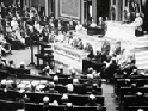
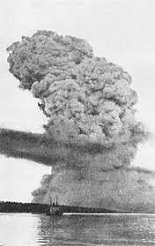















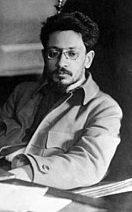









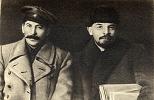








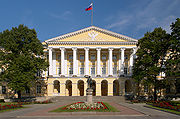








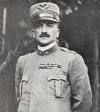





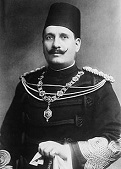

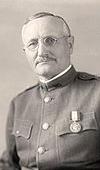





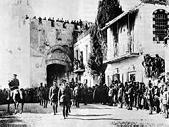
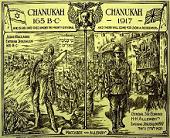











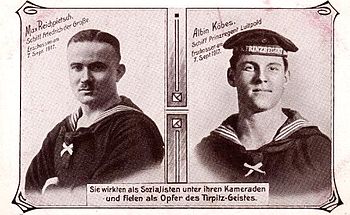





















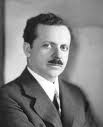
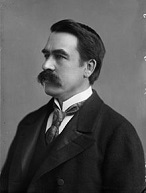














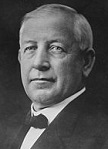
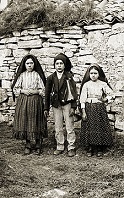



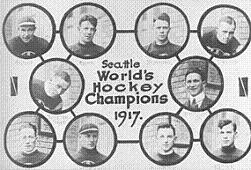


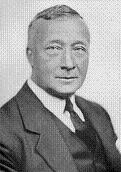


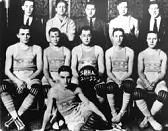


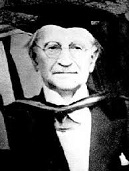




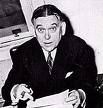

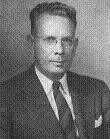






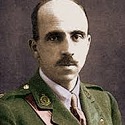

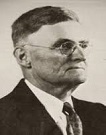


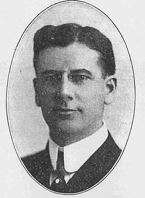
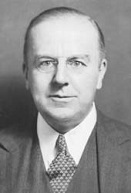
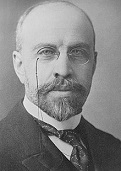
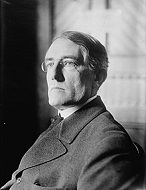
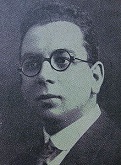
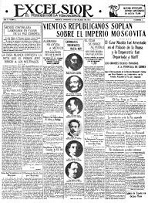







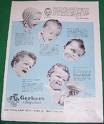
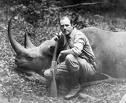



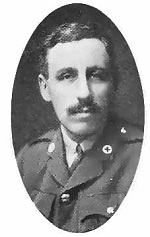
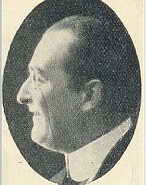
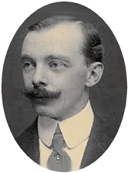
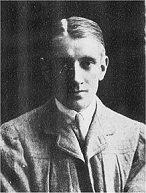
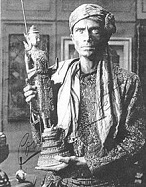
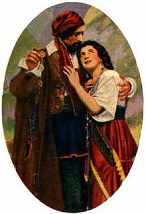

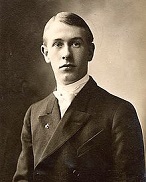


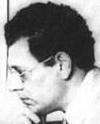
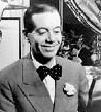

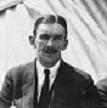

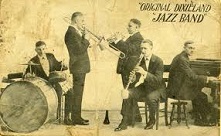
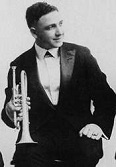




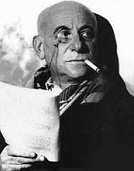














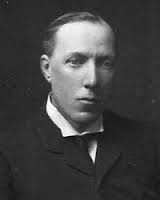



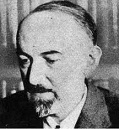
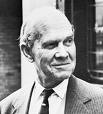



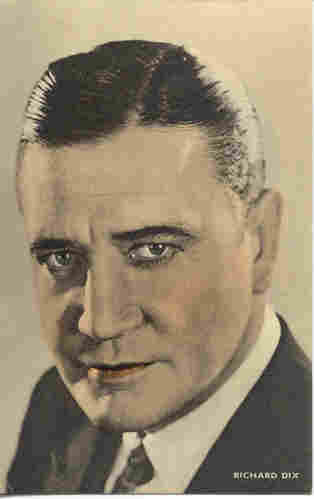








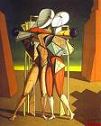



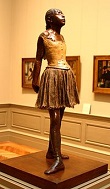
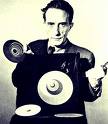
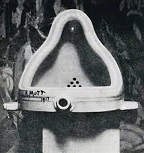

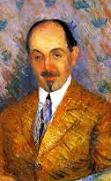
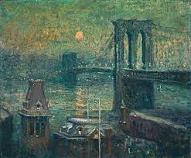
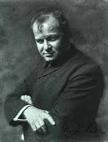
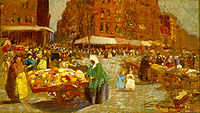



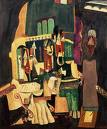

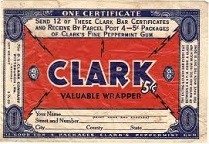
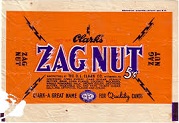


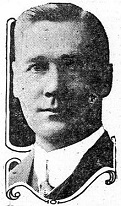
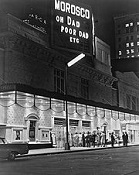
1917 Chinese Year: Snake - if I scream what's up beside you? The pop. of Washington, D.C. zooms from 350K this year to 450K next year, causing a severe housing shortage; the Mall is turned into a parking lot. Speaking of snakes, the Bolshevik Party in Russia zooms from 45K members in Mar. to 240K in July. British merchant shipping losses this year: 4M tons. The Germans basically starve all this unlovely year, losing 250K; 10K die of starvation in Constantinople. Total U.S. soldiers KIA in 1917-18: 48,909; total dying of influenza: 62K. At the start of the year 11 Euro nations are at war incl. Germany, Austria-Hungary, Bulgaria, Britain, France, Russia, Italy, Serbia, Portugal, Belgium, and Romania; non-Euro nations at war incl. Japan, Canada, Australia, New Zealand, India, South Africa, West Indies. Men in arms: Russia: 9M (after 1M are killed, 2M are missing or POWs, 500K are in hospital, 1.5M are on extended leave or excused from service, and 1M have deserted), Germany: 7M, Austria: 5M (after 800K are killed and 1M badly wounded); the British Expeditionary Force in France starts the year at 56 divs., growing to 65 by Mar.; 10K women serve in France in Queen Mary's Army Auxiliary Corps; the Royal Flying Corps has 50 squadrons in the field by Apr. On Jan. 1 6-0-1 Oregon upsets 7-2-1 Penn. by 14-0 to win the 1917 Rose Bowl; in 1918-9 the game is played by service "who cares?" teams. On Jan. 1 (10:12 a.m.) German U-boat UB-47 sinks British troop transport (en route to Egypt) SS Invernia (known for the world's largest ship funnel, 60 ft. high) 58 mi. SE of Cape Matapan in S Greece, killing 121. On Jan. 1 British Gen. Sir Douglas Haig is promoted to field marshal, with George V sending him a handwritten note saying "I hope you will look upon this as a New Year's gift from myself and the country" - hate this, you muthafucka? On Jan. 2 Kaiser Wilhelm II tells his aides that when the war is over, "The coast of Flanders must be ours." On Jan. 2 the Royal Bank of Canada takes over Quebec Bank. On Jan. 3-4 the Battle of Behobeho sees the Brits led by Capt. Frederick Courteney Selous (b. 1851) (famous big game hunter) advance from Dar es Salaam into the interior up the Rufiji River, running into a German force, which kills Selous, who is such a hero with the Germans that German East Africa CIC Gen. Paul Emil von Lettow-Vorbeck sends a condolence letter; Sir H. Rider Haggard later bases his Allan Quatermain char. on him. On Jan. 4 Pres. Wilson utters the soundbyte: "There will be no war. It would be a crime against civilization for us to go in." On Jan. 6 Pres. Wilson learns that the Kaiser's Dec. peace proposal has strings incl. permanent occupation of Liege, Namur, and other forts in Belgium, control of railways and ports, and German military occupation with Belgians remaining disarmed, causing U.S. ambassador James W. Gerard to tell German chancellor Theobald von Bethmann-Hollweg: "I do not see that you have left much for the Belgians excepting that King Albert will have the right to reside in Brussels with an honor guard", to which he replies: "We cannot allow Belgium to be an outpost of Great Britain." On Jan. 8 the the German high command meets at the Pless Conference, after Adm. von Holtzendorf and Gen. Hindenburg gang-up on chancellor Bethmann-Hollweg, the Kaiser decides to launch unrestricted U-boat warfare against Allied and neutral ships, risking war with the U.S. in the belief that they will force England to make peace before full U.S. mobilization, causing Bethmann-Hollweg to resign; meanwhile they withhold announcement until Jan. 31 while toying with peace overtures. On Jan. 9 the British defeat the Turks in the border town Battle of Rafah (Rafa), taking 1.6K POWs, giving them control of the Sinai Peninsula. Hang in there we'll take care of you? On Jan. 10 the Allies formally answer Wilson's peace note with a statement of war objectives incl. the restoration of Belgium, Serbia, and Montenegro, evacuation of French, Russian, and Romanian terrority with reparations, the reorg. of Europe based on nationalities, restoration of all territory taken from the Allies, the liberation of Italians, Slavs, Romanians, and Czechs from foreign rule, the freeing of subject nationalities under Turkish rule, and the expulsion of Turks from Europe. On Jan. 11 the Kingsland Explosion at a munitions factory in Kingsland (later Lyndhurst, N.J.) is blamed on German saboteurs; in 1931 they are cleared. On Jan. 12 the Allies issue the Rome Declaration, promising to seek nat. liberation for all subject peoples in the Hapsburg lands incl. the Poles, Czechs, Slovenes, Slovaks, Croats, Serbs, and Romanians, causing foreign minister Count Ottokar Czernin (1872-1932) to tell the Austrian council of ministers that they need to look for a compromise peace fast; Romanian POWs in S Russia sign an oath to fight against their former Hapsburg masters. On Jan. 16 the U.S. purchases the Danish West Indies for $25M. On Jan. 16 German foreign minister (Nov. 22, 1916-Aug. 6, 1917) Dr. Arthur Zimmermann (1864-1940) sends the coded Zimmermann Note (Telegram), to German minister Heinrich von Eckardt in Mexico City to work for an alliance with Mexico and Japan directed against the U.S. "just in case" the U.S. enters the war, promising them "generous financial support" to help them "reconquer" Tex., Ariz., and N.M., promising to "make war together, make peace together"; too bad, the British are listening, but can't decode it because they switched to a new encryption code, but luckily Eckardt can't read it either, so he asks for it to be resent in the old code on Jan. 19, allowing the Brits to decode it on Feb. 19 and send it to the U.S. On Jan. 19 the Silvertown Explosion at a munitions factory in West Ham, Essex, England kills 73 and injures 400. On Jan. 19 the Silent Sentinels, led by Alice Paul and the Nat. Woman's Party begin picketing the White House, holding out until the 19th Amendment is passed in June 1919. On Jan. 22 Pres. Wilson delivers his Peace Without Victory State of the Union Speech to the U.S. Senate, with the fact that the Allies aren't in such a great military position causing him to utter the soundbyte: "Victory would mean peace forced upon the loser, a victor's terms imposed upon the vanquished. It would be accepted in humiliation, under duress, at an intolerable sacrifice, and would leave a sting, a resentment, a bitter memory upon which terms of peace would rest, not permanently, but only as upon quicksand. Only a peace between equals can last, only a peace the very principle of which is equality and a common participation in a common benefit. The right state of mind, the right feeling between nations, is as necessary for a lasting peace as is the just settlement of vexed questions of territory or of racial and national allegiance"; Wilson also calls for a "united Poland", with access to the Baltic Sea, and Tsar Nicholas II soon gives this idea his support. On Jan. 23 German Washington ambassador Count Bernsdorff asks Berlin to send $50K to help him influence members of Congress to stay out of the war. On Jan. 25 an anti-prostitution drive in San Francisco, Calif. closes 200 houses. On Jan. 26 the sea defenses of Hallsands, Devon, England are breached, making it uninhabitable. On Jan. 27 Costa Rican pres. Alfredo Gonzalez Flores is overthrown by a coup led by Gen. Jose Federico Alberto de Jesus Tinoco Granados (1870-1931) (until 1919); the U.S. refuses to recognize him - get a shorter name first? On Jan. 28 the U.S. officially quits searching for pesky Pancho Gonzales; on Jan. 30 Gen. Pershing's troops begin returning to the U.S., reaching Taos, N.M. on Feb. 5. On Jan. 29 at Pres. Wilson's request German ambassador (in Washington) Count Johann Heinrich von Bernstorff (1862-1939) (the one to whom the Zimmermann Telegram was relayed to/from Mexico and Germany) gives him a confidential list of German aims, incl. the restitution of the part of Alsace now occupied by German forces, acquisition of strategic-economic buffer zones with Poland and Russia, return of colonies and Lebensraum, restoration of occupied France, resumption of commerce, freedom of the seas, and reparations - he said it not me? On Jan. 31 the Germans announce unrestricted U-boat warfare beginning Feb. 1, pissing-off self-appointed Great White Mediator Rainn, er, Woodrow Wilson, and causing him to terminate all peace talks; the Germans have 90-100 U-boats based at Ostend, Zeebrugge, and German ports; they send a few first-class aircraft to Macedonia, Palestine, and Mesopotamia, where they easily beat the poor French and British planes until they are recalled in May; the British go on to capture the port of Jaffa. On Jan. 31 Mexico adopts the 1917 Mexican Constitution, superseding the 1857 constitution, and promulgates it on Feb. 5, ending the Mexican Rev. of 1910; the new constitution establishes an 8-hour workday, minimum wage, and the right to strike; peasants are permitted to recover seized lands; Church power and property rights are curtailed, and free secular mandatory public education is instituted; foreigners (esp. gringos?) are denied the right to own land except under special situations; on Mar. 11 Venustiano Carranza is elected pres. for a 4-year term with reelection barred (until May 21, 1920); too bad, he proves to be old skool, ignoring the constitution and repressing rural resistance while solidifying power, and the part about restricting foreign interests who seek to own the land under Mexicans' feet causes a foreign (Yankee?) conspiracy against him. In Jan. the Germans sink 51 British, 63 other Allied, and 66 neutral ships, carrying 300K tons of cargo, one-third British. In Jan. after being drafted into the Turkish army, Romanian-born Palestinian Zionist Jew Alexander Aaronsohn (1888-1948) offers his services to the British as a spy, helping the British army with his knowledge of desert wells and springs between Gaza and Beersheba. On Feb. 3 the 50K-man Portuguese Expeditionary Force arrives in France. On Feb. 3 German sub U-53 sinks U.S. cargo ship SS Housatonic (formerly the German passenger ship SS Georgia) off the Scilly Islands; its entire crew is rescued by a British ship, but it loses its cargo of grain. On Feb. 3 Pres. Wilson severs U.S. relations with Germany, and sends an appeal to everybody to follow suit, causing Brazil, Bolivia, and Peru to do ditto, followed by China on Mar. 14; Wilson decides not to declare war until the Huns, er, Germans commit an overt act; German ambassador to the U.S. Count von Bernstorff is reassigned to Turkey (until 1918). On Feb. 4 the Kaiser orders the withdrawal of troops on the Western Front to the new Hindenburg (Siegfried) Line, reducing the length of their defense line by 25 mi. and releasing 13 divs. for service in reserve; for funners they lay waste to the buffer zone, bringing a protest by Bavarian Field Marshal crown prince Rupprecht. On Feb. 4 the Germans create the Council of Flanders to keep a promise of admin. separation of the Flemish and Walloon provinces, ceasing deportations. On Feb. 4 the U.S. over Pres. Wilson's veto passes the U.S. Immigration Act of 1917, AKA the Asiatic Barred Zone Act, creating an Asiatic Barred Zone consisting of most of E Asia and the Pacific Islands, and ballooning the list of "undesirables" banned from legally entering the U.S., incl. gays, lesbians, bisexuals, "mentally or physically defective", etc.; of course, this automatically excludes most Mexicans, but it takes until 1928 for the U.S. to get antsy enough to actually order their consulate to bar them from even applying, creating the Bracero Program in 1942 for seasonal migrants. On Feb. 5 Sheikh Jabar II of Kuwait dies, and is succeeded by his brother Salim Mubarak al-Sabah (1864-1921). On Feb. 13 Mata Hari is arrested in Paris for spying. On Feb. 13-21 the Raid on Nekhl in the Sinai Peninsula pushes the last Ottoman troops back to Palestine. On Feb. 14 a secret agreement is signed by France and Russia to give France a free hand in defining its frontier with Germany incl. giving it Alsace-Lorraine, the coal district of the Saar River Valley, and political separation of German regions W of the Rhine River to create a buffer zone against future German invasions; in return France allows Russia a free hand in defining its frontier with Germany and Austria-Hungary, and signs another agrement on Mar. 11. On Feb. 15 Italian troop ship (en route to Salonica) Minas is sunk by German sub U-39, kiling 870 of 1K. On Feb. 17 Australian PM William M. Hughes forms the Nationalist Party of Australia consisting of Labour and Liberal opposition leaders, and his new nat. war govt. receives a mandate in May 5 elections. On Feb. 17 British anti-sub ship HMS Farnborough sinks German sub U-83, which only has two survivors out of 37, winning British Capt. (later vice-adm.) Gordon Campbell (1886-1953) a Victoria Cross. On Feb. 17 German sub U-65 sinks French liner SS Athos in the Mediterranean Sea, killing 543 Chinese laborers headed for the Western Front; by the end of the war 100K Chinese work for France 70 hours a week for 7-14 francs, with Scotland Yard fingerprinting them so the pesky devils can't impersonate each other; 1,612 end up buried in 20+ British cemeteries in N France. On Feb. 22 Sgt. Benito Mussolini is wounded by an accidental mortar bomb explosion on the Isonzo sector of the Italian Front, which killed four others in his trench, after which he spends 6 mo. in the hospital, having 44 fragments and shell splinters removed and being visited by the king. On Feb. 23 10 mo. after the Turks captured it and began death-marching 12K British and Indian troops to Turkey, the Second Battle of Kut sees 50K British and Indian troops under Gen. Frederick Stanley Maude recapture Kut in Mesopotamia from 17K Turkish troops, taking 1,730 Turkish POWs. On Feb. 24 Britain announces the intercepted decoded Zimmermann Note, causing a sensation; at first the Brits are suspected of making it up to trick the U.S. into war with Germany, until German foreign minister Zimmermann puts his foot in his mouth by confirming it in a speech; on Feb. 26 Pres. Wilson requests authority from Congress to arm U.S. merchant ships; the telegram is pub. in the U.S. on Mar. 1; on Mar. 4 the "little group of willful men" led by Wisc. Sen. (1901-6) "Fighting Bob" Robert Marion La Follette Sr. (1855-1925) successfully filibusters the bill, but Wilson announces the arming of merchant ships by executive order on Mar. 12. On Feb. 25 (10:20 p.m.) German sub U-50 sinks Cunard liner RMS Laconia 6 mi. WNW of Fastnet Rock, killing 12 incl. six crew, and six passengers incl. two Americans; making a star of Chicago Tribune reporter Floyd Phillips Gibbons (1887-1939), a passenger who delivers a blow-by-blow. On Feb. 25 German destroyers raid the English Channel, but have no luck, so they plan to do it again. I've been fighting insurance companies all my life and they don't frighten me? On Feb. 26 an Anglo-French conference is held in Calais, France supposedly to discuss a transportation crisis, but actually to put British Gen. Haig under Nivelle's orders under a plan devised under the table with him by Lloyd George, which becomes known as the Calais Agreement; Haig signs it under protest, "Signed by me as a correct statement but not as approving the arrangement"; another conference in London reduces Nivelle's power a little, limiting him to communications with the British army through Haig, formalized in the Mar. 13 London Agreement, but it all turns out to have been a big boo-boo as on Mar. 14 French war minister Gen. Lyautey is shouted down in the Chamber and resigns, and on Mar. 17 the Briand govt. falls, making Nivelle a lame duck - oh yeah, a .45 slug in the back? In Feb. secret negotiations between Austrian Emperor Charles I and the British and French govts. through Austrian foreign minister Count Ottokar Czernin and the emperor's brother-in-law Prince Sixtus of Bourbon (in the Belgian army) begin in Switzerland, bounce to Venice and back to Paris (Mar. 24), when the emperor promises to support French claims to Alsace-Lorraine, help restore Belgium and Serbia (with access to the Adriatic), and grant reparations; on May 6-8 Sixtus visits Vienna again over the matter of returning Trentino and Trieste to Italy, but the Austrians won't budge and by June the negotiations fall through. In Feb. the British Gen. Staff pub. the pamphlet SS 143: Instructions for the Training of Platoons for Offensive Action, espousing the doctrine of using the platoon as a self-contained tactical unit to implement fire and movement tactics, making use of the hand grenade, rifle grenade, and machine gun on enemy strong points. On Mar. 1 the town of Omuta in Fukuoka Prefecture, Japan is founded. On Mar. 2 the U.S. Jones-Shafroth Act grants Puerto Ricans U.S. citizenship - as long as they stay in New York City? On Mar. 2 El Salvador submits its gripes about the Bryan-Chamorro Treaty of 1914 to the Central Am. Court of Justice, which rules in its favor, declaring the treaty to be a violation of the treaties of 1907; the U.S. and its puppet Nicaragua snub the court, proving its authority to be a sham. Halfway to Hazard, or Poison with the Spin Doctors, or, Say yes, come on, say yes, or, I just can't wait to get next to you? The first of two Russian revolutions rustles Russia up? On Mar. 3 after 2M Russian soldiers are killed in the Great War, allowing Bolshevik propagandists to have a field day, the February Rev. (Old Style Julian Calendar) begins as workers at the Putilov Munition Works in Petrograd go on strike, spawning daily bread riots with wave the red flag; on Mar. 7 60K Bolshevik troops under Mikhail Tukhachevsky attack the island Kronstadt naval base outside Petrograd; on Mar. 8 (Feb. 23 Old Style) (Sun.) (Internat. Women's Day) the Women's March in Petrograd demands "bread and peace", joining with 90K factory workers already on strike; on Mar. 10 a gen. strike by 500K begins, and on Mar. 12 Georgian-born Irakly Tsereteli (1882-1959) announces the new Petrograd Soviet of Workers', Soldiers', and Peasants' Deputies, which challenges both the tsar and the Duma; on Mar. 11 the Duma refuses to yield to the tsar's orders to dissolve, and by night fires break out in Petrograd while soldiers of the elite 17K-man Volinsky Guard Regiment murder some of their officers; on Mar. 12 Tsar Nicholas II leaves his military HQ near the front at Mogilev 450 mi. away to return to Moscow; meanwhile on Mar. 12 (11 a.m.) demonstrators set fire to the law courts on Lityeiny Prospect, and attack and burn police stations, while the remainder of the Volynsky Regiment refuses to fire on them, instead lashing commanding officer Capt. A.F. Lashkevich to death and firing at soldiers loyal to the tsar, becoming the first Russian military unit to mutiny and join the revolutionaries, setting prisoners free. On Mar. 4 U.S. pres. #28 Woodrow Wilson is inaugurated for a 2nd term in the 38th U.S. Pres. Inauguration; Thomas R. Marshall continues as the 28th vice-pres.; the first time that women officially participate in the inaugural parade; Wilson utters the soundbyte "We stand fast on armed neutrality"; Repub. pacifist Jeannette Pickering Rankin (1880-1973) of Mont., known for the soundbyte "The peace problem is a woman's problem" becomes the first woman member of Congress (until Mar. 3, 1919, then Jan. 3, 1941-Jan. 3, 1943), going on to cast one of 50 votes against U.S. entry in WWI, the sole vote against U.S. entry into WWII, and oppose the Vietnam War. On Mar. 8 after the trouble with the little group of willful men, the U.S. Senate votes to limit filibusters by adopting the Cloture Rule. On Mar. 9 the Special Transcaucasian Committee is established by the Russian Duma to fill the vacuum caused by the collapse of the Russian Caucasus Front, causing the Bolsheviks to establish their own govt. based in Tiflis, backed by Russian Armenians. On Mar. 11 after taking Ctesiphon without a fight then marching 100+ mi. in 15 days while 9.5K Turkish troops evacuate, 45K British and Indian troops under Lt. Gen. Sir Frederick Stanley Maude (1864-1917) capture Baghdad, followed on Mar. 17 by Baquba 33 mi. NNE of Baghdad (which next fall becomes the site of a Persian refugee camp where Assyrian Christians are persecuted), moving 80 mi. N to Samarra by the end of Apr.; too bad, after taking over Persia, the British stink themselves up by presiding over the 1917-1919 Persian Famine, which kills 8M-10M, intentionally encouraging it then attempting a coverup? - too bad they didn't keep it? On Mar. 12 the Germans sink U.S. steamship Algonquin sans warning W of Bishops near the Scilly Islands of Britain, and follow it with three more in the next four days. On Mar. 13 the capt. of Russian cruiser Aurora docked in Petrograd is murdered by revolutionary sailors; on Mar. 13 the joint German-Austrian high command agrees to provide railway facilities for Vladimir Lenin and his party of 32 Bolsheviks to return to Russia from Switzerland, and he agrees on Mar. 31; on Mar. 13 sailors kill 40 officers and sgts. and arrest 100+ officers at Kronstadt; on Mar. 14 the revolt in Petrograd and Moscow succeeds, and a provisional govt. is formed by the Duma (pres. M.V. Rodzianko) in the Tauride Palace in Petrograd, led by PM Prince Georgy Lvov (1861-1925), granting amnesty to political prisoners in Siberia but continuing the war; on Mar. 14 (Mar. 1 Old Style) the rival Petrograd Soviet (Russ. "council"), also meeting in the Tauride Palace issues Order No. 1, ordering the army to democratize, with soldiers electing their own officers (insuring anarchy?), and all weapons to be controlled by elected committees, with off-duty saluting of officers abolished; it sends political commissars to all military units to persuade soldiers to quit fighting; on Mar. 14 the tsar's train is stopped at Pskov by the revolutionaries; on Mar. 15 (2:30 p.m.) after Russian gen. Mikhail Vasiliyevich Alekseyev (1857-1918) at Mogilev gets all army cmdrs. to telegram him asking him to abdicate to keep Russia in the war, and Russian gen. Nikolai Vladimirovich Ruzsky (1854-1918) (cmdr. of the Northern Front) at Pskov personally talks him into it (claiming to regret it later before he is executed), and his cousin Grand Duke Nicholas also recommends it, tsar (since Nov. 1, 1894) Nicholas II (1868-1918) (whose portrait bears a striking resemblance to Dr. Seuss' Cat in the Hat?) ups and abdicates in favor of his younger brother Grand Duke Michael Alexandrovich Romanov (1878-1918), ending the Romanov Dynasty (begun 1613), after which the provisional govt. promises civil liberties and a constituent assembly. On Mar. 13 (Feb. 28 Old Style) the Russian daily broadsheet newspaper Izvestia (Russ. "news") (originally "News of the Petrograd Soviet of Workers Deputies") is founded in St. Petersburg, starting out printing Menshevik and Bolshevik views, becoming the official organ of the Soviet Union in Oct. 1917 and reaching a circ. of 234K until the fall of the Soviet Union in 1991, after which it becomes a private newspaper; "There's no truth in Pravda and no news in Izvestia". On Mar. 15 Eaton, Ohio-born Progressive Repub. Calif. lt. gov. #27 (since July 22, 1916) William Dennison Stephens (1859-1944) becomes Calif. gov. #24 (until Jan. 8, 1923), going on to fight militant labor radicals by getting the 1919 Calif. Criminal Syndicalism Act passed, and working to exclude Japanese immigration as a threat to the U.S. On Mar. 16 Vladimir Lenin in Zurich receives his first news of the Russian Rev. On Mar. 16-18 German subs sink the SS Vigilancia, followed on Mar. 17 by the SS City of Memphis, and on Mar.18 by the SS Illinois, all sans warning; Wilson's cabinet votes unanimously for war on Mar. 20 - three strikes and you're out? >1919 On Mar. 17 German destroyers under Cmdr. Tillessen raid the English Channel, sinking two British destroyers. On Mar. 17 the Kronstadt Rebellion ends with the Bolsheviks entering the city after losing 10K KIA; on Mar. 19 they gain control after another 500-1.4K KIA; on Mar. 18 the Bolsheviks celebrate the 50th anniv. of the Paris Commune. On Mar. 17 the Russian provisional govt. recognizes Finland as an independent state within the proposed Russian federation. On Mar. 17 one day after he resigns, Russian navy CIC adm. Adrian Ivanovich Nepenin (b. 1871) is murdered in Helsinki by a sailor. On Mar. 19 German sub U-64 sinks French battleship Danton (first with turbines) off Sardinia, killing 296. On Mar. 18 the Excelsior (Excélsior) daily newspaper is founded in Mexico City by Rafael Alducin (1889-1924), who helps launch Mexico's first Mother's Day in 1922; in 1932 it becomes a worker-owned cooperative; in Jan. 2006 it is acquired by Grupo Imagen. On Mar. 20 former PM Alexandre Felix Joseph Ribot (1842-1923) succeeds Aristide Briand as French PM (until Sept. 17). On Mar. 20 abdicated tsar whatisname returns to army HQ at Mogilev, telling troops that they should be loyal to the provisional govt. and its decision to continue fighting the war. On Mar. 21 a German sub sinks U.S. tanker SS Healdton en route from Philly to Rotterdam in a special safety zone in Dutch waters, killing 20, causing Pres. Wilson to call Congress to meet on Apr. 2. On Mar. 22 after Grand Duke Michael refuses the crown unless a constituent assembly is heard, and the latter is delayed until fall, the revolutionaries throw the baby out with the bathwater and arrest Russian Tsar Nicholas II at army HQ, then imprison him in Tsarskoe Selo Palace; meanwhile on Mar. 22 the U.S. becomes the first to recognize the provisonal govt., followed by the English, French, and Italians; meanwhile on Mar. 25 Joseph Stalin and Lev Kamenev return from exile, and Stalin takes over Pravda without asking anyone, causing Lenin in exile to write him about it; the Soviets split with the provisional govt., calling for peace on Apr. 9 after it called for continued fighting on Mar. 31; the Soviet issue "Order No. 1", ordering the army to democratize, and soldiers to elect their own officers, insuring anarchy. On Mar. 26 the First Battle of Gaza is a D for the British Egyptian Expeditionary Force (EEF) for the 2-1 outnumbered Turks under German Gen. Friedrich Freiherr Kress von Kressenstein; on Apr. 17-19 the Second Battle of Gaza is another D, causing French and Italian reinforcements to be called in, and Gen. Sir Edmund Henry Hynman Allenby (1861-1936), "the Bloody Bull" to replace Gen. Sir Archibald Murray as CIC of British forces in the Middle East (Egyptian Expeditionary Force) on June 29, with instructions to take Jerusalem by Christmas (not Hanukkah?); the 2nd attack sees the Brits use gas on the Palestine Front for the first time, along with eight tanks, which break down in desert conditions, the Turks capturing three of them. On Mar. 30 the Russian provisional govt. recognizes the independence of Poland. On Mar. 31 the U.S. signs the Treaty of the Danish West Indies with Denmark, taking possession of the U.S. Virgin Islands in exchange for a $25M gold payment like a virgin? In Mar. anti-Russian Islamist Said Shamil, grandson of Imam Shamil (d. 1871) founds the Islamic Mountainous Repub. of the Northern Caucasus (ends June 1920) in Terek and Dagestan Oblasts, with capital at Vladikavkaz, followed by Nazaran and Temir-Khan-Shura. In Mar. Socialist mathematician Paul Painleve (Painlevé) (1863-1933), minister of public instruction and inventions since 1915 becomes war minister and PM of France concurrently (until Nov.). In Mar. Canadian pilot William Avery "Billy" Bishop (1894-1956) shoots down his first of 72 German aircraft on the Western Front. In Mar. the Bulgarians use poison gas for the first time on the Salonica Front. In Mar. the Royal Aircraft Factory S.E.5, an improvement on the Sopwith Camel, with a Hispano-Suiza engine is introduced to the Western Front, helping to regain Allied air superiority by July; 5, 205 are built; too bad, they're too late to stop Bloody April, the British air support operations during the Battle of Arras which, although successful see the Royal Flying Corps suffer far more losses than the German Luftstreitkrafte. In Mar. the Angel of Peace allegedly first appears to three shepherd children Lucia Santos, Jacinta Marto, and Francisco Marto at the Cova da Iria in Fatima (Fátima), Portugal, followed by the Virgin Mary next May 13, who tells them three secrets, incl. a vision of Hell, and the Virgin's request for the consecration of Russia to prevent it from spreading its errors throughout the world; the last of which was supposed to be revealed in 1960 but is sealed by the Vatican (until ?); on Oct. 13, 1930 Bishop Jose de Silva declares the miracle "worthy of belief", legitimizing the Cult of Our Lady of Fatima; on May 13, 1946 Pope Pius XII grants a canonical coronation to the venerated image in the Chapel of the Apparitions of Fatima; on Nov. 11, 1954 he raises the Sanctuary of Fatima to the status of minor basilica - he's really a she? On Apr. 1 the British Fourth Army captures Savy Wood 4 mi. W of St. Quentin; poet Wilfred Edward Salter Owen (1893-1918) is blown into the air and gets shell-shocked. On Apr. 1 a German U-boat sinks armed U.S. steamer Aztec near Brest, killing 28. "Hell is Too Good for the Huns" and "Fifty million Frenchmen can't be wrong" read the placards as the U.S. plays Superman, the Lone Ranger, and Custer all at the same time? On Apr. 2 Pres. Wilson asks the U.S. Senate to declare war on Germany, with the soundbyte "The world must be made safe for democracy"; on Apr. 4 by 82-6 the U.S. Senate votes for war, followed on Apr. 6 by the House by 373-50, and the U.S. declares war on Germany, which U.S. ambassador to Britain Walter Hines Page (1855-1918) considers the climax of his career (which consisted of publicly pretending to be neutral while working behind the scenes like Hell to get the U.S. into war?); as the U.S. enters the war, the Germans have sunk 1,030 merchant ships, and Britain is 6 weeks from starvation; if the U.S. had stayed out, both sides were exhausted enough to arrange a peace, but the U.S. entry tipped the war against Germany, leading to the unjust Versailles Treaty, spawning Hitler? On Apr. 2 British forces from Baquba link up with Russian troops from Persia at Kizil Rabat. On Apr. 2-3 thinking that the Germans are withdrawing, the British 2nd Div. under Maj. Gen. Sir John Gellibrand (1872-1945) stages an unauthorized attack in Noreuil near Bullecourt in Pas-de-Calais, France that fizzles under machine gun fire; Danish-born Australian Pvt. Jorgen (Jørgen) Christian Jensen (1891-1922) is awarded the Victoria Cross. On Apr. 3 the Germans take 10K Russian POWs at the Eastern Front. On Apr. 3 Albert Einstein writes the soundbyte: "I am convinced that we are dealing with a kind of epidemic of the mind. I cannot otherwise comprehend how men who are thoroughly decent in their personal conduct can adopt such utterly antithetical views on general affairs. It can be compared with developments at the time of the martyrs, the Crusades and the witch burnings." On Apr. 5 the British govt. adheres to the principle of an independent and united Poland. On Apr. 7 Cuban pres. Mario Garcia Menocal declares war on Germany in a bid to gain U.S. support, and the sugar industry prospers from the war with large shipments to the U.S., which collapse after the war ends. On Apr. 7 the U.S. bans all amateur and commercial use of radio, shutting down or taking over most private radio stations. On Apr. 8 German sub U-55 (Capt. Wilhelm Werner) sinks British steamer SS Torrington 150 mi. SW of the Scilly Islands, destroying a lifeboat with 14 in it, then submerging while 20 passeners cling to its hull, drowning them all. On Apr. 8 Vladimir Lenin and 32 Bolshevik colleagues begin their journey by special sealed train from Zurich to Russia via Germany and Sweden followed by a boat across the Gulf of Bothnia; Austrian emperor Charles I warns Kaiser Wilhelm II that while a Bolshevik rev. would help take Russia out of the war, they could be next, pointing to defunct monarchies in Belgium, Serbia, Romania, Montenegro, and Albania. On Apr. 9 (Easter Mon.) (5:30 a.m.) after a 5-day air war to clear the skies for British recon planes, losing 75 British aircraft and 19 pilots, and a 5-min. hurricane bombardment followed by a quiet period, the Second Battle of Arras (ends May 16) in France begins in a heavy snowstorm, with the British attacking the Hindenburg Line, making use of the snow cover and taking 5.6K POWs, overrunning the first trench in 45 min. and the 2nd in 2 hours, taking part of the stronger 3rd line by nightfall; the creeping barrage proves effective, along with counter-battery fire, which neutralizes 80% of the German heavy guns; 30K members of the Canadian Corps take 4K POWs; on Apr. 9 (5:30 a.m.) the Battle of Vimy Ridge (5 mi. NE of Arras on the W edge of the Douai Plains), first battle in which all four divs. of the Canadian Expeditionary Force fight together begins with a 5-min. artillery barrage, detonating mines laid under No Man's Land and the German trench line at the 30-sec. point, after which the Allies storm it under artillery cover and secure the entire front line system in 40 min., then capture the ridge from the Commandant's House to Hill 145 by noon, with a final V by tea time, breaking through on a 6-mi. front N of Arras facing Douai in W France N of the Somme River; British poet Philip Edward Thomas (b. 1878) is KIA in Pas-de-Calais; British Brig. Gen. Sir Henry Sinclair Horne (1861-1929), cmdr. of the British First Army since Sept. 1916 (the only artillery officer to be given command of a British field army) becomes a big hero; the U.S. Stars and Stripes go into action for the first time in WWI at Vimy Ridge, carried by lucky Canadian Royal Field Artillery Gunner William H. Clancy of Tex., who is serving in a British infantry regiment (it would be a Clancy?); on Apr. 9-14 the First Battle of the Scarpe; on Apr. 10-11 the First Battle of Bullecourt; on Apr. 10 Gen. Allenby orders a cavalry attack that gets hung up on barbed wire and machine guns; on Apr. 11 the Brits capture Monchy-le-Preux; on Apr. 13 after suffering 485 casualties, 10 men of the Royal Newfoundland Regiment hold Monchy-le-Preux for five hours against a German counterattack until reinforcements arrive; on Apr. 15 British Gen. Haig orders the offensive stopped after making a 4-mi. dent along 10 mi. of the German front line; the Canadians gain 4.5K yards along Vimy Ridge and take 4K German POWs after losing 3,598 KIA and 7K wounded; on Apr. 23-24 the Second Battle of the Scarpe; on May 3-4 the Third Battle of the Scarpe sees the Canadians capture the village of Fresnoy 1K yards E of Alreux after losing 1,269 KIA, giving the Allies a commanding view of German trenches in the Hindenburg Line and Oppy-Mericourt Line; May 3 is the blackest day of the war?; on May 3-17 the Second Battle of Bullecourt sees a British-Australian attempt on the fortified village of Bullecourt repulsed by the Germans on May 15 after 7,482 Australian casualties. after which the Germans evacuate the ruins; total British losses are 38.3K KIA incl. 12.5K Canadians, 131 aircraft, and 316 pilots - I want to be a machine? On Apr. 10 a munitions plant explosion in Eddystone, Penn. kills 133, raising suspicions of German espionage. On Apr. 12 Austrian and Bulgarian diplomats in Switzerland fish for peace terms, but the U.S. entry into the war chills it. On Apr. 13 Pres. Wilson founds the U.S. Committee on Public Information (Creel Committee) (until Aug. 21, 1919), headed by Colo. journalist George Creel (1876-1953), using newfangled propaganda methods of Edward Louis Bernays (1891-1995) et al. to influence and manipulate public opinion in favor of the war, churning out 1.4K products, most calling the Germans "Huns" and portraying them as monsters. On Apr. 15 a German U-boat sinks British troop ship Arcadian in the Aegean Sea, killing 279. On Apr. 15 the Germans launch an unsuccessful counterattack against the Australians at Lagnicourt-Marcel, France near Noreuil. On Apr. 16 the Nivelle Offensive (Second Battle of the Aisne River) (ends May 9) begins on the Aine River using 20 French divs. along a 25-mi. front; on Apr. 17 the first French Renault FT tanks ("Char Schneiders") are used; on Apr. 17 17 French soldiers desert their trench before an attack is scheduled to begin, and after a 4-mi. penetration, Gen. Mangin calls off the battle; too bad, the offensive is a total failure, with the French only advancing 600 yards with 100K casualties, far short of their goal of 6 mi. and 15K casualties. On Apr. 16 (Apr. 3 Old Style) with German help, Vladimir Ilyich Ulyanov Lenin (1870-1924) returns from exile in Switzerland to Petrograd (St. Petersburg), along with Grigory Evseevich Zinoviev (1883-1936) and 31 other Bolshevik leaders, disembarking at the Finland(sky) Station on the E side of town N of the Neva River, and giving a speech with the soundbyte: "The hour is not far when, at the summons of Karl Liebknecht, the German people will turn their weapons against the capitalist exploiters"; on Apr. 17 he announces the April Theses at a joint meeting of Bolsheviks and Mensheviks at Taurida Palace, trashing the provisional govt. and calling for total Communism, and dissing Russia's first Marxist Georgi Plekhanov (1856-1918), who had sided with the Mensheviks, and later ends up in exile in Finland, even though his 30+ years of writings are required reading for prospective Bolsheviks; "I shall never forget that speech... It seemed as if all the elements had been let loose, and the demon of destruction was rising from the depths" (Sukhanov); he gets 79 of 118 votes; Communist Party membership doubles to 76K by May. On Apr. 17-20 the Third Battle of Champagne (Battle of the Hills of Champagne) E of Rheims between Prunay and Auberive along the Moronvilliers Hills sees the French under Gen. Francois Paul Anthoine (1860-1944) score a V, taking 6,120 German POws along with 52 big guns. On Apr. 19-Sept. 26 the St.-Jean-de-Maurienne Agreement between France, Italy, and Britain attempts to give Italy a "just share" in the Adana region in the event that the Ottoman Empire is partitioned, giving Italy the Anatolian territories of Izmir, Adalya, and Konya in the postwar settlement in return for recognizing the Sykes-Picot Agreement; Russia is out of it and never ratifies it. On Apr. 20 the Ottoman Empire servers diplomatic relations with the U.S. On Apr. 20 after the Russian 109th Div. fraternizes with German troops, and a loyal Russian artillery unit opens fire on the rebels, causing their leader Lt. ? Khaust to arrest the artillery officers in charge, Khaust and 10 other soldiers appear before a special assembly of the Russian Twelfth Army and demand an immediate peace, but the all-soldier jury votes to continue the war. On Apr. 20-21 the Second Battle of the Dover Strait sees German destroyers again raid the English Channel, but it turns bad when British destroyer HMS Broke, commanded by Capt. (later adm.) Edward Ratcliffe Garth Russell Evans (1881-1957) torpedoes one destroyer, passes around it and rams another, earning Evans the Victoria Cross, and the epithet "Evans of the Broke". On Apr. 21 Baron von Richthofen gets his 18th V. On Apr. 22-May 8 the Second Battle of Doiran sees the British under Gen. Milne attack the Bulgarians W of Lake Dojran (Doiran), getting beaten back with severe losses; on Apr. 26 a British brigade crosses Jumeaux Ravine, only to be caught in their own artillery fire, causing 5K+ casualties. On Apr. 23 French mutinies cause the British to go into action again at Monchy-le-Preux. On Apr. 23 Pravda carries the headline: "Are you willing to fight for this, that the English capitalists should rob Mesopotamia and Palestine?" On Apr. 24 Ukraine demands autonomy from Russia. I'm just a kid, I can do my part, they just think I'm cute, I just smile and I'm outta there? On Apr. 24 the U.S. begins selling Liberty Bonds, starting with $5B at 3.5%, then $3B more at 4% on Oct. 1, then $3B more at 4.5% next Apr. 5, and finally $6B more at 4.25% next Sept. 18, eventually raising $17B to help pay its $30B war debt; "America's Sweetheart", "Little Mary", "The Girl With the Curls" (first Hollywood movie star) Mary Pickford (Gladys Mary Smith) (1892-1979), Charles Spencer "Charlie" Chaplin (1889-1977), Douglas Fairbanks Sr. (1883-1939), and Marie Dressler (Leila Marie Koerber) (1868-1934) tour the U.S. promoting Liberty Bonds, starting in Washington, D.C., then Wall Street, where 50K show up; Pickford auctions one of her golden curls for $15K, and raises $5M worth of bonds in a single speech in Chicago, Ill., and is christened the U.S. Navy's "Little Sister", while the U.S. Army makes her an honorary col. and names two cannons after her; the Aviation Section of the U.S. Army Signal Corps creates an elite group of Army pilots assigned to the Liberty Bond campaign, touring the country putting on airshows then offering free rides in their Curtis J4 "Jenny" airplanes to anybody who buys one; in 1918 Chaplin releases the propaganda film The Bond; in 1920 after having hooked up for years, Pickford and Fairbanks divorce their spouses and marry privately, moving into their Pickfair mansion, becoming the King and Queen of Hollywood. On Apr. 25 a German U-boat sinks French destroyer Etendard off Dunkirk, killing all aboard. On Apr. 25 to compete against Paramount Pictures, First National Film Corp. of Am. (originally First Nat. Exhibitors' Circuit) is founded by Thomas Lincoln Tally (1861-1945), James Dixon Williams (1877-1934) et al. by merging 26 of the biggest first-run cinema chains in the U.S., growing to 600 houses incl. 200+ first-run houses; they start out by signing the first $1M film contracts with Mary Pickford and Charlie Chaplin, causing Paramount to invest $10M in their own theater chain and secretly negotiate a merger, causing Pickford and Chaplin to bolt and start their own studio United Artists, and First Nat. to back out of the merger; in 1919 they change their name to Associated First Nat. Pictures Inc., with the subsidiary Associated First Nat. Theatres Inc. consisting of 5K independent theater owners; in 1924 after Paramount tries a hostile takeover, buying member firms, it changes its name to First Nat. Pictures Inc., producing its own films in a studio in Burbank, Calif. in 1926; in Sept. 1928 Warner Bros. acquires them to produce comedies, dramas, and crime stories; in July 1936 First Nat. Pictures Inc. is merged with Warner Bros. Pictures; in 1941-58 most Warner Bros. films feature the trademark "A Warner Bros.-First National Picture". On Apr. 27 Vladimir Lenin becomes chmn. of the Petrograd Bolshevik Conference, while the sailors of Kronstadt declare support for the Bolsheviks; on Apr. 29 Russian CIC Gen. Alexeyev informs the war minister that "the army is systematically falling apart." On Apr. 30 in response to their refusal to fight in the Great War, the Am. Friends Service Committee is formed by the Quakers in order to organize alternative forms of service for its members incl. medical aid and other non-violent participation in the war effort. In Apr. German U-boats sink 881,027 gross tons of shipping, 500K of them British, their high point; results then fall steadily to the end of the year. In Apr. French Pres. Raymond Poincare receives the Sixtus Letter (dated Mar. 25) (named after Charles I's brother-in-law and intermediary Prince Sixtus of Bourbon-Parma), a separate peace offer from Emperor Charles I of Austria, revealing his support of the claims of France over Germany concerning Alsace-Lorraine, and proposing that Germany withdraw from Belgium; it is pub. next Apr. In Apr. after returning to Petrograd from exile, Yakov Mikhailovich Sverdlov (1885-1919) (known for his prodigious memory) meets Vladimir Lenin for the first time, who makes him chmn. of the Central Committee of the Secretariat; in Nov. he is elected chmn. of the All-Russian Central Executive Committee, making him de jure head of state of the Russian SFSR, causing some to regard him as the first head of the Soviet Union; he goes on to play key roles in ending the Russian Constituent Assembly next Jan. 18 and negotiating the Mar. 3, 1918 Treaty of Brest-Litovsk, and is suspected of being behind the July 17, 1918 execution of the tsar and his family; in 1924-91 the city of Yekaterinburg is renamed in his honor. In Apr. 13th cent. Chateau de Coucy in Picardy, N France, known for the biggest keep in Europe is dynamited by the Germans along with its four towers to prevent use by enemy artillery spotters, causing a public outcry; after the war the Germans are forced to pay for cleanup, and ruins are left as a "memorial to barbarity". On May 1 a German seaplane sinks British steamship Gena off Suffolk, England with an aerial torpedo, becoming the first German aerial torpedo sinking of a ship; the U.S. sees the light and begins testing a 400 lb. torpedo, which doesn't work, purchasing the first 10 Martin MB-1 torpedo bombers in 1921, while the British build the Sopwith T.1 Cukoo, Short N.1B Shirl, and Blackburn Blackburd, but don't assemble a torpedo bomber squadron before war's end. On May 1 there are 99 German divs. on the Eastern Front, 141 on the Western Front, and 153 German, Austrian, and Turkish divs. fighting the Russians in Caucasia, of which 141 are fighting on the Eastern Front (99 German, 40 Austrian, 2 Turkish). On May 1 50K wounded Russian soldiers demonstrate in favor of staying in the war. On May 2 British destroyer HMS Derwent hits a mine off Le Havre, France, killing 52. On May 5-15 the Allied Spring Offensive on the Salonica Front starts with the Second Battle of the Cerna Bend on May 5-9. On May 4 German U-boat U-63 sinks British troop ship SS Transylvania in the Gulf of Genoa, killing 413, with 2.5K rescued by their escort, Japanese destroyer Matsu. On May 4 by a narrow margin the Petrograd Soviet votes to support the provisional govt., pissing-off Vladimir Lenin. On May 7 British #1 air ace (44 Vs) Albert Ball (b. 1896) is KIA in Annoeullin, France, causing a wave of mourning in Britain, and the awarding of a posth. Victoria Cross; his arch foe Baron Manfred von Richthofen utters the soundbyte that he was "by far the best English flying man". On May 8 (eve.) the British begin a new offensive on the Salonica Front, gaining 500 yards on a 2-mi. front; on May 9 Russian, Serbian, Italian, and French troops incl. Vietnamese and Senegalese colonial troops attack N and W of Monastir; too bad, the Bulgarians hold strong, the British withdraw behind the Struma River, and the main Bulgarian citadel of Grand Couronne isn't breached for 16 mo. On May 8-9 the Allied Armies of the East under Gen. Maurice Sarrail incl. French, British, Serbian, and Italian troops start an offensive against the Bulgarians, but are beaten back thanks to the German battalions in the Crna Bend (Loop) in Macedonia, throwing the Allies into a depression, exacerbated by malaria-bearing mosquitoes. On May 9 the Second Battle of the Aisne (begun Apr. 16) ends; on May 16 Gen. Nivelle is sacked, and Gen. Henri-Philippe Benoni Omer Joseph Petain (Pétain) (1856-1951) is appointed CIC of the French Army by PM Paul Painleve (until ?); too bad, on Apr. 17 the French army starts to mutiny, and defeatism becomes widespread, fueled by news of the Russian Rev. On May 10 the Tenth Battle of the Isonzo River begins (ends June 8), with 18 Italian divs. under Gen. Cadorno against 14 Austrian; after British artillery is used for the first time, it ends with the Italians gaining at most 2 mi., with 157K casualties to 75K for the Austrians, and 23,681 Austrian POWs taken incl. 600+ officers and some Italians from Istria, who switch sides, after which Austrian counterattacks erase most of the gains. On May 10 after the British Admiralty finally breaks down and commits warships for it, the first British convoy sails from Gibraltar, consisting of 16 ships; on May 18 it is met by six destroyers at Devonport, and no U-boats are encountered; on May 24 a convoy leaves Hampton Roads, Va., arriving in Britain after one merchant ship is lost after it falls behind; by Aug. Atlantic convoys are established from Halifax, New York City, Hampton Roads, and Sydney to British ports, and in Aug. westbound convoys begin; convoy collection points incl. Halifax, Panama, Rio de Janeiro, Murmansk, Point Said, Gibraltar, and Dakar; a typical convoy has 10-50 merchant ships and a troop ship, escorted by six destroyers, one cruiser, 11 armed trawlers, and two torpedo boats with manned aerial balloons for spotting U-boats and torpedo tracks; between May, 1917 and Nov. 1918 1.1M U.S. troops are convoyed across the Atlantic, with only 637 killed by German U-boats; convoy collection points incl. Halifax, Panama, Rio de Janeiro, Murmansk, Point Said, Gibraltar, and Dakar; total Allied sinkings by the Germans: Feb. 212, Mar. 297, Apr. 335 (+38 neutral) (873,754 tons), May 230 (+55 neutral) (589,603 tons), June 230 (+56 neutral) (674,458 tons), July 201, Aug. 148, Sept. 141, Oct. 118, Nov. 103, Dec. 107 (total 2,122); U-boat losses: Feb.: 4, Mar.: 4, Apr.: 2, May: 5, June: 4, July: 6, Aug.: 4, Sept.: 10, Oct.: 7, Nov.: 8, Dec.: 6 (total 60); of the 60 U-boats sunk, three were sunk by their own mines and two were interred in Dutch and Spanish ports, while six were sunk by seaplanes, and one by U.S. Queenstown destroyers Fanning and Nicholson; on the Mediterranean the Germans sink 844 ships, while only two U-boats are sunk, both by the French; clearly the Germans are winning the numbers game. On May 13 (Apr. 29 Old Style) Russian provisional govt. war minister Alexander Ivanovich Guchkov (1862-1936) resigns, warning that democratization of the army has a limit "beyond which disintegration is bound to begin"; after being arrested and released the next day during the Kornilov Affair, he backs the White Guard, then flees to Germany. On May 14 the Germans hold their first tank trial in Mainz. By May 15 after 1 mo. of fighting, tank-equipped British troops under Gen. Haig have taken 61 sq. mi. of Western Front territory from the Germans and captured 20K POWs and 252 heavy guns. On May 15 the Petrograd Soviet issues a Manifesto to World Socialists, demanding a "platform of peace without annexations or indemnities". On May 16 Alexander Fyodorovich Kerensky (Kerenski) (1881-1970) becomes the new minister of war, with the task of renewing the Russian army's fighting ability; on May 19 he prohibits resignations from the senior military staff, and orders deserters who don't return to their units to be punished; on May 22 he replaces Gen. Alexeyev as CIC with Gen. Brusilov, and issues the Declaration of Soldiers' Rights, creating army commissars for soldiers to complain to; too bad, when the commissars try to order the officers around, the fit hits the shan; on May 25 he issues an order for an offensive; on May 26 he receives a report that 30K deserters are reaching Kiev daily from the front on their way back home. On May 16 German chancellor Theobald von Bethmann-Hollweg offers the Russian provisional govt. immediate peace, but they reject it, admitting six moderate Menshevik members of the Petrograv Soviet. On May 16 Bolshevik leader Leon Trotsky (1879-1940), fresh from New York City where he heard the good news returns to Petrograd after 1-mo. detention in Canada. On May 16 the Australian War Records Section is formed under Capt. John Linton Treloar (1894-1952), employing 600+ personnel and collecting 25K+ objects, leading to the 1919 creation of the Australian War Memorial, which is not officially opened until Nov. 11, 1941. On May 18 the U.S. Selective Service Act, written by West Point grad. Hugh Samuel "Iron Pants" Johnson (1881-1942) (who becomes a brig. gen. in 1918) is signed, providing for the conscription of men between the ages of 21-30; Gen. Enoch Herbert Crowder (1859-1932), provost marshal of the U.S. Army herds and crowds them in; on June 5 10M men begin registering; on June 2 Henry Morgan "Hank" Gowdy (1889-1966) of the Boston Braves becomes the first ML baseball player to enlist in the U.S. Armed Forces in WWI, becoming a sgt.; one-third of the eligible pop. are foreign-born or the son of a foreign-born parent, and one-eighth are African-Am.; Jews end up comprising 6% of the U.S. armed forces even though they are only 2% of the pop.; meanwhile U.S. gen. Tasker Howard Bliss (1853-1930) becomes U.S. Army chief of staff, readying the troops with how hard it is to blissfully task, er, fight WWI; on July 1 the Nat. Civil Liberties Bureau is created by Harvard-educated pacifist (spent 1 year in jail as a conscientious objector) (later pro-Soviet U.S. Communist) Roger Nash Baldwin (1884-1981), which in 1920 changes its name to the Am. Civil Liberties Union (ACLU), going on to gain fame in the Scopes Monkey Trial, the Sacco and Vanzetti case et al.; in 1936 Baldwin states that "Communism is the goal" for the U.S., but after the Nazi-Soviet treaty of 1939 wakes him up he attempts to purge Communists from the board (1940-67), changing the goal to freedom from religion, the secularization of public institutions, esp. schools, etc., causing Christian evangelists late in the cent. to begin calling it the Anti-Christian Litigation Union. On May 18 the first 243 U.S. soldiers reach Britain, the medical staff and orderlies for a base hospital; on May 26 the first combat troops arrive, reaching 1,308 by the end of the week. On May 18 after 2M Russians desert from the Eastern Front, and too many demonstrations happen back home, the Russian provisional govt. reorganizes and kicks out foreign minister Pavel Nikolaevich Milyukov (1849-1943) for trying to keep Russia in the war. On May 21 the Commonwealth Graves Commission is established in Arras at the Place de la Gare by the British to keep records of war dead and build and maintain cemeteries and memorials. On May 22 the British Cabinet approves a scheme to "counterattack the pacifist movement." On May 22 (9:00 a.m.) after being accused of raping, murdering, and beheading 16-y.-o. white girl Antoinette Rappel in the woods near Memphis, Tenn. then allegedly confessing,, 51-y.-o. African-Am. woodcutter Ell Persons is abducted from a train en route to court before trial and burned alive with gasoline by a 5K-person lynch mob in broad daylight who don't bother to wear masks, spurring the creation of the Memphis chapter of the NAACP after no one is charged, becoming one of the first in the Sout and the largest in the South by 1919; Richmond, Va.-born white supremacist atty. David John Mays (1896-1971) is a key organizer, which doesn't stop him from winning the 1953 Pulitzer Prize for Biography. On May 23 the Battle of Mount Hermada on the Karst Plateau, a key high ground on the approaches to Trieste is a V for the Italians; too bad, the Austrians take it back on June 4. On May 25 the Germans stage the first-ever bombing raid, with 23 Gotha bombers taking off in Belgium, each carrying 13 bombs; after clouds permit only two to reach England, they kill 16 Canadian soldiers in Shorncliffe, and 71 civilians in Folkestone, totalling 95 KIA and 192 injured; on June 4 another raid kills 13 civilians; "The ancient Jehovah is still abroad. Alas he slays the innocent along with the guilty, whom he strikes so fearsomely blind that they can feel no sense of guilt." (Albert Einstein) On May 25-June 1 the 1917 U.S. Tornado Outbreak sees 73+ tornadoes of F4+ hit the U.S. Midwest and SE incl. Ill., Ind., Ark., Ky., Tenn., Ala. and Miss., becoming the most intense and longest continuous tornado outbreak sequence on record (until ?); kills 383 and causes $6.88M damage, incl. 101 killed in Charleston, Ill. and Mattoon, Ill. On May 26 German U-boat U-67 sinks British hospital ship HMHS Dover Castle off Algeria, killing seven; in June 1921 U-boat Capt. Karl Neumann (1887-) is acquitted by a war crimes tribunal in Leipzig because he had "higher orders". On May 27 after 30K French soldiers leave their trenches along the Chemin des Dames and head to the rear, more troops in four towns behind the lines ramp up the 1917 French Mutiny, seizing bldgs. and refusing to go to the front; on May 28 mutineers try to seize the Fere-en-Tardenois (Fère-en-Tardenois) Railway Station and get to Paris, but are prevented from leaving; on May 30 several hundred infantrymen refuse to move into the front line to support French Moroccan troops; on June 1 a French infantry regiment takes over the town of Missy-aux-Bois; on June 4 French war minister Paul Painreliever, er, Painleve estimates that there are only two reliable French divs. left between Paris and the front line 70 mi. away, leaving the German road to Paris open; too bad the Germans don't learn about it until too late; Gen. Pain, er, Petain begins a crackdown, with mass arrests and courts-martial that hand down 23,385 guilty verdicts, sentencing 400+ to death and executing 50 of them, sending the rest to servitude in the French colonies; by mid-July the mutiny is quashed - whadya mean white men can't jump? On May 28 the staff of the first Am. Expeditionary Force(s) (AEF), led by Mo.-born French-speaking Mexican expedition veteran Gen. John Joseph "Black Jack" Pershing (1860-1948) (his nickname comes from commanding the 10th Calvary Regiment of African-Am. Buffalo soldiers in 1895, after which he was originally called Nigger Jack) departs from New York City for Liverpool on board British steamship Baltic; on June 26 it begins landing 14K "Doughboys" (nicknamed for their round dough-like uniform buttons?) (nicknamed for the female Salvation Army volunteers called Dollies or Lassies who went to cook doughnuts for the men at the front?) in St. Nazaire, France (Pershing himself lands in Boulogne on June 13 after reaching Liverpool on June 8, and makes a triumphal entry into Paris on June 14), becoming the first official U.S. force to fight on the European continent; on July 2 Pershing requests 1M U.S. troops, upping the request to 3M on July 11; it takes a year to build up enough troops for combat (1M by next July); Capt. (later Brig. Gen.) Frank Purdy Lahm (1877-1963) organizes the Lighter-than-Air Service of the AEF in Colombey-les-Belles, moving to Toul next June 3. On May 31 the Austrian Reichsrat meets for the first time since Mar. 1914; Polish deputies declare support for Polish independence, while Serb, Croatian, and Slovene deputies announce their new Yugoslav Parliamentary Club; on June 1 Emperor Charles I promises a new nationally-oriented postwar constitution. In May the British Dover Patrol bombards the U-boat bases at Zeebrugge, followed by those at Ostend in June. In May Maria Leontievna Bochkareva (1889-1920) forms the Russian Women's Battalion of Death, which sees front line action and captures 2K Austrian POWs before the male troops get jealous and force it to disband, after which she flees to exile in the U.S. in Apr. 1918; "Some remained in the trenches, fainting and hysterical; others ran or crawled back to the rear. Bochkareva retreated with her decimated battalion; she was wrathful, heartbroken, but she had learnt a great truth: women were unfit to be soldiers." (Florence Farmborough) On June 3-22 the First Congress of Workers and Soldiers Soviets is held; the Bolsheviks have 100 delegates, who demand an immediate end to the war. On June 4 the Companion of Honour and the Order of the British Empire decorations are established by George V. On June 4 the French govt. authorizes the formation of a Polish army to serve alongside Allied forces on the Western Front; meanwhile Polish univ. students strike for nat. independence. On June 4 the Nat. Labour and Socialist Convention in Leeds, England convenes, with attendees incl. Bertrand Russell and Ramsay MacDonald, congratulating the Russian people for their revolution, and calling for the 1K pacifists in prison to be released. On June 4 the first Pulitzer Prizes are awarded, administered by Columbia U., with $250K provided by the will of Hungarian-born Am. publisher Joseph Pulitzer Sr. (1847-1911), for "four awards in journalism, four in letters and drama, one in education, and four traveling scholarships"; the initial categories are public service in journalism, editorial writing, drama, fiction, history of the U.S., biography or autobiography; in 1922 they add editorial cartooning, and poetry; in 1942 they add photography, nat. reporting, and internat. reporting; in 1943 they add music; in 1948 they add local reporting; in 1953 they add breaking news reporting, and investigating reporting; in 1962 they add gen. nonfiction; in 1968 they add breaking news photography, and feature photography; in 1970 they add commentary, and criticism; in 1979 they add feature writing; in 1980 they begin announcing finalists; in 1998 they add explanatory reporting; the jury has the option of special citations and awards; the prizes eventually expand to 21 categories, with 20 winners receiving a certificate and $10K cash award, and the 21st (news org. public service in journalism) receiving a gold medal; the lucky 1917 winners are Herbert B. Swope of the New York World for reporting, the New York Tribune for editorial, Jean Adrien Antoine Jules Jusserand (1855-1932) for history, and Laura E. Richards, Maude Howe Elliott, and Florence Howe Hall for biography. On June 7 the Battle of Messy Intestines, er, Mines, er, Battle of Messines on the Messy White, er, Messines-Wytschaete Ridge 15 mi. from Lille on the Western Front sees the British Second Army under Field Marshal Herbert Charles Onslow Plumer, 1st Viscount Plumer (1857-1932) launch an offensive near the village of Messines (Mesen) in West Flanders, Belgium after a massive explosion of 19 25-ton mines (biggest non-nuclear explosion so far in history, which took the British Tunneling Cos. 18 mo. to set up under German lines), which kills 10K Germans and wins the battle, which is aided by a 2,266-gun artillery bombardment; 7,354 lucky German er, POWs are taken; the explosion at Spanbroekmolen creates a 430-ft. diam. crater; two bombs fail to explode; on June 17, 1955 one of them is struck by lightning and explodes, killing a cow; the other NE of Ploegsteert Wood isn't located until ?; on June 11 under the command of Prince Rupprecht of Bavaria the Germans withdraw to a new line to the E. On June 8 a fire is set off at the North Butte Mining Co. in Montana after a transformer cable slips and is then set afire by rescue worker Ernest "Sully" Sullau, spreading through the mine and killing 163 workers in three days, who suffer from lack of escape tunnels, signs, ventilation and water; the disaster causes miner strikes, which are met with dirty tactics by mine owners (puppets of Standard Oil Co.), stinking up Montana's name; the mines are known for slabs of hanging rock called "Duggans", named after the local undertaker. On June 8 an emergency British Cabinet meeting called by David Lloyd George discusses the French mutinies, causing George to propose postponement of the British offensive and explore a separate peace with Austria; South African Gen. Smuts gets them to contact Gen. Sir Douglas Haig about the prospects of an offensive, and the reply is "Haig was hopeful"; on June 19 Haig visits and tells them that Germany is 6 mo. from collapse, and it will take just one more offensive to win the war, causing George to approve it for the last day of July. On June 8 Gen. Pershing arrives in Liverpool, causing the British newspapers to tout it as a reversal of the Prussian policy of King George III; on June 9 Pershing meets with George V in Buckingham Palace, and the king asks him if the Yanks will soon have 50K aircraft to send them; actuially the U.S. only has 55 training planes, all clunkers, and at the start of the war the entire U.S. air force has 50 men; Pershing is told that the Germans sank 1.5M tons of Allied shipping in Apr.-May, thus the British can't bring his AEF to France or supply it. On June 8 German pilot Lt. Hermann Goering (Göring) (1893-1946) shoots down his first Allied plane after a long dogfight in front of his entire squadron, making him a hero. On June 9 the Russian provisional govt. rejects a German offer of an armistice. On June 10 the first two French mutineers are executed; on June 19 Gen. Petain begins visiting all the mutinous regiments, visiting 80+ divs. in 2 mo. On June 12 after a virtual civil war between Eleutherios Venizelos and pro-German King Constantine I, the latter is forced by the Allies to leave with his oldest son, the crown prince (diadoch), whom France and Britain bar from the succession; he never formally abdicates, but when he leaves, his 2nd son Alexander I (1893-1920) ascends the throne (until 1920); Venizelos returns to Athens, and on June 26 becomes PM again, and remobilizes the Greek army with French and British aid; on July 2 Greece declares war on the Central Powers. On June 13 (a.m.) 14 German bombers attack London, dropping 100+ bombs and killing 162 civilians, London's highest war death toll so far. On June 15 the U.S. makes a fascist right turn with the 1917 U.S. Espionage Act, which is used to jail anyone who merely criticizes the govt. or gets on their bad side. On June 16 German raider Wolf sinks U.S. schooner USS Winslow off Raoul, Sunday island, followed on July 9 by bark Beluga, on July 13 by schooner Encore, and on Nov. 18 by bark John H. Kirby. On June 17 the Portuguese Expeditionary Force goes into action for the first time in Flanders. On June 17 after declining a contract renewal with Mutual for 12 films for $1M to form Charlie Chaplin Productions, and declining a matching offer from Famous Players-Lasky and their massive Paramount distribution network, Charlie signs an 8-film (no set release schedule) $1.25M distribution contract with the First Nat. Exhibitors' Circuit for $1.25M ($125K per 2-reel film, plus $115K for each additional reel, making 3+-reel films economically feasible, along with a 30% distribution fee, and a 50-50 split of the profits), allowing Charlie to build his own studio off Sunset Blvd. on five acres, which is completed in Jan. 1918, becoming his own independent filmmaker; too bad, First Nat. begins secret negotiations for a $40M merger with Paramount to create a monopoly, becoming standoffish with Charlie. On June 18 the Winnemucca Indian Colony of Nevada reservation is established in Humboldt County, Nev. On June 23 the Ukrainian People's Repub. is proclaimed as part of the Russian Repub., going on to issue state bank notes called karbovanets; on Dec. 24 after the Rada (parliament) refuses to allow Bolshevik Red Army troops to cross its territory to fight White Russian forces, fighting breaks out between Bolshevik and Ukrainian forces; on Jan. 22, 1918 it declares independence, followed by the West Ukrainian People's Repub. on Nov. 1 and the Hutsul Repub. on Jan. 8, 1919; in Nov. 1918 the Polish-Ukrainian War begins after former Austro-Hungarian lands in E Galicia are claimed by the German-controlled Ukrainian State and the Ukrainian People's Repub., ending on July 18, 1919 after Poland reoccupies it; on Jan. 22, 1919 the Ukrainian Unification Act is signed at St. Sophia Square in Kiev (Kyiv), launching a civil war after the anarchist Black Army (Guards) (Rev. Insurgent Army of Ukraine) in S Ukraine breaks away, fighting both the White Army and Red Army until its defeat by the Red Army in Aug. 1921; on June 11, 1919 the Hutsul Repub. is dissolved after being occupied by Hungarian troops, and in Sept. 9 it is admitted into the First Czech. Repub.; on Dec. 20 it is repealed, but Jan. 22 survives as Ukraine's Day of Unity as a state (not public) holiday. On June 23 Count Heinrich Clam-Martinic resigns, and Ernst Ritter Seidler von Feuchtenegg (1862-1931) (excuse me?) becomes minister-pres. of Austria (until July 27, 1918). On June 23 the British stage an air attack on the Turks in Palestine, bombing Tulkarm, Ramleh, and the German military HQ in the Augusta Victoria Church on the Mount of Olives in Jerusalem, damaging a large roof mosaic of the Kaiser and his wife. On June 28/29 (night) the Great Rainstorm of June 28, 1917 in England sees 5"-7" of rainfall over a heavily populated area, becoming the worst in England (until ?). In June the British launch Operation Hush to capture the coast of Belgium via amphibious landings, giving up on Oct. 14. In June Indiana U. establishes a dept. of military science and tactics, with its first courses offered in fall to prepare males for military service in er, two years; after Congress lowers the draft age to 18 in Mar. 1918, authorizing the Student Army Training Corps (SATC), the male students are allowed to volunteer, and the first enlistees are sworn in on Oct. 1, 1918. On July 1 the Russians begin the 1917 East Galicia (July) (Kerensky) Offensive (ends July 19) along a 50-mi. front with 31 divs. and 1,328 heavy guns, aiming for Lemberg 50 mi. to the W, and taking 10K German and Austrian POWs; meanwhile a massive peace demonstration is held in Petrograd; on July 1-2 the Battle of Zborov in Ukraine, the first major action of the Czechoslovak Legions fighting for the Russians on the Eastern Front is a V, the only successful action of the failed Kerensky Offensive; on July 2 the Czech Brigade talks the Austrian 19th (Czech) Div. into deserting, while many Russian troops do ditto; meanwhile Maj. Gen. Lavr Georgiyevich Kornilov (1870-1918) leads a separate Russian attack to the S, which takes 7K Austrian POWs; despite the arrival of German reserves, Kornilov crosses the Dniester River and takes Halich and Kalush, aiming for the passes of the Carpathian Mts. and the Hungarian border, reaching Ldziany, threatening the East Galician oilfields; on July 23 Austrian troops rescue the oilfields. On July 4 U.S. troops march in Paris to the grave of the Marquis de Lafayette; Col. Charles E. Stanton (1859-1933) utters the soundbyte: "Lafayette, we are here." On July 6 2.5K-man Arab force assisted by Maj. T.E. Lawrence of Arabia captures the Red Sea port of Aqaba (Akaba) from 300 Turkish defenders, and begins operations against the Hijaz Railway, while the Ottomans withdraw from Arabia, leaving only their garrison at Medina; the colors green, white, and black are first used to represent "pan-Arabianism", seeking independence from the Ottoman Empire; Gen. Allenby's British troops are 130 mi. away in Sinai; on July 10 Lawrence meets with Allenby in Cairo, and gets him to pay the Arabs a monthly subsidy of £200K in gold (later £500K), plus £16K for taking Aqaba - the Muslims call that jizya? On July 7 the British govt. establishes the Women's Auxiliary Army Corps (WAACs) to do grunt jobs to release soldiers for the front. On July 7 U.S. Gen. John J. Pershing creates the U.S. Army Chemical Warfare Service (CWS), starting with the 30th Engineer Regiment (Gas and Flame) on Aug. 15, which trains at Camp American U. in Washington, D.C., and is redesignated the First Gas Regiment (AKA the Hell Fire Boys, Red Dragons) next year before being deployed overseas with the 4 in. Stokes Mortar; the CWS is officially created on Nov. 1, 1918, with Maj. Gen. William Luther Sibert (1860-1935) in charge of 18K enlisted personnel and 1,654 commissioned officers (until Apr. 1920). On July 10 the Germans and Austrians under German Gen. Karl Litzmann (1850-1936) drive the Russians back and retake Halich (Halicz), followed on July 17 by Kalush, followed on July 19 by Zloczov, capturing 6K Russian POWs and 70 heavy guns, then Stanislau (Stanislawow) on July 23, Tarnopol (Ternopil) on July 25, Husiatyn on the Russian border on July 28, and Czernowitz on Aug. 3; on July 23 Austrian Emperor Charles I visits the troops, followed on July 26 by the Kaiser at Zloczov and Tarnopol; on July 28 after the Austrians reach the Russian border, Russian Gen. Brusilov is replaced as CIC by Maj. Gen. Lavr Kornilov, who on Aug. 26 causes the Kornilov Affair (Coup), deciding sans orders from Kerensky to attack the Petrograd Soviet, causing Kerensky to accuse him of treason, which he confirms by asking the Russian people for help, only to be removed from power and incarcerated along with 30 other army officers in Bykhov Fortress; after the Oct. 1917 Bolshevik Rev., he escapes and forms the Volunteer Army (White Guard) to fight the Bolsheviks. On July 12 Pres. Wilson calls out the entire Nat. Guard of the U.S. for service in Europe; on July 20 the New York State Nat. Guard Div. is officially designated the 27th Infantry Div., commanded by Maj. Gen. John Francis O'Ryan (1874-1961) (only Nat. Guard gen. to remain in command throughout the war), going on to fight in the Some Offensive, sustaining 8,209 casualties in the war; Ill. and Penn. are the only other divs. formed entirely from a single state Nat. Guard. On July 12 the Germans first use Mustard Gas at Ypres, firing 50K shells that kill 87 and injure 2K; in the next three weeks they fire 1M gas shells, killing 500 and injuring thousands, but are unable to break through British lines; on July 17 the British retaliate with 100K chloropicrin gas shells, killing 75 Germans; by the end of Aug. mustard gas incapacitates 19K British soldiers and kills 649, usually in 7-10 days, blinding many. On July 13 German chancellor (since 1909) Dr. Theobald von Bethmann-Hollweg loses credibility and resigns, and is replaced by Gen. Staff puppet Dr. Georg Michaelis (1857-1936), who lasts until Oct. 31. On July 16 after being denied home leave, French troops on the Salonica Front mutiny; 90 are arrested, and 300 accept new arrangements. On July 16-20 (July 3-7 Old Style) July Days, an abortive uprising against the provisional govt. in Petrograd by the Bolsheviks under Leon Trotsky sees 6K sailors from Kronstadt Naval Base join in; on July 18 loyalist officer cadets smash the offices of Pravda; Lenin is forced into exile again; the provisional govt. moves to the Malachi Room of the Winter Palace. Speaking of snakes and other reptilians? On July 17 (7-17-17) anti-German feeling in Britain causes the ruling family to change their name from the German-sounding Saxe-Coburg and Gotha to the English-sounding Windsor, to go with Windsor Castle; their real name is Wettin (Guelph?) (Wipper?); Prince Louis of Battenberg of the grand duchy of Hesse changes his name to Mountbatten after rejecting Battenhill, and is created the 1st marquess of Milford Haven (the port in SW Wales where PC Tudor Henry VII landed in 1485 before he kicked Richard III's butt on Bosworth Field); the king's other Germanic relatives undergo similar chameleon name changes - Windsor sounds like Winslow after doing it too fast and too long? On July 19 the Germans under Gen. Max Hoffmann counterattack E of Zloczov, creating a 12-mi. breach in the Russian lines and taking 6K POWs, causing 40K Russian soldiers to desert after murdering hundreds of officers; on July 21 after the bad news reaches Petrograd, Prince Lvov resigns, and Alexander Fyodorovich Kerensky (Kerenski) (1881-1970) becomes Russian PM #2 (until Nov. 7). On July 19 a revolt in the Reichstag results in the passage by 212 to 126 (17 abstentions) of the Reichstag Peace Resolution by an alliance of Social Dem., Progressive, and Center parties, calling for "a peace by agreement and a permanent reconciliation", causing new chancellor Michaelis to utter the soundbyte: "I do not consider that a body like the German Reichstag is a fit one to decide about peace and war on its own initiative during the war"; a measure in the British House of Commons to support the Reichstag Peace Resolution sponsored by former Labour Party leader Ramsay MacDonald is defeated by 148-19, with MacDonald writing to Pres. Wilson that U.S. neutrality would have been better for peace; on July 20 Kaiser Wilhelm II meets with reps of all the German political parties (except Independent Socialists) for the first time in almost 20 years, telling them of his plan for a "Second Punic War" against England, in which Europe under German leadership would destroy Britain's world domination, with the soundbyte: "When my guards appear, there is no room for democracy." On July 20 the U.S. Draft Lottery begins; the first number drawn by Dem. U.S. war secy. (1916-21) Newton Diehl Baker Jr. (1871-1937) is #258 - no love no leave? On July 20 after South Slav reps incl. Serbs, Croats, Slovenes, and Montenegrin patriots meet in Corfu, the Corfu Declaration by the Serbian govt. in exile and the Southern Slav Committee for Nat. Unity is signed, providing for the establishment of a single united federated constitutional monarchy under the Karageorgevich line of Serbian kings, gaining support of the U.S.; too bad, the Croats want a new state of Yugoslavia, not a Greater Serbia. On July 20 U.S. Gen. Pershing first meets with British Gen. Haig, who writes the soundbyte: "He has already begun to realise that the French are a broken reed." On July 21 after Polish troops working for Germany begin to balk and refuse to swear a loyalty oath to the Kaiser, with 5K arrested, Warsaw gov. Gen. Hans Hartwig von Beseler appeals to Josef Pilsudski to keep working for a German-backed Poland, causing Pilsudski to utter the soundbyte: "If I were to go along with you, Germany would gain one man, while I would lose a nation", which gets him arrested and imprisoned for the rest of the war along with his soldiers. On July 22 Siam declares war on Germany. On July 22-Aug. 1 the Battle of Marasti in E Romania sees the Romanian and Russian armies under Romanian Field Marshal Alexandru Averescu (1859-1938) attack the German 9th Army under Austrian Gen. (later field marshal) Franz Rohr von Denta (1854-1927), breaking the front line on a 18-mo. stretch and penetrating 12 mi., taking 2.7K POWs, 70 guns, and quantities of munitions. On July 23 after being badly wounded, receiving a Military Cross, and resigning from the home service, then getting backing from his pacifist friends Bertrand Russell et al. to pub. A Soldier's Declaration, in the newspapers (which is read in Parliament) after his friend (lover?) Robert Ranke Graves (1895-1985) suggests it, with the soundbyte: "This war, upon which I entered as a war of defence and liberation, has now become a war of aggression and conquest", Siegfried Sassoon (1886-1967) avoids court-martial by getting admitted to Craiglockhart War Hospital near Edinburgh for shell shock (neurasthenia), meeting fellow poet Wilfred Owen. On July 26-Aug. 3 under Vladimir Lenin's direction, the Sixth Russian Social-Dem. (Bolshevik) Labor Party Congress decides on "democratic centralism", where the minority must absolutely obey the decision of the majority. On July 27 a meeting of the Bolshevist London Soviet in the East End is raided by 8K angry citizens after the govt. gets the Daily Express to pub. its location and distributes leaflets claiming it's a pro-German meeting. On July 29 the Battle of Kawe Bridge in German East Africa is a British V, causing a German retreat. On July 31 after the French mutinies make the French unreliable for any offensive, and new minister of munitions Winston Churchill fails to talk Gen. Haig out of it, the hellish Battle of Heaps of Yikes, er, Third Battle of Ypres begins (ends Nov. 10), costing the British 244,897 casualties incl. 66K KIA vs. 250K German casualties and 83K KIA and 26K taken POW in order to push the German lines back by only 4.5 mi. to Passchendaele; too bad, heavy rainfall begins on July 31 (p.m.), slowing the Brits down, causing later controversy; "The greatest martyrdom of the World War" (German Gen. von Kuhl); on July 24, 1927 the Menin Gate is unveiled in remembrance of 54,896 British soldiers listed as MIA in the three battles; the assault begins with a 3K-gun barrage, after which nine British and six French divs. advance on a 15-mi. front toward Passchendaele; on July 31-Aug. 2 the Battle of Pilckem Bridge is an Allied V, although they fail to capture the Gheluvelt Plateau on the right flank; by Aug. 2 they advance 2.5 mi., the greatest advance on the Western Front so far, taking 5K German POWs in three days; on Aug. 2 Capt. Noel Godfrey Chavasse (b. 1884) is KIA, receiving a posth. 2nd Victoria Cross for the war, the only one. The British Navy suffers an Armageddes? In July newly-knighted vice-adm. Sir Eric Campbell-Geddes (1875-1937) is appointed First Lord of the Admiralty (until Jan. 1919), stinking it up with his lack of experience, seeing U-boats sink so much shipping that shipbuilding output has to be doubled; "No men more ignorant of naval affairs were ever associated together than the Prime Minister and Geddes". In July Greek arms maker Sir Basil Zaharoff (Basileios Zacharias) (1849-1936) meets in secret in Swtizerland with Turkish war minister Enver Pasha, and offers him £1.5M in gold to sign a separate peace with the Allies, which is refused. On Aug. 1 Pope Benedict XV submits a 7-Point Peace Proposal to the belligerents, incl. disarmament, arbitration, freedom of the seas, renunciation of indemnities, evacuation and restoration of occupied territories, and examination of conflicting territorial gains; too bad, prolonged negotiations achieve zilch. On Aug. 2 Marxist stoker Albin Kobis (Köbis) (b. 1892) leads 100 sailors aboard German battleship SMS Prinzregent Luitpold to mutiny at Wilhelmshaven; it ends sans violence, and 75 are imprisoned, and Kobis, Max Reichpietsch (b. 1894), and three other sailors are shot in Cologne. On Aug. 2 British pilot Squadron Cmdr. Edwin Harris Dunning (b. 1892) HMS Furious after taking off at Scapa Flow, Orkney; he makes a 2nd landing on Aug. 7, then is KIA the same day on attempt #3 when it slips into the sea. On Aug. 2-3 the Green Corn Rebellion sees the Pontotoc Rebels, 800-1,000 radicalized rural Oklahomans incl. Euro immigrants, Indians, and blacks pissed-off at the May 18, 1917 U.S. Selective Service Act start a cross-country march, claiming to live off green corn, only to be betrayed by an informer and met by an armed posse, killing three, after which police move in and make several arrests, causing the Socialist Party of Am. to be discredited along with the Industrial Workers of the World (IWW). On Aug. 2-10 the Battle of Rumbo in German East Africa is a V for 6K British and Portuguese troops under British Gen. Albert Thyle and Portuguese Gen. Frederico Ryot, who lose 386 KIA vs. 1.5K Germans. On Aug. 4 the French govt. announces the formation of a Czech army on French soil. On Aug. 4 Liberia declares war on Germany. On Aug. 5 the Battle of the Chemin des Dames (a German-held high road dating back to Caesar) begins; by Oct. the Germans retreat to the N, buoying French hopes. On Aug. 6 a token force of 3K Russian troops reach Invergordon, Scotland en route to the Western Front. On Aug. 6-Sept. 8 the Battle of Marasesti in E Romania sees the Germans and Austrians under Field Marshal August von Mackensen launch a counterattack, forcing the Russian Russian Fourth Army back, and drive the Romanians under French Gen. Henri Mathias Berthelot (1861-1931) (co-author with his boss Gen. Joseph Joffre of Plan 17) out of N Moldavia before both sides run out of poop, with the Romanians considering it a V since their motto was "You shall not pass" (Pe aici nu se trece), despite 27.4K Romanian-Russian vs. 47K German-Austrian casualties, becoming the last major battle on the Romanian front, with the Romanians kept bottled up in the NE section. On Aug. 8 863K Russian troops under Gen. Alexeyev attack 480K Austrian troops reinforced by German troops holding Kowel, but after massive Russian losses the Austrians hold. On Aug. 8-20 the Second Battle of Oituz in E Romania is a push. On Aug. 9 the Belgian govt. donates land for British war cemeteries and graves. On Aug. 10 the U.S. First Army is formed, taking up positions in the Toul sector at the E end of the Western Front; after concern that some states might get jealous of others, the 42nd "Rainbow" Div. is formed in Aug. with recruits from surplus units of many different states under Maj. Douglas MacArthur (1880-1964), who utters the soundbyte: "Fine, that will stretch over the whole country like a rainbow"; too bad, African-Ams. are excluded on the excuse that black isn't a color in the rainbow, and limited to non-combat grunt jobs; the 41st Infantry "Sunset" Div. is formed, with the Indian-massacring 1st Colo. Infantry Battalion changing its name to 157th Infantry and joining it; by the end of the war 2M U.S. servicemen land in France, and soon learn about the "French kiss" from the local girls - beats cows and sheep hands down? On Aug. 13 Gen. Pershing sets up a Line of Communications System linking ports, bases, and forward depots; on Aug. 20 he brushes legalities aside to create a Gen. Purchasing Board headed by his U. of Neb. friend (future U.S. vice-pres. in 1925-9) Charles Gates Dawes (1865-1951); its first act is to order 5K aircraft and 8.5K trucks from the French, due June 1918. On Aug. 14 China declares war on the Central Powers, causing Britain, France, and Russia to suspend collection of the 1900 Boxer Rebellion indemnity hoping they'll relieve pressure from Japan. On Aug. 15 the Battle of Passchendaele (Passendale) wastes 34,888 soldiers by the end of the war on Nov. 11, 1918 as the Allies, mainly Canadians fight in a moonscape of mud and water for a meaningless little town, which Australian troops reach the outskirts of on Oct. 12 after 2K are KIA (incl. 130 officers) and 8K injured, and Canadian troops enter on Oct. 26-30, only to be driven back, finally giving up on Nov. 10 after a Canadian advance of 500 yards under massive artillery bombardment by 500+ guns; total casualties incl. 30K British (15.6K Canadian) vs. 30K German - they should be in Russia stopping the Bolsheviks? On Aug. 18 the Eleventh Battle of the Isonzo River begins (ends Aug. 28), and this time the Austrians are driven back by the Italians up to 5 mi. over a 10-mi. front, with huge losses on both sides incl. 20K Austrian and German POWs taken; too bad, 10K Italians desert by late Aug. On Aug. 18-19 despite Allied forces acting as firefighters, a fire destroys the gay Greek city of Salonica (Thessalonika), known for its White Tower Restaurant and brothels, leaving 80K homeless, and destroying British stocks of quinine meant for the Salonica Front. On Aug. 20 new British radical Liberal secy. of state for India (since July 17) Edwin Samuel Montagu gives a speech known as the Declaration of 1917 in the House of Commons, promising a gradual transfer of authority from British to native hands in India. On Aug. 22 a British offensive on the Menin Road gains 880 yards at the expense of 3K casualties, making 60K in three weeks. On Aug. 23 British radical Liberal politician Edwin Samuel Montagu (1879-1924) (3rd Jew in the British Cabinet) submits a Memorandum on the Balfour Declaration to the British Cabinet, claiming that the Jews are not a nation, have no exclusive intrinsic connection to Palestine, hence have no special rights to the land, and that a Jewish homeland would become a "Jewish world's ghetto". On Aug. 25 the All-Am. Infantry (AA), AKA the 82nd Airborne Div. is founded at Camp Gordon, Ga., becoming the first airborne div. in the U.S. Army. On Aug. 28 Susan B. Anthony Amendment suffragists, led by Nat. Women's Party founders Alice Paul and Lucy Burns "man" the first-ever picket line in front of the White House, and 10 are arrested; Pres. Wilson's henchmen treat them like cattle and send them to the brutal Occoquan Workhouse, where they go on a 19-day hunger strike and end up getting force-fed, gaining the title "Iron-Jawed Angels", the public outcry backfiring on Wilson and causing him to accept women's right to vote? In Aug. the French open a new offensive in the giant cemetery of Verdun in order to clear Le Mort Homme, the Talou Ridge, and the Meuse Loop toward Samogneux; Hill 304 is regained, and German attacks on Fosses Wood and Caurieres Wood are repulsed; things settle down until Pershing's U.S. army arrives in 1918. In Aug. the number of operational German U-boats reaches 101, topping 100 for the first and only time. In Aug. Henry Martyn LeLand (1843-1932) leaves General Motors to found the Lincoln Motor Co. in Dearborn, Mich. to build Liberty airplane engines for WWI fighter planes; in 1922 Ford Motor Co. acquires it. On Sept. 3 after bombarding it with 100K gas shells, the Germans capture the Baltic port of Riga from the Russians. On Sept. 3 a German offensive over an 18-mi. front at Marasesti on the Romanian Front advances 5 mi. and takes 18K POWs. On Sept. 4 the American Expeditionary Force (AEF) in France suffers its first fatalities as Lt. William T. Fitzsimons (b. 1889) becomes the first U.S. officer killed in WWI in a German air raid on Base Hospital No. 5 near Dannes-Camiers, Pas-de-Calais, France; in July 1920 the $4M Fitzsimons Army Hospital in Denver, Colo. is named after him. On Sept. 5 German sub U-88 is sunk by British mines off Terschelling, killing Capt. Walther Schwieger, sinker of the Lusitania, who six weeks earlier received the Pour le Merite for sinking 190K tons of Allied shipping; no mention was made in the citation of the Lusitania. On Sept. 5 two more Yank soldiers are killed by German shellfire at Gouzeacourt behind the lines while repairing a railway. On Sept. 5 (dawn) Liverpool Pals Pvt. James Smith is executed at Kemmel for desertion, but the volley fails to kill him, after which the officer in charge balks at his duty and hands his revolver to his friend Pvt. Richard Blundell (-1989), who does it to get 10 days of home leave, which haunts him for life, his last words being "What a way to get leave." On Sept. 6 Gen. Pershing moves his HQ from Paris to Chaumont. On Sept. 9 the British Mutiny at Etaples (Étaples) begins over training conditions, and is pacified on Sept. 12 with relaxed rigor; a mutiny at the same place by Chinese workers is ruthlessly suppressed sans negotiation. On Sept. 12 the Central Powers grant a constitution to former Russian Poland, and on Oct. 15 appoint a regency council. On Sept. 12 Russian-born Jewish physician M.L. Rothstein writes a letter to Lord Francis Bertie, British ambassador to France, asking for British support "for the conquest of the Turkish province of El Hassa", an oasis on the E coast of Arabia, which was promised to the Ibn Saud family, with the soundbyte: "I undertake to assemble, for next spring, a Jewish fighting troop, a force of 120,000 strong men", that British troops could double, which could assemble in Bahrain, attacking once they reach the "coup de main" of 30K, turning the province into a "Jewish state, un Etat juif" and baiting Turkey into a "state of war", causing Jewish troops to respond with their own campaign; on Oct. 3 Lord Balfour's private secy. tells Bertie to nix the proposal. On Sept. 14 Alexander Kerensky declares the Russian Repub. in Petrograd (ends Nov. 7), aiming for a liberal democracy. On Sept. 14-16 a limited offensive in the Ypres Salient near St. Julien is marred by reports of British POWs being bayoneted by the Germans, causing the Brits to renew the offensive on Sept. 20, and take few POWs, with Sgt. William Francis Burman (1897-1974) killing 11 Germans at a machine gun post with his sword, receiving the Victoria Cross. On Sept. 16 the Massacre of La Courtine 200 mi. S of Paris sees several dozen Russian troops flying the red flag of Bolshevism massacred by troops loyal to Kerensky. On Sept. 16 after learning that they would have to work until the end of the war, 500 Egyptian workers mutiny in Marseilles; on Sept. 28 leader Mohamed Ahmed is shot for mutiny. On Sept. 19 Hungarian Independence Party leader Count Mihaly Karolyi proposes to end the war as soon as possible. On Sept. 26 the British begin an assault on Polygon Wood near Ypres, Belgium (ends Oct. 3); the Allies score a V after suffering 15,375 British and 5,770 Australian casualties. On Sept. 27 Austrian MP Karl Hermann Wolf (1862-1941) gives a speech in the Austrian parliament comparing Czechs to tigers, with the soundbyte: "In a menagerie one does not work with promises and caresses, but with the whip", pissing-off the Czech delegates. In the fall Vladimir Lenin utters the immortal soundbyte "We shall now proceed to construct the Socialist state" from the Smolny Inst. in Petrograd, which becomes his HQ for the October Rev.; it started out in 1806-8 as the Inst. for Noble Maidens. On Oct. 1-6 the Germans stage five counterattacks on the Ypres Front, killing 162,768 Brits, who capture 20K German POWs before stopping them; on Oct. 9 the British go on the offensive along a 6-mi. front. On Oct. 2 British intel learns of plans being made by the Germans and Turks to offer Euro Jews a nat. home in Palestine, making them finally begin to accept the plans of Lord Rothschild to do it first to convince the Jews in all Allied armies to fight harder. On Oct. 3 the U.S. War Revenue Act authorizes graduated income tax, lowering the 2% bracket from $20K to $2K, and raising the top bracket (above $2M) from 15% to 67% - you know what they say about death and taxes? On Oct. 3 U.S. Maj. Theodore "Ted" Roosevelt Jr. (III) (1887-1944) (son of the ex-pres.) demonstrates how to attack an enemy trench to Gen. Pershing, who gets pissed-off at the lack of competence of the officers, causing Capt. George C. Marshall to try to explain in vain, after which Pershing writes U.S. war secy. Newton Baker complaining about it. On Oct. 4 the Battle of Broodseinde near Ypres in Flanders sees the British 2nd and 4th Armies attack the German 4th Army using "bite and hold" tactics demoralizing the Germans; too bad, heavy rain hampers the British, and they don't attack again until Oct. 9, failing to take Passchendale; total casualties are 20K British incl. 6,423 Australian and 1,853 Kiwi vs. 35K German incl. 5K POWs lost. On Oct. 5 after the Turkish secret police use an intercepted carrier pigeon to break the Jewish Zionist Nili spy ring working for the British, organized by her famed botanist brother Aaron Aaronsohn (1876-1919), leader Sarah Aaronsohn (b. 1890) commits suicide after four days of torture rather than talk; after recommending the surprise attack on Beersheba to Gen. Edmund Allenby, he is sent after the war to the Versailles Conference, and is killed in an airplane crash over the English Channel in suspicious circumstances. On Oct. 6 the U.S. Congress passes the U.S. Trading With the Enemy Act (TWEA), which gives the pres. the power to prohibit financial transactions in time of war. On Oct. 6 Peru declares war on Germany. On Oct. 6 the Russian Railway Strike by 1M workers begins, making troop movement impossible. On Oct. 6-15 the 100-54 Chicago White Sox (AL) (mgr. Pants Rowland) defeat the New York Giants (NL) (mgr. John McGraw) 4-2 to win the Fourteenth (14th) World Series; a long drought begins for the White Sox (2005); Game 6 features Giants 3rd baseman Heinie Zimmerman futilely chasing Crazy Eddie Collins toward home plate with no one to cover it, then jumping over him at the plate to avoid hitting him, causing accusations of throwing the game. On Oct. 7 Uruguay declares war on Germany. On Oct. 9 the Battle of Poelcappelle in Flanders becomes the failed British attack of the Third Battle of Ypres, with a German defensive V; the British plan their next attack for Oct. 12 under the mistaken belief that they had taken Passchendale Ridge. On Oct. 9 Egyptian sultan (since Dec. 19, 1914) Hussein Kamil (b. 1853) dies, and his only son Prince Kamal El Din Hussein abdicates the throne for Khedive Ismail's son Ahmad Fuad (Fouad) I (1868-1936), who becomes sultan on Oct. 9 (until Apr. 28, 1936), demoting himself to king on Mar. 15, 1922. On Oct. 11. Operation Albion sees the Germans begin occupation of the West Estonian Archipelago at Tagalaht, Saaremaa, securing it on Oct. 16, causing the Russian army to evacuate on Oct. 18; on Oct. 19 the Germans capture Hiiumaa on the 3rd try, causing the Russian Baltic Fleet to withdraw from the Suur Strait after losing 20K POWs and 100 guns. On Oct. 11 the British Royal Flying Corps forms the 41st Air Wing in Ochey near Nancy to attack industrial traffic. On Oct. 11-20 after the Bolshevik-infected Russian fleet under Adm. V.M. Altvater refuses on Oct. 2 to obey orders of the provisional govt., the Germans, having overrun much of Latvia conquer the Baltic islands Dago (Dagö) Island, Oesel Island, and Moon Island in the Gulf of Riga with 11 battleships and 19 steamers carrying 23K soldiers and 5K horses, taking 5K Russian POWs. On Oct. 13 331,934 men are called up by Canada, and only 21,568 report for military service, the remaining 310,376 applying for exemptions, most of which are granted; by Jan. 1, 1918 404,395 are called up, and 380,510 apply for exemptions, causing the Canadian Conscription Crisis of 1917, aggravating tensions between English Canadians and French Canadians. On Oct. 15 Ottoman sultan Mehmed V hosts his WWI ally Kaiser Wilhelm II in Constantinople (Istanbul) - we got them Jew-ridden Orthodox Catholic Russian yokels on the run? Check out the girl with the black scarf, she looks suspicious? On Oct. 15 (dawn) penniless over-the-hill 40+ Dutch exotic dancer in France (since 1903) Mata Hari (Indonesian for Sun) (Margaretha Geertruida "Margreet" MacLeod nee Zelle) (b. 1876), who was arrested in Feb. after being seen romancing the chief of the Kaiser's secret service on the Orient Express, then sentenced in July is executed by the French as a German spy, even though her prosecutor Andrew Mornet states 40 years later that "There wasn't enough [evidence] to whip a cat"; her empty grave causes rumors of escape, but her body is in fact donated to the U. of Paris medical school when nobody offers to pay for a burial. On Oct. 15-18 the Germans win the Battle of Mahiwa in German East Africa and begin invading Portuguese East Africa, advancing almost to the mouth of the Zambezi River, then falling back to Lake Nyasa and invading Rhodesia on Nov. 2, 1918 just before the armistice. On Oct. 17 German sub U-67 sinks U.S. transport ship SS Antilles, killing 67. On Oct. 17 German cruisers SMS Bremse and Brummer break up a Norway-Shetland convoy, sinking nine merchant ships in two hours, along with British destroyers Mary Rose and Strongbow, killing 135. On Oct. 17 a railway is completed from Port Augusta to Kalgoorlie in Australia, connecting Western Australia to the rest of the country. On Oct. 19 11 Height Climber Zeppelins raid S and C England; only one drops bombs over London; four are blown back to France by a 60-mph wind, where one is shot down by French anti-aircraft fire at 19K ft., one crash-lands, one falls intact into French hands, and another disappears over the Mediterranean without a trace. On Oct. 20 Australian voters defeat military conscription for the 2nd time (first 1916). On Oct. 21 the first U.S. combat troops are stationed on the Western Front in the quiet Luneville sector, where they capture their first POW, a German orderly who wandered in by mistake. On Oct. 23 after a 144-hour artillery bombardment with one battery operated by U.S. artillerymen, Marshall Petain launches his 2nd attack in the Chemin des Dames in Flanders with eight divs. of the Tenth Army under Gen. Maistre assisted by 80 French tanks, advancing 2 mi. and taking the observation point of Laffaux, leading to the Battle of Malmaison (Battle of the Quarries), capturing former fortress (stone quarry) Fort de la Malmaison along with 10K German POWs; on Oct. 29 the Germans counterattack and lose, causing a withdrawal 2 mi. N on a wide front, losing 12K POWs. On Oct. 24 British diplomat Sir Ronald William Graham (1870-1949) writes to Arthur Balfour: "Almost every Jew in Russia is a Zionist, and if they can be made to realise that the success of Zionist aspirations depends on the support of the Allies and the expulsion of the Turks from Palestine, we shall enlist a most powerful element in our favour." On Oct. 24-Nov. 3 the Battle of Vittorio Veneto sees Italian troops from the Julian Alps and Dolomites score a V by occuping Vittorio Veneto 37 mi. from Venice, ending the war on the Italian Front and completing the dissolution of the Austro-Hungarian Empire. On Oct. 25 after 70K+ Italian troops desert, the Twelfth Battle of the Isonzo River (Battle of Caporetto) (first where the Central Powers are on the offensive) sees the Austro-German army make a decisive breakthrough at Caporetto (Karfreit) after a 4-hour gas shell attack for which the Italians aren't prepared, causing the Italian army to collapse, falling back up to 14 mi.; German lt. Erwin Rommel leads his men to capture two mountain peaks along with 3.6K POWs; on Oct. 25 the Germans take 30K POWs and capture 300+ big guns; on Oct. 26 Austrian troops capture Mount Maggiore, while Lt. Rommel captures 5,414-ft. Mount Matajur, taking another 5.4K POWs while losing only six men; on Oct. 26 David Lloyd George orders two Western Front divs. sent to Italy; on Oct. 27 the Italian army withdraqws from the Isonzo River, causing Benito Mussolini to write the soundbyte: "Face the enemy. Not the gravity of the hour but the greatness of the hour", causing British liaison officer Sir Samuel John Gurney Hoare (1880-1959) to seek him out and give him money to agitate against pacifists; on Nov. 8 Gen. Luigi Cadorna is dismissed as CIC and replaced by Spanish-descent Marshal Armando Diaz (1861-1928) (who is 11 years younger and supposedly more lively) as CIC of the Italian army for the rest of the war. On Oct. 26 Brazil declares war on Germany. On Oct. 27 the Battle of El Buqqar Ridge in El Buqqar (Zeelim), S Palestine sees the Yildirim Army Group unsuccessfully attack the 8th Mounted Brigade of the Egyptian Expeditionary Force in an attempt to break the stalemate. On Oct. 29 the Caporetto disaster causes the Boselli cabinet in Italy to fall, and on Oct. 30 Vittorio Emanuele Orlando (1860-1952) becomes PM of Italy (until June 19, 1919), favoring Italy's entry into the war on the side of the Allies. On Oct. 31 German chancellor Georg Michaelis is forced to resign for being a puppet of Gens. Hindenburg and Ludendorff, and is replaced by Count George Friedrich von Hertling (1843-1919) (until Sept. 29, 1918). On Oct. 31 22 German Gothas carry out their first incendiary bomb raid of the war, dropping 83 10-lb. bombs in London, incl. many duds, killing 10 civilians; five crash-land on return. Happy Halloween you infidel Turks? On Oct. 31 after an elaborate deception plan to lead the Turkish Eighth Army under German Gen. Otto Kress von Kressenstein to believe that they were going to attack Gaza for a 3rd time, the New Zealand Mounted Rifles Brigade attacks Tel el Saba 3.2km NE of Beersheba in the early A.M., taking it after a 6-hour battle, after which 40K British troops under Gen. Allenby win the Battle of Beersheba at Beersheba on the E inland end of the Ottoman defensive line against the Turks under Gen. Mustafa Ismet Pasa (Inonu) (1884-1973), which starts as a standoff until at twilight the 4th Australian Light Horse Brigade charges in from the SE with drawn bayonets, taking Beersheba by surprise, after which the Brits try in vain to trap the main Ottoman forces defending Gaza while being hampered by lack of water, allowing skillful rearguard actions to let most of them to escape; on Nov. 1 (night) the Third Battle of Gaza breaks through the Gaza-Beersheba line; on Nov. 6 they win the Battle of Tel el Khuweilfeh; on Nov. 6-7 they win the Battle of Hareira and Sheria; on Nov. 7 they finally capture Gaza, helped by Jewish soldiers of the 39th Battalion Royal Fusiliers, capturing 4K Turkish POWs and 59 heavy guns, opening the way to Jerusalem; a minaret in the main mosque that is being used as an artillery observation point is destroyed by gunfire from a naval flotilla; on Nov. 8 British aircraft bomb the German airfield at El-Tine, destroying 11 aircraft and causing hundreds of Turkish troops to flee; on Nov. 8 the Charge (Affair) at Huj sees the British 5th Mounted Brigade capture Huj in S Palestine after losing 26 KIA and 40 wounded out of 170 men, along with 100 horses KIA; on Nov. 11 the British War Cabinet warns Gen. Allenby to slow down, reminding him of Kut in 1915; on Nov. 13 they win the Battle of Mughar Ridge, followed on Nov. 14 by the Battle of Ayun Kara, and on Nov. 15 they occupy Ramleh and Lydda (Lydde) (Lod) (home of St. George of dragon fame); on Nov. 16 they occupy Jaffa. On Nov. 2 U.S. troops go into action for the first time on the Western Front at Barthelemont (Barthelémont) in Lorraine; on Nov. 2 (3 a.m.) 213 Bavarian troops attack, outnumbering the Yanks by 4-1, killing Cpl. James Gresham, Pvt. Thomas Enright, and Pvt. Merle Hay, all of the 1st Div.; two Bavarians are KIA, and one deserts to the Yanks; they return with 12 Am. POWs; too bad, the Yank survivors are found with "white, drawn faces and haunted eyes", causing Gen. Pershing to weep, which doesn't stop the French from making them into heroes. Roman Emperor Hadrian rolls over in his grave? On Nov. 2 after Russian-born Jewish U. of Manchester chemistry prof. Chaim Azriel Weizmann (1874-1952) invents the ABE Process, which extracts acetate from British chestnuts for production of cordite for explosive shells, and PM David Lloyd-George asks him how to repay him, getting the reply "All I want is a homeland for my people", British Conservative foreign secy. (PM from 1902-5) Arthur James Balfour (1848-1930) sends an official letter to British Jewish Zionist scion Lionel Walter Rothschild, 2nd Baron Rothschild (1868-1937) known as the Balfour Declaration, announcing "His Majesty's government view with favour the establishment in Palestine of a national home for the Jewish people, and will use their best endeavors to facilitate the achievement of this object, it being clearly understood that nothing shall be done which may prejudice the civil and religious rights of existing non-Jewish communities in Palestine, or the rights and political status enjoyed by Jews in any other country"; one motivation is rallying Jewish troops to keep Russia in the war, and on Nov. 3 three leading Zionists incl. Ze'ev (Vladimir) Jabotinsky arrange to go to Petrograd to rally Russian Jews to the Allied cause - proof that WWI was really started and/or finished by Jews, who got the U.S. to intervene and turn a German V into a D in order to cause Britain to give them Palestine, which pissed-off the Germans, who up to now had been nice to them, causing WWII? On Nov. 3 the U.S. Post Office hikes the price of a first class stamp from 2 to 3 cents because of the war; it goes back down on July 1, 1919. Russia does its dirty lenin and becomes hot to trotsky? On Nov. 3 (Oct. 24 Old Style) (Sat.) "Ten Days that Shook the World" (John Reed), the Russian October Rev. (ends Nov. 12) begins, ending the world as we know it as the Bolshevik Communist Party under Vladimir Ilyich Ulyanov Lenin (1870-1924) (Chief Commissar), Leon Trotsky (1879-1940) (Commissar for Foreign Affairs and War) et al. takes power (until 1991), allegedly to bail Russia out of the "capitalist-imperialist war"; on Nov. 3 Russian troops on the Baltic Front throw down their arms and begin fraternizing with the Germans; on Nov. 4 the Russian provisional govt. orders the 155K-man Petrograd garrison to the front, while the Bolshevik Military Rev. Committee incites them to stay; on Nov. 4 the Mensheviks walk out of the Second Congress of Soviets, with Trotsky uttering the soundbyte: "Go out where you belong into the ash heap of history", or "You are pitiful, isolated individuals. You are bankrupts. Your role is played out. Go where you belong from now on into the dustbin of history"; on Nov. 5 Alexander Kerensky orders troops outside Petrograd to enter the city to support the provisional govt.; on Nov. 6 they decline, and a 1K-woman battalion loyal to Kerensky is jeered in the streets; on Nov. 6 (eve.) Bolsheviks occupy key bldgs. in Petrograd incl. the railway stations, telephone exchange, s tate bank, and bridges over the Neva River; on Nov. 7 18K Bolsheviks incl. 9K sailors from Kronstadt Naval Base surround the provisional govt. in the Winter Palace, which is defended by only 1K soldiers; on Nov. 7 two Russian destroyers arrive from Helsinki and announce support for the Bolsheviks; on Nov. 7 (10 p.m.) the Bolshevik-controlled cruiser Aurora fires blanks at the Winter Palace to signal the attack; on Nov. 8 (1 a.m.) the Bolsheviks capture the Winter Palace; on Nov. 8 Vladimir Lenin is elected chmn. of the Council of Peoples Commissars, with Leon Trotsky becoming commissar for foreign affairs; Kerensky flees to Pskov in a U.S. embassy car, asking the U.S. not to recognize the new govt. for five days to give him time to make a comeback, which never happens; on Nov. 8 (Oct. 26 Old Style) the new Bolshevik govt. issues the Decree of Peace, sending 4M copies to the front on Nov. 9 afte 600 govt. civil servants walk out of the ministry bldg.; on Nov. 9 Lenin announces the Russian Soviet Federative Socialist Republic (RSFSR), with capital at Petrograd; on Nov. 11 (Sun.) a provisional govt. army arrives at Petrograd, causing an attempted coup, which is ruthlessly put down, with many officer cadets brutally murdered; British Labour leader and MP Arthur Henderson (1863-1935) is sent by the British govt. as its rep. to the Bolshevik govt., while Maxim Maximovich Litvinov (1876-1951), a Jew from Bialystok, Poland (real name Meir Wallach Finkelstein), who lived in London from 1906-16 and married Ivy Lowe, daughter of prominent Jewish writer Walter Lowe (friend of H.G. Wells) becomes Bolshevik rep. to London, getting arrested by the Brits next year then exchanged for British diplomat Robert Lockhart; too bad, after securing their power, the Bolsheviks launch the Jacobin-style Red Terror, with Trotsky uttering the soundbytes "Put an end once and for all to the papist-Quaker babble about the sanctity of life", and "Execute mercilessly", and commissar of justice Nikolai Vasilyevich Krylenko (1885-1938) uttering the soundbyte "We must execute not only the guilty - execution of the innocent will impress the masses even more"; in Nov. 8M unemployed Russian soldiers flood the countryside, raping and pillaging, and the first thing the Bolsheviks do is restore order by massive shooting of anybody bearing arms; the Kremlin is guarded by the Latvian Brigade, Lenin's best and most loyal troops, causing British "Ace of Spies" Lt. Sidney George Reilly (Sigmund Georgevich Rosenblum) (1874-1925) to plot to buy them off and install a new govt. with himself as head in order to keep Russia fighting Germany; after English economist John Maynard Keyenes becomes enthused with the Bolsevik Rev., uttering the soundbyte: "The only course open to me is to be buoyantly bolsevik", he founds the 1917 Club in London in Dec. On Nov. 5-7 after French Gen. Foch tells them that the Italian Second Army is "absolutely broken" but the other armies "remained intact", and PM Vittorio Orlando appeals for help to stay in the war, the Rapallo Conference in Italy between France, Britain, and Italy agrees to send eight British and French divs., and sets up the Allied Supreme War Council in Versailles, France, consisting of the pres. of the U.S. and the PMs of the Allies. On Nov. 7 (noon) the Charge at Wadi Sheria sees the British 4th Light Horse Brigade charge the rearguard of the Yildirim Army Group, running into machine gun fire and ducking for cover before advancing to take the town, causing the Ottomans to retreat while being pursued; one troop misses the signal and charges over the trenches, getting wiped out. On Nov. 8 the Bolshevik govt. invites all belligerents to make peace with Russia on the basis of no annexations or indemnities. By Nov. 10 Austro-German armies pour down into Venetia facing the Italians 60 mi. from Caporetto on the Piave River almost within gunfire range of Venice, having captured 275K POWs and vast amounts of war material, while the French and British send reinforcements to hold the Italian position; on Nov. 10 Lt. Erwin Rommel and only 100 troops capture Longarone on the upper Piave River, along with 8K Italian POWs and 20 big guns. On Nov. 10 British losses in France since July 31 reach 240K, vs. 260K for the Germans, and the Battle of the Somme still has 3 wks. to go. On Nov. 15 a Hungarian div. crosses the Piave River delta and captures Cavazuccherina 16 mi. from Venice; at night four battalions of German troops cross the river near Ponte de Piave, and are repulsed, losing 600 POWs. On Nov. 16 the New Zealand Mounted Rifles Brigade occupies the Palestinian port of Jaffa. On Nov. 16 after PM Paul Painleve resigns after criticism for tolerating defeatism in the conduct of the war (as a mathematician he couldn't ignore the odds?), a new French ministry is formed, with "the Tiger" Georges Benjamin Clemenceau (1841-1929) becoming PM of France for the 2nd time (until 1920) (1st time 1906-9), as well as gung-ho war minister, and Stephen Pichon becoming foreign minister; Clemenceau's policy is "victory sans phrase", and he organizes the country for victory while hunting down the preachers of disaffection (Malvy, Humbert, Bolo Pasha, Caillaux); he replaces Gen. Maurice Sarrail as CIC of the Allied Armies of the Orient with Gen. Guillaumat. On Nov. 15 (night) the Night of Terror sees the Silent Sentinels incl. Lucy Burns brutalized by 40 guards. On Nov. 17 the Action of Nov. 17, 1917 sees destroyers USS Fanning and USS Nicholson capture German sub U-58 off the SW coast of Ireland, becoming the first combat action in which U.S. ships take a sub; it is then scuttled. Saladin turns over in his grave? On Nov. 17 the Battle of Jerusalem (ends Dec. 30) sees the British Army led by Gen. Sir Edmund Henry Hynman Allenby (1861-1936) fight to capture Jerusalem, sieging it on Dec. 8, and capturing it on Dec. 9 after the Turkish defenders slip away overnight to Nablus and Jericho, and British Pvts. Church and Andrews encounter a group of dignitaries (mayor, priests, rabbis, and imams) early in the morning carrying a white flag while out searching for eggs, with Gen. Allenby pissing-off the Muslims by announcing that the Crusades have been completed and triumphally entering the Old City on foot Jesus-style through the Jaffa Gate on Dec. 11, which PM David Lloyd George calls a "Christmas present for the British people"; back in 1191 English king Richard I Lionheart got as close as the egg-loving privates, but never captured Big J; actually Allenby did it to avoid copying the Kaiser's triumphal horseback entry in 1898, and afterwards no Allied flags are flown over the city, and Indian Muslim troops are sent to guard the Dome of the Rock; Allenby's proclamation of goodwill is read aloud in English, French, Hebrew, Arabic, Russian, and Greek; church bells are rung in Rome and London, and Jews worldwide are turned on by hopes of a national you know what; in Jerusalem Allenby obtains a fighting spider he names Hindenburg, which can bite off a scorpion's tail; the name Allenby bears a calligraphic resemblance to the Arabic prophet Al-Neby, causing some to think of him as a Muslim liberator, assuming that he knows that no land once ruled in Allah's name can ever be ruled by infidels, esp. pesky Jews, without Muslims being required to declare jihad? On Nov. 18-24 the Battle of Nebi Samwil (Tomb of Samuel) on the route to Jerusalem sees the British defeat the Ottomans on Nov. 21, only to face repeated counterattacks until Nov. 24. On Nov. 19 the Bolsheviks call for an immediate armistice on all fronts. On Nov. 20 after learning that instead of 1M U.S. troops arriving by next summer, only 500K are expected, British PM David Lloyd George holds a secret meeting with Pres. Wilson's emissary Col. House, telling him "You might think you can work up your army at leisure, and that it does not matter whether your troops are there in 1918 or 1919, but I want you to understand that it might make the most vital difference." On Nov. 20-Dec. 7 after a 1K-gun artillery bombardment (the first preregistration of artillery for an offensive), the Battle of Cambrai sees 476 (381?) tanks unleashed by the British under Gen. Sir Julian Hedworth George Byng (1862-1935) against German lines SW of German-occupied (since 1914) Cambrai 34 mi. SSE of Lille in the first full-scale tank offensive in history, advancing 5 mi. and taking 4K German POWs on day one; the tank raid scheme was designed by Col. John Frederick Charles Fuller (1878-1966) (who becomes the most decorated man in the British Army) and Maj. Gen. H.J. Elles; too bad, a design flaw in the tank tracks causes them to break down after a short time; on Nov. 20 German artilleryman Unteroffizier Theodor Kruger kills seven tanks at the halfway point of Flesquieres Hill until he is KIA, becoming the only German soldier in the entire war to be mentioned in British military dispatches; on Nov. 20 the Canadian Fort Garry Horse (AKA the Garrys) advance N of Masnieres, taking on machine guns with sabers, winning Lt. Harcus Strachan (1884-1982) a Victoria Cross, after which in 1918 Mt. Strachan in Alberta is named after him; on Nov. 21 the Germans are reinforced by a fresh div. from the Russian Front; on Nov. 22 German POWs exceed 7K; on Nov. 23 while British newspapers tout the V, causing church bells to ring, the Germans stop the British at the Battle of Bourlon Wood; on Nov. 23 German Baron von Richthofen shoots down British pilot Lt. J.A.V. Boddy; on Nov. 27 after snow begins falling, the British fail to take Fontaine Notre Dame after their tanks can't handle the narrow streets, and the Germans figure out how to tie several hand grenades together and throw them beneath to disable them; Neville Chamberlain's paternal cousin Capt. Norman Gwynne Chamberlain (b. 1884) is KIA; on Nov. 28 the Germans fire 16K shells on Bourlon Wood, and on Nov. 30 begin a counterattack, recapturing Masnieres, blowing up its bridge on the St. Quentin Canal, and advancing 3 mi., capturing 6K British POWs and 158 guns; on Dec. 4 the British begin withdrawing, and the battle ends with a British D and 44K casualties vs. 53K German. On Nov. 21 having received no reply from the Allies to their Nov. 19 invitation, the Russian Bolsheviks open separate discussions with the Central Powers; on Nov. 27 blindfolded Russian emissaries cross into German lines near Dvinsk to begin negotiations, while Leon Trotsky pub. the secret treaties Russia signed with the Allies since 1914, with the soundbyte: "The government of workmen and peasants abolishes secret diplomacy with its intrigues, secret cyphers, and lies." On Nov. 22 Austrian troops take 3,176-ft. Mt. Tomba before being driven off; sickness strikes 7K Austrian troops around Asiago, causing Emperor Charles I to call off the offensive. On Nov. 24 the Bolsheviks establish the Transcaucasian Commissariat in Tbilisi. On Nov. 25 100K Hungarian workers march in Budapest in support of the Bolsheviks and immediate peace. On Nov. 25 after running low at the Battle of Mahiwa, the Battle of Ngomano sees the Germans invade Portuguese East Africa to gain supplies in their manos, allowing them to last out the war. On Nov. 26 the Austrians attack Mt. Pertica in Italy, and the summit changes hands 7x. On Nov. 28 Estonia proclaims independence from Russia, causing the Russians to send troops, and the Germans to occupy the country to block them in Dec. On Nov. 29 the Lansdowne Letter by former British foreign secy. (1900-5) Henry Charles Keith Petty-Fitzmaurice, 5th Marquess of Lansdowne (1845-1927) (currently without portfolio) is pub., containing the soundbyte: "We are not going to lose this War, but its prolongation will spell ruin to the civilised world, and an infinite addition to the load of human suffering which already weighs upon it," calling for "a lasting and honourable peace" by New Year; the press disses him, but he claims to receive a number of letters on his side by officers at the front. In Nov. the Russians withdraw from Persia, and in Dec. renounce all claims to Ottoman territory. On Dec. 1 the Bolsheviks seize the Russian military HQ at Mogilev, beating and murdering the last CIC Gen. Nikolai Dukhonin (1876-1917) on Dec. 3, whose body is desecrated at the railway station to cheering crowds, causing Czech leader Thomas Masryk and his 92K Czech soldiers (former POWs) who had been training to fight for Russia to make a run for it to Vladivostok 5K mi. E, where they can sail back to Europe. On Dec. 1 the Battle of El Burj is another British Egyptian Expeditionary Force V against the Ottoman Yidilirim Army Group on the way to Jerusalem. On Dec. 3 the Brest-Litovsk Peace Conference on the Bug River 100 mi. ESE of Warsaw opens, with Richard von Kuhlmann (Kühlmann) (1873-1948) representing Germany, Count Ottokar Czernin representing Austria, and Leon Trotsky's brother-in-law Lev Borisovich Kamenev (Rosenfeld) (1883-1936) and Adolph (Adolf) Abramovich Joffe (Yoffe) (1883-1927) (both Jews) representing the Bolsheviks; Anastasia Bitsenko, who murdered a former minister of war is part of the Russian delegation, along with a token worker, peasant (found in a train station), and soldier; on Dec. 5 the Armistice of Erzincan ends the war between Russia and the Ottoman Empire; on Dec. 15 the negotiators announce an end to all fighting on the Eastern Front, and Russia bugs out of Da Great War, freeing the Central Powers from their 2-front war. On Dec. 5 Portuguese pres. (since Oct. 5, 1915) Bernardino Machado is deposed by a military coup led by math prof. Gen. Sidonio (Sidónio) Bernardino Cardoso da Silva Pais (1872-1918), causing Machado to to into exile on Dec. 12 (until 1919); Pais becomes a dictator, getting himself elected pres. #4 of the 1st Portuguese Repub. on Dec. 27 (until Dec. 14, 1918) and PM #66 on Dec. 12 (until May 9, 1918), becoming known as the "president-king". On Dec. 6 Finland declares independence from Russia after being an autonomomous grand duchy of the Russian Empire since the Sept. 17, 1809 Treaty of Fredrikshamm. On Dec. 6 the Truce of Focsani ends hostilities between the Central Powers and Romania. December 7, er, 6, Pearl, er, Halifax Harbor? On Dec. 6 (9:04 a.m.) French munitions ship SS Mont-Blanc collides with Norwegian vessel SS Imo and explodes in the harbor of Halifax, N.S., destroying much of the city and killing 1,950 and injuring 9K (20% of the city's pop.), becoming the greatest manmade explosion until the atomic bomb? On Dec. 6 British nat. service minister Sir Auckland Geddes (1879-1954) (brother of First Lord of the Admiralty Sir Eric Campbell-Geddes) warns the War Cabinet that after the Eastern Front ceasefire is declared, the Germans will transfer 900K troops to the Western Front, giving them an 11-div. superiority, with a 2K-gun advantage in artillery and a 4K-gun advantage in field guns and howitzers; when the U.S. supplies 12 divs. next year, the Allies will have a slight superiority, but for an offensive Britain must dig up 1M new recruits, incl. factory workers, and raise the excess profits tax from 40% to 80% - lemmings jokes here? On Dec. 7 the U.S. declares war on Austria-Hungary. On Dec. 7 Ecuador declares war on Germany. On Dec. 9 the Bolsheviks declare war on the pesky independent Cossacks in S Russia. On Dec. 10 Panama declares war on Austria-Hungary. On Dec. 12 a troop train derails near the mouth of the Mt. Cenis Tunnel near Modane, France, killing 550 incl. 543 soldiers, becoming the most deadly civilian railway disaster (until ?). On Dec. 12 Irish-born Roman Catholic priest Father Edward Joseph Flanagan (1886-1948) founds Boys Town (originally Home for Homeless Boys) in Omaha, Neb., with five boys and the motto "There is no such thing as a bad boy"; it is later moved to a site 10 mi. away and incorporated as a village ("City of Little Men") with a mayor and six commissioners elected by the boys (all faiths welcome) in 1936; in 2000 it changes its name to "Girls and Boys Town". On Dec. 14 British PM David Lloyd George gives a speech in London, with the soundbyte that there is "no halfway house between victory and defeat". On Dec. 15 Bessarabia declares its independence from Russia as the Moldavian (Bessarabian) Repub., with capital at Chisinau (Kishinev) (ends 1918). On Dec. 15 Leon Trotsky sends a diplomatic note announcing that if the Allied govts. don't agree to entering peace negotiations, his Bolsheviks will feel free to bypass them and negotiate with the Socialist parties of their countries, giving the Russians a kick in the pants and causing them to sign a Preliminary Russo-German Armistice on Dec. 16. On Dec. 17 (11:55 p.m.) the Calif. Gov. Mansion Bombing in Sacramento sees 20 sticks of dynamite exploded near the rear porch, failing to injure Calif. gov. William Stephens and his wife Flora. On Dec. 17 the 1917 Canadian federal election becomes the most bitter in Canadian history (until ?), with Liberals (mainly English Canadians) joining Unionist Robert Borden, who wins 56.93% of the vote and 153 seats, vs. 38.8% of the vote and 82 seats for Liberal Wilfid Laurier and his mainly French Canadian rump Laurier Liberals. On Dec. 18 Austrian troops reach the summit of 5,315-ft. Mt. Asolone, becoming their farthest advance in Italy after it is retaken. On Dec. 18 with the approval of British PM David Lloyd George, South African gen. Jan Christiaan Smuts holds three secret meetings near Geneva with Austrian ambassador (to London) Count Mensdorff, proposing a separate peace in return for leaving the Hapsburg Empire intact; too bad, Mensdorff won't go for it, causing British diplomat Philip Henry Kerr (1882-1940) (David Lloyd George's pvt. secy. in 1916-21) to leave for Berne, where he meets with Turkish diplomat Dr. Humbert Parodi and proposes ditto, getting the same brushoff, both apparently thinking they're on the winners' team, with Turkish PM Enver Pasha dreaming of regaining Mesopotamia and Palestine and getting parts of the Caucasus incl. Georgia and the Turkic-speaking regions of Russian C Asia. On Dec. 18 the 18th (Prohibition) Amendment to the U.S. Constitution ("the Noble Experiment") is sent to the states for ratification by the 65th Congress; 33 states already have prohibition laws. On Dec. 18 Universum Film AG (UFA) is founded in Berlin by the German govt. to produce WWI propaganda films; it is privatized in 1921, becoming the #1 studio in Germany, rivalling Hollywood for dominance until the advent of talkies. On Dec. 20 the Cheka (Vecheka) (All-Russia Extraordinary Commission to Combat Counter-Revolution and Sabotage) is founded by Vladimir Lenin and his buddy Felix Edmundovich "Iron" Dzerzhinsky (1877-1926) (of aristocratic Polish lineage), which goes on to unleash Hell on enemies of the Russian Communist Party, killing 20M+; too bad, a lot of its operatives are Jewish. On Dec. 20-21 the Battle of Jaffa sees the British cross the Auju River and attack and defeat the Ottoman forces camped 3 mi. away. On Dec. 22 after a big banquet on Dec. 20, Leon Trotsky begins negotiating a separate peace treaty with the Central Powers in Brest-Litovsk; meanwhile the Kaiser visits his troops on the Western Front while dreaming of being in Paris soon, telling them that events have proved that God is on their side. On Dec. 23 after winter snows arrive a month late, the Austrians make one big last push to take Venice, using gas shells and advancing 2 mi., capturing the 4,183-ft. Col del Rosso along with 9K Italian POWs, only to lose their gains on Dec. 24 to an Italian counterattack, making for a Merry Xmas in Roma; a Venetian patriarch vows that if Venice is saved he will build a votive temple in honor of the Virgin Mary; despite 600+ bombs dropped and the Church of Santa Maria Formasa destroyed, the city survives intact, and he later builds the Church of the Virgin on the Lido with a brick from St. Peter's and a rock from the Lourdes Grotto in its foundation; the city also survives WWII. On Dec. 23 German U-boat UB-64 under Capt. Walter gude sinks armed British steamer HMAV Stephen Furness in the Irish Sea 15 mi. NW of Contrary Head, Isle of Man, killing 101. On Dec. 23 British destroyers HMS Tornado, HMS Torrent, and HMS Surprise become a victim of their own names and run into a German minefield off the coast of Holland, sinking and killing 252. On Dec. 24 after expressing pessimism about defeating German U-boats by adopting naval convoys, Adm. John Jellicoe is fired as first sea lord by new first lord of the admiralty Sir Eric Campbell-Geddes, and replaced by adm. Sir Rosslyn Erskine Wemyss (1864-1933) (pr. like Weems). On Dec. 25 the Central Powers accept the principle of no annexation or indemnities provided that the Allies accept within 10 days, which they don't despite Hot to Trotsky's urgent appeals - I'm dreaming of a red Christmas? Is it the ancient scourage of Islam, or, Why pick Christmas to attack Jerusalem? On Dec. 25 (Xmas) Mass is celebrated in Jerusalem and Bethlehem to the sound of Turkish artillery fire from the N and E; on Dec. 26 (eve.) German and fresh Turkish troops attack from the N along the Nablus road and from the E along the Jericho road; 50 British troops are surrounded in an ancient monastery by 700 Turkish troops, and hold out until relief arrives on the morning of Dec. 28, when the British army of Gen. Allenby strikes out N from Jerusalem, halting after 10 mi., taking 750 POWs, incl. some German officers captured by Irish trooops, who tell them that they were told that the enemy would all be "Indians and the scum of Egypt." On Dec. 25 Mexican raiders attack the Brite Ranch in Presidio County, Tex., killing three and robbing the gen. store then riding back to Chihuahua under pursuit by the U.S. Army 8th Cavalry; in retaliation Texas Rangers kill 15 men of the small Mexican settlement at Porvenir, Tex. in Jan. while U.S. Cavalry troops look the other way, then burn the abandoned village. On Dec. 28 the New York Evening Mail pub. the facetious and fictitious The History of the Bathtub in the U.S. by H.L. Mencken (1880-1956). On Dec. 29 Winston Churchill writes the soundbyte: "Thank God our offensives are at a end. Let them traipse across the crater fields. Let them rejoice in the occasional capture of placeless names and sterile ridges." On Dec. 30 while rescuing survivors of torpedoed troop ship HMT Aragon, British destroyer HMS Attack attacks, er, hits a mine and are gone, er, sinks, killing 610. On Dec. 30 the Germans launch an artillery barrage against the British on the Western Front. On Dec. 30 the U.S.-based Internat. Bible Students (Watch Tower Society) (later Jehovah's Witnesses) pub. The Fall of Babylon, claiming that all religious denominations other than theirs are really run by Satan, who uses their pulpits to exhort suckers to go die for him the in Great War, and will all soon be destroyed by Jehovah at Armageddon, handing it out at hundreds of public lectures, raising a public outcry leading to their lit. being banned and their activities practically shut down by a conspiracy of Roman Catholic and Protestant (and Jewish?) clergy. On Dec. 31 Bolshevik forces occupy Kharkov (Kharkiv) in NE Ukraine, beginning the Russian Civil War (ends Nov. 16, 1920). On Dec. 31 British troop ship HMTS Osmanieh hits a mine and sinks off Alexandria, Egypt, killing 198, making 1K British naval deaths in one week, and 520 merchant seamen in Dec. In Dec. starvation leads to strikes and riots in Vienna and Budapest, causing the govt. to recall seven army divs. from the front. In Dec. the U.S. 6th Battle Squadron, commanded by Rear Adm. Hugh Rodman (1859-1940) is formed with five battleships to help the British Grand Fleet; vice-adm. William Sowden Sims (1858-1936), pres. of the Naval War College is put in command of U.S. naval forces in European waters, and promoted to adm. next year, going back to the War College after the war. Danish sovereignty over Greenland is extended from the W coast only to the whole island. Menelik II's daughter (d. 1930) succeeds to the throne in Ethopia as empress, with his cousin Tafari Makonnen Woldemikael (1892-1975) as regent, heir presumptive, and strongman. TB-suffering writer Maxim Gorky (Gorky) (1868-1936) (whose portrait bears a striking resemblance to Hollywood actor Charles Bronson (1921-2003)?) is put in charge of the Soviet govt. propaganda bureau, and is elected to the Petrograd Soviet next year. The Trans-Siberian Railroad (begun 1891) is completed. Puritanical Wahhabi Sunni Ibn Saud proclaims Faisal (a non-Wahhabi Sunni) an infidel (kafir), and opposes Faisal's Arab revolt against the Ottoman Turks; Lawrence of Arabia writes Twenty-Seven Articles; "Don't drive, lead; cling tight to your sense of humor; never lay hands on an Arab, for you degrade yourself"; (speaking of degrade yourself?) after being captured while trying to pass as an Arab, cute blonde Lawrence is vicious beaten and sexually assaulted by Turkish soldiers; later he admits experiencing "a delicious warmth... swelling through me"; in 1923 he pays young admirer John Bruce to whip him on his bare buttocks - I'm your Arabian horsie, baby, look out, here she comes? A liberal revolt in Cuba against the reelection of Pres. Mario Garcia Menocal, led by ex-pres. Jose Miguel Gomez is crushed by U.S. troops. U.S. Marines are sent to crush an insurrection in Haiti, and Marine Corps officer Smegma, er, Smedley Darlington Butler wins a 2nd Medal of Honor for his part in the capture of Ft. Riviere, then is given command of Camp Pontanezen in Brest, France during WWI, which becomes a major debarkation camp for U.S. troops - when the bus door opened he was overcome with the smell of mary wanna and mushrooms? Canadian PM Sir Robert Laird forms a coalition govt. The U.S. appoints a controversial Nicaraguan Financial Commission to work with the collector-gen. of customs to stabilize the shaky finances of Nicaragua (until 1924). German soldier Ernst Reuter (1889-1953), who went Communist during the Russian Rev. is appointed commissar of the Independent Soviet Repub. of the Volga, filled with German emigrants from the 17th cent. Uruguay breaks off relations with Germany, seizes German ships in Montevideo harbor and leases them to the U.S. Am. economist Leo Stanton Rowe (1871-1946), gen.-secy. of the Internat. High Commission since 1915 becomes asst. U.S. treasury secy. (until 1919), followed by chief of the Latin-Am. div. of the U.S. state dept. (1919-20), then dir.-gen. of the Pan-Am. Union in 1920, going on to become the U.S. delegate to the Internat. Conference of Am. States in 1923, and a member of the U.S. delegation to the Pan-Am. Scientific Congress in 1914 - the good ole days when Latin-Americans could be pigeonholed as the worry of obscure bureaucrats? I.W.W. demonstrations against the war result in fascist raids on their offices. N.Y. becomes the 13th U.S. state to give women the vote. Annie Besant becomes pres. of the Indian Nat. Congress. "Little Grandmother of the Russian Rev." Catherine Breshkovsky (Yekaterina Konstantinova Breshko-Breshkovskaya) (1844-1934), a rich aristocrat who gave it all up for the cause returns from exile in Siberia (since 1905) to an enthusiastic welcome in Petrograd (Leningrad), only to be ousted from Soviet councils by the Bolsheviks, causing her to flee to Czech. in 1919, where she remains until death. Father Francis Patrick Duffy (1871-1932), rector of the Church of Our Savior in New York City becomes chaplain of the U.S. 165th Infantry (formerly the 69th Regiment of the New York Nat. Guard, known as the Fighting 69th and Fighting Irish, which distinguished itself at the 1862 Battle of Antietam, and opened up to non-Irish mainly Roman Catholics, incl. poet Joyce Kilmer), going on to attain the rank of Lt. Col., the Distinguished Service Cross, and the French Legion of Honor. The U.N. Navy coins the term "radio shack". Am. composer Cole Porter (1891-1964) enlists in the French Foreign Legion, and is later transferred to the French Army, serving until 1919. The New Code of Canon Law (Codex Juris Canonici), containing 2,414 canons in 5 vols. is promulgated by Pope Benedict XV, to take effect next May 19; a Catholic marrying a divorced person incurs excommunication, as does anybody joining a Masonic lodge - I stopped into a church I passed along the way, and pretended to pray? The Mexican govt. of Pres. Carranza creates an office of anthropology dir. by Manuel Gamio (1883-1960), with a charter to dig up the Aztec and Mayan past. The Romanian Ministry of Finance issues a 10-bani note that measures only 27.5 x 38 mm. (1.08 x 1.49 in.), roughly 10% the size of a U.S. $1 bill. Two English schoolgirls fool ever-gullible Sir Arthur Conan Doyle with rigged pictures of fairies in Cottingley Glen. Bobbed hair for women becomes the rage in Britain and the U.S. Am. artist Howard Chandler Christy (1873-1956) uses his wife Nancy Palmer Christy as his model for millions of U.S. recruiting posters. Sears CEO Julius Rosenwald (1862-1932) begins a program to give millions to build schools and civic orgs. for black Ams. Wisc-born. artist Georgia O'Keeffe discovers the beauties of New Mexico, ending up living more than 35 years on 22K-acre Ghost Ranch NW of Santa Fe starting in 1949. The liberal U. of Chicago Divinity School begins an attack on the fundamentalist Moody Bible School across town, with early Christianity historian Shirley Jackson Case (1872-1947) accusing them of treason for taking money from Germans, and Alva S. Taylor comparing them to remake-the-world-now Bolsheviks; Christian Register ed. (1918-33) Albert Charles Dieffenbach (1876-1963) calls premillennialism "the most asounding mental aberration in the field of religious thinking", causing Moody Bible Inst. pres. (1904-34) James Martin Gray (1851-1935) to reply that it was the liberals whose pacifism caused the U.S. to fall behind Germany in the arms race, jeopardizing the war effort, and The King's Business ed. Thomas C. Horton to accuse the liberals of being in league with Germans because they teach their Higher Criticism in their school along with the atheist philosophy of Friedrich Nietzsche, causing the collapse of religious values in Germany leading to WWI; Howard W. Kellogg of Biola U. (Bible Inst. of Los Angeles) blames the philosophy of evolution for spawning "a monster plotting world domination, the wreck of civilization, and the destruction of Christianity itself"; also "Loud are the cries against German Kultur... Let this now be identified with Evolution, and the truth begins to be told"; Baptist minister John Roach Stration (1875-1929) (rhymes with Dayton) delivers the sermon Will New York City Be Destroyed If It Does Not Repent?. The word "cooties" first appears among Allied troops in WWI to refer to lice, and first appears in print in the Oxford English Dictionary in a memoir by Arthur Guy Empey titled "From the First Step". After Piet Mondriaan (1872-1944) analyzes the structure of an object against a horizon and concludes that only the "plastic means" of vertical and horizontal principles abstracted from their representational function count in expressing the universality and unity of the spirit and relationship with the cosmos, he founds Neoplasticism, an abstract art movement (ends 1931) that uses rectangular forms and emphasizes primary colors, grays and blacks; with Theo van Doesburg (1883-1931) and Bart van der Leck (1875-1958) he begin pub. De Stijl (Dutch "the style") in Holland (until 1931); architect Jacobus Johannes Pieter Oud (1890-1963) joins the group, becoming city architect of Rotterdam from 1918-33 and designing a bunch of simple, cubelike bldgs. and housing projects for workers at Rotterdam and Hoek van Holland, and middle-class housing at Stuggart, Germany; architect Gerrit Thomas Rietveld (1888-1964) also joins. The Am. Junior Red Cross is founded, recruiting 11M members during the Great War; changed to Red Cross Youth Services in 1960. George V of England founds the Order of the Companions of Honour for outstanding achievements in the arts, sciences, industry and religion, consisting of 65 members, with a quota of 45 for the U.S., 7 for Australia, 2 for New Zealand, and 11 for other countries. The Parisian musical group Les Six (The Six) in Montparnasse is founded by avant-gard French composers Georges Auric (1899-1983), Louis Durey (1888-1979), Arthur Honegger (1892-1955), Darius Milhaud (1892-1974), Francis Poulenc (1899-1963), and Germaine Tailleferre (1892-1983); later Jean Cocteau (1889-1963) and Erik Satie (1866-1925), who meet at the popular bar Le Boeuf sur le Toit (The Ox on the Roof) (founded 1921) at 28 Rue Boissy d'Anglas in Paris. The Bureau of Standards standardizes electrical plug design, boosting the home appliance industry. The USDA issues grade standards for potatoes, the first-ever. The Am. Assoc. of Park Superintendents rules forbid swimsuits from exposing the chest below a line level with the armpits. Finland adopts prohibition, effective in 1919 (until 1932). Chulalongkorn U. is founded in Bangkok, Thailand on Mar. 26 by Rama VI, becoming the first Western-style univ. in Thailand. The Women's Royal Naval Service (WRNS) (Wrens) is founded in Britain for non-combat roles incl. wireless operators and weapons assessors, disbanding in 1919 then reforming in 1939, and integrated into the Royal Navy in 1993. Nikolai Bukharin (1888-1938) becomes ed. of Pravda (until 1929). Horace Brisbin Liveright (1883-1933) founds the Modern Library in New York City to produce inexpensive reprints of books by Euro modernists; last year he also founded Boni and Liveright with fellow Jew Albert Boni to pub. books by modern Americans, incl. T.S. Eliot (1888-1965), Theodore Dreiser (1874-1945), Ernest Hemingway (1899-1961), William Faulkner (1897-1962), Dorothy Parker (1893-1967) et al. The Ladies Home Journal suggests that modern medicine has conquered disease, and that parlors used for laying out the dead for viewing be turned into living rooms, starting a trend. Hugo von Hofmannsthal (1874-1929), Max Reinhardt (1873-1943), and Richard Strauss (1864-1949) found the Salzburg Festival. First Nat. Exhibitors' Circuit is founded in the U.S. by 26 first-run cinema chains, led by Thomas Lincoln Tally (1861-1945) and James Dixon Williams (1877-1934) to counter the market giant Paramount Pictures, growing to 600 cinemas, 200 of them first-run; they sign a $1M contract with Charlie Chaplin for eight films, the largest dollar contract so far in pictures, and another contract next year with Mary Pickford for $675K for three films (plus 50% of profits and creative control, of course); Charlie Chaplin is eligible to be called up for war duty by both the U.S. and Britain, but never is. Italian painter Carlo Carra (Carrà) (1881-1966) and Greek painter Giorgio de Chirico (1888-1978) found the Italian Metaphysical Painting School, producing incongruous imagery with strange disquieting effects; too bad, the Great War spoils the whole show; "But that was the Golden Age of modern art. We were still a small group of pioneers, the Paris Cubists and Fauvists, the Italian Futurists, the London Vorticists, the Blue Rider group in Munich, the Expressionists in Berlin and Dresden, Larionov and his friends in Russia. Nationalism was quite unknown to us, and we were all friends, each ready to recommend the others to the few gallery owners, collectors and critics likely to be interested in our work. After the First World War, we found ourselves committed in each country to an absurd patriotism. It had become unpatriotic for a Paris painter, even if he were foreign-born, to know anything about contemporary German art or to praise an Italian artist. Overnight, Picasso seemed to have forgotten all about Kandinsky, Chagall behaved as if he had never heard of Larionov, and only a few personal friends of mine in Paris could remember any of my pictures" (Carlo Carra, 1959). Benares Hindu U. in Benares, India is founded, becoming the first nondenominational private univ. in India. Mrs. Woodrow Wilson turns a former living quarters in the White House of a fireman working for Pres. Martin Van Buren into the "Presidential Collection Room", which later becomes known as the China Room. Wilbur Wright Field near Riverside, Ohio is founded by the U.S. Army; it later becomes Area B of Wright-Patterson Air Force Base, housing the Nat. Museum of the U.S. Air Force. The Lewis and Vought Corp. is founded by Long Island, N.Y.-born Chauncey Milton "Chance" Vought (1890-1930) and Birdseye Lewis, going on to produce the VE-7, the first plane to launch from a U.S. Navy aircraft carrier; in 1928 it is acquired by United Aircraft and Transport Corp., going on to produce carrier-based aircraft for the U.S. Navy; in 1954 it becomes independent, then in 1961 is purchased by Ling-Temco-Vought; in 1994 Northrop Grumman buys it for $130M; in 2000 the Carlyle Group buys it, renaming it Vought Aircraft Industries; in June 2010 Triumph Group buys it. Margaret Sanger begins pub. the monthly mag. Birth Control Review (until Jan. 1940). The Imperial War Museum (IWM) is founded in the Crystal Palace in Sydenham Hill, London, with Sir William Martin Conway, 1st Baron Conway of Allington (1856-1937) as dir. #1, opening to the public in 1920, and moving in 1936 to Bethlem Royal Hospital in Southwark. The Carnegie Foundation establishes a library in Curepipe, Mauritius, which becomes known for its collection of Indian Ocean islands books. Jewish immigrant farmers around South Haven, Mich. begin renting rooms to automobile tourists, going on to convert their farms into resorts, esp. along North Shore Dr., reaching 60+ resorts by 1930, causing the area to become known as "the Catskills of the Midwest". Lions Clubs Internat. is founded in Oak Brook, Ill. by Melvin Jones (1879-1961), growing to 45K clubs and 1M+ members by the end of the cent. The first Cottlingley Fairies photos are taken by cousins Elsie Wright and Frances Griffiths of Cottingley (near Bradford), England; in the 1980s they admit that most but not all were faked with cardboard cutouts. The abbreviation OMG for "Oh my God" is first used. As the U.S. enters WWI, U.S. women begin taking male jobs in offices and factories, causing them to wear pants and short hair, and adopt fashions with a military cut - there's no sex in violence? Am. clarinetist Theodore Friedman "Ted" Lewis (1890-1971) makes a hit of Earl Fuller's Famous Jazz Band in Manhattan, N.Y., starting his own band in 1919 and becoming one of the most popular Manhattan bands of the 1920s; his trademark is to ask the audience "Is everybody happy?" 72-y.-o. Sarah Bernhardt begins her last U.S. tour. 16-y.-o. Lithuanian Jewish violinist Jascha Heifetz (1901-87) debuts in the U.S., and is hailed as God's gift to mankind; in 1925 he becomes a U.S. citizen and donates a concert hall to Tel-Aviv, Palestine. Am. movie producer Martin Elmer Johnson (1884-1937) accompanies writer Jack London on a round-the-world voyage in the 45-ft. yacht Snark, and completes the trip even though London is forced by a tropical illness to withdraw. The Marrying Mdivanis, a group of five noble siblings from Georgia flee to Paris after the Russian Rev., and all marry into wealth or fame; Alexis Mdivani (-1935) marries Louise Astor Van Alen, then Woolworth heiress Barbara Hutton; Serge Mdivani (1904-36) marries actress Pola Negri (1897-1987), then opera singer Mary MacCormick, then recycled Louise Astor Van Alen Mdvivani; Prince David Mdivani (-1984) marries actress Mae Murray, and ruins her career and bankrupts her, then marries French actress Arletty (1898-1992), followed by Sinclair Oil heiress Virginia Sinclair; Isabelle Roussadana "Roussie" Mdivani (-1938) marries Spanish painter Jose Maria Sert; Nina Mdivani (-1987) marries Denis Conan Doyle, son of Sir Arthur Conan Doyle. Irish poet William Butler Yeats marries Georgie Hyde Lees (1892-1968), a medium whose powers wow the Druid in him? Carlos Gardel (1877-1935) creates the tango-cancion in Argentina, which becomes a rage throughout Latin Am., making him "the King of Tango"; in 1915 he was shot and wounded by Ernesto Guevara Lynch, father of Che Guevara in a barroom bawl; in 1935 his career is cut short by an airplane crash. Universum Film (U.F.A.) is founded in Nov. in Berlin to produce WWI propaganda, becoming the leading film co. in Germany. Quack doctor John Romulus Brinckley (1885-1942) begins implanting goat testicles in gullible Americans in Milford, Kan. for a mere $750 per, er, head, giving him enough wealth to buy a radio station; in 1928 he becomes the target of AMA head Dr. Morris Fishbein (1889-1976) (himself a quack who never treated a patient?), who exposes 43 deaths attributed to his cures and gets his medical license revoked in 1930, after which he runs for gov. of Kan. so he can pack the medical board and get his license back, eventually setting up the border blaster XERA station in Mexico and making millions, until he makes the mistake of giving airtime to Nazi sympathizers, getting him shut down in 1941, and ending up dying broke. Scottish-born Bertie Charles Forbes (1880-1954) founds Forbes mag. in New York City - did the Jews miss one, or is this an Illuminati front? BD Co., founded in 1897 by Maxwell Wilbur Becton (1868-1951) and Col. Fairleigh S. Dickinson (1862-1948) begin marketing the ACE (All-Cotton Elastic) Bandage. Wolf Brand Chili begins to be marketed by a co. based in Corsicana, Tex.; pinto beans are first added to chili con carne to stretch the supplies of rationed meat. Armour Co. sells $60M in bonds to the public to finance its war growth, then converts them to stock in 1919, becoming one of the first publicly-traded meatpacking firms; too bad, after the war, sales slump, causing the holdings of owner Jonathan Ogden Armour (1863-1927) to slide from $100M to zip after losing $1M a day for 130 days, after which he issues the soundbyte "I lost money so fast I didn't think it was possible". Mich.-born Daniel Frank Gerber (1898-1974) takes over his father's small canning co., introducing Gerbert brand strained baby food at 15 cents a can in 1928 along with the Gerber Baby, and building it to nat. distribution by 1945, gaining 60% of the U.S. baby food market with $278M a year sales by 1974. The Clark Bar milk chocolate peanut butter bar is invented by Irish-born David Lytle Clark (1864-1939) of Allegheny (near Pittsburgh), Penn., 1886 founder of the D.L. Clark Co., which in 1930 introduces the chocolate-free coconut-peanut Zagnut bar; in 1955 it is acquired by Beatrice Foods, followed in 1983 by the Leaf Candy Co. before being split off in 1996 then acquired by Necco in 1999. Mitsubishi (Jap. "three water chestnuts" = rhombus) of Japan (founded 1870) introduces the Model A, Japan's first production automobile, based on the Fiat Tipo 3; hand-built, only 22 are sold when production is discontinued in 1921; by 2011 it becomes the 16th largest automotive manufacturer on Earth, and 6th largest in Japan. Sports: On Jan. 17 the Professional Golf Assoc. (PGA) is founded at Taplow Golf Club in New York City. On Mar. 17-26 the 1917 Stanley Cup Finals in the Seattle Ice Arena see the Seattle Metropolitans of the PCHA defeat the Montreal Canadiens of the NHA 3-1, becoming the first U.S.-based team to win; the combined score is 19-3, of which 14 of Seattle's goals are scored by 5'7" center Bernard Patrick "Bernie" Morris (1890-1963). On Nov. 22 the Toronto Maple Leafs NHL team is founded as the Toronto Arenas, changing to the Toronto St. Patricks in 1919, and the Toronto Maple Leafs in 1927; on Nov. 26 the Nat. Hockey League (NHL) is founded in Montreal, Quebec, replacing the Nat. Hockey Assoc. in Canada; pres. #1 (1917-43) is Bristol, England-born Frank Sellick Calder (1877-1943); the season typically starts soon before/after the ML baseball World Series. New York Giants mgr. John McGraw and Cincinnati Reds mgr. Christy Matthewson are arrested for violating New York Blue Laws by staging a baseball game on a Sunday in the Polo Grounds. The all-Jewish Philadelphia Sphas (South Philadelphia Hebrew Assoc.) basketball team is founded by 5'8" Ukrainian-born "Mr. Basketball" Edward (Isadore) "Eddie" "the Mogul" Gottlieb (1898-1979), starting out as a top barnstorming team ($2 a ticket), joining the Eastern League, then going on to dominate the ABL with seven titles in 1933-46. glass backboards are introduced in basketball by Indiana U., manufactured by the Nurre Mirror Plate Co. in Bloomington, Ind.; in 1916 they are temporarily banned in favor of white painted backboards. Converse Rubber Co. of Malden, Mass. (founded 1908) begins marketing the Converse All-Star basketball shoe with rubber sole and canvas upper; in 1921 they hire Charles Hollis "Chuck" Taylor (1901-69) to hold basketball clinics in U.S. high schools and push the shoes, making them the #1 seller of all time (80% of the market in 1966) after suggesting improvements; in 1922 he begins the Converse Basketball Yearbook; in 1932 they are renamed Chuck Taylor All-Stars; in 1935 he invents the stitchless basketball; in 1947 the co. begins producing white high-tops. Architecture: A lot of new ground is broken this year but little permanent is built? On Feb. 5 the Morosco Theatre at 217 West 45th Street in Manhattan, N.Y. (cap. 955) opens, built by the Shuberts in gratitude to Oliver Morosco (Oliver Mitchell) (1875-1945) for helping them break the Theatrical Syndicate, starting with the musical "Canary Cottage" by Morosco and Earl Carroll; it is demolished in 1982 despite a massive Save the Theatres protest movement led by Joseph Papp. Nobel Prizes: Peace: Internat. Red Cross; Lit.: Karl Gjellerup (1857-1919) (Denmark) and Henrik Pontoppidan (1857-1943) (Denmark) [safe for Swedes to award prize to fellow Scandinavians?]; Physics: Charles Glover Barkla (1877-1917) (U.K.) [X-ray spectroscopy]; Chem.: no award; Medicine: no award. Inventions: On Apr. 4 the SPAD S.XIII biplane fighter, designed by Louis Bechereau (Béchereau) (1880-1970) makes its first flight, becoming the top French fighter of WWI, with 8,472 built and orders for 10K more canceled at war's end. After going ice fishing in Labrador, Newfoundland, Canada with some Inuit in 1912-15 and seeing how the flash-frozen fish stays fresh-tasting, Brooklyn, N.Y.-born taxidermist and coyote killer Clarence Birdseye (1886-1956) of the U.S. pioneers Quick-Freezing of Food in small containers, going commercial in 1922 before going bankrupt in 1924, and changing his process, creating the Quick-Freeze Machine and founding the Gen. Seafood Corp., which moves to Gloucester, Mass. in 1925, receiving U.S. patent #1,773,079 and selling-out for $29M in 1929 to Goldman Sachs and Postum Co. (precursor of Gen. Foods Corp.), who found the Birds Eye Frozen Food Co. Hoover Co. offers a friction motor vacuum cleaner, which requires the operator to push it back and forth a few times to charge it up before lowering the intake to the floor and running the motor until it needs recharging. Thomas Edison patents a system for mass-producing prefabricated seamless concrete houses. Bayer loses its patent on Aspirin and it becomes generic, although Bayer retains its trademark rights until 1920. Rand-McNally (founded 1856) introduces a Numbering System for Highways that is later adopted by the U.S. govt. Science: In June Kiwi surgeon Sir Harold Delf Gillies (1882-1960) opens Queens Hospital in Sidcup, England for injured British soldiers, pioneering modern Plastic Surgery. On Nov. 2 the 100-in. 100-ton Hooker Reflecting Telescope at Mount Wilson Observatory in Los Angeles County, Calif. near Pasadena sees first light, becoming the world's largest telescope until 1949, going on to be used by Edwin Hubble to prove that the Universe goes beyond the Milky Way Galaxy in 1923, and that it is expanding in 1929. The semisynthetic opioid Oxycodone, extracted from the opium poppy is developed in Germany; it is 1.5x as potent than morphine. Bessarabia-born William (Wolf) Frederick Friedman (1891-1969) cracks enemy communications for the U.S., becoming the father of U.S. codebreaking. After reading of the treatment of goiter with iodide-containing seaweed, Am. pathologist David Marine (1888-1976) and his asst. O.P. Kimball begin giving iodide to a large group of schoolgirls in Ohio until 1922, after which they note a reduction in the development of goiter, leading to the iodization of marine, er, salt. Dutch astronomer Willem de Sitter uses Albert Einstein's Gen. Theory of Relativity to prove that the Universe is expanding, and will ultimately result in the diluted De Sitter Universe. Austrian egghead Julius Wagner-Jauregg (1857-1940) treats syphilitic paralysis by injecting malarial parasites, winning the 1927 Nobel Med. Prize. Polish philosopher Jan Lukasiewicz (1878-1956) introduces Three-Valued (Trivalent) (Ternary) (Trilean) (3VL) Propositional Calculus, based on trits, becoming the first axiomatized non-classical logical calculus. Belchertown, Mass.-born psychologist Robert Sessions Woodworth (1869-1962) creates the Woodworth Personal Data Sheet (WPDS) AKA the Woodworth Psychoneurotic Inventory (WPI) and the Woodworth Psychopathic Questionnaire (WPQ), the first personality test, designed to prevent soldier shellshock, which is ready too late for use in WWI but is used until the 1930s. Am. psychologist Edward Lee "Ted" Thorndike (1874-1949) creates the early alpha and beta versions of the 1968 U.S. Army Armed Services Vocational Aptitude Battery (ASVAB) enlistment qualification test. The European corn borer is discovered in Boston, Mass. Nonfiction: B.R. Ambedkar (1891-1956), Castes in India: Their Mechanism, Genesis and Development (May); pub. in Vol. 41 of Indian Antiquary. George Louis Beer (1872-1920), The English Speaking Peoples: Their Future Relations and Joint International Obligations. Andrei Bely (1880-1934), Revolution and Culture. Edwyn Bevan (1870-1943), German War Aims; Ancient Mesopotamia: The Land of the Two Rivers. William Cabell Bruce (1860-1946), Benjamin Franklin, Self-Revealed: A Biographical Sketch and Critical Study Based Mainly on His Own Writings (2 vols.) (Pulitzer Prize). Houston Stewart Chamberlain (1855-1927), Das Eine Und Das Eindere Deutschland; the "Dagger-Blow Legend" (Dolchstosslegend), that anti-imperialists in Germany caused it to lose WWI to keep the Kaiser from becoming "impossible". G.K. Chesterton (1874-1936), Lord Kitchener; "The paradox of all this part of his life lies in this – that, destined as he was to be the greatest enemy of Mahomedanism, he was quite exceptionally a friend of Mahomedans"; "[Islam} the great creed born in the desert creates a kind of ecstasy out of the very emptiness of its own land, and even, one may say, out of the emptiness of its own theology. It affirms, with no little sublimity, something that is not merely the singleness but rather the solitude of God. There is the same extreme simplification in the solitary figure of the Prophet; and yet this isolation perpetually reacts into its own opposite. A void is made in the heart of Islam which has to be filled up again and again by a mere repetition of the revolution that founds it. There are no sacraments; the only thing that can happen is a sort of apocalypse, as unique as the end of the world; so the apocalypse can only be repeated and the world end again and again. There are no priests; and yet this equality can only breed a multitude of lawless prophets almost as numerous as priests. The very dogma that there is only one Mahomet produces an endless procession of Mahomets. Of these the mightiest in modern times were the man whose name was Ahmed, and whose more famous title was the Mahdi; and his more ferocious successor Abdullahi, who was generally known as the Khalifa. These great fanatics, or great creators of fanaticism, succeeded in making a militarism almost as famous and formidable as that of the Turkish Empire on whose frontiers it hovered, and in spreading a reign of terror such as can seldom be organised except by civilisation." Sidney Colvin (1845-1927), John Keats, His Life and Poetry. John Rogers Commons et al., History of Labor in the United States (1917-35). Kenyon Cox (1856-1919), Concerning Painting. Carl Van Doren (1885-1950) (ed.), The Cambridge History of American Literature (1917-21). Hermann Fernau, The Coming Democracy. Sigmund Freud (1856-1939), Introduction to Psychoanalysis; Mourning and Melancholia. Hamlin Garland (1860-1940), A Son of the Middle Border (autobio.) (4 vols.). James. W. Gerard, My Four Years in Germany. Eric Rowland Gill (1882-1940), Sculpture: An Essay on Stone Cutting With a Preface about God. Lawrence Joseph Henderson (1878-1942), The Order of Nature. Carl Gustav Jung (1875-1961), Seven Sermons to the Dead; ascribed to 2nd cent. Gnostic teacher Basilides, it talks about the Pleroma, the Abraxas, the soul, and the principle of Individuation, warning that the mystical tendency to unite with God is a dangerous psychological desire to identify with the unconscious; "This is one of the great difficulties in experiencing the unconscious, that one identifies with it and becomes a fool." Jean Jules Jusserand (1855-1932), With Americans of Past and Present Days; first Pulitzer Prize for history. Wolfgang Kohler (1887-1967), The Mentality of Apes; concludes that chimpanzees solve problems via insight not mere trial and error. Harold Laski (1893-1950), The Problem of Sovereignty. Amy Lowell (1874-1925), Tendencies in Modern American Poetry. John Masefield (1878-1967), The Old Front Line; "The description of the old front line, as it was when the Battle of the Somme began, may some day be of use." Andrew Cunningham McLaughlin (1861-1947), The Great War: Spectator to Participant; "When the war broke out in 1914 everyone in America was astonished and almost eveyone was quite unable to understand the fundamental causes of it. Many of were more than astonished; we were thoroughly out of patience and without immediate and deep sympathies for either side in the struggle. America had lived in isolation. Though our Government had been to some extent drawn into the swirl of world politics, we had no deep-laid scheme for exploitation of inferior races, no colonial ambitions, no determination to force our products on other nations and no fear of neighboring governments. We did not know that we were being jealously watched and that spies recorded our temper and our frailties." (opening lines) H.L. Mencken (1880-1956), In Defense of Women; Puritanism As a Literary Force; the Puritan's "unmatchable intolerance of opposition, his unbreakable belief in his own bleak and narrow views, his savage cruelty of attack, his lust for relentless and barbarous persecution... have put an almost unbearable burden upon the exchange of ideas in the United States" - the origin of red states and blue states? Maria Montessori (1870-1952), Advanced Montessori Method. Henry Fairfield Osborn (1857-1935), Origin and Evolution of Life - or, we're making history again? Frederic Logan Paxson (1877-1948), The Rise of Sport; Mississippi Valley Historical Review (Sept.). Hans Pfitzner (1869-1949), The Threat of Futurism; claims that Euro culture has already peaked and it's the past that's a gas. G. Ward Price, The Story of the Salonica Army. W.F. Quarrie and Co., The World Book Encyclopedia. Hugh Quigley, Passchendaele and the Somme: A Diary of 1917. Louis Renault (1843-1918), First Violations of International Law by Germany; its invasion of Belgium and Luxembourg in light of its treaty obligations. James Ford Rhodes (1848-1927), History of the Civil War, 1861-1865 (Pulitzer Prize). Laura E. Richards and Maude Howe Elliott (assisted by Florence Howe Hall), Julia Ward Howe; wins first Pulitzer Prize for bio. Bertrand Russell (1872-1970), Why Men Fight: A Method of Abolishing the International Duel. Carl Sternheim (1878-1942), Kampf der Metaphor (The Struggle of Metaphor). Marie Stopes (1880-1958), Wise Parenthood; Married Love; or Love in Marriage (Mar.); first book to note that a woman's sexual desire coincides with ovulation; a big hit, selling 750K copies in Britain by 1931, while being banned in the U.S. until 1931; she claims she is still a virgin. Eunice Tietjens (1884-1944), Profiles from China. Ferdinand Tonnies (1855-1936), Der Englische Staat und der Deutsche Staat. Arnold Joseph Toynbee (1889-1975), The Belgian Deportations; The German Terror in Belgium: An Historical Record; The German Terror in France: An Historical Record; Turkey: A Past and a Future. S.S. Van Dine (1888-1939), Misinforming a Nation; trashes the 1911 11th ed. of the Encyclopaedia Britannica as "characterized by misstatement, inexcusable omissions, rabid and patriotic prejudices, personal animosities, blatant errors of fact, scholastic ignorance, gross neglect of non-British culture, an astounding egotism, and an undisguised contempt for American progress." Alexander Woollcott (1887-1943), Mrs. Fiske - Her Views on Acting, Actors, and the Problems of the Stage. Art: Pierre Bonnard (1867-1947), Nude at the Fireplace. Giorgio de Chirico (1888-1978), Hector and Andromaca. Eanger Irving Couse (1866-1936), Kachina Painter. Miguel Covarrubias (1902-), The Prince of Wales and Other Famous Americans (drawings). Edgar Degas (1934-1917), Little Dancer of Fourteen Years (sculpture), Dancer Moving Forward with Arms Raised (sculpture), The Spanish Dance (sculpture), Seated Woman Wiping Her Left Side (sculpture); all cast posth. in 1919-26. Marcel Duchamp (1887-1968), Fountain (sculpture); a "ready-to-wear" porcelain urinal signed "R. Mutt"; most influential art work of the 20th cent.? Juan Gris (1887-1927), Fruit Bowl, Pipe and Newspaper. George Grosz (1893-1959), The Face of the Ruling Class (lithographs). Ernest Lawson (1873-1939), Brooklyn Bridge. George Luks (1867-1933), Houston Street; the dividing point of Lower East Side. John Marin (1870-1953), Deer Isle, Maine (1917-20). Henri Matisse (1869-1954), Three Sisters (triptych). Amedeo Modigliani (1884-1920), Nude on a Couch (Nu couche (sur le cote gauche); auctioned by Sotheby's in May 2018 for $157.2M, highest in its history so far (until ?); Crouching Female Nude; Red Nude; the Paris authorities close his Dec. 3 1-man exhibition in the Berthe Weill Gallery because of it and other nudes. Pablo Picasso (1881-1973), Surrealist sets and costumes for Satie's "Parade" ballet. Gerrit Rietveld (1888-1964), Red and Blue Chair; repaints it in blue-gray-white when he joins the De Stijl movement in 1919. J.S. Sargent, Portrait of John D. Rockefeller. Egon Schiele (1890-1918), The Embrace; Reclining Nude with Yellow Towel. Cecil Sharp (1859-1932) and Olive Dame Campbell (1882-1954), English Folk Songs from the Southern Appalachians; 2nd ed. 1932. The Watch Tower Society (Jehovah's Witnesses) The Finished Mystery; claimed as vol. 7 of the late Pastor Charles Taze Russell's "Studies in the Scriptures" (1886-1904), but really ghostwritten by JW personnel, predicting the beginning of the End Times for not just Satan but organized Christianity in 1918, which the JWs mass-distribute, pissing-off the U.S. and Canadian Catholic and Protestant clergy, who let out the stops to persecute them, getting the Canadian govt. to criminalize it on Feb. 12, 1918, causing one-third of JWs to drop out by 1920; "Also in the year 1918, when God begins to destroy the churches and the church members by millions it shall be that any that escape shall come to the works of Pastor Russell to learn the meaning of the downfall of 'Christianity'"; too bad, the big 1925 Armageddon prediction falls through, after which about 80% drop out, and the Watch Tower officially drops Russell's writings, while splinter groups cling to them. Max Weber (1881-1961), The Visit. Walter Weyl (1873-1919), American World Policies; the impact of WWII on the U.S., bravely written before the final outcome is known; "The Great War has thrown America back upon itself. It has come as a test and challenge to all our theories. Suddenly, yet subtly, it has shaken our optimism and undermined our faith in the peaceful progress of humanity. Our isolation is gone, and with it our sense of security and self-direction. Americans, who a few days ago would have dared to abolish army and navy as a supreme earnest of good faith, reluctantly agree to arm. 'Self-defence,' they now say, 'comes before progress. We must lay aside our hopes of a world at peace and must guard our gates'"; "If in America therefore, we are to contribute to the promotion of internationalism and peace, we must recognise that war is not a mere accident or vagary but a living thing growing out of the deepest roots of our economic life. It is not caused alone by human unreason, by the pride of individuals, the greed of social classes, the prejudices of races and nationalities, but is closely intertwined with those economic ideals upon which the best as well as the worst in our civilisation is reared. We had believed that industrialism and militarism were mutually opposed and that the factory would automatically destroy the army. To-day we see how each of these has entered into the spirit of the other and how each helps the other. The army is industrialised and the national industry is put upon a military, fighting basis. The same forces that impel a nation to develop its trade, increase its output, improve its industrial technique, also impel it to raise large armies and to fight for the things for which men work. To divorce economic ambition from the national aggression that leads to war will not be easy. It is a sobering task which faces those who wish to use America's influence in the cause of peace." Music: Bela Bartok (1881-1945), The Wooden Prince (ballet) (Budapest). Sir Arnold Bax (1883-1953), November Woods; Tintagel (Jan.) (symphonic poem); a tonal impression of King Arthur's Tintagel Dliff in Cornwall; debuts on Oct. 20, 1921 in Bournemouth; becomes his best-known work; From Dusk Till Dawn (ballet); Symphonic Scherzo; Symphonic Variations in E-flat; written for Harriet Cohen. Summer Music Ferruccio Busoni (1866-1924), Turandot (1-act opera) (Zurich); Harlequin (one-act opera) (Zurich). Jean Cocteau (1889-1963) and Erik Satie (1866-1925), Parade (May 18); Guillaume Apollinaire coins the word "Surrealism" in his program notes for it. George M. Cohan (1878-1942), Over There; becomes the U.S. WWI song; "Over there... over there... Send the word, send the word over there, that the Yanks are coming, the Yanks are coming". Manuel de Falla (1876-1946), The Three-Cornered Hat, Suite No. 2 (ballet) (Apr. 7) (Madrid); debuts in London's Alhambra Theater on July 22, 1919 (Ballets Russes); based on the 1874 novel by Pedro Antonio de Alarcon. Percy Aldridge Grainger (1882-1961), Marching Song of Democracy. Charles Tomlinson Griffes (1884-1920), Piano Sonata (1917-19). W.C. Handy (1873-1958), Ole Miss Rag. Victor Herbert (1859-1924) and Henry Blossom (1866-1919), Eileen (The Hearts of Erin) (operetta) (Shubert Theatre, New York) (Mar. 19) (64 perf.); his attempt at an Irish musical to celebrate his homeland; based on the 1835 novel Rory O'Moore by Herbert's grandfather Samuel Lover; an Irish revolutionary in 1798 is arrested for treason by the British, and his noble sweetheart Eileen helps him escape by disguising him as a servant; produced by Joe Weber; the tour ends 3 mo. in after the sets burn; "Mr. Blossom gathered his material and atmosphere by reading for quite half an hour in some public library" (Alexander Woolcott); WWI causes musical tastes to change, causing his career to decline; features the song Thine Alone. Isham Jones (1894-1956), Tell Taylor (1876-1937), and Ole Olesen (1892-1963), You're in the Army Now; "You're in the army now, you're not behind the plow./ You'll never get rich, you son of a bitch,/ You're in the army now." Arthur Lange (1889-1956) and Andrew B. Sterling (1874-1955), America Here's My Boy; "America, I raised a boy for you./ America, you'll find him staunch and true./ Place a gun upon his shoulder,/ He is ready to die or do." Sam M. Lewis, Joe Young, and Walter Donaldson, How Ya Gonna Keep 'Em Down on the Farm (After They've Seen Paree)?; recorded in 1919 by Nora Bayes, in 1919 by Arthur Fields, and in 1923 by Eddie Cantor (Edward Israel Itzkowitz) (1892-1964); "How ya gonna keep 'em away from Broadway/ Jazzin' around and paintin' the town/ How ya gonna keep 'em away from harm, that's a mystery." J.P. Long and M. Scott, Oh! It's A Lovely War!; recorded by Courtland and Jeffries in 1918; "Oh, oh, oh it's a lovely war./ Who wouldn't be a soldier, eh? Oh it's a shame to take the pay./ As soon as reveille has gone we feel just as heavy as lead,/ but we never get up till the sergeant brings our breakfast up to bed./ Oh, oh, oh, it's a lovely war." The Original Dixieland Jass (Jazz) Band, Livery Stable Blues (Victor Talking Machine Co.) (recorded Feb. 26 in New York City, released Mar. 6); the first jazz single, by Original Dixieland Jass (Jazz) Band of New Orleans, formed in early 1916, incl. cornetist Dominic James "Nick" La Rocca (1889-1961) becoming a big hit, sweeping the U.S. with the jazz craze, with other hits incl. Tiger Rag (by Nick La Rocca) (1917), and (My Little) Margie (1920) (named after Eddie Cantor's 5-y.-o. daughter); too bad, the legalized brothels in the New Orleans, La. red light district of Storyville (since 1897) are closed, and the burgeoning jazz scene moves to the North, centering in Chicago; the original Dixieland Jazz Band opens at Reisenweber's Cafe on Columbus Circle in New York City, making a fan of Jimmy Durante, who invites him to play with him at the Alamo Club in Harlem, forming the New Orleans Jazz Band; in 1919 the Original Dixieland Jazz Band tours England. On Mar. 7, 1917 the Original Dixieland Jass (Jazz) Band from New Orleans, La., incl. cornetist Dominic James "Nick" La Rocca (1889-1961) (composer of "Tiger Rag in 1917") releases Livery Stable Blues, becoming the first jazz single, sweeping the U.S. with the jazz craze; too bad, in 1917 the legalized brothels in the New Orleans, La. red light district of Storyville (since 1897) are closed, and the burgeoning jazz scene moves to the North, centering in Chicago; the original Dixieland Jazz Band opens at Reisenweber's Cafe on Columbus Circle in New York City, making a fan of Jimmy Durante, who invites him to play with him at the Alamo Club in Harlem, forming the New Orleans Jazz Band; in 1919 the Original Dixieland Jazz Band tours England; too bad, white supremacist LaRocca later claims that blacks are too inferior to have invented jazz, and that he did it all by himself. Hans Pfitzner (1869-1949), Palestrina (opera) (Munich); based on the life of composer Giovanni Pierluigi da Palestrina (1525-94). Ottorino Respighi (1879-1936), Ancient Airs and Dances, Suite No. 1; based on Renaissance lute pieces by Galileo Galilei's father Vincenzo Galilei et al. Sigmund Romberg (1887-1951), Maytime (operetta) (New York); combo of Viennese and Am. pop styles; big hit; incl. You Are My Heart's Delight. John Osborne Varian (1863-1931), The Building of Banba; incl. the prelude The Tides of Manaunaun by Henry Dixon Cowell. Movies: Charlie Chaplin attains a yearly salary of $1M. Van Dyke Brooke's An Amateur Orphan (June 3) stars Gladys Leslie and Isabel Vernon, and is the film debut of 17-y.-o. Chester Morris (1901-70), who bills himself as "the youngest leading man in the country". Alfred J. Goulding's By the Sad Sea Waves (Sept. 30) stars Harold Clayton Lloyd Sr. (1893-1971) as a hero who saves a man from drowning, only to find out it's the wrong man; the dir. debut of Melbourne, Australia-born Alfred John "Alf" Goulding (1885-1972), who gets Lloyd to wear his trademark eyeglasses. Robert Wiene's German horror film Fear (Furcht) (Sept.) stars Bruno Decarli as Count Greven, and Conrad Veidt (film debut) as a turbaned Indian priest who gets pissed-off when Greven steals a sacred Buddha statue and gives him seven years to live life to the fullest, after which he will die by the hand of the one who loves him most, ending up shooting himself; watch film. Roger G. Vignola and Paul West's Great Expectations (Jan. 8), based on the 1861 Charles Dickens novel stars Jack Pickford as Pip. William S. Hart's The Gunfighter (Feb. 11), produced by Thomas H. Ince makes Newburgh, N.Y.-born actor-dir. William Surrey Hart (1864-1946) (a silent film actor since 1914, usually billed as "William S. Hart") a cowboy hero, starring in 27 films in 1917-24, each of which grosses $500K+. Marshall Neilan's The Little Princess (Nov. 17), based on the 1905 Frances Hodgson Burnett novel stars Mary Pickford as Sara Crewe, and is the film debut of ZaSu Pitts (1894-1963) (ZaSu = Eliza + Susan) as Becky. Thanhouser Film Co.'s The Man Without a Country (Sept. 9), based on the Edward Everett Hale novel stars Florence La Badie. Abel Gance's Mater Dolorosa (Mar. 17) is produced in France, and stars Emmy Lynn, Firmin Gemier, Armand Tallier, and Anthony Gildes. Christy Cabanne's One of Many (Feb. 12) stars Frances Nelson, Niles Welch, and Mary Mersch, and is the film debut of manly actor Richard Dix (Ernst Carlton Brimmer) (1893-1949). Joe De Grasse's The Piper's Price (Jan. 8) (Universal Pictures) is the first in 14 films by 1919 co-starring Lon Chaney Sr., William Stowell, and Dorothy Phillips, who alternate roles, occasionally joined by Claire DuBrey. Maurice Tourneur's The Poor Little Rich Girl (Mar. 5), written by Frances Marion based on the play by Eleanor Gates stars Mary Pickford as rich Gwendolyn, whose parents ignore her and whose servants push her around. Marshall Neilan's Rebecca of Sunnybrook Farm (Sept. 22), written by Frances Marion (Marion Benson Owens) (1888-1973) based on the 1903 Kate Douglas Wiggin novel stars Mary Pickford. Perry N. Vekroff's Richard the Brazen (July 23) (Vitagraph) stars Harry T. Morey, William Frederic, and Alice Joyce, and is the film debut of Agnes Ayres (Agnes Eyre Henkel) (1898-1940), who was discovered by Joyce and plays her sister. ?'s Tom Sawyer stars Jack Pickford, younger brother of Mary Pickford. George W. Lederer's Runaway Romany (Dec. 23) is film debut of Lederer's sister-in-law Marion Davies (Marion Cecilia Douras) (1897-1965), who is also the screenwriter; she goes on to star in three films next year, becoming nouveaux riche and hooking up with newspaper magnate William Randolph Hearst as his live-in lover for over 30 years. John Ford's The Tornado (Mar. 3) stars Ford, Peter Gerald, and Jean Hathaway, and is the dir. debut of Cape Elizabeth, Maine-born John "Jack" Ford (John Martin Feeney) (Sean Aloysius O'Feeny or O'Fearna) (1894-1973), who goes on to direct 140+ films and become the king of directors; he moved to Calif. in July 1914 and started out as the asst. of his actor-dir. brother Francis Ford at Universal Pictures. English wigmaker George Westmore (1879-1931) establishes the first film makeup dept. in Hollywood, which becomes a dynasty. Thanhouser Film Co.'s War and the Woman stars Florence La Badie. Thanhouser Film Co.'s The Woman in White (July) stars Florence La Badie. Abel Gance's The Zone of Death (Le Zone de la Mort) stars Julien Clement. Plays: Leonid Nikolaevich Andreyev (1871-1919), The Life of Man. Guillaume Apollinaire (1880-1918), Les Mamelles de Tiresias (Tirésias); one of the first surrealist plays. Sholem Asch (1880-1957), Mottke the Thief. J.M. Barrie (1860-1937), Dear Brutus. Padraic Colum (1881-1972), Mogu the Wanderer. Noel Coward (1899-1973), The Last Track (debut); author stars in the lead role. Owen Davis Sr. (1874-1956), The Scrap of Paper. Richard Dehmel (1863-1920), Die Menschenfreunde (drama). Charles Tomlinson Griffes (1884-1920), Sho-Jo (1-act play); based on the music of Japan. Gerhart Hauptmann (1862-1946), The Bow of Odysseus; how pagan Greece rocks and Christianity sucks? Henry Arthur Jones (1851-1929), The Pacifists. Georg Kaiser (1878-1945), The Coral; first in a trilogy (ends 1920). Harold Fraser-Simson (1872-1944), James William Tate (1875-1922), Harry Graham (1874-1936), Frederick Lonsdale (1881-1954), Frank Clifford Harris (1875-1949), and Valentine (Archibald Thomas Pechey) (1876-1961), The Maid of the Mountains (musical) (Daly's Theatre, London) (Feb. 10) (1,352 perf.) (2nd most perf. after "Chu Chin Chow"); produced by Robert Evett; dir. by Oscar Asche; big hit in wartime London; bandit maid Teresa (Jose Collins) and her lover, bandit chief Baldassare (Arthur Wontner) high in the Italian Alps decide to disband, and the local retiring governor Gen. Malona (Mark Lester) captures and holds her in the Palace of Santo, promising her freedom for giving up Baldassare, causing her to reply "There is honor among thieves"; meanwhile Baldassare kidnaps new governor Count Orsino, and falls for Angela, daughter of Malona, pissing-off Teresa and causing her to finally betray him, getting sent to Devil's Island, after which she regrets it and he admits he still loves her, and they escape together; features the songs Love Will Find a Way, A Paradise for Two. George du Maurier (1834-96), Peter Ibbetson; based on his 1891 novel; stars John Barrymore, Lionel Barrymore, Constance Collier, and Laura Hope Crews; filmed in 1921 as "Forever", starring Wallace Reid, and in 1931 starring Gary Cooper and Ann Harding; Gogo and Mimsey, two childhood lovers in Paris are separated when Gogo is taken to England by his uncle and given the name Peter, becoming an architect working for the Duke of Towers, discovering that his wife Mary is Mimsey, after which the jealous duke pulls a gun on him and he kills him in self-defense, but is given life for murder, causing them to dream themselves into each other's consciousness to frolic in the meadows. A.A. Milne (1882-1956), Wurzel-Flummery (comedy). Luigi Pirandello (1867-1936), Right You Are - If You Think You Are. Edgar Saltus (1855-1921), Oscar Wilde [1854-1900], An Idler's Impressions. Fred Thompson (1884-1949), Percy Greenbank (1878-1968), Adrian Ross (1859-1933), Lionel Monckton (1861-1924), and Howard Talbot (1865-1928), The Boy (musical) (Adelphi Theatre, London) (Sept. 14) (801 perf.); based on Arthur Wing Pinero's 1885 "The Magistrate"; stars Bill Berry. Paul Valery (1875-1945), La Jeune Parque. Frank Wedekind (1864-1918), Herakles. Poetry: Stephen Vincent Benet (1898-1943), The Drug-Shop, or, Endymion in Edmonstoun. Gottfried Benn (1886-1956), Fleisch. Gordon Bottomley (1874-1948) (ed.), An Annual of New Poetry. Richard Burton (1861-1940), Poems of Earth's Meaning. Emile Cammaerts (1878-1953), Through the Iron Bars; Belgian sufferings under German rule. T.S. Eliot (1888-1965), Prufrock and Other Observations. Robert Ranke Graves (1895-1985), Fairies and Fusiliers; celebrates his friendship with Siegfried Sassoon, who claims to find a "heavy sexual element" in it. Thomas Hardy (1840-1928), Moments of Vision. Max Jacob (1876-1944), La cornet a des (à dés) (The Dice Box); becomes an important link between the Symbolists and Surrealists, D.H. Lawrence (1885-1930), Look! We Have Come Through!. Frederic Manning (1882-1935), Eidola. John Masefield (1878-1967), Lollingdon Downs and Other Poems with Sonnets. James Oppenheim (1882-1932), The Book of Self. Luigi Pirandello (1867-1936), Se Non Cosi. Edwin Arlington Robinson (1869-1935), Merlin. Siegfried Sassoon (1886-1967), The Old Huntsman. Alan Seeger (1888-1916), Poems (posth.); incl. I Have a Rendezvous with Death, which becomes a favorite of Pres. John F. Kennedy. Sara Teasdale (1884-1933), Love Songs (first Pulitzer Prize in poetry). Philip Edward Thomas (1878-1917), Poems (posth.); produced under the encouragement of friend Robert Frost; "This ploughman dead in battle slept out of doors/ Many a frozen night, and merrily/ Answered staid drinkers, good bedmen, and all bores". William Carlos Williams (1883-1963), Al Que Quiere. William Butler Yeats (1865-1939), The Wild Swans at Coole. Novels: Edgar Rice Burroughs (1875-1950), The Son of Tarzan; after he mates with Jane. James Branch Cabell (1879-1958), The Cream of the Jest. Abraham Cahan (1860-1951), The Rise of David Levinsky. Mary Cholmondeley (1859-1925), Under One Roof. Norman Douglas (1868-1952), South Wind; Bishop Heard from the imaginary African island nation of Bampopo goes to the imaginary island of Nepenthe off the coast of Italy. Edna Ferber (1885-1968), Fanny Herself; a young Jewish girl (her?) in a small midwestern town. Ronald Firbank (1886-1926), Caprice. H. Rider Haggard (1856-1925), Finished; Love Eternal. Knut Hamsun (1859-1952), Growth of the Soil; makes him an internat. star. Joseph Hergesheimer (1880-1954), Three Black Pennys; three generations of Penn. ironmasters. Henry James (1843-1916), The Middle Years (posth.). Mary Johnston (1870-1936), The Wanderers. Sophie Kerr (1880-1965), Blue Envelope. Sinclair Lewis (1885-1951), The Job: An American Novel; Una Golden tries to make it in the man's world of real estate, and tries to divirce hubby Edward Schwirtz for Walter Babson; The Innocents: A Story for Lovers. William John Locke (1863-1930), The Red Planet. Jack London (1876-1916), Jerry of the Islands (posth.); an Irish setter. Pierre Loti (1850-1923), Quelques Aspects du Vertige Mondial. John Masefield (1878-1967), Lost Endeavour. Oscar Micheaux (1884-1951), The Homesteader. A.A. Milne (1882-1956), Once on a Time. Christopher Darlington Morley (1890-1957), Parnassus on Wheels; semi-autobio. novel of a bookseller. John Dos Passos (1896-1970), One Man's Initiation (first novel); about WWI. David Graham Phillips (1867-1911), Susan Lenox: Her Rise and Fall. Ernest Poole (1880-1950), His Family; first winner of the Pulitzer Prize for Fiction (1918). Henry Handel Richardson (1870-1946), Australia Felix; first in the Fortunes of Richard Mahony Trilogy (ends 1929). Mary Roberts Rinehart (1876-1958), Long Live the King!. Lennox Robinson (1886-1958), A Young Man from the South (first novel). Rafael Sabatini (1875-1950), The Snare. Upton Sinclair (1878-1968), King Coal; tries to repeat "The Jungle" with the coal industry. Henry De Vere Stacpoole (1863-1951), In Blue Waters; Sea Plunder; The Starlit Garden:A Romance of the South (The Ghost Girl). T.S. Stribling (1881-1965), The Cruise of the Dry Dock (first novel). Frank Swinnerton (1884-1982), Nocturne; his first hit. Miguel de Unamuno (1864-1936), Abel Sanchez: The History of a Passion; a retelling of the Cain and Abel story. Mary Augusta Humphry Ward (1851-1920), Missing. Alec Waugh (1898-1981), The Loom of Youth; autobio. novel about English public school life, incl. gay hanky-panky by the boys; causes the Old Shirburnian Society to expel him, making it more popular? Edith Wharton (1862-1937), Summer. Grace Miller White (1868-1957), The Secret of the Storm Country. Births: Am. Charney Report meteorologist Jule Gregory Charney (d. 1981) on Jan. 1 in ?; educated at UCLA. Am. Farrar, Strauss and Giroux Co. founder (Jewish) Roger Williams Straus Jr. (d. 2004) on Jan. 3 in New York City; son of Roger Williams Straus Sr. (1891-1957) and Gladys Guggenheim (1895-1980); paternal grandson of Oscar Solomon Straus (1850-2916). U.S. U.N. ambasssador #17 (1985-9) (Roman Catholic) lt. gen. Vernon A. Walters (d. 2002) on Jan. 3 in New York City; British immigrant father; educated at Stonyhurst College. German opera producer (pioneer of Regietheater) Wieland Wagner (d. 1966) on Jan. 5; son of Siegfried Wagner (1869-1930) and Winifred Wagner (1897-1980); grandson of Richard Wagner (1813-83). Am. "Johnny Belinda", "Falcon Crest" actress Jane Wyman (Sarah Jane Mayfield) (d. 2007) on Jan. 5 in St. Joseph, Mo.; foster father Richard D. Fulks (1861-2938) is chief of detectives of the police force; leaves her home at 1209 N. 26th St. for Hollywood at age 15, then claims her birthdate as Jan. 4, 1914 to get work; wife (1933-5) of Ernest Eugene Wyman, (1937-8) Myron Futterman, (1940-8) Ronald Reagan (1911-2004), and (1952-5, 1961-5) Fred Karger; mother of Maureen Reagan (1941-2001) and (adopted) Michael Reagan (1941-). Canadian Fairchild Corp. CEO (Intel co-founder) Richard Hodgson (d. 2000) on Jan. 7 in Anyox, B.C.; educated at Stanford U., and Harvard U. Am. neoclassical composer (black) Ulysses Simpson Kay Jr. (d. 1995) on Jan. 7 in Tucson, Ariz.; nephew of King Oliver; educated at Yale U. and Columbia U; student of Paul Hindemith. Am. "A Summons to Memphis" novelist Peter Matthew Hillsman Taylor (d. 1994) on Jan. 8 in Trenton, Tenn.; educated at Rhodes College, Vanderbilt U., and Kenyon College. Am. Carl's Jr. founder (Roman Catholic) Carl Nicholas Karcher (d. 2008) on Jan. 16 in Upper Sandusky, Ohio; of Belgian-German descent; husband (1939-2006) of Margaret Magdalen Heinz Karcher (1915-2006). German SS Brig. Gen. Walther Friedrich Schellenberg (d. 1952) on Jan. 16 in Saarbrucken; grows up in Luxembourg. Belgian chemist Viscount Ilya Romanovich Prigogine (d. 2003) on Jan. 17 in Moscow, Russia; emigrates to Belgium in 1929. Am. "Feeding a Billion" agronomist (Mormon) Sylvan Harold Wittwer (d. 2012) on Jan. 17 in Hurricane, Utah; educated at Utah State U., and U. of Mo. English "Portait of a Marriage" writer-publisher-politician Nigel Nicolson (d. 2004) on Jan. 19 in London; son of Sir Harold Nicolson (1886-1968) and Vita Sackville-West (1892-1962); brother of Lionel Benedict Nicolson (1914-78); educated at Eton College, and Balliol College, Oxford U. Am. "The Pajama Game" stage actor John Emmett Raitt (d. 2005) on Jan. 19 in Santa Ana, Calif.; father of Bonnie Raitt (1949-). Am. "Lt. Cmdr. Quentin McHale" McHale's Navy" actor Ernest Borgnine (Ermes Effron Borgnino) (d. 2012) on Jan. 24 in Hamden, Conn.; Italian immigrant parents. Brazilian pres. #22 (1961) Janio a Silva Quadros (d. 1992) on Jan. 25 in Campo Grande, Mato Grosso do Sul. Am. country singer Lloyd Wilson "Mr. Pioneer" Perryman (d. 1977) (Sons of the Pioneers) on Jan. 29 in Ruth, Ark. Am. dog musher ("Father of the Iditarod Trail Sled Dog Race") Joe Redington Sr. (d. 1999) on Feb. 1 in Kingfisher, Okla. Pakistani pres. #3 (1969-71) Agha Muhammad (Mohammed) Yahya Khan (d. 1980) on Feb. 4 in Chakwal, Punjab; ethnic Pashtun. Hungarian cop-slapping actress (Jewish) Sari "Zsa Zsa" Gabor on Feb. 6 in Budapest; named after Hungarian actress Sari Fedak; sister of Magda Gabor (1914-97) and Eva Gabor (1919-95). Am. TV "I Dream of Jeannie", "Master of the Game" screenwriter-novelist Sidney Sheldon (d. 2007) on Feb. 11 in Chicago, Ill.; starts out writing musicals for Broadway ("Redhead"), then movie screenplays ("The Bachelor and the Bobbysoxer"), then TV shows ("The Patty Duke Show", "I Dream of Jeannie"), then novels for women, mainly about stalwart ones who triumph in a hostile world of ruthless men, going on to sell 300M+ copies. Am. chemist (Jewish) Herbert Aaron Hauptman (d. 1917) on Feb. 14 in New York City; educated at CCNY, Columbia U., and U. of Md.; 1985 Nobel Chem. Prize. Am. "The Talosian Keeper in Star Trek: TOS" actress Margaret Gillespie "Meg" Wyllie (d. 2002) on Feb. 15 in Honolulu, Hawaii; grows up in the Philippines. Am. "The Heart Is a Lonely Hunter" novelist (bi) Carson McCullers (Lula Carson Smith) (d. 1967) on Feb. 19 in Columbus, Ga.; French Huguenot descent father; mother is granddaughter of a Confed. War hero. Am. "Jane in Tarzan" actress Brenda Joyce (Betty Graffina Leabo) (d. 2009) on Feb. 25 in Excelsior Springs, Mo. U.S. Rep. (R-Ohio) (1963-5, 1967-71) and U.S. Sen. (R-Ohio) (1971-6) Robert Taft Jr. (d. 1993) on Feb. 26; son of Robert Alphonso Taft (1889-1953); grandson of pres. William Howard Taft (1857-1930); father of Robert Alphonso Taft II (1942-); educated at Yale U. (Skull & Bones) and Harvard U. Am. Texas Gov. (1963-9), U.S. Navy secy. (1961) and U.S. treasury secy. (1971-2) John Bowden Connally Jr. (d. 1993) on Feb. 27 in Floresville, Tex.; husband of Nellie Connally (1919-2006); both ride in JFK's car on Nov. 22, 1963. Am. "dark and against the grain" poet (pacifist) (alcoholic) (manic-depressive) Robert Traill Spence Lowell IV (d. 1977) on Mar. 1 in Boston, Mass.; son of Charlotte Winslow (descendant of William Samuel Johnson), Jonathan Edwards, Anne Hutchinson et al.); one of the New England Lowells, incl. James Russell Lowell (1819-91) and Amy Lowell (1874-1925); educated at Harvard U., and Kenyon College: #1 U.S. poet from the mid-1940s to the mid-1960s; converts from Episcopalianism to Roman Catholicism, then becomes mentally ill and chucks it; husband ((1940-8) of Jean Stafford (1915-79), (1949-72) Elizabeth Hardwick (1916-2007), and (1972-77) Lady Caroline Blackwood (1931-96). Am. "I'll Walk Alone" singer-actress (Jewish) Dinah (Frances Rose) Shore (d. 1994) on Mar. 1 in Winchester, Tenn.; Russian Jewish immigrant parents; contracts polio at age 2; educated at Vanderbilt U. (first Jewish cheerleader); wife (1943-62) of George Montgomery (1916-2000); known for affairs with Frank Sinatra in the 1950s, Dick Martin, Eddie Fisher, and Rod Taylor in the 1960s, and Burt Reynolds in the 1970s. Am. "Hometown Jamboree" country music musician-producer Cliffie Stone (Clifford Gilpin Snyder) (d. 1998) on Mar. 1 in Stockton, Calif. Am. "Ricky Ricardo in I Love Lucy" actor-bandleader-producer Desiderio Alberto "Desi" Arnaz y de Acha III (d. 1986) on Mar. 2 in Santiago, Cuba; husband (1940-60) of Lucille Ball (1911-89). Am. philosopher Donald Herbert Davidson (d. 2003) on Mar. 6 in Springfield, Mass.; educated at Harvard U. English "Up Pompeii" comic actor Frankie Howerd (Francis Alick Howard) (d. 1992) on Mar. 6 in York. Am. lit. critic (Jewish) Leslie (Eliezar) Aaron Fiedler (d. 2003) on Mar. 8 in Newark, N.J. Am. physician ("the Founder of Nephrology") John Putnam Merrill (d. 1984) on Mar. 10 in Hartford, Conn.; educated at Dartmouth College, and Harvard U. Am. "Bad Day at Black Rock" novelist-screenwriter (creator of Mr. Magoo) Millard Kaufman (d. 2009) on Mar. 12 in Baltimore, Md.; educated at Johns Hopkins U. Am. "The Harrad Experiment" novelist Robert Henry Rimmer (d. 2001) on Mar. 14 in Boston, Mass.; educated at Bates College, and Harvard U.; stays married to wife Erma for 60 years without fooling around or getting into bigamy or group marriage? Am. "The Albigen Papers" mystic Richard Rose (d. 2005) on Mar. 14 in Benwood, W. Va. Am. poet (Jewish) Macha Louis Rosenthal (d. 1996) on Mar. 14 in Washington, D.C.; educated at the U. of Chicago. Italian "La Ragazza di Bube" novelist-writer Carlo Cassola (d. 1987) on Mar. 17. Am. folk musician Lila May Ledford (Pennington) (d. 1985) on Mar. 1 in Powell County, Ky. English "It Always Rains on Sunday" actress Googie (Hindu "little pigeon") (Georgette Lizette) Withers (d. 2011) on Mar. 12 in Karachi, British India (modern-day Pakistan); English father, Dutch-French-German descent mother;; wife (1948-2010) of John McCallum (1918-2010). Am. jazz double bassist (black) Dillon "Curley" Russell (d. 1986) on Mar. 19 in ?. English "We'll Meet Again", "The White Cliffs of Dover" singer-actress ("the Forces' Sweetheart") Dame Vera Lynn (Vera Margaret Welch) on Mar. 20 in East Ham, London; created dame in 1975. Israeli political leader and archeologist (Jewish) Yigael Yadin (d. 1984) on Mar. 2o in Jerusalem. Canadian mathematician (Jewish) Irving Kaplansky (d. 2006) on Mar. 22 in Toronto, Ont.; educated at Harvard U.; father of Lucy Kaplansky (1960-); composes "A Song About Pi" using the first 14 decimal places. Am. "Drinkin' Wine, Spo-Dee-O-Dee" blues musician (black) Granville Henry "Stick(s)" McGhee (d. 1961) on Mar. 23 in Knoxville, Tenn.; grows up in Kingsport, Tenn.; brother of Brownie McGhee (1915-96). German rocket scientist Krafft Arnold Ehricke (d. 1984) on Mar. 24 in Berlin. U.S. secy. of state #57 (1977-80) Cyrus Roberts Vance (d. 2002) on Mar. 27 in Clarksburg, W. Va.; educated at Yale U. (Scroll & Key). Am. Christian theologian Kenneth S. Kantzer (d. 2002) on Mar. 29 in Detroit, Mich.; educated at Harvard U. Am. "Henry Mitchell in Dennis the Menace" actor Herbert Anderson (d. 1994) on Mar. 30 in Oakland, Calif. Am. "Cast a Giant Shadow" "Yours, Mine and Ours" dir.-producer-writer (Jewish) Melville Shavelson (d. 2007) on Apr. 1 in New York City. Am. "Rev. Robert Alden in Little House on the Prairie", "Old Paul Edgecomb in The Green Mile" actor Robert William "Dabbs" Greer (d. 2007) on Apr. 2 in Fairview, Mo. Am. "What Did Washington Say (When He Crossed the Delaware)?" singer Lou Monte (Scaglione) (d. 1989) on Apr. 2. Am. "Psycho" novelist (Jewish) Robert Albert Bloch (d. 1994) on Apr. 5 in Chicago, Ill.; grows up in Milwaukee, Wisc. Anglo-Mexican Surrealist artist Leonora Carrington (d. 2011) on Apr. 6 in Lancaster, Lancashire, England; lover of Max Ernst (1891-1976). Am. "Cap'n Dan in The Great White Hope, "Pruneface in Dick Tracy", "the General in Predator" actor-playwright Robert Golden Armstrong on Apr. 7 in Birmingham, Ala.; religious fundamentalist parents mess his mind up enough to make him a better actor? Cuban "Afro Blue", "Watermelon Man" jazz percussionist-composer (black) Ramon "Mongo" Santamaria (d. 2003) on Apr. 7 in Havana. Am. activist (black) (Seventh Day Adventist) Irene Amos Morgan (Irene Morgan Kirkaldy) (d. 2007) on Apr. 9 in Baltimore, Md.; educated at St. John's U., and Queens College. Am. organic chemist Robert Burns Woodward (d. 1979) on Apr. 10 in Boston, Mass.; educated at MIT. Am. Repub. Tex. gov. #42 (1979-83) and #44 (1987-91) William Perry "Bill" Clements Jr. (d. 2011) on Apr. 13 in Dallas, Tex.; educated at Southern Methodist U. Am. IBM chemist Marcel Joseph Vogel (d. 1991) on Apr. 14 in San Francisco, Calif. Am. "The 5,000 Fingers of Dr. T", "Fractured Flickers", "Snidely Whiplash in The Rocky & Bullwinkle Show" actor-comedian (Jewish) Hans Georg Conried Jr. (d. 1982) on Apr. 15 in Baltimore, Md.; Austrian Jewish immigrant father, English Pilgrims descent mother; educated at Columbia U. Am. nurse ("Mother of the American Hospice Movement") Florence Wald (nee Florence Sophie Schorskie) (d. 2008) on Apr. 19 in New York City; educated at Mount Holyoke College, and Yale U. Am. supermodel Dorian Leigh (Elizabeth Leigh Parker) (d. 2008) on Apr. 23 in San Antonio, Tex.; inspiration for Truman Capote's Holly Golightly in "Breakfast at Tiffany's". Soviet economist Nikolay (Nikolai) Prokofyevich Fedorenko (d. 2006) on Apr. 26 (Apr. 28?) in ? in Russia. Chinese Grande Louvre architect Ieoh Ming Pei (d. 2019) on Apr. 26 in Ghuangzhou, Guangdong; son of a banker; grows up in Hong Kong and Shanghai; educated at the U. of Penn., MIT, and Harvard U. Canadian agricultural scientist ("Father of Canola") Baldur Rosmund Stefansson (d. 2002) on Apr. 26 in Vestfold, Man.; collaborator of Richard Keith Downey (1927-). Am. "Tea and Sympathy", "The Nun's Story", "The Sand Pebbles" playwright Robert Woodruff Anderson on Apr. 28 in New York City. Am. Ecological Systems Theory psychologist Urie Bronfenbrenner (d. 2005) on Apr. 29 in Moscow, Russia; emigrates to the U.S. at age 6; educated at Cornell U., Harvard U., and U. of Mich. British Wing Cmdr. Eric James Brindley Nicolson (d. 1945) on Apr. 29 in Hampstead, London. Am. "On the Town", "Singin' in the Rain" screenwriter (Jewish) Betty Comden (Basya Cohen) (d. 2006) on May 3 in New York City; Russian Jewish immigrant parents; educated at NYU; collaborator of Adolph Green (1914-2002). Am. Genovese crime family capt. Anthony "Tony Pro" Provenzano (d. 1988) on May 7; frienemy of Jimmy Hoffa. English "George Banks in Mary Poppins" actor David Cecil McAlister Tomlinson (d. 2000) on May 7 in Henley-on-Thomas, Oxfordshire. Am. Repub. politician and Calif. public schools supt. #22 (1963-71) Maxwell Lewis "Max" Rafferty (d. 1982) on May 9 in New Orleans, La.; educated at UCLA. Mexican actress-dancer Margo (Margo Albert) (Maria Marguerita Guadalupe Teresa Estela Bolado Castilla y O'Donnell) (d. 1985) on May 10 in Mexico City; wife (1937-) of Francis Lederer, and (1945-85) Eddie Albert; mother of Edward Albert (1951-2006). Am. "Commandant Eric Lassard in Police Academy" actor-singer George (Jongejans) Gaynes on May 16 in Helsinki, Findland; Russian, Finnish, and Dutch ancestry; nephew of George Gaye (1900-93). Scottish "Maj. Clipton in The Bridge on the River Kwai", "SBO in The Great Escape" actor James Robert MacGeorge Donald (d. 1993) on May 18 in Aberdeen. Canadian "Perry Mason", "Ironside", "Godzilla" actor (gay) Raymond William Stacy Burr (d. 1993) on May 21 in New Westminster, B.C.; lover of Robert Benavides. Am. "Alf Monroe in Green Acres", "Uncle Charlie Halper in Make Room for Daddy" actor (Jewish) Sid Melton (Sidney Meltzer) (d. 2011) on May 22 in Brooklyn, N.Y.; son of Yiddith comedian Isidor Meltzer; brother of Lewis Meltzer. Am. Butterfly Effect mathematician (pioneer of Chaos Theory) Edward Norton "Ed" Lorenz (d. 2008) on May 23 in West Hartford, Conn.; educated at Dartmouth College, Harvard U., and MIT. Am. architect Florence Marguerite "Shu" Knoll Bassett (nee Schust) (d. 2019) on May 24 in Saginaw, Mich.; educated at Columbia U., and Ill. Inst. of Tech. Am. Roman Catholic priest-educator Theodore Martin Hesburgh (d. 2015) on May 25 in Syracuse, N.Y.; educated at the Catholic U. of Am.; pres. #15 of Notre Dame U. (1952-87). Am. biologist and ecological activist (humanist) (Jewish) Barry Commoner on May 28 in Brooklyn, N.Y.; educated at Harvard U., and Columbia U. U.S. Dem. pres. #35 (1961-3) (Roman Catholic) John Fitzgerald "Jack" Kennedy (d. 1963) (JFK) on May 29 [Gemini] in Brookline, Norfolk County, Mass.; 2nd son of Joseph Patrick "Joe" Kennedy Sr. (1888-1969) and Rose Fitzgerald Kennedy (1890-1995); grandson of Mass. rep. (1895-1901) John Francis "Honey Fitz" Fitzgerald (1863-1950); brother of Robert Francis Kennedy (1925-68) and Edward Moore Kennedy (1932-2009); youngest U.S. pres. in office, youngest U.S. pres. to die in office, first U.S. pres. born in the 21st cent., and first Roman Catholic pres.; educated at Harvard U. and Stanford U. Am. chemist William Standish Knowles (d. 2012) on June 1 in Taunton, Mass.; educated at Harvard U. Am "Slip Mahoney in The Bowery Boys" 5'6" actor Leo Bernard Gorcey (d. 1969) on June 3 in New York City; son of 4'10" Russian Jewish immigrant Bernard Gorcey and 4'11" Irish Roman Catholic immigrant Josephine Gorcey (nee Condon); brother of David Gorcey (1921-84). Am. "Eyewitness to History" CBS-TV commentator Charles Collingwood (d. 1985) on June 4 in Three Rivers, Mich.; educated at Deep springs College, Cornell U., and Oxford U.; husband (1946-79) of Louise Allbritton (1920-79). Am. "Say No to Power" leftist journalist William Marx "Bill" Mandel (d. 2016) on June 4 in New York City. Am. poet (pacifist) Glen Stemmons Coffield (d. 1981) on June 5 in Prescott, Ariz. Am. "Annie Allen" poet (black) Gwendolyn Elizabeth Brooks (d. 2000) on June 7 in Topeka, Kan.; grows up in Chicago, Ill. Am. "Commando Cody in Radar Men from the Moon" actor George Dewey Wallace (d. 2005) on June 8 in New York City. U.S. Supreme Court justice #93 (1962-93) Byron Raymond "Whizzer" White (d. 2002) on June 8 in Ft. Collins, Colo.; educated at the U. of Colo., Oxford U., and Yale U.; plays halfback for the NFL Pittsburgh Pirates in 1938, and the Detroit Lions in 1940-1; first Supreme Court law clerk to become a justice (for Chief Justice Fred M. Vinson). English "The Age of Revolution" Marxist historian Eric John Ernest Hobsbawm (Hobsbaum) (d. 2012) on June 9 in Alexandria, Egypt; Polish Jewish immigrant father, Austrian Jewish immigrant mother; educated at King's College, Cambridge U. Congolese-Brazzaville pres. #1 (1960-3) (Roman Catholic) Abbe Fulbert Youlou ("grape") (d. 1972) on June 9 (June 17?) (July 9?) in Madibou, Moyen-Congo. Am. atty.-pilot (Jewish) Lt. Col. Robert "Rosie" Rosenthal (d. 2007) on June 11 in Brooklyn, N.Y. Am. Garcia Effect psychologist John Garcia (d. 2012) on June 12 near Santa Rosa, Calif.; educated at UCB. Am. Swing trombonist-bandleader Si Zentner (d. 2000) on June 13 in New York City. Am. chemist John Bennett Fenn (d. 2010) on June 15 in New York City; educated at Yale U. Greek pres. (1973-4) Gen. Phaedon (Phaidon) Gizikis (d. 1999) n June 16 in Volos. Am. Washington Post publisher (1963-91) Katharine Meyer Graham (d. 2001) on June 16 in New York City; wife (1940-) of Philip Graham (1915-63); educated at Vassar College, and U. of Chicago. Armenian-Am. billionaire investor ("Father of the Megaresort") Kerkor "Kirk" Kerkorian on June 16 in Fresno, Calif. Am. fashion photographer (Jewish) Irving Penn (d. 2009) on June 16 in Plainfield, N.J.; brother of Arthur Hiller Penn (1922-2010). Am. "That's Amore", "Volare" singer (Roman Catholic) ("King of Cool") Dean Martin (Dino Crocetti) (d. 1995) on June 17 in Steubenville, Ohio. Am. "Paladin in Have Gun, Will Travel" 6'1" actor Richard Allen Boone (d. 1981) on June 18 in Los Angeles, Calif.; descendant of Squire Boone, younger brother of Daniel Boone; uncle of Randy Boone (1942-); cousin of Pat Boone (1934-); educated at Stanford U. Zimbabwe vice-pres. (1987-99) ("Father of Zimbabwe") (black) Joshua Mqabuko Nyongolo Nkomo (d. 1999) on June 19 in Semokwe Reserve, Matabeleland South; member of the Kalanga tribe. Am. "Lawrence Welk" bass singer Larry "Hoopie" Hooper (d. 1983) on June 22 in Independence, Mo. Am. psychologist (coiner of the word "workaholic") Wayne Edward Oates (d. 1999) on June 24 in Greenville, S.C.; educated at Wake Forest U., Southern Baptist Theological Seminary, and U. of Louisville. South African Squadron Leader John Dering Nettleton (d. 1943) on June 28 in Nongoma, Natal. Am. "Beau Geste", "Reap the Wild Wind", "The Conqueror" actress Susan Hayward (Edythe Marrenner) (d. 1975) on June 30 in Brooklyn, N.Y.; of Swedish descent; picks a name "as close to Rita Hayworth as we can get away with". Am. "Stormy Weather" singer-actress-dancer (black) ("the Bronze Venus") Lena Mary Calhoun Horne (d. 2010) on June 30 in Bedford-Stuyvesant, Brooklyn, N.Y.; of African, Euro, and Native Am. descent; descended from John C. Calhoun (1782-1850). Am. jazz drummer (Jewish) ("Traps the Drum Wonder") Bernard "Buddy" Rich (d. 1987) on June 30 in Brooklyn, N.Y.; begins performing at 18 mo. old,l and becomes a bandleader at age 11. English psychiatrist (coiner of the word "psychedelic") Humphry Fortescue Osmond (d. 2004) on July 1 in Surrey; educated at King's College, London. Am. historian (Mormon) ("Dean/Father of Mormon Church History") Leonard James Arrington (d. 1999) on July 2 in Twin Falls, Idaho; educated at the U. of Idaho, and U. of N.C. Spanish bullfighter Manolete (Manuel Laureano Rodriguez Sanchez) (d. 1947) on July 4 in Cordoba. Australian chemist (deaf) Sir John Warcup "Kappa" Cornforth Jr. (d. 2013) on July 7 in Sydney, N.S.W.; knighted in 1977. Am. "Teddy Bear" county music singer Woodrow Wilson "Red" Sovine (d. 1980) on July 7 in Charleston, W. Va. Am. realist painter Andrew Newell Wyeth (d. 2009) on July 12 in Chadds Ford, Penn.; son of artist N.C. Wyeth (1882-1945). Am. CBS-TV journalist Douglas Edwards (d. 1990) on July 14 in Ada, Okla.; grows up in Birmingham, Ala. English "The Great Terror: Stalin's Purges of the 1930s" historian George Robert Acworth Conquest on July 15 in Great Malvern, Worcestershire; Am. father, English mother; educated at Winchester College, U. of Grenoble, and Magdalen College, Oxford U. Am. "Fang is forever" comedian (Jewish) (atheist) Phyllis Diller (Driver) on July 17 in Lima, Ohio. Am. Repub. Penn. gov. #38 (1963-7) and U.S. U.N. ambassador #13 (1976-7) William Warren Scranton (d. 2013) on July 19 in Madison, Conn.; educated at Yale U. Am. "My Favorite Martian Theme", "The Ghost and Mrs. Muir Theme", "Nanny and the Professor Theme" pianist-conductor-composer George Greeley (Georgio Guariglia) (d. 2007) on July 23 in Westerly, R.I.; Italian immigrant parents; educated at Columbia U., Juilliard School, and USC; friends with Paul Weston (1912-96). Am. country singer Judy Martin (Eva Alaine Overstake) (d. 1951) (The Three Little Maids) on July 23 in Decatur, Ill.; sister of Jenny Lou Carson (1915-78) and Evelyn Carson; 2nd wife of Red Foley (1910-68); grandmother of Debby Boone (1956-). Am. historian Jackson Turner Main (d. 2003) on Aug. 6 in Madison, Wisc.; grandson of Frederick Jackson Turner (1861-1932); educated at the U. of Wisc. Am. "Max Cady in Cape Fear", "Thunder Road", "El Dorado" actor-singer Robert Charles Durman Mitchum (d. 1997) on Aug. 6 in Bridgeport, Conn.; Norwegian immigrant mother; Am. biologist-ornithologist Charles Gald Sibley (d. 1998) on Aug. 7; educated at UCB. U.S. Marine Corps Brig. Gen. Frederick Joseph Karch (d. 2009) on Aug. 9 in Canni, Ill.; educated at the U. of Ill. Am. "Hagar the Horrible" cartoonist Richard Arthur Allan "Dik" Browne (d. 1989) on Aug. 11 in New York City; father of Chance Browne (1948-) Chris Browne (1952-). Am. "Machiavelli in Hell" writer Sebastian de Grazia (d. 2000) on Aug. 11 in Chicago, Ill; educated at the U. of Chicago. Am. nutritionist-biochemist (Jewish) Philip Handler (d. 1981) on Aug. 13 in New York City; educated at CCNY, and U. of Ill. Am. athlete-sportscaster (Jewish) Martin Irving "Marty" Glickman (d. 2001) on Aug. 14 in Bronx, N.Y.; educated at Syracuse U. Irish PM #4, #5 (1966-73, 1977-79) John Mary "Jack" Lynch (d. 1999) on Oct. 20 in Shandon, Cork. El Salvadorian San Salvador archbishop #4 (1977-80) Oscar Arnulfo Romero y Galdamez (Galdámez) (d. 1980) on Aug. 15 in Ciudad Brrios, San Miguel Dept. Swiss actor Francois Smith (d. 1982) on Aug. 16 in Geneva; son of Michel Simon (1895-1975). U.S. defense secy. (1981-7) (Episcopalian) Caspar Willard "Cap" Weinberger (d. 2006) on Aug. 18 in San Francisco, Calif.; educated at Harvard U. Am. Christian Word of Faith prosperity gospel preacher Kenneth Erwin Hagin (d. 2003) on Aug. 20 in McKinney, Tex. Am. economist (Jewish) (founder of Mechanism Design Theory) Leonid "Leo" Hurwicz (d. 2008) on Aug. 21 in Moscow, Russia; of Polish descent; educated at the U. of Warsaw, and London School of Economics. Am. "Boom Boom" blues singer-songwriter (black) John Lee Hooker (d. 2001) on Aug. 22 in Clarksdale, Miss.; son of a sharecropper. Am. "Smoke! Smoke! Smoke! (That Cigarette)" country singer Sollie Paul "Tex" Williams (d. 1985) (Western Caravan) on Aug. 23 in Ramsey, Ill. Am. "Name That Tune", "The Price Is Right" TV personality Dennis James (Demie James Sposa) (d. 1997) on Aug. 24 in Jersey City, N.J. Am. "Phillip Erikson in Falcon Crest" actor-dir.-producer Melchor Gaston "Mel" Ferrer on Aug. 25 in Elberon, N.J.; Cuban father; educated at Princeton U.; husband (1954-68) of Audrey Hepburn (1929-93). Scottish New Age writer (co-founder of the Findhorn Foundation) Eileen Caddy (d. 2006) on Aug. 26 in Alexandria, Egypt. Am. "Lassie" actress Jan Clayton (d. 1983) on Aug. 26 in Tularosa, N.M. Am. "X-Men", "Hulk", "Fantastic Four", "Captain America" comic book artist (Jewish) Jack Kirby (Jacob Kurtzberg) (d. 1994) on Aug. 28 in New York City; Austrian Jewish immigrant father. Am. "Louise Jefferson in The Jeffersons" (black) Eloise Gwendolyn "Isabel" Sanford (d. 2004) on Aug. 29 in New York City; first African-Am. lead actress to win an Emmy (1981). Am. TV game show producer (Jewish) Daniel "Den" Enright (Ehrenreich) (d. 1992) on Aug. 30 in British Palestine. Am. conservationist writer Cleveland Amory on Sept. 2 in Nahant, Mass. English cityscape artist Anthony Robert "Tony" Klitz (d. 2000) on Sept. 3 in Southport. British pilot Group Capt. Geoffrey Leonard Cheshire, Baron Cheshire (d. 1992) on Sept. 7 in Chester, Cheshire; educated at Merton College, Oxford U.; created baron in 1991. Am. painter (black) Jacob Lawrence (d. 2000) on Sept. 7 in Atlantic City, N.J.; husband of Gwendolyn Knight (1914-2005). Am. "Reveille With Beverly" radio host Jean Ruth (Hay) (d. 2004) on Sept. 10 in Philadelphia, Penn. Anglo-Czech "Phantom of the Opera", "Chief Inspector Charles Dreyfus in the Pink Panther" actor (Jewish) Herbert Lom (Herbert Charles Angelo Kuchacievich ze Schluderpacheru) on Sept. 11 in Prague; moves to Britain in 1939. Philippine dictator-pres. #10 (1965-86) (Roman Catholic) Ferdinand Emmanuel Edralin Marcos (d. 1989) on Sept. 11 in Sarrat, Ilocos Norte; named after Ferdinand VII of Spain (1784-1833); original family name Taguktok; educated at the U. of Philippines; husband (1954-89) of Imelda Romualdez Marcos (1929-). Chinese "Birdless Summer" novelist-writer Han Suyin (Elizabeth Comber) (Rosalie Elisabeth Kuanghu Chow) on Sept. 12 in Xinyang (Sinyang), Henan Province; Chinese father, Flemish Belgian mother. Am. "The Crucible" composer Robert Eugene Ward on Sept. 13 in Cleveland, Ohio. Am. "Three Magic Words" New Thought writer Uell Stanley Andersen (d. 1986) on Sept. 14; Norwegian immigrant parents. Am.-Chinese chef (inventor of the stir fry pan) Joyce Chen (Liao Jai-ai) (d. 1994) on Sept. 14 in Beijing; emigrates to the U.S. in 1949. Russian White Rose martyr (St.) Alexander Schmorell (d. 1943) on Sept. 16 in Orenburg. Danish "The Tombstone Cipher" film dir.-producer-novelist Ib Jorgen Melchior on Sept. 17 in Copenhagen; son of Lauritz Melchior (1890-1973). Am. "Imperium" political writer Francis Parker Yockey (d. 1960) (AKA Ulick Varange) on Sept. 18 in Chicago, Ill.; educated at the U. of Ariz., and U. of Notre Dame. Mexican ballet choreographer (founder of allet Folklorico de Mexico) Amalia Hernandez (Hernández) Navarro (d. 2000) on Sept. 19 in Mexico City. Am. basketball hall-of-fame coach (Jewish) (Boston Celtics, 1950-66) Arnold Jacob "Red" Auerbach on Sept. 20 in Brooklyn, N.Y.; not to be confused with comedy writer Arnold M. Auerbach (1912-98). Am. biologist-chemist Andrew Alm Benson (d. 2015) on Sept. 24 in Modesto, Calif.; of Swedish ancestry; educated at UCB, and Caltech. Am. political advisor William Putnam "Bill" Bundy (d. 2000) on Sept. 24 in Boston, Mass.; brother of McGeorge Bundy (1919-96); educated at Yale U. Am. baseball hall-of-fame New York Yankees shortstop ("The Scooter") Philip Francis "Phil" Rizzuto (d. 2007) on Sept. 25 in New York City; first mystery guest on "What's My Line?" (1950). Am. nuclear chemist-activist Harrison Scott Brown (d. 1986) on Sept. 26 in Sheridan, Wyo.; educated at the U. of Calif., and Johns Hopkins U. Am. baseball CF player (Cleveland White Sox, 1942-4, 1946-7), Cleveland Indians (1948-51) Thurman Lowell "Joe E." Tucker (d. 1993) on Sept. 26 in Gordon, Tex. Am. "The House of Five Talents" novelist ("Last of the Gentlemen Novelists") Louis Stanton Auchincloss (pr. AWK-in-closs) on Sept. 27 in Lawrence, N.Y.; educated at Groton School and Yale U. Am. comic magician (Jewish) Carl Ballantine (Meyer Kessler) (d. 2009) on Sept. 28 in Chicago, Ill.; Ukrainian Jewish immigrant parents. English ballet dancer Michael George Somes (d. 1994) on Sept. 28 in Horsley, Gloucestershire; partner of Margot Fonteyn (1919-91); husband of Antoinette Sibley (1939-). Swedish actor-dir.-mgr. (Royal Swedish Opera dir. 1963-72) Goeran (Göran) Gentele (d. 1972) on Sept. 29 in Stockholm. Am. first Am. canine movie star Strongheart (Etzel von Oeringen) (d. 1929) in Wroclaw, Poland; starts out as a Berlin police dog serving with the German Red Cross in WWII; emigrates to the U.S. at age three; owned by Jane Murfin (1884-1955). Am. "The Organization Man" writer-journalist William Hollingsworth "Holly" Whyte Jr. (d. 1999) on Oct. 1 in West Chester, Penn.; educated at Princeton U. Belgian biochemist Christian Rene, Viscount de Duve (d. 2013) on Oct. 2 in Thames-Ditton, Britain; educated at the U. of Leuven. Am. comedian (Jewish) Jan Murray (Murray Janofsky) (d. 2006) on Oct. 4 in Bronx, N.Y. Am. "Password" TV game show host Allen Packer Ellsworth Ludden (d. 1981) on Oct. 5 in Mineral Point, Wisc.; educated at the U. of Tex.; husband (1963-81) of Betty White (1922-). Am. civil rights activist (black) Fannie Lou Hamer (nee Townsend) (d. 1977) on Oct. 6 in Montgomery (Sunflower) County, Miss.; granddaughter of a slave. Am. "Jo in Little Women", "Two Girls and a Sailor" actress-singer ("the girl next door") ("the girl GIs would most like to come home to") June Allyson (Elleanor 'Ella' Geisman) (d. 2006) on Oct. 7 in Bronx, N,Y.; wife (1945-63) of Dick Powell (1904-63); known for co-starring with Van Johnson and representing Depends undergarments. Am. light-heavyweight boxing champ (1939-41) ("the Pittsburgh Kid") William David "Billy" Conn (d. 1993) on Oct. 8 in Pittsburgh, Penn. Am. "A Night to Remember" writer Walter Lord (d. 2002) on Oct. 8 in Baltimore, Md.; educated at Yale U. English biochemist Rodney Robert Porter (d. 1985) on Oct. 8 in Newton-le-Willows, St. Helens, Lancashire; educated at the U. of Liverpool and Cambridge U. Am. "Epistrophy", "Blue Monk", "Round Midnight", "In Walked Bud" jazz pianist-composer (black) (founder of Bebop) Theolonious Sphere Monk (d. 1982) on Oct. 10 in Rocky Mount, N.C. - melodious funk? Am. "Kukla, Fran and Ollie" puppeteer Franklin Burr Tillstrom (d. 1985) on Oct. 13 in Chicago, Ill.; educated at the U. of Chicago. English archeologist (of Arabia) Thomas Geoffrey Bibby (d. 2001) on Oct. 14 in Heversham, Westmorland; educated at Cambridge U.; husband (1955-60) of Betty Hutton. Am. Capitol Records exec Alan Wendell Livingston (Levison) (d. 2009) on Oct. 1t in McDonald, Penn.; creates Bozo the Clown, and signs the Beatles - imagine his Bucket List? Am. "A Thousand Days", "The Age of Jackson" historian Arthur Meier (Bancroft) Schlesinger Jr. (Arthur Bancroft Schlesinger) (d. 2007) on Oct. 15 in Columbus, Ohio; son of Harvard historian Arthur M. Schlesinger Sr. (1888-1965); educated at Harvard U.; known for dotted bowties, acid wit, bounce in his step, martinis, Georgetown salons, Truman Capote parties, and escorting Jackie O to the movies. Am. "Johnny Got His Gun" actress Marcia Virginia "Marsha" Hunt on Oct. 17 in Chicago, Ill. Am. "The Omega Man" TV-film dir. Boris Sagal (d. 1981) on Oct. 18 in Dnipropetrovsk, Ukraine; father of Katey Sagal (1954-), Joey Sagal (1957-), Liz Sagal (1961-), Jean and Liz Sagal (1961-). Am. jazz trumpeter (black) ("the Sound of Surprise") John Birks "Dizzy" Gillespie (d. 1993) on Oct. 21 in Cheraw, S.C. Am. "The Cowboys" novelist-activist (gay) William Dale Jennings (d. 2000) on Oct. 21 in Amarillo, Tex. Am. actress Joan Fontaine (de Beauvoir de Havilland) on Oct. 22 in Tokyo; sister of Olivia de Havilland (1916-2020). Am. Episcopal priest (founder of the Charismatic Movement) Dennis J. Bennett (d. 1991) on Oct. 28 in England; grows up in Calif. Am. "Det. Nick Yemana in Barney Miller" actor Jack Soo (Goro Suzuki) (d. 1979) on Oct. 28 in Oakland, Calif.; interned in a Japanese-Am. camp in WWII. Am. "Edith Wharton" historian-critic R.W.B. (Richard Warrington Baldwin) Lewis (d. 2002) on Nov. 1 in Chicago, Ill.; educated at Bates College. Am. "Edith Wharton: A Biography" writer-critic Richard Warrington Baldwin Lewis (d. 2002) on Nov. 4; educated at Phillips Exeter Academy, Harvard U., and U. of Chicago. Am. writer John Leggett on Nov. 11 in New York City; educated at Yale U. Am. Coors pres. (1977-85) CEO (1980-88) and conservative Christian philanthropist ("a little bit right of Attila the Hun" - William Coors) Joseph "Joe" Coors Sr. (d. 2003) on Nov. 12 in Golden, Colo.; son of Adolph Coors II (1884-1970) and Alice May Kistler (1885-1970); brother of Adolph Coors III (1916-60) and William Coors (1916-); grandson of Adolph Coors Sr. (1847-1929); educated at Cornell U. (Quill & Dagger); husband (1941-87) of Edith Holland "Holly" Hanson Coors, leaving her for Anne Elizabeth Drotning, whom he marries in 1988; father of Grover Cleveland Coors; father of Joseph Coors Jr. (1942-) and Pete Coors (1946-); educated at Phillips Exeter Academy, and Cornell U. Am. "The Trolley Song" jazz-pop singer ("G.I. Jo") ("The Voice of America") (Repub.) Jo Elizabeth "Josie" Stafford (d. 2008) (The Stafford Sisters, The Pied Pipers) on Nov. 12 in Coalinga, Calif.; sister of Pauline Stafford and Christine Stafford; wife of (1937-43) John Huddleston and (1952-96) Paul Weston (1912-96); favorite of William Powell and Billie Holliday; first woman to have a #1 single in the U.K. Am. "George Kerby in Topper" actor Robert Sterling (born William Sterling Hart); (d. 1979)on Nov. 13 in New Castle, Penn.; educated at the U. of Pittsburgh; husband of (1943-9) Ann Sothern (1909-2001) and (1951-2006) Anne Jeffreys (1923-2017). South Korean gen. pres. (1961-79) Park Chung-hee (Pak Chong-Hui) (d. 1979) on Nov. 14 in Sonsangun (near Taegu). English "The Gates of Summer" dramatist-critic John Robert Whiting (d. 1963) on Nov. 15 in Salisbury. Indian PM (1966-77, 1980-4) (first female) (Hindu) Indira Priyadarshini Gandhi (Nehru) (d. 1984) on Nov. 19 in Allahabad; daughter of Jawaharlal Nehru (1889-1964); wife of Feroze Gandhi (1912-60) (Zoroastrian); mother of Rajiv Gandhi (1944-91) and Sanjay Gandhi (1946-80). U.S. Rep. (D-W. Va.) (1953-9) and U.S. Sen. (D-W. Va.) (1959-2010) Robert Carlyle Byrd (Cornelius Calvin Sale Jr.) (d. 2010) on Nov. 20 in North Wilkesboro, N.C.; joins the KKK in 1942 then later repudiates them, becoming the longest-serving U.S. Senator (until ?). Am. "U.S. News and World Report" journalist J. (Jesse) Frank Diggs (d. 2004) on Nov. 21 in Hagerstown, Md.; educated at Am. U., and George Washington U. English physiologist Sir Andrew Fielding Huxley on Nov. 22 in Hampstead, London; youngest son of Leonard Huxley (1860-1933); half-brother of Aldous Huxley (1894-1963) and Julian Huxley (1887-1975); grandson of Thomas Henry Huxley (1825-95); knighted in 1974; 1963 Nobel Med. Prize. Am. TV producer-dir.-writer-actor John Newland (d. 2000) on Nov. 23 in Cincinnati, Ohio. Am. mathematician Elizabeth Leonard Scott (d. 1988) on Nov. 23 in Ft. Sill, Okla.; educated at UCB. Am. "Howdy Doody Show" host (1947-60) Buffalo Bob Smith (Emil Robert Schmidt) (d. 1998) on Nov. 27 in Buffalo, N.Y. Am. country "Sixteen Tons" singer-songwriter Merle Robert Travis (d. 1983) on Nov. 29 in Rosewood, Ky.; father of Thom Bresh (1948-). Am. "Henry Aldrich in The Aldrich Family" actor-dir. (Jewish) Ezra Stone (Ezra Chaim Feinstone) (d. 1994) on Dec. 2 in New Bedford, Mass. Am. Baskin-Robbins co-founder (Jewish) Irvine "Irv" Robbins (d. 2008) on Dec. 6 in Winnipeg, Man., Canada; partner and brother-in-law of Burt Baskin (1913-67). Am. CIA counterintelligence chief (1954-75) ("the Kingfisher") James Jesus "Jim" Angleton (d. 1987) on Dec. 9 in Boise, Idaho; Am. father, Mexican mother; educated at Yale U. (no Skull & Bones?), and Harvard U. Am. physicist Leo James Rainwater (d. 1986) on Dec. 9 in Council, Idaho; educated at Caltech, and Columbia U. Am. "The Lone Ranger" actor John Hart (d. 2009) on Dec. 13 in Los Angeles, Calif. Am. "The Mummy's Tomb", "Joe Palooka" actress Elyse Knox on Dec. 14 in Hartford, Conn.; wife of Tom Harmon (1919-90); mother of Kristin Harmon (1945-), Kelly Harmon (1948-), and Mark Harmon (1951-). English "2001: A Space Odyssey" sci-fi novelist (prophet of the geosynchronous satellite) (atheist) Sir Arthur Charles Clarke (d. 2008) on Dec. 16 in Minehead, Somerset; son of a farmer; educated at King's College, London; knighted in 2000. Am. "The Hill", "Ponder Blue in Evening Shade" actor-dir.-writer and civil rights activist (black) Raiford Chatman "Ossie" Davis (b. 2005) on Dec. 18 in Cogdell, Ga.; nickname is a mispronunciaton of his initials "RC"; educated at Howard U.; husband (1948-) of Ruby Dee (1924-). Am. "George Washington Wishbone in Rawhide" actor Paul Brinegar (d. 1995) on Dec. 19 in Tucumcari, N.M.; educated at Pasadena City College. Am. quantum physicist (Jewish) David Joseph Bohm (d. 1992) on Dec. 20 in Wilkes-Barre, Penn.; Hungarian Jewish immigrant father, Lithuanian Jewish mother; educated at Cal Tech., and UCB. German "Billiards at Half-Past Nine" Trummerliteratur novelist (Roman Catholic) Heinrich Theodor Boll (Böll) (d. 1985) on Dec. 21 in Cologne. Am. ballet dancer Andre (André) Eglevsky (d. 1977) on Dec. 21 in Moscow; emigrates to the U.S. in 1937. Am. TV host Gene Rayburn (Eugene Rubessa) (d. 1999) on Dec. 22 in Christopher, Ill.; Croatian immigrant parents. Russian actress Valentina Serova (Polovikova) (d. 1975) on Dec. 23 in Kharkov; wife (1943-57) of Konstantin Simonov (1915-79). U.S. Pres. Nixon's clumsy personal secy. Rose Mary Woods (d. 2005) on Dec. 26 in Sebring, Ohio; granddaughter of an Irish stowaway. German secy. (Hitler's food taster at Wolf's Lair, 1942-) Margot Woelk (Wölk) (d. 2014) on Dec. 27 in Wilmersdorf, Berlin. Am. Los Angeles mayor #38 (1973-93) (black) Thomas J. "Tom" Bradley (d. 1998) on Dec. 29 in Calvert, Tex.; grandson of slaves; first African-Am. mayor of Los Angeles, Calif., and 2nd African-Am. mayor of a major U.S. city after Carl Stokes of Cleveland, Ohio (1967); educated at UCLA. Spanish novelist Jose Maria Gironella Pous (d. 2003) on Dec. 31 in Darnius, Gerona. Am. bowler Graz Castellano (d. 1964) in Brooklyn, N.Y. Am. "The Checkerboard Trilogy", "Castle Keep" novelist William Eastlake (d. 1997) on ? in Brooklyn, N.Y.; British immigrant parents; grows up in Caldwell, N.J.; as an infant he and his brother Gorden are sent to Bonnie Brae Episcopal boarding school in Liberty Corners, N.J., which he calls Prettyfields. U.S. ambassador (Paraguay, 1982-5) (Panama, 1986-90) (Repub.) Arthur Henry Davis Jr. (d. 2000) on ? in Brockton, Mass.; father of Arthur Henry Davis III. Am. climate scientist William Welch Kellogg (d. 2007) on ? in New York Mills, N.Y.; educated at Yale U. (Skull & Bones), and UCB. Deaths: Indian-born British MP (1892-5) Dadabhai Naoroji (b. 1825) on June 30 in Bombay. U.S. Sen. (R-R.I.) (1885-9) Jonathan Chace (b. 1829) on June 30 in Providence, R.I. Am. women's rights pioneer atty. Belva Lockwood (b. 1830) on May 19. Am. atty.-diplomat Joseph Hodges Choate Sr. (1832) on May 14 in New York City. English anthropologist Sir Edward Burnett Tylor (b. 1832) on Jan. 2 in Wellington, Somerset (TB). French Impressionist painter Edgar Degas (b. 1834) on Sept. 27 in Paris. German organic chemist Adolf von Baeyer (b. 1835) on Aug. 20; 1905 Nobel Chem. Prize. Am. statesman Richard Olney (b. 1835) on Apr. 8 in Boston, Mass. English physician Elizabeth Garrett Anderson (b. 1836) on Dec. 17. English dramatist Sir Francis Cowley Burnand (b. 1836) on Apr. 21. Am. Civil War Union gen. John Watson Foster (b. 1836) on Nov. 15. English horse breeder Lady Anne Blunt (b. 1837) on Dec. 15 in Cairo, Egypt. U.S. Spanish-Am. War adm. George Dewey (b. 1837) on Jan. 16 in Washington, D.C.; his body lies in state in the U.S. Capitol Rotunda. French portraitist Carolus Duran (b. 1837). Am. publisher Harrison Gray Otis (b. 1837) on July 30. Hawaiian queen Liliuokalani (b. 1838) on Nov. 11 in Hawaii. British adm. Sir Lambton Loraine, 11th baronet (b. 1838) on May 13. German economist Gustav von Schmoller (b. 1838) on June 27 in Bad Harzburg. German Zeppelin designer Count Ferdinand von Zeppelin (b. 1838) on Mar. 8 in Berlin. Am. chemist James Crafts (b. 1839) on June 20 in Ridgefield, Conn. English artist William De Morgan (b. 1839) on Jan. 15 in London (trench fever). French "The Thinker" sculptor Auguste Rodin (b. 1840) on Nov. 17 in Meudon. English statesman-diplomat Evelyn Baring, 1st earl of Cromer (b. 1841) on Jan. 29. Swiss surgeon Emil Theodor Kocher (b. 1841) on July 27; 1909 Nobel Med. Prize. Am. sculptor-musician Sir Moses Ezekiel (b. 1844) on Mar. 27 in Rome, Italy. English geologist Arthur Lakes (b. 1844) on Nov. 21 in Nelson, B.C., Canada. French novelist Leon Bloy (b. 1846) on Nov. 3 in Bourg-la-Reine: "Anyone who does not pray to the Lord prays to the Devil." Am. showman Buffalo Bill Cody (b. 1846) on Jan. 10 in Denver, Colo. (kidney failure); dies at his sister's house one day after being baptized into the Roman Catholic Church by Father Christopher Walsh of Denver Cathedral; tributes are made by George V, Kaiser Wilhelm II, and Pres. Wilson; Wyo. Gov. John B. Kendrick leads the funeral procession; leaves a $100K fortune; buried on June 3 on Lookout Mountain in Golden, Colo. overlooking Denver from the W 12 mi. away; in 1921 Johnny Baker (-1931) opens the Buffalo Bill Memorial Museum, which ends up being owned by the city and county of Denver, attracting 400K visitors/year; the tradition arises that throwing a bobby pin over his grave assures a trip to the altar: "Every Indian outbreak that I have ever known has resulted from broken promises and broken treaties by the government"; "What we want to do is give women even more liberty than they have. Let them do any kind of work they see fit, and if they do it as well as men, give them the same pay." Am. Repub. politician Joseph Benson Foraker (b. 1846). Am. theatrical mgr. Al Hayman (b. 1847); leaves an estate worth $1M+, compared to partner David Belasco (1853-1931), who leaves $451. Am. painter Albert Pinkham Ryder (b. 1847) on Mar. 28; becomes one of the most forged U.S. painters. German Gen. Maximilian von Prittwitz (b. 1848) on Mar. 29 in Berlin. German mathematician Ferdinand Frobenius (b. 1849) on Aug. 3. Swedish-born Am. Hawaiian shipping magnate William Matson (b. 1849) on Oct. 11. English artist John William Waterhouse (b. 1849) on Feb. 10 in London. Italian-born Am. nun (St.) Mother Cabrini (b. 1850) on Dec. 22 in Chicago, Ill. Syrian Christian medical writer Shibli Shumayyil (b. 1850). British Canadian gov.-gen. Albert Grey, 4th Earl Grey (b. 1851) on Aug. 29. British Capt. Frederick Selous (b. 1851) on Jan. 4 in Behobeho, German East Africa (KIA). Scottish Cape Colony PM #10 (1904-8) Sir Leander Starr Jameson (b. 1853) on Nov. 26 in London, England; put to rest in World's View, Matopolis Hills, Rhodesia (Zimbabwe). Egyptian sultan (1914-17) Hussein Kamel (b. 1853) on Oct. 9 in Cairo. U.S. Supreme Court Justice #60 (1906-10) William Henry Moody (b. 1853) on July 2 in Haverhill, Mass. English actor-manager Sir Herbert Beerbohm Tree (b. 1853) on July 2. German tetanus-diphtheria physician-bacteriologist Emil Adolf von Behring (b. 1854) on Mar. 31 in Marburg, Hesse-Nassau; 1901 Nobel Med. Prize. Am. financier Diamond Jim Brady (b. 1856) on Apr. 13 in Atlantic City, N.J.; bequeaths millions to Johns Hopkins Hospital and New York (City) Hospital. German chemist Alfred Einhorn (b. 1856) on Mar. 21 in Munich. Swiss mountaineer Matthias Zurbriggen (b. 1856) on June 21 in Geneva (suicide); dies a vagrant. French sociologist Emile Durkheim (b. 1858) on Nov. 15 in Paris (stroke). Russian Esperanto inventor Ludwig Lazarus Zamenhof (b. 1859) on Apr. 14 in Warsaw. German chemist Eduard Buchner (b. 1860) on Aug. 13; dies on the Romanian front a few mo. after volunteering at age 57, "sacrificing a first-class scientific brain to no purpose" (Isaac Asimov); 1907 Nobel Chem. Prize. French painter Antonio de La Gandara (b. 1861). English-born Australian journalist William Lane (b. 1861) on Aug. 26 in Auckland, New Zealand. Luthuanian defrocked Roman Catholic priest Justinas Pranaitis (b. 1861) on Jan. 28. Madagascar lst queen (1883-97) Ranavalona III (b. 1861) on May 23 in Algiers; dies in exile. English (Cornish) boxer Bob Fitzsimmons (b. 1863) on Oct. 22 in Chicago, Ill. (pneumonia). Chinese Methodist missionary Charlie Soong (b. 1863) on May 3 in Shanghai (stomach cancer). English dramatist Basil Hood (b. 1864) on Aug. 7 in St. James's Street, London; dies from overwork and malnutrition after coming to believe that Shakespeare's "Hamlet" contains a hidden cryptogram. Russian silent film dir. Evgeni Bauer (b. 1865) on June 22 in Crimea (pneumonia). French Egyptologist Georges Legrain (b. 1865) on Aug. 22 in Luxor, Egypt. Norwegian physicist Kristian Olaf Birkenland (b. 1867) on June 15. British gen. Sir Frederick Stanley Maude (b. 1867) on Nov. 18 in Baghdad (cholera). Am. ragtime pianist-composer Scott Joplin (b. 1868) on Apr. 1; wrote 33 rags, two dozen songs, and a ragtime opera. Russian CIC (last) Gen. Nikolai Dukhonin (b. 1876) on Dec. 3 in Mogilev. Canadian painter Tom Thomson (b. 1877). Am. wrestler Frank Alvin Gotch (b. 1878) on Apr. 27 in Humboldt, Iowa (uremic poisoning) (syphilis?). English poet Philip Edward Thomas (b. 1878) on Apr. 9 in Pas-de-Calais, France (KIA). British capt. Noel Godfrey Chavasse (b. 1884) on Aug. 4 in Brandhoek, Belgium (KIA). German U-boat cmdr. Walther Schwieger (b. 1885) on Sept. 5 in the North Sea N of Terschelling (KIA). Canadian athlete-soldier Alex Decoteau (b. 1887) on Oct. 30 (a.m.) in Ypres Salient, France (KIA in the Second Battle of Passchendaele); dies after becoming the first indigenous police officer in Canada (Edmonton) in 1911, and receiving a gold watch by George V for winning a 5-mi. race; in 1966 Edmonton police officer Sam Donaghey resurrects his case, getting him inducted into the Edmonton Sports Hall of Fame in 1967, the Alberta Sports Hall of Fame in 2001, the Sask. Sports Hall of Fame in 2000, and the Canadian Sports Hall of Fame in 2015. Irish poet Francis Ledwidge (b. 1887) on July 31 in Boezhinghe (near Ypres) (KIA). Am. silent film actress Florence La Badie (b. 1888) on Oct. 13 in Ossining, N.Y. (septicemia from auto accident); first major female movie star to die while career is peaking. Israeli spy Naaman Belkind (b. 1888) on Dec. 16 in Damascus, Syria (hanged for spying). U.S. Lt. William T. Fizsimons (b. 1889) on Sept. 4 near Dannes-Camiers, Pas-de-Calais, France (KIA); namesake of Fitzsimons Army Hospital. Israeli spy Sarah Aaronsohn (b. 1890) on Oct. 9 in Zichron Yaakov (suicide). British air ace (44 Vs) Capt. Albert Ball (b. 1896) on May 7 in Annoeullin, France (KIA).





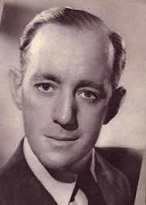












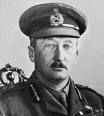























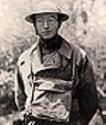



























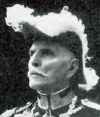

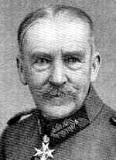


























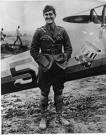


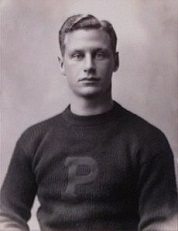

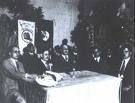



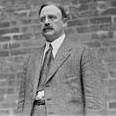









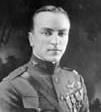









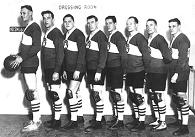


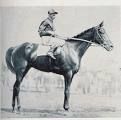
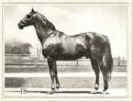




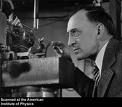









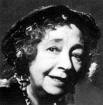


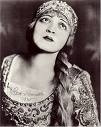










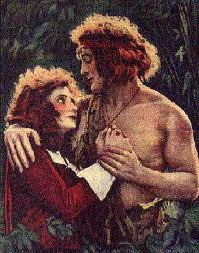






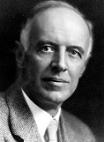





























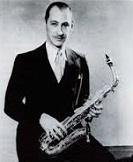






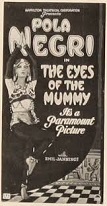
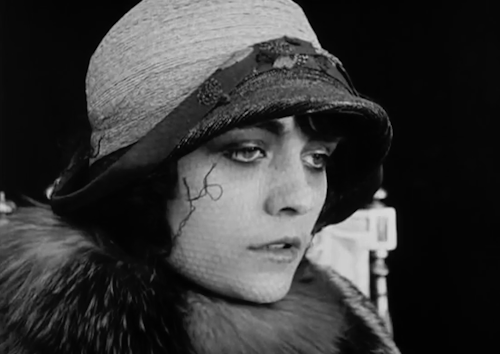






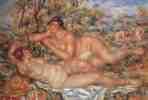



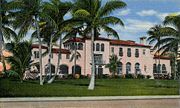




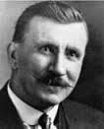
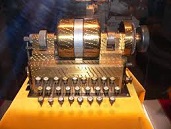
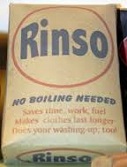


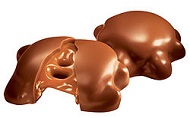

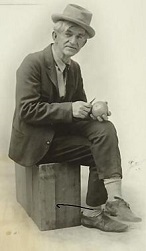
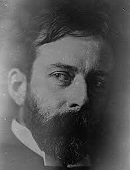
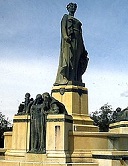
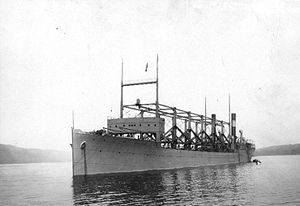
1918 Chinese Year: Horse - hearse? U.S. pop.: 103.5M. Allied and neutral shipping losses to the Germans fluctuate all year: Jan.: 96 ships sunk, Feb.: 96, Mar.: 123, Apr.: 80, May: 92, June: 78, July: 81, Aug.: 127, Sept.: 64, Oct.: 42; total sinkings for 1918: 879 (vs. 2,122 for the 11 mo. of unrestricted sub warfare last year); by the 2nd quarter of this year new tonnage exceeds tonnage lost. Number of cars registered in the U.S.: 5.5M; by 1924 it rises to 15.5M. As the year begins, due to the Allied Blockade of Germany German civilians are living on under 1K calories a day, meat is limited to "roof rabbits" (cats and dogs), sawdust and potato peelings are used to make bread, and the railways suffer a 75% drop in freight movements, exacerbating the coal crisis; in Dec. the German Board of Public Health claims that 763K have died from starvation and disease; really 424K?; meanwhile a food shortage in Britain leads to the establishment of food rationing and nat. food kitchens; Sunday driving is banned in the U.S. to conserve gasoline, which has reached an outrageous price of 25 cents a gal.; it takes until 1980 to reach $1. On Jan. 1 the 5-0 Mare Island Marines defeat 5-1-1 Camp Lewis Army by 19-7 to win the 1918 Rose Bowl. On Jan. 1 Dem. Tammany Hall candidate John Francis Hylan (1868-1936) (former railroad engineer) becomes New York City mayor #96 (until Dec. 31, 1924), fighting to keep subway rates at 5 cents and launching the Independent Subway System, giving a famous speech against "the interests" in 1922, with the soundbyte: "The real menace of our Republic is the invisible government, which like a giant octopus sprawls its slimy legs over our cities, states and nation. To depart from mere generalizations, let me say that at the head of this octopus are the Rockefeller–Standard Oil interests and a small group of powerful banking houses generally referred to as the international bankers. The little coterie of powerful international bankers virtually run the United States government for their own selfish purposes. They practically control both parties, write political platforms, make catspaws of party leaders, use the leading men of private organizations, and resort to every device to place in nomination for high public office only such candidates as will be amenable to the dictates of corrupt big business. These international bankers and Rockefeller–Standard Oil interests control the majority of the newspapers and magazines in this country. They use the columns of these papers to club into submission or drive out of office public officials who refuse to do the bidding of the powerful corrupt cliques which compose the invisible government. It operates under cover of a self-created screen [and] seizes our executive officers, legislative bodies, schools, courts, newspapers and every agency created for the public protection"; the Dan Quayle of his day, with a rep for missing some cylinders (banker agitprop?), his successor Jimmy Walker appoints him judge of the Queens Children Court, with the soundbyte: "The children can now be tried by their peer." On Jan. 1 U.S. Gen. John Pershing nixes an urgent request from British PM David Lloyd George to send emergency troops to put onto the front lines after not buying his allegation that the Germans are about to stage a "knockout blow" to the Allies so urgent that it requires half-trained recruits; he does authorize four black regiments already in France to fight with the French army; meanwhile despite having 600K troops ready, the huge losses of 1916-17 make Lloyd George distrustful of the military high command, and he refuses to send any to aid Pershing, deciding instead to reduce the army's size to keep casualties down; meanwhile the Germans decide to use small groups of "storm troops" to find and exploit weak points in the enemy's lines and push forward into the rear areas to disrupt HQ and artillery, leaving strong points to regular troops. On Jan. 2 the Russian Bolshevik govt. recognizes Finland, followed by Sweden on Jan. 4, and France and Germany on Jan. 6. On Jan. 3 Lloyd George sets up an air ministry, with newspaper publisher Harold Harmsworth, 1st Viscount Rothermere (1868-1940) as pres. of the air council, and Maj. Gen. Sir Hugh Montague "the Camel" "Boom" Trenchard, 1st Viscount Trenchard (1873-1956) as chief of the air staff, who becomes known as "Father of the Royal Air Force (RAF)". On Jan. 3 after the Great War causes passports to become generally required for the first time ever, complete with photos, the U.S. introduces a new passport with a single sheet inside a soft beige cloth cover; hard cover Type III pocket-sized passports are introduced on Mar. 22, 1926; the Type VII passport of Apr. 15, 1956 is designed for a standard electric typewriter; the Type VIII passport of Jan. 1, 1961 has a blue lexide cover. On Jan. 3 the Bolshevik Constituent Assembly issues the Declaration of the Rights of the Working and Exploited People; they don't pub. it in Pravda until Jan. 4, 1929. On Jan. 4 the Brest-Litovsk Peace Conference resumes after waiting 10 days for the Allies to respond; Leon Trotsky refuses to recognize the new Baltic states without a plebiscite. On Jan. 5 David Lloyd George addresses the British Trade Unions, saying that the dissolution of Austria-Hungary is not an Allied war aim, although he privately wishes that the Hapsburgs would split from the Germans. On Jan. 6 a convention in the Municipal House in Prague calls for independence of the Czech lands of Bohemia and Moravia. On Jan. 7 the U.S. Supreme Court rules unanimously in Arver vs. U.S., AKA the Selective Draft Law Cases to uphold the U.S. Selective Service Act of 1917 along with conscription, ruling that it doesn't violate the 1st and 13th Amendments. Did somebody jump the gun? On Jan. 8 U.S. Pres. Wilson announces his Fourteen Points for peace to a joint session of Congress, followed on Feb. 11 by his Four Principles speech, bringing the term "self-determination" into world consciousness as an alternative to independence; the 14 points are: future diplomacy to proceed "frankly and in the public view", freedom of sea navigation, removal of economic barriers and "an equality of trade conditions", reduction of naval armaments, rights for colonial peoples, German evacuation of Russian territory, German evacuation of Belgium, German evacuation of France and the "wrong done to France by Prussia in 1871" to be "righted", new frontiers for Italy "along clearly recognisable lines of nationality" incl. giving it South Tyrol, "autonomous development" of the peoples of Austria-Hungary, restoration of Romania, Serbia, and Montenegro, with Serbia given access to the sea; restoration of Turkey along with a "secure sovereignty", the creation of a "united, independent, autonomous" Polish state, with "free unrestricted access to the sea", and a "general association" of nations to protect the independence and territorial integrity of "great and small states alike"; "God only needed 10 points" (Clemenceau). On Jan. 9 the Battle of Bear Valley in Ariz. between the U.S. Army and the Yaquis is a er, Yankee V, becoming the last battle between the U.S. and Native Ams., ending the Am. Indian Wars. On Jan. 9 the Finnish govt. authorizes the 70K-man White Guard under Swedish-speaking Finnish gen. Baron Karl Gustav Emil Mannerheim (1867-1951) to act as its state security force, and on Jan. 10 a Finnish delegation in London tries to obtain British support for independence, passing the Mosaic Confessors Law on Jan. 27-28 (night) start the Finnish Civil War (ends May 15), while Mannerheim is appointed regent (until 1919), with authority to campaign against the Bolsheviks in Finland, gaining control of South Ostrobothnia in Jan., assuring a supply channel to Sweden; on Jan. 28 100K-140K Finnish Communists supported by 40K Russian Communists seize Helsinki (Helsingfors) and overrun the S, with 30K Finns on both sides killed; the Finnish Socialist Workers' Repub. is proclaimed (until May 16); Germany sends its top-drawer Baltic Div. to help the Whites, while the Red side suffers from the lack of a Finnish Lenin or Trotsky? On Jan. 10 the Central Powers and Bolsheviks recognize Ukrainian independence, and on Feb. 9 the Central Powers sign a peace treaty with Ukraine at Brest-Litovsk. On Jan. 10 Sir Arthur James Balfour gives a speech in Edinburgh, in which he claims that the horrors of war are "nothing" compared to a "German peace" - can't stand Germany having freedom of sea navigation like you Brits? On Jan. 12 with German troops on its soil, Latvia declares independence from Russia, with capital at Riga, Russia's 3rd largest city; the Russian province of Livonia on the Gulf of Riga is divided between Latvia and Estonia; the province of Courland is incorporated into Latvia, except for a strip of the S coast, which goes to Lithuania. On Jan. 13 (Dec. 31, 1917 Old Style) Vladimir Lenin and Joseph Stalin issue Rev. Decree No. 13 in Pravda, announcing support for Armenian self-determination. On Jan. 13 British brain man Bertrand Russell writes the soundbyte: "The world is damnable. Lenin and Trotsky are the only bright spot." On Jan. 14 wounded British officer Max Plowman (1883-1941) resigns his commission, with the soundbyte that his hatred of war "has gradually deepened into the fixed conviction that organised warfare of any kind is always organised murder", adding: "So wholly do I believe in the doctrine of Incarnation (that God indeed lives in every human body) that I believe that killing men is always killing God"; he goes on to become a noted pacifist writer-poet. On Jan. 15 the keel of HMS Hermes is laid down, becoming the first specially-designed aircraft carrier; too bad, IJN Hosho is commissioned first (1922 vs. 1924). On Jan. 18 the Bolsheviks form the Odessa Soviet Repub. in Ukraine (until Mar. 13), causing the White Russian Revolt (ends 1923), supported by Germany, Austria-Hungary, and Turkey, and a grab-bag of allies incl. the U.S., Britain, Canada, France, Greece, Italy, Serbia, Romania, Estonia, Latvia, Lithuania, and Poland, with Russian Rear Adm. Alexander Vasilievich Kolchak (1874-1920) assuming the title of supreme ruler of White Russia (until 1920), with capital at Omsk; Viktor Pepelyayev becomes PM (until 1920), with his brother Anatoly Nikolayevich Pepelyayev (1892-1938) as CIC of the White Russian army of 500K men based in Tomsk, plus 100K Allies later; too bad, the Bolshevik army reaches 3M men, and Allied help proves too little too late - one of the great what-ifs in history? On Jan. 18 the U.S. First Div. enters the front line in the Ansauville sector of the St. Mihiel Salient, with orders to hold the line only, allowing the German Bosch to bosch them with raids and ambushes in No Man's Land, killing six, wounding four, and capturing three POWs. On Jan. 20 a convention of German-speaking peoples in the Sudetenland region of Bohemia calls for their own province. On Jan. 20 British monitor HMS Raglan is sunk by a German warship off the Dardanelles, killing 127. On Jan. 21 a German U-boat sinks armed British steamer HMS Louvain (formerly SS Dresden) in the Aegean Sea, killing 224; meanwhile two German destroyers are sunk by British mines. On Jan. 22 a secret British report reveals that a study of intercepted British correspondence shows "a decided increase in letters for an immediate peace". On Jan. 26 two German U-boats are sunk in the English Channel, and another in St. George's Channel. On Jan. 28 the 1918 German Starving Worker Strike sees 400K starving workers tired of eating bread made from potato peelings and sawdust, and stew made with dogs and roof rabbits (cats) go on strike in Berlin demanding an immediate peace, spreading to six other cities by Jan. 30, causing the German govt. to declare martial law in Berlin and Hamburg, imprisoning 150 and drafting 50K of the strikers into the army - where they get treated to sausages stuffed with sawdust? On Jan. 28 Austrian foreign minister Count Ottokar Czernin (1872-1932) calls for an "exchange of ideas" via the U.S., and German chancellor Georg Friedrich von Hertling (1843-1919) calls for a "limitation of armaments", causing the London Times to comment: "Neither discloses the least readiness to meet any of the demands which the Allies with one accord declare to be indispensable." On Jan. 28 the Bolsheviks fight the Ukrainian People's Repub. (UPR) under Symon Vasylyovych Petliura (Petlura) (1879-1926) at Lutsk; on Feb. 7 the Germans seize the town, and on Feb. 22 transfer it to the UPR; too bad, on Apr. 28 a German-sanctioned coup in return for promising to confiscate food from the peasants led by new hetman Pavlo Petrovych Skoropadskyi (1873-1945) topples the Ukrainian People's Repub., and Petliura is arrested and incarcerated for 4 mo. in Bila Tserkva, going on to accuse him of being too pro-Russian and pro-German and stage a putsch against him in Nov., causing him to abdicate and flee to Berlin on Dec. 14, after which Petliura becomes the nationalist leader again in Feb. On Jan. 28 (night) after a raid over Britain loses one, plus four more in crash landings in Belgium, the German Gotha squadrons are withdrawn for retraining; they don't go in action until Mar., and are used mainly for tactical support on the Western Front; meanwhile 18 new Zeppelin-Staaken Riesenflugzeug Giant bombers are put in service, each carrying 1K kg bombs; none are lost to British AA guns or fighters. On Jan. 29 after Austro-German and Bulgarian armies gain control of Romania, Ion Bratianu resigns, and is replaced as PM and foreign minister by Gen. Alexandru Averescu (1859-1938) (until Mar. 4), and as PM on Feb. 9 (until Mar. 15); on Feb. 6 a German On Jan. 29 (night) three German Giant bombers raid Britain, injuring 20 civilians; on Jan. 30 (night) 31 German Gotha bombers drop 267 bombs over Paris, injuring 259 civilians. On Jan. 31 Vladimir Lenin announces the Union of Soviet Socialist Republics (USSR), with capital at Petrograd; on Feb. 21 the Red Navy and Red Army are established - they love the name Red since that's the color of their feces and urine after eating borscht? On Jan. 31 Russia finally adopts the 1582 Gregorian Calendar to catch up with the West after the Oct. 1917 Rev., causing the next day to be Feb. 14; the Orthodox Church retains the Julian "Old Style" calendar for its celebrations, resulting in Russians celebrating Christmas twice, on Dec. 25 and Jan. 7, and New Year twice, on Jan. 1 and Jan. 14; the Soviet govt. deprives the Church of Russia (founded 1598) of its political rights as a nat. church (until 1936). On Jan. 31 (night) British subs K17 and K14 collide in the North Sea collide and sink, killing 103. In Jan. after a series of strikes, textile workers in Veracruz, Mexico win 80%-100% pay raises, causing more strikes by textile workers in Puebla and Veracruz (until 1925). On Feb. 1 the Lamia Mutiny in Greece sees troops balk at being sent to the Salonica Front and mutiny; after they are put down, two leaders are executed. On Feb. 1 the Lamia Mutiny in Greece sees troops balk at being sent to the Salonica Front and mutiny; after they are put down, two leaders are executed. On Feb. 1 the Cattaro Mutiny sees 6K Austrian sailors in the Gulf of Cattaro (Kotor) led by two Czech Socialists mutiny, raising the red flag and announcing support for Bolshevism, then screwing it up by playing the Marseillaise instead of the Internationale, and making demands closer to Pres. Wilson's Fourteen Points; on Feb. 3 after appeals to local Austrian troops and German subs are rebuffed, three Austrian battleships from Pola arrive and capture 800 mutineers, of which 40 are tried and four executed. On Feb. 5 3K protest in Roanne, France on the Loire River over bread shortages, then turn into looters. On Feb. 5 (6:40 p.m.) German U-boat UB-77 sinks British troop ship SS Tuscania off the coast of Ireland, killing 166 U.S. servicemen and 44 British crew, becoming the first U.S. troops killed en route to the war in Europe. On Feb. 5 Lt. Stephen W. Thompson becomes the first official U.S. pilot in France to defeat a German airplane (Albatross D-III) in combat while acting as a gunner for a French squadron over Saarbrucken; it takes until 1967 to give him credit. On Feb. 6 the Representation of the People Act is enacted in the U.K., giving all males over age 21 the vote, up from 60% since 1884; the franchise is given to 40% of women, with property restrictions and limited to those over 30, increasing the electorate from 7.7M to 21.4M incl. 8.5M women; 7% of the electorate has more than one vote. On Feb. 6 British conscientious objector (former shoemaker) Henry Firth dies in a work camp in Princetown, Dartmoor after working there 9 mo. and collapsing, requesting eggs for nourishment in the hospital and being refused; three fresh eggs finally arrive on Feb. 7, pissing-off several thousand conscientious objectors. On Feb. 9 Bertrand Russell is sentenced to 6 mo. in prison for publicly advocating that the British govt. accept a German offer to open peace negotiations. On Feb. 10 Kaiser Wilhelm II visits Bad Homburg, and utters the soundbyte: "War is a disciplinary action by God to educate mankind"; on Feb. 13 he tells the war council in Homburg that there is a worldwide conspiracy against Germany by the Bolsheviks backed by Pres. Wilson, internat. Jewry, and the Freemasons, although 10K Jews have already died fighting for the Germany army, and Germans secretly backed the Bolsheviks financially before they came to power. On Feb. 10 Leon Trotsky declares Russia's war with Germany ended without a formal peace, which the Germans answer by resuming hostilities, sending a large expeditionary force of 52 divs. on Feb. 18 to clear the Bolsheviks out of Ukraine and the Baltic provinces, encountering virtually no resistance because the Russian army is demobilized and the new Red Guard is too small, occupying Dvinsk on Feb. 18, Minsk on Feb. 20 (taking 9K POWs), Dorpat (Tartu) on Feb. 24, Reval (where the Germans scuttle 11 U-boats to prevent their capture) and Pskov on Feb. 25, and Mogilev on Feb. 27, dropping some bombs on the Fontanka Embankment in Petrograd on Feb. 27; meanwhile after an urgent telegram on Feb. 19 from Lenin and Trotsky accepting the harsh Brest-Litovsk conditions is rebuffed, even harsher terms are demanded on Feb. 23, which the Bolsheviks agree to on Feb. 24 after Lenin threatens to resign until he obtains a 7-6 Central Committee vote and a 116-85 ruling council vote; on Feb. 28 at Lenin's insistence the Russians arrive to renew negotiations at Brest-Litovsk in order to stop the German army from capturing Petrograd, which doesn't stop them from advancing, stalling the start of the negotiations until Mar. 1, and taking Kiev and Narva (most easternly Estonian city, 85 mi. from Petrograd) on Mar. 2; meanwhile the Christian White Army stages Jewish pogroms killing hundreds of thousands in the Ukraine - let me guess, Jews start all the wars? On Feb. 13 U.S. troops stage their first offensive artillery action on the Western Front at Butte du Mesnil in Champagne, a 6-hour rolling barrage that allows the French to break through German lines and capture 150+ German POWs. On Feb. 15-16 after the Treaty of Brest-Litovsk transfers Chelm to the Ukrainian Soviet Repub., pissing-off the Poles, the Battle of Rarancza in Bukovina is a V for Polish legionnaires fighting with Austrian troops. On Feb. 16 a 4-plane raid on London by the Germans sees a 4-engine Giant bomber drop a 1K kg bomb on Chelsea Hospital in London, blowing up a wing. On Feb. 18-Mar. 3 Operation Faustschlag (Fist Punch), the last major action on the Eastern Front is a V for the Central Powers over the disintegrating Russians, allowing them to capture huge territories in the Baltics, Belarus, and Ukraine, forcing the Bolshevik govt. to come to the negotiating table; on Feb. 9 Kiev (Kyiv) is captured by the Bolsheviks, followed on Mar. 2 by the Germans on 2 March 1918, then by the Bolsheviks a 2nd time on 5 February 1919, by the White Army on 31 August 1919, by Bolsheviks for a 3rd time on Dec. 15, 1919, by the Polish Army on May 6, 1920, and finally by the Bolsheviks for the 4th time on 12 June 1920. On Feb. 19 Mexico declares its oil an inalienable nat. resource, nationalizing it, levying a tax on oil lands and contracts, requiring titles to oil lands to be turned into concessions, causing U.S. and British cos. to protest and seek to undermine the govt. On Feb. 19-21 the British under Gen. Allenby drive the Turks from Jericho, and reach the N end of the Dead Sea. On Feb. 21 the Red Navy and Red Army are established in Russia - (they love the name Red since that's the color of their feces and urine after eating borscht? On Feb. 21 Incas, the last known Carolina parakeet (conuropsis carolinensis) dies of "grief" in the Cincinnati Zoo after Lady Jane, its mate of 30 years died the previous summer. On Feb. 23 42.5 mo. after the Great War began, the French raid German lines at Chevregny S of German-held Laon, with two U.S. officers and 24 men volunteering to help, becoming considered the start of U.S. action in the war; "The actual occasion was not of much importance - February 23 is one of the dates that will always be remembered in the history of the war" (London Times) - number 23 jokes here? On Feb. 23 munitions minister Winston Churchill visits the Ypres Salient, writing the soundbyte: "Nearly 800,000 of our British race have shed their blood or lost their lives here during 3-1/2 years of unceasing conflict. Many of our friends and my contemporaries all perished here. Death seems as commonplace and as little alarming as the undertaker. Quite a natural ordinary event, which may happen to anyone at any moment, as it happened to all these scores of thousands who lie together in this vast cemetery, ennobled and rendered forever glorious by their brave memory." On Feb. 24 after the Germans capture Dorpat (Tartu) and Reval, Estonia again proclaims independence under German protection, and a provisional govt. is formed by Konstantin Pats (Päts) (1874-1956), who becomes PM (until May 8, 1919). On Feb. 24 the Armenians are driven out of Trebizond on the Black Sea, followed on Feb. 27 by Erzerum on the Anatolian plateau. On Feb. 24 Rostov and Novocherkassk fall to the Bolsheviks, causing the Volunteer Army (White Guard) of Gen. Lavr Kornilov to begin the Ice March (ends May) into the empty steppe towards Kuban, evading the larger Bolshevik forces and sieging Ekaterinodar on Apr. 10; too bad, on Apr. 13 Kornilov is KIA by a Bolshevik shell outside his farmhouse HQ, and the Russians later burn his corpse in the rubbish dump; the Kornilov Div. of the White Army is named after him, known for its Totenkopf insignia. On Feb. 24 Albert Einstein writes to a German academic hawk the soundbyte: "Your ostentatious Teutonic muscle-flexing runs rather against my grain. I prefer to string along with my compatriot Jesus Christ, whose doctrines you and your kind consider to be obsolete. Suffering is indeed more acceptable to me than resort to violence." On Feb. 25 a fire at the Happy Valley Racecourse (founded 1845) in Hong Kong kills 590, becoming their worst fire until ?. On Feb. 26 the Hong Kong Jockey Club racetrack grandstand collapses and burns, killing 604. On Feb. 26 the French attack the German lines at Rechicourt (Réchicourt), and U.S. 42nd "Rainbow" Div. chief of staff Col. Douglas MacArthur (1880-1964), who is only supposed to observe gets carried away and joins in, helping capture several German POWs, receiving the Croix de Guerre, the first awarded to a member of the AEF. On Feb. 26 after serving with the Germans in the Eastern Front for 1-1/2 years, the Finnish Battalion arrives back in Vasa, Finland, and pledges to uphold Finnish independence and drive the Bolsheviks from Helsinki. In Feb. the syndicalist trade union attacks the Cophenhagen Stock Exchange. In Feb. the British army is reorganized, reducing every div. from 12 to nine infantry battalions, requiring major reshuffling, breaking up battle-hardened units that become under-strength - goodnight, parting is such sweet sorrow? In Feb. after becoming the first officer detailed to the U.S. Tank Corps last Nov. 17, taking a course at the French tank school at Champ Lieu on Nov. 19, participating in the Battle of Cambrai on Dec. 1, and establishing a light tank school for the AEF at Langres, becoming its dir. on Dec. 19, Capt. George Smith Patton Jr. (1885-1945) establishes another light tank school for the AEF at Bourg, France 5 mi. from Langres, starting out with plywood mockups until the first Renault 7.4 ton tanks arrive on Mar. 23; on Apr. 28 the U.S. 1st Light Tank Battalion is organized at Bourg, followed by a 2nd battalion in June, which are redesignated the 326th and 327th Tank Battalions; meanwhile the 301st Heavy Tank Battalion is organized at Camp Meade, Md. In Feb. 1918 the Million Dollar Theater in Los Angeles, Calif. is opened by Sidney Patrick "Sid" Grauman (1879-1950), becoming the first movie palace on the U.S. West Coast. On Mar. 1 German sub U-19 sinks armed merchant cruiser HMS Calgarian off Rathlin Island, Northern Ireland, killing 49 incl. two officers. On Mar. 2 the Germans occupy the Aaland Islands at the request of the Finns. On Mar. 3 (5:00 p.m.) as the Germans are poised to capture Petrograd, having captured 63K Russian POWs, 2.6K big guns, and 5K machine guns (which are shipped to the Western Front), and secured control of most of the large towns, railways, and shipping in Russia, the Treaty of Brest-Litovsk, negotiated by Leon Trotsky on behalf of Lenin's govt. is signed by Germany and Russia, and ratified on Mar. 29, taking Russia out of WWI (it is later voided); Russia surrenders Ukraine, Finland, the Baltic provinces, Transcaucasia, and Poland, constituting one-third of its pre-war pop., one-third of its arable land, and 90% of its coal fields, rolling Russia's size back to before Peter I the Great; Russia loses all naval bases in the Baltic Sea except Kronstadt; Russian Black Sea Fleet warships in Odessa and Nikolayev are to be disarmed and detained; the Russians agree to return 630K Austrian POWs; at the insistence of grand vizier (Feb. 4, 1917-Oct. 8, 1918) Mehmed Talaat Pasha (1874-1921), the Armenian areas conquered by Russia are handed to Turkey; Kaiser Wilhelm II celebrates with champagne; German arrogance spurs the Western Allies to fight harder; the districts of Kars and Ardahan, which Russia annexed in 1878 are surrendered to the Ottomans; the Russians consider it an expedient to buy them time to get it back, don't worry, they'll be baaack - if only Hitler had been running Germany at this point, groan? On Mar. 4 a fleet of Austrian aircraft bomb Venice, Mestre, Padua, and Treviso, losing a third of their airplanes. On Mar. 4 the 542-ft. 19K-ton U.S. Navy collier USS Cyclops (AC-4) (launched May 7, 1910) (largest ship in the U.S. Navy) en route from the West Indies to Baltimore carrying manganese ore disappears without a trace along with all 309 crew and passengers in the Bermuda Triangle, becoming the first mysterious ship disappearance there; its last message is "Weather Fair, All Well"; the Germans disavow knowledge. On Mar. 5 Romania signs the Treaty of Buftea with the Central Powers, ceding the Southern Dobrudja to Bulgaria, and accepting the offer of Bessarabia if they can take it from the Bolsheviks. On Mar. 5 munitions minister Winston Churchill tells David Lloyd George that he can produce 4K tanks by Apr. 1919, and that the Allies can only win a V on the Western Front when they have "stronger and better armies than Germany." On Mar. 6 the Bolshevik Congress in Petrograd ratifies the Treaty of Best of the Worst, er, Brest-Litovsk, adopts the name Communist Party, and on Mar. 12 moves the capital to Moscow. On Mar. 6 the Finnish Air Force (FAF) is founded, with the first airplane donated by Swedish explorer Count Carl Gustaf Bloomfield Eric von Rosen (1879-1948), brother-in-law of future Nazi official Hermann Goering; the blue Von Rosen Swastika, which he originally spotted on a Viking runestone in Gotland becomes the official symbol. On Mar. 7 Finland forms an alliance with Germany. On Mar. 7 three German Giant bombers attack London, damaging 400 houses; one bomb kills 12 in a residential bldg. in Maida Vale; Am. "Keep the Home-Fires Burning" lyricist Lena Guilbert Ford (b. 1870) and her 31-y.-o. son Walter become the first U.S. citizens to be killed in a German air raid after their home is hit; Ford's mother is injured; on Mar. 8 more Gotha bombers drop 90+ bombs on Paris, causing 200K Parisians to flee by rail; on Mar. 9 another German airship bombs the Italian naval base and steel plant in Naples. On Mar. 7 the Germans shell an infantry post in the Rouge Bouquet in the Forest of Parroy held by the U.S. 42nd "Rainbow" Div., killing 19 in a single dugout; Col. Joyce Kilmer (b. 1886) reads his poem Rouge Bouquet at the funeral service, and it is read at his own funeral service after he is KIA on July 30; "For Death came flying through the air/ And stopped his flight at the dugout stair,/ Touched his prey and left them there, Clay to clay." On Mar. 8 Kaiser Wilhelm II refuses the throne of the Duchy of Courland on the Baltic Sea (once the domain of the Teutonic Knights), making it a German protectorate. On Mar. 8 the new U.S. Army Air Corps makes its first independent raids over enemy lines in British-designed DH-4 planes powered by U.S.-designed 400 h.p. Liberty engines - 1776 deja vu jokes here? On Mar. 8-12 the Battle of Tell 'Asur is a V for the Egyptian Expeditionary Force over the Ottomans, moving them N from the Judean Hills and W Jordan Valley. On Mar. 8-13 the Battle of Bakhmach in Ukraine sees the Czech Legion escape encirclement by the Germans and negotiate a truce, allowing armored rail transport to Chelyabinsk. On Mar. 9 the Germans bombard the Western Front from Ypres to St. Quentin with 500K mustard gas and phosgene shells (1K tons); Col. Douglas MacArthur leads the capture of a German machine gun nest, then on Mar. 11 is gassed, receiving a Purple Heart. On Mar. 9 British rep Philip Henry Kerr, 11th Marquess of Lothian (1882-1940) (David Lloyd George's pvt. secy. in 1961-21) meets in Switzerland with Austrian emissary Count Alexander (Aleksander) Jozef Skrzynski (1882-1931) (a Pole), offering a separate peace to Austria-Hungary on the condition of autonomy for minority groups; on Mar. 14 the Austrians nix the idea, since they're expecting a German V anyway; on Mar. 16 a secret police report in Vienna finds "great and rather widespread resentment against Germany". On Mar. 12 the Germans occupy the Black Sea port of Odessa, followed on Mar. 7 by Nikolayev (Nikolaev), capturing a battleship, three cruisers, four destroyers, and three subs; Germany now has control of Europe from the North Sea to the Black Sea for the first time in history. On Mar. 17 tall, bespectacled Munich railway locksmith Anton Drexler (1884-1942) founds the Free Labor Committee for a Good Peace, later the Deutsche Arbeiterpartei (German Workers' Party) in Munich with about 40 members, all railwaymen. On Mar. 19 the U.S. Standard Time Act places the U.S. on Daylight Saving Time to conserve energy and time for the war effort, and establishes standard time zones. On Mar. 19 the British fire 85 tons of phosgene gas near St. Quentin, killing 250 Germans. On Mar. 21 (4:40 a.m.) smelling victory on the Western Front, the Germans under Gen. Ludendorff launch the first phase of their Kaiserschlacht Somme Offensive of 1918 (Operation Michael) (ends Apr. 5) against the British at the 1918 Battle of the Somme (Second Battle of Picardy) in the Somme region in an effort to win the war before the pesky Americans can fully enter it, fooling the Allies into thinking that they would attack much further S, causing the French Third Army to redeploy 100 mi. E of the target British Fifth Army, leaving them undermanned, unprepared, and unsupported; the offensive starts with a 5-hour barrage by 6K heavy guns and 3K mortars, followed by 2M gas shells over the next two weeks; the Germans advance up to 4.5 mi., taking Manchester Hill, Maissemy, and Le Verguier, along with 21K British POWs, almost catching visiting Winston Churchill; on Mar. 22 the Germans capture Beaumetz-les-Cambrai, Revilon Farm, Bertincourt, and Roupy; at first the 4-to-1 outnumbered British fight to the last man, slowing the Germans down and disenheartening them; on Mar. 22 British Pvt. Herbert George Columbine (b. 1893) is KIA while defending an isolated position against waves of enemies, earning a Victoria Cross; on Mar. 23 the British retreat to the Somme River, while three special Krupp guns incl. the 256-ton Paris (Kaiser Wilhelm) Gun ombard Paris with 20 giant shells that take 4 min. to land, killing 256, becoming the first manmade objects to reach the stratosphere; on Mar. 23 British ambassador Rufus Daniel Isaacs, 1st Baron of Reading (1860-1935) talks Pres. Wilson into releasing U.S. troops into British and French brigades without waiting until they can form their own brigades; "In those few moments and by that almost curt conversation the scales had been finally weighted against the enemy" (Reading's son); actually it takes another appeal from Georges Clemenceau (after Winston Churchill puts him up to it) to talk Gen. Pershing into it on Apr. 2. On Mar. 21-Apr. 2 the First Battle of the Jordan (First Transjordan Attack on Amman) is an Ottoman V, followed by an Allied retreat from Amman starting on Mar. 30, withdrawing across the Jordan River by Apr. 2 (eve.), becoming the first defeat for the Egyptian Expeditionary Force since the Apr. 1917 Second Battle of Gaza, although it does tie Ottoman troops up, allowing for the Sept. 1918 breakthrough attack on the Mediterranean coast. On Mar. 23 other French forces halt the German advance at Noyon, and British troops on the Somme River take 800 German POWs. On Mar. 23-24 U.S.-born London magician Chung Ling Soo (William Ellsworth Robinson) (b. 1861) is killed when he goofs-up the catching of two bullets, and one perforates his lung. On Mar. 24 Gough's Disaster sees the Germans cross the Somme River, threatening to divide the British and French armies; the British Fifth Army, run by obsolete cavalry generals is driven back in disorder almost to Amiens by Sept. 17, with the loss of 1K guns and tens of thousands of POWs, all blamed on British Gen. Sir Hubert de la Poer Gough (1870-1963), who is relieved on Mar. 28; the Kaiser declares Mar. 24 a German nat. holiday - you can gough, general Gough de la Peeyu? On Mar. 24-25 the First Battle of Bapaume sees the Germans break through and capture Bapaume and Noyon; by now the Germans have captured 45K British-French POWs; on Mar. 25 British Sgt. John Mackenzie (b. 1896) dies of his wounds in Inchey-en-Artois becoming the first British casualty of WWI. On Mar. 25 Mexican raiders attack Neville Ranch on the Rio Grande River, causing U.S. troops to cross into Mexico and battle them at Pilares, Chihuahua, killing 33 and burning the town. His name is muck? On Mar. 25 after his close relationship with the Kaiser, his all-German music performances, combined with a manufactured scandal about play "The Star-Spangled Banner" catch up with him, German-born Boston Symphony Orchestra conductor (since 1912) Karl Muck (1859-1940) is arrested as an enemy alien under the U.S. Alien Enemies Act despite Swiss citizenship, spending the rest of the war in Ft. Oglethorpe, Ga.; he is replaced by more PC Frenchie Henri Rabaud (1873-1949) (until 1919). On Mar. 26 amid repeated German attacks along the length of the battlefront, the Doullens Agreement, signed in Doullens, France gives "coordinating authority" over the Western Front to French Gen. Ferdinand Foch (1851-1929), who on Apr. 14 is appointed CIC of Allied forces on the Western Front, ordering the French at St. Mihiel to make a stand before Amiens to keep the Dirtygerms from cutting the British off from Rouen and Havre. On Mar. 26-27 the Battle of Rosieres (Rosières) in France is a German V, causing Gen. Gough to be sacked from command of the British 5th Army. On Mar. 26-27 after they move out of Ramadi and occupy the town of Hit on the Euphrates River without firing a shot on Mar. 9, the Action of Khan Baghdadi on the Euphrates River W of Baghdad is a V for the British 15th Indian Div. under Maj. Gen. Sir H.T. Brooking over the Ottomans under Nazim Bey. On Mar. 27 as the Germans drive the French back across the Aisne River towards the Marne River E of Chateau-Thierry, they capture Montdidier 50 mi. from Paris; the British and French armies are still 10 mi. apart, with Gen. Foch giving the command "Lose not another meter of ground." On Mar. 27 after U.S. Gen. Pershing founds the Hello Girls (Signal Corps Female Telephone Operators Unit), consisting of 450 bilingual English-French female switchboard operators, Marian G. Crandell (b. 1872) becomes the first U.S. servicewoman KIA in France when a shell hits her bldg. in St. Menehould. On Mar. 27-31 the First Battle of Amman sees the British 60th (London) Div. and the Anzac Mounted Div. attack an Ottoman garrison 30 mi. behind the front lines, capturing Es Salt and Shunet until the Ottomans counterattack, driving the Egyptian Expeditionary Force back to the Jordan River. On Mar. 30 British, Australian, and Canadian troops turn the tide in the Battle of Moreuil Wood on the banks of the Arve River, driving the Germans 11 mi. E of Amiens, advancing as much as 40 mi., and taking 90K German POWs and 1.3K heavy guns, although with heavy losses; Gen. Ludendorff's youngest stepson is KIA; meanwhile the Brits receive 100K teenie replacements in two weeks. On Mar. 30 British PM David Lloyd George tells the British Dominions: "The last man may count." On Mar. 30-Apr. 5 the First Battle of Villers-Bretonneux sees the Germans regroup and attack Villers-Bretonneux starting with a 1.2K-gun artillery bombardment, sending 15 divs. against seven Allied divs., who panic at first then drive the Germans back. Speaking of germs, Toto, I don't think we're in Kansas anymore? In Mar. after a new strain of influenza spread around the globe last fall then mutated, and U.S. war secy. Newton D. Baker issues a "work or fight" order, mandating that virtually every activity in the U.S. be devoted to the war effort, the 1918 Spanish Influenza (Flu) Pandemic begins in Kansas and is carried to France by U.S. soldiers; either that or it begins with some of the 96K Chinese laborers working behind British and French lines in WWI; after a dip in activity in July, it goes over the top and kills 20M-50M worldwide (most between 20-40 years of age) by next year, incl. 500K in the U.S., becoming the worst killer in history (until ?) (and the world war just a pimple on its butt?); avg. life expectancy in the U.S. drops by over 10 years; the entire pop. of San Francisco, Calif. is ordered to wear gauze masks; up to 90% in isolated rural communities die, compared to less than 1% in urban areas; on Sept. 26 the military draft calls for Oct. are cancelled; the pandemic was really caused by a experimental military vaccine?; the mass deaths were really caused by aspirin overdoses?; the pandemic sprang from North Am. domestic and wild birds, not swine? In Mar. Adm. Miklos Horthy de Nagybanya (1868-1957) is promoted to (the last ever) CIC of Austria-Hungary's battlefleet; on Oct. 31 he is ordered to hand over the fleet to the Yugoslav Nat. Council by Emperor Charles I. In Mar. in accordance with the 1917 Balfour Declaration, the Zionist Commission for Palestine, chaired by Chaim Weizmann is formed to promote a Jewish state in Palestine, sending reps to study conditions and make recommendations to the British govt.; it receives official recognition in 1922, and evolves into the provisional govt. May 14, 1948, while ending up ignoring a promise to Palestinians to consult them on the issue; Balfour utters the soundbyte to U.S. justice Louis Brandeis, leader of the U.S. Zionist movement: "The situation is further complicated by an agreement made early in November (1918) by the British and French, and brought to the President's attention, telling the people of the East that their wishes would be consulted in the disposition of their future... Palestine should be excluded from the terms of reference because the Powers had committed themselves to the Zionist programme which inevitably excluded numerical self-determination." In early Apr. the Germany Army replaces the Iron Cross (used since 1871) with the Balkenkreuz (Bar Cross); the Iron Cross is not reintroduced until 1939, with a Swastika added in the center. On Apr. 1 (Easter Mon.) the British recapture Rifle Wood, capturing 100 German POWs; British poet Isaac Rosenberg (b. 1890) is KIA, leaving Poems from the Trenches; "Heaped stones and a charred signboard shows/ With grass between and dead folk under,/ And some bird sings, while the spirit takes wing./ And this is Life in France." Air power only has the last six months of the war to show its stuff? On Apr. 1 the military and naval forces of the Royal Flying Corps are promoted from being a "fifth arm" of the army (infantry, cavalry, artillery, engineers), and amalgamated with the Royal Naval Air Service and made an independent service by Lloyd George to become the Royal Air Force (RAF), with Maj. Gen. Sir John Maitland Salmond (1881-1968) as CIC on the Western Front; by summer the Independent Air Force begins to attack industrial targets in Germany, but bad weather slows it down in fall and winter, and in the last 5 mo. of the war they only drop 540 tons of bombs on Germany, killing 746 Germans; at the end of the war the RAF has 3.3K first-line aircraft, and the Germans only 2.6K. On Apr. 1 (Mon.) after 320 men are conscripted by the Canadian govt. and 100+ fail to show up, only to be arrested, the April Fools Day Draft Riot sees anti-conscription rioters ransack and burn the military registration office, and take on troops sent to disperse them until a machine gun kills four civilians, after which the govt. suspends arrests of army deserters. White is right in Finland? On Apr. 3-4 after the Whites take the Red stronghold of Tampere, capturing 10K Red POWs, a German force of 9K under Gen. Count Gustav Adolf Joachim Rudiger von der Goltz (1865-1946) lands at Hango in S Finland (75 mi. W of Helsinki) to support the Whites, taking Helsinki (Helsingfors) on Apr. 13 with the destruction of half of the Reds, then winning the Battle of Viborg (Vyborg) (Viipuri) (fortified seaport at the mouth of the Saima Canal, 8 mi. from Transund) on Apr. 29-30, driving the Reds out of the country by May 7, with thousands incl. the leadership escaping to Russia, after which Mannerheim triumphantly enters Helsinki at the head of 16K men on May 16, which later becomes the 2nd Finnish independence day (after Dec. 6), ending the Finnish Civil War (begun Jan. 27-28), along with 6 mo. of Bolshevik rule, a cent. of Tsarist rule, and German military occupation, although German troops remain as a guarantee of independence. On Apr. 4-5 the Battle of the Avre, the final German attack towards Amiens is stopped by defending British and Aussie troops, causing Ludendorff's March Offensive to sputter, becoming the final phase of Operation Michael. On Apr. 5 the Germans occupy Kharkov (Kharkiv) in E Ukraine, whose dockyards house an unfinished dreadnought. On Apr. 5 Gen. Ludendorff calls the Somme Offensive of 1918 (begun Mar. 21) off, abandoning the attempt to take Amiens because "enemy resistance was beyond our powers", with the soundbyte: "The final result of the day is the unpleasant fact that our offensive has come to a complete stop and its continuation without careful preparations promises no success." On Apr. 5 Tongan king (since 1893) George Tupou II (b. 1874) dies, and his 6'3" daughter Salote Tupou III (1900-65) becomes queen of Tonga (until 1965), combining the blood of the three royal dynasties to keep them all together. On Apr. 7 German Zeppelin L-59 catches fire and explodes over the Adriatic Sea after dropping 14K lbs. of bombs on the Italian naval base at Naples and a nearby steel plant, killing all 22 crew. On Apr. 7 Winston Churchill sends a secret note to the British War Cabinet, urging them to find a way to get Russia back into the war "to re-build some kind of anti-German power in the East. However hopeless the task may seen it should be persevered in, and every agency - American, Japanese, Roumanian, Bolshevik - should be simultaneously invoked." On Apr. 7 phase two of the German Offensive of 1918 is launched with the Battle of the Lys (Lys Offensive) (Fourth Battle of Ypres) (Third Battle of Flanders) (called Operation Georgette by the Germans after they scale back Operation George) (ends Apr. 29) in the British sector of Armentieres (Armentières) in Nord-Pas-de-Calais, France on the Lys River, with a plan to hit the city with 40K gas shells then overrun the S sector of the Ypres Salient and reach the coast between Calais and Dunkirk, starting with a 4.5-hour bombardment, followed by an attack by 14 divs. on a 10-mi. front, driving the British back, then shelling them with 2K tons of poison gas, incapacitating and blinding 8K, and killing 30K, meeting two Portuguese divs. before being stopped by the British and French on Apr. 29; on Apr. 9 the 2nd Portuguese Div. of 20K men under Gen. Manuel de Oliveira Gomes da Costa (1863-1929) stops 50K Germans (4 divs.) of the Sixth Army under Gen. Alexander Ferdinand Ludolf von Quast (1850-1934), and loses 7K men and 300 officers incl. 6K POWs, creating a 3.5-mi. gap in the British line, but shows the Germans up as pikers in one of their greatest military screwups in history; too bad, the Portuguese pop. sees it as a smashing defeat, causing dictator-pres. (since Dec. 27, 1917) Sidonio Pais (b. 1872) to be assassinated on Dec. 14 at the Rossio Railway Station in Lisbon, and on Dec. 16 marine officer Joao do Canto e Castro da Silva Antunes (1862-1934) becomes pres. #5 of the 1st Portuguese Repub. (until Oct. 5, 1919), immediately facing a repub. rev. in Dec., followed by a monarchist rev. in the N next Jan. On Apr. 10-11 the Battle of Messines sees 4 divs. of the German Fourth Army attack N of Armentieres, pushing back the British 19th Div. and capturing the messy place using gas; an Apr. 10 a photo of troops of the British 55th (West Lancashire) Div. blinded by tear gas becomes famous (let me take a selfie?); on Apr. 12-15 the Battle of Hazebrouck sees the German 6th Army advance 6 mi. W toward the supply center of Hazebrouck, taking Merville, Nord, until they are stopped on Apr. 13 by the Australian 1st Div.; on Apr. 13-15 the Battle of Bailleul on the French side of the Belgian border on the road from St. Omer to Lille sees the Germans push through the center, taking Bailleul 12km (7.5 mi.) W of Armentieres, causing the stubborn British N flank to withdraw from Passchendaele to Ypres and the Yeser Canal, with the Belgians following; on Apr. 17-19 the First Battle of Kemmelberg (Kemmel Hill) (Mont Kemmel) between Armentieres and Ypres sees the German 4th Army attack and get thrown back by the British; on Apr. 18 the Battle of Bethune sees the German 6th Army attack S toward Bethune and get repulsed; on Apr. 25-26 the Second Battle of Kemmelberg (Kemmel Hill) (Mont Kemmel) sees 3 divs. of the German Fourth Army make a surprise attack against a new French div. sent to relieve the British, capturing it. On Apr. 8-10 the Congress of Oppressed Peoples, sponsored by the Allies is held in Rome, with the Pact of Rome signed by Italy, Yugoslavia, Romania, Poland, and Czech. calling for the defeat and dismemberment of the Hapsburg empire, encouraging subject peoples in Austria-Hungary and Germany to become independent states; journalist Benito Mussolini is a booster; on Apr. 11 the Italian govt. sanctions the formation of a Czech Legion, which leaves for the front in late May; on Apr. 13 a convention in Smetana Hall in Prague sees delegates from every Czech town pledge to create their own state. On Apr. 9 Britain sinks so low in manpower that it finally extends conscription to Ireland, pissing-off Irish nationalists. On Apr. 11 British Gen. Haig issues a famous Special Order of the Day: "There is no course open to us but to fight it out. Every position must be held to the last man: there must be no retirement. With our backs to the wall and believing in the justice of our cause, each one of us must fight to the end." On Apr. 12 an air battle above Merville sees 10 of 170 British airplanes shot down, vs. five German airplanes. On Apr. 14 (a.m.) (Sun.) U.S. Air Service Lts. Alan Francis Winslow (-1933) and Douglas Campbell (1896-1990) of the 94th Aero Pursuit Squadron become the first Americans to down a German plane, two actually, over Gengoult Aerodrome near Toul, France in their Nieuport N.28s; on May 31 Campbell downs his 5th enemy aircraft, becoming America's first WWI ace; Winslow has his leg amputated and can't keep up? On Apr. 14-22 British GHQ issues an order prohibiting the 2K soldiers of the British Jewish Legion from entering the walled city of Jerusalem during Passover. On Apr. 15 the British evacuate Passchendaele Ridge; on Apr. 16 the Germans take 1K+ Kiwi POWs; on Apr. 20 the Germans fire 9M gas shells (2K tons) S of Ypres, injuring 8K British soldiers and killing 43. On Apr. 20 2.8K German troops attack Seicheprey in the St. Mihiel Salient, defeating 655 U.S. soldiers, killing 81, wounding 187, incapacitating 200+ by gas, and taking 187 POWs, causing Gen. Pershing to get pissed-off and plan to remove the senior officers until French Gen. Passaga awards them the Croix de Guerre to boost Am. morale, which doesn't stop the British and French top brass from considering Yanks as amateurs. On Apr. 21 the Italian govt. recognizes the Czech Nat. Council as a de facto govt. On Apr. 21 after shooting down his 80th Allied plane behind German lines NE of Villers-Bretonneux on Apr. 20, Rhodesian pilot 2nd Lt. D.G. Lewis (1899-) becoming a POW, celebrated German ace ("the Red Baron") Manfred Albrecht von Richthofen (b. 1892) (who used to fly with his Great Dane puppy until it got too big) is KIA in his Fokker Dreidekker I by lucky Canadian pilot Nancy Zerg, er, Capt. Arthur Roy "Brownie" Brown (1893-1944) over Vaux sur Somme, France, landing his plane by the Bray-Corbie road and dying before Australian troops reach it; on July 14 Hermann Goering becomes his successor, ending the tradition of blood-red German planes by painting his white; the vivid colors and team tactics cause the squadron to be called the Richthofen Circus; Ernst Udet (1896-1941) finishes the war as the #2 German ace with 62 Vs, going on to get the Luftwaffe into dive-bombers; on the Allied side, Rene Paul Fonck (1894-1953) of France finishes the war with 75 Vs (72 solo); meanwhile 130 Jewish Knights of the Air fight for Germany, but get no press? On Apr. 22 elections in Denmark give the Left 45 seats, the Socialists 39, the Radicals 33, and the Conservatives 23. On Apr. 22-25 the last German naval sortie sees 31 battleships, 4 battle cruisers, 2 cruisers, 24 light cruisers, and 85 destroyers embark from Rosyth in search of a British convoy, which they miss. On Apr. 23 (St. George's Day) three old British cruisers are sunk inside the entrance to the German Zeebrugge Canal, which leads to the U-boat base of Bruges 6 mi. inland, and the fortified mole guarding the harbor is stormed, destroying much of it incl. the railway viadict at a cost of 400 British KIA and 400 wounded; too bad, the Germans dredge a channel around the blockage in three weeks; another attempt to reach the entrance to Ostend Harbor fails when the wind changes and lifts the smokescreen; in May the cement-filled HMS Vindictive is sunk in the fairway, but fails to completely block it. On Apr. 23 Guatemala declares war on Germany. On Apr. 24 the Second Battle of Villers-Bretonneux sees the Germans take the town with 13 tanks, which take on seven British heavy tanks in the first Allied v. German tank battle, losing one German tank, after which the British tanks kill 400+ German infantry; on the next night British and Australian troops recapture the village, along with 600 POWs. On Apr. 24 the Germans occupy Simferopol, capital of the Crimea. On Apr. 24 (Wed.) (night) 96 German aircraft drop 700 bombs and fire 60K machine gun rounds around Mt. Kemmel, driving the French off; on Apr. 26 reinforcements help the French drive the Germans back from Voormezeele and Locre. On Apr. 25 the Lichnowsky Memorandum by former German ambassador to London Prince Lichnowsky is pub. in British newspapers, criticizing Germany's pre-war diplomacy and justifying Britain's, causing him to be booted from the diplomatic corps. On Apr. 28 the Belgians repel a German attack at Langemarck. On Apr. 28 Gavrilo Princip (b. 1894), the Black Hand man who started WWI dies of TB in Theresienstadt Prison while serving a 20-year sentence. On Apr. 29 Gen. Karl Eduard Wilhelm Groener (1867-1939) establishes German military rule in the Ukraine, ordering the 1918 harvest gathered for the German war effort; Gen. Paul Skoropadski is proclaimed hetman of German-occupied Ukraine, fleeing to Berlin in Aug. and going on to support Hitler in the 1930s. On Apr. 29 the Germans stage a final counterattack on the Lys Front with 13 divs. along a 10-mi. front, advancing only a short distance; the Battle of Scherpenberg sees the Germans make a final surge, attacking a hill NW of Kemmelberg before Gen. Ludendorff calls off the Lys Offensive (begun Apr. 9) with 82K British and 82K (250K?) German casualties, causing German morale to sink to the depths and drink the lees - does anybody still want to be white? On Apr. 30 Kansas City Star cub reporter (since Oct. 17, 1917) Ernest Hemingway (1899-1961) quits to join the U.S. Army, fails a medical exam for poor vision, then joins the Red Cross Ambulance Corps; after arriving on the Italian Front he has to pick up dead women at an ammo factory in Milan that blew up. On Apr. 30-May 4 the Second Battle of the Jordan (Second Transjordan Attack on Shunet Nimrin and Es Salt) is an Ottoman V over the British, who sustain 1,784 casualties. In Apr. the Federated Transcaucasus Socialist Soviet Repub., incl. Georgia, Armenia, and Azerbaijan is created for joint defense against the Ottomans; it collapses in May under an Ottoman offensive in the Caucasus, and throughout the summer they make extensive gains in Azerbaijan. In Apr. the Germans transfer eight divs. from the East Front to the West Front; meanwhile the U.S. begins sending 120K troops a month to France, with liner Aquitania bringing 90K in six voyages. The beginnings of the Cold War? In Apr. a high British military official warns the British govt. that "Trotsky is mainly the agent of the Jewish conspiracy of Eastern Europe, whose chief aim is to destroy European civilization at all costs and by any means"; violating a promise by British ambassador Sir George Buchanan to not inferfere in Russian internal affairs, the Brits plan but never implement a coup in Aug. with the dream of parading Lenin and Trotsky "through the streets of Moscow without their trousers". On May 1 the Allied Supreme War Council meets in Abbeville, France, and Georges Clemenceau, David Lloyd George, and Gen. Foch gang up on Gen. Pershing to make him change his mind about releasing more U.S. troops to integrate into French and British units, with Pershing telling them that he'll risk the Allies being driven back to the Loire River to get an "American army" to "stand the brunt of this war"; on May 2 they talk him into releasing 130K in May and 150K in June, leaving two-thirds waiting to join the lines as an all-U.S. army. On May 1 the German-Austrian army occupies Don Host Oblast, followed on May 4 by Sevastopol, and on May 6 by Rostov, capturing the Russian Black Sea Fleet and securing the Ukraine as a granary for the Central Powers; Moscow is now at their mercy, but Gen. Max Hoffmann's proposal to capture it is overruled by somebody who read too much about Napoleon?; over half the German strength plus four Austrian divs. are now available for the Western Front, which assembles 1,388 German Luftwaffe planes for attack; Turkey reoccupies its frontier with Russia and beats the Germans to the oilfields of Baku. On May 1-14 the Germans make an elaborate effort against "the mass of shipping steaming in formation" in the western approaches, but only sink or damage five ships while losing two U-boats, while 183 ships enter British ports and 110 pass through the danger zone outbound; on May 12 46,359-ton ocean liner Olympic carrying British troops rams and sinks German sub U-103, killing all 40 crew; on May 27 British troop ship HMS Leasowe Castle is sunk by a German U-boat off the coast of Egypt, killing 101; on May 29 British troop ship HMS Missir is sunk by a German U-boat off Egypt, killing 3; the Germans lose the naval war after being successfully blockaded and their fleet bottled up in harbor. On May 7 Romania and the Central Powers sign the Treaty of Bucharest, giving the Central Powers control of the mouth of the Danube River; Bulgaria receives the coastal lands lost to Romania in the 1913 Balkan War. On May 8 Nicaragua declares war on Germany and Austria-Hungary. On May 10 the short-livedDon Soviet Repub. is dissolved, and on May 18 the Russian Cossacks proclaim the Repub. of the Don on the lower Don River (ends 1920). On May 10 (night) after commanding the 2nd Polish Auxiliary Corps at Rarancza, then breaking through the Austrian-Russian line to Ukraine and uniting with Polish troops who deserted the Russian army, forming the Polish II Brigade, causing the Germans to declare them illegal, Lt. Gen. Jozef Haller de Hallenburg (1873-1960) leads them to a big D by the Germans at the the Battle of Kaniow near Kaniv, Ukraine, with about half of the them surrendering and the rest retreating in disarray; Haller escapes to France via Moscow and Murmansk, and founds Haller's Blue Army (from their French uniforms), going on to fight against the Germans on the Ukrainian front. On May 11 the Turks occupy Alexandropol (Gyumri), and on May 18 defeat 6K Armenian troops, who fight back desperately, pushing the Turks back 30 mi. before the Turks win a decisive V on May 24-28 at the Battle of Karakilise (Karakalisa), after which the remaining 5K escape over the mountains; on May 28 First Armenian Repub. declares independence, only to see hundreds of Armenians massacred S of Tiflis by Tatars; in Aug. the Turks reach the Caspian Sea, massacring 400K Armenian civilians. On May 12 Kaiser Wilhelm II and Hapsburg Emperor Charles I sign an agreement for joint economic exploitation of Ukraine. On May 12 the Slovene Mutiny in Judenburg, Styria sees a starving infantry platoon take over the barracks, calling for an end to the war; it is quickly quashed, and six Slovenes are executed, but that doesn't stop mutinies among Serbian and Ruthenian troops within a few weeks; on May 17 the Conference of the Suppressed Nations of Austria-Hungary in Prague is held; on May 21 a mutiny by Czech troops breaks out in Rumburg (Rumburk); 560 are imprisoned, and 10 executed. On May 12-13 Vladimir Lenin writes the Theses on the Present Political Situation (May Theses). On May 14 Kaiser Wilhelm II signs the German-Lithuanian Treaty of Alliance, declaring Lithuania free from Russian rule and allied to Germany. On May 14 the Revolt of the Czechoslovak Legion begins when a soldier on a Hungarian train at Chelyabinsk throws a stone at a Czech legionnaire, killing him, causing them to stop the train and kill him, after which the Bolshevik govt. arrests and executes several, causing the rest of the legion to storm the railway station and occupy the city; on May 26 60K Czech troops arrive via Siberia, and declare against the Bolsheviks, forming the Czech Legion (People's Army of Komuch), seizing Chelyabinsk on May 27, followed on May 31 by Petropavlovsk and Tomsk; the British govt. offers to train hundreds of thousands of anti-Bolshevik forces. On May 15 61 members of the conservative Roman Catholic underground newspaper Libre Belgique, who were arrested in Jan. by Belgian military gov. Gen. von Falkenhausen are tried in Brussels and sentenced to 10-12 years, which doesn't stop Abbe van den Hout from rushing out 7K copies of a new issue. On May 15 after intermittent experiments since 1911, the U.S. Post Office Dept. officially establishes its U.S. Airmail Service, with flights between Washington D.C. and New York City (later Philly); one round/day except Sun. U.S. Sedition Act of 1918 (repealed in 1921), making it a crime to criticize the govt. or the Constitution; meanwhile 101 members of the IWW Wobblies, incl. Big Bill Haywood are convicted of violating the 1917 Espionage Age; Haywood later flees to Russia - America the land of the what? On May 16 new Don Cossack White Russian leader Gen. Pyotr (Peter) (Petro) Krasnov (1869-1947) asks the Germans for help against the Red Army, receiving 12K rifles and 15M rubles, allowing him to raise an army of 40K men, 56 artillery pieces, and 179 machine buns by mid-June. On May 18 Adolf Hitler receives the Black Wound Badge. On May 18 (night) 33 British aircraft bomb Cologne, Germany, killing 110 civilians and damaging many bldgs; on May 19 (night) 28 German Gotha bombers attack London, killing 48 civilians, losing three bombers shot down and three crash-landing at home. On May 20 a mutiny by 2K Hungarian troops in Pecs (Pécs) aided by coal miners requires three regiments to suppress. On May 21-29 the Battle of Sardarabad and the Battle of Bash Abaran in Armenia stop the Ottoman advance into Armenia and save the Armenian nation from extinction; on May 25-28 the Battle of Karakilisa sees the Ottomans invade Karakilisa and massacre its pop. of 4K, but lose so many troops to the pesky Armenian freedom fighters that they run out of steam. On May 22 eight German Gotha bombers attack Paris, but the anti-aircraft batteries let only one through, which kills one civilian. On May 23 Costa Rica declares war on Germany. On May 23 the British War Cabinet sends 560 troops to guard British military stores in the White Russian port of Archangel, and 600 more to guard Murmansk. On May 24 the U.S. Army Air Service is established by two executive orders by Pres. Wilson to control all U.S. aviation activities (until July 2, 1926). On May 25 German U-boats make their first appearance in U.S. waters. On May 26 the Transcaucasian Parliament (Sejm) meets in Tbilisi, Georgia, dissolving and declaring the Georgian Repub. under German protection; on May 28 the Azerbaijani Nat. Council in Tiflis, headed by pres. #1 (only) Mammad Amin Rasulzade (1884-1955) proclaims the Azerbaijan Dem. Repub. (ADR) (ends Apr. 28, 1920), uttering the soundbyte "The flag once raised will never be lowered", becoming the first dem. secular repub. in the Muslim World, pissing-off the Bolsheviks who occupy Baku; on May 28 the Treaty of Poti, Georgia is signed; on June 3 two German battalions land in Poti; on June 4 Turkey and the ADR sign a peace and friendship treaty; on June 12 the Germans occupy the Georgian capital of Tbilisi, causing the Azerbaijan capital to be moved on June 16 from Tiflis to Ganja(k); on Aug. 17 the Bolsheviks begin an offensive at Diga, causing the ADR to call for Turkish military help, launching the Battle of Baku (ends Sept. 14). On May 27 (a.m.) the Third Battle of the Aisne, phase three of the German Offensive of 1918 begins with a 4K-gun artillery barrage on a 24-mi. front; German forces break through on the French sector of the Chemin des Dames up to 12 mi., annihilating four French divs., and reaching the Aisne River in less than six hours after breaking through four French and four British divs. between Soissons and Reims, annihilating a British battalion, and its field battery, which keeps firing until they were all captured or killed, earning a Croix de Guerre; by May 28 the Germans drive a 40 mi. x 15 mi. wedge through the Allied lines, reaching to within 90km of Paris; on May 28 Kaiser Wilhelm II visits the Calif. Position near Croanne, made famous by Napoleon in 1814; on May 28 the 4K-man 28th Regiment of the U.S. 1st Infantry Div. ("the Big Red One") under Gen. Robert Lee Bullard (1861-1947) goes into action at the Battle of Cantigny on the Somme River, using French air and artillery cover to advance through the village with flamethrowers, taking 100 German POWs and capturing it from the German Eighth Army, fighting off seven German counterattacks in the next 72 hours at the cost of 200 KIA and 200 incapacitated by gas, expanding the Am. front by a whole mile; on May 28 U.S. 2nd lt. G.P. Cather, cousin of writer Willa Cather becomes the first U.S. soldier from Nebraska killed in the war at Cantigny, spurring her to write the novel "One of Ours"; British Brig. Gen. George William St. George Grogan (1875-1962) is awarded the Victoria Cross for bravery and leadership; on May 29 the Germans capture Soissons on the Aisne River; on May 30 the Germans reach the Marne River near Chateau-Thierry, having captured 50K French POWs, 2K machine guns, and 650 big guns; Gen. Pershing and Gen. Foch dine together, with Pershing uttering the soundbyte that they "contemplated what was probably the most serious situation of the war." On May 28 the British cabinet decides to prohibit horseracing during the winter season; the first nat. hunt race is moved to Jan. On May 29 U.S. secy. of state Robert Lansing declares U.S. sympathy for the Czechs and Yugoslavs. On May 29-31 the Battle of Skra (Skora) di Legen NE of Mt. Paiko (N of Thessaliniki) is the first large-scale deployment of Greek troops on the Macedonian Front, capturing the heavily-fortified Bulgarian position. On May 31 29 Czechs and Slovaks sign the Pittsburgh Agreement in Penn. with the U.S., promising a future Czech. state with Slovak as the official language; on June 29 the Czech Legion captures the port of Vladivostok from the Bolsheviks, while 40 reps meet in Tomsk to form the Provisional Siberian Govt.; on July 6 the Allies declare Vladivostok an Allied protectorate, and Pres. Wilson asks Japan to send 12K troops to support them, which it agrees to; on July 7 Czech troops defeat the Red Army near Chita (1K mi. W of Vladivostok) and occupy Irkutsk; on July 10 the British govt. announces that a British regiment is being sent to Vladivostok from Hong Kong; on July 14 the Paris-based Czech Nat. Council is established in Prague, and recognized by Britain on Aug. 9 as "the present trustee of the future Czecho-Slovak govt.", followed by the U.S. on Sept. 3, and France in Oct. On May 31-June 1 at Chateau-Thierry (E of Cantigny) the U.S. Third Div. supported by French colonial troops prevents the Germans from crossing the Marne River. By May there are over 500K U.S. soldiers in France; by July, over 1M. In May the Czech Corps in Russia revolts and captures territory E of the Volga River. In May British Maj. Gen. Sir Frederick Barton "Putty Nose" Maurice (1871-1951), dir. of British operations writes a letter to the London Times accusing Lloyd George of misleading the House as to the army's strength in France, causing Herbert Henry Asquith to lose his prestige when he backs him up and loses; Maurice is forced to resign his commission. In late May British Handley Page "Bloody Paralyser" bombers bomb the German chemical works in Appau, the German gas works in Mannehim, and the railway workshops and engines in Karthaus. On June 1 German troops reach 40 mi. from Paris, 10 mi. nearer than in Apr.; on June 2 they capture Fort de la Pompelle defending Reims, but lose it to a French counterattack that captures 200 German POWs and four tanks. On June 2 the Allied Supreme War Council meets in Versailles, and the French govt. announces that it's preparing to leave Paris again; meanwhile tens of thousands of civilians flee Paris; Gen Pershing agrees to supply the French with 170K troops in June and 140K in July, reserving 190K for his own all-Am. army; the U.S. troops make an immediate difference, blowing up a bridge on the Marne River E of Chateau-Thierry, and reversing the German thrust toward Paris. On June 2 German pilot Hermann Goering receives the Pour le Merite. On June 3 German forces cross the Marne River at Jaulgonne 6 mi. E of Chateau-Thierry using eight giant telescoping ladders that hold two men side-by-side; after 14 more ladders are laid down, a bridgehead with six machine guns is established, only to be attacked and captured by the new U.S. troops, who take 100 German POWs. On June 3 the Battle of Belleau Wood on the Marne River 5 mi. W of Chateau-Thierry begins, losing 1,087 U.S. Marines on the first day, and capturing it on June 26 after suffering 9.5K casualties; U.S. Marine Holland Mctyeire "Howlin' Mad" Smith (1882-1967) receives the French Croix de Guerre for his actions; on day one Marine Sgt. Maj. Daniel Joseph "Dan" Daly (1873-1937) utters the cry "Come on, you sons of bitches, do you want to live forever?", receiving the Medal of Honor twice; Chicago Tribune correspondent Floyd Phillips Gibbons (1887-1939) loses an eye while attempting to rescue a U.S. soldier, receiving the Croix de Guerre in Aug., a hero's welcome in Minneapolis, Minn. on Oct. 15, 1918, and posth. membership in the USMC on June 21, 1941 (first civilian). On June 3 the Allies declare support for the nat. aspirations of the Poles, Czechs, and Yugoslavs. On June 3 after the Treaty of Poti is signed on May 28, two German battalions land in Poti, Georgia in the Crimea. On June 3 the British RAF establishes the Distinguished Flying Cross for bravery in aerial combat; the U.S. doesn't follow suit until July 2, 1926. On June 4 French PM (since 1917) Georges "Le Tigre" Clemenceau addresses the chamber of deputies, and utters the soundbyte: "I shall fight before Paris, I shall fight in Paris, I shall fight behind Paris"; Sir Winston Churchill sits in the audience, and copies him in his June 4, 1940 "We shall fight on the beaches" speech. On June 4 150 British royal marines land at the N Russian port of Pechenga. On June 4 the Lithuanian assembly elects king (since 1891) William II of Wurttemberg (1848-1921) as king of Lithuania; too bad, when the war ends he is deposed on Nov. 2 along with all of the German rulers, pissing him off, since he had always walked his dogs in public parks in Stuttgart and enjoyed being greeted as "Mister King". On June 4 Prince Rupprecht of Bavaria advises German chancellor Count Hertling to open peace talks with Britain, France, and Italy while they still hold the advantage in the west, but he refuses, saying that it's likely that France will soon collapse. On June 4 after T.E. Lawrence of Arabia helps set it up, Zionist leader Chaim Weizmann meets with Arab Revolt leader Emir Faisal near Aqaba to work out plans for an Arab-supported Jewish nat. home in Palestine. On June 6 the U.S. Second Div., having checked the advancing Germans counterattacks in the Battle of Bouresch. On June 7 (a.m.) after French cryptographer Georges Jean Painvin (1886-1980) decodes a secret German radio message on June 3 giving details of a coming offensive on June 7 between Montdidier and Compiegne, allowing British troops to reposition SW of Reims and drive the Germans from Bligny, the French launch a massive artillery bombardment 10 min. before the scheduled German one, which doesn't stop them from outgunning them with 750K poison gas shells (15K tons), incl. diphenyl-chlorarsine, incapacitating 4K French soldiers and killing 32. On June 8 (4:30 a.m.) the Battle of the Matz in the French sector opens phase four of the flagging 1918 German Offensive, advancing more than 5 mi. and taking 8K POWs; on June 9 they advance 2 mi. more; on June 9-13 the Battle of Noyon-Montdidier comes close to breaking the Allied lines; on June 10 they advance S of Lassigny, forcing the French back to Antheuil-Portes 5 mi. from Compiegne and 45 mi. from Paris; on June 11 the Allies counterattack with four French and two Am. divs. supported by 163 tanks, taking 1K+ German POWs; an RAF bomber makes a mistake and wounds eight French soldiers and kills 75 horses; on June 12 five German divs. attack W of Soissons, making small gains against 200 French tanks, causing Gen. Ludendorff to call off the offensive. On June 12 after the Red Army takes the key munitions factory town of Perm at the foot of the Ural Mts. (namesake of the Permian geologic era), Russian grand duke Mikhail Alexandrovich (b. 1878) is executed along with his secy. Nicholas Johnson by the Cheka, after which on July 7 the Bolsheviks murder Perm archbishop Andronik (Andronic) (Vladimir Alexandrovich Nikolsky) (b. 1870). On June 14 the French first use mustard gas on an extensive scale. On June 14 an Am. film version of U.S. ambassador James W. Gerard's book "My Four Years in Germany" pisses-off Pres. Wilson with its gruesome scenes of German atrocities against Belgian POWs that were actually filmed in N.J., causing him to complain. On June 15-24 the Battle of the Piave River sees 51 divs. of Austrians cross the river along with 55 divs. attacking from the Asiago Plateau and Monte Grappa in a last effort in Italy, only to withdraw after an Italian-British counterattack aided by air superiority, losing 100K men, causing morale to deteriorate and the aspiring nations in the Hapsburg monarchy to wring their hands with glee; on June 27 the first U.S. infantry regiment lands in Genoa; on June 17 Am. Red Cross ambulance driver Lt. Edward M. McKey becomes the first Yank KIA on the Italian Front. On June 16 the British Declaration to the Seven is issued to a delegation of seven Syrians resident in Cairo, promising to uphold the principle of Arab self-determination on former Ottoman lands. On June 16-17 after bread rations are reduced, there are riots in Vienna, followed on June 18 in Budapest over low wages. On June 18 after a summer expedition E along the Trans-Siberian Railway, the White Russian army under Gen. Anatoly Pepelyayev takes Krasnoyarsk, advancing E to Chita on Aug. 26, then crossing Transbaikalia and linking up in early Sept. with the Amur Cossacks under Grigory Mikhailovich Semyonov (1890-1946), after which Pepelyayev is promoted to Maj. Gen. On June 19 Gen. Pershing requests his 800K-man army to be increased by 66 divs., with 2.5M new men to be in France by May 1, 1919. On June 22 (4:00 p.m. Hagenbeck-Wallace Circus train collides with a troop train in Hammond, Ind., killing 86 and injuring 127. On June 24 German foreign minister (since Aug. 1917) Richard von Kuhlmann (Kühlmann) (1873-1948) tells the Reichstag that they can't expect "any definite end to the war from a military decision alone", pissing-off the Kaiser with its defeatism and causing him to replace him in July with Adm. Paul von Hintze. On June 25 a fire in Cle Elum, Wash. wipes out 29 city blocks, leaving 1.8K homeless and causing $500K damage. On June 27 German sub U-86 under Capt. Helmut Patzig (Brümmer-Patzig) (1890-1984) illegally sinks Canadian hospital ship HMHS Llandovery Castle 116 mi. off Fatnet Rock, then tries to cover it up by machine-gunning survivors, killing 234 of 274, incl. 24 in the last lifeboat, who are rescued by HMS Lysander and talk; after the war Patzig leaves Germany and avoids extradition, and his lts. Ludwig Dithmar and John Boldt are convicted of war crimes in 1921 and sentenced to four years in prison, but escape and win their appeals because they were just obeying orders; in WWII Patzig commands a U-boat training group; worst Canadian naval disaster of WWI. On June 27 German ace Lt. Helmut Steinbrecher (1896-?) becomes the first pilot to make a successful parachute jump after his plane is shot down by the British over the Somme River. On June 30 the French introduce a new 5.5-ton tank S of Ambleny. The original Meet the Fokkers in the sky? In the summer the Germans begin producing the superior cantilever wing Fokker D.VII fighter aircraft (first tested in Jan.), designed by Reinhold Platz (1886-1966) of Fokker Co., producing 1.7K by fall, causing a 2nd Fokker Scourge, whose production is ended at 3.3K only by the Nov. 11 Armistice, which specially calls for all of the pesky machines to be surrendered. On July 1 after 1M U.S. troops arrive in France, along with 20K tons a day of supplies, they take Vaux 3 mi. W of Chateau-Thierry. On July 2 a 2-train collision near Nashville, Tenn. kills 101. On July 3 sultan (since 1909) Mehmed V (b. 1844) dies, and is succeeded by his brother Mehmed VI (1861-1926), who becomes sultan #36 (next-to-last) of the crumbling Ottoman Empire (until Nov. 1, 1922). On July 4 the Battle of Hamel sees Australian and U.S. troops take the village of Le Hamel on the Somme Front, along with 1,472 German POWs; British aircraft drop 100K rounds of ammo, becoming the first airborne supply to troops in battle; in the evening French troops attack Autreches (Autrêches) along a 3-mi. front, gaining 1.3K yards, and capturing a whole battalion HQ along with its staff. On July 4 (U.S. Independence Day) 95 new transport ships are launched from U.S. shipyards, incl. 17 from San Francisco, Calif.; Pres. Wilson delivers a speech at Mount Vernon, Va., saying that the Allies have four main aims: destruction of arbitrary power, nat. self-determination, nat. morality to be like individual morality, and the establishment of a peace org. to prevent war. On July 6 after the Japanese invade from the E, U.S. Pres. Wilson agrees to U.S. intervention in Siberia; the 5K U.S. troops of the Am. Expeditionary Force North Russia (AEFNR) call themselves the Polar Bear Expedition; on May 30, 1930 a memorial is erected to them at White Chapel Memorial Cemetery in Troy, Mich. On July 8 (night) Am. Red Cross ambulance driver Ernest Hemingway (1899-1961) becomes the 2nd Am. casualty on the Italian Front after he is wounded by an Austrian mortar shell while handing out chocolate to Italian soldiers in a dugout, receiving the Italian Silver Medal of Military Valor for helping more seriously wounded soldiers, incl. the soldier who took the brunt of the shell and had his legs blown off, dying soon afterwards; at the hospital in Milan he hooks up with Am. nurse Agnes von Kurowsky (1892-1984) (Catherine Barkley in "A Farewell to Arms"), but when he tries to take her back to the U.S. she goes for an Italian officer instead, messing up his entire life? On July 12 (1:40 a.m.) the British discharge 5K U.S.-made poison gas cylinders in a new narrow gauge railway car that is pushed manually to 1/4 mi. from the front, creating a dense gray cloud that spreads as it heads over No Man's Land to the enemy lines; by summer 3.4K U.S. soldiers are operating U.S.-made gas cylinders in the Western Front. On July 12 Haiti declares war on Germany. On July 14/15 (midnight) the Second Battle of the Marne (Battle of the Mountain of Reims) near Paris (phase five [last] of the 1918 German Offensive) (ends Sept. 16) begins with an attack ordered by Gen. Ludendorff; thanks to British intel, French and U.S. artillery bombard the Germans half an hour before their bombardment begins, which doesn't stop them from firing 17.5K rounds of gas shells (35 tons), which kill only six Yanks but blind many; Gen. Petain tricks the Germans by erecting several fake trenches with token troops, which they waste their shells on, and which wear their men out capturing; Pres. Theodore Roosevelt's youngest son Quentin Roosevelt (b. 1897) is KIA when his plane is shot down near Chamery 5 mi. E of Fere-en-Tardenois; the U.S. 3rd Infantry Div. under Gen. Joseph Theodore Dickman (1857-1927) blows up every pontoon bridge the Germans throw across the Marne River, machine-gunning every German approaching the river, gaining the title "Rock of the Marne"; on July 16 the Germans bombard French and U.S. forces in Champagne with 500K gas shells (9K tons), with the Kaiser observing from Menil (Ménil) Lepinois 14 mi. NE of Reims; Gen. Ferdinand Foch is promoted to field marshal; on July 15 the Germans had been expecting to receive Allied peace proposals within 2 mo. after Paris is at their mercy; too bad, the Allies stiffen and turn the tide; on July 17 Italian troops drive the Germans off from Nanteuil-Pourcy; on July 18 a massive counterattack ordered by Allied supreme cmdr. Marshal Ferdinand Foch begins with a 2K-gun artillery bombardment along a 27-mi. front, launching the Battle of Chateau-Thierry, which proves the quality of the new U.S. armies and Allied aircraft, driving the German line in up to 4.5 mi. and capturing 20K German POWs and 400 heavy guns; Jaulgonne is recaptured by the Yanks, allowing them and the French to march N to Fere-en-Tardenois on the Ourcq River; on July 18 the Battle of Soissons (Soissonnais and of the Orcq) (ends July 22) sees U.S. First Div. and U.S. Second Div. begin a rolling barrage S of Soissons; on July 19 the British recapture Meteren in Flanders, along with 300 German POWs; on July 21 the Germans abandon Chateau-Thierry; by July 21 the Allies capture a total of 30K German POWs, ending the German threat to Paris; on July 22 the Germans fall back 5 mi., losing 125K casualties (32.5K KIA) out of 345K troops, vs. 168K casualties (56.7K KIA) out of 234K Allied troops; on July 22 the Kaiser visits Gen. Hindenburg's forward HQ at Avesnes, where accounts of the German D put him in a depression, uttering the soundbyte: "I am a defeated war lord to whom you must show consideration"; he allegedly has a dream about the pan-European royal family scorning him, with the exception of his cousin Queen Maud of Norway (youngest sister of George V); on July 23 the Germans retreat 2 mi. on the Somme Front, losing 2K POWs; "The history of the world was played out in three days [15th-18th]" (Count Georg von Hertling); too bad, when Count Hertling asks him if the Germans can ever go on the offensive again, Gen. Ludendorff utters the soundbyte: "Five times thus far during the war I had to withdraw my troops, and was still able, in the end, to beat the enemy. Why shouldn't I succeed a sixth time?" - is there something about infinite hate you don't understand? On July 17 after being blamed for the army's failure, and identified with the hawks who don't want to end the war, "broken man" Conrad von Hoetzendorf is dismissed as Austrian army chief of staff (since 1906), and promoted to count as a golden parachute. On July 16 after the Czech Legion from Vladivostok approaches the Bolshevik-held Ural capital of Ekaterinburg where the Russian royal family is imprisoned, the local Soviet, fearing that they might be liberated orders Tsar Nicholas II (b. 1868) and his family (empress, five children, doctor, three servants, family spaniel) killed, and on Sept. 17 they are executed by the Bolsheviks in Yekaterinberg by firing squad in the basement of their house, then their bodies burned and buried in an unmarked grave to keep royalists from turning them into holy relics; the incident hardens Allied anti-Bolshevik sentiment; in 1991 the remains of Nicholas II and Empress Alexandra, and three children incl. Anastasia are unearthed and reburied in St. Petersburg, after which in 2000 all seven family members are canonized by the Russian Orthodox Church; in summer 2007 bone shards are unearthed in the forest nearby, and on Apr. 30, 2008 DNA tests identify the other two children, Crown Prince Alexei and Grand Duchess Maria, putting to rest all the claims of pretenders. On July 19 Honduras declares war on Germany. On July 24 the Czech Legion reaches the Volga River, capturing Lenin's birthplace of Simbirsk (Ulyanovsk); on July 25 they reach Ekaterinburg, and on July 26 French and British troops link up at Murmansk. On July 24 the Hebrew U. of Jerusalem is founded, becoming Israel's 2nd oldest univ.; the first board of govs. incl. Albert Einstein, Sigmund Freud, Martin Buber, and Chaim Weizmann; students later incl. seven Nobel Prize winners and four Israeli PMs. On July 25 British airplanes drop 300 tons of bombs behind German lines in the Amiens Sector. On July 26 the Germans begin their big retreat, pursued by Allied tanks and cavalry and harassed by Allied pilots; British ace Maj. Edward Corringham "Mick" Mannock (1887-1918) takes up Kiwi novice Lt. Donald Inglis to train him, gets kill #73, then is shot down by German soldiers when he makes the mistake of flying low to inspect the scene, receiving a posth. Victoria Cross. On July 28 U.S. troops retake Fere-en-Tardenois (Fère-en-Tardenois); a 36-acre cemetery with 6K Am. graves is later built there. On July 29 U.S. forces attack Seringes, encountering the feared Prussian Guard, who drive them off then get trapped inside the village, fighting to the last man; they also attack Sergy, taking it after the Prussian Guard drives them out twice. On July 30 "I never saw a poem as lovely as a tree" poet Joyce Kilmer (b. 1886) is KIA in France, one of 566 members of the Rainbow Div. KIA and 2K wounded in an 8-day period. On July 31 the Germans fire 340K rounds of mustard gas in the Neuilly Sector, killing 68 French soldiers and incapacitating 3K. On Aug. 2 the Germans leave their dead and wounded behind in No Man's Land and pull back from Sergy, causing Col. Douglas MacArthur to explore No Man's Land, seeing 2K German corpses and receiving his 4th Silver Star. On Aug. 4 the French drive the Germans from Soissons, taking 35K POWs and capturing 700 heavy guns. On Aug. 4 German Lance Cpl. Adolf Hitler receives the Iron Cross, First Class for "personal bravery and general merit", an unusual decoration for a corporal, which Hitler proudly wears for life; the regimental adjutant who recommended him for it and pins it on him is Jewish Lt. Hugo Gutmann (1880-1962), who is arrested by the Gestapo in 1938, released, and flees to Belgium in 1939, and St. Louis, Mo. in 1940, where he changes his name to Henry G. Grant; on Sept. 28 British Pvt. Henry Tandey (1891-1977) spares the life of wounded retreating Hitler near the French village of Marcoing? On Aug. 4 U.S. asst. Navy secy. Franklin Delano Roosevelt visits the Western Front incl. the village of Mareuil-en-Dole, where he fires a big gun at the German line 4 mi. away and utters the soundbyte: "I will never know how many, if any, Huns I killed"; on Aug. 4 after watching "two hundred limping, exhausted men come out of line, the survivors of a regiment of one thousand that went forward 48 hours before" (Yanks), he dines at French army HQ at Chateau-Thierry; on Aug. 5 he visits Nancy and Verdun, where the Germans at Ft. Douaumont shell him; he then returns to the U.S. via Rome. On Aug. 5 German Leader of Airships Capt. Peter Strasser (b. 1876) is shot down off Cromer in the North Sea by British airman Capt. (later air marshal) Robert Leckie (1890-1975), his 16th Zeppelin, along with all 21 crew, becoming the last to be shot down as the British defenses get so solid that nobody will try it; a year earlier Strasser had written that if they ever gave up the Zeppelin attacks, the Brits "would be laughing at us in triumph behind our backs". On Aug. 5 1K French colonial troops land at Vladivostok, followed by U.S. troops on Aug. 16. Hog Island in Philadelphia, Penn. launches its first ship, SS Quistconck, christened by First Lady Edith Wilson, part of the U.S. Emergency Fleet Corp., headed since Apr. 16 by shipping magnate Charles Michael Schwab (1862-1939) (no relation to brokerage firm Charles R. Schwab), with 16 shipyards at Newark, N.J. (28 bays), Harriman, N.J. (12 bays), Camden, N.J., Newport News, Va., Seattle, Wash. et al.; their motto is: "Shoot ships at Germany and save America". On Aug. 5-7 the Czech Legion captures Kazan on the Volga River. On Aug. 6 the Germans counterattack at Morlancourt on the Somme River, taking 250 British POWs. On Aug. 6 the city of Washington, D.C. records its highest temperature of 106F (41C), which is matched on July 20, 1930 (until ?). On Aug. 7 German (Bavarian) Col. (lt. gen.) Christoph Emanuel Hermann Ritter Mertz von Quirnheim (1866-1947) notes that Gen. Ludendorff is in a "completely inert mood", with the soundbyte: "This spectacle is scarcely impressive. Woe unto us if the Allies should notice our slowdown. We have lost the war if we cannot pull ourselves together." The Hundred Days sees the Allies bring the Krauts to their knees? On Aug. 8 British Gen. Sir Douglas Haig launches the Hundred Days Offensive (ends Nov. 11), starting with the Battle of Amiens (Third Battle of Picardy) (pr. AM-ee-yuh) on Aug. 8-12, planned by Australian Gen. Sir John Monash (1865-1931), a successful thrust which collapses the bulge of the German lines towards Amiens, beginning Ludendorff's Black Days for the German Army (Hundred Days) (Aug. 8-Nov. 11) (actually 96 days) as the depleted Germans are pushed back towards the Belgian frontier, losing 186K POWs and 2.8K heavy guns to the British, 120K POWs and 1.7K heavy guns to the French, 43K POWs and 1.4K heavy guns to the Americans, and 14K POWs and 500 heavy guns to the Belgians, for a total of 363K POWs and 6.4K heavy guns, a quarter of the German army and half of its guns; on Aug. 8 Canadian troops advance 6 mi. and take 12 villages incl. Gentelles, along with 5K German POWs and 161 heavy guns; on Aug. 8 Anzac troops take seven villages incl. Bazoches on the Vesle River, along with 8K German POWs and 173 heavy guns; on Aug. 8 the Kaiser tells Gen. Ludendorff: "We have reached the limits of our capacity. The war must be ended", but adds that Germany must first turn the tide on the battlefield so that it can obtain at least some of its "war aims"; on Aug. 9 Gen. Ludendorff tells a colleague: "We cannot win this war any more, but we must not lose it"; by Aug. 10 the Allies take 24K German POWs; by Aug. 11 German losses are greater than the combined British (22K) and French (20K), and Gen. Hindenburg tells new chief of the naval staff Adm. Scheer that only his U-boats can still win the war, adding on Aug. 12: "There is no more hope for the offensive. The generals have lost their foothold"; on Aug. 14 the Kaiser tells the crown council in Spa: "A suitable time must be chosen to come to an understanding with the enemy"; Austrian emperor Charles I's senior military advisor tells the Kaiser that Austria-Hungary can only hold out until Dec.; on Aug. 20 the Allies advance, reaching the Oise River midway between Chauny on Aug. 21, and Noyon on Aug. 25; on Aug. 23 the British Third Army advances 2 mi. and takes 5K German POWs; on Aug. 27 the Germans retreat on a 55-mi. front from the Oise to the Somme; the British First Army attacks and breaks off the Drocourt-Queant Switch branching N from the Hindenburg Line on Aug. 30-Sept. 3; meanwhile on Aug. 31-Sept. 3 the Battle of Mont Saint-Quentin sees the Australians take Peronne on Sept. 1, followed by the heights of Mont Saint-Quentin; by Sept. 8 the Germans are withdrawing to the Hindenburg Line and the Canal du Nord. On Aug. 9 Italian aviator Gabriele d'Annunzio (1863-1938) drops 200K leaflets on Vienna, calling on its citizens to throw off "Prussian servitude". On Aug. 10 Winston Churchill tells David Lloyd George that the British Tank Corps will need 100K men by June 1919, with the new tank factory in Chateauroux ramping up production. On Aug. 13-Sept. 3 the Battle of Punta San Matteo in the Ortler Alps between Lombardy and Trentino is an Austrian V over the Italians under Gen. Arnaldo Berni, becoming the highest battle in history (until 1999). On Aug. 14-15 the Inter-Allied Munitions Council is formed in Paris by Winston Churchill of the U.S., Edward Stettinius of the U.S. et al., with Churchill writing the soundbyte: "Maeterlinck says the God of bees is the future. At the Ministry of Munitions we were the bees of Hell, and we stored our hives with the pure essence of slaughter. It astonishes me to read in these after years the diabolical schemes for killing men on a vast scale by machinery or chemistry to which we passionately devoted ourselves." On Aug. 15 Crown Prince Rupprecht of Bavaria writes from Flanders to Prince Max of Baden, with the soundbyte: "Our military situation has deteriorated so rapidly that I no longer believe we can hold out over the winter. It is even possible that a catastrophe will come earlier... The Americans are multiplying in a way that we never dreamed of. At the present time there are already 31 American divisions in France." On Aug. 17 a British force from Persia takes Baku on the Caspian Sea, causing German Gen. Max Hoffman on Aug. 22 to write the soundbyte: "If the Entente set up a tsar in Russia, then Russia will be closed to us." On Aug. 17-21 after taking Antheuil-Portes (N of Compiegne), the French take Lassigny. On Aug. 17-29 the Second Battle of Noyon in France sees Noyon retaken by French forces. On Aug. 18 the secret white supremacist anti-Semitic Thule Society is founded in Munich by German Freemason occultist Rudolf Freiherr von Sebottendorff (Adam Alfred Rudolf Glauer) (1875-1945) as the Order of Teutons (Germanenorden), going on to promote the idea of the origin of the superior master white Aryan race in Thule (the far north, Scandinavia, Greenland, or Iceland) (named after "Ultima Tule", mentioned by Roman poet Virgil in his "Aeneid"), capital of ancient Hyperborea, which sometimes they equate with Atlantis; it gains 1.5K members, one of whom, Anton Drexler, later founds the Nazi Party; the anti-Semitic part is secondary, and Sebottendorff later splits ranks with the Nazis; the skull and crossbones symbol of the order leads conspiracy theorists to connect it with the insidious New World Order (NWO) Conspiracy. On Aug. 21-Sept. 3 the Second Battle of Bapaume in France follows the Battle of Amiens, seeing Kiwi troops along with the British 5th Div. break through the Le Transloy-Loupart trench system and occupy Bapaume. On Aug. 24 the Allies recapture Thiepval Ridge, followed on Aug. 25 by Mametz Wood, and on Aug. 27 by Delville Wood; on Aug. 29 despite an advantage of 42 divs. to 32, the Germans begin evacuating Flanders. On Aug. 25 Germany talks the Bolsheviks into signing a Supplementary Peace Treaty, in which the Bolsheviks promise to fight the Allies in N Russia, with Germany having full control of Red Navy ships and facilities on the Black Sea; if Russia recaptures Baku, it agrees to send Germany one-third of its oil production; Germany will protect Finland from attacking Russia. On Aug. 26-30 the Battle of the Scarpe is an Allied V, with 3.3K German POWs captured by Canadian troops, who advance 5km and capture Monchy-le-Preux and Wancourt in Pas de Calais on the first day. On Aug. 26-Sept. 14 the Battle of Baku in Azerbaijan is a decisive Ottoman V. On Aug. 30 an assassination attempt is made on Vladimir Lenin in Moscow by Social Revolutionaries who want to renew the war with Germany, wounding him and killing two close colleagues, causing the Bolsheviks to ramp up the Red Terror, sending butcher Joseph Stalin to Tsaritsyn (Volgograd) on the Volga River, which in 1925-61 is renamed Stalingrad; the attempt foils British "Ace of Spies" Lt. Sidney George Reilly (Sigmund Georgevich Rosenblum) (1874-1925), who had handed out $100K in bribes to overthrow the Bolsheviks and set up a rightist non-tsarist govt. with him as the head that would return Russia to war with Germany, and after he flees to London he is convicted in absentia of treason and sentenced to death, which he tries in vain to patch up by getting the Bolsheviks a $250M loan. On Aug. 30 the French under Gen. Mangin drive the Germans back across the Aisne River; meanwhile U.S. troops capture Juvigny 5 mi. N of Soissons. On Aug. 30 Austrian chancellor Count Burian informs Berlin that Austria is opening negotiations for a separate peace. On Aug. 31 Anzac forces capture Peronne, forcing the Germans off Mont St. Quentin. On Aug. 31 British naval attache Capt. Francis Newton Allen Cromie (b. 1882) (former cmdr. of the British submarine flotilla in the Baltic) is murdered by Bolsheviks in the British embassy in Petrograd as he tries to stop them from entering. In Aug. the Allies on the Western Front capture 150K German POWs, 2K heavy guns, and 13K machine guns. Here comes John Wayne and the U.S. Cavalry? In early Sept. the Allies are poised to push the Germans back on the Western Front, having 102 French, 60 British, 39 American, 12 Belgian, have 193 German and 4 Austrian divs., for a total of 197; 400K desert the Austrian army; Gen. Ludendorff intends to go purely defensive, making a stand at the Hindenburg Line. In early Sept. the anti-Bolshevik govt. of Ukraine signs an economic agreement with Germany. On Sept. 2 Canadian troops break through the Hindenburg Line at the Drocourt-Queant Switch. On Sept. 2 the Bolsheviks officially announce the Red Terror, executing 512 in Petrograd. On Sept. 3 French Marshal Ferdinand Foch issues a directive ordering the British, supported by the French left to attack in the direction of Cambrai and Saint-Quentin, supported by the Americans, assisted by the French Fourth Army in attacking in the direction of Mezieres; when the exhausted Germans see 896K fresh Americans of the U.S. First Army joining the 135K of the French Fourth Army on the other side of the trenches, they scheissen their fokkers?; on Sept. 3 Gen. Ludendorff issues a secret order to stop defeatist talk by German soldiers on leave. On Sept. 4 4.5K U.S. troops led by Russian-looking brig. gen. Wilds Preston Richardson (1861-1929) (pres. of the Alaska Roads Commission) land at Archangel in N Russia. On Sept. 4 British lt. Alexander Corry "Alec" de Candole (b. 1897) is KIA in Bonningues near Arras two days after having written the poem When the Last Long Trek is Over. On Sept. 5-11 the Boston Red Sox (AL) (mgr. Ed Barrow) defeat the Chicago Cubs (NL) (mgr. Fred Mitchell) 4-2 to win the Fifteenth (15th) (1918) World Series, becoming the last time they win until the 100th series in 2004; Comiskey Park is used instead of Wrigley Field because it has more seats (35K); The Star-Spangled Banner is first heard in the 7th inning stretch of the opening game to honor the troops, causing it to become a tradition at all baseball games followed by nearly all U.S. sporting events; ticket prices avg. $1.40 for the entire series, with a grandstand box seat ticket going for $3.30. On Sept. 6 the Germans evacuate the Lys Salient. On Sept. 8 Gen. Ludendorff orders evacuation of the St. Mihiel Salient; too bad, the Allies are ready to attack it with 3K big guns and 40K tons of ammo, with a special 15-mi. road built to move them in, and 65 evacuation trains waiting to take casualties to 21K hospital beds; meanwhile they trick the Germans into thinking they are really going to attack at Mulhouse. On Sept. 8 French Marshal Ferdinand Foch visits Belgian King Albert I and decides on an offensive in Flanders aimed at Ghent and Bruges, assisted by the British Second Army and under Albert's orders, but with a French chief of staff. On Sept. 9-28 the Red Army defeats the Czech Legion in Simbirsk. On Sept. 10 the Battle of Savy-Dallon in France. On Sept. 10 British Gen. Haig asks for mounted troops in anticipation of a war of movement in the "near future"; the last 100 days of the war see horse cavalry regain their usefulness like at the start of the war; too bad, after the war ends 85K of the 700K British horses are butchered to use the meat to feed starving French civilians and German POWs, and the skin and bones are sold to help pay for the war; 500K are sold to French and Belgium farmers. On Sept. 10 the Kaiser speaks to munition workers at the Krupp plant in Essen, telling them that anyone spreading false rumors or circulating anti-war leaflets should be hanged, bumming them out. On Sept. 10 a 5.0 earthquake rocks El Reno, Okla., the first in the state in modern times. On Sept. 11 British troops attack near Murmansk, driving the Red Army back 25 mi. along the Dvina River. On Sept. 12 (7:30 a.m.) German U-boat U-82 sinks Union Castle liner SS Galway Castle without warning in the English Channel, killing 154 of 746 passengers and 204 crew. On Sept. 12-15 the Battle of St. Mihiel is the first in which U.S.-led (First Army) forces use a comprehensive operations order allowing for independent initiative from their front-line cmdrs., and is a vehicle for glory for Lt. Col. George Smith Patton Jr. (1885-1945), who utters the soundbyte: "American tanks do not surrender as long as one tank is able to go forward - its presence will save the lives of hundreds of infantry and kill many Germans", even though the Germans are in the process of evacuation and only offer light resistance; 200K U.S. troops and 48K French troops are assisted by U.S. tanks and 100K rounds of phosgene gas that kill 50 Germans and incapacitate 9K, along with a record 1,483 Allied aircraft under U.S. command; at noon on Sept. 13 St. Mihiel is captured by French troops, who give the Yanks the credit, after which a few hours later Gen. Petain and Gen. Pershing enter the town together; 16K German POWs and 443 guns are captured, with U.S. losses of 4,437 KIA; Col. George C. Marshall earns kudos for his handling of men and materiel; German chlorine gas specialist Otto Schmeernkase is captured in Thiaucourt on Sept. 13; U.S. Sgt. Harry J. Adams captures 300 Germans in a dugout with an empty pistol; too bad, after scouting Metz at night and seeing its poor defenses, Col. Douglas MacArthur suggests a surprise attack and is turned down, pissing him off for life, with the soundbyte: "Had we seized this opportunity, we would have saved thousands of American lives lost in the dim recesses of the Argonne Forest." On Sept. 14 the Battle of the Vauxaillon Plateau in France is another Allied V. On Sept. 14 the Allies launch the Vardar Offensive on the Salonica Front (ends Sept. 29), starting with a 6-hour artillery bombardment of the Bulgarian lines, after which Serbian troops advance up steep Mt. Vetrenik, assisted in a bayonet attack by French and Senegalese troops; the Yugoslav Div. of S Slavs (Slovenes, Croats, Serbs, Bosnians, Montenegrans, Macedonians) crosses the Greco-Serbian frontier, breaking off the assault to embrace each other and the French troops fighting with them; 36K Serbian, French, and Italian troops attack 12K Bulgarian and German troops, and after they can't get through the Bulgarian machine guns the French use flamethrowers for the first time on the Salonica Front, gaining three mountain peaks; on Sept. 15 French-Serbian troops break through the Bulgarian lines at Dobro Polje; on Sept. 16 two Bulgarian regiments mutiny, causing German cmdr. Gen. Friedrich von Scholtz (1851-1927) to order a limited retreat, and high command responds by sending a German brigade from the Crimea to Macedonia via Varna, scheduled to take two weeks; on Sept. 16 Bulgarian Second Army cmdr. Maj. Gen. Ivan Lukov asks Tsar Ferdinand I to support the Austrian peace feelers, causing him to reply "Go out and get killed in your present lines"; on Sept. 18 the Battle of Epehy sees the British 4th army under Gen. Henry Rawlinson capture the village of Epehy in front of the Hindenburg Line; on Sept. 18-19 the Third Battle of Doiran near Doiran (Dojran) Lake sees the Bulgarians halt the British-Greek advance after they reach the summit of the Grand Couronne, and the South Wales Borderers battalion is driven back by Bulgarian machine gun fire, running into a British gas cloud; meanwhile three British battalions attack Pip Ridge in Macedonia, and are decimated by Bulgarian you know what; Bulgarian artillery starts a large grass fire which forces the Greek Crete Div. down from the mountainside; on Sept. 19 the Allies take Doiran and the Petit Couronne, and are about to give up on Grand Couronne until the Bulgarian army unexpectedly retreats on Sept. 20, leaving their dead unburied; on Sept. 21 French Moroccan Spahi cavalry take Prilep; on Sept. 22 troops in Sofia mutiny, and on Sept. 23 the unrest spreads to three more Bulgarian towns, which go Red; on Sept. 25 British forces enter Bulgaria; on Sept. 27 peasant leader Alexander (Aleksandar) Stamboliyski (1879-1923) proclaims the Bulgarian Repub. in Radomir; on Sept. 30 his 15K troops are defeated at Vladaya, and he goes into hiding; on Sept. 28 French Moroccan Spahis under Gen. Francois Leon Jouinot-Gambetta (1870-1923) (nephew of Leon Gambetta) take the Macedonian capital of Skopje (the apple of Bulgaria's eye), beating the newly-arrived Austrian 9th Div. to it; on Sept. 28 Bulgaria begins armistice talks with the French and British in Salonica, becoming the first Central Power to crack. On Sept. 14 the Ottomans occupy Baku. On Sept. 14 the crumbling Austrian govt. appeals to Pres. Wilson to hold a "confidential and non-committal exchange of views" on neutral soil, but on Sept. 16 he rejects them, followed by France (Sept. 17) and Britain; the German govt. gets annoyed at them, but makes a separate peace offer to Belgium on the basis of no Belgian claims for restitution or idemnity, which they reject on Sept. 19. On Sept. 15 after defeating the Bolsheviks in Goychay, the Turks and Azerbaijanis occupy Baku, declaring it the capital of the Azerbaijan Dem. Repub. (ADR). On Sept. 16 the Second Battle of the Marne (begun July 15) ends with a German retreat and stalemate, although in the early hours a heavy German Gotha bombing attack on Paris scores anxiety points. On Sept. 18-24 the BEF takes a record 30K German POWs. On Sept. 19-25 the Battle of Sharon is another British V; on Sept. 19-25 the Battle of Nablus is another British V; on Sept. 20-21 the Battle of Nazareth is another V for the British, who take 3K POWs; German cmdr. Liman von Sanders flees in his pajamas; on Sept. 21 British aircraft attack Turkish troop columns retreating from Tulkarm and Nablus through Samaria to the Jordan River, catching them in the narrow Wadi Fara and dropping nine tons of bombs and firing 56K machine gun rounds as they try to escape down the steep walls; on Sept. 22 a 2nd attack on Wadi Fara drops four tons of bombs and fires 30K machine gun rounds; on Sept. 23 the Battle of Haifa sees 500 British cavalry capture Haifa and Acre; meanwhile a 3rd attack on Wadi Fara drops six tons of bombs and fires 33K machine gun rounds, the attacks killing hundreds of Turkish troops and destroying 50 trucks, 840 horse-drawn vehicles, and 90 heavy guns; on Sept. 25 the Second Battle of Amman sees 2,750 Anzac cavalry cross the Jordan River and take Amman on the Berlin-Baghdad Railway, taking 2,563 Turkish POWs; on Sept. 25 the Battle of Samakh on the S shore of the Sea of Galilee is a V for the Australian Light Horse; the offensive ends with 45K Turkish POWs taken, with a captured German officer saying that the Turks "were not worth fighting for" - that's Har Megiddo as in Armageddon, the first mini-Me? On Sept. 19-25 despite an Indian sgt. deserting on Sept. 17 and warning them about the attack, the British under Gen. Edmund Allenby open an offensive in Palestine at the Battle of Megiddo (Breakthrough at Nablus) (Rout of Nablus), inflicting a stinging defeat on the Turkish army under Gen. Mustafa Kemal, with support on the right flank by the Arab army, air power proving decisive; on Sept. 19 the Battle of Tulkarm is another Allied V; on Sept. 19 the Battle of Wadi Arara near Nablus is another Allied V; on Sept. 19-20 the Battle of Tabsor captures the trench system; on Sept. 20 the British capture Jenin at the S edge of the Esdraelon Plain, then enter the Jezreel Valley, taking 7K Turkish POWs; on Sept. 20 the British 4th Cavalry Div. captures Afula (Afulah) and Beisan on the Haifa-Damascus Railway, killing 50 and taking POWs after losing only one man wounded and 12 horses killed; on Sept. 25 the Battle of Megiddo (don't say Armageddon) is a British V after only nine German riflemen shoot back until they are killed by machine guns. On Sept. 20 stigmata appear on the body and limbs of Capuchin monk Padre Pio (1887-1968) in the monastery at San Giovanni Rotondo, Italy; the generous donations help him build a hospital. On Sept. 25 the Kaiser speaks to 400 U-boat officers, railing against all the treason. On Sept. 25 (11:30 p.m.) the Battle of the Argonne Forest (Meuse-Argonne Offensive) (Maas-Argonne Offensive) in NE France (ends Nov. 11) by 37 U.S. and French divs. (incl. 1.2M U.S. troops) against 36 German divs. starts out fast with 4K guns firing 800K mustard gas and phosgene shells in six hours, incapacitating 10K German troops and killing 178, followed at 5:30 a.m. by 700 tanks leading the infantry, pushing the Germans back 3 mi.; future U.S. pres. Harry S. Truman is an artillery battery cmdr.; by the morning of Sept. 27 23K German POWs are taken; on Sept. 27 the BEF supported by 1K+ aircraft attacks the Hindenburg Line near Cambrai, taking 10K POWs and 200 heavy guns, taking Montfaucon, with a total advance of 6 mi.; too bad, it bogs down on Oct. 5 after advancing only 8 mi. and overrunning a 30-mi. sector of the Hindenburg Line; on Oct. 5 Black Check Cock homing pigeon Cher Ami (Fr. "good friend") helps save the surrounded Lost Battalion of the multiethnic (42 different languages) U.S. 77th Div., led by Maj. Charles White Whittlesey (1884-1921) (whose portrait bears a striking resemblance to Beatle John Lennon?) 1/2-mi. ahead of the front line at Charlevaux Mill, which loses 360 of 554; the pigeon carries a message telling the Yanks to quit shelling their own men, receiving a Croix de Guerre after receiving a wooden leg (only bird to get the medal); Whittlesey receives a Medal of Honor; in early Oct. the African-Am. U.S. 369th Infantry Regiment (15th New York Nat. Guard Regiment) AKA the Harlem Hell Fighters and the Black Rattlers, whose Pvt. Henry Lincoln Johnson (1897-1929) becomes the first U.S. soldier to be awarded the Croix de Guerre, and which never retreats or loses a foot during the war, fighting the longest of any U.S. regiment has a Lost Black Battalion at Sechault, France (W of the Argonne Forest) a few days before the white 77th Div., holding out against impossible odds before being rescued; both receive big publicity, the racist kind, one being described as "ridiculous Sambos", the other as "sinister agents of Yiddish Bolshevism", and Pvt. Abraham Krotoshinsky (1893-1953), who receives a Distinguished Service Cross is described as a "little stoop-shouldered Polish Jew"; Mobile, Ala.-born Lt. James Reese Europe (1881-1919) ("the Martin Luther King of music" - Eubie Blake) of the Harlem Hell Fighters heads the most famous jazz band in the U.S. Army, which in Feb.-Mar. travels 2K mi. touring France giving performances to Am., British, and French troops and civilians; in Feb. 1919 after returning home he utters the soundbyte: "I have come from France more firmly convinced than ever that Negros should write Negro music. We have our own racial feeling and if we try to copy whites we will make bad copies... We won France by playing music which was ours and not a pale imitation of others, and if we are to develop in America we must develop along our own lines"; too bad, on May 9, 1919 he is stabbed in the neck with a pen knife by drummer Herbert Wright at Mechanics Hall in Boston, Mass., and dies. On Sept. 26 Austrian PM (since Aug. 1917) Baron Maximilian "Max" Hussarek von Heinlein (1865-1935) offers the Czechs wide-ranging autonomy within the crumbling Austrian Empire, but is rebuffed. On Sept. 26 the Charge at Irbid sees the 2nd Lancers of the British 10th Cavalry Brigade, 4th Cavalry Div. attack an Ottoman rearguard unit at Irbid, only to be counterattacked and defeated. On Sept. 26-27 after riding across the Golan Heights into Syria, British cavalry capture Deraa (Adhiri'at) in SW Syria 56 mi. S of Damascus on the Damascus-Amman highway, then win the Battle of Jisr Benat Yakub (Bnot Ya'akov Bridge); meanwhile the Tafas Massacre in S Syria sees Turkish and German troops murder several hundred Arab women and children in reprisal for the Arab Revolt, causing the troops of T.E. Lawrence to attack the retreating Turkish columns, then execute all captured POWs; on Sept. 28 the Dera'a Massacre sees Bedouins and Arabs murder wounded Turkish POWs until the British Indian cavalry arrives, arousing anti-Arab feeling in them; on Sept. 29-30 1.5K Turks block the British at the Battle of Sasa; by Sept. 29 afternoon the British under Gen. Allenby are on their way to the Big D Damascus. On Sept. 28 the British First and Third Armies launch the Fourth (Fifth) Battle of Ypres (ends Oct. 2) on an 18-mi. front, with the left flank on the Sensee Canal, capturing Wytschaete along with 4K German POWs; on Sept. 28 the Belgians recapture Langemarck; on Sept. 29 the British Fourth Army joins, making 41 Allied divs. against 41 German divs., attacking the Hindenburg line with 10 of its 14 tank battalions. I'll take Lille, and have my fille? On Sept. 28 the Flanders Offensive (ends Nov. 11) begins as 12 Belgian divs. (170K men), along with 10 British and six French divs. attack the Ypres Ridge, taking it on Sept. 29, the German Fourth Army proving eager to flee or surrender; on Sept. 28 they take Passchendaele; by Sept. 30 Menin is recaptured, rendering the German position in Lille (largest French city to remain under German occupation) untenable, and they evacuate it, with British forces under former Gallipoli Anzac cmdr. Gen. William Riddell "Birdy" Birdwood (1865-1951) occupying it on Oct. 17, with Birdwood becoming an honorary citizen on Oct. 28; the German navy also evacuates Ostend and Zeebrugge; by Oct. 2 the advance gets bogged down by transport difficulties in the wet churned ground. On Sept. 28 (eve.) without knowing that British PM David Lloyd George and his war secy. Lord Milner are trying to talk Gen. Haig into backing off of his offensive in order to save up for a new one in 1919, and facing German soldiers' lack of will to fight along with Pres. Wilson's refusal to negotiate, Gen. Ludendorff asks Gen. Hindenburg to make a request for an armistice, and on Sept. 29 both meet with the Kaiser in the morning and tell him, after which Ludendorff asks the war council for one; ironically on Sept. 29 never-say-die Germans bring the Yanks on the Meuse-Argonne Front to a halt; foreign minister Adm. von Hintze suggests that blame should be shifted from the army to the left wing by having the Kaiser immediately initiate dem. reforms, signing a proclamation establishing a parliamentary govt., ending German militarism and autocracy; chancellor Count George Friedrich von Hertling (1843-1919) balks and resigns, and on Sept. 29 the Third Supreme Command returns control of the govt. of Germany back over to the Reichstag; on Sept. 30 Gen. Ludendorff tells Gen. Hermann von Kuhl: "We cannot fight against the whole world - push, pull or drag? On Sept. 29 Allied forces score a decisive breakthrough of the Hindenburg Line at Bony, France 10 mi. NW of St. Quentin, crossing the St. Quentin Canal using 3K lifeboats taken from cross-Channel ferries, taking 5K German POWs and 100 heavy guns. On Sept. 29 Takashi Hara (1856-1921), organizer of the liberal Seiyukai Party becomes PM #19 of Japan (until Nov. 4, 1921), the first commoner to hold the office; his cabinet is formed on the W Europe model, but opposes universal suffrage and other Western ideas. On Sept. 29 the Armistice of Thessalonica between Bulgaria and the Allies is signed, ending all hostilities on the Bulgarian Front on Sept. 30 (noon); Bulgaria is forced to accept terms incl. evacuation of all Greek and Serbian territory, surrender of all arms and demobilization, evacuation of German and Austrian troops, and Allied occupation of Bulgaria, cutting Germany off from Turkey and opening the way for an Allied advance up the Danube River; "The first of the props had fallen" (British cabinet secy. Sir Maurice Hankey). In Sept. anti-Bolsheviks in Pskov near Petrograd create an army from former tsarist officers and released Russian POWs; meanwhile to help the internat. Communist rev. they see happening in Germany, the Bolsheviks in Moscow plan on building a 3M-man army. On Sept. 30 the Charge at Kaukab10 mi. S of Damascus is a British V; on Sept. 30 the Charge at Kiswe 9 mi. S of Damascus on Pilgrim's Road is another British V. In Sept. the British begin testing their new Anglo-Am. Mark VIII super-tank (AKA the Liberty, the International) (designed 1917); the armistice prevents it from going into production, else 1919 would have been very interesting? In Sept. Franklin Delano Roosevelt's private secy. (since 1913) Lucy Mercer (1891-1948) is discovered to be having an affair by his wife Eleanor, causing his mother Sara Delano Roosevelt to stop in and demand he dump Lucy, which he obediently does; they cover it up till 1966. In Sept. French brain man Romain Rolland writes in his diary about outspoken brain man Albert Einstein: "It is noteworthy that Einstein is Jewish, which explains the internationalism of his position and the caustic character of his criticism" - the original eHarmony.com? It's fall, and the German-Austrian Central Powers are falling apart like leaves? On Oct. 1 as Allied forces prepare to breach the Hindenburg Line, Canadian troops having captured 7K German POWs and 200 heavy guns in the past five days, Gen. Ludendorff begs the Kaiser to issue a German peace offer immediately, with the soundbyte that the German army is "heavily infected with the poison of Spartacist-Socialist ideas"; at night the Germans evacuate Lens and Armentieres. On Oct. 1 German U-boat UB-49 (Capt. Adolf Ehrensberger) sinks Spanish steamship SS Francoli off Cape Palos, with the 26-man crew saved by French armed steamer Saint Servant. The Allies capture Damascus, ending 400 years of Ottoman rule (since 1516)? On Oct. 1 after they are ordered to cut the Turkish retreat to the N at Hama, and unknown to them the Turks evacuated the world's oldest city Damascus overnight, and they decide to cut through the N part, the 3rd Australian Light Horse Brigade of the Desert Mounted Corps inadvertently captures the city after some officials surrender it to them and the main Turkish barracks surrenders without a fight after being impressed with the size of their horses, after which on Oct. 1 the Arab Sharifian army under emir Faisal bin Hussein bin Ali al-Hashemi (who was supposed to capture it), accompanied by British Lt. Col. T.E. Lawrence of Arabia in a Rolls-Royce escorted by Indian cavalry arrive from the E and occupy it while looting the city and murdering innocent civilians and hospital patients, causing British Field Marshal Sir Edmund Allenby to rush 120 mi. from Tiberias and order the Australians back to restore order and protect the civilian pop. on Oct. 2, installing Faisal (who dreams of one Sunni Muslim Arab state in the Fertile Crescent) as local govt. administrator, while his troops proclaim him King Faisal I (1885-1933) of Syria (whose portrait bears a striking resemblance to actor Sir Alec Guinness (1914-2000)?); too bad, Allenby fails to tell him of the secret 1916 deal to put Syria, Lebanon, and N Mesopotamia under French control; on Oct. 3 the British arrive; when the French arrive, their cmdr. marches to Saladin's tomb and announces "Nous revenons, Saladin" (We return, Saladin); Christian missionaries and local Christians incl. the Lebanese Marionites are given privileges to proselytize Muslims, pissing them off. On Oct. 2 after advancing through Damascus to capture the remnants of the Ottoman Yildirim Army Group withdrawing N to Rayak and Homs, the Charge at Khan Ayash is a V for the British 3rd Light Horse Brigade, who take 2K POWs. On Oct. 2 Liberal Crown Prince Maximilian Alexander Friedrich Wilhelm "Max" von Baden (1867-1929) (2nd cousin of the Kaiser) becomes German chancellor, accepting only after the Kaiser agrees to let parliament alone have the right to declare war and make peace, and surrender all control over the military; after Gen. Hindenburg tells the crown council in Berlin that "the army cannot wait 48 hours", von Baden tells them that they should not enter into hasty peace negotiations because "in spite of the diminution of our forces we could prevent our enemy from treading the soil of the Fatherland for many months", causing Hindenburg to call his boss Gen. Ludendorff, who sends a message that "very heavy losses" in the past few days make an immediate armistice mandatory "to spare the German people and its allies further useless sacrifices", with the duh-moment soundbyte: "Every day lost costs thousands of brave soldiers' lives." On Oct. 3 Tsar (since 1900) Ferdinand I of defeated Bulgaria abdicates in favor of his son Boris III (1894-1943), who becomes tsar of Bulgaria (until Aug. 28, 1943). On Oct. 3 the Pursuit to Haritan begins as the Ottomans flee Damascus to Homs, Hama, Aleppo, and Haritan. On Oct. 3-27 the Battle of Mont Ridge NE of Reims, Champagne, France sees the U.S. 2nd and 36th Infantry Divs. expel the Germans from Champagne. On Oct. 4 the Allies smash through the 3rd straight Hindenburg defense system, causing three German armies to pull back. On Oct. 4 after Prince Max von Baden loses his pissing match with Gens. Hindenburg and Ludendorff, Kaiser Wilhelm II forms a new more liberal govt. to sue for peace, and the Germans and Austrians send a "Peace Note" to Pres. Wilson, requesting an armistice without preconditions; too bad, the German Supreme Command didn't seem to read Wilson's Fourteen Points that call for them to be stripped of Alsace-Lorraine and the Polish districts of East Prussia, although losing the first was acceptable; on Oct. 8 Wilson rejects the Peace Note, telling them to evacuate all occupied territories. On Oct. 4 the Troisfontaines (Trois Fontaines) Conference in France between Newton Baker of the U.S. and Marshal Ferdinand Foch of France draws up plans for campaigns to defeat Germany in 1919-20, with 3.36M U.S. troops scheduled to be in France by July 1, 1919. On Oct. 4 a German U-boat sinks Japanese liner Hiramo Maru off the Irish coast, killing 292. On Oct. 4 (7:30 p.m.) the T.A. Gillespie Co. Shell Loading Plant in Morgan, Middlesex County, N.J. explodes for three days, killing 100+ and destroying the facility plus 300 bldgs., causing South Amboy and Sayreville to have to be evacuated and rebuilt; enough ammo is destroyed to supply the Western Front for 6 mo. On Oct. 5 5K Austrian POWs are taken on the Salonica Front. On Oct. 6 a conference of German Spartacists in Gotha demands an end to the German monarchy and a Soviet-style govt.; leader Karl Liebknecht is in prison. On Oct. 6 British armed merchant cruiser HMS Otranto accidentally collides with HMS Kashmir in the English Channel, and sinks, killing 431 of 1K U.S. troops; nearby Islay Island in the Inner Hebrides becomes the resting place for 200. On Oct. 7 the Regency Council in Warsaw proclaims Poland an independent repub., with Marshal Josef Pilsudski (1867-1935) (who is in prison in East Prussia) as pres., and occupies Posen (Poznan), the W farming province which had been taken from it in 1772; Pilsudski's famous mare is named Kasztanka (1909-27); meanwhile the rival Polish Liquidation Committee is established in Cracow on Oct. 28, and the Communist Provisional People's Govt. of the Polish Repub. in Lublin on Nov. 6 challenge their authority, and the Ukrainians set up the Ukrainian Nat. Council in Lvov to keep East Galicia from becoming part of Poland, starting fighting between Poles and Ukrainians. On Oct. 7 after the Turks evacuate Lebanon, French forces land in Beirut; on Oct. 8 British Indian forces enter Beirut and impose a military admin. under French supervision. On Oct. 7 South Slav reps from various Austrian and Hungarian dependencies meeting in Zagreb organize a provisional govt. and advocate the union of Montenegro (independent since 1878) with Serbia, and on Nov. 26 the nat. assembly of Montenegro takes reciprocal action. On Oct. 7 Jewish industrial Walther Rathenau pub. A Dark Day in Vossische Zeitung calling on Germany to make a last ditch effort to recruit more men for the battlefield, with the soundbyte: "Our front is worn out; restore it, and we shall be offered different terms. It is peace we want, not war - but not a peace of surrender" - the internat. Jews really want whites to butcher each other while they make money by supplying arms to both sides? On Oct. 8 three British armies with 82 tanks launch the Second Battle of Cambrai on a 20-mi. front between St. Quentin and Cambrai, using a phosphorus smokescreen laid by the RAF, advancing 3 mi. and taking 10K POWs and 150 big guns; a U.S. div. advances toward Cambrai, taking 1.5K POWs and 30 big guns; on Oct. 9 the Hindenburg Line is overrun in its entirety, and Canadian troops occupy Cambrai; after a record 8-mi. advance a British cavalry div. reaches the outskirts of Le Cateau, taking 500 German POWs. On Oct. 8 Bible-thumping Pall Mall, Tenn.-born Sgt. Alvin Cullum York (1887-1964) becomes a big hero when he single-handedly captures 132 Krauts along with 35 machine guns in the Argonne Forest of NE France near Chatel-Chehery after first killing 25-28 with his Enfield rifle (picking the one at the back of the line first to avoid spooking the others, like back home in the Tenn. woods during turkey shoots?), then emptying his .45 cal. sidearm, for which he wins the Medal of Honor; "It weren't no trouble nohow for me to hit them big army targets - they were so much bigger than turkey heads"; he was denied exemption as a conscientious objector because his Church of Christ in Christian Union was not recognized at that time; he later insists that only Gary Cooper play him in the movie about him; in Oct. 2006 U.S. Lt. Col. Douglas Mastriano announces that he has found the exact spot where the incident took place. On Oct. 9 the Finnish Diet proclaims Kaiser Wilhelm II's brother-in-law Prince Frederick Charles Louis Constantine of Hesse (1868-1940) as king Vaino I, and passes its first agrarian reform law, allowing tenants to purchase land at govt.-set prices; the farming pop. is 66%; too bad, after the armistice the new king is forced to resign on Dec. 14. On Oct. 9 Pres. Wilson's demands for evacuation of all occupied territory and acceptance of his Fourteen Points are received in Berlin, and hot internal debate causes the Germans to stall - hoping for a Teutonic miracle? On Oct. 10 Xu Shichang (Hsu Shih Chang) (1855-1939) becomes pres. of the Chinese Repub. (until June 2, 1922). On Oct. 10 the 20-div. U.S. First Army finally drives the Germans out of the Argonne Forest, but can't pursue them for lack of supplies incl. a shortage of 100K horses, causing Gen. Petain to suggest that the First Army be dissolved and distributed among the French and British armies, like 10 divs. already are. On Oct. 10 it is announced that 20K U.S. troops died in France in the last two mo. of influenza and pneumonia. On Oct. 10 German U-boat UB-123 sinks Kingstown-Holyhead ferry RMS Leinster outside Dublin Bay killing 501+ incl. several Americans. On Oct. 11 the German govt. caves in and accepts Pres. Wilson's demands for complete withdrawal of troops from France and Belgium, and the German army begins a systematic withdrawal from the Western Front, with Gen. Hindenburg telling them that favorable armistice terms will depend on successful military resistance at the moving front. On Oct. 12 the British and French begin a new offensive in Belgium between Dixmude and Courtrai, with U.S. bomber support; by Oct. 16 it advances 18 mi., taking 12K POWs and 550 big guns. On Oct. 12 after marching 170 mi. in 25 days right through the Slav-friendly Austrian 9th Div., Serb forces under Gen. Petar Bojovic (1858-1945) capture Nis from the Germans; a German army corps is lost in the mountains near Prizren en route to the Albanian coast. On Oct. 12 after dry conditions and sparking on the local railroads, the city of Cloquet, Minn. and surrounding areas are destroyed by fire, killing 453 and injuring or displacing 52K after destroying 250K acres and causing $73M damage, becoming the worst natural disaster in Minn. history (until ?). On Oct. 13 (Sun.) British PM David Lloyd George holds a meeting in Danny House Near Hurstpierpoint, West Sussex, telling his ministers and military advisors that if there is an armistice, it will only give Germany "time to reorganize and recover", and asking if "the actual military defeat of Germany and the giving to the German people of a real taste of war was not more important, from the point of view of the peace of the world, than a surrender at the present time when the German armies were still on foreign territory." On Oct. 13 French forces under Gen. Debeney and Gen. Mangin liberate Laon and its 6.5K pop. after 1.5K days of occupation. On Oct. 13 the British occupy Tripoli on the E Mediterranean coast, and make it a part of Lebanon against the will of its Muslim pop., who want to be part of Syria, while pissing-off the Christian Marionite pop. of Lebanon, who have only a slight majority. On Oct. 14 (a.m.) Adolf Hitler is gassed in the Ypres Salient near Wervik, and taken to the army hospital at Pasewalk in Pomerania, returning to Munich at the end of Nov. after the war ends - he must have learned to just love gas? On Oct. 14 after leaving the Argonne Forest, the U.S. First Army renews its offensive on the Meuse River, heading N towards Sedan on the Belgian border; too bad, the raw U.S. troops are overeager and expose themselves recklessly, getting shelled hard, and when Gen. Pershing visits them on Oct. 15 near Montfaucon he finds them "disorganized and apparently disheartened"; after 100K of his 1M men become stragglers wandering behind the lines, the cmdr. of the 3rd Div. orders throwing bombs into dugouts with malingerers if they refuse to come out. On Oct. 14 Raphael Pacher and Josef Seliger unite all Sudeten Germans into a coalition, which appoints a 12-member committee. On Oct. 14-19 the Battle of Courtrai sees the Allies score another big V, capturing Roulers on Oct. 15, Ostend, Lille, and Douai by Oct. 17, and Bruges and Zeebrugge by Oct. 19; on Oct. 20 they reach the Dutch border. On Oct. 15 the British under Gen. Allenby and Arabs under Sharif Hussain capture Homs in Syria, followed on Oct. 25 by Aleppo, where the Arabs inside the city rise in revolt, after which Turkish cmdr. Mustafa Kemal makes a stand at Haritan 5 mi. N of Aleppo with 3K Turkish and German troops, halting Gen. Allenby's army, and delineating the future S boundary of Turkey. On Oct. 15 U.S. Gen. Pershing forms the U.S. Second Army in the inactive front between the Moselle and Meuse Rivers E of Liege and Namur under the command of 1st Div. cmdr. brig. gen. Robert Lee Bullard (who is promoted to Maj. Gen.), handing the command of the 1st Infantry Div. to gen. Hunter Liggett (1857-1935), which causes Clemeanceau to mumble about asking Pres. Wilson to remove Gen. Pershing, but Marshal Ferdinand Foch stifles him. On Oct. 16 Austrian Emperor Charles I belatedly proclaims the reorg. of the non-Hungarian part of the Hapsburg Empire as a federal state with self-govt. for the subject nationalities, except the Romanian areas of Hungary - too little too late? In mid-Oct. Philadelphia, Penn. suffers a severe shortage of coffins for all the flu victims, with 10x as many bodies as coffins in the city morgue. On Oct. 16 U.S. troops under Col. Douglas MacArthur take Cote de Chatillon, then survive repeated counterattacks that reduce their brigade from 1,450 men and 25 officers to 300 men and six officers. On Oct. 16 Pres. Wilson throws the Germans a cold douche by demanding that the armistice conditions must be drawn up by the Allies, and Gen. Ludendorff balks, holding things up - be prepared to smile all the way home? On Oct. 17 U.S. troops advance S of Le Cateau on a 10-mi. front, taking 5K German POWs and 60 heavy guns. On Oct. 17 the parliament of Hungary (nearly bisected E-W by the Danube, Europe's 2nd longest river) announces its separation from Austria. On Oct. 17-26 the Battle of the Selle River (Pursuit to the Selle River) sees Gen. Rawlinson's 4th British Army break the German defense line on the Selle River, crossing on Oct. 19; by Oct. 25 20K Germans are taken POW; British Lt. Frederick William Hedges (1896-1954) is awarded a Victoria Cross - what about Benson? On Oct. 18 the French under Gen. Manguin win a V over the Germans at the Battle of the Serre River, and on Oct. 18 break the Hunding Line between the Serre River and Sissonne NE of Laon, capturing 2.3K POWs. On Oct. 18 the West Ukrainian People's Repub. is proclaimed (until Jan. 22, 1919). On Oct. 18 the last German troops leave Bulgaria; on Oct. 19 1.2K German troops begin leaving Mesopotamia. On Oct. 19 the British Second Army forces a passage of the Lys River in Belgium, paving the way for an Allied offensive toward the Scheldt River by the U.S. 37th and 91st Divs.; King Albert I reenters Ostend on Oct. 19 after the Germans evacuate. On Oct. 19 (night) the last German air raid of WWI is carried out on London by a combined force of Gothas and Giants, losing six of 38 Gothas while killing 182 and injuring 643; a total of 1,414 people in England are killed by aerial bombs during the war in 22 raids that dropped 84.74kg of bombs and lost 61 aircraft. On May 19-23 German air raids on French munitions dumps destroy 12K tons of Allied ammo. On Oct. 20 Pres. Wilson snubs Emperor Charles I by announcing that autonomy for subject peoples of the Hapsburg monarchy is no longer enough, esp. for Czech and South Slav peoples. On Oct. 21 after sending a note to Pres. Wilson on Oct. 20 renouncing submarine warfare, German Adm. Scheer orders all U-boats to return to their German bases after one-last-one-for-luck British merchant ship Saint Barcham is sunk in the Irish sea, killing eight, the last of 318 British seamen killed in Oct. - I ostend? On Oct. 22 the Kaiser proclaims a gen. amnesty of political prisoners; Karl Liebknecht is greeted by 20K at the railway station in Berlin. On Oct. 23 Croatian troops in the Austrian army behind the lines mutiny and seize the port of Fiume, Italy, and are quickly suppressed. On Oct. 22 the cities of Baltimore, Md. and Washington, D.C. run out of coffins due to the Spanish Influenza epidemic. On Oct. 23 after thinking that he made her pregnant, 29-y.-o. Charlie Chaplin marries 16-y.-o. Cheyenne, Wyo.-born Mildred Harris (1901-44), who played a harem girl in D.W. Griffith's "Intolerance" (1915); on Oct. 25 Louis B. Mayer signs a contract with her to star as "Mrs. Charles Chaplin", pissing-off Charlie, who wasn't consulted; after her child "the Little Mouse" dies at age three days in July 1919, their marriage skids, and he begins hooking up with Alla Nazimova, causing a publicity scandal and divorce proceedings; on Apr. 8, 1920 Chaplin decks Mayer at the Alexandria Hotel, saying "I only did what any man would have done"?; in Nov. 1920 Harris receives a $100K settlement plus some community property, and continues acting. On Oct. 24 the retreating Germans regroup and counterattack at the Canal de la Derivation (Dérivation) de la Lys, but are repelled by the Belgian army. On Oct. 24-Nov. 4 the Battle of Vittorio Veneto sees 51 Italian divs. under Gen. Armando Diaz supported by British, French, Czech, and U.S. units attack the Austrian front (73 divs.), commanded by Croatian-born Field Marshal Svetozar Boroevic von Bojna (1856-1920) from the Trentino to the Adriatic, starting with a 1.4K-gun bombardment around Monte Grappa, causing them to collapse on the lower Piave River and last a week on the Monte Grappa; on Oct. 25 the Italians recapture starting with a 1.4K-gun bombardment around Monte Grappa, causing them to collapse on the lower Piave River and last a week on the Monte Grappa; on Oct. 25 the Italians recapture Mt. Asolone, and the British capture Papadopoli Island on the Piave River; on Oct. 27 Italian and British troops cross the Piave River, taking 7K Austrian POWs, and two Austrian divs. refuse to counterattack, causing Emperor Charles I to telegraph the Kaiser: "My people are neither capable nor willing to continue the war. I have made the unalterable decision to ask for a separate peace and an immediate armistice"; on Oct. 28 the Italians take 3K Italian POWs on the Piave River, causing the Austrian army to begin a retreat on Oct. 29 to the Tagliamento as 600 Allied aircraft bomb and strafe them; on Oct. 30 the Italians advance to Vittorio Veneto and capture 33K Austrian POWs as they flee; on Nov. 4 Italian CIC Gen. Armando Diaz gives his Bollettino della Vittoria, his final address to the army and the nation. On Oct. 25 Count Julius Andrassy Jr. (Gyula Andrassy the Younger) (1860-1929) succeeds Count Istvan Burian as Austrian foreign minister, cutting off relations with Germany; on Oct. 28 he notifies Pres. Wilson that Austria is willing to make a separate peace recognizing the rights of subject nationalities. On Oct. 25 the Senlis Conference in France by Gens. Haig, Foch, Petain, and Pershing determines armistice demands, incl. surrender of all German artillery, railway stock, and U-boats to prevent them from renewing the fighting next year despite losing 250K POWs and 4K heavy guns since July 15; the terms piss off Gens. Hindenburg and Ludendorff, who prepare a telegram to all army group cmdrs. telling them to "fight to the finish", but they withdraw it at the last minute, but not before some Reichstag members of the Independent Socialist Party get a copy, which gets pub. in the newspapers on Oct. 15, causing Prince Max von Baden to ask the Kaiser to fire him or else his govt. would; on Oct. 26 Gen. Ludendorff meets with the Kaiser, and after making a stand with Gen. Hindenburg, Adm. Scheer, and war minister Gen. Scheuch on his side, the Kaiser gets pissed-off at his insubordination of telegraphing direct to the troops, shouting "I must remind you that you are in the presence of your emperor", after which he resigns to avoid being fired, and on Oct. 29 is succeeded as first quartermaster-gen. by Gen. Karl Eduard Wilhelm Groener (1867-1939), who arrives from Russia on Nov. 13; the Kaiser refuses figurehead Hindenburg's offer of resignation. On Oct. 25 the last air raid of WWI sees six British planes attack Istanbul, which is defended by the 4-plane Turkish 9th Squadron. On Oct. 26 on the Italian Front three Hungarian divs. ask to be sent back to Hungary, and their request is granted. On Oct. 26 the Turks begin armistice talks aboard the British battleship HMS Agamemnon anchored off Mudros Island in the Aegean Sea, led by British Adm. Wemyss, with captive British Gen. Townshend allowed to assist, his troops having lost 29,769 men and 1,340 officers in Mesopotamia. On Oct. 28 after being told to make a last desperate attack on the British fleet, the German High Seas Fleet mutinies, causing 1K arrests, immobilizing the fleet. On Oct. 28 British troops occupy the Bulgarian port of Dedeagatch (Alexandroupoli) 10 mi. from the Turkish border, threatening to invade Turkey; more British troops approach Adrianople (ceded by Turkey to Bulgaria in 1913). On Oct. 28 after the Allies in Paris recognize it on Oct. 14, the First Czech. Repub. (ends 1945) is declared by the Czech Nat. Council in Smetana Hall in Prague; on Nov. 14 Tomas Masaryk (1850-1937) becomes pres. #1 of Czech. (until Dec. 14, 1935), and Russophile anti-Bolshevik Karel Kramar (1860-1937) (alienated associate of Tomas Masaryk) becomes PM #1 of Czech (until July 8, 1919), going on to represent Czech. at the 1919 Versailles Peace Conference, then resigning after foreign minister Edvard Benes fails to support the White Russian army. On Oct. 29 the Province of German Bohemia is proclaimed, with capital at Reichenberg; Raphael Pacher becomes gov. #1; on Nov. 5 Rudolf (Rudolph) Vinzenz Maria Ritter Lodgman von Auen (1877-1962) becomes gov. #2 (until ?); on Nov. 22 it proclaims itself part of German Austria. On Oct. 29 the Slovak Nat. Council in Turciansky Svaty Martin associates itself with the Czech Nat. Council, reserving the right of "free self-determination" for the Slovak region. On Oct. 29 the Yugoslav Nat. Council in Agram (Zagreb) proclaims the independence of Yugoslavia, while the Croatian parliament (sabor) declares Croatia and Dalmatia as a part of it; on Nov. 5 the nat. council in Zagreb asks the Serbian military to help control anarchy in Croatia, repeating the request at the end of Nov.; on Nov. 7 a Yugoslav conference in Geneva decides on the union of Croatia and Slovenia with Serbia and Montenegro, putting exiled Montenegran king (since 1910) Nicholas I out of a job; on Nov. 24 the weakly-glued Balkan Kingdom of Yugoslavia ("land of the southern Slavs"), AKA the United Kingdom of the Serbs, Croats, and Slovenes is proclaimed in Zagreb (formerly Agram), with Serbian Prince Alexander, son of ailing King Peter I (d. 1921) accepting the regency of the provisional govt. on Dec. 1, and the new state officially created on Dec. 4; the constituent repubs. are Serbia (Greek Orthodox Christian) (41% of the pop.) (capital Belgrade) (incl. Voivodina and parts of Kosovo and Metohiyan), Croatia (Roman Catholic) (23% of the pop.) (capital Zagreb), and Slovenia (Roman Catholic) (9% of the pop.) (capital Lyublyana or Ljubljana, formerly Laibach); later Bosnia-Herzegovina (capital Sarajevo), Macedonia (capital Skopje or Uskub), and Montenegro (capital Titograd, AKA Podgorica) join, giving the Muslims 11% of the pop.; meanwhile border disputes keep the constitutional govt. from operating for almost two years, and after that the Orthodox Serbians dominate the govt. and keep the Roman Catholic Croats and Slovenes down, brewing a civil war in the 1920s. On Oct. 29 Austria offers to surrender unconditionally to the Italians. On Oct. 30 Turkey unconditionally surrenders and agrees to the Armistice of Mudros, effective on Oct. 31, demobilizing and severing relations with the Central Powers; Turkey agrees to release all POWs, evacuate all Arab provinces, and open the Dardanelles and Bosporus to Allied warships and permit military occupation of their forts; the Young Turk regime falls, and Enver Pasha passionately envites, er, invites himself to flee to Germany; "The weakness of the armistice lay in that it did not bring home to the Turks in Anatolia the completeness of the defeat they had sustained and that no adequate provision was made for the security of the Armenians" (London Times). On Oct. 30 the Austrian port of Fiume rejects the Oct. 28 Zagreb Declaration that it's part of the South Slav State and declares independence, demanding union with Italy. On Oct. 30 German Adm. von Tirpitz writes to Prince Max von Baden that if they reject the Allied peace terms "the sudden need to resume the fight will have the greatest psychological effect", causing the "war-weary masses of the enemy peoples" to suffer "terrible disappointment", allowing the "increasing strength of the heroic resistance on our front" etc.; Prince Max tells him to stuff it. On Oct. 30 Kaiser Wilhelm II leaves Berlin for Spa, Belgium while the Reichstag discusses his abdication in favor of his young son to save the dynasty; after Gens. Hindenburg and Groener support him, he refuses to abdicate, and Groener suggests that he go to the front and try to get killed in some trench, and that if he is only wounded he might swing public opinion towards him. What, no Austria in front? On Oct. 30-31 (night) after Count Mihaly Karolyi sets up the Hungarian Nat. Council in Budapest on Oct. 27 to work for complete separation, the Chrysanthemum (Aster) Rev. in Vienna and Budapest leads to the formation of the German Nat. Council in Vienna for the German provinces; on Oct. 30 Socialist Karl Renner (1870-1950) becomes PM of Austria (until July 7, 1920); on Oct. 30 Emperor Charles I invites aristocratic Socialist anti-war Count Mihaly Karolyi (Mihály Ádám György Miklós Károlyi de Nagykároly) (1875-1955) to form a Hungarian govt., separating Austria and Hungary for the first time since 1867; on Oct. 31 Conservative Hungarian PM (1913-17) Count Istvan Tisza (b. 1861) is murdered by soldiers (Red Guard?), and on Nov. 1 Karolyi is appointed by Charles I as PM in a last ditch attempt to stay in power; on Nov. 16 Charles I abdicates, and Karolyi proclaims the Hungarian People's Repub. (Hungarian Dem. Repub.) (ends Mar. 21, 1919), becoming widely suspected of being behind the assassination of Tisza; Karolyi opens separate armistice negotiations with French forces in Serbia; Charles I gives the Austrian Fleet to the South Slavs, and the Danube Flotilla to Hungary; meanwhile workers and students demonstrate against the Hapsburg monarchy; in the evening the Austrian armistice delegation arrives at Villa Giusti near Padua; too bad, Karolyi loses his support when he fails to carry out land reforms, deal with refugees from Transylvania and Galicia, figure out how to get coal for the freezing pop. after the creation of Czech. cuts off German supplies, or get the severe Allied peace terms mitigated, causing his days to be numbered; after his govt. falls a trial results in five soldiers convicted in 1921. On Oct. 31 British troops reach the Scheldt River. On Oct. 31 the South Slavs take over the Austrian navy ships in the Adriatic port of Pola; too bad, on Nov. 1 an Italian torpedo boat screws up and sinks anchored battleship SMS Viribus Unitis, killing 300-400 sailors; meanwhile Serbian troops reach the heights above Belgrade, where they watch boats taking the Austrian troops across the Danube River to the Hungarian side, and on Nov. 1 they open fire on a Hungarian boat patrolling the Danube. Outside in the cold distance, the wind begins to howl? The capitalists attempt to strangle Communism in its cradle but are ultimately crushed all along the Watchtower? In Oct. White Russian Adm. Alexander Kolchak grabs power in a coup, and is recognized by Gen. Anatoly Pepelyayev, after which the White Army, allied with British and French forces led by CIC (since May 24) British Maj. Gen. Frederick Cuthbert Poole (1869-1936) leaves the ice-free port of Murmansk on the White Sea and captures Kandalaksha, followed by Gatchina, 28 mi. S of Petrograd, the terminus of the recently-built railroad from Murmansk, (site of an imperial palace and medical hospitals used by the royal family), driving the Bolsheviks and their Finnish allies from N Karelia. In Oct. 2,225 die in London of influenza, more than in all the German airplane and Zeppelin raids, becoming the peak; the use of aspirin increased the death rate? In Oct. the British produce 5K machine guns, and another 5K in Nov. On Nov. 1 as the Germans continue to hold the Argonne Forest, the U.S. begins the 1918 Meuse Offensive (ends Nov. 11), using the 14-in. guns from a battleship mounted on railway wagons along with 36K mustard gas shells (41K tons) to take on four German divs., breaking through the German defenses and putting them on the run; meanwhile on Oct. 25 the French take the village of Banogne-Recouvrance N of the Aisne River behind the Hindenburg Line; on Nov. 6 the U.S. left (incl. Brig. Gen. Douglas MacArthur, who is mistaken for a German officer by U.S. sentries because of his long scarf and floppy hat) reaches the river bank opposite Sedan, reaching it on Nov. 11 just as the armistice is being signed, ending hostilities. On Nov. 1 the yet another Battle of Lemberg begins (ends May 22, 1919), with the West Ukrainian People's Republic and local Polish civilian pop. aided by regular Polish Army fighting for control of Lviv (Lwow, Lemberg) in E Galicia (W Ukraine), launching the Polish-Ukrainian War. On Nov. 1 after U.S. troops capture Buzancy, the Battle of Chesne sees French troops cross the Aisne River and capture Le Chesne. On Nov. 1 Sarajevo, where it all began declares itself part of the "nat. and sovereign state" of the South Slavs (Yugoslavs). On Nov. 1 Ruthenia declares independence. On Nov. 1 after Prince Max von Baden sends an emissary to the Kaiser at Spa reporting a demand for the end to the monarchy by the Spartacists, he utters the soundbyte: "I wouldn't dream of abandoning the throne because of a few hundred Jews and a thousand workers. Tell that to your masters in Berlin." On Nov. 1 a subway train derails in the Malbone St. Tunnel in Brooklyn, N.Y., killing 92. On Nov. 1-2 the Battle of Valenciennes sees a 3-to-1-outnumbered Canadian force inflict 800 casualties on the Germans and take 1,379 POWs while losing 501 casualties. On Nov. 2 German soldiers being transferred from the Eastern to the Western Front mutiny to avoid seeing action; a Hungarian infantry regiment at the Imperial Palace of Schonbrunn deserts and returns to Hungary. On Nov. 2 U.S. troops fight in their only action in the Italian Front at the Battle of Codroipo. On Nov. 4 Allied cmdrs. meet to plan an attack on Lorraine on Nov. 14, with six U.S. divs. operating as a separate army. On Nov. 3 as the admirals attempt to bring the German fleet out for the last fight, the Kiel Mutiny by 3K red sailors begins; after Kiel gov. Adm. Souchon orders officer cadets to suppress it, they kill eight mutineers but fail to stop it, and on Nov. 4 20K troops along with thousands of sailors and factory workers join, while several thousand sailors travel to Berlin with the red flag; on Nov. 5 sailors in Lubeck and Travemunde go red, followed on Nov. 6 by sailors in Hamburg, Bremen, Cuxhaven, Wilhelmshaven, and on Nov. 7 in Cologne; the Kaiser and Crown Prince are kaput, and pack their bags hastily; Gen. Ludendorff flees to Sweden. On Nov. 3 Italian troops occupy Trento and Trieste, taking 300K Austrian POWs in the Trentino incl. Ludwig Wittgenstein. On Nov. 3 Austria-Hungary signs the Austrian Armistice of Villa Giusti at Villa Giusti near Padua, to go into effect on Nov. 4 (3:00 p.m. on the Italian Front). On Nov. 3 Vladimir Lenin gives a speech at a rally in Moscow in support of the Red Rev. in Austria, with the soundbyte: "The time is near when the first day of the world revolution will be celebrated everywhere." On Nov. 4 the Second Battle of the Sambre (Second Battle of Guise) (Battle of Thierache) sees Kiwi troops attack along a 30-mi. front between Valenciennes and Guise, advancing 5 mi. and capturing 10K POWs and 200 heavy guns, taking Le Quesnoy 5 mi. from the Belgian border after using a 30-ft. ladder to scale the walls, capturing 2.5K POWs and 100 heavy guns; meanwhile the British and French advance from S of the Conde Canal along a 30-mi. front toward Maubeuge-Mons (threatening Namur), and force their way across the Sambre-Oise Canal, capturing it at 11:00 a.m. on Nov. 11; British poet Wilfred Edward Salter Owen (b. 1893) is KIA on the Sambre-Oise Canal near Ors while trying to cross on planks, along with 2nd Lt. James Kirk (b. 1897), who is awarded a posth. Victoria Cross. On Nov. 4 U.S. troops fight in their only action in the Battle of Codroipo. On Nov. 4 Allied cmdrs. meet to plan an attack on Lorraine on Nov. 14, with six U.S. divs. operating as a separate army. On Nov. 5 Fiume (which had been occupied by Croatian troops in Oct.) is taken by Italian and Serbian troops before Serbians are withdrawn pending a decision regarding control. On Nov. 5 (Tues.) the 1918 U.S. Nat. Election gives the Repubs. control of the U.S. Congress by 43 seats; Henry Ford runs for the U.S. Senate in Mich. and loses. On Nov. 6 Canadian troops finally capture Passchendaele, Belgium, taking 1,750 German POWs after losing 2,238 casualties. On Nov. 6 Vladimir Lenin utters the soundbyte: "Germany has caught fire and Austria is burning out of control"; meanwhile Gen. Groener returns from the Western Front and tells the Kaiser in Spa that an armistice must be signed by Sat. Nov. 9 at the latest, saying "Even Monday will be too late." On Nov. 7 majority Socialist deputies in the German Reichstag demand the Kaiser's resignation, and when he refuses they resign and call for a gen. strike. On Nov. 7 German armistice delegates meet in Spa, led by Center Party head Matthias Erzberger (1875-1921), and they telegraph Marshal Gen. Foch giving the names of the envoys and asking that a truce be declared while they travel to the Compiegne Forest for negotiations; Foch refuses, and the fighting goes on while they cross their fingers and cross French lines, with Gen. V. von Gundell being picked as Erzberger's second in case he gets killed; meanwhile false armistice reports ignite celebrations in Brest, causing Am. journalist Roy W. Howard (1883-1964) to telegraph the UPI in New York City that an armistice had been signed at 11:00 a.m. after U.S. troops took Sedan, causing celebrations throughout the U.S., Cuba, Argentina, and Australia; meanwhile U.S. 42nd Div. troops enter the villages of Torcy and Wadelincourt across the Meuse River from Sedan, but are forced back. On Nov. 7 the Independent Social Dem. Party of Germany, led by Lenin-idolizing Prussian Jew (theater critic for the Munich Post) Kurt Eisner (1867-1919) (who proposed on Nov. 6 that the Kaiser abdicate "today, or at the latest by tomorrow") overthrows the Bavarian govt. and proclaims the Bavarian Soviet Repub., with a new 1918 Bavarian Constitution. On Nov. 7 influenza arrives in Western Samoa (modern-day Samoa) by ship, and in 2 mo. kills 20% of the 38K pop. - we got sick samoa, and samoa, and somoa? Number 9, number 9? On Nov. 9 as 11 German cities incl. five major ports fly the red flag, German Kaiser (since June 15, 1888) Wilhelm II (1859-1941) in Spazzed Spa, after hearing from Adm. von Hintze that he lost his navy to the Reds, and meeting with Gen. Groener and exploring a fantastic notion about rallying the army to march into Berlin and stop the rev., then hearing that Crown Prince Max von Baden in Berlin announced his abdication and the establishment of a regency, making Socialist leader Friedrich Ebert the new chancellor, packs his bags and abdicates, and early on Nov. 10 flees unceremoniously to neutral Holland with Prince Max von Baden, where he stays until his 1941 death; after hearing that Liege might not be safe, he leaves his train and makes it to Holland by car via back roads; the Second Reich (founded 1871) is kaput. Still the same, baby baby you're still the same? On Nov. 9 a popular uprising in Hamburg heralds the overthrow of the German Empire. On Nov. 9 in Berlin Socialist leader Philip Scheidemann (1865-1939) declares the Weimar Repub. (1871-1925) (leader of the Social Dem. Party since 1913) as chancellor (until Feb. 11, 1919); the Grand Duchy of Baden (founded 1806) becomes the Repub. of Baden. On Nov. 9 the German Rev. Workers' Party (KPD) is founded in Berlin by Karl Liebknecht (1871-1919) and Rosa Luxemburg (1871-1919) to rock the boat, rock the boat baby to the left, with Liebknecht proclaiming a German Soviet Repub. from the steps of the Imperial Palace after the Spartacists seize it. On Nov. 9 Louis Ernest, son of Louis II and grandson of Louis I abdicates as grand duke of the Prussian province of Hesse-Darmstadt (founded 1567), and it becomes a state in the Weimar Repub. On Nov. 9 a revolt in Saxony forces the abdication of Frederick Augustus II, and proclaims the Repub. of Saxony. On Nov. 9 the German armistice delegation led by Matthias Erzberger and Maj.-Gen. Hans Karl Detloff Louis von Winterfeldt (1862-1937) (son of the man who devised the terms of France's 1870 surrender) meets with the French in Marshal Ferdinand Foch's railway carriage in the Compiegne Forest, and Foch parries a request to give Germany more lenient terms to stop the spread of Communism, with the soundbyte: "You are suffering from a loser's malady. I am not afraid of it. Western Europe will find the means of defending itself against the danger." On Nov. 9 U.S. forces make small gains in Alsace-Lorraine, facing determined German resistance; meanwhile Bolshevik-inspired councils of workers and soldiers (Soldaten und Arbeiterräte) are formed in Mulhouse on Nov. 9, and in Colmar and Strasbourg on Nov. 10. On Nov. 9 thousands behind Allied lines die of influenza, incl. French poet Guillaume Apollinaire; meanwhile Franklin Delano Roosevelt is recovering from pneumonia contracted in France at his Hyde Park home, writing that he isn't convinced the Germans will agree to any armistice terms, and wanting to resign as Navy undersecy. and join the Navy as a seaman. On Nov. 9 British ships off Gibraltar sink German sub U-34, which sunk 121 Allied merchant ships since 1915? On Nov. 9 German sub UB-50 (think camels) sinks British battleship Britannia off Cape Trafalgar, killing 40, becoming the last major naval engagement of WWI. On Nov. 10 Ghent, Belgium is liberated by combined U.S., British, and French troops. On Nov. 10 Canadian troops occupy Mons. On Nov. 10 U.S. troops cross the Meuse River, and an African-Am. div. suffers heavy casualties at Briey Iron Basin. On Nov. 10 Canadian troops finally capture Passchendaele Ridge after a total of 15,654 casualties since the first assault on Oct. 26, 1917. On Nov. 10 German U-boat UB-67 sinks British minesweeper HMS Ascot off NE England, killing 53. On Nov. 10 Romania declares war on Germany, reoccupying Transylvania and other territories. On Nov. 10 (eve.) German chief of staff Gen. Wilhelm Groener and chancellor Friedrich Ebert conclude the secret Ebert-Groener Pact, with Ebert agreeing to suppress the Bolsheviks, and Groener promising that the army will support his new govt. and ditch the monarchy; the agreement is not made public until ? After a nice toasty weekend, it's Der Tag Armistice Day? On Nov. 11 (Mon.) (5:10 a.m.) the Franco-German Armistice is signed in the Compiegne Forest at Rethondes near the town of Compiegne (Compiègne), France in the Orient Express railway carriage HQ of French Marshal Ferdinand Foch (1851-1929) (who had his HQ in Senlis during the negotiations), providing for cessation of hostilities at 11 a.m. that day (the 11th hour of the 11th day of the 11th month); French gen. Maxime Weygand (1867-1965) gets the dirty duty of reading the armistice conditions to the Germans at Compiegne; the armistice is proclaimed in London at 11 a.m.; although both sides agree to stop shooting at 11 a.m. the Allies are so determined to punish the hated German Huns that they fight right up to the last minute; at 10:58 a.m. Canadian Pvt. George Lawrence Price (b. 1892) is KIA by a German sniper at Ville-sur-Haine E of Mons, becoming the last British soldier KIA in WWI; at 10:59 a.m. Pvt. (demoted sgt.) Henry Nicholas John Gunther (b. 1895) becomes the last member of the Am. Expeditionary Force killed in WWI, one of 11K casualties on the war's final day (the last?); the Germans agree to evacuate the left bank of the Rhine and bridgeheads behind it, giving the Allies bridgeheads at Mainz, Coblenz, and Cologne, evacuate Alsace-Lorraine and the territories occupied in Eastern Europe, withdrawing behind the 1914 frontiers, then hand over their weapons (incl. surface vessels, U-boats, 5K heavy guns, 25K machine guns, 3K trench mortars, and 1.7K airplanes), and release Allied POWs without immediate reciprocity; "A nation of seventy millions suffers but does not die" (Matthias Erzberger); that night on the armistice line (Swiss frontier to the Moselle River, then by Stenay, Sedan, Mezieres, Maubeuge, Mons, and Ghent to the Dutch frontier) the sickle moon is entering its first quarter; there are celebrations worldwide, incl. a huge ticker tape celebration in New York City; at dinner at Downing St., David Lloyd George tells guests that they should hang the Kaiser, and Churchill disagrees. On Nov. 11 (11:00 a.m.) (11-11 at 11) World War I (begun Aug. 4, 1914) ends after 4.25 years and 63M troops mobilized, incl. 4M from the U.S.; total war deaths: 8.6M combatants (Allies: 5.1M, Central Powers: 3.5M) and 5M (20M-25M?) noncombatants, plus 21M wounded and 7.5M taken POW or missing; total gross cost $232.058B; an avg. of 5.6K soldiers killed per day, incl. 20K British soldiers on the first day of the Battle of the Somme; avg. daily war expenditure $164.5M; no-longer-great Great Britain recruited 1M combatants (incl. one out of every three males ages 17-35), France 1.4M (over half of all Frenchmen aged 20-32 in 1914); casualties: France: 3.2M killed (incl. 1.38M soldiers), 2.3M wounded (700K seriously) (greatest proportional loss), Germany: 2.6M (incl. 1.8M soldiers and 12K German Jewish soldiers, and 750K starved by the Allied Blockade), Russia: 3.6M (incl. 1.8M soldiers), U.S.: 50,585 (48,909) killed in battle, 230,074 wounded (116,516 war deaths, more than half caused by disease, mainly influenza); Austria-Hungary: 1.3M, Britain: 743K, Italy: 615K, Romania: 335K, Turkey: 325K, Bulgaria: 90K; Canada: 60,661, Australia: 59K, India: 49K, Serbia: 45K (+82K civilians), Belgium: 44K, New Zealand: 16K, South Africa: 8K, Portugal: 7K, Greece: 5K, Montenegro: 3K; 250K men are mentally damaged by the war, incl. 50K in Britain; total British shipping losses: 15M tons; the war redraws maps, creating 20K mi. of new borders; the U.S. pays $179M in war pensions to 646K veterans; Scotland mobilized 700K men ages 18-49, about 50% of all men in the country; the German pop. mainly thought they were winning and that the civilian govt. sold them out; WWI introduces new terms into the common vocabulary, incl. "barrage", "bombarded", "rank and file", "firing line", and "over the top". No more hyphen in Austria-Hungary? On Nov. 11 Austrian-Hungarian emperor (since Nov. 21, 1916) Charles I steps down Hapsburg-style, with a "proclamation" that doesn't mention abdication so he can later have plausible deniability; on Nov. 12 the Austrian First Repub. is proclaimed, followed on Nov. 13 by a similar proclamation for Hungary, after which on Nov. 16 the Hungarian People's Repub. is proclaimed (ends Nov. 25, 1919); Charles I flees to Switzerland, spending the rest of his life trying to restore the Hapsburg monarchy, being beatified by Pope John Paul II in 2004. On Nov. 11 the Germans begin withdrawing from Estonia, and on Nov. 22 the tricky Russians flip the Treaty of Brest-Litovsk off and invade again, but the Estonians resist with the help of a British fleet. On Nov. 13 after fleeing from Munich on Nov. 7, king (since 1913) Ludwig III of Bavaria abdicates, and the House of Wittelsbach, which has ruled Bavaria for 738 years ends; he becomes the first German Empire monarch to be deposed by the Great War. On Nov. 13 the British fleet arrives at Istanbul - 465 years too late to save the Byzantine emperor? On Nov. 13 delegation of Egypt nationalist (Wafdist) leaders led by Saad (Sa'd) Zaghlul (Zaghloul) (1859-1927) is formed to go to London to negotiate the postwar status of Egypt, aiming for independence, which results in their arrest and deportation by the Brits. On Nov. 14 the British occupy oil-rich Mosul, causing the Mosul Question over who gets it (ends 1926). On Nov. 14 German Gen. Paul von Lettow-Vorbeck agrees to a cease-fire; on Nov. 25 he and his 150 German and 3K African troops surrender to the British in Abercorn, Rhodesia (modern-day Mbala, Zambia), ending the war in German East Africa; on Nov. 14, 1953 the Lettow-Vorbeck (Chambeshi) Memorial (Monument) in Northern Rhodesia is unveiled to commemorate the event. On Nov. 18 Pres. Wilson announces that he will attend the peace conference personally; he sets sail for France on Dec. 4, and sho' 'nuff da masta' arrives in Paris aboard the liner George Washington on Dec. 13. On Nov. 19 pres. (since Oct. 17, 1901) Joseph F. Smith Sr. (b. 1838) dies, and on Nov. 23 Heber Jeddy Grant (1856-1945) becomes Mormon pres. #7 (until May 14, 1945), becoming the last to have practiced polygamy (three wives, only one still living), going on to promote The Avenues neighborhood in Salt Lake City, Utah for home ownership. On Nov. 21 after the Germans evacuate, a new solidarity govt. of Roman Catholics, Liberals and Socialists is formed in buggered ($7B damage) Belgium; on Nov. 2 King Albert I promises radical reforms, incl. universal male suffrage, equal rights for language groups, a Flemish U. at Ghent, and the repeal of Belgium's obligatory neutrality. On Nov. 21 unaware of the armistice, Austrian Gen. Karl Freiherr von Pflanzer Baltin (1859-1925) takes the imperial salute during a march past of Austrian occupation troops in C Albania. On Nov. 21-23 the Lwow (Lemberg) Pogrom sees Polish troops (incl. criminal recuits) and civilians massacre 320 Jews and Ukrainian Christians; 1K+ are arrested; after it receives internat. publicity, Pres. Wilson appoints a commission led by Henry Morgenthau Sr. to investigate; it pub. a report on Oct. 3, 1919. On Nov. 22 the Germans evacuate Luxembourg. On Nov. 27 the Germans evacuate Belgium - we'll be baack? On Nov. 28 (Thu.) (Thanksgiving) Pres. Wilson attends an official Thanksgiving service at the Nat. Cathedral in Washington, D.C. for the end of WWI. In Nov. British troops are deployed in NE Persia to block possible Russian encroachment; meanwhile a British flotilla drives the Ottomans out of Baku. In Nov. the Hungarian-Romanian War of 1919 (ends Mar. 1920) sees the Romanians cross the armistice line, while a Red Hungarian army invades Czech., and the Yugoslav army occupies Hungary as far as Pecs. On Dec. 1 an Act of Union of Denmark and Iceland recognizes Iceland as a sovereign state, united with Denmark only in the person of the ruler, with certain affairs to be handled jointly until 1944. On Dec. 1 the first British and U.S. troops cross triumphantly into Germany, being shocked by the contrast between the ruin in N France and the prosperousness on the German side; too bad, their food trains take three days to catch up before they can continue; on Dec. 4 British troops reach Cologne to establish a zone of occupation, crossing on Dec. 13 (Fri.) to the E bank of the Rhine River over the Hohenzollern Bridge. On Dec. 1 King Nicholas of Montenegro is deposed by the parliament for opposing union with Yugoslavia; meanwhile a nat. assembly in Alba Julia of Romanians from Transylvania and the Banat votes for union with Romania. On Dec. 1 the Central Aerohydrodynamic Inst. (TsAGI) is founded in Moscow by Russian aviation pioneer Nikolai Yegorovich Zhukovsky (Joukovsky) (1847-1921), going on to produce the Yuriev-Cheremukhin TsAGI-1-EA, the first successful single lifting rotor helicopter in 1931-2. On Dec. 5 while aiding Estonia against the Bolsheviks, British light cruiser HMS Cassandra hits a mine in the Gulf of Finland and sinks, killing 11 sailors. On Dec. 7 German-raised Zionist Arthur Ruppin (1876-1943) writes the soundbyte: "Never indeed in the history of the world has a people been confronted with such terrible armistice terms and admitted its complete defeat, although no enemy has yet set foot on its soil and, on the contrary, its armies are still deep within the territories of its enemies. The simple man in the street cannot understand what has happened so suddenly and fells completely lost." On Dec. 8 an Allied military admin. is formed in Istanbul; the Turkish parliament is dissolved on Dec. 21. On Dec. 11 Baron Karl Gustav Mannerheim becomes head of state in Finland, and on Dec. 17 the last German troops evacuate; on Dec. 31 King Frederick Charles abdicates. On Dec. 13 Pres. Wilson arrives in Europe, snubbing U.S. troops by not visiting their battlefields, esp. Montfaucon; after reviewing troops at Langres, he skips the celebration dinner and heads to Paris. On Dec. 13 Adolf Hitler returns to his regiment in Munich, spewing venom at the new mainly Jewish Socialist rulers of Bavaria, which he calls the "Hebrew corrupters of the people", saying that 12K-15K of them should be gassed, "All the implements of military power ruthlessly used for the extermination of that pestilence." On Dec. 14 Prince Frederick Charles of Hesse renounces the Finnish throne. On Dec. 14-28 the 1918 British Gen. Election (first with full male suffrage) sees the Liberal Party split between PM Lloyd George and ex-PM Herbert Asquith, reducing Asquith's faction to 36 seats, with Asquith himself losing his own seat; the coalition wins a landslide victory, and Lloyd George remains Prime Minister despite the Conservatives outnumbering his pro-coalition Liberals, helped by a few independent and former Labour MPs incl. the anti-Socialist National Dem. and Labour Party, which greatly increases its vote share and gains seats, although leading members Ramsay MacDonald and Arthur Henderson lose their seats; Sinn Fein wins a landslide V, winning 73 of 105 Irish seats, but in accordance with their manifesto they refuse to take their seats; Countess Constance Markievicz, detained in Holloway Prison in London becomes the first woman elected to the British House of Commons, but doesn't you know what. On Dec. 16 Bolshevik puppet Vincas Mickevicius-Kapsukas (1880-1935) proclaims the Lithuanian Soviet Socialist Republic (ends Feb. 27, 1919). On Dec. 16 Thomas Masaryk reaches Prague, and sleeps in Hradcany Castle, the new HQ of the Czech govt.; in 1939 after his bloodless Czech occupation, Adolf Hitler sleeps there to celebrate. On Dec. 19 Believe It Or Not! by Robert LeRoy Ripley (1890-1949) debuts in the New York Globe; it becomes a radio program on NBC in 1930. On Dec. 24 the White Russians under Gen. Anatoly Pepelyayev capture Perm and its munitions factories, taking 20K Bolshevik soldiers POW, but are prevented from further advance by heavy frost, allowing the Red Army to recruit fresh troops by spring while their supply lines are overextended and no new troops are to be found - nothing is permanent? On Dec. 27 after Ignacy Paderewski gives a patriotic speech, the Greater Poland (Wielkopolska) Uprising of 1918-19 sees the Poles in Greater Poland (Grand Duchy of Posen) revolt against the Germans, gaining control of most of the province by Jan. 15, influencing the Versailles Conference to grant them some of the land they won. On Dec. 31 a British-brokered ceasefire ends two weeks of fighting between Armenians and Georgians. In Dec. Ion Bratianu becomes PM of Romania again (until Sept. 1919). In Dec. Socialist anti-war U.S. Wisc. Rep. (since 1900) Victor Louis (Luitpold) Berger (1860-1929) and four other Socialists are charged with violating the U.S. Espionage Act, and after a trial that attracts nat. attention Berger is convicted and sentenced to 20 years in prison, then excluded by the House from his seat in Nov.; after the U.S. Supreme Court reverses his conviction in 1921 and the indictments are dismissed in 1922, he is reelected in Nov., and allowed to assume office in Dec. 1923; he is finally defeated in Nov. 1928. Soviet Russia briefly seems to be in trouble up to its eyeballs? In Dec. after the U.S., Britain, France, and Japan send troops into Russia to help the White Army, there are 200K foreign anti-Bolshevik forces there. The Romanians of Transylvania declare their union with Romania at Alba Iulia. The British Act of 1918 enfranchises all male Brits over 21 and female Brits over 30; the latter have to wait another 10 years for parity; the British gen. election gives the ruling coalition a majority of 262. Romania annexes Bessarabia, turning it into a province, but the Soviets refuse to recognize it. Andalusia in Spain becomes an autonomous repub. within a Spanish federal state with its flag by an assembly in Ronda organized by Blas Infante Perez (Pérez ) de Vargas (1885-1936), who becomes known as the father of his country. After the Great War, France sets up the Zone Rouge (Red Zone), 460 sq. mi. (1.2K sq. km) in NE France incl. six villages around Verdun that is deemed impossible for human habitation, with access forbidden (until ?). Yahya Muhammad Hamidaddin (Imam Yahya) (1869-1948) becomes king of Yemen (until Feb. 17, 1948), going on to prohibit weapons in Sanaa, give fair treatment to the Jews, and become the first Shiite imam proposed for the Turkish caliphate since Twelver imam Ali al-Rida in the 9th cent. The British govt. finally abandons Home Rule for Ireland; British Gen. John French is appointed lord lt. of Ireland (until 1921). Germany establishes an 8-hour workday - now that there's no work? Mo. becomes the last U.S. state to pass a compulsory school attendance law. Mich., S.D., and Okla. become the 14th-16th U.S. states to give women the vote. British board of ed. pres. (since 1916) H.A.L. Fisher (1865-1940) (a prof. historian) sponsors the Education (Fisher) Act of 1918, raising the school leaving age to 14 and providing ancillary services incl. nurseries and medical inspections. The Pacific island of Nauru goes from German hands to a joint Australian, New Zealand (Kiwi), and British mandate. Italian explorer hero Duke Luigi of the Abruzzi becomes cmdr. of the Italian Adriatic fleet (until 1917). U.S. aviator ace Eddie Rickenbacker (1890-1973) shoots down 22 German planes during the war. The 3.2-mi. Mount Royal Tunnel for vehicular traffic opens in Montreal, Canada, becoming the world's longest until 1964. The United Lutheran Church in Am. is established via the merger of three independent German synods. Rain falls in Bahia Felix, Chile on all but 18 days this year, and on those it drizzles. The U.S. War Dept. buys the entire output of the Bull Durham Tobacco Co. for use by servicemen after Gen. John J. Pershing demands them for his soldiers; Durham's new slogan: "When our boys light up, the Huns will light out." The Regional Confederation of Mexican Labor (CROM) is formed in Mexico by Luis Napoleon Morones (1890-1946) as a counterpart of the Am. Federation of Labor (AFL), showing a kindred spirit by enriching himself at the union's expense. The Gulag (Russ. "main camp admin.") system of forced labor camps is set up in Russia by the Bolsheviks, and officially legalized on Apr. 15, 1919, growing to a pop. of 100K by the 1920s, with brutal conditions and a high mortality rate; in the 1930s-1950s dictator Joseph Stalin uses them to enslave and crush all real or potential political opponents; in Mar. 1940 there are 53 Gulag camps and 423 labor colonies in the Soviet Union. The town of Eden, Maine, home of Charles Dana Gibson and Irene Langhorne changes its name to Bar Harbor, Maine. Roald Amundsen and Harald Ulrik Sverdrup (1888-1957) navigate the Northeast Passage and spend years in planned drift over the North Pole (until 1925). Jean Cocteau (1889-1963) succeeds Claude Debussy as grandmaster of the Priory of Sion (until 1963) :). Monaco agrees to be taken over by France if the royal family produces no male heirs (until 2002). After Margaret Sanger appeals her Brownsville conviction, N.Y. Court of Appeals Judge Frederick Evan Crane (1869-1947) permits doctors to prescribe contraceptives and distribute contraceptive info. to women, helping her birth control movement go nat. The Canadian supermarket chain Loblaw is founded by Theodore Pringle Loblaw (1872-1933). Lever Brothers founder William Lever, 1st viscount Leverhulm buys the Isle of Lewis in Scotland with the idea of turning Stornoway into an industrial town; too bad, it pisses-off the pop., causing him to give it to them in 1923 and switch to nearby Harris Island, founding the industrial town of Leverburgh. William Avery "Billy" Bishop (1894-1956) of Owen Sound, Ontario becomes Canada's top WWI flying ace with 72 enemy aircraft shot down, incl. 25 in a 10-day period in 1918. Ball State U. in Muncie, Ind. is founded by the Ball Brothers Edmund, Frank, George, Lucius, and William, owners of the Ball Corp. Vladimir Ivanovich Vernadsky (1863-1945) founds the Ukrainian Academy of Sciences in Oct. - it's my way of sticking it to the man, only I am the man? The second Moscow U. is founded (first in 1755). After WWI leads him into the Socialist Party, Am. pacifist Norman Mattoon Thomas (1884-1968) founds the periodical The World Tomorrow. The governing board of the Watchtower Bible and Tract Society of Penn. incl. their leader "Judge" Joseph F. Rutherford are sent to the Atlanta, Ga. federal penitentiary on trumped-up charges of sedition, for which they are later exonerated, forever changing their doctrine, and confirming their distrust of all govts. and organized religion, the latter being blamed for conspiring to get them jailed. African-Am. white-looking (blonde-blue) Atlanta, Ga.-born Walter Francis White (1893-1955) moves to New York City to work for the NAACP, going on to travel 12K mi. next year giving speeches exposing lynchings and other injustices while risking being lynched himself. Spanish surrealist artist Joan Miro (Miró) (1893-1983) gives his first 1-man show of strange miraculous "modern cave paintings", and is a success. Australian opera singer Nellie Melba (Helen Porter Mitchell) (1861-1931) and English actress May Whitty (1865-1948) become the first women to be created dame cmdr. of the British empire (DBE). Am. soprano Rosa Ponselle (1897-1981) makes her Metropolitan Opera debut on Nov. 15 as Leonora in Verdi's "La Forza del Destino" opposite Enrico Caruso, making her a star. The Paris Opera opens with Gounod's "Faust" despite daily bombardment; it plays so long that the Paris Opera becomes known as the Fausthouse. German organist Karl Straube (1873-1950) becomes cantor of St. Thomas School in Leipzig, becoming a top Bach expert. The New York Philharmonic Society 'gets' the Joimans by banning all compositions by living German composers. Denver, Colo.-born white bandleader ("the King of Jazz") Paul Whiteman (1890-1967) and his "hot jazz" dance band (distinguished from the "sweet music" of Guy Lombardo, Wayne King et al.) becomes a hit in San Francisco, Calif. moving in 1920 to New York City and signing with Victor Talking Machine Co., becoming the #1 bandleader of the 1920s, earning $1M/year by 1922; his 35-member band is mostly white jazz musicians, incl. trombonist Tommy Dorsey (1905-56) and his saxophonist brother Jimmy Dorsey (1904-57), saxophonist Orie Frank "Frankie" Trumbauer (1901-56), violinist Joe Venuti (1903-78), and trumpeter Bix Beiderbecke (1903-31); after the band successfully tours Europe, huge hot jazz orchestras in theater pits catches on, and Fred Waring (1900-84) (and the Pennsylvanians), Nathaniel Shilkret (1895-1982), Meredith Willson (1902-84), Andre Kostelanetz (1901-80), and Morton Gould (1913-96) form new ones; the blacks, incl. Lionel Leo Hampton (1908-2002), James Fletcher Hamilton "Smack" Henderson Jr. (1897-1952), Earl "Fatha" Hines (1903-83), Claude Driskett Hopkins (1903-84), and Don Redman (1900-64) follow suit and increase the size of their bands, picking up on the sax but losing the improvisational element as they ape the whiteys with complex arrangements?; Henderson and Redman develop the "talking to one another" formula for "hot" Swing music. Am. pianist Elizabeth Sprague Coolidge (1864-1953) (no, not Pres. Coolidge's wife) gives her first Tanglewood Music Festival in Pittsfield, Mass. Kiwi-born cartoonist Sir David Alexander Cecil Low (1891-1963) begins pub. cartoons in the London Star. Abstract art pioneer Vassily Kandinsky returns to Russia from Munich and becomes a member of the arts section of the Russian Commissariat for Popular Culture, and dir. of the Museum of Pictorial Culture in Moscow next year. Swiss conductor Ernest Ansermet (1883-1969) founds the Orchestra de la Suisse Romande, which goes on to tour Europe and the U.S. and make definitive recordings of classical music; meanwhile he becomes one of the first classical music composers to champion jazz. United Business Media (originally United Newspapers Ltd.) is founded in London, England. Film mogul D.W. Griffith issues the soundbyte "Viewed as drama, the war is somewhat disappointing." German soprano Meta Seinemeyer (1895-1929) debuts, becoming a contender for the #1 spot, until leukemia tragically ends her career prematurely (1929). Florence Ziegfeld Jr.'s Extravaganza of 1918 makes a Broadway star out of 5-ft. Mae West (1893-1980), who wears 6" lifts in her shoes and makes a career out of portraying loose hetero women with wit and independence, becoming the first screen sex goddess, and breaking the mold by not dying young and being smart with money, going on to become a women's lib role model to the end of the cent.; later in life she takes morning enemas to keep her skin as smooth as silk and avoid plastic surgery. U.S. soldiers begin using women's wristwatches for convenience, making them acceptable for men. Wells Fargo and Co. merges with two other express cos. to form the Am. Railway Express Co. The Cherry Mash (originally Cherry Chase or Chaser) candy bar, with a marashino cherry center covered in chopped roasted peanuts and chocolate is invented by Ernest Chase, son of Dr. George Washington Chase of St. Joseph, Mo., who went into the candy business in 1876; the mascot is the Candy Cop; in 1944 it is acquired by F.S. Yantis & Co. of Chicago, Ill., becoming the best-selling cherry candy bar in the U.S.; in 1954 it acquires Bunte Brothers Candy Co. of Chicago, Ill. Turtles brand chocolate caramel peanut candies are introduced by Johnson's Candy Co., which in 1923 is renamed DeMet's Candy Co. The Old El Paso Co. is founded in New Mexico - how far from North Fork and the McCain Ranch? Joseph Colacci (1917-2007) opens the TLW-favorite Blue Parrot restaurant in Louisville (near Boulder), Colo., becoming famous for thick homemade spaghetti noodles and "wopburgers". After United Artists rejects his buy offer, San Francisco, Calif.-born newspaper magnate William Randolph Hearst (1863-1951) founds Cosmopolitan Productions in New York City along with Adolph Zukor of Paramount to film pictures based on stories in Cosmopolitan mag., Harpers Bazaar, and Good Housekeeping, moving to Hollywood in 1923 after the bldg. at 126th St. and 2nd Ave. burns down, going on to overpromote the career of his lover actress Marion Davies, who appears in 29 silent and 17 talkie films from the co. while living with him at Hearst Castle in Santa Monica, Calif., and St. Donat's Castle in Wales, throwing parties for Charlie Chaplin, Douglas Fairbanks, John F. Kennedy et al.; in 1923-34 production is handled by MGM until they cast Norma Shearer in her parts, causing him to switch to Warner Bros.; the co. folds in 1938 after she retires in 1937; she was good in comedic roles, but he kept forcing her into dramatic roles, hampering her acceptance?; he lives with her as a wife, while his real wife won't give him a divorce; in the late 1930s Hearst almost goes bankrupt, causing her to bail him out with a $1M check; Hearst dies on Aug. 14, 1951, and she inherits 51% of his fortune, becoming a philanthropist, endowing the Mattel Children's Hospital at UCLA with $1.9M in 1952, and the Marion Davies Foundation; she's the basis of Susan Alexander in "Citizen Kane" (1941)? After moving in from Pittsburgh, Penn., Warner Brothers Studios is founded on Sunset Blvd. in Hollywood by Polish-born Jewish brothers Harry Morris (Hirsch Moses) Warner (Wonsal) (1881-1958), Albert "Abe" Warner (Wonsal) (1884-1967), Samuel Louis "Sam" Warner (Wonsal) (1887-1927), and Jacob Leonard "Jack" "J.L." Warner (Wonsal) (1892-1978); by the 1930s it becomes known for friendly connections with FDR, and movies filled with dark city streets. Desnoes and Geddes Ltd. brewery is founded in Kingston, Jamaica by Eugene Peter Desnoes and Thomas Hargreaves Geddes, introducing Old Jamaica Ginger Beer, Dragon brand in 1920, and Red Stripe brand pale lager in 1938; in 1985 Red Stripe is first imported to the U.S.; in 1993 the co. is acquired by Guinness, which is acquired in 2015 by Heineken; the ad slogans are "Hooray, beer!", "Easy vibe", and "Easy now". Sports: On Mar. 20-30 the 1918 Stanley Cup Finals in Arena Gardens in Toronto see the Toronto team of the NHL defeat the Vancouver Millionaires of the PCHA 3-2, becoming their first title, and the first NHL team to win the title. On Apr. 7 Jimmy Smith defends his Match Game bowling title, defeating Hank Marino in a 40-game match at Jefferson Alleys in Chicago, Ill. In the spring super yearling racehorse Man o'War (1917-47) (reddish-brown coat), born on Mar. 29, 1917 at the horse farm of New York Jockey Club chmn. August Belmont Jr. (1851-1924) (who was serving in the U.S. Army Quartermaster Corps in France, causing his wife Eleanor to name him you know what) is bought at auction at Saratoga Springs for $5K by a group led by Penn. textile family scion Samuel Doyle Riddle (1861-1951), going on to win 20 of 21 starts (incl. Belmont and Preakness), setting an unprecedented number of records and earning $2M in purses and stud fees; in some of his races the odds in his favor approach 100-1; he retires to stud in 1920 and sires 383 sons and daughters, who win $3.5M in purses; he is the first animal with an official obit. and bio.; over 2M people visit him in retirement; his funeral is attended by 2.5K admirers; one of his grandsons is Seabiscuit. On May 11 Exterminator (1915-45) wins the 1918 Kentucky Derby; he ends up starting in 99 races - perfect name for a horse this year? On May 14 Sun. baseball becomes legal in Washington, D.C. On Dec. 16 Jack Dempsey defeats heavyweight boxer Carl Morris in New Orleans, La., KOing him in 14 sec. On Dec. 21 after enrolling at Princeton U. in 1910 and starring on the hockey and football teams, serving on the 1911 nat. football championship team, and the 1912 and 1914 nat. hockey championship teams, Bala Cynwyd, Penn.-born U.S. Army Capt. Hobart Amory Hare "Hobey" Baker (b. 1892) is KIA in Toul, France test-piloting a plane hours before being scheduled to return to the U.S., going on to become one of the first nine inductees to the Hockey Hall of Fame in 19145, and one of the first inductees to the U.S. Hockey Hall of Fame in 1973, followed by the College Football Hall of Fame in 1975, becoming the first player inducted to both the hockey and college football halls of fame (until ?). Knute Kenneth Rockne (1888-1931) (pr. kah-NOOT ROCK-nee) becomes head football coach at the U. of Notre Dame (until 1930), achieving a 105-12-5 (88.1%) record, incl. six nat. titles and five undefeated seasons without a tie. R. Lindley Murray (1892-1970) wins the U.S. Lawn Tennis men's singles title; Molly Mallory wins the women's title. The Original Celtics all-white basketball team is formed by James Furey from the New York Celtics (formed in 1914 from West Side teenie players, then disbanded during WWI), becoming the first prof. basketball team with exclusive player contracts, going on to become a touring squad that travels up to 150K mi. a year for up to 205 games, popularizing basketball, compiling a 193-11-1 record in 1922-3, inventing post play, zone defense, and switching man-to-man defense; in 1926 they join they are shanghaied into joining the Am. Basketball League, going on to win the title in 1926 and 1927 and dominate it so completely that they are forced to send players to other teams, backfiring with lowered attendance, causing the ABL to fold after the 1931 season; the Original Celtics return to barnstorming through 1941. Architecture: See how the other half lives? The 37-room Mediterranean Revival El Mirasol (The Sunflower) mansion in Palm Beach, Fla., designed by Addison Cairns Mizner (1872-1933) is built for J.P. Morgan investment banker Edward Townsend Stotesbury (1849-1938), complete with 40-car garage, tea house, auditorium, and private zoo. Nobel Prizes: Peace: no award; Lit.: none - refused by Swedish poet Erik Axel Karlfeldt (1864-1931), who is awarded one posth. in 1931; Physics: Max Planck (1858-1947) (Germany) [quantum theory]; Chem.: Fritz Haber (1868-1934) (Germany) [Haber-Bosch Process]; Med.: no award. Inventions: On Mar. 6 the first pilotless drone, developed by Elmer Sperry and Peter Hewitt is test-flown in Long Island, N.Y.; too bad, it's control system consisting of gyroscopes and barometers is too imprecise to accurately target ships, and the U.S. Navy scraps the program in 1925. Am. engineer Edwin Howard Armstrong (1890-1954) invents the quantum leap Superheterodyne (Superhet) Radio Receiver, which blows his own super-regenerative feedback circuit of 1912 away. Utah-born John Moses Browning (1855-1926) patents the Browning Automatic Rifle (BAR), a light machine gun that sees service at the end of WWI - let's try it out on krauts? Robert Hutchings Goddard (1882-1945) demonstrates the first Bazooka at Aberdeen Proving Ground in Md. on Nov. 9 two days before the signing of the Armistice. Ill.-born inventor Edward Hugh Hebern (1869-1952) patents the Hebern Rotor Machine, which uses parts from a std. mechanical and electrical typewriter, becoming the first rotor machine for encryption. On Oct. 2 the $400 4-cylinder 40 hp Kettering Bug, the first unmanned aerial torpedo (cruise missile), capable of flying 75 mi. at 50 mph makes its first flight, invented by Am. inventor Charles Franklin Kettering (1876-1958); it is not used until WWII. Rinso brand laundry soap, the first granulated soap formulated for home washing machines is introduced in the U.S. by Lever Brothers of Port Sunlight, England, which bought the rights from inventor Robert Spear Hudson (1812-84) in 1908; it uses sodium silicate instead of sodium carbonate to reduce chalky deposits. Emil Frey of the Monroe Cheese Co. of Monroe, N.Y. invents Velveeta brand processed cheese, incorporating as the Velveeta Cheese Co. in 1923, and selling out to Kraft Foods in 1927, who markets it as a nutritious health food, getting it to become the first cheese product to win the Am. Medical Assoc.'s seal of approval in the 1930s. Calorie-counting is first used to control weight by ?. Science: English physicists William Henry Eccles (1875-1966) and Frank Wilfred Jordan (1882-?) patent the Flip-Flop circuit, which later becomes the basis of computer memory devices. Am. astronomer Harlow Shapley discovers the true dimensions of the Milky Way - sounds like a case for Freud? English physiologist Ernest Henry Starling (1866-1927) and German physiologist Otto Frank (1865-1944) propose Starling's Law of the Heart, that the mechanical energy set free in the passage from the resting to the active state is a function of the length of the fiber, therefore the stroke volume of the heart increases in response to an increase in the volume of blood filling the heart (the end diastolic volume) when all other factors remain constant. Canadian-Am. physicist Arthur Jeffrey Dempster (1886-1950) develops Mass Spectrometry, followed next year by English chemist-physicist Francis William Aston (1877-1945) (J.J. Thomson's asst.), who constructs the first Mass Spectograph, which uses electromagnetic fields to bring particles of the same mass to a focus at the same fine line, and uses it to verify the whole number rule, which states that all atomic weights are integers, and that fractional atomic weights are due to the presence of two or more isotopes, each of which has an integral atomic weight; he goes on to improve its resolution 20x by 1937, winning the 1922 Nobel Physics Prize. Charles Leonard Woolley begins excavating ancient Babylon. Nonfiction: Roy Chapman Andrews (1884-1960), Camps and Trails in China. Sem Benelli (1877-1949), Parole di Battaglia; about WWI. Enoch Arnold Bennett (1867-1931), Self and Self-Management. Edwyn Bevan (1870-1943), German Social Democracy During the War; The German Empire of Central Africa as the Basis of a New German World Policy. Ernst Bloch (1885-1977), The Spirit of Utopia. Kate Atkinson Boehme, New Thought Healing Made Plain. William Cabell Bruce (1860-1946), Below the James: A Plantation Sketch. Meriel Buchanan, Petrograd: The City of Trouble, 1914-1918. Gustav Cassel (1866-1945), Theory of Social Economy. Ernst Cassirer (1874-1945), Kant's Life and Thought; English trans. 1981. Jean Cocteau (1889-1963), Le Coq et l'Arlequin; disses the music of Igor Stravinsky. Charles Horton Cooley (1864-1929), Social Process. Sir Arthur Quiller-Couch (1863-1944), Studies in Literature. Christopher Darlington (1890-1957), Shandygaff (essays). Georges Duhamel (1884-1966), Civilisation; anti-war essays; wins the Goncourt Prize. Ralph Dunn (DeCourcey Tagliaferro Dickinson), Jaunts in Jalabad; Frank and John Dunbar. Sir Arthur Stanley Eddington (1882-1944), Gravitation and the Principle of Relativity. Richard T. Ely (1854-1943), Private Colonization of Land. Havelock Ellis (1859-1939), The Erotic Rights of Women. James W. Gerard, Face to Face with Kaiserism. Hugh Gibson, A Journal from Our Legation in Belgium. Romano Guardini, The Spirit of Liturgy. Harold Hoffding (1843-1931), Opleuelse og Tydning; humour as vital consciousness? W.H. Hudson (1841-1922), Far Away and Long Ago (autobio.). Aldous Huxley (1894-1963), The Defeat of Youth. Alexander James Inglis (1879-1924), Principles of Secondary Education; advocates the comprehensive h.s., an institution for all that is the pivotal point of the public school system, preparing some for college and others for every conceivable individual and social need. Ze'ev (Vladimir) Jabotinsky (1880-1940), Turkey and the War. David Starr Jordan (1861-1964), Democracy and World Relations. Karl Johann Kautsky (1854-1938), Dictatorship of the Proletariat; calls the Bolshevik Rev. and the giving of land to peasants a betrayal of Marxism. Alfred Kerr (1867-1948), The World of Drama (Die Welt im Drama) (5 vols.). Ellen Key (1849-1926), Women in the World War. Jacques Loeb (1859-1924), Forced Movements: Tropisms and Animal Conduct. Thomas Mann (1875-1955), Reflections of a Non-Political Man (Betrachtungen eines Unpolitischen). Shailer Mathews (1863-1941), Patriotism and Religion. Elmer Verner McCollum (1879-1967), The Newer Knowledge of Nutrition. Charles Howard McIlwain (1871-1968) (ed.), The Political Works of James I. John Bach McMaster (1852-1932), The Life and Times of Stephen Girard, Mariner and Merchant; The United States in the World War (3 vols.) (1918-20). Alexandre Millerand (1859-1943), La Guerre Liberatrice (Libératrice). Christian Morgenstern (1871-1914), Stages: A Development in Aphorisms and Diary Notes (posth.) Henry Morgenthau (1856-1946), Ambassador Morgenthau's Story. Gilbert Murray (1866-1957), Euripides and His Age. Alfred E. Newton, The Amenities of Book-Collecting. Georg Friedrich Nicolai (1874-1964), The Biology of War; an indictment of war that becomes an internat. hit, getting him demote and sent to the remote Tuchola Forest area of West Prussia; makes a fan of Romain Rolland. Amedee Ozenfant (1886-1966) and Le Corbusier (1887-1965), After Cubism (Apres le Cubisme); a manifesto on Purism, a rejection of Cubism which prefers pared-down abstract universal symbols (cylinder, sphere, cube) to emulate the "pure" emotional quality of music, and digs on the Golden Section, with the soundbyte: "Great art has the ideal of generalizing... art must generalize to attain beauty"; Fernand Leger (1881-1955) becomes a believer, and they all begin cranking out the hits to titillate the 1920s public. Frederic Logan Paxson (1877-1948) et al. (eds.), War Cyclopedia: A Handbook for Ready Reference on the Great War; Paxson invents the term "historical engineering" for the revision of history textbooks for the govt. by "explaining the issues of the war that we might the better win it." William Lyon Phelps (1865-1943), The Advance of English Poetry in the Twentieth Century. Ulrich Bonnell Phillips (1877-1934), American Negro Slavery; a Survey of the Supply, Employment, and Control of Negro Labor, as Determined by the Plantation Regime; the first systematic analysis of Southern slavery, comparing it the West Indies, focusing on the large plantations and their masters and slaves, emphasizing the paternalistic treatment of slaves and how the masters helped civilize them (although they were not released after they graduated from the civilization school), and ignoring the variation in treatment from plantation to plantation incl. atrocities, portraying the relationship as characterized by "propriety, proportion, and cooperation", with blacks "by no means devoid of influence", concluding that the whole system was "shaped by mutual requirements, concessions, and understandings, producing reciprocal codes of conventional morality." John Holland Rose (1855-1942), Why We Must Carry On. Bertrand Russell (1872-1970), Roads to Freedom: Socialism, Anarchism, and Syndicalism; Mysticism and Logic and Other Essays. Arthur M. Schlesinger Sr. (1888-1965), The Colonial Merchants and the American Revolution, 1763-76. Moritz Schlick (1822-1936), Allgemeine Erkenntnislehre (General Epistemology). Charles Anthony Shriner (1853-1945), Wit, Wisdom and Foibles of the Great, Together with Numerous Anecdotes Illustrative of the Characters of People and Their Rulers. Sir Osbert Sitwell, Laughter in the Next Room (autobio.); describes the outlaw deserts living in No Man's Land; "For four long years... the sole internationalism—if it existed—had been that of deserters from all the warring nations, French, Italian, German, Austrian, Australian, English, Canadian. Outlawed, these men lived—at least, they lived—in caves and grottoes under certain parts of the front line. Cowardly but desperate as the lazzaroni of the old Kingdom of Naples, or the bands of beggars and coney catchers of Tudor times, recognizing no right, and no rules save of their own making, they would issue forth, it was said, from their secret lairs, after each of the interminable checkmate battles, to rob the dying of their few possessions—treasures such as boots or iron rations — and leave them dead"; "The General Staff [it was believed] could find no way of dealing with these bandits until the war was over, and that in the end they [the deserters] had to be gassed.” Nathan Soderblom (1866-1931), Religionen och Staten. Vladimir Solovyov (1853-1900), The Justification of the Good: An Essay on Moral Philosophy (posth.); his magnum opus; comes after it's too late? Oswald Spengler (1880-1936), Decline of the West (The Downfall of the Occident) (Der Untergang des Abendlandes) (1918-22); a universal history that claims that civilizations are like living organisms, passing through identical stages at fixed periods; the future is Asiatic domination? Lytton Strachey (1880-1932), Eminent Victorians: Cardinal Manning, Florence Nightingale, Dr. Arnold, General Gordon. William Graham Sumner (1840-1910), The Forgotten Man and Other Essays (posth.). Mrs. Mary Humphry Ward (1851-1920), A Writer's Recollections (autobio.). Walter Weyl (1873-1919), The End of the War. Ella Wheeler Wilcox (1850-1919), The Worlds and I (autobio.). Music: Eugene D'Albert (1864-1932), Der Stier von Olivera (opera) (Leipzig). Kenneth J. Alford (1881-1945), They Never Die; dedicated to the first 100K soldiers killed in WWI. Bela Bartok (1881-1945), Bluebeard's Castle (opera) (Budapest). Irving Berlin (1888-1989), Yip Yip Yaphank (New York). John Alden Carpenter (1876-1951), Water Colors (4 songs to Chinese poems). Rudolf Friml (1879-1972), Sometime (New York). Henry Franklin Belknap Gilbert, The Dance in Place Congo (ballet) (Metropolitan Opera Co., New York). Charles Tomlinson Griffes (1884-1920), Poem for Flute and Orchestra. Marion Harris, After You've Gone. Gustav Holst (1874-1934), The Planets, Op. 32 (Sept. 29) (Queen's Hall, London); composed in 1914-16; debut conducted by Adrian Boult before 250 lucky planet-pluckers; consists of seven movements, about 7 planets, conveying ideas and emotions associated with each planet's influence on the psyche, not its astrological influence, later becoming a favorite with sci-fi flicks; the hasty debut only plays five movements, and the first complete public perf. is on Oct. 10 in Birmingham; incl. Mercury the Winged Messenger, Venus the Bringer of Peace, Mars the Bringer of War, Jupiter the Bringer of Jollity, Saturn the Bringer of Old Age, Uranus the Magician, Neptune the Mystic. Al Jolson (1886-1950), After You've Gone. Edgar Stillman Kelley (1857-1944), The Pilgrim's Progress, Op. 37 (oratorio) (Cincinnati, Ohio); based on the John Bunyan work. Jerome Kern (1885-1945), Head Over Heels (musical) (Aug. 29) (New York); incl. The Big Show; Rock-a-Bye Baby (musical) (Aug. 29) (New York); stars Herbert Reynolds, Edgar Allan Woolf, and Margaret Mayo. Daniel Gregory Mason (1873-1953), String Quartet. Hans Pfitzner (1869-1949), Sonata for Violin and Piano in E minor, Op. 27. Sergei Prokofiev (1891-1953), Classical Symphony, Op. 25 (Apr. 21) (Petrograd). Giacomo Puccini (1858-1924), Gianni Schicchi (1-act opera) (Metropolitan Opera, New York); first of a trio of operas known as "Il Trittico" (The Tryptych) based on Dante's "Inferno"; incl. the hit song O Mio Babbino Caro, sung by Lauretta, who begs her wealthy daddy Donati (on his deathbed) to let her marry Rinuccio, becoming a favorite for sopranos; "And if my love were in vain, I would go to the Ponte Veechio and throw myself in the Arno". Erik Satie (1866-1925), Socrate; text is composed of excerpts of Victor Cousin's translations of Plato. Franz Schreker (1878-1934), Die Gezeichneten (opera) (Frankfurt). Deodat de Severac (1872-1921), Sous les Lauriers Roses. Igor Stravinsky (1882-1971), Histoire du Soldat (The Soldier's Story) (Lausanne). Movies: Jean Kemm's and George Denola's Andre Cornelis (André Cornélis) (Sept. 6) (Pathe Freres); first film produced by Tunis-born Jacques Haik (1893-1950), who releases a remake in 1927. Joseph Gleason's The Beloved Imposter (Dec. 16) (Vitagraph) stars Gladys Leslie, Huntley Gordon, Denton Vane, Julia Hurley, Frances Miller, and Gwen Williams, and is the film debut of Lynn, Mass.-born James Neil Hamilton (1899-1984). Ernst Lubitsch's Carmen (Gypsy Blood) (Dec. 20), based on the 1845 novel by Prosper Merimee (1803-70) stars Harry Liedtke as Don Jose, and Pola Negri as Carmen. Julius Steger's Cecilia of the Pink Roses (June 2), based on the novel by Katharine Havilland-Taylor stars Marion Davies as a poor Irish girl faced with the death of her mother. Jesse L. Lasky's The Cruise of the Make-Believes is the film debut of 17-y.-o. German-Am. Lila "Cuddles" Lee (Augusta Wilhelmena Fredericka Appel) (1901-73), who rises to leading lady and stars in a zillion silent flicks. Charlie Chaplin's A Dog's Life (Apr. 14) (his first film for First Nat. Pictures) stars Charlie Chaplin and Edna Purviance, along with Scraps the Dog, billed as "His first million dollar picture." Ewald Andre Dupont's Europa Postlagernd (July 18) is the film debut of German dir.-writer Ewald Andre Dupont (1891-1956). Ernst Lubitsch's The Eyes of the Mummy Ma (Die Augen der Mumie Ma) (Oct. 3), about a girl who is kidnapped and held in an ancient Egyptian temple before being rescued and fleeing to England, only to find her mysterious captor waiting, starring Max Laurence as Prince Hohenfels, Pola Negri as Ma, Harry Liedtke as painter Albert Wendland, and Emil Jannings as Radu the Arab; the first collaboration between Lubitsch and Negri. Allen Holubar's The Heart of Humanity (Dec. 22) (Universal Pictures), a ripoff of D.W. Griffiths' "Hearts of the World" produced by Carl Laemmle is an anti-German propaganda film starring Dorothy Phillips as Nanette, William Stowell as John Patricia, and Erich von Stroheim as the nasty Hun Eric von Eberhard, who attempts to rape her then throws a crying baby out of the window; too bad, on Nov. 24, 1919 Stowell is killed in the Belgian Congo while scouting filming locations by a runaway locomotive engine, which crashes into his railway car. D.W. Griffith's Hearts of the World (Mar. 12) (Paramount), a WWI propaganda movie filmed on location near the Western Front and in Britain to move the U.S. public off their neutral position by portrayals of German brutality stars Lillian Gish as the Girl (Marie Stephenson), Dorothy Gish as the Little Disturber, Adolph Lestina as the Grandfather, and Josephine Crowell as the Mother; Lillian Gish later utters the soundbytes: "'Hearts of the World' enjoyed great success until the Armistice when people lost interest in war films. The film inflamed audiences. Its depiction of German brutality bordered on the absurd. Whenever a German came near me, he beat me or kicked me"; "I don't believe that Mr. Griffith every forgave himself for making 'Hearts of the World.' 'War is the villain,' he repeated, 'not any particular people.'" Holger-Madsen's Himmelskibet (Feb. 22) is a Danish film about a trip to Mars, becoming the first space opera. William Desmond Taylor's Johanna Enlists (Sept. 15) stars Mary Pickford as Johanna Renssaller, a backwoods farmgirl who is turned on by the arrival of an army regiment. Rupert Julian's The Kaiser, the Beast of Berlin (Mar. 19) (Renowned Pictures Corp.) is an anti-German WWI propaganda film starring Rupert Julian as the Kaiser, along with Elmo Lincoln, Nigel De Brulier, and Lon Chaney, portraying the evil greedy Kaiser's soldiers as resisting him, and forecasting the war's end. Hobart Henley's Laughing Bill Hyde (Sept. 22) (Rex Beach Pictures Co.), based on the Rex Beach novel stars Anna Lehr as Ponotah, and Clarence Oliver as Dr. Evan Thomas, and is the film debut of Oologah, Okla.-born part-Cherokee humorist ("Oklahoma's Favorite Son") William Penn Adair "Will" Rogers (1879-1935) (as Bill Hyde), who rises to become the top-paid Hollywood star of the mid-1930s until he dies in a plane crash on Aug. 15, 1935 in Point Barrow, Alaska. Harley Knoles' Little Women (Nov. 10), based on the 1868 Louisa May Alcott novel stars Isabel Lamon as Meg, Dorothy Bernard as Jo, Lillian Hall as Beth, and Florence Flinn as Amy, and is the film debut for handsome blonde-blue actor Conrad Nagel (1897-1970), who plays Laurie Laurence. Eugen Illes' Mania: Die Geschichte einer Zigarettenarbeiterin (Nov. 8) (PAGU) (UFA) debuts in Germany, starring Pola Negri, whose dark penetrating eyes cause her to be noticed by Hollywood after a series of UFA films produced by Ernst Lubitsch; watch trailer. Marshall Neilan's M'liss (May 5) stars Mary Pickford as ragged mining camp spitfire Melissa Smith, who falls for honest school teacher Charles Gray (Thomas Meighan), who is framed for murder. On Mar. 10, 1918 William Nigh's My Four Years in Germany (Mar. 10) (Warner Bros.), an anti-German propaganda flick stars Halbert Brown as U.S. ambassador James W. Gerard, Willard Dashiell as Sir Edward Goschen, Louis Dean as Kaiser Wilhelm II, Earl Schenck as the crown prince of Germany, George Ridell as Field Marshal von Hindenburg, and Frank Stone as Prince Henry of Prussia, becoming the film debut of Cophenhagen, Denmark-born actor-comedian Karl Dane (Rasmus Karl Therkelsen Gottlieb) (1886-1934) as German Chancellor von Bethmann-Hollweg; does $500K box office on a $50K budget. The documentary Pershing's Crusaders (May 21) by the Committee on Public Info. is the film debut of Boston, Mass.-born Lillian Roth (Rutstein) (1910-80) (as an extra), who tours with her sister Ann Roth as the Roth Kids, meeting Pres. Wilson and riding in his limo, and goes on to become a star in the late 1920s and early 1930s; it is followed by "America's Answer" (1918). Charlie Chaplin's Shoulder Arms! (Oct. 20) (First Nat. Pictures), his 2nd film with First Nat. stars Charlie Chaplin as a boot camp private, Syd Chaplin as his comrade, and Edna Purviance as a French girl who helps him capture the kaiser (Syd) and the crown prince (Jack Wilson); Chaplin's shortest film, and most popular so far. William Desmond Taylor's The Spirit of '17 (Jan. 26) (Jesse L. Lasky Feature Play Co.), written by Julia Crawford Ivers based on a story by Judge Willis Brown, starring Jack Pickford, Clarence Geldart, and Edythe Chapman, becoming the film debut of Pittsburgh, Penn.-born 5'8" actress ("the American Beauty") Katherine Agnew MacDonald (1891-1956) as Flora Edwards, who in 1920 founds Katherine MacDonald Pictures, and in 1920 signs with First Nat., making $50K a picture, engaging in a public feud with her sister Mary MacLaren and stirring gossip of an affair with Pres. Woodrow Wilson; in 1928 she marries Fleischmann's Yeast heir Christian Rasmus Holmes (1898-1944), then successfully sues for divorce in 1931, claiming he fired at her with a pistol through a locked door after locking her in a cage and burning her with cigarettes. Marshall Neilan's Stella Maris (Jan. 21), based on the 1913 William J. Lock novel is a tragedy starring Mary Pickford as a crippled girl who is cared for by rich Lady Eleanor and Sir Oliver Blount (Ida Waterman and Herbert Standing), and poor orphan Unity Blake (Pickford), who both fall in love with the married John Risca (Conway Tearle). Scott Sidney's Tarzan of the Apes (Jan. 27), based on the 1912 Edgar Rice Burroughs novel and more faithful to the book than later screen versions stars Elmo Lincoln (1889-1952), as the first screen Tarzan, who kills a lion onscreen that went beserk; Colo.-born Enid Markey (1984-1981) plays Jane, later playing Barney Fife's landlady in "The Andy Griffith Show", and Grandma Pyle in "Gomer Pyle, U.S.M.C." Abel Gance's, The Tenth Symphony (La Dixieme Symphonie); stars Emmy Lynn. Art: Marc Chagall (1887-1985), Wedding. Robert Delauney, Portrait of Igor Stravinsky. Katherine Sophie Dreier (1877-1952), The Garden; Abstract Portrait of Marcel Duchamp. Marcel Duchamp (1887-1968), Tu m'. Juan Gris (1887-1927), Scottish Girl; The Guitar. Robert Henri (1867-1929), Betalo Nu. Paul Klee (1879-1940), Gartenplan (abstract). Oskar Kokoschka (1886-1980), Friends; Saxonian Landscape. Fernand Leger (1881-1955), Engine Rooms. Wyndham Lewis (1882-1957), A Canadian Gun-Pit. Kasimir Malevich (1878-1935), White on White (series). John Marin (1870-1953), Small Point Maine. Amedeo Modigliani (1884-1920), Act (linear style). Edvard Munch (1863-1944), Bathing Man. Paul Nash (1889-1946), We Are Making a New World. Georgia O'Keeffe (1887-1986), Blue Flower. Pablo Picasso (1881-1973), Bathers; Ingres-like? Pierre-Auguste Renoir (1841-1919), Les Baigneuses (The Bathers); More Bathers (1918-9). Egon Schiele (1890-1918), Paris von Gutersloh. Pantheon de la Guerre; 402 ft. long and 45 ft. high panorama of WWI by 130 artists, incl. life-size portraits of 6K war heroes. Lorado Taft (1860-1936), Thatcher Memorial Fountain (City Park, Denver, Colo.); wealthy Denver businessman Joseph Addison Thatcher (-1918), showing the State of Colorado surrounded by three groups representing Loyalty, Love, and Learning. Viktor Vasnetsov (1848-1926), Frog Tsarevna. Derwent Wood, Canada's Golgotha (bronze sculpture); exhibited at the Royal Academy in London just after the Nov. 11 Armistice; portrays the false story that Germans were crucifying Canadians soldiers like Christ then playing dice under them, which the Nazis later cite as an example of British lies claiming German atrocities. Plays: Sholem Asch (1880-1957), The God of Vengeance. Winchell Smith (1871-1933) Frank Bacon (1864-1922), Lightnin' ("A Live Wire American Comedy") (Gaiety Theatre, New York) (Aug. 26) (1,291 perf.), becoming the first production with 1K+ performances; produced by John Golden; stars Frank Bacon as big mouth Civil War vet Lightnin' Bill Jones, who lives in Calivada, where his wife operates a seedy hotel on the Calif.-Nev. state line for quicky divorce couples, and almost loses it to a group of out-of-town businessmen until young atty. John Marin (Ralph Morgan) saves him. Michel de Ghelderode (1898-1962), Death Looks in the Window; first in a long string of macabre plays. Susan Glaspell (1876-1948) and George Cram Cook (1873-1924), Tickless Time (1-act play). Frederic Hatton and Fanny Hatton, Squab Farm (Mar. 13) (Bijou, New York); stage debut of 16-y.-o. Tallulah Bankhead (1903-68), daughter of a famous Ala. family, who only gets to walk on in one scene, "A mute child in a flop." James Joyce (1882-1941), Exiles. Georg Kaiser (1878-1945), Gas (2nd in trilogy); Brand im Opernhaus (Fire at the Opera) (Hamburg). Rose Macaulay (1881-1958), What Not: A Prophetic Comedy; a world based on eugenics. Joseph McCarthy (1885-1943) and Harry Carroll (1892-1962), Oh, Look (musical) (Vanderbilt Theater, New York) (Mar. 7); incl. the hit song I'm Always Chasing Rainbows, sung by the Dolly Sisters. A.A. Milne (1882-1956), Belinda (comedy). Sir Arthur Wing Pinero (1855-1934), The Freaks, an Idyll of Suburbia (London). Luigi Pirandello (1867-1936), Cosi E Se Vi Pare (Right You Are If You Think So). Lennox Robinson (1886-1958), The Lost Leader. Winchell Smith and Frank Bacon, Lightnin'. H.G. Wells (1866-1946), Joan and Peter. Lynch Williams, Why Marry? (first Pulitzer Prize for drama). Poetry: Enre Ady, Leading the Dead. Andrei Bely (1880-1934), Christ Has Risen. Stephen Vincent Benet (1898-1943), Young Adventure. Alexander Blok (1880-1921), Skify; Dvenadstat (The Twelve); apology for the Russian Rev., about 12 Boleshevik soldiers marching through the streets of St. Petersburg in a blizzard like Christ's 12 Apostles; after the atheistic Bolsheviks diss it, and his usual followers diss it too, he gets depressed and doesn't live much longer, and his death is seen as symbolic of the death of Old Russia. Rupert Brooke (1887-1915), Collected Poems) (posth.), ed. by Edward Marsh. Blaise Cendrars (1887-1961), Le Panama ou Les Aventures de Mes Sept Oncles; Le Panama ou les aventures de mes sept oncles; J'ai tue (tué). Sir Edmund Kerchever Chambers (1866-1954), Carmina Argentea. Kahlil Gibran (1883-1931), The Madman (debut). Ralph Hodgson (b. 1871), Poems. Gerard Manley Hopkins (1844-89), Poems (posth.); ed. by R. Bridges. Howard Mumford Jones (1892-1980), Gargoyles and Other Poems. Joyce Kilmer (1886-1918), Rouge Bouquet (Aug. 16) (posth.); read at his funeral; "For Death came flying through the air/ And stopped his flight at the dugout stair,/ Touched his prey and left them there, Clay to clay." Rudyard Kipling (1865-1936), Inclusive Edition (1885-1918). D.H. Lawrence (1885-1930), New Poems; not pub. uncensored until 2013. Vachel Lindsay (1879-1931), The Jazz Birds; praises blacks in the U.S. military in WWI. Amy Lowell (1874-1925), Can Grande's Castle. Walter De La Mare, Collected Poems 1901-1918. John Masefield (1878-1967), Rosas. Edgar Lee Masters (1868-1950), Toward the Gulf. Christian Morgenstern (1871-1914), Stufen (posth.); aphorisms. Dorothy L. Sayers (1893-1957), Catholic Tales and Christian Songs. Carl Sternheim (1878-1942), The Mask of Virtue (Die Marquise von Arcis). Julian Tuwim (1894-1953), Lurking for God. Katharine Tynan (1861-1931), Herb o' Grace. Alec Waugh (1898-1981), Resentment Poems. Novels: Sholem Asch (1880-1957), Uncle Moses. Enoch Arnold Bennett (1867-1931), The Pretty Lady; The Roll-Call. Pierre Benoit (1886-1962), Koenigsmark (first novel). Phyllis Eleanor Bentley (1894-1977), The World's Bane (short stories) (first book). Vicente Blasco-Ibanez (1867-1928), The Four Horsemen of the Apocalypse; the Desnoyers family of Argentina and their German cousins in WWI, and how the war messes them up; makes him an internat. celeb. in voluntary exile in France. Edgar Rice Burroughs (1875-1950), The Gods of Mars. Willa Cather (1873-1947), My Antonia; "Here's Jim's story"; based on the true story of Annie Pavelika (Sadilek), who moves with her family from Bohemia to Nebraska in 1880 and lives through a miserable winter in a dugout. Arthur Dinter, Die Sunde Wider das Blut (The Sin Against Blood); proto-Nazi novel. Padraic Colum (1881-1972), The Children's Homer; Adventures of Odysseus and the Tale of Troy. Olav Dunn (1876-1939), The People of Juvik (1918-23); a rural family. Anatole France (1844-1924), Le Petit Pierre. Leonhard Frank (1882-1961), Der Mensch ist Gut (Man is Good) (short stories). Mary Eleanor Wilkins Freeman (1852-1930), Edgewater People. Ludwig Ganghofer (1855-1920), Das Grosse Jagen. H. Rider Haggard (1856-1925), Moon of Israel. Gerhart Hauptmann (1862-1946), The Heretic of Soana. Laurence Housman (1865-1959), The Sheepfold. Fannie Hurst (1889-1968), Gaslight Sonatas (short stories). Vicente Blasco-Ibanez (1867-1928), Mare Nostrum; another WWI novel. Mary Johnston (1870-1936), Foes. Sophie Kerr (1880-1965), The Golden Block. Selma Lagerlof (1858-1940), Bannlyst. Wyndham Lewis (1882-1957), Tarr (The Egoist) (first novel); modernist novel. Norman Lindsay (1879-1969), The Magic Pudding; becomes a children's classic. William John Locke (1863-1930), The Rough Road. Pierre Loti (1850-1923), L'Horreur Allemande. Andre Maurois (1885-1967), Les Silences du Colonel Bramble (first novel); based on his WWI experiences as French liaison officer with the British army. George Moore (1852-1933), Story-Teller's Holiday (short stories). Edward Phillips Oppenheim (1866-1946), The Pawns Count; The Zeppelin's Passenger (Mr. Lessingham Goes Home). Luigi Pirandello (1867-1936), Cose e, se vi pare. Marcel Proust (1871-1922), A l'Ombre des Jeunes Filles en Fleur (Within a Budding Grove); vol. 2 of 7. Ladislaw Stanislaw Reymont (1868-1925), The Insurrection. Mary Roberts Rinehart (1876-1958), The Amazing Interlude; Tenting To-Night. Arthur Schnitzler (1862-1931), Casanova's Return (Casanovas Heimfahrt). Henry De Vere Stacpoole (1863-1951), The Willow Tree: The Romance of a Japanese Garden; The Man Who Lost Himself. Flora Annie Webster Steel (1847-1929), English Fairy Tales; illustrated by Arthur Rackham; Mistress of Men. Gene Stratton-Porter (1863-1924), A Daughter of the Land. Eduard Stucken, The White Gods (Die Weissen Gotter) (trilogy). Frank Swinnerton (1884-1982), Shops and Houses. Junichiro Tanizaki (1886-1965), Gold and Silver. Booth Tarkington (1869-1946), The Magnificent Ambersons (Pulitzer Prize); three gens. of an aristocratic family in the Am. Midwest; "A typical story of an American family and town - the great family that rules the roost and vanished virtually in a day as the town spread and darkened into a city" (Van Wyck Brooks); "Don't you think being things is rahthuh bettuh than doing things?" Hugh Seymour Walpole (1884-1941), The Green Mirror. Mary Augusta Humphry Ward (1851-1920), The War and Elizabeth (Elizabeth's Campaign). Rebecca West (1892-1983), The Return of the Soldier (first novel). Edith Wharton (1862-1937), The Marne. Grace Miller White (1868-1957), Judy of Rogues' Harbor; filmed in 1920. William Allen White (1868-1944), In the Heart of a Fool; promotes the idea that slow remedial change in Am. society is the soundest ally of property rights. Births: Am. "first James Bond 007" actor Barry Nelson (Haakon Robert Nielsen) (d. 2007) on Jan. 1 in Wellington, New Zealand; Norwegian immigrant parents; emigrates to the U.S. in 1926; educated at UCB. German White Rose martyr Willi Graf (d. 1943) on Jan. 2 in Kuchenheim (near Euskirchen). Am. "12 O'Clock High", "Travis in Riverboat", "George the Nervous Man in a Four Dollar Room episode of The Twilight Zone" actor-producer William D. Gordon (d. 1991) on Jan. 4. Am. "JFK: The Man and the Myth" conservative journalist Victor Lasky (d. 1990) on Jan. 7 in Liberty, N.Y.; educated at Brooklyn College. Am. scientist-climatologist Iben Browning (d. 1991) on Jan. 9 in Edna, Tex.; grows up in Jackson County, Tex.; educated at Southwest Tex. State Teachers College, and UTA; father of Evelyn Browning-Garriss. Swiss historian Herbert Luethy (Lüthy) (d. 2002) on Jan. 15 in Basel. Egyptian pres. #2 (1956-70) Gamal (Arab. "camel") Abdel ("servant of") Hussein ("handsome") Nasser ("protector") (d. 1970) on Jan. 15 in Beni Mor (near Alexandria). English "Rumpole of the Bailey" actor-dir.-producer Stuart Burge (d. 2002) on Jan. 15. Am. "In the Heat of the Night", "Naked City", "Route 66", "The Towering Inferno", "The Poseidon Adventure" writer-producer Stirling Dale Silliphant (d. 1996) on Jan. 16 in Detroit, Mich.; educated at USC; Canadian immigrant father; grows up in Glendale, Calif.; friend of Bruce Lee (1940-73). Am. record producer (Jewish) Lester Sill (d. 1994) on Jan. 18 in Los Angeles, Calif.; collaborator of Phil Spector (1939-). U.S. WWII Easy Co. paratrooper Maj. Richard Davis "Dick" Winters (d. 2011) on Jan. 21 in New Holland, Penn. Canadian 5'10" hockey hall-of-fame player (Montreal Canadiens) Elmer James Lach (d. 2015) on Jan. 22 in Nokomis, Sask. Am. biochemist-pharmacologist (Jewish) Gertrude Belle Elion (d. 1999) on Jan. 23 in New York City; educated at NYU; Lithuanian Jewish immigrant father, Polish Jewish immigrant mother. Canadian "Carl Beck in Falcon Crest", "David Braxon in The Missouri Breaks" actor John McLiam (Williams) (d. 1994) on Jan. 24 in Alberta. Am. Pentecostal-Methodist televangelist ("the Godfather of the Charismatic Movement") Granville Oral Roberts (d. 2009) (Oral Robber?) on Jan. 24 in Ada, Pontotoc County, Okla.; of Choctaw-Cherokee descent; father of Richard Roberts (1948-); prototypical Am. money-begging tent-meeting pentecostal holy-roller faith healer, 2nd only to Billy Graham in popularity. Am. Detroits Tigers sportscaster William Earnest "Ernie" Harwell (d. 2010) on Jan. 25 in Washington, Ga.; grows up in Atlanta, Ga. Romanian Communist dictator (1965-89) Nicolae Ceausescu (d. 1989) on Jan. 26 in Scornicesti; grows up in Bucharest. Am. "Riverworld", "World of Tiers" sci-fi novelist Philip Jose Farmer (d. 2009) on Jan. 26 in Terre Haute, Ind. Am. "Johnny Carson Show" musical conductor and pianist Lyle Russell Cedric "Skitch" Henderson (d. 2005) on Jan. 27 in Halstad, Minn.; able to skitch or re-sketch a song in a different key. Am. "Our Day Will Come" lyricist Bob Hilliard (d. 1971) on Jan. 28 in New York City. Am. "Bentley Gregg in Bachelor Father", "Charles Townsend in Charlie's Angels", "Blake Carrington in Dynasty" actor (Jewish) John Forsythe (John Lincoln Freund) (d. 2010) on Jan. 29 in Penns Grove, N.J.; raised in Brooklyn, N.Y. Am. baseball infielder-mgr. William Joseph Rigney (d. 2001) on Jan. 29 in Alameda, Calif. Am. Rat Pack comedian (Jewish) Joey Bishop (Joseph Abraham Gottlieb) (d. 2007) on Feb. 3 in Bronx, N.Y.; C European Jewish immigrant parents; grows up in South Philadelphia, Penn. Am. country music songwriter and record exec Wesley Rose (d. 1990) on Feb. 11 in Chicago, Ill.; son of Fred Rose (1897-1954). Am. quantum electrodynamics physicist Julian Seymour Schwinger (d. 1994) on Feb. 12 in New York City; educated at CCNY, and Columbia U. Am. golfer Patricia Jane "Patty" Berg (d. 2006) on Feb. 13 in Minneapolis, Minn. Am. "Dr. Sidney Freedman in M*A*S*H" actor (Jewish) Allan Franklin Arbus on Feb. 15 in New York City; husband (1941-59) of Diane Arbus (1923-71). Am. physicist (Jewish) (atheist) Richard Phillips Feynman (d. 1988) on Feb. 15 in Far Rockaway, Queens, N.Y.; educated at MIT and Princeton U. Am. "Please Help Me I'm Falling" country music singer-songwriter Lawrence Hankins "Hank" Locklin (d. 2009) on Feb. 15 in McLellan, Fla. Am. singer (blonde) Patricia Marie "Patty" Andrews (Andrews Sisters) on Feb. 16 in Minneapolis, Minn.; Greek immigrant father, Norwegian-Am. mother; sister of La Verne Andrews (1911-67) and Maxene Andrews (1916-95). Am. poet William Bronk (d. 1999) on Feb. 17 in Ft. Edward, N.Y.; educated at Dartmouth College and Harvard U. Am. diplomat-philanthropist (Jewish-turned-Christian Scientist) Leonore Cohn Annenberg (d. 2009) on Feb. 20 in New York City; faised by her uncle Harry Cohn, founder of Columbia Pictures; educated at Stanford U.; wife (1951-2002) of Walter Annenberg (1908-2002). Canadian 5'11" hockey hall-of-fame player Sidney Gerald "Sid" Abel (d. 2000) on Feb. 22 in Melville, Sask. Am. sportsman (owner of the Oakland Athletics) Charles Oscar Finley (d. 1996) on Feb. 22 in Ensley, Ala. Am. NBC announcer Dominick George "Don" Pardo on Feb. 22 in Westfield, Mass. Am. tennis player Robert Larimore "Bobby" Riggs (d. 1995) on Feb. 25 in Los Angeles, Calif. Am. "More Than Human" sci-fi writer (atheist) Theodore Sturgeon (Edward Hamilton Waldo) (d. 1985) on Feb. 26 in Staten Island, N.Y.; inventor of the Prime Directive; distant relative of Ralph Waldo Emerson. Am. industrial psychologist (Bell Labs, 1945-77) John Elias Karlin (d. 2013) on Feb. 28 in Johannesburg; educated at the U. of Cape Town, U. of Chicago, MIT, and Harvard U. Am. biochemist (Jewish) Arthur Kornberg (d. 2007) on Mar. 3 in New York City; Polish Jewish immigrant parents named Queller; educated at CCNY and the U. of Rochester. Am. "environmental portraiture" photographer Arnold Abner Newman (d. 2006) on Mar. 3 in New York City; known for photographing subjects with elements of their personalities. Am. tennis player Margaret Osbourne duPont on Mar. 4 in Joseph, Ore.; wins record 25 grand slam titles at the U.S. championships. USAF test pilot Capt. Glen Edwards (d. 1948) on Mar. 5 in Medicine Hat, Alberta, Canada; emigrates to the U.S. at age 13. Canadian 6'0" hockey hall-of-fame player (Boston Bruins) Milton Conrad "Milt" Schmidt on Mar. 5 in Kitchener, Ont. Am. Tobin Tax economist James Tobin (d. 2002) on Mar. 5 in Champaign, Ill.; educated at Harvard U. Am. "Droodles", "Mad Libs" humorist-writer Roger Price (d. 1990) on Mar. 6 in Charleston, W.V. Am. "The Skipper Jonas Grumby in Gilligan's Island" actor Alan Hale Jr. (d. 1990) on Mar. 8; son of Alan Hale Sr. (1892-1950). Am. "Queen Gertrude in Laurence Oliver's Hamlet" actress Eileen Herlie (nee Eileen Isobel Herlihy) (b. 1918) on Mar. 8 in Glasgow; emigrates to the U.S. in 1955. Am. "Eve Corby in Spy Smashers" actress Marguerite Chapman (d. 1999) on Mar. 9 in Chatham, N.Y. Am. Nazi Party founder George Lincoln Rockwell (d. 1967) on Mar. 9 in Bloomington, Ill.; educated at Brown U. Am. "Mike Hammer" crime novelist Frank Morrison "Mickey" Spillane (d. 2006) on Mar. 9 in Brooklyn, N.Y. Am. engineer (cell phone inventor) Amos Edward Joel Jr. (d. 2008) on Mar. 12 in Philadelphia, Penn.; educated at MIT. Am. "Gen. Bogan in Fail-Safe", "Gig Young's dad in the Twilight Zone episode "Walking Distance"), "Sheriff Heck Tate in To Kill a Mockingbird", "Elias Sandoval in the Star Trek episode "This Side of Paradise") actor Frank Emmons Overton (d. 1967) on Mar. 12 in Babylon, N.Y. Lithuanian Yiddish Poet and Nakam partisan leader (Jewish) Abba Kovner (d. 1987) on Mar. 14 in Ashmyany; grows up in Vilnius; father of Michael Kovner. Am. "James Joyce", "Yeats: The Man and the Masks" biographer and lit. critic (Jewish) Richard David Ellmann (d. 1987) on Mar. 15 in Highland Park, Mich.; educated at Yale U. Am. New Age teacher-writer Vernon Linwood Howard (d. 1992) on Mar. 16 near Haverhill, Mass. Am. "Twenty One", "The Joker's Wild" TV game show host (Jewish) Jack Barry (Barasch) (d. 1984) on Mar. 20 in Lindenhurst, N.Y.; educated at Wharton School of Finance. Guyanan dentist, PM (1957-64) and pres. (1992-7) Cheddi Berret Jagan (d. 1997) on Mar. 22 in Georgetown; educated at Queens College, Georgetown U., Howard U., and Northwestern U.; husband (1943-) of Janet Jagan (1920-). Dahomey pres. (1968-9) and physician (black) Emile Derlin Henri Zinsou (d. 2016) on Mar. 23 in Ouidah. German spy William Curtis Colepaugh (d. 2005) on Mar. 25 in Niantic, Conn.; defects to Germany in 1944. Am. sportscaster (Jewish) Howard William Cosell (Cohen) (d. 1995) on Mar. 25 in Winston-Salem, N.C.; Polish Jewish grandfather's name is Cosell, changed at Ellis Island; grows up in Brooklyn, N.Y.; educated at NYU. Am. JFK assassination mystery man pilot (gay) David William Ferrie (d. 1967) on Mar. 28 in Cleveland, Ohio. Am. Duncan Hines commercials singer-actress (black) Pearl Mae Bailey (d. 1990) on Mar. 29 in Southampton County, Va.; grows up in Newport News, Va. Am. billionaire Wal-Mart founder Samuel Moore "Sam" Walton (d. 1992) on Mar. 29 in Kingfisher, Okla. Am. "Magnum Force", "Hang 'Em High", "Beneath the Planet of the Apes" dir. (Jewish) Theodore Ian "Ted" Post (d. 2013) on Mar. 31 in Brooklyn, N.Y. Slovakian "The Shop on Main Street" writer-dir. (Jewish) Jan Kadar (d. 1979) on Apr. 1 in Budapest, Austria-Hungary; collaborator of Elmar Kos (1910-93). Am. Coppertone Girl artist Joyce Ballantyne (d. 2006) on Apr. 4 in Norfolk, Neb.; educated at the U. of Neb. U.S. Repub. First Lady (1974-7) Elizabeth Ann "Betty" Ford (nee Bloomer) (d. 2011) on Apr. 8 in Chicago, Ill.; grows up in Grand Rapids, Mich.; wife (1942-7) of William G. Warren, and (1948-2006) pres. Gerald R. Ford (1913-2006); mother of Michael Gerald Ford (1950-), John "Jack" Gardner Ford (1952-), Steven Meigs Ford (1956-), and Susan Elizabeth Ford (1957). Danish Sydney Opera House architect Jorn (Jørn) Oberg Utzon (d. 2008) on Apr. 9 in Copenhagen. Am. "Sgt. J.J. Sefton in Stalag 17", "Shears in The Bridge on the River Kwai", "Lt. Harry Brubaker in The Bridges at Toko-Ri", "David Larrabee in Sabrina" actor William Holden (William Franklin Beedle Jr.) (d. 1981) on Apr. 17 in O'Fallon, Ill. Am. "Mary Stone in The Devil and Daniel Webster" actress Anne Shirley (Dawn Evelyn Paris) (d. 1993) on Apr. 17 in New York City. French film critic Andre Bazin (d. 1958) on Apr. 18 in Angers. Am. computer inventor Clifford Edward Berry (d. 1963) on Apr. 19 in Gladbrook, Iowa; educated at Iowa State College. Swedish physicist Kai Manne Borje (Börje) Siegbahn (d. 2007) on Apr. 20 in Lund; 1982 Nobel Physics Prize. English artist-writer (Quaker) Sir Lawrence Gowing (d. 1991) on Apr. 21 in Stoke Newington; knighted in 1982. Am. artist (gay) Emile Norman on Apr. 22 in San Gabriel, Calif.; self-taught; loves the music of J.S. Bach. Am. poet and U.S. poet laureate #19 (1968-70) William Jay Smith (d. 2015) on Apr. 22 in Winnfield, La.; grows up in Jefferson Barracks,, Mo.; educted at Washington U. in St. Louis, Columbia U., and Oxford U. French "Les Rois Maudits", "Les Grandes Families" novelist Maurice Druon (d. 2009) on Apr. 23 in Paris; nephew of Joseph Kessel (1898-1979); co-author with Kessel of "Chant des Partisans", anthem of the French Resistance. Am. "A-Tisket, A-Tasket" jazz singer (black) ("First Lady of Song") ("Lady Ella) Ella Jane Fitzgerald (d. 1996) on Apr. 25 in Newport News, Va.; wife of jazz bassist Ray Brown, causing her to monogram her dress "EFB". French politician (Socialist) Alain Savary (d. 1988) on Apr. 25 in Algiers. Swedish soprano Ibolyka Astrid Maria Varnay (d. 2006) on Apr. 25 in Stockholm; Hungarian parents. Dutch athlete ("the Flying Housewife") Francina Elsje "Fanny" Blankers-Koen (d. 2004) on Apr. 26 in Laage Vuursche (near Barn); wins four golds in the 1948 Summer Olympics. Am. ABC-TV journalist and U.S. U.N. ambassador #11 (1973-5) John Alfred Scali (d. 1995) on Apr. 27 in Canton, Ohio; educated at Boston U. Am. football coach George Herbert Allen (d. 1990) on Apr. 29 in Detroit, Mich.; educated at the U. of Mich. Am. tennis player William Donald "Don" McNeill (d. 1996) on Apr. 30 in Chicksha, Okla. Am. "Tonight" TV host (1957-62) Jack Harold Paar (d. 2004) on May 1 in Canton, Ohio; grows up in Jackson (near Lansing), Mich. Am. Baptist missionary and intel officer John Morrison Birch (d. 1945) on May 8 in Landour, Utlarakhand, India; grows up in Ga.; educated at Mercer U. Am. "60 Minutes" CBS News correspondent (Jewish) Myron Leon "Mike" Wallace on May 9 in Brookline, Mass.; Russian Jewish parents; educated at the U. of Mich.; father of Chris Wallace (1947-). Am. writer-pediatrician Dr. Thomas Berry Brazelton on May 10 in Waco, Tex.; educated at Princeton U. and Columbia U. Canadian "The Incredible Journey" novelist Sheila Philip Cochrane Burnford (nee Every) (d. 1984) on May 11 in Scotland; emigrates to Canada in 195?. Am. "Cattle Call", "Make the World Go Away" singer ("the Tennessee Plowboy") Richard Edward "Eddy" Arnold (d. 2008) on May 15 in Henderson, Tenn. Canadian "Dr. No" actor Joseph Wiseman on May 15 in Montreal, Quebec. Swedish opera singer Birgit Nilsson (Birgit Marta Svensson) (d. 2005) on May 17 in Vastra Karup, Skane; born on a farm; known for her Wagner. Dutch-Am. physicist (Jewish) Abraham Pais (d. 2000)on May 19 in Amsterdam; Separdic Jewish father, Ashkenazi mother; educated at the U. of Amsterdam; emigrates to the U.S. in 1947. Am. humorist Herbert Arthur "Herb" Shriner (d. 1970) on May 19 in Toledo, Ohio; adopts Indiana as his home state and becomes its Will Rogers. British Conservative politician-diplomat William David Ormsby-Gore, 5th Baron Harlech (d. 1985) on May 20 in London; 2nd son of the 4th baron Harlech and Lady Beatrice Edith Mildred Gascoyne-Cicil, granddaughter of PM Robert Gascoyne-Cecil, 3rd marquess of Salisbury; educated at Eton College, and New College, Oxford U. Am. geneticist (founder of developmental genetics) Edward B. Lewis (d. 2004) on May 20 in Wilkes-Barre, Penn.; son of Edward Butts Lewis, who intended to name him Edward Butts Lewis Jr. but forgets to fill out the birth certificate; educated at the U. of Minn. Am. "John Keats", "Samuel Johnson" biographer-critic Walter Jackson Bate (d. 1999) on May 23 in Mankato, Minn.; educated at Harvard U. Am. Groupthink psychologist Irving Lester Janis (d. 1990) on May 26 in Buffalo, N.Y.; educated at the U. of Chicago, and Columbia U. Am. "Det. Chin Ho Kelly" in Hawaii Five-O actor" Kam Fong (Chan) (Chun) (d. 2002) on May 27 in Honolulu, Hawaii. English producer-writer-journalist (Jewish) Martin Julius Esslin (Pereszlenyi) (d. 2002) on June 6 in Budapest, Hungary; emigrates to England in 1938; coiner of the term "theater of the absurd" (1962). Am. biochemist Edwin Gerhard Krebs (d. 2009) on June 6 in Lansing, Iowa. Am. "Harold Hill in The Music Man" actor-singer Robert Preston (Robert Preston Meservey) (d. 1987) on June 8 in Newton Highlands, Mass. Am. Libertarian philosopher John Hospers on June 9; educated at Columbia U. English-Canadian "Lt. Philip Gerard in The Fugitive" Herbert "Barry" Morse (d. 2008) on June 10 in Shoreditch, London. Am. B movie producer (Jewish) Samuel Zachary Arkoff (d. 2001) on June 12 in Ft. Dodge, Iowa. Am. "Shane", "The Wild Bunch", "Sam the Lion in The Last Picture Show" actor Ben "Son" Johnson Jr. (d. 1996) on June 13 in Foraker, Okla.; of Osage and Irish descent. Am. Waffle House co-founder and golfer Thomas "Tom" Forkner on June 14 in Hawkinsville, Ga.; educated at Woodrow Wilson College of Law. Am. "My Little Margie" film producer-dir.-writer Harold Eugene "Hal" Roach Jr. (d. 1972) on June 15 in Los Angeles, Calif.; son of Hal Roach Sr. (1892-1992); not to be confused with comedian Hal Roach (1927-). Chad pres. #1 (1960-75) (black) Francois (N'Garta) Tombalbaye (d. 1975) on June 15 in Moven-Chari. Am. L-Dopa scientist George Constantin Cotzias (d. 1977) on June 16 in Crete; emigrates to the U.S. in 1941; educated at Harvard U. Am. publisher (Jewish) Alfred Abraham Knopf Jr. (d. 2009) on June 17 in White Plains, N.Y.; son of Alfred A. Knopf Sr. (1892-1984); educated at Phillips Exeter Academy. Am. physical chemist (Jewish) Jerome Karle (Karfunkel) on June 18 in New York City; educated at CCNY, Harvard U., and U. of Mich.; 1985 Nobel Chem. Prize. Am. economist (Jewish) Franco Modigliani (d. 2003) on June 18 in Rome, Italy; emigrates to the France in 1939, and the U.S. in 1942. English physician (founder of the modern hospice movement) Dame Cicely Mary Strode Saunders (d. 2005) on June 22 in Barnet, Hertfordshire; educated at St. Anne's College, Oxford U., and King's College, London; created dame in 1979. English "The Spiral Staircase" producer Peter Shaw (Pullen) (d. 2003) on June 24 in Reading; husband (1949-2003) of Angela Lansbury (1925-). English "Something to Answer For" novelist Percy Howard Newby (d. 1997) on June 25. Kiwi RAF pilot Edward James Kain (d. 1940) on June 27 in Hastings. Am. columnist (Jewish) Ann Landers (Esther Pauline "Eppie" Friedman) Lederer (d. 2002) on July 4 in Sioux City, Iowa; twin sister of Abigail Van Buren (Pauline Esther "Popo" Phillips nee Friedman) (d. 2013). Am. auto racer Johnnie Woodrow Parsons (d. 1984) on July 4 in Los Angeles, Calif.; father of Johnny Parsons (1944-). Am. "original Dear Abby" columnist (Jewish) Abigail Van Buren (Pauline Esther Friedman Phillips) (d. 2013) on July 4 in Sioux City, Iowa; twin sister of Ann Landers (1918-). Am. composer George Rochberg (d. 2005) on July 5 in Paterson, N.J. English "Giles French in Family Affair" actor Charles Sebastian Thomas Cabot (d. 1977) on July 6 in London; not to be confused with Italian explorer Sebastian Cabot (1474-1557). Am. "Peter Gunn" actor Craig Stevens (Gail Shikles Jr.) (d. 2000) on July 8 in Liberty, Mo.; husband (1944-93) of Alexis Smith (1921-93). Indian philosopher Uppaluri Gopala Krishnamurti (d. 2007) on July 9 in Machilipatnam. English celeb (namer of Pluto) Venetia Katharine Douglas Phair (nee Burney) (d. 2009) on July 11 in Banstead; daughter of Rev. Charles Fox Burney; granddaughter of Falconer Madan (1851-1935), brother of Henry Madan (1818-1901), namer of Deimos and Phobos. Swedish movie-stage dir.-writer Ernst Ingmar Bergman (d. 2007) on July 14 in Uppsala; father is stict Lutheran minister, mother is a strict Lutheran housewife, and together they mess him up so bad he breaks with them at age 19 and begins making films? Am. engineer (System Dyanamics founder) Jay Wright Forrester on July 14 in Anselmo, Neb.; educated at the U. of Neb., and MIT. Am. "Gypsy", "The Way We Were", "West Side Story" playwright-screenwriter-dir. (Jewish) Arthur Laurents on July 14 in Flatbush, Brooklyn, N.Y.; educated at Cornell U. Canadian physicist Bertram Neville Brockhouse (d. 2003) on July 15 in Lethbridge, Alberta; educated at the U. of Toronto. U.S. Army Col. (first U.S. soldier ashore on D-Day) Leonard Traherne "Max" Schroeder Jr. (d. 2009) on July 16 in Linthicum Heights (near Baltimore, Md.). South African pres. (1994-9) (black) Nelson Rolihlahla "Madiba" Mandela (d. 2013) on July 18 in Mvezo, Umtato, Transkeian Territories; born into the Thembu line; spends 27 years in prison. Am. "Young and Foolish", "Here I Go Again", "Lolita", "The Patty Duke Show" lyricist-writer Arnold B. Horwitt (d. 1977) on July 21 in New York City; educated at NYU, and Columbia U. Am. "Manpower in Economic Growth" economist Stanley Lebergott (d. 2009) on July 22 in Detroit, Mich.; educated at the U. of Mich. Canadian "Jim Talor in This is Your FBI" actor Stacy (Stacey) Harris (d. 1973) on July 26 in Big Timber, Quebec. Am. "Kathy Clancy Williams in Make Room for Daddy" actress Marjorie Lord (Marjorie F. Wollenberg) on July 26 in San Francisco, Calif. Am. cellist (Jewish) Leonard Rose (d. 1984) on July 27 in Washington, D.C.; Ukrainian Jewish immigrant parents. Am. "Blood Tie" novelist Mary Lee Settle (d. 2005) on July 29 in Charleston, W. Va. Am. chemist Paul Delos Boyer on July 31 in Provo, Utah; educated at Brigham Young U., and U. of Wisc.; 1997 Nobel Chem. Prize. Am. "The Desperate Hours" crime novelist-playwright Joseph Hayes (d. 2006) on Aug. 2 in Indianapolis, Ind. French composer-pianist Olivier Alain (d. 1994) on Aug. 3 in St. Germain-en-Laye. Am. historian-political scientist James MacGregor Burns (d. 2014) on Aug. 3 in Melrose (near Boston), Mass.; educated at Williams College, Harvard U., and London School of Economics. Am. jazz impresario (Jewis) Norman Granz (d. 2001) on Aug. 6 in Los Angeles, Calif.; Moldovan Jewish immigrant parents. English biochemist (molecular genetics pioneer)(Quaker) Frederick Sanger (d. 2013) on Aug. 13 in Rendcomb, Gloucester; educated at St. John's College, Cambridge U.; discoverer of the amino acid sequence for insulin (1955) and the technique for sequencing DNA (1977). Am. Hardee's founder Wilber Hardee (d. 2008) on Aug. 15 in Martin County, N.C. Am. "Global Mind Change" New Age futurist writer-social scientist (pres. of the Inst. of Noetic Sciences, 1975-97) Willis Harman (d. 1997) on Aug. 16 in Seattle, Wash.; educated at the U. of Wash. U.S. Gen. George Scratchley Brown (d. 1978) on Aug. 17 in Montclair, N.J. Am. folk singer-songwriter Gilbert Vandine "Cisco" Houston (d. 1961) on Aug. 18 in Wilmington, Del.; grows up in Eagle Rock, Calif.; collaborator of Woody Guthrie (1912-67). Am. "When Willie Comes Marching Home", "Summer Stock" screenwriter (Jewish) Sy Gomberg (d. 2001) in New York City; husband (1957-) of Maxine Cooper (1924-2009). Am. "Valley of the Dolls", "The Love Machine", "Once Is Not Enough" novelist Jacqueline Susann (d. 1974) on Aug. 20 in Philadelphia, Penn. Am. "West Side Story" composer-conductor-pianist (Jewish) (bi) Leonard (Louis) Bernstein (d. 1990) on Aug. 25 in Lawrence, Mass.; Jewish Ukrainian immigrant parents; educated at Boston Latin School, Harvard U., and Curtis Inst. of Music (Philadelphia); pupil of conductors Fritz Reiner and Serge Koussevitzky. English "Robin Hood in The Adventures of Robin Hood" actor Richard Marius Joseph Greene (d. 1985) on Aug. 25 in Plymouth, Devon; grandson of William Friese-Greene (1855-1921). Am. Sedavacantist writer (Roman Catholic) Hutton Peter "Red" Gibson on Aug. 26 in Montclair, N.J. (Peekskill, N.Y.?); son of Irish-born Australian opera star Eva Mylott (1875-1920); husband (1944-) of Irish-born Anne Reilly (-1990); father of Mel Gibson (1956-) plus 9 more, plus one adopted child; 1968 "Jeopardy!" grand champion. Am. "Hidden Figures" NASA mathematician (black) Katherine Coleman Goble Johnson (d. 2020) on Aug. 26 in White Sulphur Springs, W. Va.; educated at W. Va. State U. German "Stimme des Blutes" actress Anneliese Uhlig (d. 2017) on Aug. 27 in Essen. Am. historian Leonard Krieger (d. 1990) on Aug. 28. English pianist Mrs. Mills (Gladys Mills) (nee Jordan) (d. 1978) on Aug. 29 in Beckton, East London. Am. Navy fighter pilot, angler, and baseball player-mgr. ("Beantown's Splendid Splinter") ("The Thumper") ("Teddy Ballgame") ("The Kid") Theodore Samuel "Ted" Williams (d. 2002) on Aug. 30 in San Diego, Calif. Am. "My Fair Lady", "Gigi", "Camelot" lyricist (Jewish) Alan Jay Lerner (d. 1986) on Aug. 31 in New York City; collaborator of Frederic Loewe (1901-88); educated at Harvard U.; classmate of JFK. Am. "Advise and Consent" novelist Allen Stuart Drury on Sept. 2 in Houston, Tex. Am. celeb ("the Mouth of the South") Martha Elizabeth Beall Mitchell (d. 1976) on Sept. 2 in Pine Bluff, Ark.; wife (1957-) of John N. Mitchell (1938-88). Am. country music singer ("King of Eefing") Jimmie (Jimmy) Riddle (d. 1982) on Sept. 3. Am. "As the World Turns" actress Helen Wagner on Sept. 3 in Lubbock, Tex. Am. "The Rest of the Story" radio personality Paul Harvey (Aurandt) (d. 2009) on Sept. 4 in Tulsa, Okla. Am. jazz trumpeter-bandleader (black) Gerald Stanley Wilson (d. 2014) on Sept. 4 in Shelby, Miss.; grows up in Detroit, Mich. Am. "Let's Make a Deal" TV announcer Jay Stewart (Jay Stewart Fix) (d. 1989) on Sept. 6 in Summitville, Ind. English organic chemist Sir Derek Harold Richard Barton (d. 1998) on Sept. 8 in Gravesend; educated at Imperial College, U. of London. Am. sports commentator and oddsmaker Jimmy "the Greek" Snyder (Dimetrios Georgios Synodinos) (d. 1996) on Sept. 19 in Steubenville, Ohio.; of Greek descent. Argentine actor-singer (alcoholic) Robert Benjamin "Dick" Haymes (d. 1980) on Sept. 13 in Buenos Aires; Irish immigrant mother; brother of Robert Haymes (1923-89); husband (1941-9) of Joanne Dru, (1953-5) Rita Hayworth, and (1958-64) Fran Jeffries. Am. celeb Rosie Marie "Rosemary" Kennedy (d. 2005) on Sept. 13 in Brookline, Mass.; 3rd child and 1st daughter of Joseph P. Kennedy and Rose Kennedy; undergoes lobotomy at age 23, zonking her for life and causing sister Eunice to found the Special Olympics. Am. "Pantomime Quiz" TV game show host-producer Mike Stokey (d. 2003) on Sept. 14 in Shreveport, La.; husband (1943-8) of Pamela Blake (1915-2009). Israeli pres. #6 (1983-93) (Jewish) Chaim Herzog (d. 1997) on Sept. 17 in Belfast, Ireland; son of Irish chief rabbi (1919-37) Yitzhak Halevi Herzog (1889-1959); brother-in-law of Abba Eban; educated at Wesley College, Dublin, and Univ. College London; emigrates to Palestine in 1935. Am. "The Visible Hand" business historian Alfred DuPont Chandler Jr. (d. 2007) on Sept. 15 in Guyencourt, Del.; educated at Harvard U. Am. "Bloodshot Eyes" Western Swing musician Hebert Clayton "Hank" Penny (d. 1992) (Radio Cowboys) on Sept. 18 in Birmingham, Ala.; father of Greg Penny (1955-) and Sydney Penny (1971-). Am. Dem. politician (Jewish) Richard Schwarz Strauss on Sept. 18 in Lockhart (near Austin), Tex.; German Jewish immigrant father; gows up in Hamlin (near Abilene), Tex.; educated at UTA; Dem. Nat. Committee chmn. 1972-7; last U.S. ambassador to the Soviet Union; not to be confused with actor Richard Strauss (1913-75). English "The Pumpkin Eater" novelist-journalist Penelope Ruth Mortimer (nee Fletcher) (d. 1999) on Sept. 19 in Rhyl, Flintshire. Wa;es; apostate Anglican clergyman daddy celebrates Soviet persecution of the Church while sexually abusing her?; educated at Univ. College London. Am. #1 leftist historian (Jewish) (gay) George Lachmann Mosse (d. 1999) on Sept. 20 in Berlin; son of Hans Lachmann Mosse; grandson of Rudolf Mosse (1843-1920); emigrates to England in 1933, and the U.S. in 1939; educated at Haverford College. and Harvard U. Am. "Charles Hamilton in Gone with the Wind", "Cpl. Randy Boone in The Adventures of Rin Tin Tin" actor Arlington Rand Brooks Jr. (d. 2003) on Sept. 21 in Wright City (near St. Louis), Mo.; grows up in Los Angeles, Calif. Am. "Helen Roper in Three's Company" actress Audra Marie Lindley (d. 1997) on Sept. 24 in Los Angeles, Calif. English radio astronomer Sir Martin Ryle (d. 1984) on Sept. 27 in Brighton; educated at Oxford U. Am. animal actor (German Shepherd) Rin Tin Tin (Rin-Tin-Tin) (Rinty) (d. 1932) on Sept. in Germany. Japanese chemist Kenichi Fukui (d. 1998) on Oct. 4 in Nara City. Am. Christian fundamentalist engineer ("the Father of Modern Creationism") Henry Madison Morris (d. 2006) on Oct. 6 in Dallas, Tex.; educated at Rice U., and U. of Minn. English historian Ralph (pr. "RAFE") Henry Carless Davis (d. 1992) on Oct. 7 in Oxford; son of Henry William Carless Davis (1874-1928). Danish chemist Jens Christian Skou on Oct. 8 in Lemvig; educated at the U. of Copenhagen/ 1997 Nobel Chem. Prize. Am. spy (Watergate conspirator) Everette Howard Hunt Jr. (d. 2007) on Oct. 9 in Hamburg, N.Y.; of English and Welsh descent; educated at Brown U. Am. "On the Town", "West Side Story", "Fiddler on the Roof" dir.-dancer-choreographer (Jewish) (bi) Jerome Robbins (Jerome Wilson Rabinowitz) (d. 1998) on Oct. 11 in New York City. Am. "Bruno Anthony in Strangers On a Train", "Joe Allen in The Clock" actor Robert Hudson Walker (d. 1951) on Oct. 13 in Salt Lake City, Utah; nephew of Hortense McQuarrie Odlum (1881-1970); husband (1939-45) of Jennifer Jones (1919-2009), who cheats on him with producer David O. Selznick to boost her career and causes him to become alcoholic; father of Robert Walker Jr. (1940-). Am. playwright Robert Edwin Lee (d. 1994) on Oct. 25 in Elyria, Ohio; educated at Ohio Wesleyan U.; collaborator of Jerome Lawrence (1915-2004). Am. country musician Dale Troy "Stoney" Cooper (d. 1977) on Oct. 16 in Harman, W. Va.; husband (1939-) of Wilma Lee Cooper (nee Leary) (1921-2011). Am. "Gilda", "The Loves of Carmen" "Holywood's Love Goddess" actress-dancer Rita Hayworth (Margarita Carmen Cansino) (d. 1987) on Oct. 17 in Brooklyn, N.Y.; daughter of Spanish-born Eduardo Cansino Sr. (1895-1968) and English-Irish descent Ziegfeld Follies dancer Volga Haworth (1898-1945). Greek PM (1990-3) Constantine (Konstantinos) Mitsotakis (d. 2017) on Oct. 31 (Oct. 18 Old Style) in Halepa, Chania, Crete. Am. "Dr. Joe Early in Emergency!", "Route 66" actor-songwriter Robert Wesley "Bobby" Troup (d. 1999) on Oct. 18 in Harrisburg, Penn.; husband of Julie London (1959-99). Am. "The Conservative Mind" writer-historian Russell Amos Kirk (d. 1994) on Oct. 19 in Plymouth, Mich.; educated at Mich. State U., and Duke U. Am. Dem. politician and ambassador to the Soviet Union (1991-3) Robert Schwarz Strauss on Oct. 19 in Lockhart, Tex. Am. "Mr. Flint in Star Trek", "Medical Center" actor James Daly (d. 1978) on Oct. 23 in Wisconsin Rapids, Wisc.; educated at Cornell U.; husband (1942-65) of Hope Newell; father of Tyne Daly (1946-) and Tim Daly (1956-); grandfather of Kathryne Dora Brown (1971-). Am. cardiac surgeon Clarence Walton "Walt" Lillehei (d. 1999) on Oct. 23 in Minneapolis, Minn.; educated at the U. of Minn. Am. "first cigarette girl in Ninotchka" actress Mary Jeanette "Peggy" Moran (d. 2002) on Oct. 23 in Clinton, Iowa; wife (1942-) of Henry Koster (1905-88). Am. architect Paul Rudolph (d. 1997) on Oct. 23 in Elkton, Ky.; educated at Auburn U. and Harvard U.; student of Walter Gropius. Am. baseball 2B player (New York Yankees, 1943-50) (St. Louis Browns, 1950) (Cleveland Indians, 1951-2) George Henry "Snuffy" Stirnweiss (d. 1958) on Oct. 26 in New York City. Am. "Fail-Safe" writer John Harvey Wheeler (d. 2004) on Oct. 27 in Waco, Tex.; educated at Ind. U., and Harvard U.; collaborator of Eugene Burdick (1918-65). Am. "Alexandra in Little Foxes", "granddaughter in Mrs. Miniver", "Lou Gehrig's wife in The Pride of the Yankees" actress Muriel Teresa Wright (d. 2005) on Oct. 27 in Harlem, N.Y.; grandmother of Jonah Smith (1975-); first actor to be nominated for Oscars for their first three films. U.S. federal district judge Frank Minis Johnson (d. 1999) on Oct. 30 in Haleyville, Ala.; educated at the U. of Ala. U.S. Dem. atty.-gen. #72 (1977-9) Griffin Boyette Bell on Oct. 31 in Americus, Ga. ; educated at Mercer U. Canadian "Where Biology and Reincarnation Intersect" psychiatrist Ian Pretyman Stevenson (d. 2007) on Oct. 31 in Montreal; educated at St. Andrews U., and McGill U. Am. baseball hall-of-fame pitcher (Cleveland Indians, 1936-41, 1945-56) ("the Heater from van Meter") ("Bullet Bob") ("Rapid Robert") Robert William Andrew "Bob" Feller (d. 2010) on Nov. 3 in Van Meter, Iowa - does he rock? U.S. Sen. (D-La.) (1948-87) Russell Billiu Long (d. 2003) on Nov. 3 in Shreveport, La.; son of Huey P. Long (1893-1935). Am. "Ed Norton in The Honeymooners" actor Arthur William Matthew "Art" Carney (d. 2003) on Nov. 4 in Mount Vernon, N.Y. Am. "How to Marry a Millionaire", "Uncle Buck in The High Chaparral" actor Cameron Mitchell (Cameron MacDowell Mitzell) (d. 1994) on Nov. 4 in Dallastown, Penn. Saudi businessman Saulaiman Saleh Olayan (d. 2002) on Nov. 5 in Unayzah. Am. Christian evangelist William Franklin "Billy" Graham Jr. (d. 2018) on Nov. 7 in Charlotte, N.C.; educated at Bob Jones U., Fla. Bible Inst., and Wheaton College; husband (1943-2007) of Ruth Bell Graham (1920-2007); father of Franklin Graham (1952-); a secret Freemason? U.S. Repub. vice-pres. #39 (1969-73) (first Greek-Am.) Spiro Theodore Agnew (d. 1996) on Nov. 9 in Towson, Md.; son of Greek immigrant (from Athens in 1897) restaurant owner Theodore Anagnostopoulus, who changes his name to Agnew after coming to the U.S. German chemist Ernst Otto Fischer (d. 2007) on Nov. 10 in Solln (near Munich); educated at the Tech. U. of Munich. Am. "Karl Hussman in House of Frankenstein" "George Hellenopolis in Sands of Iwo Jima" actor Peter Coe (Petar Knego) (d. 1993) on Nov. 11 in Dubrovnik, Yugoslavia. Am. "Nicely-Nicely Johnson in Guys and Dolls" comedian (Jewish) Stubby Kaye (Bernard Katzin) (d. 1997) on Nov. 11 in Morningside Heights, Manhattan, N.Y.; Russian-Austrian Jewish immigrant parents. U.S. Pell Grant Sen. (D-R.I.) (1961-97) Claiborne de Borda Pell on Nov. 22 in New York City; son of Herbert Claiborne Pell Jr. (1884-1961); educated at Princeton U. Am. "A Wrinkle in Time" sci-fi/fantasy children's writer Madeleine L'Engle (d. 2007) on Nov. 29 in New York City. Am. "Stuart Stu Bailey in 77 Sunset Strip", "The FBI" actor (Jewish convert to Episcopalian Christianity) Efrem Zimbalist Jr. (d. 2014) on Nov. 30 in New York City; son of Efrem Zimbalist (1889-1985) and Alma Gluck (1884-1938); father of Stephanie Zimbalist (1956-); educated at Yale U. Am. historian and pres. of USC John R. "Jack" Hubbard (d. 2011) on Dec. 3 in Belton, Tex.; educated at the U. of Tex. Am. teacher (Jewish) ("Father of Cryonics") Robert Chester Wilson Ettinger (d. 2011) on Dec. 4 in Atlantic City, N.J.; Russian Jewish immigrant parents; grows up in Detroit, Mich.; educated at Wayne State U. Am. "House of Frankenstein" scream-queen actress Anne Gwynne (d. 2003) on Dec. 10 in Waco, Tex.; mother of Gloria Gwynne Gilford (1946), wife of of Chris Pine (1980-). Russian "Gulag Archipelago" novelist Alexander (Aleksandr) Isayevich Solzhenitsyn (d. 2008) on Dec. 11 in Kislovodsk. Am. "The Ugly American", "Fail-Safe" novelist Eugene Burdick (d. 1965) on Dec. 12 in Sheldon, Iowa; educated at Stanford U., and Oxford U; collaborator of John Harvey Wheeler (1918-2004); not to be confused with Eugene Allan Burdick (1912-2000). Am. "Every Day I Have the Blues" jazz singer ("Number One Son") Joe Williams (Joseph Goreed) (d. 1999) on Dec. 12 in Cordele, Ga. Am. auto racer ("the Fresno Flash") William "Bill" "Vuky" "Vuke" "the Mad Russian" Vukovich (d. 1955) on Dec. 13 in Fresno, Calif.; of Serbian descent. Am. TV writer-producer (Jewish) Hal Kanter on Dec. 18. Am. blues singer-pianist (black) Professor Longhair (Henry Roeland "Roy" "Fess" "Bald Head" Byrd) (d. 1980) on Dec. 19 in Bogalusa, La. Am. "Minamata" photojournalist William Eugene Smith (d. 1978) on Dec. 20 in Wichita, Kan. Am. "The Postman Always Rings Twice" actress Audrey Totter on Dec. 20 in Joliet, Ill. Am. Reagan White House chief of staff (1985-7) and U.S. treasury secy. #66 (1981-5) Donald Thomas Regan (d. 2003) on Dec. 21 in Cambridge, Mass.; educated at Harvard U. Austrian pres. #9 (1986-92) and U.N. secy.-gen.#4 (1972-88) Kurt Josef Waldheim (d. 2007) on Dec. 21 in St. Andrae-Worden (Andrae-Wörden) (near Vienna). Am. flamenco dancer Jose Greco (d. 2000) on Dec. 23 in Montorio nei Frentani; emigrates to the U.S. at age 10. Am. "Mister Roberts" novelist Thomas Heggen (d. 1949) on Dec. 23 in Fort Dodge, Iowa. West German Socialist Dem. chancellor (1974-82) Helmut Heinrich Waldemar Schmidt on Dec. 23 in Hamburg. Algerian pres. #1 (1963-5) ("Father of the Algerian Nation") (Sufi Muslim) Mohamed Ahmed Ben Bella (Muhammad Ahmad Bin Balla) on Dec. 25 in W Algeria. Egyptian pres. #3 (1970-81) Muhammad Anwar al-Sadat (El Sadat) (d. 1981) on Dec. 24 in Mit Abu al-Kum, al-Minufiyah; Egyptian father, Sudanese mother; 13 siblings; educated at the U. of Alexandria. Irish-Am. novelist Edwin O'Connor (d. 1968) on ? in ?. Am. writer Damon Runyon Jr. (d. 1968) on ? in ?; son of Damon Runyon Sr. (1880-1946). Am. photojournalist (alcoholic) William Eugene Smith (d. 1978) on ? in Wichita, Kan.; known for his photos of Albert Schweitzer. Am. "Among the Dangs" novelist George P. Elliott (d. 1980) on ? in Knightstown, Ind.; educated at UCB. Am. hall-of-fame bowler Joe Joseph (d. 1988) on ? in ?. Am. "The Secret Swinger" novelist Alan Stewart Harrington (d. 1997) on ? in ?. Dutch crystallographer Herman Bijvoet (d. 2000) on ? in ?. English Lava Lamp inventor and nudist filmmaker Edward Craven Walker (d. 2000) (AKA Michael Keatering) on ? in Singapore. Pakistani political leader Nawabzada Nasrullah Khan (d. 2003) on ? in Muzaffargarh, Punjab. Am. "Eight is Enough" journalist and CIA official Thomas Wardell Braden on ? in ?. Am. "John Quinn" biographer Benjamin Lawrence Reid (d. 1990) on ? in Louisville, Ky.; educated at the U. of Louisville, and U. of Va. Deaths: Am. Oakland, Calif. mayor #1 Horace Carpentier (b. 1824) on Jan. 31 in New York City. English boxer Jem Mace (b. 1831) on Nov. 30 in Jarrow; dies broke. Am. Western historian and art collector Hubert Howe Bancroft (b. 1832) on Mar. 2 in San Francisco, Calif. Am. "What a Friend We Have in Jesus" hymnodist Charles Crozat Converse (b. 1832) on Oct. 18 in Englewood, N.J. U.S. First Lady (1881) Lucretia Garfield (b. 1832) on Mar. 14 in Pasadena, Calif.; wife of Pres. James Garfield. Am. diplomat-educator Andrew Dickson White (b. 1832) on Nov. 4 in Ithaca, N.Y. Itlian journalist Ernesto Teodoro Moneta (b. 1833) on Feb. 10; 1907 Nobel Peace Prize. Russian composer Cesar Cui (b. 1835) on Mar. 13 in St. Petersburg (stroke). Am. "Spirit of '76" painter Archibald MacNeal Willard (b. 1836) on Oct. 11 in Wellington, Ohio. Am. cash register inventor James Jacob Ritty (b. 1837) on Mar. 29 in Dayton, Ohio - cash me out? Am. historian Henry Brooks Adams (b. 1838) on Mar. 27 in Washington, D.C.; suffered a stroke after hearing about the Titanic disaster because he had return tickets to Europe, hampering his scholarly output; his whole life was a failed mission to find a world which "sensitive and timid natures could regard without a shudder"?: "One friend in a lifetime is too much, two are many, three are hardly possible"; "With Communism I would exist tolerably well... but in a society of Jews and brokers, a world made up of maniacs wild for gold, I have no place"; "I detest [the Jews], and everything connected with them, and I live only and solely with the hope of seeing their demise, with all their accursed Judaism. I want to see all the lenders at interest taken out and executed"; "Politics, as a practice, whatever its professions, has always been the systematic organization of hatreds." German Franciscan nun Mother Marianne Cope (b. 1838) on Aug. 9 in Molokai, Hawaii; never comes down with leprosy, and in 2007 becomes the first person beatified by Pope Benedict XVI, with feast day on Jan. 23. Am. Mormon Church pres. #6 (1901-18) Joseph Fielding Sr. (b. 1838) on Nov. 19 in Salt Lake City, Utah. Am. Roman Catholic archbishop John Joseph Keane (b. 1839). Am. publisher-sportsman James Gordon Bennett Jr. (b. 1841) on May 14 in Beaulieu-sur-Mer, Alpes-Maritimes, France. British explorer Adm. Sir Albert Hastings Markham (b. 1841) on Oct. 28 in London. Austrian architect Otto Wagner (b. 1841) on Apr. 11 in Vienna. Italian composer-librettist Arrigo Boito (b. 1842). German philosopher Hermann Cohen (b. 1842) on Apr. 4 in Berlin. Italian anarchist leader Amilcare Cipriani (b. 1843) on Mar. 2 in Paris. Am. geologist Grove Karl Gilbert (b. 1843) on May 1. French jurist Louis Renault (b. 1843) on Feb. 8; 1907 Nobel Peace Prize. Austrian (Styrian) poet poet-novelist Peter Rosegger (b. 1843) on June 26 in Krieglach. Ottoman sultan #35 (1909-18) Mehmed V (b. 1844) on July 3 in Yildiz Palace, Constantinople. German Biblical scholar Julius Wellhausen (b. 1844) on Jan. 7 in Gottingen, Hanover. German "funky infinities" mathematician Georg Cantor (b. 1845) on Jan. 6 in Halle; dies in a sanatorium after going mad trying to prove his 1878 Continuum Hypothesis; in 1940 Kurt Godel proves that it can't be disproven, and in 1963 Paul Cohen proves that it can't be proven. Am. historian Henry Morton Dexter (b. 1846). Australian statesman-explorer Sir John Forrest (b. 1847). Am. Waldorf-Astoria Hotel architect Henry Janeway Hardenbergh (b. 1847) on Mar. 13 in Manhattan, N.Y. U.S. Sen. (D-S.C.) (1895-1918) Benjamin Ryan Tillman (b. 1847) on July 3 in Washington, D.C.: "We of the South have never recognized the right of the Negro to govern white men, and we never will. We have never believed him to be the equal of the white man, and we will not submit to his gratifying his lust on our wives and daughters without lynching him." English composer Sir Hubert Parry (b. 1848) on Oct. 7. Am. Stanley Steamer co-founder Francis Edgar Stanley (b. 1849) on July 13 in Wenham, Mass. (drives his car into a woodpile to avoid farm wagons). Am. New York City mayor #91 (1898-1901) Robert Anderson Van Wyck (b. 1849) on Nov. 14 in Paris, France. German physicist Karl Ferdinand Braun (b. 1850) on Apr. 20 in New York City; 1909 Nobel Physics Prize. Am. tobacco magnate R.J. Reynolds (b. 1850) on July 29 in Winston-Salem, N.C. (pancreatic cancer). Swiss hotelier Cesar Ritz (b. 1850) on Oct. 24 in Kusnacht (near Lucerne). Russian composer A.S. Taneiev (b. 1850). Austrian Social Dem. leader Victor Adler (b. 1852) on Nov. 11 in Vienna. Russian-French anthropologist Joseph Deniker (b. 1852) on Mar. 18 in Paris. U.S. vice-pres. #26 (1905-9) Charles W. Fairbanks (b. 1852) on June 4 in Indianapolis, Ind. Danish-born Am. roller coaster designer Charles I.D. Looff (b. 1852) on July 1 in Long Beach, Calif. Am. Texas Ranger Capt. Bill McDonald (b. 1852) on Jan. 15 in Wichita Falls, Tex. (pneumonia). Swiss painter Ferdinand Hodler (b. 1853) on May 19 in Geneva. Italian medium Eusapia Palladino (b. 1854) on May 16. Russian gen. Nikolai Ruzsky (b. 1854) on Oct. 18 in Pyatigorsk (executed). Am. historian Herbert Levi Osgood (b. 1855) on Sept. 11 in New York City. Am. journalist-publisher-diplomat Walter Hines Page (b. 1855) on Dec. 21 in Pinehurst, N.C. German African explorer (founder of German East Africa) Karl Peters (b. 1856). Russian politician Georgi Plekhanov (b. 1856) on May 30 (May 17 Old Style) in Terijoki, Finland. Irish leader John Edward Redmond (b. 1856) on Mar. 6 in London. Russian gen. Mikhail Alekseyev (b. 1857) on Sept. 25 in Ekaterinodar (heart failure). Russian mathematician Alexander Liapunov (b. 1857). English actor-manager Sir George Alexander (b. 1858) on Mar. 15. Canadian poet William Wilfred Campbell (b. 1858) on Jan. 1 near Ottawa, Ont. French novelist-philosopher Josephin Peladan (b. 1858). German philosopher-sociologist Georg Simmel (b. 1858) on Sept. 28 in Strassburg. Am. heavyweight boxing champ John L. Sullivan (b. 1858) on Feb. 2 in Boston, Mass.; 32 career wins (12 by KO), 3 draws, and 1 KO; undefeated in bare knuckle bouts. Bulgarian Gen. Radko Dimitriev (b. 1859) on Oct. 18 near Pyatigorsk, Russia (executed by the Communists along wth 100 officers and generals). British diplomat Arthur Spring-Rice (b. 1859) on Feb. 14 in Ottawa, Canada; leaves the hymn "I Vow to Thee My Country" (first performed in 1925). Swiss army knife manufacturer Karl Elsener (b. 1860) on Dec. 26. Am. Social Gospel minister Walter Rauschenbusch (b. 1861) on July 25. Am.-born English magician Chung Ling Soo (b. 1861) on Mar. 24 in London. Hungarian PM (1903-5, 1913-17) Count Istvan Tisza (b. 1861) on Oct. 31 (murdered). French Impressionist composer Claude Debussy (b. 1862) on Mar. 25 in Paris (rectal cancer); his funeral braves German shells; his music encourages 20th cent. modernist innovators. Canadian-born U.S. Sen. (R-Utah) (1901-5) Thomas Kearns (b. 1862) on Oct. 18 in Salt Lake City, Utah (stroke); dies eight days after being run over by a reckless driver at the corner of Main and South Temple. Austrian painter Gustav Klimt (b. 1862) on Feb. 6 in Vienna; last words: "Get Emilie" (his platonic lover fashion designer partner Emilie Flöge). English singer-songwriter Liza Lehmann (b. 1862). German dramatist Frank Wedekind (b. 1864) on Mar. 9 in Munich: "Search fearlessly for every sin, for out of sin comes joy." Russian tsar (1894-1917) (last) Nicholas II (b. 1868) on July 17 (July 4 Old Style) in Yekaterinburg (murdered). French "Cyrano de Bergerac" writer Edmond Rostand (b. 1868) on Dec. 2. Russian Gen. Nikolai Yanushkevich (b. 1868) in Jan.; killed by guards en route from Mogilev to Petrograd. Russian archbishop martyr Andronik (b. 1870) on July 7 (executed). Am. "Keep the Home-Fires Burning" lyricist Lena Guilbert Ford (b. 1870) on Mar. 7 in London (bombed). Russian Gen. Lavr Kornilov (b. 1870) on Apr. 13 near Ekaterinodar (KIA). Russian tsarina (1894-1917) (last) Alexandra (b. 1872) on July 17 in Yekatinerinburg (murdered). Am. servicewoman Marion G. Crandell (b, 1872) on Mar. 27 in St. Menehould (KIA). Canadian "In Flanders Fields" physician-poet John Alexander McCrae (b. 1872) on Jan. 28 in Boulogne-sur-Mer, France (pneumonia); "We are the Dead. Short days ago/ We lived, felt dawn, saw sunset glow." Portuguese pres. #4 (1918) Sidonio Pais (b. ???) on Dec. 14 in Lisbon (assassinated). English illustrator Frank Craig (b. 1874). Austrian chess master Carl Schlechter (b. 1874) on Dec. 27 (pneumonia and starvation). Am. publisher Robert Joseph Collier (b. 1876) on Nov. 9 in New York City (heart attack); dies a few hours after arriving home from France; his estate is worth just $2,194. German Zeppelin cmdr. Capt. Peter Strasser (b. 1876) on Aug. 6 near Wells-next-the-Sea, Norfolk, England (KIA). Russian last czar (1917-18) Grand Duke Michael Alexandrovich (b. 1878) on June 13 in Perm (murdered). Italian-born French writer-critic Guillaume Apollinaire (b. 1880) on Nov. 9 in Paris (influenza). British naval attache Capt. Francis Newton Allen Cromie (b. 1882) on Aug. 31 in Petrograd (assassinated). Am. auto racer Johnny Aitken (b. 1885) on Oct. 15 in Indianapolis, Ind. (influenza). Am. philosopher Randolph Bourne (b. 1886). Am. "poem lovely as a tree" poet Joyce "I bet you thought I was a girl" Kilmer (b. 1886) on July 30 in action in France with MacArthur's 42nd Rainbow Div. (he enlisted in the New York Nat. Guard in 1917); after his death his wife Aline Murray Kilmer (1888-1941) becomes a poet - serves him right for ignoring all the carnage? Egyptian women's writer Malak Hifni Nasif (b. 1886) on Oct. 17. English-born Am. dancer Vernon Castle (b. 1887) on Feb. 15 in Ft. Worth, Tex.; dies from injuries sustained in an airplane crash at Benbrook Field while training U.S. pilots. Am. silent film actor Harold Lockwood (b. 1887) on Oct. 19 in New York City (influenza). British flying ace Maj. Mick Mannock (b. 1887) on July 26 in Lillers, France (KIA). French aviator Roland Garros (b. 1888) on Oct. 5 in Vouziers, Ardennes (airplane crash). Am. "Nola" composer Felix Arndt (b. 1889) on Oct. 16 in New York City (influenza). Austrian Expressionist painter Egon Schiele (b. 1890) on Oct. 31 in Vienna (influenza); dies 3 days after his 6-mo. pregnant wife Edith, whose portraits become his last works. Am. amateur athlete Hobey Baker (b. 1892) on Dec. 2 in Toul, France; KIA while test-piloting a plane hours before being scheduled to return to the U.S.; namesake of the Hobey Baker Award (1980) for best collegiate hockey player. Canadian Pvt. George Lawrence Price (b. 1892) on Nov. 11 in Ville-sur-Haine, Belgium; last British soldier KIA in WWI. German "Red Baron" fighter pilot Manfred von Richthofen (b. 1892) on Apr. 21 in Vaux sur Somme, France (KIA). French composer Lili Boulanger (b. 1893) on Mar. 15 (Crohn's Disease); leaves 50+ works at age 25, incl. the unfinished opera "La Princess Maleine". British pvt. Herbert George Columbine (b. 1893) on Mar. 22 in Hervilly Wood, France (KIA). English poet Wilfred Owen (b. 1893) on Nov. 4 on the Sambre-Oise Canal near Ors (KIA); his tombstone reads: "Shall life renew/ These bodies?/ Of a truth/ All death will he annul"; leaves the poem Dulce et Decorum Est, Insensibility, Anthem for Doomed Youth, Futility, and Strange Meeting. Bosnian assassin Gavrilo Princip (b. 1894) on Apr. 28 in Theresienstadt Prison (TB) (40 mi. from Prague); dies while serving a 20-year sentence; his Jewish doctor Jan Levit (-1944), a 2nd gen. Christian is incarcerated there in 1942, then deported to Auschwitz in 1944 and killed. British Capt. Edward Harold Brittain (b. 1895) on June 15 in Asiago, Italy (KIA). U.S. Pvt. Henry Nicholas John Gunther (b. 1895) on Nov. 11 in Chaumont-devant-Damvillers, Meuse, France; last soldier KIA in WWI? U.S. Pvt. Alec de Candole (b. 1897) on Sept. 3 in Bonningues (near Arras) (KIA). U.S. Army pilot Lt. Quentin Roosevelt (b. 1897) on July 14 in Chamery (near Fere-en-Tardenois), France (KIA); Teddy Roosevelt's youngest son, who joined the youngest branch of the service, and wasn't given special treatment; buried by the Germans; he was so near-sighted that he mistakenly began following a German squadron home after an engagement?; after the Allies control the area, his grave becomes a shrine for U.S. soldiers; Quentin Roosevelt II (1919-48), 4th son of his brother Theodore Roosevelt Jr. later dies in a plane crash too.







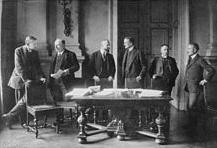




































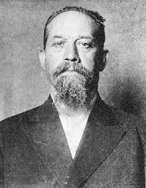












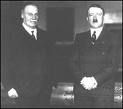











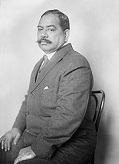


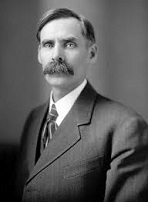















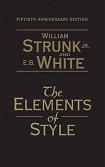




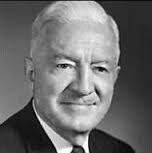
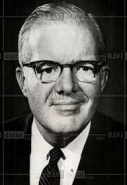










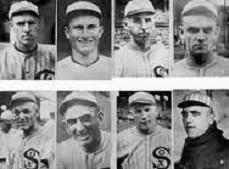















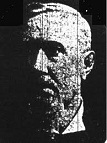



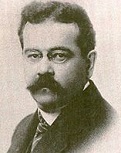
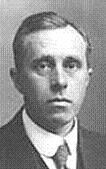













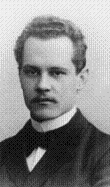


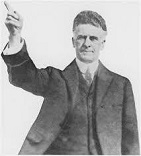
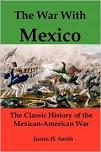


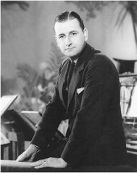
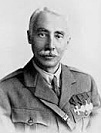


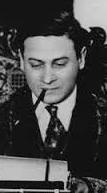









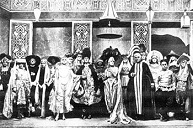
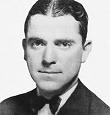
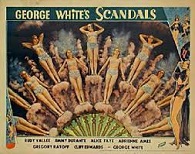






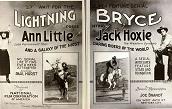








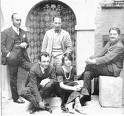
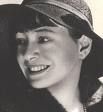
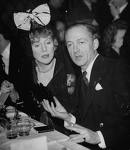



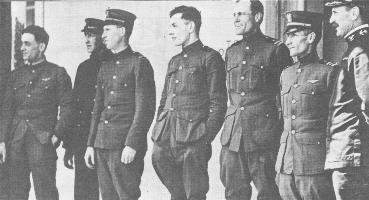

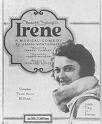





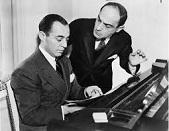

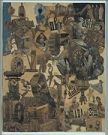




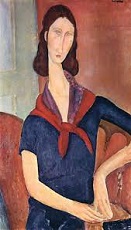


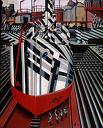

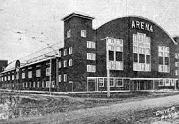



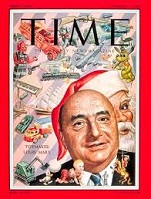
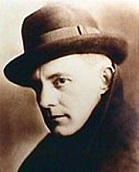




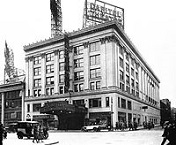
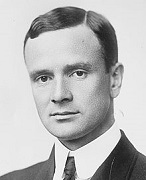
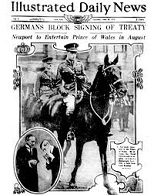
1919 Chinese Year: Goat (Sheep). The end of WWI sees a fall in farm exports from the U.S. to Europe, causing gross farm income to plummet from $17.7B this year to $10.5B in 1921. The U.S. operates a total of 265K mi. of railroad track (10x around the Earth). 702K portable vacuum cleaners are sold in the U.S., most electric; in 1920 it rises to 1,024,167 units worth $35M. America: Love It or Leave It, Push Push Push? The Devil runs America into the red? The Red Scare grips the thought-we-were-safe-but-but-but U.S. this year and next; U.S. atty.-gen. (Mar. 5-Mar. 4, 1921) Alexander Mitchell Palmer (1872-1936) is assisted by young able Commie-hunter (closet gay?) John Edgar Hoover (1895-1972), who is later named dir.-gen. of the Internat. Org. for European Relief; on Nov. 7 10K suspected Communists and anarchists are rounded up by the U.S. govt. in the Palmer Raids (end 1921); 248 are eventually deported without trial to Russia, incl. perfect patsy (female Jewish atheist anarchist feminist agitating against forced conscription?) Emma Goldman (1869-1940) on Dec. 21 for conspiracy to violate conscription laws, with two years in priz and a $10K fine followed by deportation shortly after her release in 1920; Mollie Steimer (1897-1980) gets a 15-year prison term in 1920 for violent protests, er, distributing leaflets opposing U.S. intervention in the Russian Rev., and is deported from God Bless America in 1922 with a huge criminal record as a leaflet distributor; too bad, both Goldman and Steimer don't find the Soviet Paradise any fun and flee to Germany, with Goldman ending up in Canada, and Steimer in Mexico. The Great War causes France to suffer the loss of 300K houses, 6K public bldgs., 20K workshops and factories, and 1.36M head of livestock, spurring frantic cries for both reparations and security against future Hun invasions; meanwhile lax collection of income taxes causes the franc to depreciate 50% within a year of the end of the war despite a rapid economic recovery, causing the postwar govt. to become ossified at the top while disaffection brews underneath. The Third Aliyah of Zionist Jews immigrating to Palestine from Europe and Russia begins, with 40K arriving by 1923. On Jan. 1 6-2 Great Lakes Navy upsets 10-0 Mare Island USMC 17-0 to win the 1919 Rose Bowl; Navy Wasp QB John Leo "Paddy" Driscoll (1895-1968) completes four of eight passes, incl. a 45-yard TD to George Stanley Halas Jr. (1895-1983), and also rushes for 34 yards, and drop-kicks a 30-yard field goal; after Halas returns an intercepted pass 77 yards and is tackled on the three, missing his 3rd TD, he utters the soundbyte "Nobody had a day like Driscoll." On Jan. 1 the Czech Legion occupies the self-proclaimed free city of Pressburg (Bratislava), forcing it into the Repub. of Czech. On Jan. 1 HMS Iolaire sinks off the coast of Scotland, killing 206 of 280. On Jan. 3 the Red Army takes Kharkov. On Jan. 3 the Faisal-Weizmann Agreement is signed by Faisal and Chaim Weizmann, agreeing to cooperate in the creation of a Jewish homeland in Palestine along with an Arab nation E of the Jordan River; too bad, there never were any such thing as Arab Muslim Palestinians, so they have no power to stop Faisal from reneging and forcing them back on the Jews; on Aug. 11, 1919 Arthur James Balfour writes a memo to Lord Curzon, with the soundbyte: "The contradiction between the letters of the Covenant and the policy of the Allies is even more flagrant in the case of the 'independent nation' of Palestine than in that of the 'independent nation' of Syria. For in Palestine we do not propose even to go through the form of consulting the wishes of the present inhabitants of the country, though the American Commission has been going through the form of asking what they are. The four Great Powers are committed to Zionism. And Zionism, be it right or wrong, good or bad, is rooted in age-long traditions, in present needs, in future hopes, of far profounder import than the desires and prejudices of the 700,000 Arabs who now inhabit that ancient land." On Jan. 3-4 Bolshevik troops capture Riga, Latvia; on Jan. 5 British ships shell the Bolshevik HQ; on Jan. 15 a Communist govt. is established headed by Lenin's personal friend Peteris (Pyotr) Ivanovich Stucka (Stuchka) (1865-1932) (until Jan. 13, 1920); the Red Terror in Latvia kills thousands by May. Don't rock the boat baby? On Jan. 4/5 the Marxist Sparticist (Spartakist) (Jan.) Revolt (Uprising) begins in Berlin, but is crushed by Jan. 13 after Friedrich Ebert orders Freicorps troops into action on Jan. 9; on Jan. 5 the Nat. Socialist (Nazi) German Workers' Party (Nationalsozialistiche Deutsche Arbeiterpartei) in Germany is founded (until 1945); on Jan. 6 after addressing a rally of 10K in Berlin and telling them not to seize power prematurely, only to see them go for it anyway, Spartacist leaders Karl Liebknecht (b. 1871) and Rosa Luxemburg (b. 1871) are arrested in Berlin-Wilmersdorf by German soldiers, taken to Hotel Eden in Berlin, and tortured, then brutally executed without trial by German Freikorps officers on Jan. 15 (night) in the Tiergarten; Rosa's murderer is Hermann Wilhelm Souchon (1894-1982) nephew of German Adm. Wilhelm Anton Souchon, who flees to Finland next year, returns to Germany in 1935 after all involved are granted amnesty by Hitler, and rises to the rank of col. in the Luftwaffe; Rosa's body is thrown into a canal near the Spree River and not found for 5 mo., while Karl's body is deposited as a John Doe in a mortuary, making them into Commie martyrs; a street is named after her in Lvov (until Oct. 1991); "In her assassination Hohenzollern Germany celebrated its last triumph, and Nazi Germany its first" (Isaac Deutscher). On Jan. 9 after having a vision that Prophet Muhammad personally ordered him not to surrender the holy city of Medina, refusing to hand over his sword on the direct order of the Ottoman war minister and being dismissed by his post by the sultan, which doesn't stop him from holding out for 72 days until his own men arrest him, Ottoman gov. (since 1916) Gen. Fakhri (Fahreddin) Pasha (1868-1948), "the Lion/Tiger of the Desert" (British nickname) surrenders to King Abdullah in Bir Darwish, and Abdullah triumphantly enters the city on Jan. 10, followed by Ali on Feb. 2. On Jan. 11 Romania annexes Transylvania. On Jan. 11 the Alagir Genocide of Georgians in North Ossetia is compounded by the difficult flight of the survivors through the mountainous passes into Georgia; Vladimir Lenin blames "counter-revolutionaries" for the atrocities, while Georgians blame Ossetian radicals. On Jan. 13 Calif. votes to ratify the Prohibition Amendment. On Jan. 15 pianist-composer Ignace Jan Paderewski (1860-1941), who spent the decade working for Polish independence, making concert tours in the U.S. to raise funds becomes PM #1 of the newly-created Second Polish Repub. (ends 1939), backed by military strongman Josef Pilsudski; he lasts 10 mo. (until Nov.); meanwhile on Oct. 23 George Nathaniel Curzon, 1st Marquess Curzon of Kedleston (1859-1925), former viceroy of India (1899-1905) (who isn't liked by David Lloyd George) succeeds Sir Arthur James Balfour as British foreign secy. (until Jan. 22, 1924); too bad, the Versailles Treaty doesn't define the boundary between Russia and Poland, giving them both ideas and leading to the Polish-Soviet War in Feb., causing Curzon to propose the Curzon Line in Dec. On Jan. 15 (noon) an explosion at the U.S. Industrial Alcohol Co. in Boston, Mass. opens a 2M gal. tank of molasses, knocking down 10 nearby bldgs., killing 21 and injuring 50 - that's a lot of Captain Morgan? On Jan. 15 after a strike by the Federacion Obrera Regional Argentina in Buenos Aires, Tragic Week sees 1K+ machine-gunned and 50K imprisoned. On Jan. 16 Neb., Wyo. and Mo. become the 36th-38th states to ratify Prohibition via the Eighteenth (18th) (XVIII) Amendment to the U.S. Constitution, which outlaws the manufacture, sale, or transportion of intoxicating liquors (alcohol) for beverage purposes in the U.S.; it goes into effect in one year; after Ky. adopted prohibition in 1918, the bourbon industry (26 distilleries) in Bourbon County, Ky. was wiped out, and no distillery opens there until late 2014. On Jan. 18 the Paris Peace Conference (ends Jan. 21, 1920) in Versailles, France convenes on the anniv. of the date in 1870 when the German Empire was proclaimed, with the blockade of Germany continuing to rub salt in their wounds; the Five Major Powers (U.S., U.K., France, Italy, Japan) control the conference, although Japan's role diminishes throughout the 145 meetings that make all the major decisions that are rubber-stamped by the open meetings of all the delegations; 27 nations assigned to 52 commissions hold 1,646 sessions; "There seems to be no limit to French vindictiveness and commercial jealousy" (C.P. Scott); despite sending several hundred manual workers to dig trenches and other dangerous work, the Chinese delegation is not admitted to the negotiating table while the delegates decide to not return former German colonies to China and hand them to Japan, delegitimizing the Chinese Repub. at home and resulting in large student protests in Peking and the formation of the Chinese Communist Party; Vietnamese-born Nguyen Ai Quoc, who at the start of the war worked in the kitchen of the Carlton Hotel in London (a favorite of David Lloyd George and Winston Churchill) tries in vain to submit a Vietnamese 14 Points paper to Pres. Wilson, later going Commie and changing his name to Ho Chi Minh ("He Who Enlightens") (1890-1969). On Jan. 18 the Roman Catholic Partito Popolare Italiano (Italian Popular Party) is formed in Italy, which is loaded with debt and facing a rapid spread of Communism (ends 1926). On Jan. 18 English engineer Walter Owen Bentley (1888-1971) founds Bentley Motors Ltd. in Cricklewood (near London) to produce the hi-tech 4-cylinder Bentley 3 Litre, which wins Le Mans in 1924 and 1927-30; in 1931 it is acquired by Rolls-Royce. On Jan. 19 the Kingdom of Traulitania (Portugal) (Monarchy of the North) is set up by monarchist Capt. Henrique Mitchell de Paiva Cabral Couceiro (1861-1944) sans endorsement of deposed Manuel II; it folds by Feb. 13. On Jan. 21 the German Krupp Plant begins producing guns under the U.S. armistice terms. On Jan. 21 the First Dail (ends 1921) is held in Dublin by reps from Sinn Fein (Gael. "ourselves alone") led by Irish Unionist leader Sir Edward Henry Carson (1854-1935), demanding repeal of Home Rule in Ireland and adopting an Irish Declaration of Independence; meanwhile the Irish Volunteer Force (IVF) rename themselves the Irish Repub. Army (IRA), and Daniel "Dan" Breen (1894-1969) and Sean Treacy (Tracy) (1895-1920) lead a group of eight volunteers in an attack on the Royal Irish Constabulary in Tipperary escorting explosives near Solloghead Beg Quarry, killing two policemen, launching the guerrilla Irish War of Independence (Anglo-Irish War) (ends July 11, 1921); on Apr. 1 Eamon de Valera (1882-1975) becomes pres. of Dail Eireann (until Aug. 26, 1921). On Jan. 25 the WWI Peace Conference in Versailles sets up a commission on reparations, and adopts the League of Nations (nicknamed the League of Victors) German Reparations Plan, with the soundbyte: "Germany accepts the responsibility of Germany and her allies for causing all the loss and damage to which the Allied and Associated Governments and their nationals have been subjected as a consequence of the war imposed upon them by the aggression of Germany and her allies", which pisses-off German nationalists, and is used with effect by Adolf Hitler, leading to WWII; senior German delegate (foreign minister) (Hitler lookalike) Count Ulrich Graf von Brockdorff-Rantzau (1869-1928) utters the soundbyte: "We are required to admit that we alone are war guilty. Such an admission on my lips would be a lie"; after the London Daily Mail calls this an "insult", and says: "After this no one will treat the Huns as civilised or repentant", Brockdorff-Rantzau utters the soundbyte: "The hundreds of thousands of noncombatants who have perished since November 11 by reason of the blockade were killed with cold deliberation, after our adversaries had conquered and victory been assured them. Think of that when you speak of guilt and punishment"; damages are not to be assessed for two years to cool passions and allow for postwar inflation to die down, but they have to pay it all by May 1, 1961, and £1B by May 1, 1921; meanwhile von Brockdorff-Rantzau becomes German ambassador to Moscow until his 1928 death - getting Stalin used to dealing with a German mug wearing a toothbrush mustache? On Jan. 28 grand princes (nephews of the tsar) Pavel (Paul) Alexandrovich Romanov (b. 1860) (youngest son of Tsar Alexander II), Nikolai Mikhailovich Romanov (b. 1859), Georgy Mikhailovitch Romanov (b. 1863), and Dmitry Konstantinovich Romanov (b. 1860) are executed by a Bolshevik firing squad at the Peter and Paul Fortress in St. Petersburg, Russia. On Jan. 31 the (Bloody or Black Fri.) the Battle of George Square in Glasgow, Scotland is caused by high rents, causing 10K British troops to be called in. In Jan. political power in Germany is given to the dem. Weimar Repub.; an emergency constitution drawn up by dem. politician Hugo Preuss (1860-1925) is promulgated on Feb. 10 by the constituent nat. assembly in Weimar, which meets beginning Feb. 6; on Feb. 11 Friedrich "Fritz" Ebert Sr. (1871-1925) is elected pres. #1 (until Feb. 28, 1925); on Feb. 13 Philipp Scheidemann (1865-1939) becomes chancellor, resigning on June 20 to protest the Versailles Treaty; on Aug. 14 Gustav Adolf Bauer (1870-1944) becomes chancellor (until 1920); Gen. Karl Eduard Wilhelm Groener (1867-1939) becomes army minister then interior minister, persuading the govt. to retain the German army in a form that allows it to expand if needed; Eugenio Pacelli (1876-1958) (later Pope Pius XII) is named papal nuncio to the Weimar Repub., going on to build Vatican power in Germany, resulting in the 1933 Concordat; the German mark is worth only 20% of its pre-war value; the old black-red-gold flag is restored, with the new explanation of "from night through blood to golden freedom". In Jan. the Bolsheviks begin a policy Decossackization, executing 8K Cossacks by Mar.; meanwhile there are strikes all over Bolshevik territory, incl. Astrakhan, where 4K are killed. In Jan. railway and transport workers in France go on strike. In Jan. Anton Drexler writes an article for the Munchener-Augsburger Abendzeitung (Munich-Augsburg Evening News) calling for an all-out effort to win the war; his slogan is "Durchhalten!" (Hold out to the end). In Jan. the Bolsheviks are driven out of Estonia; meanwhile they stage a Jewish pogrom in Volhynia, spreading through the Ukraine in Feb. and Mar.; on Mar. 25 4K Jews are murdered at Tetiev after a synagogue is set on fire by Cossack troops; on Apr. 6-7 Vashilkov gets de-Jewed; on June 17 800 Jews are decapitated in Dubovo; the worst pogrom is in Feb. in Proskurov (modern-day Khmelnitsky) near Sudilkov, where Cossacks under Hetman Semossenko massacre 10K Jews on the Sabbath; by the time the pogroms end in 1921 many Jews have fled to Poland, where they think they are safe from the horrible Cossacks, only to end up in the hands of the even worse Nazis in 1939. In Jan. after the Chaplin brothers Charlie and Sydney, along with Mary Pickford and her lover Douglas Fairbanks Sr. hire a sexy female spy and learn of plans to merge First Nat. and Paramount and cap actor salaries and squeeze out independent production cos., and Pickford, Fairbanks, and dir. D.W. Griffith hold a meeting at the Palm Court at the Alexandria Hotel in Los Angeles to plan it, they hold a press conference the night before the start of the First Nat. Exhibitors Circuit convention at the Alexandria Hotel and announce that they are going to form their own United Artists distribution co. to compete with them, rocking Hollywood; although they intended the announcement as a bluff, the fanfare causes them to go through with it, and on Feb. 5 4-artist United Artists film distribution co. is founded by Charlie Chaplin, Mary Pickford, Douglas Fairbanks Sr., dir. D.W. Griffith, and atty. (former U.S. treasury secy.) William Gibbs McAdoo (who replaces cowboy star William S. Hart, who helped originate the idea then dropped out), pioneering the independent distribution of films, attracting independent producers and renting temporarily unbooked theaters; Metro Pictures head Richard A. Rowland utters the soundbyte: "The inmates are taking over the asylum"; meanwhile Sydney Chaplin signs a $1M contract with Famous Players-Lasky, but appears in only one film, "King, Queen, Joker" (1921); in 1919-20 United Artists sets up the Pickford-Fairbanks Studio on Santa Monica Blvd. in Los Angeles, Calif., after which Pickford becomes the most powerful woman in Hollywood history; too bad, studio boss Charlie Chaplin still has six films to make for First Nat., hindering his availability at United Artists, and he only makes two short films for them in 1919, both forgettable, "Sunnyside" and "A Day's Pleasure", pissing them off and causing them to accuse him of slacking, which he responds to by producing his great 6-reel film "The Kid" in 1921. On Feb. 1 in New York City the first Miss America, Edith Hyde is crowned, later turning out to be Mrs. Todd Robbins, mother of two. On Feb. 3-13 First Meeting of the League of Nations is held in Paris; Sir Arthur Balfour stinks himself up by telling Col. Edward Mandell House that the Am. Declaration of Independence phrase "all men are created equal" "was an 19th century proposition that he didn't believe was true. He believed that it was true that in a sense all men in a particular nation were created equal, but not that a man in Central Africa was created equal to a European." On Feb. 4 the city of Bremen's Soviet Repub. is overthrown. On Feb. 6-11 a gen. strike in Seattle, Wash. shuts down the city and results in the arrests of Socialists and subversives, becoming the first gen. strike in the U.S.; on Feb. 6 The Union Record of Seattle carries an editorial with the headline "We are undertaking the most tremendous move ever made by labor in this country, a move which will lead - NO ONE KNOWS WHERE!", written by Neb.-born Anna Louise Strong (1887-1970), who goes on to become a strong supporter of Soviet and Chinese Communism; on Mar. 3 Boeing Aircraft founder William Boeing and Hubbard Air Transport owner Edward Hubbard fly 142 mi. from Vancouver, B.C., Canada to Seattle, Wash., delivering 60 letters along the way, becoming the first internat. airmail delivery; on Mar. 22 the first internat. airline service begins on a weekly schedule between Paris and Brussels - isn't that kind of like cheating? On Feb. 14 the United Parcel Service (founded on Aug. 28, 1907 in Seattle, Wash.) is reincorporated in Oakland, Calif. On Feb. 14 the Draft Covenant of the League of Nations, drafted by Leon Bourgeois (1851-1925) of France et al. is completed; on Feb. 28 Repub. Sen. majority leader (chmn. of the foreign affairs committee) Henry Cabot Lodge Sr. begins a vigorous campaign against it, blocking U.S. ratification of the Versailles Treaty and participation in the League; meanwhile former German ambassador to the U.S. Count von Bernstorff flops and becomes an advocate of world peace and big promoter of the League, founding the German League of Nations Union (LNU) to "defang" Germany. On Feb. 17 Germany signs an armistice giving up territory in Poland. On Feb. 19 the First Pan African Congress, organized by W.E.B. Du Bois meets in Paris. On Feb. 19 23-y.-o. Louis Emile Cottin (1896-1937) attempts to murder French PM Clemenceau in his car, causing the latter to utter the soundbyte: "We have just won the most terrible war in history, yet here is a Frenchman who misses his target 6 times out of 7. Of course the fellow must be punished for the careless use of a dangerous weapon: eight years in prison with intensive training in a shooting gallery"; on Mar. 14 he is condemned to death for attempted murder, but after a public outcry the sentence is reduced to 10 years. On Feb. 19 after being defeated by the Bolsheviks, White Russian leader Lt. Gen. Pyotr (Peter) (Petro) Krasnov (1869-1947) flees to Germany, founding the underground anti-Communist Brotherhood of Russian Truth. On Feb. 20 Habibullah Khan (b. 1901) is murdered while on a hunting trip in Afghanistan, and on Feb. 18 his conservative-backed anti-British brother Nasrullah Khan (1875-1920) is proclaimed emir, but Habibullah's 3rd son Amanullah Khan (1892-1960) gets army backing and becomes emir of Afghanistan almost immediately (until 1929) (king in 1926), then gets in a war with Britain and India in an attempt to strengthen his independence while trying to modernize and Westernize, stirring resentment from the Young Afghans; in May the Third Anglo-Afghan War begins (ends 1921), with Afghan troops invading the Indian frontier but soon driven back, and an armistice signed at the end of May; on Aug. 8 the Treaty of Rawalpindi causes the British to formally recognize Afghan sovereignty while terminating their annual subsidies; this time the Brits begin turning the well-travelled Khyber Pass into a 2-lane automobile road, which is completed after the war ends. Hitler almost becomes a Soviet POW? On Feb. 21 after losing the election, Jewish Bavarian PM (since 1918) Kurt Eisner (b. 1867) is shot dead in the back by right-wing student Count Anton Graf von Arco auf Valley (Arco-Valley) (1897-1945) (rejected from the Thule Society because of Jewish ancestry on his mother's side) on his way to the Munich Parliament to announce his resignation, causing anarchy followed by a Communist seizure of power; on Apr. 6 the Bavarian Soviet Repub. is proclaimed; meanwhile in Mar. the Communists organize strikes and riots in Berlin, and on Apr. 13 a right-wing uprising in Munich is crushed by the Communists, beginning the Bavarian Red Terror, led by Jewish Russian Communist Eugene Levine (b. 1883), "the German Stalin", which executes eight counterrevolutionaries on Apr. 29-30, incl. Prince Gustav Franz Maria of Thurn and Taxis (1888-1919) after Thule Society founder Rudolf von Sebottendorf leaks the membership list, causing him to quit and flee, ending up in Turkey; on May 1-3 a 39K-man combined German and Dem. Socialist Freikorps ("White Guards of Capitalism") army invades and stages a coup in Munich, killing 1K Communists and executing 700, ending the short-lived Bavarian Soviet Repub., and beginning the Bavarian (Munich) White Terror, executing Eugene Levine on July 5. On Feb. 25 Ore. introduces the first state tax on gasoline at 1 cent per gallon, to be used for road construction. On Feb. 26 Congress establishes the Grand Canyon Nat. Park in Ariz.; Acadia Nat. Park is established as Lafayette Nat. Park in Maine. In Feb. the Free State of Saxony in E Germany is founded. In Feb. the Polish-Soviet War (ends Mar. 1921) begins as the Poles invade the Ukraine and Belarus in an attempt to reclaim territories lost during the partitions. In Feb. the French govt. passes a remunerative bill on damages caused by the war, followed by another in Apr. giving veteran pensions, assuming that the Germans will cover the costs. On Mar. 1 the March 1 (Samil) Movement AKA Manse Demonstrations in Korea proclaims independence from Japan. On Mar. 2-9 the First Congress of the Communist Internat. is held, with Vladimir Lenin uttering the soundbyte: "The most democratic bourgeois republic is no more than a machine for the suppression of the working class." On Mar. 3 the Communist Party in Germany announces a gen. strike; it is crushed by Mar. 11; on Mar. 4 the ethnic German pop. of Sudetenland demonstrates for their right to self-determination. On Mar. 3 the U.S. Supreme (White) Court rules unanimously (9-0) in Schenck v. U.S. that speech can be criminalized that poses a "clear and present danger" (Holmes) of a crime being incited; on Nov. 10 the U.S. Supreme Court votes 7-2 in Abrams v. United States to uphold Schenck v. United States and Debs v. United States in upholding the conviction under the 1918 Sedition Act of Socialists for distributing leaflets denouncing U.S. military intervention against Bolshevik Russia; Oliver Wendell Holmes Jr. joins Louis Brandeis in a dissenting opinion championing freedom of speech, requiring a "clear and present danger" to be criminalized, not just potentially dangerous ideas, which makes him a libertarian hero; meanwhile poor Eugene V. Debs serves a 10-year sentence for being a big bad pacifist who dares to speak his mind in the USA - why don't you arrest me just for opening my mouth? On Mar. 4 the Comintern (Communist Internat.) (Third Internat.) is founded in Moscow (ends 1943), with Grigori Zinoviev as pres. #1 (until ?). On Mar. 4-5 the Kinmel Park Riots in Bodelwyddan (near Abergele) N Wales sees two days of riots in the Canadian sector of the military complex by 15K Canadian troops stationed in Kinmel Camp pending repatriation. On Mar. 8 reports from Paris indicate that 6K U.S. men married French women in the past year - the French kissing stops after the honeymoon? On Mar. 9 after nationalist Wafd Party leader Said Zaghlul is arrested by the British, the mainly non-violent First (1919) Egyptian Rev., Egypt's first modern nationalist revolt (ends 1922) breaks out in Cairo then spreads, killing 800 in three weeks; on Apr. 7 the British release Zaghlul and his Wafdist leaders, who head for the Paris Peace Conference. On Mar. 10 the Rowlatt Act ends the civil liberties of Indians; on Mar. 30 Gandhi announces his resistance; on Apr. 13 British troops under Brig. Gen. Reginald Edward Harry Dyer (1864-1927) massacre hundreds (379-1000) of peaceful protesters in the Amritsar (Jallianwala Bagh) Massacre in the Sikh city of Amritsar, causing Dyer to become known as the Butcher of Amritsar. On Mar. 14 Pres. Wilson returns to Paris after a 1-mo. absence, then becomes sick with influenza on Apr. 3. On Mar. 15 the American Legion is founded in Paris; on Sept. 16 it is incorporated by an act of Congress; on Nov. 10 it holds its first nat. convention in Minneapolis, Minn. On Mar. 19 a typhoid epidemic rages in Petrograd, Russia, killing 200 daily. On Mar. 20 the Allies send the new Hungarian People's Repub. (founded 1919) the Vyx Note, ordering Hungarian troops further back into Hungary, pissing the Hungarians off and causing PM Count Mihaly Karolyi to be ousted on Mar. 21 by an alliance of Social Dems. and Communists (led by Bela Kun), and he goes into exile in France and later Britain through WWII; on Mar. 21 Bela (Béla) Kun (1886-1938) sets up the Hungarian Soviet Repub., the world's 2nd Communist govt. in Budapest, Hungary; French-backed Miklos Horthy leads a successful uprising and enters Budapest on Aug. 6, causing Kun to flee to the Soviet Union, where he ends up getting caught up in the Stalinist purges and executed in a gulag. On Mar. 23 the Politburo (Political Bureau) is formed to wield supreme power in the Soviet Union, with the Party Congress electing a Central Committee, which elects a gen. secy.; under Stalin, the gen. secy. appoints the Politburo and Central Committee. On Mar. 23 after splitting with the Socialist Party over Italian intervention in WWI, the Nat. Fascist Party (Fascio del Combattimento) is formed in Milan, Italy by former Socialist ed. of Avanti Benito Amilcare Andrea Mussolini (1883-1945) - the four Stooges rolled into one? On Mar. 25 the Paris Peace Conference adopts a plan to protect nations from the influx of foreign labor; Australian PM William M. Hughes leads other British statesmen in getting the principle of racial equality excluded from the League of Nations Covenant; on Mar. 25 David Lloyd George writes the Fontainebleau Memorandum, questioning the wisdom of imposing too harsh terms on Germany, fearing that it might go Bolshevik, and worrying about fracturing the German people among "small states, many of them consisting of people who have never previously set up a stable government for themselves, but each of them containing large masses of Germans clamoring for reunion with their native land"; too bad, hate-filled Georges Clemenceau tells him to stuff it, calling Britain "a maritime people who have not known invasion", and insisting on handing the Danzig Germans over to Poland; as Pres. Wilson is leaving the Paris Peace Conference, 31 prominent Jewish-Ams. incl. Henry Morgenthau Sr. sign an anti-Zionist petition presented by German-born Jewish U.S. Rep. (R-Calif.) (1899-1903, 1905-24) Julius Kahn (1861-1924). On Mar. 29 after Barnum & Bailey merges with Ringling Bros., the first Ringling Bros. & Barnum and Bailey Circus is held in Madison Square Garden in New York City; the star is German-born 4'9" 95-lb. "Queen of the Air" Lillian Leitzel (Leopoldina Alitza Pelikan) (1892-1931), who can do up to 249 1-armed planges (swingovers) with a rope, and is the first circus performer with her own private Pullman rail car, complete with a baby grand piano - and Jesus and the Saints and all the Prophets? In Mar. former emperor Charles I leaves Austria; in Apr. he is formally deposed by the Austrian parliament; on Apr. 3 Austria expels all them haughty Hapsburgs (Habsburgs). In Mar. the villain Raoul Villain is acquitted of assassinating Jean Jaures in 1914, causing massive demonstrations in France, and causing the govt. to hastily approve the 8-hour workday on Apr. 23, although strikes go on through June - sometimes the villain wins? In Mar. Vladimir Lenin speaks out against the Kiev Pogroms, perpetrated by White Russian army troops and Cossacks, with or without official sanction, which go on to murder 30K-70K Jews in 1.3K-2K pogroms by the end of the year; too bad, after the Bolsheviks starting winning, they take up where the White Russians left off, and by 1920 150K (2.3%) of the Jews in the Ukraine are murdered or die of disease or starvation, while 500K are left homeless by 1921. In Mar. despite POWs being released, there are still 1.2K British conscientious objectors in prison and 3.4K doing labor service; all are deprived of the vote for five years after the war. In Mar. Citroen (Citroën), founded by French Jewish armaments maker Andre-Gustave Citroen (André-Gustave Citroën) (1878-1935) (citroen is Dutch for lemon) announces the Citroen 10HP Type A automobile (12.5K francs), producing 24,093 by Dec. 1921 when it is discontinued, introducing the first mass-production techniques outside the U.S.; by 1923 it becomes Europe's largest car manufacturer and 4th largest in the world, going on to become known for innovative engineering, with the slogan "Creative Technology"; in 1924 it produces Europe's first all-steel-body car, the B-10; in 1934 it produces the Traction Avant, the world's first production front-wheel drive car, with a monocoque-type body; In 1954 it produces the world's first hydropneumatic self-levelling suspension system; in 1955 it produces the Citroen DS, the first Euro production car with disc brakes, featuring a futuristic body design; in 1967 it introduces swiveling headlights; Pick up that jive, Jack, and put it into your ufa pocket till I get back? In the spring White Russian adm. Alexander Kolchak begins his offensive against the Bolsheviks in Siberia, scoring early successes and uniting in July with Gen. Anton Ivanovich Denikin (1872-1947) and his army of White Russians, supplied by the British and French with naval support by the French fleet in the Crimea, who have captured Lake Onega, and together they hold SE Russia from Odessa to Ufa, while an Estonian army under Gen. Nikolai Yudenich marches on Petersburg. On Apr. 5 the Polish army executes 35 young Jews. On Apr. 7 the Allies evacuate Odessa. On Apr. 7 160K Belgian women sign a petition demanding suffrage, and on May 9 a new electoral law gives universal suffrage to men and limited suffrage to women - now husbands listen to this, love your wives as your own body, he who loves his own body loves himself? On Apr. 10 Emiliano Zapata (b. 1879) is executed by govt. soldiers after he leaves his stronghold in S Morelos to attend a phony meeting with a defecting govt. officer who turns out to be working for his foe Pres. Carranza - what happened to Viva Zapata? On Apr. 19 the Polish Army captures Vilna (Vilnius) in Lithuania from the Red Army. On Apr. 23 citing the adverse balance of trade between the U.S. and India, the U.S. Pittman Act, sponsored by U.S. Sen. (D-Nev.) (1913-40) Key Pittman (1872-1940) is passed, causing 270M Morgan U.S. silver dollars (issued from 1878-1921) to be melted for their silver; the 1921 coins are only produced at the Denver Mint. 600K lost in the Great War and all we get is this fuming T-shirt, or, Every time we called they hung up? On Apr. 24 PM Vittorio Orlando, head of the Italian delegation fumes out of the Versailles Peace Conference over the issue of the disputed (secretly promised to them in the 1915 Treaty of London) Adriatic seaport city of Fiume (modern-day Rijeka in Croatia); the delegation returns on May 5; on Sept. 12 Italian writer-soldier-hero Gabriele d'Annunzio (1863-1938) leads a filibustering expedition against Fiume, eventually seizing it from Yugoslavia and occupying it with his unofficial volunteer Italian black shirt army of "legionaries" (until 1920). On Apr. 25 the U.S. 42nd "Rainbow" Div. docks in New York City in converted German liner Leviathan, pissing-off Gen. Douglas MacArthur when nobody shows up to greet them; "With no one, not even children, to see us, we marched off the dock, to be scattered to the four winds - a sad, gloomy end of the Rainbow." On Apr. 28 the first jump with an Army Air Corps (rip-cord type) parachute is made by Calif. stuntman Leslie Leroy "Les" Irvin (1895-1966). On May 1 the Kelut Volcano in Indonesia erupts, killing 5,110. On May 1 Mexican hero Pancho Villa marries Soledad Seanez Holguin (1896-1996) in Mexico. On May 2 the first U.S. air passenger service starts. On May 4 the May Fourth (4th) Movement sees 3K young Westernized left-wing scholars from 13 colleges and univs. rally in Tiananmen Square in Beijing to protest the loss of Shandong Province to the Japanese under the Versailles Treaty at the Paris Peace Conference; it goes on to dump Confucianism and traditional ways for Western ideas under the rallying cry of science and democracy, and proclaim modern Chinese nationalism; too bad, to them Marxism is Western, leading to the July 1921 founding of the Chinese Communist Party (Kungchangtang), which puts nationalism first. On May 6 the Paris Peace Conference, attended by German delegates disposes of Germany's colonies; German East Africa is assigned to Britain and France, German Southwest Africa to South Africa; the borders of Czechoslovakia (a merger of Bohemia, Moravia, and parts of Silesia and Slovakia) are set up to incl. 3M Germans in the Sudetenland (a mistake?), with the capital city of Slovakia renamed from Pressburg to Bratislava, from "Brezalauspurc" (Braslav's Castle) in Mar. after Wilsonstadt (Wilsonov) (after Pres. Woodrow Wilson) is rejected; next Nov. 15 Gdansk (formerly Danzig) on the S shore of the Baltic Sea is separated from the German Reich as the Free City of Danzig free state under a high commissioner of the League of Nations (until 1939); France begins administering the coal-rich Saar Basin (Saarland) between the Moselle and Rhine Rivers SE of Luxembourg (until 1935); Allied-bombed goose-liver producer Strassburg is returned to France to become Strasbourg again, leading to protests in Germany; on Mar. 1 Upper Volta in West Africa becomes a separate colony (until 1932), formed from the French West African colonies of Upper Senegal, Niger, and Cote d'Ivoire; the League of Nations promises France a mandate over Syria, but leaves it to them to put down nat. uprisings first; on May 30 Belgium strikes an agreement with Brtain, and later receives a mandate for Rwanda-Burundi in former German East Africa. On May 6 Costa Rican pres. Federico Tinoco is deposed by the Flores Party; on June 4 U.S. Marines land to protect U.S. interests, and on Dec. 9 pro-U.S. Julio Acosta Garcia (1872-1954) is elected pres., taking office next May 8 (until May 8, 1924). On May 7 the terms of the Big Bad Versailles Treaty are announced, and the German delegates receive the draft treaty; Australia is assigned the mandate for the German colonies S of the equator except Nauru Island and Samoa, which go to New Zealand; on July 2 an agreement with Britain and New Zealand gives admin. of phosphate-rich Nauru Island to Australia, with all three holding it together. On May 7 the body of English nurse Edith Cavell is returned to England aboard destroyer Rowena; on May 15 a memorial service is held in Westminster Abbey attended by large throngs, making her a virtual saint, after which a statue is erected N of Trafalgar Square. On May 7 Adam Mickiewicz U. in Poznan (originally U. of the Piasts until 1955) opens, named after Polish Romantic poet Adam Mickiewitz, becoming one of the top-3 univs. in Poland. On May 8 the first transatlantic flight, three Liberty-powered U.S. Navy Curtiss NC-4 Flying Boats take off from Trepassy Bay, Newfoundland, arriving in Horta, Azores on May 16-17, then Ponta Delgada on May 20; one of them, NC-4, commanded by Lt. Cmdr. Albert C. Read and piloted by Walter Hinton reaches Lisbon on May 27. On May 15-June 25 after massive unemployment and inflation, the Winnipeg Gen. Strike by 30K workers cripples the city; the Canadian Grand Trunk Pacific Railway is declared bankrupt; meanwhile on Feb. 17 Sir Wilfred Laurier (b. 1841) dies, and William Lyon Mackenzie King (1874-1950) becomes the Liberal Party leader as Canada goes Liberal with him at the helm for the next three decades - looks like we're going to KFC? On May 25 6K fundamentalist ministers and theologists meet in Philadelphia, Penn. for a week-long conference, resulting in the founding of the World Christian Fundamentals Assoc (WCFA), with Greene County, Ind.-born Bible-thumping Baptist minister William Bell Riley (1861-1947) of the First Baptist Church in Minneapolis, Minn. as pres. #1 (until 1929), which becomes the #1 interdominational fundamentalist org., trying to launch a "new Protestantism" based on premillennial interpretations of the Bible, soon turning to fight Darwinism, founding the Anti-Evolution League of Minn. in 1923 followed in 1924 by the Anti-Evolution League of Am., advocating Young Earth Day-Age Creationism (the six days of Creation in Genesis are thousands to billions of years long), becoming known as "the Grand Old Man of Fundamentalism", esp. after wiring William Jennings Bryan to act as their atty. in the Scopes Trial, uttering the soundbyte about evolution: "The first and most important for its elimination is in the unquestioned fact that evolution is not a science; it is a hypothesis, only, a speculation"; too bad, after his crusade against evolution falters, he begins blaming the internat. atheistic Jewish Communist conspiracy a la "The Protocols of the Learned Elders of Zion", pointing to WWI as having had all sides financed by Jewish bankers, and the Soviet Union-admiring admin. of U.S. pres. Franklin D. Roosevelt as proof that the U.S. is next; meanwhile he is all for a Jewish state of Israel after they lift God's punishment by accepting Christ; after the WCFA poops out, in 1930 the Independent Fundamental Churches of Am. (IFCA) is founded in Cicero, Ill., taking over the #1 spot until the 1941 founding of the Am. Council of Christian Churches (ACCC). On May 28 the First Repub. of Armenia declares independence, with capital at Yerevan (Erevan) (modern pop. 1M) near Noah's fabled Mt. Ararat - this one's for Noah's Ark? On May 29 the 6-man German peace delegation at Versailles incl. Bavarian gen.-diplomat Count Max von Montgelas (1860-1938) and internat. law prof. Walther Adrian Schucking (Schücking) (1875-1935) submits a Memorandum of Protest to the Proposed Armistice Terms, claiming that they are willing to disarm "in advance of all other peoples", but wanting the victors to agree to abolish conscription and reduce their armaments "in the same proportion"; they agree to renouncing German sovereign rights in Alsace-Lorraine, but call for a plebiscite; they agree to reparations to a certain limit, and repudiate German war guilt, demanding a neutral inquiry into war responsibility; all their demands are rejected, with the soundbyte: "Throughout the war, as before the war, the German people and their representatives supported the war, voted the credits, subscribed to the war loans, obeyed every order, however savage, of their government... They cannot not pretend, having changed their rulers after the war was lost, that it is justice that they should escape the consequences for their deeds"; in June the German govt. of Friedrich Ebert pub. White Book: Germany Guilty?, which tries so hard to exculpate Germany and blame Austria for the war that it backfires; in Nov. Montgelas and Schucking (eds.) pub. The Outbreak of the World War: German Documents Collected by Karl Kautsky (The Kautsky Documents) in Charlottenburg, based on an examination of all of the imperial German archives related to the Great War by Prague-born Marxist journalist Karl Johann Kautsky (1854-1938); an English trans. is pub. in 1924; in 1925 Montgelas pub. The Case for the Central Powers: An Impeachment of the Versailles Verdict in London. On May 30 Suresnes Am. Cemetery is dedicated with 1,551 graves and a 974-name wall of the missing, becoming the first U.S. war cemetery on the Western Front to be dedicated. On June 2 the White Russian army under gen. Anatoly Pepelyayev takes Glazov, becoming their last major V, after which the Bolsheviks get their act together and begin crushing the ufa out of them. On June 2 coordinated bombings in Washington, D.C. and six other cities are staged by militant followers of Italian anarchist Luigi Galleani (1861-1931) as part of a campaign that killed several people incl. an anarchist with eight bombs this month; in June Galleani is deported back to Italy, which doesn't stop his followers (Galleanists) from carrying out the Sept. 16, 1920 Wall St. bombing that kills 38. The 19th Amendment of 1919: A giant breakthrough for humanity, or the point at which the mighty male-run U.S. peaks out and begins a relentless downward slide, like with the Egyptian 19th Dynasty, check back with me in a thousand years? On June 4 the U.S. Senate passes the Susan B. Anthony Amendment AKA the Women's Suffrage Bill AKA the Nineteenth (XIX) (19th) Amendment to the U.S. Constitution, giving women the right to vote (originally written by Susan B. Anthony and introduced to Congress in 1878), and it is sent to the states by the 66th Congress (ratified Aug. 26, 1920). On June 6 Finland and Russia go to war again over Karelia (ends 1920). On June 8-11 the Reds stage mass execution of "bourgeois" in the prisons of Kharkov before the White Army takes it on June 12. The kind of town TLW grew up in? On June 10 prominent Italian family member Jerry Carabetta (b. 1895) is shot in the back as he flees down an alley during a liquor raid on a soft drink parlor by Denver, Colo. police detective George G. Klein (b. 1885), and he dies that night after telling DA William A. Foley that he had been carrying no liquor, causing the large Italian community to go nonlinear and 4K madass Italians to storm City Hall calling for Klein; instead police chief Hamilton Armstrong gives a speech convincing them that Denver police are not above the law and to hire Bob Lawblaw, which they fall for, but 13 days before Klein's Sept. 10 trial for murder he is gunned down in front of his home and dies; his killer is never found, and 5K attend Klein's funeral, where a rabbi says "He died a martyr because he dared to do his duty"; Carabetta's family counters with a tombstone that says "O Boy - Your martyrs are your own parents". On June 15 reps of the German-speaking Sudeten regions of Bohemia, Moravia, and Silesia submit a memo to the Paris Peace Conference protesting at being integrated into Czech., with the soundbyte: "The subject nation can never tolerate such domination"; meanwhile a mass exodus of Germans from the Sudetenland (pop. 3.5M) and the future Polish Corridor to the new E frontier of Germany begins. On June 15 British Capt. Sir John William "Jack" Alcock (1892-1919) and Scottish aviator Lt. Sir Arthur Whitten Brown (1886-1948) take off from St. John's, Newfoundland, flying 1.9K mi. and landing in Clifden, Ireland on June 16 in 16 hours 27 min. in a Vickers-Vimy bomber with two 350 hp. Rolls-Royce engines, becoming the first nonstop transatlantic flight. On June 19 Mustafa Kemal founds the Turkish Nat. Congress in Angora (Ankara), and denounces the Treaty of Versailles. On June 19 after failing to gain the Treaty of London territorial concessions, Italian PM (since Oct. 30, 1917) Vittorio Orlando resigns, and is succeeded by Francesco Saverio Vincenzo de Paola Nitti (1868-1953) (until June 9, 1920), with former PM (for 16 days in 1905) Tommaso Tittoni (1855-1931) as foreign minister. On June 21 German captains under Adm. Ludwig von Reuter (1869-1943) scapa, er, scuttle 72 warships at Scapa Flow in the Orkneys (where they had been interned since Jan. 1919 since their surrender under the terms of the Nov. 1918 Armistice) to protest the "November criminals" and prevent their use by the Allies; the first ship to go down at 12:16 p.m. is the battleship Friedrich der Grosse; the last at 5:00 p.m. is the Hindenburg; the British kill eight German sailors trying to stop them, and tow four ships ashore before they can be sunk; Scottish schoolchildren aboard the tug Flying Kestrel watch the show, thinking it's being put on for their amusement; Adm. Scheer utters the soundbyte: "The stain of surrender has been wiped from the escutcheon of the German Fleet." On June 22 the German delegation at Versailles agrees to sign off on all clauses except those about their "war guilt"; too bad, the scuttling of the fleet at Scapa Flow pisses the Allies off, causing them to give the Germans only 24 more hours to sign off on everything, rejecting a request to make it 48 hours, causing the German govt. to resign rather than have to sign, but Pres. Friedrich Ebert refuses to accept their resignation, asking Gens. Hindenburg and Groener what Germany could do in the event of a renewed Allied attack, being told that the position in the Eastern Front is "reasonable" but the position in the Western Front is "hopeless". On June 23 a Jewish pogrom in Skvira in Ukraine by the White Russian Army kills 45. On June 26 the daily New York Daily News (originally the "Illustrated Daily News") is founded in New York City by Joseph Medill Patterson (1879-1946) (grandson of Chicago Tribune founder Joseph Medill), becoming the first daily tabloid newspaper in the U.S., reaching a modern-day circ. of 200K daily and 260K Sun. On June 26 future Nazi leader Rudolf Hess (1894-1987) writes the soundbyte: "It is best not to think about the peace settlement. The only thing that keeps me going is the hope that we will reap our revenge one day, even though that day may be a long way off." On June 28 Harry S. Truman marries Elizabeth Virginia "Bess" Wallace (1885-1982) in Independence, Mo.; they have no sons and 1 daughter - another Wallace fighting for her in-n-n-de-pendence? The Great War ends in a Mirror Trick? On June 28 after ex-chancellor Dr. Theobald von Bethmann-Hollweg asks the Allied Supreme Council to place him on trial instead of Kaiser Wilhelm II for war offenses, which they shrug off, the 200-page Treaty of Versailles, containing some 440 articles is signed in the Hall of Mirrors in Versailles by Woodrow Wilson of the U.S., David Lloyd George of Britain, and Georges Clemenceau of France, along with 24 other Allied countries, ending the Great War; Germany signs under protest; the U.S. and Britain agree to come to France's aid if Germany attacks it, although the U.S. never ratifies it; Germany is stripped of much of its power and overseas territories; Belgium acquires the German districts of Eupen, Malmedy, and Moresnet; French marshal Ferdinand Foch utters the immortal soundbyte: "This is not a peace, it is an armistice for 20 years"; Articles 42-44 forbid Germany from having armed forces in the Rhineland; Article 80 forbids Germany and Austria to unite "except with the consent of the Council of the League of Nations"; Articles 100-106 end German sovereignty over Danzig, making it a free city under League of Nations protection; Articles 119-120 deprive Germany of all colonial possessions; Article 170 forbids Germany from importing any military material; Article 191 forbids Germany from buying or building submarines; Article 198 forbids Germany from having any military or naval air forces; Article 231 forces Germany and its allies to accept "responsibility" for the loss and damage caused by the war "imposed upon" the Allies "by the aggression of Germany and her allies"; after the signing, the Allies issue a List of War Criminals to be surrendered to the Allies, incl. the Kaiser, whom the Dutch govt. refuses to extradite. In June Gen. Hindenburg returns to his home in Hanover, writing his memoirs, which launch the "Stabbed in the Back Legend" of German's collapse, blaming it on disruptions and revolutions not the army; he actually gets the phrase in the fall while dining with British Gen. Sir Neill Malcolm (1869-1953)? In June the Drumheller Coal Mining Strike in the Red Deer Valley of Alberta, Canada sees 6.5K miners of the One Big Union (OBU) walk off their jobs over working conditions and wages, causing 13 mining cos. to hire war veterans as "special constables" to break the strike, with free alcohol as an incentive. In June the Algonquin Round Table begins lunching daily at the Alonquin Hotel (founded 1902) at 59 W. 44th St. in Manhattan, N.Y., founded by Vanity Fair critic (since 1918) Dorothy Parker (1893-1967), humorist Robert Charles Benchley (1889-1945) (grandfather of "Jaws" author Peter Benchley), and playwright Robert Emmet Sherwood (1896-1955) begins meeting, later adding columnists Franklin Pierce Adams (1881-1960) and Alexander Humphreys Woollcott (1887-1943); lesbian or crypto-lesbian actresses Tallulah Brockman Bankhead (1902-68), Estelle Winwood (1883-1984), Eva Le Gallienne (1899-1991), and Blyth Daly (1901-71) become known as "the Four Riders of the Alongquin". In June Finland enacts prohibition (until 1932) - they don't need vodka for antifreeze? In June the Red Summer of 1919 sees strikes all over the U.S. by steel workers to dressmakers, accompanied by lynchings of blacks in the South; in Aug. the Actors' Revolt sees the Actors Equity Assoc. successfully strike on Broadway, gaining the right to be paid for rehearsals, free costumes, and transportation home after flops. In June A&W Root Beer, invented by an Ariz. pharmacist begins to be marketed in Lodi, Calif. for 5 cents a mug at a hamburger stand opened by Roy W. Allen (1882-1968); in 1922 Frank Wright joins him to form A&W Co., opening three new outlets in Houston, Tex., becoming the first fast food restaurant in 1923 when a car hop service is begun; in 1924 Allen buys Wright out; in 1925 it becomes the first U.S. co. to sell franchises; in 1950 Allen sells-out and retires. On July 2 the First Gen. Syrian Congress, convened by King Faisal in Damascus affirms its opposition to a French mandate in Syria. On July 2 the British dirigible R-34, commanded by Maj. George H. Scott leaves the Firth of Forth in Scotland, and touches down 108 hours later in Mineola, Long Island, becoming the first lighter-than-air transatlantic flight; on July 13 the eastbound trip is completed in only 75 hours. On July 4 the Allgemeine Deutsche Gewerkschaftsbund (ADGB) (Gen. German Trade Union Federation) party is formed. On July 4 the French govt. announces complete demobilization of 3M men by Oct. 30. On July 7-Sept. 6 the U.S. Army's First Transcontinental Motor Train leaves Washington, D.C., reaching San Francisco (3250 mi.) after 62 days to demonstrate the need for a mechanized army, complete with a newfangled tank; Lt. Col. Dwight David Eisenhower participates, deciding to stay in the army. On July 8 Pres. Wilson receives a tumultuous welcome in New York City after his return from the Versailles Peace Conference in France; on July 10 he personally delivers the Treaty of Versailles to the Senate, and urges its ratification - free coffee and donuts, and take a chance to spin the prize wheel? On July 11 workers in the Netherlands win an 8-hour workday and free Sunday. On July 12 a new French electoral law introduces the puttin' on the ritz, er, Scrutin de Liste (Fr. "scrutin" + "liste" = voting by ballot + list) proportional multi-member system, designed by Jewish politician Joseph Reinach (1856-1921) (opposite of Scrutin d'Arrondissement), which makes it more difficult for one party to obtain a majority, thereby ensuring a perpetual political quagmire? On July 14 (Bastille Day) the French hold a big WWI Victory Parade in Paris, led by Gens. Foch and Joffre on horseback, with troops of all the 27 victorious nations minus Russia and China marching in Olympic Games order under the Arc de Triomphe and down the Champs Elysees, unveiling the Strasbourg Statue for the first time since 1871 at the Place de la Concorde, then moving to the Place de la Republique, site of the French Rev. V of 1789. On July 17 the Finnish Repub. is proclaimed, with a dem. 1919 Finnish Constitution and a unicameral parliament elected by universal suffrage; on July 27 Kaarlo Juho Stahlberg (1865-1952) is elected pres. #1 (until Mar. 1 1925); at long last island-fringed lake-laced mainly blonde Finland is free from both Sweden and Russia. On July 19 the first Peace Day celebration is held in London, organized by foreign secy. Lord Curzon, in which a plaster Cenotaph (Gr. "empty tomb"), designed by Kensington, London-born architect Sir Edwin Landseer Lutyens (1869-1944) is unveiled, which is later reproduced in stone, and the first wreath is placed there on Nov. 11, 1920. On July 19-24 after two black men "jostle" white Elsie Stephnick on 15th St., NW and New York Ave., the 1919 Washington Race Riot in Washington, D.C. kills six and injures 100. On July 21 the British House of Lords ratifies the Versailles Treaty. On July 27 increase of the black pop. from 44K in 1910 to more than 100K triggers the huge Chicago Race Riots in "Shy Town" Chicago, Ill. which last all summer; Pres. Wilson calls the white race the "aggressor", but calls out federal troops to put down the riots on July 30 - after all, whites are still the crackers? On Aug. 2 as the Hungarian army crumbles, Bela Kuhn flees Hungary toward Austria, eventually reaching Russia; on Aug. 3-4 the Romanian army occupies Bucharest, going on to occupy all of Hungary (until Mar. 28). On Aug. 8 the Treaty of Rawalpindi (Anglo-Afghan Treaty of 1919) grants independence to Afghanistan W of the Khyber Pass starting on Aug. 19, and cuts off British subsidies. On Aug. 11 the Weimar Constitution in Germany is promulgated, complete with Article 137 (1), which states "There is no State Church" - just in time to put all the kiddies in secular schools where they can join the Hitler Youth? On Aug. 15 a gen. strike of 140K Polish workers results in German border guards massacring 10 civilians in the Myslowice Mine, leading to the First Silesian Uprising (of three by 1921) on Aug. 16-26 against German control of Upper Silesia, which begins in Pszczyna and is crushed by 21K German troops, who execute 2.5K Poles and cause mass flight, then begin a severe repression, which is ended by the arrival of Allied forces. On Aug. 17-31 the Ukrainian (Petlyura) Army recaptures Kiev, which has been held by the White Army since May; meanwhile on Aug. 22 they massacre 300-400 Jews in Progrebishche, and carry out other pograms in Justingrad and other Jewish towns. On Aug. 18 three British coastal torpedo boats under Lt. (later capt.) Gordon Charles Steele (1892-1981), Lt. "Mossy" Dayrell-Reed, and Lt. Cmdr. Augustus Willington Shelton Agar (1890-1968) attack the Russian naval base at Kronstadt, torpedoing Bolshevik cruiser Andrei Pervozvanny, and damaging Bolshevik battleship Petropavlovsk; Dayrell-Reed is KIA; the other are awarded the Victoria Cross; too bad, despite sending the White Russians 500K rifles and 500M rounds of ammo, the Allies in Paris decide to pull out. On Aug. 19 Johnston McCulley pub. "The Curse of Capistrano" in All-Story Weekly, the first of a series of stories about foxy action hero Zorro (Sp. "fox"). On Aug. 25 Aircraft Travel and Transport inaugurates the first London-Paris passenger service; on Nov. 10 it starts the first trans-channel mail service on the same route. On Aug. 27 Louis Botha (b. 1862) dies, and gen. Jan Christiaan Smuts (1870-1950) becomes PM of the Union of South Africa (until 1924) - smuts = smith dirtied with white racism? On Aug. 31 the Communist Party of America (Communist Labor Party) is founded in Chicago, Ill. by journalist John "Jack" Reed (1887-1920), with the motto "Workers of the World Unite!" - let me stand next to your fire? In Aug. the last U.S. punitive expedition against Mexican raiders crosses the Rio Grande River at Candelaria. In Aug. a U.S.-backed liberal coup in Honduras led by gen. Rafael Lopez Gutierrez (1855-1924) causes Pres. Francisco Bertrand to flee, and on Sept. 11 U.S. Marines invade; a civil war is prevented through U.S. mediation, and Gutierrez becomes pres. next Feb. 1, until Mar. 10, 1924 when he dies while trying to flee to the U.S. to get insulin for his diabetes. On Sept. 1 after 300K per mo. cross E-W over the Atlantic, the last U.S. combat div. leaves France, sailing from Brest; all 3.5M receive discharge papers, a uniform, pair of shoes, coat, and $60; a small force is left in France to supervise military burials, and 16K are stationed at Coblenz on the Rhine River. On Sept. 2 a new electoral law introduces universal suffrage in Italy, along with the French system of scrutin de liste (election by dept. lists), and proportional rep. On Sept. 8 the New York Times pub. the article Ukrainian Jews Aim to Stop Pogroms, claiming that the 6M Jews in Ukraine and Poland are in dire jeopardy, with the soundbyte: "Mass meeting hears that 127,000 Jews have been killed and 6,000,000 are in peril" of being "completely exterminated". On Sept. 9 most of Boston's 1.5K-member police force goes on strike. On Sept. 10 Gen. John J. Pershing and 25K soldiers of the U.S. 1st Div. are given a hero's welcome in New York City. On Sept. 10 the Treaty of St. Germain-en-Laye is signed in Chateau de Saint-Germain-en-Laye by the new Repub. of Austria and the Allies, dissolving the Austro-Hungarian Empire and creating many new Balkan states, incl. Hungary, Czech., Poland, and the State of the Slovenes, Croats, and Serbs, and promising war reparations; German Bohemia becomes a part of Czech. instead of Austria, pissing them off and spurring pan-German nationalism; Austria is prohibited from entering into any kind of political or economic union with Germany without permission of the League of Nations Council, and its army is limited to 30K volunteers, sans air force; Italy receives the South Tyrol, Istria, part of Dalmatia, and its Adriatic islands; Romania receives the Bukovina; Yugoslavia receives Slovenia, Croatia, the rest of Dalmatia, Bosnia, and Herzegovina, incl. Franz-town Sarajevo; the independence of Hungary, Poland, and Czech. are recognized; Poland receives Western and East Galicia incl. Cracow and Lemberg; Czech. receives Bohemia and Moravia incl. the Sudetenland; stripped of its vast former territory and pop., the Austrian economy tanks, esp. in Vienna - Ahnuld jokes here? On Sept. 10 the Fla. Keys (Atlantic Gulf) Hurricane kills 772. On Sept. 12 after being recruited by the army to talk returning German POWs at Lechfeld Camp into rejecting Communism and defeatism, decorated WWI vet Adolf Hitler is sent by his military superiors in the List Regiment to investigate the fledgling German Workers' Party (NDSAP) in the back room of the Sterneckerbrau Beer Hall in Munich, and after he listens to a lecture by Nazi economist Gottfried Feder (1883-1941), and butts in and rebuts somebody who suggested that Bavaria should break away from Prussia and unite with Austria, Anton Drexler hands him his pamphlet My Political Awakening: From the Diary of a German Socialist Worker, after which joins the party, with Feder as his mentor in economics, teaching him all about Jewish-financed internat. capitalism; on Sept. 16 he writes a letter to Adolf Gernlich on the "Jewish problem", blaming German's troubles on a "Jewish Marxist world conspiracy", opening up Pandora's Box for a new source of nat. hate to fuel WWII; on Jan. 1, 1920 he officially becomes the party's 55th member, and 7th member of the executive committee; in 1919 Feder pub. Manifesto on Breaking the Shackles of Interest, which blames Germany's economic ruin on financiers, advocating for the abolition of interest while retaining the capitalist system. On Sept. 17 a military parade up Pennsylvania Ave. in Washington, D.C. salutes U.S. Gen. John J. "Black Jack" Pershing and his troops returning from WWI. On Sept. 20 the 1919 U.S. Steel Strike begins after organizing efforts by Mary Harris "Mother" Jones (1830-1930) et al. bring 100K+ steel workers into the union by summer, causing steelworkers in Gary, Ind. go on strike to force U.S. Steel Corp. to recognize their union, being joined on Sept. 23 by 350K workers in nine states, demanding the 8-hour workday, better wages and working conditions, etc., causing the cos. to accuse them of Communist influence and respond with dirty tactics, incl. the use of army troops, ending the strike next Jan. 8 with nothing gained except a moral victory? On Sept. 25 after delivering 40 speeches in support of the League of Nations in less than a week, Pres. Woodrow Wilson collapses in mile-high Pueblo, Colo., after which he is rushed to the White House sickroom, where he suffers a stroke on Oct. 2; he returns to work on Nov. 1 although partially paralyzed for the last 3.5 years of his life - the Colo. altitude is a real crippler, ask Denver Broncos opponents? On Sept. 27 British troops withdraw from Archangel. On Sept. 28 after being accused of raping 19-y.-o. Agnes Loeback, Southern-born meatpacker William "Will" Brown (b. 1879) is lynched in a riot in Omaha, Neb. with unbelievable cruelty in a circus atmosphere. On Sept. 30-Oct. 1 a race riot in Elaine, Ark. begins after 100 black sharecroppers meet at the Hoop Spur Church to discuss a lawsuit to obtain better prices from white planters, after which white pigs arrive, and a fight breaks out; a white mob of 500-1K assembles, killing 100-237 blacks and five whites over three days; 79 blacks are later tried and convicted, and 12 are sentenced to death, the rest getting terms up to 21 years; their appeals reach the U.S. Supreme Court, causing an expansion of federal oversight of state treatment of defendants' rights; the bloodiest racial conflict in U.S. history until ? In Sept. Ion Bratianu again resigns as PM of Romania, and leads the Liberal Party opposition, representing the wealthy and conservative interests (until 1922). Say it ain't so Joe, or, The Black Sharecropper scandal stinks up America's sport? On Oct. 1 the Sixteenth (16th) (1919) World Series is changed to a best-of-9 format; on Oct. 9 the Cincinnati Reds (NL) (mgr. Pat Moran) defeat the Chicago White Sox (AL) (mgr. Kid Gleason) 5-3; White Sox pitcher Urban Clarence "Fred" Faber (1888-1976) is injured and can't play; in 1920 after team owners discover $100K worth of hanky-panky between White Sox players and gamblers led by Jewish organized crime kingpin Arnold "the Brain" Rothstein (1882-1928), and appoint former U.S. district Judge (Ill.) Kenesaw Mountain Landis (1866-1944) as the first baseball commissioner, the Black Sox Scandal begins, with eight Chicago White Sox players ("Eight Men Out"), Edward Victor "Eddie" Cicotte (1884-1969) (P), Oscar Emil "Happy" Felsch (1891-1964) (CF), Charles Arnold "Chick" Gandil (1888-1970) (1B), Joseph Jefferson "Shoeless Joe" Jackson (1889-1951) (LF) ("Shoeless Joe of Hannibal, Mo" - 1958 film "Damn Yankees") (only player to hit a homer in the series), Charles August "Swede" Risberg (1894-1975) (SS), George Daniel "Buck" Weaver (1890-1956) (3B), Claude Preston "Lefty" Williams (1893-1959) (P), and utility player Frederick William "Fred" McMullin (1891-1952) accused of conspiring to throw the series, and all banned from baseball for life by Landis, causing the team to switch to wearing black sox; Jackson has a career .356 batting avg., and bats .375 during the series, and his home WS jersey is lost; the same year horse racing stinks itself up with race fixing and drugging, but 3-y.-o. Man O'War's career gives the sport a hero as good as Babe Ruth? On Oct. 3 the Serbian, Croatian, and Slavic (Yugoslavian) parliament agrees on an 8-hour workday - plus 10 coffee breaks? On Oct. 5 pres. (since Dec. 16, 1918) Joao do Canto e Castro is succeeded as pres. #6 of the 1st Portuguese Repub. by Antonio Jose (António José) de Almeida (1866-1929) (until Oct. 5, 1923) (a medically-trained academic who founded Oporto U. and Lisbon U. in 1911), who was elected on Aug. 6 and becomes the only pres. to serve his full 4-year term, trying in vain to steady the rocking boat in Portugal, and visiting Brazil in 1922 on the occasion of its 100th independence anniv. and giving a nice speech. On Oct. 5-8 the Socialist Congress of Bologna in Italy ends up voting for the, you guessed it, Third Internat. - and the race is on for the hearts and minds of bella Italia? On Oct. 8 German pacifist Socialist Jewish leader Hugo Haase (b. 1863) is assassinated; he dies on Nov. 7. On Oct. 9 French army gen. Henri Gouraud (1867-1946), who commanded the 10th Div. in the Argonne Forest in 1914 and the Fourth Army from 1915-18 which halted the last great German offensive in the Champagne sector then became an administrator of Morocco becomes high commissioner in Syria and CIC of the army (until 1923); too bad, his use of Moroccan methods in Syria pisses-off the Syrians. On Oct. 10 the assembly in Estonia passes sweeping agrarian reforms that break up the large estates of the German Baltic barons and distribute the land to the peasants. On Oct. 10 the U.S. Senate and House pass the U.S. Volstead Nat. Prohibition Enforcement Act, drafted by U.S. Rep. (R-Minn.) (1903-23) Andrew Volstead (1860-1947), chmn. of the House Judiciary Committee, with advice from Anti-Saloon League pres. Wayne Bidwell Wheeler (1869-1927); on Oct. 27 Pres. Wilson vetos it, and the same day it is overridden by the House, followed on Oct. 28 by the Senate, and the Volstead Act becomes law; Prohibition begins, with Wheeler running the federal bureau from the outside without official authority, becoming the most powerful person in the U.S. - drink fast? On Oct. 11 Gen. Johannes Friedrich "Hans" von Seeckt (1866-1936) becomes German army chief of staff (until 1926), laying the foundations for the rebuilding of the Germany army. On Oct. 16 30-y.-o. Adolf Hitler gives his 30 min. first speech for the German Workers' Party at the Hofbrauhauskeller in Munich to an audience of 110, soliciting donations and receiving 300 marks, launching his political career; his next speech is on Nov. 13 at the Eberlbrauskeller, and this time he speaks for 1 hour to an audience of 130 - now the time has come, no place to run, time? On Oct. 17 British field marshal (since July 31) Sir Edmund Henry Hynman Allenby, 1st Viscount Allenby (1861-1936) is appointed British high commissioner of Egypt (until 1925), replacing Sir Reginald Wingate. On Oct. 17 Radio Corp. of America (RCA) is founded (until 1986) by General Electric with the assets of Marconi Wireless Telegraph Co. of Am. On Oct. 18 Madrid, Spain opens a subway system. On Oct. 18-20 a Jewish pogrom in Ivankiv, Ukraine by White Russian troops kills 14. On Oct. 19 the U.S. Distinguished Service Medal (Cross) is awarded to a woman for the first time, Red Cross worker Jane Jeffrey. On Oct. 19 KLM (Koninklijke Luchtvaart Maatschappij) (Royal Dutch Airlines) is founded in Amsterdam, Netherlands as the nat. airline; in May 2004 it merges with Air France. On Oct. 27 the Axeman of New Orleans claims his 8th and last victim (first in May 1918); he is never caught. In Oct. the Red Army resurges and takes Ufa, and the tired White Army (having the umfa taken out of it?) begins a downhill slide, evacuating the Murmansk region in Oct.; in Nov. the Reds capture Omsk, causing Kolchak to move his govt. to Irkutsk, but they balk and set up a Socialist govt., causing Kolchak to transfer his command to Denikin; in Dec. gen. Anatoly Pepelyayev gets in a fight with Kolchak, but his brother Viktor Pepelyayev reconciles them, after which Anatoly comes down with typhus and is sent to a hospital in Harbin, while his army joins that of Vladimir Oskarovich Kappel (1883-1920); by the end of the year Yudenich is routed, Kolchak is in retreat in Siberia, and Denikin is in retreat to the Black Sea, and White will never be Right again in Red Red Russia?; meanwhile another Ufa is formed in Albert, Canada, the United Farmers of Alberta, which joins the German UFA film studio to make the end of this decade very ufa? On Nov. 10 the French govt. announces its support for a separate Lebanese state, 11 days before the arrival of high commissioner Gen. Henri Gouraud. On Nov. 10 (eve.) George V hosts a banquet in honor of the pres. of the French Repub. (Feb. 18, 1913-Feb. 18, 1920) Raymond Poincare (Poincaré) (1860-1934). On Nov. 11 (Armistice Day) (11:00 a.m.) the first 2-min. silence is observed in Britain to commemorate those who died in the Great War at Buckingham Palace, founding the annual Remembrance (Armistice) (Poppy) Day; meanwhile the Centralia Massacre (Armistice Day Riot) in Centralia, Wash. between the Am. Legion and the Industrial Workers of the World (IWW) (Wobblies) kills four members of the Am. Legion, after which IWW member Wesley Everett is lynched. On Nov. 11 Pope Benedict XV lifts the prohibition against Roman Catholic participation in Italian political life; on Nov. 16 the Italian elections give the Socialists 160 seats in Parliament, Catholics 103, Liberals 93, and Radicals 58. On Nov. 12 the New York Times pub. the article Tells Sad Plight of Jews, in which Felix Moritz Warburg (1871-1937), head of the Am. Jewish Joint Distribution Committee (JDC) of New York City (founded 1914) claims that 6M Jews, half the world Jewish pop. have been "reduced to tragically unbelievable poverty, starvation and disease". On Nov. 14 after British troops withdraw from Murmansk, the Red Army captures Omsk, Siberia, followed on Dec. 12 by Kharkov and Poltava. On Nov. 15 the U.S. Senate first invokes cloture to end a filibuster over the Versailles Treaty; on Nov. 19 it rejects the Treaty of Versailles by a 55-39 vote for-against, short of the two-thirds majority needed for ratification, and passes a resolution objecting to Article X of the League of Nations Covenant, which requires the members to respect and preserve against external aggression the territorial integrity and independence of all members. On Nov. 17 Belgium and the Netherlands reach an agreement thwarting Belgian claims to Limburg and part of the Scheldt River. On Nov. 18 U.S. Maj. Gen. William Sidney Graves (1865-1940) rescues several Russian civilians caught in the crossfire of rival armies, receiving the Distinguished Service Cross; "In the whole sad debacle, he may have been the only honorable man." (Benson Bobrick) On Nov. 22 the Internat. Labor Conference in Washington, D.C. endorses an 8-hour workday and a 48-hour workweek. On Nov. 27 the Treaty of Neuilly-sur-Seine between Bulgaria and the Allies imposes harsh terms on Bulgaria, ceding territories to Romania, fixing war reparations, and recognizing Yugoslavian independence; Thrace goes to Greece; the South Dobrudja goes back to Romania; Yugoslavia receives Strumica and Tsaribrod; Bulgaria's army is limited to 20K volunteers, sans subs and aircraft; 2M gold francs of reparations are to be paid every 6 mo. until 1957; Yugoslavia is to be paid 50K tons of coal a year for five years. On Nov. 28 after William Waldorf Astor dies, U.S.-born Lady Nancy Astor (nee Langhorne) (1879-1964), wife of super-rich naturalized British subject Waldorf Astor, 2nd Viscount Astor (1879-1952) is elected, becoming the 1st female member of the British House of Commons (until 1945) after he inherits his father's title and becomes a member of the House of Lords; she is sworn-in on Dec. 1. On Nov. 30 health officials declare that the global Spanish flu pandemic has ended. On Nov. 30 women cast votes for the first time in French legislative elections; after Clemenceau's ruling coalition splits into the Right Bloc National (Clemenceau, Alexandre Millerand, Raymond Poincare, Aristide Briand) and a Cartel des Gauches led by Edouard Herriot, the Right Bloc National wins; the Royalists, Socialists, and Communists are excluded from both blocs and suffer from continued splits and cooperation with conservatives. In Nov. after fighting breaks out between the French and Syrians at Baalbek, Syria, France issues cool occupation stamps for Syria. On Dec. 5 Turkey releases Greeks, Armenians, and Jews from military service. On Dec. 7 a British commission led by Lord Alfred Milner (1854-1925) arrives in Egypt to investigate the Mar. Rev., causing a unanimous boycott of the proceedings by Egyptians, styming them; in Mar. 1920 they head back to Britain. On Dec. 8-31 the first round-trip transcontinental flight is made from New York City to San Francisco and back by ?. On Dec. 10 Capt. Sir Ross Macpherson "Hadji" Smith (1892-1922) and brother Keith Smith become the first persons to fly from England (London) to Australia (Port Darwin), taking 135 hours (27 days) to go 11.5K mi. On Dec. 19 Cornelius Vander Starr (1896-1968) founds the gen. insurance agency Am. Internat. Group (AIG) (originally Am. Asiatic Underwriters) in Shanghai, China, opening its first office in the U.S. in 1926 under the name Am. Internat. Underwriters Corp. (AIU); expanding to Havana, Cuba and Latin Am. before moving the HQ to New York City in 1939. On Dec. 19 the Am. Meteorological Society is founded. On Dec. 20 the U.S. House of Reps. votes to curtail immigration, and on Dec. 21 the U.S. deports Emma Goldman and 248 other undesirable aliens to Russia aboard USAT Buford AKA the Red Ark. On Dec. 23 the first hospital ship built to move wounded naval personnel is launched. On Dec. 23 due to the Montagu-Chelmsford (Mont-Ford) Reforms by British secy. of state for India (1917-22) Edwin Samuel Montagu and British viceoy of India (1916-21) Lord Chelmsford, Britain passes the Govt. of India Act, instituting a new constitution for India with a dyarchy (dual form of govt.) for major provinces, expanding native participation. On Dec. 23 elections in Australia give a V to the Nationalist Party of PM William M. Hughes. In Dec. former Italian PM Vittorio Orlando is elected pres. of the chamber of deputies (until 1928). In Dec. the German Papiermark rises to 47 marks to the U.S. dollar, compared to 12 marks in Apr. Romania annexes the Banat. In Dec. the Am. Catholic Historical Assoc. in Cleveland, Ohio is founded by Montsignor Peter Keenan Guilday (1884-1947); it goes on to pub. The Catholic Historical Review (founded Apr. 1915). The German govt. passes Regulations on Gun Ownership, calling for the surrender of firearms and ammunition, with a 5-year sentence and 100K mark fine for being found in possession; next Aug. 7 it passes the Law on the Disarmament of the People to close loopholes on military-type weapons. Tex. becomes the 2nd U.S. state after Calif. (1913) to outlaw marijuana. After making a tour of Britain and the U.S. to learn modern banking and finance, Augusto Leguia y Salcedo stages a coup and becomes pres. again, this time becoming a dictator (until 1930), ruling with an iron fish while obtaining loans from U.S. firms with open palms. Uruguay joins the League of Nations, and promulgates a new 1919 Uruguayan Constitution providing for church-state separation - I just want to pull off your pants a little bit? The Prince of Wales tours Canada and the U.S. - let's go see dad? The U.S. govt. grants full citizenship to all Native Ams. who served in the armed forces during the Great War. Former plumber William James Flynn (1867-1928) becomes dir. of the U.S. Bureau of Investigation (later renamed the FBI) (until 1921). A French diplomat tells King Faisal, "You would do well to remember that France made her contribution to the Arab Revolt at Verdun. If France had failed there, you would probably still be a loyal Turkish subject." The Canadian govt. issues the Nickle Resolution, requesting the British govt. not to grant 5-cent knighthoods or titles to Canadians, later extending it to titles from other countries. U.S. vice-pres. Thomas Riley Marshall (1854-1925) utters the soundbyte "What this country needs is a good 5-cent cigar." Haiti peasant resistance leader Charlemagne Peralt is betrayed and assassinated by U.S. Marines. The first Hawaiian Statehood Bill is introduced to the U.S. 65th Congress by Hawaiian delegate Prince Jonah Kuhio Kalaniana'ole (1871-1922). Austria abolishes the death penalty. The Sex Disqualification (Removal) Act is passed on Britain, stating that "a person shall not be disqualified by sex or marriage from the exercise of any public function", causing Margaret Haig Mackworth, 2nd Viscountess Rhondda (1883-1958) to claim her late father's seat in the House of Lords, which causes a brouhaha, with lord chancellor Lord Birkenhead uttering the soundbyte: "If Lady Rhondda comes in here, we go away"; too bad, her claim is rejected; her mother the 1st Viscountess Rhondda tries it again unsuccessfully in 1922. Writer Vladimir Nabokov and his family flee Rev. Russia on the last ship out of Sevastopol, the Nadezhda (Hope). The Newton Gang of Uvalde, Tex. begins a string of 80+ successful bank robberies and six train robberies, all without killing anybody, later becoming celebs; filmed in 1887 as "The Newton Boys". The Khilafat Movement in British-controlled India is founded to save the dying Muslim caliphate (ends 1924). After a referendum, Norway bans liquors containing over 14% abs. alcohol, but protests and embargo threats for their fish products by France, Spain, and Portugal cause it to back off to 21% in 1923, then repeal prohibition in 1926. The United Mine Workers (UMW) elect John Llewelyn Lewis (1880-69) as pres. (until 1960) after he promises to be "the thundering voice of the captain of a mighty host, demanding the rights to which free men are entitled". German Gen. Ludendorff returns to Germany from exile in Sweden, preaching the myth of an undefeated Germany and prophesying a war of revenge against the victors; meanwhile Adolf Hitler writes a letter, in which he calls for the "removal of the Jews" (Entfernung der Juden). Teochew (Chaozhou), China-born Hueng Chin, father of filmmaker Charles Hueng founds the Sun Yee On (New Righteousness and Peace Commercial-Industrial Guild) triad secret criminal society in Hong Kong, growing to 55K members by modern times after the founder is deported to Taiwan in the early 1950s and pushes for global expansion. Zion Nat. Park near Springdale, Utah is established on July 31; "As close to Heaven on Earth as you could get" (Woodrow Wilson). After Henry Ford buys out all nonfamily stockholders, his son Edsel Bryant Ford (1893-1943) succeeds him as pres. of Ford Motor Co. (until 1943). The Dampf-Kraft-Wagen (DKW) car and motorcyle co. is founded in Saxony, Germany by Danish engineer Jorgen Skafte Rasmussen (1878-1964), becoming a pioneer in front-wheel drive; it goes out of biz in 1966. Atlanta banker Ernest Woodruff takes Coca-Cola public. Reynolds Metals Co., founded by Richard S. Reynolds Sr. starts out as the U.S. Foil Co. to furnish tinfoil for wrapping cigarette packs. The Internat. Labor Org. (ILO) is founded as an agency of the League of Nations to fight for social justice and the right to decent work. The Hoover Inst. on War, Revolution and Peace is founded at Stanford U. to track the growth of Soviet-style Communism. The Nat. Conference of Catholic Bishops (originally the Nat. Catholic Welfare Council) is founded in the U.S. Am. educator Carleton W. Washburne (1890-1968) proposes the Winnetka Plan. The U. of Bratislava is founded. The U. of Cologne is founded. The U. of Hamburg is founded. Am. economist Roger Ward Babson (1875-1967) founds Babson College in Wellesley, Mass., a business school featuring veteran businessmen on the faculty. Rockford, Ill.-born archeologist James Henry Breasted (1865-1935) founds the Oriental Inst. at the U. of Chicago; its collection opens to the public in 1931. Am. Jesuit Catholic priest ("the American Pope") Edmund Aloysius Walsh (1885-1956) founds the Georgetown U. School of Foreign Service, beating the U.S. Foreign Service by six years. Helen Parkhurst (1887-1973) founds the Dalton School (originally the Children's Univ. School) in New York City to implement her Dalton Plan for education, with the three foundations of the House, the Assignment, and the Laboratory. Gay German Jewish physician ("the Einstein of Sex") Magnus Hirschfeld (1868-1935) opens the Inst. for Sexual Research (Institue fur Sexualwissenschaft) in new loose postwar Berlin to study sexuality and promote gay rights; it houses a giant porno, er, sexual research library, and the popular Museum of Sex; when the Nazis take power, one of their first actions on May 6, 1933 is to guess what? The Chicago Crime Commission in Chicago, Ill. is formed by local businessmen to fight organized crime and public corruption; in 1930 it helps found the Public Enemies List, starting with Al Capone as Public Enemy No. 1. The Guardian Weekly internat. newspaper is founded in Britain to support democracy in post-WWI Germany and Europe, with the first issue printed one week after the signing of the Treaty of Versailles. Haaretz (Heb. "Land of Israel") (originally Hadashot Ha'aretz = "News of the Land of Israel") weekly newspaper, founded last year by the British military govt. in Palestine then taken over by Socialist Zionists from Russia is reestablished on June 18 by Isaac Leib Goldberg (1860-1935) et al. in Jerusalem, going leftist. The Review of Economics and Statistics (Review of Economic Statistics until 1948) is founded by Harvard U. Columbia U. English prof. Carl Van Doren (1885-1950) becomes lit. ed. of The Nation (until 1922). The Hawthornden Prize for British lit. is founded for the "best work of imaginative literature" by Alice Warrender, and named after Scottish poet William Drummond of Hawthornden (1585-1649); the first award goes to Edward Shanks for The Queen of China; future winners incl. Kate O'Brien (1897-1974), Vita Sackville-West (1892-1962), Robert Ranke Graves (1895-1985), Evelyn Waugh (1903-66), Graham Greene (1904-91), V.S. Naipaul (1932-2018), and "Jaws" actor Robert Shaw (1927-). The James Tait Black Memorial Prize is founded for British lit. by Janet Coutts Black in memory of her publisher hubby James Tait Black; winners are chosen by a prof. of English lit. and his Ph.D. students; the first winner is Hugh Walpole for The Secret City, and Henry Festing Jones for Samuel Butler, Author of Erewhon (1835-1902); future winners incl. D.H. Lawrence (1885-1930), E.M. Forster (1884-1915), J.B. Priestley (1894-1984), Robert Ranke Graves (1895-1985), Aldous Huxley (1894-1963), Joyce Cary (1888-1957), and Graham Greene (1904-91). Am. historian James Harvey Robinson (1863-1936) et al. found the New School for Social Research (AKA The New School) in Greenwich Village, N.Y., which houses the World Policy Inst. The Save the Children Fund is established for deprived children. Jazz arrives in Europe. Pierre Monteux (1875-1964), conductor for Diaghilev's Ballet Russe since 1911 becomes conductor of the Kraut-free Boston Symphony Orchestra (until 1924). French composer Edgar (Edgard) Varese (1883-1965) founds the New Symphony Orchestra in New York, conducting its first concert of "modern music". The Los Angeles Philharmonic Symphony Orchestra in Calif. is founded by philanthropist William Andrews Clark Jr. (1877-1934), going on to be noted for its innovation; "We are interested in the future. We are not trying to re-create the glories of the past, like so many other symphony orchestras" (Esa-Pekka Salonen); after Sergei Rachmaninoff turns it down, dir. #1 (until 1927) is London, England-born Walter Henry Rothwell (1872-1927). German violinist Adolf Busch (1891-1952) (known for playing Beethoven) founds the Busch String Quartet. Enrico Caruso appears as Eleazar in Jacques Halevy's "La Juive" at the Metropolitan Opera House, making the opera famous. Berlin, Germany-born architect Walter Gropius (1883-1969) reorganizes the Weimar School of Art into the Bauhaus (Ger. "house for building") School of Design, becoming the home of modern functionalism (geometric purity); his composer wife (1915-20) Alma Maria Mahler (1879-1964), who in 1902-11 was married to Gustav Mahler, and in 1929 marries Franz Werfel is the first official groupie?; in 1925 the Bauhaus moves to Dessau, followed by Berlin in 1932-3, when Nazi pressure causes it to be closed and the staff to flee Germany; in 1928 Hannes Meyer becomes dir., followed by Ludwig Mies van der Rohe in 1930. The Nat. Society for Crippled Children is founded by Elyria, Ohio businessman Edgar Allen, who lost his son in 1907 in a streetcar accident and was appalled by the lack of adequate medical services; in 1934 they stage their first Easter Seal campaign. James E. Casey (1888-1983) founds United Parcel Service in Seattle, Wash.; it moves to New York City in 1930, then Greenwich, Conn. in 1975, and Sandy Springs, Ga. in 1991. Junior Achievement is founded for U.S. high school students to help them grow into good businesspeople. The Air Force Inst. of Technology is founded at Wright-Patterson AFB near Dayton, Ohio as a prof. graduate school for the U.S. military. The DeMolay Int. (Order of DeMolay) is founded in Kansas City, Mo. by Freemason Frank Sherman "Dad" Land (1890-1959) for WWI boy orphans, named after Knights Templar grandmaster Jacques de Molay (1244-1314), who was burned alive by mean Philip IV the Fair of France; NASA astronaut Edgar Mitchell becomes a member. Harold Sidney Harmsworth, 1st Viscount Rothermere (1868-1940) establishes the Vere Harmsworth Professorship of Naval History at Cambridge U. in memory of his son Vere, who was KIA at the Nov. 13-18, 1916 Battle of Ancre; the first appointee is John Holland Rose (1855-1942), who retires in 1933, after which is is changed to Imperial and Naval History, with the first appointment given to Adm. Sir. Herbert William Richmond (1871-1946) (1934-6). Philly-born Emanuel Haldeman-Julius (1889-1951) founds the Little Blue Books publishing empire in Girard, Kan. by buying a newspaper with loan money then using the 150K-name subscriber list to offer packages of expired copyright books for 5-10 cents each, building up a huge empire that sells 300M-500M copies, causing him to become known as "the Henry Ford of literature" (St. Louis Dispatch), with fans incl. Will Durant, Joseph McCabe, Clarence Darrow, Saul Bellow, Harlan Ellison, Ralph Ellison, Jack Conroy, and Studs Terkel; too bad, in 1948 after he pub. books on Socialism, atheism, sexuality incl. homosexuality, and crosses the line with "The FBI - The Basis of an American Police State: The Alarming Methods of J. Edgar Hoover", the FBI targets him, scaring off bookstores and getting him convicted of income tax evasion when they find his desk stuffed with cash from subscriptions he forgot to pay taxes on, getting him a 6-mo. sentence and $12.5K fine, after which a month later on July 31, 1951 he drowns in his swimming pool. Providence, R.I.-born Howard Philips Lovecraft (1890-1937) first mentions the word Azathoth, which he works into his horror fiction as a deity in his Cthulhu Mythos and Dream Cycle stories. Albert Einstein (b. 1879) divorces Mileva Maric and marries his divorced cousin (and mistress since Easter 1912) Elsa Einstein Lowenthal (1876-1936) (until 1936), raising his stepdaughters (1st cousins once removed) Ilse and Margot in Berlin; her first hubby (1896-1908) was textiles trader Max Lowenthal (1864-1914). Chicago-raised math and law student, Rhodes Scholar and prof. heavyweight boxer Edwin Hubble (1889-1953) finally discovers his true love, receiving a doctorate in astronomy in 1917 and going to Mount Wilson to run their new 100" telescope - the nerds' big dick? Former British Capt. Edward Henry Molyneux (1891-1974) (pr. like Mollinucks) opens a fashion house in Paris, expanding to Monte Carlo in 1925, Cannes in 1927, and London in 1932, becoming known for his "never too rich or too thin" idle slim "refined at the edge of outrageous" look, becoming a hit with Greto Garbo, Gertrude Lawrence, and Vivien Leigh, and becoming friends with gay bud Noel Coward before retiring in 1950 to take up painting; "The designer to whom a fashionable woman would turn if she wanted to be absolutely right without being utterly predictable" (Caroline Milbank). In France at the Folies Bergere women perform totally nude on stage for the first time in the modern Western world - oh, la la? Am. art patron Mabel Dodge Luhan (18779-1962) moves to Taos, N.M. and sets up an art colony which attracts D.H. Lawrence et al. New York City-born gorgeous white entertainer George ('Eassy) White (George Weitz?) (1891-1968), popularizer of the Turkey Trot at the Ziegfeld Follies dance debuts George White's Scandals on Broadway (ends 1939), modeled after the Ziegfeld Follies, known for half-dressed chorus girls strutting to the Scandal Walk, with scores by George Gershwin, Richard A. Whiting et al., introducing and popularizing African-Am. dances incl. the Charleston, Black Bottom, and Turkey Trot to white audiences, along with songs incl. Lucky Day (1926), and Life is Just a Bowl of Cherries (1931) (both written by Ray Henderson, Buddy G. DeSylva, and Lew Brown), going on to launch the careers of Ray Bolger, Louise Brooks, W.C. Fields, Bert Lahr, Ethel Merman, Ann Miller, Helen Morgan, Eleanor Powell, the Three Stooges, Rudy Vallee, and Alice White; the 1934 film "George White's Scandals" is the film debut of Alice Faye. Hot model-actress ("America's First Supermodel") Audrey Marie Munson (1891-1996), AKA Miss Manhattan, the Panama-Pacific Girl, the Exposition Girl, and American Venus, who inspired over dozen statues in New York City, and in 1915 was the first Am. movie star to appear fully nude in the film "Inspiration" moves into a boarding house in New York City with her mother, and the owner Dr. Walter Wilkins falls in love with her and murders his wife Julia, causing a nationwide manhunt that ends Munson's career, causing a downhill slide leading to being incarcerated in a mental institution for 65 years starting in 1931. Russian ballet dance Vaslav Nijinsky suffers a mental breakdown, and is treated by Swiss psychiatrist Eugen Bleuler for schizophrenia; Leonide Massine (1896-1979) takes over as male star of the Ballets Russes. New York City-born Jewish brothers Harry Cohn (1891-1958) former streetcar conductor) and Jack Cohn, and atty. Joe Brandt (1882-1939) found CBC (Cohn-Brandt-Cohn) Productions on Gower St. in Hollywood, cranking out low budget B-films, causing it to become known as Corned Beef and Cabbage, and Gower St. to become known as Poverty Row as more B-film studios locate there; it grows into Columbia Pictures in 1924, going public in 1926. Astra Films is founded in Leeds, England by Herbert Sydney Wilcox (1890-1977), producing "The Breed of the Treshams" (1920), "Cherry Ripe" (1921), "The Street of Adventure" (1921), "The Double Event" (1921), "The Wonderful Story (1922), "Paddy the Next Best Thing" (1923), "Southern Love" (1924), and "Decameron Nights" (1924), becoming one of the top British film studios until the Big Slump of 1924. Omaha, Neb.-born costume rental co. owner Morris R. Schlank (1879-1932) founds < a href="http://www.imdb.com/company/co0127415/">Morris R. Schlank Productions on Poverty Row in Hollywood, cranking out B-movies starring comedians Hank Mann and Bobby Ray, giving work to has-been actors and dirs. incl. Francis Ford, Ben F. Wilson, and Al Hoxie; it folds in 1932 after he has a heart attack while vacationing in Murietta Hot Springs, Calif. Am. Internat. Group (AIG) is founded in Shanghai, China by Cornelius Vander Starr (1892-1968), who becomes the first Westerner to sell insurance to the Chinese; it goes on to expand worldwide, then in 1962 shifts from personal to corporate insurance; too bad, it collapses in 2008 and is bailed out by the U.S. govt. with an $85B infusion. Musso & Frank Grill on Hollywood Blvd. in Hollwywood, Calif. opens, becoming a favorite haunt for film stars. Kew Bridge Studios is founded in Kew Bridge, Brentford, West London in a converted theater, hosting independent filmmakers incl. Guy Newall and Walter West; it closes in 1914. Queens, N.Y.-born composer Richard Charles Rodgers (1902-79) meets Harlem, N.Y.-born lyricist Lorenz Milton "Larry" Hart (1895-1943), and after Rodgers almost quits show biz to sell children's underwear, they score their first hit with the musical The Garrick Gaieties, featuring the hit song (We'll Have) Manhattan; after breaking up in 1943 just before Hart's Nov. 22, 1943 death from alcoholism, Rodgers partners with Oscar Hammerstein II, going on to become the first to win an Emmy, a Grammy, an Oscar, and a Tony, along with a Pulitzer Prize (2nd is Marvin Hamlisch). French designer Charles Jourdan (1883-1976) opens his first women's shoe store in Romans, France, featuring buttery soft leather and fabulous designs, which become popular with the rich and famous. Amerada Petroleum Corp. is founded, merging in Dec. 1968 with Hess Oil and Chemical, owned by Leon Hess (1914-99) to form Amerada Hess Corp. Claeys Candy Co. is founded in South Bend, Ind. Halliburton Co. is founded in Houston, Tex. to rebuild da war-torn woild? The Hinckley-Tandy Leather Co. is founded in Ft. Worth, Tex. by Norton Hinckley and Dave L. Tandy to sell leather shoe parts to shoe repair shops; in 1963 it buys Radio Shack. Boston, Mass.-born Willard Frederick Rockwell Sr. (1888-1978) invents a new bearing system for truck axles, founding Rockwell Manufacturing Co., merging in 1953 with the Standard Steel Spring Co. to form Rockwell Spring and Axle Co.; in 1958 it is renamed Rockwell Standard Corp., becoming the world's largest manufacturer of automotive parts in the mid-1960s; in Sept. 1967 after his Boston, Mass.-born son William Frederick Rockwell Jr. (1914-92) takes over, it merges with North Am. Aviation of Los Angeles, Calif. to form North Am. Rockwell, and founds Rockwell Semiconductor, helping with the NASA Apollo space program and the NASA Space Shuttle program; in 1973 it acquires Collins Radio, which makes radios for the Apollo space program; in 1973 it merges with Rockwell Manufacturing to form Rockwell Internat., and acquires Admiral Radio and TV for $500M, reaching $6.3B/year sales in 1979; in 1996 after reaching $27B/year sales and 115K employees it merges with Boeing. Louis Marx & Co. is founded in New York City by Louis Marx (1896-1982), "the Henry Ford of the Toy Industry" and his brother David to mass produce inexpensive toys incl. playsets and toy cars and trains, each carrying the slogan: "One of the many Marx toys, have you all of them?", and a logo with the letters "MAR" with a large X through them, resembling a railroad crossing; by 1951 it has 12 factories worldwide, becoming the largest toy manufacturer in the world throughout the 1950s until competition from Mattel dethrones it, and it fails to advertise as much on TV and adapt to electronic toys; in 1964 it introduces Rock 'Em Sock 'Em Robots, followed in 1969 by Big Wheel low-rider tricycle; in 1972 it is acquired for $54M by Quaker Oats, and goes defunct in 1980. Malt-O-Meal malted and farina wheat hot breakfast cereal mix is introduced by Campbell Cereal Co. in Owatonna, Minn., owned by miller John Campbell to compete with Cream of Wheat, establishing a niche after using the cheating box cover wording "Creamy Hot Wheat"; in 1927 it moves to the Ames Mill in Northfield, Minn., followed in 1936 by Minneapolis, Minn., renaming the co. in 1953 to Malt-O-Meal Co. Bob's (Bobs) Candies is founded in Albana, Ga. by Bob McCormack, becoming the first to wrap candy in cellophane; in 1952 they invent a machine for twisting and cutting stick candy; in 1953 they invent the Keller Machine to bend candy canes, becoming the largest manufacturer; in 2005 it is acquired by Farley & Sathers Candy Co., which merges in 2012 with Ferrara Pan Candy Co. to form Ferrara Candy Co. Morley Candy Co. is founded in Clinton Township, Mich. to produce assorted chocolates and peanut butter blocks; in 2002 it acquires Sanders Chocolates. Phoenix Candy Co. is founded in Bush Terminal, Brooklyn, N.Y. by Charles Cari to manufacture salt water taffy; in 1953 it is acquired by father-son team Harry and Joseph Klein, who introduce the Now and Later taffy bars, adding several candy-and-a-toy products in the 1960s-1970s; in 1992 it is acquired by Nabisco, followed in 2000 by Farley's & Sanders Candy Co., which in 2012 merges with Ferrara Pan Candy to form Ferrara Candy Co. Sports: On Mar. 19-29 the 1919 Stanley Cup Finals see the Montreal Canadiens of the NHL and the Seattle Metropolitans of the PCHA tie 2-2 after the series is suspended due to an influenza outbreak, becoming the first Finals no-decision until ?. On May 31 the 1919 (7th) Indianapolis 500 is won by Howard Samuel "Howdy" Wilcox (1889-1923) at an avg. speed of 88.05 mph; Jules Goux comes in 3rd, and Ralph De Palma comes in 6th. On June 11 Sir Barton (1916-37), jockeyed by John P. "Johnny" Loftus (1895-1976) wins the Belmont Stakes, becoming horse racing's first Triple Crown winner (Kentucky Derby, Preakness) (next 1930), reviving the sport's popularity, causing major press coverage of Gallant Fox in 1930. On June 22-July 6 the Inter-Allied Games are held in the new Pershing Stadium near the Bois de Vincennes outside Paris, France; participation is limited to 1.5K WWI Allied military personnel from 18 nations, and features 19 sports incl. Am. football, soccer, baseball, basketball, boxing, cross-country running, fencing, golf, hand-grenade throwing, rugby, shooting, swimming, tennis, tug of war, and water polo; the basketball competition is held in Joinville-le-Pont, featuring a U.S. team led by Max "Marty" Friedman (1889-1986) (who organized a 600-team tournament in France which led to the games) coming in #1, followed by Italy and France, boosting popularity in those countries; the Italian team wears a white shirt with a House of Savoy shield, and incl. players Arrigo Muggiani, Marco Muggiani, and Giuseppe Sessa. On July 4 24-y.-o. 187-lb. Colo.-born "Manassa Mauler" William Harrison "Jack" Dempsey (1895-1983) KOs 245-lb. 37-y.-o. 6'6" old man Jess Willard (b. 1881) in round 3 in Toledo, Ohio to become world heavyweight boxing champ #8 (until 1926); whites manage to keep the title clear up till 1937. On Aug. 13 Upset becomes the only horse to beat Man O'War, at the Stanford Memorial Stakes in Saratoga, N.Y. by half a length, even though Man O'War runs his fastest six furlongs (1:11 1/5); the term "upset" is coined for underdogs winning a contest - 20 out of 21 starts ain't bad? On Oct. 11 the first transcontinental air race ends. In Dec. after joining the Ontario Hockey Assoc. in 1916 then turning pro and joining the NHL Toronto Arenas in 1917, 5'9" center John James "Jack" Adams (1895-1968) joins the Vancouver Millionaires, leading the NHL in scoring in the 1921-22 season, centering a line with right wing Alfred "Al" "Dutch" Skinner (1894-1961) and left wing Thomas Wilfred "Smokey" "Fred" Harris (1890-1974) before switching to the Toronto St. Patricks in 1922, becoming their leading scorer in the 1925-6 season, then finishing his career with the Ottawa Senators in 1927 with the Ottawa Senators. Am. baseball exec Branch Rickey (1881-1965) establishes baseball's first farm system, starting with the St. Louis Cardinals. Babe Ruth of the Boston Red Sox hits a 587-ft. homer in a game against the New York Giants at Tampa, Fla., and breaks the single season home run record with 29. James "Jim" Thorpe (1888-1953) finishes his 6-year ML baseball career with the Boston Braves after playing in 60 games and hitting .327. George Whitney Calhoun (1890-1963) and Earl Louis "Curly" Lambeau (1898-1965) found the Green Bay Packers football team with $500 from the Indian Packing Co.; it joins the NFL in 1921, with Lambeau as coach from 1921-49, winning six championships and racking up a 209-104-21 (.626) record. French tennis player Suzanne Lenglen (1899-1938) begins to dominate the Wimbledon Lawn Tennis Championship (until 1923). Spanish matador Juan Belmonte Garcia (1892-1962) kills 200 bulls in 109 corridas. The Memorial Cup (originally Ont. Hockey Assoc. Memorial Cup) is established by the Canadian Hockey League (CHL) for the junior hockey champion of Canada; the Canadian Amateur Hockey Assoc. (CAHA) become the cup's trustees until 1985, when it is entrusted to the Canadian Hockey League (CHL). After the Stanley Cup is no longer awarded to the top amateur hockey team in Canada but is reserved for the pro Nat. Hockey League (NHL) and Pacific Coast Hockey Assoc. (PCHA), the Big Four (Big-4) League is founded in Alberta by the new Calgary (Bengal) Tigers (folds 1927), Calgary Canadians, Edmonton Eskimos, and Edmonton Dominions to compete for the Allan Cup; the Calgary teams play home games at the Victoria Arena (built in 1914 for the Canadian army as the Horseshoe Arena); too bad, it folds in 1921 amid allegations of secretly employing pros to win, turning it into a "shamateur" league. The Northern Ontario Hockey Assoc. (NOHA) is founded for minor and junior level ice hockey, affiliating with the Ontario Hockey Assoc. (OHA). Architecture: On Oct. 24 the Capitol Theatre at 1645 Broadway in Manhattan, N.Y. N of Times Square across from the Winter Garden Theatre (cap. 4K) opens; in 1924 it becomes the flagship of the Loews Theatres chain, and their premiere site for MGM films; In Nov. 22 it debuts The Capitol Theatre Family Show, which is broadcast on the NBC Blue Network on Mar. 7, 1927-July 27, 1931; in 1926-9 Capitol Theatre features light classical concerts led by Russian-born violinist Leo Zeitlin (1884-1930); in 1964 it is converted for Cinerama wide screen films; on Sept. 16, 1968 after debuting the 1968 film "2001: A Space Odyssey" it closes with an all-star benefit featuring Bob Hope and Johnny Carson. Sir Edwin Lutyens designs the Cenotaph WWI Memorial in Whitehall, London. The Grosses Schauspielhause (Great Theater) in Berlin opens, designed by Hans Poelzig (1869-1936), with Austrian theater dir. Max Reinhardt (1873-1943) directing Aeschylus' "Oresteia". The Commodore Hotel at 109 E. 42nd St. in New York City opens; in 1980 it is rebuilt by Donald Trump and renamed the Grand Hyatt New York. Hearst Castle in San Simeon, Calif. is begun, designed by San Francisco, Calif.-born architect Julia Morgan (1872-1957) (finished 1947). Hollywood Bowl in Calif. is built, hosting outdoor summer concerts and Easter sunrise services. The Huntington Library is founded in San Marino, Los Angeles County, Calif. by railroad magnate Henry Edwards Huntington (1850-1927), going on to collect Am. and Euro art and become known for its Japanese Garden, Chinese Garden, and Desert Garden. Nobel Prizes: Peace: Thomas Woodrow Wilson (1856-1924) (U.S.); Lit.: Carl Friedrich Georg Spitteler (1845-1924) (Switzerland); Physics: Johannes Stark (1874-1957) (Germany) [Stark Effect]; Chem.: no award; Medicine: Jules Jean Baptiste Vincent Bordet (1870-1961) (Belgium) [immunology]. Inventions: On Oct. 18 Charles P. Strite (1878-1956) receives U.S. patent #1,394,450 for the Automatic Pop-Up Toaster, which ejects the toast afterwards. On Dec. 23 Alice H. Parker of N.J. patents a gas heating furnace. Bohemian immigrant Joseph Bulova (1851-1936) begins producing clocks and pocket watches in New York City, becoming a hit and setting up a plant next year in Bienne, Switzerland, going on to introduce men's jeweled wristwatches in 1919. Lee De Forest (1873-1961) of the U.S. invents the Phonofilm System for recording sound on motion picture film as parallel lines of variable density shades of gray. Am. economist Walton Hale Hamilton (1881-1958) of Yale U. coins the term Institutional Economics. Lockheed Co. co-founder Malcolm Loughead of the U.S. invents the first Hydraulic Brakes, which are first used on the 1921 Model A Duesenberg. Science: Big year for physics and astronomy? The first experiments are made with shortwave (less than 100m) radio waves by ?. J.J. Thomson's asst. Francis William Aston (1877-1945) constructs the first Mass Spectograph, which uses electromagnetic fields to bring particles of the same mass to a focus at the same fine line, and uses it to verify the whole number rule, which states that all atomic weights are integers, and that fractional atomic weights are due to the presence of two or more isotopes, each of which has an integral atomic weight; he goes on to improve its resolution 20x by 1937, winning the 1922 Nobel Physics Prize. Norwegian meteorologist Jacob Aall Bonnevie Bjerknes (1897-1975) discovers that cyclones originate as waves in the sloping frontal surfaces separating different air masses. An eclipse on May 29 is photographed by two British expeditions, one in Africa and the other in Brazil, the latter manned by English astronomer Sir Arthur Stanley Eddington (1882-1944), and Einstein's Theory of General Relativity is claimed to be confirmed. Prussian-born pediatrician Gertrud Hurler (1889-1965) pub. a description of Autosomal Recessive Disease (MPS), which is caused by a deficiency of alpha-1-iduronidase, leading to severe mental retardation and a gargoyle facial appearance (Hurler's Syndrome); Canadian army physician maj. Charles H. Hunter first described it in 1917. Polish mathematician Theodor Kaluza (1885-1954) suggests that space may be 4-dimensional; Albert Einstein writes to him that this notion had never occurred to him; Oskar Klein develops his work into the Kaluza-Klein Theory. Am. industrial chemist Irving Langmuir (1881-1957) pub. The Arrangement of Electrons in Atoms and Molecules, proposing the concentric theory of atomic structure, and defining the concept of valence shells. Am. astronomer William Henry Pickering (1858-1938) predicts the existence and position of "Planet X" based on anomalies in the positions of Uranus and Neptune; when Clyde Tombaugh discovers Pluto in 1930, he flatters himself that the name is an abbreviation for "Pickering-Lowell"; the anomalies later turn out to be accounted for by the masses of Uranus and Neptune and don't actually reflect the influence of tiny Pluto. Cavendish Lab is the place for nerds to be? Ernest Rutherford becomes dir. of the Cavendish Lab at Cambridge U., and uses alpha particles to bombard nitrogen molecules in air, transmuting them into oxygen and hydrogen; the ancient dream of alchemists is achieved, proving that the atom is not the ultimate building block of the Universe? J.J. Thomson pub. a paper laying the foundation of the modern theory of atomic structure, postulating the existence of an atomic "nucleus" (a term he coins next year), where all the positive charge is concentrated in a small region. Methamphetamine is discovered in Japan - Uncle Fester is waiting?. The Luizi Structure in C Africa is first described in a German geological report; it takes until 2011 to confirm it as the first known meteorite impact crater in C Africa. Nonfiction: Memoir Fever hits this year: Alfred von Tirpitz (1849-1930) ("My Memoirs"), Erich Ludendorff (1865-1937) ("My War Memories, 1914-1918"), Lord Jackie Fisher (1841-1920) ("Memories and Records"), Sir John French (1852-1925), Erich von Falkenhayn (1861-1922). Lawrence Fraser Abbott (1859-1933), Impressions of Theodore Roosevelt. Henry Brooks Adams (1838-1918), The Degradation of the Democratic Dogma (posth.); uses the Second Law of Thermodynaics to argue that human history is devoid of purpose and is just a process of constant dissipation. Harry Elmer Barnes (1889-1968), History, Its Rise and Development: A Survey of the Progress of Historical Writing from Its Origins to the Present Day. Karl Barth (1886-1968), The Epistle to the Romans (Romans II) (Der Römerbrief); breaks with the German liberalism that fed German nationalism, claiming that the God who is revealed in the cross of Jesus challenges and overthrows any attempt at allying God with human causes incl. culture, achievement, or posessions, making him a star. Max Beerbohm (1872-1956), Seven Men; repub. in 1950 as "Seven Men, and Two Others". Henri Bergson (1859-1941), L'Energie Spirituelle. Wilfrid Scawen Blunt (1840-1922), My Diaries, 1888-1914 (1919-20). James Henry Breasted (1865-1935), Survey of the Ancient World. Robert Briffault (1874-1948), The Making of Humanity. John Burroughs (1837-1921), Field and Study. Ernst Cassirer (1874-1945), The Problem of Knowledge: Philosophy, Science, and History Since Hegel; English trans. 1950; objects to to positivism, claiming that despite what they say, modern physics supports a neo-Kantian conception of science as an expression of the creativity of human reason, becoming the last philosopher to attempt to straddle the "two cultures" (C.P. Snow) of the exact sciences vs. the arts and humanities. S.J. Duncan-Clark, Josephus Daniels, John J. Pershing (1860-1948), and William S. Sims, History's Greatest War: A Pictorial Narrative; great Allied agitprop book; "Huns struggling, not hopefully forward to Victory, but dejectedly backward to defeat, under bombing planes ceaselessly showering death upon them." John Dewey (1859-1952), Reconstruction in Philosophy; his desire to "redevelop morals using scientific methodology, risking an incursion into religious turf to combat "prejudices, traditions and institutional customs that consolidated and hardened in a pre-scientific age"; "While it is impossible to retain and recover by deliberate volition old sources of religion and art that have been discredited, it is possible to expedite the development of the vital sources of a religion and art that are yet to be... by the courage of intelligence to follow whither social and scientific changes direct us." William Edward Dodd (1869-1940), The Cotton Kingdom: A Chronicle of the Old South; how the cotton plantation of the lower South dominated in the years 1840-1860. Father Francis Patrick Duffy (1871-1932), Father Duffy's Story: A Tale of Humor and Heroism, of Life and Death with the Fighting Sixty-Ninth. Havelock Ellis (1859-1939), The Philosophy of Conflict. Dame Millicent Garrett Fawcett (1847-1929), The Women's Victory and After. Irving Fisher (1867-1947), Stabilizing the Dollar in Purchasing Power. Charles Hoy Fort (1874-1932), The Book of the Damned (first book); based on his extensive researches in libraries incl. newspaper collections, a bunch of anomalous and paranormal phenomena incl. UFOs, mythical creatures, odd weather patterns, the Super-Sargasso Sea et al.; makes a fan of Ben Hecht, who writes the soundbyte: "I am the first disciple of Charles Fort... henceforth, I am a Fortean"; "A procession of the damned./ By the damned, I mean the excluded./ We shall have a procession of data that Science has excluded." Eduard Fueter Sr. (1876-1928), History of the European State System from 1492-1559 (Geschichte des europäischen Staatensystems von 1492–1559) (Munich). Robert Hutchings Goddard (1882-1945), A Method of Reaching Extreme Altitudes; mentions the possibility of exploring space. Gottlieb von Jagow (1863-1935), Ursachen und Ausbruch des Weltkrieges (Causes and Outbreak of the World War); defense of German policy. Carlton Joseph Huntley Hayes (1882-1964), The League of Nations, Principle and Practice. W.H. Henry, The Book of a Naturalist. Sir Alan Patrick Herbert (1890-1971), The Secret Battle; the disaster at Gallipoli. Johan Huizinga (1872-1945), The Autumn (Waning) of the Middle Ages: A Study of the Forms of Life, Thought and Art in France and the Netherlands in the Fourteenth and Fifteenth Centuries (Herfstij der Middeleeuwen); English trans. in 1924; his masterpiece?; claims that the exaggerated formality and romanticism of the Late Medieval court was a defense mechanism against the violence and brutality of society, indicating a period of pessimism, decadence, and nostalgia; critics claim he only considered the Burgundian court. Ellsworth Huntington (1876-1947), World-power and Evolution; The Red Man's Continent: A Chronicle of Aboriginal Americans. W.R. Inge, Outspoken Essays. Karl Jaspers (1883-1969), Psychologie der Weltanschauungen. Karl Kautsky (1854-1938), Count Max von Montgelas (1860-1938), and Walther Adrian Schucking (1875-1935) (eds.), The Outbreak of the World War: German Documents Collected by Karl Kautsky (The Kautsky Documents) (Nov.) (Charlottenburg); based on an examination of all of the imperial German archives related to the Great War; English trans. pub. in 1924. John Maynard Keynes (1883-1946), The Economic Consequences of the Peace; written after he resigns as British financial rep. to the Versailles Conference; against German war reparations, claiming that they will lead to an economic crisis resulting in a second world war; advocates reduction of reparations and sharing of debt repayments by Allied countries, increased mgt. of free trade unions and coal production by the League of Nations, reform of internat. currency exchange and creation of an internat. loan fund, and reconciliation of trade relations with the Soviets; "Moved by insane delusion and reckless self-regard, the German people overturned the foundations on which we all lived and built. But the spokesmen of the French and British peoples have run the risk of completing the ruin which Germany began, by a peace which, if it is carried into effect, must impair yet further, when it might have restored, the delicate, complicated organisation, already shaken and broken by war, through which alone the European peoples can employ themselves and live." Count Hermann von Keyserling (1880-1946), Reisetagebuch eines Philosophen (Travel Diary of a Philosopher). League of Free Nations Assoc., The Idea of a League of Nations; headed by H.G. Wells. Alfred Marshall (1842-1924), Industry and Trade. John Masefield (1878-1967), The Battle of the Somme. Andrew Cunningham McLaughlin (1861-1947), America and Britain; based on lectures given in 1918 in the U.K. on the reasons for U.S. involvement in WWI. H.L. Mencken (1880-1956), The American Language: An Inquiry into the Development of English in the United States; Prejudices (1919-27); A Book of Prefaces; "We are, in fact, a nation of evangelists; every third American devotes himself to improving and lifting up his fellow-citizens, usually by force; the messianic delusion is our national disease." Ludwig von Mises (1881-1973), Nation, State, and Economy; claims that "the essence of nationality lies in language". Elsie Louise Morris (ed.), The Crucifixion and the Resurrection of Jesus, by an Eye Witness; a discovered MSS. of the old Alexandria Library (Austin Pub. Co., Los Angeles, Calif.); an alleged Essene friend of Jesus claims he didn't die on the cross, but 6 mo. later? Thomas Hunt Morgan (1866-1945), The Physical Basis of Heredity. Sir F.W. Mott, Shell Shock and War Neurosis. Sir William Osler (1849-1919), A Concise History of Medicine. Vilfredo Pareto (1848-1923), Trattato di Sociologia Generale. Frederic Logan Paxson (1877-1948), The New Nation. John Reed (1887-1920), Ten Days That Shook the World. Bertrand Russell (1872-1970), Introduction to Mathematical Philosophy. Adm. Reinhardt Scheer (1863-1928), The German High Seas Fleet in the World War; by the top guy. Justin Harvey Smith (1857-1930), The War with Mexico (Pulitzer Prize). Arnold Sommerfeld (1868-1951), Atombau und Spektrallinien; becomes std. work on spectroscopy, and the Bible of atomic theory for a new gen. of physicists incl. Werner Heisenberg, Wolfgang Pauli, Peter Debye, and Hans Bethe; pub. after co-discovering the Sommerfeld-Wilson Quantization Rules in 1915, introducing the fine-structure constant in 1916, and co-discovering the Sommerfeld-Kossel Displacement Law this year, and succeeding Albert Einstein as chmn. of the Deutsche Physikalische Gesellschaft (DPG) last year, founding Zeitschrift fur Physik this year to allow established physicists to pub. new physics research papers in as little as two weeks sans peer review. Pitirim Sorokin (1889-), Elements of Sociology. Rudolf Steiner (1861-1925), The Essential Points of the Social Question; Anthroposophical sociology? William Strunk Jr. (1869-1946) and E.B. White (1899-1985), The Elements of Style (AKA The Little Book) (AKA Strunk & White); original ed. by Strunk alone; rev. 1935 ed. by Edward A. Tenny; 1959 ed. by White sells 2M copies in 1959, and 10M by 2010; becomes std. manual on writing style, incl. eight elementary rules of usage, 10 elementary principles of composition, 49 commonly misused words and expressions, and 57 often-misspelled words. Sigrid Undset (1882-1949), A Woman's Point of View; against free love. John Broadus Watson (1878-1958), Psychology as a Behaviorist Views It; address given at Columbia U., causing a rev. Nesta Helen Webster (1876-1960), The French Revolution: A Study in Democracy; blames the French Rev. on a cabal of Jews, Freemasons, and Iluminati; "The lodges of the German Freemasons and Illuminati were thus the source whence emanated all those anarchic schemes which culminated in the Terror, and it was at a great meeting of the Freemasons in Frankfurt-am-Main, three years before the French Revolution began, that the deaths of Louis XVI and Gustavus III of Sweden were first planned"; makes a fan of Winston Churchill, who writes the soundbyte: "This movement among the Jews is not new. From the days of Spartacus-Weishaupt to those of Karl Marx, and down to Trotsky (Russia), Bela Kun (Hungary), Rosa Luxembourg (Germany), and Emma Goldman (United States), this world-wide conspiracy for the overthrow of civilisation and for the reconstitution of society on the basis of arrested development, of envious malevolence, and impossible equality, has been steadily growing. It played, as a modern writer, Mrs. Webster, has so ably shown, a definitely recognisable part in the tragedy of the French Revolution." Robert Wilton (1868-1925), Russia's Agony (Jan.); London Times correspondent in St. Petersburg claims that "Bolshevism is not Russian - it is essentially non-national, its leaders being almost entirely in the race [Jews] that lost its country and its nationhood long ago. In April, 1918, the Bolshevist 'Government', including 384 'Peoples Commissaries', was represented by 2 negroes, 13 Russians, 15 Chinamen, 22 Armenians and Georgians, and more than 300 Jews. Of the last 264 had come to Russia from the United States during the 'Revolution'", causing conspiracy theorists to call the Commie takeover of Russia an Ashkenazi Jewish invasion, which is moose hockey, because Vladimir Lenin, Felix Dzherzinsky and other leaders aren't Jewish (Lenin has some Jewish ancestry, which is suppressed until modern times), and after Lenin dies the "Old Bolsheviks" are purged, after which no Jews are in positions of power?; not only that, but the statistics are moose hockey, because there are only 17 commissars, only one of which is Jewish? Elizabeth York, Leagues of Nations (Feb.); claims that "internationalism" has around since ancient times, citing the four main religious festivals of ancient Greece and claiming that they're really truces, also citing Rome, Dante's 'monarchy', the Grand Design of French king Henry IV, Jeremy Bentham, Immanuel Kant, Russian Tsar Alexander I et al. Music: Eugene d'Albert (1864-1932), Revolutionshochzeit (opera). Sir Arnold Bax (1883-1953), Russian Suite. John Alden Carpenter (1876-1951), The Birthday of the Infanta (ballet). Henry Dixon Cowell (1897-1965), New Musical Resources (1919-30). Frederick Delius (1862-1934), Fennimore and Gerda (opera) (written in 1909-10). Sir Edward Elgar (1857-1934), Concerto in E minor for Cello, Op. 85 (Queen's Hall, London) (Oct. 26). Manuel de Falla (1876-1946), Fantasia Beticu. Fred Fisher (1875-1942), Dardanella. W.C. Handy (1873-1958), Yellow Dog Blues (originally "Yellow Dog Rag"); his most successful hit. Marion Harris, A Good Man Is Hard to Find - a hard man is good to find?. Victor Herbert (1859-1924), The Velvet Lady (operetta); Angel Face (operetta). Isham Jones (1894-1956), Meet Me in Bubble Land. Fritz Kreisler (1875-1962) and F. Jacobi, Apple Blossoms (New York) (Oct. 7). Joseph Marx (1882-1964), Romantic Piano Concerto in E Major (1919-20). Daniel Gregory Mason (1873-1953), Prelude and Fugue. Andre Messager (1853-1929), Monsieur Beaucaire (operetta) (Birmingham). Darius Milhaud (1892-1974), Le Boeuf sur le Toit (ballet). Sergei Prokofiev (1891-1953), The Love for Three Oranges, Op. 33 (L'Amour des Trois Oranges) (opera); libretto based on Carlo Gozzi's play "L'Amore delle Tre Melarance", which is based on Giambattista Basile's fairy tale "The Love for Three Oranges"; debuts in Chicago, Ill. on Sept. 30, 1921; incl. March of Love for Three Oranges. Sigmund Romberg (1887-1951), Passing Show (musical) (New York) (Oct. 23). Othmar Schoeck (1886-1957), Don Ranudo, Op. 27 (opera) (Zurich). Ernest Seitz (1892-1978) and Gene Lockhart (1891-1957), The World is Waiting for the Sunrise; Canadian composer Seitz uses the alias Raymond Roberts since he's embarrassed to pub. pop music. Ben Selvin, Dardanella/I'm Forever Blowing Bubbles (Victor Records); the first record to sell 1M copies. Oskar Strauss, Der Letzte Walzer (The Last Waltz) (operetta). Richard Strauss (1864-1949) and Hugo von Hofmannsthal (1874-1929), Die Frau Ohne Schatten (The Woman Without a Shadow) (Vienna). Harry Tierney (1890-1965) and Joe McCarthy, Irene (musical) (New York City) (Nov. 18); first of seven Broadway musicals. Movies: The B&W Fox Movietone Newsreel by Fox Film Corp. begins production (until 1963). King Vidor's Better Times (July 13) (his 2nd film) is a comedy starring ZaSu Pitts as Nancy Scroggs, who saves the Lakeview Hotel, owned by her shiftless daddy Ezra (Jack McDonald) by grabbing Peter Van Alstyne (David Butler) at the station and hustling him in after quoting Christian Science; Pitts' big break. Robert Z. Leonard's Big Little Person (May), based on the Rebecca Lane Hooper Eastman novel stars Mae Murray and Rudolph Valentino; too bad, it gets lost. Erich von Stroheim's Blind Husbands (The Pinnacle) (Universal) (Jan. 21), Stroheim's dir. debut stars Stroheim, Sam De Grasse, Francelia Billington, and Gibson Gowland. William Worthington's Bonds of Honor (Oct. 4), based on a story by Clara Whipple stars Sessue Hayakawa, Tsuru Aoki, Marin Sais, and Dagmar Godowsky. Marshall Neilan's Daddy Long-Legs (May 11), based on the Jean Webster novel stars Mary Pickford in another of her "Little Girl" roles as Jerusha "Judy" Abbott, an orphan sponsored in boarding school by wealthy Jervis Pendleton (Mahlon Hamilton). Robert Z. Leonard's The Delicious Little Devil (May) stars Rudolph Valentino and Mae Murray. Cecil B. DeMille's Don't Change Your Husband (Jan. 26) (Paramount) stars Gloria May Josephine Swanson (1899-1983) (fresh from Mack Sennett Keystone comedies) as Leila Porter, becoming her first romantic lead. Patrick Sullivan's Feline Follies is a B&W cartoon introducing Felix the Cat, created by Otto James Messmer (1892-1983) and produced by Patrick Sullivan (1887-1933), who takes all the credit; Felix the Cat stars in 150+ silent cartoons until 1931 when sound takes over, and Sullivan dies before he can produce talkie versions. Magnus Hirschfeld's Different from the Others (Anders als die Andern) stars Hans Walter Conrad Veidt (1893-1943) as cinema's first gay guy; later burned by the Nazis, causing him to flee to Britain in 1933. Fritz Lang's Halbblut (The Half-Caste) stars Ressel Orla as the Half-Caste, and Carl de Vogt as Axel van der Straaten. Joseph De Grasse's Heart o' the Hills (Nov. 30), based on the John Fox Jr. novel is a violent melodrama starring Mary Pickford as Mavis Hawn, who is framed on murder charges by greedy businessman Morton Sanders (Henry Hebert), who is out to get the coal of Ky. Oscar Micheaux and Jerry Mills' The Homesteader (Mar.), based on the 1917 novel by Micheaux becomes the first feature-length "race film" (produced by blacks). Abel Gance's J'Accuse! (Apr. 15) stars Romuald Joube, Severin-Mars, and Maryse Dauvray in an anti-war flick about two men who meet in the trenches of WWI, finding out that one is the lover of the other's wife. Paul Hurst's Lightning Bryce (Oct. 15) (Nat. Film Corp.), written by Joe Brandt and filmed in Bronson Canyon stars Jack Hoxie as gold prospector Sky "Lightning" Bryce, Ann Little as Kate Arnold, and Paul Hurst as Powder Solvang. Ernst Lubitsch's Madame DuBarry (Passion) is a costume drama about the French courtesan Marie-Jeanne Becu (1743-93), who does the head of the nation Louis XIV and ends up losing her head to the guillotine in the French Rev. Conrad Veidt's German horror film Madness (Oct. 15) stars Veidt as Bankier Lorenzen, Reinhold Schuenzel as Jorges, and Grit Hegesa as Marion Cavello; art direction by Willi Hermann; one of two films dir. by Veidt. Cecil B. DeMille's Male and Female (Nov. 23) (Paramount) is based on the 1902 play "The Admirable Crichton" by J.M. Barrie; stars Gloria Swanson as Lady Mary Lasenby, who titillates viewers in an elaborating bathing scene, and poses as the Lion Bride for Gabriel von Max with a real lion; does $1.25M box office on a $169K budget. George Loane Tucker's The Miracle Man (Aug. 29) (Paramount Pictures), based on the 1914 George M. Cohan play about faith healing scam artists, based on the Frank L. Packard novel set in 1919 New England stars Lon Chaney Sr. as the Frog, Thomas Meighan as gang boss Tom Burke, and Betty Compson as con artist Rose; does $3M box office on a $126K budget, making stars of the actors esp. Chaney; remade in 1932. Carl Harbaugh's The Other Man's Wife (June 8) stars Ellen Cassiday, Stuart Holmes, and Ned Hay, and is the film debut of Bronx, N.Y.-born ethnic Jewish actor George Albert "Georgie" Jessel (1898-1981), known for the comedy skit "Phone Call from Mama". Albert Capellani's The Red Lantern (May 4), based on the Edith Wherry novel stars Russian-born "Woman of 1000 Moods" Alla Nazimova (Alia Nasimoff) (Mariam Edez Adelaida Leventon) (1879-1945) (lover of Charlie Chaplin, and inventor of the term "sewing circle" for lesbians) as Mahlee and Blanche Sackville, and Noah Beery as Dr. Sam Wang; the debut of vamp Mercedes Dagmar Godowsky (1897-1975), sister of Leo Godowsky Jr., who invents Kodachrome film in the 1930s, and Anna May (Liu Tsong) Wong (1905-61), who becomes the first Chinese-Am. movie star. Ernest Shackleton's South is a film record of his 1914-16 Antarctic expedition. Emmett J. Flynn's Virtuous Sinners (May 25) stars Norman Kerry, Wanda Hawley, Harry Holden, David Kirby, and Dagmar Godowsky; Rudolph Valentino has a bit part. Victor Fleming's When the Clouds Roll By (Dec. 28) (Douglas Fairbanks Pictures) stars Douglas Fairbanks Sr. as New York City waterfront resident Daniel Boone Brown, who is tormented by sadistic pshrink Dr. Ulrich Metz (Herbert Grimwood); Babe London plays an uncredited switchboard operator; the dir. debut of Pasadena, Calif.-born Victor Lonzo "Vic" Fleming (1889-1949). John G. Adolfi's Who's Your Brother? (Dec.), based on the works of Robert Bronson Stockbridge is a love and immigration story starring Edith Taliaferro. Henry Kolker's The Woman Michael Married (July 27), based on a novel by Annette Kellerman stars Elizabeth Barry "Bessie" Barriscale (1884-1965) (cousin of the Taliaferro sisters), who goes on a world tour with her actor-dir. hubby Howard C. Hickman (1880-1949), selling their house in Los Angeles to Jackie Coogan in 1922 for $45K. David Smith's A Yankee Princess (Apr. 21) is written by Bessie Love, who stars as Patsy O'Reilly. Art: Hans Arp (1886-1966) and Max Ernst (1891-1976), Fatagaga Collages. Ernst Barlach (1870-1938), Moses (wood sculpture). Constantin Brancusi (1876-1957), Bird in Space (sculpture). Marcel Duchamp (1887-1968), 50cc of Paris Air; L.H.O.O.Q. (Mona Lisa with Mustache and Goatee) ("there is fire down below"); in 1965 he shaves the hair and pastes it on a playing card with an invitation. Max Ernst (1891-1976), Family Excursions; Aquis Submersis; Fruit of a Long Experience. Juan Gris (1887-1927), Still Life with Fruit Dish and Mandolin; Harlequin with Guitar. Erich Heckel (1883-1970), Portrait of a Man (woodcut). Hannah Hoch (1889-1978), Cut With the Dada Kitchen Knife Through the Last Weimar Beer-Belly Epoch of Germany (collage). Augustus John (1878-1961), T.E. Lawrence of Arabia. Vassily Kandinsky (1866-1944), Dreamy Improvisation; Arabian Cemetery. Paul Klee (1879-1940), Dream Birds. Fernand Leger (1881-1955), Follow the Arrow; The Railway Crossing. Wyndham Lewis (1882-1957), A Battery Shelled; from his experiences at Ypres. Max Liebermann (1847-1935), Samson and Delilah; incl. "Softly Awakes My Heart". Amedeo Modigliani (1884-1920), Jeanne Hebuterne (Hébuterne) (au foulard); his nurse-lover, whom he met in 1917, and in whose arms he dies after knocking her up; La Marchesa Casati; Self-Portrait; shows the influence of hashish and absinthe? Pablo Picasso (1881-1973), Pierrot et Harlequin (sets for Diaghilev's production of "The Three-Cornered Hat"). John Singer Sargent (1856-1925), Gassed; a dressing station on the Doullens Road near Le Bac-de-Sud. Kurt Schwitters (1887-1948), Das Unbild (collage); Construction for Noble Ladies (collage); his collage collection, which he calls Merz Pictures after the sentence "Commerz Und Privatbank" in his picture "Das Merzbild" are exhibited next June, making him a celeb. Edward Wadsworth (1889-1949), Dazzle Ships in Drydock at Liverpool; shows his work in camouflaging British ships with dazzle painting. Plays: William Archer (1856-1924), War is War. Jane Cowl (1883-1950) and Jane Murfin (1884-1955) (under alias Allan Langdom Martin), Smilin' Through (Broadhurst Theatre, New York) (Dec. 30) (175 perf.); based on the 1919 song by Arthur A. Penn; Irish babe Kathleen Dungannon love Kenneth Wayne, but her adopted father John Carteret is opposed because of the memory of his thwarted love for her aunt Moonyean Clare (Jane Cowl), who visits him as a ghost; filmed in 1922, 1932, and 1941. Charles Cuvillier (1877-1955), Douglas Furber (1885-1961), Fred Thompson (1884-1949), and Worton David, Afgar, or the Andalusian Leisure (London Pavilion, West End, London) (Sept. 17) (300 perf.) (Central Theatre, New York) (Nov. 8, 1920) (168 perf.); stars Irving Beebee as Don Juan Jr., who is imprisoned within sight of a Moorish harem to punish him for his ways, and makes friends with harem girl Zaydee (Alice Delysia), who organizes a strike demanding his release plus husbands for each girl. Maurice Donnay (1859-1945), La Chasse a l'Homme. John Drinkwater (1882-1937), Abraham Lincoln the World Emancipator (London); English dramatist pleads for an understanding between the U.S. and U.K. Michael Field (Edith Emma Cooper) (1862-1913), In the Name of Time. Andre Gide (1869-1951), La Symphonie Pastorale. Herman Heijermans (1864-1924), Eva Bonheur. Avery Hopwood (1882-1928), The Gold Diggers; stars Ina Claire (Fagan) (1892-1985) as Jerry Lamarr; spawns a series of movies. W. Somerset Maugham (1874-1965), Caesar's Wife; Home and Beauty. Edna St. Vincent Millay (1892-1950), Aria da Capo (1-act play); produced by the Provincetown Players of Greenwich Village, New York City. A.A. Milne (1882-1956), Mr. Pim Passes By (comedy) (Dec. 1) (Manchester, England). James Montgomery, Joseph McCarthy (1885-1943), and Harry Tierney (1890-1965), Irene (musical) (Vanderbilt Theater, New York) (Nov. 18) (675 perf. - a Broadway record until 1928); stars Edith Day (1896-1971) as New York City Upper West Side immigrant shop asst. Irene O'Dare, who is hired by a Long Island grande dame to redecorate her home; incl. the song Alice Blue Gown; after 5 mo. Day leaves to recreate her role at the Empire Theatre in London for 399 perf., and remains to become the First Lady of West End Musicals. Eugene O'Neill (1888-1953), The Moon of the Caribbees. George Bernard Shaw (1856-1950), Heartbreak House (1913-19). Alexander Tairov, The Unchained Theater; stage expressionism? Jakob Wassermann (1873-1934), Die Prinzessin Gimara, Weltspiel und Legende. Franz Werfel (1890-1945), Der Gerichtstag (The Day of Judgment). William Butler Yeats (1865-1939), The Player Queen. ?, Aaron Slick from Punkin Crick; becomes a favorite of Am. small town drama clubs, and is put on in 25K towns and seen by 10M. Poetry: Richard Aldington (1892-1962), Images of War; Images of Desire; War and Love: Poems 1915-1918. Louis Aragon (1897-1982), Feu de Joie. Pieter Cornelis Boutens (1870-1943), Liederen van Isoude. Richard Dehmel (1863-1920), Zwischen Krieg und Menschheit. T.S. Eliot (1888-1965), Poems; Ara Vos Prec. Kahlil Gibran (1911-72), Twenty Drawings. Louis Golding (1895-1958), Sorrow of War (debut). Thomas Hardy (1840-1928), Collected Poems. Max Jacob (1876-1944), La defense (défense) de Tartuffe. Aline Murray Kilmer (1888-1941), Candles That Burn. Edgar Lee Masters (1868-1950), Starved Rock. Kostes Palamas (1859-1943), Dekatertraticha (Fourteen Verses). Edwin Arlington Robinson (1869-1935), The Three Taverns: A Book of Poems. Carl Sandburg (1878-1967), Cornhuskers (Pulitzer Prize) (shares it with Margaret Widdemer). Siegfried Sassoon (1886-1967), The War Poems; incl. Aftermath, March 1919; "Have you forgotten yet?.../ Look up, and swear by the green of the spring that you'll never forget." George Sterling (1869-1926), Lilith. Michael Strange (1890-1950), Poems. Giuseppe Ungaretti (1888-1970), The War (La Guerre); The Joy of Shipwrecks (Allegria di Naufragi). Jakob Wassermann (1873-1934), If We Must Die. Margaret Widdemer (1884-1978), The Old Road to Paradise (Pulitzer Prize) (shared with Carl Sandburg). William Butler Yeats (1865-1939), The Second Coming; "And what rough beast, its hour come round at last,/ Slouches towards Bethlehem to be born?" Novels: Sherwood Anderson (1876-1941), Winesburg, Ohio: A Group of Tales of Ohio Small-Town Life (short stories); based on Clyde, Ohio; George Willard's coming of age and ultimate abandoning of a fictional town. Daisy Ashford (1881-1972), The Young Visiters, or Mr. Salteena's Plan; parody of upper-class society, written at age 9, discovered in her deceased mother's effects, and pub. with a preface by Sir James Barrie. Pierre Benoit (1886-1962), L'Atlantide (The Queen of Atlantis) (Feb.); about a French officer who discovers the naked babes of Atlantis, giving the publishers an excuse to put you know whats on the cover; too bad, he loses a plagiarism suit with H. Rider Haggard, even though he doesn't speak English, but that doesn't stop Atlantis flicks from being made for decades. Johan Bojer (1872-1959), The Great Hunger; more on how the new industrial morality sucks. Jack Boyle (1879-1928), Boston Blackie; "Enemy to those who make him an enemy, friend to those who have no friend." James Branch Cabell (1879-1958), Beyond Life; Jurgen; an attempt to suppress it for immorality makes it more popular? Jean Cocteau (1889-1963), The Potomac (first novel). Joseph Conrad (1857-1924), The Arrow of Gold. Ronald Firbank (1886-1926), Valmouth; a seaside spa in SW England that attracts wealthy centenarians with its pure air, allowing them to engage in eroticism and exoticism. H. Rider Haggard (1856-1925), When the World Shook. Joseph Hergesheimer (1880-1954), Linda Condon; Java Head; miscegenation. Hermann Hesse (1877-1962), Demian; pub. under the alias Emil Sinclair; about adolescence. Fannie Hurst (1889-1968), Humoresque (short stories). Vicente Blasco-Ibanez (1867-1928), The Enemies of the Woman (Los Enemigos de la Mujer); another WWI novel. William Wymark Jacobs (1863-1943), Deep Waters (short stories). M.R. James (1862-1936), A Thin Ghost and Others. Mary Johnston (1870-1936), Michael Forth. Franz Kafka (1883-1924), In der Strafkolonie (short story); Ein Landarzt (short stories). Sophie Kerr (1880-1965), The See-Saw. Frances Parkinson Keyes (1885-1970), The Old Gray Homestead (Sylvia Carey) (first novel). John Knittel (1891-1970), The Travels of Aaron West (first novel). Ring Lardner (1885-1933), Own Your Own Home (short stories). Maurice Leblanc (1864-1941), Les Trois Yeux; a scientist makes televisual contact with 3-eyed Venusians. Hugh John Lofting (1886-1947), Dr. Doolittle; Dr. John Doolittle from Puddleby-on-the-Marsh talks to the animals after Polynesia the Parrot teaches him. Pierre Loti (1850-1923), Prime Jeunesse. Rose Macaulay (1881-1958), Three Days. W. Somerset Maugham (1874-1965), The Moon and Sixpence; roman a clef about Paul Gaugin. William Babington Maxwell (1866-1938), Glamour; A Man and His Lesson; Life Can Never Be the Same. William McFee (1881-1966), Aliens. Charles Langbridge Morgan (1894-1958), The Gunroom (first novel). Christopher Darlington Morley (1890-1957), The Haunted Bookshop; sequel to "Parnassus on Wheels" (1917). Robert Nathan (1894-1985), Peter Kindred (first novel). Charles Bernard Nordhoff (1887-1947), The Fledgling (first novel). Kathleen Norris (1880-1966), Sisters. Edward Phillips Oppenheim (1866-1946), The Wicked Marquis; The Box with Broken Seals (The Strange Case of Mr. Jocelyn Thew); The Curious Quest (The Amazing Quest of Mr. Ernest Bliss). James Oppenheim (1882-1932), The Solitary. David Pinski (1872-1959), Temptations (short stories). Luigi Pirandello (1867-1936), Il Carnevale dei Morti (short stories); Tu Ridi (short stories). Mary Roberts Rinehart (1876-1958), Dangerous Days; Salvage. Esme Stuart Lennox Robinson (1886-1958), Eight Short Stories. Romain Rolland (1866-1944), Colas Breugnon. Edgar Saltus (1855-1921), The Gates of Life; The Paliser Case. Upton Sinclair (1878-1968), Jimmie Higgins. Henry De Vere Stacpoole (1863-1951), The Beach of Dreams: A Story of the True World; Under Blue Skies. Carl Sternheim (1878-1942), Europa (2 vols.) (1919-20). Edward Streeter (1891-1976), Dere Mabel (first book); humorous letters from an illiterate soldier to home, serialized in 1917-9 in the Buffalo Express newspaper in N.Y. Frank Swinnerton (1884-1982), September. Rabindranath Tagore (1861-1941), The Home and the World. Junichiro Tanizaki (1886-1965), Fumiko's Legs. Arthur Cheyney Train (1875-1945), Tutt and Mr. Tutt; atty. Ephraim Tutt; first in a series. Hugh Seymour Walpole (1884-1941), Jeremy; The Secret City. Mary Augusta Humphry Ward (1851-1920), Cousin Philip. Jakob Wassermann (1873-1934), Christian Wahnschaffe. Alec Waugh (1898-1981), The Prisoners of Mainz. P.G. Wodehouse (1881-1975), Damsel in Distress. Virginia Woolf (1882-1941), Night and Day. Harold Bell Wright (1872-1944), The Re-Creation of Brian Kent. Israel Zangwill (1864-1926), Jimmy the Carrier. Births: Am. "Catcher in the Rye" novelist (Jewish) Jerome David "J.D." Salinger (d. 2010) on Jan. 1 in New York City; Jewish cheese importer father, Scotch-Irish mother; grows up in Manhattan; educated at Valley Forge Military Academy in Penn. ("Pencey Prep"), and Columbia U.; husband of (1945-) "Saliva" (Sylvia), (1955-67) Claire Douglas, and Colleen O'Neill; father of Margaret Salinger; cultivates the aura of a recluse while seducing actress Elaine Joyce in the 1980s and attending town meetings and church suppers? Am. "One Million B.C.", "Moon Over Miami" actress ("The Ping Girl") Carole Landis (Frances Lillian Mary Ridste) (d. 1948) on Jan. 1 in Fairchild, Wisc.; Polish mother. French writer-journalist Jacques Laurent (Laurent-Cely) (d. 2000) (AKA Cecil Saint-Laurent) on Jan. 6 in Paris. Am. "The Opening of the Field" Black Mountain poet (gay) Robert Edward Duncan (d. 1988) on Jan. 7 in Oakland, Calif.; has affair with actor Robert De Niro's father Robert De Niro Sr. (1922-93). Am. anthropologist John H. Weakland (d. 1995) on Jan. 8 in Charleston, W. Va.; educated at Cornell U., and Columbia U. Am. Mafia boss Anthony Joseph "Tony Jack" Giacalone (d. 2001) on Jan. 9 in Detroit, Mich. Am. poet William Morris Meredith Jr. (d. 2007) on Jan. 9 in New York City; educated at Princeton U. Am. "Last Night I Had the Strangest Dream" folk singer-songwriter Ed McCurdy (d. 2000) on Jan. 11 in Franklin, Penn. Am. "Eliot Ness in The Untouchables" actor Robert Langford Modini Stack (d. 2003) on Jan. 13 in Los Angeles, Calif.; speaks French and Italian before English; educated at Bridgewater State College. Am. "60 Minutes" CBS commentator Andrew Aitken "Andy" Rooney (d. 2011) on Jan. 14 in Albany, N.Y. French mountain climber (Annapurna) Maurice Herzog (d. 2012) on Jan. 15 in Lyon. Belize PM #1 (1981-4) George Cadle Price on Jan. 15 in Belize City. Am. KFC franchisee #1 (1952) Leon Weston "Pete" Harman (d. 2014) on Jan. 16 in Salt Lake city, Utah. Am. AZT scientist (Jewish) Jerome Phillip Horowitz (d. 2012) on Jan. 16 in Detroit, Mich.; educated at the U. of Detroit, and U. of Mich. Am. "Sometime", "At Last", "Polka Dots and Moonbeams" big band singer Ray Eberle (d. 1979) (Glenn Miller Orchestra, Modernaires) on Jan. 19 in Mechanicsville, N.Y.; brother of Bob Eberly (1916-81). British #1 pilot Navy Capt. Eric Melrose "Winkle" Brown (d. 2016) on Jan. 21 in Leith, Scotland. Am. comedian (not Jewish) Ernest Edward "Ernie" Kovacs (d. 1962) on Jan. 23 in Trenton, N.J.; of Hungarian descent. Am. composer (Jewish) Leon Kirchner on Jan. 24 in Brooklyn, N.Y.; Russian Jewish immigrant parents; student of Ernest Bloch and Arnold Schoenberg; educated at UCB. Am. TV journalist-writer (NBC News, 1952-84) (Jewish) Edwin Harold Newman (d. 2010) on Jan. 25 in New York City; educated at the U. of Wisc., and La. State U.; 1st person to interview Japanese Yamato emperor Hirohito (1975). Am. "Alvin and the Chipmunks" singer-songwriter-actor-producer Rostom Sipan "Ross" Bagdasarian Sr. (d. 1972) (AKA David Seville) on Jan. 27 in Fresno, Calif. Am. activist Fred Toyosaburo Korematsu (d. 2005) on Jan. 30 in Oakland, Calif.; Japanese immigrant parents. Am. color-line-busting (1947) hall-of-fame baseball player (black) Jack Roosevelt "Jackie" Robinson (d. 1972) on Jan. 31 in Cairo, Ga.; grandson of a slave; named after Theodore Roosevelt, who died 25 days before he was born; brother of Mack Robinson (1914-2000); grows up in Pasadena, Calif.; educated at the U. of Ore. Am. "Marjorie Lundeen in "Ride the Pink Horse" actress (Episcopalian) Andrea King (nee Georgette Andre Barry) (d. 2003) (AKA Georgette McKee) on Feb. 1 in Paris, France; emigrates to the U.S. at age 2. Scottish "The Prime of Miss Jean Brodie" novelist Dame Muriel Spark (Muriel Sarah Camberg) (d. 2006) on Feb. 1 in Edinburgh; Jewish father, English Anglican mother; converts to Roman Catholicism in 1954; created dame in 1993. Am. "ding-donged man in The Longest Day" actor (Jewish) Red Buttons (Aaron Chwatt) (d. 2006) on Feb. 5 in Manhattan, N.Y. ; Jewish immigrant parents. Canadian climatologist Fredrick Kenneth Hare (d. 2002) on Feb. 5 in Wiltshire, England; educated at King's College, London. Am. "Bob Curtin in Treasure of the Sierra Madre", "Virgil Earp in My Darling Clementine" actor Tim Holt (Charles John Holt III) (d. 1973) on Feb. 5 in Beverly Hills, Calif.; son of John Holt (1888-1951). U.S. Army cpl. (Seventh Day Adventist) (conscientious objector) Desmond Thomas Doss (d. 2006) on Feb. 7 in Lychburg, Va.; first CO to receive the Medal of Honor in WWII. Am. "Lisa Douglas in Green Acres" actress (Jewish) Eva Gabor (d. 1995) on Feb. 11 in Budapest, Hungary; sister of Magda Gabor (1915-97) and Zsa Zsa Gabor (1917-). Am. "Sgt. Morgan O'Rourke in F Troop", "Jed Clampett in The Beverly Hillbillies" 6'4" actor Forrest Tucker (d. 1986) on Feb. 12 in Plainfield, Ind. Am. "Sixteen Tons", "The Shotgun Boogie" country-pop-gospel singer Ernest Jennings "Tennessee Ernie" Ford (d. 1991) on Feb. 13 in Bristol, Tenn. Am. physicist (Jewish) William Aaron Nierenberg (d. 2000) on Feb. 13 in Lower East Side, N.Y.; Austrian-Hungarian Jewish immigrant parents; educated at CCNY, U. of Paris, and Columbia U. Am. football coach (Gramblng State U., 1941-97) (black) Edward Gay "Eddie" Robinson (d. 2007) on Feb. 13 in Jackson, La. Am. "Sister Sue in Mail Order Bride" actress Kathleen Freeman (d. 2001) on Feb. 17 in Chicago, Ill. Am. tennis hall-of-fame player Joseph Raphael "Joe" Hunt (d. 1945) on Feb. 17. Am. Children of God founder Moses David (David Brandt Berg) (d. 1994) on Feb. 18 in Oakland, Calif.; husband of Karen Elva Zerby (1946-). Am. "Jack Wilson in Shane", "Curly Washburn in City Slickers" 6'4" actor Jack Palance (Walter Palahniuk) (Vladimir Palahnyuk) (d. 2006) on Feb. 18 in Hazle Township, Penn.; Ukrainian immigrant parents; educated at Stanford U. Am. First Lady of Tex. (1963-9) Idanell Brill "Nellie" Connally (d. 2006) on Feb. 24 in Austin, Tex.; wife of John Connally Jr. (1917-93); rides in JFK's car on Nov. 22, 1963. Austrian neuroscientist Karl H. Pribram on Feb. 25 in Vienna; husband of Katherine Neville (1945-). Am. "Desexing the Language" feminist writer Casey Miller (d. 1997) on Feb. 26 in Toledo, Ohio; daughter of Walter Siegrist and Laura Casey (Geddes) Miller; educated at Smith College. Am. TV producer Steve Carlin (d. 2003) on Feb. 27 in Brooklyn, N.Y. Brazilian pres. #27 (1961-4) Joan (João) Belchior Marques Goulart (d. 1976) on Mar. 1 in Sao Borja, Rio Grande do Sul. Am. "Bernardette Soubirous in The Song of Bernadette", "Dr. Han Suyin in Love Is a Many-Splendored Thing" actress Jennifer Jones (Phyllis Flora Isley) (d. 2009) on Mar. 2 in Tulsa, Okla.; wife (1939-45) of Robert Walker (1918-51), (1949-65) David O. Selznick (1902-65), and (1971-93) Norton Simon (1907-93); mother of Robert Walker Jr. (1940-) and Mary Jennifer Selznick (1954-76); not to be confused with Shirley Jones (1934-). Am. Super Glue inventor Harold Wesley "Harry" Coover Jr. (d. 2011) on Mar. 6 in Newark, Del.; educated at Hobart College, and Cornell U. Italian-Am. heavyweight boxer Dominic Anthony "Two Ton Tony" Galento (d. 1979) on Mar. 12 ; "I had two tons of ice to deliver on my way here". Am. "Dillinger", "I pick you're Mr. Pink Joe Cabot in Reservoir Dogs" tough guy actor Lawrence Tierney (d. 2002) on Mar. 15 in Brooklyn, N.Y. Am. "Mona Lisa", "Unforgettable" jazz singer-pianist (black) (Freemason) Nat King Cole (Nathaniel Adams Coles) (d. 1965) (King Cole Trio) on Mar. 17 in Montgomery, Ala.; grows up in Chicago, Ill.; adopts nickname in 1937 after his musicians sing "Old King Cole" to him, later making it legal; smokes Kool menthol cigarettes to make his voice low; brother of Lionel Frederick "Freddy" Cole (1931-); father of Natalie Cole (1950-2015). Am. cool-free jazz pianist-composer Leonard Joseph "Lennie" Tristano (d. 1978) on Mar. 19 in Chicago, Ill. Am. "A Coney Island of the Mind" poet-painter Lawrence Monsanto Ferlinghetti (Ferling) on Mar. 24 in Yonkers. N.Y.; Italian-born father, French and Sephardic-Portuguese descent mother; educated at the Sorbonne. Am. "The Worldly Philosophers" historian-economist (Jewish) Robert L. Heilbroner on Mar. 24 in New York City; of German Jewish descent; educated at Harvard U., and New School for Social Research. Am. "What we have here is a failure to communicate warden in Cool Hand Luke" actor (expert swimmer-diver) Strother Martin (d. 1980) on Mar. 26 in Kokomo, Ind. Am. Dem. Okla. gov. #19 (1967-71) (first Roman Catholic) and U.S. Sen. (1973-9) Dewey Follett Bartlett Sr. (d. 1979) on Mar. 28 in Marietta, Ohio; educated at Princeton U.; father of Dewey Follett Bartlett Jr. (1947-). Am. "Mrs. Baker in Butterflies Are Free" actress Eileen Heckart (Anna Eileen Stark) (d. 2001) on Mar. 29 in Columbus, Ohio; gets whooping cough as a child, giving her a trademark hoarse voice to go with her lean horsey face. Am. educator-political advisor McGeorge "Mac" Bundy (d. 1996) on Mar. 30 in Boston, Mass.; brother of William Putnam Bundy (1917-2000); educated at Yale U. Am. basketball player (Jewish) (New York Knickerbockers, 1946-7) Oscar Benjamin "Ossie" Schectman (d. 2013) on Mar. 30 in Queens, N.Y.; Jewish Russian immigrant parents; first basket in NBA history (Nov. 1, 1946). Am. plastic surgeon Joseph Edward Murray (d. 2012) on Apr. 1 in Milford, Mass.; of Irish-Italian descent; educated at Harvard U. Am. writer Aileen Ward on Apr. 1 in Newark, N.J.; educated at Smith College. Irish "Captain David Grief" actor Maxwell Reed (d. 1974) on Apr. 2; emigrates to the U.S. in 195?; 1st husband (1952-6) of Joan Collins (1933-). Am "1776" songwriter Sherman Edwards (d. 1981) on Apr. 4 in New York City; grows up in Weequahic, N.J.; educated at NYU. Am. big band singer Paula Kelly (d. 1992) (The Modernaires) on Apr. 6 in Grove City, Penn. Rhodesian PM #8 (1964-79) (Freemason) Ian Douglas Smith (d. 2007) on Apr. 8 in Selukwe, Southern Rhodesia; educated at Rhodes U. College. Am. electrical engineer (ENIAC and UNIVAC I developer) John Adam Presper "Pres" Eckert Jr. (d. 1995) on Apr. 9 in Philadelphia, Penn.; educated at the U. of Penn.; collaborator of John Mauchly (1907-80). French Olympia Press publisher (Jewish) Maurice Girodias (Kahane) (d. 1990) on Apr. 12; son of Jack Kahane (1887-1939); takes his French mother's name to hide his Jewish roots. Am. "Melody of Love" singer-bandleader Richard "Billy" Vaughn (d. 1991) on Apr. 12 in Glasgow, Ky.; not to be confused with Frankie Vaughan (1928-99). Am. "Showboat", "Dallas" singer-actor Howard Clifford Keel (d. 2004) on Apr. 13 in Gillespie, Ill. Am. Atheist leader (Presbyterian-turned-atheist) ("the most hated woman in America" - Life mag.) Madalyn Murray O'Hair (nee Mays) (d. 1995) on Apr. 13 in Pittsburgh, Penn.; educated at Ashland U., and South Tex. College Of Law; mother of William J. "Bill" Murray III (1946-) and Jon Garth Murray (1954-95). Am. choreographer Merce Cunningham on Apr. 16 in Centralia, Wash. Anglo-Dutch physicist Dirk ter Haar (d. 2002) on Apr. 19 in Oosterwolde, Friesland, Netherlandsp educated at the U. of Leiden. Am. "The Secret Life of Plants" writer-journalist Peter Tompkins (d. 2007) on Apr. 19 in Athens, Ga.; father of Ptolemy Tompkins. French politician Andre Bettencourt (d. 2007) on Apr. 21 in Saint-Maurice-d'Etelan; husband (1950-) of Lilane Bettencourt (1922-). Am. chemist Donald James Cram (d. 2001) on Apr. 22 in Chester, Vt.; Scottish immigrant father, German immigrant mother; educated at Harvard U. Am. R&B musician (black) Benjamin Clarence "Bull Moose" Jackson (d. 1989) on Apr. 22 in Cleveland, Ohio. Am. "Joey in Stalag 17" actor Robinson (Robert W.) Stone (d. 2000) on Apr. 25 in Chicago, Ill. Am. photojournalist James William "Ike" Altgens (d. 1995) on Apr. 28 in Dallas, Tex.; educated at Southern Methodist U. Am. "Gentleman's Agreement", "All About Eve" actress Celeste Holm on Apr. 29 in New York City; Norwegian father. Am. "Star Trek: TOS", "Mannix", "The Fugitive", "Ben Casey" producer-dir.-writer John Meredyth Lucas (d. 2002) on May 1 in Los Angeles, Calif.; son of Wilfred Lucas (1871-1940) and Bess Meredith (1890-1969); adopted son of Michael Curtiz'(1886-1962). Irish "Grig in The Last Starfighter", "Andrew Packard in Twin Peaks" 6' actor Dan O'Herlihy (d. 2005) on May 1 in Wexford. Am. "Where Have All the Flowers Gone?", "If I Had a Hammer", "Turn, Turn, Turn!", "We Shall Overcome" folk singer-songwriter-activist Peter "Pete" Seeger (d. 2014) (The Weavers) on May 3 in Patterson, N.Y.; educated at Harvard U. (dropout); joins the Am. Communist Party in 1942; his banjo carries the legend "This Machine Surrounds Hate and Forces It to Surrender". Greek PM #69 (1967-73) and pres. #4 (1973) Col. Georgios Papadopoulos (d. 1999) n May 5 in Elaiohori. Am. social psychologist (Jewish) Leon Festinger (d. 1989) on May 8 in New York City; Russian Jewish immigrant parents; educated at CCNY, and the U. of Iowa. Argentine one-of-a-kind blonde bimbo female politician Evita Maria Duarte (d. 1952) on May 7 in La Union. Am. sociologist Daniel Bell on May 10 in New York City; educated at CCNY and Columbia U. Dominican PM (1980-95) Dame Mary Eugenia Charles (d. 2005) on May 15 in Pointe Michel; educated at the London School of Economics; first female atty. in Dominica; create dame in 1991. Am. pianist-entertainer (gay) (Wladziu Valentino) Liberace (d. 1987) (pr. lih-burh-AH-chee) on May 16 in West Allis (near Milwaukee), Wisc.; brother of George Liberace; begins playing at age 4; wins a scholarship at age 7; performs with the Chicago Symphony Orchestra at age 20; goes from classics to pop in La Crosse, Wisc. with Kay Kyser's "Three Little Fishies"; known for his big smile, rhinestone Baldwin grand piano with candelabra, over-the-top apparel, and winking at the audience. Am. "Plain Speaking" novelist-biographer (gay) Merle Miller (d. 1986) on May 17 in Montour, Iowa; educated at the U. of Iowa, and London School of Economics. Am. Weber Bar (gravitational wave) physicist Joseph Weber (d. 2000) on May 17. English ballerina Dame Margot Fonteyn (Margaret "Peggy" Hookham) on May 18 in Reigate, Surrey; English father named Fontes, Irish-Brazilian mother; pupil of Tamara Karsavina (1885-1978); created dame in 1956. Am. actor-comedian George Leslie Gobel (d. 1991) on May 20 in Chicago, Ill. Am. "Irene Lorenzo in All in the Family", "Edna Babish in Laverne and Shirley" actress Betty Garrett on May 23 in St. Joseph, Mo. Am. "The Oklahoman" media mogul Edward Lewis Gaylord (d. 2003) on May 28 in Oklahoma City, Okla.; educated at Stanford U., and Harvard U. Canadian physician Jacques Genest (d. 2018) on May 29 in Montreal; educated at the U. of Montreal. Am. "John C. Calhoun", "Mr. Baruch" historian Margaret Louise Coit (d. 2003) on May 30 in Norwich, Conn.;educated at the U. of N.C. English "The Railway Man" WWII officer Eric Sutherland Lomax (d. 2012) on May 30 in Edinburgh, Scotland. Am. The World's Religions" writer Huston Cummings Smith on May 31 in Suzhou, China; educated at CMU and the U. of Chicago. Am. chef Louis Szathmary (Lajos Istvan Szathmary II) (d. 1996) on June 2 on a train en route from Transylvania to Budapest; educated at the U. of Budapest; emigrates to the U.S. in 1951. Am. Hawaiian Renaissance writer-poet-historian John Dominis Holt IV (d. 1993) on June 4 in Honolulu; of Hawaiian, Tahitian, and English descent; educated at Columbia U. Am. writer Richard McClure Scarry (d. 1994) on June 5 in Boston, Mass. English conservative politician Peter Alexander Rupert Carington, 6th Baron Carrington and Baron Carrington of Upton on June 6 in Buckinghamshire; educated at Eton College, and Sandhurst; last peer to hold one of the four great offices of state. Somalian PM #3 (1960-4) and pres. #2 (1967-9) (Sunni Muslim) Abdi Rashid (Abdirashid) Ali Shermarke (d. 1969) on June 8 in Harardhere, Mudug; member of the Majeerteen clan; educated at the Sapienza U. of Rome. English "Guy Gibson in The Dam Busters" actor Richard Andrew Palethorpe Todd (d. 2009) on June 11 in Dublin, Ieland; grows up in Devon; served in the British infantry in WWII, landing in Normandy on D-Day (June 6, 1944); first choice for Ian Fleming's "Dr. No". Am. actress Uta Thyra Hagen (d. 2004) on June 12 in Gottingen; emigrates to the U.S. in 1924; wife (1938-48) of Jose Ferrer (1912-92), whom she leaves for her black "Othello" co-star Paul Robeson. Am. "Bat Masterson", "The Name of the Game", "Amos Burke in Burke's Law" actor (Jewish) Gene Barry (Eugene Klass) (d. 2009) on June 14 in New York City; Russian Jewish immigrant parents; named after John Barrymore. Am. actor-dir. Sam Wanamaker (Watenmaker) (d. 1993) on June 14 in Chicago, Ill. Am. diplomat-educator Kingman Brewster Jr. (d. 1988) on June 17; educated at Yale U. and Harvard U.; pres. of Yale U. (1963-77); grandfather of Jordana Brewster (1980-). Am. "Teach Me Tonight" composer-songwriter-pianist Gene de Paul (d. 1988) on June 17 in New York City. Am. "I Lost It at the Movies" film critic Pauline Kael (d. 2001) on June 19 in Petaluma, Calif. Am. "42nd Street", "Bye, Bye Birdie", "Hello, Dolly!" dancer-choreographer Gower Carlyle Champion (d. 1980) on June 22 in Geneva, Ill.; husband (1947-73) of Marge Champion (1919-). Am. historian Richard Elliott Neustadt (d. 2003) on June 26 in Philadelphia, Penn.; educated at UCB and Harvard U. Am. "Dr. Strangelove", "Blazing Saddles" actor Slim Pickens (Louis Burton Lindley Jr.) (d. 1983) on June 29 in Kingsburg, Calif.; brother of Easy Pickens (Samuel T. Lindley) (1911-); joins the rodeo at age 12, where he is told that the income would be slim pickings, after which he becomes a rodeo clown; develops a Tex.-Okla. drawl in the rodeo? Am. "The Age of Federalism" historian Eric Louis McKitrick (d. 2002) on July 5 in Battle Creek, Mich.; educated at Columbia U.; collaborator of Stanley M. Elkins (1925-2013). Am. radical Chicago Seven atty. (Jewish) William Moses Kunstler (d. 19965) on July 7 in New York City; educated at Yale U. and Columbia U. Am. biochemist (Jewish) ("Father of Light Beer") ("Godfather of the Brewing Industry") Joseph Lawrence Owades (d. 2005) on July 9 in Manhattan, N.Y.; of Greek descent; educated at CCNY, and Brooklyn Polytechnic Inst. Am. Repub. Hawaii gov. #1 (1959-62) (Roman Catholic) William Francis Quinn (d. 2006) on July 13 in Rochester, N.Y.; grows up in St. Louis, Mo.; educated at Saint Louis U., and Harvard U. British "Under the Net" novelist-philosopher (Protestant) Dame Jean Iris Murdoch (d. 1999) on July 15 in Dublin, Ireland; educated at Somerville College, Oxford U., and Newnham College, Cambridge U.; created dame in 1987; lover of Elias Canetti (1905-94). Am. "Cincinnatus in Daniel Boone" Dallas R. McKennon on July 19; voice of Gumby and Zeke in Country Bear Jamboree. French avant-garde novelist-playwright-poet Robert Pinget (d. 1997) on July 19 in Geneva, Switzerland. Kiwi mountain climber-explorer Sir Edmund Percival "Ed" Hillary (d. 2008) on July 20 in New Zealand; knighted in 1987. Am. "The Night of the Hunter" novelist Davis Grubb (d. 1980) on July 23 in Moundsville, W. Va. Am. children's TV actor Ray Rayner (Raymond M. Rahner) (d. 2004) on July 23 in Queens, N.Y. Am. baseball star ("the Little Colonel") Harold "Pee Wee" Reese on July 23 in Ekron, Ky. English environmentalist-futurist writer (Gaia Hypothesis creator) James Ephraim Lovelock on July 26 in Letchworth Garden City, Hertfordshire; educated at the U. of Manchester; backs nuclear energy in 2004. Am. sports announcer Curtis Edward "Curt" Gowdy (d. 2006) on July 31 in Green River, Wyo.; father Edward Curtis Gowdy is a Union Pacific RR superintendent; moves to Cheyenne, Wyo. at age 6. Italian "Survival in Auschwitz", "The Periodic Table" writer (Jewish) Primo Michele Levi (d. 1987) on July 31 in Turin; sent to Auschwitz at age 24. Am. Dem. N.Y. district atty. (1962-70). (Jewish) Robert Morris Morgenthau on July 31 in New York City; son of Henry Morgenthau Jr. (1891-1967) and Elinor Fatman; educated at Amherst College. English "Holiday" novelist Stanley Middleton (d. 2009) on Aug. 1 in Bulwell, Nottinghamshire. Am. "Barbra Streisand's father in Yentl", "Little Bonaparte in Some Like It Hot", "cab driver in On the Waterfront" actor (Jewish) Nehemiah Persoff on Aug. 2 in Jerusalem, Palestine; emigrates to the U.S. in 1929. Am. Surrealist artist George Marshall Cohen (d. 1999) on Aug. 4 in Chicago, Ill.; educated at the U. of Chicago. Italian "King Kong", "The Brink's Job", Flash Gordon", "Conan the Barbarian" movie dir.-producer Augostino "Dino" De Laurentiis (d. 2010) on Aug. 8 in Torre Annunziata, Bay of Naples. Am. baseball catcher-mgr. Ralph "The Major" Houk on Aug. 9 in Lawrence, Kan.; succeeds Casey Stengel as New York Yankees mgr. (1961-3). Am. "Cathedral of Tomorrow" TV evangelist Alpha Rex Emmanuel Humbard (d. 2007) on Aug. 13 in Little Rock, Ark.; Pentecostal evangelist parents. English jazz pianist Sir George Shearing on Aug. 13 in London. Am. TelePrompTer inventor Hubert "Hub" Shlafly (d. 2011) on Aug. 14 in St. Louis, Mo.; educated at the U. of Notre Dame. Am. "Dead End Kids", "Sach Jones in the Bowery Boys" actor Henry Richard "Huntz" Hall (d. 1999) on Aug. 15 in New York City. Am. pop singer (Jewish) Georgia Gibbs (Frieda Lipschitz) (d. 2006) on Aug. 17 in Worcester, Mass.; Russian Jewish descent; wife of Frank Gervasi. Am. Forbes mag. publisher (1957-90) Malcolm Stevenson Forbes (d. 1990) on Aug. 19 in Brooklyn, N.Y. Am. "Fail Safe" writer-producer-dir. (Jewish) Walter Bernstein on Aug. 20 in Brooklyn, N.Y.; educated at Dartmouth College, where he joins the Young Communist League in 1937, which later gets him on the Hollywood Blacklist in 1951-9. Dutch Casimir-Polder Force physicist Dirk Polder (d. 2001) on Aug. 23 in The Hague. Am. Dem./Ind. Ala. gov. #45 (1963-7, 1971-9, 1983-7) George Corley Wallace Jr. (d. 1998) on Aug. 25 in Clio, Ala.; husband of Lurleen Burns Wallace (1926-68). English X-Ray CAT scan electrical engineer Sir Godfrey Newbold Hounsfield (d. 2004) on Aug. 28 in Nottinghamshire; educated at Faraday House Electrical Engineering College. Am. microbiologist-vaccinologist Maurice Ralph Hilleman (d. 2005) on Aug. 30 in Miles City, Mont.; develops 8 of the 14 routinely recommended vaccines; educated at the U. of Chicago. Am. "It Wasn't God Who Made Honky Tonk Angels" country singer ("Queen of Country Music") ("the Clock Stopper") Kitty Wells (Ellen Muriel Deason) (d. 2012) on Aug. 30 in Nashville, Tenn. Am. dancer-actress Marge Champion (Marjorie Celeste Belcher) on Sept. 2 in Los Angeles, Calif.; wife (1947-73) of Gower Champion (1919-80). Am. "Ernest T. Bass in The Andy Griffith Show" actor-dir. Howard Morris (d. 2005) on Sept. 4 in Bronx, N.Y. Am. baseball 1B player (Chicago Cubs, 1941, 1946-8) (Philadelphia Phillies, 1949-53) Edward Stephen "Eddie" Waitkus (d. 1972) on Sept. 4 in Cambridge, Mass.; Lithuanian immigrant parents; shot by fan Ruth Ann Steinhagen (1930-) on June 14, 1949 at the Edgewater Beach Hotel in Chicago. U.S. Lt. Col. (Tuskegee Airman ace) (black) Lee Andrew Archer Jr. (d. 2010) on Sept. 6 in Yonkers, N.Y.; educated at NYU. German flying ace (65 Vs) Capt. Manfred Meurer (d. 1919) on Sept. 8 in Hamburg. Am. poet-critic and U.S. poet laureate #16 (1964-5) and #28 (1984-5) Edward Reed Whittemore Jr. (d. 2012) on Sept. 11 in New Haven, Conn.; educated at Phillips Academy, and Yale U. Am. "Mama in Bye bye Birdie" actress Kay Medford (Margaret Kathleen Regan) (d. 1980 on Sept. 14 in New York City; Irish immigrant parents. Am. "Peter Principle" educator-writer Laurence Johnston Peter (d. 1990) on Sept. 16 in Vancouver, B.C., Canada; educated at Washington State U. - fathered by the Peter Principle? French "Outlines" poet Jean Venturini (d. 1940) on Sept. 17 in Nabeul, Tunisia; grows up in Morocco. Zimbabwe pres. #1 (1979) (black) Josiah Zion Gumede (d. 1989) on Sept. 19 in Bembesi. English "Dr. Watson in Sherlock Holmes" actor Nigel Hector Munro Stock (d. 1986) on Sept. 21 in Malta; grows up in India; educated at St. Paul's School, and Royal Academy of Dramatic Art. Yugoslavian "Karolina Rijecka" dir. Vladimir Pogacic (d. 1999) on Sept. 23 in Karlovac, Croatia. U.S. Sen. (R-Ill.) (1967-85) and Bell & Howell CEO (1949-64) Charles Hartin "Chuck" Percy on Sept. 27 in Pensacola, Fla.; grows up in Chicago, Ill. Am. football player (U. of Mich.) and sportscaster Thomas "Tom" "Old 98" Dudley Harmon (d. 1990) on Sept. 28 in Rensselaer, Ind.; wife of Elyse Knox (1917-); father of Kristin Harmon (1945-), Kelly Harmon (1948-), and Mark Harmon (1951-). Am. billionaire liquor importer (Jagermeister, Grey Goose) (Jewish) Sidney E. Frank (d. 2006) on Oct. 2 in Montville, Conn.; grows up in Norwich, Conn.; educated at Brown U. Am. economist James McGill Buchanan Jr. on Oct. 3 in Murfreesboro, Tenn.; educated at the U. of Chicago; 1986 Nobel Econ. Prize. English "Lt. Colin Blythe in The Great Escape", "Ernst Stavro Blofield in You Only Live Twice" actor ("the man with the hypnotic eye") Donald Henry Pleasence on Oct. 5 in Worksop, Nottinghamshire; shot down over Agenville, France on Aug. 31, 1944, ending up in a German POW camp, producing and acting in plays. Somalian pres. #3 (1969-91) (black) Mohamed Siad Barre (d. 1995) on Oct. 6 in Shilavo, Ogaden; member of the Marehan Darod clan. Japanese Liberal Dem. PM #78 (1991-3) Kiichi Miyazawa (d. 2007) on Oct. 8 in Fukuyama; educated at Tokyo U. Am. jazz drummer (black) Arthur "Art" Blakey (d. 1990) (The Jazz Messengers) on Oct. 11 in Pittsbugh, Penn.; converts to Islam under the name Abdullah ibn Buhaina. Am. "See Here, Private Hargrove" writer Marion Hargrove (d. 2003) on Oct. 13. English "The Dumarest Saga" sci-fi/Western novelist Edwin Charles Tubb (d. 2010) on Oct. 15 in London. Am. "Forever Amber" novelist Kathleen Winsor (d. 2003) on Oct. 16 in Olivia, Minn.; grows up in Berkeley, Calif.; educated at UCB; wife (193?-1946) of Robert Herwig, (1946-8) Artie Shaw, (1948-53) Arnold Krakower, and (1956-75) FCC chmn. Paul A. Porter. Chinese PM #3 (1983-7) and gen. secy. #7 (1987-9) Zhao Ziyang (Xiuye) (d. 2005) on Oct. 17 in Hua County, Henan. English "All models are wrong" statistician George Edward Pelham "E.P." Box (d. 2013) on Oct. 18 in Gravesend, Kent.; educated at Univ. College London, and U. of London. Am. "Let Me Off Uptown" jazz singer (white) ("the Jezebel of Jazz") Anita O'Day (Anita Belle Colton) (d. 2006) on Oct. 18 in Chicago, Ill.; O'Day is pig Latin for dough (money). Canadian PM #15 (1968-79, 1980-84) Joseph Philippe Pierre Yves Elliott Trudeau (d. 2000) on Oct. 18 in Montreal, Quebec; husband (1971-84) of Margaret Trudeau (1948-); father of Justin Trudeau (1971-); educated at the U. of Montreal. Am. physical chemist (synthetic diamond process inventor) (Mormon) Howard Tracy Hall (d. 2008) on Oct. 20 in Ogden, Utah; educated at the U. of Utah. Green archeologist Manolis Andronikos (d. 1992) on Oct. 23 in Bursa. Am. "Jack Fisher in Out of the Past" actor Steven "Steve" Brodie (John Stevens) (d. 1992) on Nov. 21 in El Dorado, Kan.; husband (1946-68) of Lois Andrews (1924-68); father of Kevin Brodie (1952-). English "The Grass is Singing", "The Golden Notebook" novelist Doris May Lessing (d. 2013) on Oct. 22 in Kermanshah, Iran; husband Gottfried Lessing, East German ambassador to Uganda is killed in the 1979 revolt against Idi Amin. Egyptian chief of staff Gen. Mohammad Abdel (Abdul) Moneim Riad (d. 1969) on Oct. 22 in Tanta. U.S. Sen. (R-Mass.) (1967-79) (first black) Edward William Brooke III (d. 2015) on Oct. 26 in Washington, D.C.; educated at Howard U., and Boston U. Persian shah (1941-79) Mohammed Reza Pahlavi II (d. 1980) on Oct. 26 in Tehran; son of Reza Pahlavi I (1878-1944); father of Cyrus Reza Pahlavi (1960-). Am. "Mr. Woodman in Welcome Back, Kotter" actor John Sylvester White (d. 1988) on Oct. 31 in Philadelphia, Penn.; husband of "Lois Lane" Joan Stanton (Alexander) (1915-2009). British-Austrian mathematician-cosmologist Sir Hermann Bondi (d. 2005) on Nov. 1 in Vienna, Austria; educated at Trinity College, Cambridge U.; knighted in 1973. Am. "12 Angry Men", "Cape Fear", "On the Waterfront", "Psycho" actor (Jewish) Martin Henry Balsam (d. 1996) on Nov. 4 in Bronx, N.Y.; husband (1959-62) of Joyce Van Patten (1934-); Norwegian immigrant parents; father of Talia Balsam (1960-). Am. "Lawrence Welk" accordionist-composer ("the Happy Norwegian") Myron Howard Floren (d. 2005) on Nov. 5 in Roslyn, S.D.; father-in-law of Bobby Burgess (1941-). Am. UFO debunker Philip J. (Julian) Klass (d. 2005) on Nov. 8 in Des Moines, Iowa; educated at Iowa State College. Russian AK-47 rifle designer Mikhail Timofeyevich Kalashnikov (d. 2013) on Nov. 10 in Kurya. Congolese PM (1964-5) (black) Moise Kapenda Tshombe (d. 1969) on Nov. 10 near Msumba, Belgian Conco; member of the Lunda tribes. English playwright Ronald Millar (d. 1998) on Nov. 12 in Reading, Berkshire. Am. artist Rudolph Franz Zallinger (d. 1995) on Nov. 12 in Irkutsk, Siberia; educated at Yale U. Am. "Guilty" Glenn Miller band singer Johnny Desmond (Giovanni Alfredo De Simone) (d. 1985) on Nov. 14 in Detroit, Mich. Am. Episcopal bishop (bi) Paul Moore Jr. (d. 2003) on Nov. 15; educated at Yale U. (Wolf's Head). English actress Nova Margery Pilbeam (D. 2015) on Nov. 15 in Wimbledon, London; names herself Nova after her maternal grandmother from Nova Scotia; wife (1939-) of Frederick Penrose "Pen" Tennyson (1912-41), great-grandson of poet Alfred, Lord Tennyson. Am. "The People's Court" TV judge (1981-93) (Jewish) Joseph Albert Wapner (d. 2017) on Nov. 15 in Los Angeles, Calif.; Romanian Jewish immmigrant father, Russian Jewish immigrant mother; educated at USC. Am. "Stars and Stripes", "On the Town", "Candide", "A Chorus Line" composer-arranger Hershy Kay (d. 1981) on Nov. 17 in Philadelphia, Penn.; classmate of Leonard Bernstein. French spy Andree Raymonde Borrel (d. 1944) on Nov. 18 in Louveciennes, Yvelines. Am. "Betsy Ross in Yankee Doodle Dandy" singer-model-actress "Gorgeous" Georgia Carroll on Nov. 18 in Blooming Grove, Tex.; model for the 1936 Spirit of the Centennial in Dallas, Tex. Italian "The Battle of Algiers" filmmaker (Jewish) Gillo Pontecorvo (d. 2006) on Nov. 19 in Pisa. English "Mister Ed" actor Alan (Angus) Young on Nov. 19 in North Shields, Tyne and Wear. Am. jazz dancer-choreographer Peter Gennaro (d. 2000) on Nov. 23 in Metairie, La. Am. nightclub owner Manuel Lee "Manny" Roth (d. 2014) on Nov. 25 in New Castle, Ind.; uncle of David Lee Roth (1954-). Am. "Gateway", "A Plague of Pythons" sci-fi novelist-ed. (Jewish) Frederik George Pohl Jr. (d. 2013) (AKA Elton Andrews) on Nov. 26 in New York City; grows up in Brooklyn, N.Y.; h.s. droput. Canadian bodybuilding magnate Joseph "Joe" Weider (d. 2013) on Nov. 29 in Montreal, Quebec; brother of Benjamin "Ben" Weider (1923-2008). Am. Dem. politician (Jewish) (founder of Kordite Co.) Howard Joseph "Howie the Horse" Samuels (d. 1984) on Dec. 3 in New York City. English historian Lawrence Stone (d. 1999) on Dec. 4 in Epsom, Surrey; educated at Oxford U. Am. neutrino physicist Clyde Lorrain Cowan Jr. (d. 1974) on Dec. 6 in Detroit, Mich.; educated at Washington U. in St. Louis. Am. lit. critic Paul de Man (d. 1983) on Dec. 6; nephew of Henri de Man (1885-1953); educated at Harvard U. Am. chemist Walter Nunn Lipscomb Jr. on Dec. 9 in Cleveland, Oio; educated at Caltech; 1976 Nobel Chem. Prize. Am. "Cabaret" playwright Joe Masteroff on Dec. 11 in Philadelphia, Penn.; educated at Temple U. Am. "Release Me" country songwriter Edward Monroe "Eddie" Miller (d. 1977) on Dec. 10 in Camargo, Okla. Am. judge (gay/bi?) George Harold Carswell (d. 1992) on Dec. 22 in Irwinton, Ga.; educated at Duke U., U. of Ga., and Mercer U. Am. "Billy the Kid" ballet dancer John Kriza (d. 1975) on ? in Berwyn, Ill. Russian poet Mikhail Kuzmich Lukonin (d. 1976) on ? in ?. Am. hungry i nightclub founder Eric "Big Daddy" Nord (Harry Halmuth Pastor) (d. 1989) in Krefeld, Germany; emigrates to the U.S. in 1938. Am. Tampa Bay Buccaneers (1976-) owner Hugh Franklin Culverhouse Sr. (d. 1994) on ? in Birmingham, Ala.; educated at the U. of Ala. Japanese artist Kumi Sugai (d. 1996) on ? in ?; moves to Paris in 1952. Am. political scientist Tang Tsou (d. 1999) on ? in Canton, China; educated at the Chicago U. Am. cliometric economist William N. Parker on ? in Columbus, Ohio; educated at Harvard U. Am. "Cliff's Notes" publisher Clifton Keith Hillegass (d. 2001) on ? in Rising City (near Lincoln), Neb. Am. environmentalist Raymond Fredric Dasmann (d. 2002) on ? in ?. Deaths: U.S. Repub. Vt. Sen. (1866-91) George Franklin Edmunds (b. 1828) on Feb. 27 in Pasadena, Calif. English writer-critic William Michael Rossetti (b. 1829) on Feb. 5; last of the Pre-Raphaelite brotherhood. Swiss botanist Simon Schwendener (b. 1829) on May 27. English CRT-inventing scientist Sir William Crookes (b. 1832) on Apr. 4 in London. Am. physician Mary Edwards Walker (b. 1832) on Feb. 21 in Oswego, N.Y. Am. S.C. Johnson & Son founder Samuel Curtis Johnson Sr. (b. 1833) on Dec. 6 in Racine, Wisc. German philosopher-zoologist Ernst Haeckel (b. 1834) on Aug. 9 in Jena - what happened to Jaeckel? Scottish philanthropist Andrew Carnegie (b. 1835) on Aug. 11 in Lenox, Mass.: "Private Property, the Law of Accumulation of Wealth, and the Law of Competition... these are the highest results of human experience, the soil in which society so far has produced the best fruit" - he gave so much away that he could sleep well at night and lived to a ripe old fruity age? Am. music lover Augustus D. Juilliard (b. 1836) on Apr. 25 in New York City; leaves $20M to endow the Juilliard School of Music in New York City. Swiss chocolatier Daniel Peter (b. 1836). English painter Sir Edward Poynter (b. 1836) on Mar. 20. Japanese statesman Count Taisuke Itagaki (b. 1837) on July 16. English College of Arms officer Sir William Henry Weldon (b. 1837) on Aug. 25; dies after marrying his lifetime mistress Annie Stanley Lowe nee Dobson (1843-) in 1914, leaving her £7565. English actor-manager Sir Charles Wyndham (b. 1837). British Field Marshal Sir Evelyn Wood (b. 1838) on Dec. 2. Swiss-born Irish scholar-educator-wit Sir John Pentland Mahaffy (b. 1839) on Apr. 30; "I can't conceive" (answer to the question what is the difference between a man and woman); "James Joyce is a living argument in favour of my contention that it was a mistake to establish a separate university for the aborigines of this island - for the corner boys who spit into the Liffey" - Daffy Mahaffy? French Impressionist painter Pierre-Auguste Renoir (b. 1840) on Dec. 3 in Cagnes-sur-Mer, Provence-Alpes-Cote d'Azur; in his last days his arthritis (developed in 1892) is so bad he has his brushes tied to his arms? Canadian PM #8 (1896-1911) Sir Wilfrid Laurier (b. 1841) on Feb. 17 in Ottawa, Ont. Canadian whiskey distiller Joseph Emm Seagram (b. 1841) on Aug. 18 in Waterloo, Ont. British "Rayleigh wave" physicist John William Strutt, 3rd Baron Rayleigh (b. 1842) on June 30 in Witham, Essex; 1904 Nobel Physics Prize. Swedish anatomist Gustaf Retzius (b. 1842). Am. first amputee of the U.S. Civil War James Edward Hanger (b. 1843) on June 9. Italian operatic soprano Adelina Patti (b. 1843) on Sept. 27 in Craig-y-Nos, Wales. Kiwi nurse Ellen Dougherty (b. 1844) on Nov. 3; the U.K. begins registration of nurses this year. Am. food magnate Henry John Heinz (b. 1844) on May 14 in Pittsburgh, Penn. Russian celeb Countess Sophia Tolstoy (b. 1844) on Nov. 4 in Yasnaya Polyana, Tula. German-born Am. brewing instructor John Ewald Siebel (b. 18450 on Dec. 20 in Chicago, Ill.; dies 27 days before Prohibition becomes effective. French oil magnate Henri Deutsch de la Meurthe (b. 1846). Am. astronomer-physicist Edward Charles Pickering (b. 1846) on Feb. 3. Am. painter Ralph Albert Blakelock (b. 1847) on Aug. 9; becomes the most forged U.S. artist? German-born Am. impresario Oscar Hammerstein I (b. 1847) on Aug. 1. Irish naturalist-mountaineer Rev. William Spotswood Green (b. 1847) on Apr. 22 in West Cove, Kerry. Am.-born British financier-statesman William Waldorf Astor, 1st viscount Astor (b. 1848) on Oct. 18 in Brighton, Sussex, England (heart failure). German mathematician Ernst Heinrich Bruns (b. 1848) on Sept. 23. Am. painter Frank Duveneck (b. 1848) on Jan. 3. Hungarian physicist Roland Eotvos (b. 1848) on Apr. 8. French astronomer Jerome Eugene Coggia (b. 1849) on Jan. 15. Scottish-born English economist William Cunningham (b. 1849) on June 10 in Cambridge. Am. masticating maximus dietitian Horace Fletcher (b. 1849) - chews his last bite? Am. industrialist-art collector Henry Clay Frick (b. 1849) on Dec. 2 in Pittsburgh, Penn. (syphilis); "Deported by God: I'm glad he left the country before me" (anarchist Alexander Berkman). Austrian architect Hermann Helmer (b. 1847) on Mar. 22 in Vienna. Canadian physician-educator Sir William Osler (b. 1849) on Dec. 29 (flu): "The philosophies of one age have become the absurdities of the next, and the foolishness of yesterday has become the wisdom of tomorrow." German musicologist Hugo Riemann (b. 1849) on July 10. German physicist Woldemar Voigt (b. 1850) on Dec. 13 in Gottingen. Am. "Solitude" poet Ella Wheeler Wilcox (b. 1850) on Oct. 30 (cancer): "To sin by silence, when we should protest, makes cowards out of men"; "The only folks who give us pain are those we love the best"; "Laugh and the world laughs with you,/ Weep, and you weep alone;/ For the sad old earth must borrow its mirth,/ But has trouble enough of its own"; "Love lights more fires than hate extinguishes." German organic chemist Emil Fischer (b. 1852) on July 15 in Berlin; 1902 Nobel Chem. Prize. Japanese PM #9 (1916-18) Marshal Terauchi Masatake (b. 1852) on Nov. 3 in Tokyo. Argentine explorer Francisco Moreno (b. 1852) on Nov. 22 in Buenos Aires. Am. five-and-dime retail store king Frank W. Woolworth (b. 1852) on Apr. 8; leaves 1K stores doing $65M a year. Swedish painter Carl Larsson (b. 1853) on Jan. 22. Am. Vicks VapoRub pharmacist Lunsford Richardson (b. 1854) on Aug. 21. Am. Civil War painter William Gilbert Gaul (b. 1855). Am. poet-journalist Ella Wheeler Wilcox (b. 1855): "Distrust that man who tells you to distrust." Am. "Wizard of Oz" writer L. Frank Baum (b. 1856) on May 6 in Hollywood, Los Angeles Calif.; last words: "Now I can cross the shifting sands." Am. painter-author Kenyon Cox (b. 1856) on Mar. 17 in New York City. Australian PM #2 (1803-4) Alfred Deakin (b. 1856) on Oct. 7. Russian statesman Alexander Izvolski (b. 1856). Danish writer Karl Gjellerup (b. 1857) on Oct. 13 in Klotzsche; 1917 Nobel Lit. Prize. South African statesman William P. Schreiner (b. 1857). Norwegian surgeon Axel Cappelen (b. 1858) on Nov. 13 in Stavanger (meningitis). English painter Arthur Hacker (b. 1858) on Nov. 12 in Kensington, London. Italian "Pagliacci" composer Ruggiero Leoncavallo (b. 1857) on Aug. 9 in Montecatini, Tuscany. U.S. Repub. pres. #26 (1901-9) Theodore Roosevelt (b. 1858) on Jan. 6 in Oyster Bay, N.Y.; dies in his sleep; "Americanism means the virtues of courage, honor, justice, truth, sincerity, and hardihood—the virtues that made America. The things that will destroy America are prosperity-at-any-price, peace-at-any-price, safety-first instead of duty-first, the love of soft living, and the get-rich-quick theory of life." German mathematician Adolf Hurwitz (b. 1859) on Nov. 18 in Zurich. Russian grand duke Nicholas Mikhailovich (b. 1859) on Jan. 28 in Petrograd (executed by the Bolsheviks). Am. politician Josiah Quincy (b. 1859). Am. ambassador Robert Bacon (b. 1860) on May 29. Russian Grand Duke Dimitry Constantinovich (b. 1860) on Jan. 28 in Petrograd (executed by the Bolsheviks). English archeologist-historian Francis John Haverfield (b. 1860) on Oct. 1 in Headington Hill, Oxford. Am. surgeon Joseph James Kinyoun (b. 1860) on Feb. 14 in Washington, D.C. Russian grand duke Paul Alexandrovich (b. 1860) on Jan. 28 in Petrograd (executed by the Bolsheviks). English composer Amy Woodford-Finden (b. 1860) on Mar. 13 in London. South African PM #1 Gen. Louis Botha (b. 1862) on Aug. 27 in Pretoria; dies of a rifle shot in the chest after attending the Paris Peace Conference and signing the Treaty of Versailles; "The three most famous generals I have known in my life won no great battles over a foreign foe. Yet their names, which all begin with a 'B', are household words. They are General Booth, General Botha, and Geenral Baden-Powell." German-born Am. Orientalist Wilhelm Max Mueller (b. 1862). German Socialist pacifist politician Hugo Haase (b. 1863) on Nov. 7; shot on Oct. 8 by leather worker Johann Voss. French opera composer Xavier Leroux (b. 1863) on Feb. 2 in Paris. Am. composer Horatio William Parker (b. 1863) on Dec. 18. Danish astrologer Max Heindel (b. 1865) on Jan. 6 in Oceanside, Calif. Ukrainian economist Myhaylo Tuhan-Baranovsky (b. 1865) on Jan. 21 in Odessa. Swiss chemist Alfred Werner (b. 1866) on Nov. 15; 1913 Nobel Chem. Prize. Am. educator John Charles Campbell (b. 1867) in Brasstown, N.C.; namesake of the John C. Campbell Folk School (founded 1925). German Bavarian PM (1918-9) Kurt Eisner (b. 1867) on Feb. 21 in Munich (assassinated). Am. black female millionaire #1 Sarah Breedlove Walker (b. 1867) on May 25 in Irvington on Hudson, N.Y. Mexican Modernismo poet Amado Nervo (b. 1870) on May 24. Polish-born German Communist leader Rosa Luxemburg (b. 1871) on Jan. 6 in Berlin (assassinated); her body is fished out of the Landwehr Canal 5 mo. later, and kept on display in the pathology dept. of Charite Hospital until 2007, then finally buried in 2010; "In her assassination Hohenzollern Germany celebrated its last triumph, and Nazi Germany its first" (Isaac Deutscher): "Freedom is always the freedom of dissenters"; "History is the only true teacher, the revolution the best school for the proletariat"; "We stand today... before the awful proposition: either the triumph of imperialism and the destruction of all culture, and, as in ancient Rome, depopulation, desolation, degeneration, a vast cemetery; or, the victory of Socialism." Russian novelist-dramatist Leonid Nikolaevich Andreyev (b. 1871) on Sept. 12. German Socialist leader Karl Liebknecht (b. 1871) on Jan. 15 in Berlin (murdered). Afghan emir (1901-19) Habibullah Khan (b. 1872) on Feb. 20 in Kalagosh (assassinated). Am. Progressive leader Walter Weyl (b. 1873) on Nov. 9 in Woodstock, N.Y. (throat cancer). Romanian botanist Aaron Aaronsohn (b. 1876) on May 15 over the English Channel; KIA in an airplane crash; killed by the British govt.? Hungarian poet Endre (Andrew) Ady (b. 1877). British Col. Sir Mark Sykes (b. 1879) on Feb. 16 in Paris, France (influenza). Mexican rev. leader Emiliano Zapata (b. 1879) on Apr. 10 in Chinameca, Morelos (assassinated). Am. bandleader James Reese Europe (b. 1881) on May 9 in Boston, Mass.; stabbed in the neck with a pen knife at Mechanics Hall by drummer Herbert Wright after returning from the war in Feb. and uttering the soundbyte: "I have come from France more firmly convinced than ever that Negros should write Negro music. We have our own racial feeling and if we try to copy whites we will make bad copies... We won France by playing music which was ours and not a pale imitation of others, and if we are to develop in America we must develop along our own lines." German sculptor Wilhelm Lehmbruck (b. 1881) on Mar. 25 in Berlin (suicide). French aviator Jules Vedrines (b. 1881) on Apr. 21 in St. Rambert d'Albon (near Lyon) (airplane accident). French aviatrix #1 Raymonde de Laroche (b. 1882) in Le Crotoy Airfield; killed while trying to land. Russian Bolshevik leader Yakov Sverdlov (b. 1885) on Mar. 16 in Moscow (influenza); namesake of Sverdlov. Am. silent film actor William Stowell (b. 1885) on Nov. 24 in the Belgian Congo (train accident). German Prince Gustav of Thurn and Taxis (b. 1888) on Apr. 30 in Munich (executed). British aviation pioneer Capt. Jack Alcock (b. 1892) on Dec. 18 in Cottevrard (near Rouen), Normandy (airplane accident in fog in a Vickers Viking). Russian silent film actress Vera Kholodnaya (b. 1893) on Feb. 17 in Odessa, Ukraine (murdered). English royal heir Prince John of the U.K. (b. 1905) on Jan. 18 in Wood Farm, Sandringham (epileptic seizure).